SystematicTheology: A Series of Lectures Delivered to the MinisterialStudents, at the Primitive Methodist College, Elm eld, York
by John Petty


SystematicTheology: A Series of Lectures Delivered to the MinisterialStudents, at the Primitive Methodist College, Elm eld, York
by John Petty

BY REV. JOHN PETTY
First Fruits Press Wilmore, KY c2025
ISBN: 9781648173417
Systematic theology : a series of lectures delivered to the ministerial students at the Primitive Methodist College, Elmfield, York by John Petty ; edited by Colin Campbell M'Kechnie First Fruits Press, ©2025
Digital version at http://place.asburyseminary.edu/firstfruitsheritagematerial/5/
First Fruits Press is a digital imprint of the Asbury Theological Seminary, B.L. Fisher Library. Asbury Theological Seminary is the legal owner of the material previously published by the Pentecostal Publishing Co. and reserves the right to release new editions of this material as well as new material produced by Asbury Theological Seminary. Its publications are available for noncommercial and educational uses, such as research, teaching and private study. First Fruits Press has licensed the digital version of this work under the Creative Commons Attribution Noncommercial 3.0 United States License. To view a copy of this license, visit http://creativecommons.org/licenses/bync/3.0/us/.
For all other uses, contact:
First Fruits Press
B.L. Fisher Library
Asbury Theological Seminary
204 N. Lexington Ave. Wilmore, KY 40390
http://place.asburyseminary.edu/firstfruits
Petty, John, -1868.
Systematic theology : a series of lectures delivered to the ministerial students at the Primitive Methodist College, Elmfield, York [electronic resource]/ by John Petty ; edited by Colin Campbell M'Kechnie. – Wilmore, Kentucky : First Fruits Press, ©2025.
Reprint. Previously published: London : George Lamb, Conference Offices,1873. 1 online resource 431cpages ; port.) : digital.
ISBN: 9781648173400 (paperback)
ISBN: 9781648173417 (uPDF)
ISBN: 9781648173424 (Mobi)
OCLC: 1549647858
1. Theology, Doctrinal. 2. Primitive Methodist Church (Great Britain)--Doctrines. I. Title. II. M’Kechnie, Colin Campbell.
BT80.P48 2025eb
Cover design by Amanda Kessinger

First Fruits Press
Te Academic Open Press of Asbury Teological Seminary 204 N. Lexington Ave., Wilmore, KY 40390 859-858-2236
frst.fruits@asburyseminary.edu asbury.to/frstfruits
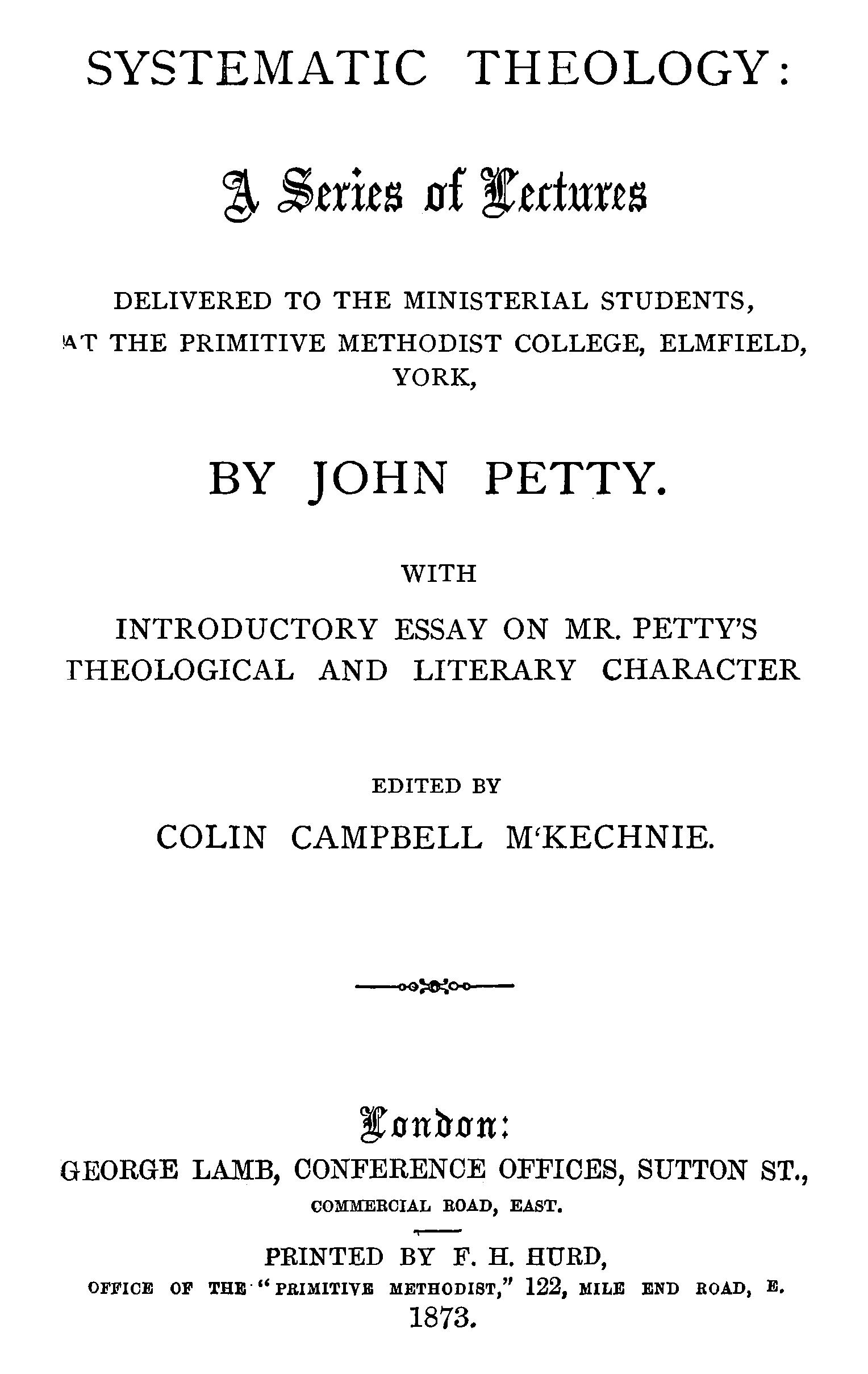
DELIVERED TO THE MINISTERIAL STUDENTS, !.\'f THE PRIMITIVE METHODIST COLLEGE, ELMFIELD, YORK,
BY JOHN PETTY.
WITH INTRODUCTORY ESSAY ON MR. PETTY'S THEOLOGICAL AND LITERARY CHARACTER
EDITED BY COLIN CAMPBELL
GEORGE LAMB, CONFERENCE OFFICES, SUTTON ST., COMMERCIAL ROAD, EAST • ..---
PRINTED BY F. H. HURD, OFFICE OF THE·" PRIMITIVE METHODIST," 122, MILE END ROAD, E, 1873.

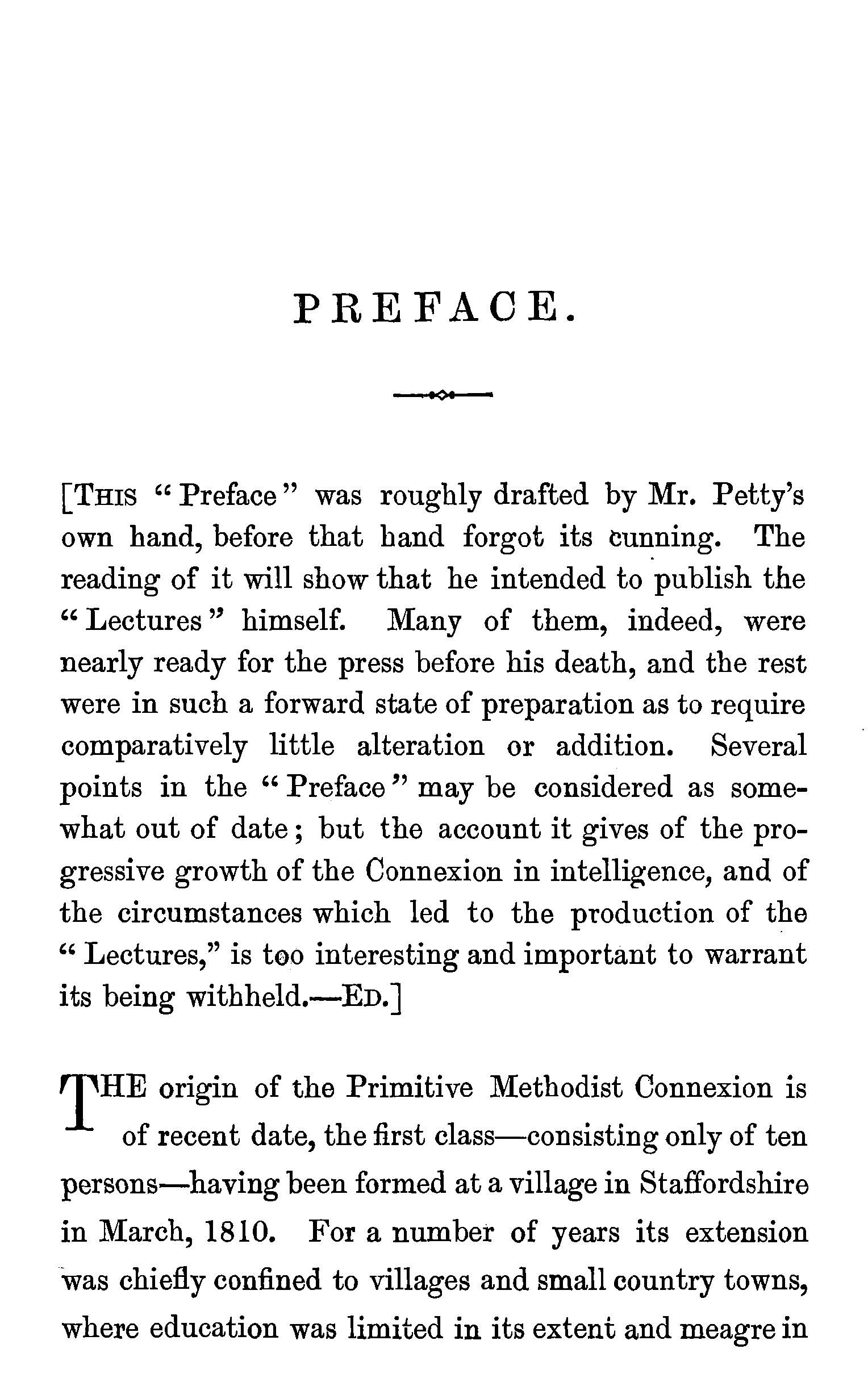
[THIS "Preface" was roughly drafted by Mr. Petty's own hand, before that hand forgot its cunning. The reading of it will show that he intended to publish the " Lectures " himself. Many of them, indeed, were nearly ready for the press before his death, and the rest were in such a forward state of preparation as to require comparatively little alteration or addition. Several points in the "Preface" may be considered as somewhat out of date; but the account it gives of the progressive growth of the Connexion in intelligence, and of the circumstances which led to the production of the "Lectures," is to.o interesting and important to warrant its being witbheld.-ED.]
THE origin of the Primitive Methodist Connexion is of recent date, the first class-consisting only of ten persons-having been formed at a village in Staffordshire in March, 1810. For a number of years its extension was chiefly confined to villages and small country towns, where education was limited in its extent and meagre in
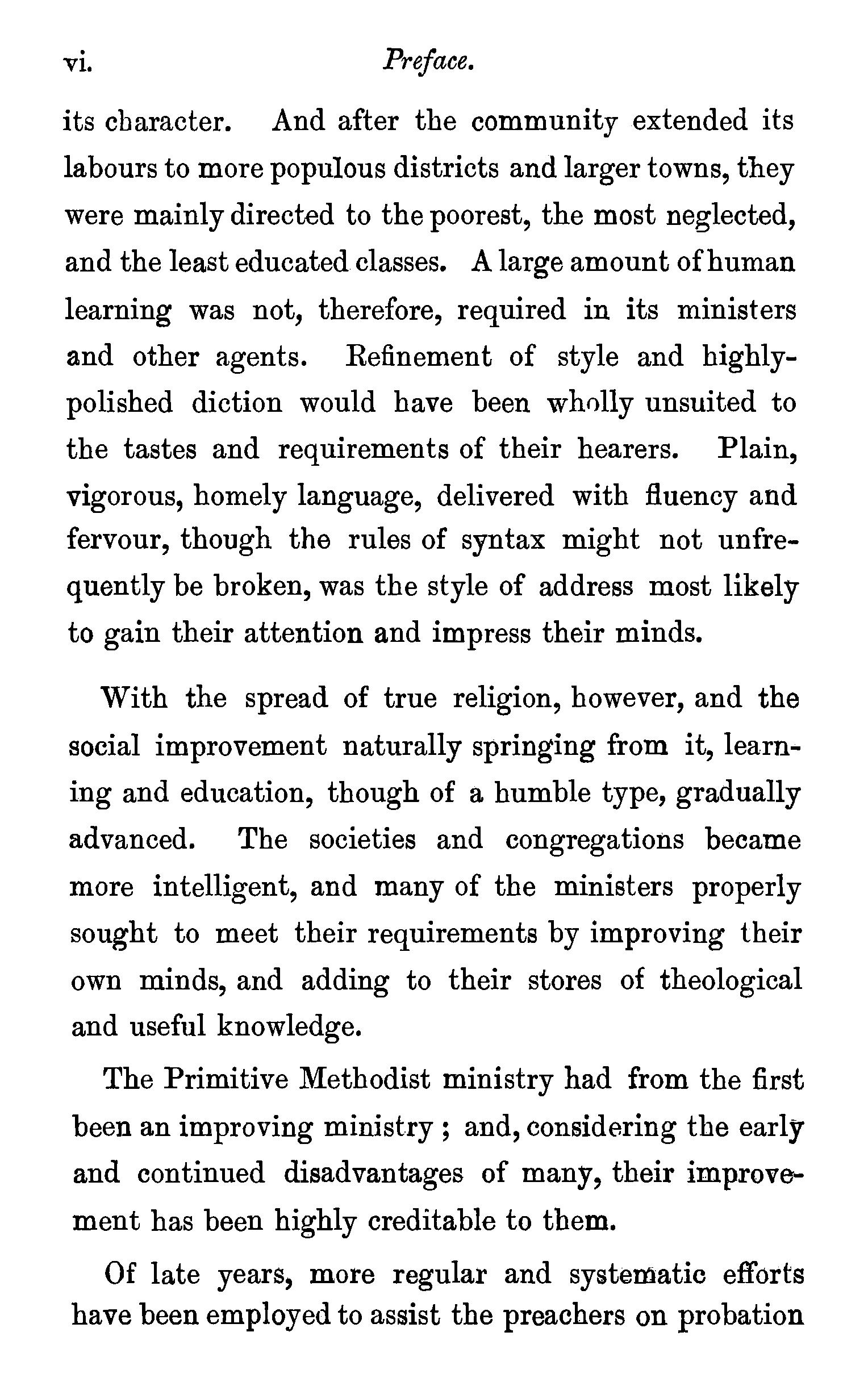
its character. And after the community extended its labours to more populous districts and larger towns, they were mainly directed to the poorest, the most neglected, and the least educated classes. A large amount of human learning was not, therefore, required in its ministers and other agents. Refinement of style and highlypolished diction would have been wholly unsuited to the tastes and requirements of their hearers. Plain, vigorous, homely language, delivered with fluency and fervour, though the rules of syntax might not unfrequently be broken, was the style of address most likely to gain their attention and impress their minds.
With the spread of true religion, however, and the social improvement naturally springing from it, learning and education, though of a humble type, gradually advanced. The societies and congregations became more intelligent, and many of the ministers properly sought to meet their requirements by improving their own minds, and adding to their stores of theological and useful knowledge.
The Primitive Methodist ministry had from the first been an improving ministry ; and, considering the early and continued disadvantages of many, their improvement has been highly creditable to them.
Of late years, more regular and systematic efforts have been employed to assist the preachers on probation
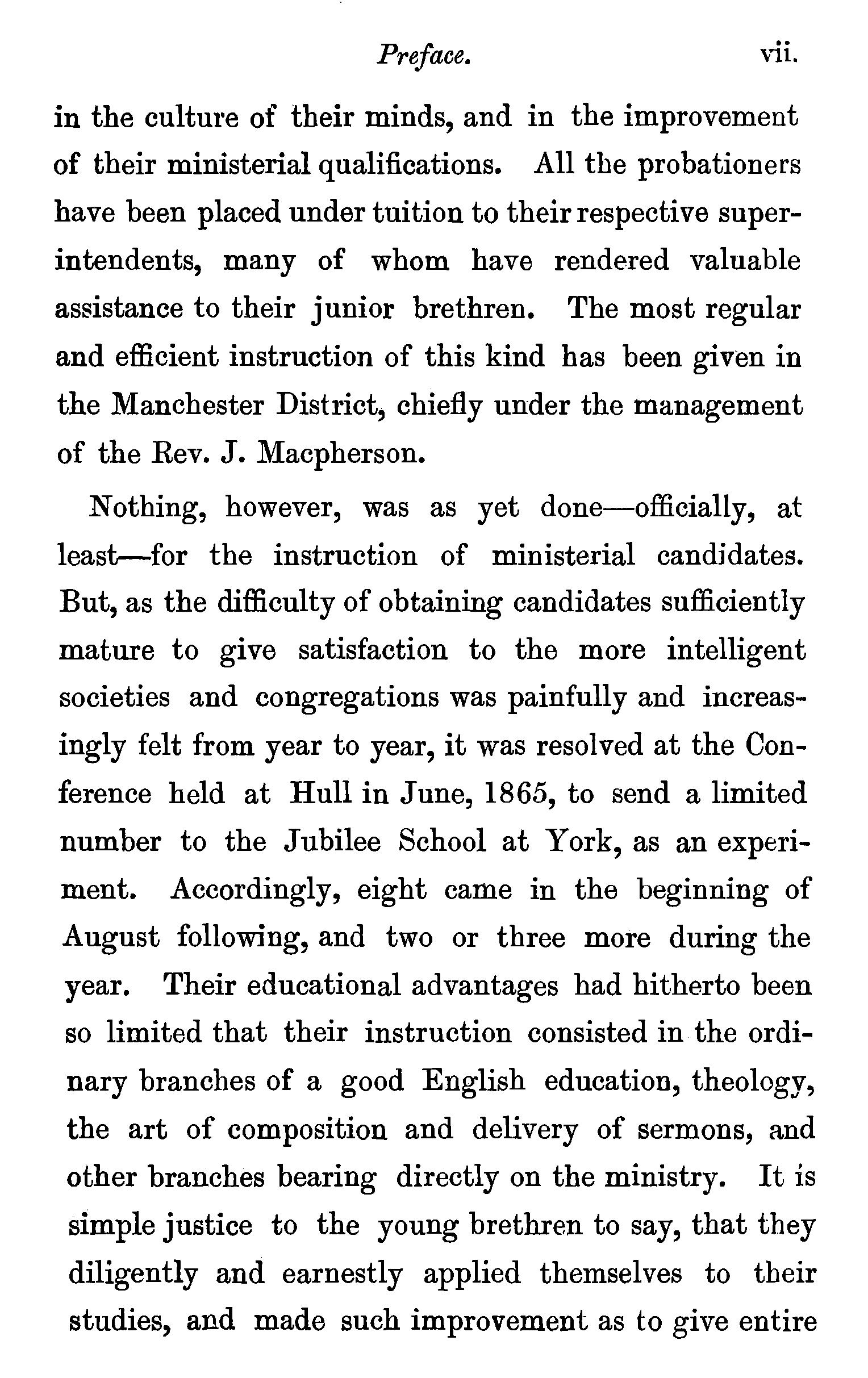
in the culture of their minds, and in the improvement of their ministerial qualifications. All the probationers have been placed under tuition to their respective superintendents, many of whom have rendered valuable assistance to their junior brethren. The most regular and efficient instruction of this kind has been given in the Manchester District, chiefly under the management of the Rev. J. Macpherson.
Nothing, however, was as yet done-officially, at least-for the instruction of ministerial candidates. But, as the difficulty of obtaining candidates sufficiently mature to give satisfaction to the more intelligent societies and congregations was painfully and increasingly felt from year to year, it was resolved at the Conference held at Hull in June, 1865, to send a limited number to the Jubilee School at York, as an experiment. Accordingly, eight came in the beginning of August following, and two or three more during the year. Their educational advantages had hitherto been so limited that their instruction consisted in the ordinary branches of a good English education, theology, the art of composition and delivery of sermons, and other branches bearing directly on the ministry. It is simple justice to the young brethren to say, that they diligently and earnestly applied themselves to their studies, and made such improvement as to give entire
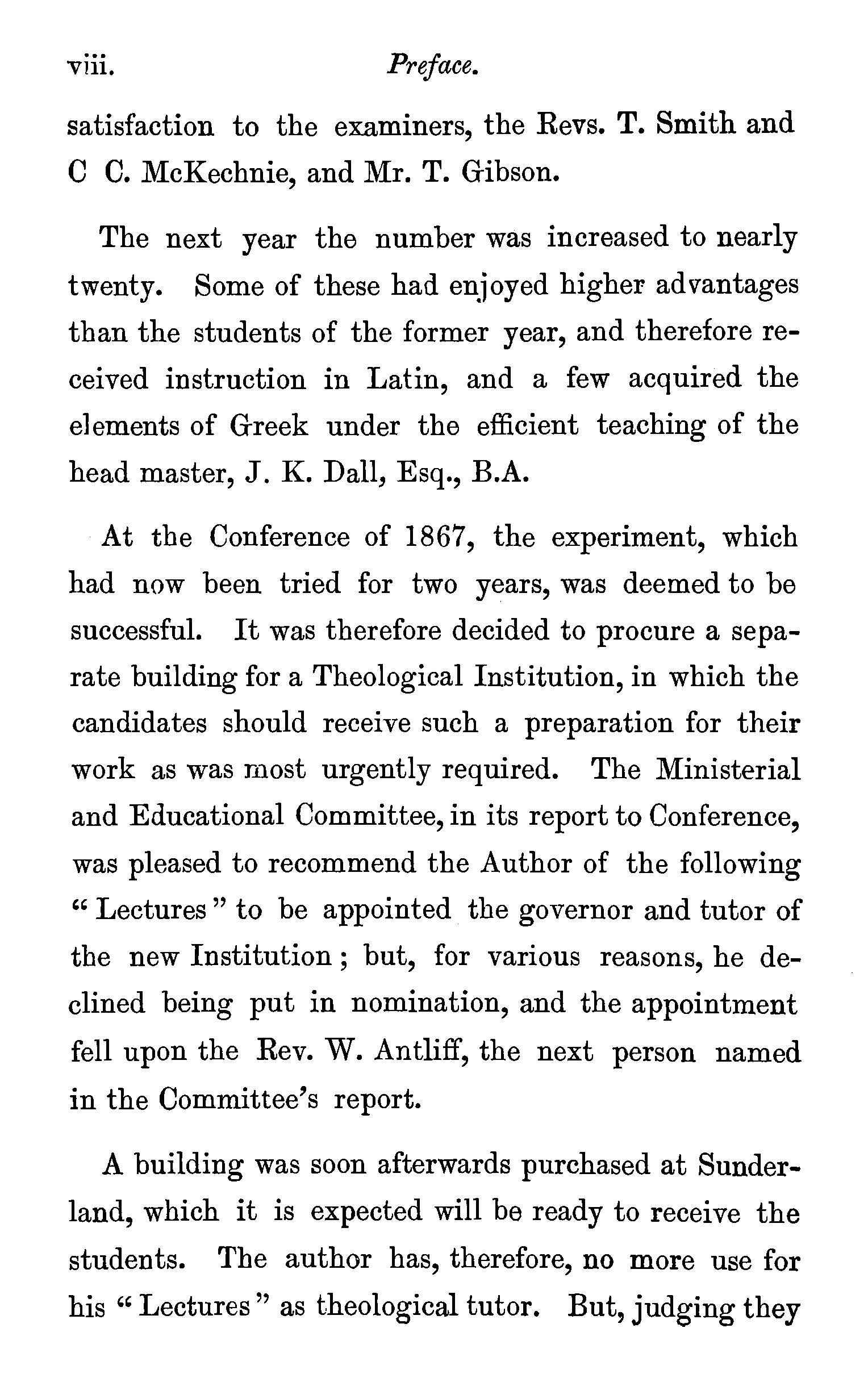
satisfaction to the examiners, the Revs. T. Smith and CC. McKechnie, and Mr. T. Gibson.
The next year the number was increased to nearly twenty. Some of these had enjoyed higher advantages than the students of the former year, and therefore received instruction in Latin, and a few acquired the e]ements of Greek under the efficient teaching of the head master, J. K. Dall, Esq., B.A.
At the Conference of 1867, the experiment, which had now been tried for two years, was deemed to be successful. It was therefore decided to procure a separate building for a Theological Institution, in which the candidates should receive such a preparation for their work as was most urgently required. The Ministerial and Educational Committee, in its report to Conference, was pleased to recommend the Author of the following "Lectures" to be appointed the governor and tutor of the new Institution ; but, for various reasons, he declined being put in nomination, and the appointment fell upon the Rev. W. Antliff, the next person named in the Committee's report.
A building was soon afterwards purchased at Sunderland, which it is expected will be ready to receive the students. The author has, therefore, no more use for his "Lectures" as theological tutor. But, judging they
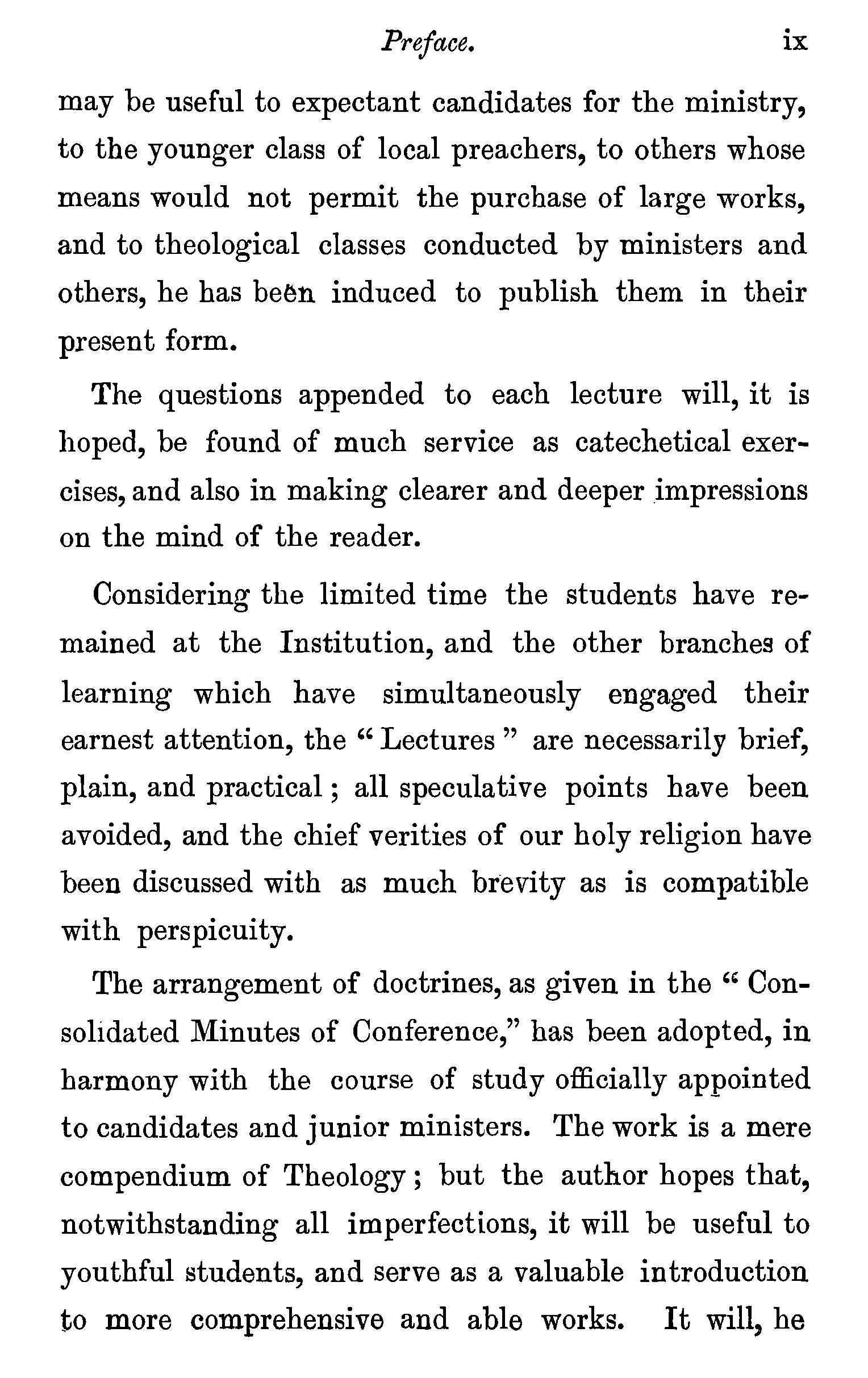
may be useful to expectant candidates for the ministry, to the younger class of local preachers, to others whose means would not permit the purchase of large works, and to theological classes conducted by ministers and others, he has be~n induced to publish them in their present form.
The questions appended to each lecture will, it is hoped, be found of much service as catechetical exercises, and also in making clearer and deeper impressions on the mind of the reader.
Considering the limited time the students have remained at the Institution, and the other branches of learning which have simultaneously engaged their earnest attention, the " Lectures " are necessarily brief, plain, and practical; all speculative points have been avoided, and the chief verities of our holy religion have been discussed with as much brevity as is compatible with perspicuity.
The arrangement of doctrines, as given in the "Consolidated Minutes of Conference," has been adopted, in harmony with the course of study officially appointed to candidates and junior ministers. The work is a mere compendium of Theology ; but the author hopes that, notwithstanding all imperfections, it will be useful to youthful students, and serve as a valuable introduction to more comprehensive and able works. It will, he
hopes, too, have some interest in the Connexion from its historic associations, containing, as it does, the first regular course of Theological Lectures given to candidates for the ministry.
Such as the work is, with its excellences and defects, the Author commits it to the candour of his brethren and to the blessing of Almighty God.
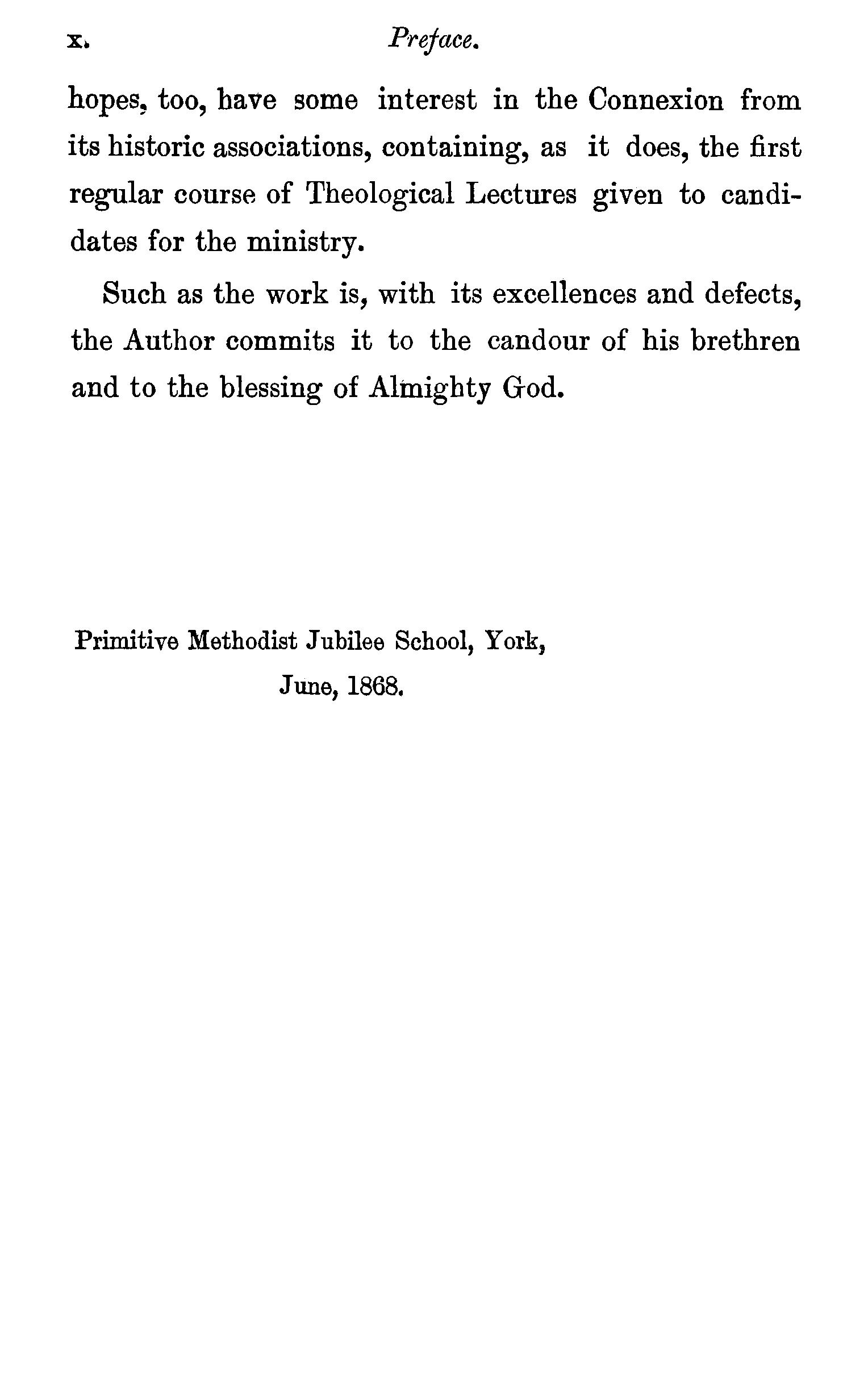
Primitive Methodist Jubilee School, York, June, 1868,
Preliminary Counsels.
The ministry a momentous work-The Christian minister should be truly pious-Irreligious ministers not recognized by God-Evils resultingfrom ministers being irreligious-Eminent piety required in the ministry-Examples of eminently pious ministers-Prejudices against Theological institutions-How to overcome such prejudices-Diligence necessary to success in study-Students should be careful of their health-Primary importance of Theological study-The composition of sermons-Classical studies-A disciplined mind ofmore value than knowledge-Motives-Prayer a help to study. . 8
Systematic Theology.
Theology the grandest of the sciences-Preparations for Theological study-Systems of Theology-Induction of Scripture passages-The Bible sanctions systematic Theology-Systematic Theology is Bible teaching systematized-General includes particular truth-· Systematic Theology objected to as illiberalDrs. Chalmersand Wardlaws' views of systematic Theology-The sincere student of Scripture must systematize-· Two modes of constructing a system of Theology-Questions. . . 22
The Being of God.
The Scriptures take the being of God for granted-· -The argument a Priori-this argument deserves to be studied-Dr. A. Clarke and Mr. Gillespie its two great exponents-Mr. Gillespie's book-Its probable fate-Origin of the a Priori argument-The a Posteriori argument-Agreement of Gillespie with HumeAuthorities for both arguments-Questions . . 34
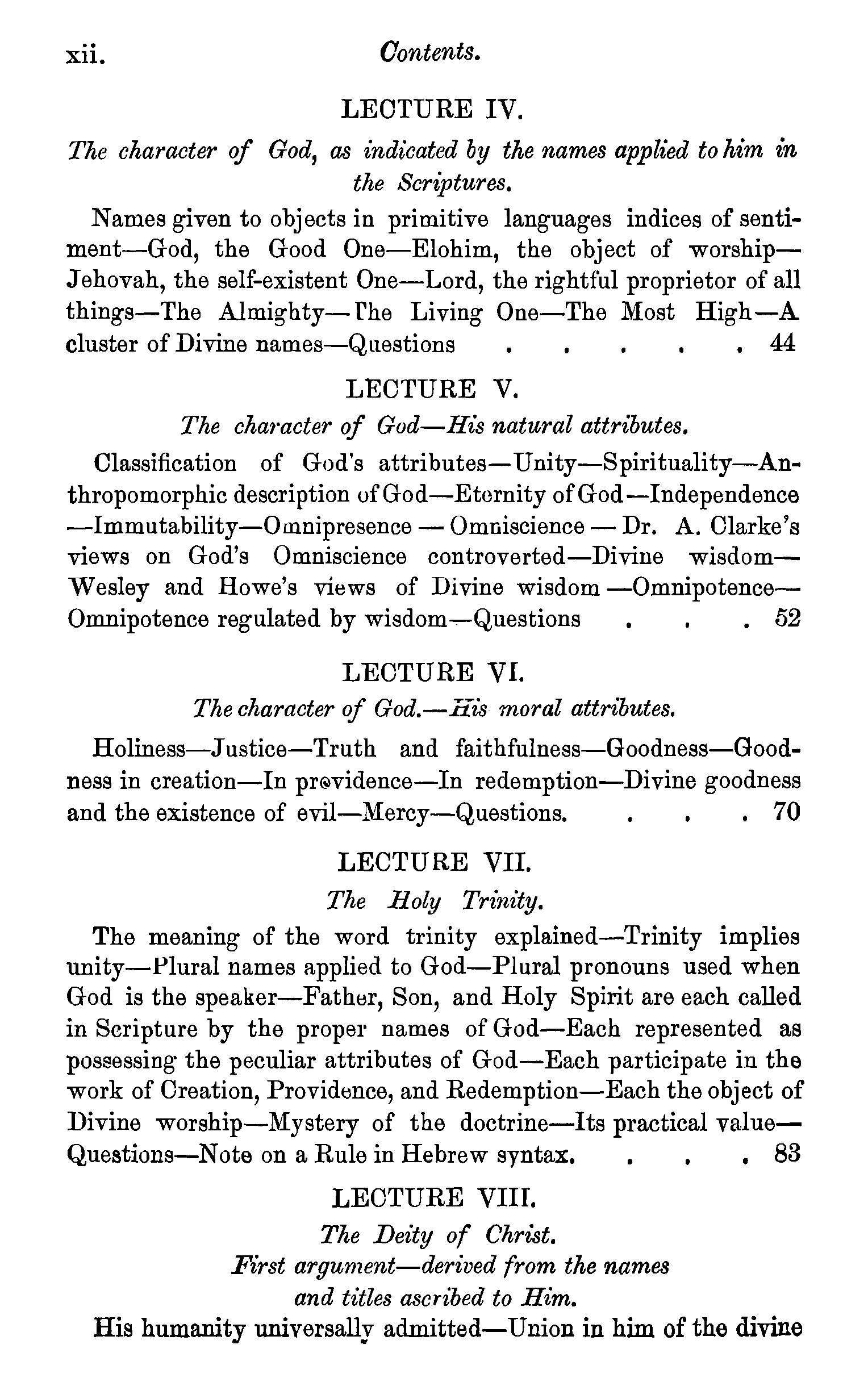
IV.
The character of God, as indicated by the names applied to him in the Scriptures.
Names given to objects in primitive languages indices of sentiment-God, the Good One-Elohim, the object of worshipJehovah, the self-existent One-Lord, the rightful proprietor of all things-The Almighty-rhe Living One-The Most High-A cluster of Divine names-Questions . 44
V.
The character of God-His natural attributes.
Classification of God's attributes-Unity-Spirituality-Anthropomorphic description of God-Eternity of God-Independence -Immutability-Omnipresence -Omniscience -Dr. A. Clarke's views on God's Omniscience controverted-Divine wisdomWesley and Howe's views of Divine wisdom -OmnipotenceOmnipotence regulated by wisdom-Questions . 52
VI.
The characterof God.-His moral attributes.
Holiness-Justice-Truth and faithfulness-Goodness-Goodness in creation-In pr@vidence-In redemption-Divine goodness and the existence of evil-Mercy-Questions. , 70
VII.
The Roly Trinity.
The meaning of the word trinity explained-Trinity implies unity-Plural names applied to God-Plural pronouns used when God is the speaker-Father, Son, and Holy Spirit are each called in Scripture by the proper names of God-Each represented as possessing·the peculiar attributes of God-Each participate in the work of Creation, Providence, and Redemption-Each the object of Divine worship-Mystery of the doctrine-Its practical valueQuestions-Note on a Rule in Hebrew syntax. . 83
LECTURE VIII.
The Deity of Christ. First argument-derived from the names and titles ascribedto Him.
His humanity universally admitted-Union in him of the divine
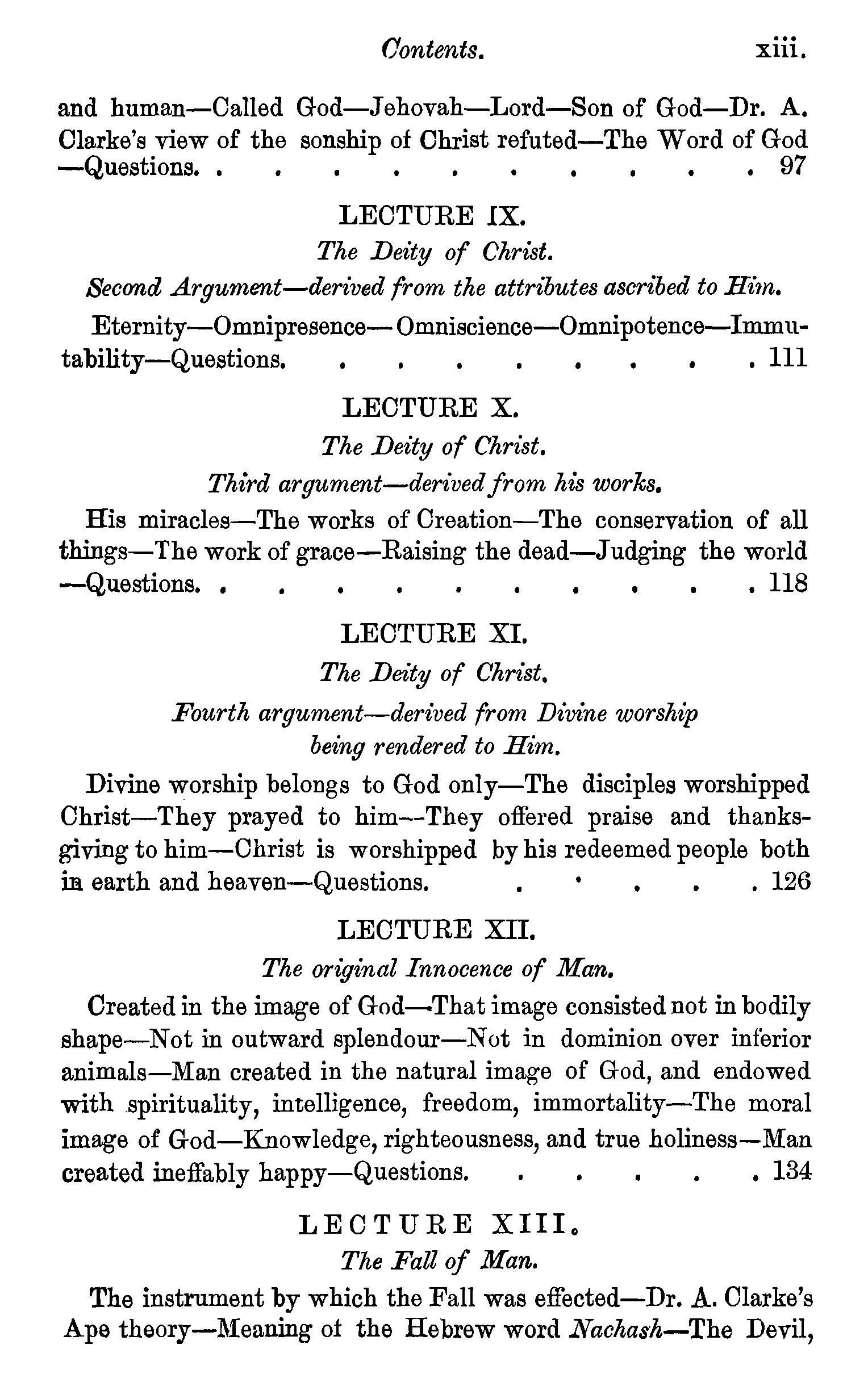
and human-Called God-Jehovah-Lord-Son of God-Dr. A. Clarke's view of the sonship of Christ refuted-The Word of God -Questions. . . . . . , , , . 97
LECTURE IX.
The Deity of Christ.
Second Argummt-derived from the attributes ascribed to Him, Eternity-Omnipresence-Omniscience-Omnipotence-Immutability-Questions, , 111
LECTURE X.
The Deity of Christ, Third argument-derived from his works.
His miracles-The works of Creation-The conservation of all things-The work of grace-Raising the dead-Judging the world -Questions. . . 118
LECTURE XI.
The Deity of Christ. Fourth argument-derived from Divine worship being rendered to Him.
Divine worship belongs to God only-The disciples worshipped Christ-They prayed to him--They offered praise and thanksgiving to him-Christ is worshipped by his redeemed people both mearth and heaven-Questions. . 126
LECTURE XII.
The original Innocence of Man.
Created in the image of God-That image consisted not in bodily shape-Not in outward splendour-Not in dominion over inferior animals-Man created in the natural image of God, and endowed with .spirituality, intelligence, freedom, immortality-The moral image of God-Knowledge, righteousness, and true holiness-Man created ineffably happy-Questions. . 134
LECTURE XIII.
The Fall of Man.
The instrument by which the Fall was effected-Dr. A. Clarke's Ape theory-Meaning of the Hebrew word Nachash-The Devil,
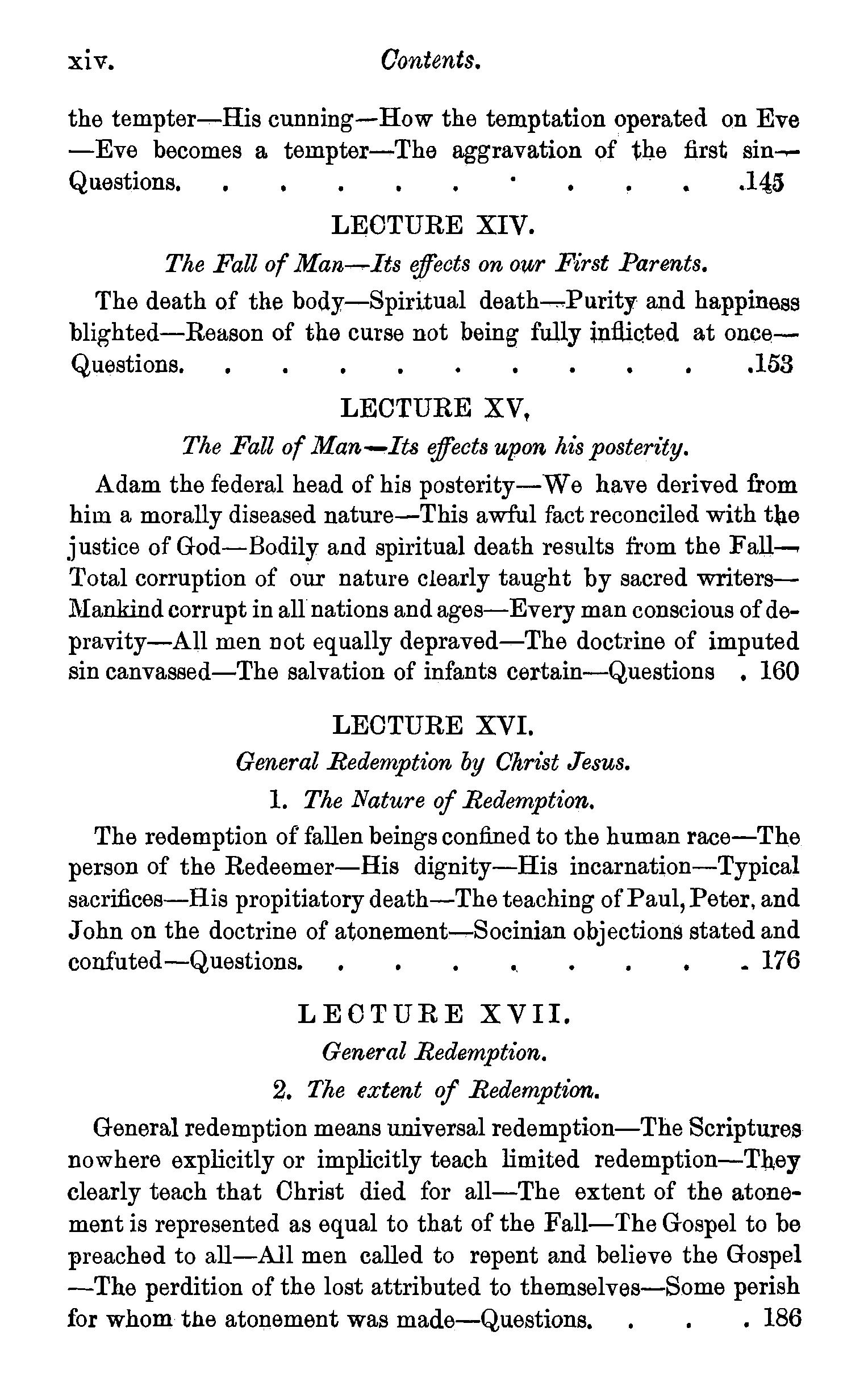
the tempter-His cunning-How the temptation operated on Eve -Eve becomes a tempter-The aggravation of the first sin-.Q uestions, .l,t5
LECTURE XIV.
The Fall of Man-Its ejfeetson our First Parents.
The death of the body-Spiritual death-Purity and happiness blighted-Reason of the curse not being fully inflicted at onceQuestions. .153
LECTURE XV,
The Fall of Man-Its ejfeetsupon his posterity.
Adam the federal head of his posterity-We have derived from him a morally diseased nature-This awful fact reconciled with the justice of God-Bodily and spiritual death results from the Fall ...... Total corruption of our nature clearly taught by sacred writersMankind corrupt in all nations and ages-Every man conscious of depravity-All men not equally depraved-The doctrine of imputed sin canvassed-The salvation of infants certain-Questions . 160
LECTURE XVI.
General Redemption by Christ Jesus.
1. The Nature of Redemption.
The redemption of fallen beings confined to the human race-Th.e person of the Redeemer-His dignity-His incarnation-Typical sacrifices-His propitiatory death-The teaching of Paul,Peter, and John on the doctrine of atonement-Socinian objections stated and confuted-Questions. . . 176
LECTURE XVII.
General Redemption.
2, The extent of Redemption.
General redemption means universal redemption-The Scriptures nowhere explicitly or implicitly teach limited redemption-They clearly teach that Christ died for all-The extent of the atonement is represented as equal to that of the Fall-The Gospel to be preached to all-All men called to repent and believe the Gospel -The perdition of the lost attributed to themselves-Some perish for whom the atonement was made-Questions. . 186
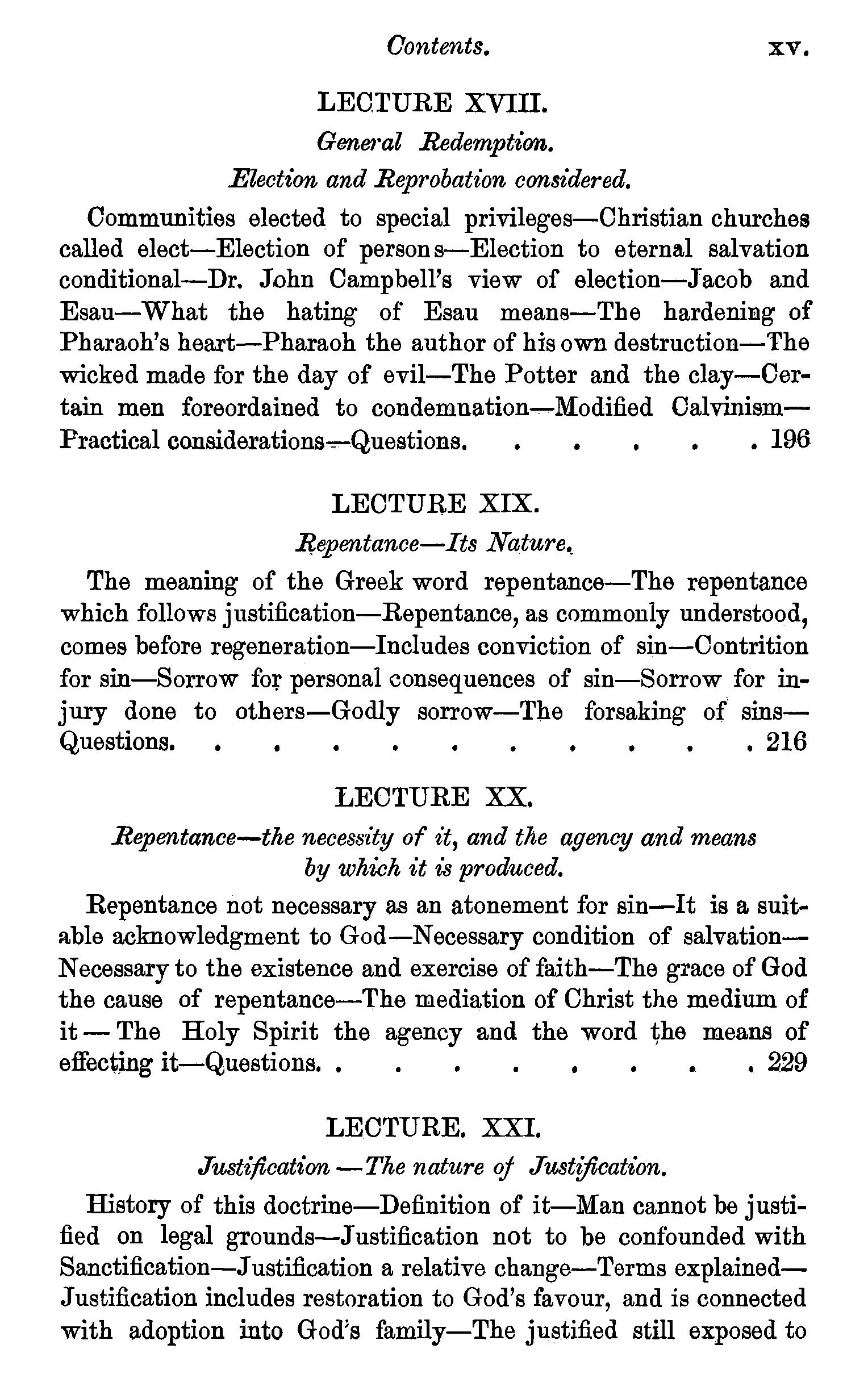
General Redemption.
Election and Reprobation considered,
Communities elected to special privileges-Christian churches called elect-Election of persons-Election to eternal salvation conditional-Dr. John Campbell's view of election-Jacob and Esau-What the hating of Esau means-The hardenieg of Pharaoh's heart-Pharaoh the author of his own destruction-The wicked made for the day of evil-The Potter and the clay-Certain men foreordained to condemnation---Modifi.ed OalvinismPractical considerations-=-Questions. . 196
R,epentance-Its Nature,.
The meaning of the Greek word repentance-The repentance which follows justification-Repentance, as commonly understood, comes before regeneration-Includes conviction of sin-Contrition for sin-Sorrow fo:rpersonal consequences of sin-Sorrow for injury done to others-Godly sorrow-The forsaking of sinsQuestions. . 216
Repentance-the necessity of it, and the agency and means by which it is produced,
Repentance not necessary as an atonement for sin-It is a suit~ble acknowledgment to God-Necessary condition of salvationNecessary to the existence and exercise of faith-The gxace of God the cause of repentance-The mediation of Christ the medium of it -The Holy Spirit the agency and the word {he means of e:ffectjngit-Questions. . . 229
Justification -The nature of Justijfoati'on.
History of this doctrine-Definition of it-Man cannot be justified on legal grounds-Justification not to be confounded with Sanctification-Justification a relative change-Terms explainedJustification includes restoration to God's favour, and is connected with adoption into God:s family-The justified still exposed to
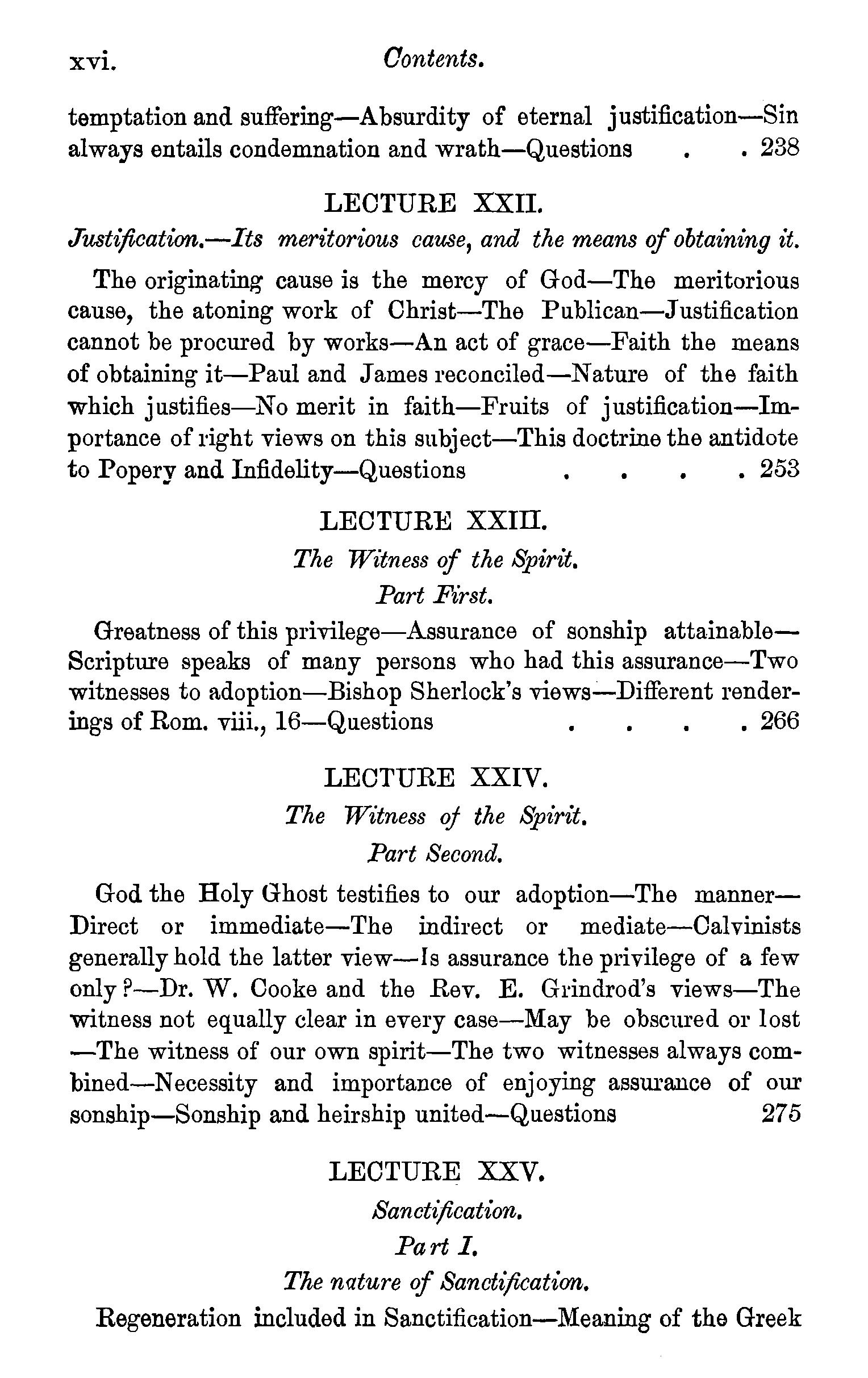
temptation and suffering-Absurdity of eternal justification-Sin always entails condemnation and wrath-Questions . 238
XXII.
Justification.-Its meritorious cause,and the means of obtaining it.
The originating cause is the mercy of God-The meritorious cause, the atoning work of Christ-The Publican-Justification cannot be procured by works-An act of grace-Faith the means of obtaining it-Paul and James reconciled-Nature of the faith which justifies-No merit in faith-Fruits of justification-Importance of right views on this subject-This doctrine the antidote to Popery and Infidelity-Questions . 253
XXIII.
The Witness of the Spirit.
Part First.
Greatness of this privilege-Assurance of sonship attainableScripture speaks of many persons who had this assurance-Two witnesses to adoption-Bishop Sherlock's views-Different renderings of Rom. viii., 16-Questions . 266
XXIV.
The Witness oj the Spirit.
Part Second.
God the Holy Ghost testifies to our adoption-The mannerDirect or immediate-The indirect or mediate-Calvinists generally hold the latter view-Is assurance the privilege of a few only ?-Dr. W. Cooke and the Rev. E. Grindrod's views-The witness not equally clear in every case-May be obscured or lost -The witness of our own spirit-The two witnesses always combined-Necessity and importance of enjoying assurance of our sonship-Sonship and heirship united-Questions 275
LECTURE XXV.
Sanctification.
Part I.
The nature ef Sanctification.
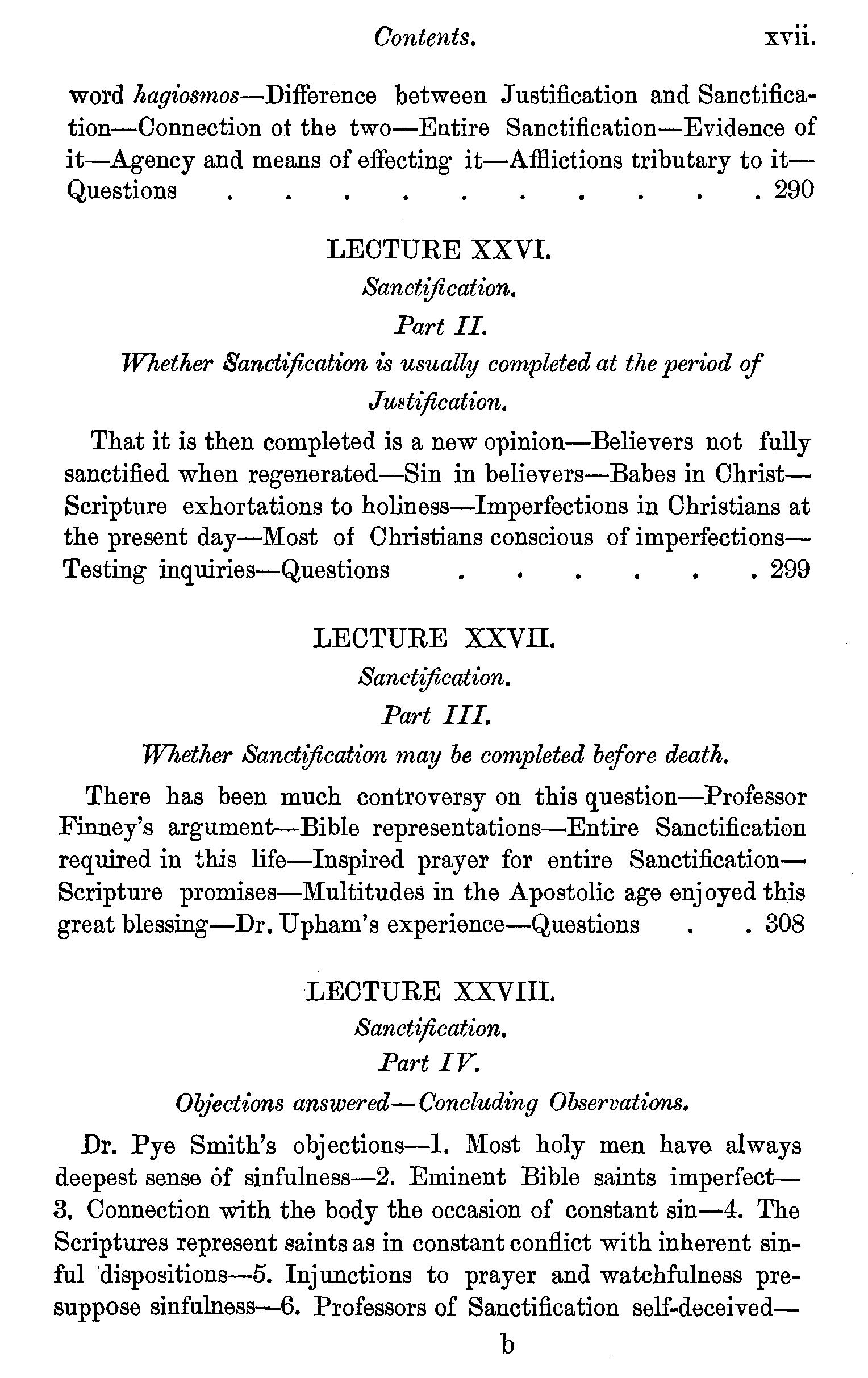
word hagiosmos-Difference between Justification and Sanctification-Connection ot the two-Entire Sanctification-Evidence of it-Agency and means of effecting it-Affiictions tributary to itQuestions . 290
LECTURE XXVI.
Sanctification.
Part II.
Whether Sandification is usually completedat the period of Justification.
That it is then completed is a new opinion-Believers not fully sanctified when regenerated-Sin in believers-Babes in ChristScripture exhortations to holiness-Imperfections in Christians at the present day-Most of Christians conscious of imperfectionsTesting inquiries-Questions . 299
LECTURE XXVII.
Sanctijication.
Part III.
Whether Sanctijication may be completed before death.
There has been much controversy on this question-Professor Finney's argument-Bible representations-Entire Sanctificati0n required in this life-Inspired prayer for entire SanctificationScripture promises-Multitudes in the Apostolic age enjoyed this great blessing-Dr. Upham's experience-Questions . 308
LECTURE XXVIII.
Sanctification.
Part IV.
Oqjections answered-Concluding Observations.
Dr. Pye Smith's objections-I. Most ho1y men have always deepest sense of sinfulness-2. Eminent Bible saints imperfect3. Connection with the body the occasion of constant sin-4. The Scriptures represent saints as in constant conflict with inherent sinful dispositions-5. Injunctions to prayer and watchfulness presuppose sinfulness-6. Professors of Sanctification self-deceived-
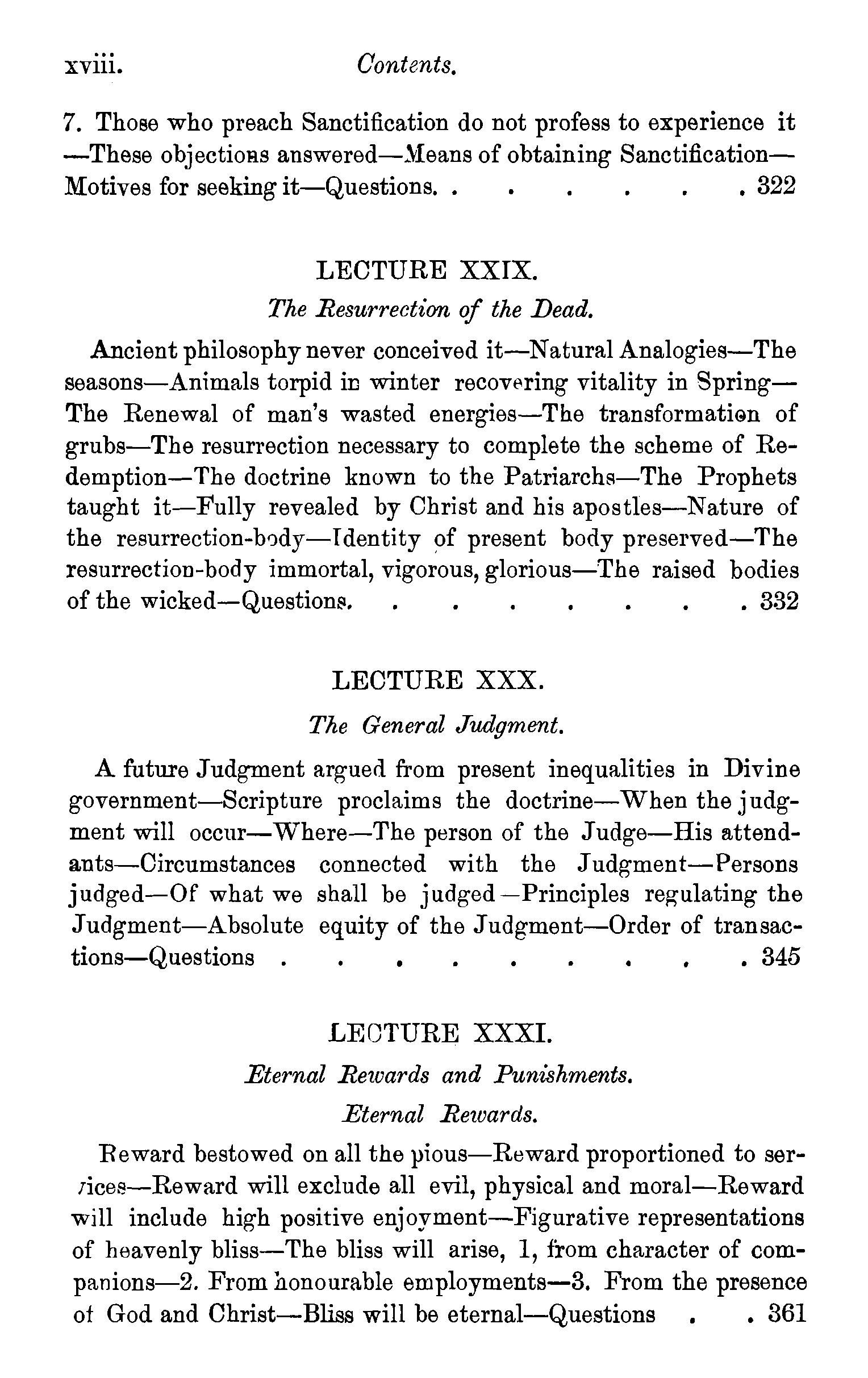
7. Those who preach Sanctification do not profess to experience it -These objectioBs answered-..\'Ieans of obtaining SanctificationMotives for seeking it-Questions. . . 322
LECTURE XXIX.
The Resurrection of the Dead.
Ancient philosophy never conceived it-Natural Analogies-The seasons-Animals torpid in winter recovE='ringvitality in SpringThe Renewal of man's wasted energies-The transformati@n of grubs-The resurrection necessary to complete the scheme of Redemption-The doctrine known to the Patriarchs-The Prophets taught it-Fully revealed by Christ and his apostles-Nature of the resurrection-b0dy-Identity of present body preserved-The resurrection-body immortal, vigorous, glorious-The raised bodies of the wicked-QuestionE!. . 332
LECTURE XXX.
The General Judgment.
A future Judgment argued from present inequalities in Divine government-Scripture proclaims the doctrine-When the judgment will occur-Where-The person of the Judge-His attendants-Circumstances connected with the Judgment-Persons judged-Of what we shall be judged-Principles regulating the Judgment-Absolute equity of the Judgment-Order of transactions-Questions . . 345
LECTURE XXXI.
Eternal Rewards and Punishments.
Eternal Rewards.
Reward bestowed on all the pious-Reward proportioned to ser1ices-Reward will exclude all evil, physical and moral-Reward will include high positive enjoyment-Figurative representations of heavenly bliss-The bliss will arise, I, from character of companions-2. From i10nourable employments-3. From the presence of God and Christ-Bliss will be eternal-Questions . 361
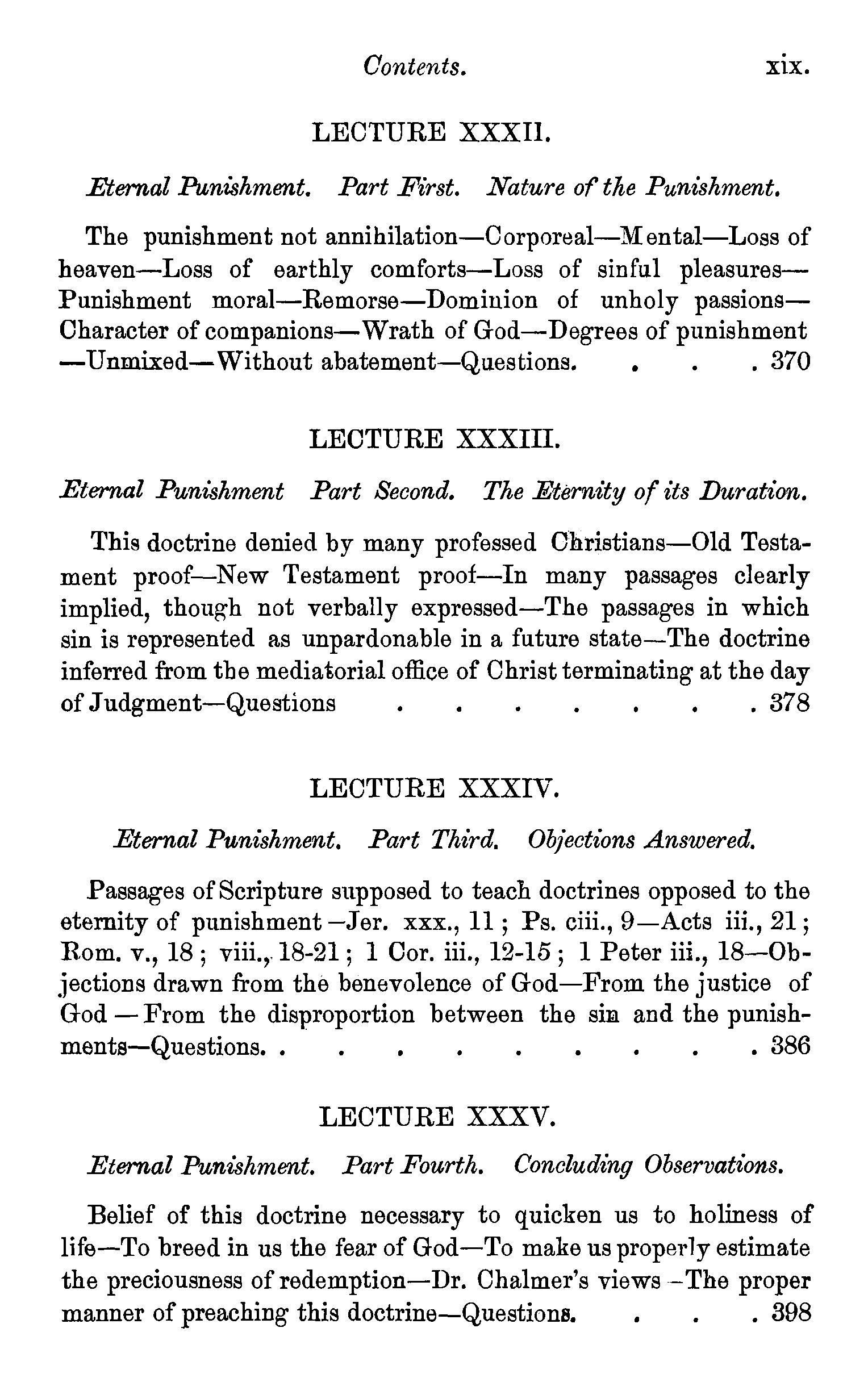
XXXII.
Eternal Punishment. Part First. Nature of the Punishment,
The punishment not annihilation-Corporeal-Mental-Loss of heaven-Loss of earthly comforts-Loss of sinful pleasuresPunishment moral-Remorse-Dominion of unholy passionsCharacter of companions-Wrath of God-Degrees of punishment -Unmixed-Without abatement-Questions. . 370
LECTURE XXXIII.
Eternal Punishment Part Second. The Eternity of its Duration.
This doctrine denied by many professed Christians-Old Testament proof-New Testament proof-In many passages clearly implied, though not verbally expressed-The passages in which sin is represented as unpardonable in a future state-The doctrine inferred from the mediatorial office of Christ terminating at the day of Judgment-Questions . 378
LECTURE XXXIV.
Eternal Punishment. Part Third. ObjectionsAnswered.
Passages of Scripture supposed to teach doctrines opposed to the eternity of punishment -Jer. xxx., 11; Ps. ciii., 9-Acts iii., 21; Rom. v., 18; viii.,.18-21; 1 Cor. iii., 12-15; 1 Peter iii., 18-Objections drawn from the benevolence of God-From the justice of God -From the disproportion between the siR and the punishments-Questions. . . 386
LECTURE XXXV.
Eternal Punishment. Part Fourth. Concluding Observations.
Belief of this doctrine necessary to quicken us to holiness of life-To breed in us the fear of God-To make us properly estimate the preciousness of redemption-Dr. Chalmer's views -The proper manner of preaching this doctrine-Questions. . 398
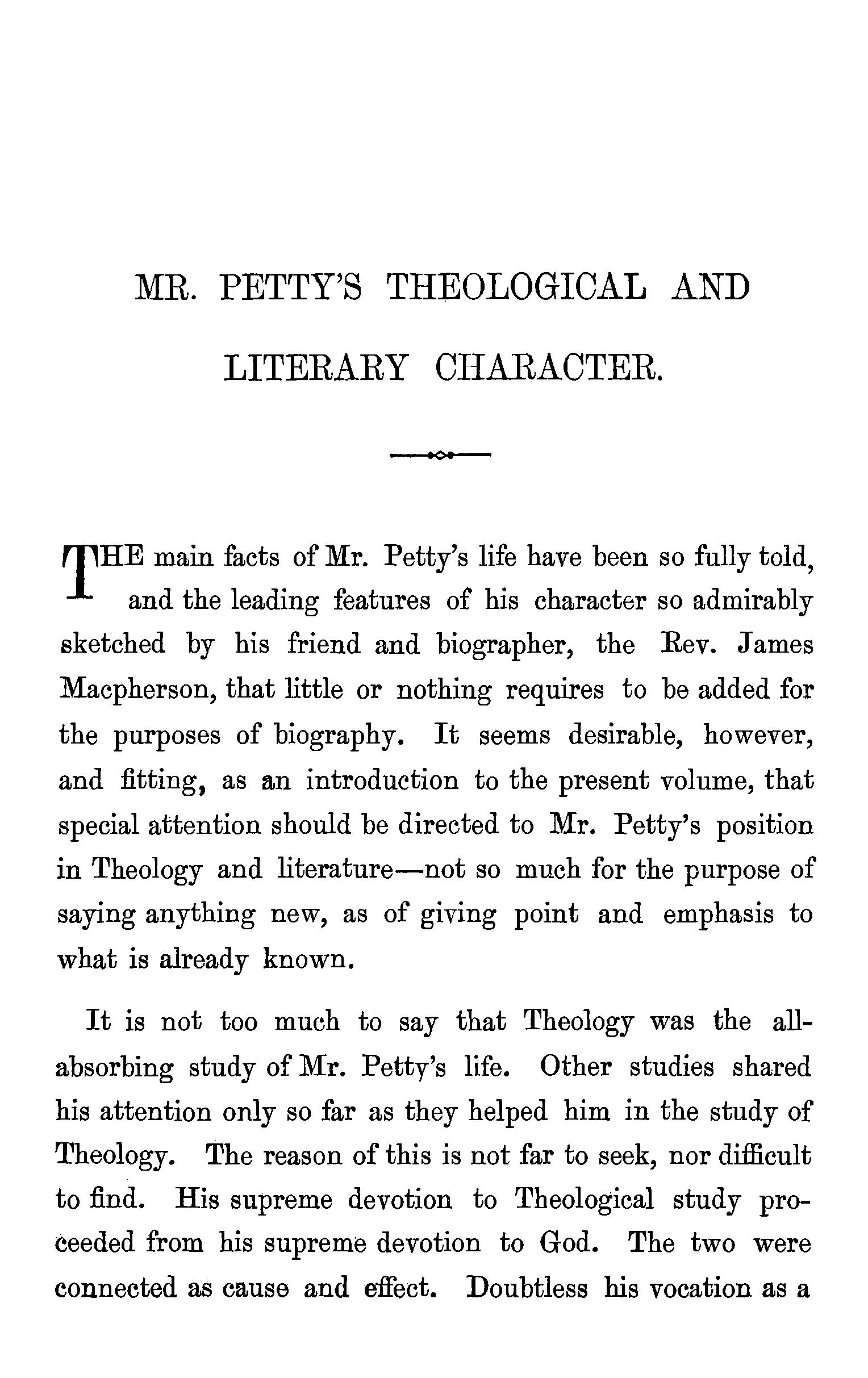
THE main facts of Mr. Petty's life have been so fully told, and the leading features of his character so admirably sketched by his friend and biographer, the Rev. James Macpherson, that little or nothing requires to be added for the purposes of biography. It seems desirable, however, and fitting, as an introduction to the present volume, that special attention should be directed to Mr. Petty's position in Theology and literature-not so much for the purpose of saying anything new, as of giving point and emphasis to what is already known.
It is not too much to say that Theology was the allabsorbing study of Mr. Petty's life. Other studies shared his attention only so far as they helped him in the study of Theology. The reason of this is not far to seek, nor difficult to find. His supreme devotion to Theological study proceeded from his supreme devotion to God. The two were connected as cause and effect. Doubtless his vocation as a
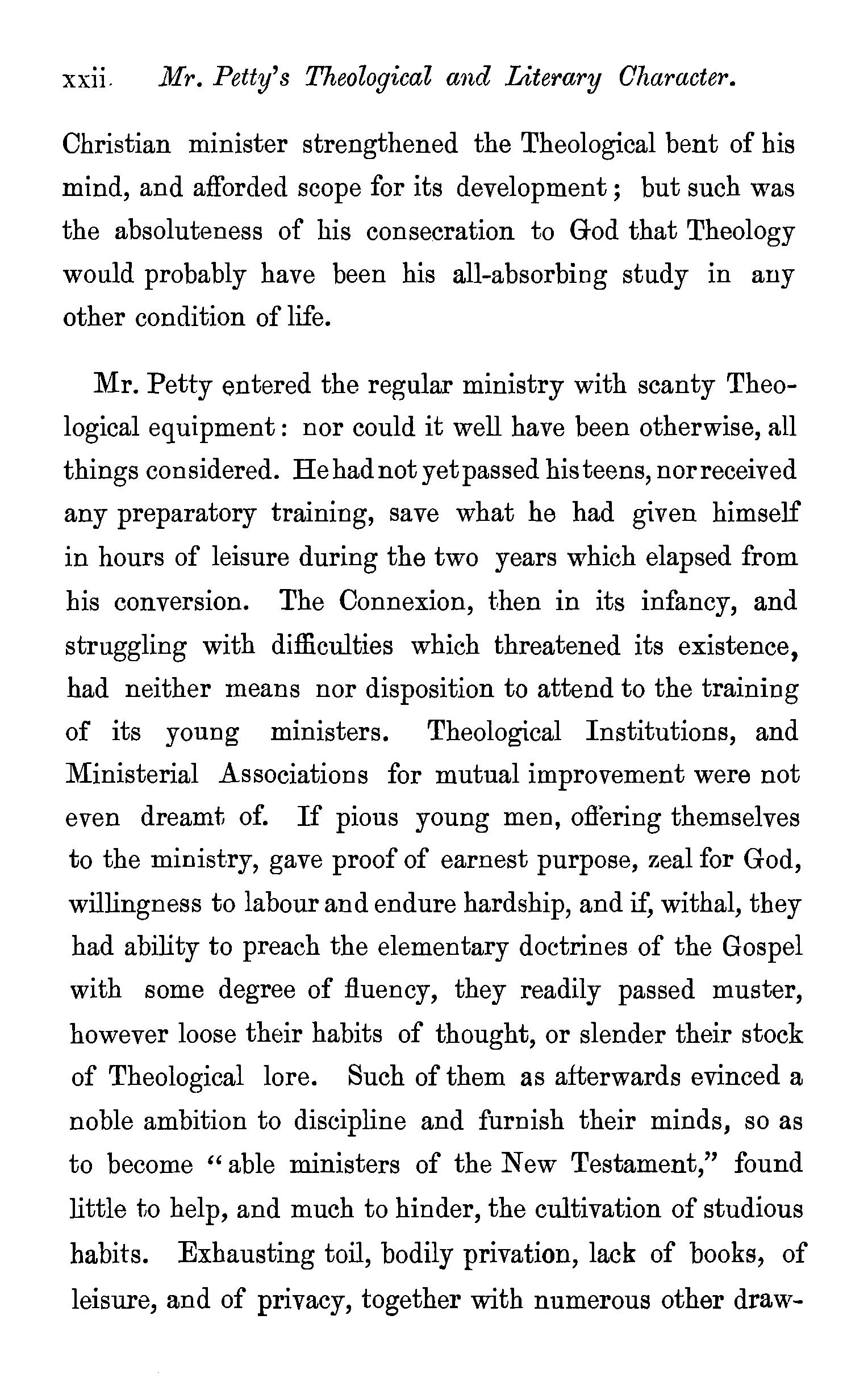
xxn. J.lfr. Petty's Theological and Li,terary Character.
Christian minister strengthened the Theological bent of his mind, and afforded scope for its development; but such was the absoluteness of his consecration to God that Theology would probably have been his all-absorbing study in any other condition of life.
Mr. Petty entered the regular ministry with scanty Theological equipment: nor could it well have been otherwise, all things considered. He had not yet passed his teens, nor received any preparatory training, save what he had given himself in hours of leisure during the two years which elapsed from bis conversion. The Connexion, then in its infancy, and struggling with difficulties which threatened its existence, had neither means nor disposition to attend to the training of its young ministers. Theological Institutions, and Ministerial Associations for mutual improvement were not even dreamt of. If pious young men, offering themselves to the ministry, gave proof of earnest purpose, zeal for God, willingness to labour and endure hardship, and if, withal, they had ability to preach the elementary doctrines of the Gospel with some degree of fluency, they readily passed muster, however loose their habits of thought, or slender their stock of Theological lore. Such of them as afterwards evinced a noble ambition to discipline and furnish their minds, so as to become " able ministers of the New Testament," found little to help, and much to hinder, the cultivation of studious habits. Exhausting toil, bodily privation, lack of books, of leisure, and of privacy, together with numerous other draw-
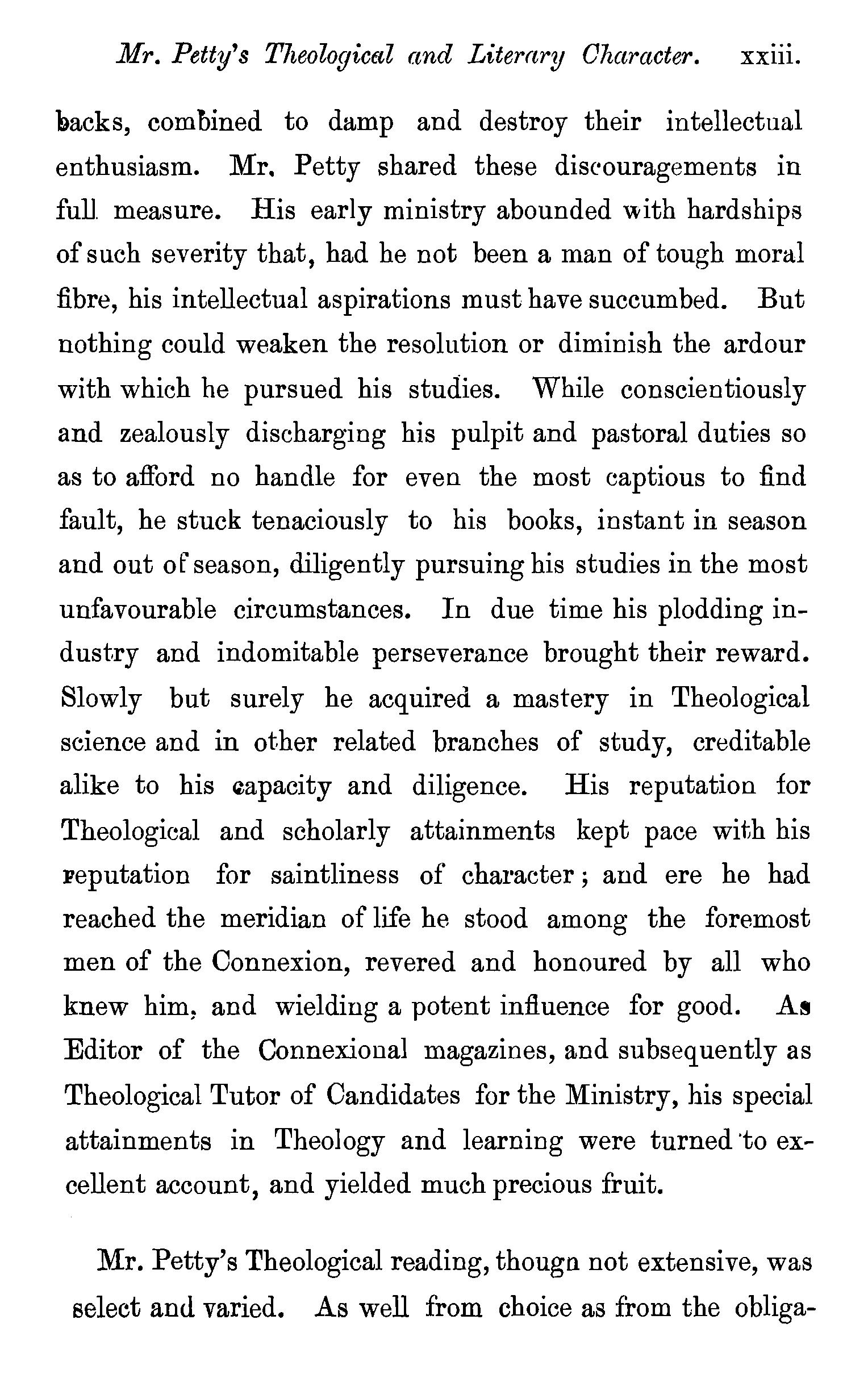
Mr. Petty's Theological and Literary Character. xxm. backs, comoined to damp and destroy their intellectual enthusiasm. Mr. Petty shared these discouragements in full. measure. His early ministry abounded with hardships of such severity that, had he not been a man of tough moral fibre, his intellectual aspirations must have succumbed. But nothing could weaken the resolution or diminish the ardour with which he pursued his studies. While conscientiously and zealously discharging his pulpit and pastoral duties so as to afford no handle for even the most captious to find fault, he stuck tenaciously to his books, instant in season and out of season, diligently pursuing his studies in the most unfavourable circumstances. In due time his plodding industry and indomitable perseverance brought their reward. Slowly but surely he acquired a mastery in Theological science and in ot.her related branches of study, creditable alike to his ~apacity and diligence. His reputation for Theological and scholarly attainments kept pace with his Peputation for saintliness of character ; and ere he had reached the meridian of life he stood among the foremost men of the Connexion, revered and honoured by all who knew him, and wielding a potent influence for good. A!!I Editor of the Connex.ional magazines, and subsequently as Theological Tutor of Candidates for the Ministry, his special attainments in Theology and learning were turned 'to excellent account, and yielded much precious fruit.
Mr. Petty's Theological reading, thougn not extensive, was select and varied. As well from choice as from the obliga-
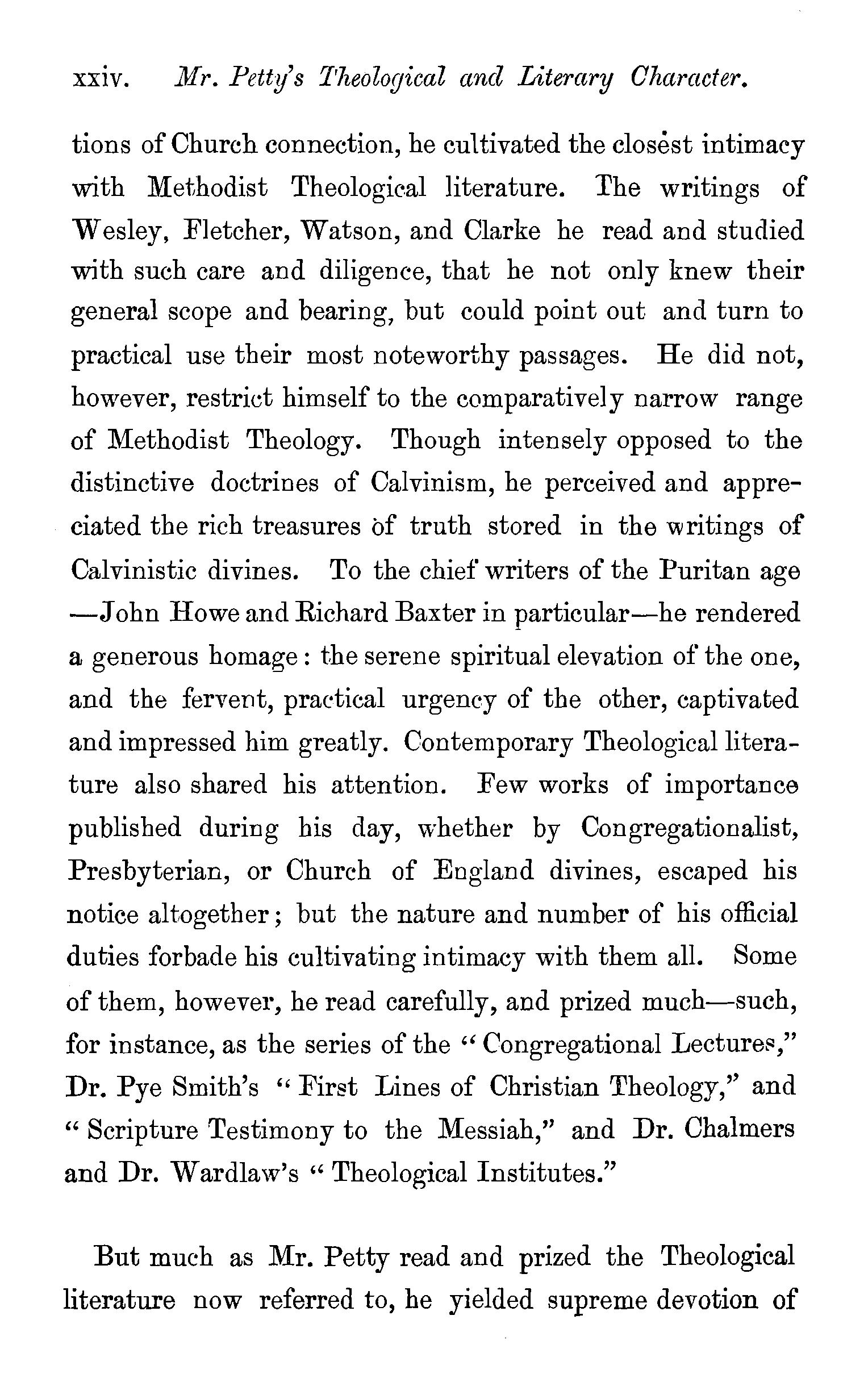
xx1v. Mr. Petty's 'I'lieologicaland Literary Character.
tions of Church connection, he cultivated the closest intimacy with Methodist Theological literature. The writings of Wesley, Fletcher, Watson, and Clarke he read and studied with such care and diligence, that he not only knew their general scope and bearing, but could point out and turn to practical use their most noteworthy passages. He did not, however, restrict himself to the comparatively narrow range of Methodist Theology. Though intensely opposed to the distinctive doctrines of Calvinism, he perceived and appreciated the rich treasures of truth stored in the writings of Calvinistic divines. To the chief writers of the Puritan age -John Howe and Richard Baxter in particular-he rendered a generous homage : the serene spiritual elevation of the one, and the fervent, practical urgency of the other, captivated and impressed him greatly. Contemporary Theological literature also shared his attention. Few works of importance published during bis day, whether by Congregationalist, Presbyterian, or Church of England divines, escaped his notice altogether; but the nature and number of his official duties forbade his cultivating intimacy with them all. Some of them, however, he read carefully, and prized much-such, for instance, as the series of the '' Congregational Lecture1'l," Dr. Pye Smith's "First Lines of Christian Theology,'' and " Scripture Testimony to the Messiah," and Dr. Chalmers and Dr. W ardlaw's '' Theological Institutes."
But much as Mr. Petty read and prized the Theological literature now referred to, be yielded supreme devotion of
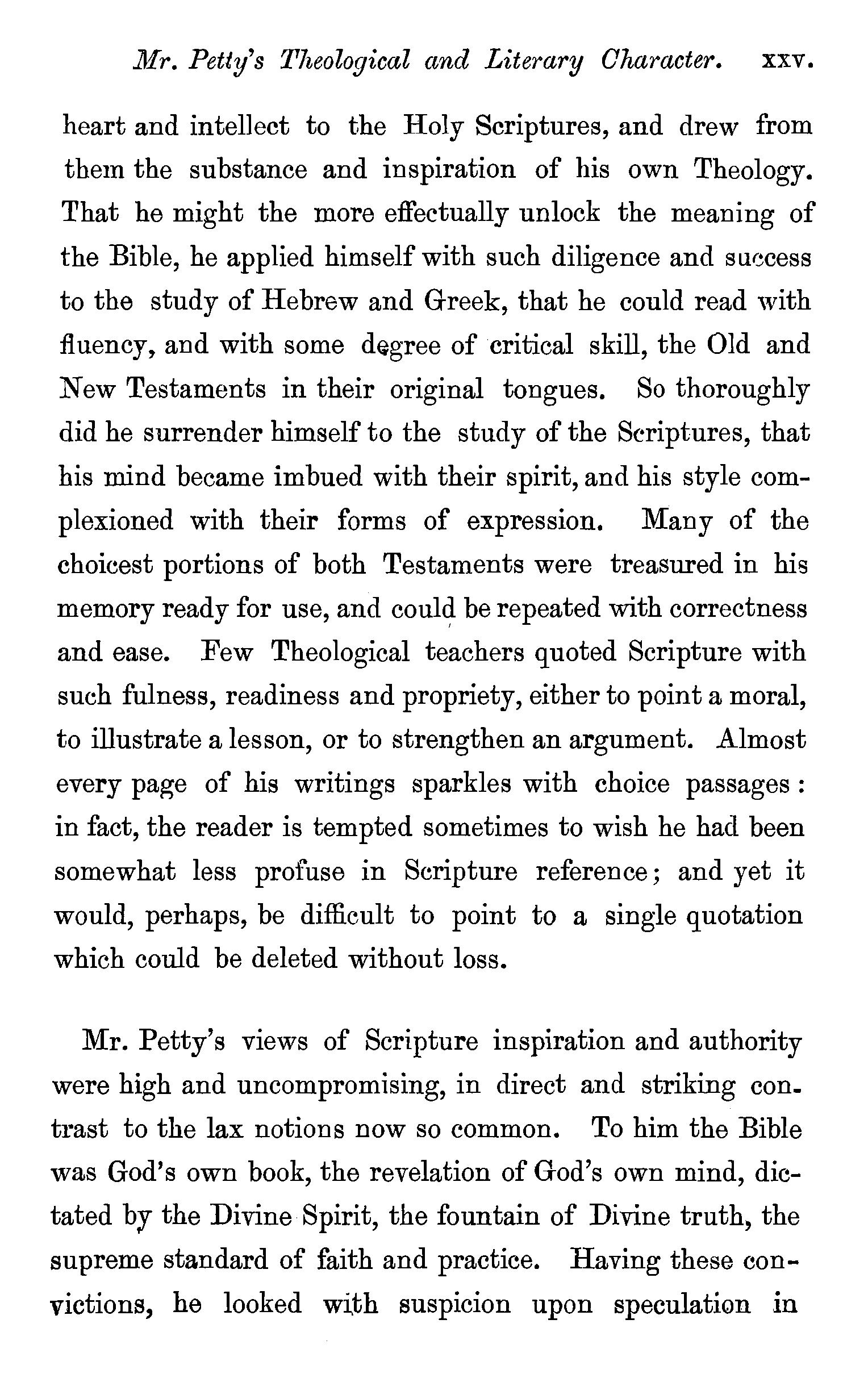
Mr. Petty's Theological and Literary Character. xxv.
heart and intellect to the Holy Scriptures, and drew from them the substance and inspiration of his own Theology. That he might the more effectually unlock the meaning of the Bible, he applied himself with such diligence and success to the study of Hebrew and Greek, that he could read with fluency, and with some degree of critical skill, the Old and New Testaments in their original tongues. So thoroughly did he surrender himself to the study of the Scriptures, that his mind became imbued with their spirit, and his style complexioned with their forms of expression. Many of the choicest portions of both Testaments were treasured in his memory ready for use, and coul4 be repeated with correctness and ease. Few Theological teachers quoted Scripture with such fulness, readiness and propriety, either to point a moral, to illustrate a lesson, or to strengthen an argument. Almost every page of his writings sparkles with choice passages : in fact, the reader is tempted sometimes to wish he had been somewhat less profuse in Scripture reference; and yet it would, perhaps, be difficult to point to a single quotation which could be deleted without loss.
Mr. Petty's views of Scripture inspiration and authority were high and uncompromising, in direct and striking con. trast to the lax notions now so common. To him the Bible was God's own book, the revelation of God's own mind, dictated by the Divine Spirit, the fountain of Divine truth, the supreme standard of faith and practice. Having these convictions, he looked with suspicion upon speculation in
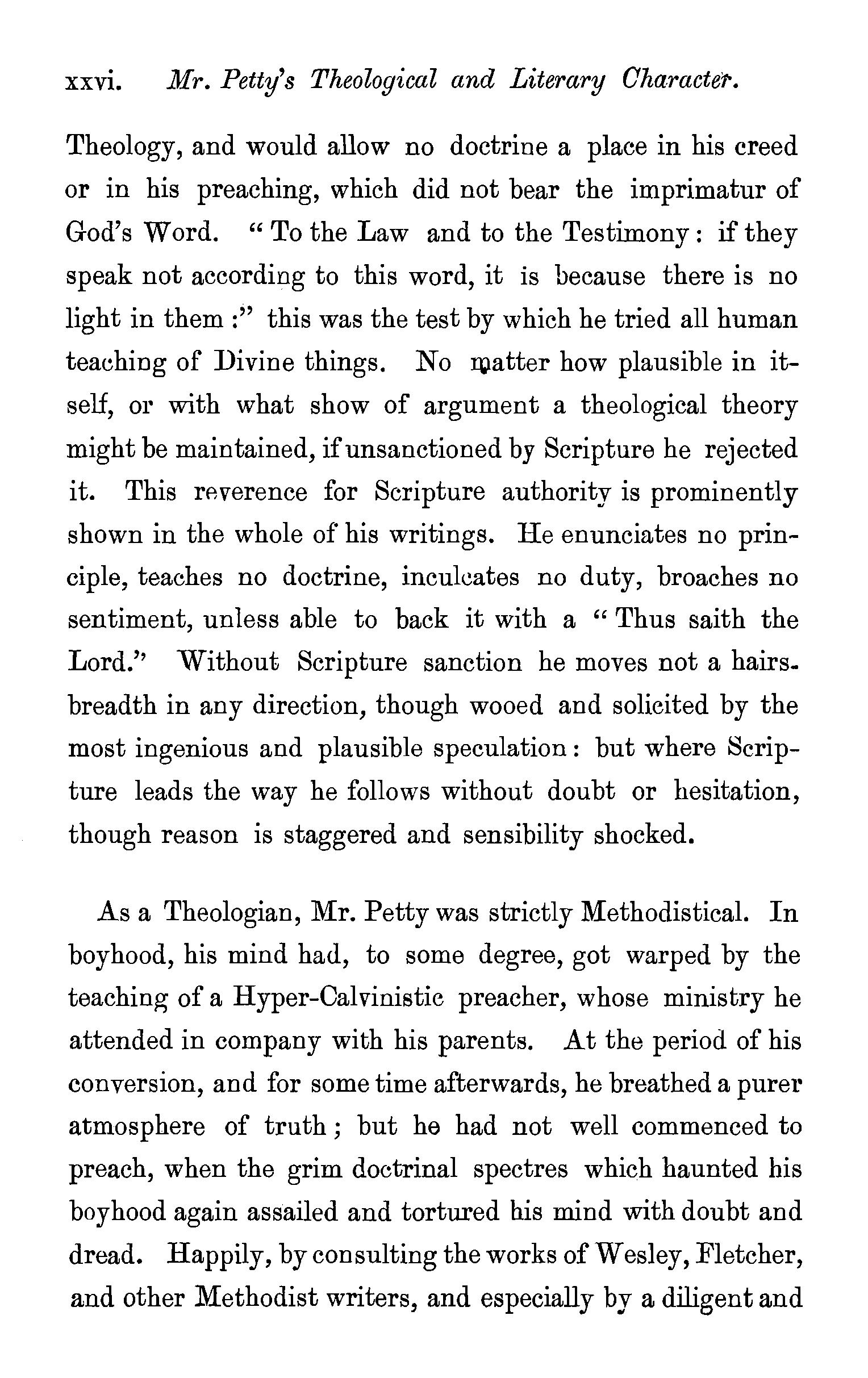
xxv1. Mr. Petty's Theological and Literary Oharactet.
Theology, and would allow no doctrine a place in his creed or in his preaching, which did not bear the imprimatur of God's Word. "To the Law and to the Testimony: if they speak not according to this word, it is because there is no light in them:" this was the test by which he tried all human teaching of Divine things. No roatter how plausible in itself, or with what show of argument a theological theory might be maintained, if unsanctioned by Scripture he rejected it. This rfwerence for Scripture authority is prominently shown in the whole of his writings. He enunciates no principle, teaches no doctrine, inculcates no duty, broaches no sentiment, unless able to back it with a "Thus saith the Lord.'' Without Scripture sanction he moves not a hairs. breadth in any direction, though wooed and solicited by the most ingenious and plausible speculation: but where Scripture leads the way he follows without doubt or hesitation, though reason is staggered and sensibility shocked.
As a Theologian, Mr. Petty was strictly Methodistical. In boyhood, his mind had, to some degree, got warped by the teaching of a Hyper-Calvinistic preacher, whose ministry he attended in company with his parents. At the period of his conversion, and for some time afterwards, he breathed a purer atmosphere of truth; but he had not well commenced to preach, when the grim doctrinal spectres which haunted his boyhood again assailed and tortured his mind with doubt and dread. Happily, by consulting the works of Wesley, Fletcher, and other Methodist writers, and especially by a diligent and
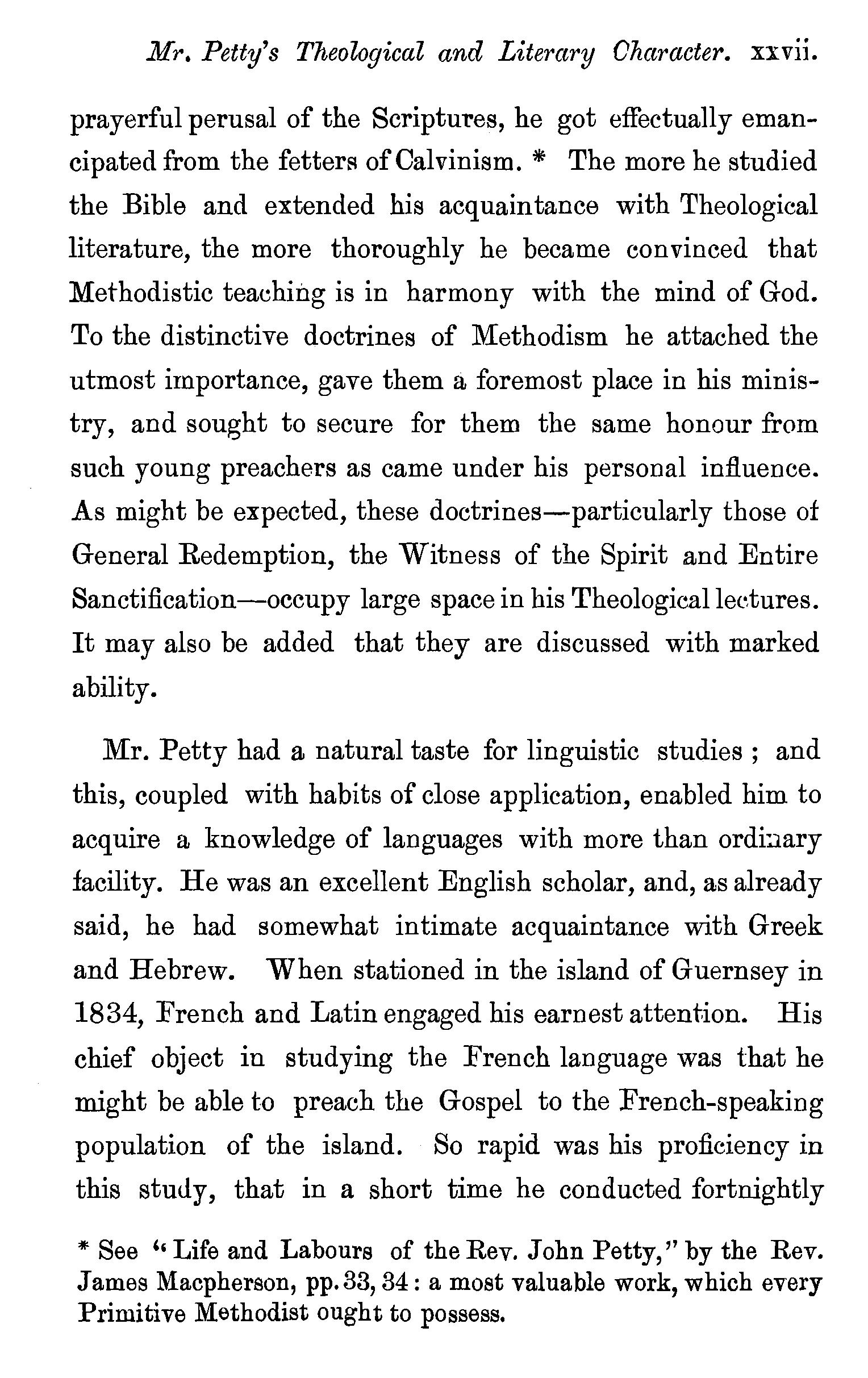
Mr, Petty's Theological and Literary Character. xxvn.
prayerful perusal of the Scriptures, he got effectually emancipated from the fetterA of Calvinism. * The more he studied the Bible and extended his acquaintance with Theological literature, the more thoroughly he became convinced that Methodistic teaching is in harmony with the mind of God. To the distinctive doctrines of Methodism he attached the utmost importance, gave them a foremost place in his ministry, and sought to secure for them the same honour from such young preachers as came under his personal influence. As might be expected, these doctrines-particularly those of General Redemption, the Witness of the Spirit and Entire Sanctification-occupy large space in his Theological lectures. It may also be added that they are discussed with marked ability.
Mr. Petty had a natural taste for linguistic studies ; and this, coupled with habits of close application, enabled him to acquire a knowledge of languages with more than ordi:J.ary facility. He was an excellent English scholar, and, as already said, he had somewhat intimate acquaintance with Greek and Hebrew. When stationed in the island of Guernsey in 1834, French and Latin engaged his earnest attention. His chief object in studying the French language was that he might be able to preach the Gospel to the French-speaking population of the island. So rapid was his proficiency in this study, that in a short time he conducted fortnightly
* See '' Life and Labours of the Rev. John Petty,'' by the Rev. James Macpherson, pp.33, 34: a most valuable work, which every Primitive Methodist ought to possess.

xxvm. Mr. Petty's Theological and Literary Character. services in French, to the edification and delight of his hearers. His study of Latin was occasioned by the prospect, which then appeared imminent, of his being sent as a missionary to France; and as he would in that case be brought into contact with a Roman Catholic people and priesthood, he wished to acquaint himself with the Vulgate version of the Scriptures, that he might be the better qualified to expose the errors of Rome, and defend the doctrines of Protestantism. His studies in French and Latin, though agreeable to his taste, were entered upon and pursued with high, practical purpose. In these, as in all his other intellectual pursuits, his supreme aim was to glorify God and bless his fellow mer:.. *
Although Mr. Petty was a hard working Primitive Methodist minister, attending to his pulpit, pastoral, and other official duties with marked diligence, yet, by husbanding his time with miser care he produced several literary works of more than average merit. In addition to many occasional articles contributed to the Oonnexional Magazineand Christian Ambassctclor,and several funeral sermons published separately, special mention may here be made of" Religious Experience,'' in one volume ; " Twenty Plain Sermons,'' in one volume ; "Memoir of Thomas Batty," in one volume; Connexional " Catechism," in three parts; '' History of the Primitive Methodist Connexion," in one volume; and now, as a posthumous work, '' Systematic Theology,'' in one volume. The " Memoir of Thomas Batty " is an interesting • Life, pp. 263, 270,
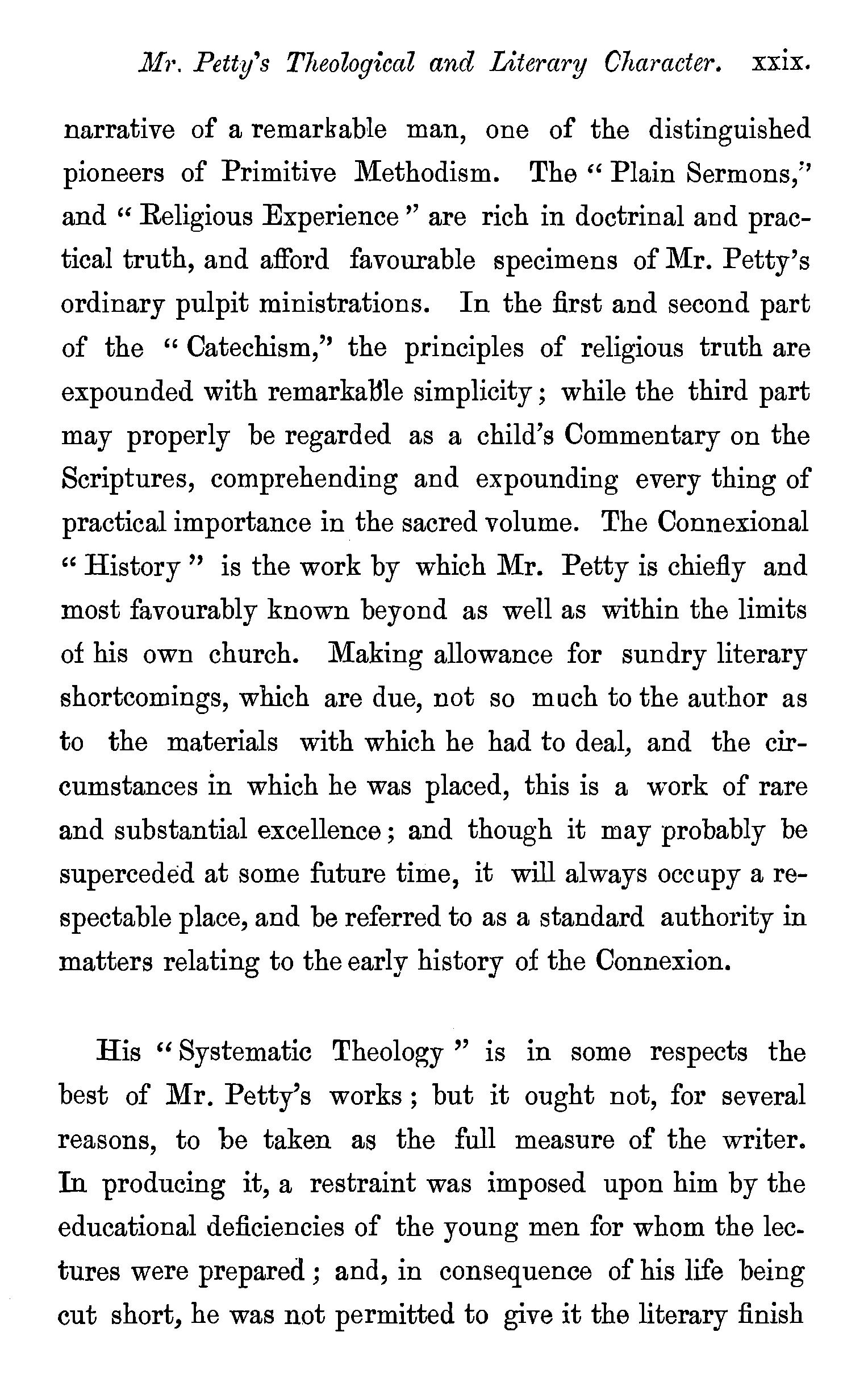
Petty's Theologicctl and Literary Character. xx1x.
narrative of a remarkable man, one of the distinguished pioneers of Primitive Methodism. The " Plain Sermons/' and "Religious Experience'' are rich in doctrinal and practical truth, and afford favourable specimens of Mr. Petty's ordinary pulpit ministrations. In the first and second part of the " Catechism,'' the principles of religious truth are expounded with remarka"Ulesimplicity; while the third part may properly be regarded as a child's Commentary on the Scriptures, comprehending and expounding every thing of practical importance in the sacred volume. The Connexional "History" is the work by which Mr. Petty is chiefly and most favourably known beyond as well as within the limits of his own church. Making allowance for sundry literary shortcomings, which are due, not so much to the author as to the materials with which he had to deal, and the circumstances in which he was placed, this is a work of rare and substantial excellence; and though it may probably be superceded at some future time, it will always occupy a respectable place, and be referred to as a standard authority in matters relating to the early history of the Connexion.
His " Systematic Theology '' is in some respects the best of Mr. Petty's works ; but it ought not, for several reasons, to be taken as the full measure of the writer. In producing it, a restraint was imposed upon him by the educational deficiencies of the young men for whom the lectures were prepared ; and, in consequence of his life being cut short, he was not permitted to give it the literary finish
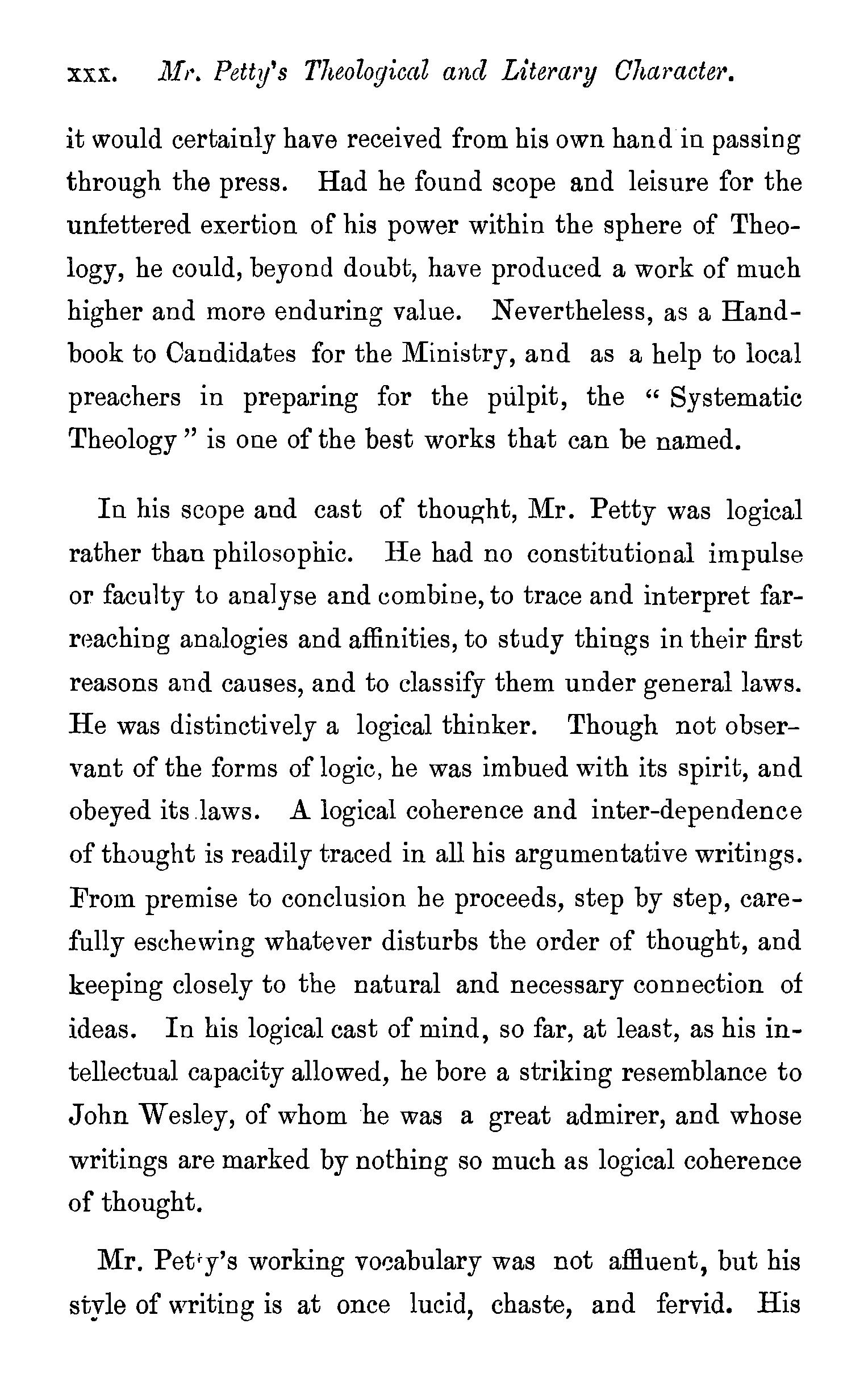
xxx. ]fl'. Petty's Theologicctlancl Literary Character. it would certainly have received from his own hand in passing through the press. Had he found scope and leisure for the unfettered exertion of his power within the sphere of Theology, he could, beyond doubt, have produced a work of much higher and more enduring value. Nevertheless, as a Handbook to Candidates for the Ministry, and as a help to local preachers in preparing for the pulpit, the " Systematic Theology" is one of the best works that can be named.
In his scope and cast of thought, Mr. Petty was logical rather than philosophic. He had no constitutional impulse or faculty to analyse and combine, to trace and interpret farreaching analogies and affinities, to study things in their first reasons and causes, and to classify them under general laws. He was distinctively a logical thinker. Though not observant of the forms of logic, he was imbued with its spirit, and obeyed its Jaws. A logical coherence and inter-dependence of thought is readily traced in all his argumentative writings. From premise to conclusion he proceeds, step by step, carefully eschewing whatever disturbs the order of thought, and keeping closely to the natural and necessary connection of ideas. In his logical cast of mind, so far, at least, as his intellectual capacity allowed, he bore a striking resemblance to John Wesley, of whom he was a great admirer, and whose writings are marked by nothing so much as logical coherence of thought.
Mr. Pet'y's working vo0abulary was not affiuent, but his style of writing is at once lucid, chaste, and fervid. His
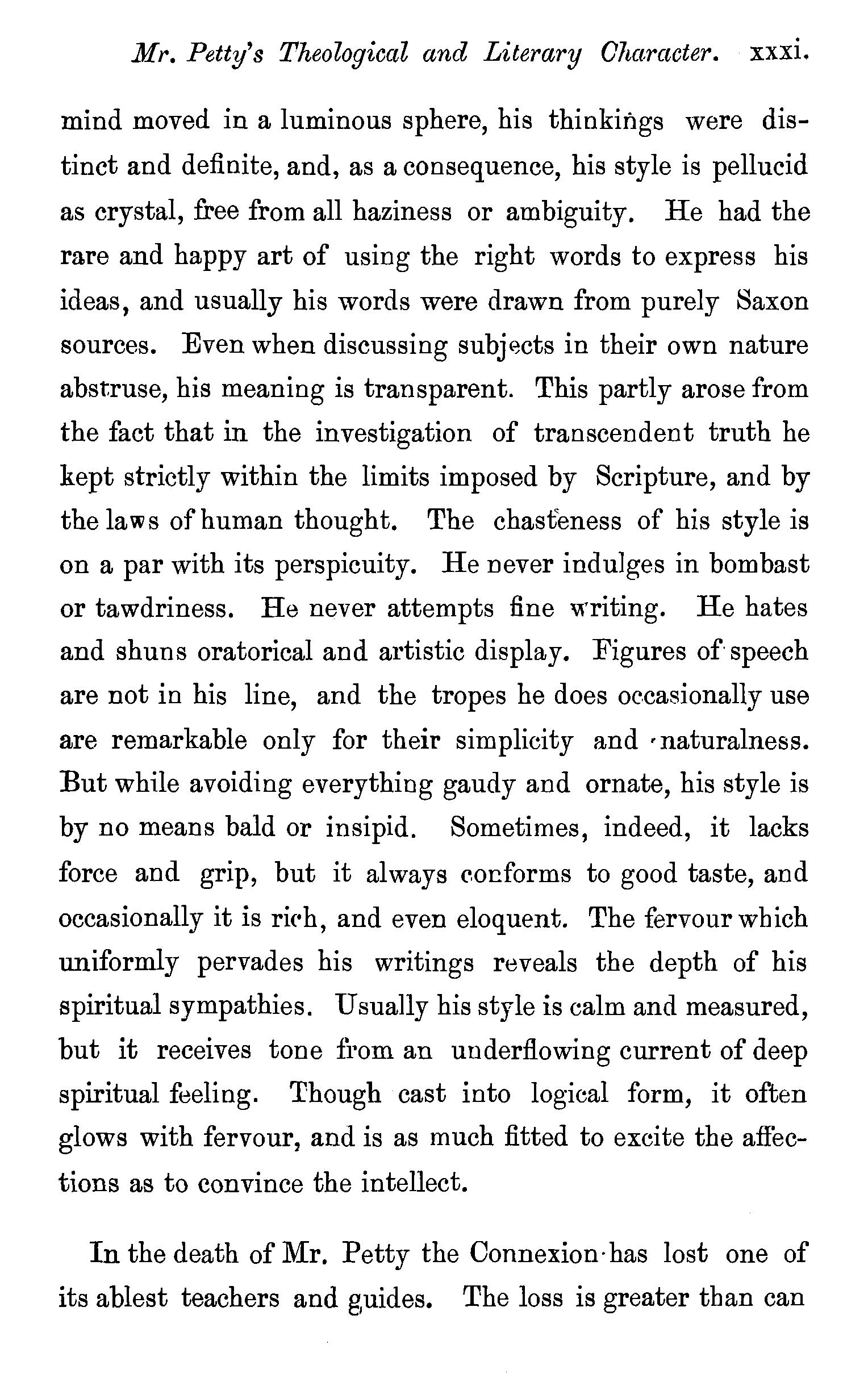
Mr. Petty's Theological and Literary Character. xxx1. mind moved in a luminous sphere, his thinkings were distinct and definite, and, as a consequence, his style is pellucid as crystal, free from all haziness or ambiguity. He had the rare and happy art of using the right words to express his ideas, and usually his words were drawn from purely Saxon sources. Even when discussing subj~cts in their own nature abstruse, his meaning is transparent. This partly arose from the fact that in the investigation of transcendent truth he kept strictly within the limits imposed by Scripture, and by the laws of human thought. The chasteness of his style is on a par with its perspicuity. He never indulges in bombast or tawdriness. He never attempts fine writing. He hates and shuns oratorical and artistic display. Figures of speech are not in his line, and the tropes he does occasionally use are remarkable only for their simplicity and ,naturalness. But while avoiding everything gaudy and ornate, his style is by no means bald or insipid. Sometimes, indeed, it lacks force and grip, but it always cocforms to good taste, and occasionally it is ri<'h, and even eloquent. The fervour which uniformly pervades his writings reveals the depth of his spiritual sympathies. Usually his style is calm and measured, but it receives tone from an underflowing current of deep spiritual feeling. Though cast into logical form, it often glows with fervour, and is as much fitted to excite the affections as to convince the intellect.
In the death of Mr. Petty the Connexion· has lost one of its ablest teachers and guides. The loss is greater than can
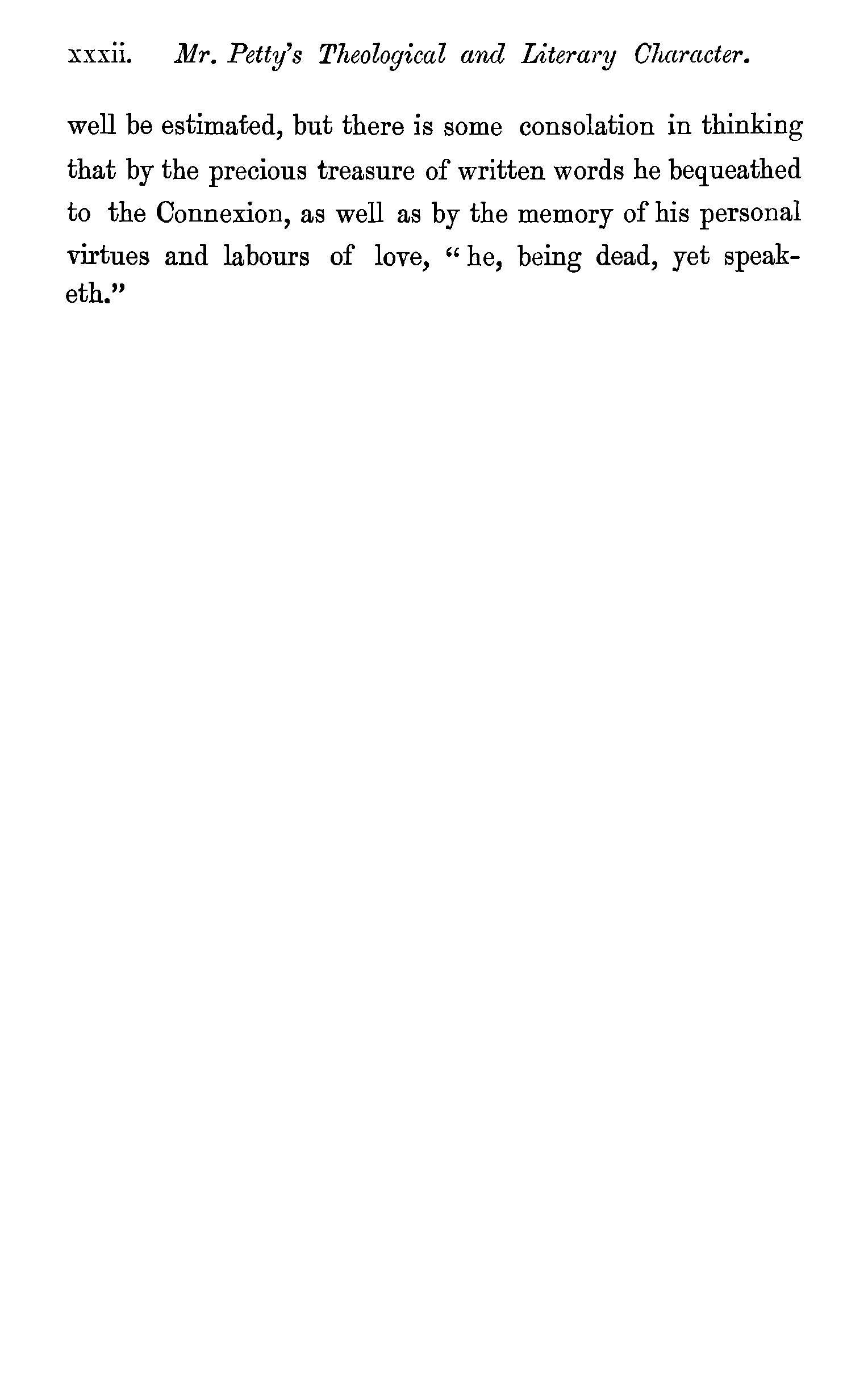
xxxn. Mr. Petty's Theologicctl and Li,terary Character.
well be estimated, but there is some consolation in thinking that by the precious treasure of written words he bequeathed to the Connexion, as well as by the memory of his personal virtues and labours of love, "he, being dead, yet speaketh."
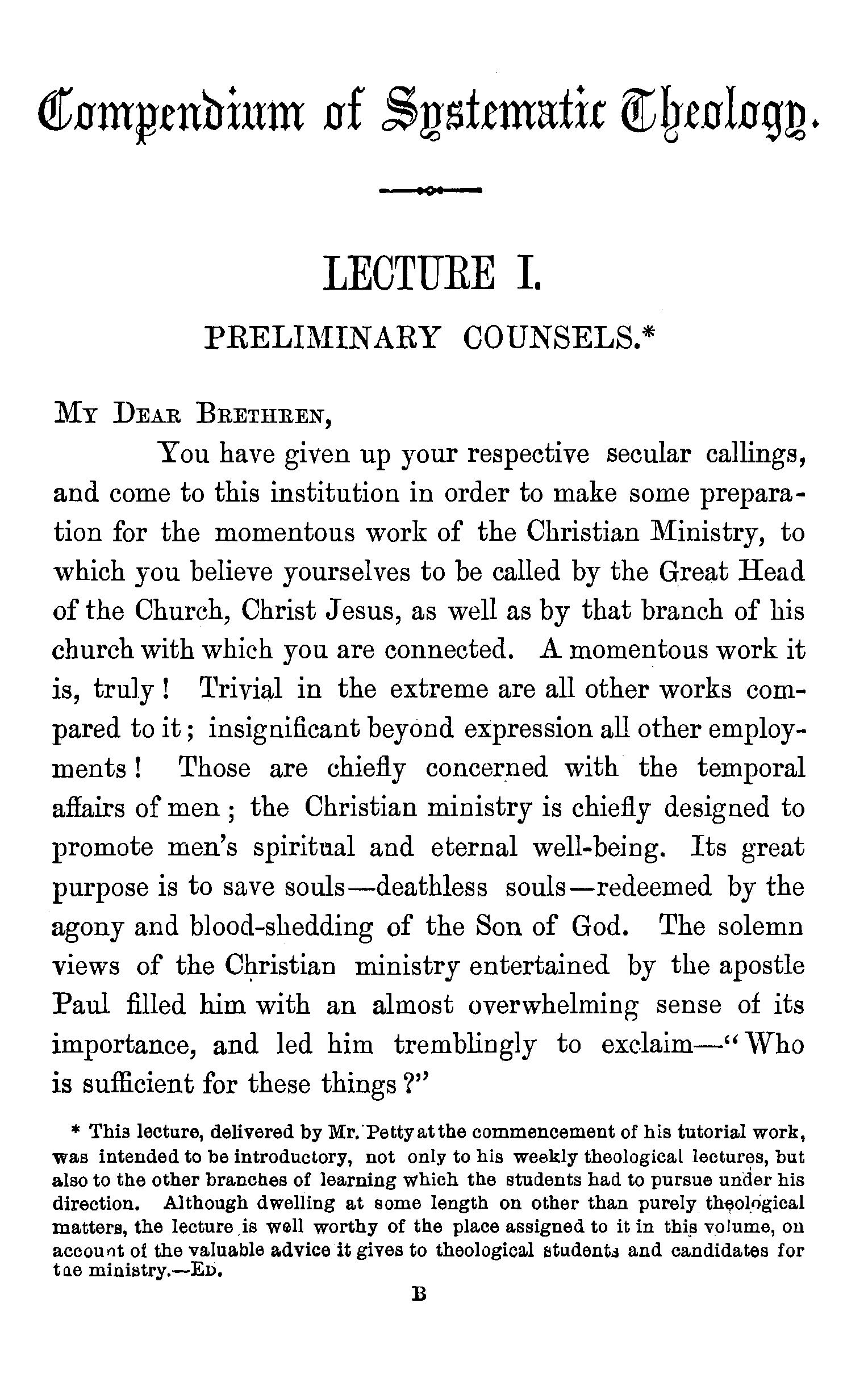
You have given up your respective secular callings, and come to this institution in order to make some preparation for the momentous work of the Christian Ministry, to which you believe yourselves to be called by the Great Head of the Church, Christ Jesus, as well as by that branch of his church with which you are connected. A momentous work it is, truly! '.I.1rivialin the extreme are all other works compared to it; insignificant beyond expression all other employments! Those are chiefly concerned with the temporal affairs of men ; the Christian ministry is chiefly designed to promote men's spiritu.al and eternal well-being. Its great purpose is to save souls-deathless souls-redeemed by the agony and blood-shedding of the Son of God. The solemn views of the C~ristian ministry entertained by the apostle Paul filled him with an almost overwhelming sense of its importance, and led him tremblingly to exclaim-" Who is sufficient for these things ?''
* This lecture, delivered by Mr:Pettyatthe commencement of his tutorial work, was intended to be introductory, not only to his weekly theological lectures, but also to the other brancb.es of learning which the students had to pursue under his direction. Although dwelling at some length on other than purely th~ol.tigical matters, the lecture .is Wfilllworthy of the place assigned to it in thi)l volume, ou account of the valuable advice it gives to theological studentd and candidates for tcie mini1:1try.-ED.
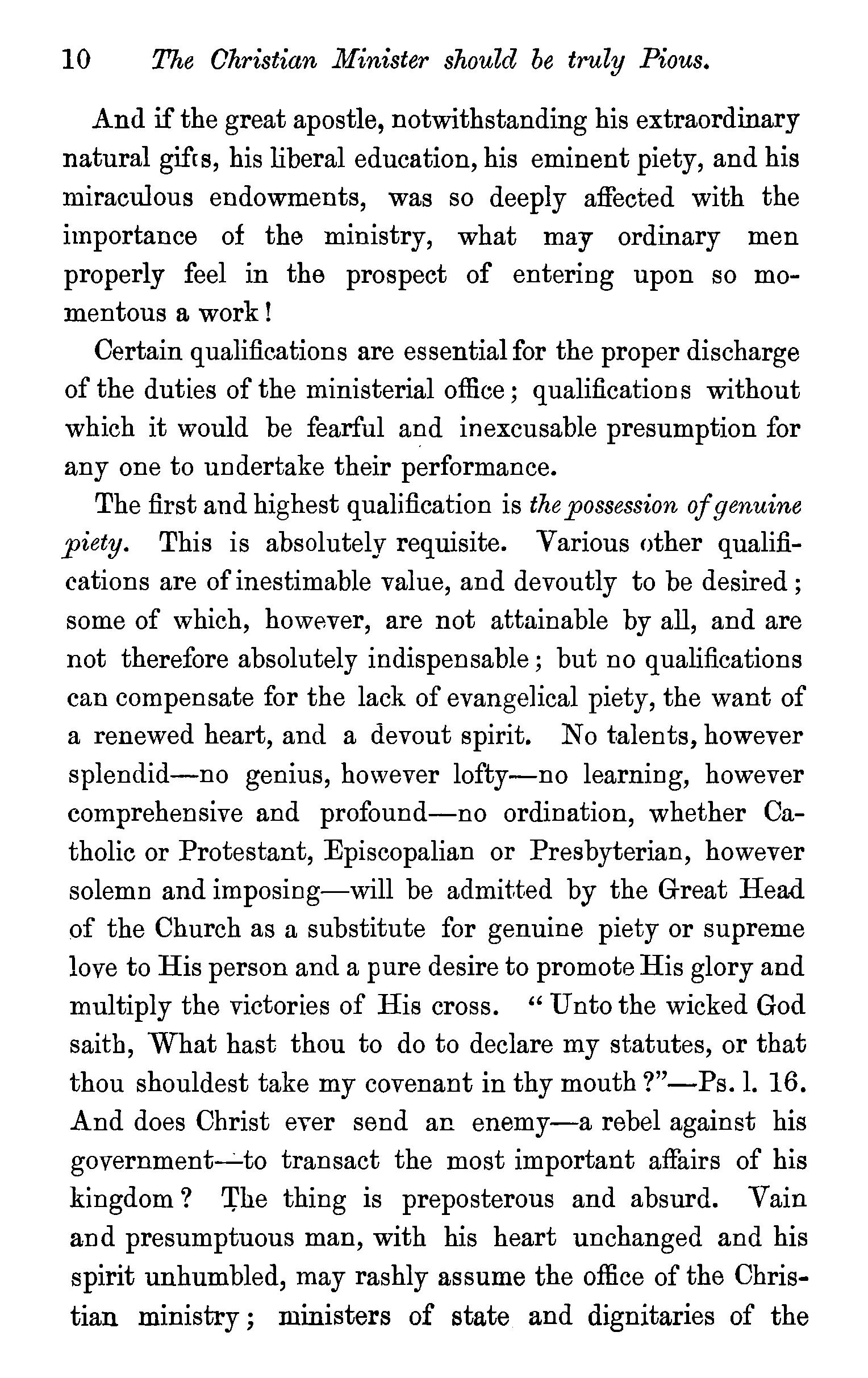
10 The Christian Minister should be truly Pious.
And if the great apostle, notwithstanding his extraordinary natural gifcs, his liberal education, his eminent piety, and his miraculous endowments, was so deeply affected with the importance of the ministry, what may ordinary men properly feel in the prospect of entering upon so momentous a work !
Certain qualifications are essential for the proper discharge of the duties of the ministerial office; qualifications without which it would be fearful and inexcusable presumption for any one to undertake their performance.
The first and highest qualification is thepossession of genuine piety. This is absolutely requisite. Various other qualifications are of inestimable value, and devoutly to be desired; some of which, however, are not attainable by all, and are not therefore absolutely indispensable; but no qualifications can compensate for the lack of evangelical piety, the want of a renewed heart, and a devout spirit. No talents, however splendid-no genius, however lofty-no learning, however comprehensive and profound-no ordination, whether Catholic or Protestant, Episcopalian or Presbyterian, however solemn and imposing-will be admitted by the Great Hea<l of the Church as a substitute for genuine piety or supreme love to His person and a pure desire to promote His glory and multiply the victories of His cross. " Unto the wicked God saith, What hast thou to do to declare my statutes, or that thou shouldest take my covenant in thy mouth ?"-Ps. l. 16. And does Christ ever send arr enemy-a rebel against his government-· to transact the most important affairs of his kingdom ? 'rhe thing is preposterous and absurd. Vain and presumptuous man, with his heart unchanged and his spirit unhumbled, may rashly assume the office of the Christian ministry ; ministers of state and dignitaries of the
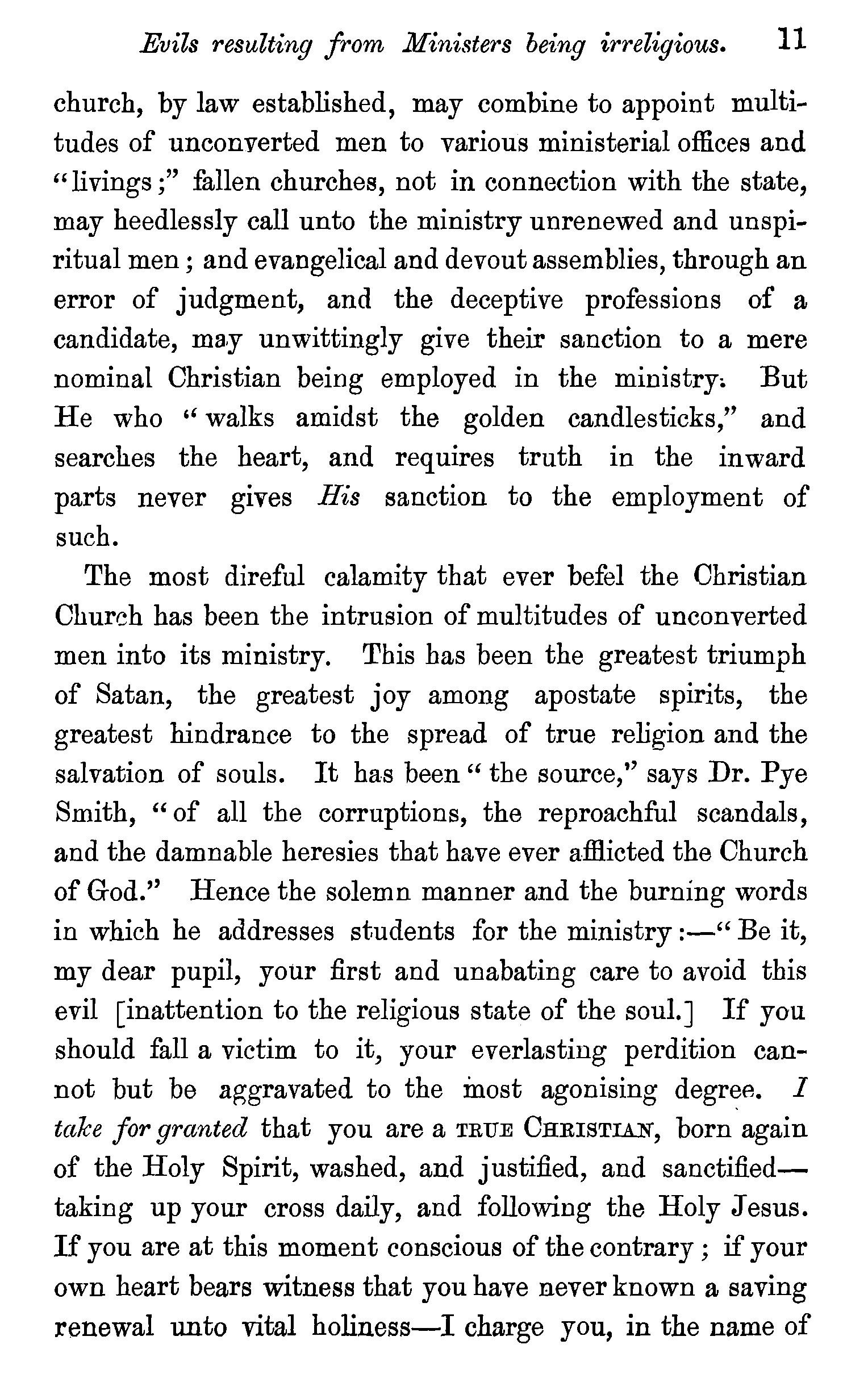
church, by law established, may combine to appoint multitudes of unconverted men to various ministerial offices and "livings;" fallen churches, not in connection with the state, may heedlessly call unto the ministry unrenewed and unspiritual men; and evangelical and devout assemblies, through an error of judgment, and the deceptive professions of a candidate, may unwittingly give their sanction to a mere nominal Christian being employed in the ministry. But He who '' walks amidst the golden candlesticks," and searches the heart, and requires truth in the inward parts never gives His sanction to the employment of such.
The most direful calamity that ever befel the Christian Church has been the intrusion of multitudes of unconverted men into its ministry. This has been the greatest triumph of Satan, the greatest joy among apostate spirits, the greatest hindrance to the spread of true religion and the salvation of souls. It has been" the source,'' says Dr. Pye Smith, "of all the corruptions, the reproachful scandals, and the damnable heresies that have ever afflicted the Church of God.'' Hence the solemn manner and the burning words in which he addresses students for the ministry :-" Be it, my dear pupil, your first and unabating care to avoid this evil [inattention to the religious state of the soul. J If you should fall a victim to it, your everlasting perdition cannot but be aggravated to the inost agonising degree. I talce for granted that you are a TRUE CHRISTIAN,born again of the Holy Spirit, washed, and justified, and sanctifiedtaking up your cross daily, and following the Holy Jesus. If you are at this moment conscious of the contrary; if your own heart bears witness that you have never known a saving renewal unto vital holiness-I charge you, in the name of
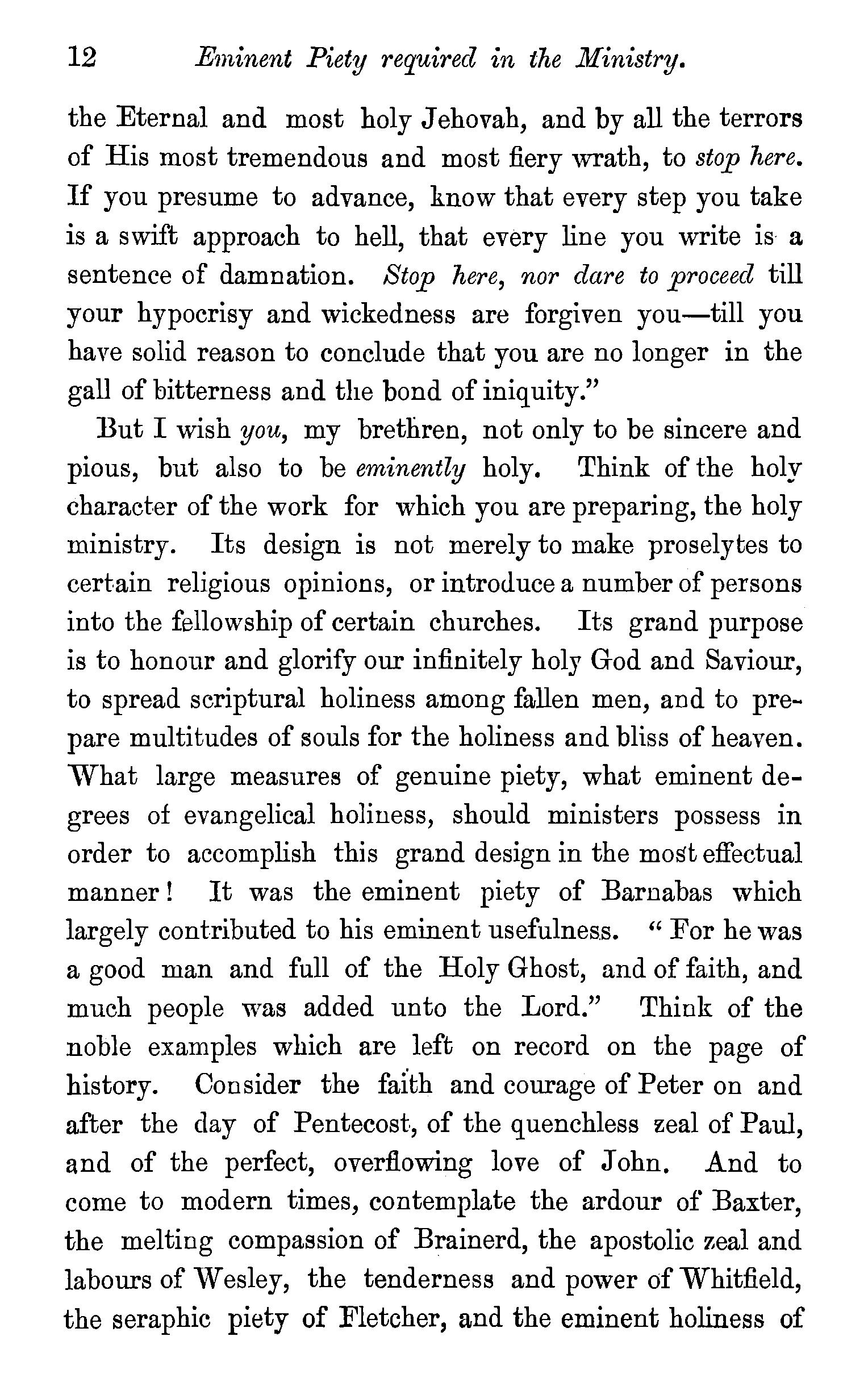
the Eternal and most holy Jehovah, and by all the terrors of His most tremendous and most fiery wrath, to stop here. If you presume to advance, know that every step you take is a swift approach to hell, that every line you write is a sentence of damnation. Stop here, nor dare to proceed till your hypocrisy and wickedness are forgiven you-till you have solid reason to conclude that you are no longer in the gall of bitterness and the bond of iniquity."
But I wish you, my brethren, not only to be sincere and pious, but also to be eminently holy. Think of the holy character of the work for which you are preparing, the holy ministry. Its design is not merely to make proselytes to certain religious opinions, or introduce a number of persons into the fellowship of certain churches. Its grand purpose is to honour and glorify our infinitely holy God and Saviour, to spread scriptural holiness among fallen men, and to prepare multitudes of souls for the holiness and bliss of heaven. What large measures of genuine piety, what eminent degrees of evangelical holiness, should ministers possess in order to accomplish this grand design in the most effectual manner ! It was the eminent piety of Barnabas which largely contributed to his eminent usefulness. " For he was a good man and full of the Holy Ghost, and of faith, and much people was added unto the Lord." Think of the noble examples which are left on record on the page of history. Consider the fa1th and courage of Peter on and after the clay of Pentecost, of the quenchless zeal of Paul, and of the perfect, overflowing love of John. And to come to modern times, contemplate the ardour of Baxter, the melting compassion of Brainerd, the apostolic zeal and labours of Wesley, the tenderness and power of Whitfield, the seraphic piety of Fletcher, and the eminent holiness of
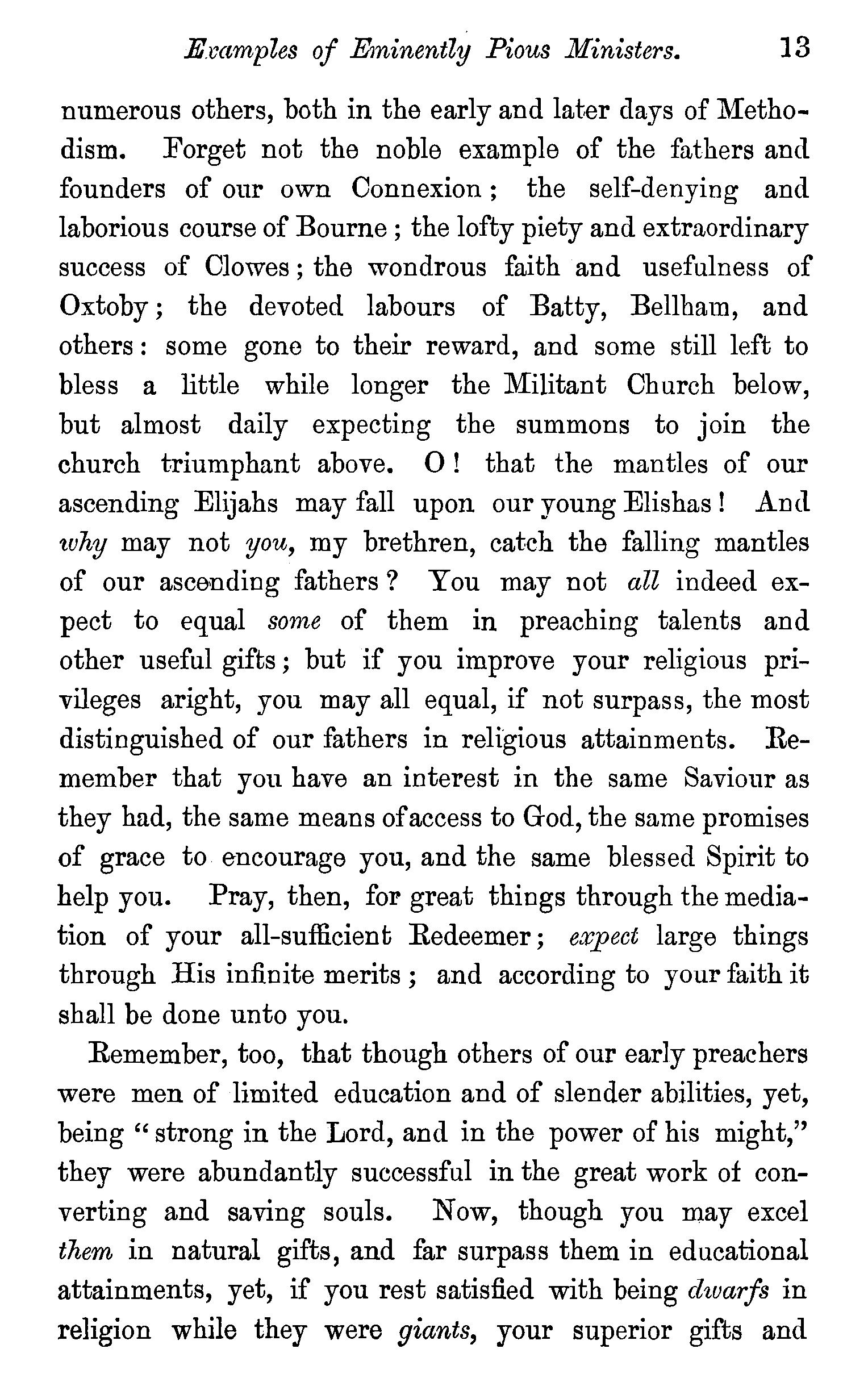
numerous others, both in the early and later days of Methodism. Forget not the noble example of the fathers and founders of our own Connexion ; the self-denying and laborious course of Bourne ; the lofty piety and extraordinary success of Clowes ; the wondrous faith and usefulness of Oxtoby ; the devoted labours of Batty, Bellham, and others : some gone to their reward, and some still left to bless a little while longer the Militant Church below, but almost daily expecting the summons to join the church triumphant above. 0 ! that the mantles of our ascending Elijahs may fall upon our young Elishas ! Aml why may not you, my brethren, catch the falling mantles of our ascending fathers ? You may not all indeed expect to equal some of them in preaching talents and other useful gifts ; but if you improve your religious privileges aright, you may all equal, if not surpass, the most distinguished of our fathers in religious attainments. Remember that you have an interest in the same Saviour as they had, the same means of access to God, the same promises of grace to encourage you, and the same blessed Spirit to help you. Pray, then, for great things through the mediation of your all-sufficient Redeemer ; expect large things through His infinite merits ; and according to your faith it shall be done unto you.
Remember, too, that though others of our early preachers were men of limited education and of slender abilities, yet, being "strong in the Lord, and in the power of his might," they were abundantly successful in the great work of converting and saving souls. Now, though you may excel them in natural gifts, and far surpass them in educational attainments, yet, if you rest satisfied with being dwarfs in religion while they were giants, your superior gifts and
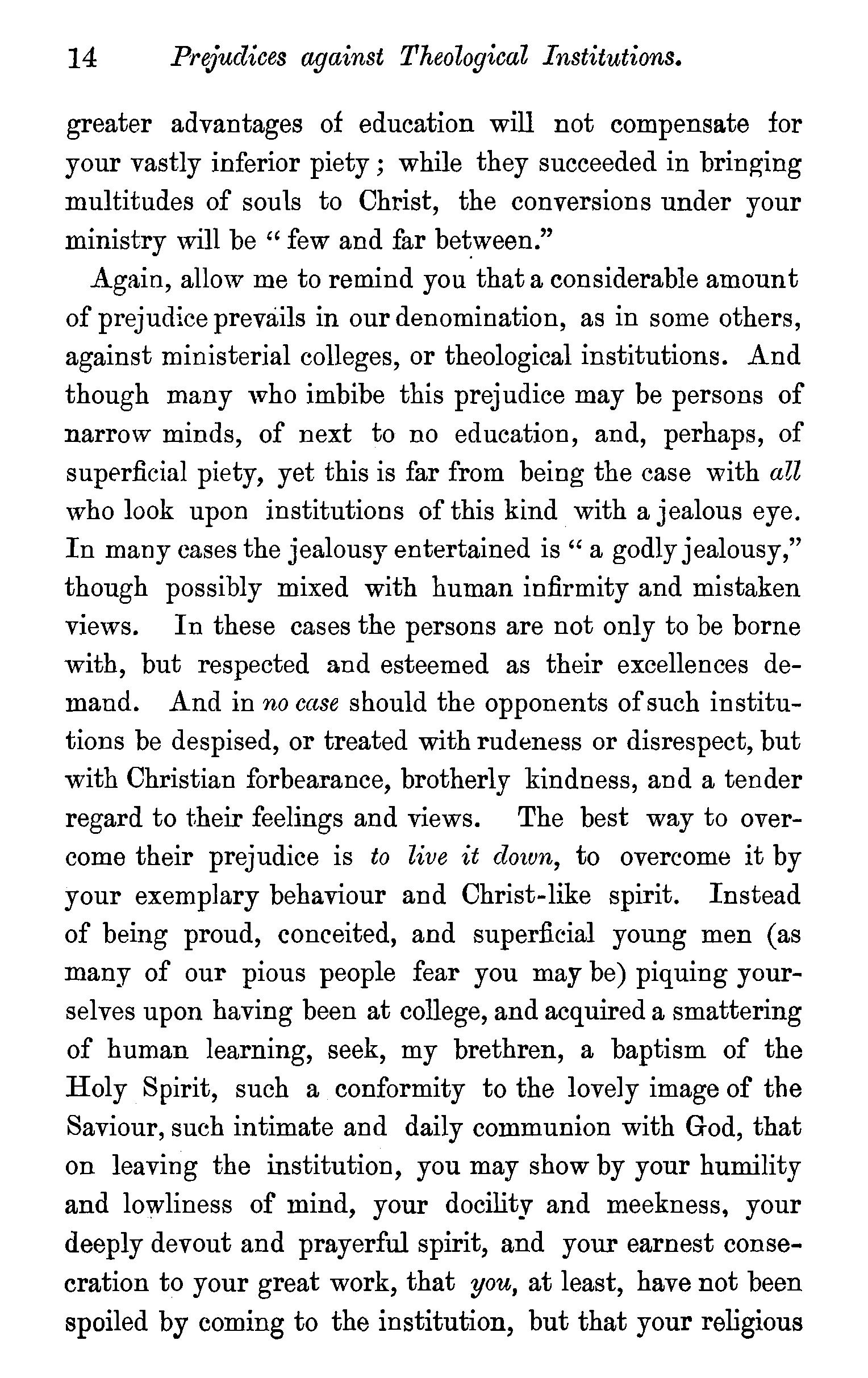
greater advantages of education will not compensate for your vastly inferior piety; while they succeeded in bringing multitudes of souls to Christ, the conversions under your ministry will be " few and far be~ween."
Again, allow me to remind you that a considerable amount of prejudice prevails in our denomination, as in some others, against ministerial colleges, or theological institutions. And though many who imbibe this prejudice may be persons of narrow minds, of next to no education, and, perhaps, of superficial piety, yet this is far from being the case with all who look upon institutions of this kind with a jealous eye. In many cases the jealousy entertained is" a godly jealousy," though possibly mixed with human infirmity and mistaken views. In these cases the persons are not only to be borne with, but respected and esteemed as their excellences demand. And in no case should the opponents of such institutions be despised, or treated with rudeness or disrespect, but with Christian forbearance, brotherly kindness, and a tender regard to their feelings and views. The best way to overcome their prejudice is to live it clown, to overcome it by your exemplary behaviour and Christ-like spirit. Instead of being proud, conceited, and superficial young men (as many of our pious people fear you may be) piquing yourselves upon having been at college, and acquired a smattering of human learning, seek, my brethren, a baptism of the Holy Spirit, such a conformity to the lovely image of the Saviour, such intimate and daily communion with God, that on leaving the institution, you may show by your humility and lowliness of mind, your docility and meekness, your deeply devout and prayerful spirit, and your earnest consecration to your great work, that you, at least, have not been spoiled by coming to the institution, but that your religious
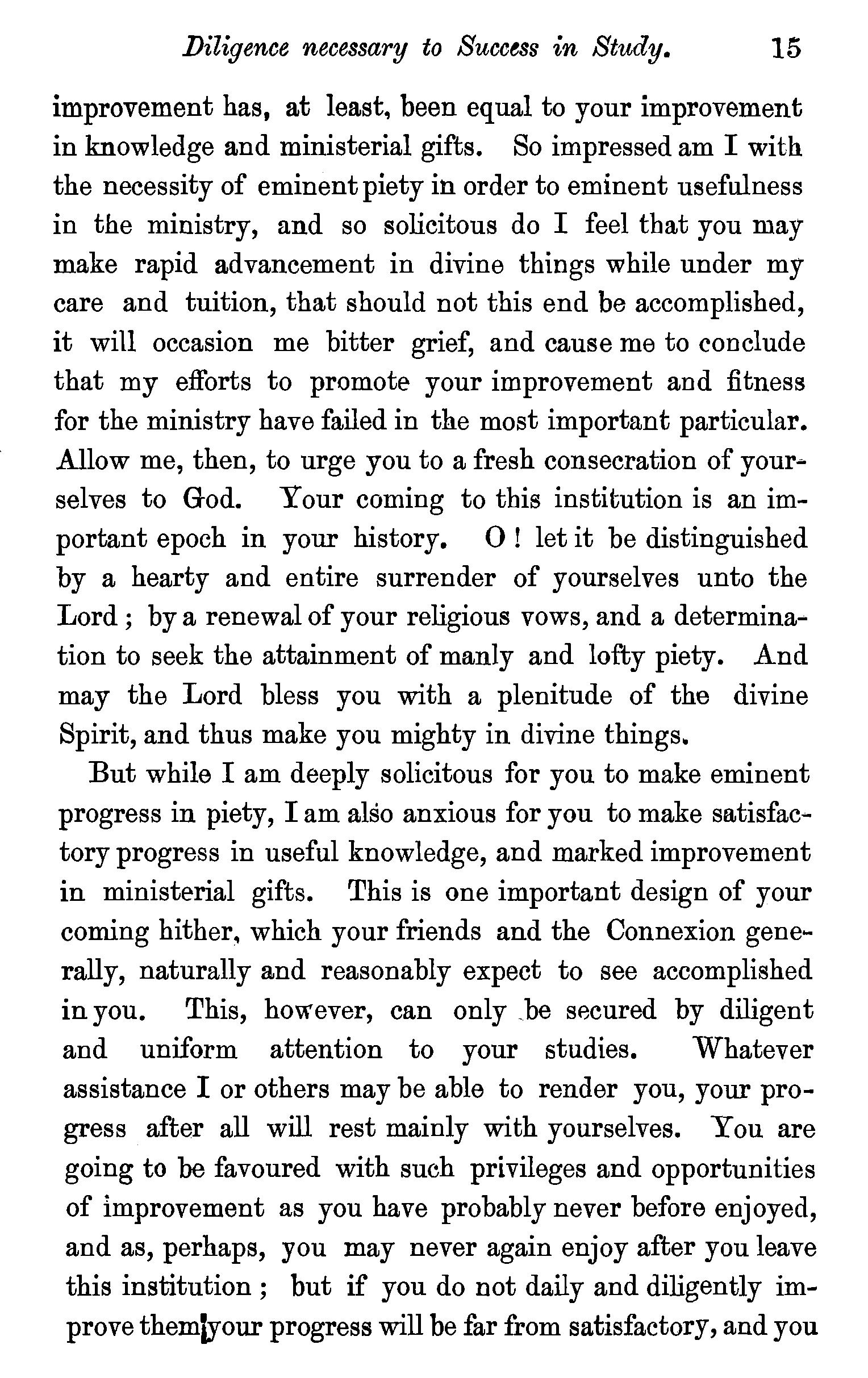
improvement has, at least, been equal to your improvement in knowledge and ministerial gifts. So impressed am I with the necessity of eminent piety in order to eminent usefulness in the ministry, and so solicitous do I feel that you may make rapid advancement in divine things while under my care and tuition, that should not this end be accomplished, it will occasion me bitter grief, and cause me to conclude that my efforts to promote your improvement and fitness for the ministry have failed in the most important particular. Allow me, then, to urge you to a fresh consecration of yourselves to God. Your coming to this institution is an important epoch in your history. 0 ! let it be distinguished by a hearty and entire surrender of yourselves unto the Lord ; by a renewal of your religious vows, and a determination to seek the attainment of manly and lofty piety. And may the Lord bless you with a plenitude of the divine Spirit, and thus make you mighty in divine things.
But while I am deeply solicitous for you to make eminent progress in piety, I am also anxious for you to make satisfactory progress in useful knowledge, and marked improvement in ministerial gifts. This is one important design of your coming hither, which your friends and the Connexion generally, naturally and reasonably expect to see accomplished in you. This, however, can only _be secured by diligent and uniform attention to your studies. Whatever assistance I or others may be able to render you, your progress after all will rest mainly with yourselves. You are going to be favoured with such privileges and opportunities of improvement as you have probably never before enjoyed, and as, perhaps, you may never again enjoy after you leave this institution ; but if you do not daily and diligently improve themtyour progress will be far from satisfactory, and you
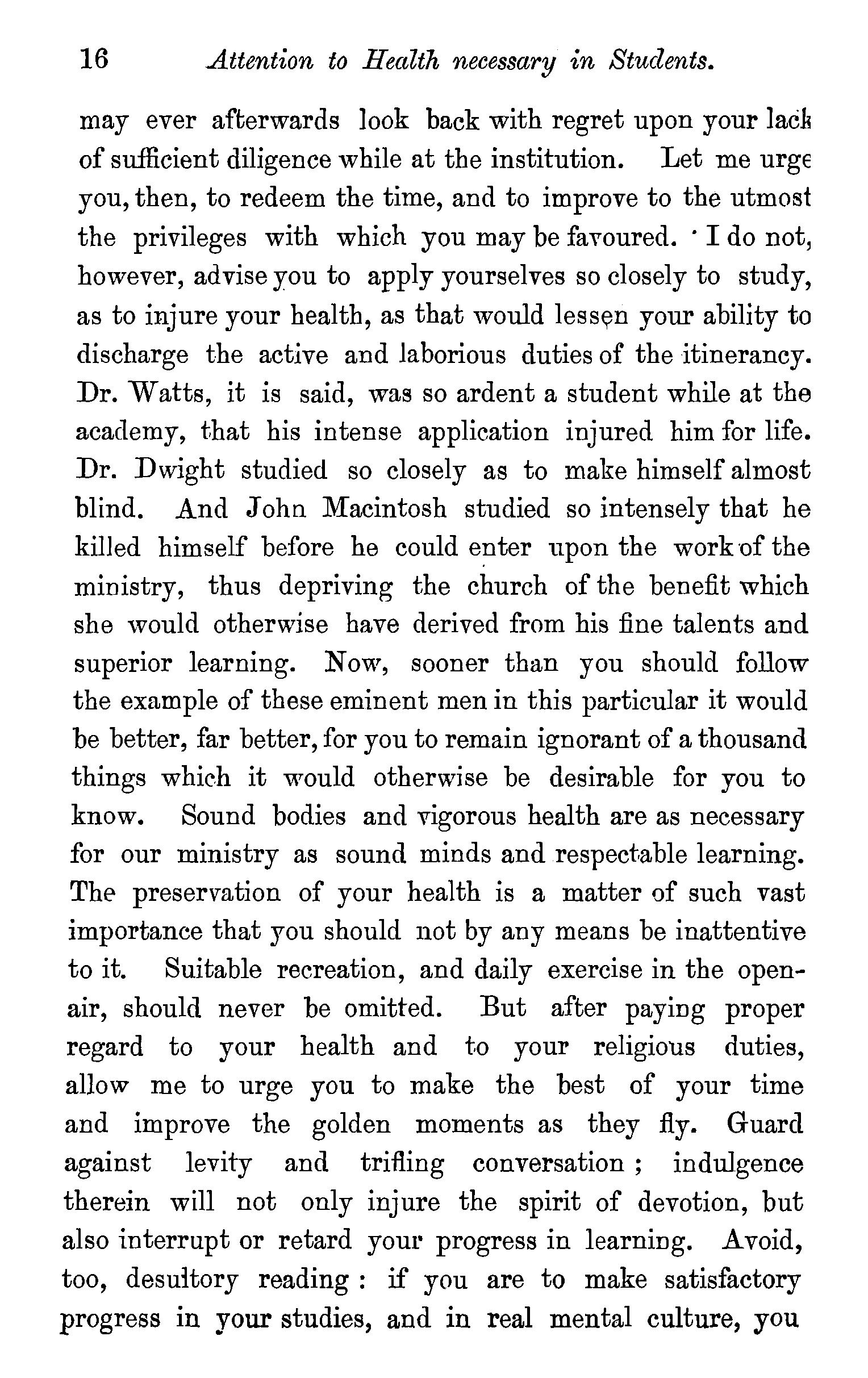
may ever afterwards look back with regret upon your lach of sufficient diligence while at the institution. Let me urge you, then, to redeem the time, and to improve to the utmost the privileges with which you may be favoured. • I do not, however, advise you to apply yourselves so closely to study, as to injure your health, as that would less(;)nyour ability to discharge the active and laborious duties of the itinerancy. Dr. Watts, it is said, was so ardent a student while at the academy, that his intense application injured him for life. Dr. Dwight studied so closely as to make himself almost blind. And John Macintosh studied so intensely that he killed himself before he could enter upon the work of the ministry, thus depriving the church of the benefit which she would otherwise have derived from his fine talents and superior learning. Now, sooner than you should follow the example of these eminent men in this particular it would be better, far better, for you to remain ignorant of a thousand things which it would otherwise be desirable for you to know. Sound bodies and vigorous health are as necessary for our ministry as sound minds and respectable learning. The preservation of your health is a matter of such vast importance that you should not by any means be inattentive to it. Suitable recreation, and daily exercise in the openair, should never be omitted. But after paying proper regard to your health and to your religious duties, allow me to urge you to make the best of your time and improve the golden moments as they fly. Guard against levity and trifling conversation ; indulgence therein will not only injure the spirit of devotion, but also interrupt or retard your progress in learning. Avoid, too, desultory reading : if you are to make satisfactory progress in your studies, and in real mental culture, you
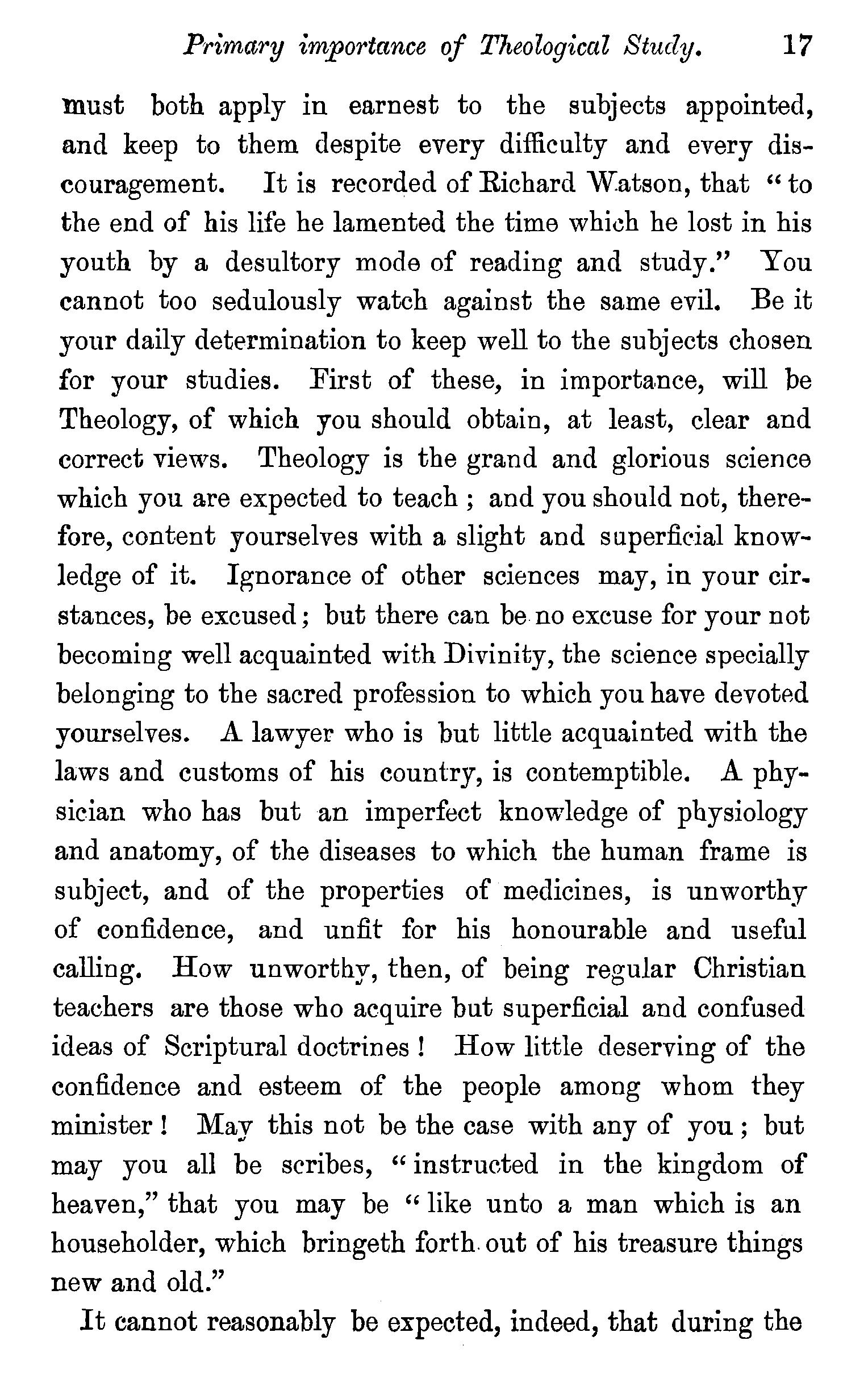
Primary importance of Theological Stucly. 17
must both apply in earnest to the subjects appointed, and keep to them despite every difficulty and every discouragement. It is recorded of Richard Watson, that " to the end of his life he lamented the time which he lost in his youth by a desultory mode of reading and study." You cannot too sedulously watch against the same evil. Be it your daily determination to keep well to the subjects chosen for your studies. First of these, in importance, will be Theology, of which you should obtain, at least, clear and correct views. Theology is the grand and glorious science which you are expected to teach ; and you should not, therefore, content yourselves with a slight and superficial knowledge of it. Ignorance of other sciences may, in your cir. stances, be excused; but there can be no excuse for your not becoming well acquainted with Divinity, the science specially belonging to the sacred profession to which you have devotr,d yourselves. A lawyer who is but little acquainted with the laws and customs of his country, is contemptible. A physician who has but an imperfect knowledge of physiology and anatomy, of the diseases to which the human frame is subject, and of the properties of medicines, is unworthy of confidence, and unfit for his honourable and useful calling. How unworthy, then, of being regular Christian teachers are those who acquire but superficial and confused ideas of Scriptural doctrines! How little deserving of the confidence and esteem of the people among whom they minister ! May this not be the case with any of you ; but may you all be scribes, " instructed in the kingdom of heaven," that you may be "like unto a man which is an householder, which bringeth forth. out of his treasure things new and old."
It cannot reasonably be expected, indeed, that during the
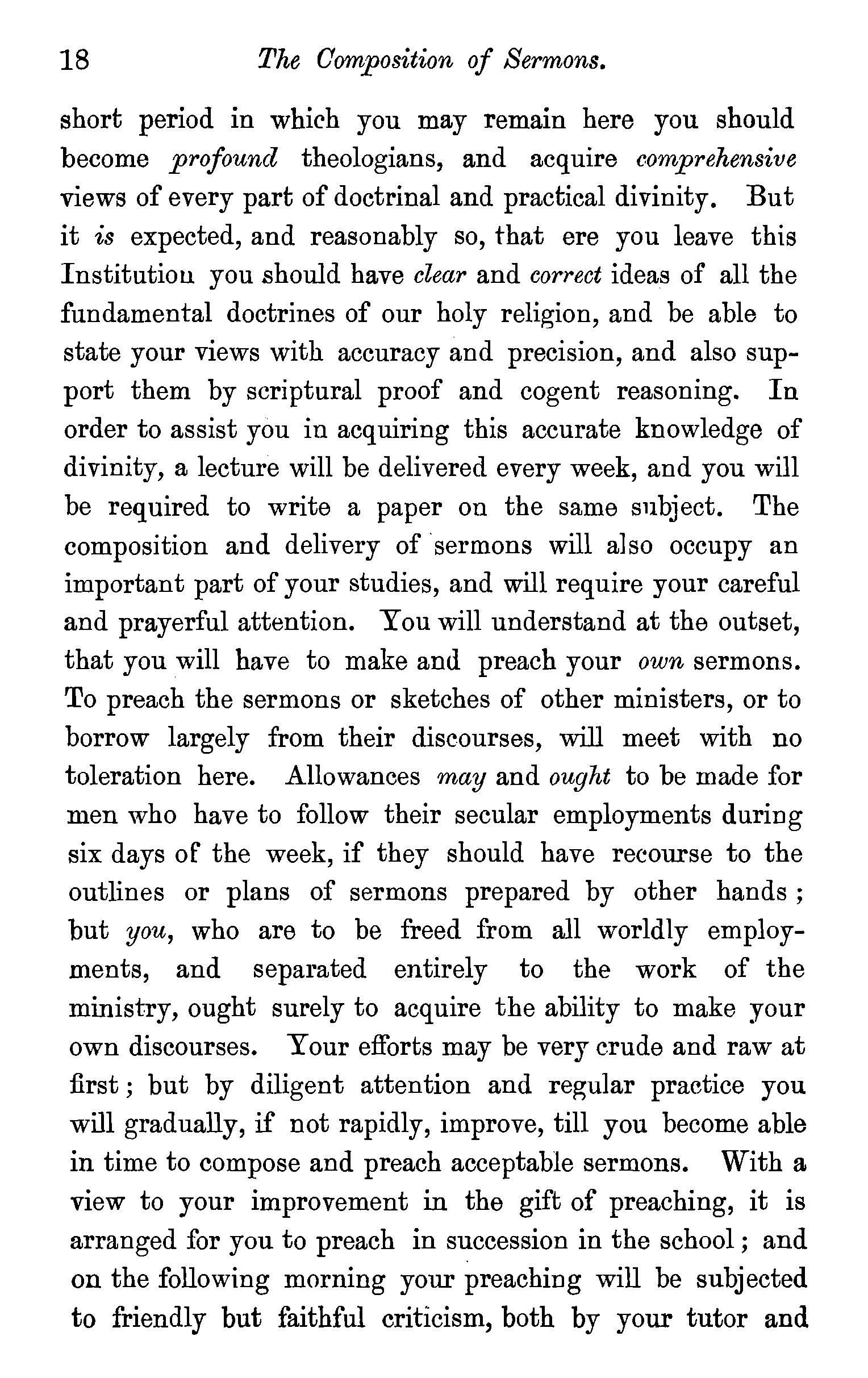
short period in which you may remain here you should become profound theologians, and acquire comprehensive views of every part of doctrinal and practical divinity. But it is expected, and reasonably so, that ere you leave this Institutiou you should have clear and correct ideas of all the fundamental doctrines of our holy religion, and be able to state your views with accuracy and precision, and also support them by scriptural proof and cogent reasoning. In order to assist you in acquiring this accurate knowledge of divinity, a lecture will be delivered every week, and you will be required to write a paper on the same subject. The composition and delivery of sermons will also occupy an important part of your studies, and will require your careful and prayerful attention. You will understand at the outset, that you will have to make and preach your own sermons. To preach the sermons or sketches of other ministers, or to borrow largely from their discourses, will meet with no toleration here. Allowances may and ought to be made for men who have to follow their secular employments during six days of the week, if they should have recourse to the outlines or plans of sermons prepared by other hands ; but you, who are to be freed from all worldly employments, and separated entirely to the work of the ministry, ought surely to acquire the ability to make your own discourses. Your efforts may be very crude and raw at first ; but by diligent attention and regular practice you will gradually, if not rapidly, improve, till you become able in time to compose and preach acceptable sermons. With a view to your improvement in the gift of preaching, it is arranged for you to preach in succession in the school; and on the following morning your preaching will be subjected to friendly but faithful criticism, both by your tutor and
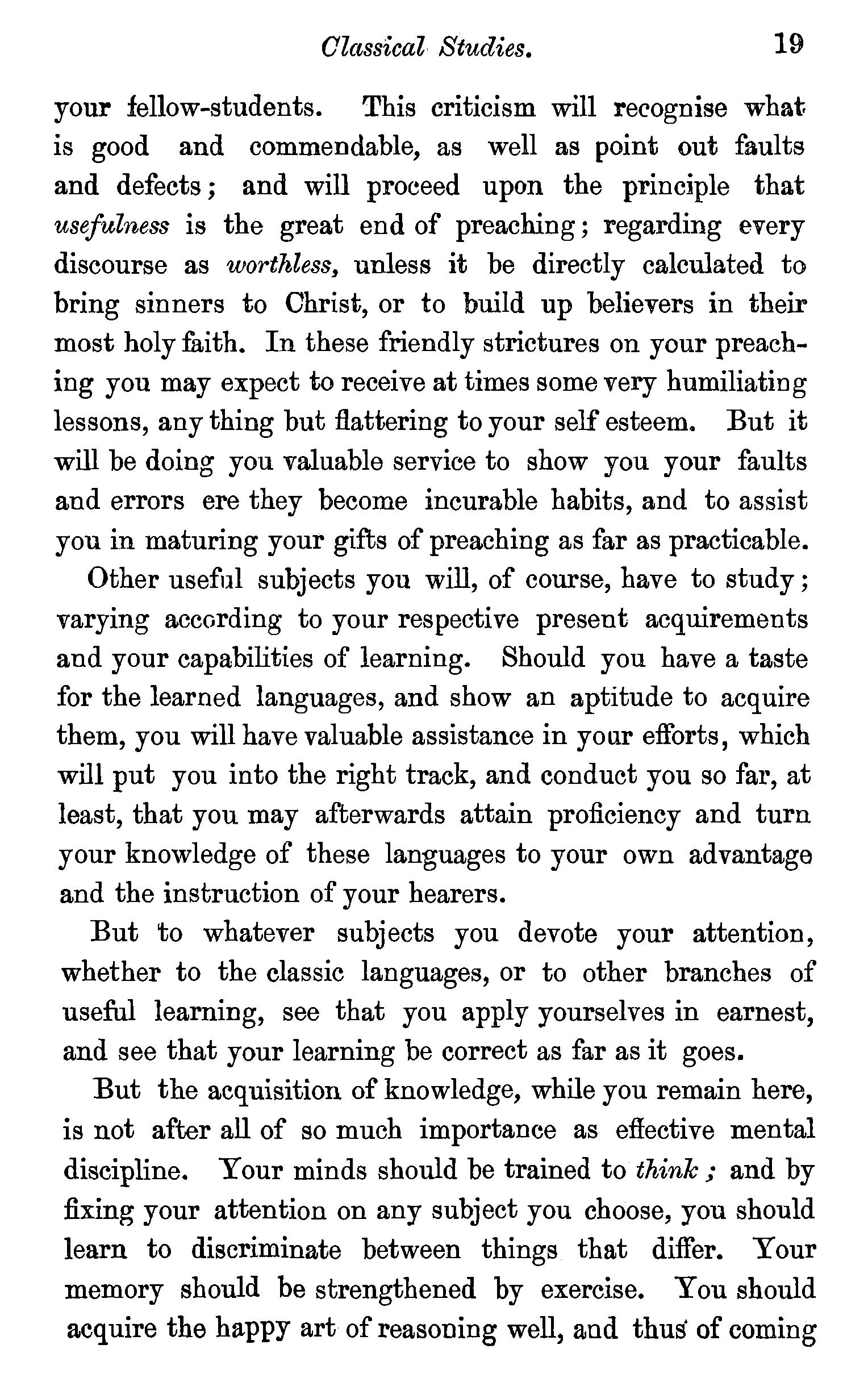
your fellow-students. This criticism will recognise what is good and commendable, as well as point out faults and defects ; and will proceed upon the principle that usefulness is the great end of preaching; regarding every discourse as worthless, unless it be directly calculated to bring sinners to Christ, or to build up believers in their most holy faith. In these friendly strictures on your preaching you may expect to receive at times some very humiliating lessons, any thing but flattering to your self esteem. But it will be doing you valuable service to show you your faults and errors ere they become incurable habits, and to assist you in maturing your gifts of preaching as far as practicable. Other usefol subjects you will, of course, have to study; varying according to your respective present acquirements and your capabilities of learning. Should you have a taste for the learned languages, and show an aptitude to acquire them, you will have valuable assistance in your efforts, which will put you into the right track, and conduct you so far, at least, that you may afterwards attain proficiency and turn your knowledge of these languages to your own advantage and the instruction of your hearers.
But to whatever subjects you devote your attention, whether to the classic languages, or to other branches of useful learning, see that you apply yourselves in earnest, and see that your learning be correct as far as it goes.
But the acquisition of knowledge, while you remain here, is not after all of so much importance as effective mental discipline. Your minds should be trained to think ; and by fixing your attention on any subject you choose, you should learn to discriminate between things that differ. Your memory should be strengthened by exercise. You should acquire the happy art of reasoning well, and thus of coming
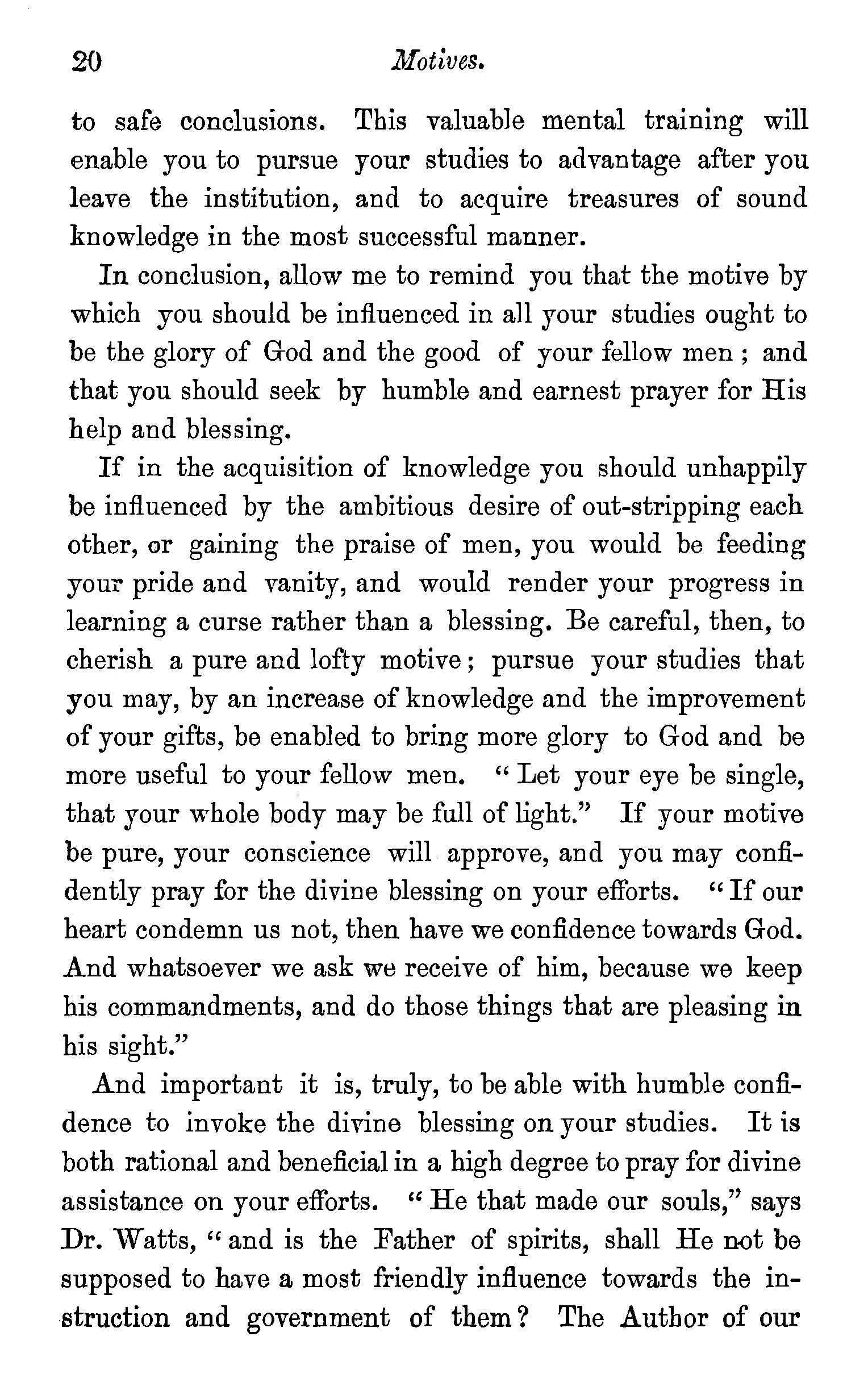
to safe conclusions. This valuable mental training will enable you to pursue your studies to advantage after you leave the institution, and to acquire treasures of sound knowledge in the most successful manner.
In conclusion, allow me to remind you that the motive by which you should be influenced in all your studies ought to be the glory of God and the good of your fellow men ; and that you should seek by humble and earnest prayer for His help and blessing.
If in the acquisition of knowledge you should unhappily be influenced by the ambitious desire of out-stripping each other, or gaining the praise of men, you would be feeding your pride and vanity, and would render your progress in learning a curse rather than a blessing. Be careful, then, to cherish a pure and lofty motive; pursue your studies that you may, by an increase of knowledge and the improvement of your gifts, be enabled to bring more glory to God and be more useful to your fellow men. " Let your eye be single, that your whole body may be full of light." If your motive be pure, your conscience will approve, and you may confidently pray for the divine blessing on your efforts. "If our heart condemn us not, then have we confidence towards God. And whatsoever we ask we receive of him, because we keep his commandments, and do those things that are pleasing in his sight."
And important it is, truly, to be able with humble confidence to invoke the divine blessing on your studies. It is both rational and beneficial in a high degree to pray for divine assistance on your efforts. " He that made our souls," says Dr. "\Vatts, " and is the Father of spirits, shall He oot be supposed to have a most friendly influence towards the instruction and government of them? The Author of our
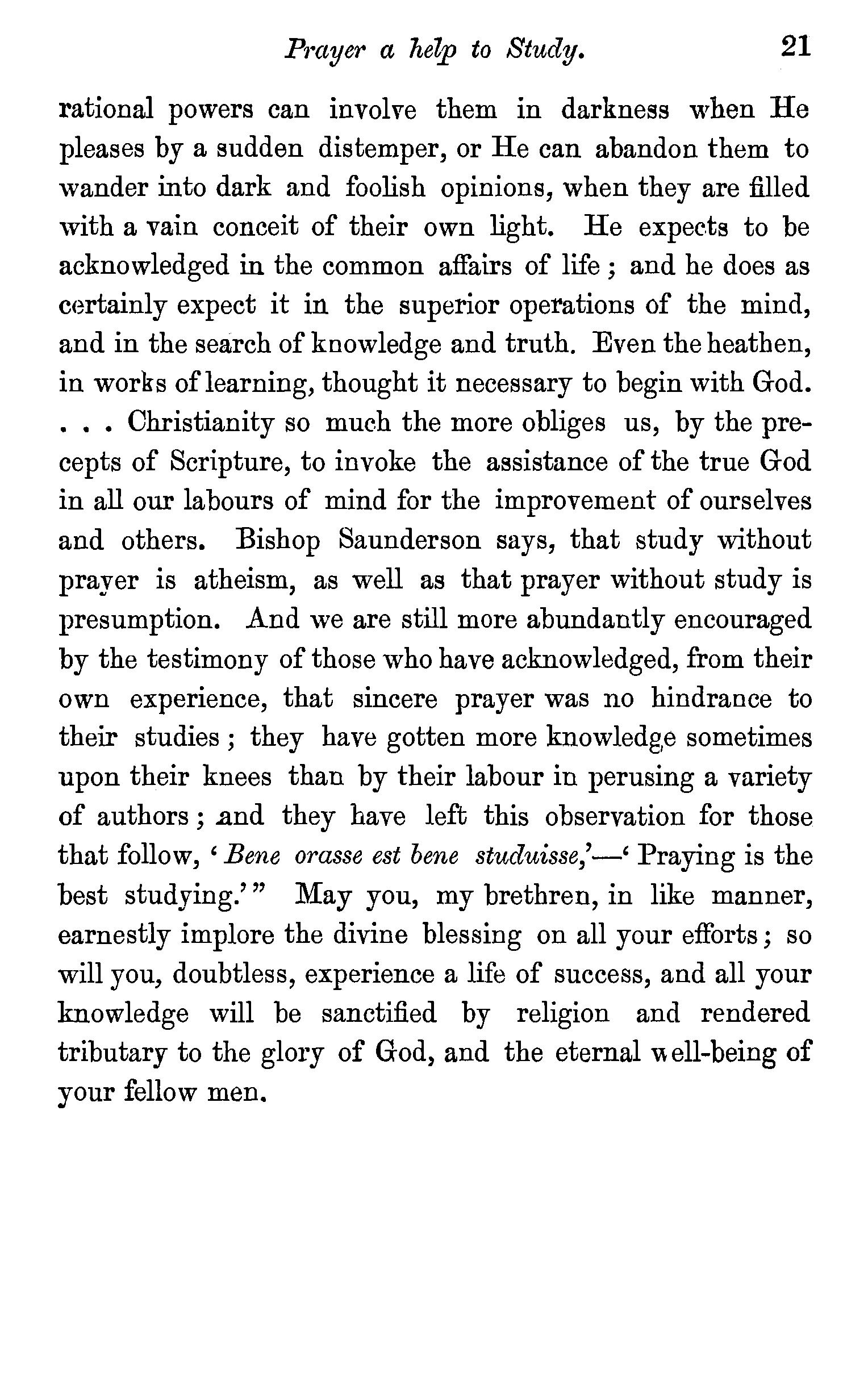
rational powers can involve them in darkness when He pleases by a sudden distemper, or He can abandon them to wander into dark and foolish opinions, when they are filled with a vain conceit of their own light. He expects to be acknowledged in the common affairs of life; and he does as certainly expect it in the superior operations of the mind, and in the search of knowledge and truth. Even the heathen, in works oflearning, thought it necessary to begin with God . . . . Christianity so much the more obliges us, by the precepts of Scripture, to invoke the assistance of the true God in all our labours of mind for the improvement of ourselves and others. Bishop Saunderson says, that study without prayer is atheism, as well as that prayer without study is presumption. And we are still more abundantly encouraged by the testimony of those who have acknowledged, from their own experience, that sincere prayer was no hindrance to their studies; they have gotten more knowledge sometimes upon their knees than by their labour in perusing a variety of authors; .and they have left this observation for those that follow, 'Bene orasse est bene studuisse,'-' Praying is the best studying.'" May you, my brethren, in like manner, earnestly implore the divine blessing on all your efforts; so will you, doubtless, experience a life of success, and all your knowledge will be sanctified by religion and rendered tributary to the glory of God, and the eternal "ell-being of your fellow men.
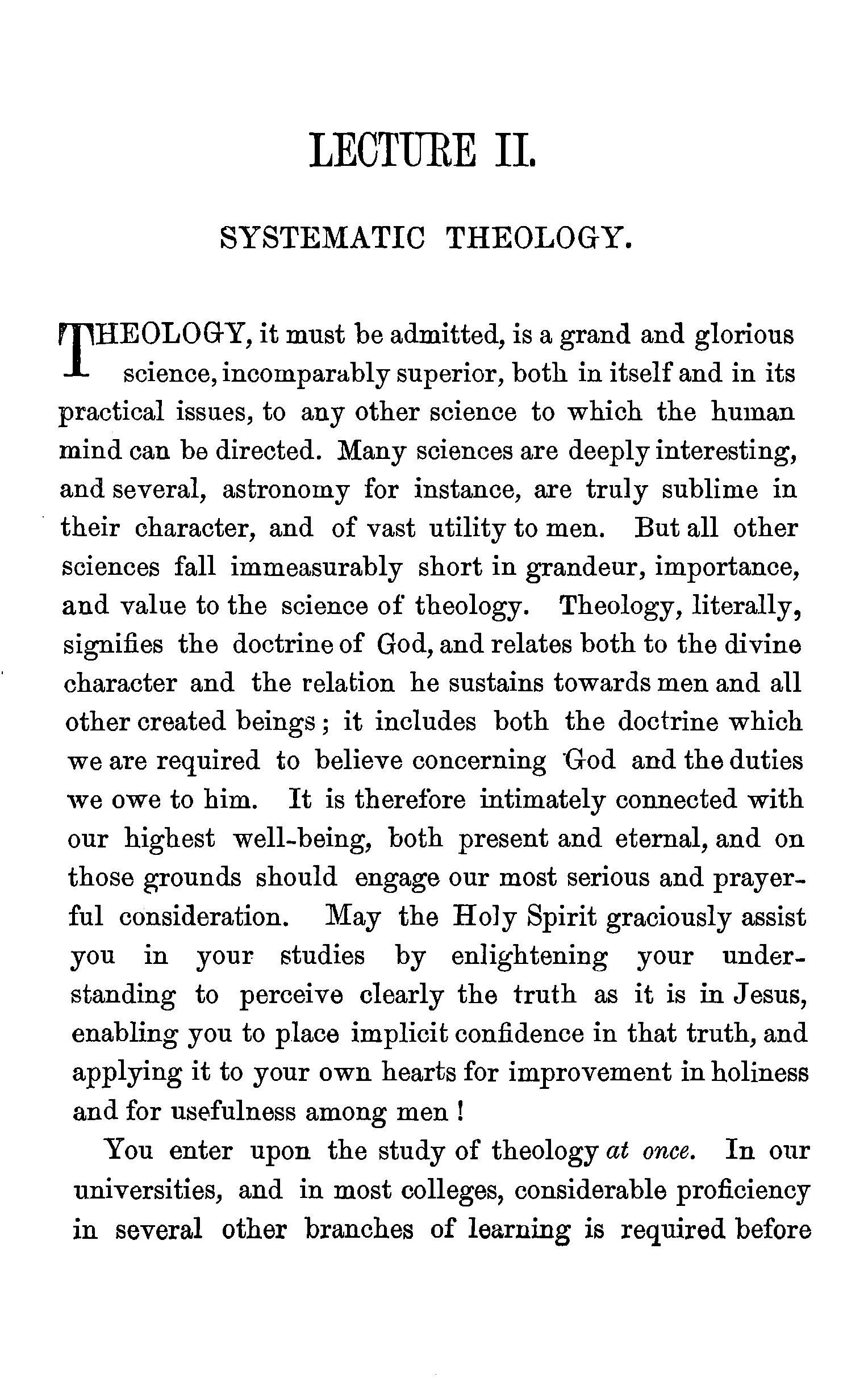
THEOLOGY, it must be admitted, is a grand and glorious science, incomparably superior, both in itself and in its practical issues, to any other science to which the human mind can be directed. Many sciences are deeply interesting, and several, astronomy for instance, are truly sublime in their character, and of vast utility to men. But all other sciences fall immeasurably short in grandeur, importance, and value to the science of theology. Theology, literally, signifies the doctrine of God, and relates both to the divine character and the relation he sustains towards men and all other created beings; it includes both the doctrine which we are required to believe concerning "God and the duties we owe to him. It is therefore intimately connected with our highest well-being, both present and eternal, and on those grounds should engage our most serious and prayerful consideration. May the Holy Spirit graciously assist you in your studies by enlightening your understanding to perceive clearly the truth as it is in Jesus, enabling you to place implicit confidence in that truth, and applying it to your own hearts for improvement in holiness and for usefulness among men !
You enter upon the study of theology at once. In our universities, and in most colleges, considerable proficiency in several other branches of learning is required before
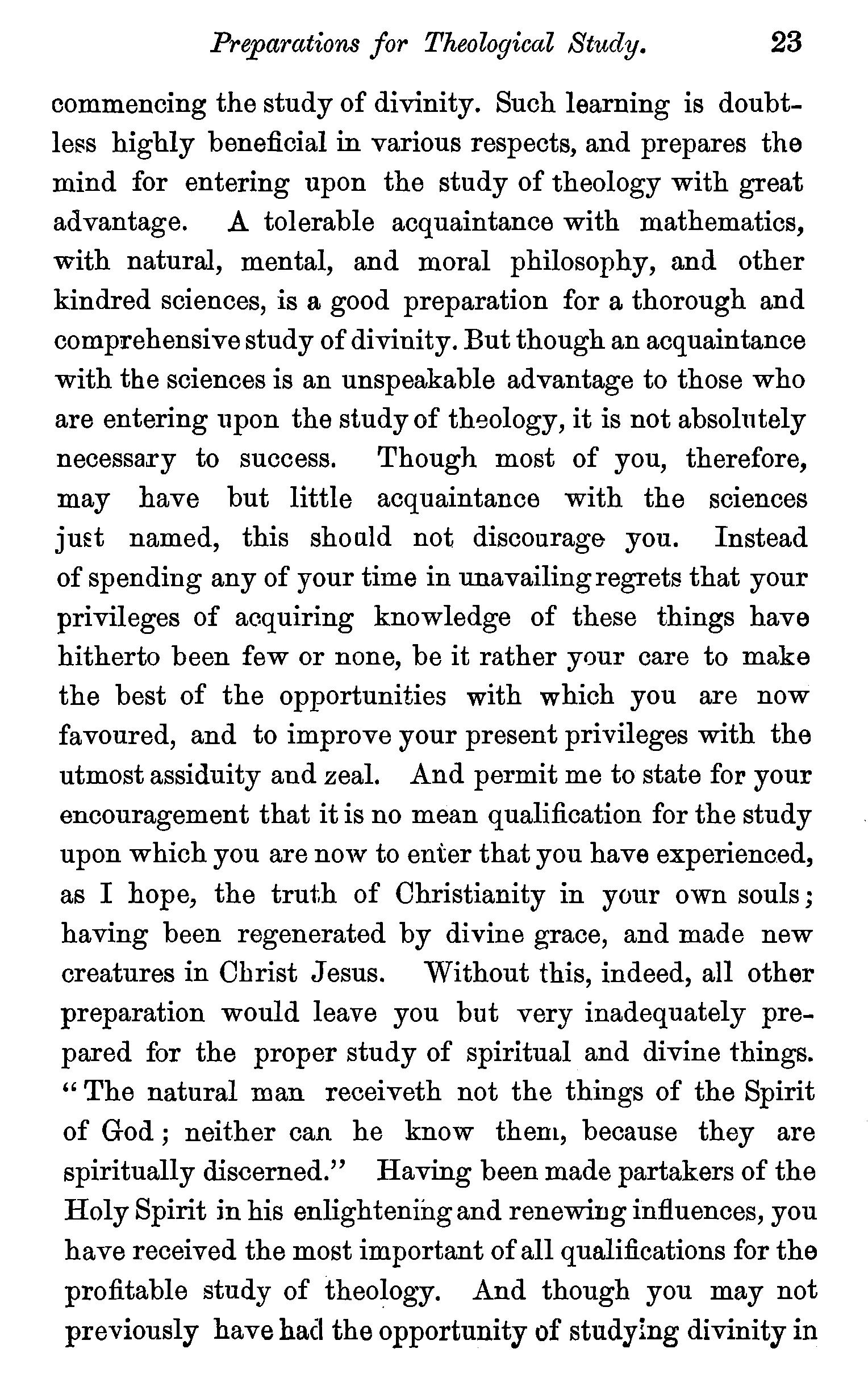
commencing the study of divinity. Such learning is doubtless highly beneficial in various respects, and prepares the mind for entering upon the study of theology with great advantage. A tolerable acquaintance with mathematics, with natural, mental, and moral philosophy, and other kindred sciences, is a good preparation for a thorough and comprehensive study of divinity. But though an acquaintance with the sciences is an unspeakable advantage to those who are entering upon the study of th'3ology, it is not absolutely necessary to success. Though most of you, therefore, may have but little acquaintance with the sciences jmt named, this should not discourage you. Instead of spending any of your time in unavailing regrets that your privileges of acquiring knowledge of these things have hitherto been few or none, be it rather your care to make the best of the opportunities with which you are now favoured, and to improve your present privileges with the utmost assiduity and zeal. And permit me to state for your encouragement that it is no mean qualification for the study upon which you are now to enter that you have experienced, as I hope, the truth of Christianity in your own souls; having been regenerated by divine grace, and made new creatures in Christ Jesus. Without this, indeed, all other preparation would leave you but very inadequately prepared for the proper study of spiritual and divine things. "The natural man receiveth not the things of the Spirit of God ; neither can he know them, because they are spiritually discerned." Having been made partakers of the Holy Spirit in his enlightening and renewing influences, you have received the most important of all qualifications for the profitable study of theology. And though you may not previously have had the opportunity of studying divinity in
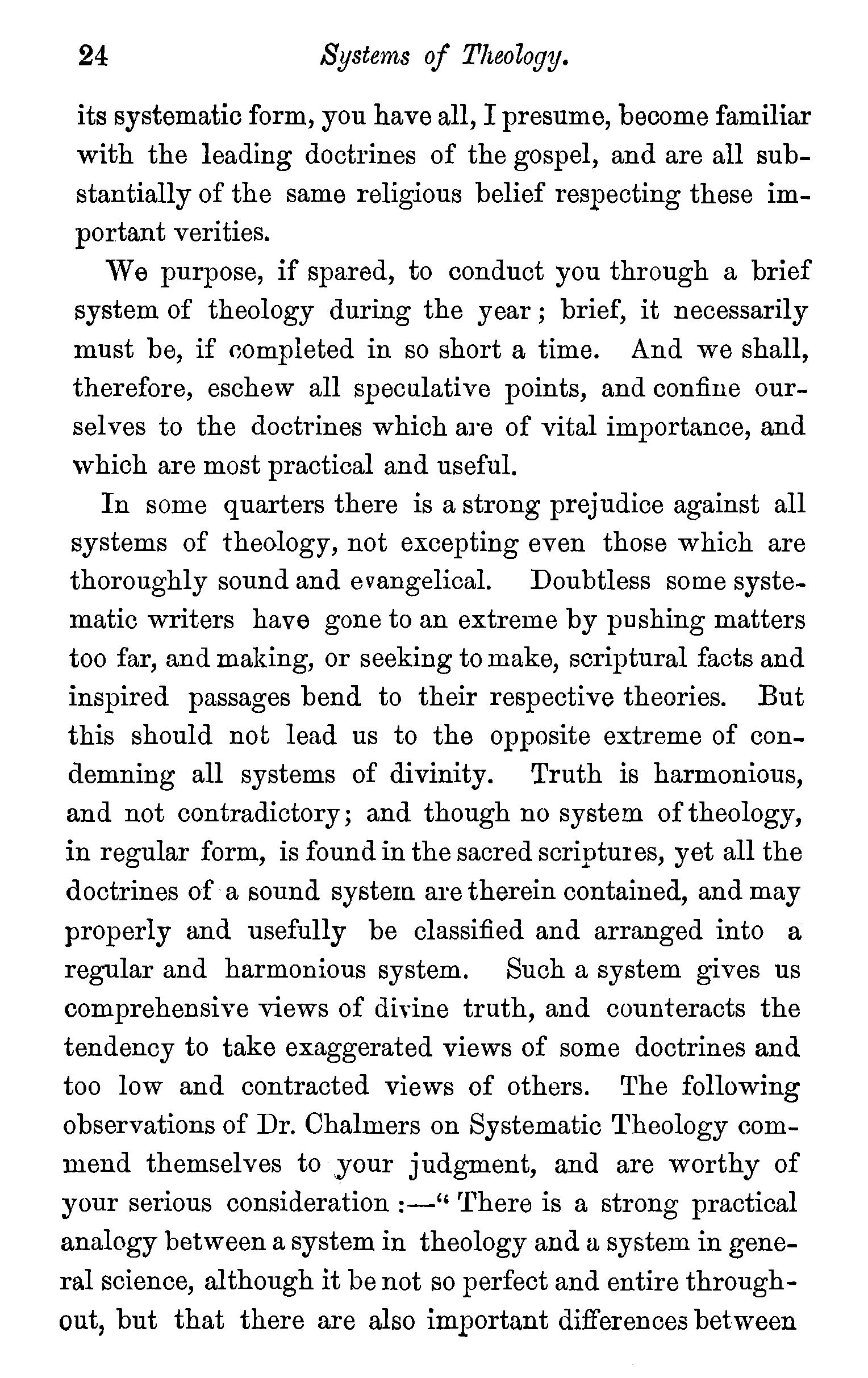
its systematic form, you have all, I presume, become familiar with the leading doctrines of the gospel, and are all substantially of the same religious belief respecting these important verities.
We purpose, if spared, to conduct you through a brief system of theology during the year; brief, it necessarily must be, if completed in so short a time. And we shall, therefore, eschew all speculative points, and confine ourselves to the doctrines which are of vital importance, and which are most practical and useful.
In some quarters there is a strong prejudice against all systems of theology, not excepting even those which are thoroughly sound and evangelical. Doubtless some systematic writers have gone to an extreme by pushing matters too far, and making, or seeking to make, scriptural facts and inspired passages bend to their respective theories. But this should not lead us to the opposite extreme of condemning all systems of divinity. Truth is harmonious, and not contradictory; and though no system of theology, in regular form, is found in the sacred scriptures, yet all the doctrines of a sound system are therein contained, and may properly and usefully be classified and arranged into a regular and harmonious system. Such a system gives us comprehensive views of divine truth, and counteracts the tendency to take exaggerated views of some doctrines and too low and contracted views of others. The following observations of Dr. Chalmers on Systematic 'J..1heologycommend themselves to your judgment, and are worthy of your serious consideration :-'' 'rhere is a strong practical analogy between a system in theology and a system in general science, although it be not so perfect and entire throughout, but that there are also important differences between
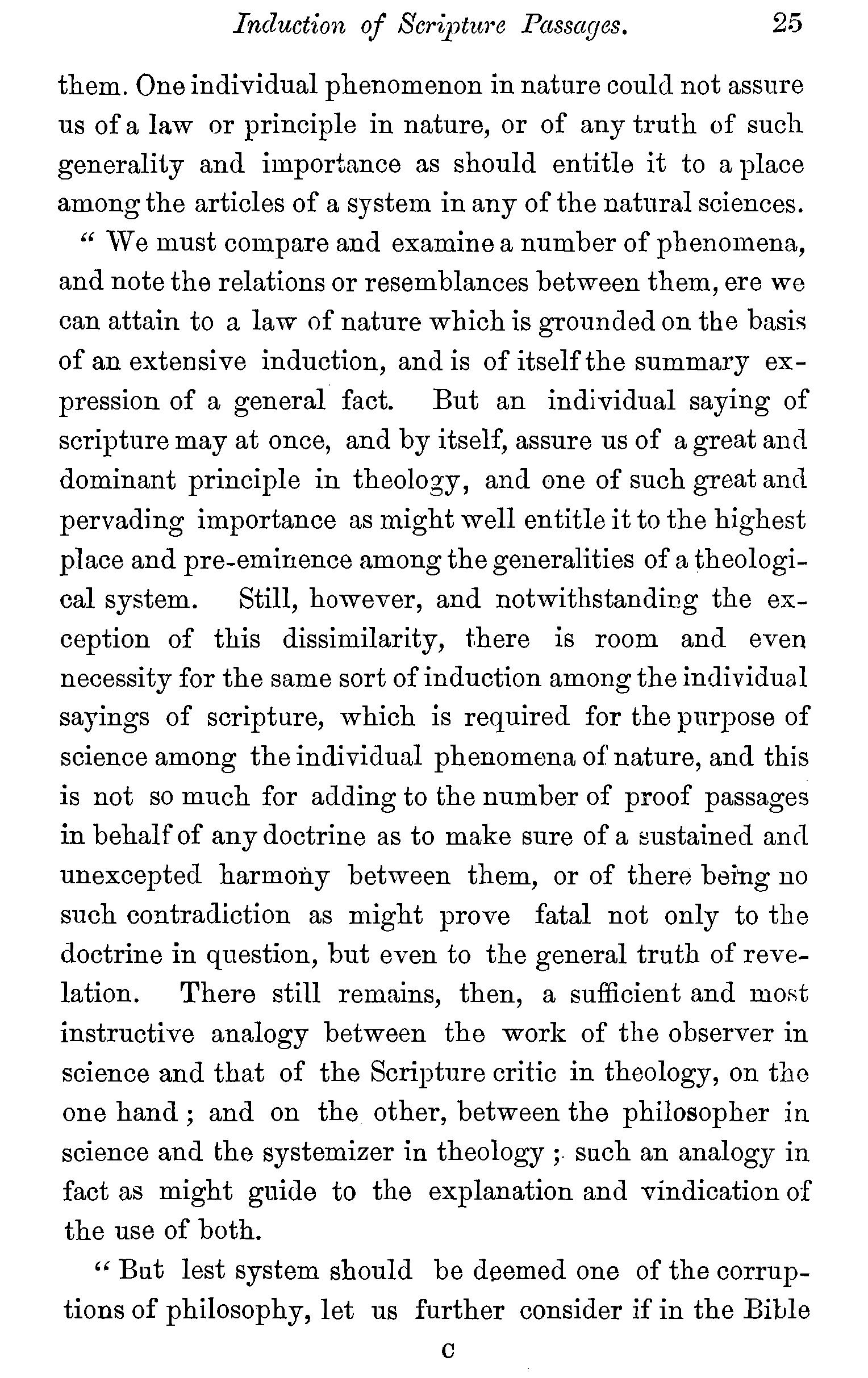
them. One individual phenomenon in nature could not assure us of a law or principle in nature, or of any truth of such generality and importance as should entitle it to a place among the articles of a system in any of the natural sciences.
" vVe must compare and examine a number of phenomena, and note the relations or resemblances between them, ere we can attain to a law of nature which is grounded on the basi" of an extensive induction, and is of itself the summary expression of a general fact. But an individual saying of scripture may at once, and by itself, assure us of a great ancl dominant principle in theology, and one of such great ancl pervading importance as might well entitle it to the highest place and pre-eminence among the generalities of a theological system. Still, however, and notwithstanding the exception of this dissimilarity, there is room and even necessity for the same sort of induction among the individual sayings of scripture, which is required for the purpose of science among the individual phenomena of nature, and this is not so much for adding to the number of proof passages in behalf of any doctrine as to make sure of a sustained ancl unexcepted harmony between them, or of there being no such contradiction as might prove fatal not only to the doctrine in question, but even to the general truth of revelation. There still remains, then, a sufficient and motst instructive analogy between the work of the observer in science and that of the Scripture critic in theology, on the one hand; and on the other, between the philosopher in science and the systemizer in theology ;- such an analogy in fact as might guide to the explanation and vindication of the use of both.
"But lest system should be deemed one of the corruptions of philosophy, let us further consider if in the Bible
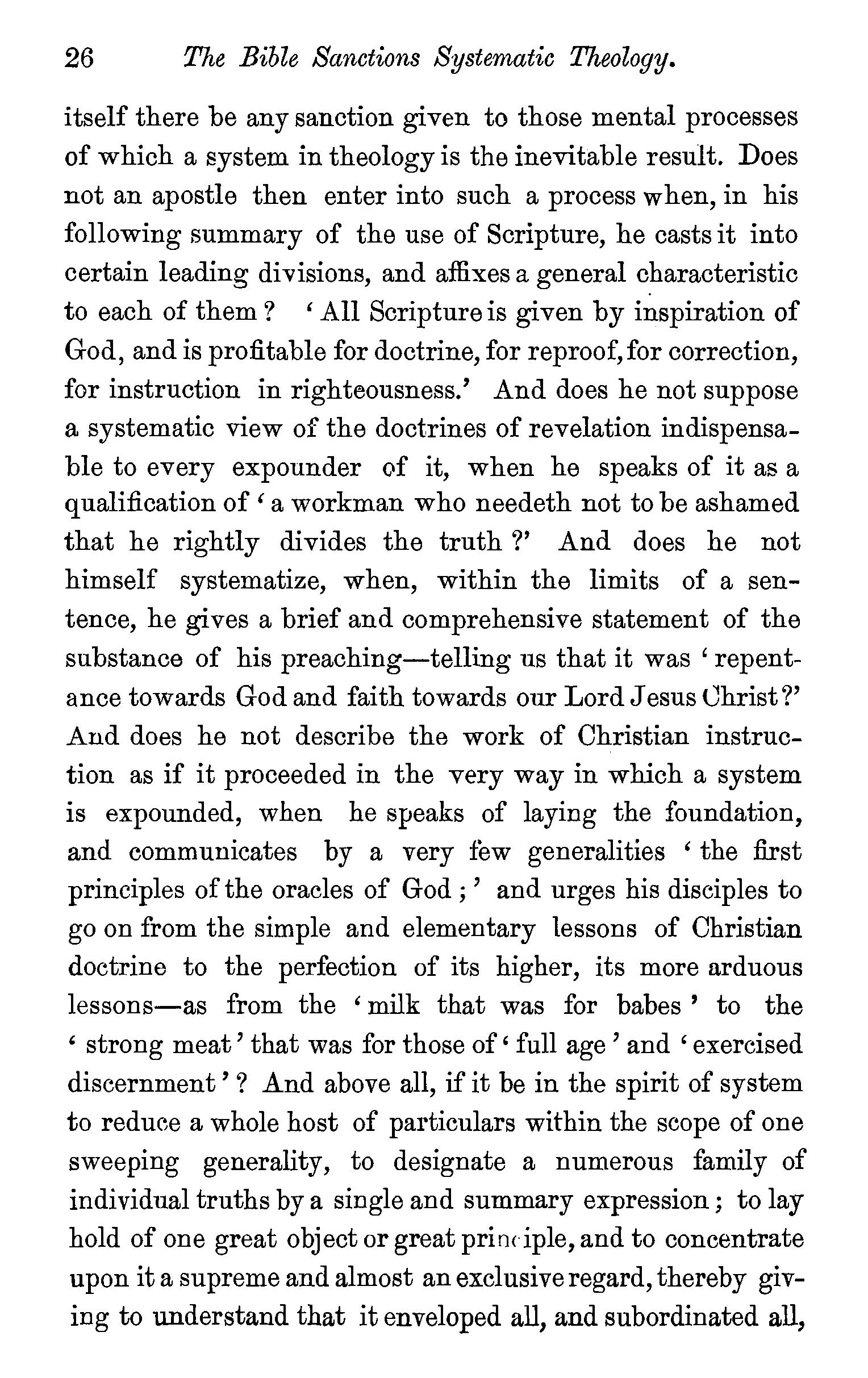
itself there be any sanction given to those mental processes of which a system in theology is the inevitable result. Does not an apostle then enter into such a process when, in his following summary of the use of Scripture, he casts it into certain leading divisions, and affixes a general characteristic to each of them? ' All Scripture is given by inspiration of God, and is profitable for doctrine, for reproof,for correction, for instruction in righteousness.' And does he not suppose a systematic view of the doctrines of revelation indispensable to every expounder of it, when he speaks of it as a qualification of' a workman who needeth not to be ashamed that he rightly divides the truth ?' And does he not himself systematize, when, within the limits of a sentence, he gives a brief and comprehensive statement of the substance of his preaching-telling us that it was 'repentance towards God and faith towards our Lord Jesus Christ?' And does he not describe the work of Christian instruction as if it proceeded in the very way in which a system is expounded, when he speaks of laying the foundation, and communicates by a very few generalities ' the first principles of the oracles of God ; ' and urges his disciples to go on from the simple and elementary lessons of Christian doctrine to the perfection of its higher, its more arduous lessons-as from the ' milk that was for babes ' to the ' strong meat' that was for those of' full age ' and ' exercised discernment' ? And above all, if it be in the spirit of system to reduce a whole host of particulars within the scope of one sweeping generality, to designate a numerous family of individual truths by a single and summary expression; to lay hold of one great object or great principle, and to concentrate upon it a supreme and almost an exclusive regard, thereby giving to understand that it enveloped all, and subordinated all,
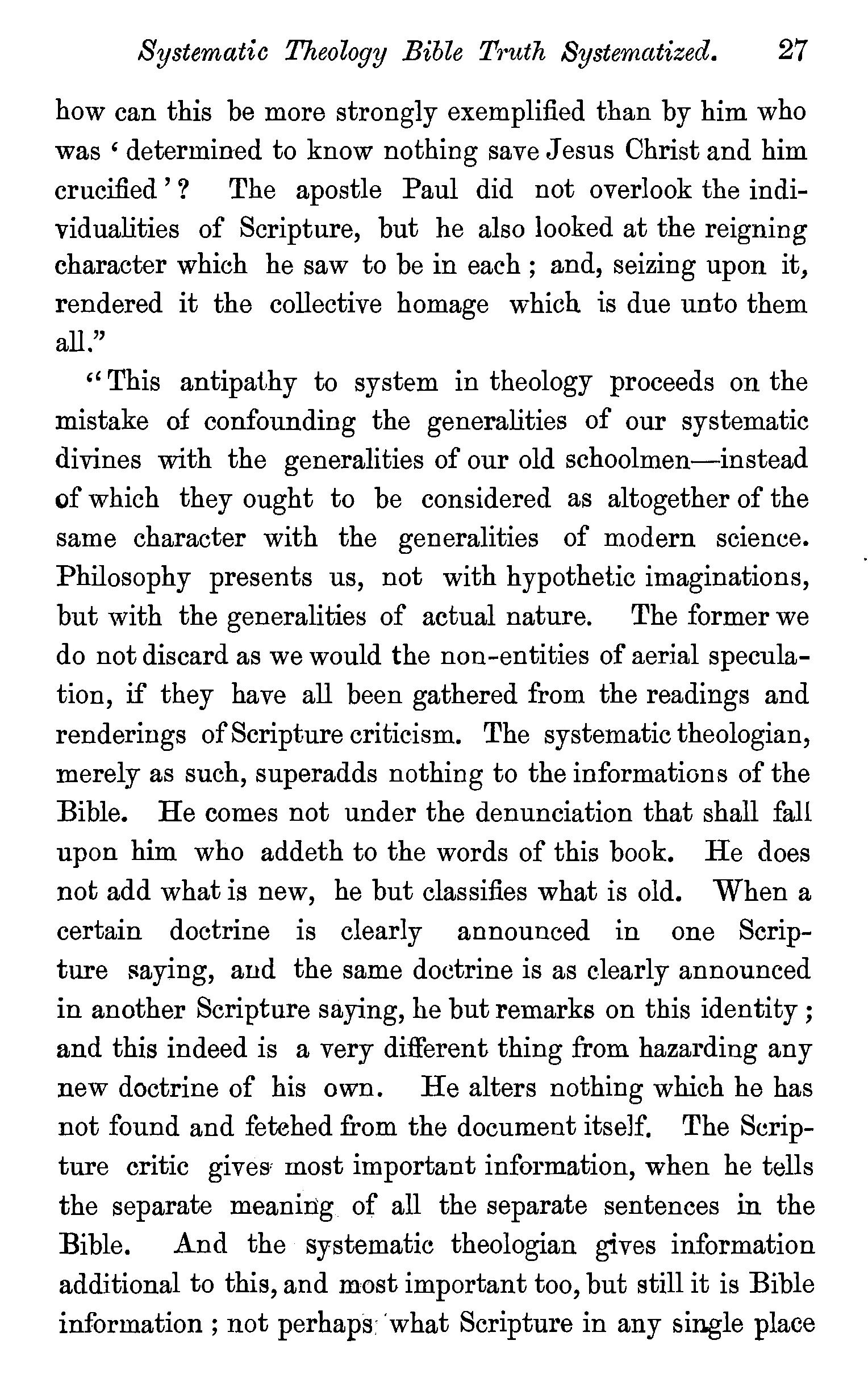
how can this be more strongly exemplified than by him who was ' determined to know nothing save Jesus Christ and him crucified ' ? The apostle Paul did not overlook the individualities of Scripture, but he also looked at the reigning character which he saw to be in each ; and, seizing upon it, rendered it the collective homage which is due unto them all."
'' This antipat.hy to system in theology proceeds on the mistake of confounding the generalities of our systematic divines with the generalities of our old schoolmen-instead of which they ought to be considered as altogether of the same character with the generalities of modern science. Philosophy presents us, not with hypothetic imaginations, but with the generalities of actual nature. The former we do not discard as we would the non-entities of aerial speculation, if they have all been gathered from the readings and renderings of Scripture criticism. The systematic theologian, merely as such, superadds nothing to the informations of the Bible. He comes not under the denunciation that shall fall upon him who addeth to the words of this book. He does not add what is new, he but classifies what is old. When a certain doctrine is clearly announced in one Scripture saying, and the same doctrine is as clearly announced in another Scripture saying, he but remarks on this identity ; and this indeed is a very different thing from hazarding any new doctrine of his own. He alters nothing which he has not found and fetehed from the document itse]f. The Scripture critic gives' most important information, when he tells the separate meaning of all the separate sentences in the Bible. And the systematic theologian gives information additional to this, and most important too, but still it is Bible information ; not perhaps: ·what Scripture in any single place
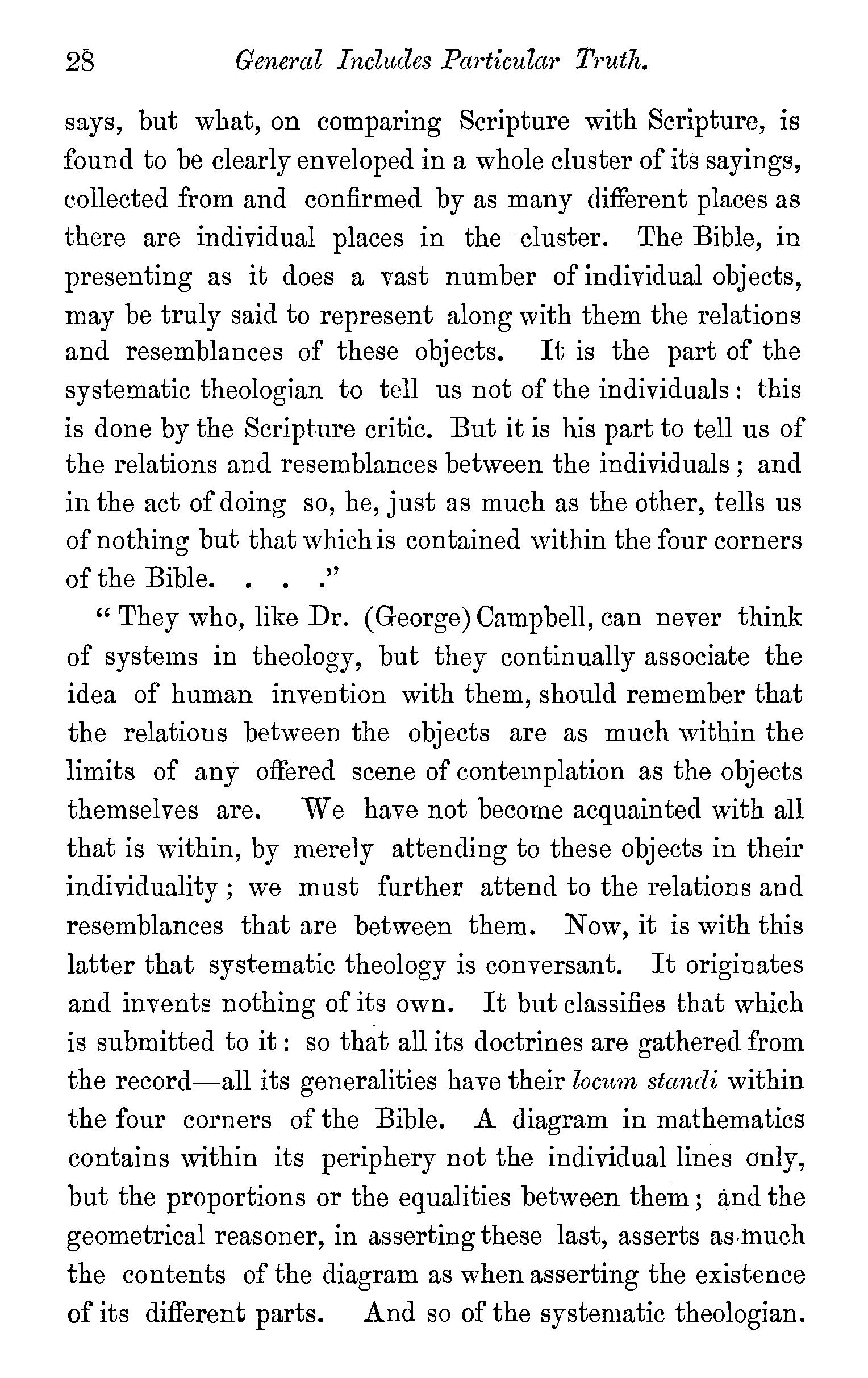
says, but what, on comparing Scripture with Scripture, is found to be clearly enveloped in a whole cluster of its sayings, collected from and confirmed by as many different places as there are individual places in the cluster. The Bible, in presenting as it does a vast number of individual objects, may be truly said to represent along with them the relations and resemblances of these objects. It is the part of the systematic theologian to tell us not of the individuals: this is done by the Scripture critic. But it is his part to tell us of the relations and resemblances between the individuals; and in the act of doing so, he, just as much as the other, tells us of nothing but that which is contained within the four corners of the Bible. ''
"They who, like Dr. (George) Campbell, can never think of systems in theology, but they continually associate the idea of human invention with them, should remember that the relations between the objects are as much within the limits of any offered scene of contemplation as the objects themselves are. We have not become acquainted with all that is within, by merely attending to these objects in their individuality; we must further attend to the relations and resemblances that are between them. Now, it is with this latter that systematic theology is conversant. It originates and invent~ nothing of its own. It but classifies that which is submitted to it : so that all its doctrines are gathered from the record-all its generalities have their locmn stancli within the four corners of the Bible. A diagram in mathematics contains within its periphery not the individual lines only, but the proportions or the equalities between them; and the geometrical reasoner, in asserting these last, asserts as,:tnuch the contents of the diagram as when asserting the existence of its different parts. And so of the systematic theologian.
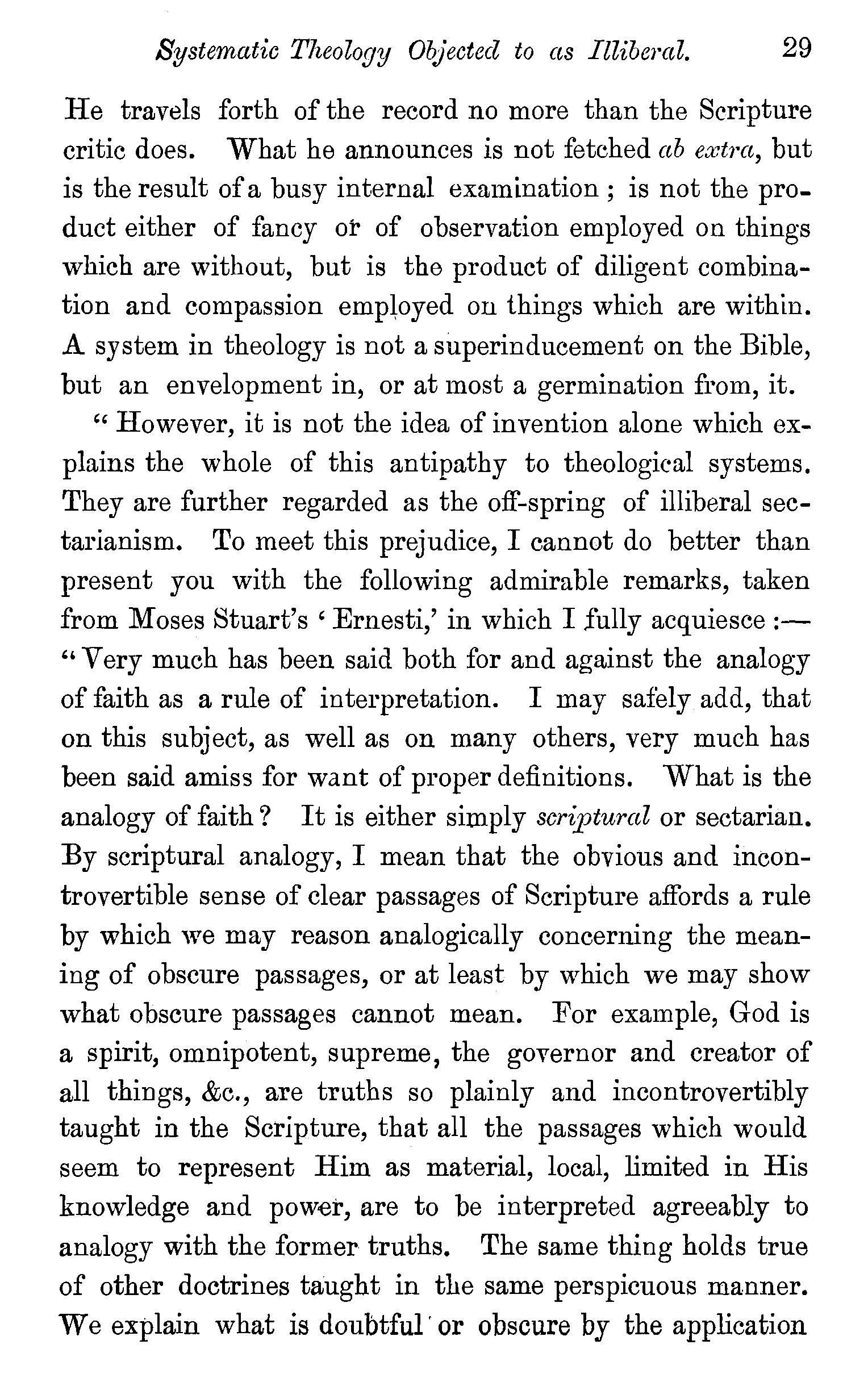
He travels forth of the record no more than the Scripture critic does. What he announces is not fetched ab extra, but is the result of a busy internal examination ; is not the product either of fancy or of observation employed on things which are without, but is the product of diligent combination and compassion emp~oyed on things which are within. A system in theology is not a superinducement on the Bible, but an envelopment in, or at most a germination from, it. "However, it is not the idea of invention alone which explains the whole of this antipathy to theological systems. They are further regarded as the off-spring of illiberal sectarianism. To meet this prejudice, I cannot do better than present you with the following admirable remarks, taken from Moses Stuart's 'Ernesti,' in which I fully acquiesce:" Very much has been said both for and against the analogy of faith as a rule of interpretation. I may safely add, that on this subject, as well as on many others, very much has been said amiss for want of proper definitions. What is the analogy of faith? It is either simply scriptural or sectarian. :By scriptural analogy, I mean that the obvious and incontrovertible sense of clear passages of Scripture affords a rule by which we may reason analogically concerning the meaning of obscure passages, or at least by which we may show what obscure passages cannot mean. For example, God is a spirit, omnipotent, supreme, the governor and creator of all things, &c., are truths so plainly and incontrovertibly taught in the Scripture, that all the passages which would seem to represent Him as material, local, limited in His knowledge and power, are to be interpreted agreeably to analogy with the former truths. The same thing holds true of other doctrines taught in the same perspicuous manner. We explain what is doubtful· or obscure by the application
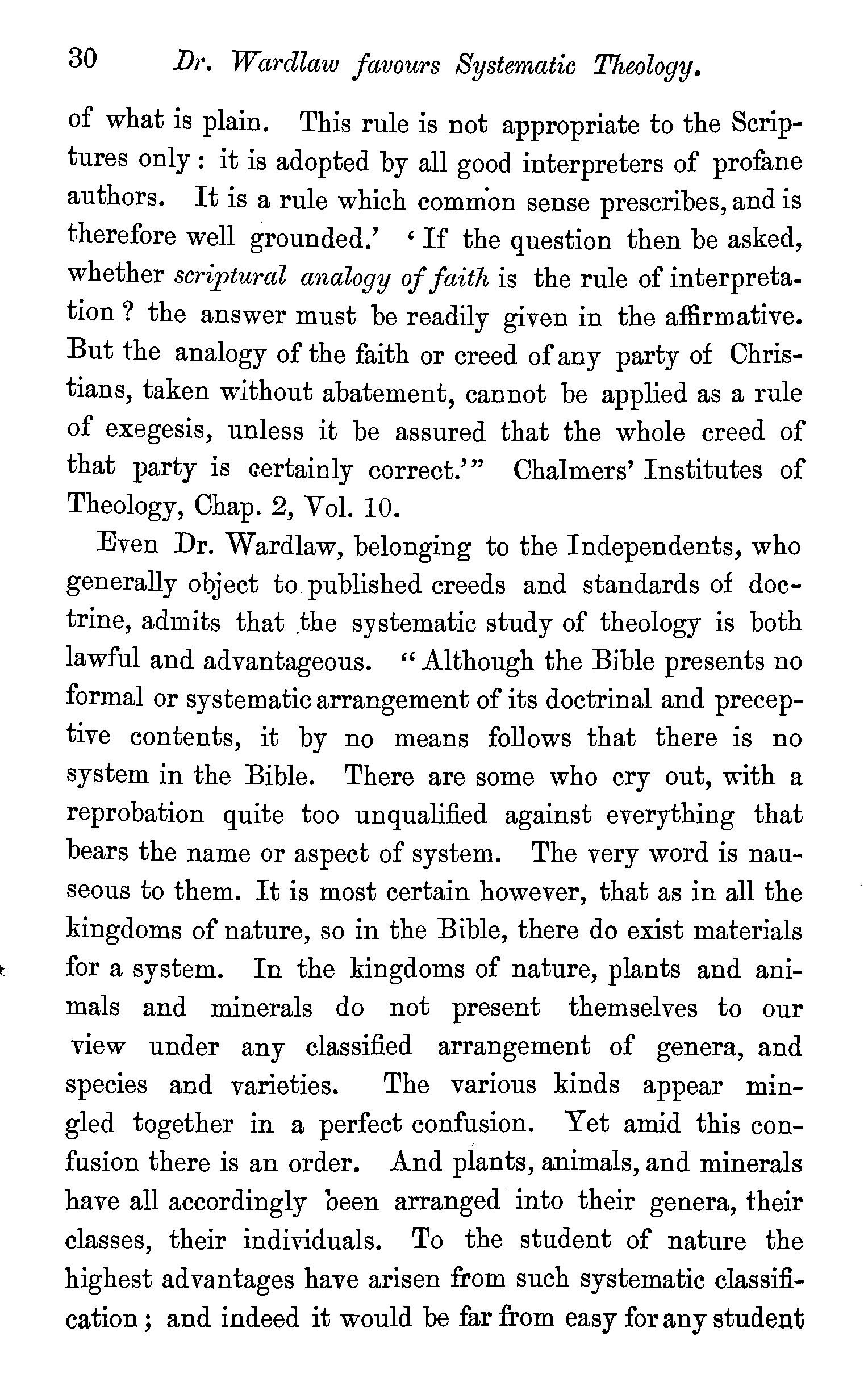
of what is plain. This rule is not appropriate to the Scriptures only: it is adopted by all good interpreters of profane authors. It is a rule which comm.on sense prescribes, and is therefore well grounded.' ' If the question then be asked, whether scriptural analogy of faith is the rule of interpreta. tion ? the answer must be readily given in the affirmative. But the analogy of the faith or creed of any party of Christians, taken without abatement, cannot be applied as a rule of exegesis, unless it be assured that the whole creed of that party is Gertainly correct.'" Chalmers' Institutes of Theology, Chap. 2, Vol. 10.
Even Dr. Wardlaw, belonging to the Independents, who generally object to published creeds and standards of doctrine, admits that .the systematic study of theology is both lawful and advantageous. "Although the Bible presents no formal or systematic arrangement of its doctrinal and preceptive contents, it by no means follows that there is no system in the Bible. There are some who cry out, with a reprobation quite too unqualified against everything that bears the name or aspect of system. The very word is nauseous to them. It is most certain however, that as in all the kingdoms of nature, so in the Bible, there do exist materials for a system. In the kingdoms of nature, plants and animals and minerals do not present themselves to our view under any classified arrangement of genera, and species and varieties. The various kinds appear mingled together in a perfect confusion. Yet amid this confusion there is an order. And plants, animals, and minerals have all accordingly been arranged into their genera, their classes, their individuals. To the student of nature the highest ad vantages have arisen from such systematic classification ; and indeed it would be far from easy for any student
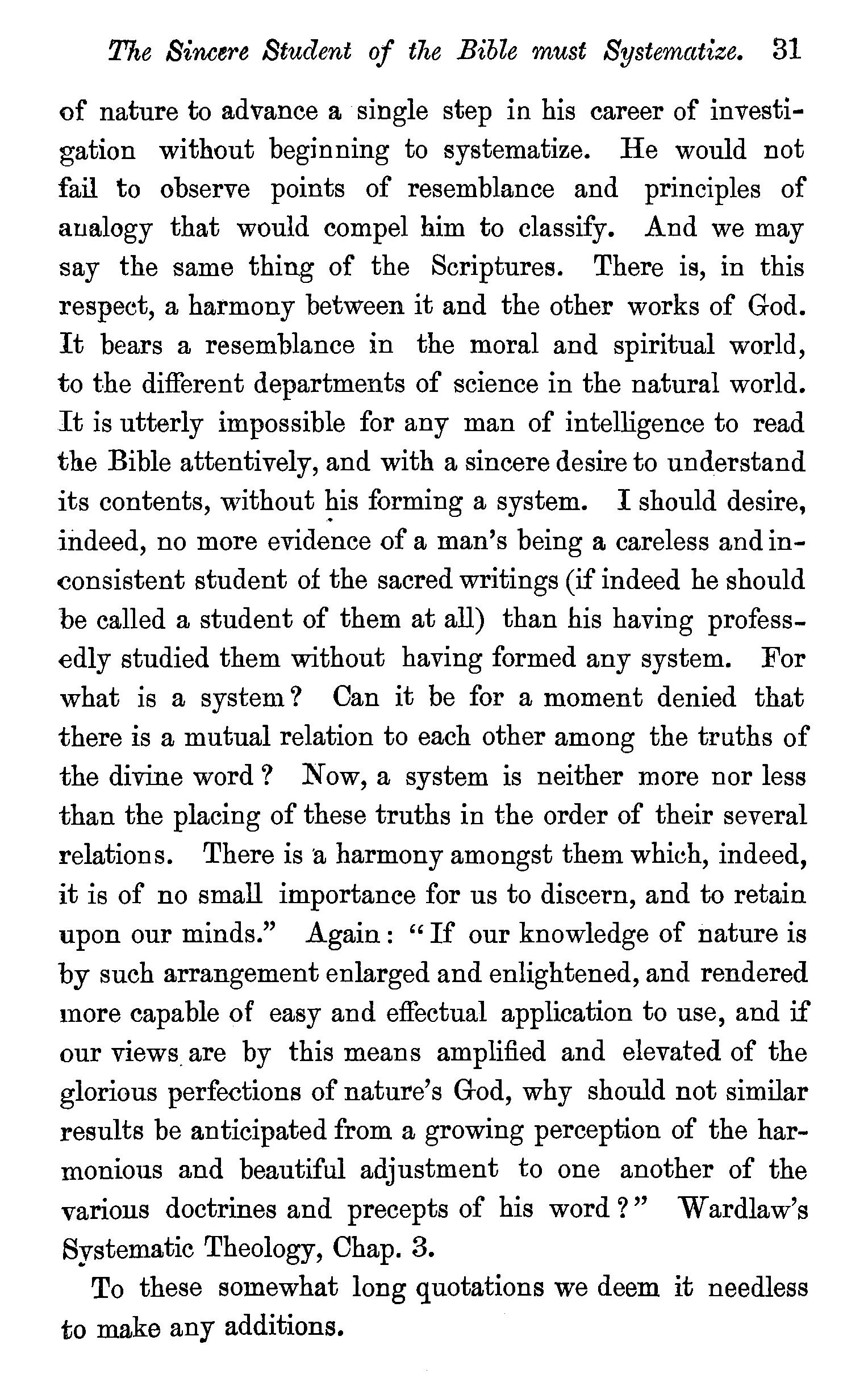
of nature to advance a single step in his career of investigation without beginning to systematize. He would not fail to observe points of resemblance and principles of aualogy that would compel him to classify. And we may say the same thing of the Scriptures. There is, in this respect, a harmony between it and the other works of God. It bears a resemblance in the moral and spiritual world, to the different departments of science in the natural world. It is utterly impossible for any man of intelligence to read the Bible attentively, and with a sincere desire to understand its contents, without ~is forming a system. I should desire, indeed, no more evidence of a man's being a careless and inconsistent student of the sacred writings (if indeed he should be called a student of them at all) than his having professedly studied them without having formed any system. For what is a system? Can it be for a moment denied that there is a mutual relation to each other among the truths of the divine word? Now, a system is neither more nor less than the placing of these truths in the order of their several relations. There is ·a harmony amongst them which, indeed, it is of no small importance for us to discern, and to retain upon our minds."
Again : " If our knowledge of nature is by such arrangement enlarged and enlightened, and rendered more capable of easy and effectual application to use, and if our views_are by this means amplified and elevated of the glorious perfections of nature's God, why should not similar results be anticipated from a growing perception of the harmonious and beautiful adjustment to one another of the various doctrines and precepts of his word?" Wardlaw's Systematic Theology, Chap. 3.
To these somewhat long quotations we deem it needless to make any additions.
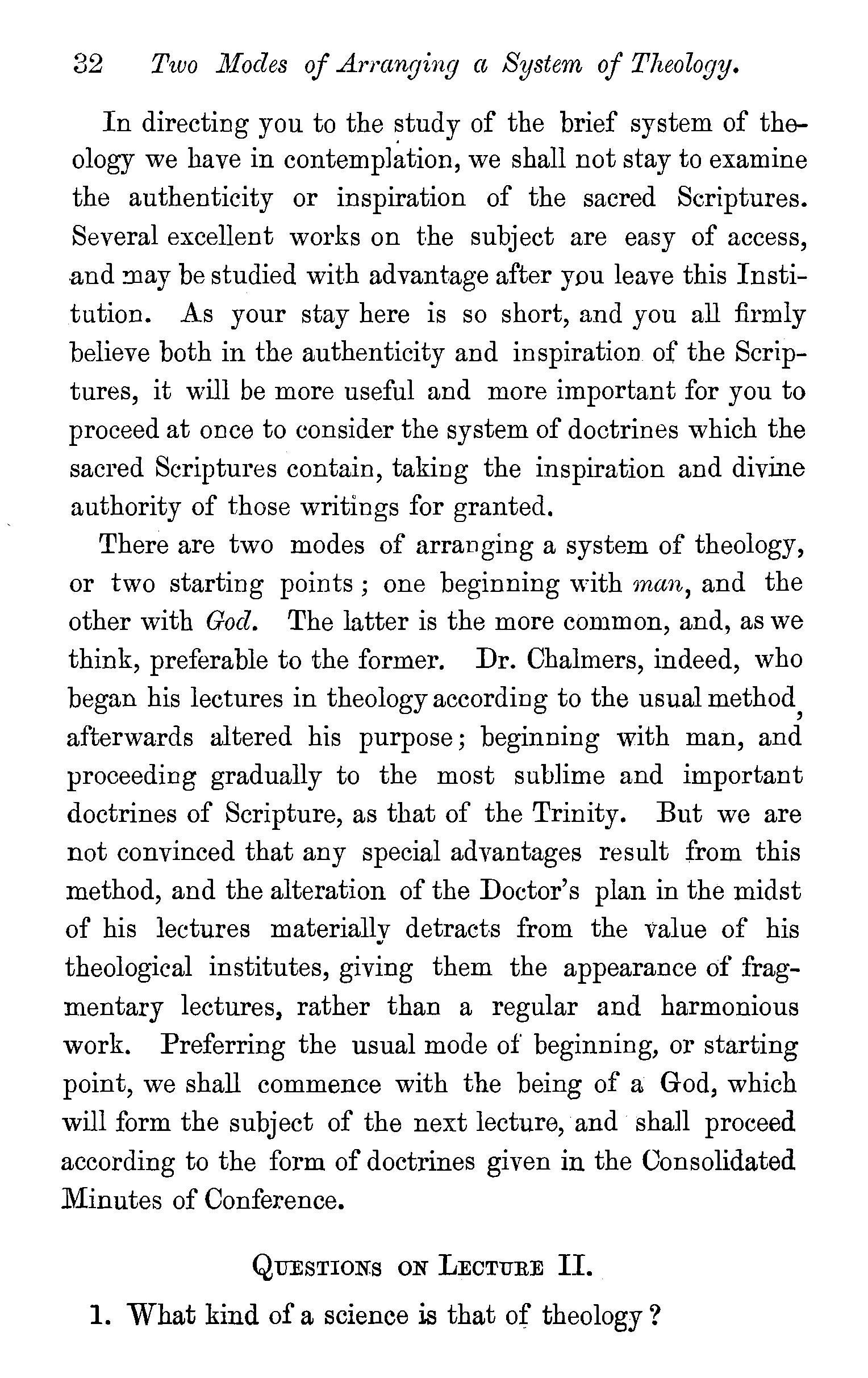
In directing you to the ~tudy of the brief system of theology we have in contemplation, we shall not stay to examine the authenticity or inspiration of the sacred Scriptures. Several excellent works on the subject are easy of access, and :21aybe studied with advantage after you leave this Institution. As your stay here is so short, and you all firmly believe both in the authenticity and inspiration of the Scriptures, it will be more useful and more important for you to proceed at once to consider the system of doctrines which the sacred Scriptures contain, taking the inspiration and divine authority of those writings for granted.
There are two modes of arranging a system of theology, or two starting points ; one beginning with man, and the other with Goel. The latter is the more common, and, as we think, preferable to the former. Dr. Chalmers, indeed, who began his lectures in theology according to the usual method ' afterwards altered his purpose; beginning with man, and proceeding gradually to the most sublime and important doctrines of Scripture, as that of the Trinity. But we are not convinced that any special advantages result from this method, and the alteration of the Doctor's plan in the midst of his lectures materially detracts from the value of his theological institutes, giving them the appearance of fragmentary lectures, rather than a regular and harmonious work. Preferring the usual mode of beginning, or starting point, we shall commence with the being of a God, which will form the subject of the next lecture, and shall proceed according to the form of doctrines given in the Consolidated Minutes of Conference.
Qu:ESTIONSONLECTURE II.
1. What kind of a science is that of theology?
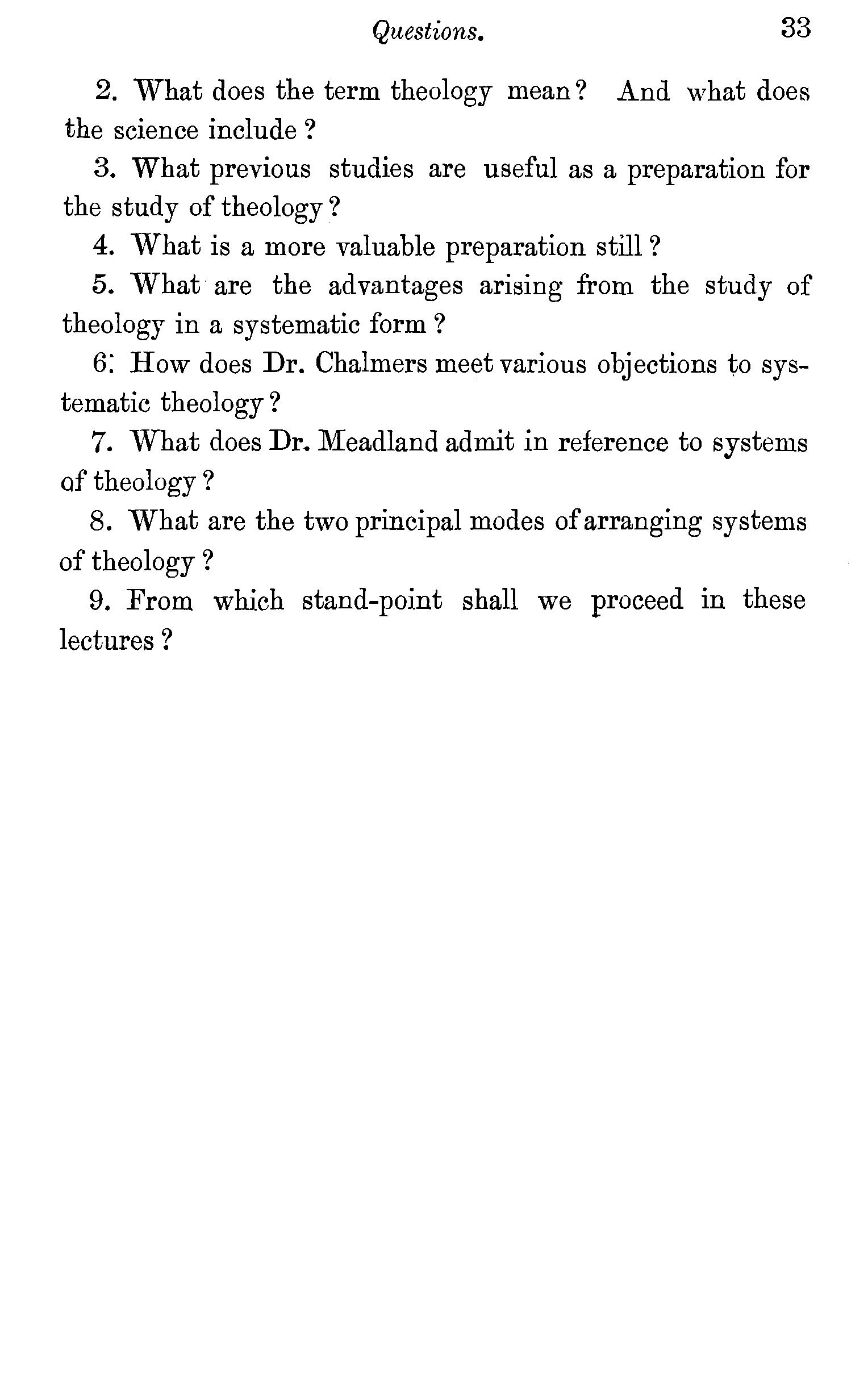
2. What does the term theology mean? And what does the science include ?
3. What previous studies are useful as a preparation for the study of theology?
4. What is a more valuable preparation still?
5. What are the advantages arising from the study of theology in a systematic form ?
6: How does Dr. Chalmers meet various objections to systematic theology?
7. What does Dr. Meadland admit in reference to systems of theology ?
8. What are the two principal modes of arranging systems of theology ?
9. From which stand-point shall we proceed in these lectures?
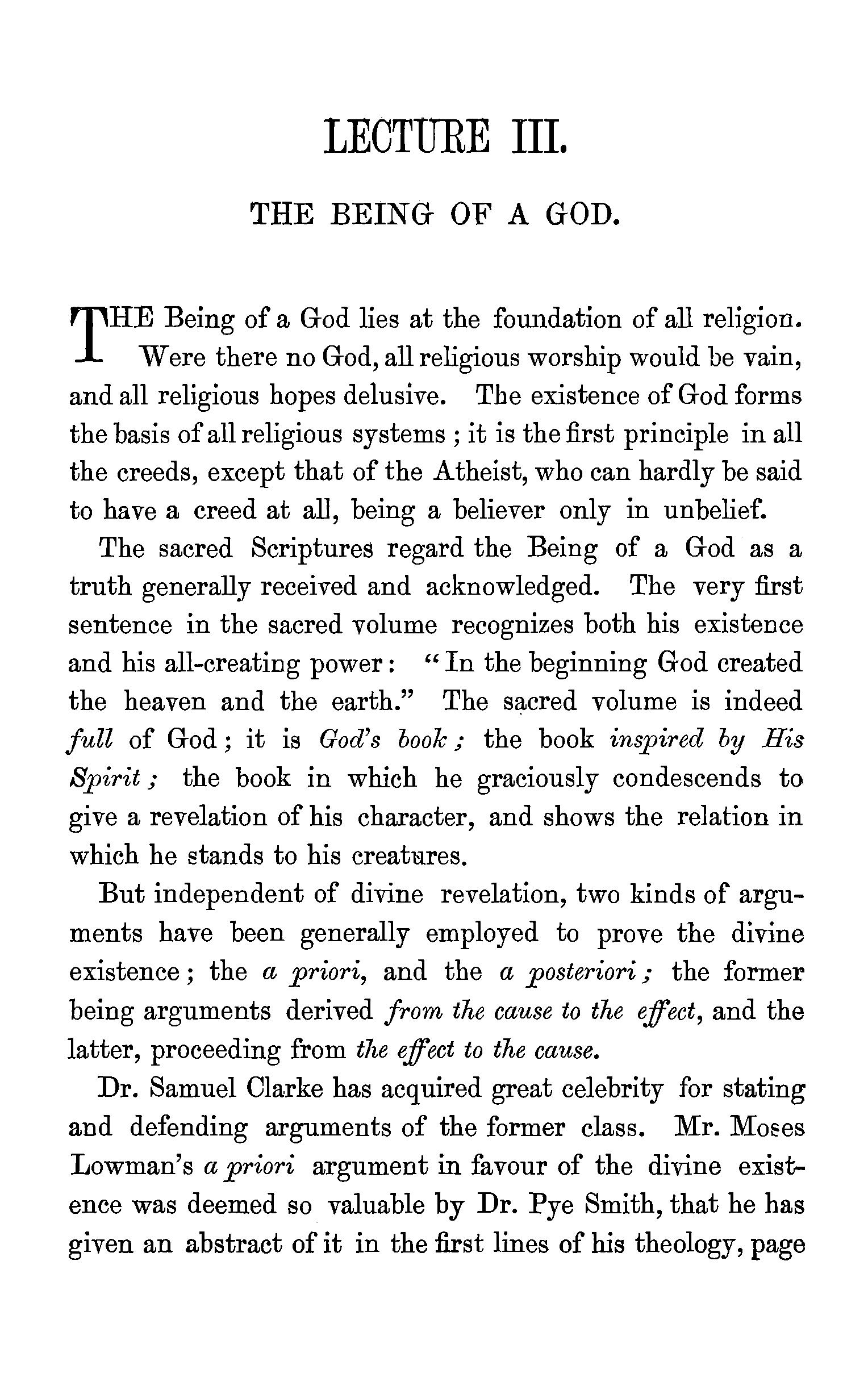
THE Being of a God lies at the foundation of all religion. Were there no God, all religious worship would be vain, and all religious hopes delusive. The existence of God forms the basis of all religious systems ; it is the first principle in all the creeds, except that of the Atheist, who can hardly be said to have a creed at all, being a believer only in unbelief.
The sacred Scriptures regard the Being of a God as a truth generally received and acknowledged. The very first sentence in the sacred volume recognizes both his existence and his all-creating power : " In the beginning God created the heaven and the earth." The sacred volume is indeed full of God ; it is God's book ; the book inspired by His Spirit ; the book in which he graciously condescends to give a revelation of his character, and shows the relation in which he stands to his creatares.
But independent of divine revelation, two kinds of arguments have been generally employed to prove the divine existence ; the ct priori, and the a posteriori; the former being arguments derived from the cause to the effect, and the latter, proceeding from the effect to the cause.
Dr. Samuel Clarke has acquired great celebrity for stating and defending arguments of the former class. Mr. MoEes Lawman's a priori argument in favour of the divine existence was deemed so valuable by Dr. Pye Smith, that he has given an abstract of it in the first lines of his theology, page
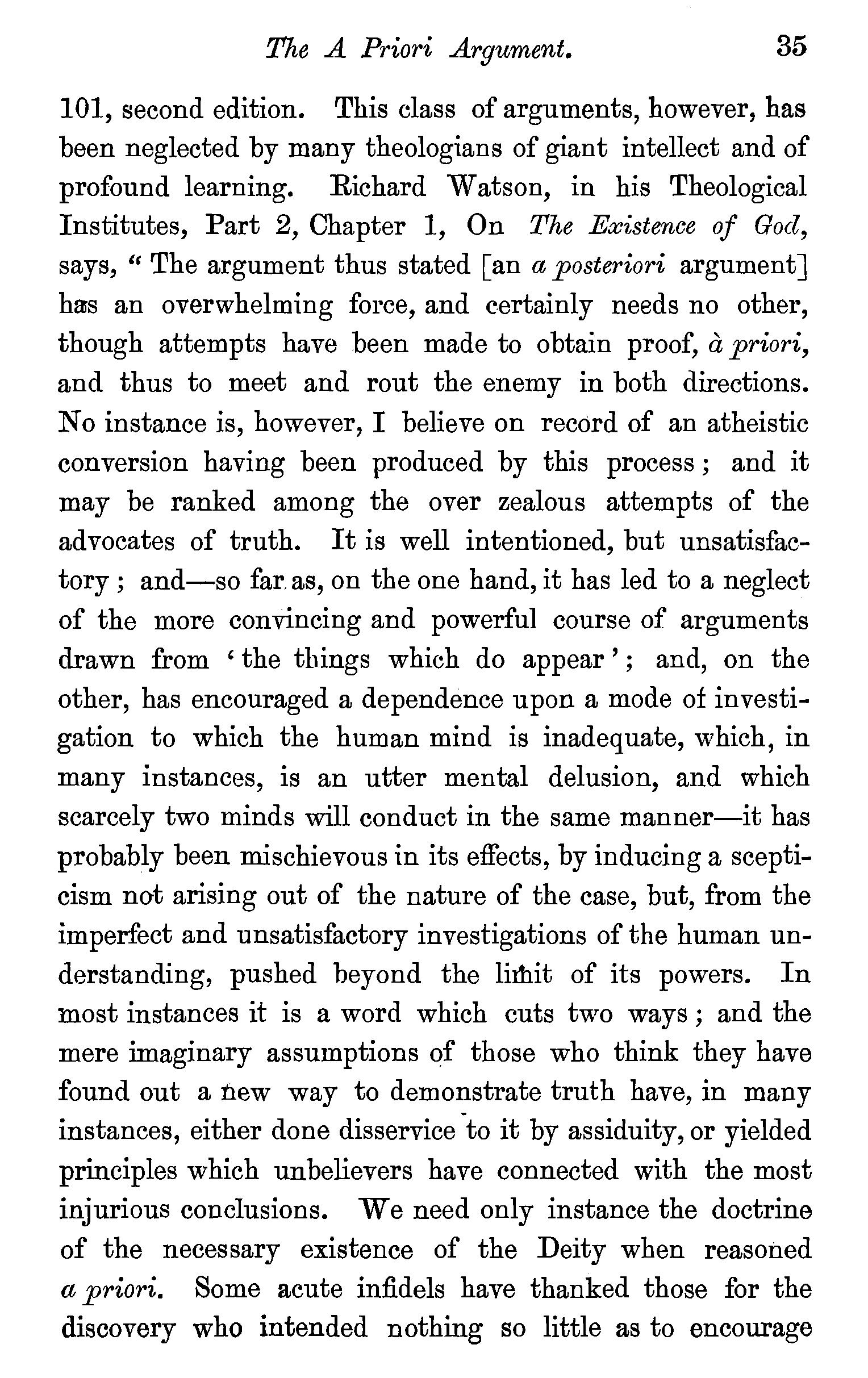
101, second edition. This class of arguments, however, has been neglected by many theologians of giant intellect and of profound learning. Richard Watson, in his Theological Institutes, Part 2, Chapter 1, On The Existence of Goel, says, " The argument thus stated [an a posteriori argument J hms an overwhelming force, and certainly needs no other, though attempts have been made to obtain proof, apriori, and thus to meet and rout the enemy in both directions. No instance is, however, I believe on record of an atheistic conversion having been produced by this process; and it may be ranked among the over zealous attempts of the advocates of truth. It is well intentioned, but unsatisfactory ; and-so far. as, on the one hand, it has led to a neglect of the more convincing and powerful course of arguments drawn from 'the things which do appear'; and, on the other, has encouraged a dependence upon a mode of investigation to which the human mind is inadequate, which, in many instances, is an utter mental delusion, and which scarcely two minds will conduct in the same manner-it has probably been mischievous in its effects, by inducing a scepticism not arising out of the nature of the case, but, from the imperfect and unsatisfactory investigations of the human understanding, pushed beyond the limit of its powers. In most instances it is a word which cuts two ways ; and the mere imaginary assumptions of those who think they have found out a new way to demonstrate truth have, in many instances, either done disservice ·to it by assiduity, or yielded principles which unbelievers have connected with the most injurious conclusions. We need only instance the doctrine of the necessary existence of the Deity when reasoned a priori. Some acute infidels have thanked those for the discovery who intended nothing so little as to encourage
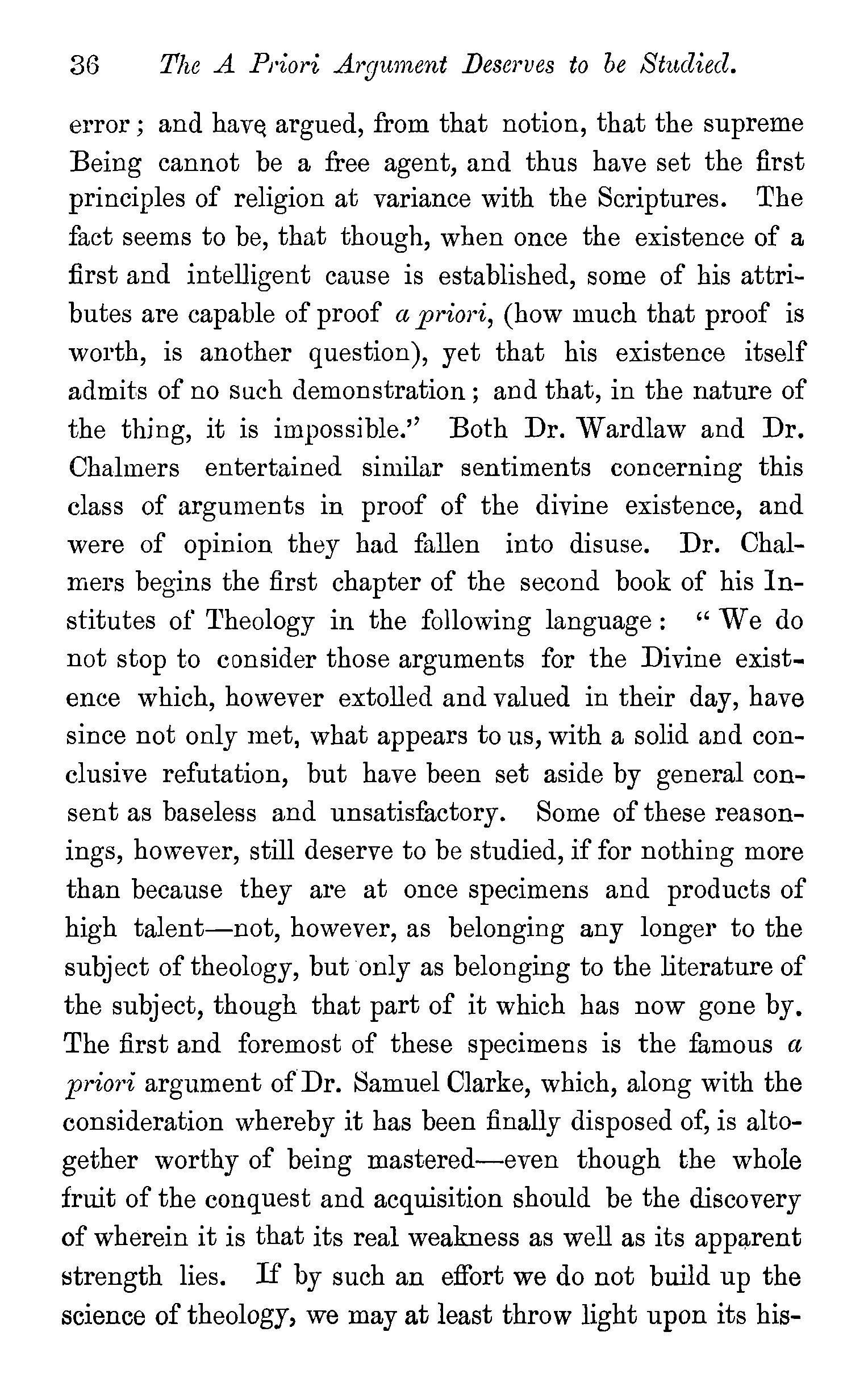
36 The A Priori Argunient Deserves to be Stucliecl.
error; and hav~ argued, from that notion, that the supreme Being cannot be a free agent, and thus have set the first principles of religion at variance with the Scriptures. The fact seems to be, that though, when once the existence of a first and intelligent cause is established, some of bis attributes are capable of proof a priori, (bow much that proof is worth, is another question), yet that his existence itself admits of no such demonstration ; and that, in the nature of the thjng, it is impossible.''
Both Dr. Wardlaw and Dr. Chalmers entertained similar sentiments concerning this class of arguments in proof of the divine existence, and were of opinion they had fallen into disuse. Dr. Chalmers begins the first chapter of the second book of his Institutes of Theology in the following language: "We do not stop to consider those arguments for the Divine existence which, however extolled and valued in their day, have since not only met, what appears to us, with a solid and conclusive refutation, but have been set aside by general consent as baseless and unsatisfactory. Some of these reasonings, however, still deserve to be studied, if for nothing more than because they are at once specimens and products of high talent-not, however, as belonging any longer to the subject of theology, but only as belonging to the literature of the subject, though that part of it which has now gone by. The first and foremost of these specimens is the famous a priori argument of Dr. Samuel Clarke, which, along with the consideration whereby it has been finally disposed of, is altogether worthy of being mastered-even though the whole fruit of the conquest and acquisition should be the discovery of wherein it is that its real weakness as well as its apparent strength lies. H by such an effort we do not build up the science of theology, we may at least throw light upon its his-
J.lfr.
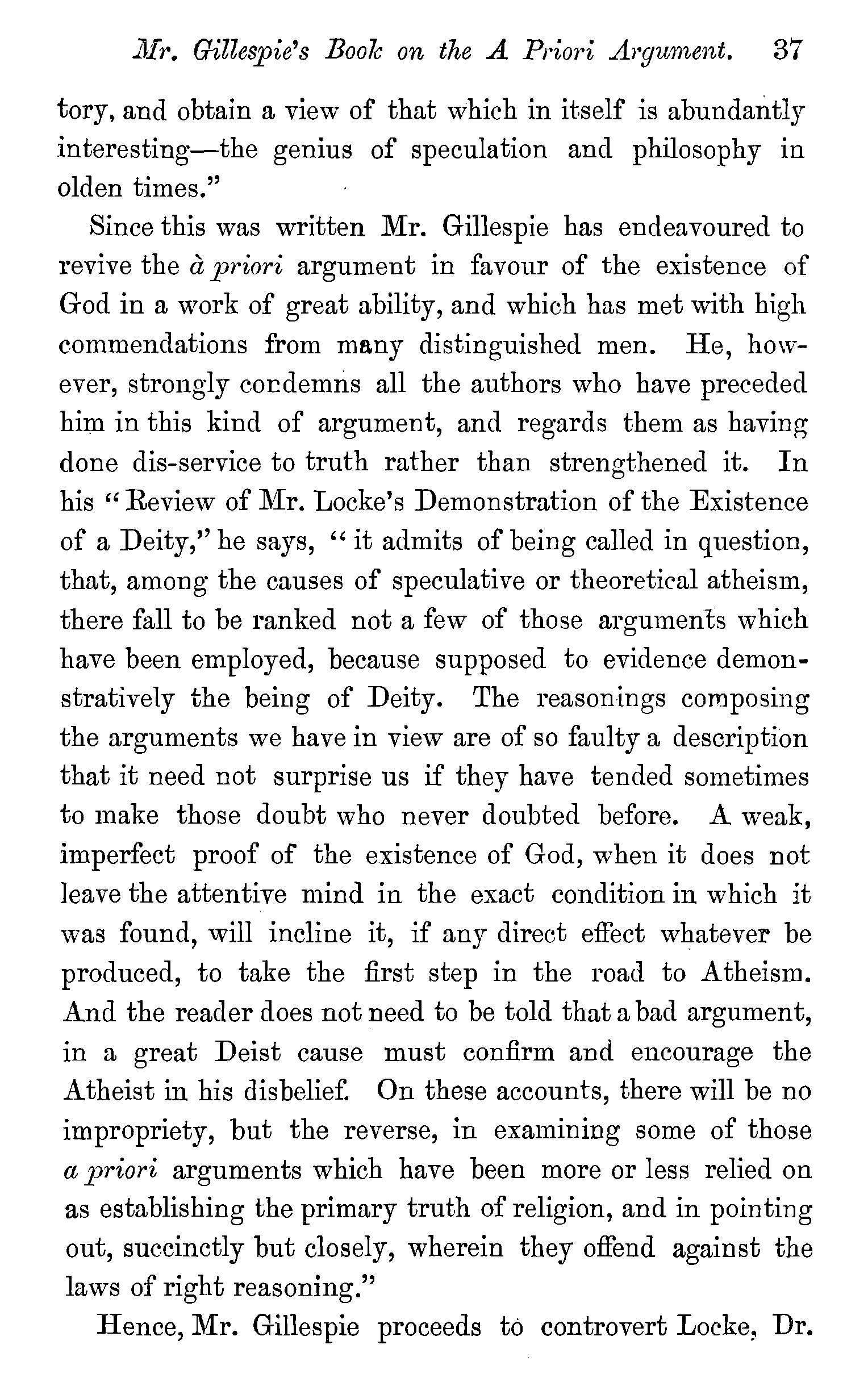
tory, and obtain a view of that which in itself is abundantly interesting-the genius of speculation and philosophy in olden times."
Since this was written Mr. Gillespie has endeavoured to revive the apriori argument in favour of the existence of God in a work of great ability, and which has met with high commendations from many distinguished men. He, however, strongly co~demris all the authors who have preceded him in this kind of argument, and regards them as having done dis-service to truth rather than strengthened it. In his "Review of J\fr. Locke's Demonstration of the Existence of a Deity,'' be says, "it admits of being called in question, that, among the causes of speculative or theoretical atheism, there fall to be ranked not a few of those arguments which have been employed, because supposed to evidence demonstratively the being of Deity. The reasonings composing the arguments we have in view are of so faulty a description that it need not surprise us if they have tended sometimes to make those doubt who never doubted before. A weak, imperfect proof of the existence of God, when it does not leave the attentive mind in the exact condition in which it was found, will incline it, if any direct effect whatever be produced, to take the first step in the road to Atheism. And the reader does not need to be told that a bad argument, in a great Deist cause must confirm and encourage the Atheist in his disbelie£ On these accounts, there will be no impropriety, but the reverse, in examining some of those a priori arguments which have been more or less relied on as establishing the primary truth of religion, and in pointing out, succinctly but closely, wherein they offend against the laws of right reasoning."
Hence, Mr. Gillespie proceeds to controvert Locke, Dr.
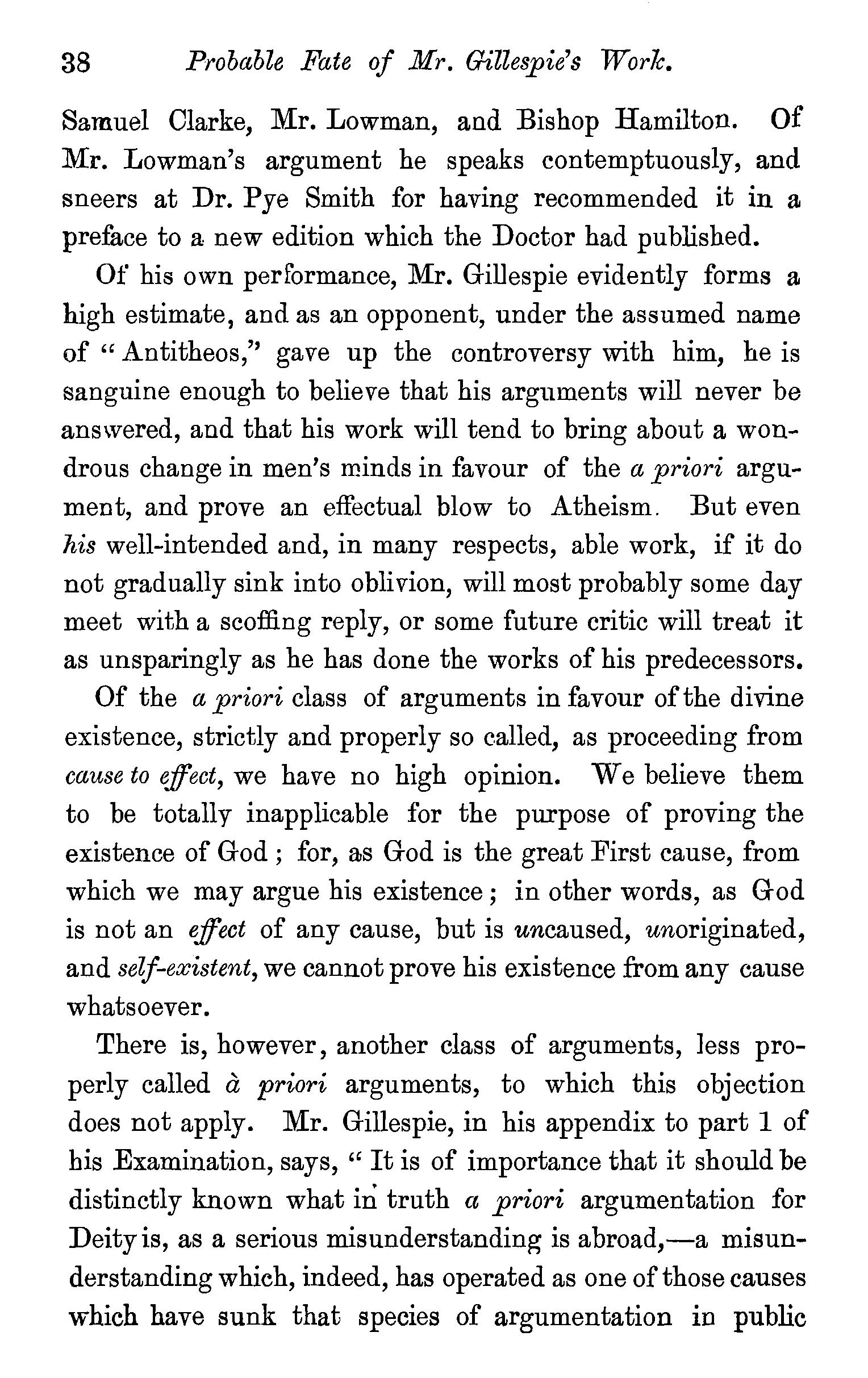
Samuel Clarke, Mr. Lowman, and Bishop Hamilton. Of Mr. Lowman's argument he speaks contemptuously, and sneers at Dr. Pye Smith for having recommended it in a preface to a new edition which the Doctor had published.
Of his own performance, Mr. Gillespie evidently forms a high estimate, and as an opponent, under the assumed name of " Antitheos,'' gave up the controversy with him, he is sanguine enough to believe that his arguments will never be answered, and that his work will tend to bring about a wondrous change in men's minds in favour of the a priori argument, and prove an effectual blow to Atheism. But even his well-intended and, in many respects, able work, if it do not gradually sink into oblivion, will most probably some day meet with a scoffing reply, or some future critic will treat it as unsparingly as he has done the works of his predecessors.
Of the a priori class of arguments in favour of the divine existence, strictly and properly so called, as proceeding from cause to effect, we have no high opinion. We believe them to be totally inapplicable for the purpose of proving the existence of God; for, a,s God is the great First cause, from which we may argue his existence; in other words, as God is not an effect of any cause, but is uncaused, unoriginated, and self-existent, we cannot prove his existence from any cause whatsoever.
There is, however, another class of arguments, Jess properly called a priori arguments, to which this objection does not apply. Mr. Gillespie, in his appendix to part 1 of his Examination, says, " It is of importance that it should be distinctly known what in truth ct priori argumentation for Deity is, as a serious misunderstanding is abroad,-a misunderstanding which, indeed, has operated as one of those causes which have sunk that species of argumentation in public
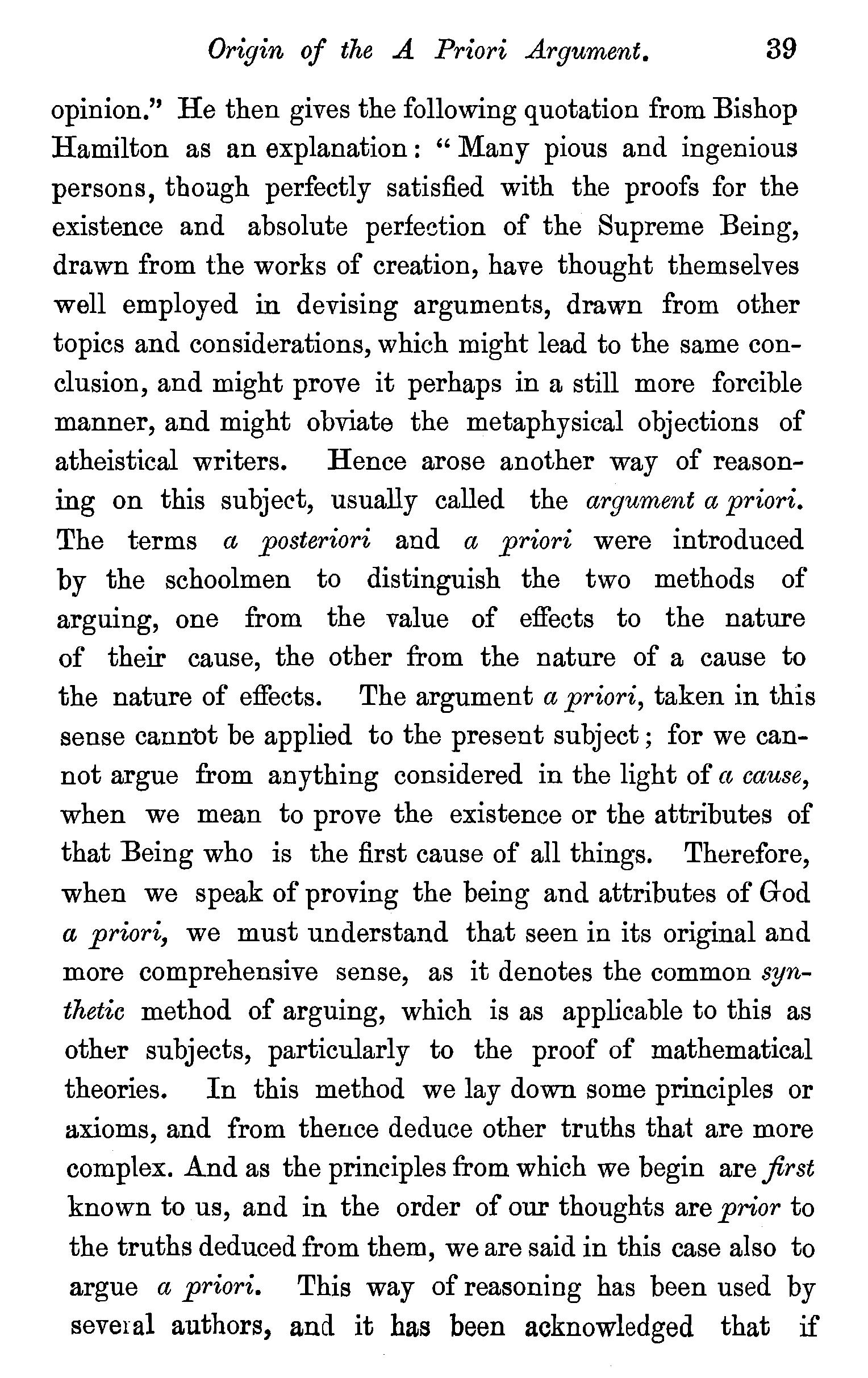
opinion." He then gives the following quotation from Bishop Hamilton as an explanation : " Many pious and ingenious persons, though perfectly satisfied with the proofs for the existence and absolute perfe0tion of the Supreme Being, drawn from the works of creation, have thought themselves well employed in devising arguments, drawn from other topics and considerations, which might lead to the same conclusion, and might prove it perhaps in a still more forcible manner, and might obviate the metaphysical objections of atheistical writers. Hence arose another way of reasoning on this subject, usually called the argument a priori. The terms a posteriori and a priori were introduced by the schoolmen to distinguish the two methods of arguing, one from the value of effects to the nature of their cause, the other from the nature of a cause to the nature of effects. The argument a priori, taken in this sense cann'bt be applied to the present subject; for we cannot argue from anything considered in the light of ct cause, when we mean to prove the existence or the attributes of that Being who is the first cause of all things. Therefore, when we speak of proving the being and attributes of God a priori, we must understand that seen in its original and more comprehensive sense, as it denotes the common synthetic method of arguing, which is as applicable to this as other subjects, particularly to the proof of mathematical theories. In this method we lay down some principles or axioms, and from therrce deduce other truths that are more complex. And as the principles from which we begin are first known to us, and in the order of our thoughts are prior to the truths deduced from them, we are said in this case also to argue a priori. This way of reasoning has been used by several authors, and it has been acknowledged that if
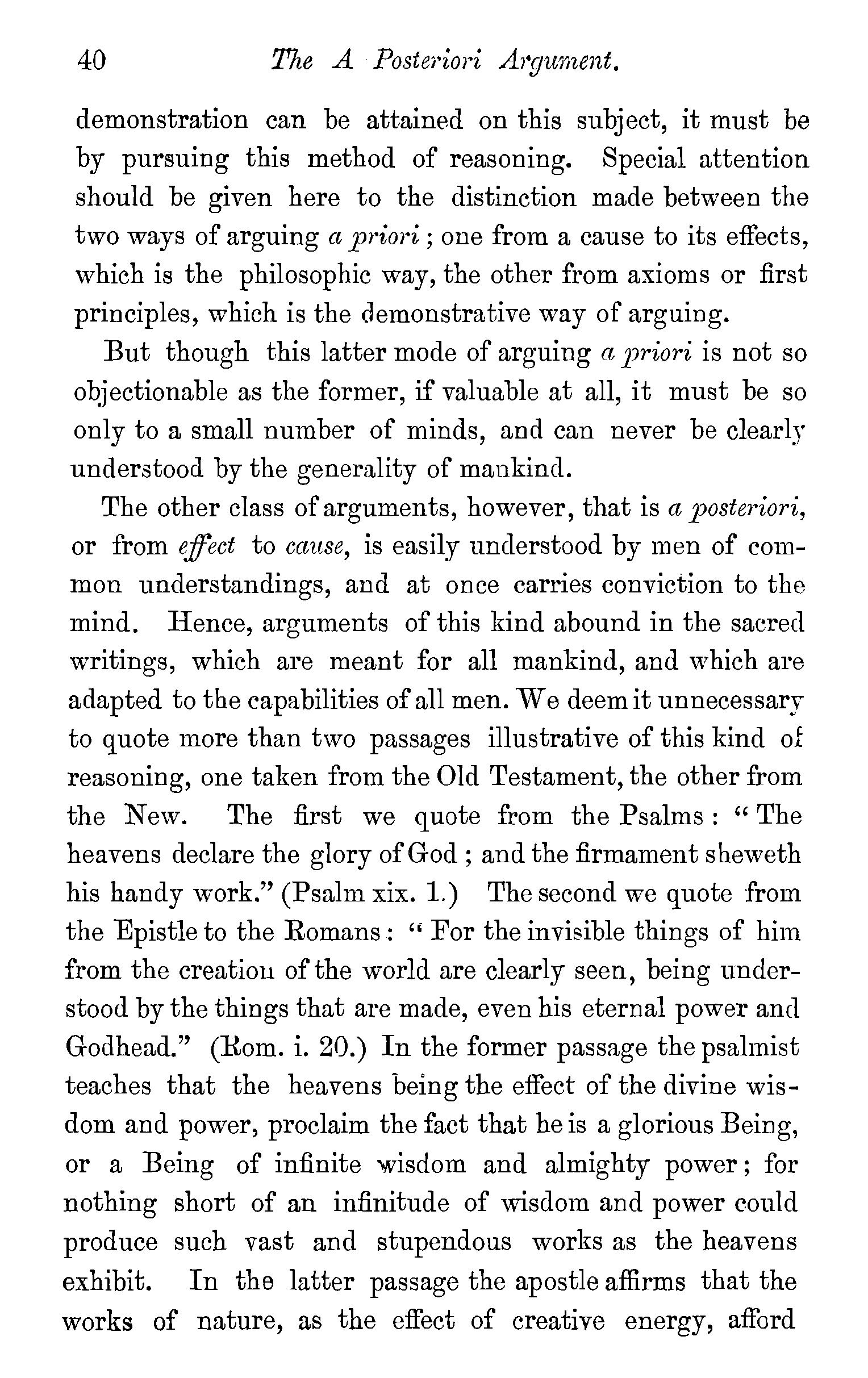
demonstration can be attained on this subject, it must be by pursuing this method of reasoning. Special attention should be given here to the distinction made between the two ways of arguing a p;·iori ; one from a cause to its effects, which is the philosophic way, the other from axioms or first principles, which is the demonstrative way of arguing.
But though this latter mode of arguing a priori is not so objectionable as the former, if valuable at all, it must be so only to a small number of minds, and can never be clearly understood by the generality of mankind.
The other class of arguments, however, that is a posteriori, or from effect to caitse, is easily understood by men of common understandings, and at once carries conviction to the mind. Hence, arguments of this kind abound in the sacred writings, which are meant for all mankind, and which are adapted to the capabilities of all men.We deem it unnecessary to quote more than two passages illustrative of this kind of reasoning, one taken from the Old Testament, the other from the New. The first we quote from the Psalms: "The heavens declare the glory of God; and the firmament sheweth his handy work." (Psalm xix. 1.) The second we quote from the Epistle to the Romans : " For the invisible things of him from the creatiou of the world are clearly seen, being understood by the things that are made, even his eternal power and Godhead." (Rom. i. 20.) In the former passage the psalmist teaches that the heavens being the effect of the divine wisdom and power, proclaim the fact that he is a glorious Being, or a Being of infinite wisdom and almighty power; for nothing short of an infinitude of wisdom and power could produce such vast and stupendous works as the heavens exhibit. In the latter passage the apostle affirms that the works of nature, as the effect of creative energy, afford
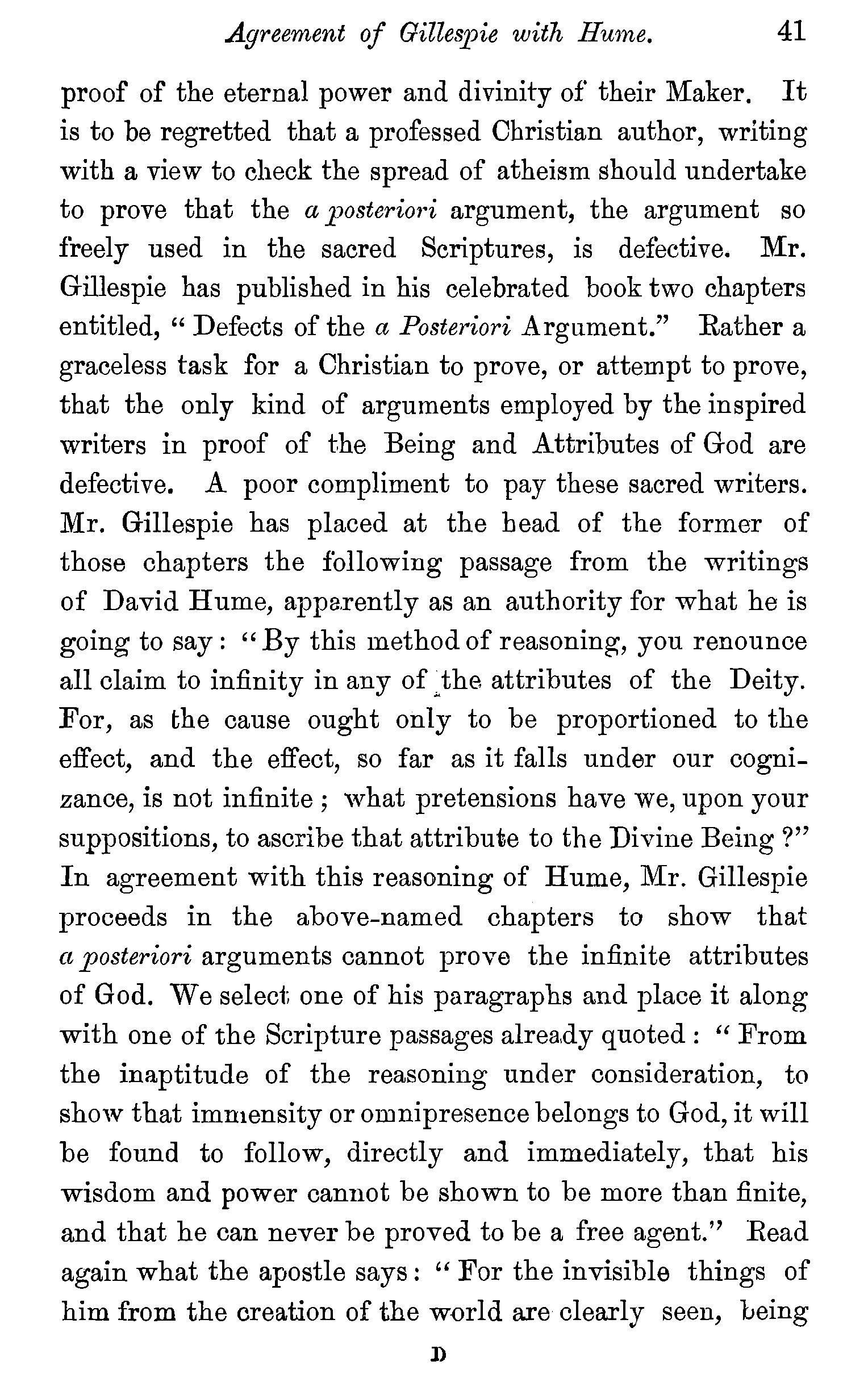
proof of the eternal power and divinity of their Maker. It is to be regretted that a professed Christian author, writing with a view to check the spread of atheism should undertake to prove that the a posteriori argument, the argument so freely used in the sacred Scriptures, is defective. Mr. Gillespie has published in his celebrated book two chapters entitled, "Defects of the a Posteriori Argument." Rather a graceless task for a Christian to prove, or attempt to prove, that the only kind of arguments employed by the inspired writers in proof of the Being and Attributes of God are defective. A poor compliment to pay these sacred writers. Mr. Gillespie has placed at the head of tb.e former of those chapters the following passage from the writings of David Hume, appa.rently as an authority for what he is going to say : "By this method of reasoning, you renounce all claim to infinity in any of _the attributes of the Deity. For, as the cause ought only to be proportioned to the effect, and the effect, so far as it falls under our cognizance, is not infinite; what pretensions have we, upon your suppositions, to ascribe that attribute to the Divine Being ?" In agreement with this reasoning of Hume, Mr. Gillespie proceeds in the above-named chapters to show that a posteriori arguments cannot prove the infinite attributes of God. We select one of his paragraphs and place it along with one of the Scripture passages already quoted : " From the inaptitude of the reasoning under consideration, to show that immensity or omnipresence belongs to God, it will be found to follow, directly and immediately, that his wisdom and power cannot be shown to be more than finite, and that he can never be proved to be a free agent.'' Read again what the apostle says: " For the invisible things of him from the creation of the w-0rld are clearly seen, being
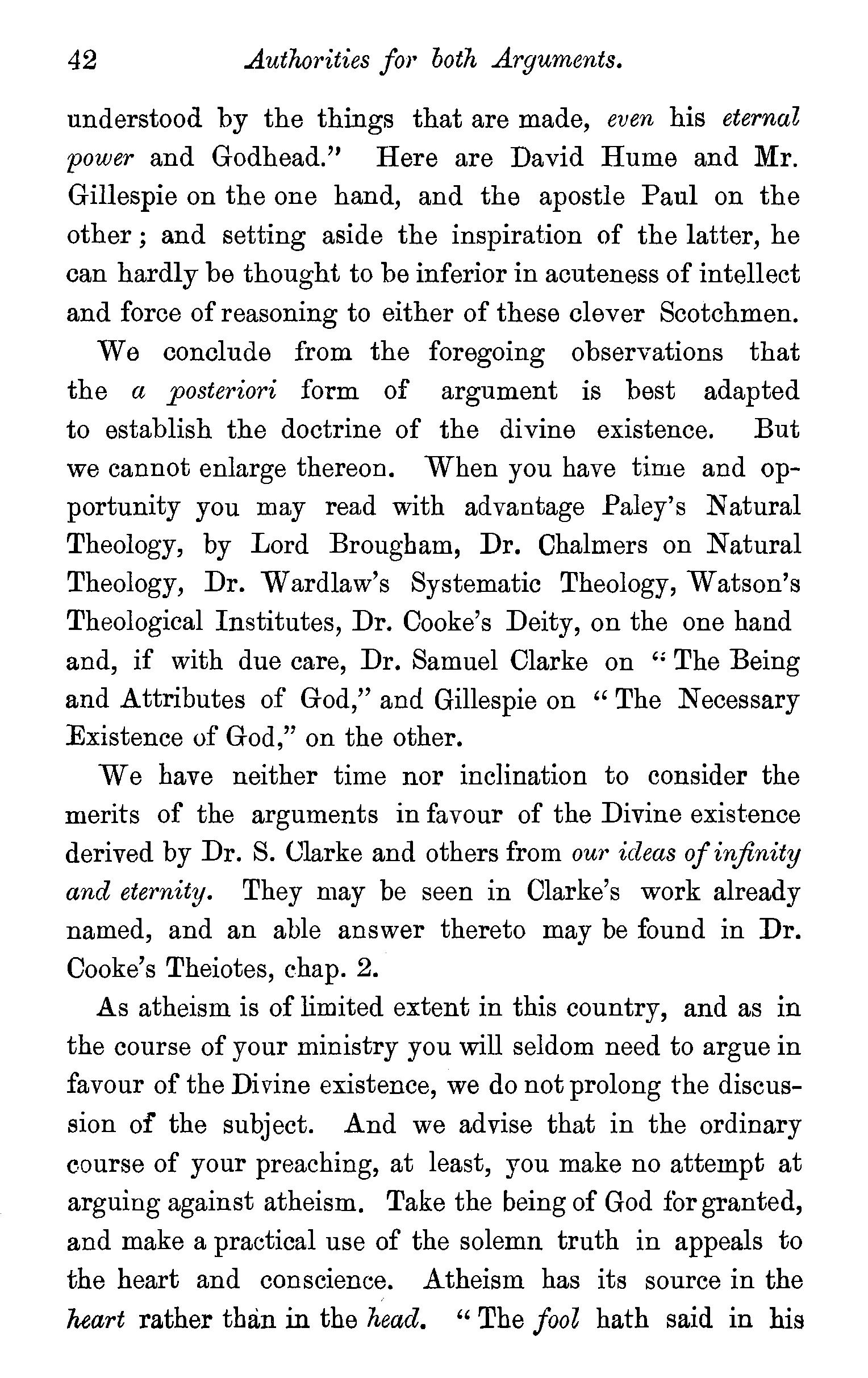
understood by the things that are made, even his eternal power and Godhead." Here are David Hume and Mr. Gillespie on the one hand, and the apostle Paul on the other ; and setting aside the inspiration of the latter, he can hardly be thought to be inferior in acuteness of intellect and force of reasoning to either of these clever Scotchmen.
We conclude from the foregoing observations that the a posteriori form of argument is best adapted to establish the doctrine of the divine existence. But we cannot enlarge thereon. When you have time and opportunity you may read with advantage Paley's Natural Theology, by Lord Brougham, Dr. Chalmers on Natural Theology, Dr. Wardlaw's Systematic Theology, Watson's Theological Institutes, Dr. Cooke's Deity, on the one hand and, if with due care, Dr. Samuel Clarke on '- The Being and Attributes of God," and Gillespie on " The Necessary Existence of God," on the other.
We have neither time nor inclination to consider the merits of the arguments in favour of the Divine existence derived by Dr. S. Ularke and others from our ideas of infinity and eternity. They may be seen in Clarke's work already named, and an able answer thereto may be found in Dr. Cooke's Theiotes, chap. 2.
As atheism is of limited extent in this country, and as in the course of your ministry you will seldom need to argue in favour of the Divine existence, we do not prolong the discussion of the subject. And we advise that in the ordinary course of your preaching, at least, you make no attempt at arguing against atheism. Take the being of God for granted, and make a practical use of the solemn truth in appeals to the heart and conscience. Atheism has its source in the heart rather than in the head. " The fool hath said in his
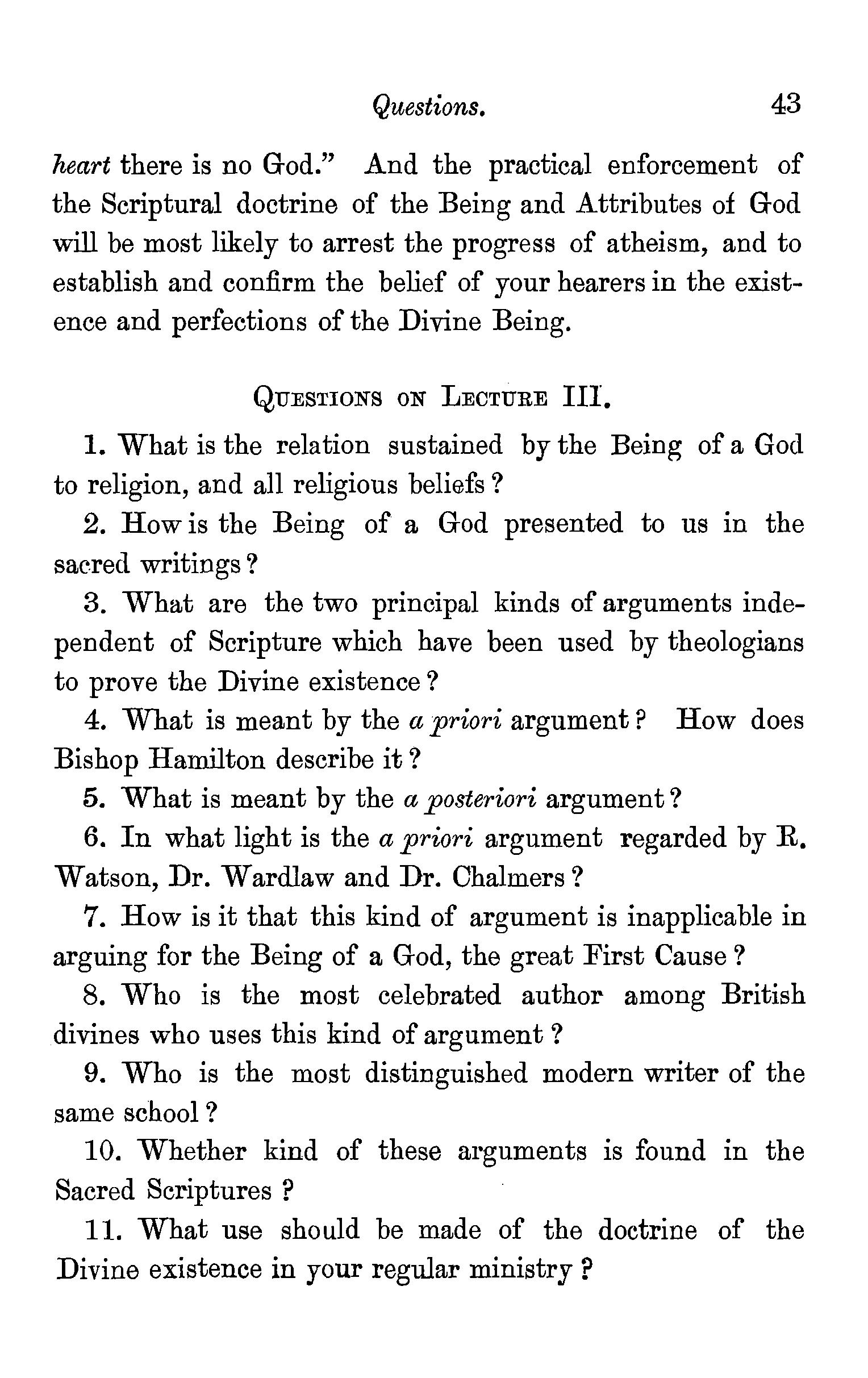
heart there is no God." And the practical enforcement of the Scriptural doctrine of the Being and Attributes of God will be most likely to arrest the progress of atheism, and to establish and confirm the belief of your hearers in the existence and perfections of the Divine Being.
1. What is the relation sustained by the Being of a God to religion, and all religious beliefs ?
2. How is the Being of a God presented to us in the sacred writings?
3. What are the two principal kinds of arguments independent of Scripture which have been used by theologians to prove the Divine existence ?
4. What is meant by the a priori argument? How does Bishop Hamilton describe it ?
5. What is meant by the a posteriori argument?
6. In what light is the a priori argument regarded by R. Watson, Dr. Wardlaw and Dr. Chalmers?
7. How is it that this kind of argument is inapplicable in arguing for the Being of a God, the great First Cause ?
8. Who is the most celebrated author among British divines who uses this kind of argument?
9. Who is the most distinguished modern writer of the same school ?
10. Whether kind of these arguments is found in the Sacred Scriptures ?
11. What use should be made of the doctrine of the Divine existence in your regular ministry ?
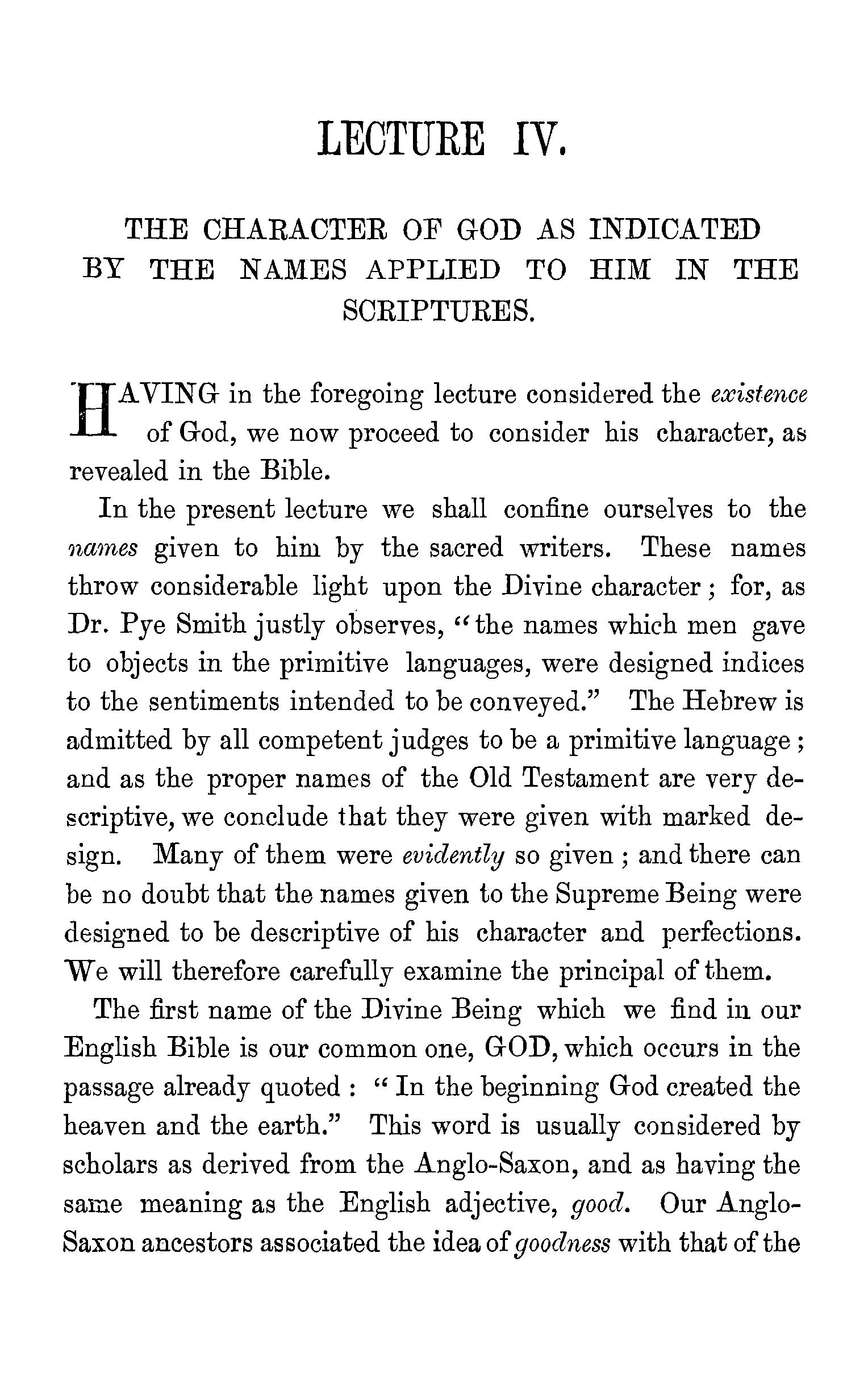
HAVING in the foregoing lecture considered the existence of God, we now proceed to consider his character, a8 revealed in the Bible.
In the present lecture we shall confine ourselves to the names given to him by the sacred writers. These names throw considerable light upon the Divine character; for, as Dr. Pye Smith justly observes, "the names which men gave to objects in the primitive languages, were designed indices to the sentiments intended to be conveyed." The Hebrew is admitted by all competent judges to be a primitive language; and as the proper names of the Old Testament are very descriptive, we conclude that they were given with marked design. Many of them were evidently so given ; and there can be no doubt that the names given to the Supreme Being were designed to be descriptive of his character and perfections. We will therefore carefully examine the principal of them.
The first name of the Divine Being which we find in our English Bible is our common one, GOD, which occurs in the passage already quoted: "In the beginning God created the heaven and the earth." This word is usually considered by scholars as derived from the Anglo-Saxon, and as having the same meaning as the English adjective, good. Our AngloSaxon ancestors associated the idea of goodnesswith that of the
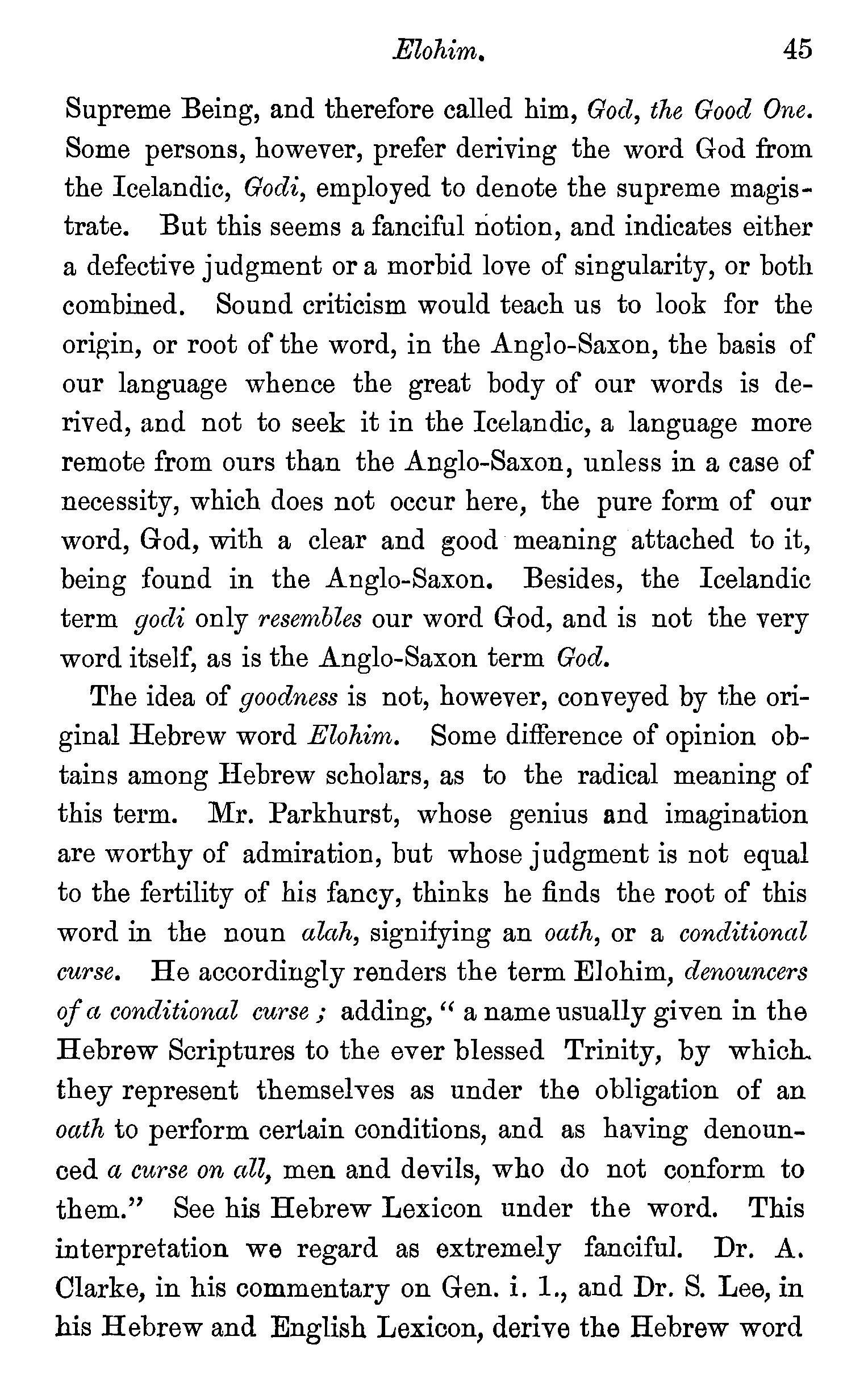
Supreme Being, and therefore called him, Goel, the Goocl One. Some persons, however, prefer deriving the word God from the Icelandic, Gocli, employed to denote the supreme magistrate. But this seems a fanciful :riotion, and indicates either a defective judgment or a morbid love of singularity, or both combined. Sound criticism would teach us to look for the origin, or root of the word, in the Anglo-Saxon, the basis of our language whence the great body of our words is derived, and not to seek it in the Icelandic, a language more remote from ours than the Anglo-Saxon, unless in a case of necessity, which does not occur here, the pure form of our word, God, with a clear and good meaning attached to it, being found in the Anglo-Saxon. Besides, the Icelandic term gocli only resembles our word God, and is not the very word itself, as is the Anglo-Saxon term God.
The idea of goodness is not, however, conveyed by the original Hebrew word Elohim. Some difference of opinion obtains among Hebrew scholars, as to the radical meaning of this term. Mr. Parkhurst, whose genius and imagination are worthy of admiration, but whose judgment is not equal to the fertility of his fancy, thinks he finds the root of this word in the noun alcth, signifying an oath, or a conditional curse. He accordingly renders the term Elohim, denouncers of ct conditional curse; adding," a name usually given in the Hebrew Scriptures to the ever blessed Trinity, by which. they represent themselves as under the obligation of an oath to perform certain conditions, and as having denounced a curse on all, men and devils, who do not conform to them." See his Hebrew Lexicon under the word. This interpretation we regard as extremely fanciful. Dr. A. Clarke, in his commentary on Gen. i. 1., and Dr. S. Lee, in his Hebrew and English Lexicon, derive the Hebrew word
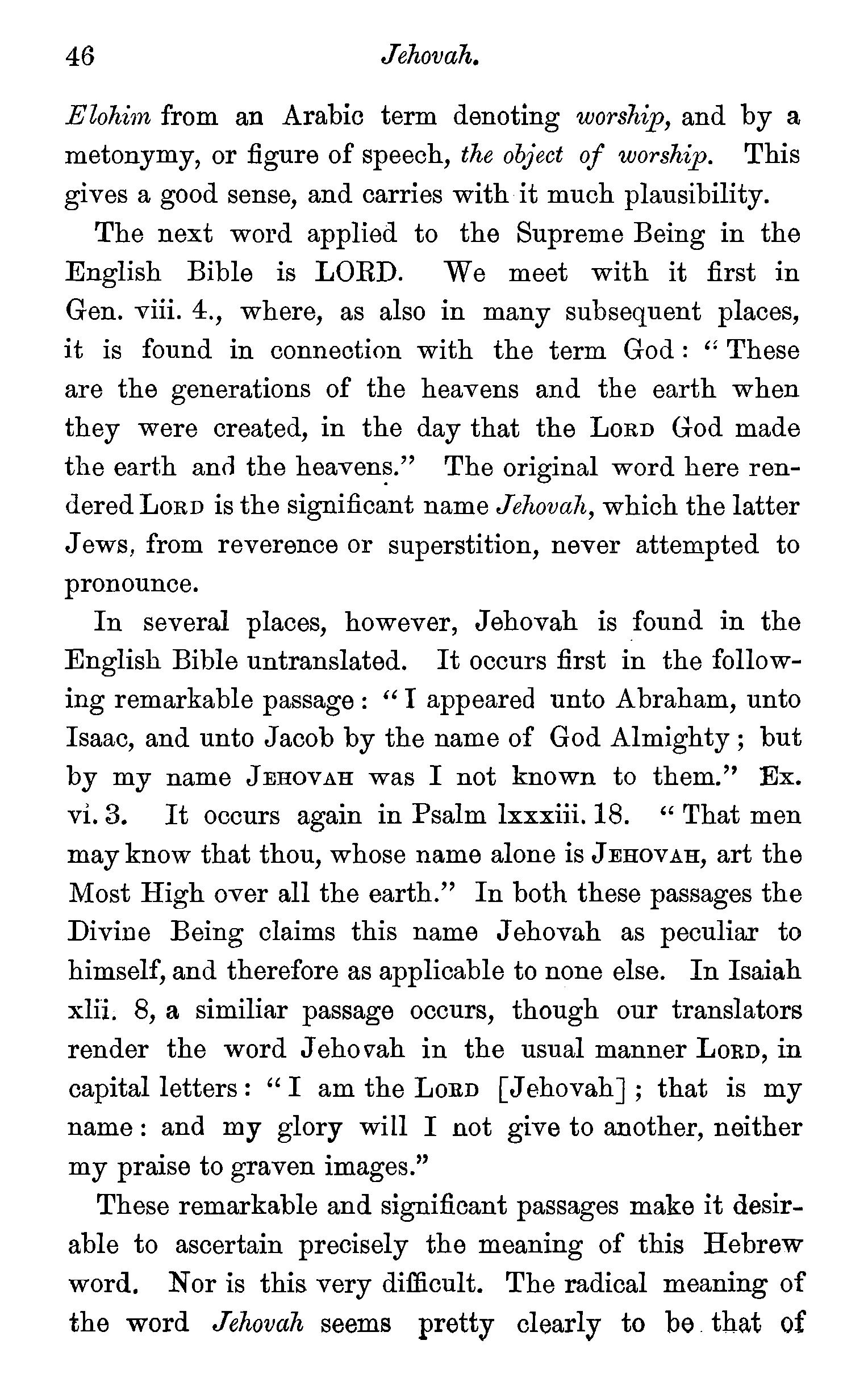
Elohim from an Arabic term denoting worship, and by a metonymy, or figure of speech, the object of worship. This gives a good sense, and carries with it much plausibility.
The next word applied to the Supreme Being in the English Bible is LORD. We meet with it first in Gen. viii. 4., where, as also in many subsequent places, it is found in connection with the term God: "These are the generations of the heavens and the earth when they were created, in the day that the LORD God made the earth ano the heaven~."
The original word here rendered LORD is the significant name Jehovah, which the latter Jews, from reverence or superstition, never attempted to pronounce.
In several places, however, Jehovah is found in the English Bible untranslated. It occurs first in the following remarkable passage: "I appeared unto Abraham, unto Isaac, and unto Jacob by the name of God Almighty; but by my name JEHOVAHwas I not known to them." Ex. vi. 3. It occurs again in Psalm lxxxiii. 18. "That men may know that thou, whose name alone is JEHOVAH,art the Most High over all the earth." In both these passages the Divine Being claims this name Jehovah as peculiar to himself, and therefore as applicable to none else. In Isaiah xlii. 8, a similiar passage occurs, though our translators render the word Jehovah in the usual manner LORD, in capital letters : " I am the LoRn [Jehovah J ; that is my name : and my glory will I not give to another, neither my praise to graven images."
These remarkable and significant passages make it desirable to ascertain precisely the meaning of this Hebrew word. Nor is this very difficult. The radical meaning of the word Jehovah seems pretty clearly to be . that of
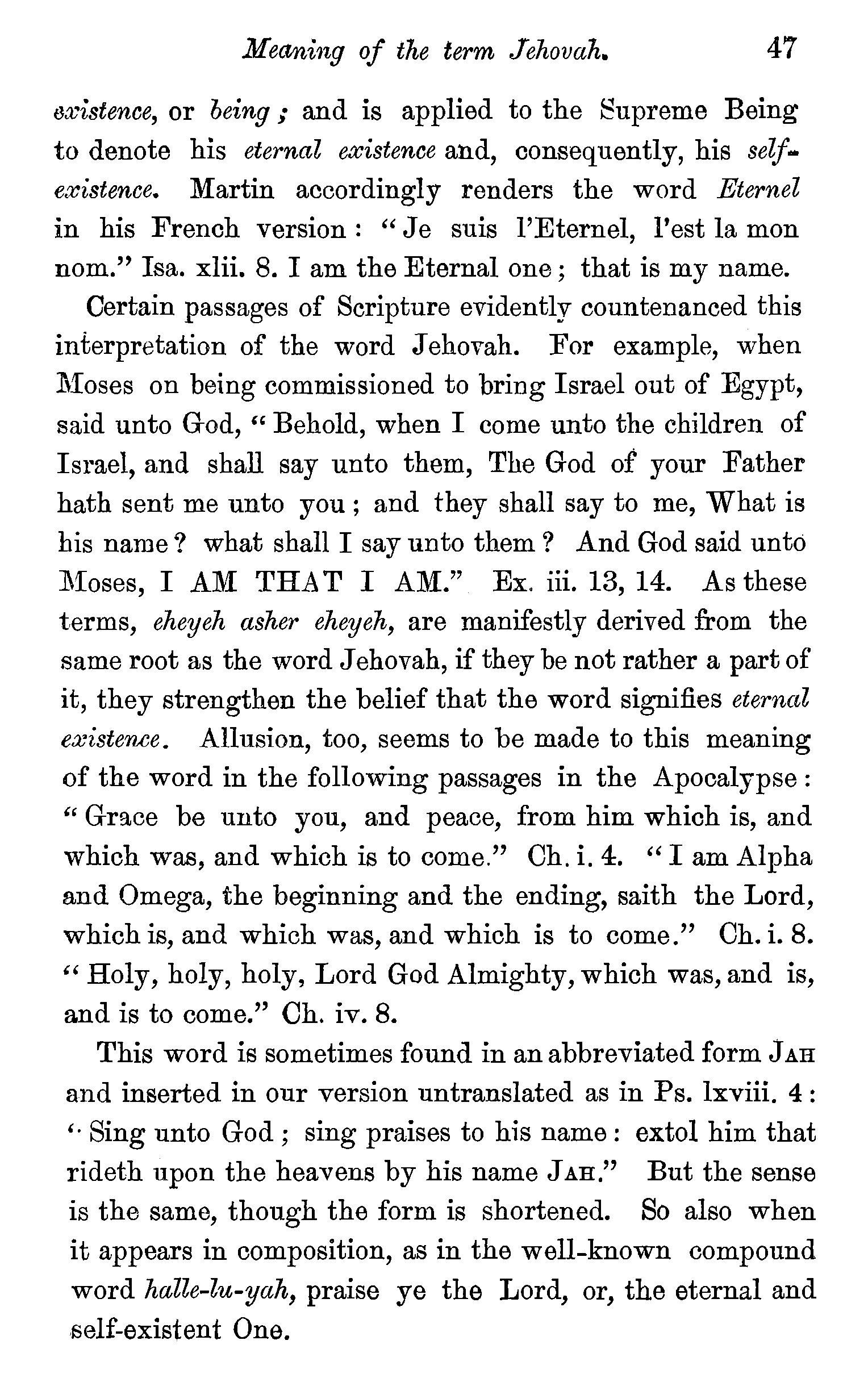
existence, or being ; and is applied to the Supreme Being to denote his eternal existence and, consequently, his self .. existence. Martin accordingly renders the word Eternel in his French version: "Je suis l'Eternel, l'est la mon nom." Isa. xlii. 8. I am the Eternal one; that is my name. Certain passages of Scripture evidently countenanced this interpretation of the word Jehovah. For example, when 1\Ioses on being commissioned to bring Israel out of Egypt, said unto God, " Behold, when I come unto the children of Israel, and shall say unto them, The God 0£ your Father hath sent me unto you; and they shall say to me, What is his name? what shall I say unto them ? And God said unto l\foses, I AM THAT I AM." Ex. iii. 13, 14. As these terms, eheyeh asher eheyeh, are manifestly derived from the same root as the word Jehovah, if they be not rather a part of it, they strengthen the belief that the word signifies eternal existence. Allusion, too, seems to be made to this meaning of the word in the following passages in the Apocalypse : "Gr!lce be unto you, and peace, from him which is, and which was, and which is to come." Oh. i. 4. "I am Alpha and Omega, the beginning and the ending, saith the Lord, which is, and which was, and which is to come." Oh. i. 8. "Holy, holy, holy, Lord God Almighty, which was, and is, and is to come." Ch. iv. 8.
This word is sometimes found in an abbreviated form J.AH and inserted in our version untranslated as in Ps. lxviii. 4 : '· Sing unto God ; sing praises to his name : extol him that rideth upon the heavens by his name J AH." But the sense is the same, though the form is shortened. So also when it appears in composition, as in the well-known compound word halle-lu-yah, praise ye the Lord, or, the eternal and self-existent One.
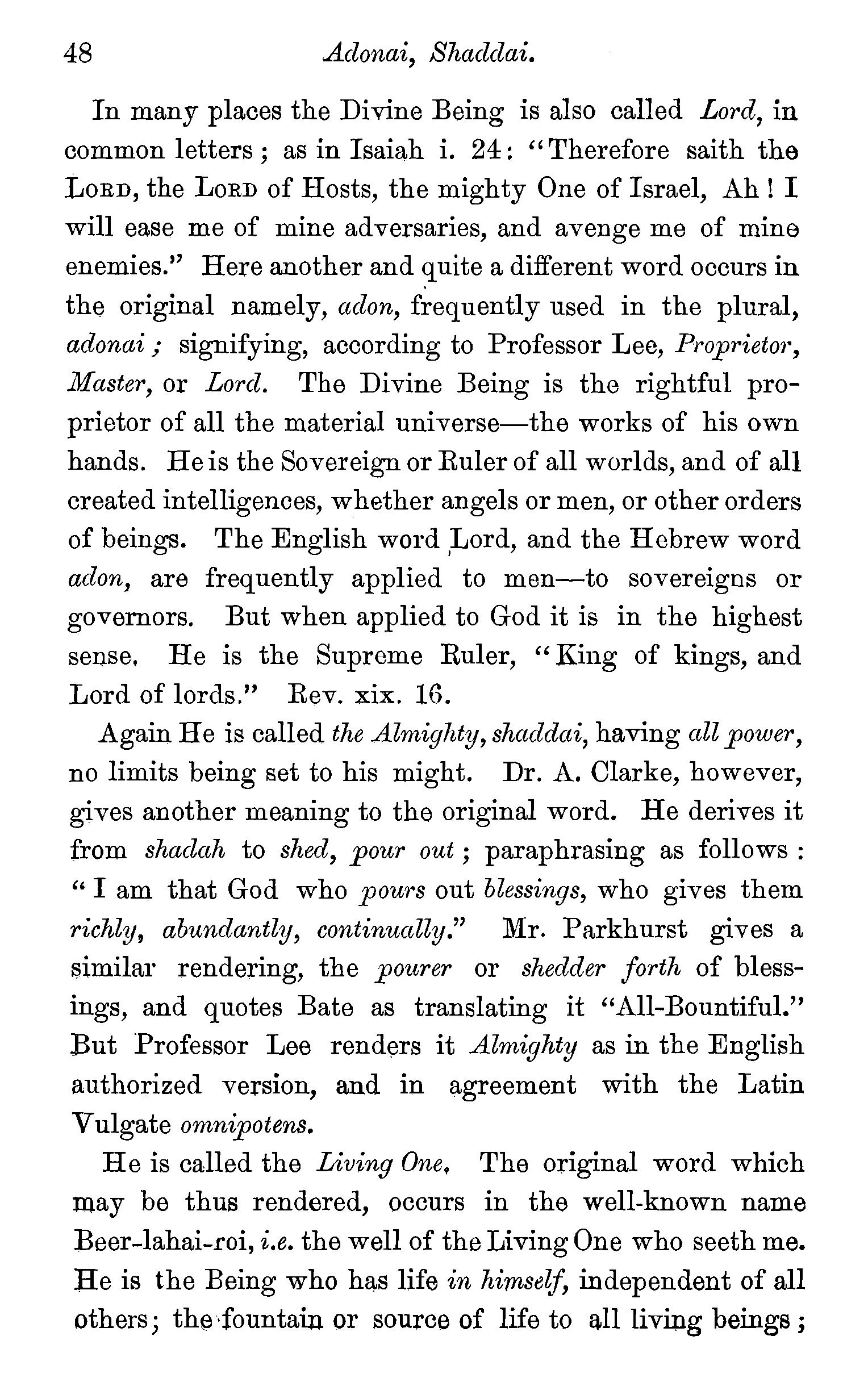
In many places the Divine Being is also called Lord, in common letters ; as in Isaiah i. 24:: "Therefore saith the LoRD, the LoRD of Hosts, the mighty One of Israel, Ah! I will ease me of mine adversaries, and avenge me of mine enemies.,' Here another and quite a different word occurs in the original namely, aclon, frequently used in the plural, adonai; signifying, according to Professor Lee, Proprietor, Master, or Lord. The Divine Being is the rightful proprietor of all the material universe-the works of his own hands. He is the Sovereign or Ruler of all worlds, and of all created intelligences, whether angels or men, or other orders of beings. The English word ,Lord, and the Hebrew word adon, are frequently applied to men-to sovereigns or governors. But when applied to God it is in the highest sense, He is the Supreme Ruler, "King of kings, and Lord of lords.,, Rev. xix. 16.
Again He is called the Almighty, shaddai, having all power, no limits being set to his might. Dr. A. Clarke, however, gives another meaning to the original word. He derives it from shaclah to shed, pour out; paraphrasing as follows : '' I am that God who pom·s out blessings, who gives them richly, abundantly, continually." Mr. Parkhurst gives a similar rendering, the poiirer or shedder forth of blessings, and quotes Bate as translating it "All-Bountiful." But Professor Lee renders it Almighty as in the English authorized version, and in agreement with the Latin Vulgate omnipotens.
He is called the Living One, The original word which may be thus rendered, occurs in the well-known name Beer-lahai-roi, i.e. the well of the Living One who seeth me. He is the Being who has life in hirnself, independent of all others; the•fountain or source of life to all living beings;
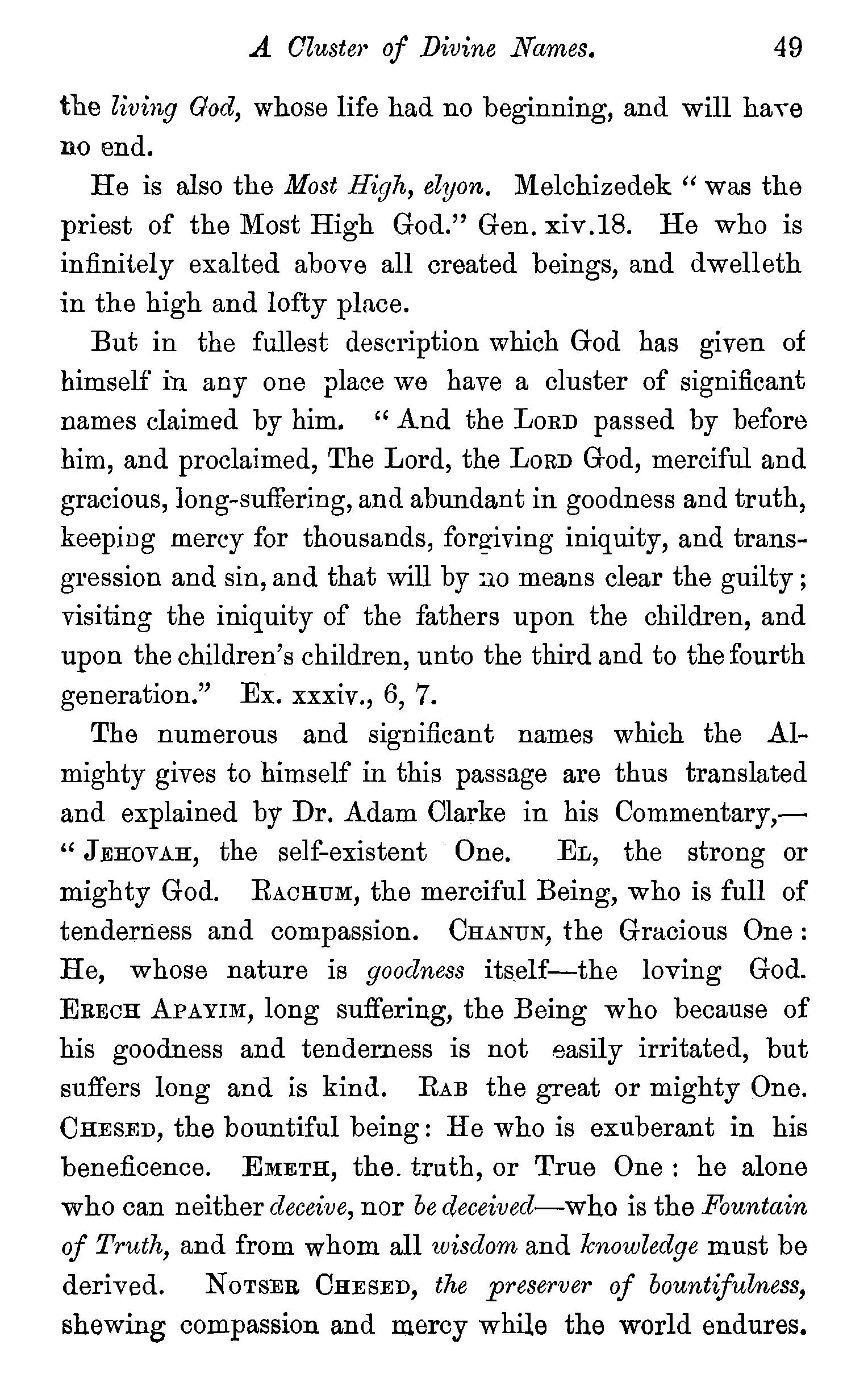
the living God, whose life had no beginning, and will have no end.
He is also the Most High, elyon. Melchizedek " was the priest of the Most High God." Gen. xiv.18. He who is infinitely exalted above all created beings, and dwelleth in the high and lofty place.
But in the fullest description which God has given of himself in any one place we have a cluster of significant names claimed by him. " And the LoRD passed by before him, and proclaimed, The Lord, the LoRD God, merciful and gracious, long-suffering, and abundant in goodness and truth, keepiug mercy for thousands, forgiving iniquity, and transgression and sin, and that will by :ao means clear the guilty ; visiting the iniquity of the fathers upon the children, and upon the children's children, unto the third and to the fourth generation." Ex. xxxiv., 6, 7.
The numerous and significant names which the Almighty gives to himself in this passage are thus translated and explained by Dr. Adam Clarke in his Commentary," J EH0V.A.H,the self-existent One. EL, the strong or mighty God. RAcHuM,the merciful Being, who is full of tenderness and compassion. CHANUN,the Gracious One : He, whose nature is goodness itself-the loving God. ERECHAP.A.YIM,long suffering, the Being who because of his goodness and tenderness is not easily irritated, but suffers long and is kind. RAB the great or mighty One. CHESED,the bountiful being: He who is exuberant in his beneficence. EMETH, the. truth, or True One: he alone who can neither deceive,nor be deceived-who is the Fountain of Truth, and from whorn all wisdom and knowledge must be derived. N OTSERCHESED,the preserver of bountifulness, shewing compassion and mercy while the world endures.
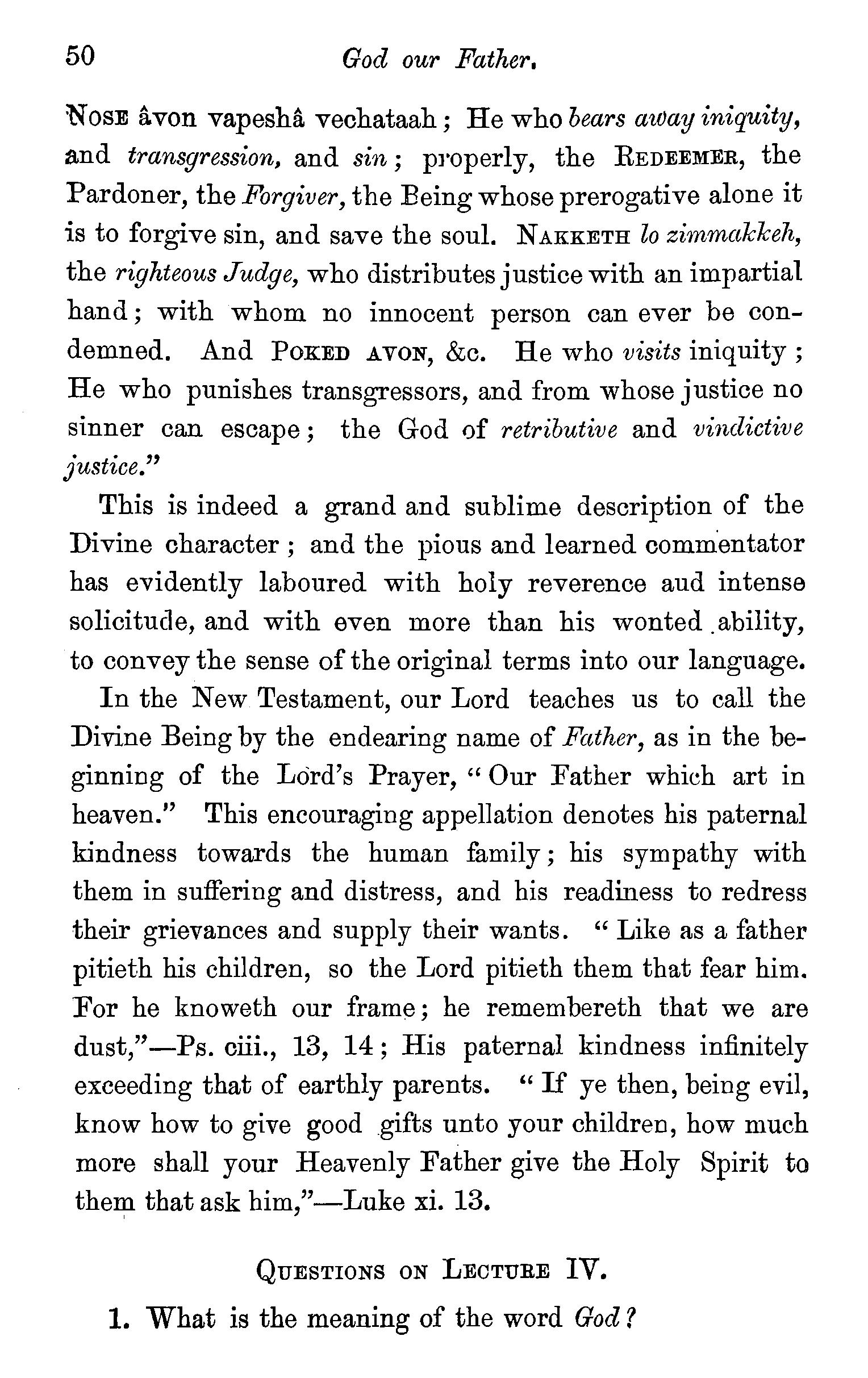
our Father, NosE avon vapesha vechataah; He who bears away iniquity, and transgression, and sin; properly, the REDEEMER, the Pardoner, the Forgiver, the Being whose prerogative alone it is to forgive sin, and save the soul. N AKKETH lo zimmalclceh, the righteous Judge, who distributes justice with an impartial hand; with whom no innocent person can ever be condemned. And POKED AVON, &c. Be who visits iniquity; He who punishes transgressors, and from whose justice no sinner can escape ; the God of retributive and vinclictive justice."
This is indeed a grand and sublime description of the Divine character ; and the pious and learned comm.entator has evidently laboured with holy reverence aud intense solicitude, and with even more than his wonted _ability, to convey the sense of the original terms into our language. In the New Testament, our Lord teaches us to call the Divine Being by the endearing name of Father, as in the beginning of the Lord's Prayer, "Our Father which art in heaven." This encouraging appellation denotes his paternal kindness towards the human family; his sympathy with them in suffering and distress, and his readiness to redress their grievances and supply their wants. "Like as a father pitieth his children, so the Lord pitieth them that fear him. For he knoweth our frame; he remembereth that we are dust," -Ps. ciii., 13, 14; His paternal kindness infinitely exceeding that of earthly parents. " If ye then, being evil, know how to give good gifts unto your children, how much more shall your Heavenly Father give the Holy Spirit to theJ'.!lthat ask him,"-Luke xi. 13.
1. What is the meaning of the word God ?
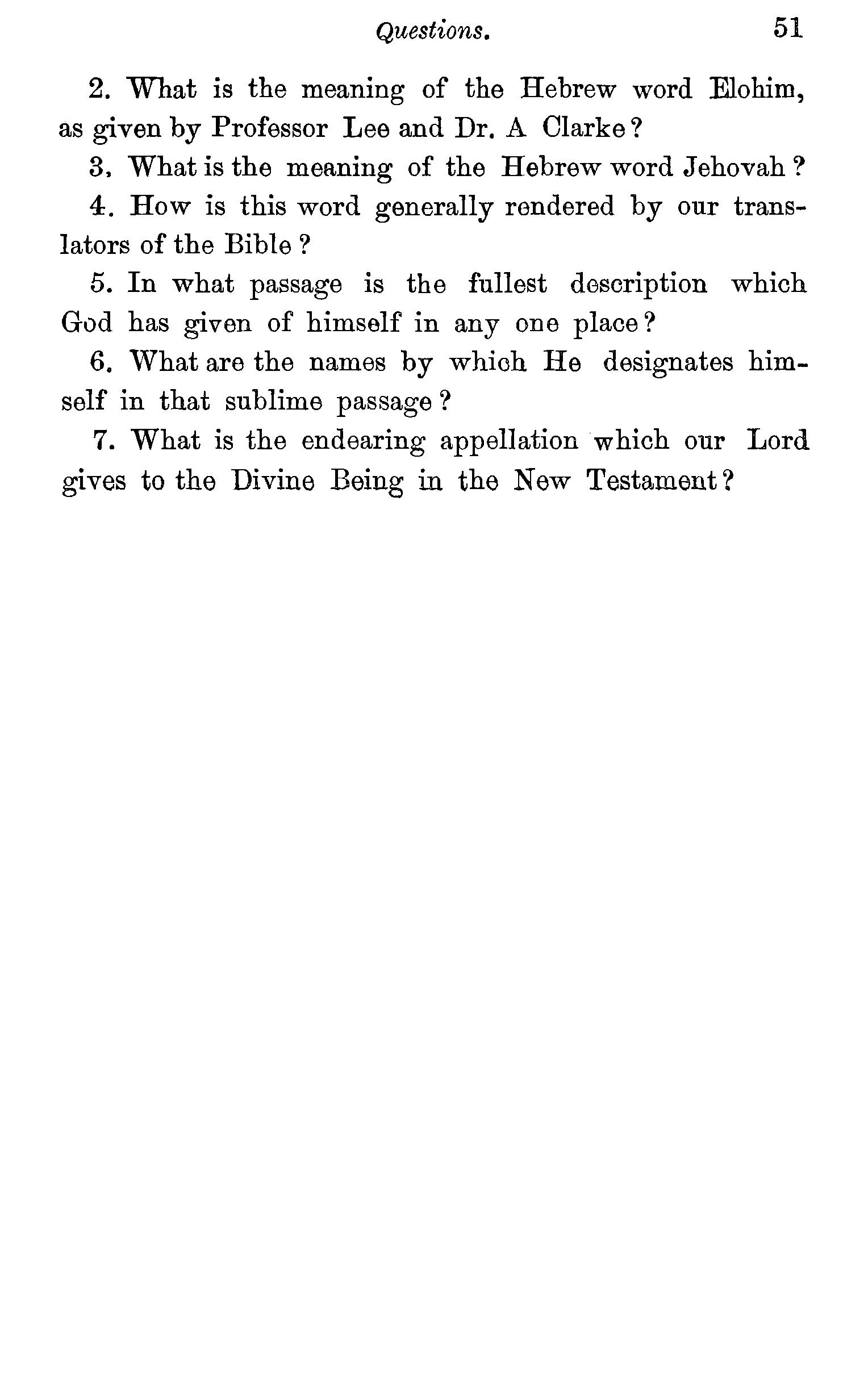
2. What is the meaning of the Hebrew word Elohim, as given by Professor Lee and Dr. A Clarke?
3, What is the meaning of the Hebrew word Jehovah?
4. How is this word generally rendered by our translators of the Bible ?
5. In what passage is the fullest description which God has given of himself in any one place?
6. What are the names by which He designates himself in that sublime passage?
7. What is the endearing appellation which our Lord gives to the Divine Being in the New Testament?
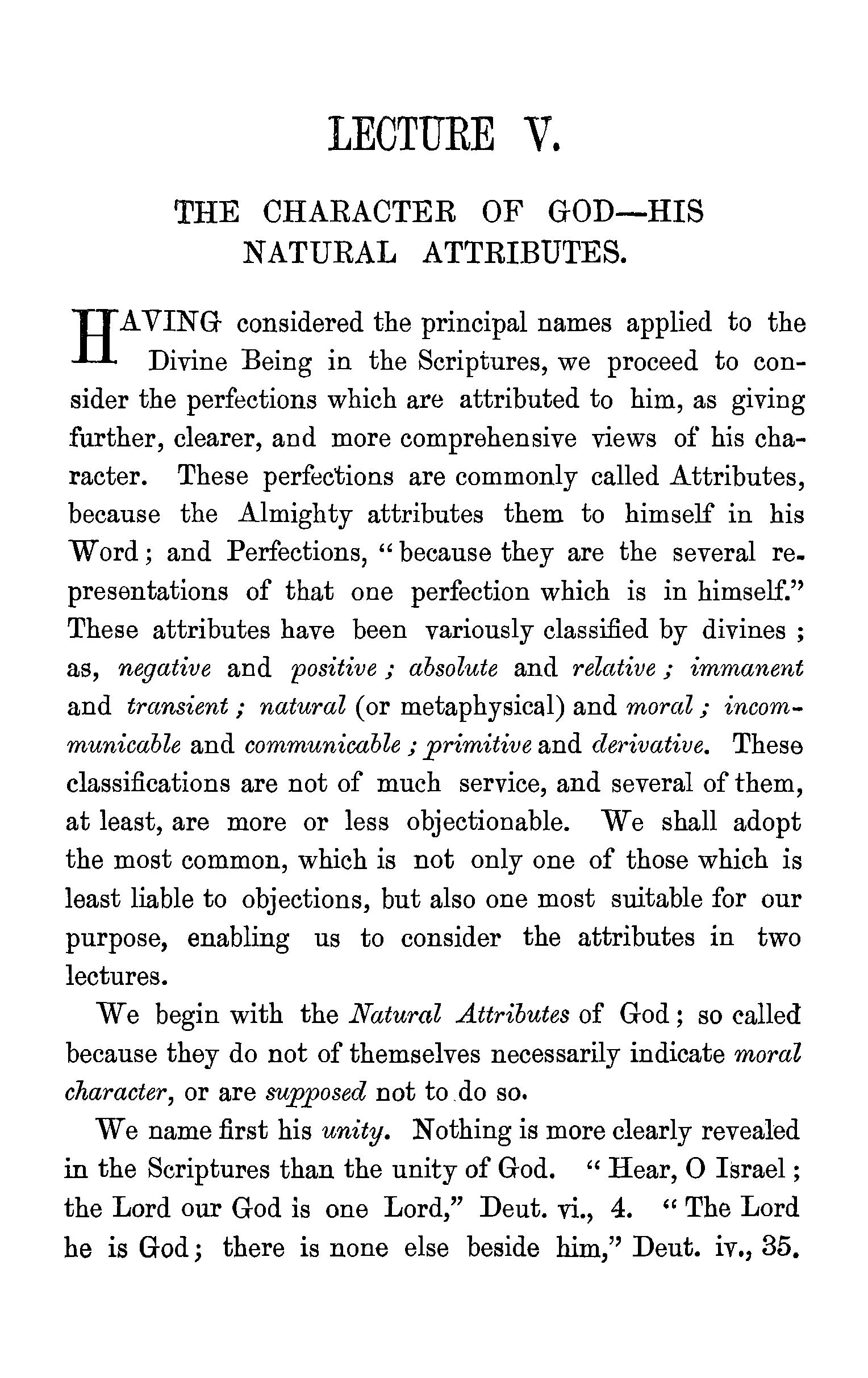
HAVING considered the principal names applied to the Divine Being in the Scriptures, we proceed to consider the perfections which are attributed to him, as giving further, clearer, and more comprehensive views of his character. These perfections are commonly called Attributes, because the Almighty attributes them to himself in his Word ; and Perfections, "because they are the several re. presentations of that one perfection which is in himself.'' These attributes have been variously classified by divines ; as, negative and positive ; absolute and relative ; immanent and transient; natural ( or metaphysical) and moral; incommunicable and communicable ; primitive and clerivative. These classifications are not of much service, and several of them, at least, are more or less objectionable. We shall adopt the most common, which is not only one of those which is least liable to objections, but also one most suitable for our purpose, enabling us to consider the attributes in two lectures.
We begin with the Natural Attributes of God; so called because they do not of themselves necessarily indicate moral character, or are supposed not to .do so.
We name first his unity. Nothing is more clearly revealed in the Scriptures than the unity of God. " Hear, 0 Israel ; the Lord our God is one Lord," Deut. vi., 4. " The Lord he is God; there is none else beside him,'' Deut. iv., 35.
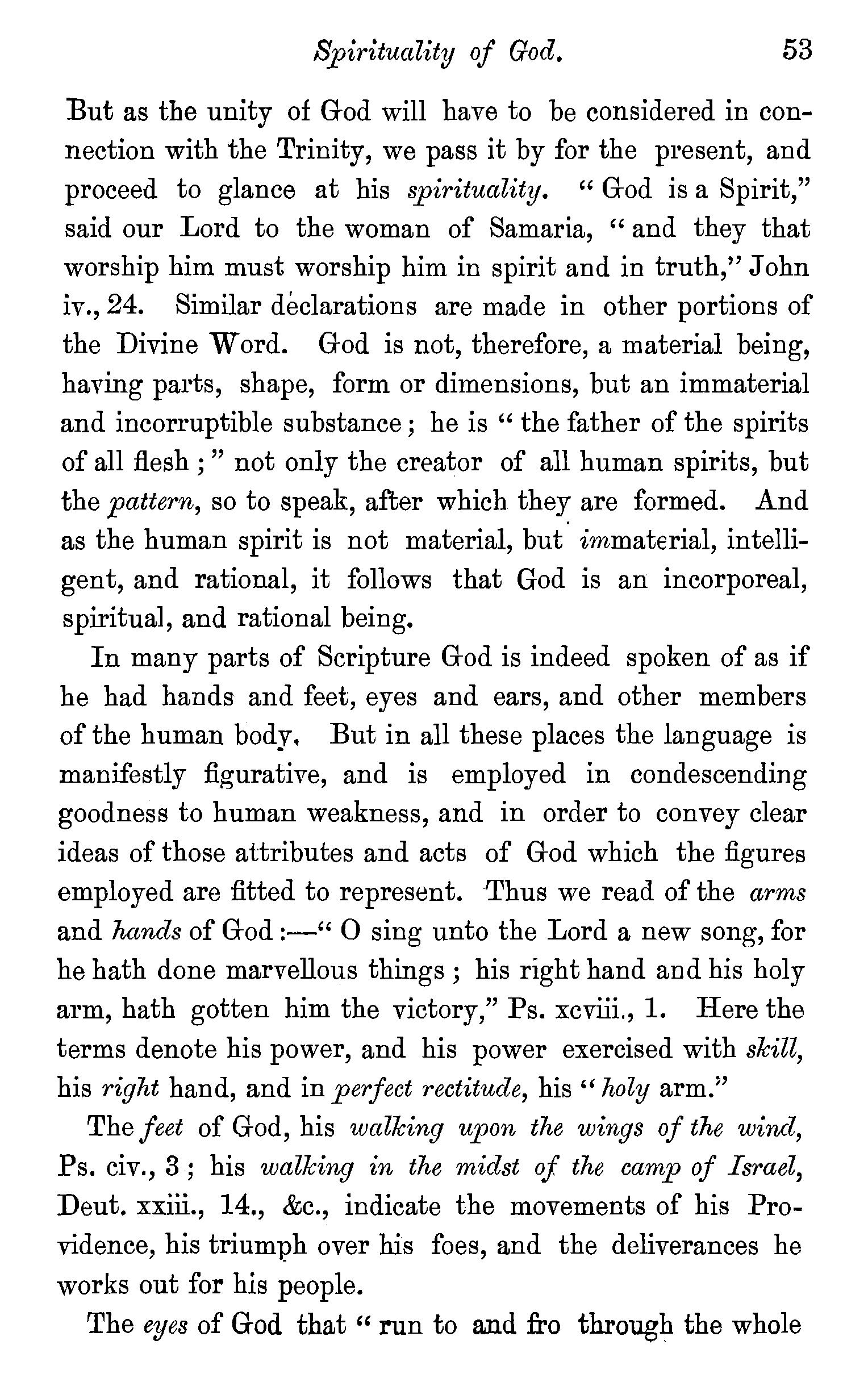
But as the unity of God will have to be considered in connection with the Trinity, we pass it by for the present, and proceed to glance at his spirituality. " God is a Spirit," said our Lord to the woman of Samaria, " and they that worship him must worship him in spirit and in truth," John iv., 24. Similar declarations are made in other portions of the Divine Word. God is not, therefore, a material being, having parts, shape, form or dimensions, but an immaterial and incorruptible substance; he is " the father of the spirits of all flesh ; " not only the creator of all human spirits, but the pattern, so to speak, after which they are formed. And as the human spirit is not material, but immaterial, intelligent, and rational, it follows that God is an incorporeal, spiritual, and rational being.
In many parts of Scripture God is indeed spoken of as if he had hands and feet, eyes and ears, and other members of the human body, But in all these places the language is manifestly figurative, and is employed in condescending goodness to human weakness, and in order to convey clear ideas of those attributes and acts of God which the figures employed are fitted to represent. -Thus we read of the arms and hctnclsof God :-" 0 sing unto the Lord a new song, for he hath done marvellous things; his right hand and his holy arm, hath gotten him the victory," Ps. xcviii., 1. Here the terms denote his power, and his power exercised with skill, his right hand, and in perfect rectitucle, his" holy arm."
The feet of God, his walking upon the wings of the wincl, Ps. civ., 3; his walking in the miclst of the camp of Israel, Deut. xxiii., 14., &c., indicate the movements of his Providence, his triumph over his foes, and the deliverances he works out for his people.
The eyes of God that "run to and fro through the whole
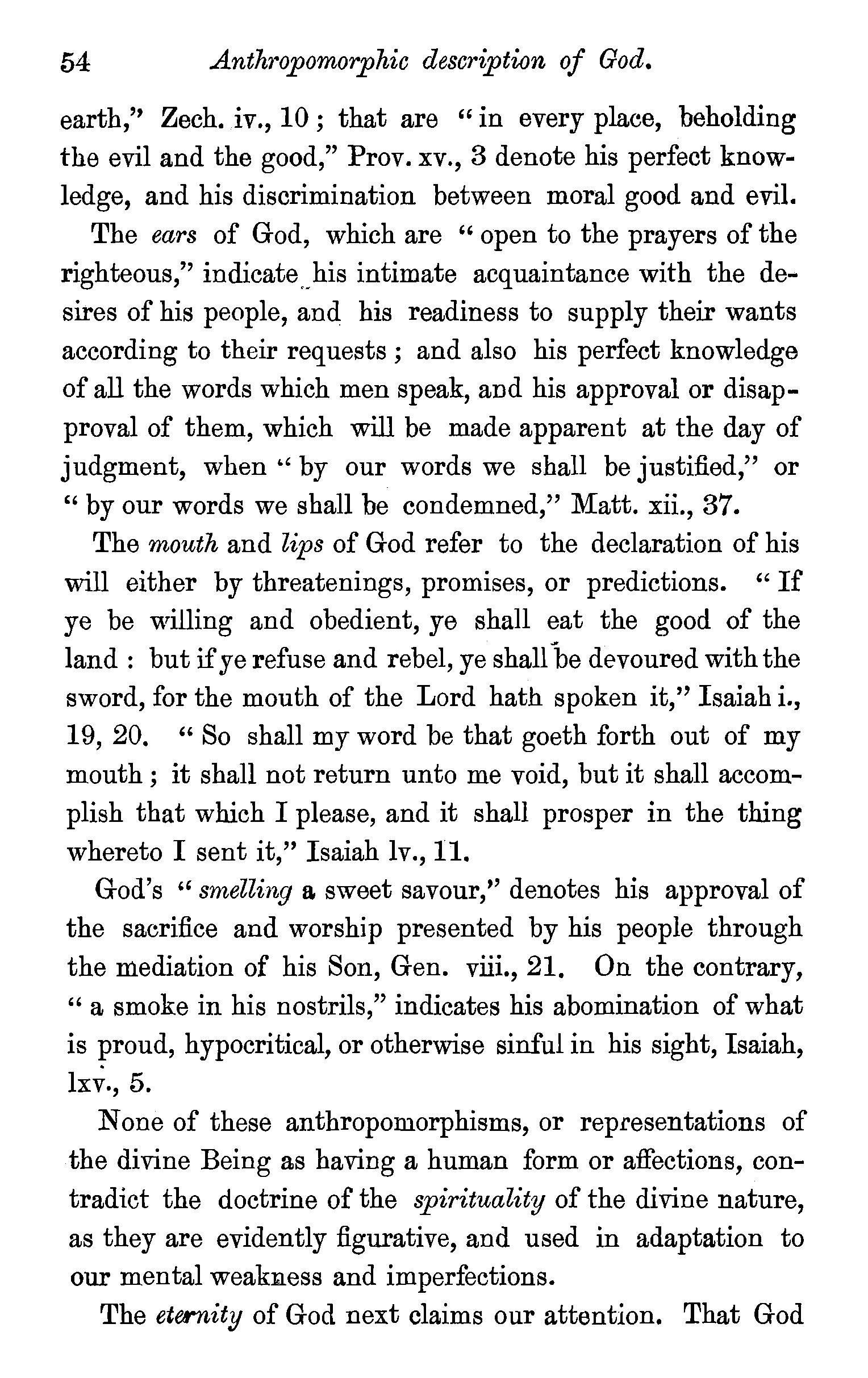
earth,'' Zech.. iv., 10 ; that are "in every place, beholding the evil and the good," Prov. xv., 3 denote his perfect knowledge, and his discrimination between moral good and evil.
The ears of God, which are "open to the prayers of the righteous," indicate ..his intimate acquaintance with the desires of his people, and his readiness to supply their wants according to their requests; and also his perfect knowledge of all the words which men speak, and his approval or disapproval of them, which will be made apparent at the day of judgment, when ., by our words we shall be justified," or "by our words we shall be condemned," Matt. xii., 37.
The mouth and lips of God refer to the declaration of his will either by threatenings, promises, or predictions. " If ye be willing and obedient, ye shall eat the good of the land : but if ye refuse and rebel, ye shall be devoured with the sword, for the mouth of the Lord hath spoken it," Isaiah i., 19, 20. " So shall my word be that goeth forth out of my mouth ; it shall not return unto me void, but it shall accomplish that which I please, and it shall prosper in the thing whereto I sent it," Isaiah Iv., 11.
God's "smelling a, sweet savour,'' denotes his approval of the sacrifice and worship presented by his people through the mediation of his Son, Gen. viii., 21. On the contrary, " a smoke in his nostrils," indicates his abomination of what is proud, hypocritical, or otherwise sinful in his sight, Isaiah, lxv., 5.
None of these anthropomorphisms, or representations of the divine Being as having a human form or affections, contradict the doctrine of the spirituality of the divine nature, as they are evidently figurative, and used in adaptation to our mental weakness and imperfections.
The eternity of God next claims our attention. That God
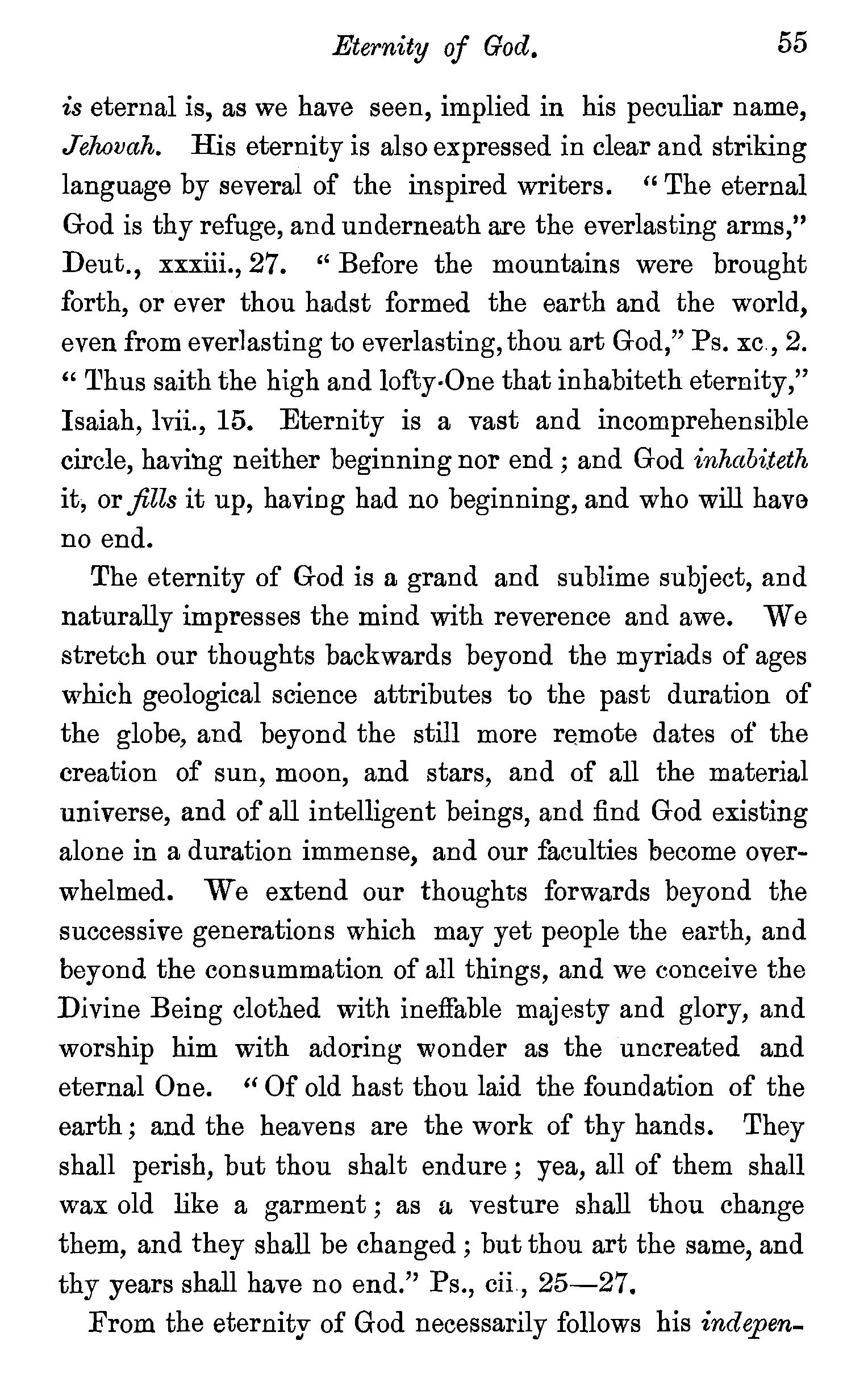
is eternal is, as we have seen, implied in his peculiar name, Jelwvah. His eternity is also expressed in clear and striking language by several of the inspired writers. "The eternal God is thy refuge, and underneath are the everlasting arms," Deut., xxxiii., 27. "Before the mountains were brought forth, or ever thou hadst formed the earth and the world, even from everlasting to everlasting, thou art God," Ps. xc., 2. "Thus saith the high and lofty-One that inhabiteth eternity," Isaiah, lvii., 15. Eternity is a vast and incomprehensible circle, having neither beginning nor end; and God inhabi.teth it, or fills it up, having had no beginning, and who will have no end.
The eternity of God is a grand and sublime subject, and naturally impresses the mind with reverence and awe. We stretch our thoughts backwards beyond the myriads of ages which geological science attributes to the past duration of the globe, and beyond the still more remote dates of the creation of sun, moon, and stars, and of all the material universe, and of all intelligent beings, and find God existing alone in a duration immense, and our faculties become overwhelmed. We extend our thoughts forwards beyond the successive generations which may yet people the earth, and beyond the consummation of all things, and we conceive the Divine Being clothed with ineffable majesty and glory, and worship him with adoring wonder as the uncreated and eternal One. " Of old bast thou laid the foundation of the earth; and the heavens are the work of thy hands. They shall perish, but thou shalt endure; yea, all of them shall wax old like a garment ; as a vesture shall thou change them, and they shall be changed ; but thou art the same, and thy years shall have no end.'' Ps., cii, 25-27.
From the eternity of God necessarily follows his indepen-

clency. As he is eternal he is uncreated, and, therefore, independent. He is self-existent; depending or resting upon himself alone; living by virtue of his own infinitely perfect nature. Angels and men are immortal in one sense, as they will never cease to exist ; but their immortality is dependent upon him as their creator and upholder; whereas be, as the uncreated and eternal being, exists independent of all persons and all things. In this sense he "only hath immortality." 1 Tim., vi., 16; having an underived and independent existence.
From the eternity and self-existence of God arises, too, bis inimutability. As he exists through the infinite excellence of his nature, there can be in him no principle of decay, no tendency to change. As be is independent of all things, no created being-no external power whatever-can affect him, or alter or change his nature. All created things are mutable and perishing; even '' the heavens," as we h~ve seen, " wax old as doth a garment," and "as a vesture '' will they be folded up and changed. But the creator changes not ; he is "the same ; '' he is "the Father of lights, with whom is no variableness, neither shadow of turning.'' James i., 17.
This important and encouraging truth is sometimes greatly abused. Distorted views of it are made to minister to antinomian delusions, and encourage licentious practices. Because God is unchangeable, he is represented by some persons as if he never changed his regard for his people, however their character or conduct may change; as if he had the same love for David while committing adultery and murder, as while piously worshipping before the ark, or devoutly composing his richest psalms. What an erroneous view of the immutability of God! It in reality represents him ae
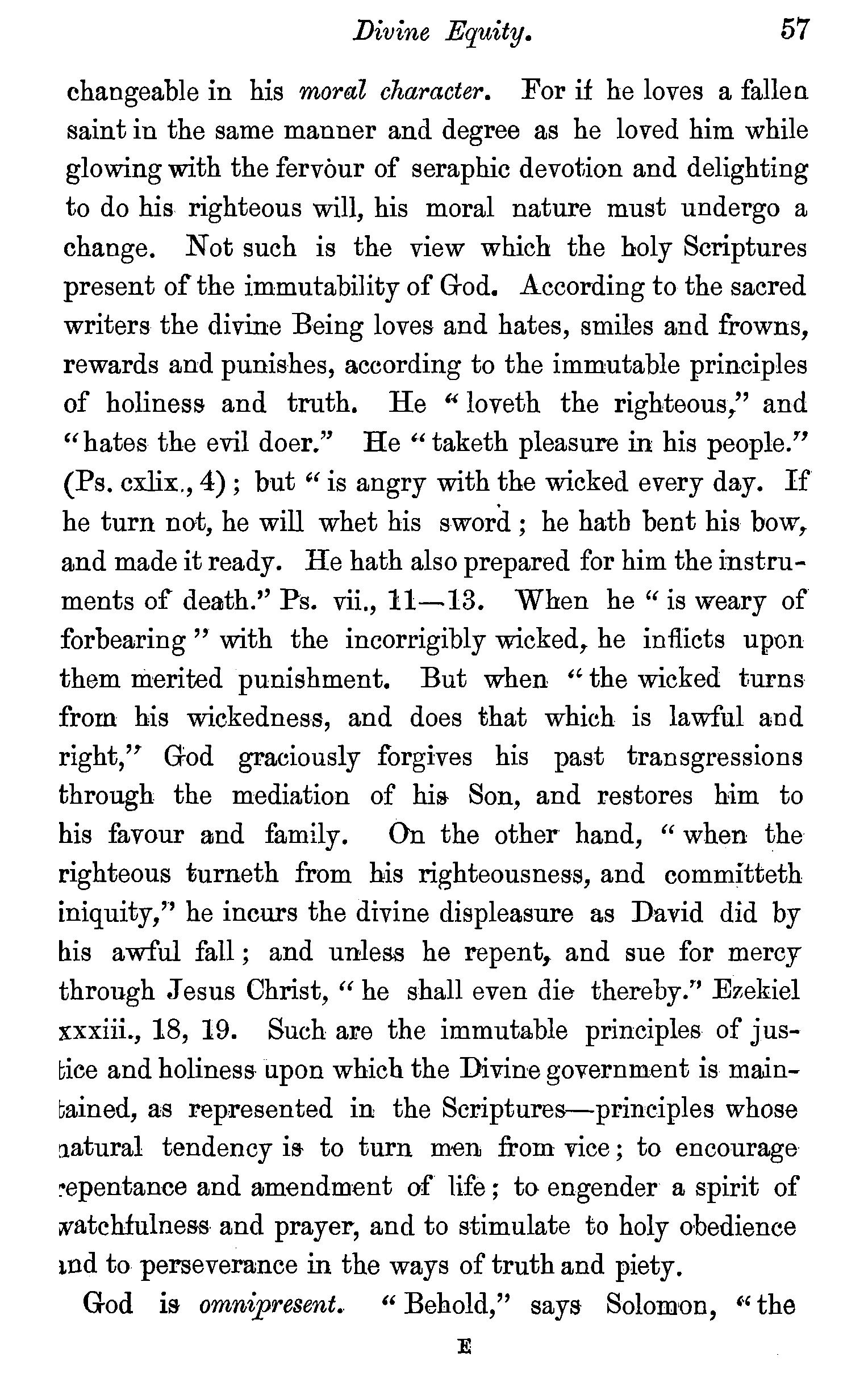
changeable in his moral character. For if he loves a fallen saint in the same manner and degree as he loved him while glowing with the fervour of seraphic devotion and delighting to do his righteous will, his moral nature must undergo a change. Not such is the view which the holy Scriptures present of the immutability of God. According to the sacred writers the divine Being loves and hates, smiles and frowns, rewards and punishes, according to the immutable principles of holiness and truth. He " loveth the righteous/' and "hates the evil doer." He '' taketh pleasure in his people.n (Ps. cxlix., 4); but "is angry with the wicked every day. If he turn not, he will whet his sword; he hath bent his bow, and made it ready. He hath also prepared for him the instruments of death.'' Ps. vii., 11-13. When he "is weary of forbearing" with the incorrigibly wicked, he inflicts upon them merited punishment. But when "the wicked turns from his wickedness, and does that which is lawful and right," God graciously forgives his past transgressions through the mediation of his- Son, and restores him to his favour and family. On the other hand, "when the righteous turneth from his righteousness, and committeth iniquity,'' he incurs the divine displeasure as David did by his awful fall ; and unless he repent, and sue for mercy through Jesus Christ, " he shall even die there by." Ezekiel x:xxiii., 18, 19. Such are the immutable principles of jusbiceand holiness upon which the Divine government is mainbained, as represented in the Scriptures-principles whose :1.atural tendency is- to turn men from vice ; to encourage ~epentance and amendment of life; to engender a spirit of ~atchfulness and prayer, and to stimulate to holy obedience tnd to perseverance in the ways of truth and piety. God is omnipresent. " Behold," says- Solomon, ,.,the
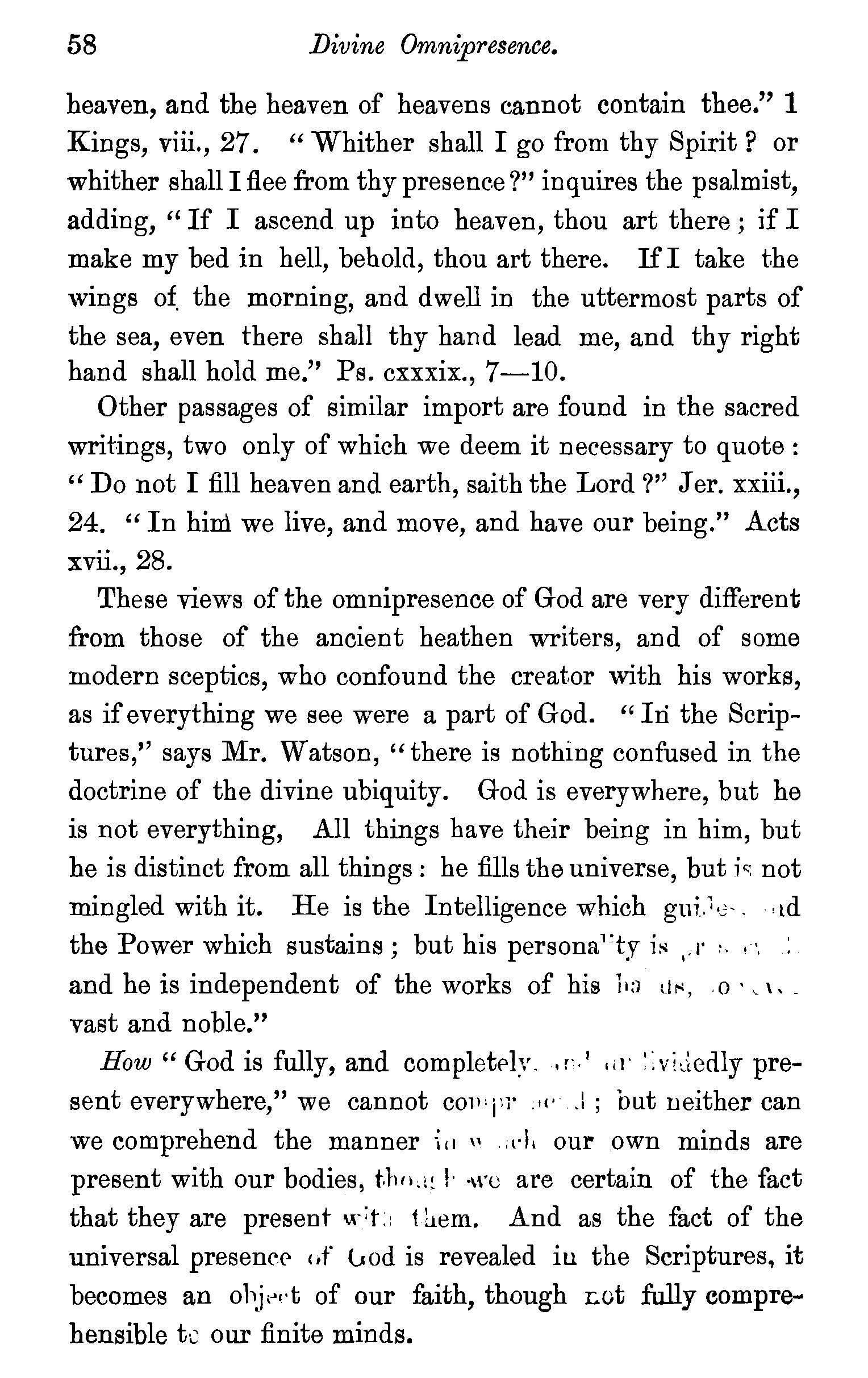
heaven, and the heaven of heavens cannot contain thee." 1 Kings, viii., 27. "Whither shall I go from thy Spirit? or whither shall I flee from thy presence?" inquires the psalmist, adding, " If I ascend up into heaven, thou art there ; if I make my bed in hell, behold, thou art there. If I take the wings of. the morning, and dwell in the uttermost parts of the sea, even there shall thy hand lead me, and thy right hand shall hold me.'' Ps. cxxxix., 7-10.
Other passages of similar import are found in the sacred writings, two only of which we deem it necessary to quote : "Do not I fill heaven and earth, saith the Lord ?'' J er. xxiii., 24. " In him we live, and move, and have our being." Acts xvii., 28.
These views of the omnipresence of God are very different from those of the ancient heathen writers, and of some modern sceptics, who confound the creator with his works, as if everything we see were a part of God. " lri the Scriptures," says Mr. Watson, "there is nothing confused in the doctrine of the divine ubiquity. God is everywhere, but he is not everything, All things have their being in him, but he is distinct from all things: he fills the universe, but ii:; not mingled with it. He is the Intelligence which gui.\c- . ,td the Power which sustains; but his persona 1 ~ty ii- ,,1· ,. , -. : and he is independent of the works of his 11:1 di-, o ·, \, _ vast and noble."
How" God is fully, and completel_v_,r·.' ,ii· ':vt~ledlypresent everywhere," we cannot co11, 1q• .,, • .I; but neither can we comprehend the manner 1,1,, .A, our own minds are present with our bodies, thn,t: !· -we are certain of the fact that they are present \\-:t. t Liem. And as the fact of the universal presence> of God is revealed iu the Scriptures, it becomes an ohj,~,-t of our faith, though Lot fully comprehensible k our finite minds.
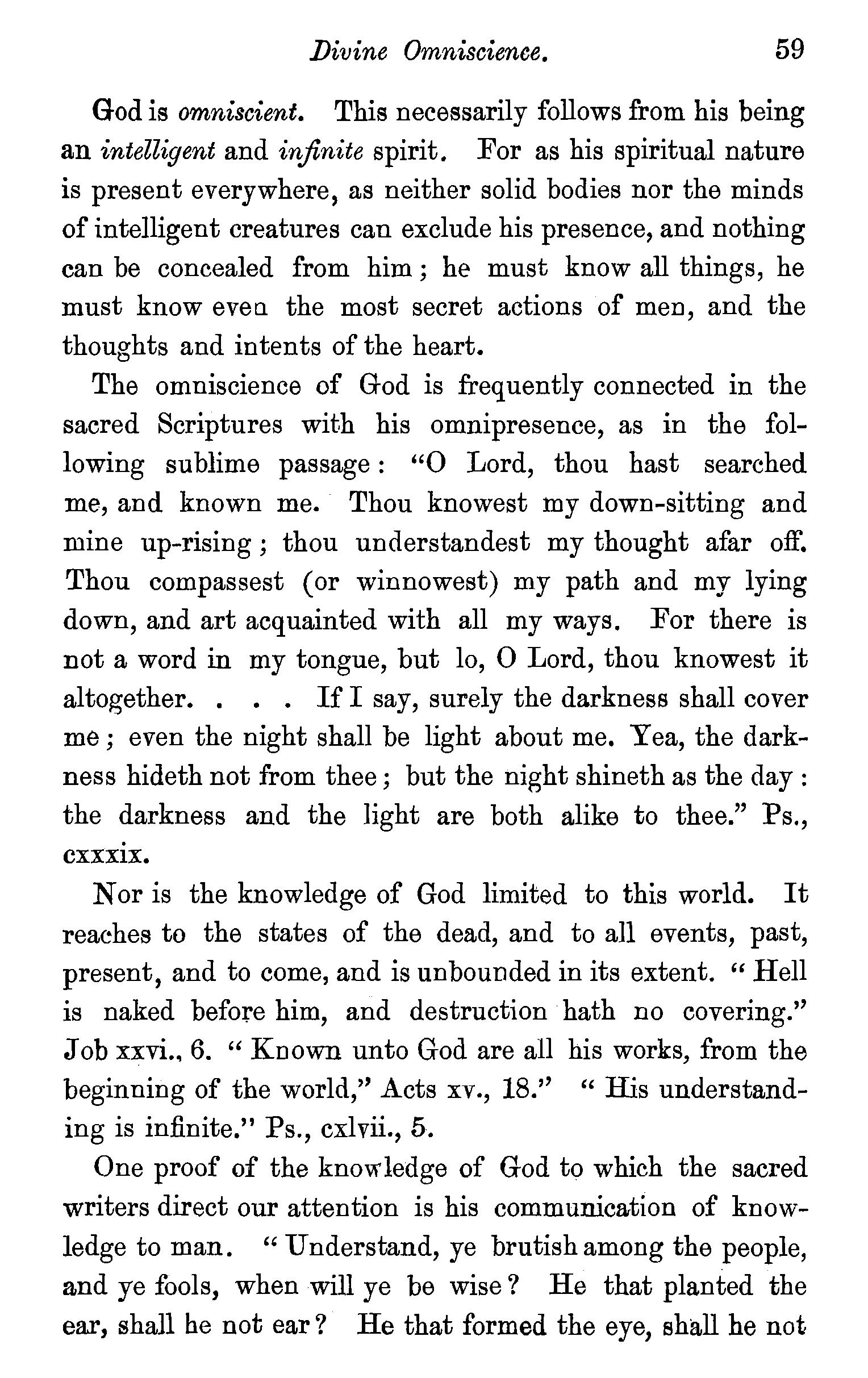
Godis omniscient. This necessarily follows from his being an intelligent and in.finite spirit. For as his spiritual nature is present everywhere, as neither solid bodies nor the minds of intelligent creatures can exclude his presence, and nothing can be concealed from him ; he must know all things, he must know even the most secret actions of men, and the thoughts and intents of the heart.
The omniscience of God is frequently connected in the sacred Scriptures with his omnipresence, as in the following sublime passage: "0 Lord, thou hast searched me, and known me. Thou knowest my down-sitting and mine up-rising ; thou understandest my thought afar off. Thou compassest (or winnowest) my path and my lying down, and art acquainted with all my ways. For there is not a word in my tongue, but lo, 0 Lord, thou knowest it altogether. . . . If I say, surely the darkness shall cover me; even the night shall be light about me. Yea, the darkness hideth not from thee; but the night shineth as the day : the darkness and the light are both alike to thee." Ps., CXXXIX.
Nor is the knowledge of God limited to this world. It reaches to the states of the dead, and to all events, past, present, and to come, and is unbounded in its extent. "Hell is naked before him, and destruction hath no covering.'' Job xxvi .. 6. " Known unto God are all his works, from the beginning of the world,'' Acts xv., 18.'' " His understanding is infinite." Ps., cxlvii., 5.
One proof of the know ledge of God to which the sacred writers direct our attention is his communication of knowledge to man. "Understand, ye brutish among the people, and ye fools, when will ye be wise? He that planted the ear, shall he not ear? He that formed the eye, shall he not
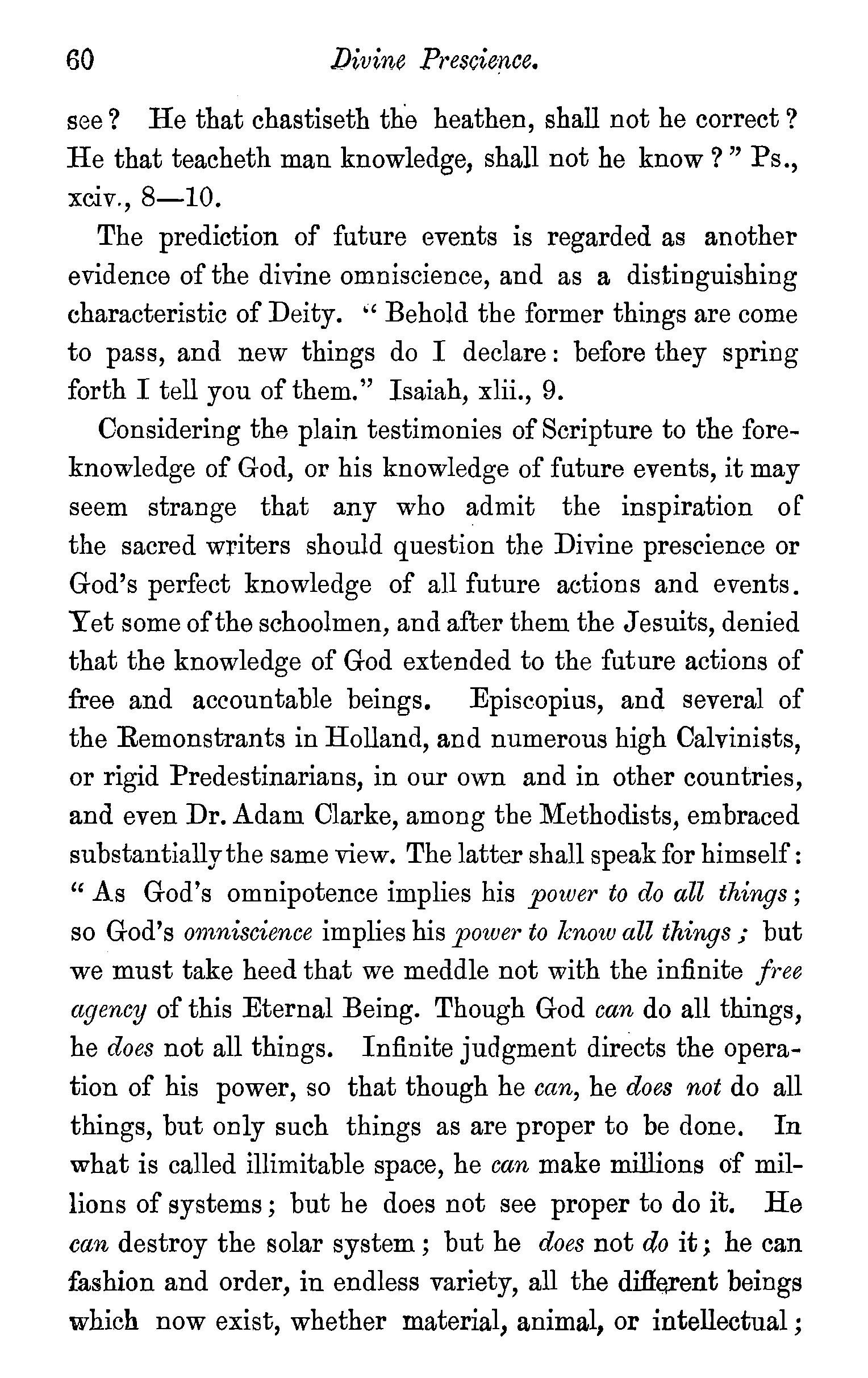
see? He that chastiseth the heathen, shall not he correct ? He that teacheth man knowledge, shall not he know?" Ps., xciv., 8-10.
The prediction of future events is regarded as another evidence of the divine omniscience, and as a distinguishing characteristic of Deity. "Behold the former things are come to pass, and new things do I declare : before they spring forth I tell you of them." Isaiah, xlii., 9.
Considering the plain testimonies of Scripture to the foreknowledge of God, or his knowledge of future events, it may seem strange that any who admit the inspiration of the sacred writers should question the Divine prescience or God's perfect knowledge of all future actions and events. Yet some of the schoolmen, and after them the Jesuits, denied that the knowledge of God extended to the future actions of free and accountable beings. Episcopius, and several of the Remonstrants in Holland, and numerous high Calvinists, or rigid Predestinarians, in our own and in other countries, and even Dr. Adam Clarke, among the Methodists, embraced substantially the same view. The latter shall speak for himself: "As God's omnipotence implies his power to do all things; so God's 01nniscienceimplies his power to know all things; but we must take heed that we meddle not with the infinite free agency of this Eternal Being. Though God can do all things, he does not all things. Infinite judgment directs the operation of his power, so that though he can, he does not do all things, but only such things as are proper to be done. In what is called illimitable space, he can make millions of millions of systems ; but he does not see proper to do it. He can destroy the solar system ; but he does not do it; he can fashion and order, in endless variety, all the diftEµ"entbeings which now exist, whether material, animal, or intellectual;
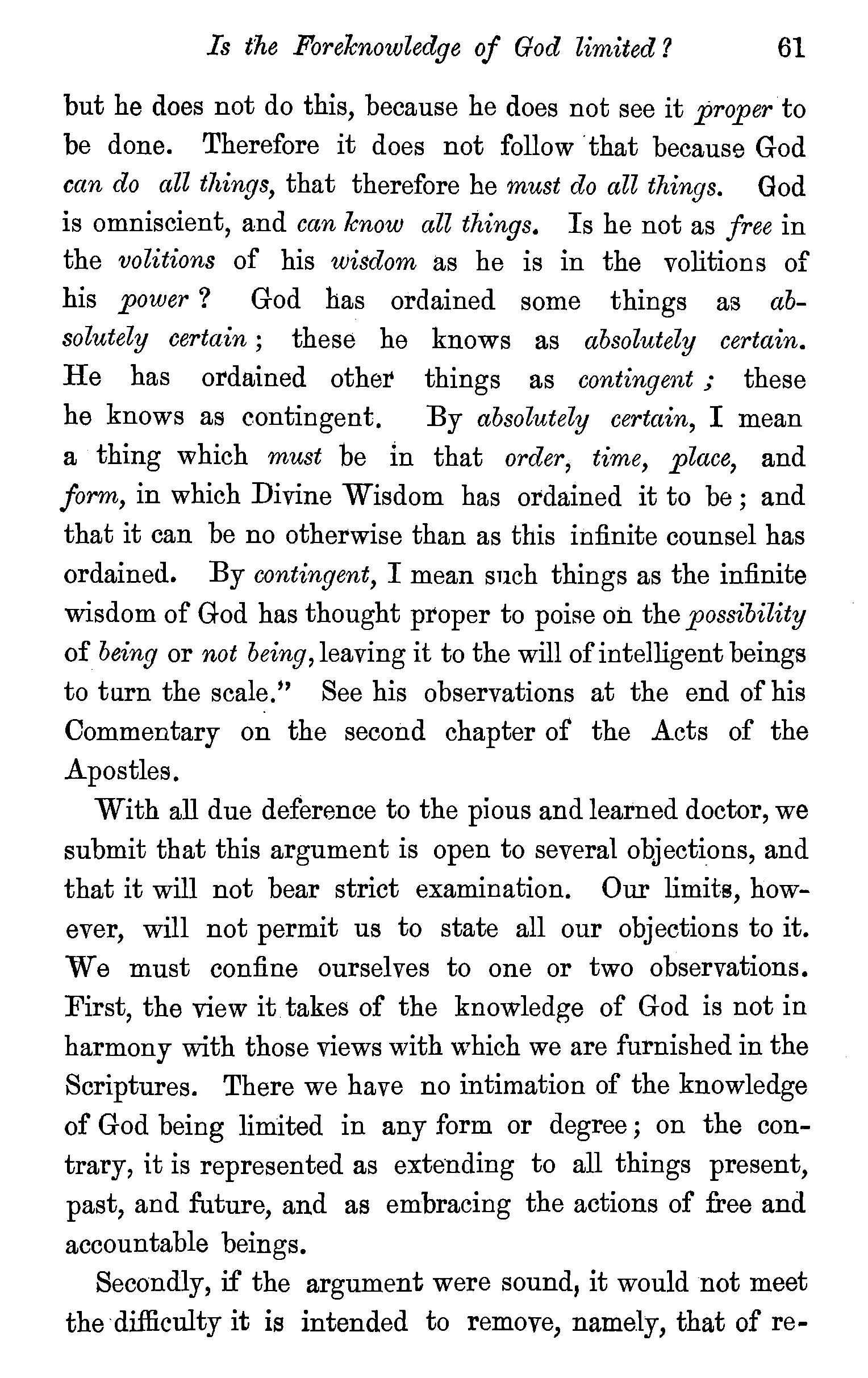
but he does not do this, because he does not see it proper to be done. Therefore it does not follow •that because God can do ctll things, that therefore he must do all things. God is omniscient, and can know all things. Is he not as free in the volitions of his wisdom as he is in the volitions of his power ? God has ordained some things as absolutely certain ; these he knows as absolutely certain. He has ordained other things as contingent ; these he knows as contingent. By absolutely certain, I mean a thing which must be in that order, time, place, and form, in which Divine Wisdom has ordained it to be ; and that it can be no otherwise than as this infinite counsel has ordained. By contingent, I mean such things as the infinite wisdom of God has thought proper to poise on the possibility of being or not being, leaving it to the will of intelligent beings to turn the scale." See his observations at the end of his Commentary on the second chapter of the Acts of the Apostles.
With all due deference to the pious and learned doctor, we submit that this argument is open to several objections, and that it will not bear strict examination. Our limits, however, will not permit us to state all our objections to it. We must confine ourselves to one or two observations. First, the view it takes of the knowledge of God is not in harmony with those views with which we are furnished in the Scriptures. There we have no intimation of the knowledge of God being limited in any form or degree; on the contrary, it is represented as extending to all things present, past, and future, and as embracing the actions of free and accountable beings.
Secondly, if the argument were sound, it would not meet the difficulty it is intended to remove, namely, that of re-
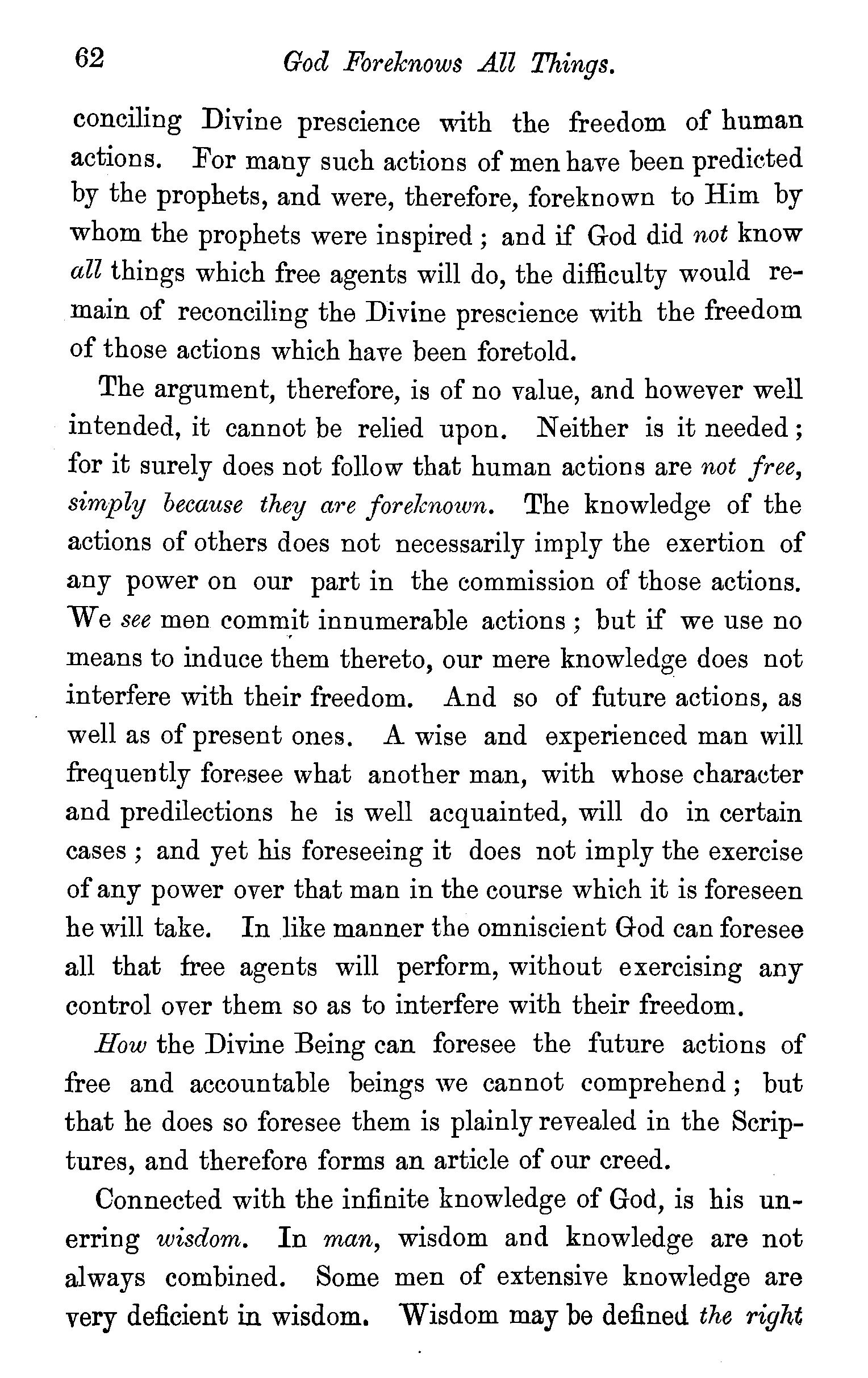
conciling Divine prescience ·with the freedom of human actions. For many such actions of men have been predicted by the prophets, and were, therefore, foreknown to Him by whom the prophets were inspired ; and if God did not know all things which free agents will do, the difficulty would remain of reconciling the Divine prescience with the freedom of those actions which have been foretold.
The argument, therefore, is of no value, and however well intended, it cannot be relied upon. Neither is it needed ; for it surely does not follow that human actions are not free, simply because they m·e forelcnown. The knowledge of the actions of others does not necessarily imply the exertion of any power on our part in the commission of those actions. We see men comm.it innumerable actions ; but if we use no means to induce them thereto, our mere knowledge does not interfere with their freedom. And so of future actions, as well as of present ones. A wise and experienced man will frequently forAsee what another man, with whose character and predilections he is well acquainted, will do in certain cases; and yet his foreseeing it does not imply the exercise of any power over that man in the course which it is foreseen he will take. In like manner the omniscient God can foresee all that free agents will perform, without exercising any control over them so as to interfere with their freedom.
How the Divine Being can foresee the future actions of free and accountable beings we cannot comprehend ; but that he does so foresee them is plainly revealed in the Scriptures, and therefore forms an article of our creed.
Connected with the infinite knowledge of God, is his unerring wisdom. In man, wisdom and knowledge are not always combined. Some men of extensive knowledge are very deficient in wisdom, Wisdom may be defined the right
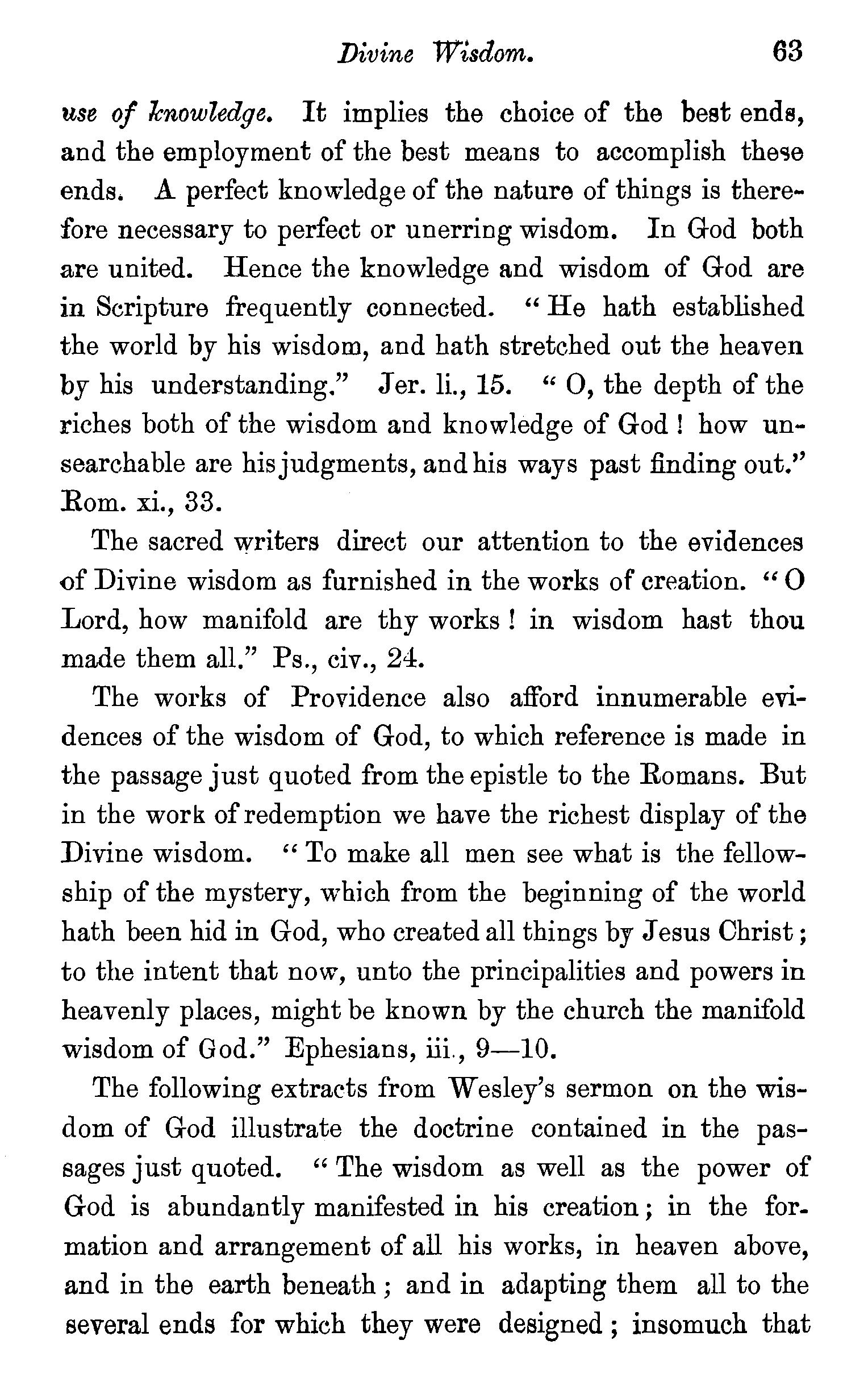
use of knowledge. It implies the choice of the best ends, and the employment of the best means to accomplish the'Je ends. A perfect knowledge of the nature of things is therefore necessary to perfect or unerring wisdom. In God both are united. Hence the knowledge and wisdom of God are in Scripture frequently connected. "He hath established the world by his wisdom, and hath stretched out the heaven by his understanding." J er. li., 15. " 0, the depth of the riches both of the wisdom and knowledge of God! how unsearchable are hisjudgments, and his ways past finding out.'' Rom. xi., 33.
The sacred writers direct our attention to the evidences of Divine wisdom as furnished in the works of creation. "0 Lord, how manifold are thy works! in wisdom hast thou made them all." Ps., civ., 24.
The works of Providence also afford innumerable evidences of the wisdom of God, to which reference is made in the passage just quoted from the epistle to the Romans. But in the work of redemption we have the richest display of the Divine wisdom. " To make all men see what is the fellowship of the mystery, which from the beginning of the world hath been hid in God, who created all things by Jesus Christ; to the intent that now, unto the principalities and powers in heavenly places, might be known by the church the manifold wisdom of God." Ephesians, iii., 9-10.
The following extracts from Wesley's sermon on the wisdom of God illustrate the doctrine contained in the passages just quoted. "The wisdom as well as the power of God is abundantly manifested in his creation; in the formation and arrangement of all his works, in heaven above, and in the earth beneath ; and in adapting them all to the several ends for which they were designed; insomuch that
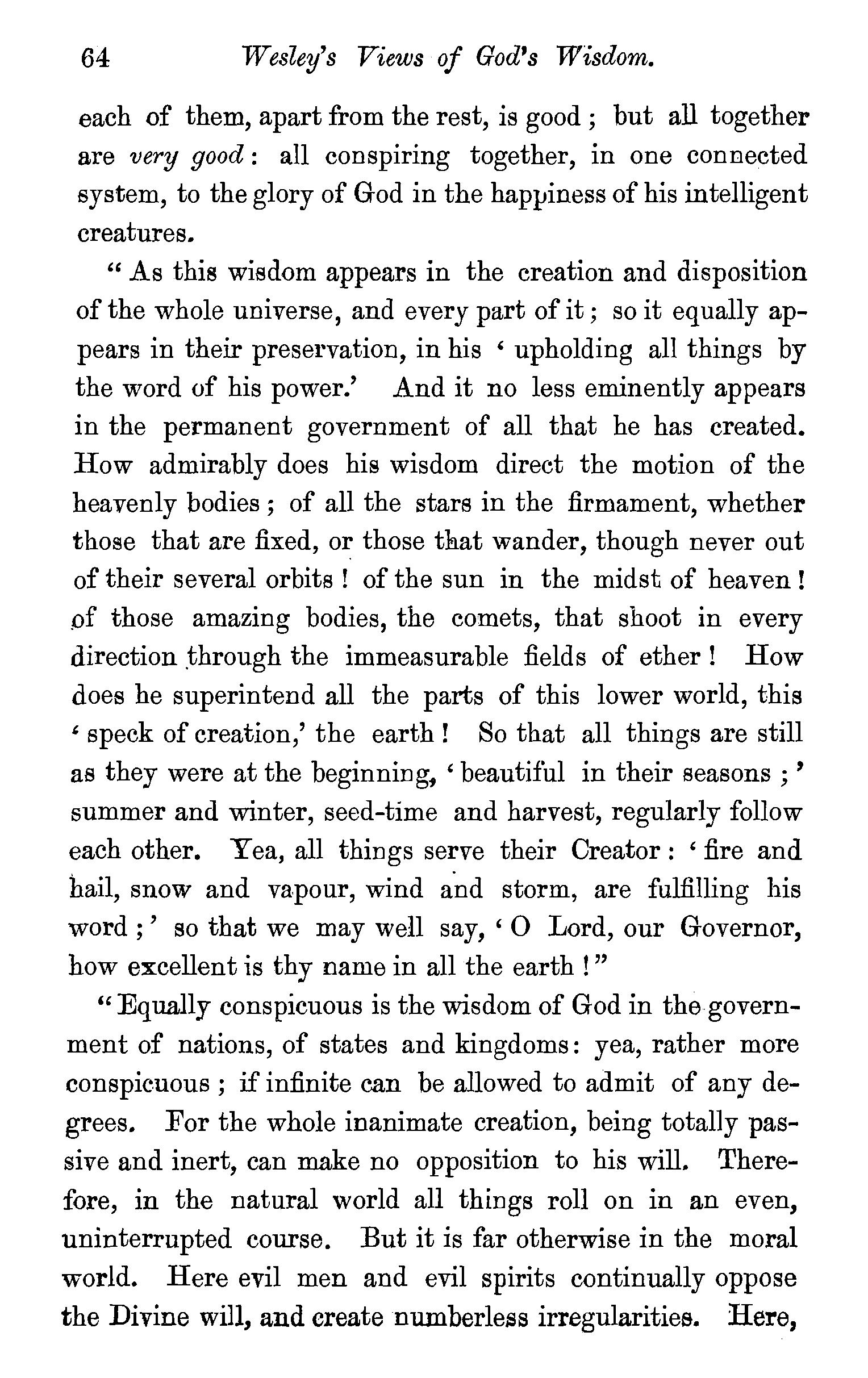
each of them, apart from the rest, is good ; but all together are very good: all conspiring together, in one connected system, to the glory of God in the hapJ!iness of his intelligent creatures.
" As this wisdom appears in the creation and disposition of the whole universe, and every part of it; so it equally appears in their preservation, in his ' upholding all things by the word of his power.' And it no less eminently appears in the permanent government of all that he has created. How admirably does his wisdom direct the motion of the heavenly bodies ; of all the stars in the :firmament, whether those that are fixed, or those that wander, though never out of their several orbits ! of the sun in the midst of heaven ! of those amazing bodies, the comets, that shoot in every direction .through the immeasurable fields of ether ! How does he superintend all the parts of this lower world, this ' speck of creation,' the earth ! So that all things are still as they were at the beginning, 'beautiful in their seasons ; ' summer and winter, seed-time and harvest, regularly follow each other. Yea, all things serve their Creator: 'fire and hail, snow and vapour, wind a·nd storm, are fulfilling his word ; ' so that we may well say, ' 0 Lord, our Governor, how excellent is thy name in all the earth ! "
"Equally conspicuous is the wisdom of God in the government of nations, of states and kingdoms: yea, rather more conspicuous ; if infinite can be allowed to admit of any degrees. For the whole inanimate creation, being totally passive and inert, can make no opposition to his will. Therefore, in the natural world all things roll on in an even, uninterrupted course. But it is far otherwise in the moral world. Here evil men and evil spirits continually oppose the Divine will, and create numberless irregularities. Here,
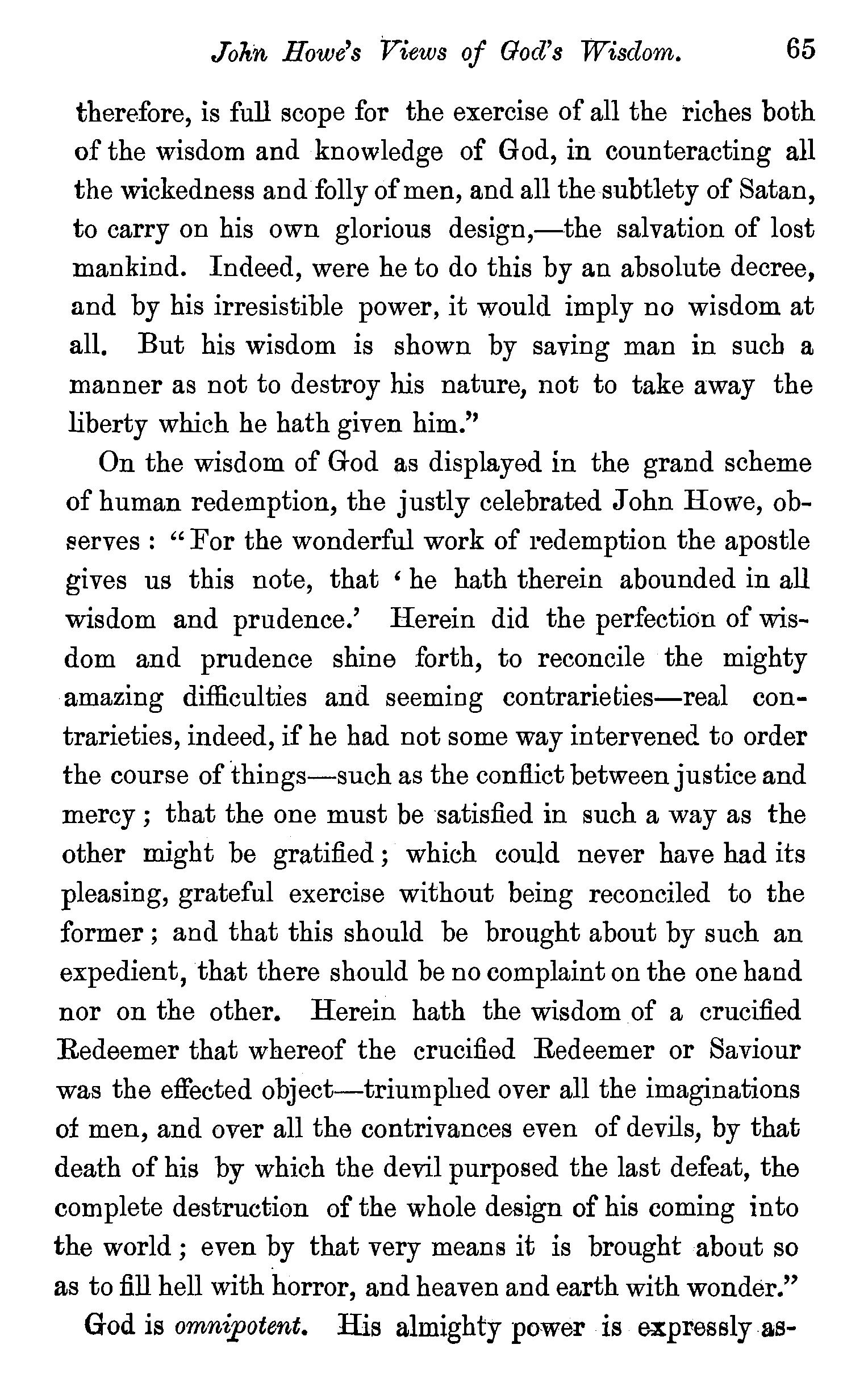
therefore, is full scope for the exercise of all the riches both of the wisdom and knowledge of God, in counteracting all the wickedness and folly of men, and all the subtlety of Satan, to carry on his own glorious design,-the salvation of lost mankind. Indeed, were he to do this by an absolute decree, and by his irresistible power, it would imply no wisdom at all. But his wisdom is shown by saving man in such a manner as not to destroy his nature, not to take away the liberty which he hath given him.''
On the wisdom of God as displayed in the grand scheme of human redemption, the justly celebrated John Howe, observes : "For the wonderful work of redemption the apostle gives us this note, that ' he hath therein abounded in all wisdom and prudence.' Herein did the perfection of wisdom and prudence shine forth, to reconcile the mighty amazing difficulties and seeming contrarieties-real contrarieties, indeed, if he had not some way intervened. to order the course of ·things-such as the conflict between justice and mercy; that the one must be satisfied in such a way as the other might be gratified ; which could never have had its pleasing, grateful exercise without being reconciled to the former ; and that this should be brought about by such an expedient, that there should be no complaint on the one hand nor on the other. Herein hath the wisdom of a crucified Redeemer that whereof the crucified Redeemer or Saviour was the effected object-triumphed over all the imaginations of men, and over all the contrivances even of devils, by that death of his by which the devil purposed the last defeat, the complete destruction of the whole design of his coming into the world; even by that very means it is brought about so as to fill hell with horror, and heaven and earth with wonder." God is omnipotent. His almighty power is ~pressly as-
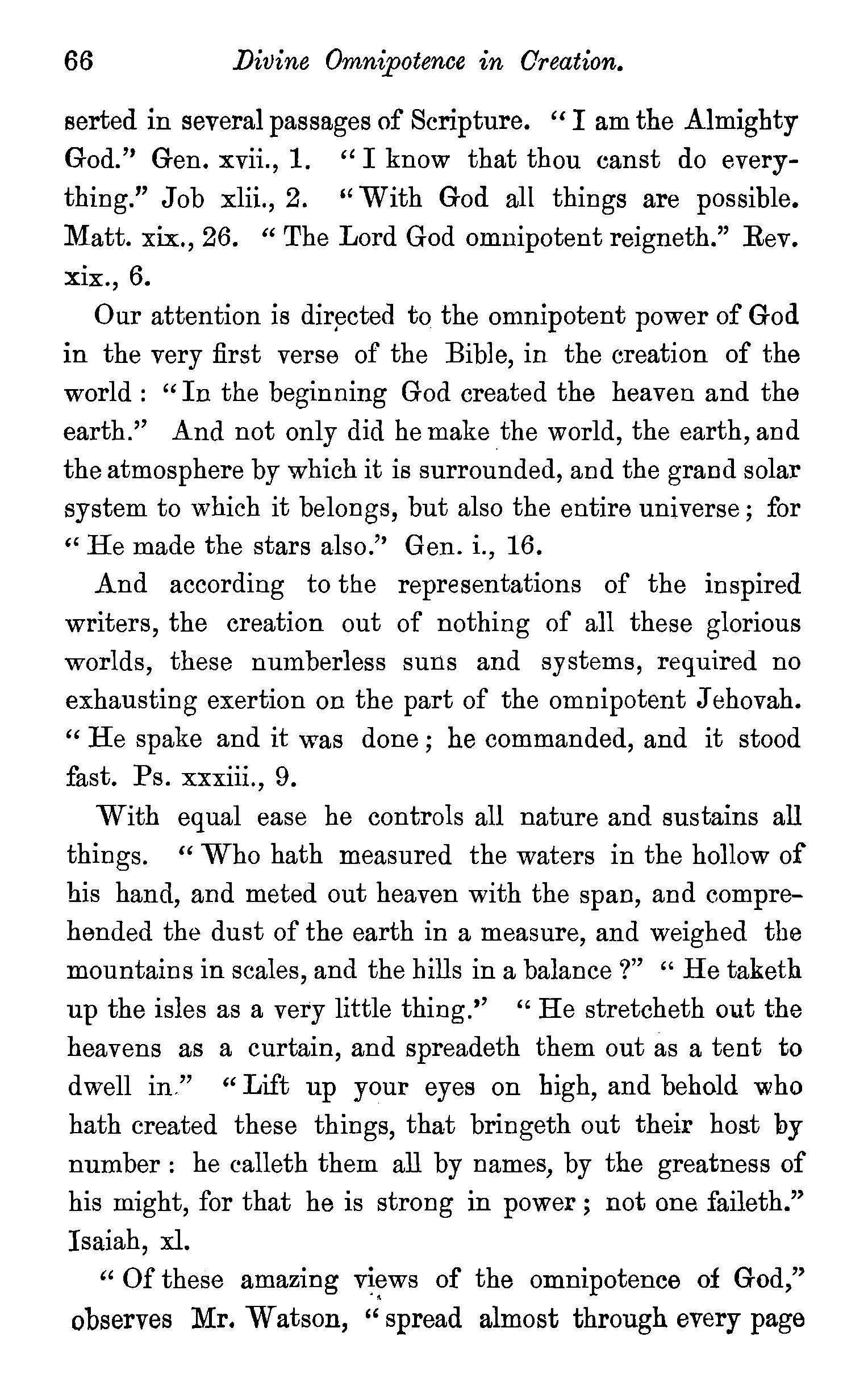
serted in several passages of Scripture. "I am the Almighty God.'' Gen. xvii., 1. "I know that thou canst do everything." Job xlii., 2. "With God all things are possible. Matt. xix., 26. "The Lord God omnipotent reigneth." Rev. xix., 6.
Our attention is dir~cted to the omnipotent power of God in the very first verse of the Bible, in the creation of the world : "In the beginning God created the heaven and the earth.'' And not only did he make the world, the earth, and the atmosphere by which it is surrounded, and the grand solar system to which it belongs, but also the entire universe; for "He made the stars also.'' Gen. i., 16.
And according to the representations of the inspired writers, the creation out of nothing of all these glorious worlds, these numberless suns and systems, required no exhausting exertion on the part of the omnipotent Jehovah. " He spake and it was done ; he commanded, and it stood fast. Ps. xxxiii., 9.
With equal ease he controls all nature and sustains all things. " Who hath measured the waters in the hollow of his hand, and meted out heaven with the span, and comprehended the dust of the earth in a measure, and weighed the mountains in scales, and the hills in a balance?'' "He taketh up the isles as a very little thing.'' "He stretcheth out the heavens as a curtain, and spreadeth them out as a tent to dwell in," "Lift up your eyes on high, and behold who hath created these things, that bringeth out their host by number : he calleth them all by names, by the greatness of his might, for that he is strong in power ; not one faileth." Isaiah, xl.
" Of these amazing v~~ws of the omnipotence of God," observes Mr. Watson, "spread almost through every page
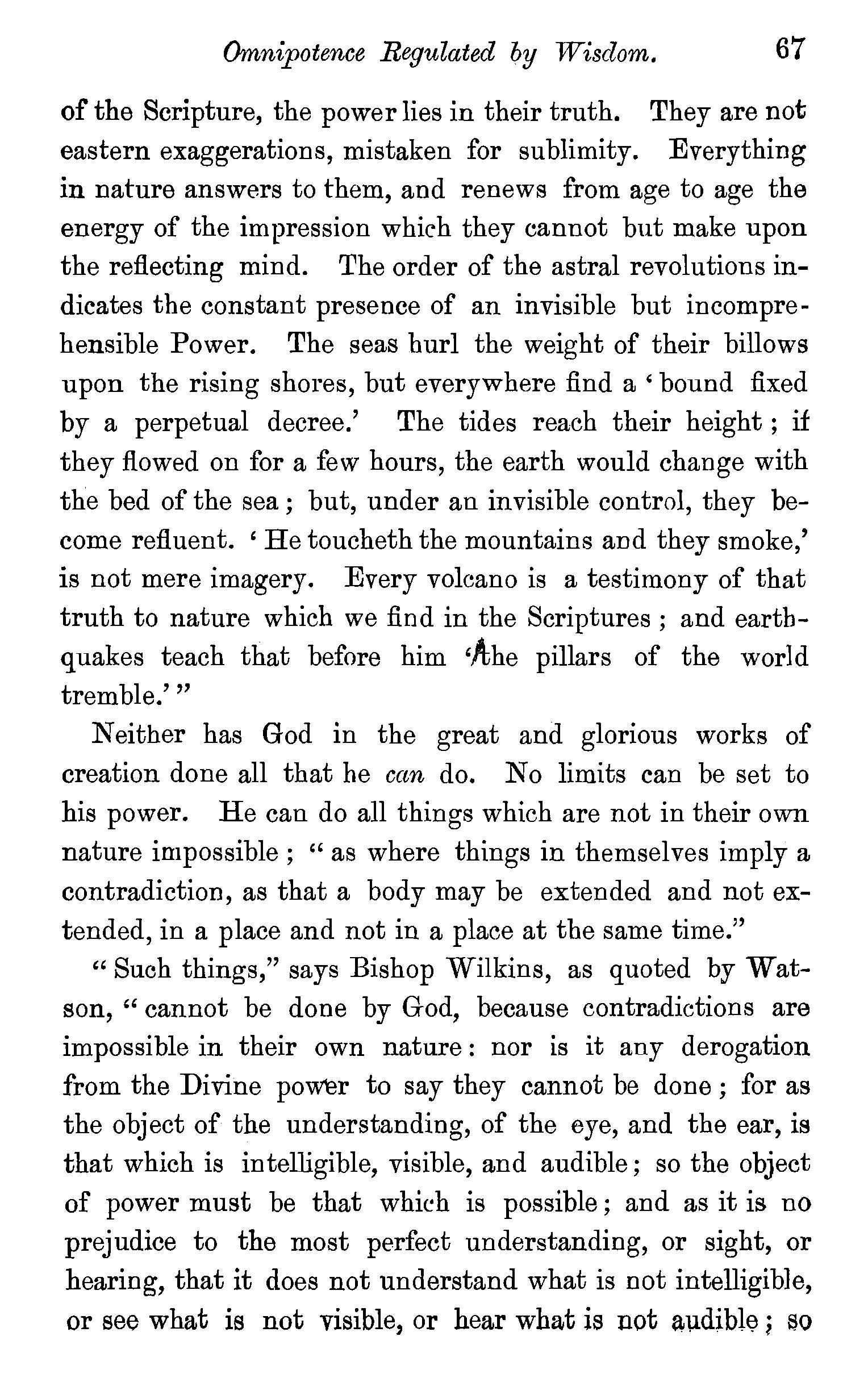
of the Scripture, the power lies in their truth. They are not eastern exaggerations, mistaken for sublimity. Everything in nature answers to them, and renews from age to age the energy of the impression which they cannot but make upon the reflecting mind. The order of the astral revolutions indicates the constant presence of an invisible but incomprehensible Power. The seas hurl the weight of their billows upon the rising shores, but everywhere find a 'bound fixed by a perpetual decree.' The tides reach their height ; if they flowed on for a few hours, the earth would change with the bed of the sea; but, under an invisible control, they become refluent. ' He toucheth the mountains and they smoke,' is not mere imagery. Every volcano is a testimony of that truth to nature which we find in the Scriptures ; and earthquakes teach that before him 'Ahe pillars of the world tremble.' ''
Neither has God in the great and glorious works of creation done all that he cctn do. No limits can be set to his power. He can do all things which are not in their own nature impossible; "as where things in themselves imply a contradiction, as that a body may be extended and not extended, in a place and not in a place at the same time."
" Such things," says Bishop Wilkins, as quoted by Watson, " cannot be done by God, because contradictions are impossible in their own nature : nor is it any derogation from the Divine power to say they cannot be done ; for as the object of the understanding, of the eye, and the ear, is that which is intelligible, visible, and audible; so the object of power must be that which is possible; and as it is no prejudice to the most perfect understanding, or sight, or hearing, that it does not understand what is not intelligible, or see what is not visible, or hear what is not audible; so
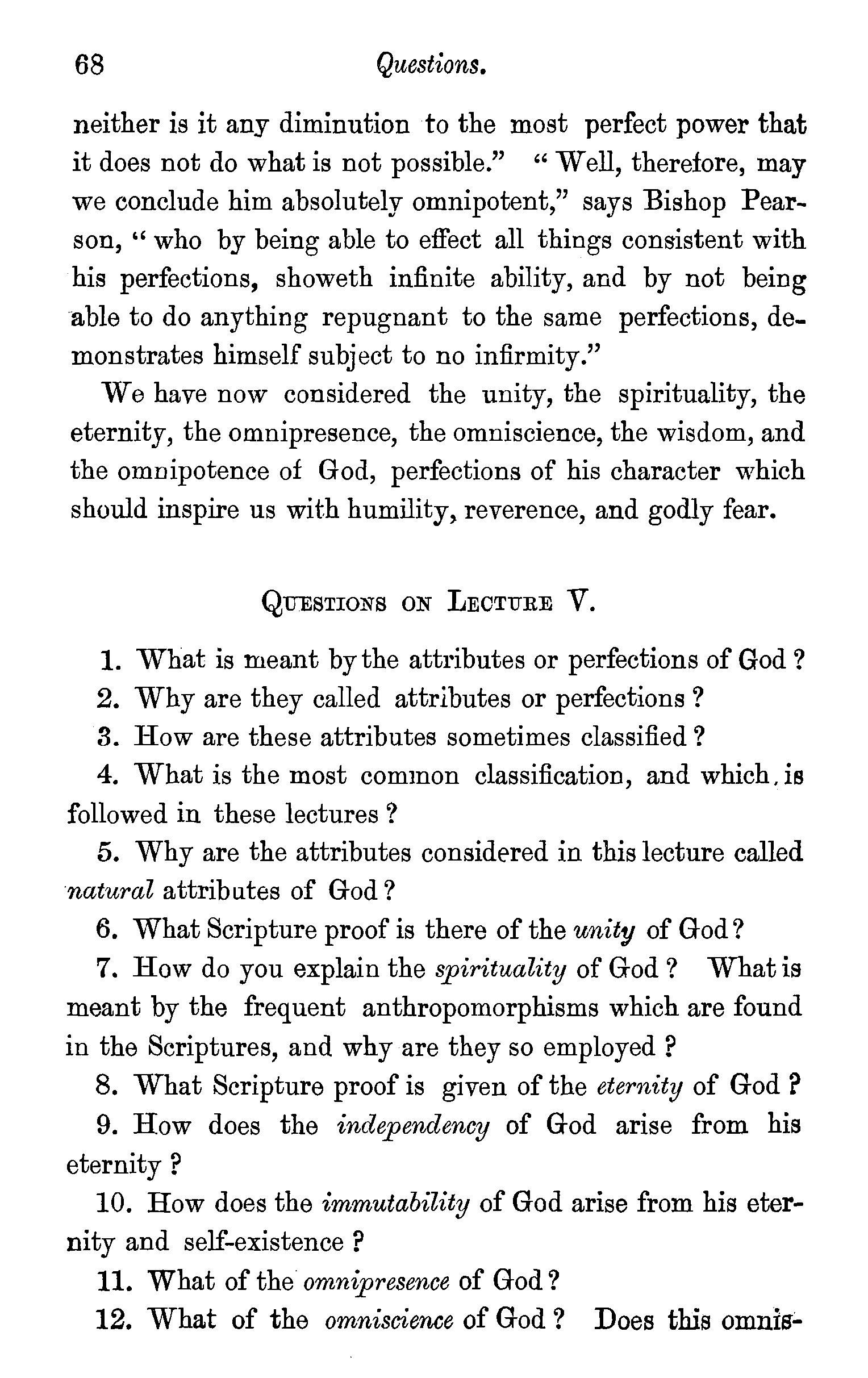
neither is it any diminution to the most perfect power that it does not do what is not possible." " Well, therefore, may we conclude him absolutely omnipotent," says Bishop Pearson, " who by being able to effect all things consistent with his perfections, showeth infinite ability, and by not being able to do anything repugnant to the same perfections, demonstrates himself subject to no infirmity."
We have now considered the unity, the spirituality, the eternity, the omnipresence, the omniscience, the wisdom, and the omnipotence of God, perfections of his character which should inspire us with humility, reverence, and godly fear.
1. What is meant by the attributes or perfections of God ?
2. Why are they called attributes or perfections ?
3. How are these attributes sometimes classified ?
4. What is the most common classification, and which.is followed in these lectures ?
5. Why are the attributes considered in this lecture called natural attributes of God?
6. What Scripture proof is there of the unity of God?
7. How do you explain the spirituality of God? What is meant by the frequent anthropomorphisms which are found in the Scriptures, and why are they so employed ?
8. What Scripture proof is given of the eternity of God?
9. How does the independency of God arise from his eternity?
10. How does the immutability of God arise from his eternity and self-existence ?
11. What of the omnipresence of God?
12. What of the omniscience of God ? Does this omnis-;.
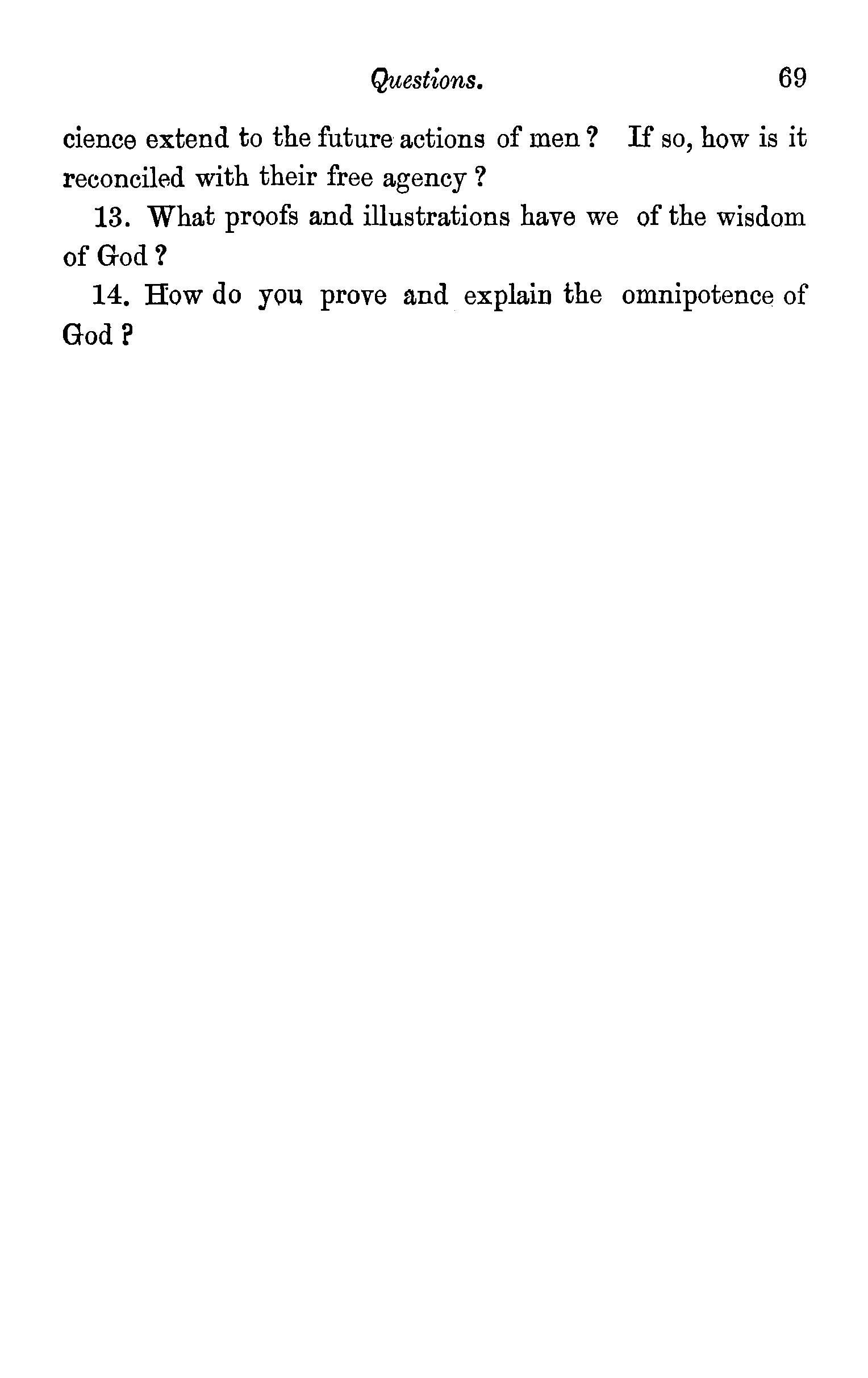
cience extend to the future actions of men ? If so, how is it reconciled with their free agency ?
13. What proofs and illustrations have we of the wisdom of God?
14. How do you prove and explain the omnipotence of God?
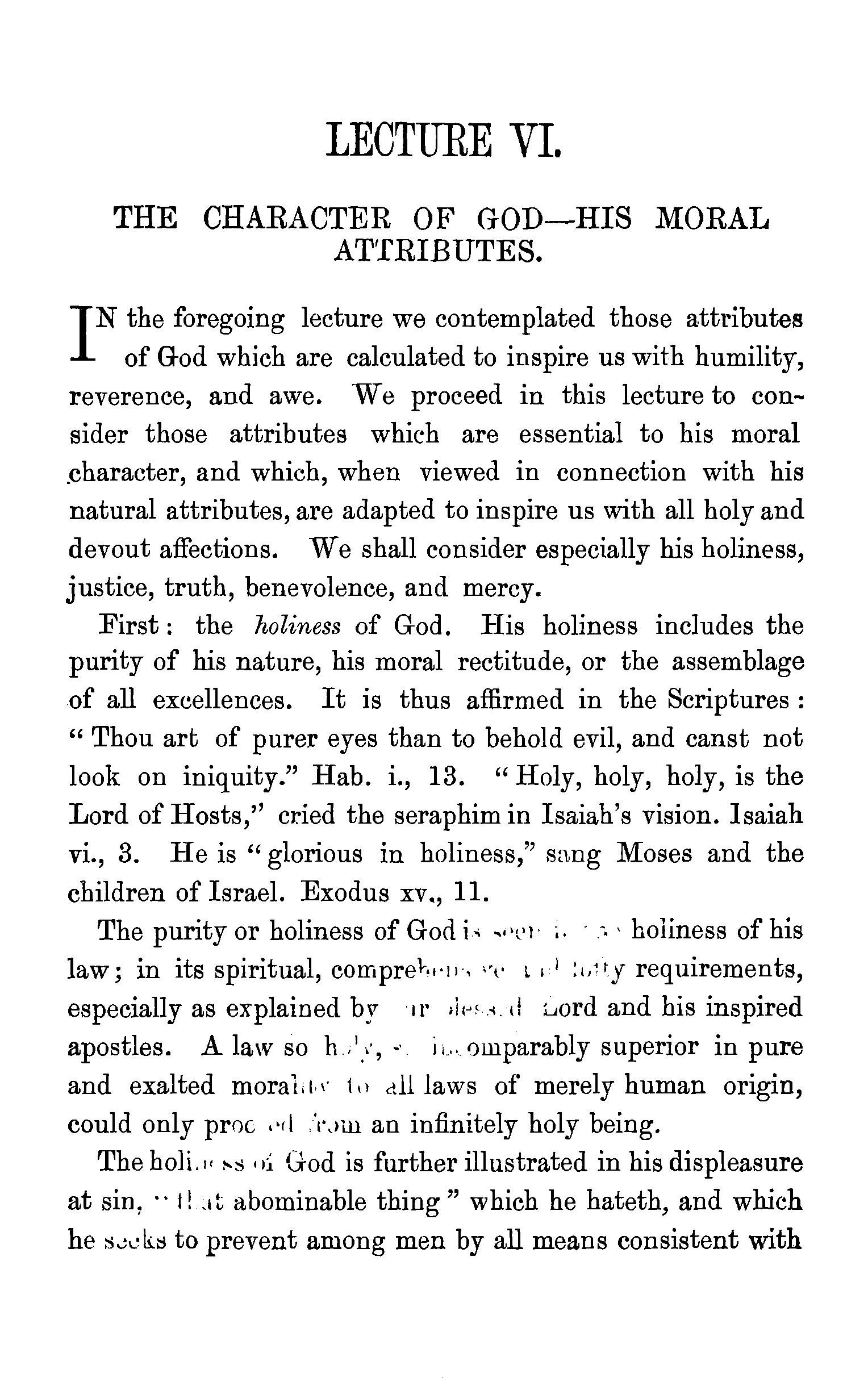
IN the foregoing lecture we contemplated those attributes of God which are calculated to inspire us with humility, reverence, and awe. We proceed in this lecture to consider those attributes which are essential to his moral .character, and which, when viewed in connection with his natural attributes, are adapted to inspire us with all holy and devout affections. We shall consider especially his holiness, justice, truth, benevolence, and mercy.
First : the holiness of God. His holiness includes the purity of his nature, his moral rectitude, or the assemblage of all excellences. It is thus affirmed in the Scriptures : " Thou art of purer eyes than to behold evil, and canst not look on iniquity." Hab. i., 13. "Holy, holy, holy, is the Lord of Hosts,'' cried the seraphim in Isaiah's vision. Isaiah vi., 3. He is " glorious in holiness," S8,ng Moses and the children of Israel. Exodus xv., 11.
The purity or holiness of God i, ~•'l'l· i, • --. , holiness of his law; in its spiritual, compreh,-11,,.\. t, 1 :1,~ty requirements, especially as explained by 1r ,it 0 f, d Lord and his inspired apostles. A law so h ,1y, -· i ....ornparably superior in pure and exalted mora1il,,· 1.1 dl laws of merely human origin, could only proc ,•d .·,._,illan infinitely holy being.
The holi. 1 1 ~s , ,; God is further illustrated in his displeasure at sin, "'t! :1t abominable thing" which he hateth, and whlch he s..:,A.:ito prevent among men by all means consistent with
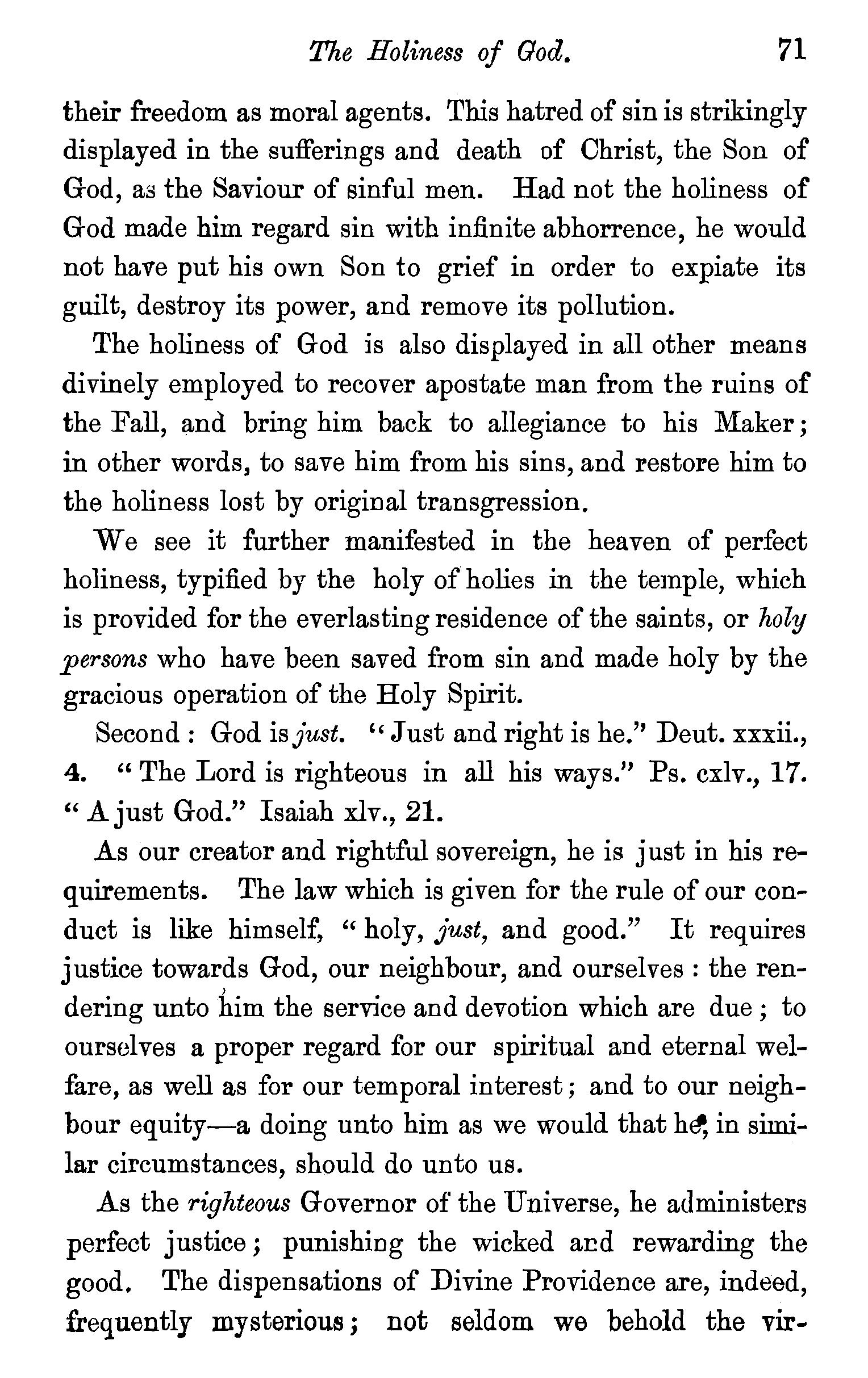
their freedom as moral agents. This hatred of sin is strikingly displayed in the sufferings and death of Christ, the Son of God, as the Saviour of sinful men. Had not the holiness of God made him regard sin with infinite abhorrence, he would not have put his own Son to grief in order to expiate its guilt, destroy its power, and remove its pollution.
The holiness of God is also displayed in all other means divinely employed to recover apostate man from the ruins of the Fall, and bring him back to allegiance to his Maker ; in other words, to save him from his sins, and restore him to the holiness lost by original transgression.
We see it further manifested in the heaven of perfect holiness, typified by the holy of holies in the temple, which is provided for the everlasting residence of the saints, or holy persons who have been saved from sin and made holy by the gracious operation of the Holy Spirit.
Second: God isjust. '' Just and right is he.'' Deut. xxxii., 4. "The Lord is righteous in all his ways." Ps. cxlv., 17. "Ajust God." Isaiah xlv., 21.
As our creator and rightful sovereign, he is just in his requirements. The law which is given for the rule of our conduct is like himself, "holy, just, and good." It requires justice towards God, our neighbour, and ourselves: the ren' dering unto him the service and devotion which are due; to ourselves a proper regard for our spiritual and eternal welfare, as well as for our temporal interest; and to our neighbour equity-a doing unto him as we would that hE',in similar circumstances, should do unto us.
As the righteous Governor of the Universe, he administers perfect justice; punishing the wicked a:cd rewarding the good. The dispensations of Divine Providence are, indeed, frequently mysterious; not seldom we behold the vir-
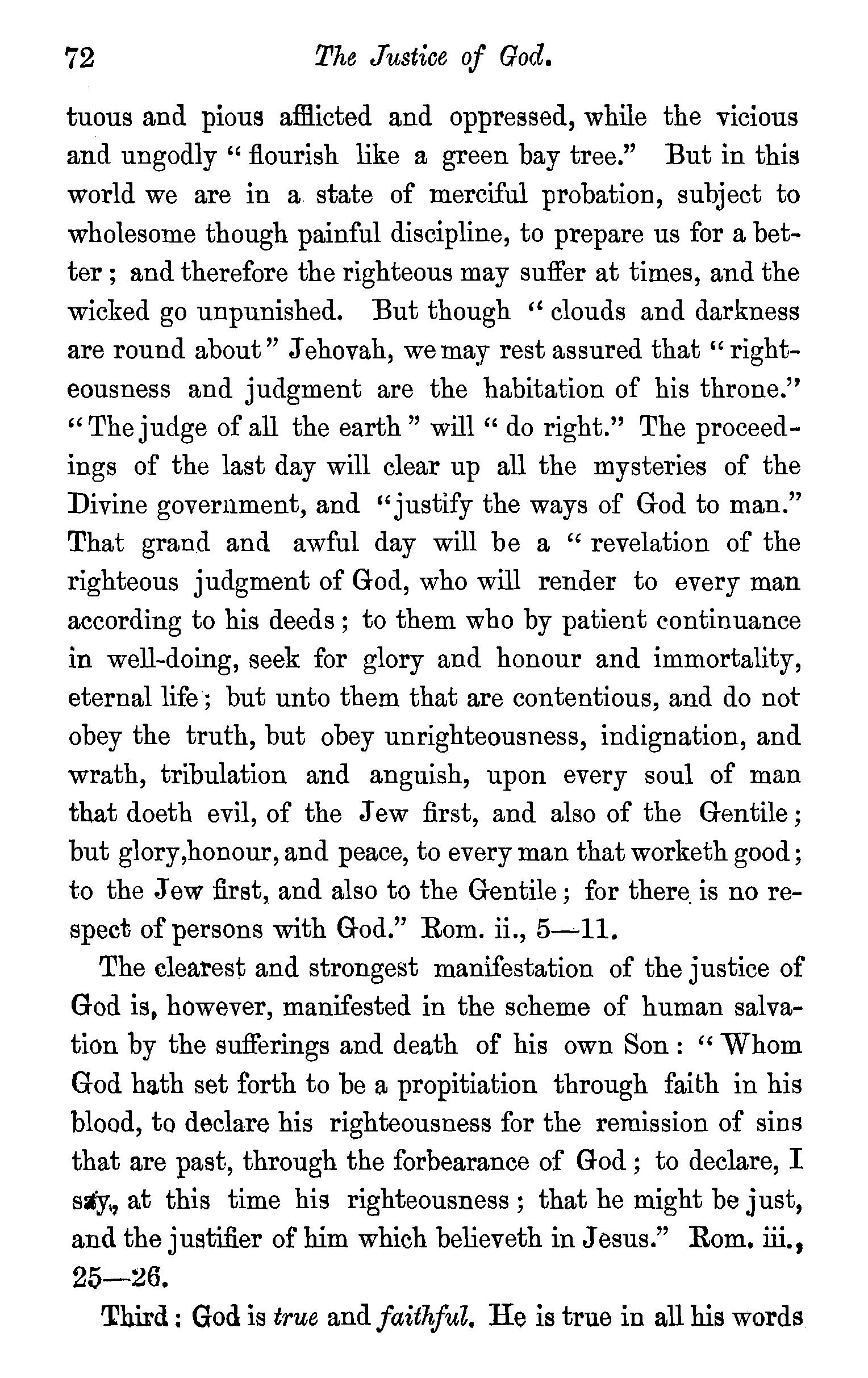
tuous and pious afH.icted and oppressed, while the vicious and ungodly "flourish like a green bay tree." But in this world we are in a state of merciful probation, subject to wholesome though painful discipline, to prepare us for a better; and therefore the righteous may suffer at times, and the wicked go unpunished. But though " clouds and darkness are round about" Jehovah, we may rest assured that "righteousness and judgment are the habitation of his throne." "The judge of all the earth" will "do right." The proceedings of the last day will clear up all the mysteries of the Divine government, and "justify the ways of God to man." That grand and awful day will be a " revelation of the righteous judgment of God, who will render to every man according to his deeds; to them who by patient continuance in well-doing, seek for glory and honour and immortality, eternal life; but unto them that are contentious, and do not obey the truth, but obey unrighteousness, indignation, and wrath, tribulation and anguish, upon every soul of man that doeth evil, of the Jew first, and also of the Gentile ; but glory,honour, and peace, to every man that worketh good; to the Jew first, and also to the Gentile ; for there. is no respect of persons with God." Rom. ii., 5-11.
The clearest and strongest manifestation of the justice of God is, however, manifested in the scheme of human salvation by the sufferings and death of his own Son : " Whom God hath set forth to be a propitiation through faith in his blood, to declare his righteousness for the remission of sins that are past, through the forbearance of God ; to declare, I say., at this time his righteousness; that he might be just, and the justifier of him which believeth in Jesus." Rom, iii., 25-26.
Third : God is true and f aithjul, He is true in all his words
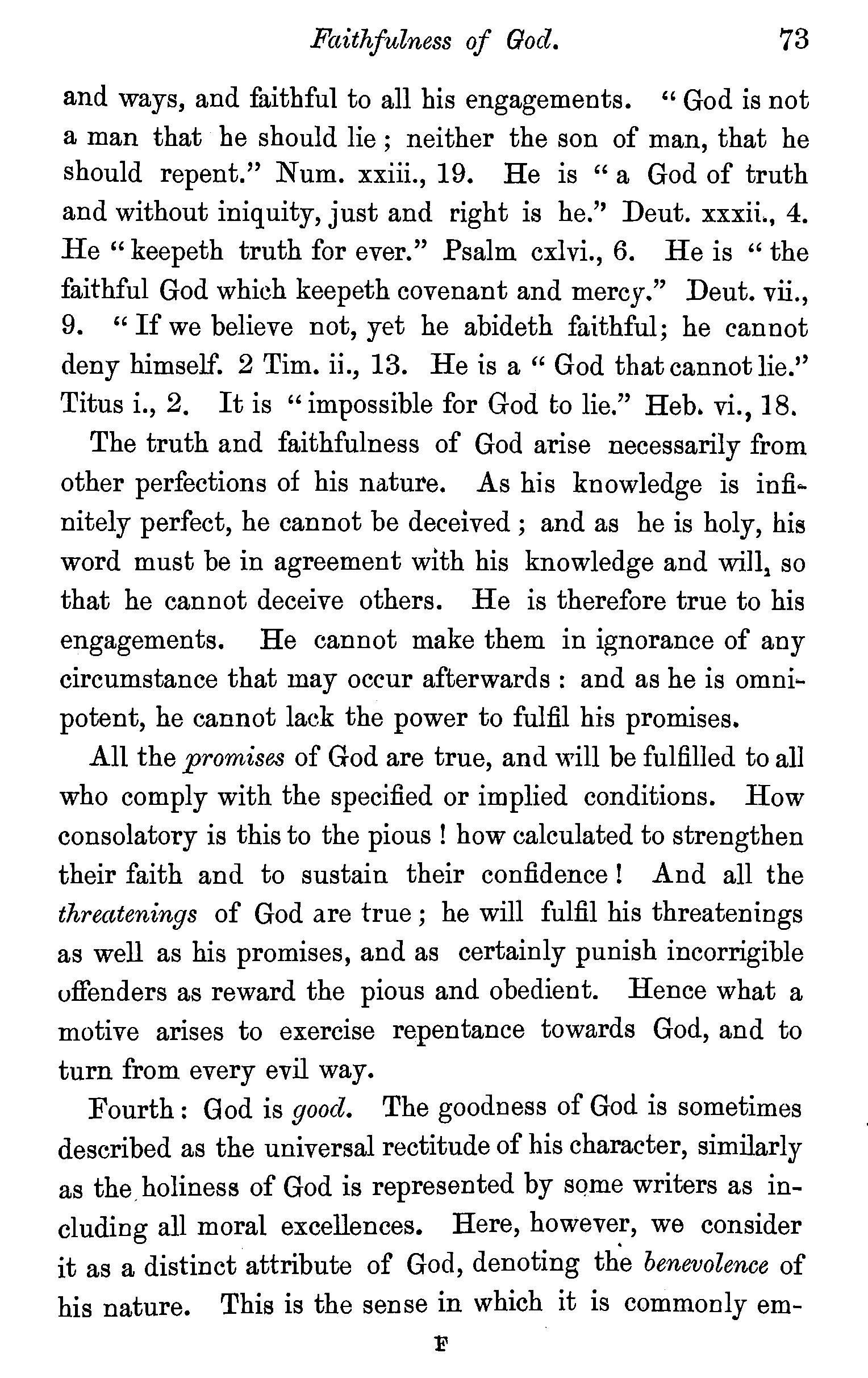
and ways, and faithful to all his engagements. " God is not a man that he should lie ; neither the son of man, that he should repent." Num. xxiii., 19. He is "a God of truth and without iniquity, just and right is he.'' Deut. xxxii., 4. He "keepeth truth for ever." Psalm cxlvi., 6. He is "the faithful God which keepeth covenant and mercy." Deut. vii., 9. "If we believe not, yet he abideth faithful; he cannot deny himself. 2 Tim. ii., 13. He is a " God that cannot lie.'' Titus i., 2. It is "impossible for God to lie." Heb. vi., 18.
The truth and faithfulness of God arise necessarily from other perfections of his nature. As his knowledge is infi~ nitely perfect, he cannot be deceived ; and as he is holy, his word must be in agreement with his knowledge and wi1l 1 so that he cannot deceive others. He is therefore true to his engagements. He cannot make them in ignorance of any circumstance that may occur afterwards : and as he is omnipotent, he cannot lack the power to fulfil his promises.
All the promises of God are true, and will be fulfilled to all who comply with the specified or implied conditions. How consolatory is this to the pious ! how calculated to strengthen their faith and to sustain their confidence ! And all the threatenings of God are true; he will fulfil his threatenings as well as his promises, and as certainly punish incorrigible offenders as reward the pious and obedient. Hence what a motive arises to exercise repentance towards God, and to turn from every evil way.
Fourth: God is good. The goodness of God is sometimes described as the universal rectitude of his character, similarly as the holiness of God is represented by some writers as including all moral excellences. Here, however, we consider it as a distinct attribute of God, denoting th~ benevolence of his nature. This is the sense in which it is commonly em-
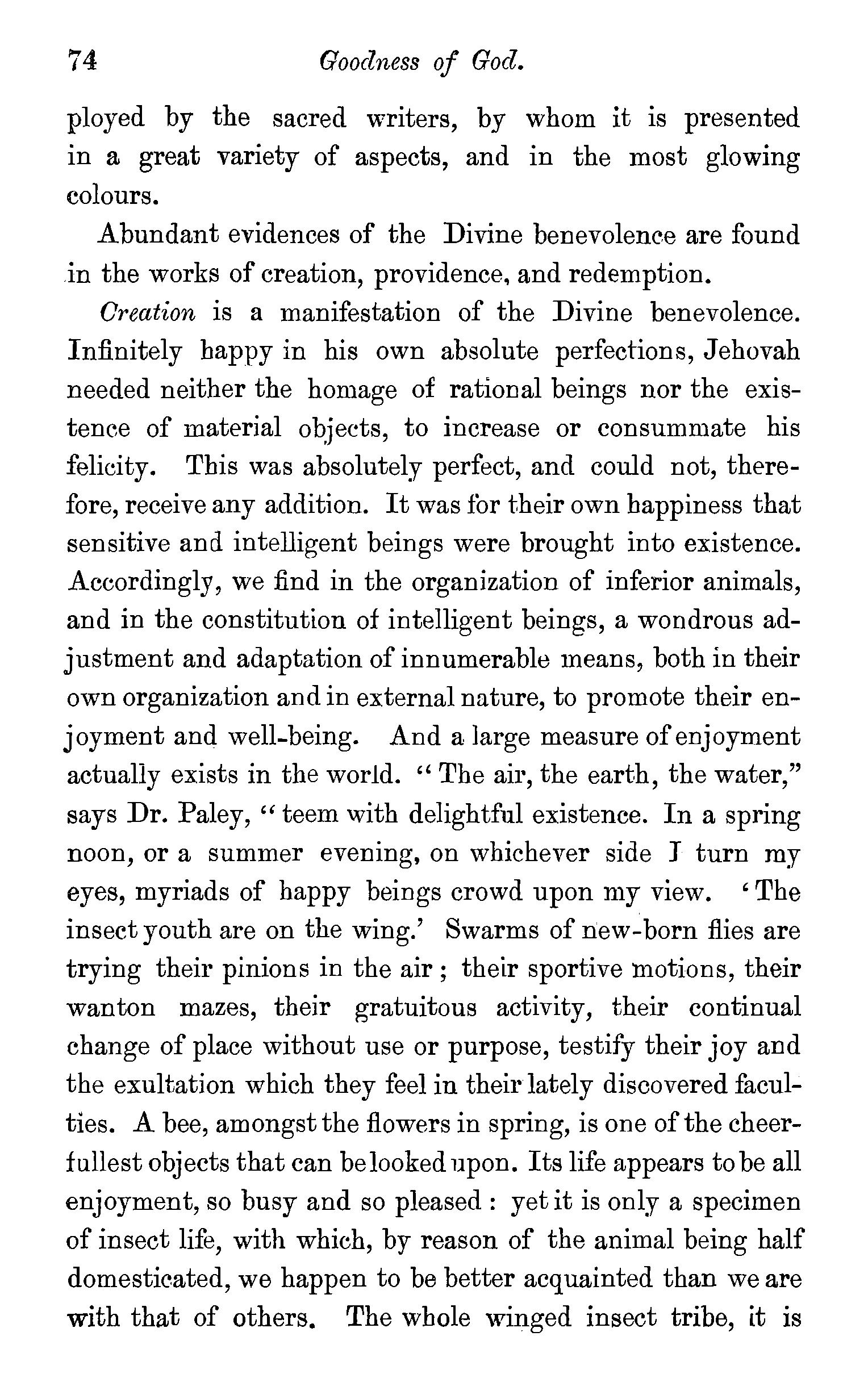
ployed by the sacred writers, by whom it is presented in a great variety of aspects, and in the most glowing colours.
Abundant evidences of the Divine benevolence are found .in the works of creation, providence, and redemption.
Creation is a manifestation of the Divine benevolence. Infinitely happy in his own absolute perfections, Jehovah needed neither the homage of rational beings nor the existence of material objects, to increase or consummate his felicity. This was absolutely perfect, and could not, therefore, receive any addition. It was for their own happiness that sensitive and intelligent beings were brought into existence. Accordingly, we find in the organization of inferior animals, and in the constitution of intelligent beings, a wondrous adjustment and adaptation of innumerable means, both in their own organization and in external nature, to promote their enjoyment and well-being. And a large measure of enjoyment actually exists in the world. "The air, the earth, the water," says Dr. Paley, "teem with delightful existence. In a spring noon, or a summer evening, on whichever side J turn my eyes, myriads of happy beings crowd upon my view. 'The insect youth are on the wing.' Swarms of new-born flies are trying their pinions in the air ; their sportive motions, their wanton mazes, their gratuitous activity, their continual change of place without use or purpose, testify their joy and the exultation which they feel in their lately discovered faculties. A bee, amongst the flowers in spring, is one of the cheerfullest objects that can be looked upon. Its life appears to be all enjoyment, so busy and so pleased : yet it is only a specimen of insect life, with which, by reason of the animal being half domesticated, we happen to be better acquainted than we are with that of others. The whole winged insect tribe, it is
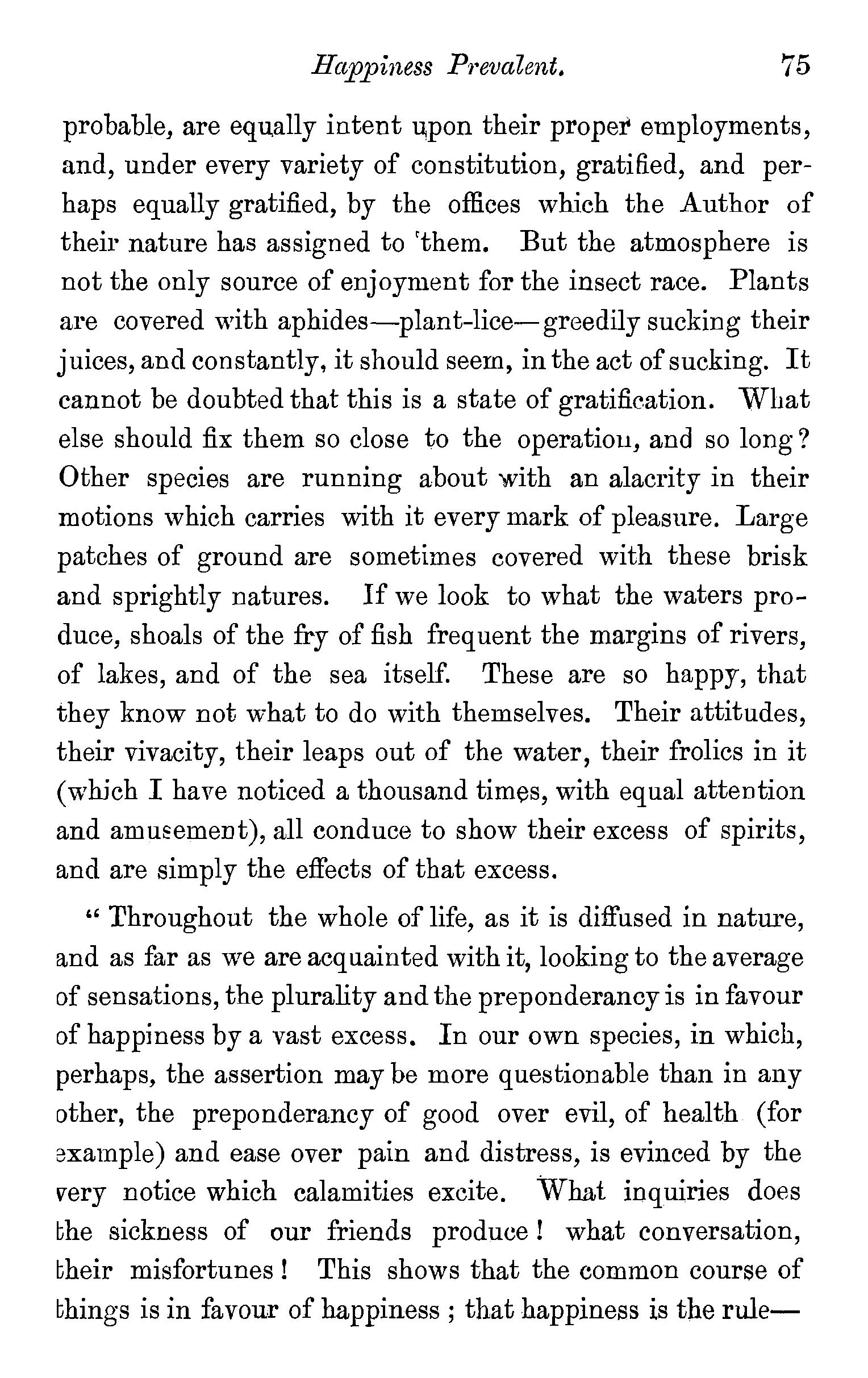
probable, are equally intent u.pon their proper employments, and, under every variety of constitution, gratified, and perhaps equally gratified, by the offices which the Author of their nature has assigned to 'them. But the atmosphere is not the only source of enjoyment for the insect race. Plants are covered with aphides-plant-lice-greedily sucking their juices, and constantly, it should seem, in the act of sucking. It cannot be doubted that this is a state of gratification. What else should fix them so close to the operatiou, and so long? Other species are running about with an alacrity in their motions which carries with it every mark of pleasure. Large patches of ground are sometimes covered with these brisk and sprightly natures. If we look to what the waters produce, shoals of the fry of fish frequent the margins of rivers, of lakes, and of the sea itself. These are so happy, that they know not what to do with themselves. Their attitudes, their vivacity, their leaps out of the water, their frolics in it (which I have noticed a thousand tim~s, with equal attention and ammement), all conduce to show their excess of spirits, and are simply the effects of that excess.
" Throughout the whole of life, as it is diffused in nature, and as far as we are acquainted with it, looking to the average of sensations, the plurality and the preponderancy is in favour of happiness by a vast excess. In our own species, in which, perhaps, the assertion may be more questionable than in any other, the preponderancy of good over evil, of health (for ~xample) and ease over pain and distress, is evinced by the very notice which calamities excite. What inquiries does bhe sickness of our friends produce! what conversation, bheir misfortunes ! This shows that the common course of bhings is in favour of happiness; that happiness is the rule-
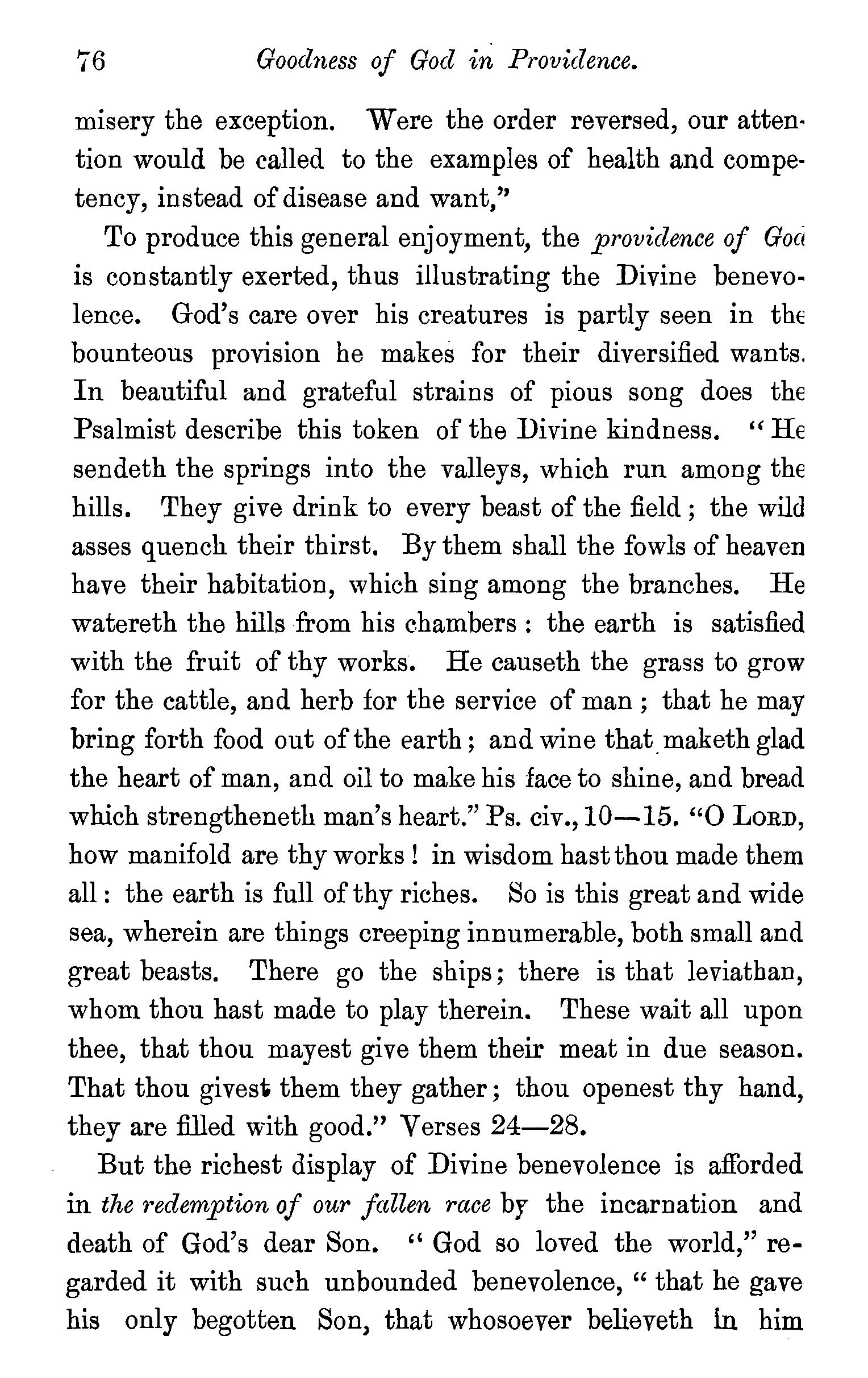
Goodness of Goel in Providence.
misery the exception. Were the order reversed, our attention would be called to the examples of health and competency, instead of disease and want,"
To produce this general enjoyment, the providence of Goci is constantly exerted, thus illustrating the Divine benevolence. God's care over his creatures is partly seen in the bounteous provision he makes for their diversified wants. In beautiful and grateful strains of pious song does the Psalmist describe this token of the Divine kindness. "He sendeth the springs into the valleys, which run among the hills. They give drink to every beast of the :field; the wild asses quench their thirst. By them shall the fowls of heaven have their habitation, which sing among the branches. He watereth the hills from his chambers : the earth is satisfied with the fruit of thy works. He causeth the grass to grow for the cattle, and herb for the service of man ; that he may bring forth food out of the earth; and wine that_maketh glad the heart of man, and oil to make his face to shine, and bread which strengtheneth man's heart." Ps. civ., 10-15. "0 LORD, how manifold are thy works! in wisdom hast thou made them all: the earth is full of thy riches. So is this great and wide sea, wherein are things creeping innumerable, both small and great beasts. There go the ships; there is that leviathan, whom thou hast made to play therein. These wait all upon thee, that thou mayest give them their meat in due season. That thou givesi; them they gather; thou openest thy hand, they are filled with good." Verses 24-28.
But the richest display of Divine benevolence is afforded in the redemption of our fctllen race by the incarnation and death of God's dear Son. " God so loved the world," regarded it with such unbounded benevolence, "that he gave his only begotten Son, that whosoever believeth in him

Goodness of God in Redemption. 77
should not perish, but have everlasting life." John iii., 16. Yea, he " spared not his own Son, but delivered him up for us all." Rom. viii., 32. This was such a display of Divine benevolence as called forth the wonder and joy of the heavenly world. At the birth of Christ, angels sang in harmonious concert, " Glory to God in the highest, and on earth peace, goodwill toward men." Luke ii., 14. And in the study of redeeming love these holy and exalted intelligences are still delightfully employed, " desiring to look into" all its mystery, and to ascertain its height and depth, its length and breadth.
In connection with the mediation of Jesus Christ, and as further illustrative of the goodness of God to man, there are bhemeans divinely instituted to accomplish his enlightenment md salvation. The revelation of the Divine will, the ministry of the Gospel, the gracious operations of the Holy Spirit, and numerous other means having directly in view ,he salvation of our fallen race, afford striking displays of the Divine benevolence. And the actual salvation-the eternal ~licity and glory of countless myriads of the human family, rill manifest through everlasting ages the boundless goodness >rinfinite benevolence of God.
That multitudes finally perish is no solid objection to the Divine benevolence, since salvation has been mercifully pro,ided for all through the sacrificial offering of Christ, and 10ne are lost but through their own wilful rejection of offered nercy, or the neglect of the great salvation which is pro:laimed in the Gospel. '' The Lord is good to all, and his ender mercies are over all his works." Ps. cxlv., 9. He has worn by the certainty and absoluteness of his own existence hat he has " no pleasure in the death of the wicked, but that he wicked turn from his way and live." Ezekiel xxxiii., 11.
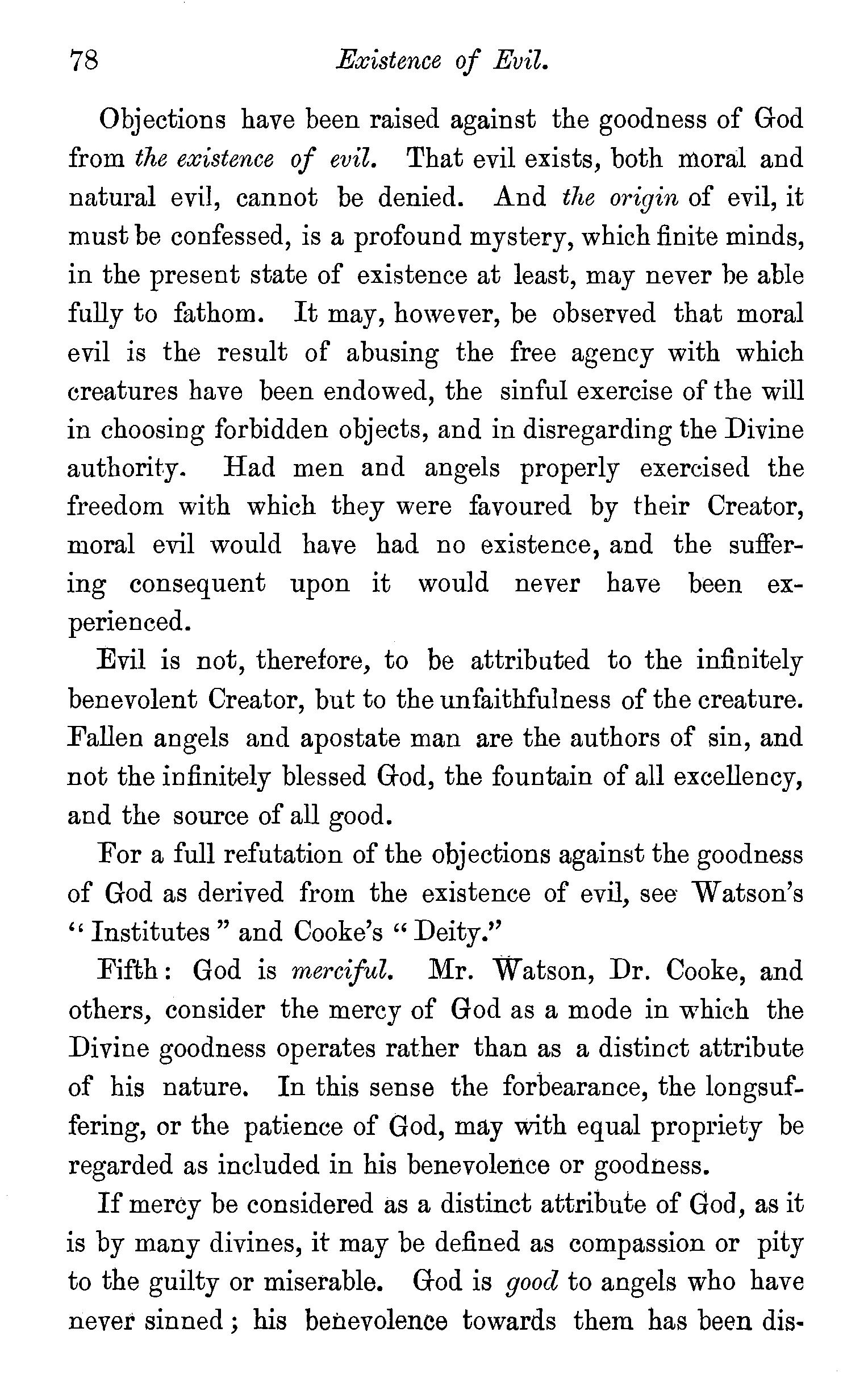
Objections have been raised against the goodness of God from the existence of evil. That evil exists, both moral and natural evil, cannot be denied. And the origin of evil, it must be confessed, is a profound mystery, which finite minds, in the present state of existence at least, may never be able fully to fathom. It may, however, be observed that moral evil is the result of abusing the free agency with which creatures have been endowed, the sinful exercise of the will in choosing forbidden objects, and in disregarding the Divine authority. Had men and angels properly exercised the freedom with which they were favoured by their Creator, moral evil would have had no existence, and the suffering consequent upon it would never have been experienced.
Evil is not, therefore, to be attributed to the infinitely benevolent Creator, but to the unfaithfulness of the creature. Fallen angels and apostate man are the authors of sin, and not the infinitely blessed God, the fountain of all excellency, and the source of all good.
For a full refutation of the objections against the goodness of God as derived from the existence of evil, see Watson's ''Institutes" and Cooke's "Deity.''
Fifth: God is merciful. Mr. Watson, Dr. Cooke, and others, consider the mercy of God as a mode in which the Divine goodness operates rather than as a distinct attribute of his nature. In this sense the forbearance, the longsuffering, or the patience of God, may with equal propriety be regarded as included in his benevolence or goodness.
If mercy be considered as a distinct attribute of God, as it is by many divines, it may be defined as compassion or pity to the guilty or miserable. God is good to angels who have never sinned ; his benevolence towards them has been dis•
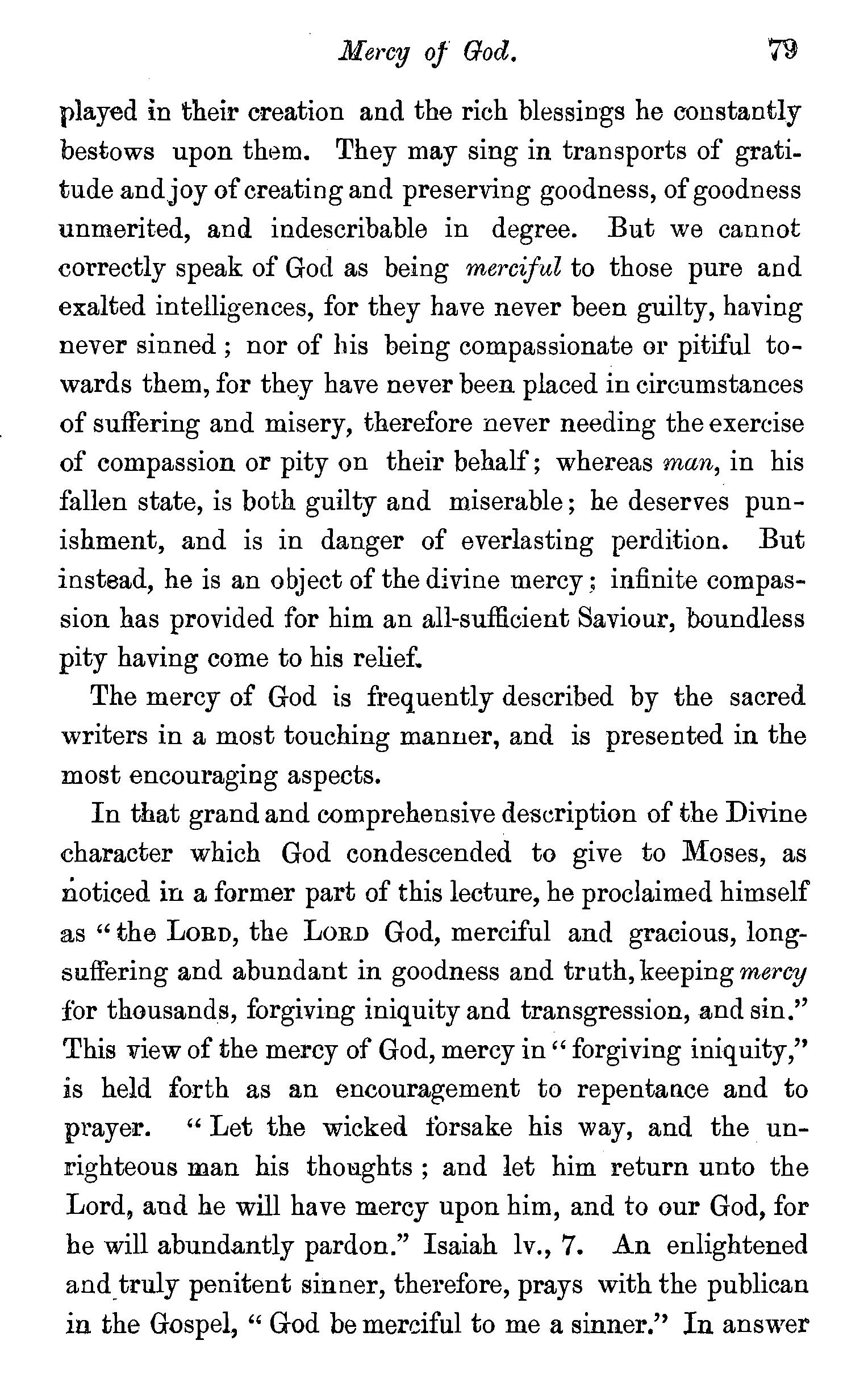
played in their creation and the rich blessings he constantly bestows upon them. They may sing in transports of gratitude andjoy of creating and preserving goodness, of goodness unmerited, and indescribable in degree. But we cannot co-rrectly speak of God as being merciful to those pure and exalted intelligences, for they have never been guilty, having never sinned ; nor of his being compassionate or pitiful towards them, for they have never been placed in circumstances of suffering and misery, therefore never needing the exercise of compassion or pity on their behalf; whereas man, in his fallen state, is both guilty and miserable; he deserves punishment, and is in danger of everlasting perdition. But instead, he is an object of the divine mercy; infinite compassion has provided for him an all-sufficient Saviour, boundless pity having come to his relief.
The mercy of God is frequently described by the sacred writers in a most touching manner, and is presented in the most encouraging aspects.
In that grand and comprehensive description of the Divine character which God condescended to give to Moses, as noticed in a former part of this lecture, he proclaimed himself as "the LoRo, the LORD God, merciful and gracious, longsuffering and abundant in goodness and truth, keeping mercy for thousands, forgiving iniquity and transgression, and sin.'' This view of the mercy of God, mercy in" forgiving iniquity," is held forth as an encouragement to repentance and to prayer. "Let the wicked forsake his way, and the unrighteous man his thoaghts ; and let him return unto the Lord, and he will have mercy upon him, and to our God, for he will abundantly pardon." Isaiah lv., 7. An enlightened and_truly penitent sinner, therefore, prays with the publican in the Gospel, "God be merciful to me a sinner.'' In answer
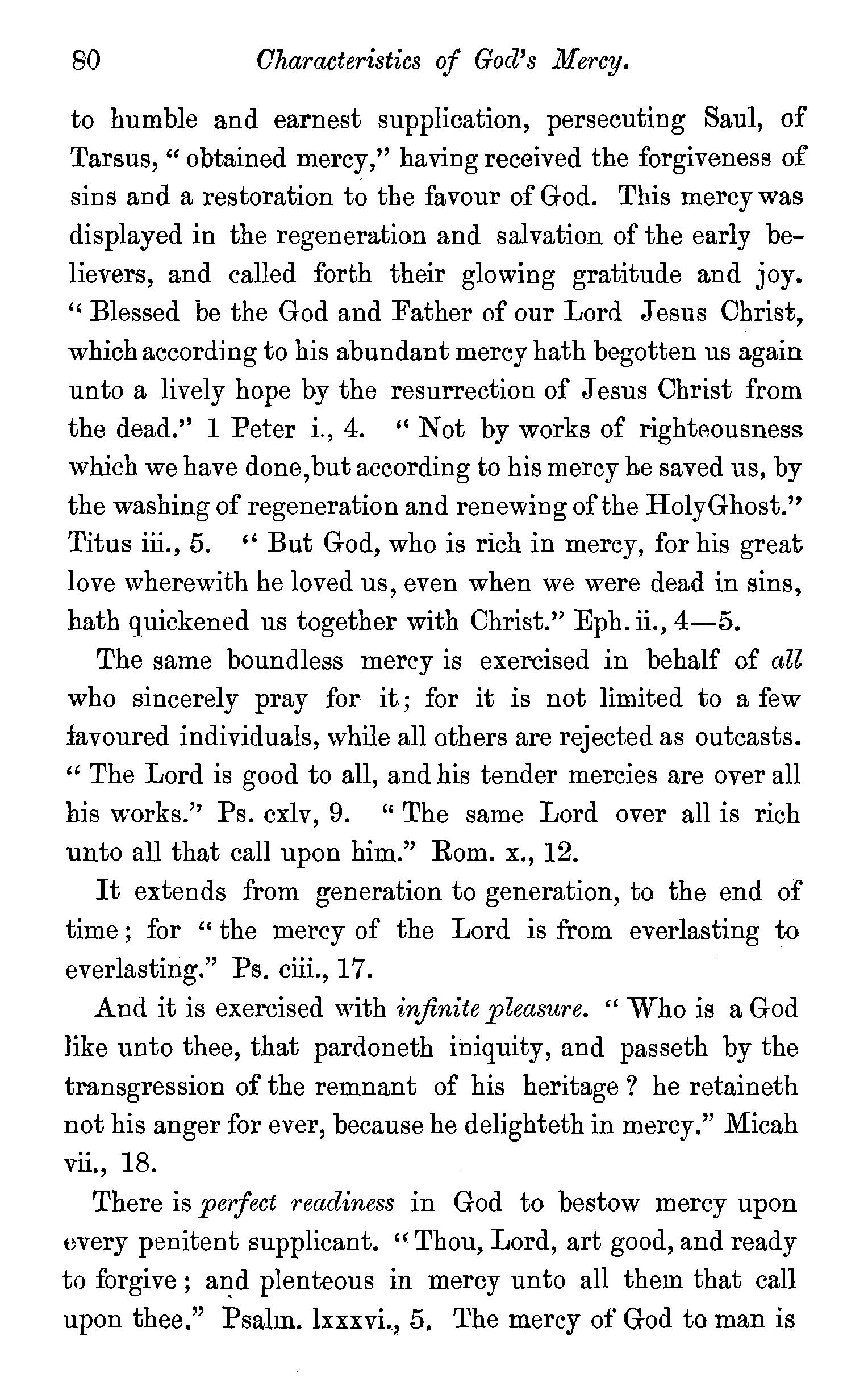
Characteristics of God's Mercy.
to humble and earnest supplication, persecuting Saul, of Tarsus, "obtained mercy," having received the forgiveness of sins and a restoration to the favour of God. This mercy was displayed in the regeneration and salvation of the early believers, and called forth their glowing gratitude and joy. '' Blessed be the God and Father of our Lord Jesus Christ, which according to his abundant mercy hath begotten us again unto a lively hope by the resurrection of Jesus Christ from the dead.'' 1 Peter i., 4. " Not by works of righteousness which we have done,but according to his mercy he saved us, by the washing of regeneration and renewing of the HolyGhost."
Titus iii., 5. " But God, who is rich in mercy, for his great love wherewith he loved us, even when we were dead in sins, hath quickened us together with Christ." Eph. ii., 4-5.
The same boundless mercy is exercised in behalf of all who sincerely pray for it; for it is not limited to a few favoured individuals, while all others are rejected as outcasts. " The Lord is good to all, and his tender mercies are over all his works.'' Ps. cxlv, 9. " The same Lord over all is rich unto all that call upon him.." Rom. x., 12.
It extends from generation to generation, to the end of time ; for " the mercy of the Lord is from everlasting to everlasting." Ps. ciii., 17.
And it is exercised with infinite pleasure. " Who is a God like unto thee, that pardoneth iniquity, and passeth by the transgression of the remnant of his heritage ? he retaineth not his anger for ever, because he delighteth in mercy.'' Micah vii., 18.
There is perfect readiness in God to bestow mercy upon every penitent supplicant. '' Thou, Lord, art good, and ready to forgive ; a~d plenteous in mercy unto all them that call upon thee." Psalm. lxxxvi., 5. The mercy of God to man is
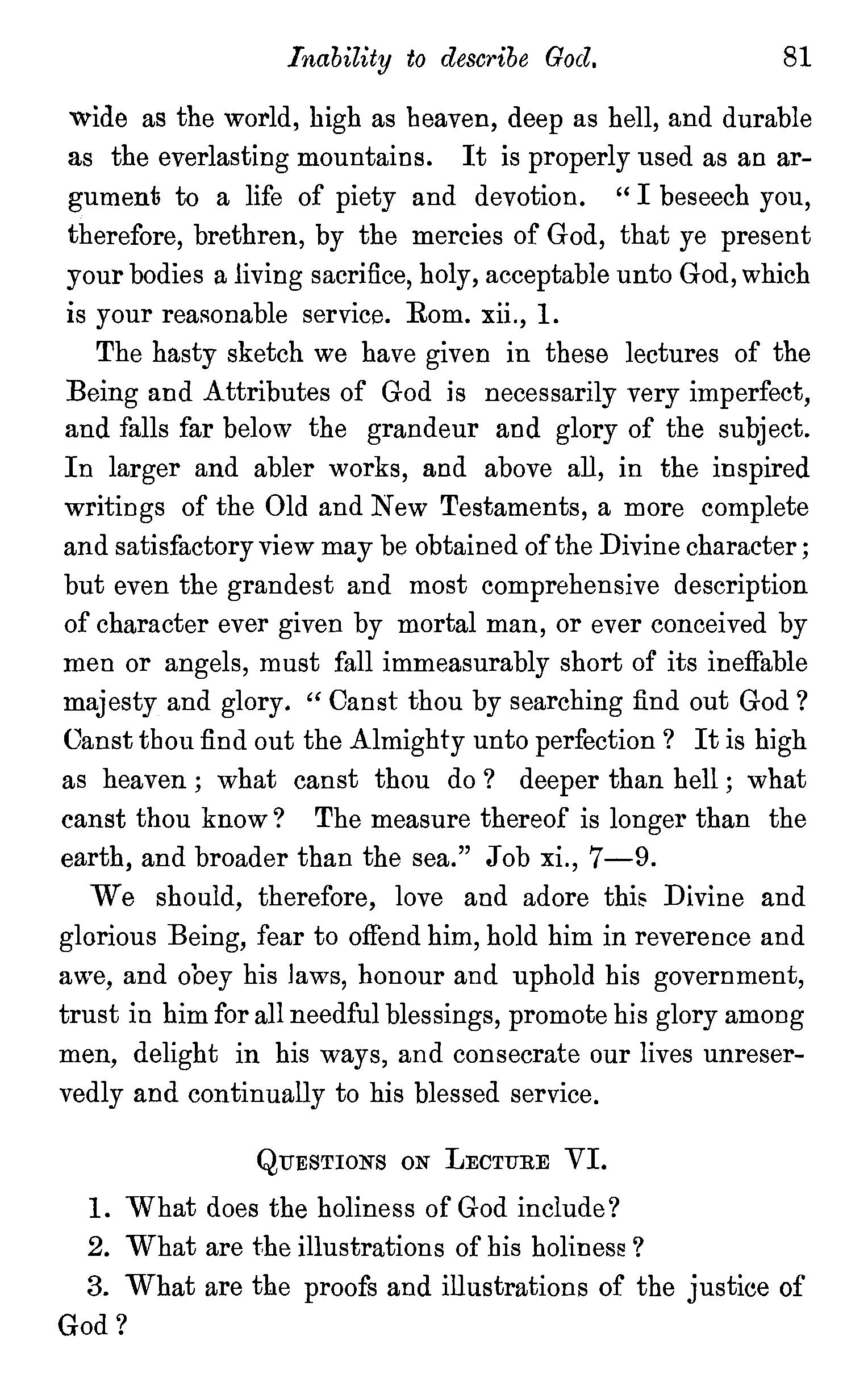
wide as the world, high as heaven, deep as hell, and durable as the everlasting mountains. It is properly used as an argument to a life of piety and devotion. " I beseech you, therefore, brethren, by the mercies of God, that ye present your bodies a living sacrifice, holy, acceptable unto God, which is your reaRonable service. Rom. xii., I.
The hasty sketch we have given in these lectures of the Being and Attributes of God is necessarily very imperfect, and falls far below the grandeur and glory of the subject. In larger and abler works, and above all, in the inspired writings of the Old and New Testaments, a more complete and satisfactory view may be obtained of the Divine character; but even the grandest and most comprehensive description of character ever given by mortal man, or ever conceived by men or angels, must fall immeasurably short of its ineffable majesty and glory. "Canst thou by searching find out God? Canst thou find out the Almighty unto perfection ? It is high as heaven; what canst thou do? deeper than hell; what canst thou know? The measure thereof is longer than the earth, and broader than the sea." Job xi., 7-9.
We should, therefore, love and adore thi~ Divine and glorious Being, fear to offend him, hold him in reverence and awe, and obey his laws, honour and uphold his government, trust in him for all needful blessings, promote his glory among men, delight in his ways, and consecrate our lives unreservedly and continually to his blessed service.
I. What does the holiness of God include?
2. What are the illustrations of his holiness ?
3. What are the proofs and illustrations of the justice of God?
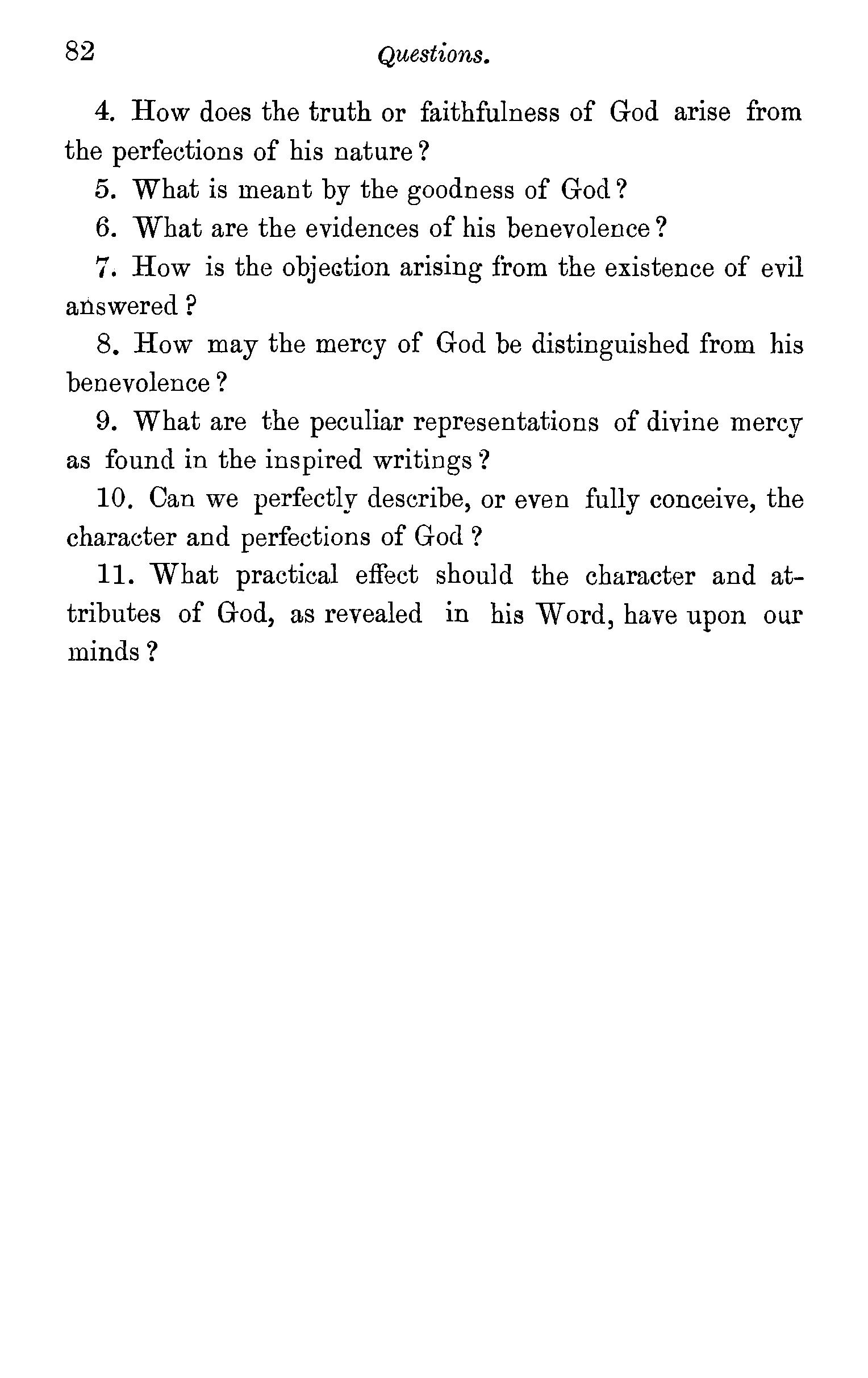
4. How does the truth or faithfulness of God arise from the perfections of his nature?
5. What is meant by the goodness of God?
6. What are the evidences of his benevolence ?
7. How is the objeation arising from the existence of evil answered?
8. How may the mercy of God be distinguished from his benevolence ?
9. What are the peculiar representations of divine mercy as found in the inspired writings?
10. Can we perfectly describe, or even fully conceive, the character and perfections of Goel ?
11. What practical effect should the character and attributes of God, as revealed in his Word, have upon our minds?
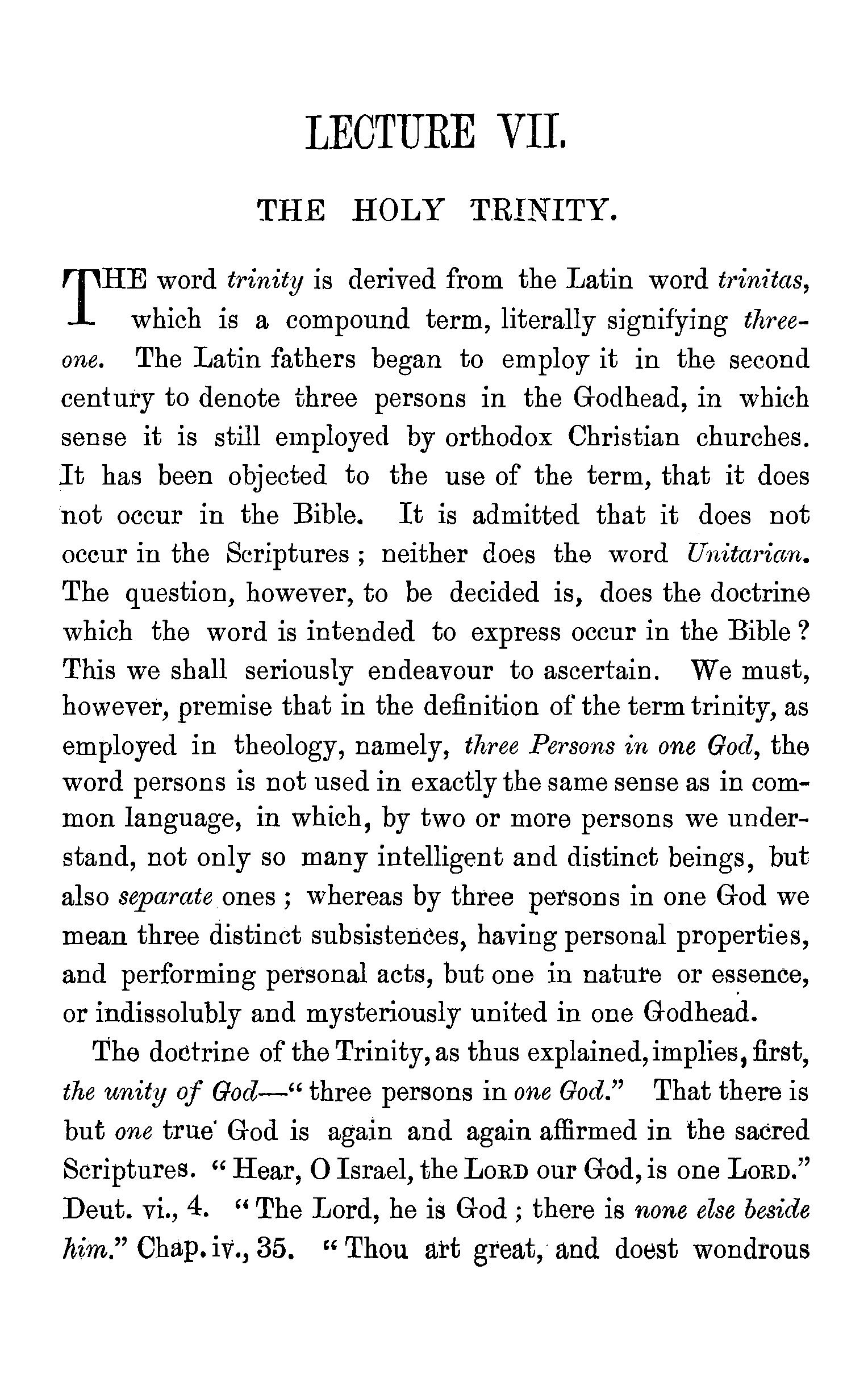
THE word trinity is derived from the Latin word trim"tas, which is a compound term, literally signifying threeone. The Latin fathers began to employ it in the second century to denote three persons in the Godhead, in which sense it is still employed by orthodox Christian churches. It has been objected to the use of the term, that it does not occur in the Bible. It is admitted that it does not occur in the Scriptures ; neither does the word Unitarian. The question, however, to be decided is, does the doctrine which the word is intended to express occur in the Bible ? This we shall seriously endeavour to ascertain. We must, however, premise that in the definition of the term trinity, as employed in theology, namely, three Persons in one Goel, the word persons is not used in exactly the same sense as in common language, in which, by two or more persons we understand, not only so many intelligent and distinct beings, but also separate ones; whereas by three persons in one God we mean three distinct subsistences, having personal properties, and performing personal acts, but one in nature or es~ence, or indissolubly and mysteriously united in one Godhead.
The doctrine of the Trinity, as thus explained, implies, first, the unity of Goel-" three persons in one God." That there is but one true· God is again and again affirmed in the sacred Scriptures. "Hear, 0 Israel, the LoRDour God, is one LoRD." Deut. vi., 4. " The Lord, he is God ; there is none else beside him." Chap. iv., 35. "Thou art great, and doest wondrous
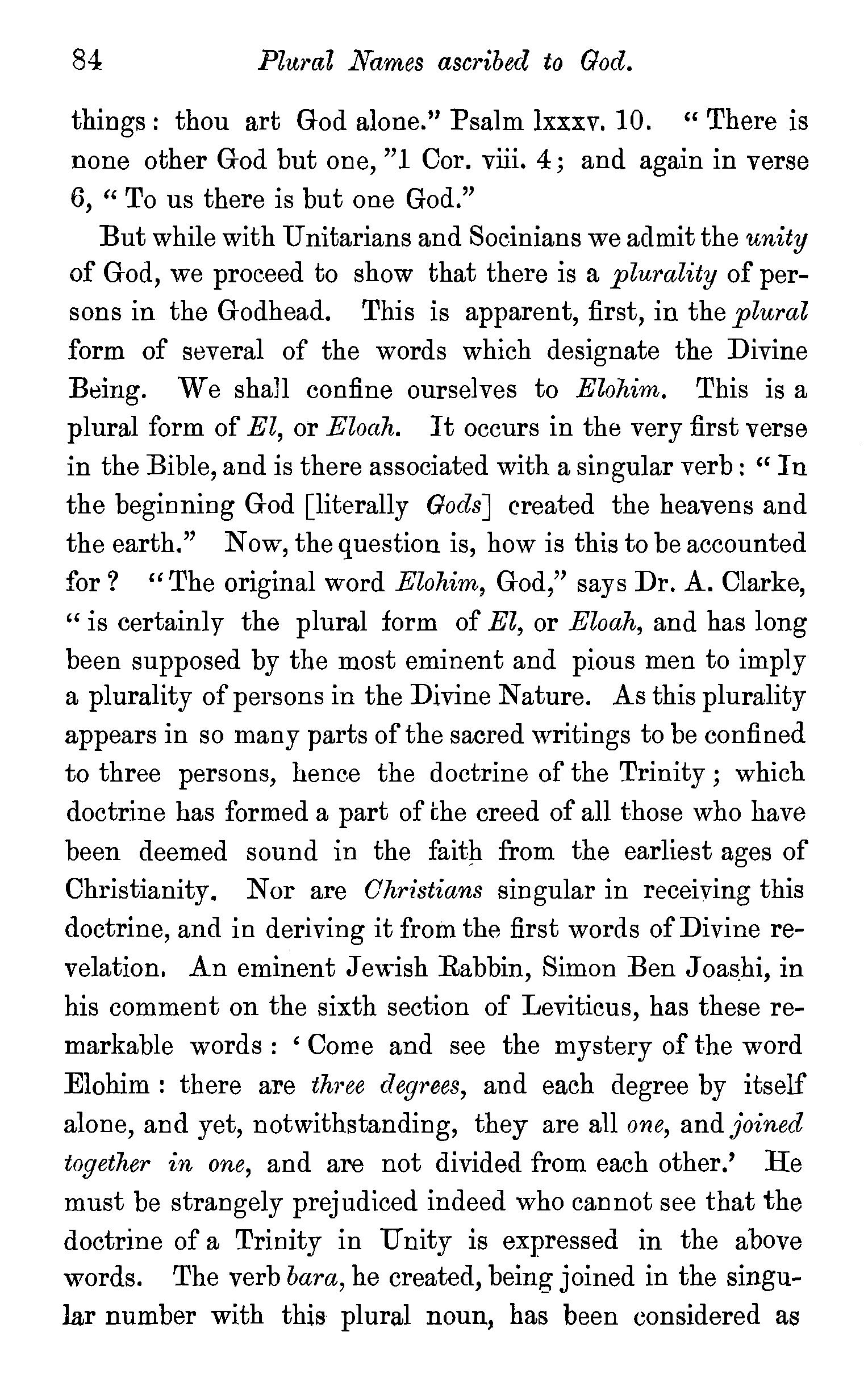
Plural Names ascribed to God.
things: thou art God alone." Psalm lxxxv. 10. " There is none other God but one, "l Cor. viii. 4; and again in verse 6, " To us there is but one God."
But while with Unitarians and Socinians we admit the unity of God, we proceed to show that there is a plurality of persons in the Godhead. This is apparent, first, in the plural form of several of the words which designate the Divine Being. We shaJl confine ourselves to Elohim. This is a plural form of El, or Eloah. It occurs in the very first verse in the Bible, and is there associated with a singular verb: "In the beginning God [literally GodsJ created the heavens and the earth." Now, the question is, how is this to be accounted for? "The original word Elohim, God," says Dr. A. Clarke, " is certainly the plural form of El, or Eloah, and has long been supposed by the most eminent and pious men to imply a plurality of persons in the Divine Nature. As this plurality appears in so many parts of the sacred writings to be confined to three persons, hence the doctrine of the Trinity ; which doctrine has formed a part of the creed of all those who have been deemed sound in the faitp from the earliest ages of Christianity. Nor are Christians singular in receiving this doctrine, and in deriving it from the first words of Divine revelation, An eminent Jewish Rab bin, Simon Ben J oas_hi,in his comment on the sixth section of Leviticus, has these remarkable words : ' Come and see the mystery of the word Elohim : there are three degrees, and each degree by itself alone, and yet, notwithstanding, they are all one, and Joined together in one, and are not divided from each other.' He must be strangely prejudiced indeed who cannot see that the doctrine of a Trinity in Unity is expressed in the above words. The verb bara, he created, being joined in the singular number with this plural noun, has been considered as
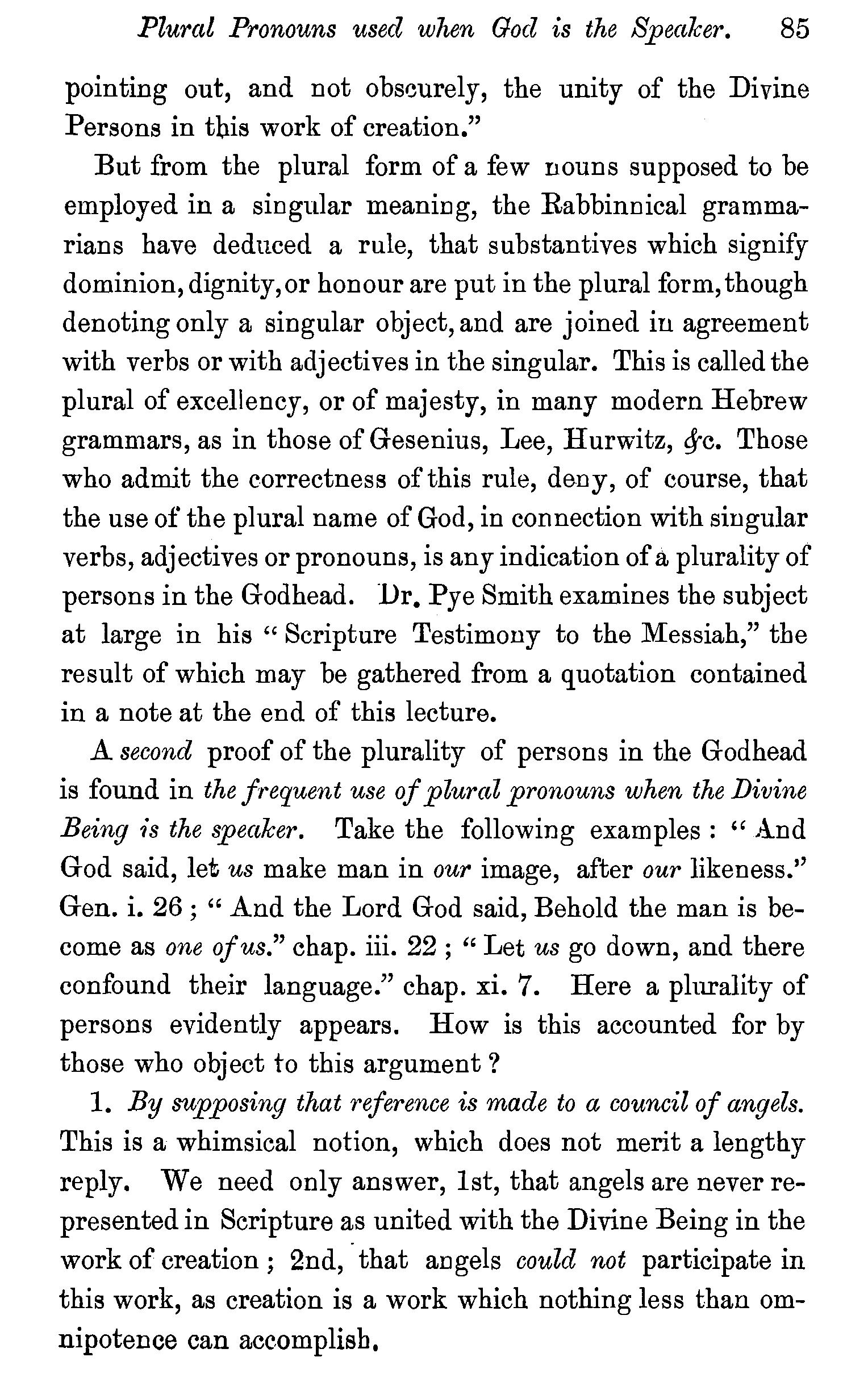
pointing out, and not obscurely, the unity of the Divine Persons in this work of creation."
But from the plural form of a few nouns supposed to be employed in a singular meaning, the Rabbinnical grammarians have deduced a rule, that substantives which signify dominion, dignity,or honour are put in the plural form, though denoting only a singular object, and are joined in agreement with verbs or with adjectives in the singular. This is called the plural of excellency, or of majesty, in many modern Hebrew grammars, as in those of Gesenius, Lee, Hurwitz, g-c. Those who admit the correctness of this rule, deny, of course, that the use of the plural name of God, in connection with singular verbs, adjectives or pronouns, is any indication of a plurality of persons in the Godhead. Dr. Pye Smith examines the subject at large in his " Scripture Testimony to the Messiah," the result of which may be gathered from a quotation contained in a note at the end of this lecture.
A second proof of the plurality of persons in the Godhead is found in the frequent use of plural pronouns when the Divine Being 1·sthe speaker. Take the following examples: "A.nd God said, let us make man in our image, after our likeness.'' Gen. i. 26 ; " And the Lord God said, Behold the man is become as one of us." chap. iii. 22 ; "Let us go down, and there confound their language." chap. xi. 7. Here a plurality of persons evidently appears. How is this accounted for by those who object to this argument?
1. By supposing that reference is made to a council of angels. This is a whimsical notion, which does not merit a lengthy reply. We need only answer, 1st, that angels are never represented in Scripture as united with the Divine Being in the work of creation ; 2nd, •that angels could not participate in this work, as creation is a work which nothing less than omnipotence can accomplish.
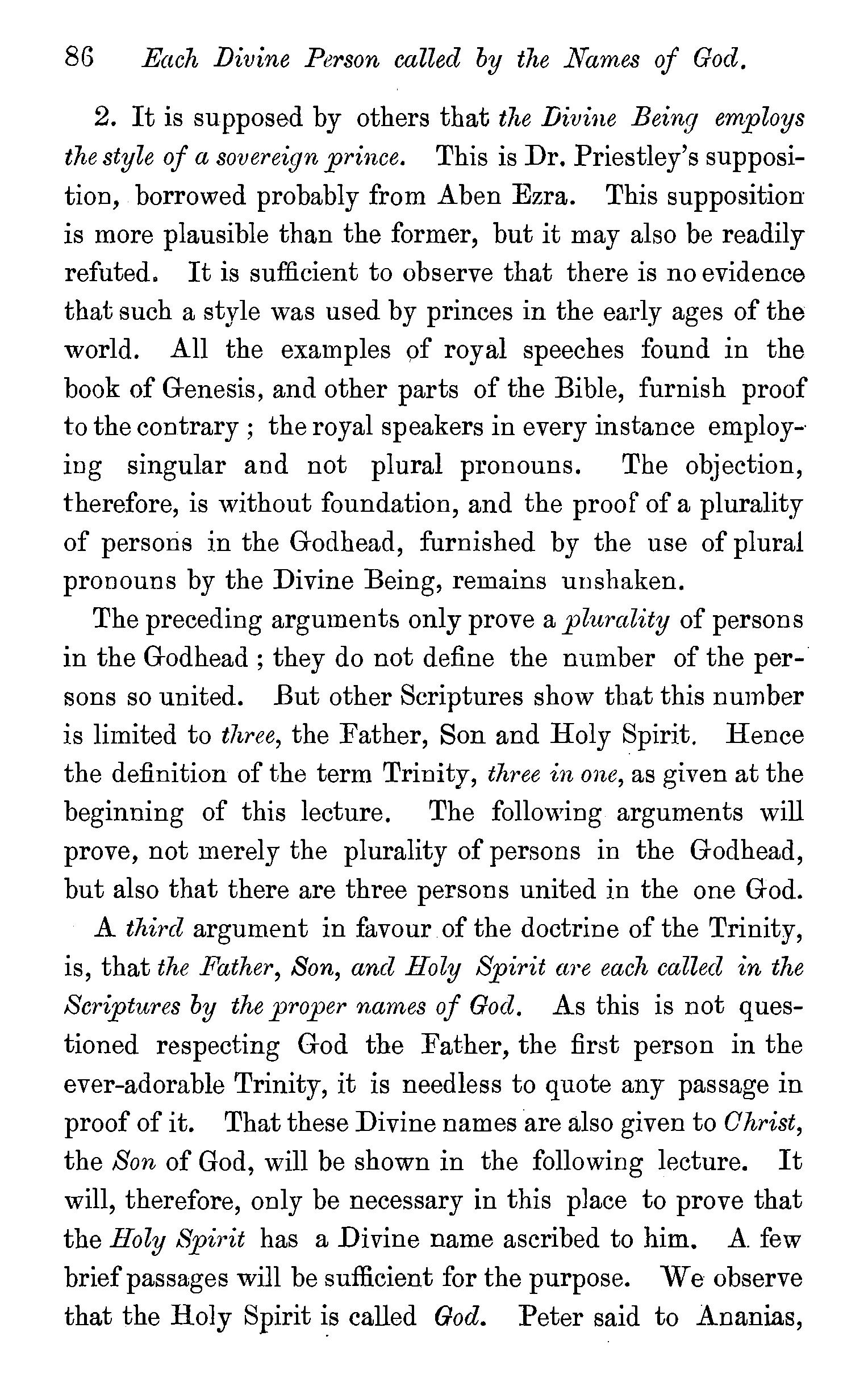
86 Each Divine Person called by the Names of God.
2. It is supposed by others that the Divine Being employs the style of a sovereignprince. This is Dr. Priestley's supposition, borrowed probably from Aben Ezra. This supposition is more plausible than the former, but it may also be readily refuted. It is sufficient to observe that there is no evidence that such a style was used by princes in the early ages of the world. All the examples 9f royal speeches found in the book of Genesis, and other parts of the Bible, furnish proof to the contrary ; the royal speakers in every instance employ-· ing singular and not plural pronouns. The objection, therefore, is without foundation, and the proof of a plurality of persoris in the Godhead, furnished by the use of plural pronouns by the Divine Being, remains unshaken.
The preceding arguments only prove a plnmlity of persons in the Godhead ; they do not define the number of the persons so united. But other Scriptures show that this number is limited to three, the Father, Son and Holy Spirit. Hence the definition of the term Trinity, three in one, as given at the beginning of this lecture. The following arguments will prove, not merely the plurality of persons in the Godhead, but also that there are three persons united in the one God.
A thircl argument in favour of the doctrine of the Trinity, is, that the Father, Son, ancl Holy Spirit ctre each called in the Scriptnres by the proper names of Goel. As this is not questioned respecting God the Father, the first person in the ever-adorable Trinity, it is needless to quote any passage in proof of it. That these Divine names are also given to Christ, the Son of God, will be shown in the following lecture. It will, therefore, only be necessary in this place to prove that the Holy Spirit has a Divine name ascribed to him. .A.few brief passages will be sufficient for the purpose. We observe that the Holy Spirit ~s called God. Peter said to Ananias,
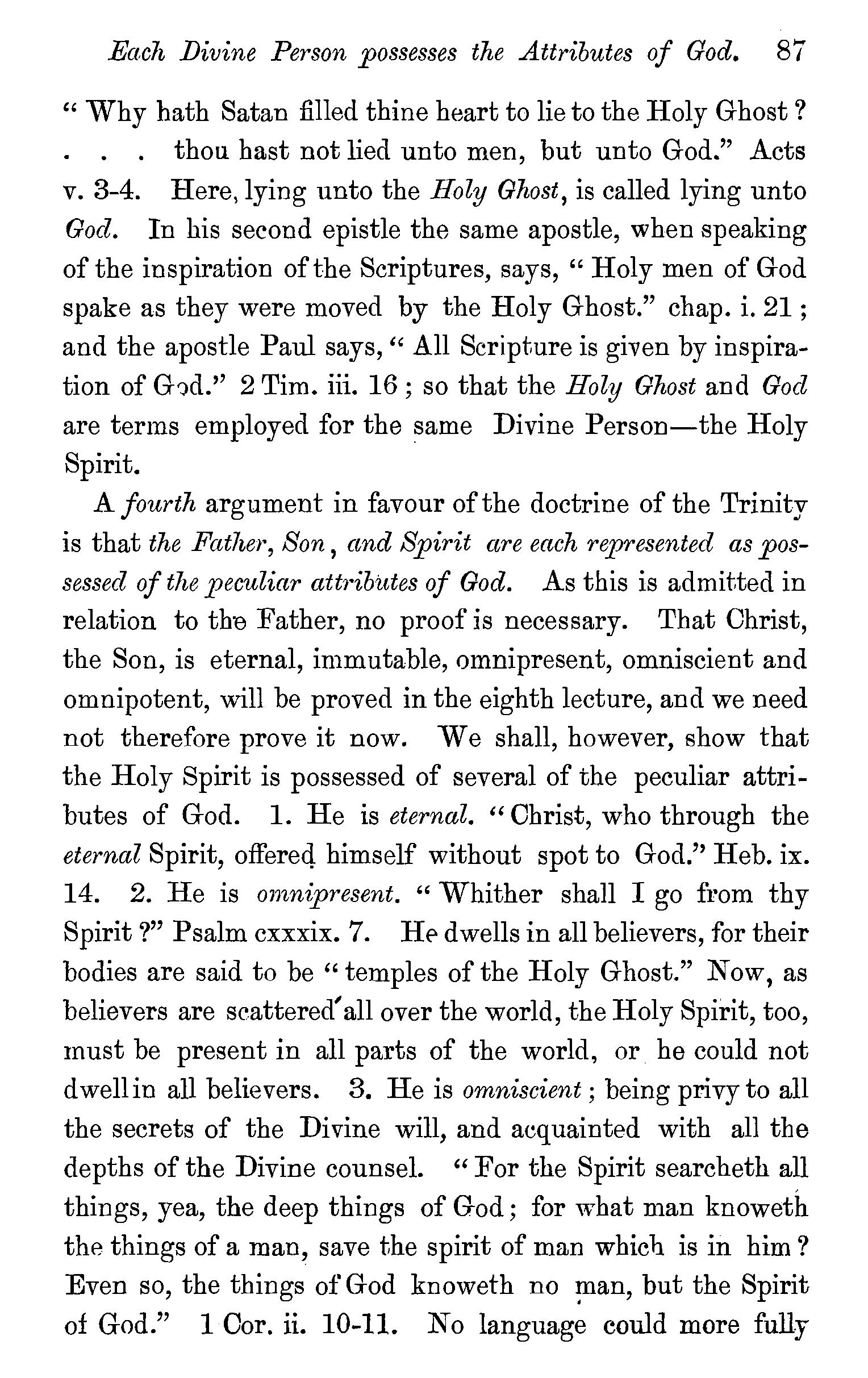
Each Divine Person possesses the Attributes of God. 87
" Why hath Satan filled thine heart to lie to the Holy Ghost? thou bast not lied unto men, but unto God." Acts v. 3-4. Here, lying unto the Holy Ghost, is called lying unto God. In his second epistle the same apostle, when speaking of the inspiration of the Scriptures, says, "Holy men of God spake as they were moved by the Holy Ghost." chap. i. 21; and the apostle Paul says, " All Scripture is given by inspiration of G')d.'' 2 Tim. iii. 16; so that the Holy Ghost and Goel are terms employed for the same Divine Person-the Holy Spirit.
A fourth argument in favour of the doctrine of the Trinity is that the Father, Son, and Spirit are each represented as possessed of the peculictr attribittes of God. As this is admitted in relation to the Father, no proof is necessary. That Christ, the Son, is eternal, immutable, omnipresent, omniscient and omnipotent, will be proved in the eighth lecture, and we need not therefore prove it now. We shall, however, show that the Holy Spirit is possessed of several of the peculiar attributes of God. 1. He is eternal. " Christ, who through the eternal Spirit, offereq.himself without spot to God.'' Heb. ix. 14. 2. He is 01nn1present. " Whither shall I go from thy Spirit?" Psalm cxxxix. 7. He dwells in all believers, for their bodies are said to be "temples of the Holy Ghost." Now, as believers are scattered' all over the world, the Holy Spirit, too, must be present in all parts of the world, or he could not dwellin all believers. 3. He is omniscient; being privy to all the secrets of the Divine will, and acquainted with all the depths of the Divine counsel. "For the Spirit searcheth all things, yea, the deep things of God; for what man knoweth the things of a man, save the spirit of man whicb. is in him? Even so, the things of God knoweth no !11an,but the Spirit of God." 1 Cor. ii. 10-11. No language could more fully
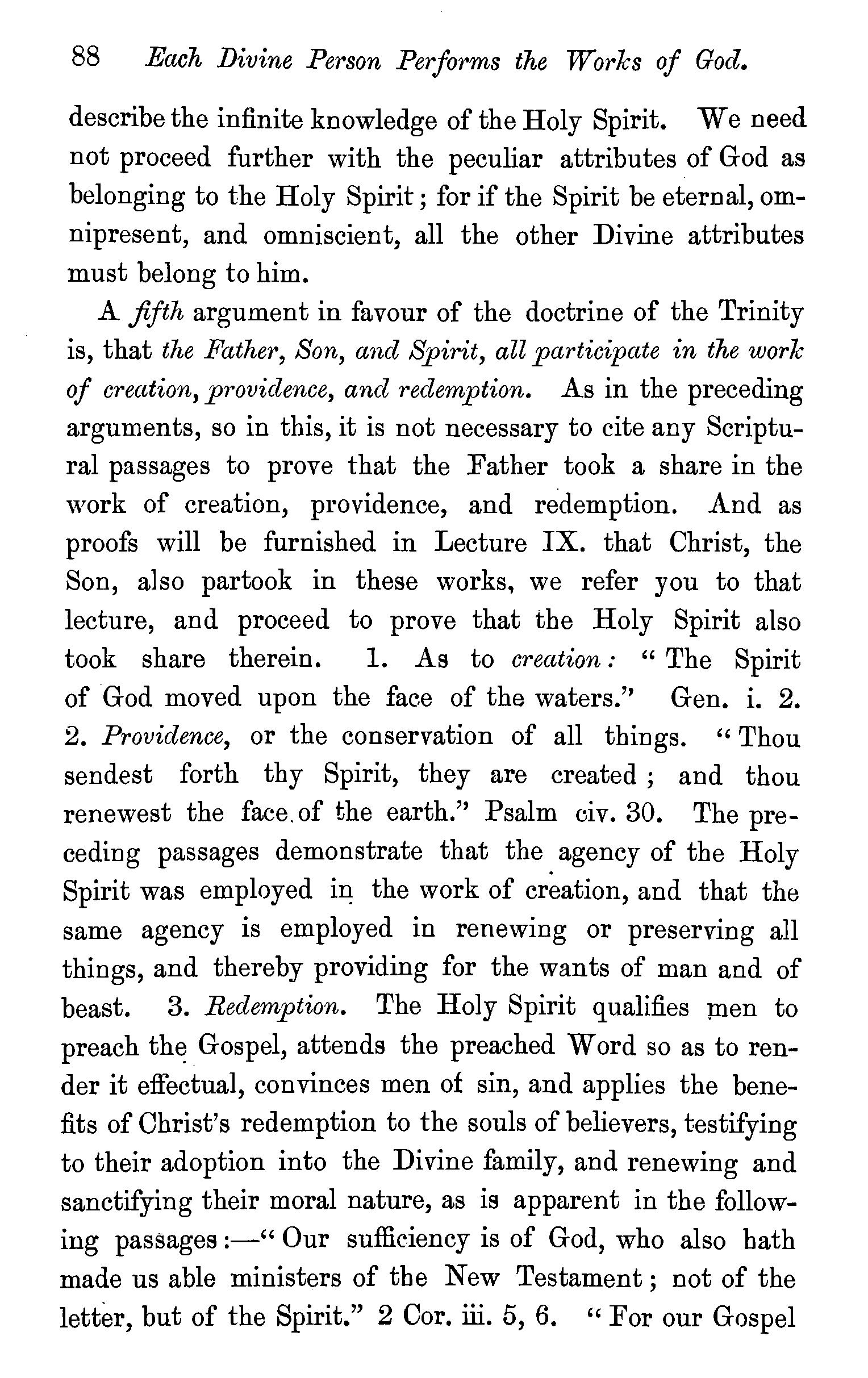
88 Each Divine Person Performs the Worlcs of God. describe the infinite knowledge of the Holy Spirit. We need not proceed further with the peculiar attributes of God as belonging to the Holy Spirit; for if the Spirit be eternal, omnipresent, and omniscient, all the other Divine attributes must belong to him.
A fifth argument in favour of the doctrine of the Trinity is, that the Father, Son, and Spirit, all participate in the worlc of crecttion,providence, and redemption. As in the preceding arguments, so in this, it is not necessary to cite any Scriptural passages to prove that the Father took a share in the work of creation, providence, and redemption. And as proofs will be furnished in Lecture IX. that Christ, the Son, also partook in these works, we refer you to that lecture, and proceed to prove that the Holy Spirit also took share therein. 1. As to creation : " The Spirit of God moved upon the face of the waters.'' Gen. i. 2. 2. Providence, or the conservation of all things. " Thou sendest forth thy Spirit, they are created ; and thou renewest the face. of the earth." Psalm civ. 30. The preceding passages demonstrate that the agency of the Holy Spirit was employed il! the work of cr~ation, and that the same agency is employed in renewing or preserving all things, and thereby providing for the wants of man and of beast. 3. Redemption. The Holy Spirit qualifies JI}en to preach th~ Gospel, attends the preached Word so as to render it effectual, convinces men of sin, and applies the benefits of Christ's redemption to the souls of believers, testifying to their adoption into the Divine family, and renewing and sanctifying their moral nature, as is apparent in the following passages:-" Our sufficiency is of God, who also hath made us able ministers of the New Testament; not of the letter, but of the Spirit." 2 Cor. iii. 5, 6. "For our Gospel
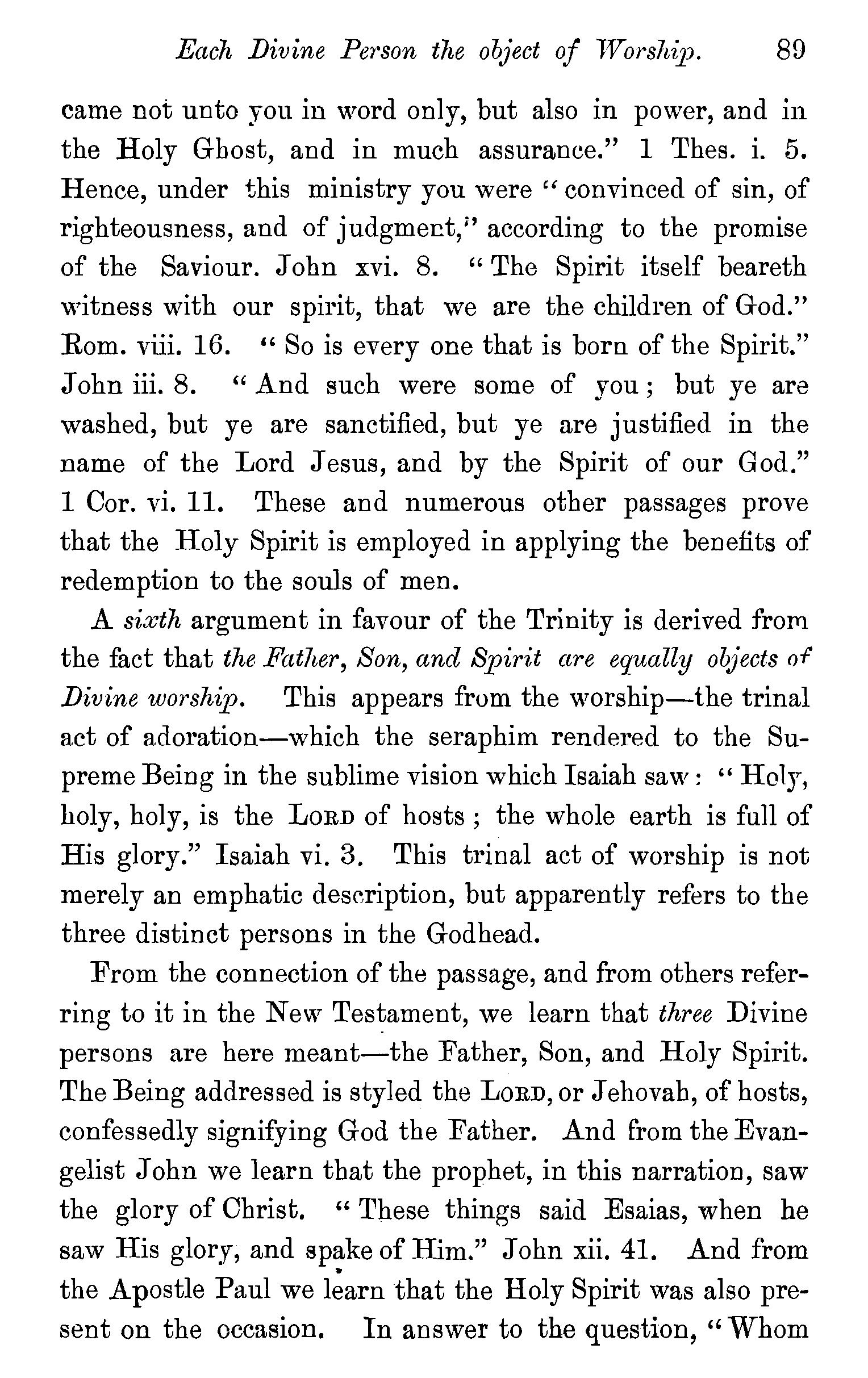
Each Divine Person the object of Worship. 89
came not unto you in word only, but also in power, and in the Holy Ghost, and in much assurance." 1 Thes. i. 5. Hence, under this ministry you were "convinced of sin, of righteousness, and of judgmed," according to the promise of the Saviour. John xvi. 8. "The Spirit itself beareth witness with our spirit, that we are the children of God." Rom. viii. 16. " So is every one that is born of the Spirit." John iii. 8. " And such were some of you ; but ye are washed, but ye are sanctified, but ye are justified in the name of the Lord Jesus, and by the Spirit of our God."
1 Cor. vi. 11. These and numerous other passages prove that the Holy Spirit is employed in applying the benefits of redemption to the souls of men.
A sixth argument in favour of the Trinity is derived froIYl the fact that the Father, Son, and Spirit are equally objectsof Divine worship. This appears from the worship-the trinal act of adoration-which the seraphim rendered to the Supreme Being in the sublime vision which Isaiah saw: " Holy, holy, holy, is the LORDof hosts; the whole earth is full of His glory." Isaiah vi. 3. This trinal act of worship is not merely an emphatic description, but apparently refers to the three distinct persons in the Godhead.
From the connection of the passage, and from others referring to it in the New Tes~ament, we learn that three Divine persons are here meant-the Father, Son, and Holy Spirit. The Being addressed is styled the LORD,or Jehovah, of hosts, confessedly signifying God the Father. And from the Evangelist John we learn that the prophet, in this narration, saw the glory of Christ. "These things said Esaias, when he saw His glory, and sp~ke of Him." John xii. 41. And from the Apostle Paul we learn that the Holy Spirit was also present on the occasion. In answer to the question, "Whom
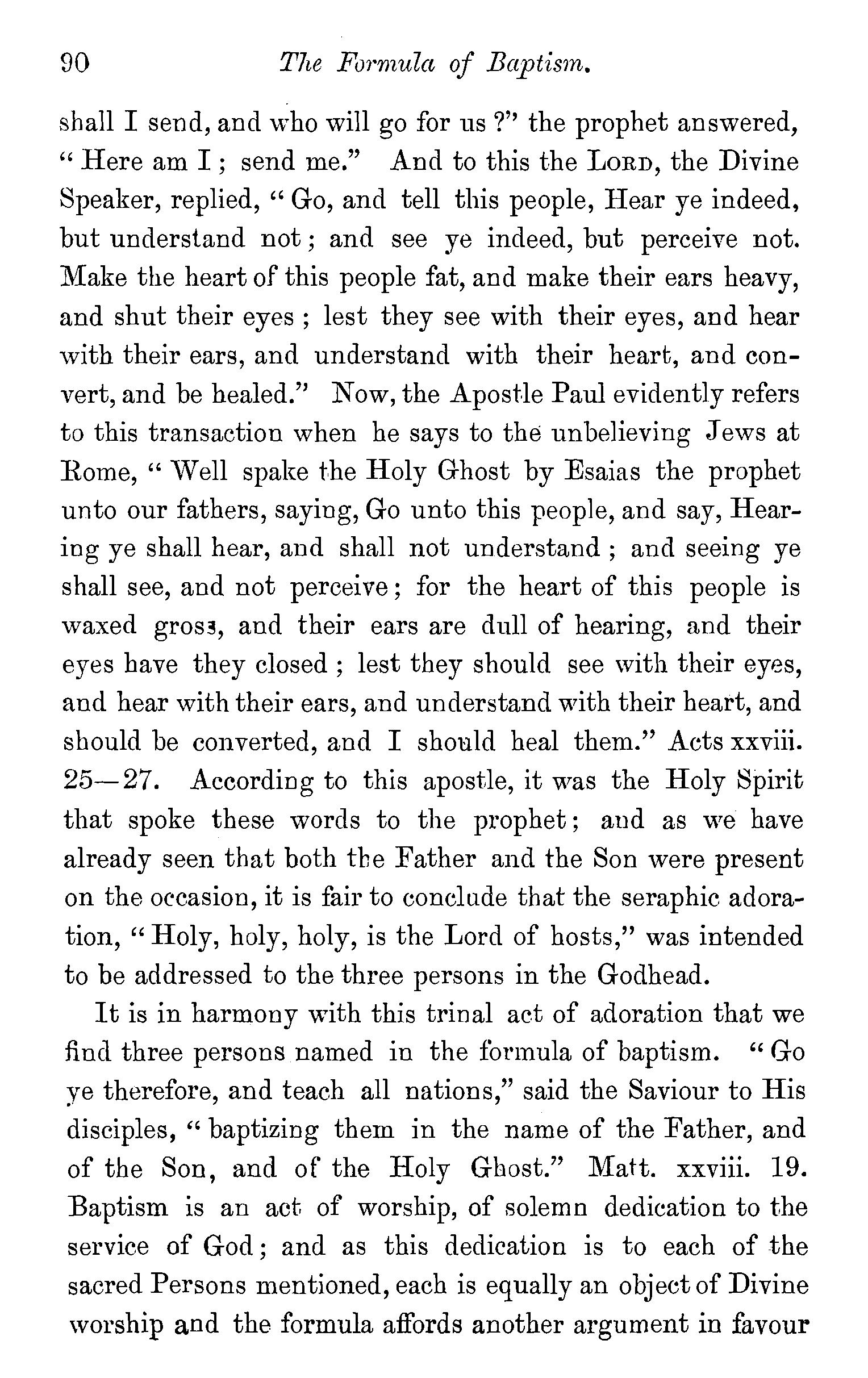
shall I send, and who will go for us ?'' the prophet answered, " Here am I ; send me." And to this the LoRn, the Divine Speaker, replied, "Go, and tell this people, Hear ye indeed, but understand not ; and see ye indeed, but perceive not. Make the heart of this people fat, and make their ears heavy, and shut their eyes ; lest they see with their eyes, and hear with their ears, and understand with their heart, and convert, and be healed." Now, the Apost1e Paul evidently refers to this transaction when he says to the unbelieving Jews at Rome, " Well spake the Holy Ghost by Esaias the prophet unto our fathers, saying, Go unto this people, and say, Hearing ye shall hear, and shall not understand ; and seeing ye shall see, and not perceive; for the heart of this people is waxed gros~, and their ears are dull of hearing, and their eyes have they closed; lest they should see with their eyes, and hear with their ears, and understand with their heart, and should be converted, and I should heal them." Acts xxviii. 25-27. According to this apostle, it was the Holy Spirit that spoke these words to the prophet; and as we have already seen that both tbe Father and the Son were present on the occasion, it is fair to conclude that the seraphic adoration, "Holy, holy, holy, is the Lord of hosts," was intended to be addressed to the three persons in the Godhead. It is in harmony with this trinal act of adoration that we find three persons named in the formula of baptism. " Go ye therefore, and teach all nations," said the Saviour to His disciples, "baptizing them in the name of the Father, and of the Son, and of the Holy Ghost." Matt. xxviii. 19. Baptism is an act of worship, of solemn dedication to the service of God; and as this dedication is to each of the sacred Persons mentioned, each is equally an object of Divine worship and the formula affords another argument in favour
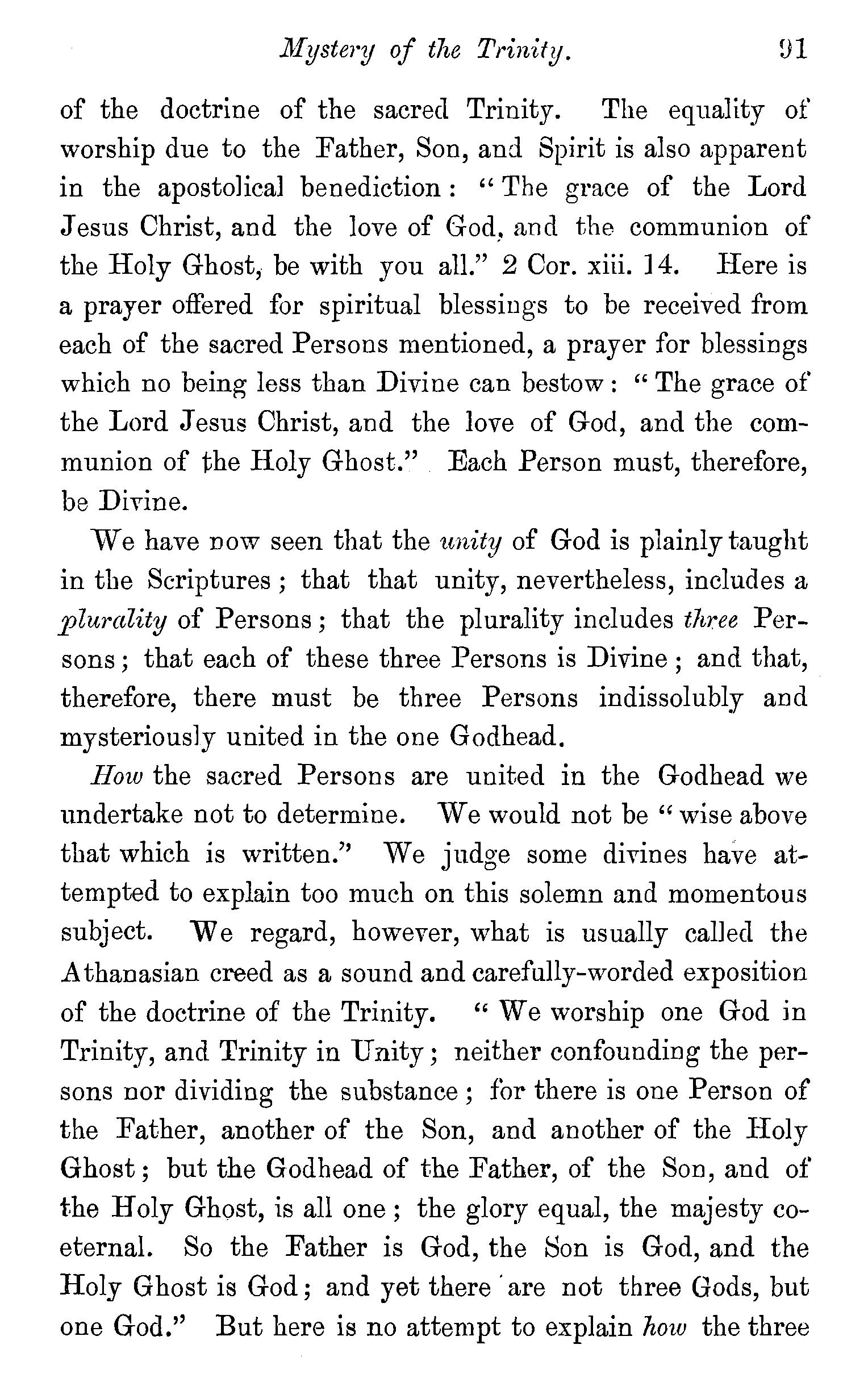
of the Trinity. Ul of the doctrine of the sacred Trinity. The equality of worship due to the Father, Son, and Spirit is also apparent in the aposto]ical benediction : " The grace of the Lord Jesus Christ, and the love of God~ and the communion of the Holy Ghost, be with you all." 2 Cor. xiii. ] 4. Here is a prayer offered for spiritual blessings to be received from each of the sacred Persons mentioned, a prayer for blessings which no being less than Divine can bestow : " The grace of the Lord Jesus Christ, and the love of God, and the communion of the Holy Ghost." Each Person must, therefore, be Divine.
We have now seen that the nnity of God is plainly taught in the Scriptures ; that that unity, nevertheless, includes a plurality of Persons; that the plurality includes three Persons ; that each of these three Persons is Divine ; and that, therefore, there must be three Persons indissolubly and mysteriously united in the one Godhead.
How the sacred Persons are united in the Godhead we undertake not to determine. We would not be "wise above that which is written.'' We judge some divines have attempted to explain too much on this solemn and momentous subject. We regard, however, what is usually called the A thanasian creed as a sound and carefully-worded exposition of the doctrine of the Trinity. " We worship one God in Trinity, and Trinity in U :nity; neither confounding the persons nor dividing the substance ; for there is one Person of the Father, another of the Son, and another of the Holy Ghost; but the Godhead of the Father, of the Son, and of the Holy Ghost, is all one ; the glory equal, the majesty coeternal. So the Father is God, the Son is God, and the Holy Ghost is God; and yet there· are not three Gods, but one God.'' But here is no attempt to explain how the three
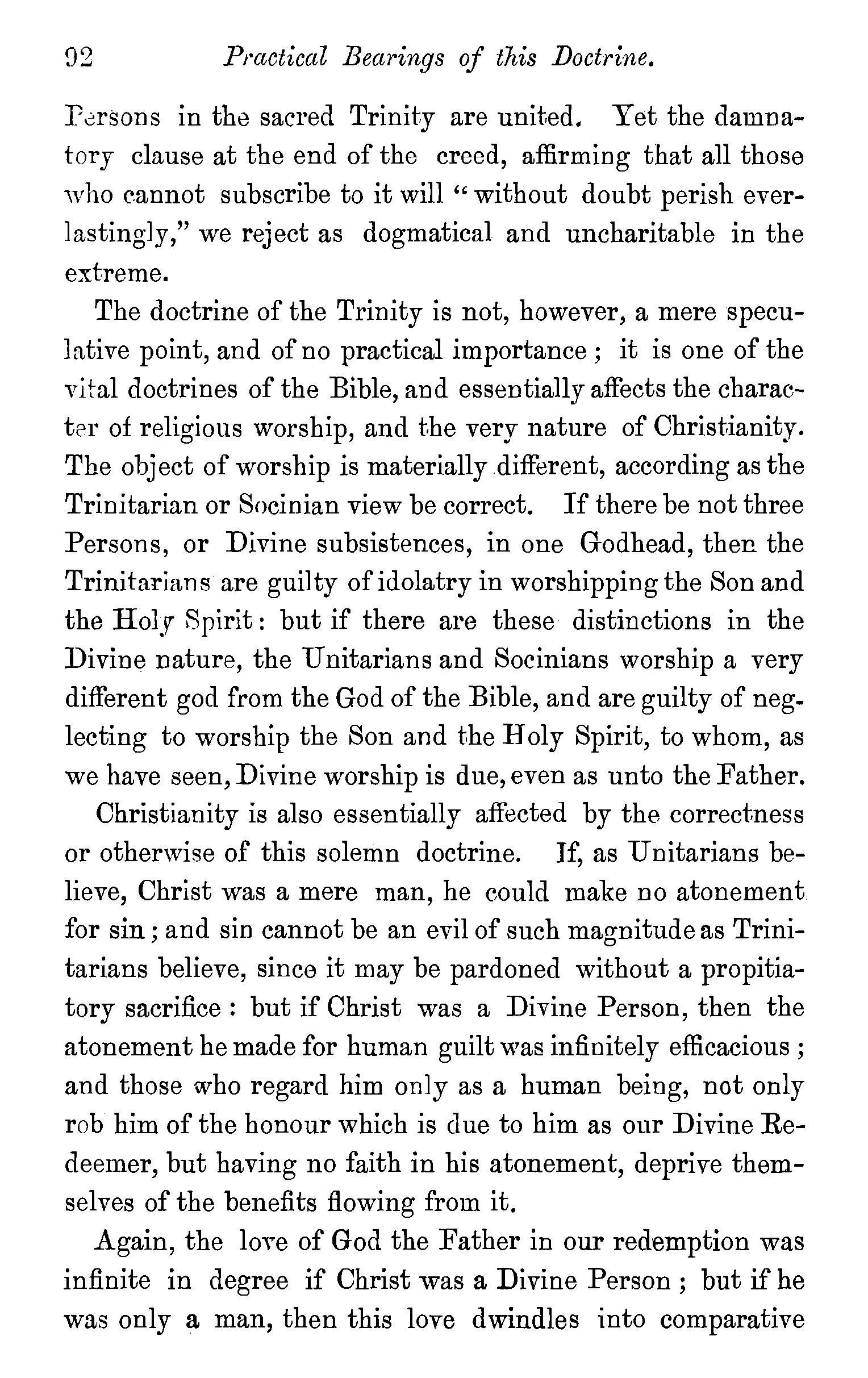
I\::rsons in the sacred Trinity are united. Yet the damnatory clause at the end of the creed, affirming that all those who cannot subscribe to it will "without doubt perish everlastingly," we reject as dogmatical and uncharitable in the extreme.
The doctrine of the Trinity is not, however, a mere speculative point, and of no practical importance ; it is one of the vital doctrines of the Bible, and essentially affects the character of religious worship, and the very nature of Christianity. The object of worship is materially different, according as the Trinitarian or Socinian view be correct. If there be not three Persons, or Divine subsistences, in one Godhead, then the Trinitarians are guilty of idolatry in worshipping the Son and the Holy Spirit : but if there are these distinctions in the Divine nature, the Unitarians and Socinians worship a very different god from the God of the Bible, and are guilty of neglecting to worship the Son and the Holy Spirit, to whom, as we have seen, Divine worship is due, even as unto the Father. Christianity is also essentially affected by the correctness or otherwise of this solemn doctrine. If, as Unitarians believe, Christ was a mere man, he could make no atonement for sin; and sin cannot be an evil of such magnitude as Trinitarians believe, since it may be pardoned without a propitiatory sacrifice : but if Christ was a Divine Person, then the atonement he made for human guilt was infinitely efficacious ; and those who regard him only as a human being, not only rob him of the honour which is due to him as our Divine Redeemer, but having no faith in his atonement, deprive themselves of the benefits flowing from it.
Again, the love of God the Father in our redemption was infinite in degree if Christ was a Divine Person ; but if he was only a man, then this love dwindles into comparative
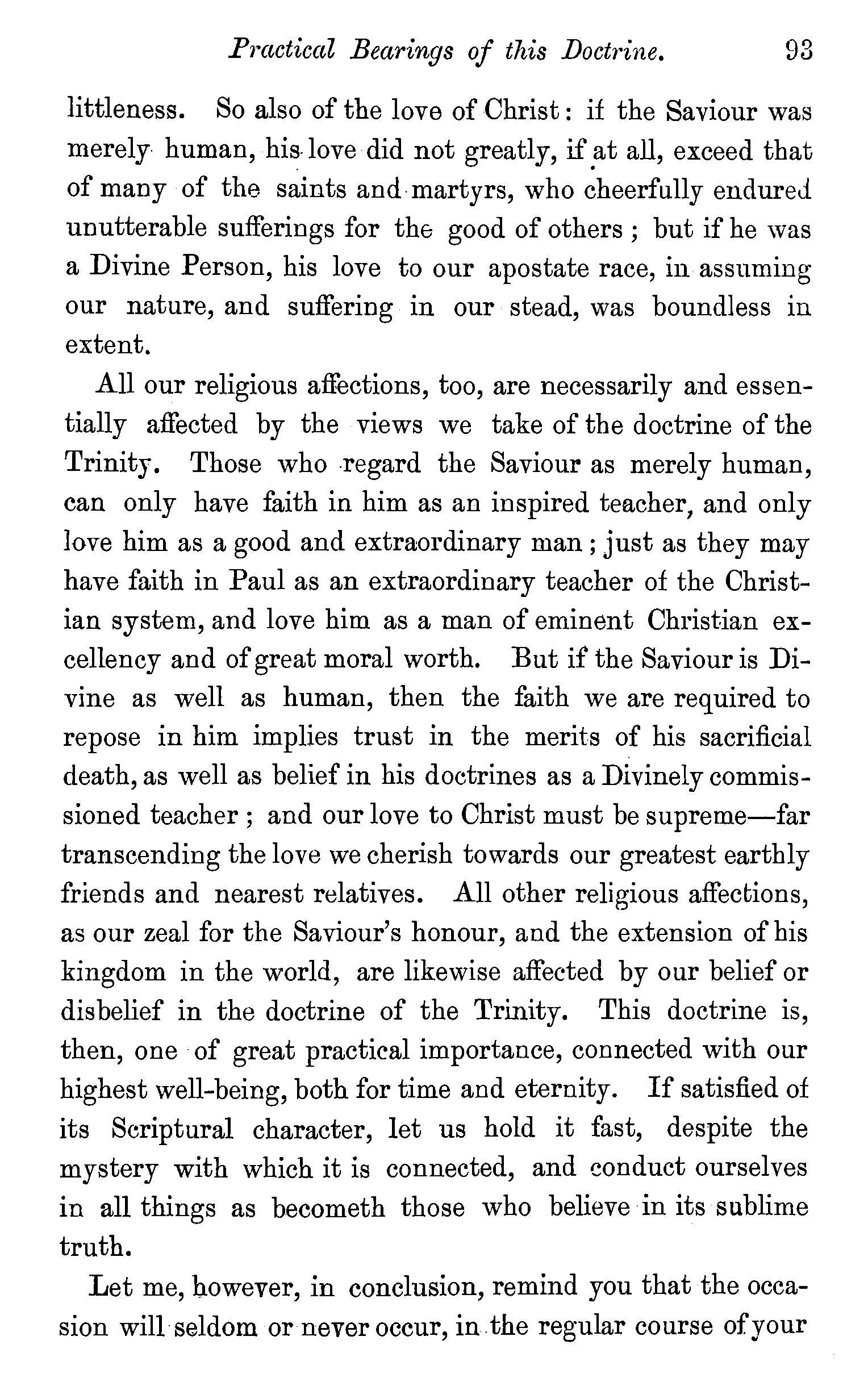
littleness. So also of the love of Christ: if the Saviour was merely human, his-love did not greatly, if _at all, exceed that of many of the saints and martyrs, who cheerfully endured unutterable sufferings for thEi good of others ; but if he was a Divine Person, his love to our apostate race, in assuming our nature, and suffering in our stead, was boundless in extent.
All our religious affections, too, are necessarily and essentially affected by the views we take of the doctrine of the Trinity. Those who -regard the Saviour as merely human, can only have faith in him as an inspired teacher, and only love him as a good and extraordinary man; just as they may have faith in Paul as an extraordinary teacher of the Christian system, and love him as a man of eminent Christian excellency and of great moral worth. But if the Saviour is Divine as well as human, then the faith we are required to repose in him implies trust in the merits of his sacrificial death, as well as belief in his doctrines as a Divinely commissioned teacher; and our love to Christ must be supreme-far transcending the love we cherish towards our greatest earthly friends and nearest relatives. All other religious affections, as our zeal for the Saviour's honour, and the extension of his kingdom in the world, are likewise affected by our belief or disbelief in the doctrine of the Trinity. This doctrine is, then, one of great practical importance, connected with our highest well-being, both for time and eternity. If satisfied of its Scriptural character, let us hold it fast, despite the mystery with which it is connected, and conduct ourselves in all things as becometh those who believe in its sublime truth.
Let me, however, in conclusion, remind you that the occasion will seldom or never occur, in the regular course of your
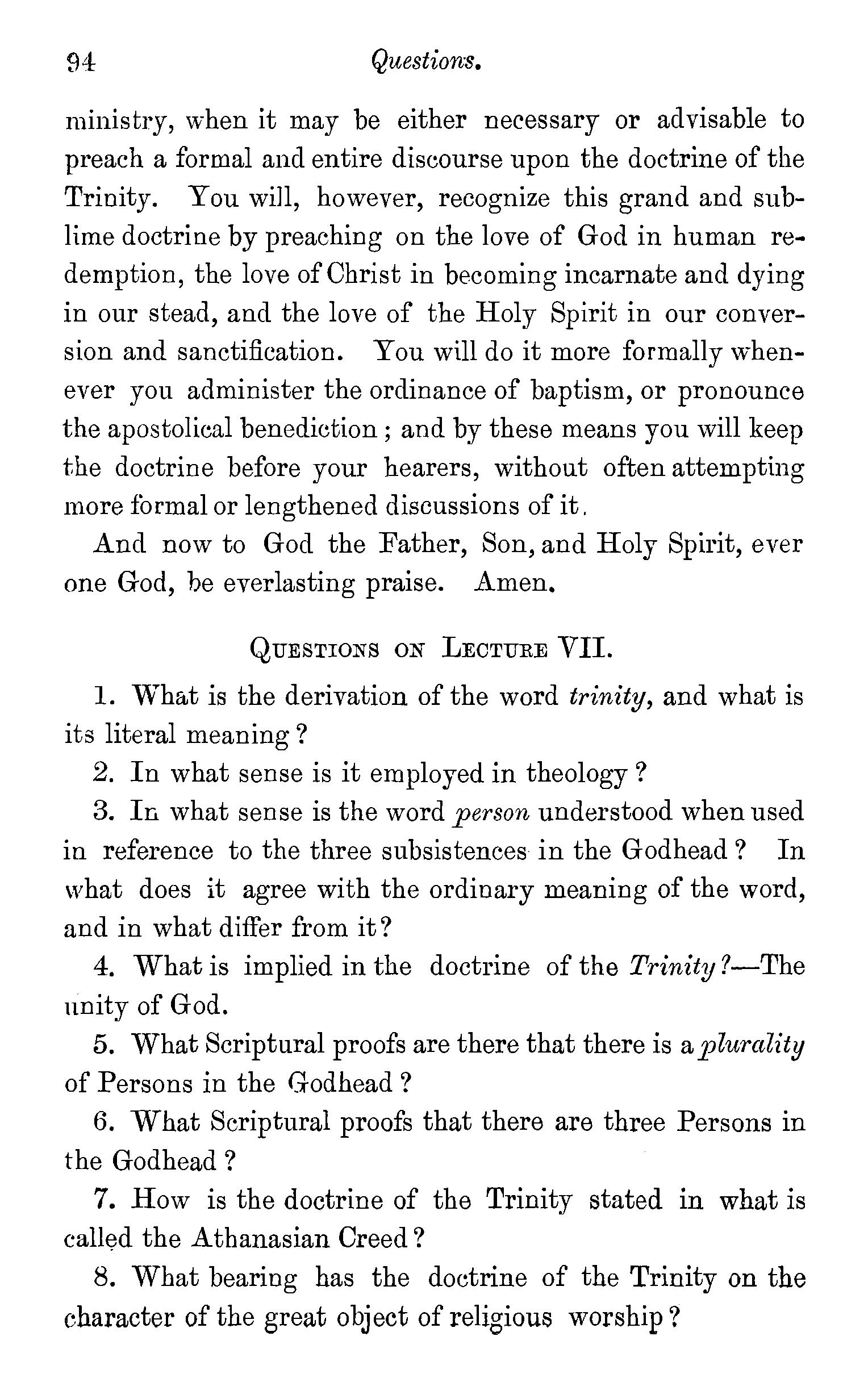
Questions. ministry, when it may be either necessary or advisable to preach a formal and entire discourse upon the doctrine of the Trinity. You will, however, recognize this grand and sublime doctrine by preaching on the love of God in human redemption, the love of Christ in becoming incarnate and dying in our stead, and the love of the Holy Spirit in our conversion and sanctification. You will do it more formally whenever you administer the ordinance of baptism, or pronounce the apostolical benediction ; and by these means you will keep the doctrine before your hearers, without often attempting more formal or lengthened discussions of it.
And now to God the Father, Son, and Holy Spirit, ever one God, be everlasting praise. Amen.
1. What is the derivation of the word trinity, and what is its literal meaning?
2. In what sense is it employed in theology?
3. Ir.. what sense is the word person understood when used in reference to the three subsistences in the Godhead ? In what does it agree with the ordinary meaning of the word, and in what differ from it?
4. What is implied in the doctrine of the Trinity ?-The unity of God.
5. What Scriptural proofs are there that there is a plurality of Persons in the Godhead ?
6. What Scriptural proofs that there are three Persons in the Godhead ?
7. How is the doctrine of the Trinity stated in what is call(;)dthe Athanasian Creed?
8. What bearing has the doctrine of the Trinity on the character of the great object of religious worship?
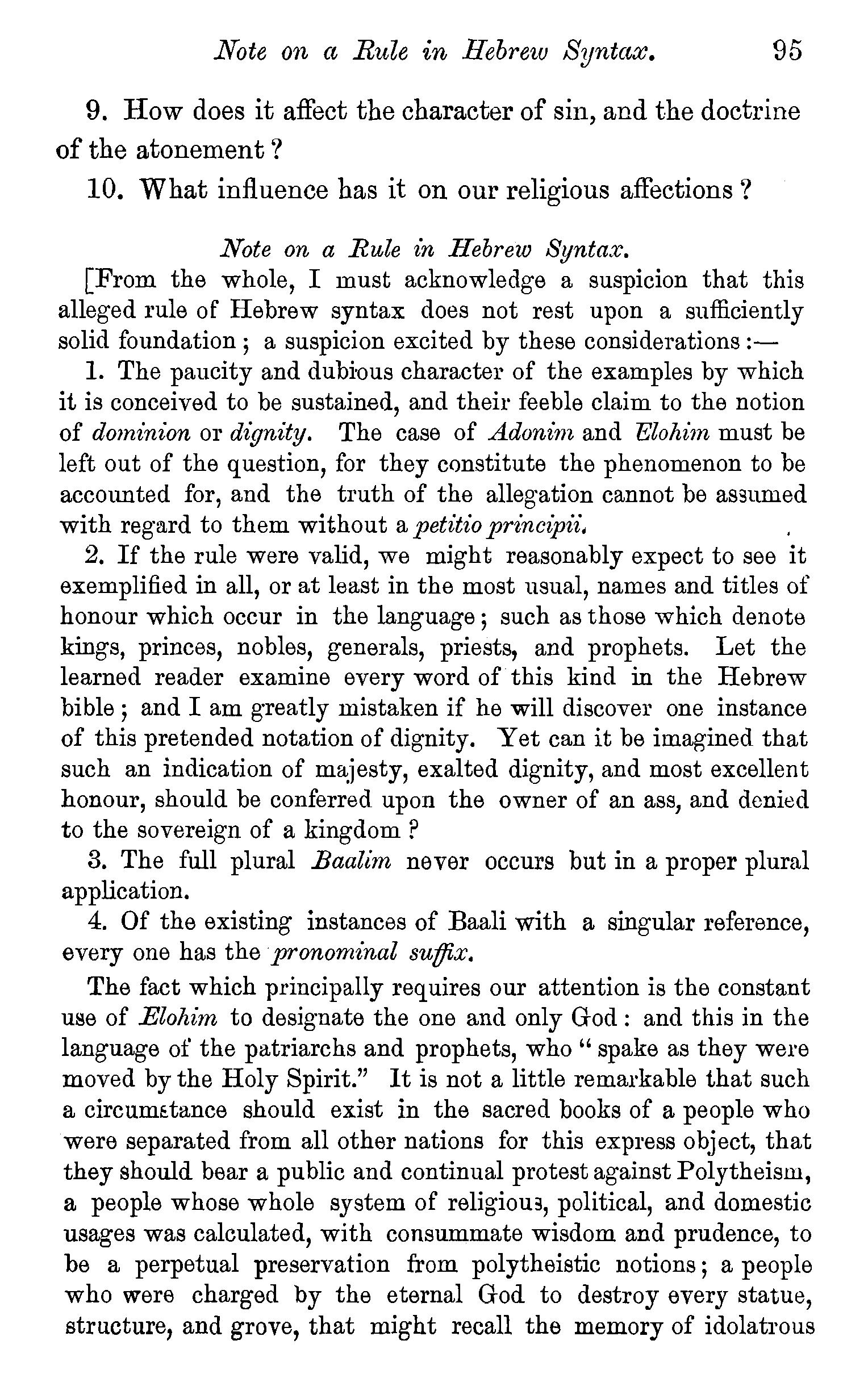
9. How does it affect the character of sin, and the doctrine of the atonement?
10. What influence has it on our religious affections?
Note on a Rule in Hebrew Synta.r:.
[From the whole, I must acknowledge a suspicion that this alleged rule of Hebrew syntax does not rest upon a sufficiently solid foundation ; a suspicion excited by these considerations :-
1. The paucity and dubi:ous character of the examples by which it is conceived to be sustained, and their feeble claim to the notion of dominion or dignity. The case of Adonim and Elohim must be left out of the question, for they constitute the phenomenon to be accounted for, and the truth of the allegation cannot be assumed with regard to them without a petitio principii,
2. If the rule were valid, we might reasonably expect to see it exemplified in all, or at least in the most usual, names and titles of honour which occur in the language; such as those which denote kings, princes, nobles, generals, priests, and prophets. Let the learned reader examine every word of· this kind in the He brew bible; and I am greatly mistaken if he will discover one instance of this pretended notation of dignity. Yet can it be imagined that such an indication of majesty, exalted dignity, and most excellent honour, should be conferred upon the owner of an ass, and denied to the sovereign of a kingdom ?
3. The full plural Baalim never occurs but in a proper plural application.
4. Of the existing instances of Baali with a singular reference, every one has the pronominal suffix.
The fact which principally requires our attention is the constant use of Elohim to designate the one and only God: and this in the language of the patriarchs and prophets, who " spake as they were moved by the Holy Spirit." It is not a little remarkable that such a circum~tance should exist in the sacred books of a people who were separated from all other nations for this express object, that they should bear a public and continual protest against Polytheism, a people whose whole system of religioU3, political, and domestic usages was calculated, with consummate wisdom and prudence, to be a perpetual preservation from polytheistic notions ; a people who were charged by the eternal God to destroy every statue, structure, and grove, that might recall the memory of idolatrous
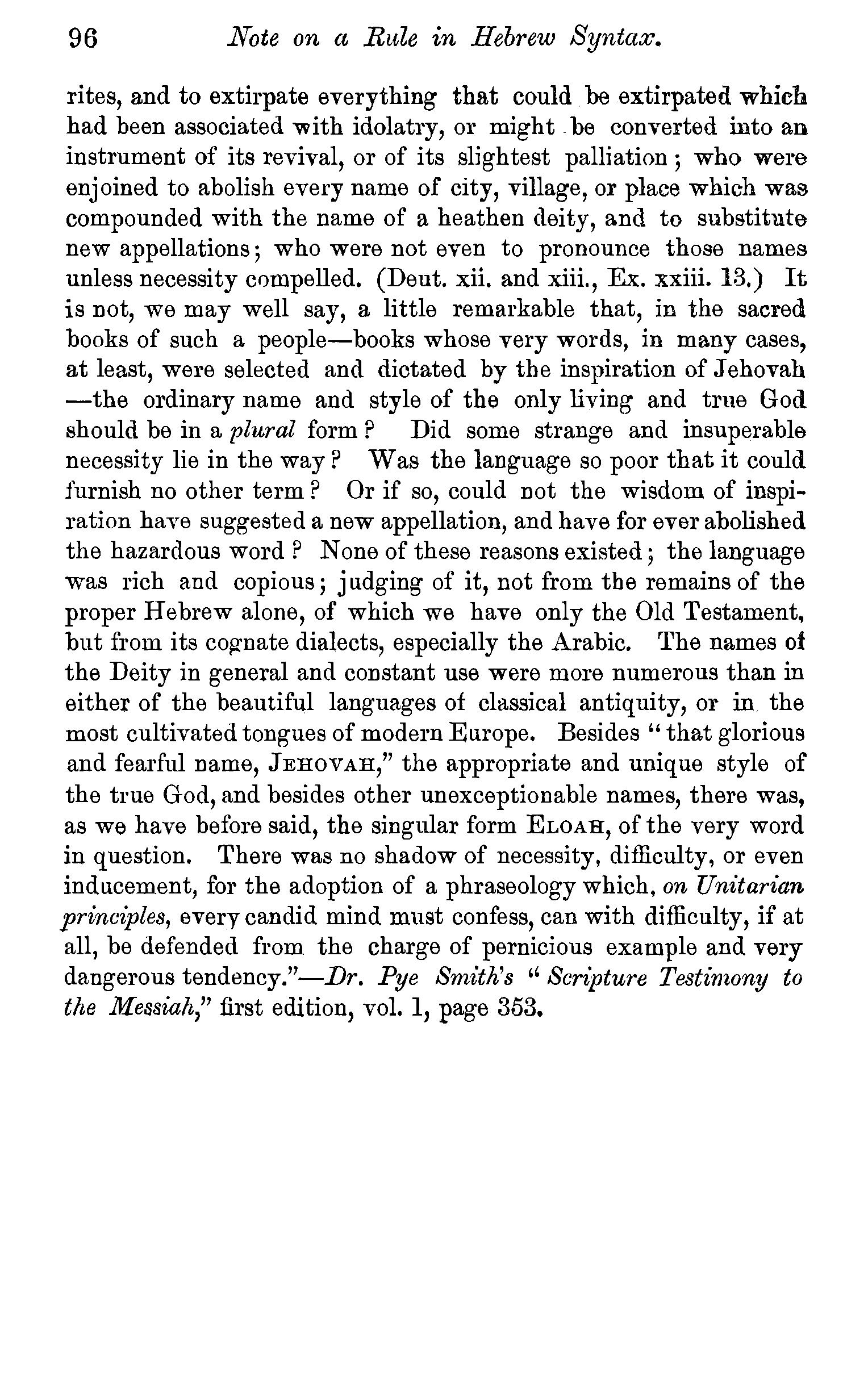
rites, and to extirpate everything that could be extirpated which had been associated with idolatry, or might be converted into an instrument of its revival, or of its slightest palliation ; who were enjoined to abolish every name of city, village, or place which was compounded with the name of a heathen deity, and to substitute new appellations; who were not even to pronounce those names unless necessity c0mpelled. (Deut. xii. and xiii., Ex. xxiii. 13,) It is not, we may well say, a little remarkable that, in the sacred books of such a people-books whose very words, in many cases, at least, were selected and dictated by the inspiration of Jehovah -the ordinary name and style of the only living and true God should be in a plural form ? Did some strange and insuperable necessity lie in the way? Was the language so poor that it could furnish no other term ? Or if so, could not the wisdom of inspiration have suggested a new appellation, and have for ever abolished the hazardous word ? None of these reasons existed; the language was rich and copious; judging of it, not from the remains of the proper Hebrew alone, of which we have only the Old Testament, but from its cog-nate dialects, especially the Arabic. The names of the Deity in general and constant use were more numerous than in either of the beautiful languages of classical antiquity, or in. the most cultivated tongues of modern Europe. Besides "that glorious and fearful name, JEHOVAH,"the appropriate and unique style of the true God, and besides other unexceptionable names, there was, as we have before said, the singular form ELOAH,of the very word in question. There was no shadow of necessity, difficulty, or even inducement, for the adoption of a phraseology which, on Unitarian principles, every candid mind must confess, can with difficulty, if at all, be defended from the charge of pernicious example and very dangerous tendency."-Dr. Pye Smith's '' Scripture Testimony to the Messiah," first edition, vol. 1, page 353.
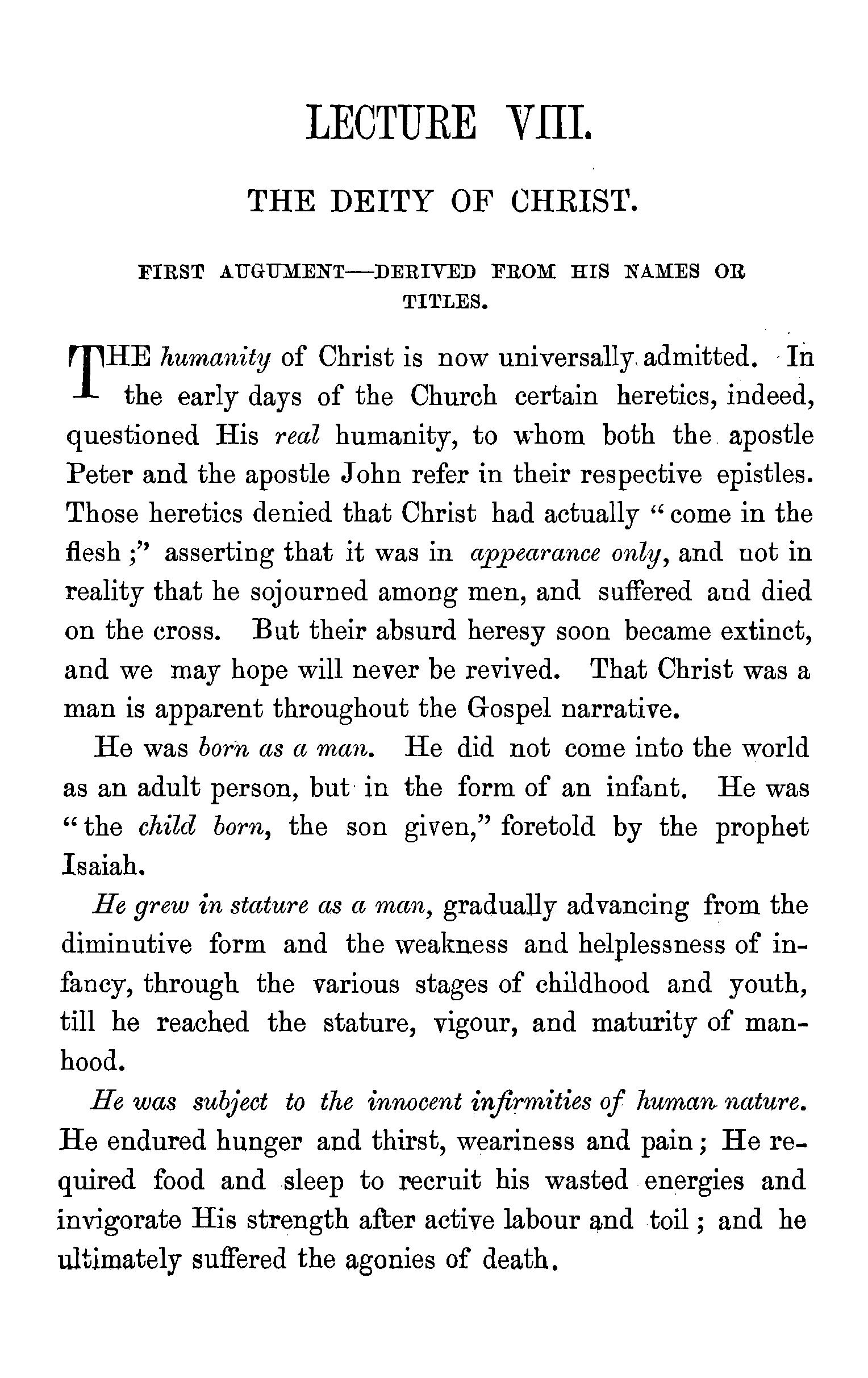
FIRST .A.UGUMENT-DERIVED FROM HIS NAMES OR TITLES.
THE humanity of Christ is now universally admitted. · In the early days of the Church certain heretics, indeed, questioned His real humanity, to whom both the apostle Peter and the apostle John refer in their respective epistles. Those heretics denied that Christ had actually "come in the flesh;'' asserting that it was in appearance only, and not in reality that he sojourned among men, and suffered and died on the cross. But their absurd heresy soon became extinct, and we may hope will never be revived. That Christ was a man is apparent throughout the Gospel narrative.
He was born as ct man. He did not come into the world as an adult person, but in the form of an infant. He was "the child born, the son given,'' foretold by the prophet Isaiah.
He grew in stature as a man, gradually advancing from the diminutive form and the weakness and helplessness of infancy, through the various stages of childhood and youth, till he reached the stature, vigour, and maturity of manhood.
He was subject to the innocent infirmities of human nature. He endured hunger and thirst, weariness and pain; He required food and sleep to recruit his wasted energies and invigorate His strength after active labour and toil ; and he ultimately suffered the agonies of death.
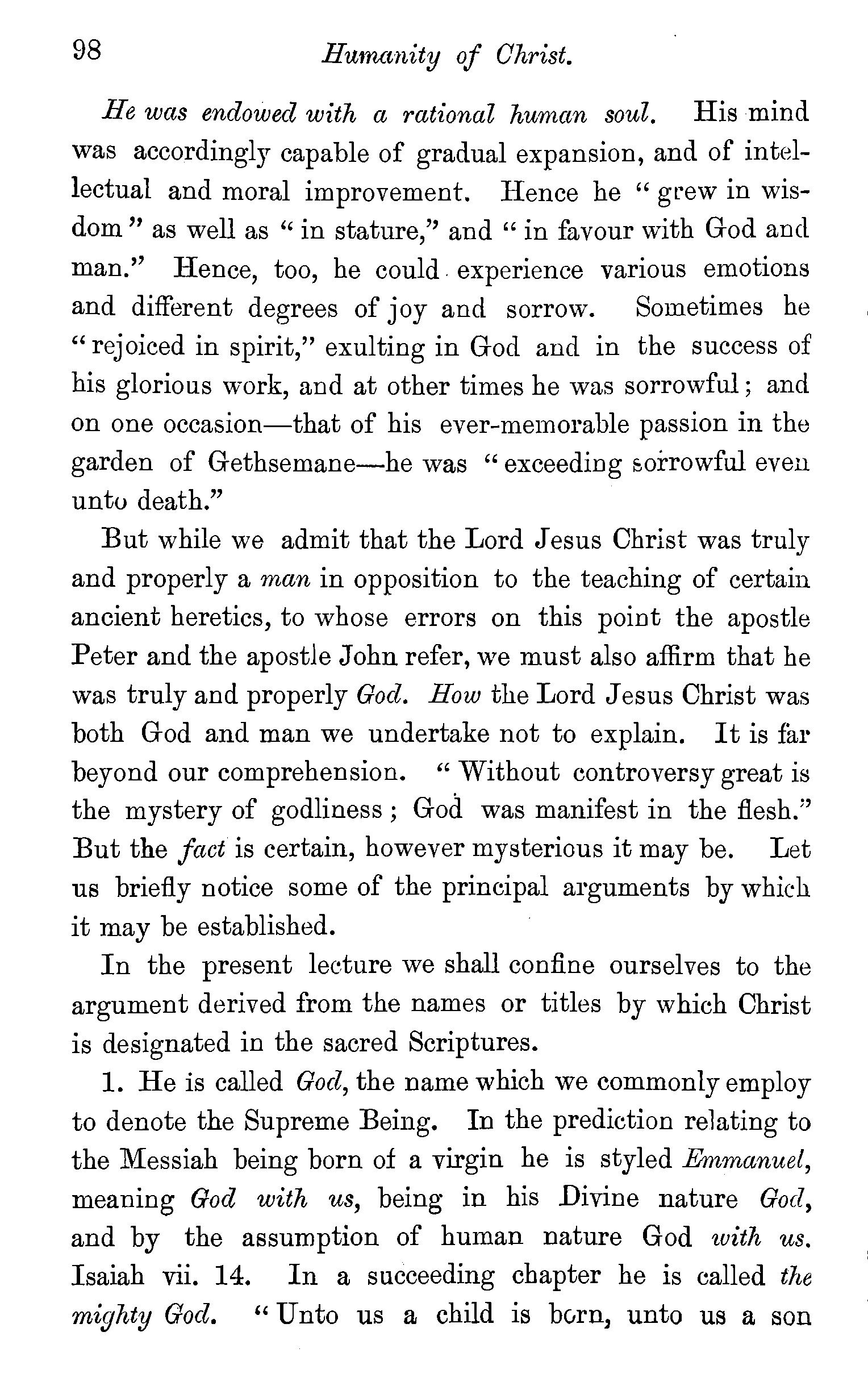
He was endowed with a rational human soul. His mind was accordingly capable of gradual expansion, and of intellectual and moral improvement. Hence he "geew in wisdom" as well as " in stature,'' and " in favour with God and man." Hence, too, he could. experience various emotions and different degrees of joy and sorrow. Sometimes he "rejoiced in spirit," exulting in God and in the success of his glorious work, and at other times he was sorrowful; and on one occasion-that of his ever-memorable passion in the garden of Gethsemane-he was "exceeding wrrowful even unto death."
But while we admit that the Lord Jesus Christ was truly and properly a man in opposition to the teaching of certain ancient heretics, to whose errors on this point the apostle Peter and the apostle John refer, we must also affirm that he was truly and properly God. How the Lord Jesus Christ was both God and man we undertake not to explain. It is far beyond our comprehension. " Without controversy great is the mystery of godliness ; God was manifest in the :flesh." But the fact is certain, however mysterious it may be. Let us briefly notice some of the principal arguments by which it may be established.
In the present lecture we shall confine ourselves to the argument derived from the names or titles by which Christ is designated in the sacred Scriptures.
1. He is called Goel,the name which we commonly employ to denote the Supreme Being. In the prediction relating to the Messiah being born of a virgin he is styled Emmanuel, meaning Goel with us, being in his Divine nature Goel, and by the assumption of human nature God with us. Isaiah vii. 14. In a succeeding chapter he is called the mighty God. " Unto us a child is bc,rn, unto us a son
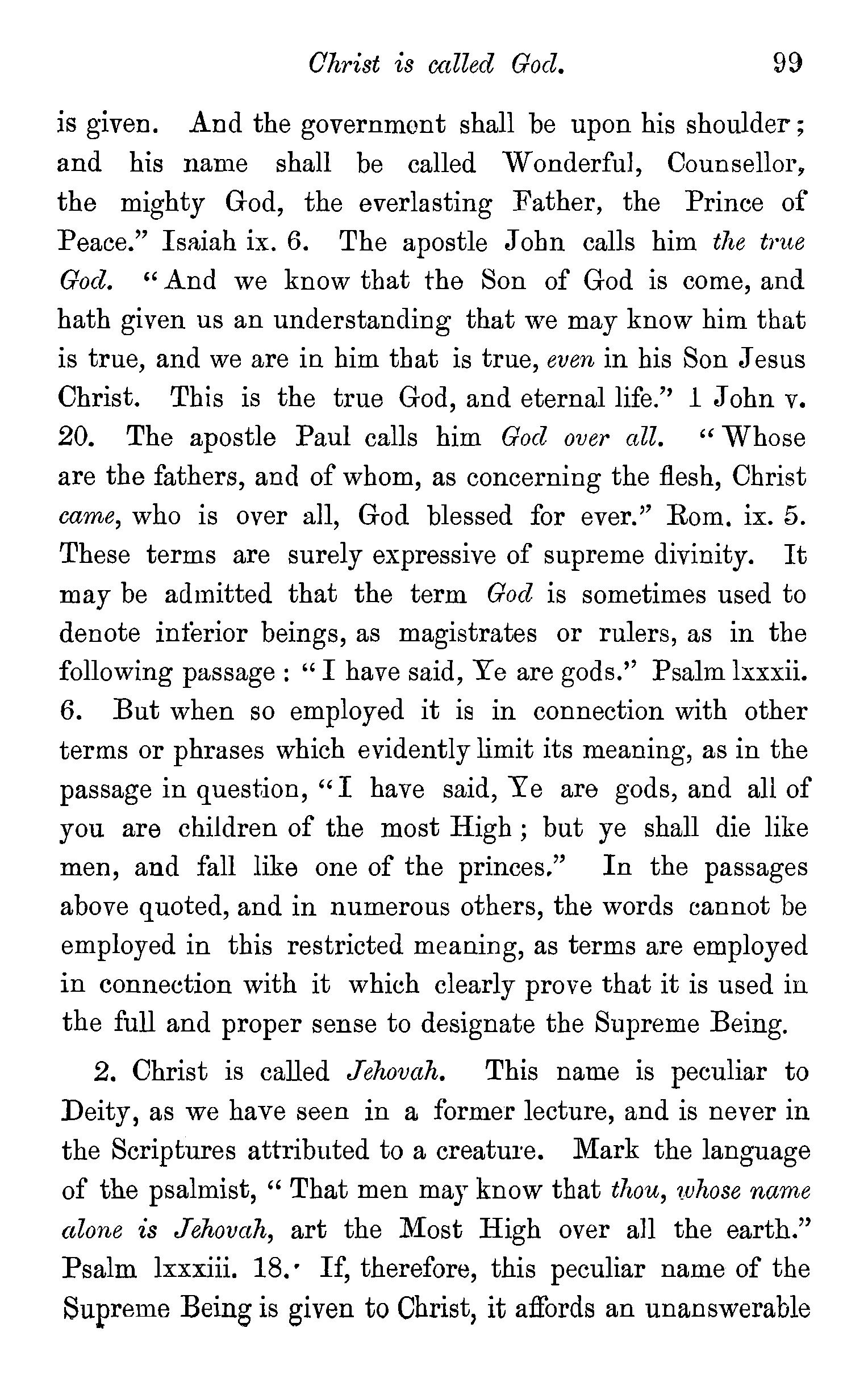
1s given. And the governmont shall be upon his shoulder; and his name shall be called Wonderful, Counsellor, the mighty God, the everlasting Father, the Prince of Peace." Isaiah ix. 6. The apostle John calls him the true Goel. "And we know that the Son of God is come, and hath given us an understanding that we may know him that is true, and we are in him that is true, even in his Son Jesus Christ. This is the true God, and eternal life.'' l John v. 20. The apostle Paul calls him Goel over all. "Whose are the fathers, and of whom, as concerning the flesh, Christ came, who is over all, God blessed for ever.'' Rom. ix. 5. These terms are surely expressive of supreme divinity. It may be admitted that the term Goel is sometimes used to denote interior beings, as magistrates or rulers, as in the following passage: "I have said, Ye are gods.'' Psalm lxxxii. 6. But when so employed it is in connection with other terms or phrases which evidently limit its meaning, as in the passage in question, "I have said, Ye are gods, and all of you are children of the most High ; but ye shall die like men, and fall like one of the princes." In the passages above quoted, and in numerous others, the words cannot be employed in this restricted meaning, as terms are employed in connection with it which clearly prove that it is used in the full and proper sense to designate the Supreme Being.
2. Christ is called Jehovah. This name is peculiar to Deity, as we have seen in a former lecture, and is never in the Scriptures attributed to a creatme. Mark the language of the psalmist, " That men may know that thou, whose name alone is Jehovcth, art the Most High over all the earth."
Psalm lxxxiii. 18. • If, therefore, this peculiar name of the Supreme Being is given to Christ, it affords an unanswerable
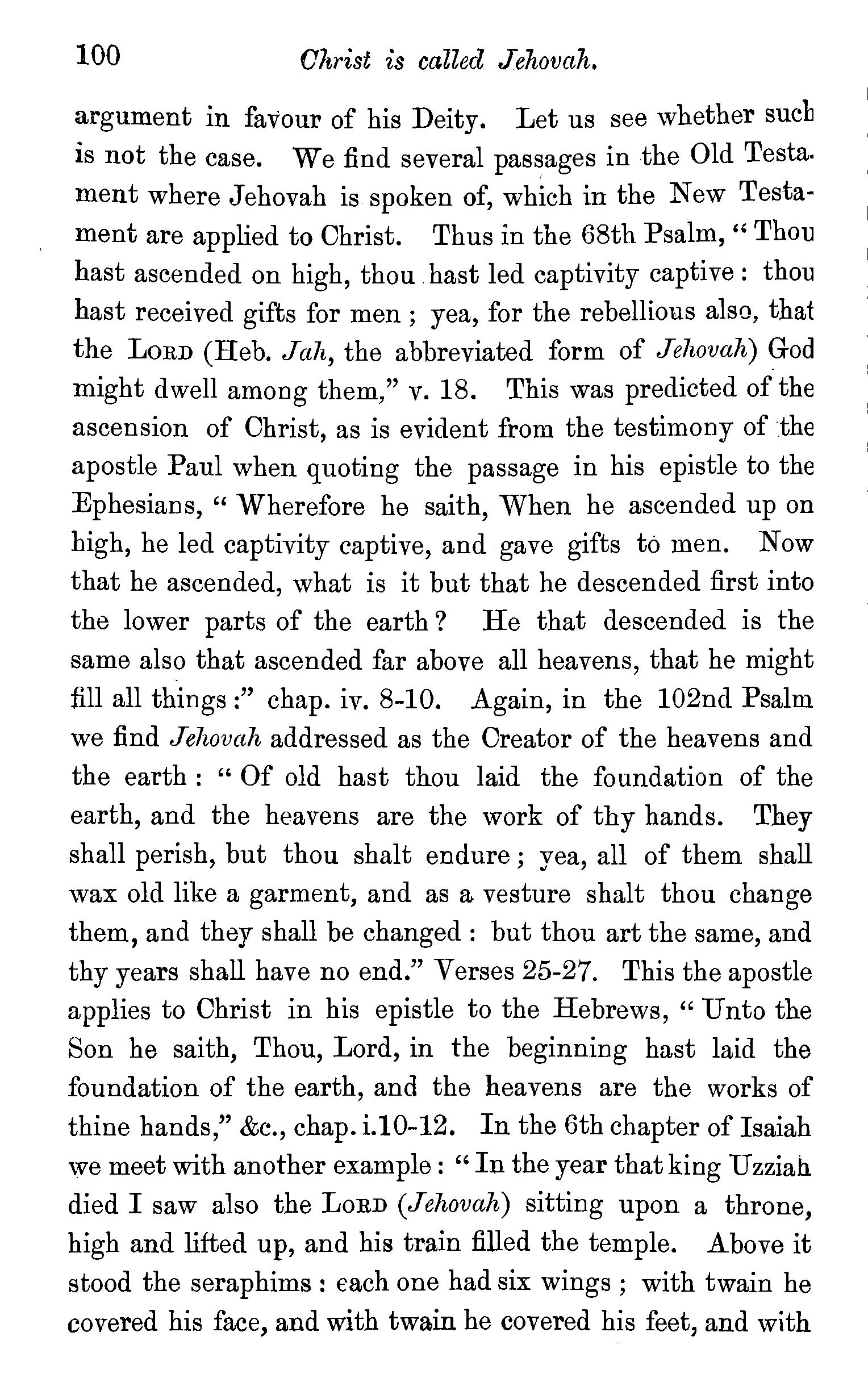
Olirist is called Jehovah.
argument in favour of his Deity. Let us see whether sucb is not the case. We find several passages in the Old Testa. ment where Jehovah is spoken of, which in the New Testament are applied to Christ. Thus in the 68th Psalm, " Thou hast ascended on high, thou hast led captivity captive: thou hast received gifts for men; yea, for the rebellious also, that the LORD(Heb. Jah, the abbreviated form of Jehovah) God might dwell among them," v. 18. This was predicted of the ascension of Christ, as is evident from the testimony of the apostle Paul when quoting the passage in his epistle to the Ephesians, "Wherefore he saith, When he ascended up on high, he led captivity captive, and gave gifts to men. Now that he ascended, what is it but that he descended first into the lower parts of the earth ? He that descended is the same also that ascended far above all heavens, that he might fill all things:" chap. iv. 8-10. Again, in the 102nd Psalm we find Jehovcth addressed as the Creator of the heavens and the earth : " Of old hast thou laid the foundation of the earth, and the heavens are the work of thy bands. They shall perish, but thou shalt endure; yea, all of them shall wax old like a garment, and as a vesture shalt thou change them, and they shall be changed : but thou art the same, and thy years shall have no end." Verses 25-27. This the apostle applies to Christ in his epistle to the Hebrews, "Unto the Son he saith, Thou, Lord, in the beginning hast laid the foundation of the earth, and the heavens are the works of thine hands," &c., chap. i.10-12. In the 6th chapter of Isaiah we meet with another example: "In the year that king U zziah died I saw also the LoRD (Jehovah) sitting upon a throne, high and li~ed up, and his train filled the temple. Above it stood the seraphims: each one had six wings; with twain he covered his face, and with twain he covered his feet, and with
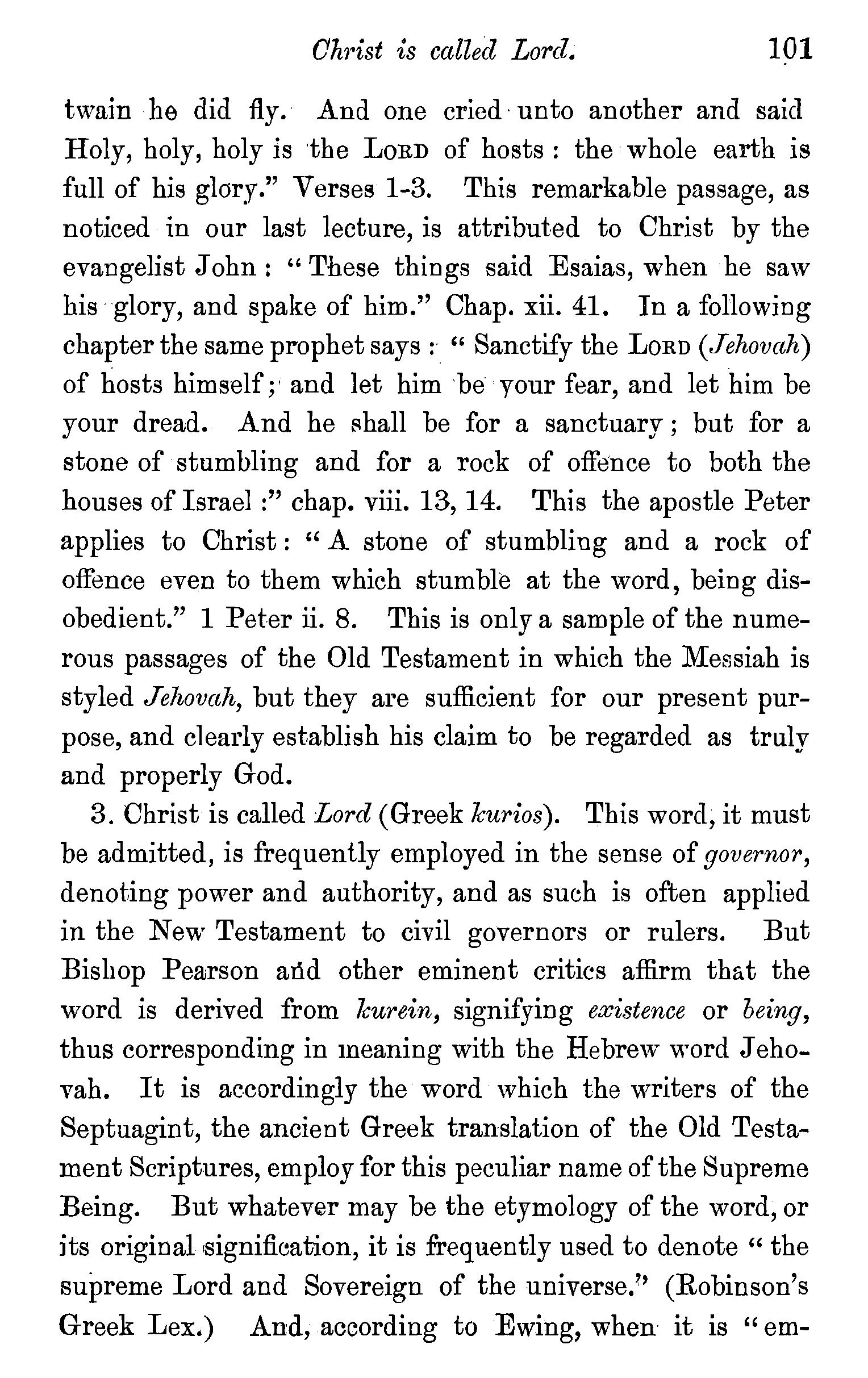
twain he did fly. And one cried· unto another and said Holy, holy, holy is the LoRD of hosts : the whole earth is full of his glory." Verses 1-3. This remarkable passage, as noticed in our last lecture, is attributed to Christ by the evangelist John: "These things said Esaias, when he saw his glory, and spake of him." Chap. xii. 41. In a following chapter the same prophet says : " Sanctify the LORD(Jehovah) of hosts himself;· and let him be your fear, and let him be your dread. And he shall be for a sanctuary ; but for a stone of stumbling and for a rock of offence to both the houses of Israel :" chap. viii. 13, 14. This the apostle Peter applies to Christ : "A stone of stumbling and a rock of offence even to them which stumble at the word, being disobedient." 1 Peter ii. 8. This is only a sample of the numerous passages of the Old Testament in which the Messiah is styled Jehovah, but they are sufficient for our present purpose, and clearly establish his claim to be regarded as truly and properly God.
3. Christ is called Lord (Greek lcurios). This word, it must be admitted, is frequently employed in the sense of governor, denoting power and authority, and as such is often applied in the New Testament to civil governors or rulers. But Bishop Pearson and other eminent critics affirm that the word is derived from lcurein, signifying existence or being, thus corresponding in meaning with the Hebrew· word J ehovah. It is accordingly the word which the writers of the Septuagint, the ancient Greek translation of the Old Testament Scriptures, employ for this peculiar name of the Supreme Being. But whatever may be the etymology of the word, or its original ,signification, it is frequently used to denote "the supreme Lord and Sovereign of the universe/' (Robinson's Greek Lex.) And, according to Ewing, when it is "em-
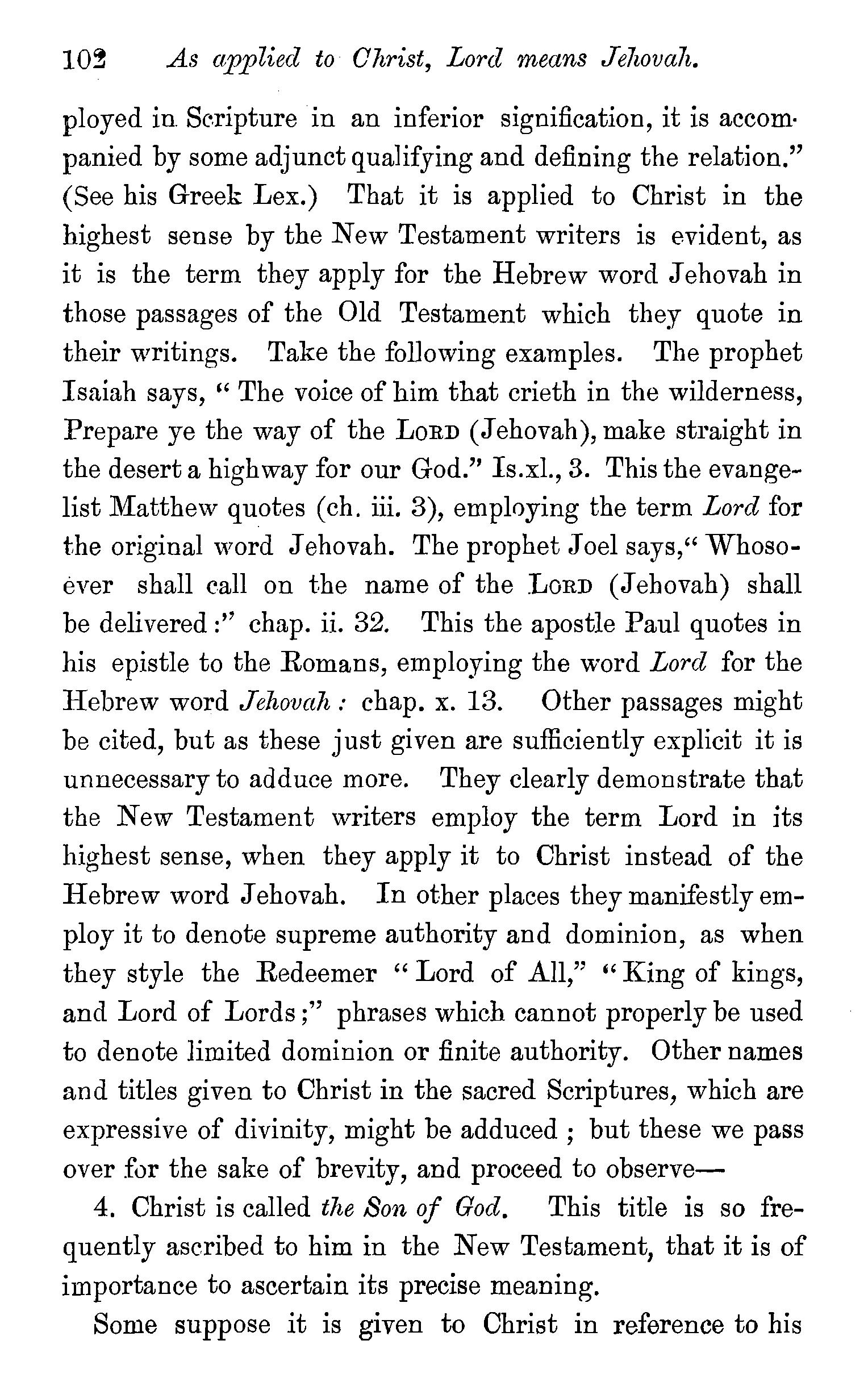
10~ As applied to Christ, Lord means Jehovah. ployed in Scripture in an inferior signification, it is accompanied by some adjunct qualifying and defining the relation." (See his Greek Lex.) That it is applied to Christ in the highest sense by the New Testament writers is evident, as it is the term they apply for the Hebrew word Jehovah in those passages of the Old Testament which they quote in their writings. Take the following examples. The prophet Isaiah says, "The voice of him that crieth in the wilderness, Prepare ye the way of the LORD(Jehovah), make straight in the desert a highway for our God.'' Is.xl., 3. This the evangelist Matthew quotes (ch. iii. 3), employing the term Lord for the original word Jehovah. The prophet Joel says," Whosoever shall call on the name of the LORD (Jehovah) shall be delivered:'' chap. ii. 32. This the apostle Paul quotes in his epistle to the Romans, employing the word Lord for the Hebrew word Jehovah : chap. x. 13. Other passages might be cited, but as these just given are sufficiently explicit it is unnecessary to adduce more. They clearly demonstrate that the New Testament writers employ the term Lord in its highest sense, when they apply it to Christ instead of the Hebrew word Jehovah. In other places they manifestly employ it to denote supreme authority and dominion, as when they style the Redeemer "Lord of All," "King of kings, and Lord of Lords;'' phrases which cannot properly be used to denote limited dominion or finite authority. Other names and titles given to Christ in the sacred Scriptures, which are expressive of divinity, might be adduced ; but these we pass over for the sake of brevity, and proceed to observe4. Christ is called the Son of God. This title is so frequently ascribed to him in the New Testament, that it is of importance to ascertain its precise meaning.
Some suppose it is given to Christ in reference to his
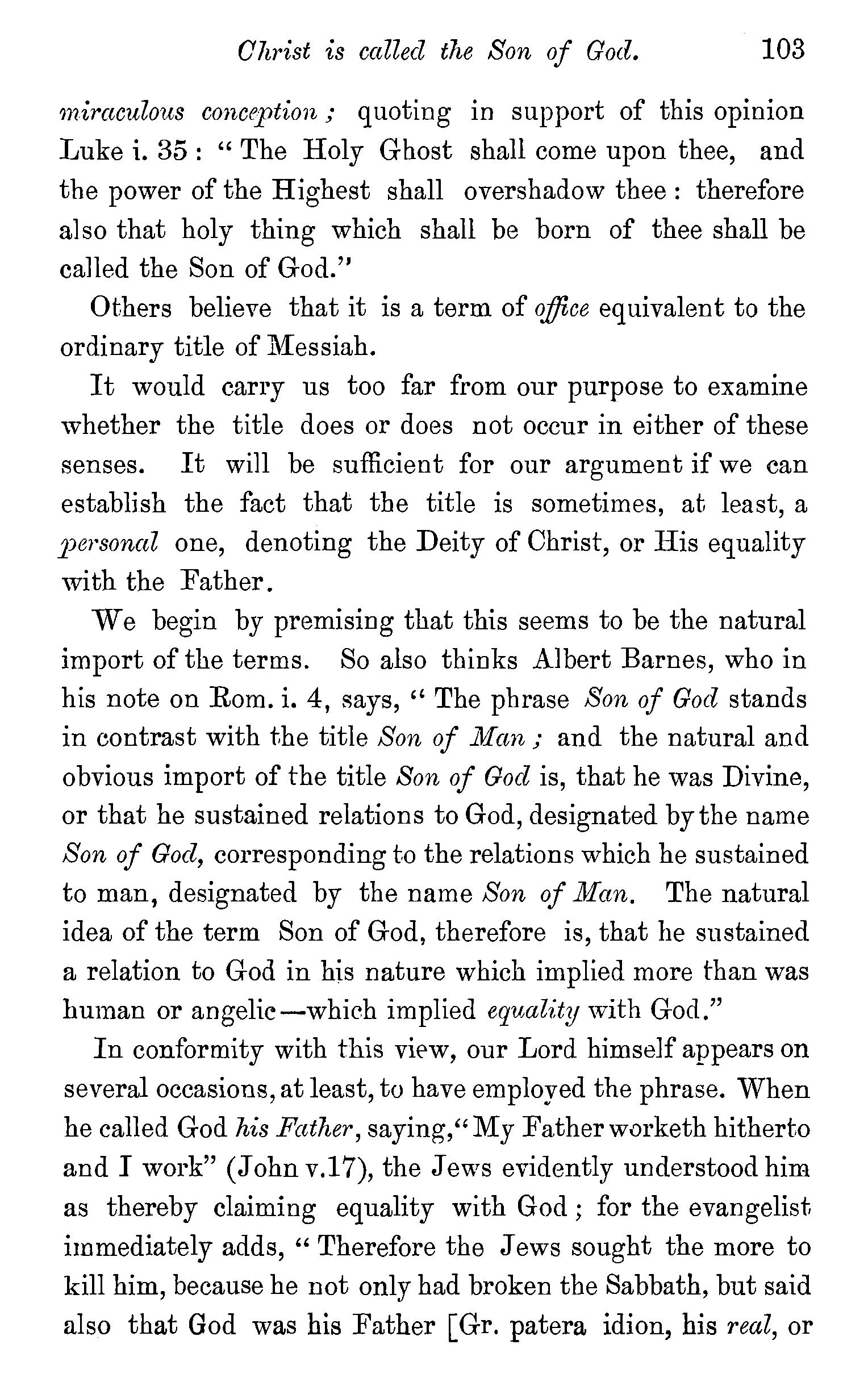
miraculous conception; quoting in support of this opinion Luke i. 35: "The Holy Ghost shall come upon thee, and the power of the Highest shall overshadow thee : therefore a]so that holy thing which shall be born of thee shall be ca1led the Son of God."
Others believe that it is a term of office equivalent to the ordinary title of l\,[essiah.
It would carry us too far from our purpose to examine whether the title does or does not occur in either of these senses. It wi11 be sufficient for our argument if we can establish the fact that the title is sometimes, at least, a pe1·sonal one, denoting the Deity of Christ, or His equality with the Father.
We begin by premising that this seems to be the natural import of the terms. So also thinks Albert Barnes, who in his note on Rom. i. 4, says, " The phrase Son of Goel stands in contrast with the title Son of Man ; and the natural and obvious import of the title Son of Goel is, that he was Divine, or that he sustained relations to God, designated by the name Son of Goel, corresponding to the relations which he sustained to man, designated by the name Son of Man. The natural idea of the term Son of God, therefore is, that he sustained a relation to God in his nature which implied more than was human or angelic-which implied eg_ual1:tywith God."
In conformity with this view, our Lord himself appears on several occasions, at least, to have employed the phrase. When he called God his Father, saying,"My Fatherw0rketh hitherto and I work" (John v.17), the Jews evidently understood him as thereby claiming equality with God; for the evangelist immediately adds, " Therefore the Jews sought the more to kill him, because he not only had broken the Sabbath, but said also that God was his Father [Gr. patera idion, his real, or
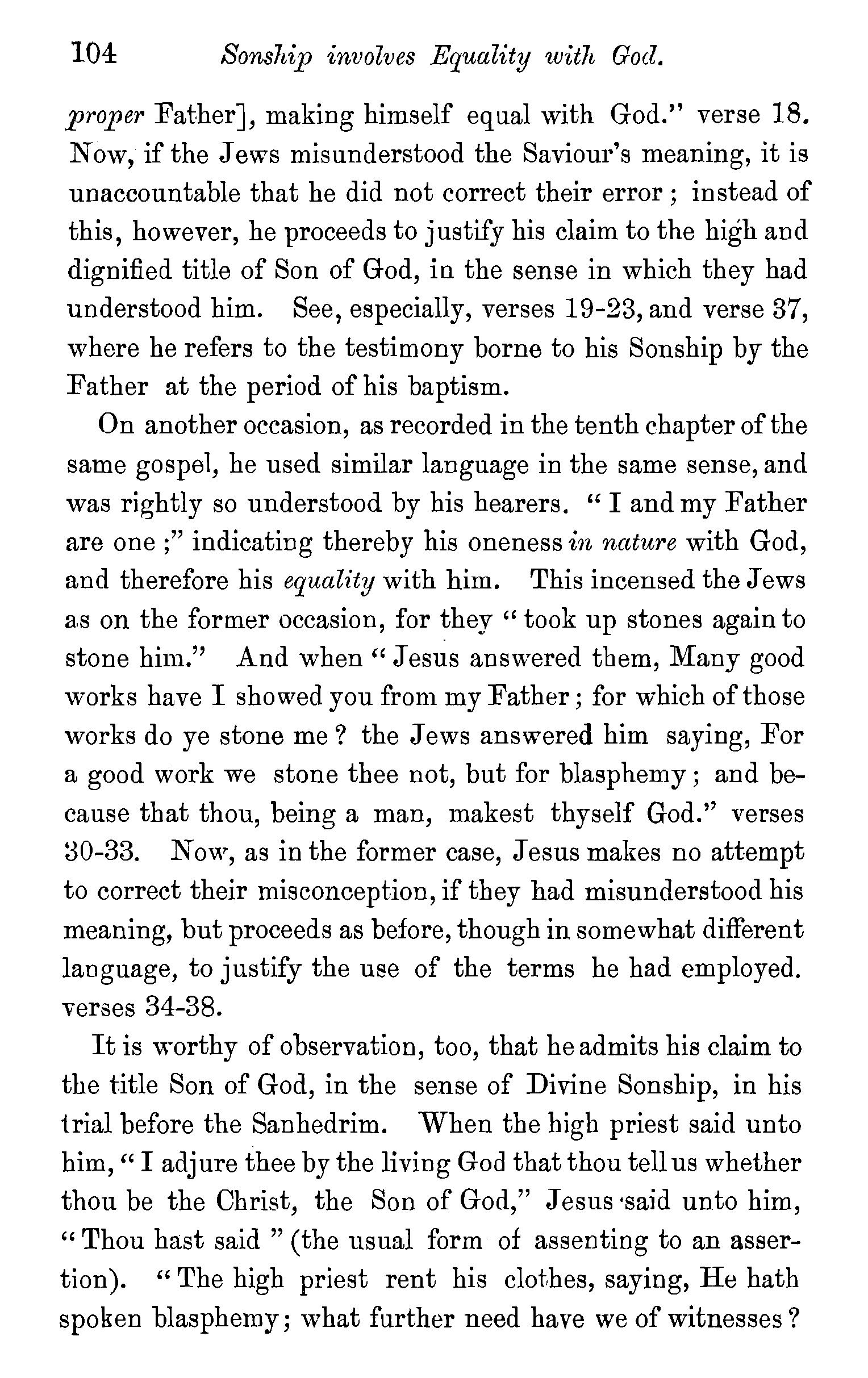
Sonship involves Equality with Goel.
proper Father], making himself equal with God." verse 18. Now, if the Jews misunderstood the Saviour's meaning, it is unaccountable that he did not correct their error; instead of this, however, he proceeds to justify his claim to the high and dignified title of Son of God, in the sense in which they had understood him. See, especially, verses 19-23, and verse 37, where he refers to the testimony borne to his Sonship by the Father at the period of his baptism.
On another occasion, as recorded in the tenth chapter of the same gospe1, he used similar language in the same sense, and was rightly so understood by his hearers. "I and my Father are one ;" indicating thereby his oneness in nature with God, and therefore his equality with him. This incensed the Jews as on the former occasion, for they "took up stones again to stone him.'' And when" Jesus answered them, Many good works have I showed you from my Father; for which of those works do ye stone me ? the Jews answered him saying, For a good work we stone thee not, but for blasphemy; and because that thou, being a man, makest thyself God.'' verses ~0-33. Now, as in the former case, Jesus makes no attempt to correct their misconception, if they had misunderstood his meaning, but proceeds as before, though in somewhat different language, to justify the use of the terms he had employed. verses 34-38.
It is worthy of observation, too, that he admits his claim to the title Son of God, in the sense of Divine Sonship, in his trial before the Sanhedrim. When the high priest said unto him," I adjure thee by the living God that thou tell us whether thou be the Christ, the Son of God," Jesus ·said unto him, "Thou hast said "(the usual form of assenting to an assertion). " The high priest rent his clothes, saying, He hath spoken blasphemy; what further need have we of witnesses?
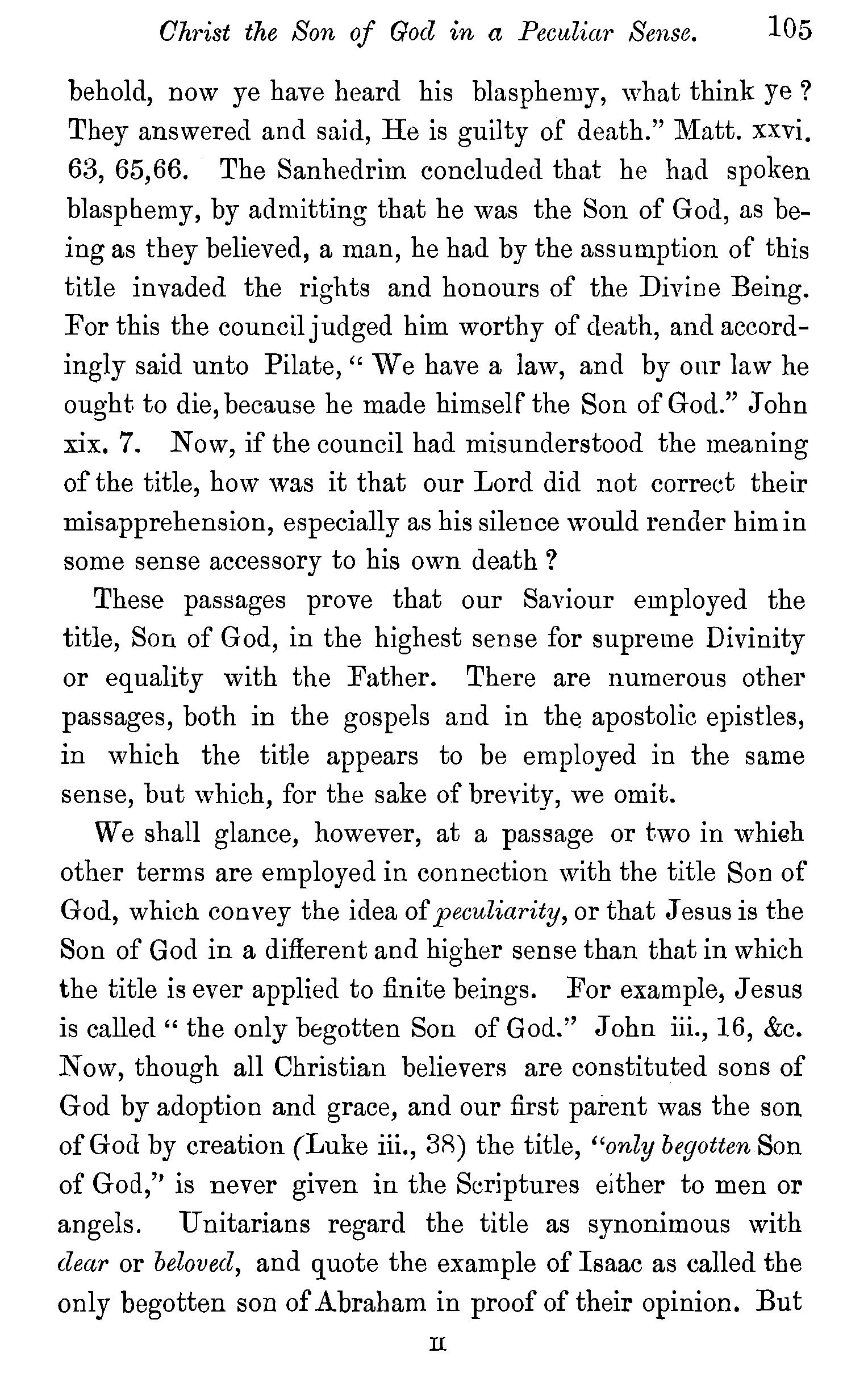
behold, now ye have heard his blasphemy, ,vhat think ye ? They answered and said, He is guilty of death." ~!t:att. :x:xvi. 63, 65,66. The Sanhedrim concluded that he had spoken blasphemy, by admitting that he was the Son of Goel, as being as they believed, a man, he had by the assumption of this title invaded the rights and honours of the Divine Being. For this the council judged him worthy of death, and accordingly said unto Pilate," We have a law, and by our law he ought to die, because he made himself the Son of God." John xix. 7. Now, if the council had misunderstood the meaning of the title, how was it that our Lord did not correct their misapprehension, especially as his silence would render him in some sense accessory to his own death ?
These passages prove that our Saviour employed the title, Son of God, in the highest sense for supreme Divinity or equality with the Father. There are numerous other passages, both in the gospels and in the apostolic epistles, in which the title appears to be employed in the same sense, but which, for the sake of brevity, we omit.
We shall glance, however, at a passage or two in whiGh other terms are employed in connection with the title Son of God, which convey the idea of peculiarity, or that Jesus is the Son of God in a different and higher sense than that in which the title is ever applied to finite beings. For example, Jesus is called" the only begotten Son of God." John iii., 16, &c. Now, though all Christian believers are constituted sons of God by adoption and grace, and our first parent was the son of Goel by creation (Luke iii., 38) the title, "only begotten Son of God,'' is never given in the Scriptures either to men or angels. Unitarians regard the title as synonimous with clear or beloved, and quote the example of Isaac as called the only begotten son of Abraham in proof of their opinion. But
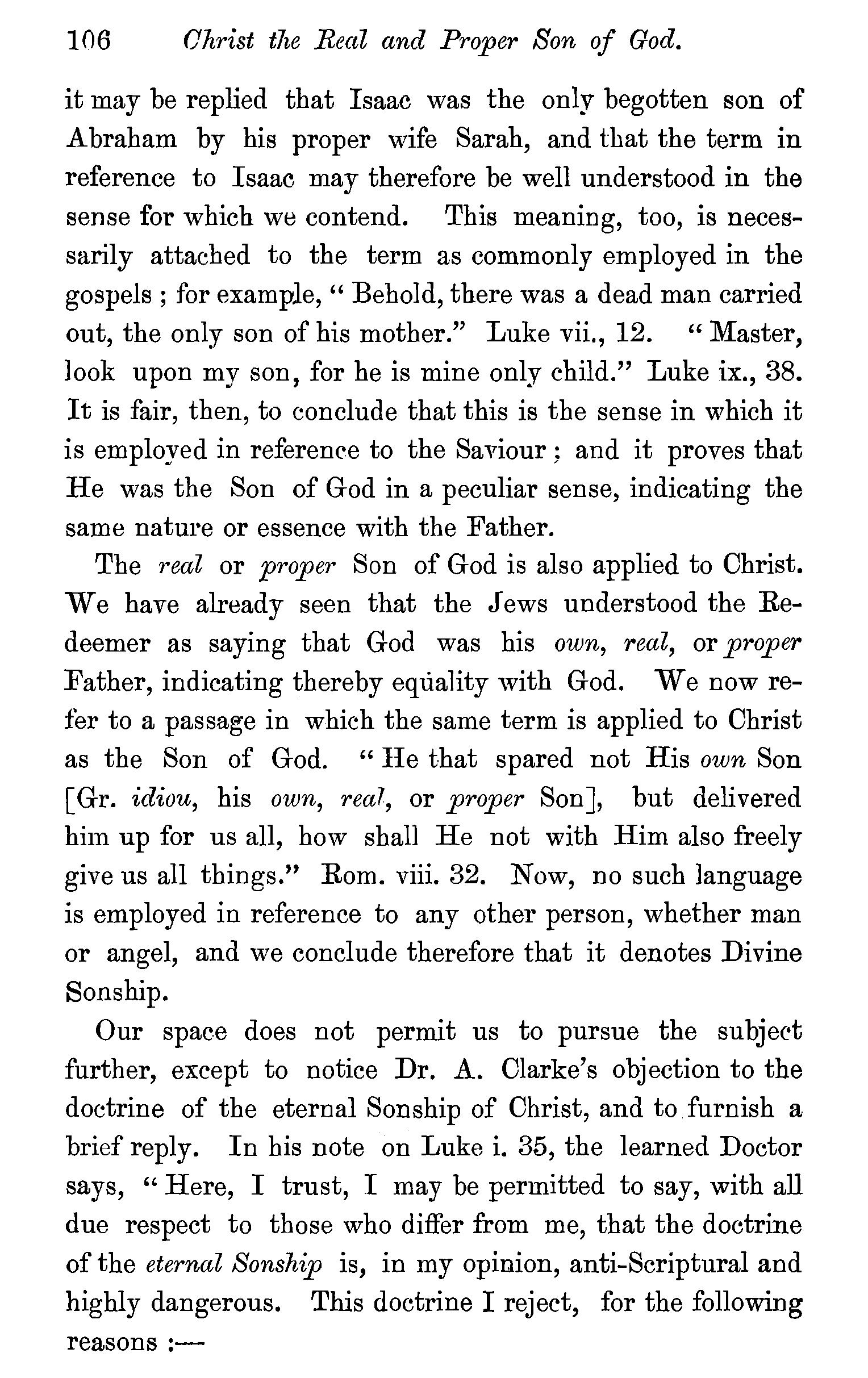
it may be replied that Isaac was the only begotten son of Abraham by his proper wife Sarah, and that the term in reference to Isaac may therefore be well understood in the sense for which we contend. This meaning, too, is necessarily attached to the term as commonly employed in the gospels ; for example, " Behold, there was a dead man carried out, the only son of his mother." Luke vii., 12. "Master, look upon my son, for he is mine only child." Luke ix., 38. It is fair, then, to conclude that this is the sense in which it is employed in reference to the Saviour; and it proves that He was the Son of God in a peculiar sense, indicating the same nature or essence with the Father.
The real or proper Son of God is also applied to Christ. We have already seen that the Jews understood the Redeemer as saying that God was his own, real, or proper Father, indicating thereby equality with God. We now refer to a passage in which the same term is applied to Christ as the Son of God. " He that spared not His own Son [Gr. idiou, his own, real, or proper Son], but delivered him up for us all, how shall He not with Him also freely give us all things."
Rom. viii. 32. Now, no such language is employed in reference to any other person, whether man or angel, and we conclude therefore that it denotes Divine Sonship.
Our space does not permit us to pursue the subject further, except to notice Dr. A. Clarke's objection to the doctrine of the eternal Son.ship of Christ, and to furnish a brief reply. In his note on Luke i. 35, the learned Doctor says, "Here, I trust, I may be permitted to say, with all due respect to those who differ from me, that the doctrine of the eternal Sonship is, in my opinion, anti-Scriptural and highly dangerous. This doctrine I reject, for the following reasons:-
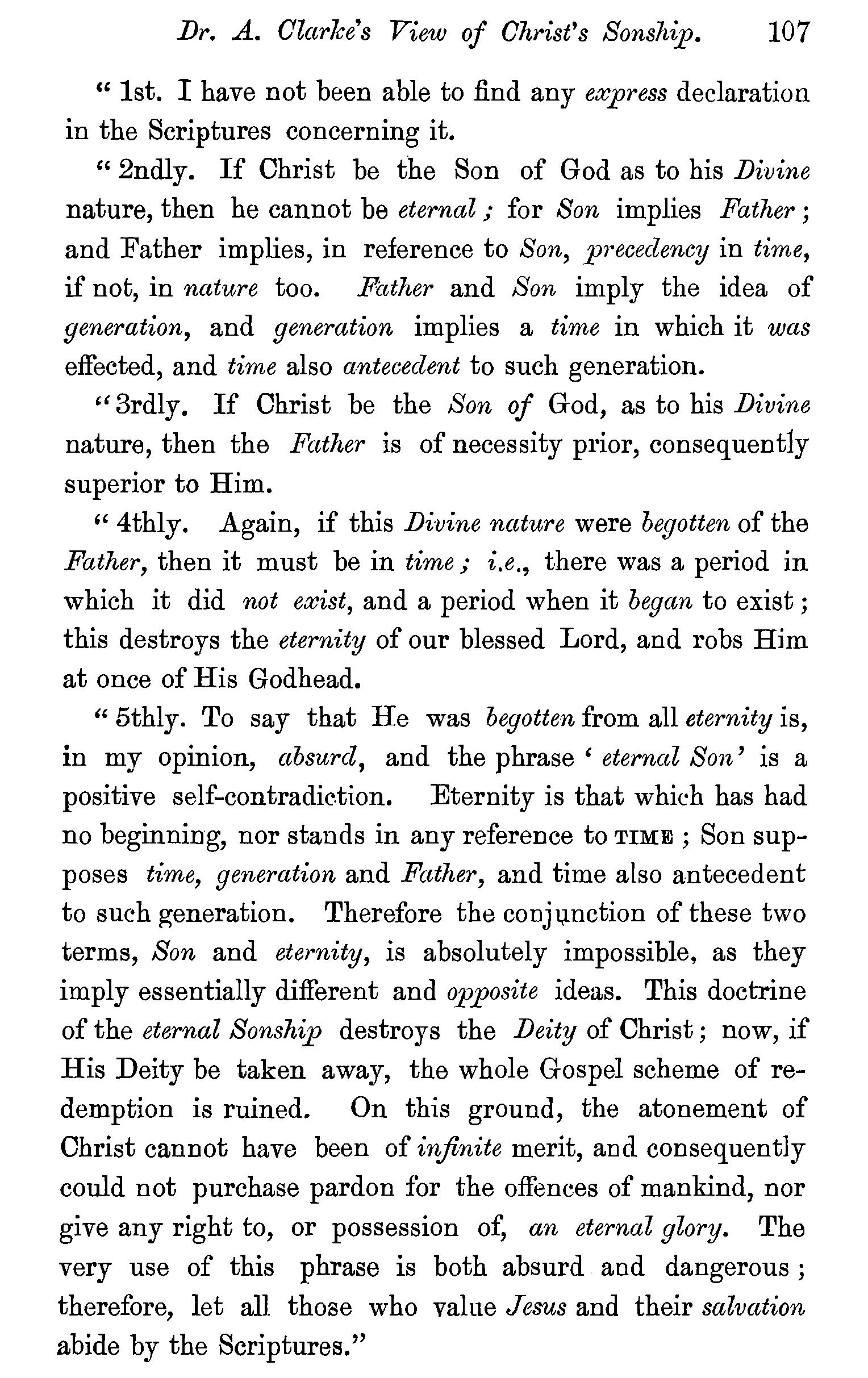
"1st. I have not been able to find any express declaration in the Scriptures concerning it.
"2ndly. If Christ be the Son of God as to his Divine nature, then he cannot be eternal ; for Son implies Father ; and Father implies, in reference to Son, precedency in time, if not, in nature too. Pather and Son imply the idea of generation, and generation implies a time in which it was effected, and time also antecedent to such generation.
"3rdly. If Christ be the Son of God, as to his Divine nature, then the Father is of necessity prior, consequent1y superior to Him.
"4thly. Again, if this Divine nature were begotten of the Father, then it must be in time; i.e., there was a period in which it did not exist, and a period when it began to exist; this destroys the eternity of our blessed Lord, and robs Him at once of His Godhead.
"5thly. To say that He was begottenfrom all eternity is, in my opinion, absurd, and the phrase ' eternal Son' is a positive self-contradiction. Eternity is that whieh has had no beginning, nor stands in any reference to TIME ; Son supposes time, generation and Father, and time also antecedent to such generation. Therefore the cooj1;mctionof these two terms, Son and eternity, is absolutely impossible, as they imply essentially different and opposite ideas. This doctrine of the eternal Sonship destroys the Deity of Christ; now, if His Deity be taken away, the whole Gospel scheme of redemption is ruined. On this ground, the atonement of Christ cannot have been of infinite merit, and consequently could not purchase pardon for the offences of mankind, nor give any right to, or possession of, an eternal glory. The very use of this phrase is both absurd and dangerous; therefore, let all those who value Jesus and their salvation abide by the Scriptures."
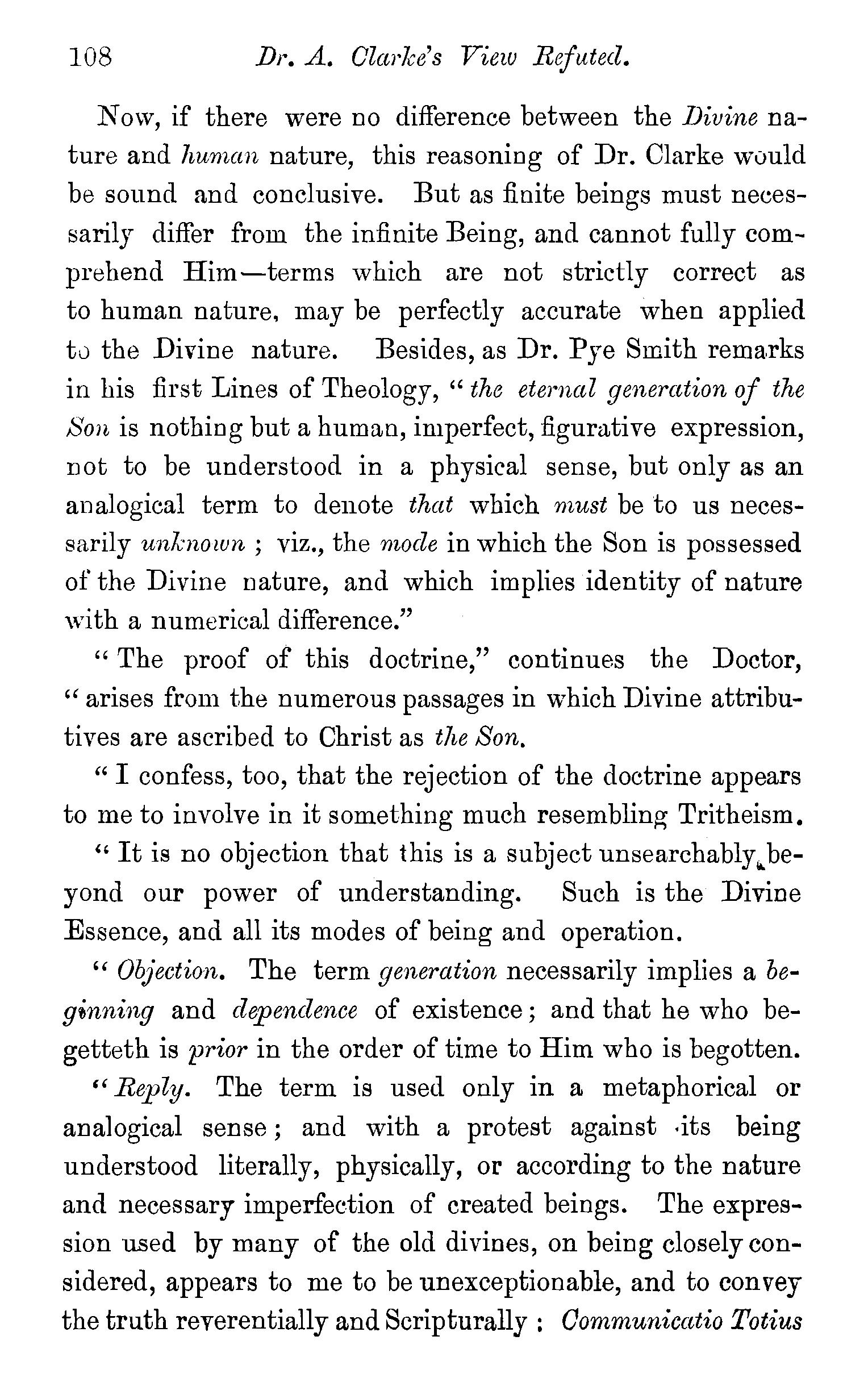
Now, if there were no difference between the Divine nature and hurnan nature, this reasoning of Dr. Clarke would be sound and conclusive. But as :finite beings must necessarily differ from the infinite Being, and cannot fully comprehend Him-terms which are not strictly correct as to human nature, may be perfectly accurate when applied to the Divine nature. Besides, as Dr. Pye Smith rema.rks in his first Lines of Theology, "the eternal generation of the Son is nothing but a human, imperfect, figurative expression, not to be understood in a physical sense, but only as an analogical term to denote that which rnust be to us necessarily unknown ; viz., the rnoclein which the Son is possessed of the Divine nature, and which implies identity of nature v,:ith a numerical difference."
" The proof of this doctrine," continues the Doctor, " arises from the numerous passages in which Divine attributives are ascribed to Christ as the Son.
"I confess, too, that the rejection of the doctrine appears to me to involve in it something much resembling Tritheism.
"It is no objection that this is a subject unsearchably ...beyond our power of understanding. Such is the Divine Essence, and all its modes of being and operation.
" Ob)ection. The term generation necessarily implies a beginning and clepenclence of existence; and that he who begetteth is prior in the order of time to Him who is begotten.
"Reply. The term is used only in a metaphorical or analogical sense ; and with a protest against ,its being understood literally, physically, or according to the nature and necessary imperfection of created beings. The expression used by many of the old divines, on being closely considered, appears to me to be unexceptionable, and to convey the
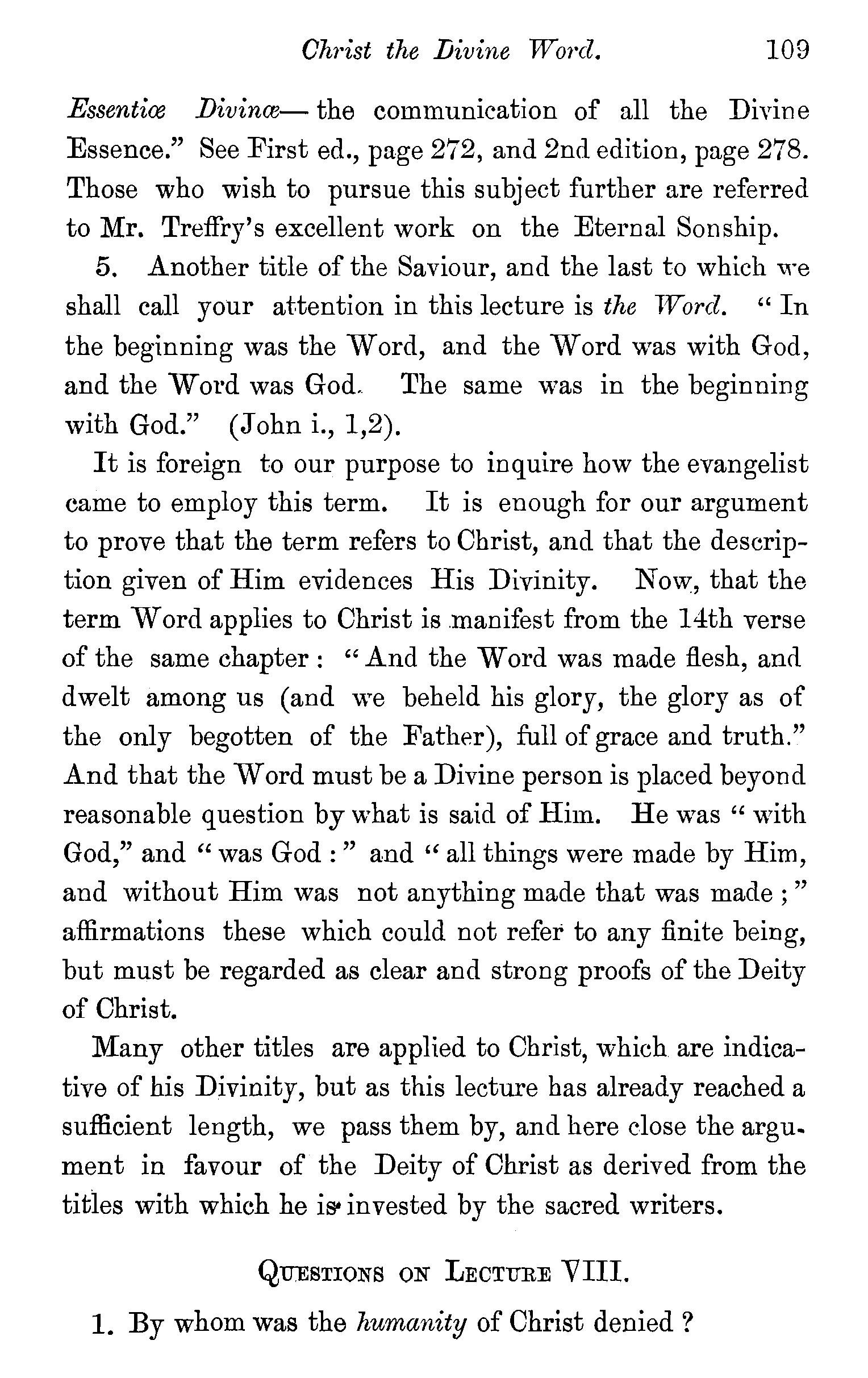
Essentice IJivinre- the communication of all the Divine Essence." See First ed., page 272, and 2nd edition, page 278. Those who wish to pursue this subject further are referred to Mr. Treffry's excellent work on the Eternal Sonship.
5. Another title of the Saviour, and the last to which we shall call your attention in this lecture is the TVorcl. " In the beginning was the Word, and the Word was with God, and the Word was God. The same was in the beginning with God." (John i., 1,2).
It is foreign to our purpose to inquire how the evangelist came to employ this term. It is enough for our argument to prove that the term refers to Christ, and that the description given of Him evidences His Divinity. Now, that the term. Word applies to Christ is .manifest from the 14th verse of the same chapter : " And the Word was made flesh, and dwelt among us (and we beheld his glory, the glory as of the only begotten of the Father), full of grace and truth." And that the Word must be a Divine person is placed beyond reasonable question by what is said of Him. He was " with God," and "was God:" and "all things were made by Hirn, and without Him was not anything made that was made;" affirmations these which could not refer to any finite being, but must be regarded as clear and strong proofs of the Deity of Christ.
Many other titles are applied to Christ, which are indicative of his Divinity, but as this lecture has already reached a sufficient length, we pass them by, and here close the argu. ment in favour of the Deity of Christ as derived from the titles with which he is- in vested by the sacred writers.
1. By whom was the humanity of Christ denied ?
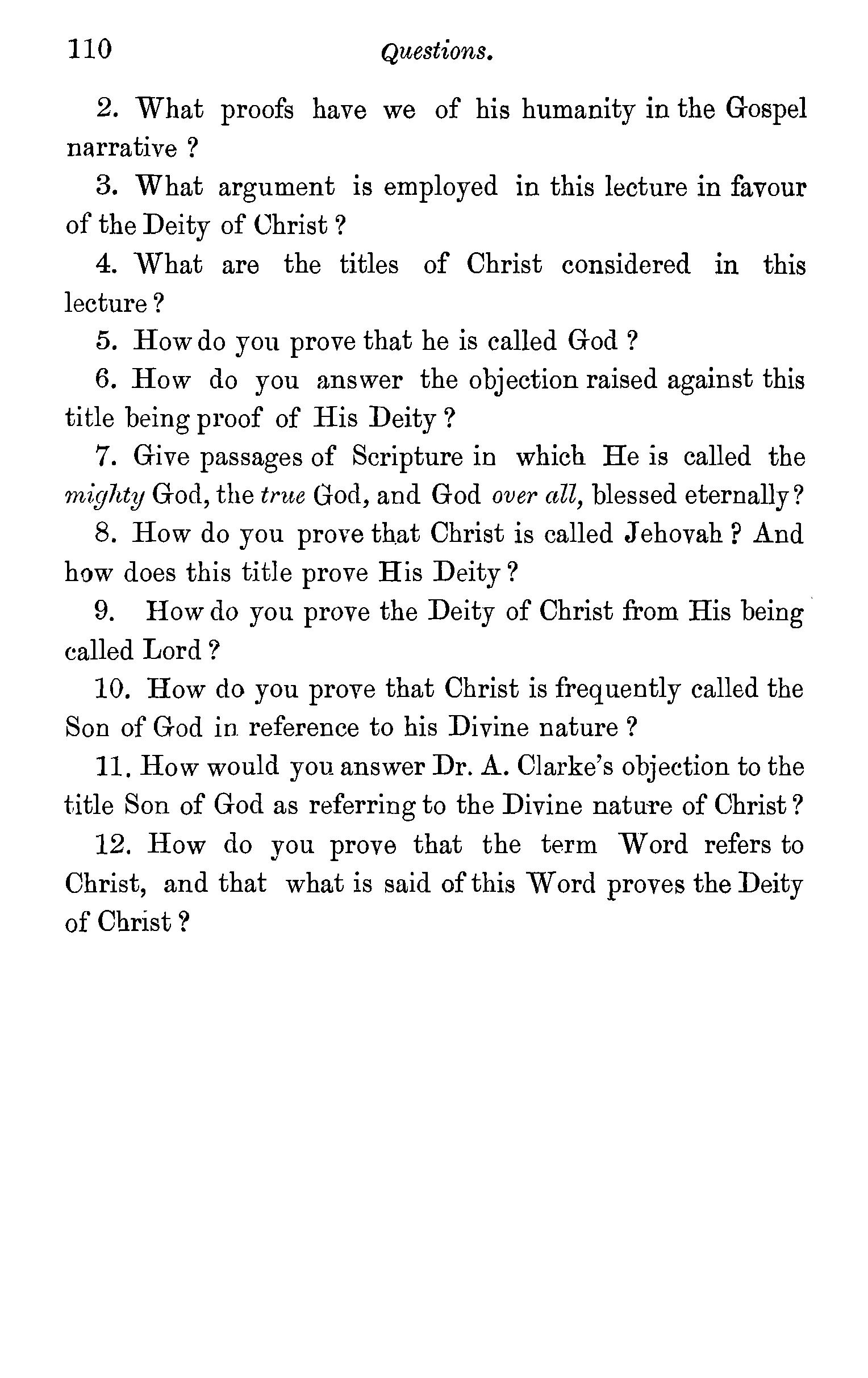
2. What proofs have we of his humanity in the Gospel narrative?
3. What argument is employed in this lecture in favour of the Deity of Obrist ?
4. What are the titles of Christ considered in this lecture?
5. How do you prove that he is called God ?
6. How do you answer the objection raised against this title being proof of His Deity?
7. Give passages of Scripture in which He is called the m£ghty God, the God, and God ctll, blessed eternally?
8. How do you prove th.at Christ is called Jehovah ? And how does this title prove His Deity?
9. How do you prove the Deity of Christ from His being called Lord ?
10. How do you prove that Christ is frequently called the Son of God in reference to his Divine nature ?
11. How would you answer Dr. A. Clarke's objection to the title Son of God as referring to the Divine nature of Christ?
12. How do you prove that the term Word refers to Christ, and that what is said of this Word proves the Deity of Christ?
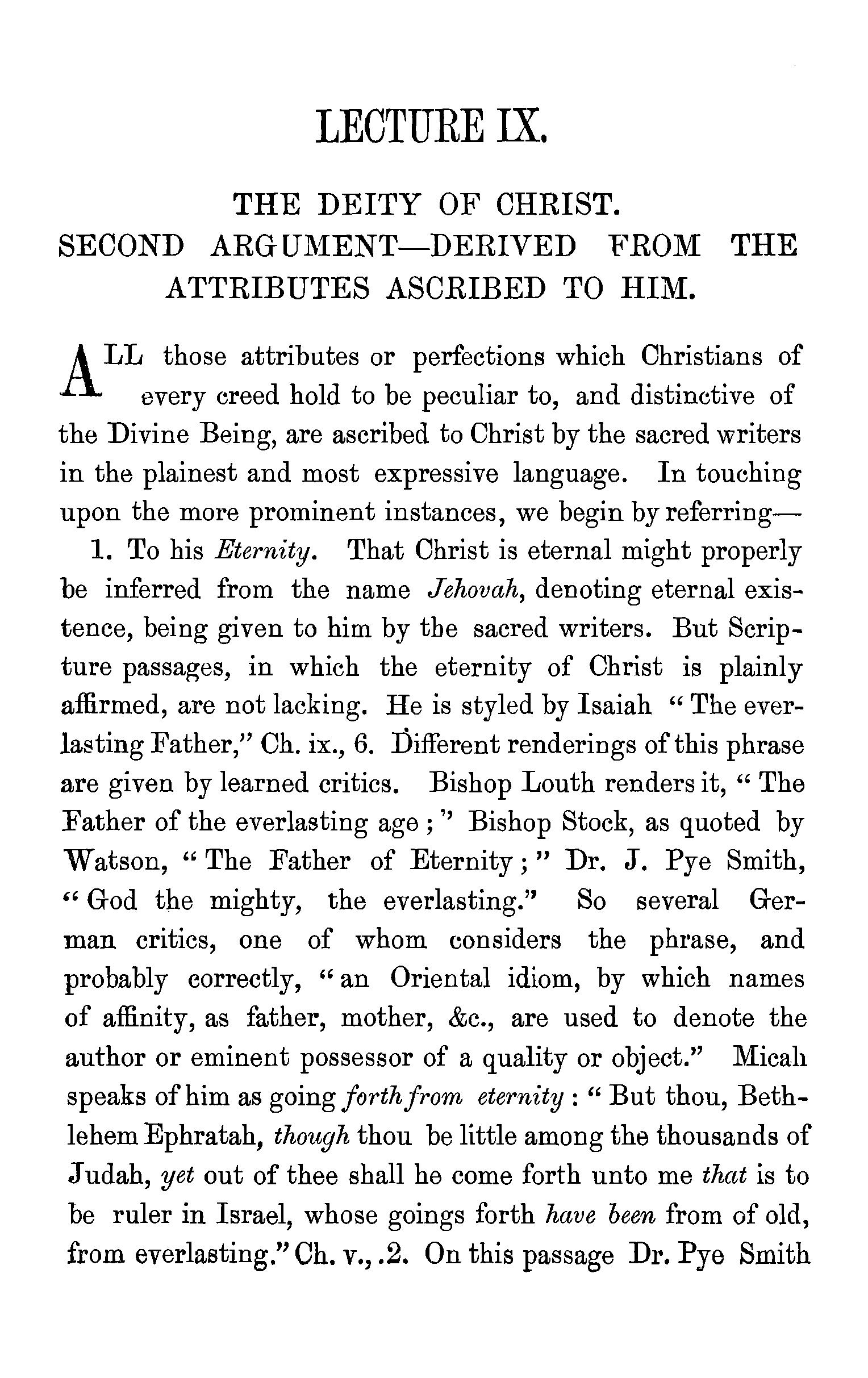
ALLthose attributes or perfections which Christians of every creed hold to be peculiar to, and distinctive of the Divine Being, are ascribed to Christ by the sacred writers in the plainest and most expressive language. In touching upon the more prominent instances, we begin by referring1. To his Eternity. That Christ is eternal might properly be inferred from the name Jehovah, denoting eternal existence, being given to him by the sacred writers. But Scripture passages, in which the eternity of Christ is plainly affirmed, are not lacking. He is styled by Isaiah " The everlasting Father," Ch. ix., 6. Different renderings of this phrase are given by learned critics. Bishop Louth renders it, " The Father of the everlasting age ; '' Bishop Stock, as quoted by Watson, "The Father of Eternity;" Dr. J. Pye Smith, " God the mighty, the everlasting." So several German critics, one of whom considers the phrase, and probably correctly, "an Oriental idiom, by which names of affinity, as father, mother, &c., are used to denote the author or eminent possessor of a quality or object." Micah speaks of him as goingforthfrom eternity:" But thou, Bethlehem Ephratah, though thou be little among the thousands of Judah, yet out of thee shall he come forth unto me that is to be ruler in Israel, whose goings forth have been from of old, from everlasting." Ch. v., .2. On this passage Dr. Pye Smith
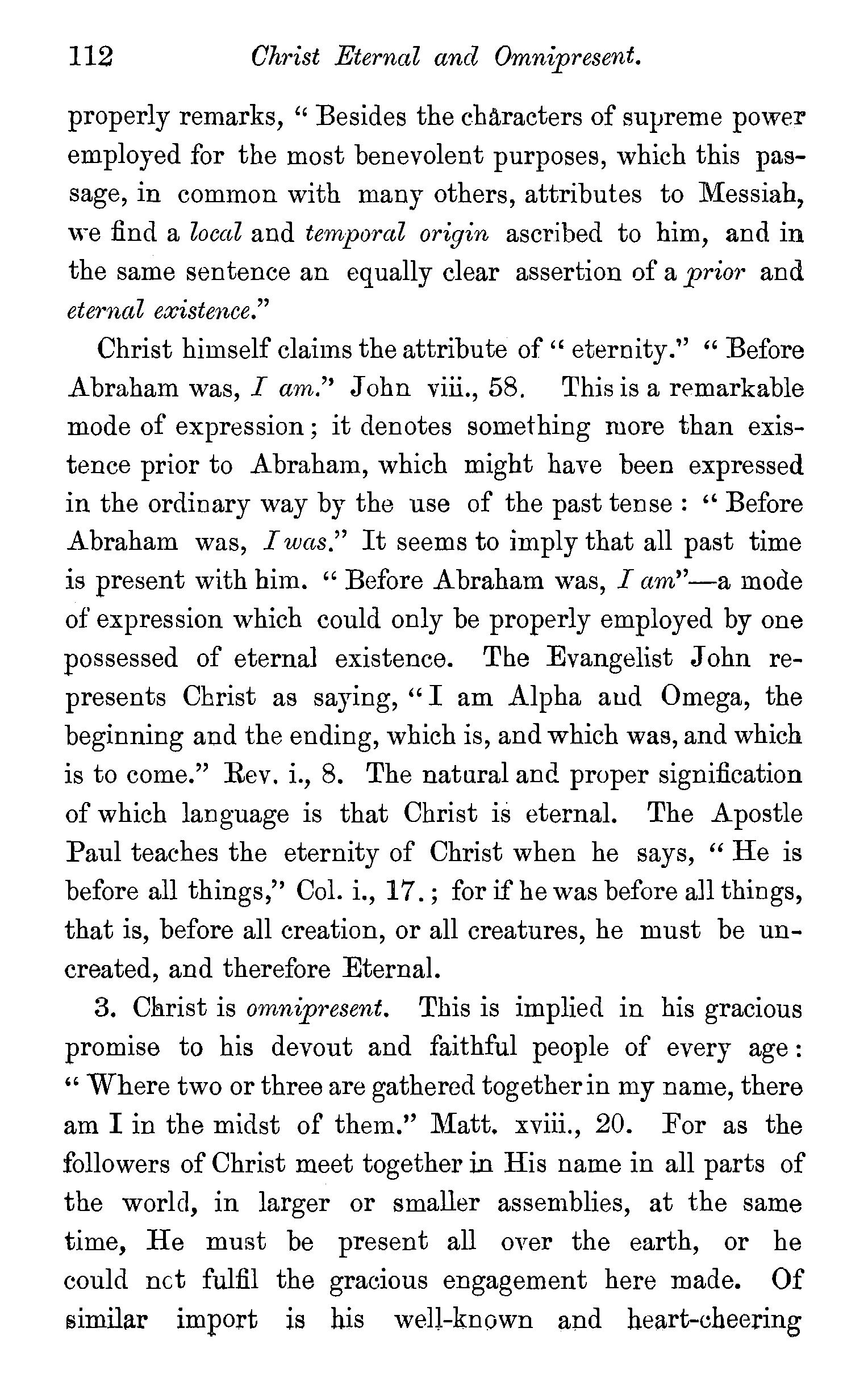
properly remarks, '' Besides the cba,racters of suvreme power employed for the most benevolent purposes, which this passage, in common with many others, attributes to Messiah, we find a local and temporal origin ascribed to him, and in the same sentence an equally clear assertion of a prior and eternal existence."
Christ himself claims the attribute of" eternity.'' "Before Abraham was, I am.'' John viii., 58. This is a remarkable mode of expression; it denotes something more than existence prior to Abraham, which might have been expressed in the ordinary way by the use of the past tense: "Before Abraham was, I was." It seems to imply that all past time is present with him. "Before Abraham was, I am"-a mode of expression which could only be properly employed by one possessed of eternal existence. The Evangelist John represents Christ as saying, "I am Alpha aud Omega, the beginning and the ending, which is, and which was, and which is to come." Rev. i., 8. The natural and. proper signification of which language is that Christ is eternal. The Apostle Paul teaches the eternity of Christ when he says, "He is before all things,'' Col. i., 17.; for if he was before all things, that is, before all creation, or all creatures, he must be uncreated, and therefore Eternal.
3. Christ is omnipresent. This is implied in his gracious promise to his devout and faithful people of every age : "Where two or three are gathered together in my name, there am I in the midst of them." l\fatt. xviii., 20. For as the followers of Christ meet together in His name in all parts of the world, in larger or smaller assemblies, at the same time, He must be present all over the earth, or he could net fulfil the gracious engagement here made. Of similar import is his well-known aud heart-cheering

promise to his apostles and to all his faithful ministers to the end of time: "Lo, I am with you alway, even unto the end of the world." Matt. xxviii., 20. In another passage our Lord expressly affirmed that he was both in heaven and on earth at the same time. " No man hath ascended up to heaven, but he that came down from heaven, even the Son of Man which is in heaven.'' John iii., 13. From these cheering promises and important statements, it is evident that Christ is omnipresent, being present in all parts of the world, and in heaven and on earth at the same time.
4. Christ is omniscient. Being everywhere present, his knowledge is infinite, both in extent and in exactness. The knowledge of the thoughts and intents of the heart belongs to Christ; hence he frequently addressed himself to the unuttered thoughts of his hearers; as in the following question : " Why reason ye in your hearts ?" Hence, too, the caution which he exercised in reference to superficial disciples, who professed to believe in Him as the true Messiah : "But Jesus did not commit himself unto them, because he knew all men, and needed not that any should testify of man, for he knew what was in man." John ii., 24, 25. Now, this is a knowledge which is peculiar to Deity. "Thou, even thou only," says Solomon, '' knowest the hearts of all the children of men.'' 1 Kings viii., 39. In conformity with this statement Jehovah speaks of this knowledge as his prerogative alone. " The heart is deceitful above all things, and desperately wicked; who can know it? 1, the Lord, search the heart, I try the reins.'' Jer. xvii., 9, 10. In similar language our Lord claims this knowledge: "And all the churches shall know that I am he which searcheth the reins and the hearts.'' Rev. ii., 23. Now, as this knowledge of the depths and intricacies of the human heart is peculiar
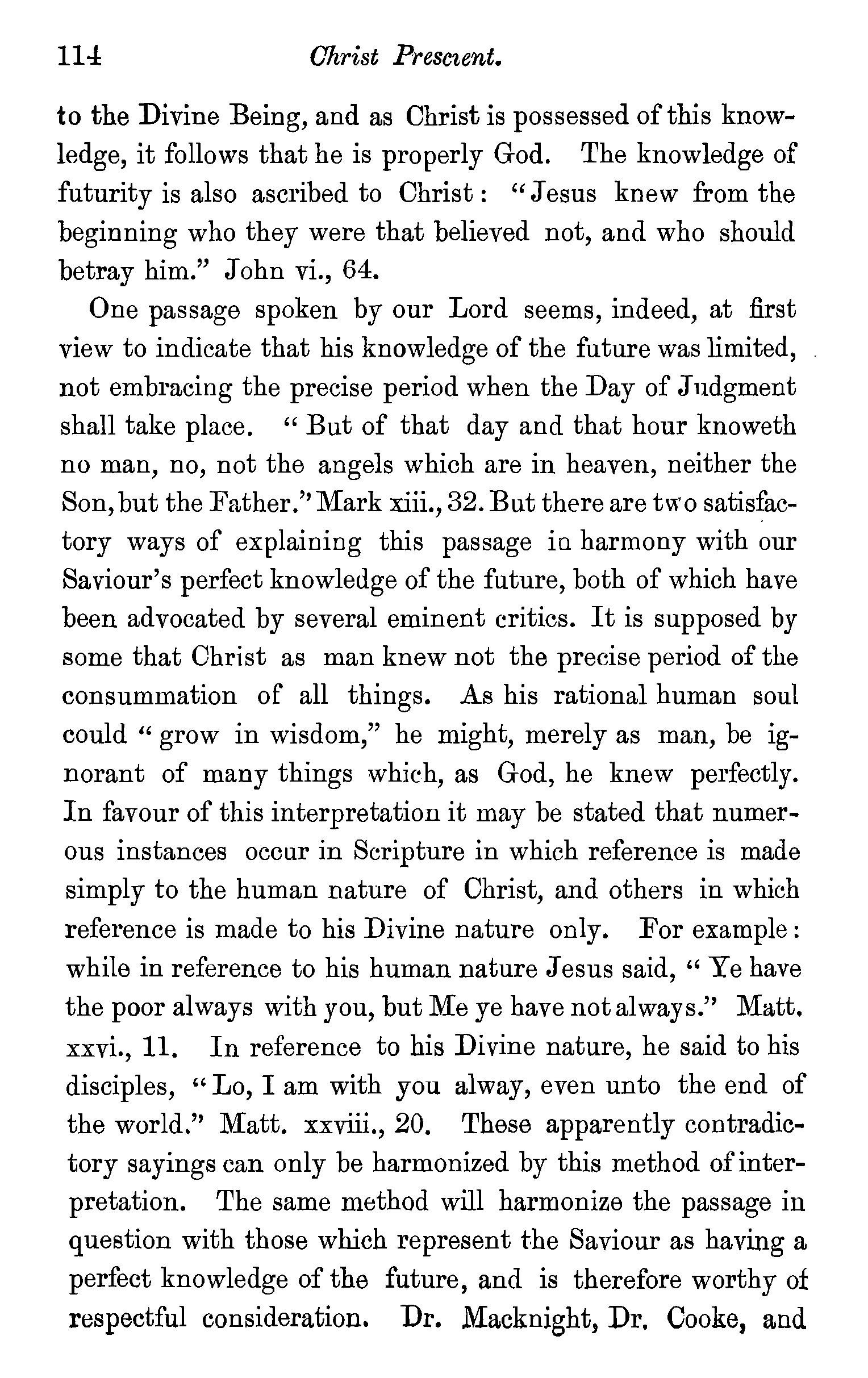
to the Divine Being, and as Christ is possessed of this knowledge, it follows that he is properly God. The knowledge of futurity is also ascribed to Christ : "Jesus knew from the beginning who they were that believed not, and who should betray hirn." John vi., 64.
One passage spoken by our Lord seems, indeed, at first view to indicate that his knowledge of the future was limited, not embracing the precise period when the Day of Judgment shall take place. "But of that day and that hour knoweth no man, no, not the angels which are in heaven, neither the Son, but the Father.''Mark xiii., 32. But there are two satisfactory ways of explaining this passage in harmony with our Saviour's perfect knowledge of the future, both of which have been advocated by several eminent critics. It is supposed by some that Christ as man knew not the precise period of the consummation of all things. As his rational human soul could "grow in wisdom," he might, merely as man, be ignorant of many things which, as God, he knew perfectly. In favour of this interpretation it may be stated that numerous instances occur in Scripture in which reference is made simply to the human nature of Christ, and others in which reference is made to his Divine nature only. For example: while in reference to his human nature Jesus said, "Ye have the poor always with you, but Me ye have not always." Matt. xxvi., 11. In reference to his Divine nature, he said to his disciples, "Lo, I am with you alway, even unto the end of the world.'' Matt. xxviii., 20. These apparently contradictory sayings can only be harmonized by this method of interpretation. The same method will harmonize the passage in question with those which represent the Saviour as having a perfect knowledge of the future, and is therefore worthy of respectful consideration. Dr. Macknight, Dr. Cooke, and
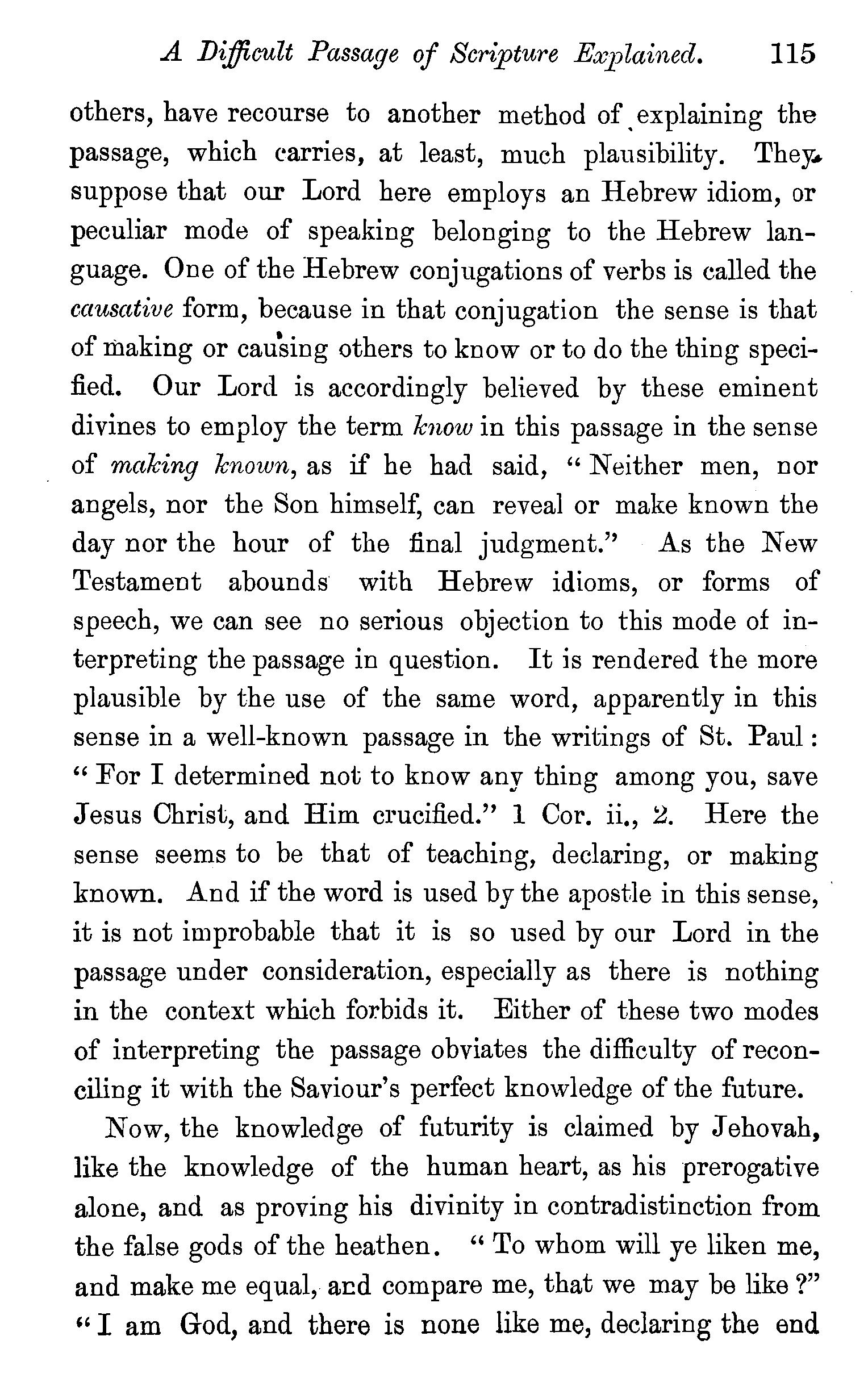
others, have recourse to another method of. explaining the passage, which carries, at least, much plausibility. They.-. suppose that our Lord here employs an Hebrew idiom, or peculiar mode of speaking belonging to the Hebrew language. One of the Hebrew conjugations of verbs is called the causative form, because in that conjugation the sense is that of making or cau1sing others to know or to do the thing specified. Our Lord is accordingly believed by these eminent divines to employ the term lcnowin this passage in the sense of making lcnown, as if he had said, " Neither men, nor angels, nor the Son himself, can reveal or make known the day nor the hour of the final judgment.'' As the New Testament abounds with Hebrew idioms, or forms of speech, we can see no serious objection to this mode of interpreting the passage in question. It is rendered the more plausible by the use of the same word, apparently in this sense in a well-known passage in the writings of St. Paul : " For I determined not to know any thing among you, save Jesus Christ, and Him crucified." 1 Cor. ii., j_ Here the sense seems to be that of teaching, declaring, or making known. And if the word is used by the apostle in this sense, • it is not improbable that it is so used by our Lord in the passage under consideration, especially as there is nothing in the context which for.bids it. Either of these two modes of interpreting the passage obviates the difficulty of reconciling it with the Saviour's perfect knowledge of the future. Now, the knowledge of futurity is claimed by Jehovah, like the knowledge of the human heart, as his prerogative alone, and as proving his divinity in contradistinction from the false gods of the heathen. "To whom will ye liken me, and make me equal, ar:d compare me, that we may be like?"
" I am God, and there is none like me, declaring the end
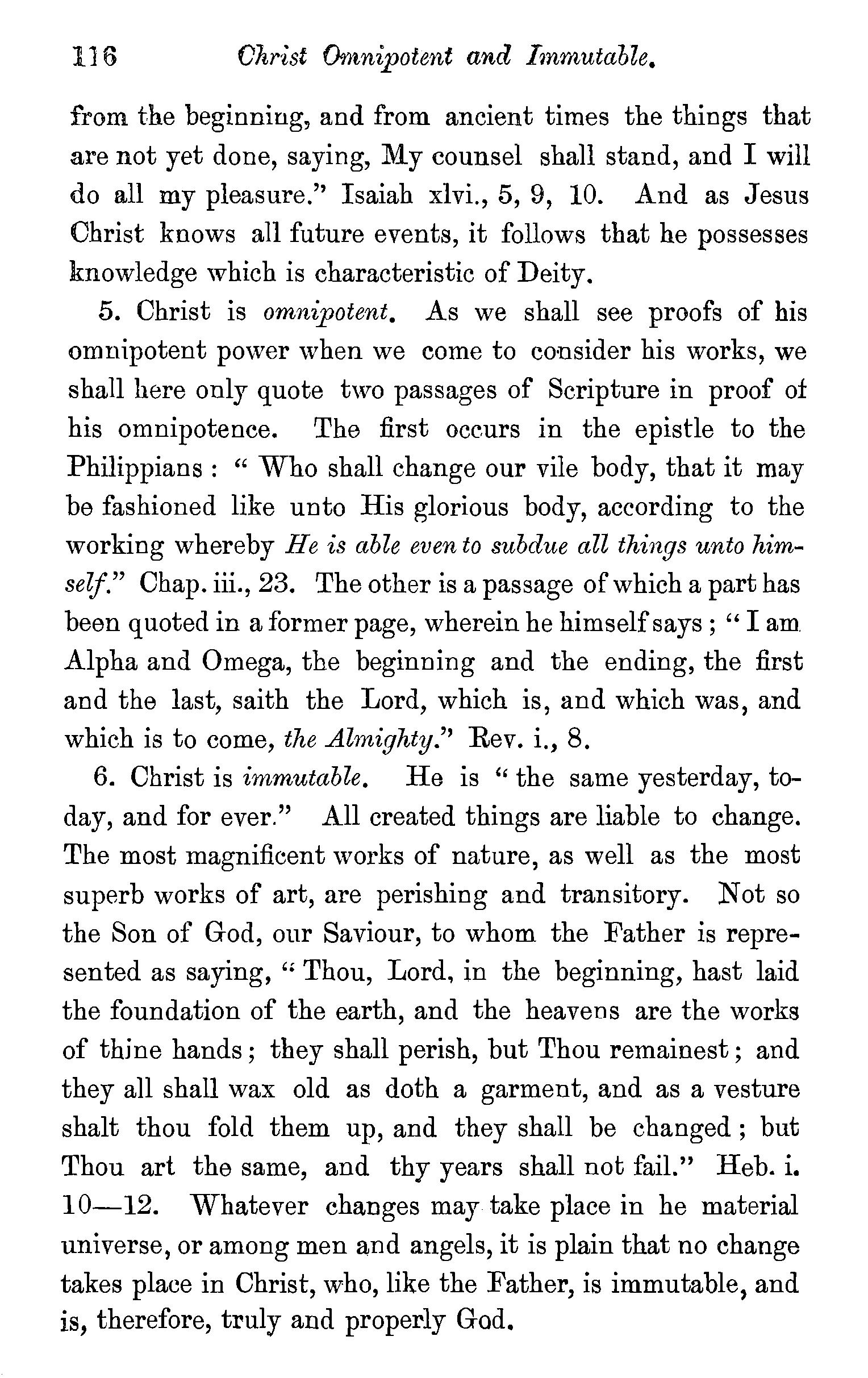
Ornnipotent and Immutable. from the beginning, and from ancient times the things that are not yet done, saying, My counsel shall stand, and I will do all my pleasure." Isaiah xlvi., 5, 9, 10. And as Jesus Christ knows all future events, it follows that he possesses knowledge which is characteristic of Deity.
5. Christ is omnipotent. As we shall see proofs of his omnipotent power when we come to consider his works, we shall here only quote two passages of Scripture in proof of his omnipotence. The first occurs in the epistle to the Philippians : " Who shall change our vile body, that it may be fashioned like unto His glorious body, according to the working whereby He is able even to subdue all things unto himself." Chap. iii., 23. The other is a passage of which a part has been quoted in a former page, wherein he himself says; "I am Alpha and Omega, the beginning and the ending, the first and the last, saith the Lord, which is, and which was, and which is to come, the Alniighty.'' Rev. i., 8.
6. Christ is immutable. He is '' the same yesterday, today, and for ever." All created things are liable to change. The most magnificent works of nature, as well as the most superb works of art, are perishing and transitory. Not so the Son of God, our Saviour, to whom the Father is represented as saying, '- Thou, Lord, in the beginning, hast laid the foundation of the earth, and the heavens are the works of thjne hands; they shall perish, but Thou remainest; and they all shall wax old as doth a garment, and as a vesture shalt thou fold them up, and they shall be changed ; but Thou art the same, and thy years shall not fail." Heb. i. 10-12. Whatever changes may take place in he material universe, or among men and angels, it is plain that no change takes place in Christ, who, like the Father, is immutable, and is, therefore, truly and properly God.
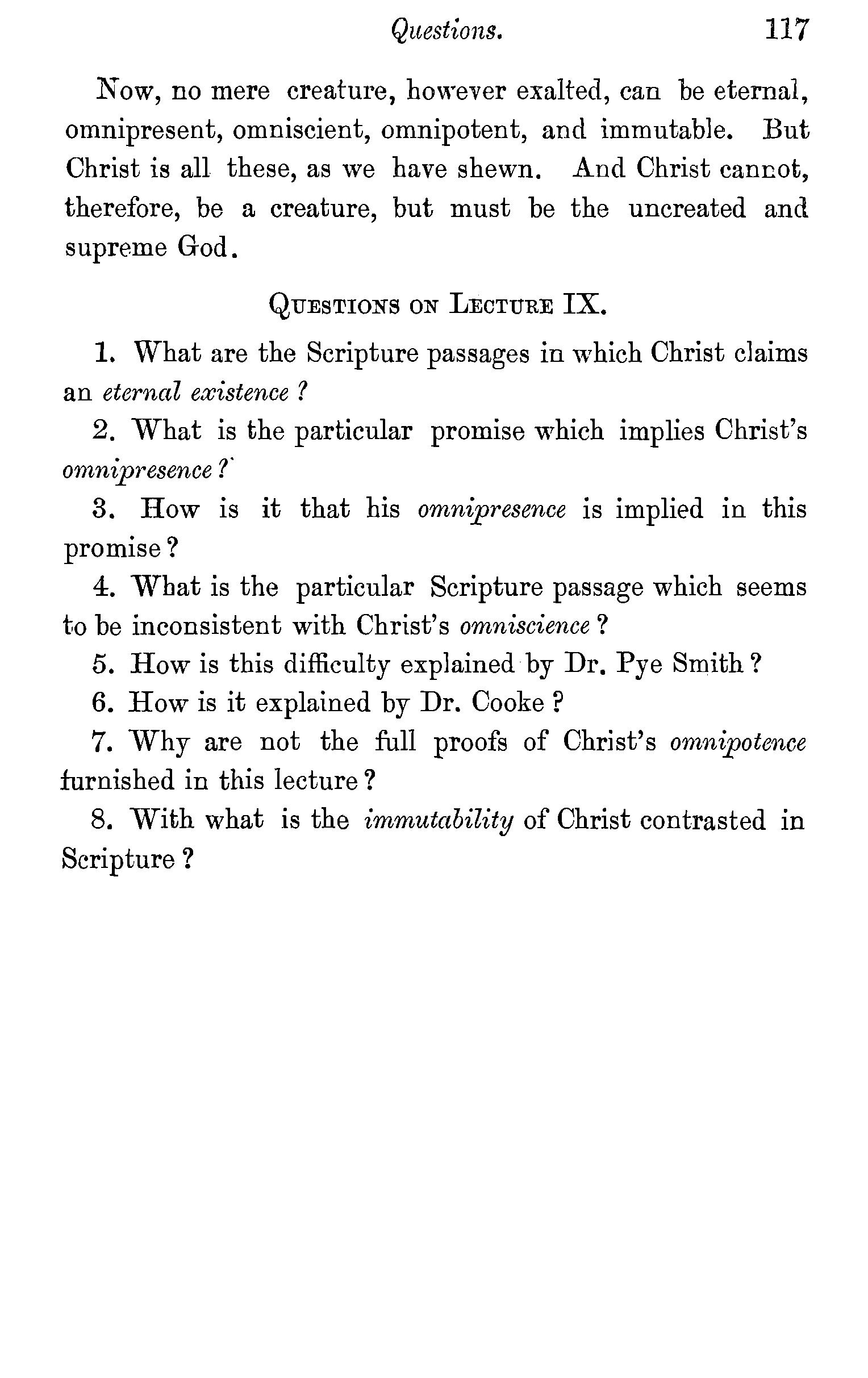
Now, no mere creature, however exalted, can be eternal, omnipresent, omniscient, omnipotent, and immutable. But Christ is all these, as we have shewn. And Christ cannot, therefore, be a creature, but must be the uncreated and supreme God.
1. What are the Scripture passages in which Christ claims an eternal existence ?
2. What is the particular promise which implies Christ's omnipresence ?'
3. How is it that his omnipresence is implied in this promise?
4. What is the particular Scripture passage which seems to be inconsistent with Christ's omniscience?
5. How is this difficulty explained by Dr. Pye Smith?
6. How is it explained by Dr. Cooke?
7. Why are not the full proofs of Christ's omnipotence furnished in this lecture ?
8. With what is the immutability of Christ contrasted in Scripture?

IFChrist be a Divine Person it is reasonable to expect that works will be ascribed to Him in the sacred Scriptures which will harmonize with His dignity and glory as such. Let us look, then, at the works which the sacred writers do actually attribute to Him.
1. We may glance at the miracles he performecl in the clays of His flesh. The works which He wrought were not only works of benevolence and mercy, they were works of extraordinary grandeur and power. He opened the eyes of the blind, unstopped the ears of the deaf, made the dumb to speak, and the lame to walk ; He cleansed leapers and healed all manner of disease; He cast out devils and raised the dead ; He spake and the raging winds were stilled, and the tempestuous sea was calmed : thus demonstrating that all nature was under his control, and the world of spirits subject to his authority.
And all these " mighty works '' were wrought in his name by a power inherent in himself, not in the name of another, nor by any foreign aid. The disciples, it is true, wrought similar miracles, but they performed their mighty works in his name and by virtue of his authority. ·" In the name of Jes us Christ of Nazareth, rise up and walk," said Peter to the lame man at the gate of the temple. Acts iii., 6. And when the cure had been effected, Peter, addressing the won-
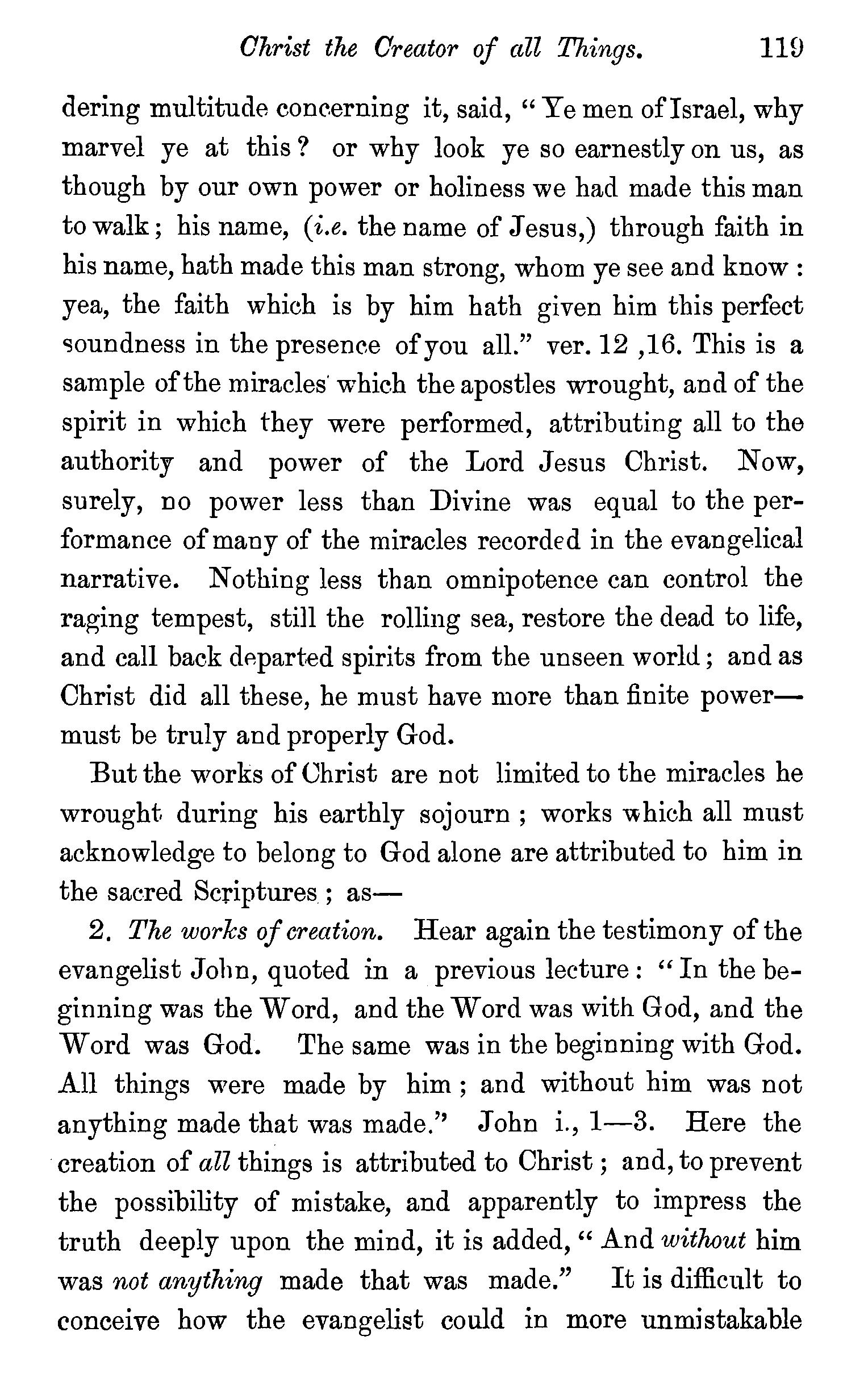
dering multitude concerning it, said, "Ye men of Israel, why marvel ye at this ? or why look ye so earnestly on us, as though by our own power or holiness we had made this man to walk; his name, (i.e. the name of Jesus,) through faith in his name, hath made this man strong, whom ye see and know: yea, the faith which is by him hath given him this perfect '3oundness in the presence of you all." ver. 12 ,16. This is a sample of the miracles· which the apostles wrought, and of the spirit in which they were performed, attributing all to the authority and power of the Lord Jesus Christ. Now, surely, no power less than Divine was equal to the performance of many of the miracles recorded in the evangelical narrative. Nothing less than omnipotence can control the raging tempest, still the rolling sea, restore the dead to life, and call back dAparted spirits from the unseen world; and as Christ did all these, he must have more than finite powermust be truly and properly God.
But the works of Christ are not limited to the miracles he wrought during his earthly sojourn; works which all must acknowledge to belong to God alone are attributed to him in the sacred Scriptures; as-
2. The works of creation. Hear again the testimony of the evangelist John, quoted in a previous lecture: "In the beginning was the Word, and the Word was with God, and the Word was God. The same was in the beginning with God. All things were made by him ; and without him was not anything made that was made.'' John i., 1-3. Here the creation of all things is attributed to Christ ; and, to prevent the possibility of mistake, and apparently to impress the truth deeply upon the mind, it is added, " And without him was not anything made that was made." It is difficult to conceive how the evangelist could in more unmjstakable
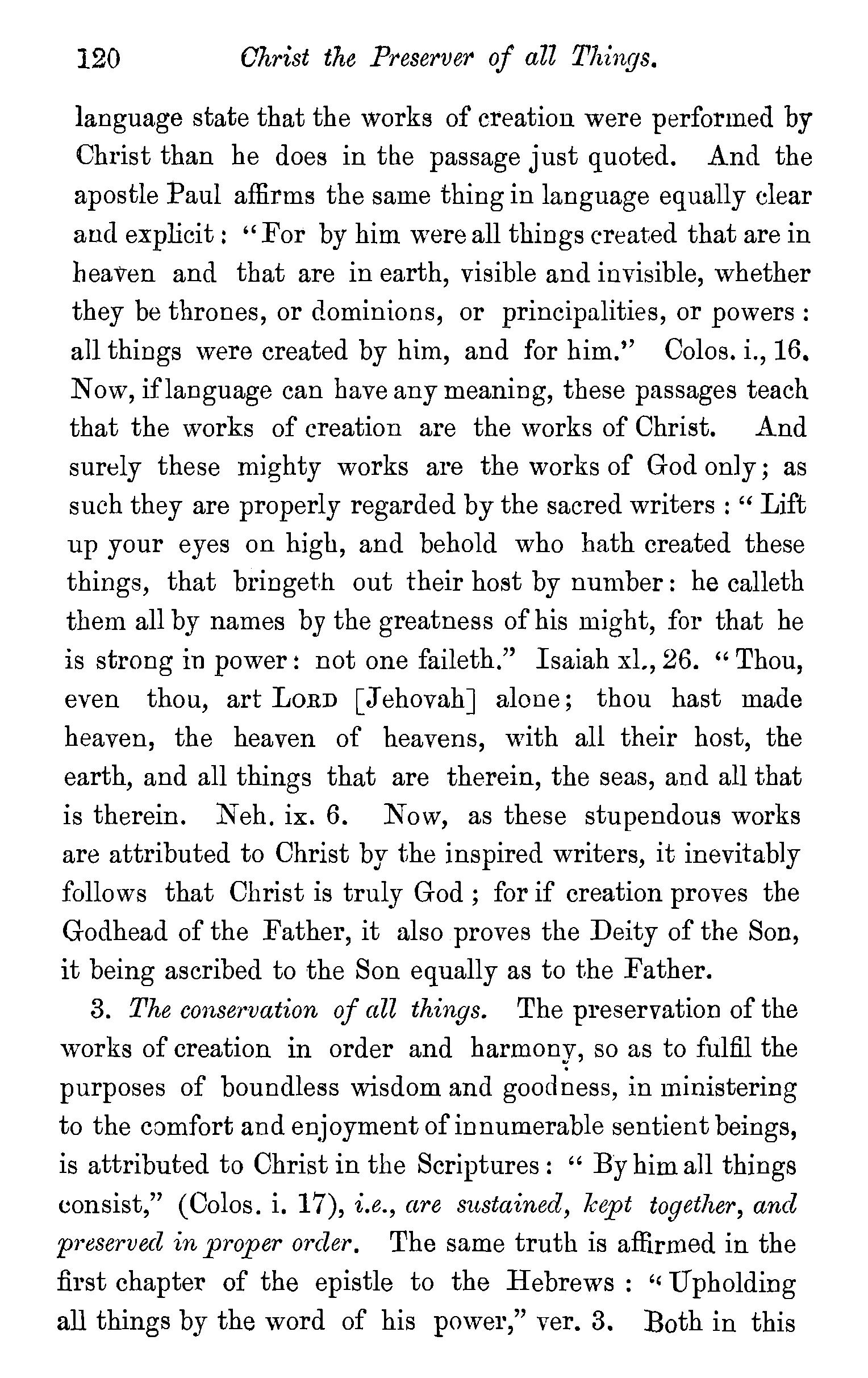
language state that the works of creation were performed by Christ than he does in the passage just quoted. And the apostle Paul affirms the same thing in language equally clear and explicit : "For by him were all things created that are in heaven and that are in earth, visible and invisible, whether they be thrones, or dominions, or principalities, or powers : all things were created by him, and for him." Colos. i., 16. Now, iflanguage can have any meaning, these passages teach that the works of creation are the works of Christ. And surely these mighty works are the works of God only; as such they are properly regarded by the sacred writers:" Lift up your eyes on high, and behold who hath created these things, that bringet.h out their host by number: he calleth them all by names by the greatness of his might, for that he is strong in power: not one faileth." Isaiah xL, 26. " Thou, even thou, art LORD [Jehovah J alone; thou hast made heaven, the heaven of heavens, with all their host, the earth, and all things that are therein, the seas, and all that is therein. Neb. ix. 6. Now, as these stupendous works are attributed to Christ by the inspired writers, it inevitably follows that Christ is truly God; for if creation proves the Godhead of the Father, it also proves the Deity of the Son, it being ascribed to the Son equally as to the Father.
3. The conservation of all things. The preservation of the works of creation in order and harmony, so as to fulfil the purposes of boundless wisdom and goodness, in ministering to the comfort and enjoyment of innumerable sentient beings, is attributed to Christ in the Scriptures : " By him all things consist," (Colos. i. 17), i.e., are sustained, kept together, and preserved in proper order. The same truth is affirmed in the first chapter of the epistle to the Hebrews : '' Upholding all things by the word of his power," ver. 3. Both in this
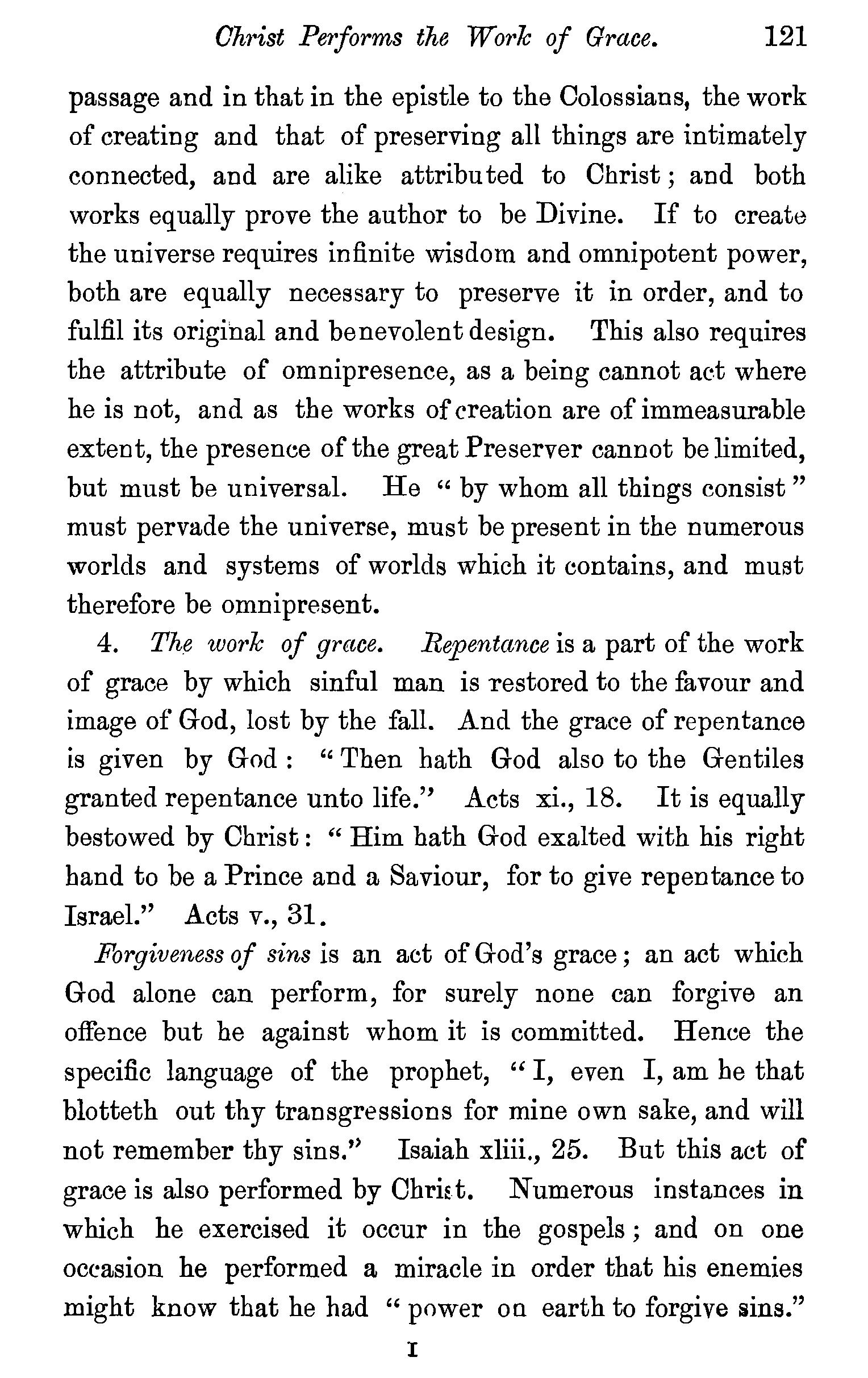
passage and in that in the epistle to the Colossians, the work of creating and that of preserving all things are intimately connected, and are alike attributed to Christ ; and both works equally prove the author to be Divine. If to create the universe requires infinite wisdom and omnipotent power, both are equally necessary to preserve it in order, and to fulfil its original and benevolent design. This also requires the attribute of omnipresence, as a being cannot act where he is not, and as the works of creation are of immeasurable extent, the presence of the great Preserver cannot be limited, but must be universal. He " by whom all things consist" must pervade the universe, must be present in the numerous worlds and systems of worlds which it contains, and must therefore be omnipresent.
4. The worlc of grctce. Repentance is a part of the work of grace by which sinful man is restored to the favour and image of God, lost by the fall. And the grace of repentance is given by God : " Then hath God also to the Gentiles granted repentance unto life.'' Acts xi., 18. It is equally bestowed by Christ: "Him hath God exalted with his right hand to be a Prince and a Saviour, for to give repentance to Israel.'' Acts v., 31.
Forgiveness of sins is an act of God's grace; an act which God alone can perform, for surely none can forgive an offence but he against whom it is committed. Hence the specific language of the prophet, " I, even I, am be that blotteth out thy transgressions for mine own sake, and will not remember thy sins.'> Isaiah xliii., 25. But this act of grace is also performed by Chrif t. Numerous instances in which he exercised it occur in the gospels; and on one occasion he performed a miracle in order that his enemies might know that he had "power on earth to forgive sins."
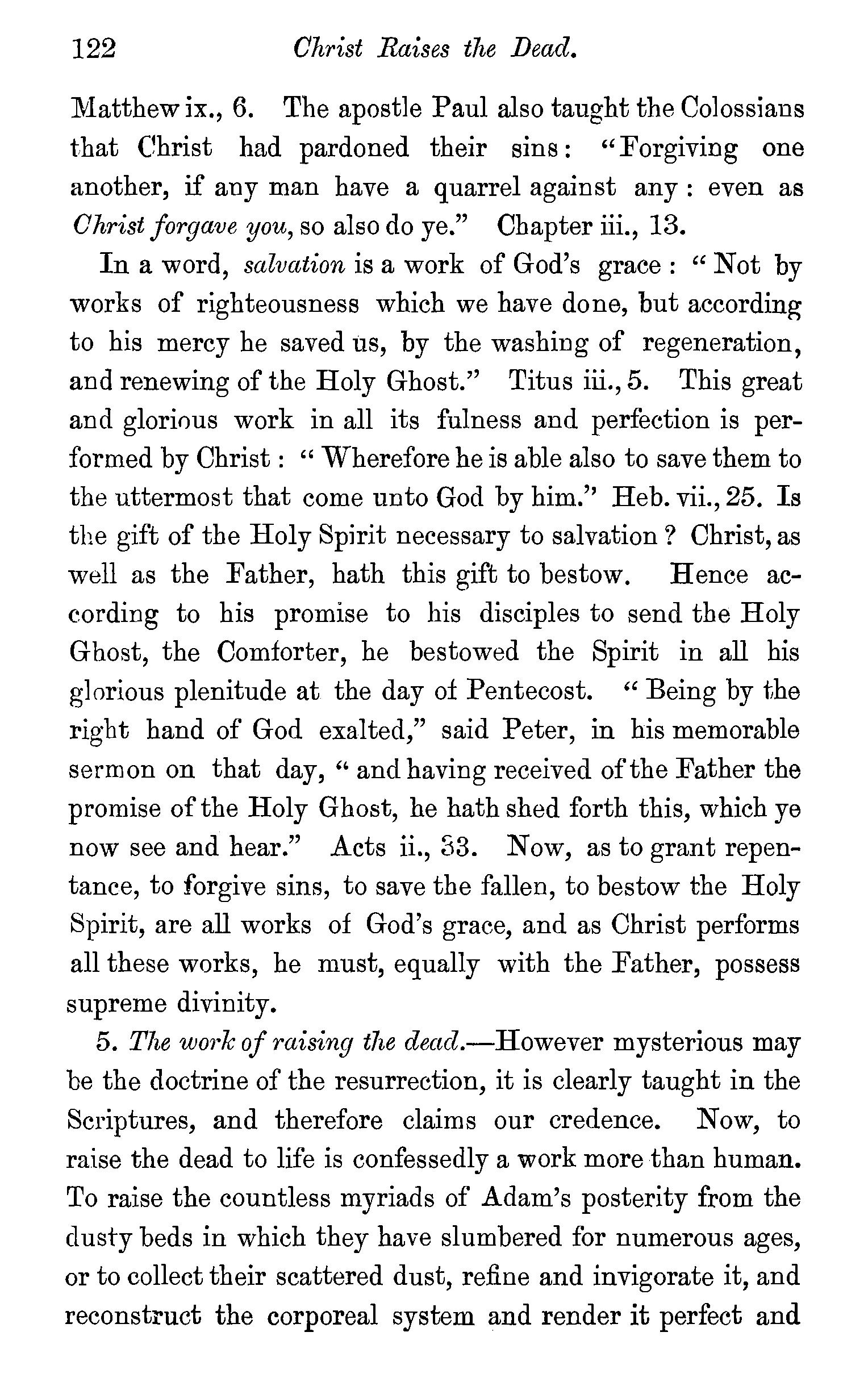
:Matthew ix., 6. The apostle Paul also taught the Colossians that Christ had pardoned their sins : "Forgiving one another, if any man have a quarrel against any : even as Christ forgave you, so also do ye." Chapter iii., 13.
In a word, salvation is a work of God's grace: "Not by works of righteousness which we have done, but according to bis mercy be saved us, by the washing of regeneration, and renewing of the Holy Ghost." Titus iii., 5. This great and glorinus work in all its fulness and perfection is performed by Obrist: "Wherefore he is able also to save them to the uttermost that come unto God by him.'' Heb. vii., 25. Is the gift of the Holy Spirit necessary to salvation? Christ, as well as the Father, hath this gift to bestow. Hence according to his promise to his disciples to send the Holy Ghost, the Comforter, he bestowed the Spirit in all his glorious plenitude at the day of Pentecost. "Being by the right hand of God exalted," said Peter, in his memorable sermon on that day, " and having received of the Father the promise of the Holy Ghost, he hath shed forth this, which ye now see and hear." Acts ii., i53. Now, as to grant repentance, to forgive sins, to save the fallen, to bestow the Holy Spirit, are all works of God's grace, and as Christ performs all these works, he must, equally with the Father, possess supreme divinity.
5. The worlcof raising the dead.-However mysterious may be the doctrine of the resurrection, it is clearly taught in the Scriptures, and therefore claims our credence. Now, to raise the dead to life is confessedly a work more than human. To raise the countless myriads of Adam's posterity from the dusty beds in which they have slumbered for numerous ages, or to collect their scattered dust, refine and invigorate it, and reconstruct the corporeal system and render it perfect and
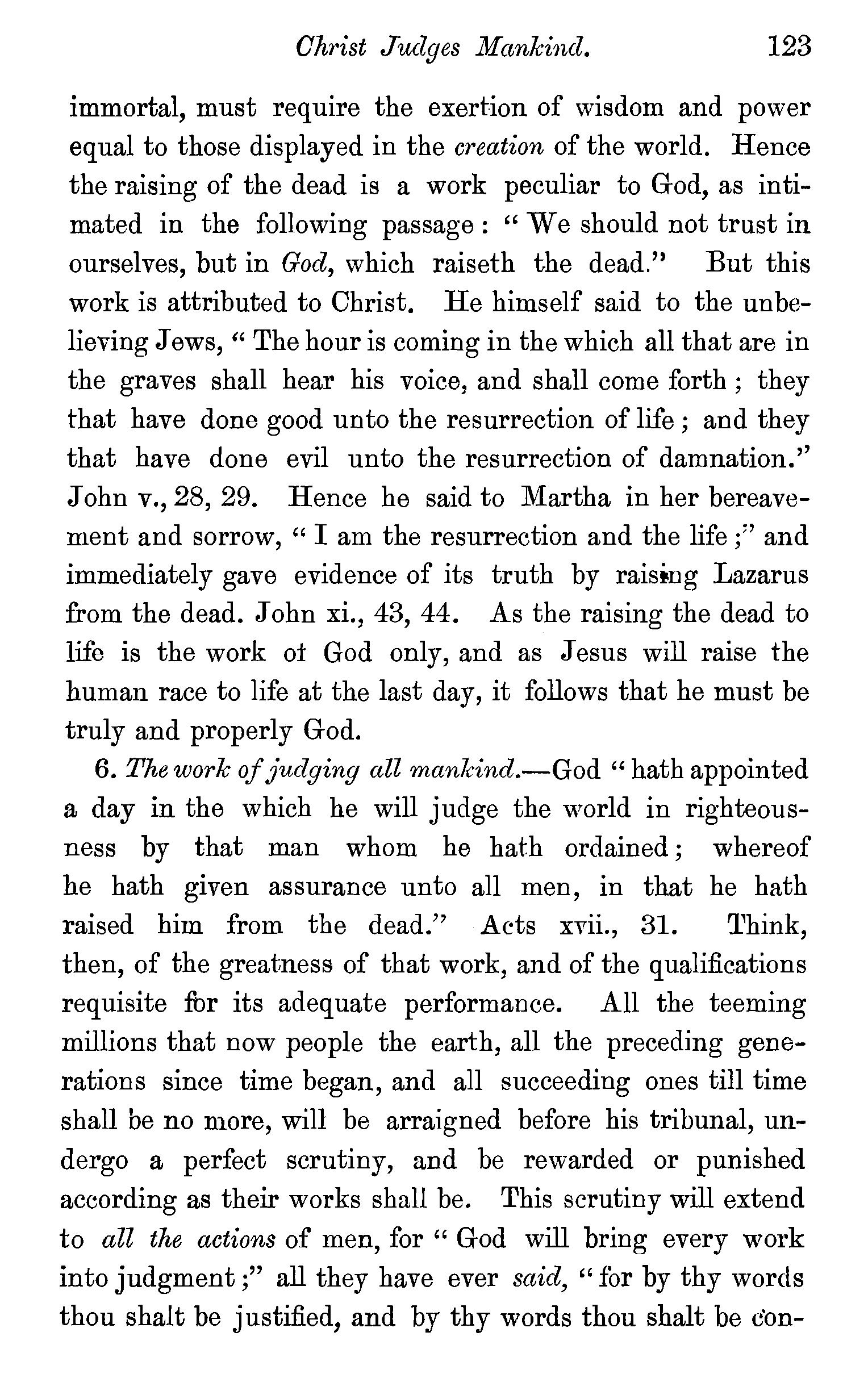
immortal, must require the exertion of wisdom and power equal to those displayed in the creation of the world. Hence the raising of the dead is a work peculiar to God, as intimated in the following passage : " We should not trust in ourselves, but in God, which raiseth the dead." But this work is attributed to Christ. He himself said to the un believing Jews, " The hour is coming in the which all that are in the graves shall hear his voice, and shall come forth ; they that have done good unto the resurrection of life ; and they that have done evil unto the resurrection of damnation.'' John v., 28, 29. Hence he said to Martha in her bereavement and sorrow, "I am the resurrection and the life t and immediately gave evidence of its truth by raisimg Lazarus from the dead. John xi., 43, 44. As the raising the dead to life is the work of God only, and as Jesus will raise the human race to life at the last day, it follows that he must be truly and properly God.
6. The work of Judging all manlcind.-God "hath appointed a day in the which he will judge the world in righteousness by that man whom he hath ordained; whereof he hath given assurance unto all men, in that he hath raised him from the dead." Acts xvii., 31. '11hink, then, of the greatness of that work, and of the qualifications requisite fur its adequate performance. All the teeming millions that now people the earth, all the preceding generations since time began, and all succeeding ones till time shall be no more, will be arraigned before his tribunal, undergo a perfect scrutiny, and be rewarded or punished according as their works shall be. This scrutiny will extend to all the actions of men, for " God will bring every work into judgment;" all they have ever said, "for by thy words thou shalt be justified, and by thy words thou shalt be c'on-
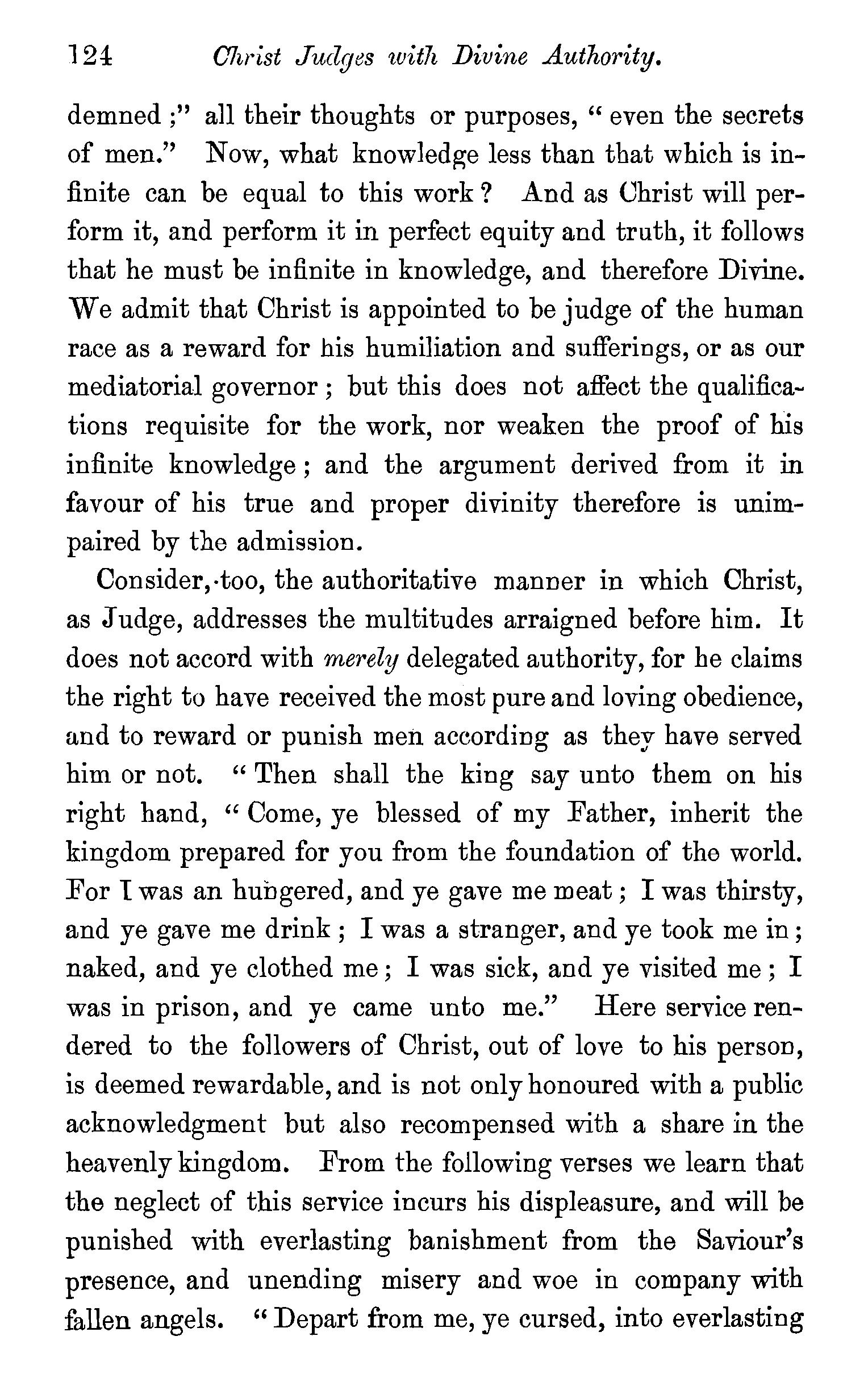
124: Oh;•ist Juclges with Divine Authority.
demned ;" all their thoughts or purposes, "even the secrets of men." Now, what knowledge less than that which is infinite can be equal to this work? And as Christ will perform it, and perform it in perfect equity and truth, it follows that he must be infinite in knowledge, and therefore Divine. We admit that Christ is appointed to be judge of the human race as a reward for his humiliation and sufferings, or as our mediatorial governor ; but this does not affect the qualifications requisite for the work, nor weaken the proof of his infinite knowledge; and the argument derived from it in favour of his true and proper divinity therefore is unimpaired by the admission.
Consider,-too, the authoritative manner in which Christ, as Judge, addresses the multitudes arraigned before him. It does not accord with merely delegated authority, for he claims the right to have received the most pure and loving obedience, and to reward or punish men according as they have served him or not. "Then shall the king say unto them on his right hand, "Come, ye blessed of my Father, inherit the kingdom prepared for you from the foundation of the world. For 1 was an hungered, and ye gave me meat; I was thirsty, and ye gave me drink; I was a stranger, and ye took me in; naked, and ye clothed me; I was sick, and ye visited me ; I was in prison, and ye came unto me." Here service rendered to the followers of Christ, out of love to his person, is deemed rewardable, and is not only honoured with a public acknowledgment but also recompensed with a share in the heavenly kingdom. From the following verses we learn that the neglect of this service incurs his displeasure, and will be punished with everlasting banishment from the Saviour's presence, and unending misery and woe in company with fallen angels. "Depart from me, ye cursed, into everlasting
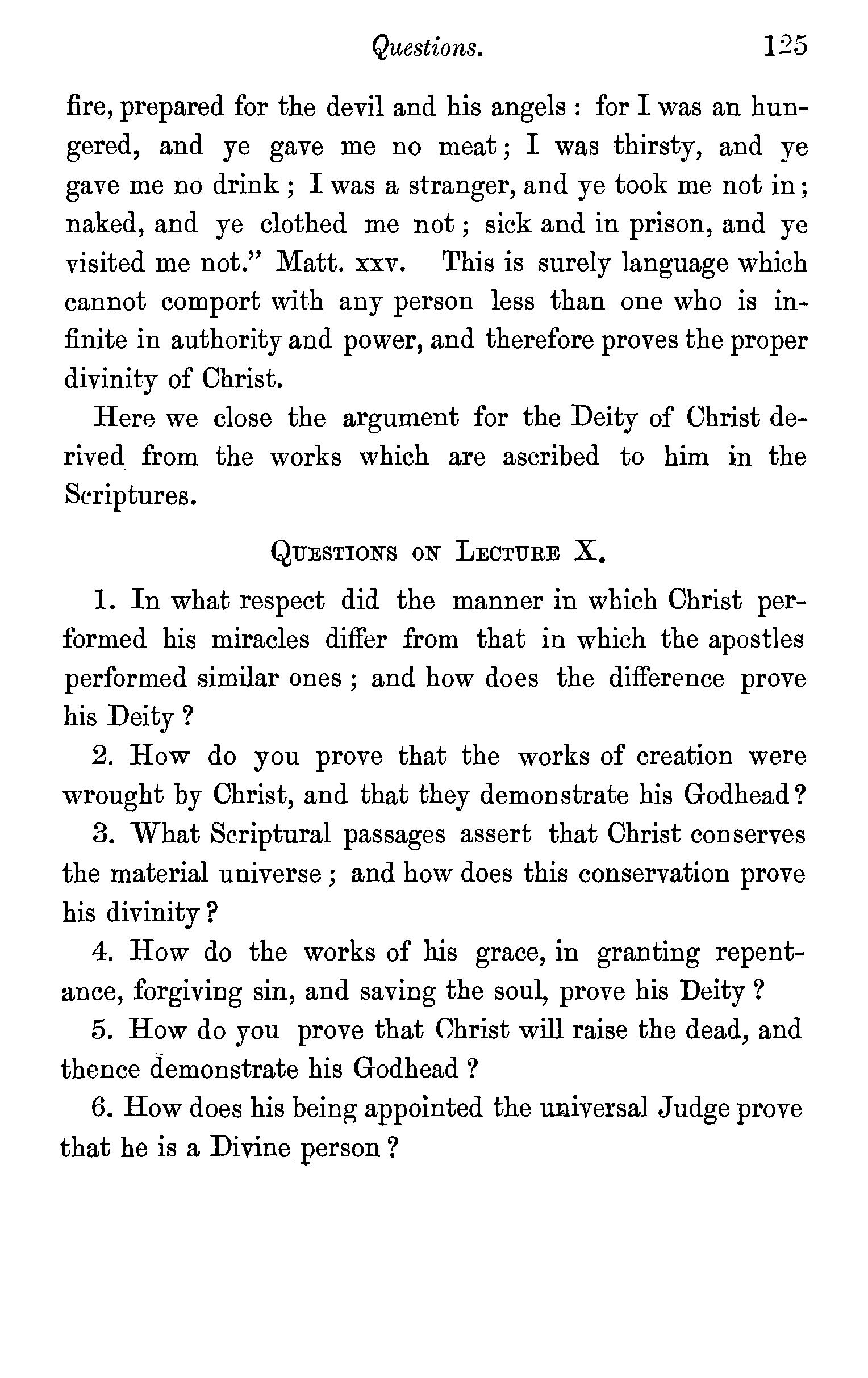
Questions. 125
fire, prepared for the devil and his angels : for I was an hungered, and ye gave me no meat; I was thirsty, and ye gave me no drink; I was a stranger, and ye took me not in; naked, and ye clothed me not ; sick and in prison, and ye visited me not." Matt. xxv. This is surely language which cannot comport with any person less than one who is infinite in authority and power, and therefore proves the proper divinity of Christ.
Here we close the argument for the Deity of Christ derived from the works which are ascribed to him in the Scriptures.
1. In what respect did the manner in which Christ performed his miracles differ from that in which the apostles performed similar ones ; and how does the difference prove his Deity?
2. How do you prove that the works of creation were wrought by Christ, and that they demonstrate his Godhead?
3. What Scriptural passages assert that Christ conserves the material universe ; and how does this conservation prove his divinity ?
4. How do the works of his grace, in granting repentance, forgiving sin, and saving the soul, prove his Deity ?
5. How do you prove that Christ will raise the dead, and thence demonstrate his Godhead ?
6. How does his being appointed the universal Judge prove that he is a Divine person ?
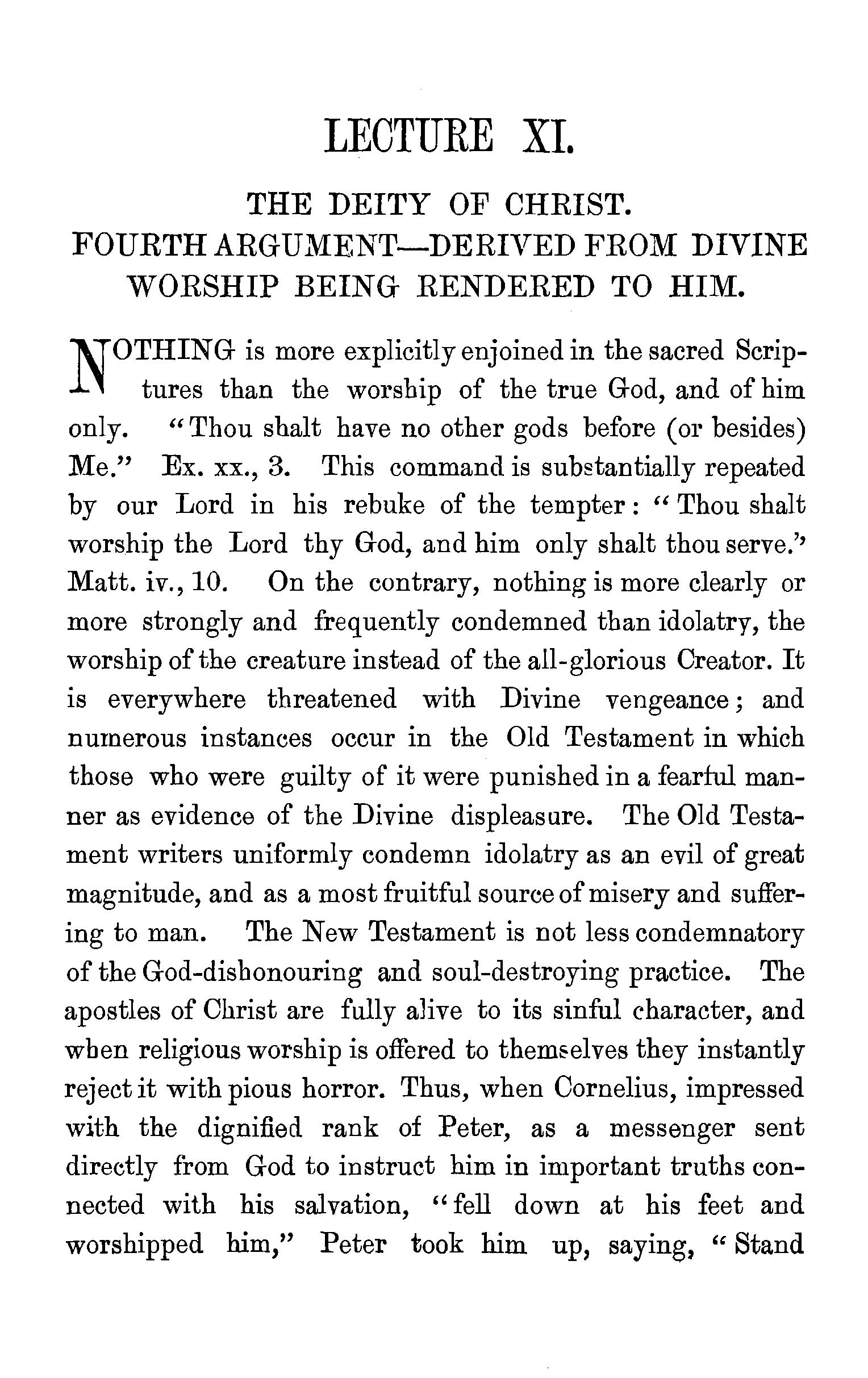
NOTHING is more explicitly enjoined in the sacred Scriptures than the worship of the true God, and of him only. "Thou shalt have no other gods before (or besides) Me." Ex. xx., 3. This command is substantially repeated by our Lord in his rebuke of the tempter : " Thou shalt worship the Lord thy God, and him only shalt thou serve.'' Matt. iv., 10. On the contrary, nothing is more clearly or more strongly and frequently condemned than idolatry, the worship of the creature instead of the all-glorious Creator. It is everywhere threatened with Divine vengeance ; and numerous instances occur in the Old Testament in which those who were guilty of it were punished in a fearful manner as evidence of the Divine displeasure. The Old Testament writers uniformly condemn idolatry as an evil of great magnitude, and as a most fruitful source of misery and suffering to man. The New Testament is not less condemnatory of the God-dishonouring and soul-destroying practice. The apostles of Christ are fully a]ive to its sinful character, and when religious worship is offered to themE-elvesthey instantly reject it with pious horror. Thus, when Cornelius, impressed with the dignified rank of Peter, as a messenger sent directly from God to instruct him in important truths connected with his salvation, "fell down at his feet and worshipped him," Peter took him up, saying, " Stand
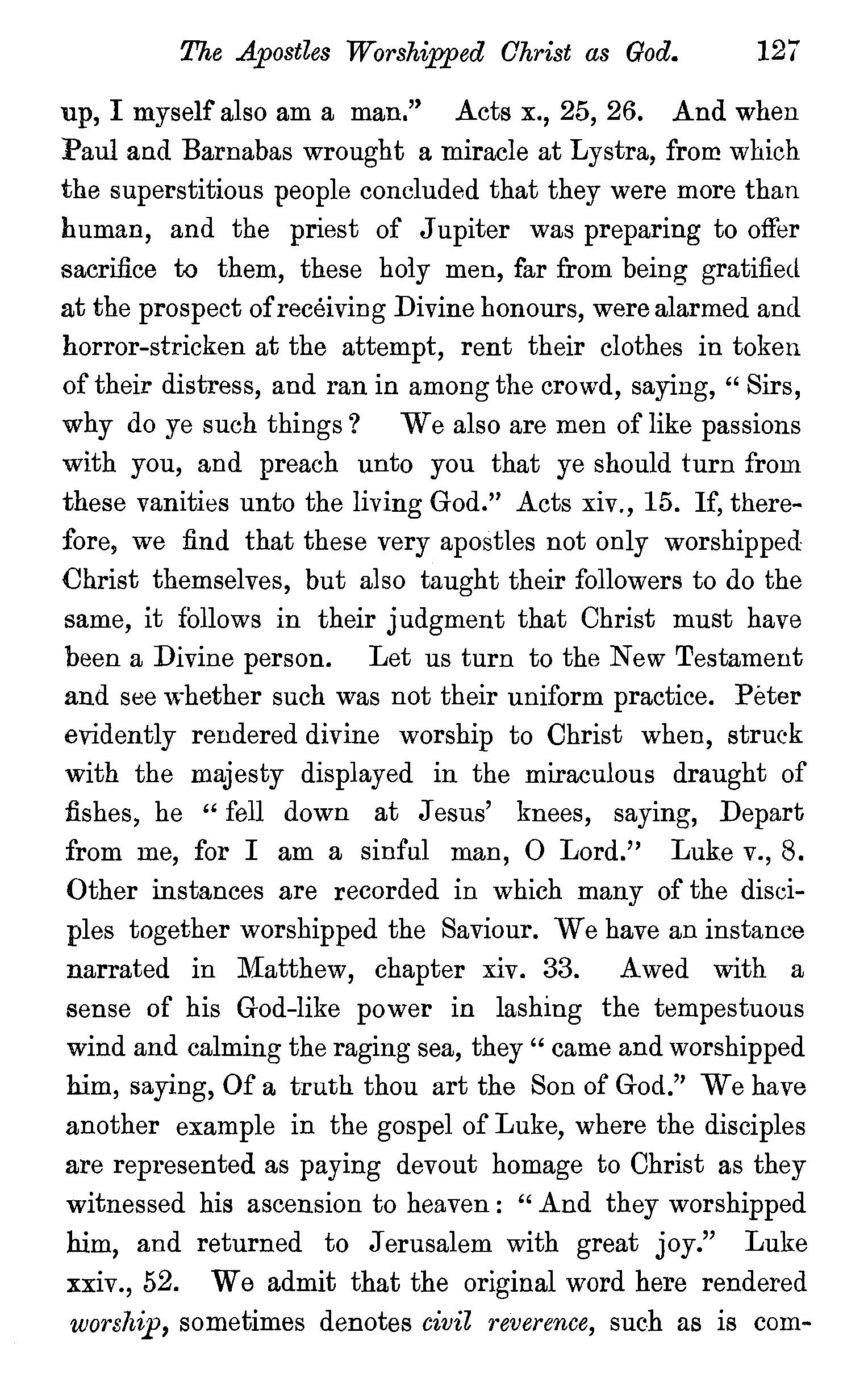
The .Apostles Worshipped Christ as God. 127
up, I myself also am a man." Acts x., 25, 26. And when Paul and Barnabas wrought a miracle at Lystra, from which the superstitious people concluded that they were more than human, and the priest of Jupiter was preparing to offer sacrifice to them, these holy men, far from being gratified at the prospect ofreceiving Divine honours, were alarmed and horror-stricken at the attempt, rent their clothes in token of their distress, and ran in among the crowd, saying, " Sirs, why do ye such things ? We also are men of like passions with you, and preach unto you that ye should turn from these vanities unto the living God." Acts xiv., 15. If, therefore, we find that these very apostles not only worshipped Christ themselves, but also taught their followers to do the same, it follows in their judgment that Christ must have been a Divine person. Let us turn to the New Testament and see l'rhether such was not their uniform practice. Peter evidently rendered divine worship to Christ when, struck with the majesty displayed in the miraculous draught of fishes, he " foll down at Jesus' knees, saying, Depart from me, for I am a sinful man, 0 Lord." Luke v., 8. Other instances are recorded in which many of the disciples together worshipped the Saviour. We have an instance narrated in Matthew, chapter xiv. 33. Awed with a sense of his God-like power in lashing the tempestuous wind and calming the raging sea, they " came and worshipped him, saying, Of a truth thou art the Son of God." We have another example in the gospel of Luke, where the disciples are represented as paying devout homage to Christ as they witnessed his ascension to heaven : "And they worshipped him, and returned to Jerusalem with great joy." Luke xxiv., 52. We admit that the original word here rendered worship, sometimes denotes civil reverence, such as is com-
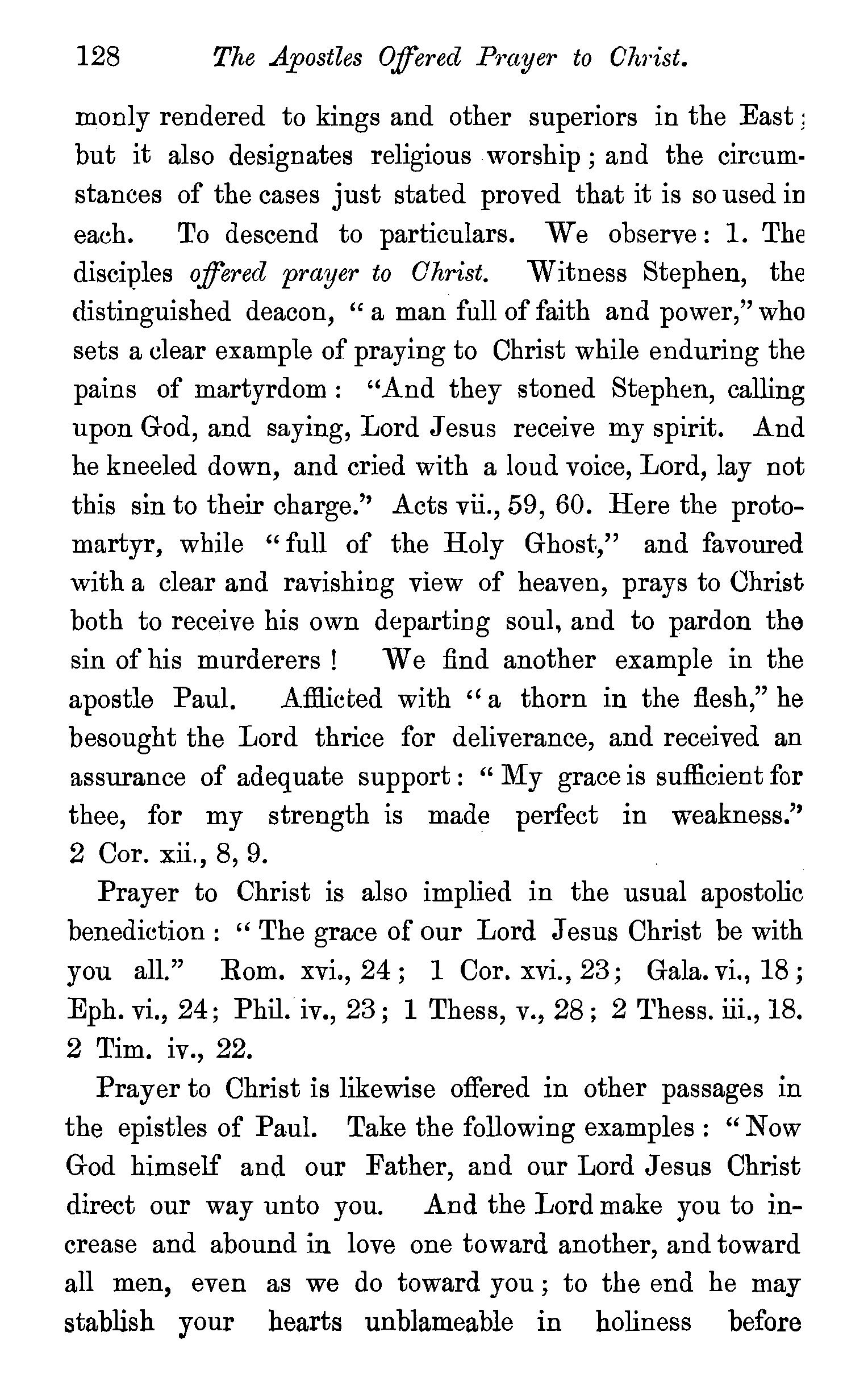
128 The Apostles Offered Pmyer to Christ.
monly rendered to kings and other superiors in the East ; but it also designates religious worship ; and the circumstances of the cases just stated proved that it is so used in each. To descend to particulars. We observe: 1. The disciples offered prayer to Christ. Witness Stephen, the distinguished deacon, "a man full of faith and power," who sets a clear example of praying to Christ while enduring the pains of martyrdom: "And they stoned Stephen, calling upon God, and saying, Lord Jesus receive my spirit. And he kneeled down, and cried with a loud voice, Lord, lay not this sin to their charge.'' Acts vii., 59, 60. Here the protomartyr, while "full of the Holy Ghost," and favoured with a clear and ravishing view of heaven, prays to Christ both to receive his own departing soul, and to pardon the sin of his murderers ! We find another example in the apostle Paul. AfI:licted with '' a thorn in the flesh," he besought the Lord thrice for deliverance, and received an assurance of adequate support: "My grace is sufficient for thee, for my strength is made perfect in weakness.''
2 Cor. xii., 8, 9.
Prayer to Christ is also implied in the usual apostolic benediction : " The grace of our Lord Jesus Christ be with you all." Rom. xvi., 24 ; 1 Cor. xvi., 23; Gala. vi., 18; Eph. vi., 24; Phil. iv., 23; 1 Thess, v., 28; 2 'I1hess.iii., 18.
2 Tim. iv., 22.
Prayer to Christ is likewise offered in other passages in the epistles of Paul. Take the following examples : "Now God himself and our Father, and our Lord Jesus Christ direct our way unto you. And the Lord make you to increase and abound in love one toward another, and toward all men, even as we do toward you ; to the end he may stablish your hearts unblameable in holiness before
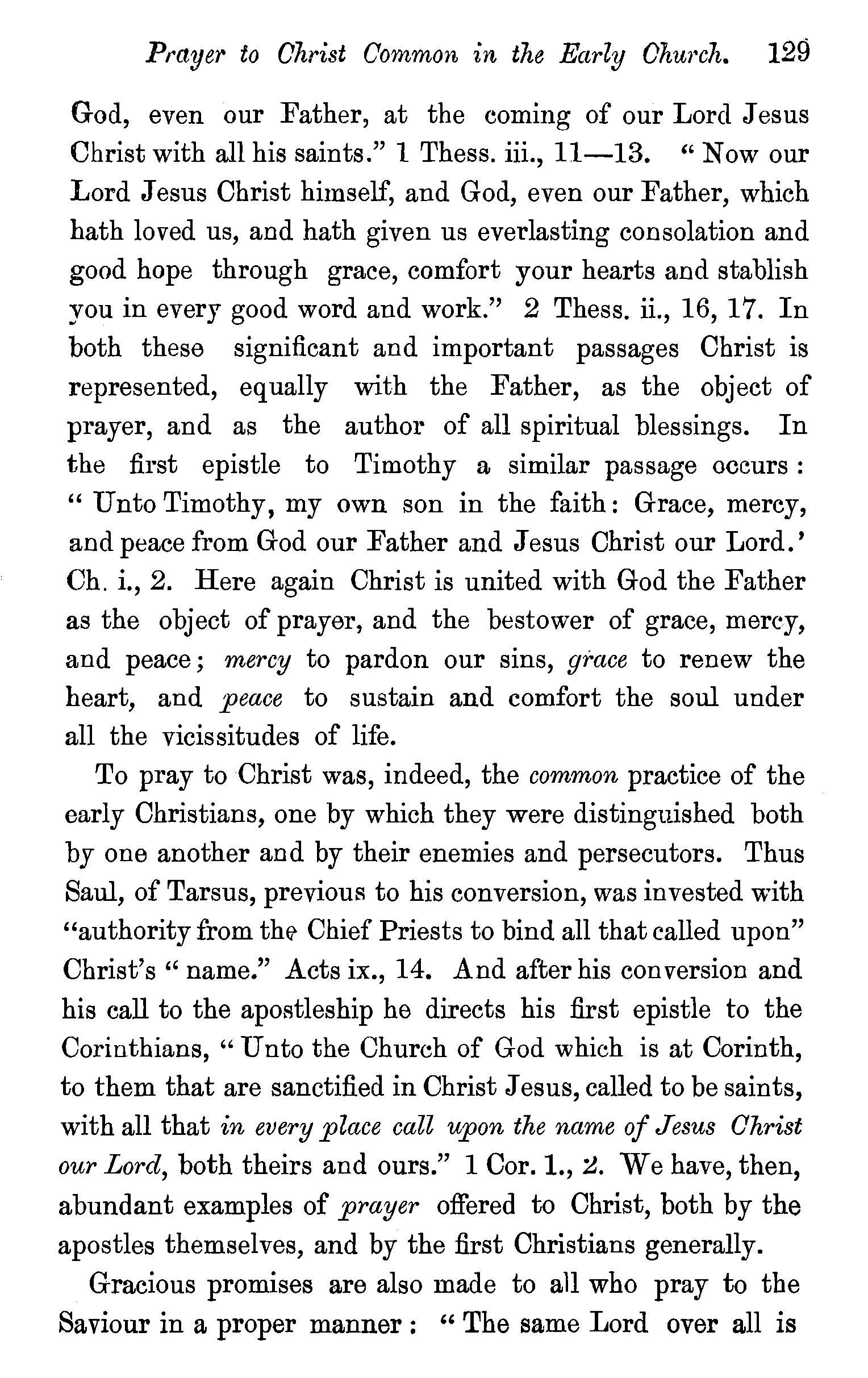
God, even our Father, at the coming of our Lord Jesus Christ with all his saints." 1 Thess. iii., 11-13. " Now our Lord Jesus Christ himself, and God, even our Father, which hath loved us, and hath given us everlasting consolation and good hope through grace, comfort your hearts and stablish you in every good word and work.'' 2 Thess. ii., 16, 17. In both these significant and important passages Christ is represented, equally with the Father, as the object of prayer, and as the author of all spiritual blessings. In the first epistle to Timothy a similar passage occurs : " Unto Timothy, my own son in the faith: Grace, mercy, and peace from God our Father and Jesus Christ our Lord.' Ch. i., 2. Here again Christ is united with God the Father as the object of prayer, and the bestower of grace, mercy, and peace ; mercy to pardon our sins, grace to renew the heart, and peace to sustain and comfort the soul under all the vicissitudes of life.
To pray to Christ was, indeed, the common practice of the early Christians, one by which they were distinguished both by one another and by their enemies and persecutors. Thus Saul, of Tarsus, previous to his conversion, was invested with "authority from th~ Chief Priests to bind all that called upon" Christ's "name." Acts ix., 14. And after his conversion and his call to the apostleship he directs his first epistle to the Corinthians, "Unto the Church of God which is at Corinth, to them that are sanctified in Christ Jesus, called to be saints, with all that in every place call upon the name of Jesus Ghrist our Lord, both theirs and ours." 1 Cor. 1., 2. We have, then, abundant examples of prayer offered to Christ, both by the apostles themselves, and by the first Christians generally. Gracious promises are also made to all who pray to the Saviour in a proper manner: "The same Lord over all is
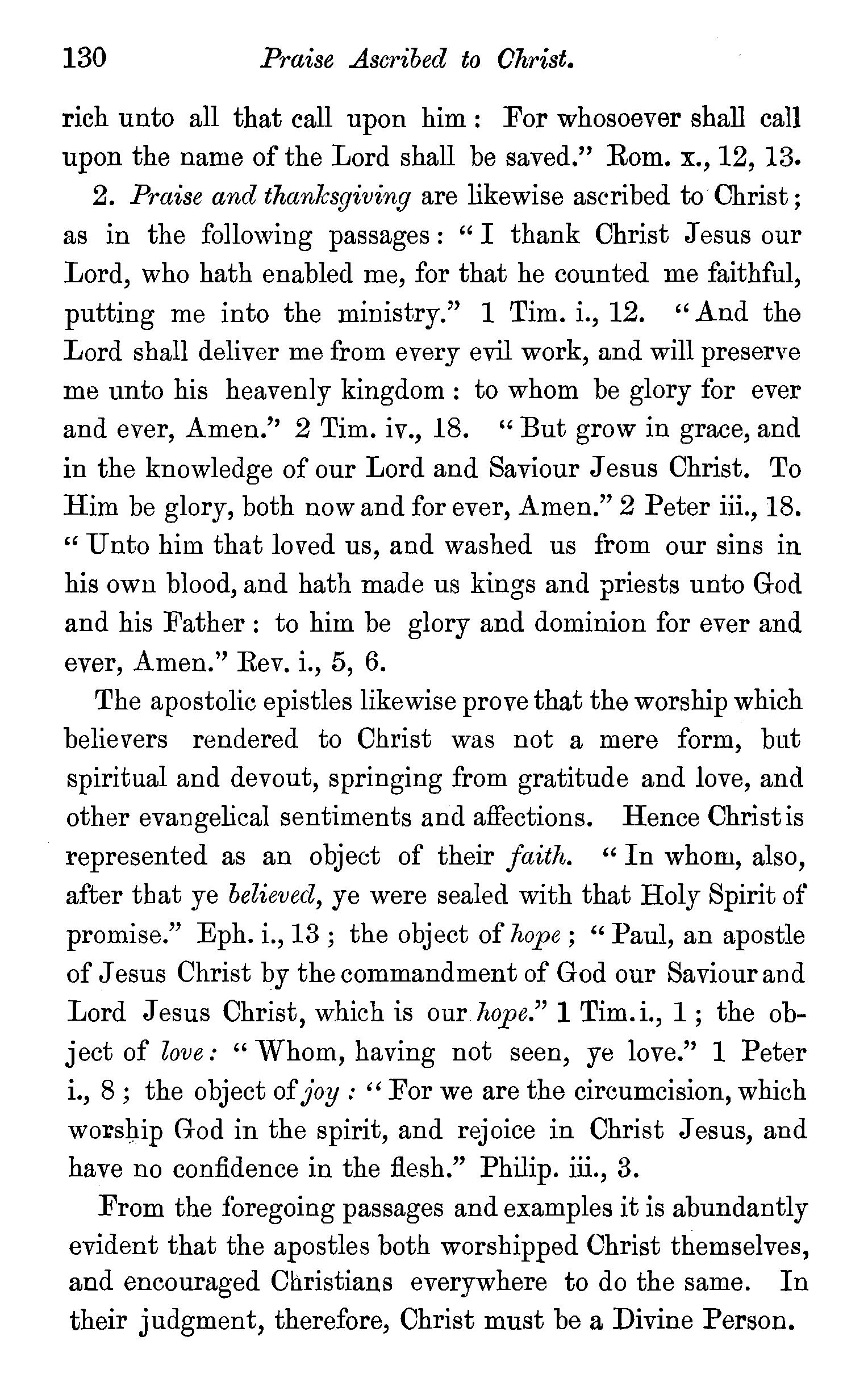
rich unto all that call upon him : For whosoever shall call upon the name of the Lord shall be saved." Rom. x., 12, 13.
2. Praise and thanksgiving are likewise ascribed to Christ; as in the following passages : " I thank Christ Jesus our Lord, who hath enabled me, for that he counted me faithful, putting me into the ministry." 1 Tim. i., 12. "And the Lord shall deliver me from every evil work, and will preserve me unto his heavenly kingdom: to whom be glory for ever and ever, Amen.'' 2 Tim. iv., 18. "But grow in grace, and in the knowledge of our Lord and Saviour Jesus Christ. To Him be glory, both now and for ever, Amen." 2 Peter iii., 18. " Unto him that loved us, and washed us from our sins in his own blood, and hath made us kings and priests unto God and his Father : to him be glory and dominion for ever and ever, Amen.'' Rev. i., 5, 6.
The apostolic epistles likewise prove that the worship which believers rendered to Christ was not a mere form, bnt spiritual and devout, springing from gratitude and love, and other evangelical sentiments and affections. Hence Christis represented as an object of their faith. "In whom, also, after that ye believed, ye were sealed with that Holy Spirit of promise." Eph. i., 13 ; the object of hope; "Paul, an apostle of Jesus Christ by the commandment of God our Saviour and Lord Jesus Christ, which is our hope." 1 Tim. i., 1; the object of love: "Whom, having not seen, ye love." 1 Peter i., 8; the object of Joy: "For we are the circumcision, which wo1"sliipGod in the spirit, and rejoice in Christ Jesus, and have no confidence in the flesh." Philip. iii., 3.
From the foregoing passages and examples it is abundantly evident that the apostles both worshipped Christ themselves, and encouraged Christians everywhere to do the same. In their judgment, therefore, Christ must be a Divine Person.
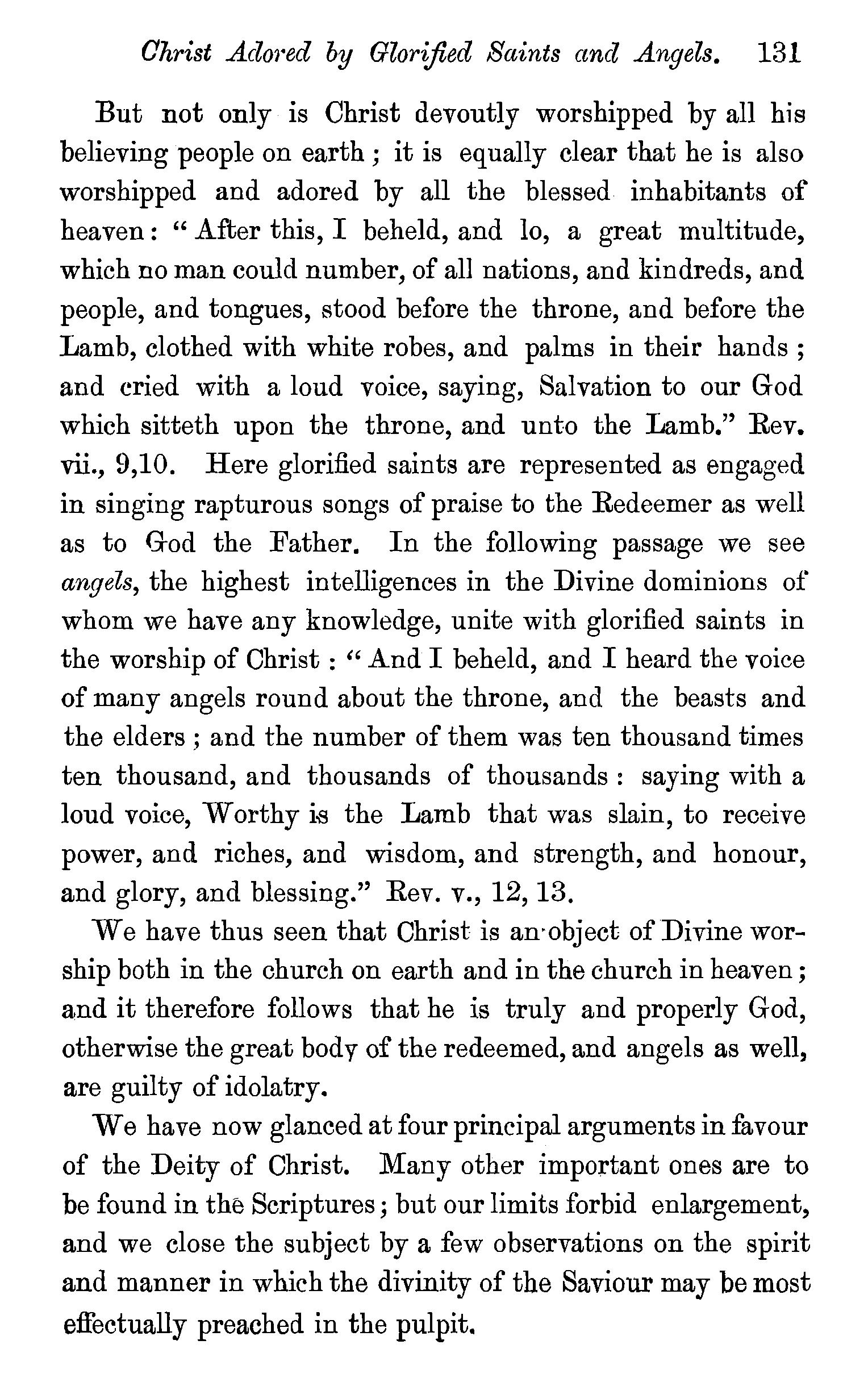
But not only is Christ devoutly worshipped by all his believing people on earth ; it is equally clear that he is also worshipped and adored by all the blessed inhabitants of heaven : " .After this, I beheld, and lo, a great multitude, which no man could number, of all nations, and kindreds, and people, and tongues, stood before the throne, and before the Lamb, clothed with white robes, and palms in their hands ; and cried with a loud voice, saying, Salvation to our God which sitteth upon the throne, and unto the Lamb." Rev. vii., 9,10. Here glorified saints are represented as engaged in singing rapturous songs of praise to the Redeemer as well as to God the Father. In the following passage we see angels, the highest intelligences in the Divine dominions of whom we have any knowledge, unite with glorified saints in the worship of Christ : ".And I beheld, and I heard the voice of many angels round about the throne, and the beasts and the elders ; and the number of them was ten thousand times ten thousand, and thousands of thousands : saying with a loud voice, Worthy is the Lamb that was slain, to receive power, and riches, and wisdom, and strength, and honour, and glory, and blessing." Rev. v., 12, 13.
We have thus seen that Christ is an·object of Divine worship both in the church on earth and in the church in heaven; and it therefore follows that he is truly and properly God, otherwise the great body of the redeemed, and angels as well, are guilty of idolatry.
We have now glanced at four principal arguments in favour of the Deity of Christ. Many other important ones are to be found in the Scriptures; but our limits forbid enlargement, and we close the subject by a few observations on the spirit and manner in which the divinity of the Saviour may be most effectually preached in the pulpit.
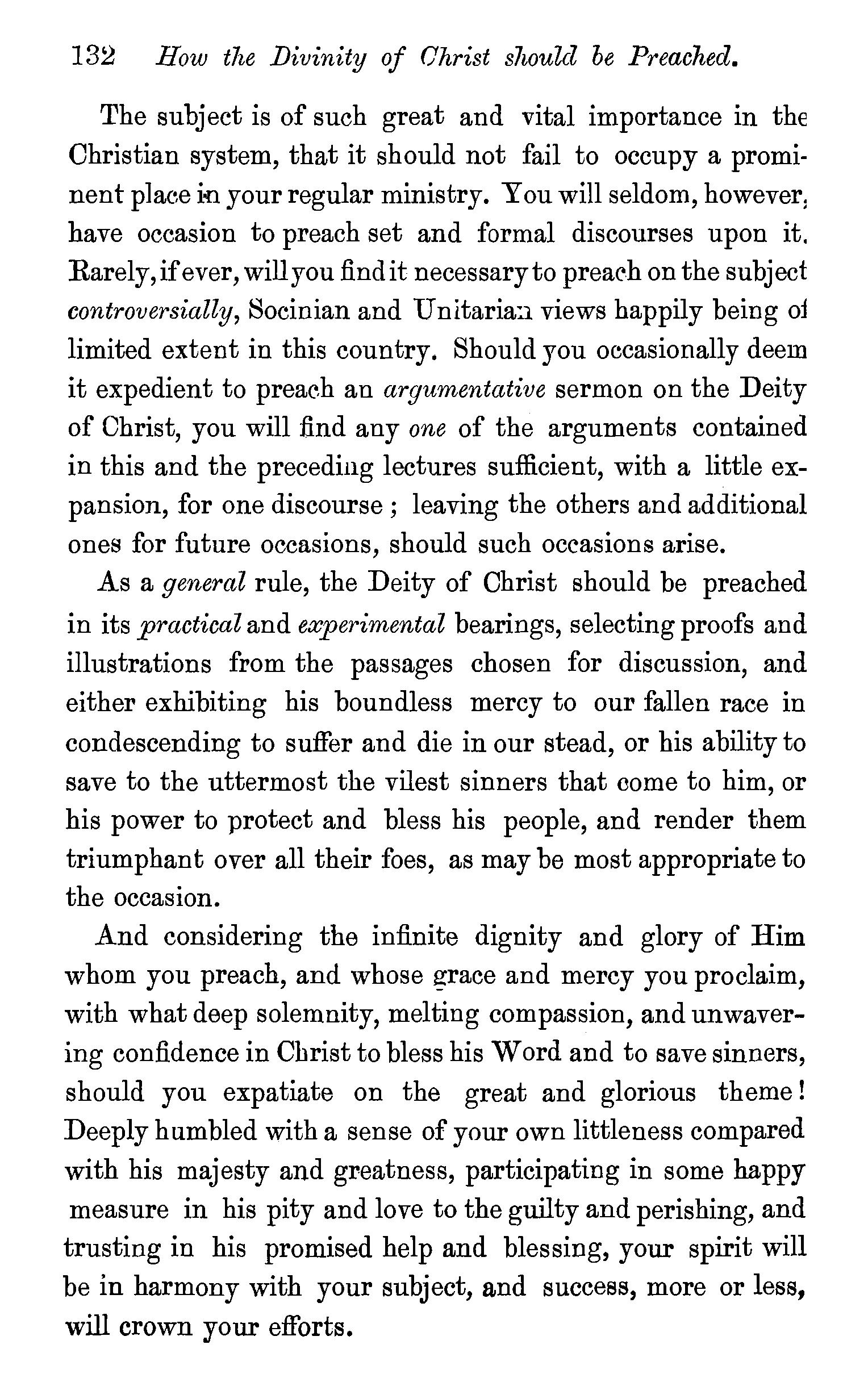
132 How the Divinity of Ghrist should be Preached.
The subject is of such great and vital importance in the Christian system, that it should not fail to occupy a prominent place i-nyour regular ministry. You will seldom, however: have occasion to preach set and formal discourses upon it. Rarely,if ever, will you .findit necessary to preach on the subject controversially, Socinian and U nitaria:i views happily being o1 limited extent in this country. Should you occasionally deem it expedient to preach an argumentcttive sermon on the Deity of Christ, you will find any one of the arguments contained in this and the preceding lectures sufficient, with a little expansion, for one discourse; leaving the others and additional ones for future occasions, should such occasions arise.
As a general rule, the Deity of Christ should be preached in its practical and experimental bearings, selecting proofs and illustrations from the passages chosen for discussion, and either exhibiting his boundless mercy to our fallen race in condescending to suffer and die in our stead, or his ability to save to the uttermost the vilest sinners that come to him, or his power to protect and bless his people, and render them triumphant over all their foes, as may be most appropriate to the occasion.
And considering the infinite dignity and glory of Him whom you preach, and whose grace and mercy you proclaim, with what deep solemnity, melting compassion, and unwavering confidence in Christ to bless his Word and to save sinners, should you expatiate on the great and glorious theme ! Deeply humbled with a sense of your own littleness compared with his majesty and greatness, participating in some happy measure in his pity and love to the guilty and perishing, and trusting in his promised help and blessing, your spirit will be in harmony with your subject, and success, more or less, will crown your efforts.
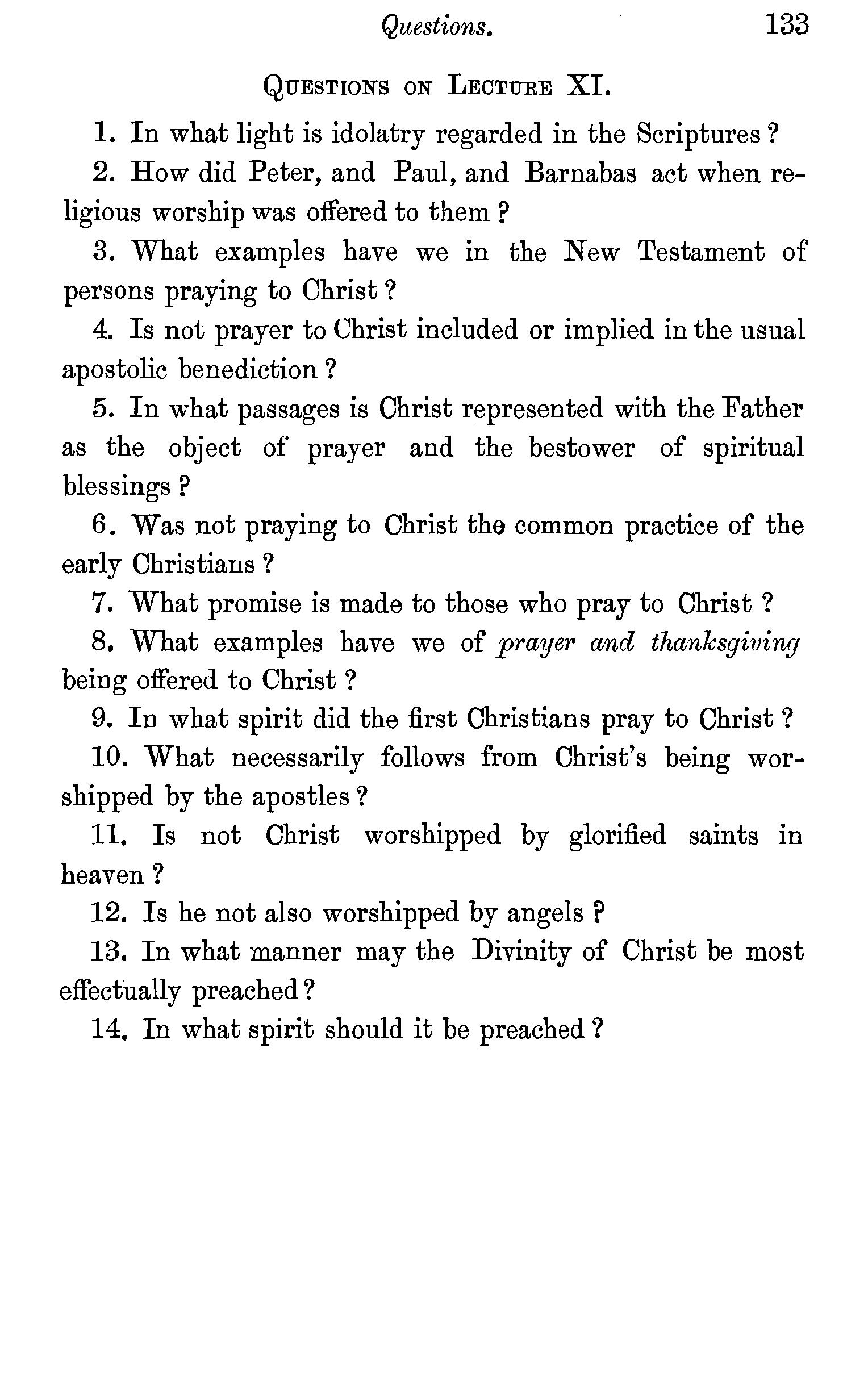
1. In what light is idolatry regarded in the Scriptures ?
2. How did Peter, and Paul, and Barnabas act when religious worship was offered to them ?
3. What examples have we in the New Testament of persons praying to Christ ?
4. Is not prayer to Christ included or implied in the usual apostolic benediction ?
5. In what passages is Christ represented with the Father as the object of prayer and the bestower of spiritual blessings?
6. Was not praying to Christ the common practice of the early Christians ?
7. What promise is made to those who pray to Christ?
8. What examples have we of prayer and thanksgiving being offered to Christ ?
9. In what spirit did the first Christians pray to Christ ?
10. What necessarily follows from Christ's being worshipped by the apostles?
11. Is not Christ worshipped by glorified saints in heaven?
12. Is he not also worshipped by angels ?
13. In what manner may the Divinity of Obrist be most effectually preached?
14. In what spirit should it be preached?
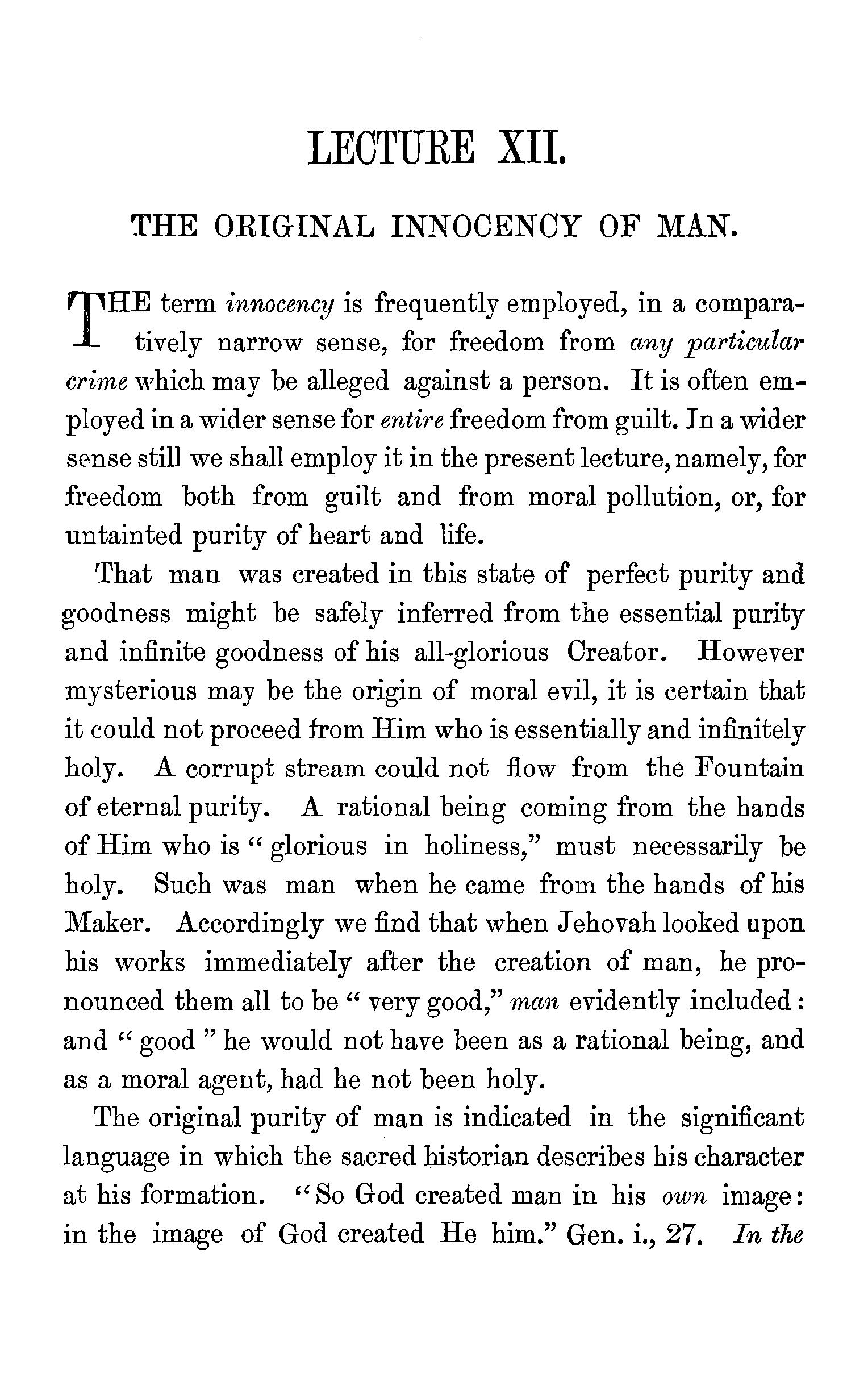
THE term innocency is frequently employed, in a comparatively narrow sense, for freedom from any particulctr crime which may be alleged against a person. It is often employed in a wider sense for entire freedom from guilt. J n a wider sense still we shall employ it in the present lecture, namely, for freedom both from guilt and from moral pollution, or, for untainted purity of heart and life.
That man was created in this state of perfect purity and goodness might be safely inferred from the essential purity and infinite goodness of his all-glorious Creator. However mysterious may be the origin of moral evil, it is certain that it could not proceed from Him who is essentially and infinitely holy. A corrupt stream could not flow from the Fountain of eternal purity. A rational being coming from the hands of Him who is "glorious in holiness," must necessarily be holy. Such was man when he came from the hands of his Maker. Accordingly we find that when Jehovah looked upon his works immediately after the creation of man, he pronounced them all to be " very good," mctn evidently included: and "good" he would not have been as a rational being, and as a moral agent, had he not been holy.
The original purity of man is indicated in the significant language in which the sacred historian describes his character at his formation. " So God created man in his own image: in the image of God created He him." Gen. i., 27. In the
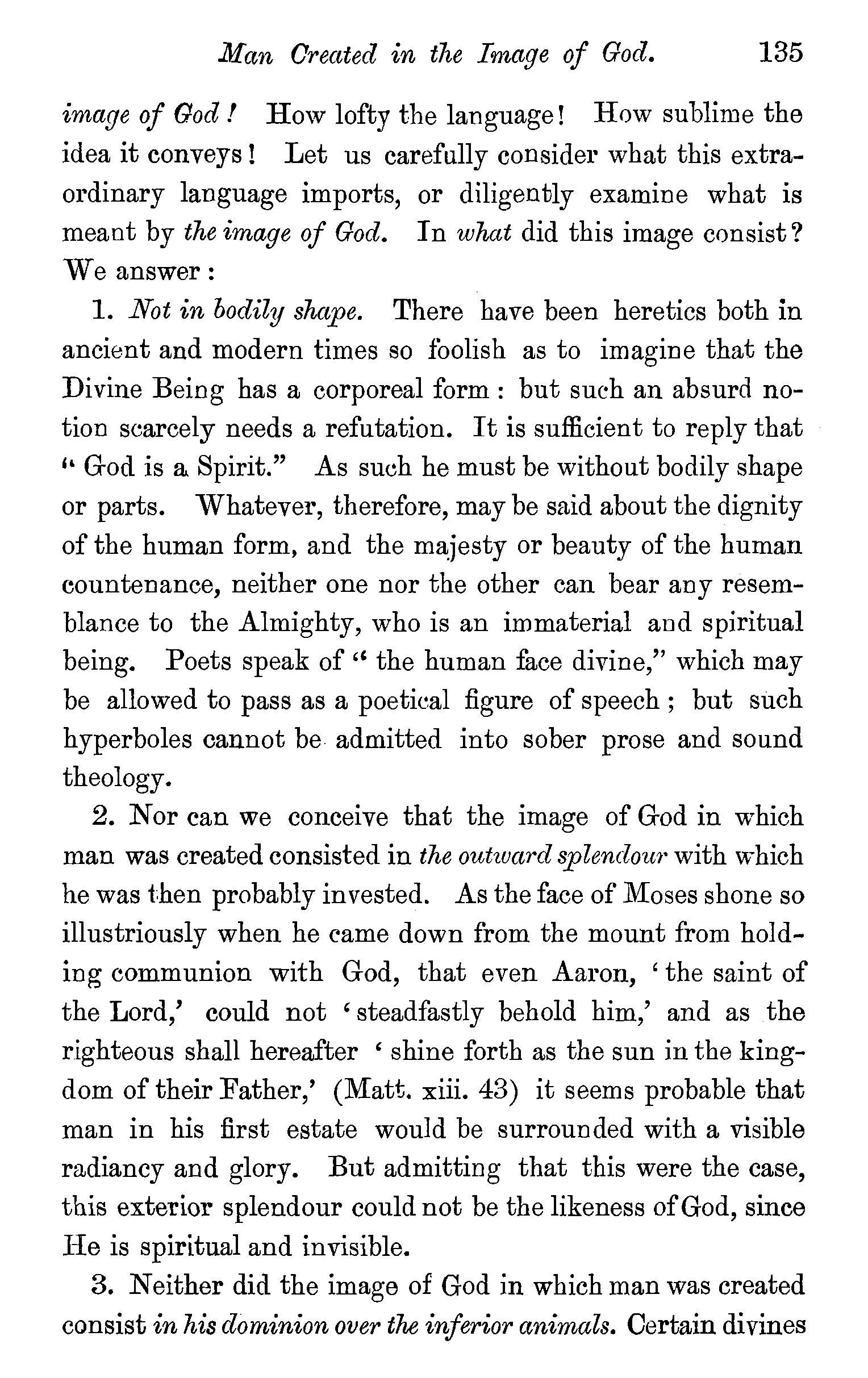
image of God! How lofty the language! How sublime the idea it conveys! Let us carefully consider what this extraordinary language imports, or diligently examine what is meant by the image of God. In what did this image consist? We answer:
I. Not in bodily shape. There have been heretics both in ancient and modern times so foolish as to imagine that the Divine Being has a corporeal form: but such an absurd notion scarcely needs a refutation. It is sufficient to reply that '' God is a Spirit." As such he must be without bodily shape or parts. Whatever, therefore, may be said about the dignity of the human form, and the majesty or beauty of the human countenance, neither one nor the other can bear any resemblance to the Almighty, who is an immaterial and spiritual being. Poets speak of '' the human face divine,'' which may be allowed to pass as a poetical figure of speech ; but such hyperboles cannot be admitted into sober prose and sound theology.
2. Nor can we conceive that the image of God in which man was created consisted in the outward splendour with which he was then probably invested. As the face of Moses shone so illustriously when he came down from the mount from holding communion with God, that even Aaron, ' the saint of the Lord,' could not 'steadfastly behold him,' and as the righteous shall hereafter ' shine forth as the sun in the kingdom of their Father,' (Matt. xiii. 43) it seems probable that man in his first estate would be surrounded with a visible radiancy and glory. But admitting that this were the case, this exterior splendour could not be the likeness of God, since He is spiritual and invisible.
3. Neither did the image of God in which man was created consist in his dominion over the inferior animals. Certain divines
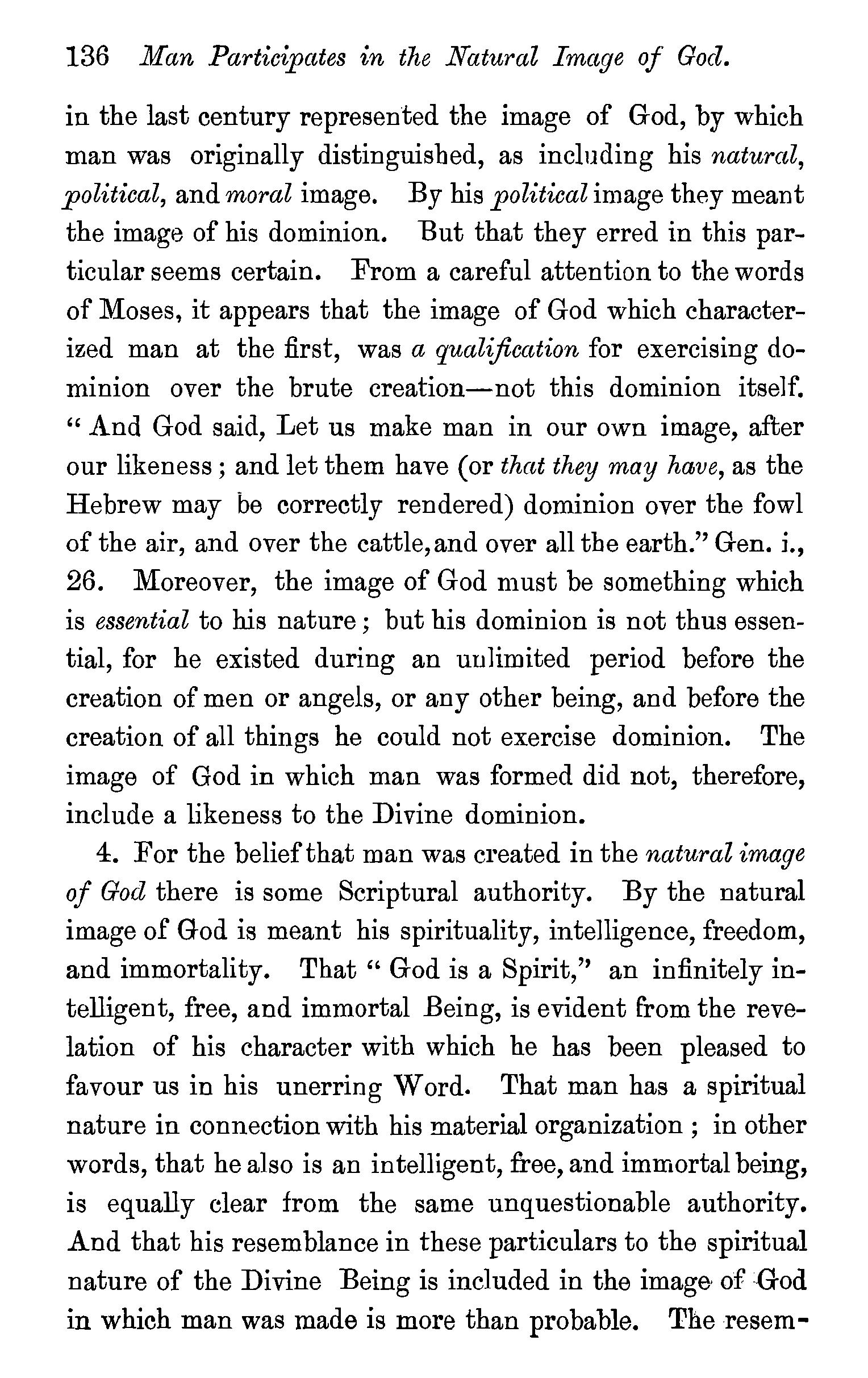
136 Man Participates in the Natural Image of Goel.
in the last century represented the image of God, by which man was originally distinguished, as including his natural, political, and moral image. By his political image they meant the image of his dominion. But that they erred in this particular seems certain. From a careful attention to the words of Moses, it appears that the image of God which characterized man at the first, was a qualificcttion for exercising dominion over the brute creation-not this dominion itself. " And God said, Let us make man in our own image, after our likeness ; and let them have ( or that they may have, as the Hebrew may be correctly rendered) dominion over the fowl of the air, and over the cattle,and over all the earth." Gen. L, 26. Moreover, the image of God must be something which is essential to his nature ; but his dominion is not thus essential, for he existed during an unlimited period before the creation of men or angels, or any other being, and before the creation of all things he could not exercise dominion. The image of God in which man was formed did not, therefore, include a likeness to the Divine dominion.
4. For the belief that man was created in the natural image of Goelthere is some Scriptural authority. By the natural image of God is meant his spirituality, intelligence, freedom, and immortality. That " God is a Spirit,'' an infinitely intelligent, free, and immortal Being, is evident from the revelation of his character with which he has been pleased to favour us in his unerring Word. That man has a spiritual nature in connection with his material organization ; in other words, that he also is an intelligent, free, and immortal being, is equally clear from the same unquestionable authority. And that his resemblance in these particulars to the spiritual nature of the Divine Being is included in the image•of God in which man was made is more than probable. The resem-
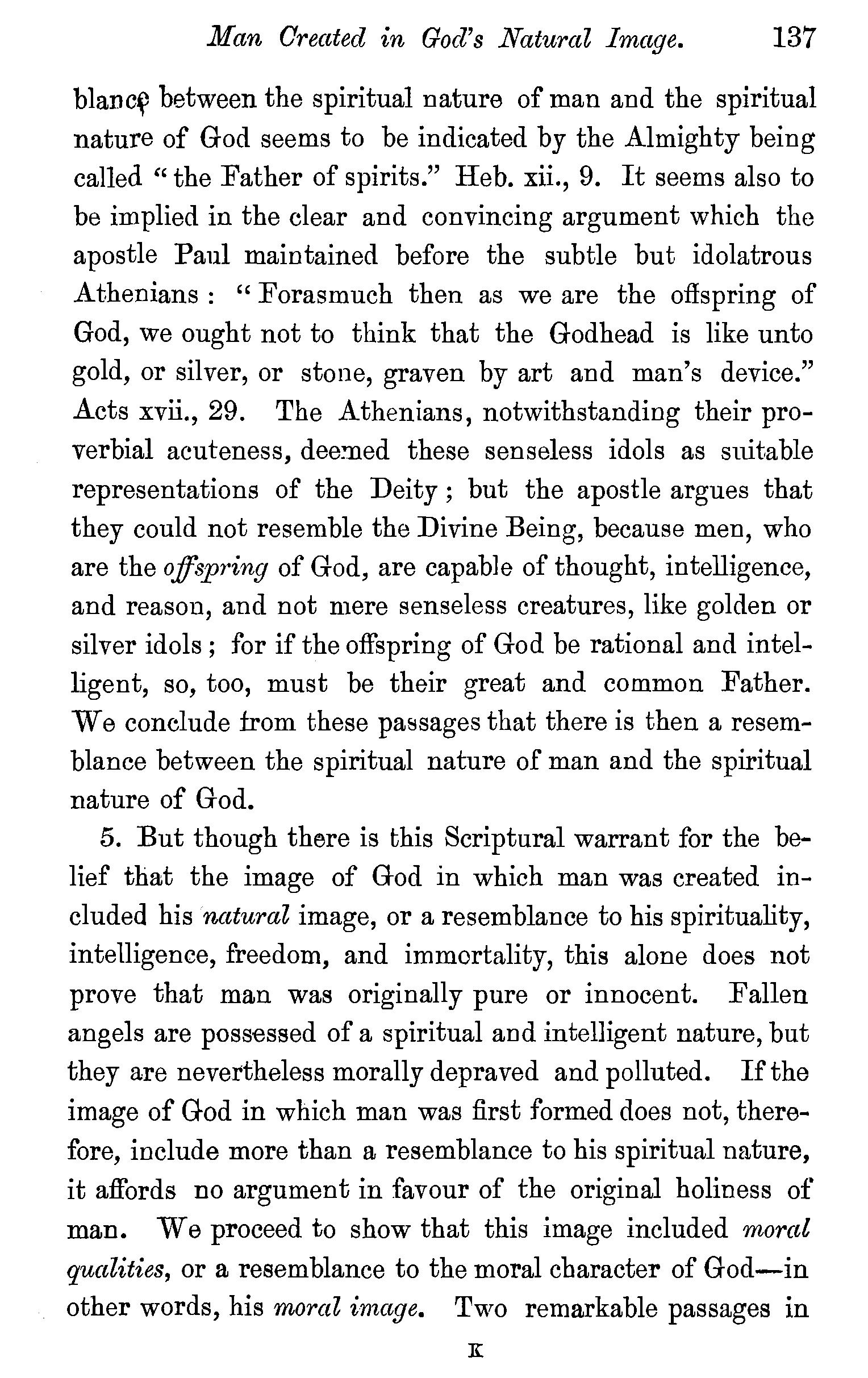
blanc~ between the spiritual nature of man and the spiritual nature of God seems to be indicated by the Almighty being called "the Father of spirits." Heb. xii., 9. It seems also to be implied in the clear and convincing argument which the apostle Paul maintained before the subtle but idolatrous Athenians : " Forasmuch then as we are the offspring of God, we ought not to think that the Godhead is like unto gold, or silver, or stone, graven by art and man's device." Acts xvii., 29. The Athenians, notwithstanding their proverbial acuteness, dee::'Iled these senseless idols as suitable representations of the Deity ; but the apostle argues that they could not resemble the Divine Being, because men, who are the offspring of God, are capable of thought, intelligence, and reason, and not mere senseless creatures, like golden or silver idols ; for if the offspring of God be rational and intelligent, so, too, must be their great and common Father. We conclude from these passages that there is then a resemblance between the spiritual nature of man and the spiritual nature of God.
5. But though there is this Scriptural warrant for the belief that the image of God in which man was created included his natural image, or a resemblance to his spirituality, intelligence, freedom, and immortality, this alone does not prove that man was originally pure or innocent. Fallen angels are possessed of a spiritual and intelligent nature, but they are nevertheless morally depraved and polluted. If the image of God in which man was first formed does not, therefore, include more than a resemblance to his spiritual nature, it affords no argument in favour of the original holiness of man. We proceed to show that this image included moral qualities, or a resemblance to the moral character of God-in other words, his moral imctge. Two remarkable passages in
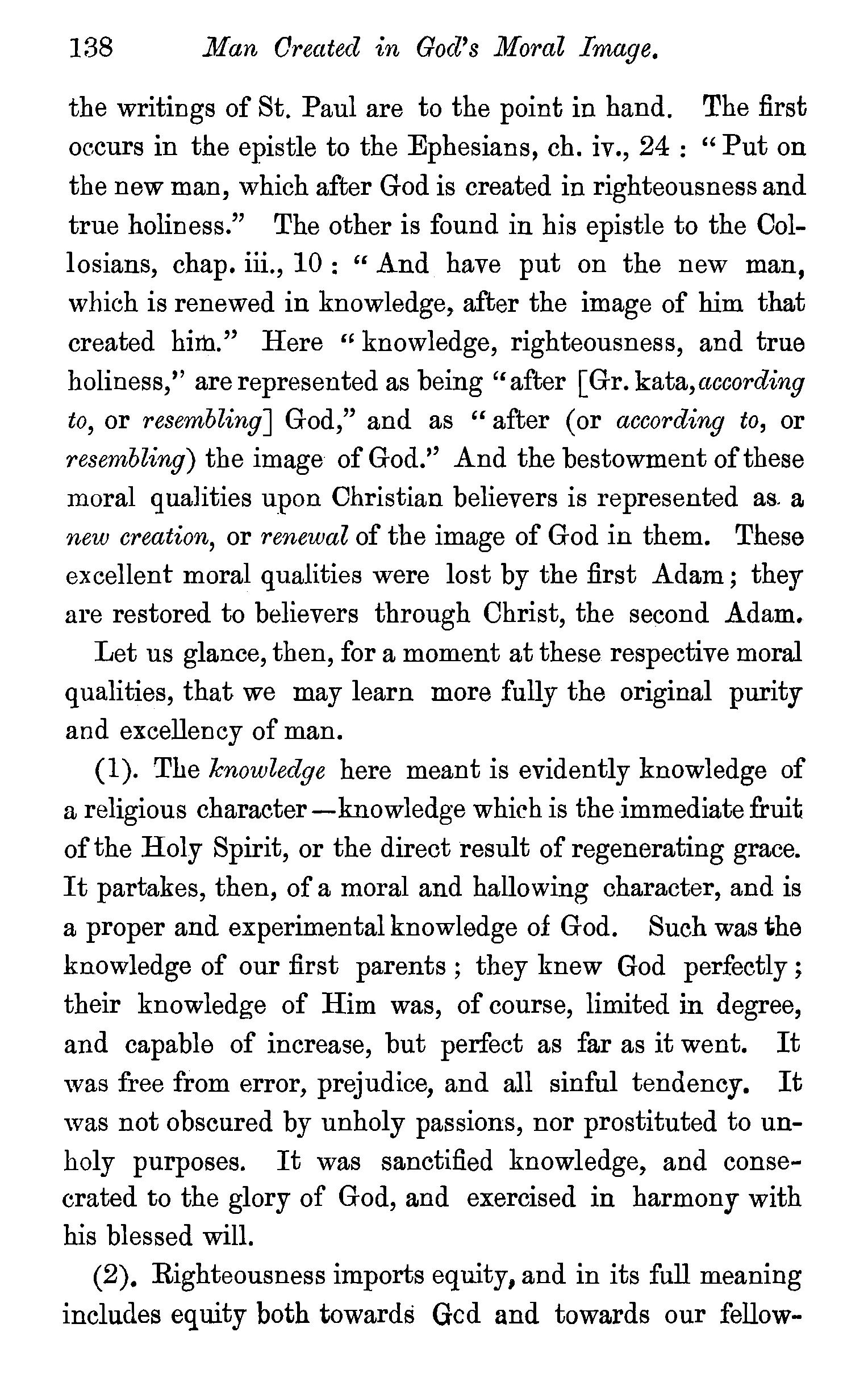
the writings of St. Paul are to the point in hand. The first occurs in the epistle to the Ephesians, ch. iv., 24 : " Put on the new man, which after God is created in righteousness and true holiness." The other is found in his epistle to the Col1osians, chap. iii., 10: "And have put on the new man, which is renewed in knowledge, after the image of him that created him." Here "knowledge, righteousness, and true holiness,'' are represented as being "after [Gr. kata,according to, or resemblingJ God," and as "after ( or according to, or resembling) the image of God.'' And the bestowment of these moral qualities upon Christian believers is represented as. a new creation, or renewal of the image of God in them. These excellent moral qualities were lost by the first Adam; they are restored to believers through Christ, the second Adam.
Let us glance, then, for a moment at these respective moral qualities, that we may learn more fully the original purity and excellency of man.
(1 ). The knowledge here meant is evidently knowledge of a religious character-knowledge which is the immediate fruit of the Holy Spirit, or the direct result of regenerating grace. It partakes, then, of a moral and hallowing character, and is a proper and experimental knowledge of God. Such was the knowledge of our first parents; they knew God perfectly; their knowledge of Him was, of course, limited in degree, and capable of increase, but perfect as far as it went. It was free from error, prejudice, and all sinful tendency. It was not obscured by unholy passions, nor prostituted to unholy purposes. It was sanctified knowledge, and consecrated to the glory of God, and exercised in harmony with his blessed will.
(2), Righteousness imports equity, and in its full meaning includes equity both towards Gcd and towards our fellow-
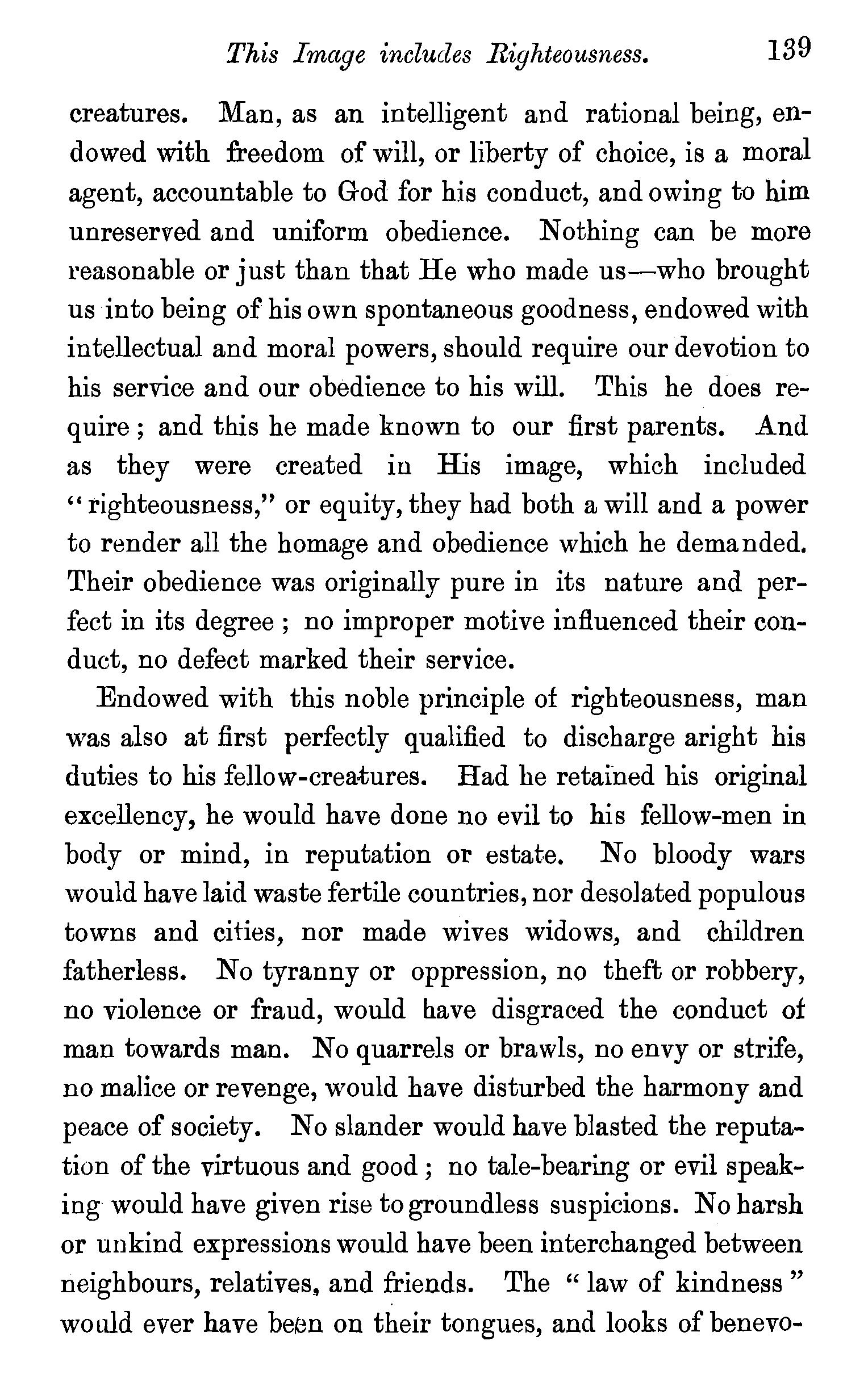
This Imctge includes Righteousness. 139
creatures. Man, as an intelligent and rational being, endowed with freedom of will, or liberty of choice, is a moral agent, accountable to God for his conduct, and owing to him unreserved and uniform obedience. Nothing can be more reasonable or just than that He who made us-who brought us into being of his own spontaneous goodness, endowed with intellectual and moral powers, should require our devotion to his service and our obedience to his will. This he does require ; and this he made known to our first parents. And as they were created in His image, which included '' righteousness," or equity, they had both a will and a power to render all the homage and obedience which he demanded. Their obedience was originally pure in its nature and perfect in its degree; no improper motive influenced their conduct, no defect marked their service.
Endowed with this noble principle of righteousness, man was also at first perfectly qualified to discharge aright his duties to his fellow-creatures. Had he retained his original excellency, he would have done no evil to his fellow-men in body or mind, in reputation or estate. No bloody wars would have laid waste fertile countries, nor desolated populous towns and cities, nor made wives widows, and children fatherless. No tyranny or oppression, no theft or robbery, no violence or fraud, would have disgraced the conduct of man towards man. No quarrels or brawls, no envy or strife, no malice or revenge, would have disturbed the harmony and peace of society. No slander would have blasted the reputation of the virtuous and good ; no tale-bearing or evil speaking would have given rise to groundless suspicions. No harsh or unkind expressions would have been interchanged between neighbours, relatives. and friends. The " law of kindness " would ever have been on their tongues, and looks of benevo-
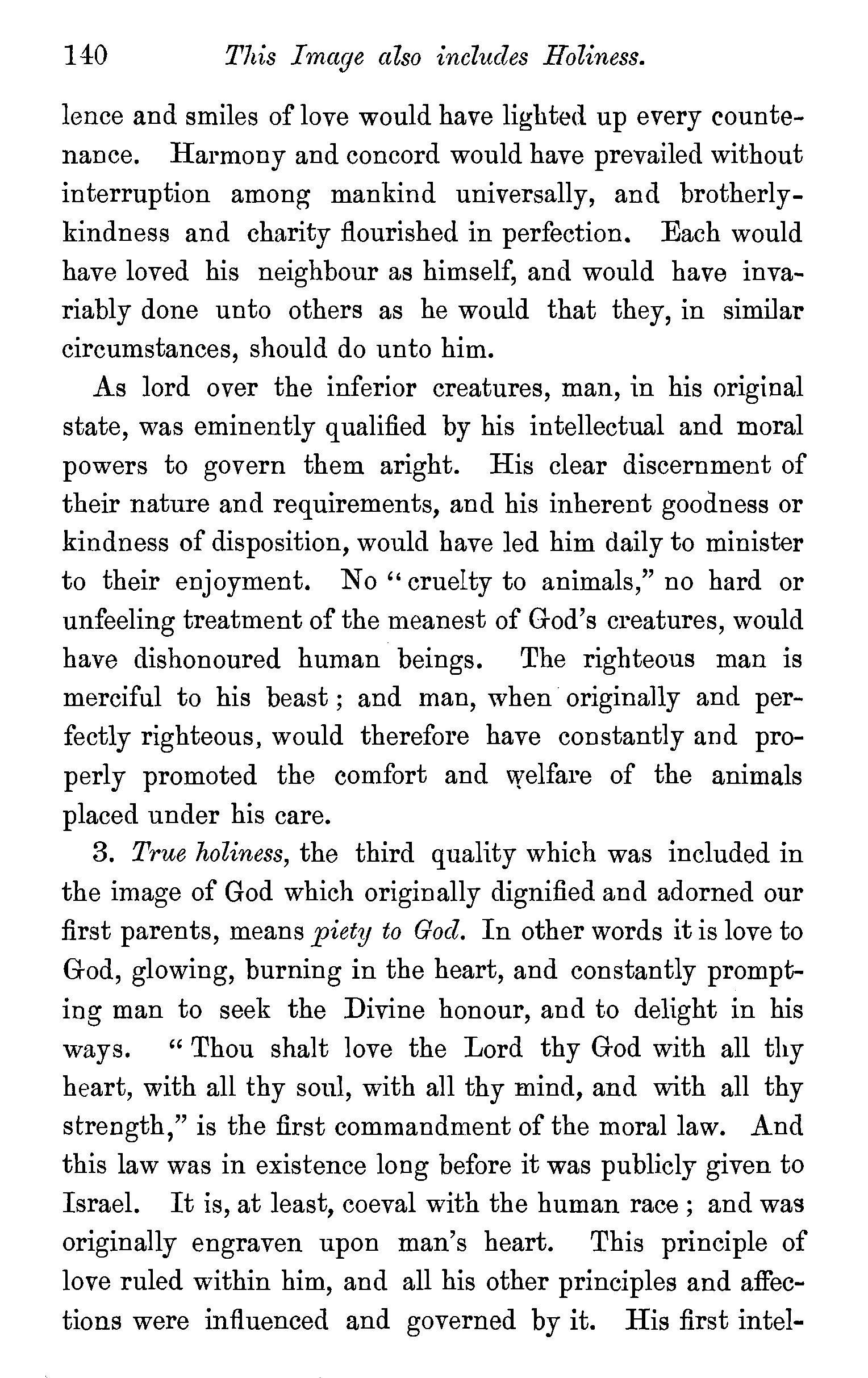
lence and smiles of love would have lighted up every countenance. Harmony and concord would have prevailed without interruption among mankind universally, and brotherlykindness and charity flourished in perfection. Each would have loved his neighbour as himself, and would have invariably done unto others as he would that they, in similar circumstances, should do unto him.
As lord over the inferior creatures, man, in his original state, was eminently qualified by his intellectual and moral powers to govern them aright. His clear discernment of their nature and requirements, and his inherent goodness or kindness of disposition, would have led him daily to minister to their enjoyment. No "cruelty to animals," no hard or unfeeling treatment of the meanest of God's creatures, would have dishonoured human beings. The righteous man is merciful to his beast ; and man, when originally and perfectly righteous, would therefore have constantly and properly promoted the comfort and \:felfare of the animals placed under his care.
3. True holiness, the third quality which was included in the image of God which originally dignified and adorned our first parents, means piety to Goel. In other words it is love to God, glowing, burning in the heart, and constantly prompting man to seek the Divine honour, and to delight in his ways. " Thou shalt love the Lord thy God with all thy heart, with all thy soul, with all thy mind, and with all thy strength," is the first commandment of the moral law. And this law was in existence long before it was publicly given to Israel. It is, at least, coeval with the human race ; and was originally engraven upon man's heart. This principle of love ruled within him, and all his other principles and affections were influenced and governed by it. His first intel-
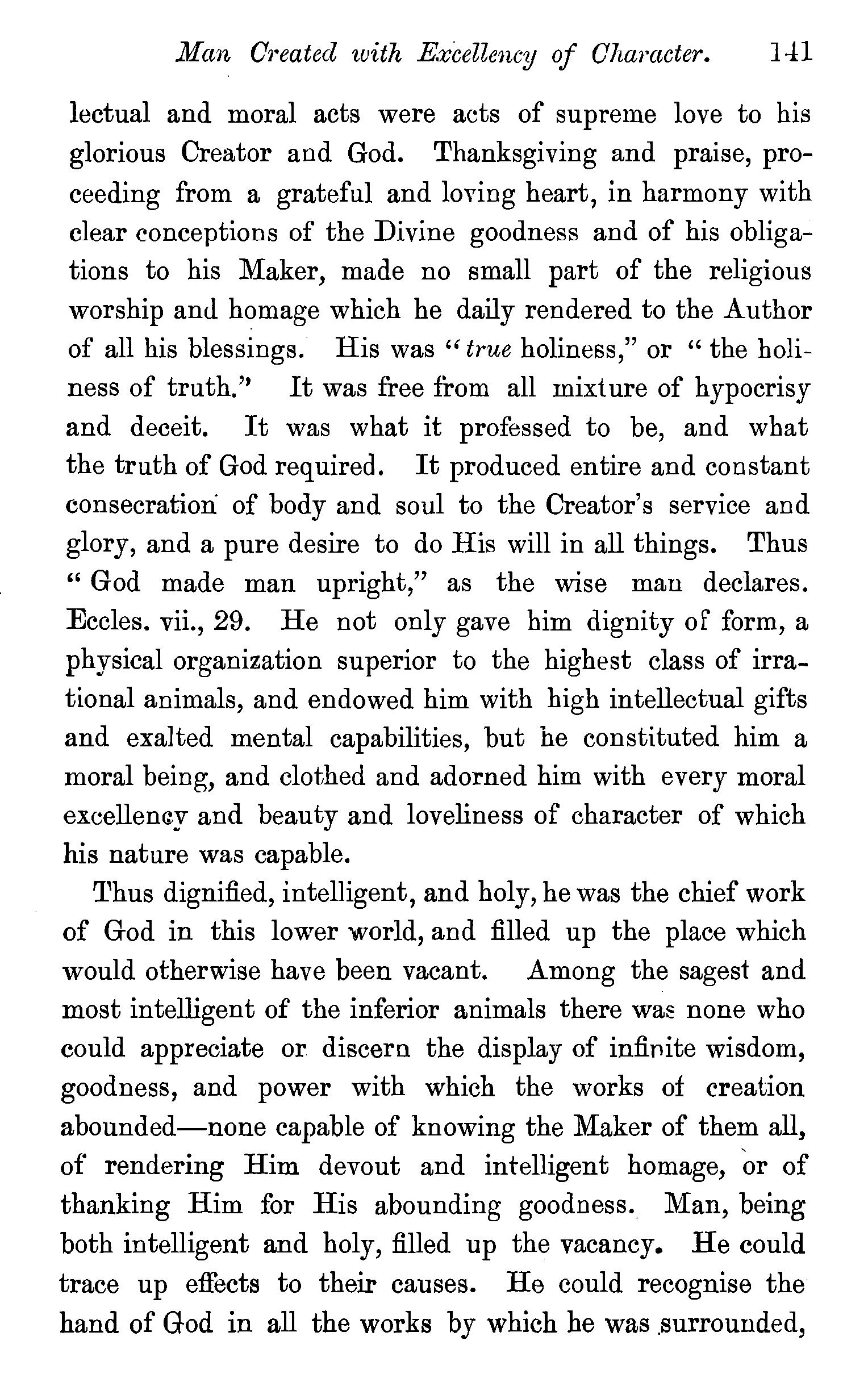
lectual and moral acts were acts of supreme love to his glorious Creator and God. Thanksgiving and praise, proceeding from a grateful and loving heart, in harmony with clear conceptions of the Divine goodness and of his obligations to his Maker, made no small part of the religious worship ancl homage which he daily rendered to the Author of all his blessings. His was "true holiness," or " the holiness of truth.'' It was free from all mixture of hypocrisy and deceit. It was what it professed to be, and what the truth of God required. It produced entire and constant consecration of body and soul to the Creator's service and glory, and a pure desire to do His will in all things. Thus " God made man upright," as the wise man declares. Eccles. vii., 29. He not only gave him dignity of form, a physical organization superior to the highest class of irrational animals, and endowed him with high intellectual gifts and exalted mental capabilities, but he constituted him a moral being, and clothed and adorned him with every moral excellen~y and beauty and loveliness of character of which his nature was capable.
'.l'hus dignified, intelligent, and holy, he was the chief work of God in this lower world, and filled up the place which would otherwise have been vacant. Among the sagest and most intelligent of the inferior animals there wa~ none who could appreciate or discern the display of infinite wisdom, goodness, and power with which the works of creation abounded-none capable of knowing the Maker of them all, of rendering Him devout and intelligent homage, orof thanking Him for His abounding goodness. Man, being both intelligent and holy, filled up the vacancy. He could trace up effects to their causes. He could recognise the hand of God in all the works by which he was .surrounded,
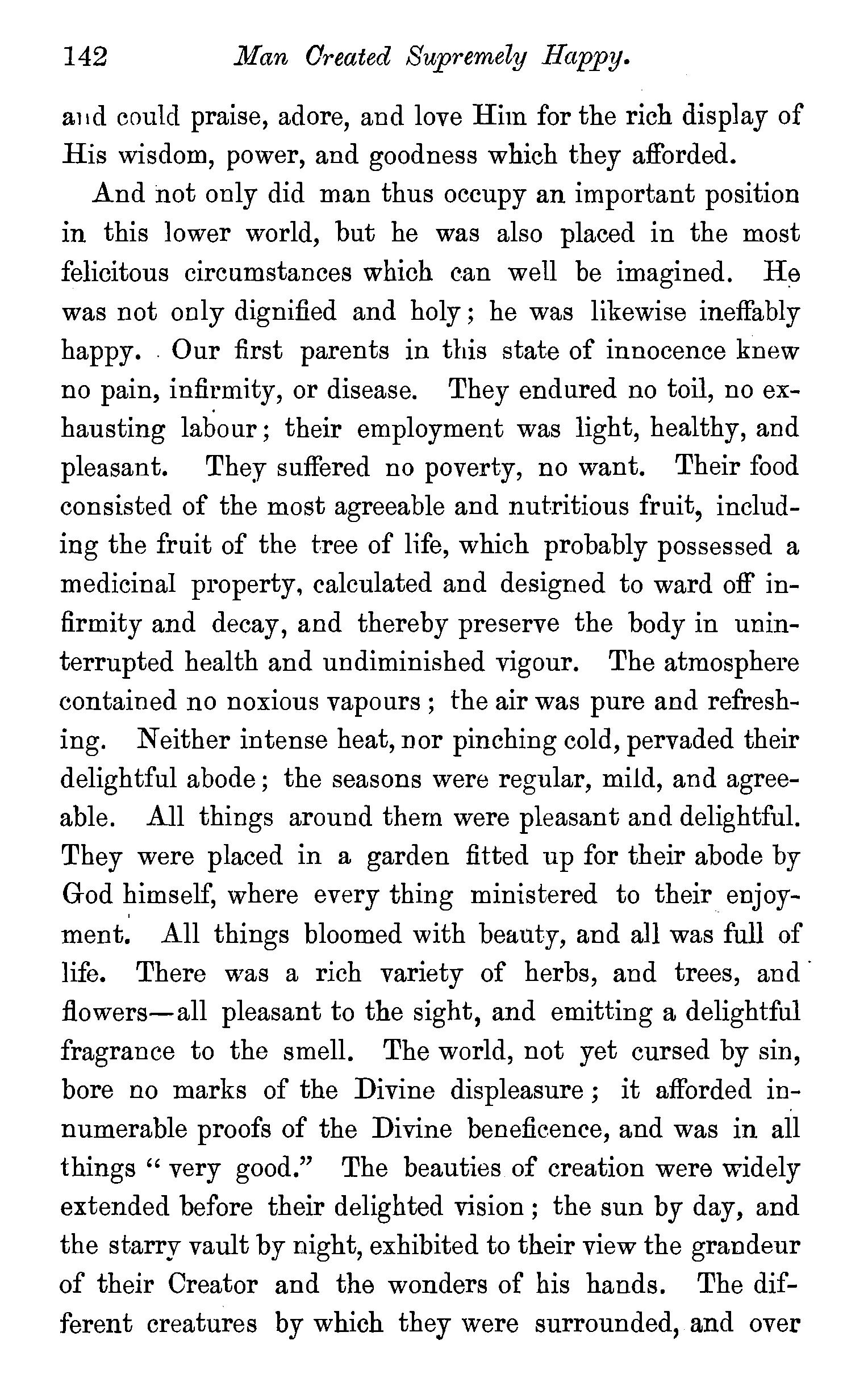
a11dcould praise, adore, and love Him for the rich display of His wisdom, power, and goodness which they afforded. And :not only did man thus occupy an important position in this lower world, but he was also placed in the most felicitous circumstances which can well be imagined. He was not only dignified and holy; he was likewise ineffably happy .. Our first parents in this state of innocence knew no pain, infirmity, or disease. They endured no toil, no exhausting labour; their employment was light, healthy, and pleasant. They suffered no poverty, no want. Their food consisted of the most agreeable and nutritious fruit, including the fruit of the tree of life, which probably possessed a medicinal property, calculated and designed to ward off infirmity and decay, and thereby preserve the body in uninterrupted health and undiminished vigour. The atmosphere contained no noxious vapours ; the air was pure and refreshing. Neither intense heat, nor pinching cold, pervaded their delightful abode; the seasons were regular, mild, and agreeable. All things around them were pleasant and delightful. They were placed in a garden fitted up for their abode by God himself, where every thing ministered to their enjoyment. All things bloomed with beauty, and all was full of life. There was a rich variety of herbs, and trees, and • :flowers-all pleasant to the sight, and emitting a delightful fragrance to the smell. The world, not yet cursed by sin, bore no marks of the Divine displeasure ; it afforded in:numerable proofs of the Divine beneficence, and was in all things " very good." The beauties of creation were widely extended before their delighted vision ; the sun by day, and the starry vault by night, exhibited to their view the grandeur of their Creator and the wonders of his hands. The different creatures by which they were surrounded, and over
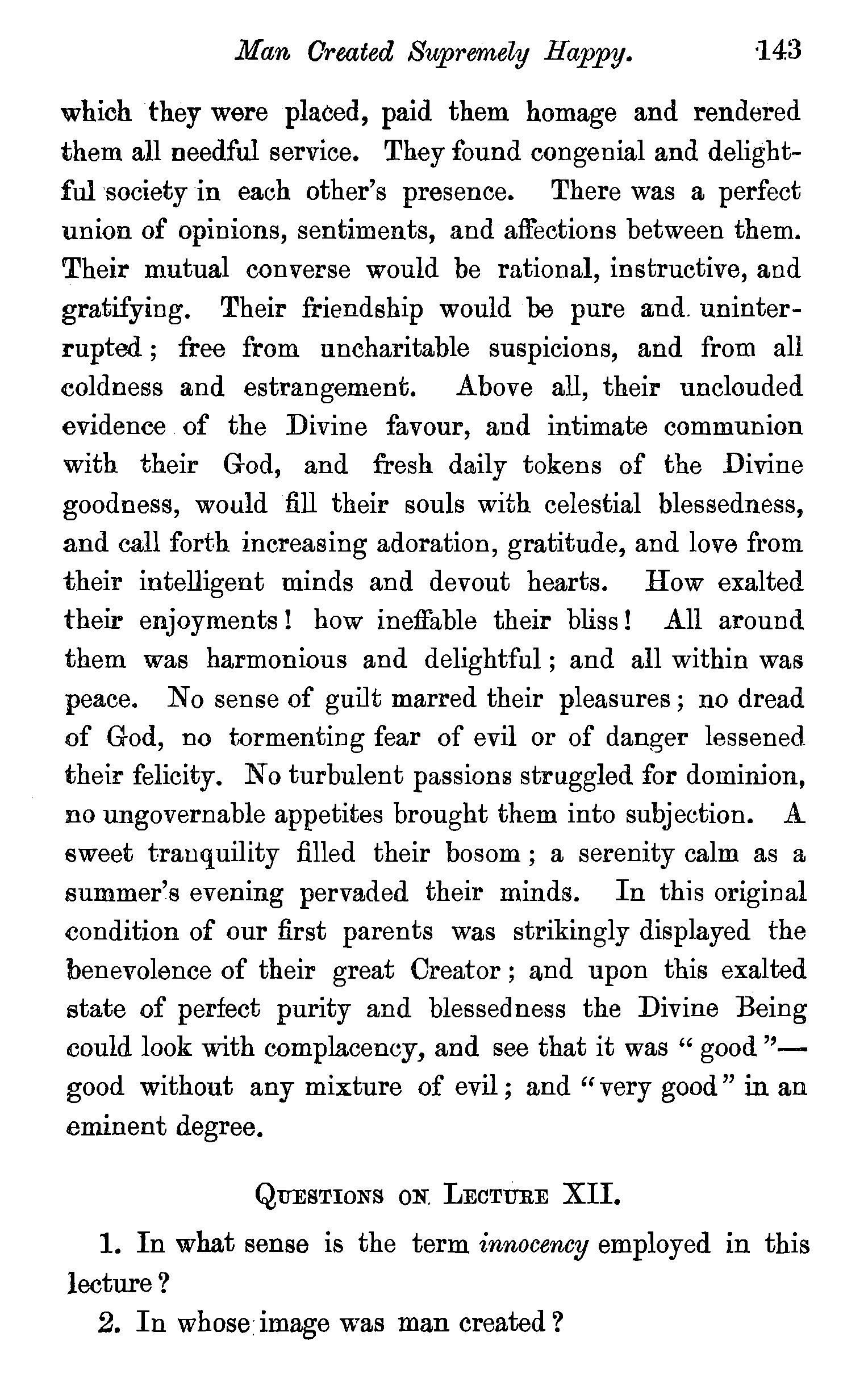
which they were placed, paid them homage and rendered them all needful service. They found congenial and delightful society in each other's presence. There was a perfect union of opinions, sentiments, and affections between them. Their mutual converse would be rational, instructive, and gratifying. Their friendship would be pure and. uninterrupted ; free from uncharitable suspicions, and from all coldness and estrangement. Above all, their unclouded evidence of the Divine favour, and intimate communion with their God, and :fresh daily tokens of the Divine goodness, would fill their souls with celestial blessedness, and call forth increasing adoration, gratitude, and love from their intelligent minds and devout hearts. How exalted their enjoyments ! how ineffable their bliss ! All around them was harmonious and delightful ; and all within was peace. No sense of guilt marred their pleasures; no dread of God, no tormenting fear of evil or of danger lessened their felicity. No turbulent passions struggled for dominion, no ungovernable appetites brought them into subjection. A sweet tranquility filled their bosom; a serenity calm as a summer's evening pervaded their minds. In this original condition of our first parents was strikingly displayed the benevolence of their great Creator; and upon this exalted state of perfect purity and blessedness the Divine Being could look with complacency, and see that it was " good"good without any mixture of evil; and "very good" in an eminent degree.
1. In what sense is the term innocency employed m this lecture?
2. In whose image was man created ?
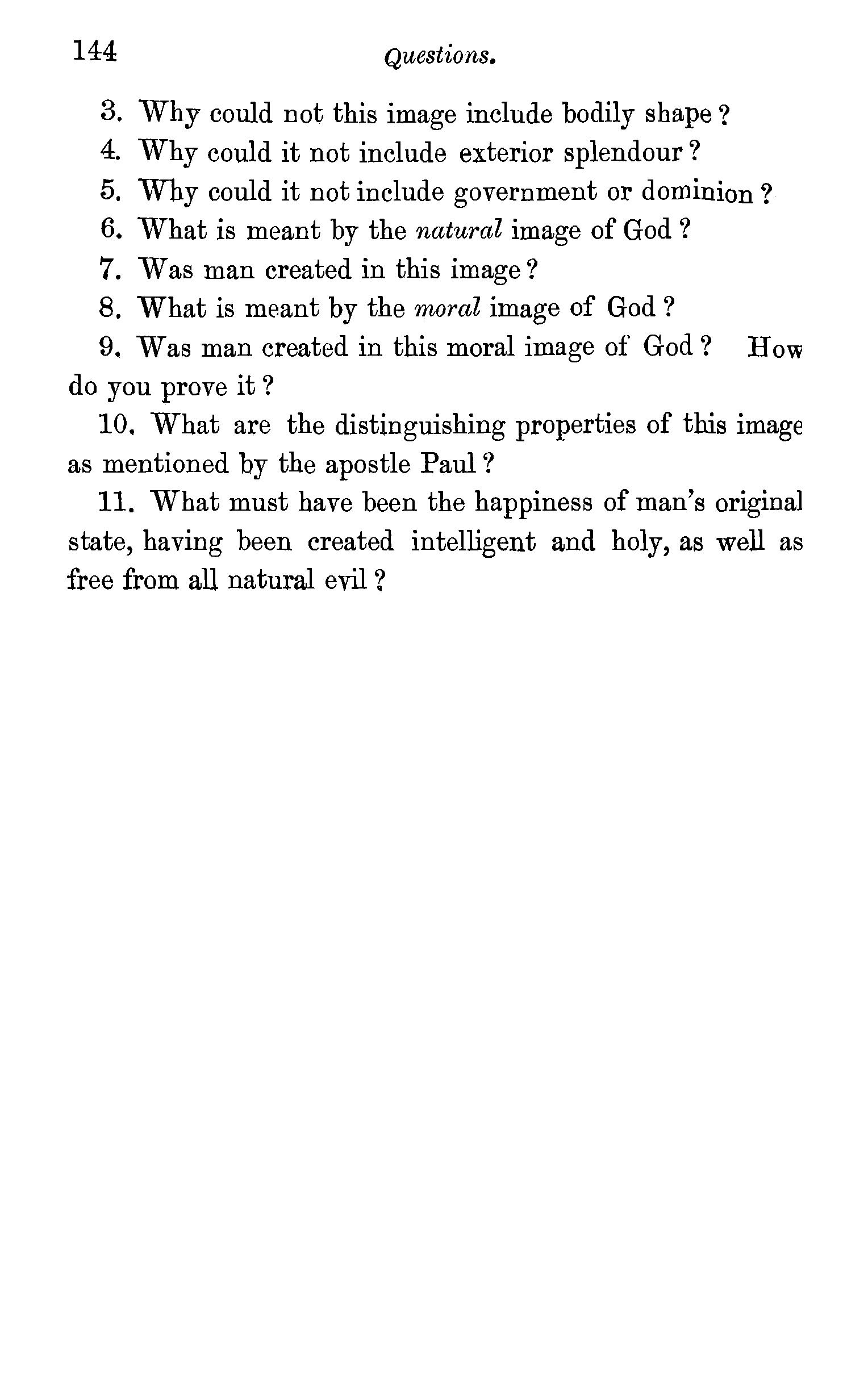
3. Why could not this image include bodily shape?
4. Why could it not include exterior splendour?
5. "\Vhycould it not include government or dominion?
6. What is meant by the natural image of God?
7. Was man created in this image?
8. What is me.ant by the moral image of God?
9. Was man created in this moral image of God? How do you prove it ?
10. What are the distinguishing properties of this image as mentioned by the apostle Paul?
11. What must have been the happiness of man's original state, having been created intelligent and holy, as well as free from all natural evil?
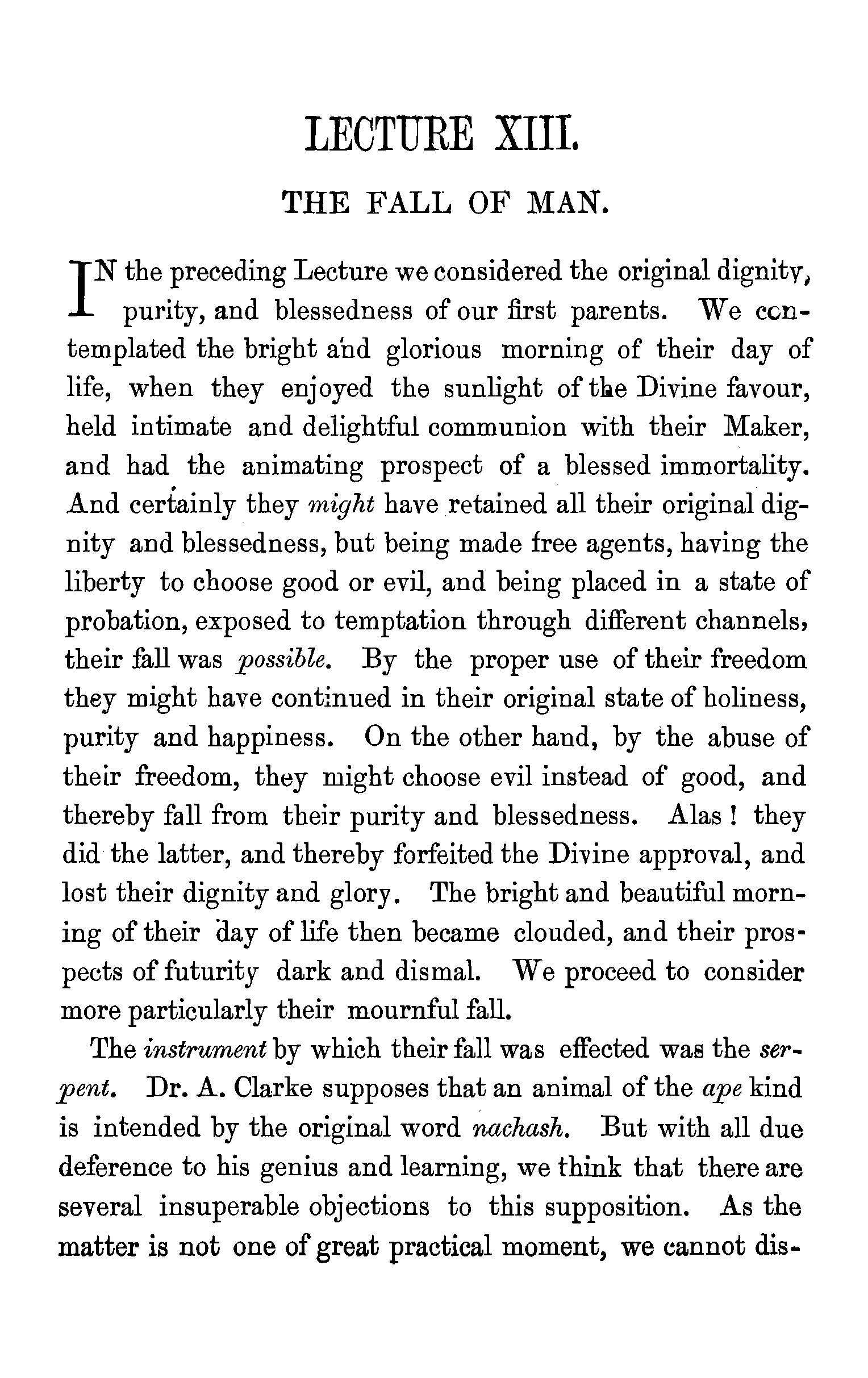
INthe preceding Lecture we considered the original dignity, purity, and blessedness of our first parents. Weccntemplated the bright and glorious morning of their day of life, when they enjoyed the sunlight of t~e Divine favour, held intimate and delightful communion with their Maker, and had the animating prospect of a blessed immortality. And certainly they might have retained all their original dignity and blessedness, but being made free agents, having the liberty to choose good or evil, and being placed in a state of probation, exposed to temptation through different channels, their fall was possible. By the proper use of their freedom they might have continued in their original state of holiness, purity and happiness. On the other hand, by the abuse of their freedom, they might choose evil instead of good, and thereby fall from their purity and blessedness. Alas ! they did the latter, and thereby forfeited the Divine approval, and lost their dignity and glory. The bright and beautiful morning of their aay of life then became clouded, and their prospects of futurity dark and dismal. We proceed to consider more particularly their mournful faU.
The instrument by which their fall was effected was the serpent. Dr. A. Clarke supposes that an animal of the ape kind is intended by the original word nachash. But with all due deference to his genius and learning, we think that there are several insuperable objections to this supposition. As the matter is not one of great practical moment, we cannot dis-
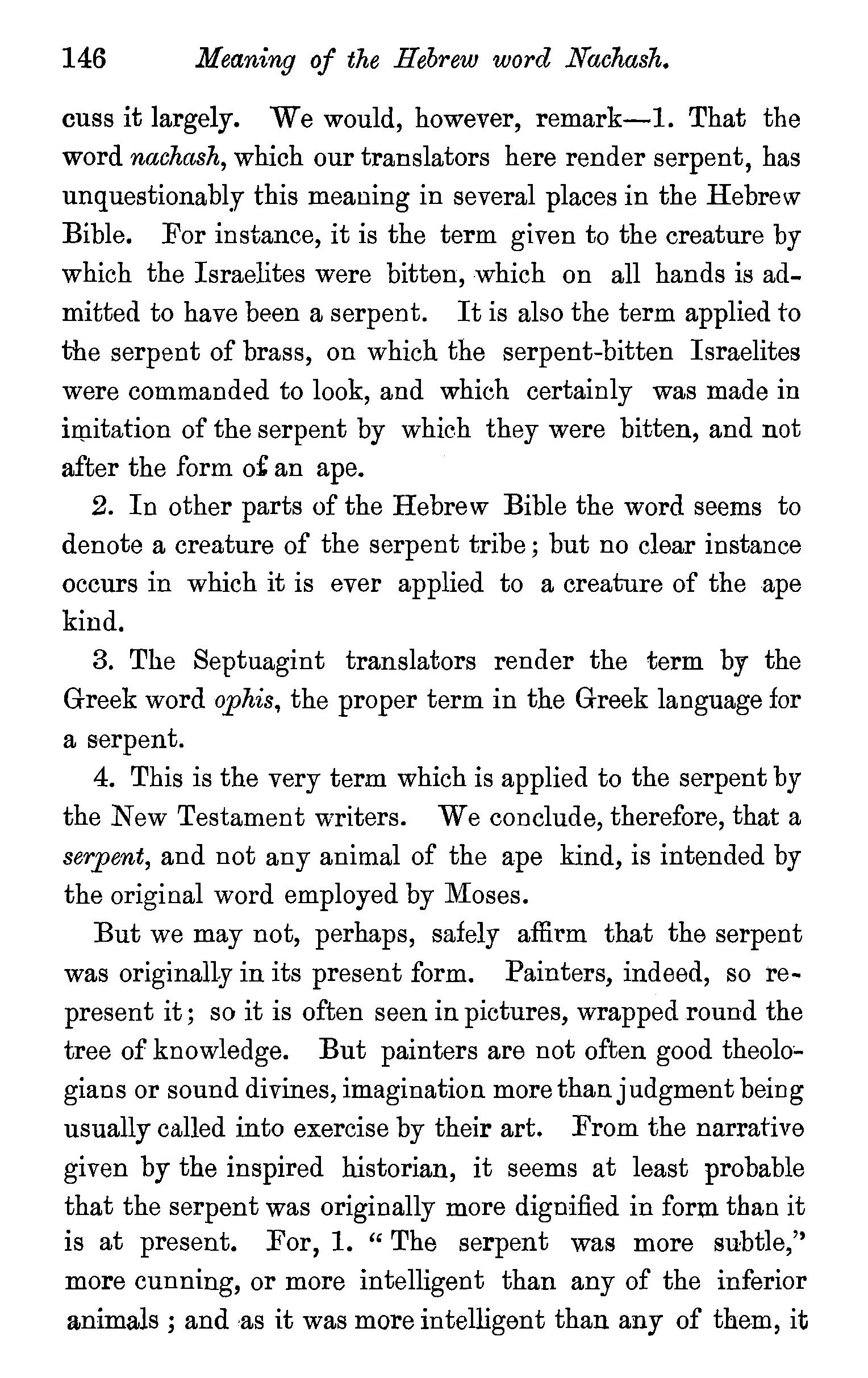
Meaning of the Hebrew word Nachash.
cuss it largely. We would, however, remark-I. That the word nachcish,which our translators here render serpent, has unquestionably this meaning in several places in the Hebrew Bible. For instance, it is the term given to the creature by which the Israelites were bitten, which on all hands is admitted to have been a serpent. It is also the term applied to the serpent of brass, on which the serpent-bitten Israelites were commanded to look, and which certainly was made in irp.itation of the serpent by which they were bitten, and not after the form of:an ape.
2. In other parts of the Hebrew Bible the word seems to denote a creature of the serpent tribe; but no clear instance occurs in which it is ever applied to a creature of the ape kind.
3. The Septuagint translators render the term by the Greek word ophis, the proper term in the Greek language for a serpent.
4. This is the very term which is applied to the serpent by the New Testament writers. We conclude, therefore, that a serpent, and not any animal of the ape kind, is intended by the original word employed by Moses.
But we may not, perhaps, safely affil'm that the serpent was originally in its present form. Painters, indeed, so represent it; so it is often seen in pictures, wrapped round the tree of knowledge. But painters are not often good theolo:.. gians or sound divines, imagination more than judgment being usually called into exercise by their art. From the narrative given by the inspired historian, it seems at least probable that the serpent was originally more dignified in form than it is at present. For, 1. " The serpent was more subtle,'' more cunning, or more intelligent than any of the inferior animals; and ·as it was more intelligent than any of them, it
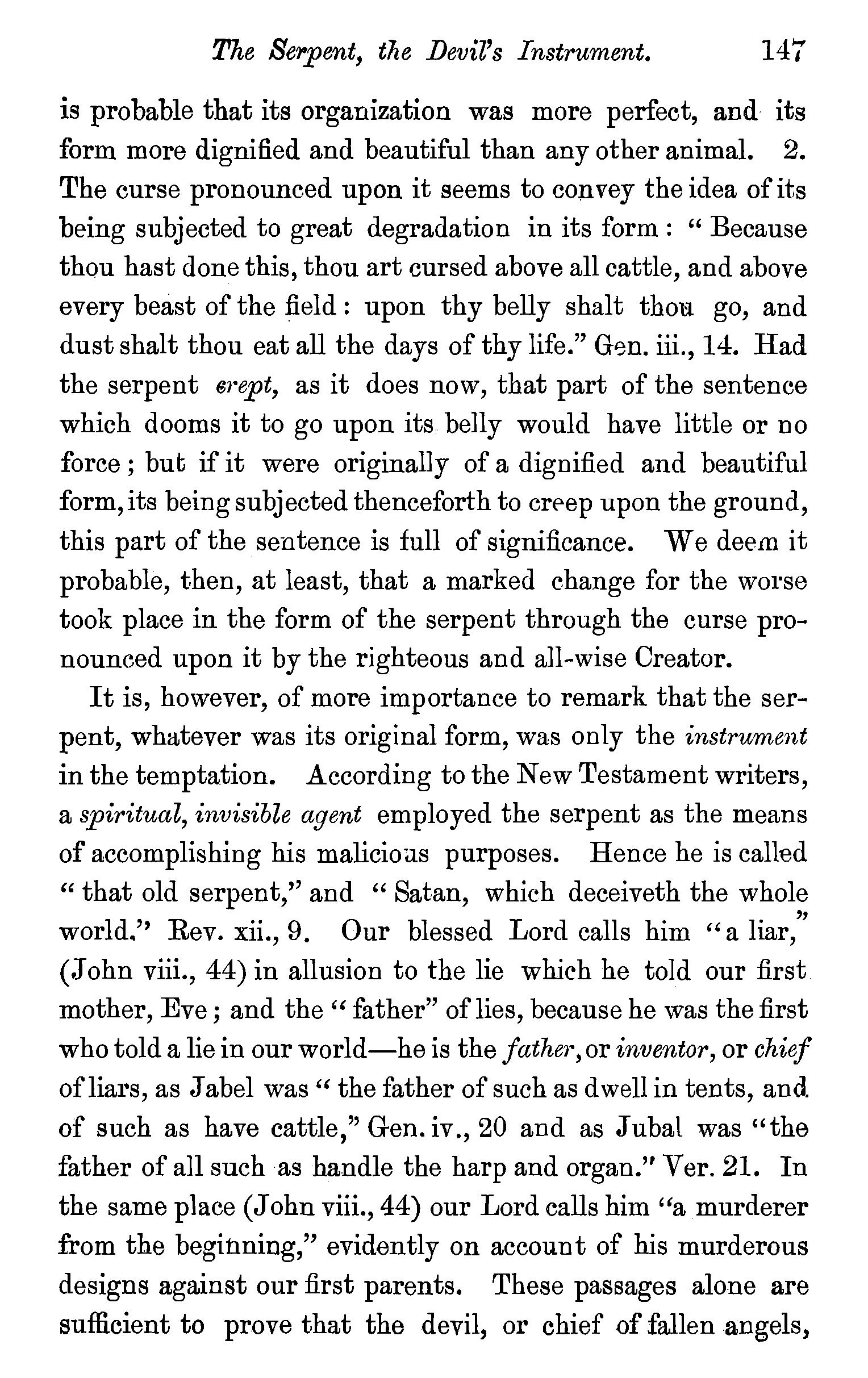
is probable that its organization was more perfect, and its form more dignified and beautiful than any other animal. 2. The curse pronounced upon it seems to convey the idea of its being subjected to great degradation in its form: "Because thou hast done this, thou art cursed above all cattle, and above every beast of the field : upon thy belly shalt thou go, and dust shalt thou eat all the days of thy life." G'3n.iii., 14. Had the serpent erept, as it does now, that part of the sentence which dooms it to go upon its belly would have little or no force; but if it were originally of a dignified and beautiful form, its being subjected thenceforth to cr('ep upon the ground, this part of the sentence is full of significance. We deem it probable, then, at least, that a marked change for the worse took place in the form of the serpent through the curse pronounced upon it by the righteous and all-wise Creator. It is, however, of more importance to remark that the serpent, whatever was its original form, was only the instrument in the temptation. According to the New Testament writers, a spirituctl, invisible ctgent employed the serpent as the means of accomplishing his malicious purposes. Hence he is called "that old serpent,'' and "Satan, which deceiveth the whole world.'' Rev. xii., 9. Our blessed Lord calls him "a liar, ,, (,John viii., 44) in allusion to the lie which he told our first mother, Eve; and the" father" of lies, because he was the :first who told a lie in our world-he is the fctther, or inventor, or chief ofliars, as J abel was " the father of such as dwell in tents, and. of such as have cattle," Gen. iv., 20 and as Jubal was "the father of all such as handle the harp and organ." Ver. 21. In the same place (John viii., 44) our Lord calls him "a murderer from the beginning," evidently on account of his murderous designs against our first parents. These passages alone are sufficient to prove that the devil, or chief of fallen angels,
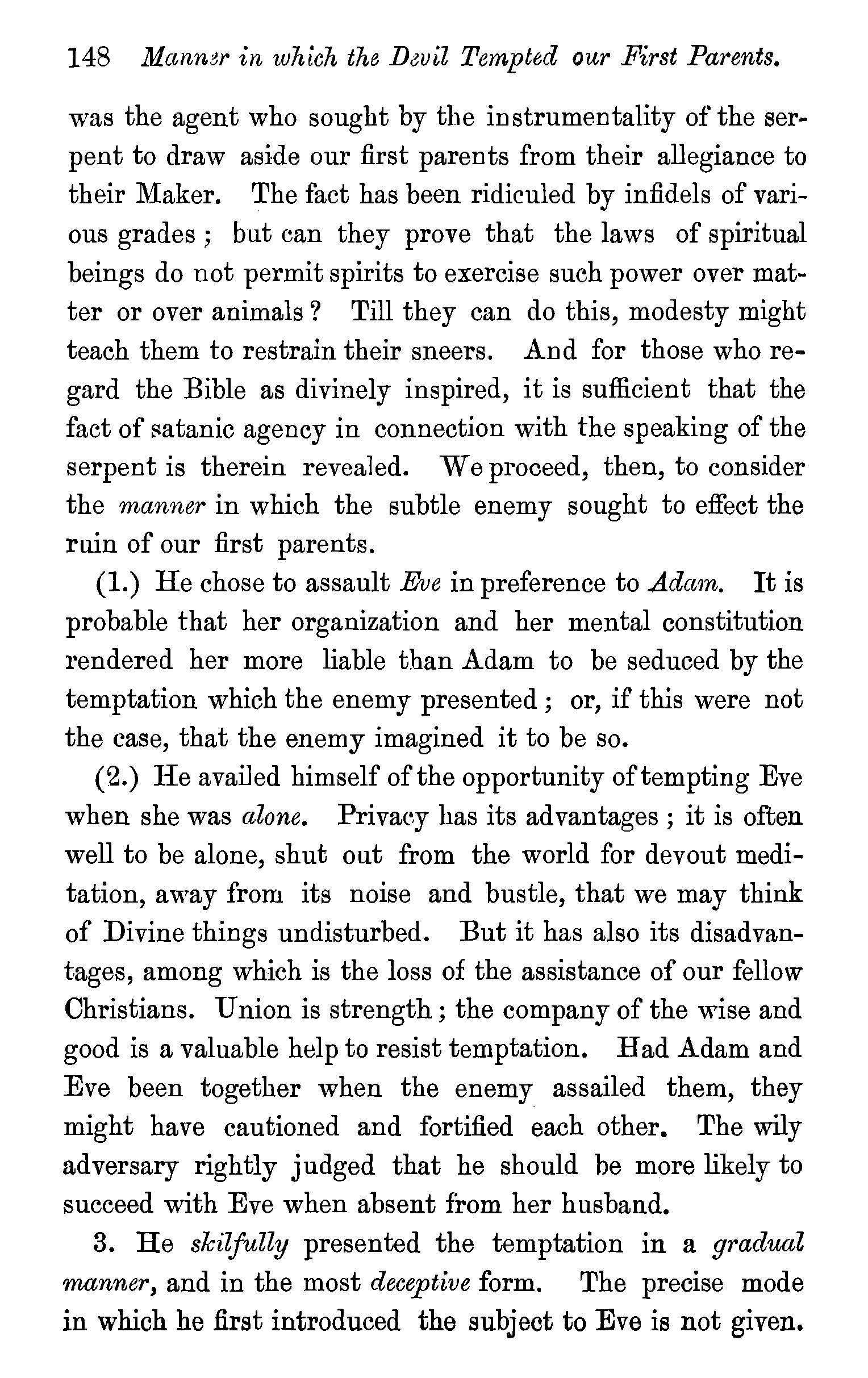
148 Manner in which the Dwil Tempted our First Parents. was the agent who sought by the instrumentality of the serpent to draw aside our first parents from their allegiance to their Maker. The fact has been ridiculed by infidels of various grades ; but can they prove that the laws of spiritual beings do not permit spirits to exercise such power over matter or over animals ? Till they can do this, modesty might teach them to restrain their sneers. And for those who regard the Bible as divinely inspired, it is sufficient that the fact of f:'latanicagency in connection with the speaking of the serpent is therein revealed. We proceed, then, to consider the manner in which the subtle enemy sought to effect the ruin of our first parents.
(1.) He chose to assault Eve in preference to Adam. It is probable that her organization and her mental constitution rendered her more liable than Adam to be seduced by the temptation which the enemy presented ; or1 if this were not the case, that the enemy imagined it to be so.
(2.) He availed himself of the opportunity of tempting Eve when she was alone. Privacy has its advantages; it is often well to be alone, shut out from the world for devout meditation, away from its noise and bustle, that we may think of Divine things undisturbed. But it has also its disadvantages, among which is the loss of the assistance of our fellow Christians. Union is strength; the company of the wise and good is a valuable help to resist temptation. Had Adam and Eve been together when the enemy assailed them, they might have cautioned and fortified each other. The wily adversary rightly judged that he should be more likely to succeed with Eve when absent from her husband.
3. He skilfully presented the temptation in a gradual manner, and in the most deceptive form. The precise mode in which he first introduced the subject to Eve is not given.
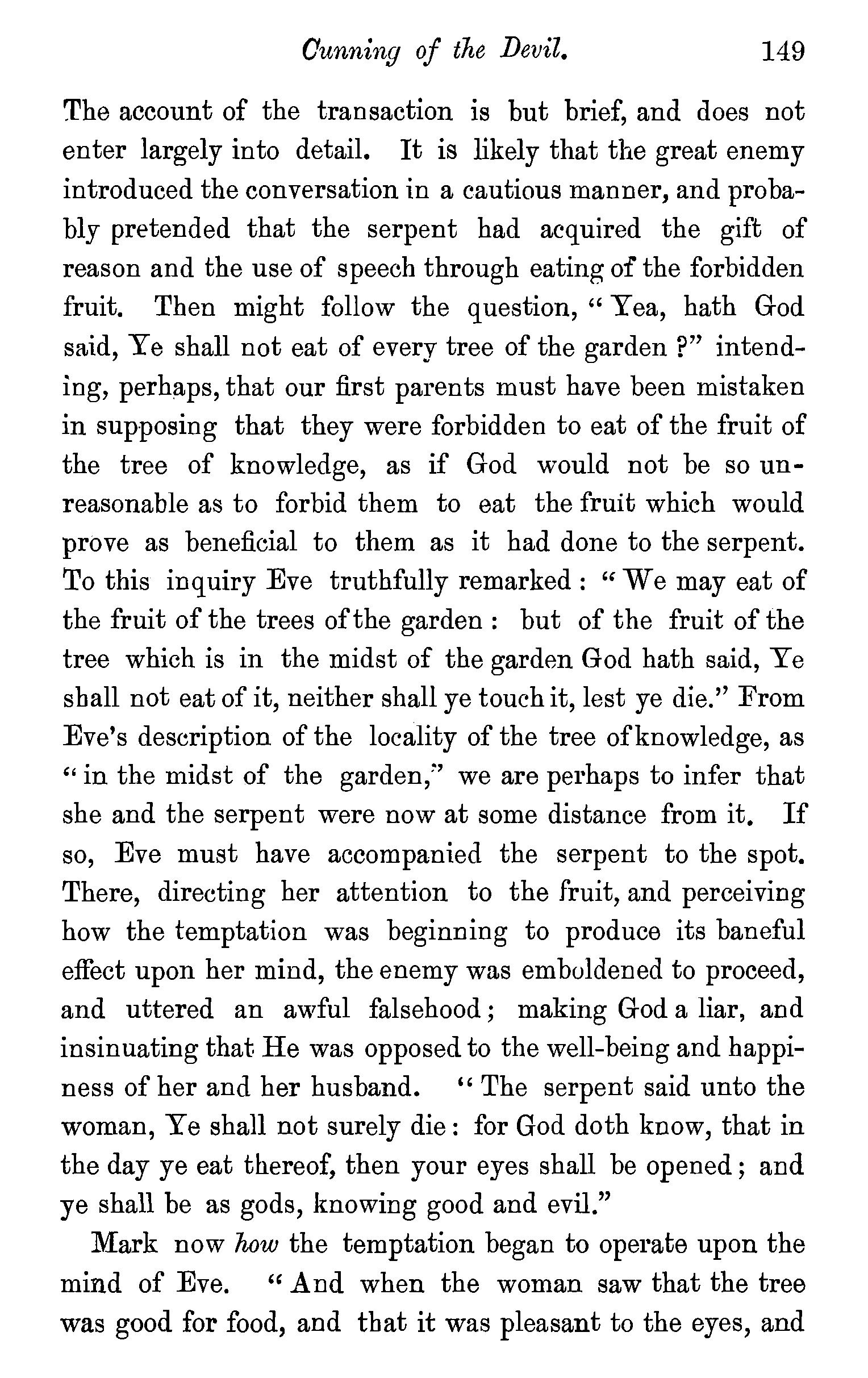
The account of the transaction is but brief, and does not enter largely into detail. It is likely that the great enemy introduced the conversation in a cautious manner, and probably pretended that the serpent had acquired the gift of reason and the use of speech through eating of the forbidden fruit. Then might follow the question, "Yea, hath God said, Ye shall not eat of every tree of the garden ?" intending, perhaps, that our first parents must have been mistaken in supposing that they were forbidden to eat of the fruit of the tree of knowledge, as if God would not be so unreasonable as to forbid them to eat the fruit which would prove as beneficial to them as it had done to the serpent. To this inquiry Eve truthfully remarked : "We may eat of the fruit of the trees of the garden : but of the fruit of the tree which is in the midst of the garden God hath said, Ye shall not eat of it, neither shall ye touch it, lest ye die.'' From Eve's description of the locality of the tree of knowledge, as "in the midst of the garden/' we are perhaps to infer that she and the serpent were now at some distance from it. If so, Eve must have accompanied the serpent to the spot. There, directing her attention to the fruit, and perceiving how the temptation was beginning to produce its baneful effect upon her mind, the enemy was emboldened to proceed, and uttered an awful falsehood; making God a liar, and insinuating that He was opposed to the well-being and happiness of her and her husband. " The serpent said unto the woman, Ye shall not surely die: for God doth know, that in the day ye eat thereof, then your eyes shall be opened; and ye shall be as gods, knowing good and evil."
Mark now how the temptation began to operate upon the mind of Eve. "And when the woman saw that the tree was good for food, and that it was pleasant to the eyes, and
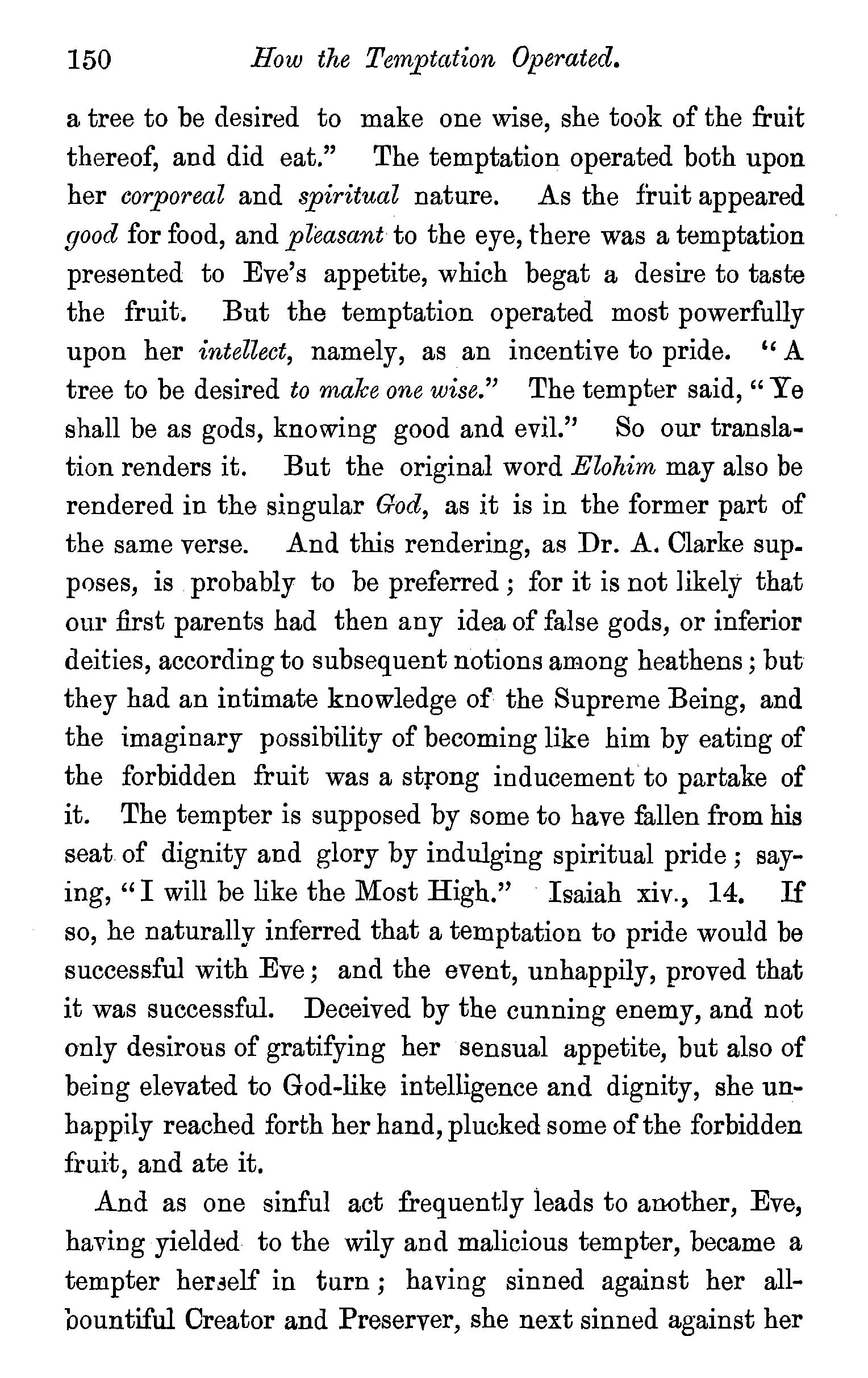
a tree to be desired to make one wise, she took of the fruit thereof, and did eat." The temptation operated both upon her corporeal and spiritual nature. As the fruit appeared good for food, and pleasant to the eye, there was a temptation presented to Eve's appetite, which begat a desire to taste the fruit. But the temptation operated most powerfully upon her intellect, namely, as an incentive to pride. "A tree to be desired to make one wise." The tempter said," Ye shall be as gods, knowing good and evil.'' So our translation renders it. But the original word Elohim may also be rendered in the singular God, as it is in the former part of the same verse. And this rendering, as Dr. A. Clarke supposes, is probably to be preferred; for it is not likely that our first parents had then any idea of false gods, or inferior deities, according to subsequent notions among heathens; but they had an intimate knowledge of the Supreme Being, and the imaginary possibility of becoming like him by eating of the forbidden fruit was a strong inducement to partake of it. The tempter is supposed by some to have fallen from his seat of dignity and glory by indulging spiritual pride; saying, "I will be like the Most High." Isaiah xiv., 14. If so, he naturally inferred that a temptation to pride would be successful with Eve; and the event, unhappily, proved that it was successful. Deceived by the cunning enemy, and not only desirous of gratifying her sensual appetite, but also of being elevated to God-like intelligence and dignity, she unhappily reached forth her hand, plucked some of the forbidden fruit, and ate it. And as one sinful act frequently leads to another, Eve, having yielded to the wily and malicious tempter, became a tempter heraelf in turn ; having sinned against her allbountiful Creator and Preserver, she next sinned against her
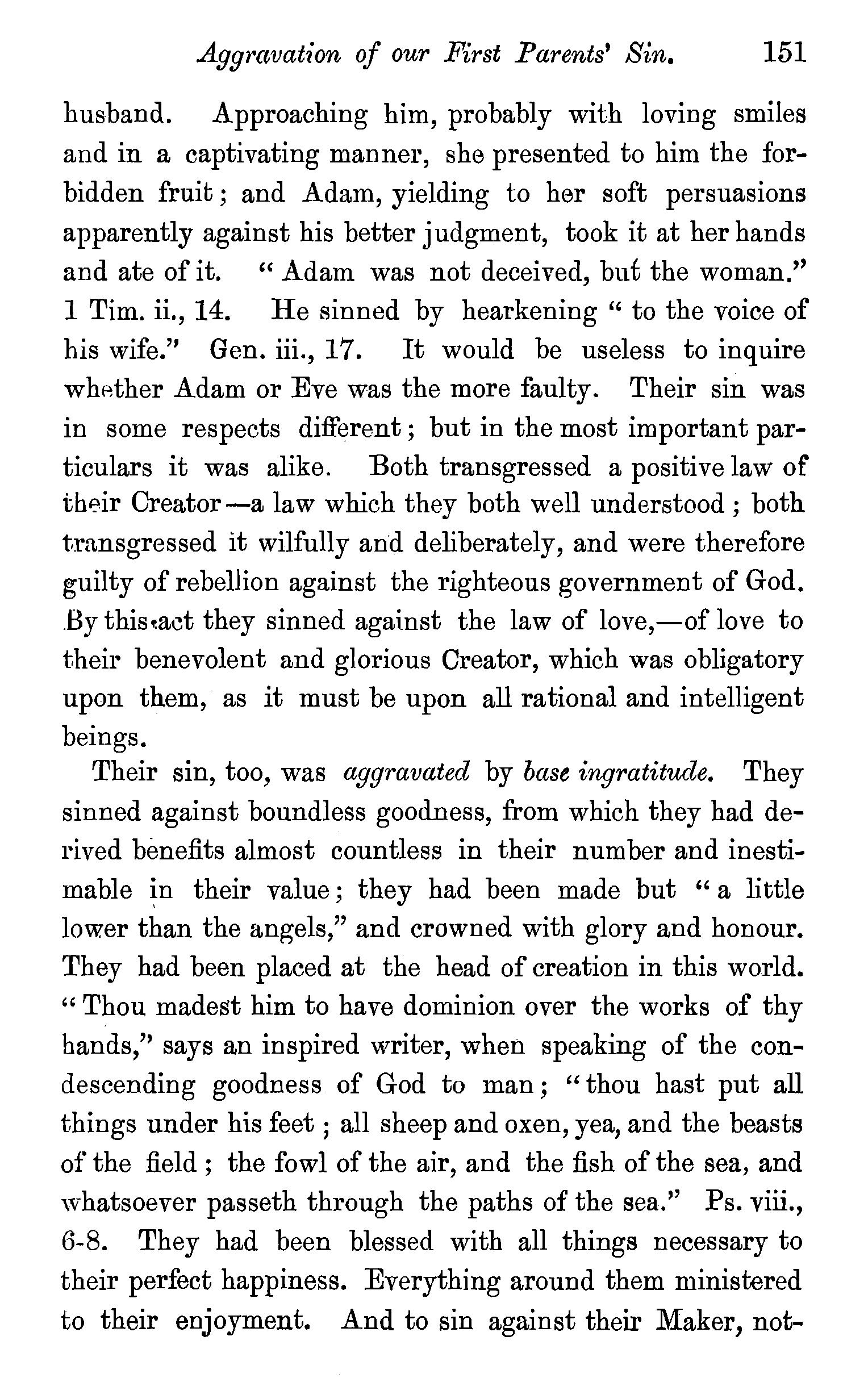
husband. Approaching him, probably with loving smiles and in a captivating manner, she presented to him the forbidden fruit ; and Adam, yielding to her soft persuasions apparently against his better judgment, took it at her hands and ate of it. "Adam was not deceived, but the woman.'' 1 Tim. ii., 14. He sinned by hearkening " to the voice of his wife." Gen. iii., 17. It would be useless to inquire whAther Adam or Eve was the more faulty. Their sin was in some respects different ; but in the most important particulars it was alike. Both transgressed a positive law of their Creator-a law which they both well understood; both transgressed it wilfully and deliberately, and were therefore guilty of rebellion against the righteous government of God . .Bythis ..act they sinned against the law of love,-of love to their benevolent and glorious Creator, which was obligatory upon them, as it must be upon all rational and intelligent beings.
Their sin, too, was aggravated by base ingratitude. They sinned against boundless goodness, from which they had derived benefits almost countless in their number and inestimable in their value; they had been made but " a little lower than the angels," and crowned with glory and honour. They had been placed at the head of creation in this world. "Thou madest him to have dominion over the works of thy hands,'' says an inspired writer, when speaking of the condescending goodness of God to man; "thou hast put all things under his feet ; all sheep and oxen, yea, and the beasts of the field ; the fowl of the air, and the fish of the sea, and whatsoever passeth through the paths of the sea.'' Ps. viii., 6-8. They had been blessed with all things necessary to their perfect happiness. Everything around them ministered to their enjoyment. And to sin against their Maker, not-
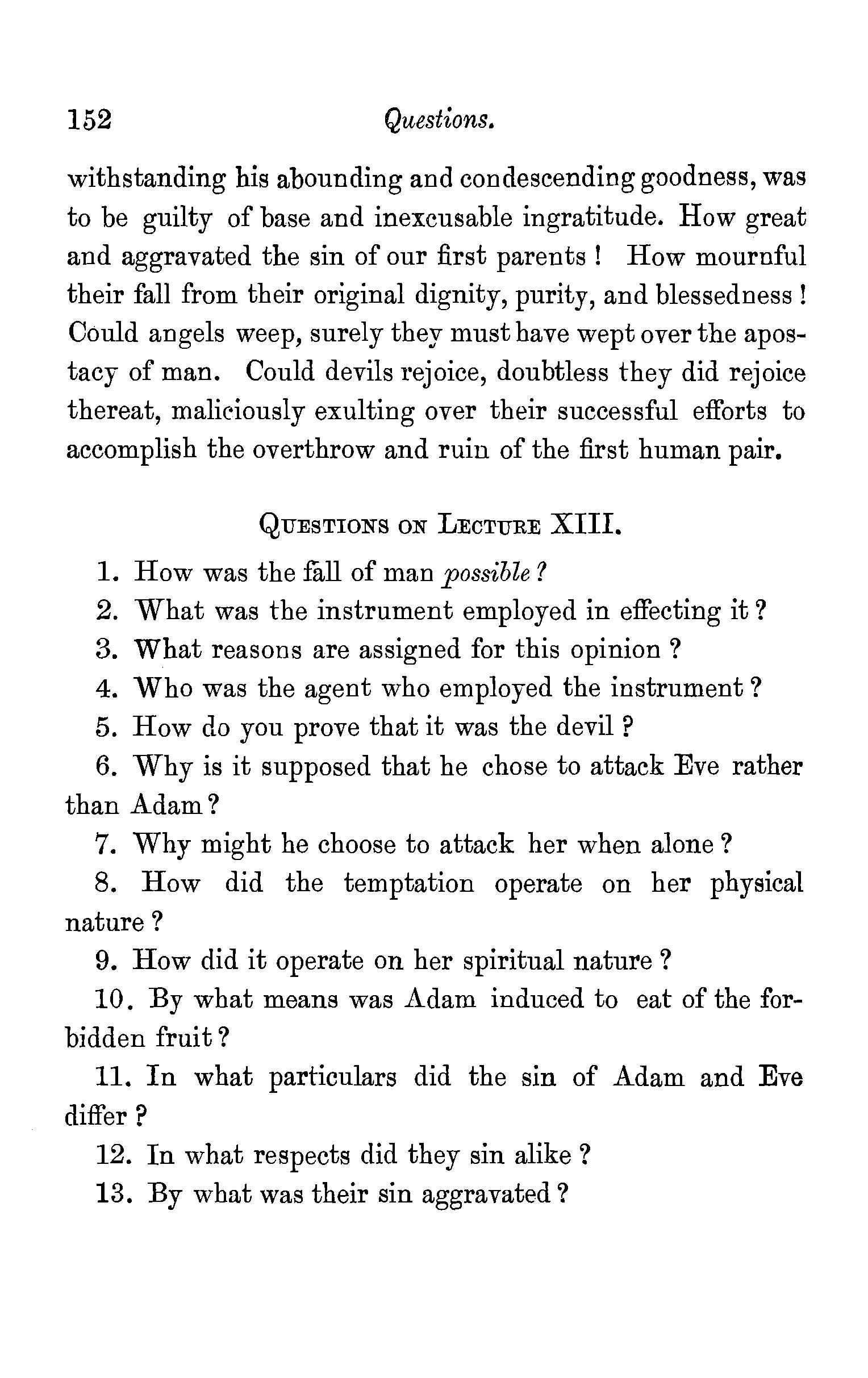
withstanding his abounding and condescending goodness, was to be guilty of base and inexcusable ingratitude. How great and aggravated the sin of our first parents! How mournful their fall from their original dignity, purity, and blessedness! Could angels weep, surely they must have wept over the apostacy of man. Could devils rejoice, doubtless they did rejoice thereat, maliciously exulting over their successful efforts to accomplish the overthrow and ruin of the first human pair.
1. How was the fall of man possible ?
2. What was the instrument employed in effecting it ?
3. What reasons are assigned for this opinion ?
4. Who was the agent who employed the instrument ?
5. How do you prove that it was the devil ?
6. Why is it supposed that he chose to attack Eve rather than Adam?
7. Why might he choose to attack her when alone?
8. How did the temptation operate on her physical nature?
9. How did it operate on her spiritual nature ?
10. By what means was Adam induced to eat of the forbidden fruit ?
11. In what particulars did the sin of Adam and Eve differ?
12. In what respects did they sin alike ?
13. By what was their sin aggravated?
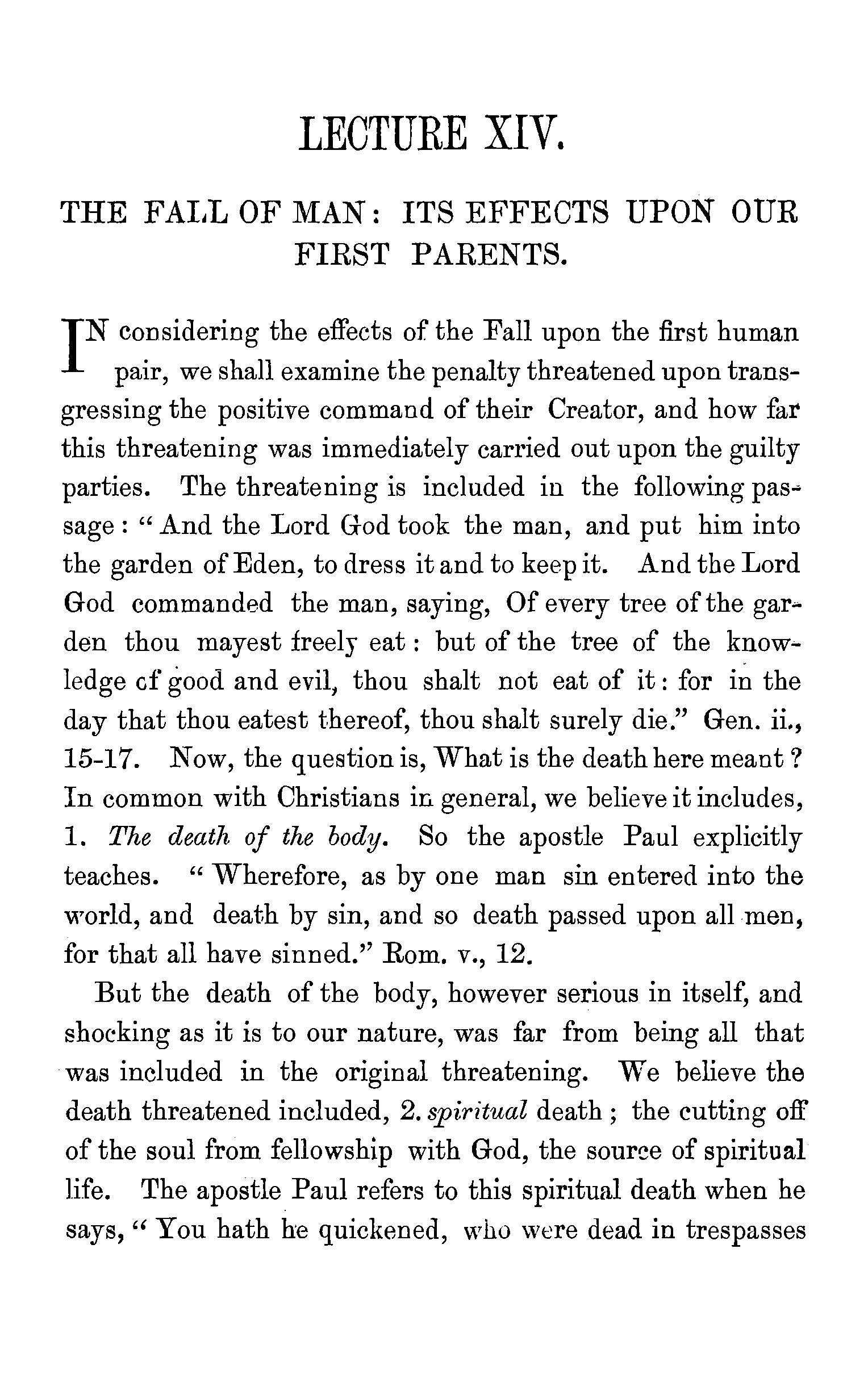
JN considering the effects of the Fall upon the first human pair, we shall examine the penalty threatened upon transgressing the positive command of their Creator, and how far this threatening was immediately carried out upon the guilty parties. The threatening is included in the following passage : "And the Lord God took the man, and put him into the garden of Eden, to dress it and to keep it. And the Lord God commanded the man, saying, Of every tree of the garden thou mayest freely eat : but of the tree of the knowledge cf good and evil, thou shalt not eat of it : for in the day that thou eatest thereof, thou shalt surely die." Gen. ii., 15-17. Now, the question is, What is the death here meant? In common with Christians iu. general, we believe it includes, 1. The death of the body. So the apostle Paul explicitly teaches. "Wherefore, as by one man sin entered into the world, and death by sin, and so death passed upon all men, for that all have sinned.'' Rom. v., 12.
But the death of the body, however serious in itself, and shocking as it is to our nature, was far from being all that was included in the original threatening. We believe the death threatened included, 2. spiritual death; the cutting off of the soul from fellowship with God, the source of spiritual life. The apostle Paul refers to this spiritual death when he says," You hath he quickened, who were dead in trespasses
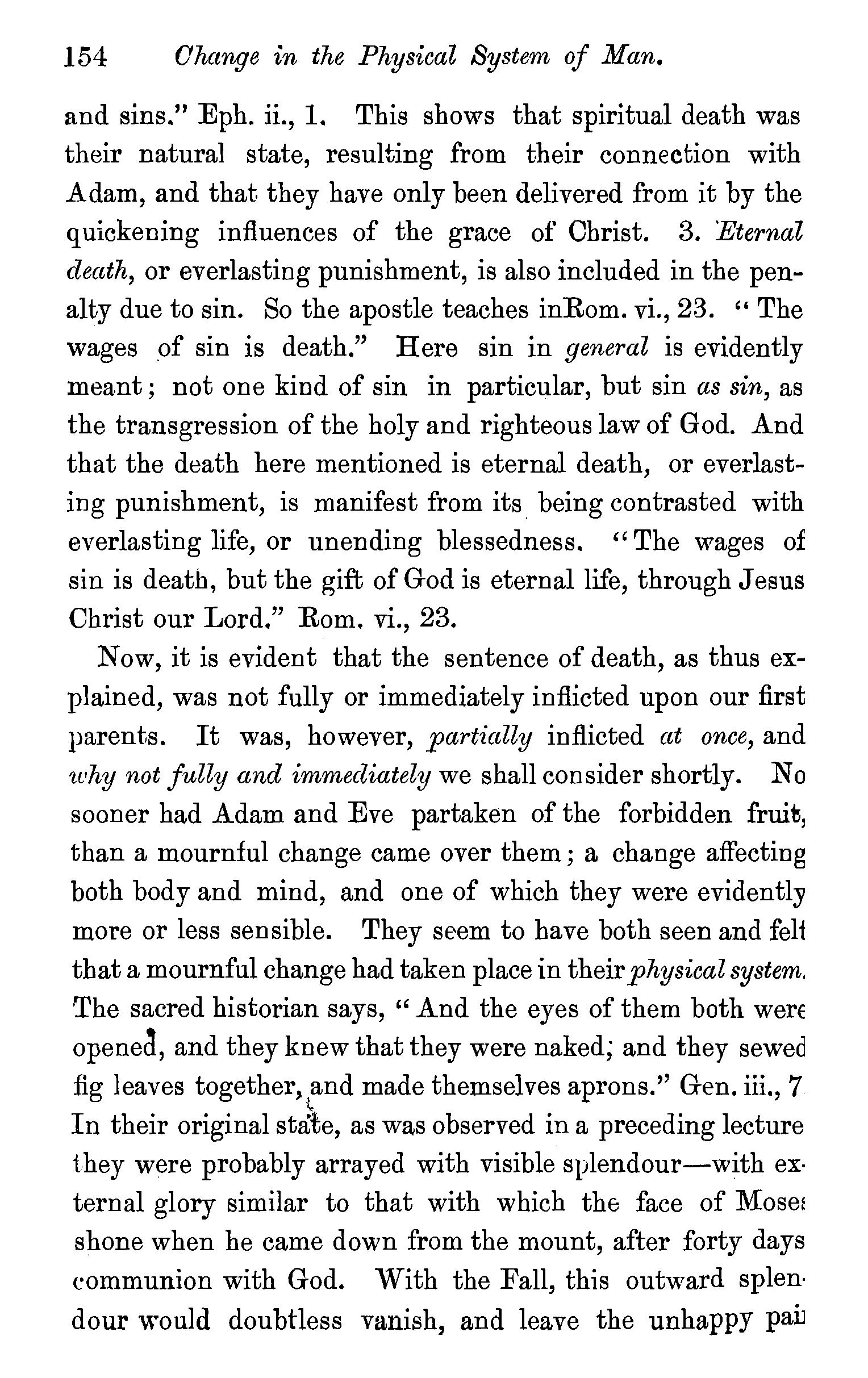
and sins." Eph. ii., 1. This shows that spiritual death was their natural state, resulting from their connection with Adam, and that they have only been delivered from it by the quickening influences of the grace of Christ. 3. Eternal dectth, or everlasting punishment, is also included in the penalty due to sin. So the apostle teaches inRom. vi., 23. '' The wages of sin is death.'' Here sin in general is evidently meant; not one kind of sin in particular, but sin as sin, as the transgression of the holy and righteous law of God. And that the death here mentioned is eternal death, or everlasting punishment, is manifest from its being contrasted with everlasting life, or unending blessedness. "The wages of sin is death, but the gift of God is eternal life, through Jesus Christ our Lord." Rom. vi., 23.
Now, it is evident that the sentence of death, as thus explained, was not fully or immediately inflicted upon our first parents. It was, however, partially inflicted at once, and iuhy not fully and immediately we shall con sider shortly. No sooner had Adam and Eve partaken of the forbidden fruit, than a mournful change came over them ; a change affecting both body and mind, and one of which they were evidently more or less sensible. They seem to have both seen and feli that a mournful change had taken place in their physical system, The sacred historian says, "And the eyes of them both were opened, and they knew that they were naked; and they sewed fig leaves together, and made themselves aprons.'' Gen. iii., 7 \, In their original state, as was observed in a preceding lecture they were probably arrayed with visible splendour-with external glory similar to that with which the face of Mosei shone when he came down from the mount, after forty days communion with God. With the Fall, this outward splendour would doubtless vanish, and leave the unhappy pail
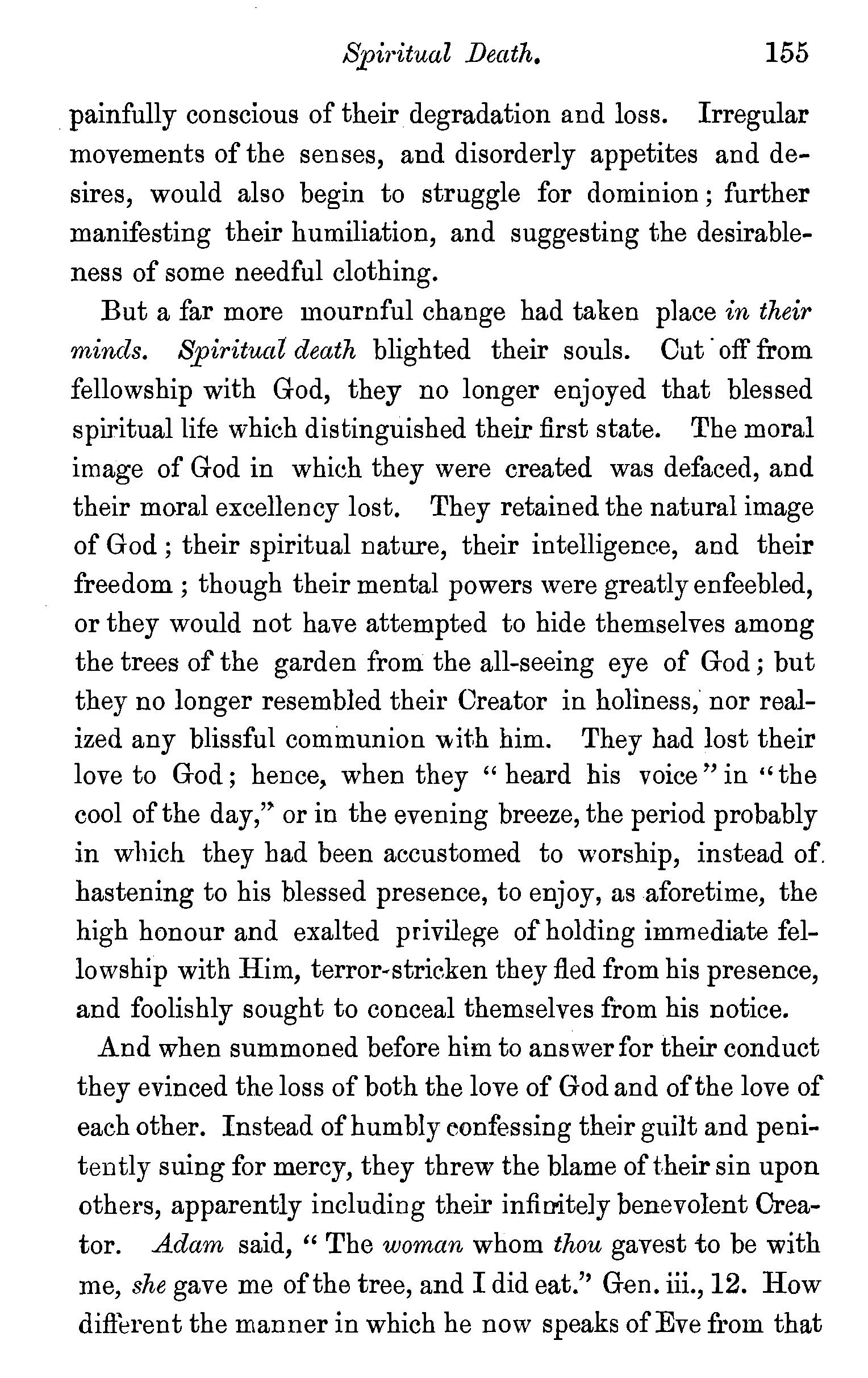
painfully conscious of their degradation and loss. Irregular movements of the senses, and disorderly appetites and desires, would also begin to struggle for dominion ; further manifesting their humiliation, and suggesting the desirableness of some needful clothing.
But a far more mournful change had taken place in their minds. Spiritual death blighted their souls. Cut· off from fellowship with God, they no longer enjoyed that blessed spiritual life which distinguished their first state. The moral image of God in which they were created was defaced, and their moral excellency lost. They retained the natural image of God ; their spiritual nature, their intelligence, and their freedom ; though their mental powers were greatly enfeebled, or they would not have attempted to hide themselves among the trees of the garden from the all-seeing eye of God ; but they no longer resembled their Creator in holiness,· nor realized any blissful communion "'ith him. They had lost their love to God; hence, when they " heard his voice" in '' the cool of the day," or in the evening breeze, the period probably in which they had been accustomed to worship, instead of. hastening to his blessed presence, to enjoy, as aforetime, the high honour and exalted privilege of holding immediate fellowship with Him, terror~stricken they fled from his presence, and foolishly sought to conceal themselves from his notice.
And when summoned before him to answer for their conduct they evinced the loss of both the love of God and of the love of each other. Instead of humbly eon.fessing their guilt and penitently suing for mercy, they threw the blame oftheir sin upon others, apparently including their infir::rite]ybenevolent Creator. Adam said, " The woman whom thou gavest to be with me, she gave me of the tree, and I did eat.'' Gen. iii., 12. How different the manner in which he now speaks of Eve from that
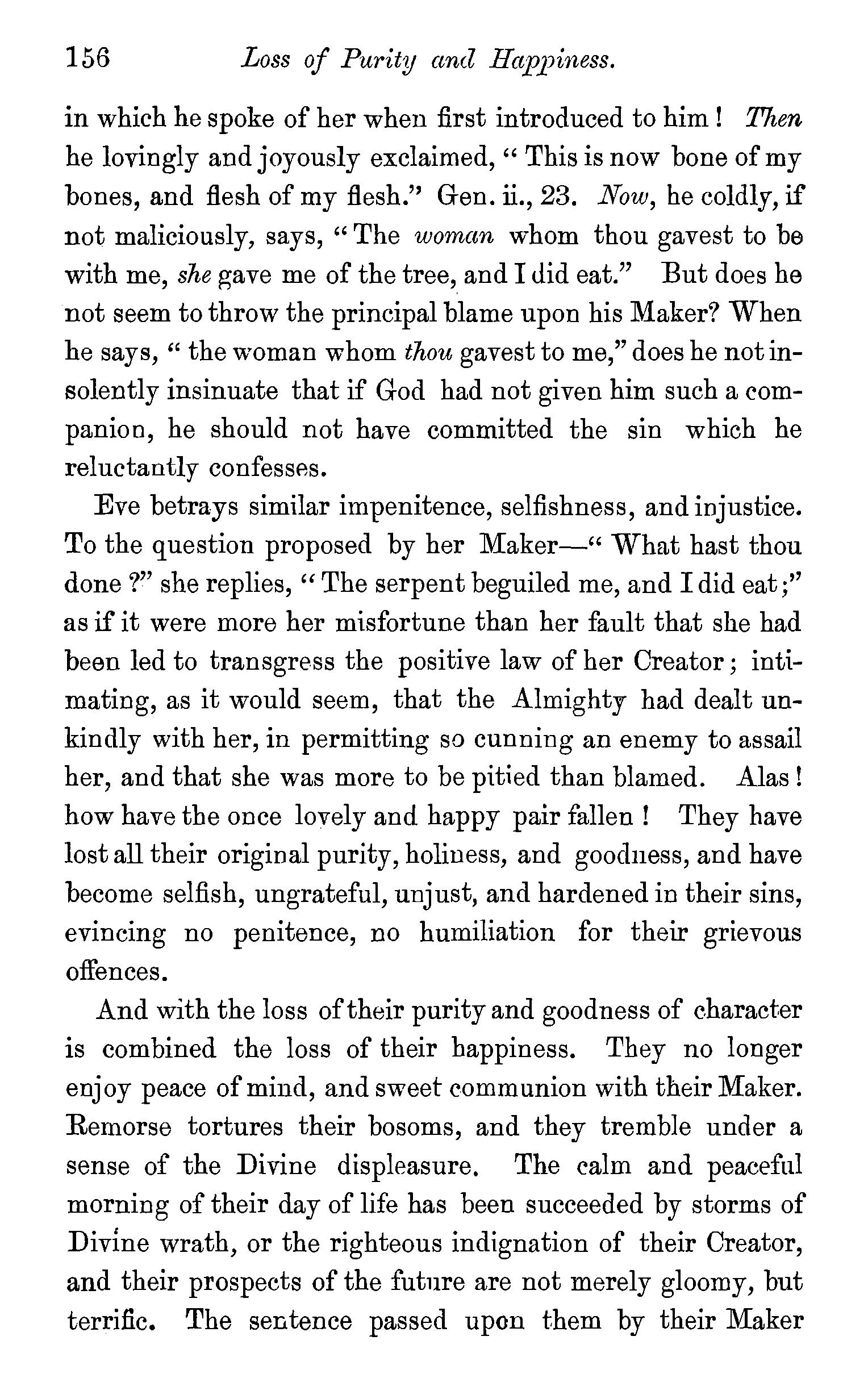
in which he spoke of her when first introduced to him! Then he lovingly and joyously exclaimed, " This is now bone of my bones, and flesh of my flesh." Gen. ii., 23. Now, he coldly, if not maliciously, says, "The womctn whom thou gavest to be with me, she gave me of the tree, and I J.id eat." But does he not seem to throw the principal blame upon his Maker? When he says," the woman whom thou gavest to me," does he not insolently insinuate that if God had not given him such a companion, he should not have committed the sin which he reluctantly confessAs.
Eve betrays similar impenitence, selfishness, and injustice. To the question proposed by her Maker-" What hast thou done?" she replies, "The serpent beguiled me, and I did eat;'' as if it were more her misfortune than her fault that she had been led to transgress the positive law of her Creator; intimating, as it would seem, that the Almighty had dealt unkindly with her, in permitting so cunning an enemy to assail her, and that she was more to be pitied than blamed. Alas! how have the once lovely and happy pair fallen ! They have lost all their original purity, holiness, and goodness, and have become selfish, ungrateful, unjust, and hardened in their sins, evincing no penitence, no humiliation for their grievous offences.
And with the loss of their purity and goodness of character is combined the loss of their happiness. They no longer enjoy peace of mind, and sweet communion with their Maker. Remorse tortures their bosoms, and they tremble under a sense of the Divine displeasure. The calm and peaceful morning of their day of life has been succeeded by storms of Divine wrath, or the righteous indignation of their Creator, and their prospects of the future are not merely gloomy, but terrific. The sentence passed upon them by their Maker
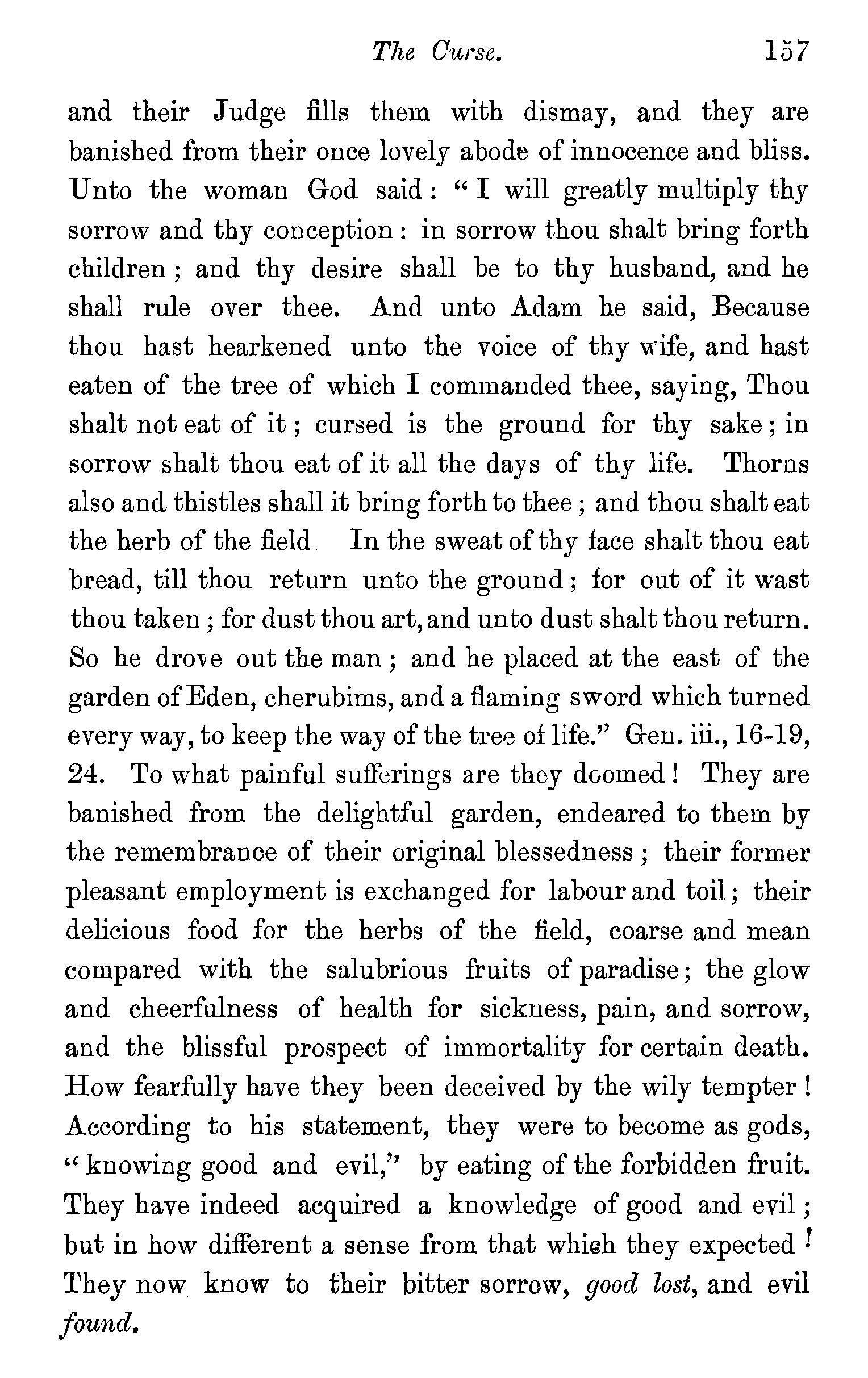
and their Judge fills them with dismay, and they are banished from their once lovely abode of innocence and bliss. Unto the woman God said : " I will greatly multiply thy sorrow and thy conception: in sorrow thou shalt bring forth children; and thy desire shall be to thy husband, and he shall rule over thee. And unto Adam he said, Because thou hast hearkened unto the voice of thy wife, and hast eaten of the tree of which I commanded thee, saying, Thou shalt not eat of it; cursed is the ground for thy sake; in sorrow shalt thou eat of it all the days of thy life. Thorns also and thistles shall it bring forth to thee ; and thou shalt eat the herb of the field In the sweat of thy face shalt thou eat bread, till thou return unto the ground ; for out of it wast thou taken; for dust thou art, and unto dust shalt thou return. So he dro"\le out the man; and he placed at the east of the garden of Eden, cherubims, and a flaming sword which turned every way, to keep the way of the tree of life.'' Gen. iii., 16-19, 24. To what painful sufferings are they dc,omed ! They are banished from the delightful garden, endeared to them by the remembrance of their original blessedness; their former pleasant employment is exchanged for labour and toil; their delicious food for the herbs of the field, coarse and mean compared with the salubrious fruits of paradise; the glow and cheerfulness of health for sickness, pain, and sorrow, and the blissful prospect of immortality for certain death. How fearfully have they been deceived by the wily tempter! According to his statement, they were to become as gods, '' knowing good and evil,'' by eating of the forbidden fruit. They have indeed acquired a knowledge of good and evil; but in how different a sense from that whigh they expected ! ~I.1heynow know to their bitter sorrow, good lost, and evil found.
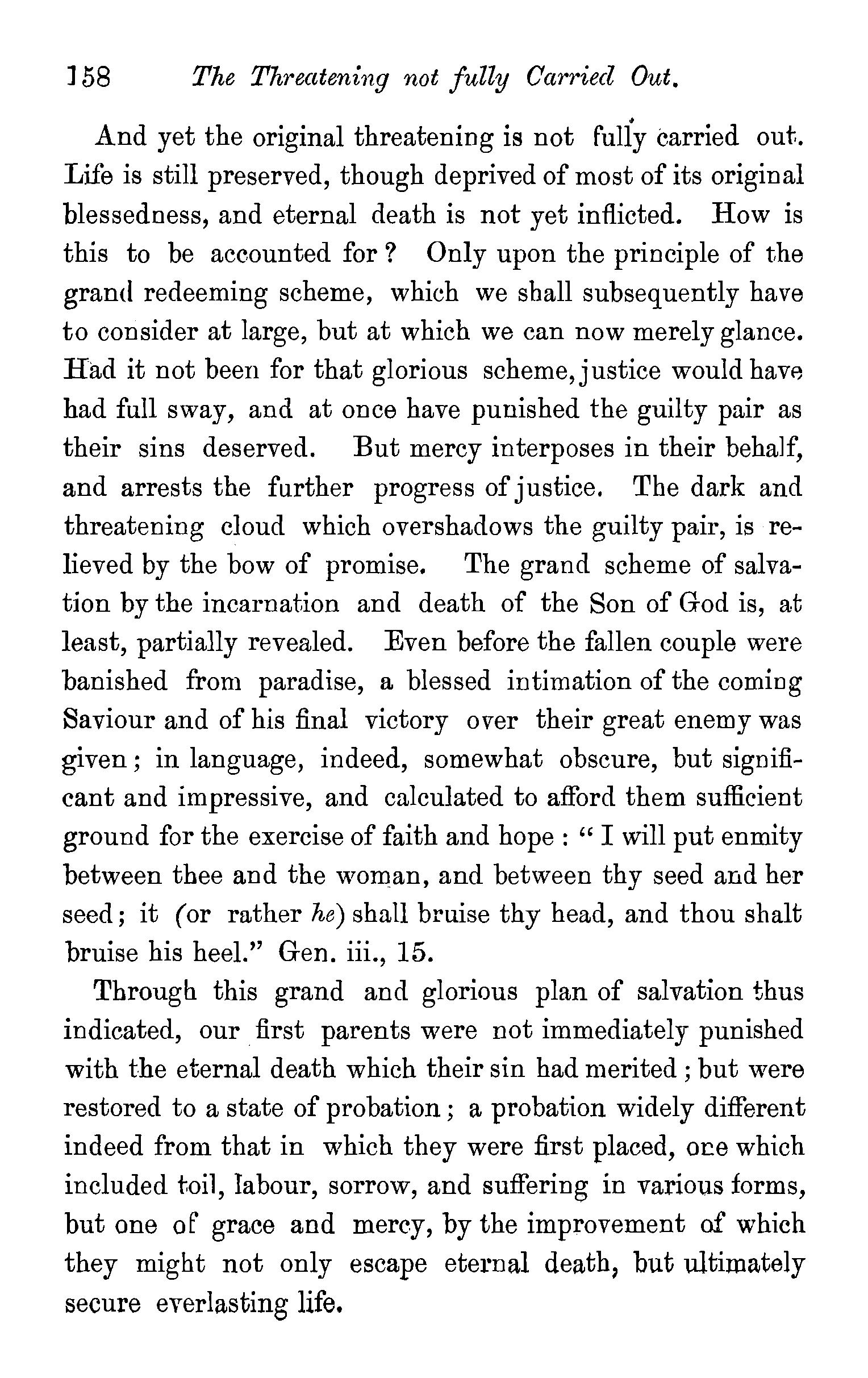
And yet the original threatening is not fuliy carried out. Life is still preserved, though deprived of most of its original blessedness, and eternal death is not yet inflicted. How is this to be accounted for ? Only upon the principle of the grand redeeming scheme, which we shall subsequently have to consider at large, but at which we can now merely glance. Had it not been for that glorious scheme,justice would have had full sway, and at once have punished the guilty pair as their sins deserved. But mercy interposes in their behalf, and arrests the further progress of justice. The dark and threatening cloud which overshadows the guilty pair, is relieved by the bow of promise. The grand scheme of salvation by the incarnation and death of the Son of God is, at least, partially revealed. Even before the fallen couple were banished from paradise, a blessed intimation of the coming Saviour and of his final victory over their great enemy was given; in language, indeed, somewhat obscure, but significant and impressive, and calculated to afford them sufficient ground for the exercise of faith and hope : " I will put enmity between thee and the woman, and between thy seed and her seed; it ( or rather he) shall bruise thy head, and thou shalt bruise his heel." Gen. iii., 15.
Through this grand and glorious plan of salvation thus indicated, our first parents were not immediately punished with the eternal death which their sin had merited; but were restored to a state of probation; a probation widely different indeed from that in which they were first placed, oce which included toil, labour, sorrow, and suffering in various forms, but one of grace and mercy, by the improvement of which they might not only escape eternal death, but ultimately secure everlasting life.
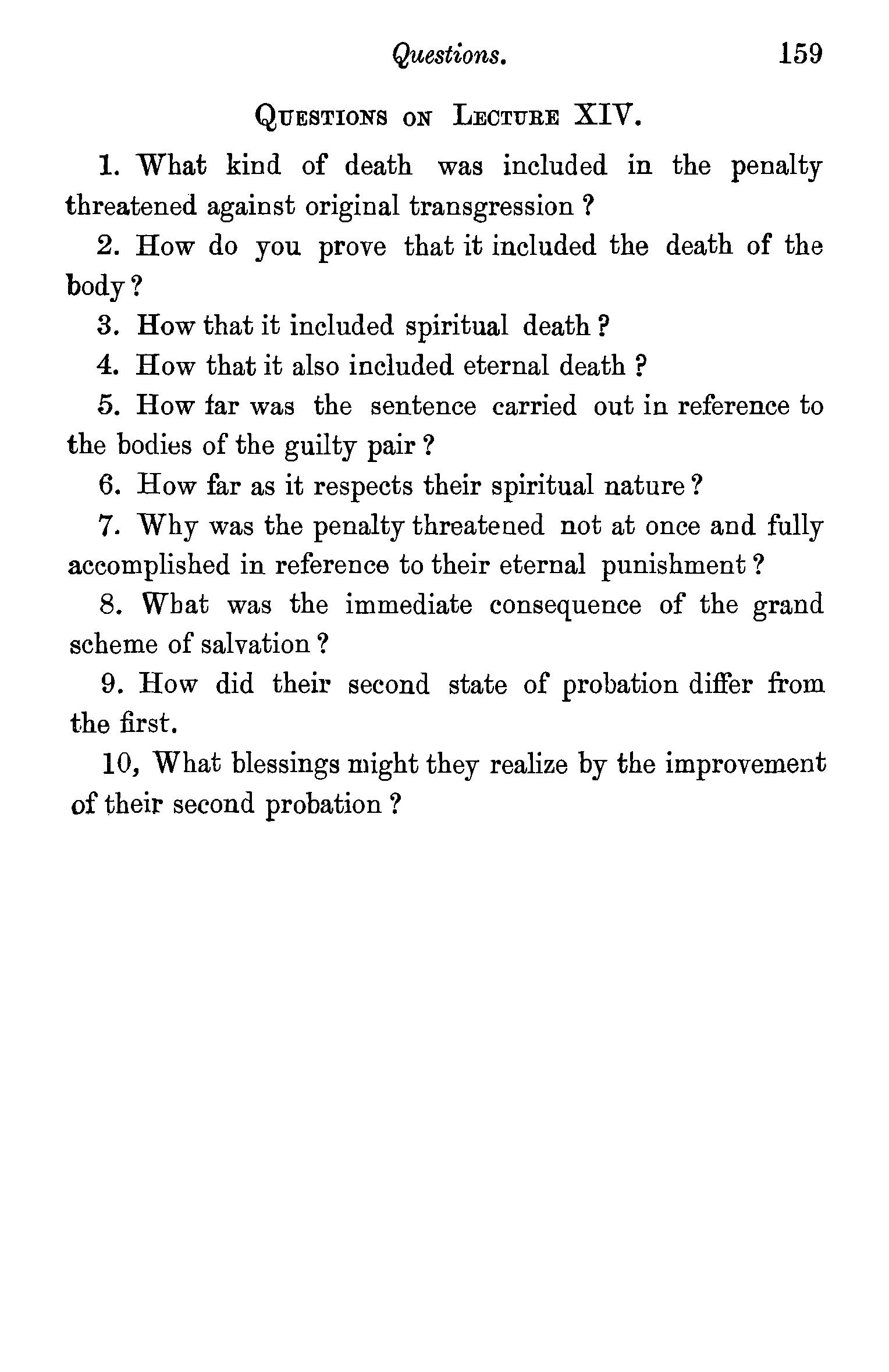
1. What kind of death was included in the penalty threatened against original transgression ?
2. How do you prove that it included the death of the body?
3. How that it included spiritual death ?
4. How that it also included eternal death?
5. How far was the sentence carried out in reference to the bodies of the guilty pair ?
6. How far as it respects their spiritual nature ?
7. Why was the penalty threatened not at once and fully accomplished in reference to their eternal punishment?
8. What was the immediate consequence of the grand scheme of salvation?
9. How did their second state of probation differ from the first.
10, What blessings might they realize by the improvement of their second probation ?
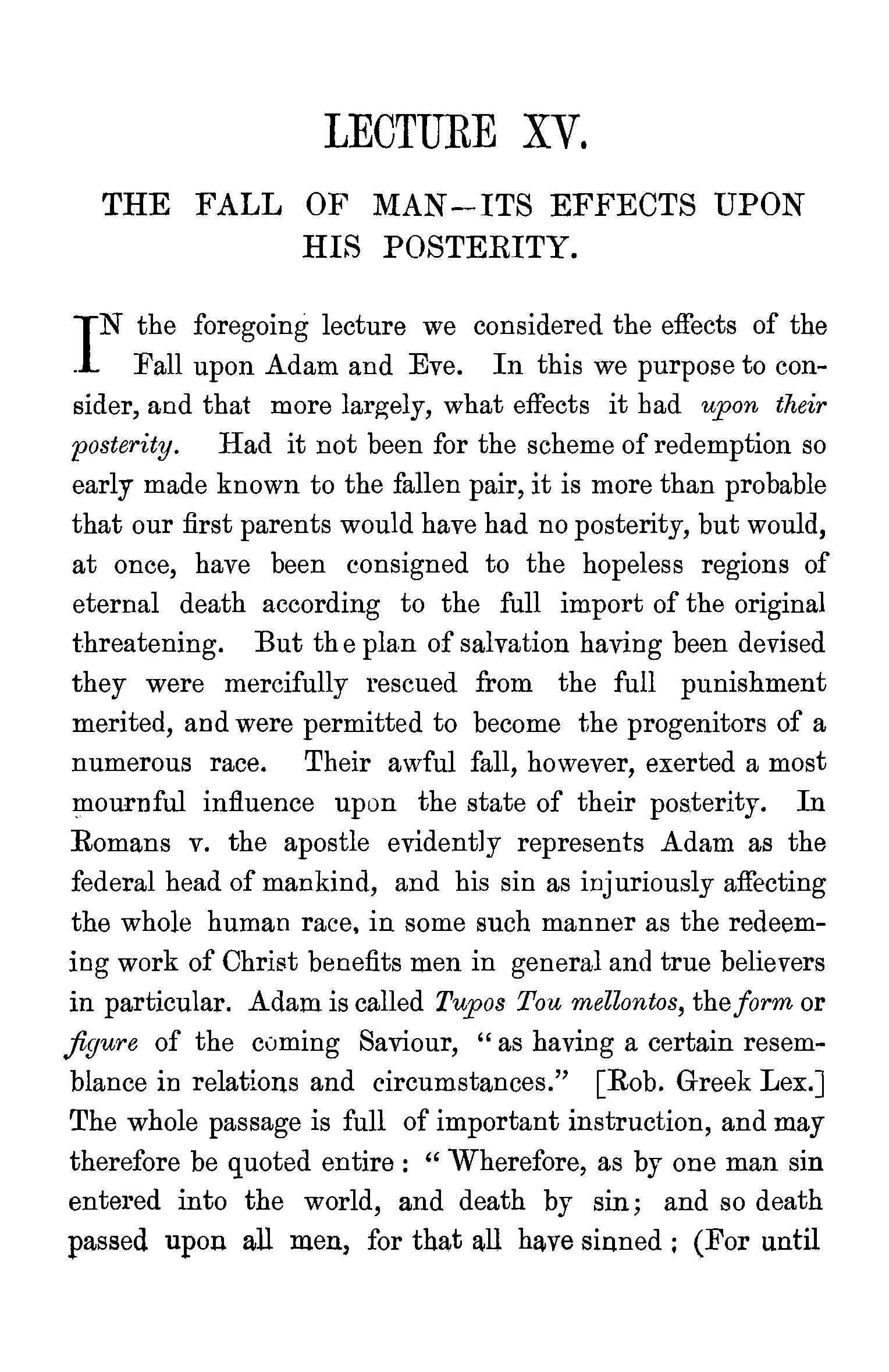
IN the foregoing lecture we considered the effects of the Fall upon Adam and Eve. In this we purpose to consider, and that more largely, what effects it had upon their posterity. Had it not been for the scheme of redemption so early made known to the fallen pair, it is more than probable that our first parents would have had no posterity, but would, at once, have been consigned to the hopeless regions of eternal death according to the full import of the original threatening. But the plan of salvation having been devised they were mercifully rescued from the full punishment merited, and were permitted to become the progenitors of a numerous race. Their awful fall, however, exerted a most mournful influence upon the state of their posterity. In Romans v. the apostle evidently represents Adam as the federal head of mankind, and his sin as injuriously affecting the whole human race, in some such manner as the redeeming work of Christ benefits men in general and true believers in particular. Adam is called Tupos Tau mellontos, the form or figure of the coming Saviour, "as having a certain resemblance in relations and circumstances." [Rob. Greek Lex.] The whole passage is full of important instruction, and may therefore be quoted entire: "Wherefore, as by one man sin entered into the world, and death by sin; and so death passed upon all men, for that all have sinned: (For until
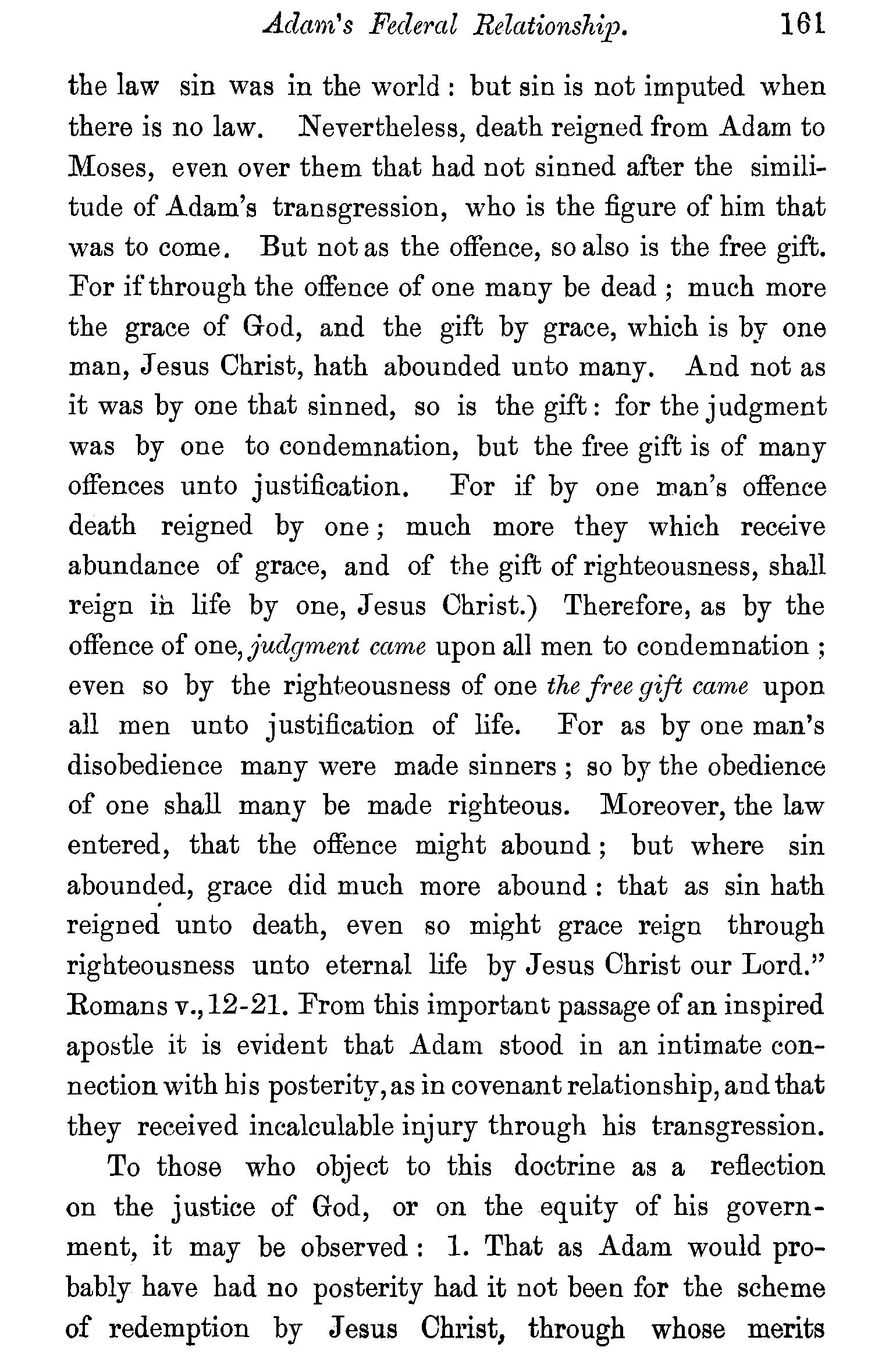
the law sin was in the world : but sin is not imputed when there is no law. Nevertheless, death reigned from Adam to Moses, even over them that had not sinned after the similitude of Adam's transgression, who is the figure of him that was to come. But not as the offence, so also is the free gift. For if through the offence of one many be dead; much more the grace of God, and the gift by grace, which is by one man, Jesus Christ, hath abounded unto many. And not as it was by one that sinned, so is the gift : for the judgment was by one to condemnation, but the free gift is of many offences unto justification. For if by one man's offence death reigned by one ; much more they which recE:ive abundance of grace, and of the gift of righteousness, shall reign ih life by one, Jesus Christ.) Therefore, as by the offence of one,juclgment came upon all men to condemnation; even so by the righteousness of one the free gift came upon all men unto justification of life. For as by one man's disobedience many were made sinners; so by the obedience of one shall many be made righteous. Moreover, the law entered, that the offence might abound ; but where sin abound~d, grace did much more abound : that as sin hath reigned unto death, even so might grace reign through righteousness unto eternal life by Jesus Christ our Lord." Romans v., 12-21. From this important passage of an inspired apostle it is evident that Adam stood in an intimate connection with his posterity,as in covenant relationship, and that they received incalculable injury through his transgression.
To those who object to this doctrine as a reflection on the justice of God, or on the equity of his government, it may be observed : 1. That as Adam would probably have had no posterity had it not been for the scheme of redemption by Jesus Christ, through whose merits
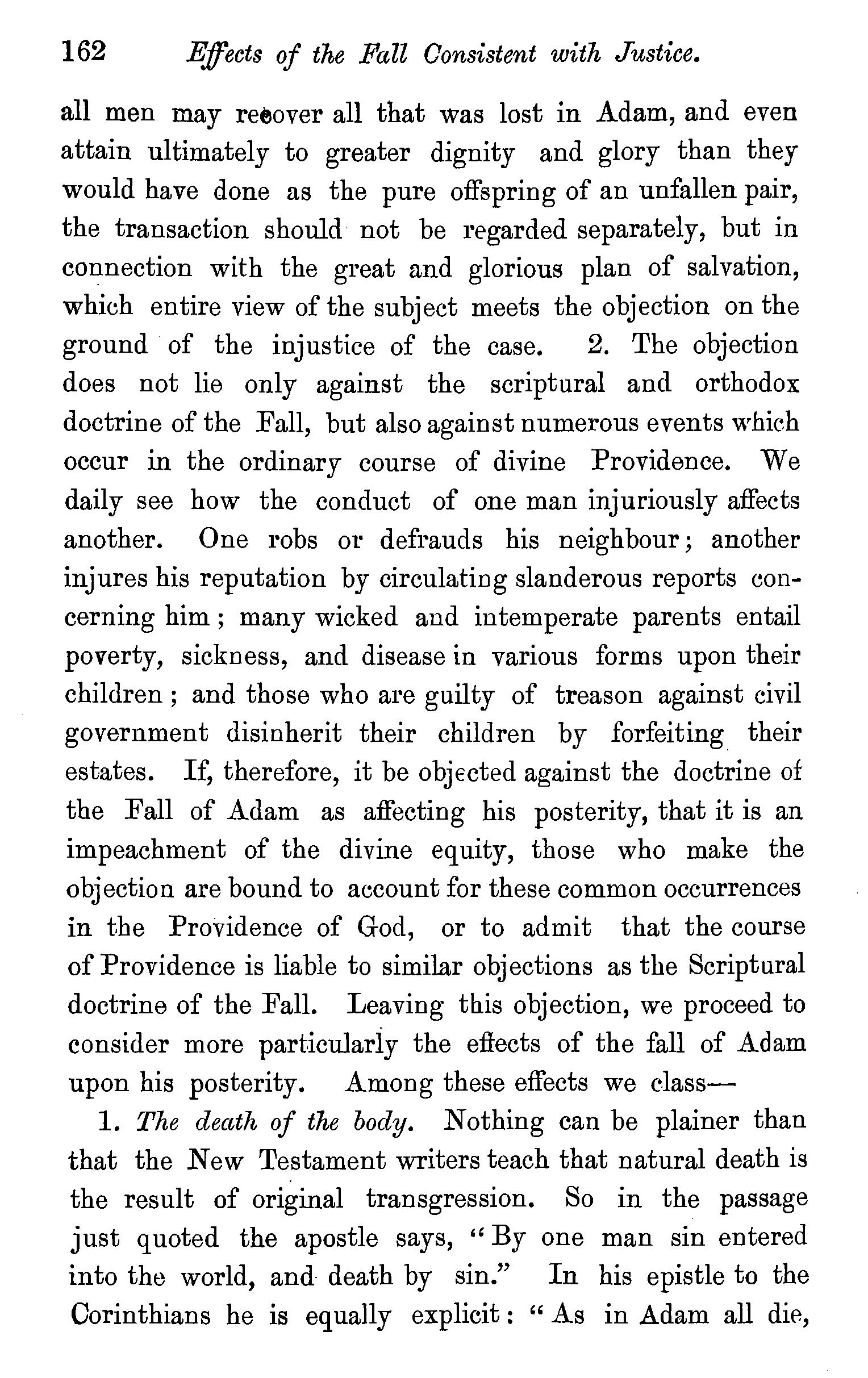
162 Effects of the Fall Consistent with Justice.
all men may reeover all that was lost in Adam, and even attain ultimately to greater dignity and glory than they would have done as the pure offspring of an unfallen pair, the transaction should not be regarded separately, but in connection with the great and glorious plan of salvation, which entire view of the subject meets the objection on the ground of the injustice of the case. 2. The objection does not lie only against the scriptural and orthodox doctrine of the Fall, but also against numerous events which occur in the ordinary course of divine Providence. We daily see how the conduct of one man injuriously affects another. One robs or defrauds his neighbour; another injures his reputation by circulating slanderous reports concerning him; many wicked and intemperate parents entail poverty, sickness, and disease in various forms upon their children ; and those who are guilty of treason against civil government disinherit their children by forfeiting their estates. If, therefore, it be objected against the doctrine of the Fall of Adam as affecting his posterity, that it is an impeachment of the divine equity, those who make the objection are bound to account for these common occurrences in the Providence of God, or to admit that the course of Providence is liable to similar objections as the Scriptural doctrine of the Fall. Leaving this objection, we proceed to consider more particulariy the effects of the fall of Adam upon his posterity. Among these effects we class1. The death of the body. Nothing can be plainer than that the New Testament writers teach that natural death is the result of original transgression. So in the passage just quoted the apostle says, "By one man sin entered into the world, and death by sin." In his epistle to the Corinthians he is equally explicit: "As in Adam all die,
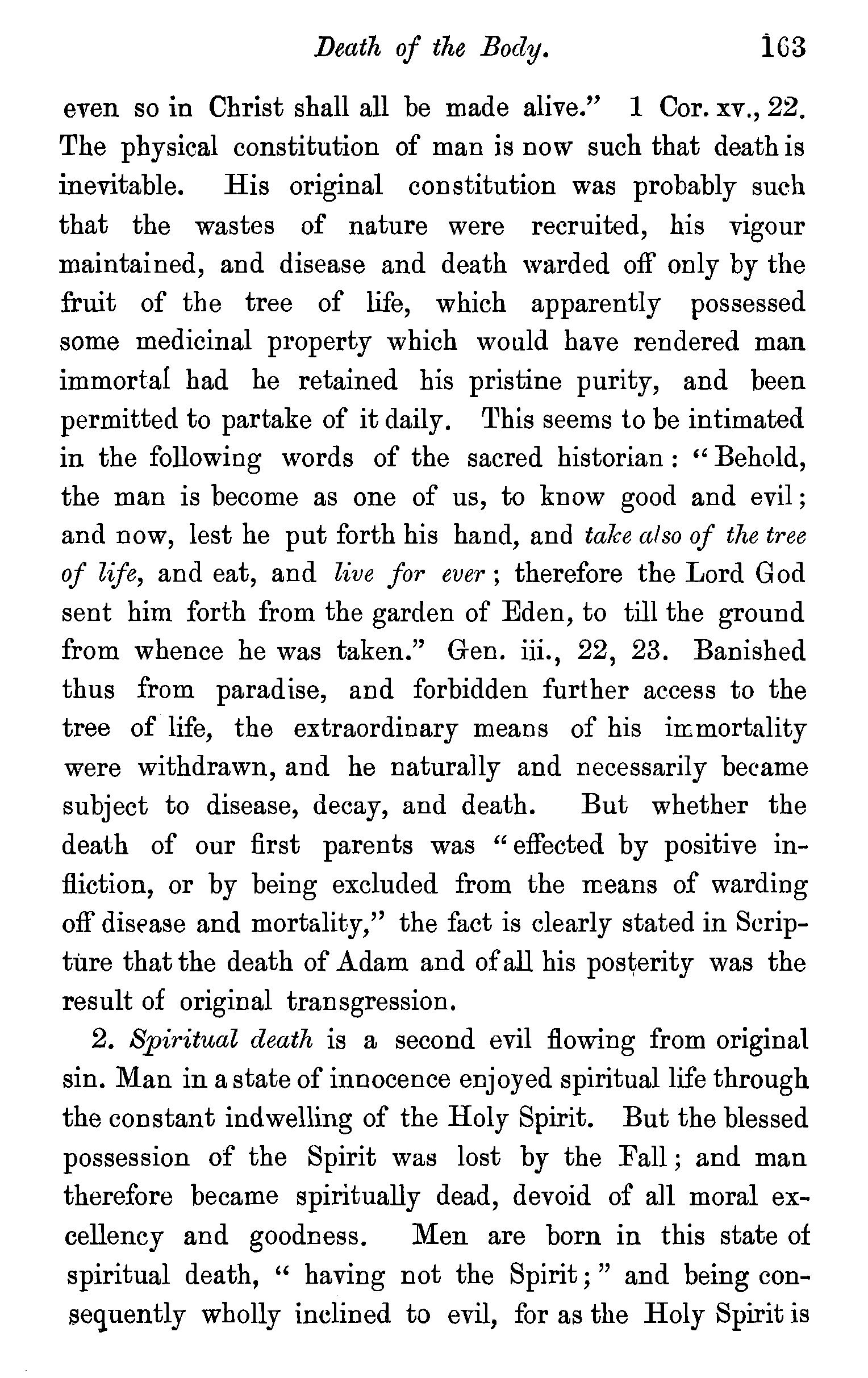
even so m Christ shall all be made alive." 1 Cor. xv., 22. The physical constitution of man is now such that death is inevitable. His original constitution was probably such that the wastes of nature were recruited, his vigour maintained, and disease and death warded off only by the fruit of the tree of life, which apparently possessed some medicinal property which would have rendered man immortal had he retained his pristine purity, and been permitted to partake of it daily. This seems to be intimated in the following words of the sacred historian : " Behold, the man is become as one of us, to know good and evil; and now, lest he put forth his hand, and talcealso of the tree of life, and eat, and live for ever; therefore the Lord God sent him forth from the garden of Eden, to till the ground from whence he was taken." Gen. iii., 22, 23. Banished thus from paradise, and forbidden further access to the tree of life, the extraordinary means of his irr.mortality were withdrawn, and he naturally and necessarily became subject to disease, decay, and death. But whether the death of our first parents was " effected by positive infliction, or by being excluded from the means of warding off disease and mortality," the fact is clearly stated in Scripture that the death of Adam and of all his pos~erity was the result of original transgression.
2. Spiritual death is a second evil flowing from original sin. Man in a state of innocence enjoyed spiritual life through the constant indwelling of the Holy Spirit. But the blessed possession of the Spirit was lost by the Fall ; and man therefore became spiritually dead, devoid of all moral excellency and goodness. Men are born in this state of spiritual death, " having not the Spirit; " and being consequently wholly inclined to evil, for as the Holy Spirit is
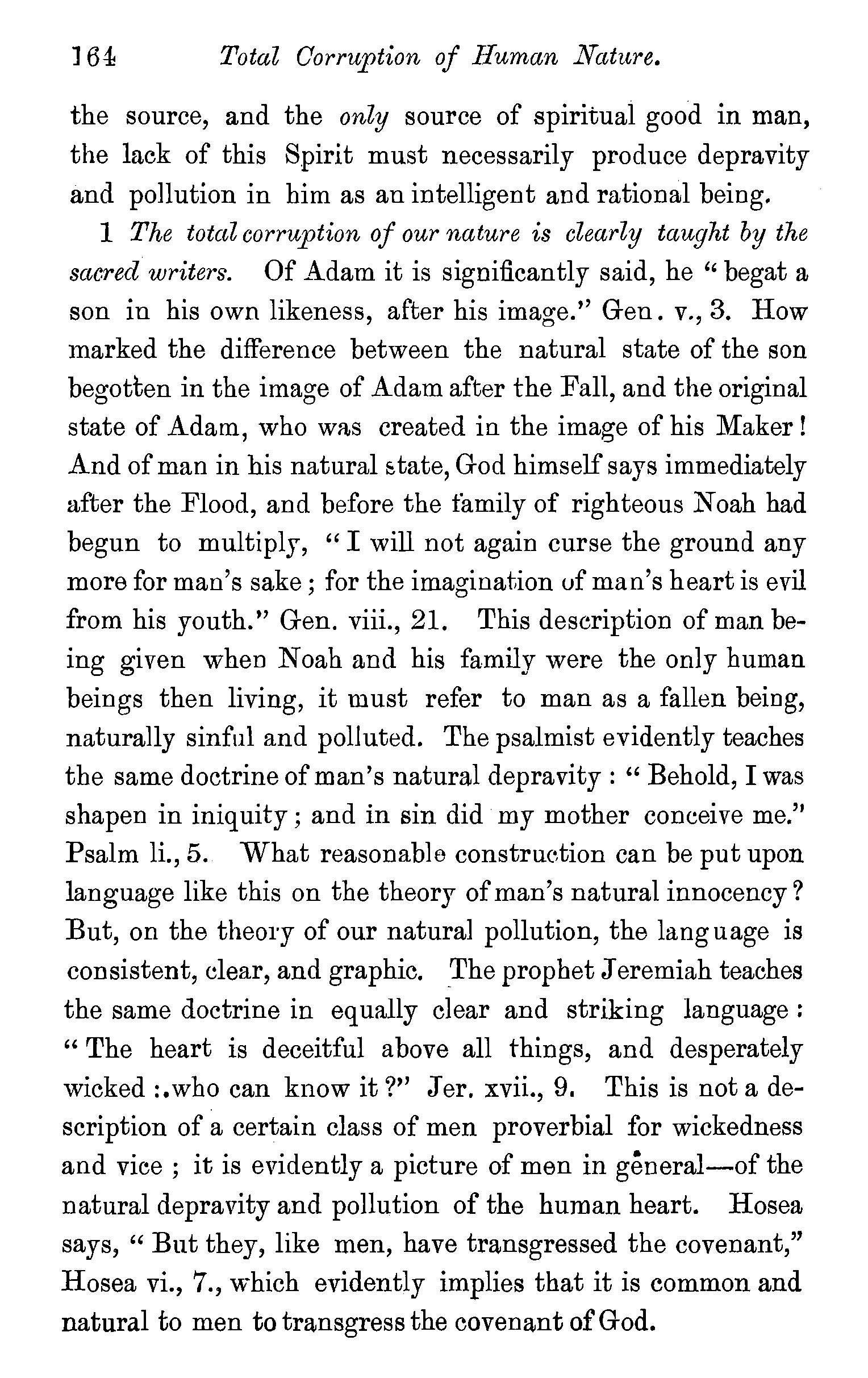
the source, and the only source of spiritual good in man, the lack of this Spirit must necessarily produce depravity and pollution in him as an intelligent and rational being. l The total corruption of our nature is clearly fought by the scu;redwriters. Of Adam it is significantly said, he '' begat a son in his own likeness, after his image.'' Gen. v., 3. How marked the difference between the natural state of the son begotten in the image of Adam after the Fall, and the original state of Adam, who wa.s created in the image of his Maker ! And of man in his natural etate, God himself says immediately after the Flood, and before the family of righteous Noah had begun to multiply, "I will not again curse the ground any more for man's sake; for the imagination uf man's heart is evil from his youth." Gen. viii., 21. This description of man being given when Noah and his family were the only human beings then living, it must refer to man as a fallen being, naturally sinful and polluted. The psalmist evidently teaches the same doctrine of man's natural depravity : " Behold, I was shapen in iniquity; and in sin did my mother conceive me." Psalm li., 5. What reasonable construction can be put upon language like this on the theory of man's natural innocency? But, on the theory of our natural pollution, the language is consistent, clear, and graphic. _Theprophet Jeremiah teaches the same doctrine in equally clear and striking language : " The heart is deceitful above all things, and desperately wicked :.who can know it?'' Jer. xvii., 9, This is not a description of a certain class of men proverbial for wickedness and vice ; it is evidently a picture of men in general-of the natural depravity and pollution of the human heart. Hosea says, " But they, like men, have transgressed the covenant," Hosea vi., 7., which evidently implies that it is common and natural to men to transgress the covenant of God.
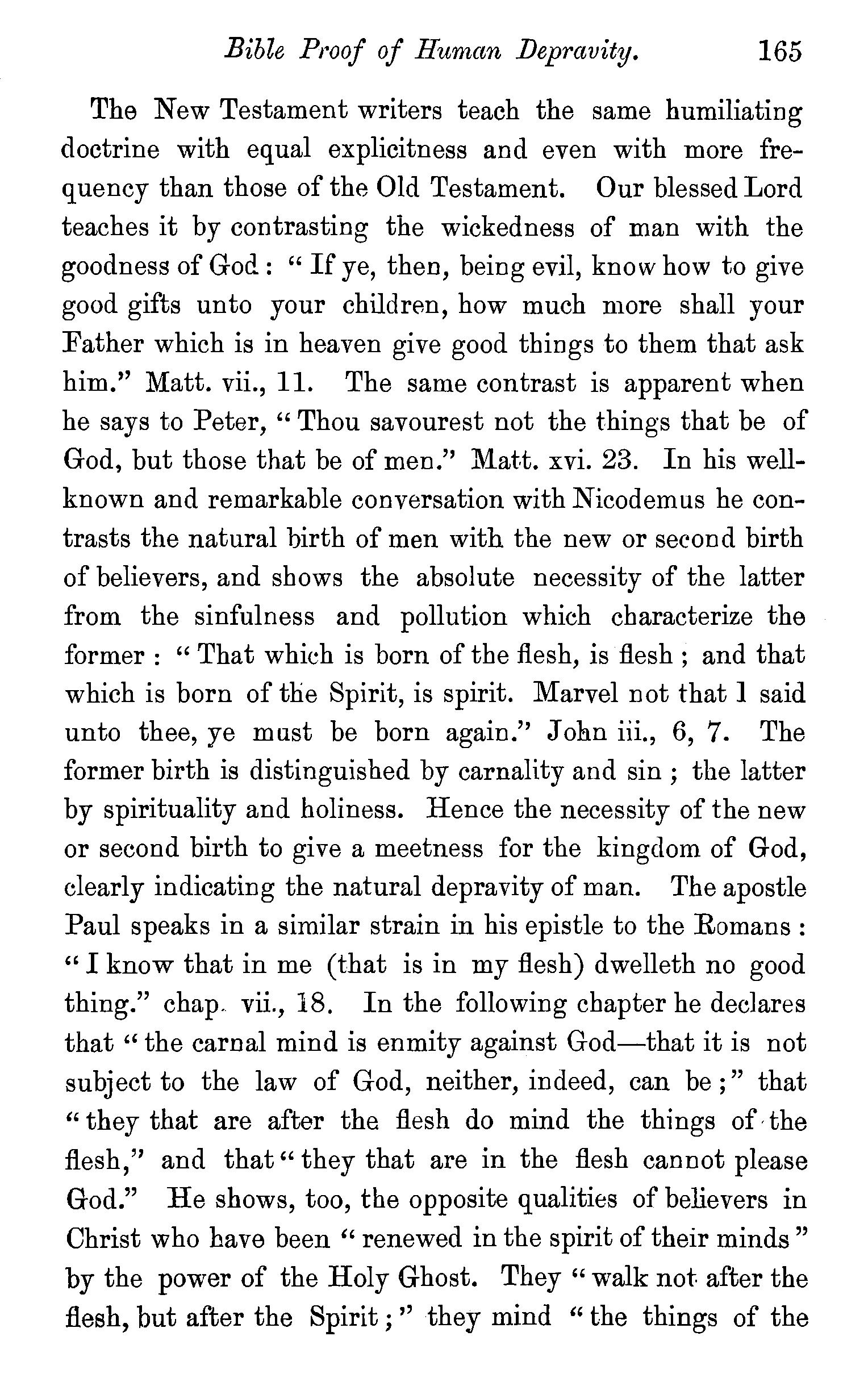
The New Testament writers teach the same humiliating doctrine with equal explicitness and even with more frequency than those of the Old Testament. Our blessed Lord teaches it by contrasting the wickedness of man with the goodness of God.: "If ye, then, being evil, know how to give good gifts unto your children, how much more shall your Father which is in heaven give good things to them that ask him." Matt. vii., 11. The same contrast is apparent when he says to Peter, "Thou savourest not the things that be of God, but those that be of men." Matt. xvi. 23. In his wellknown and remarkable conversation with Nicodemus he contrasts the natural birth of men with the new or second birth of believers, and shows the absolute necessity of the latter from the sinfulness and pollution which characterize the former : " That which is born of the flesh, is flesh ; and that which is born of the Spirit, is spirit. Marvel not that 1 said unto thee, ye must be born again.'' John iii., 6, 7. The former birth is distinguished by carnality and sin ; the latter by spirituality and holiness. Hence the necessity of the new or second birth to give a meetness for the kingdom of God, clearly indicating the natural depravity of man. The apostle Paul speaks in a similar strain in his epistle to the Romans : " I know that in me ( that is in my flesh) d welleth no good thing." chap. vii., 18. In the following chapter he declares that "the carnal mind is enmity against God-that it is not subject to the law of God, neither, indeed, can be ; " that "they that are after the flesh do mind the things of· the flesh," and that" they that are in the flesh cannot please God." He shows, too, the opposite qualities of believers in Christ who have been "renewed in the spirit of their minds" by the power of the Holy Ghost. They" walk not after the flesh, but after the Spirit ; '' they mind " the things of the
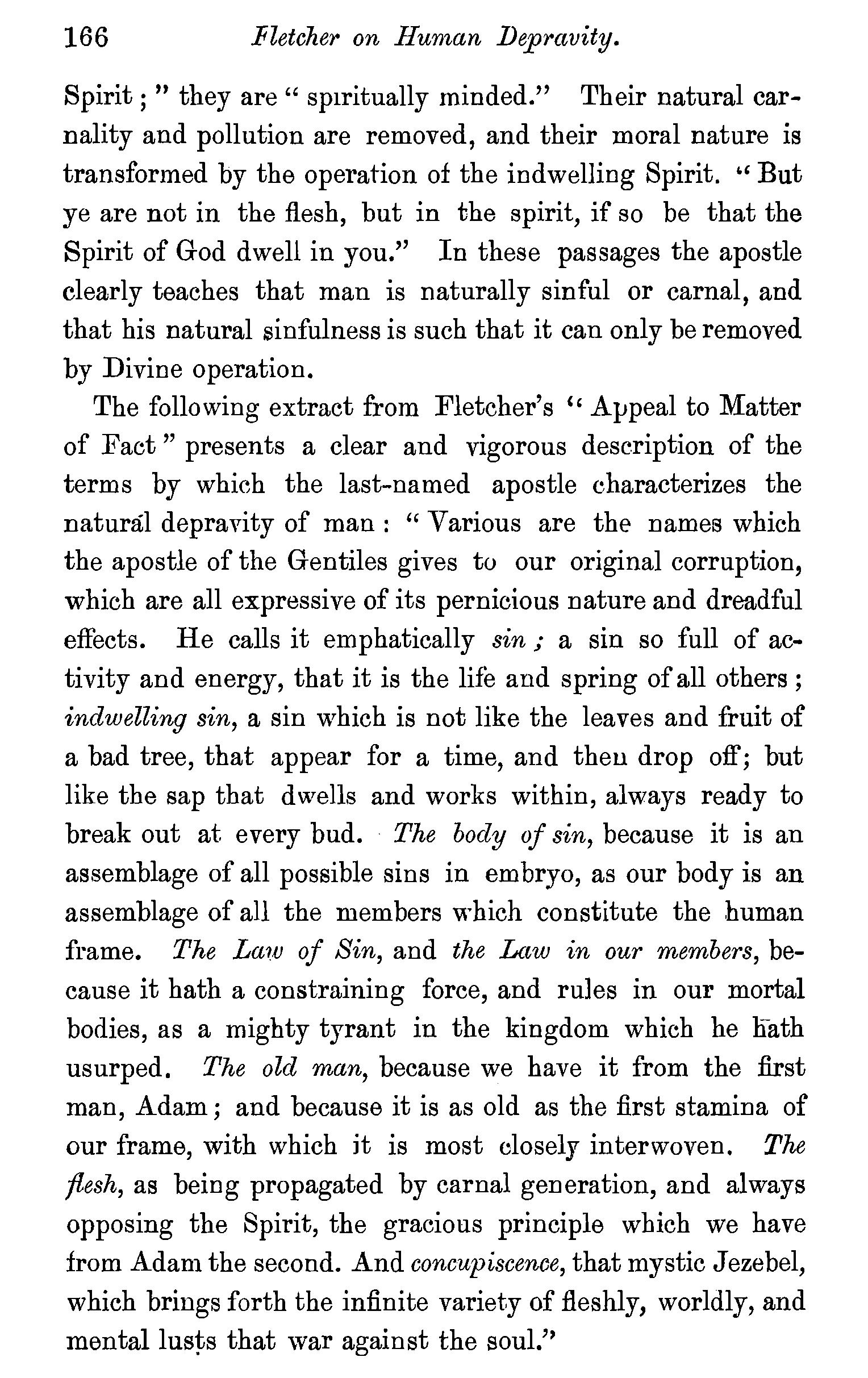
Spirit; " they are " spiritually minded." Their natural carnality and pollution are removed, and their moral nature is transformed by the operation of the indwelling Spirit. H But ye are not in the flesh, but in the spirit, if so be that the Spirit of God dwell in you." In these passages the apostle clearly teaches that man is naturally sinful or carnal, and that his natural sinfulness is such that it can only be removed by Divine operation.
The following extract from Fletcher's '' Avpeal to Matter of Fact" presents a clear and vigorous description of the terms by which the last-named apostle characterizes the natural depravity of man : " Various are the names which the apostle of the Gentiles gives to our original corruption, which are all expressive of its pernicious nature and dreadful effects. He calls it emphatically sin ; a sin so full of activity and energy, that it is the life and spring of all others ; indwelling sin, a sin which is not like the leaves and fruit of a bad tree, that appear for a time, and theu drop off; but like the sap that dwells and works within, always ready to break out at every bud. The body of sin, because it is an assemblage of all possible sins in embryo, as our body is an assemblage of all the members which constitute the human frame. The Law of Sin, and the Lctw in our rnernbers,because it hath a constraining force, and rules in our mortal bodies, as a mighty tyrant in the kingdom which he lfath usurped. The old rnan, because we have it from the first man, Adam; and because it is as old as the first stamina of our frame, with which it is most closely interwoven. The flesh, as being propagated by carnal generation, and always opposing the Spirit, the gracious principle which we have from Adam the second. And concupiscence,that mystic Jezebel, which brings forth the infinite variety of :fleshly, worldly, and mental lusts that war against the soul.''
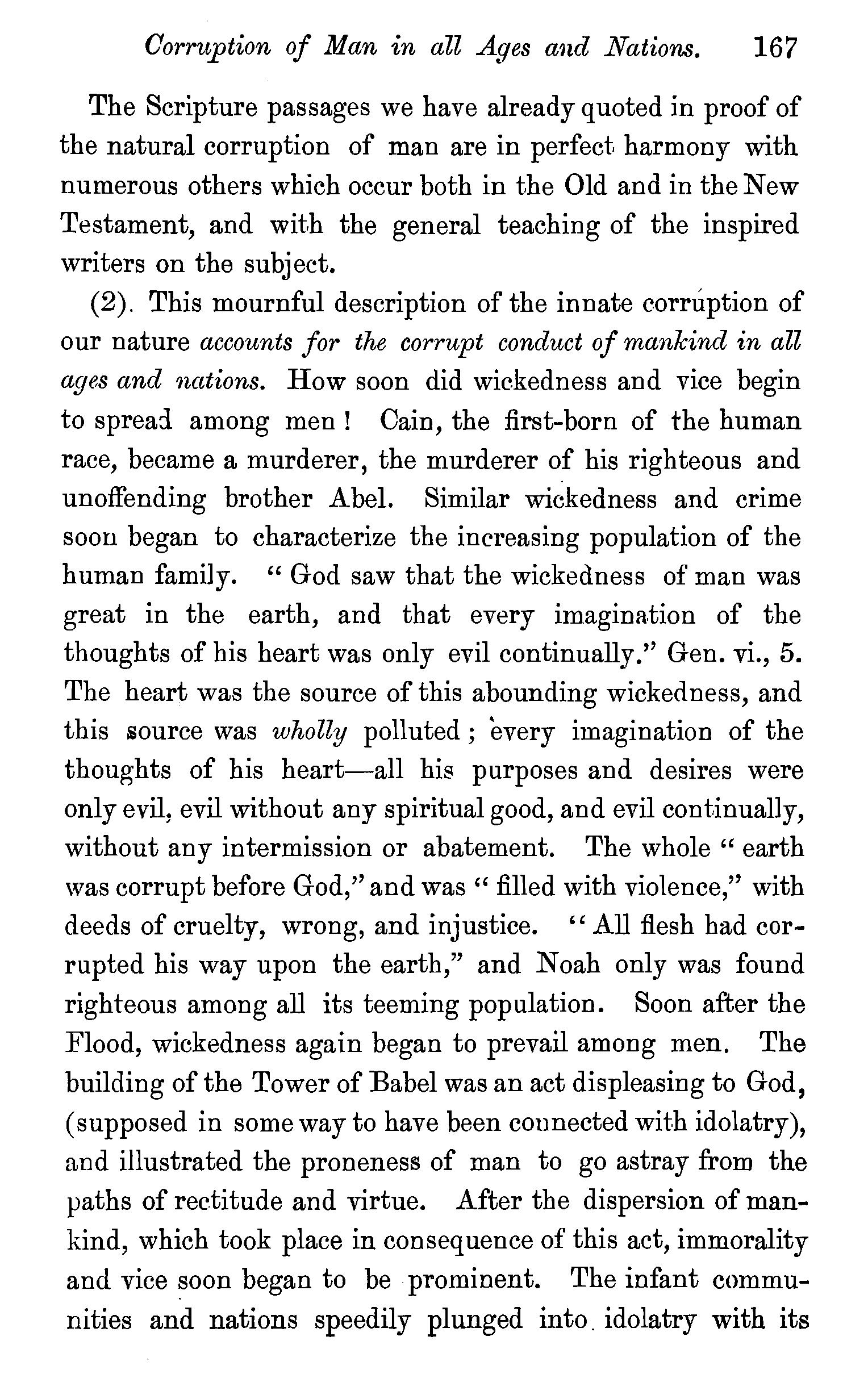
The Scripture passages we have already quoted in proof of the natural corruption of man are in perfect harmony with numerous others which occur both in the Old and in the New Testament, and with the general teaching of the inspired writers on the subject.
(2). This mournful description of the innate corruption of our nature accounts for the corrupt conduct of mankind in all ages and nations. How soon did wickedness and vice begin to spread. among men! Cain, the first-born of the human race, became a murderer, the murderer of his righteous and unoffending brother Abel. Similar wickedness and crime soon began to characterize the increasing population of the human family. "God saw that the wickedness of man was great in the earth, and that every imagination of the thoughts of his heart was only evil continually.'' Gen. vi., 5. The heart was the source of this abounding wickedness, and this source was wholly polluted ; every imagination of the thoughts of his heart-all his purposes and desires were only evil, evil without any spiritual good, and evil continually, without any intermission or abatement. The whole " earth was corrupt before God,'' and was " filled with violence," with deeds of cruelty, wrong, and injustice. "All flesh had corrupted his way upon the earth," and Noah only was found righteous among all its teeming population. Soon after the Flood, wickedness again began to prevail among men. The building of the Tower of Babel was an act displeasing to God, ( supposed in some way to have been connected with idolatry), and illustrated the proneness of man to go astray from the paths of rectitude and virtue. After the dispersion of mankind, which took place in consequence of this act, immorality and vice soon began to be prominent. The infant communities and nations speedily plunged into. idolatry with its
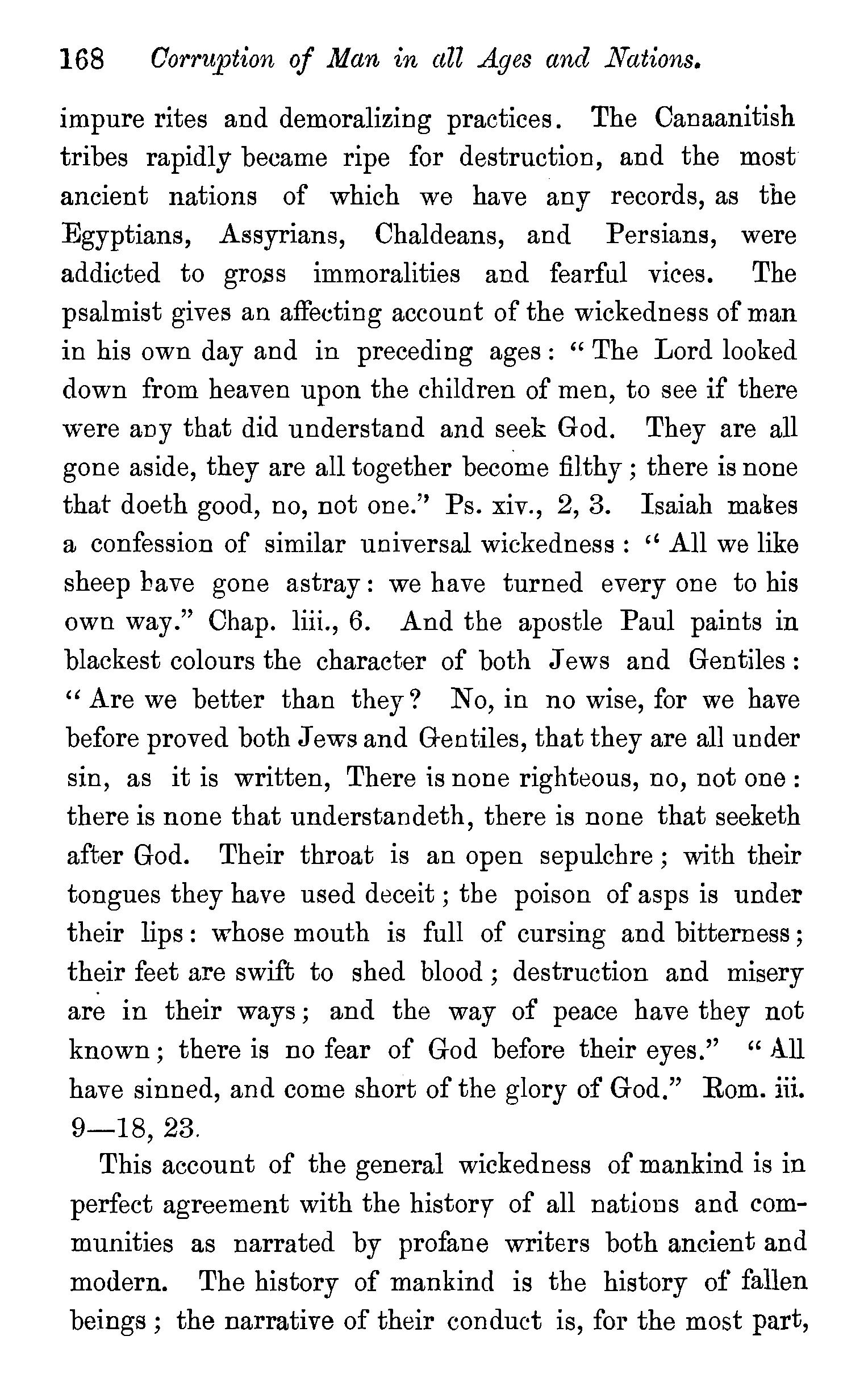
168 Corruption of Man in all Ages and Nations.
impure rites and demoralizing practices. The Canaanitish tribes rapidly became ripe for destruction, and the most ancient nations of which we have any records, as the Egyptians, Assyrians, Chaldeans, and Persians, were addicted to gro.ss immoralities and fearful vices. The psalmist gives an affecting account of the wickedness of man in his own day and in preceding ages : " The Lord looked down from heaven upon the children of men, to see if there were any that did understand and seek God. They are all gone aside, they are all together become filthy ; there is none that doeth good, no, not one.'' Ps. xiv., 2, 3. Isaiah makes a confession of similar universal wickedness : " All we like sheep bave gone astray: we have turned every one to his own way." Chap. liii., 6. And the apostle Paul paints in blackest colours the character of both Jews and Gentiles: " Are we better than they? No, in no wise, for we have before proved both Jews and Gentiles, that they are all under sin, as it is written, There is none righteous, no, not one: there is none that understandeth, there is none that seeketh after God. Their throat is an open sepulchre ; with their tongues they have used deceit; the poison of asps is under their lips : whose mouth is full of cursing and bitterness; their feet are swift to shed blood ; destruction and misery are in their ways ; and the way of peace have they not known; there is no fear of God before their eyes." "A.11 have sinned, and come short of the glory of God." Rom. iii. 9-18, 23.
This account of the general wickedness of mankind is in perfect agreement with the history of all nations and communities as narrated by profane writers both ancient and modern. The history of mankind is the history of fallen beings; the narrative of their conduct is, for the most part,
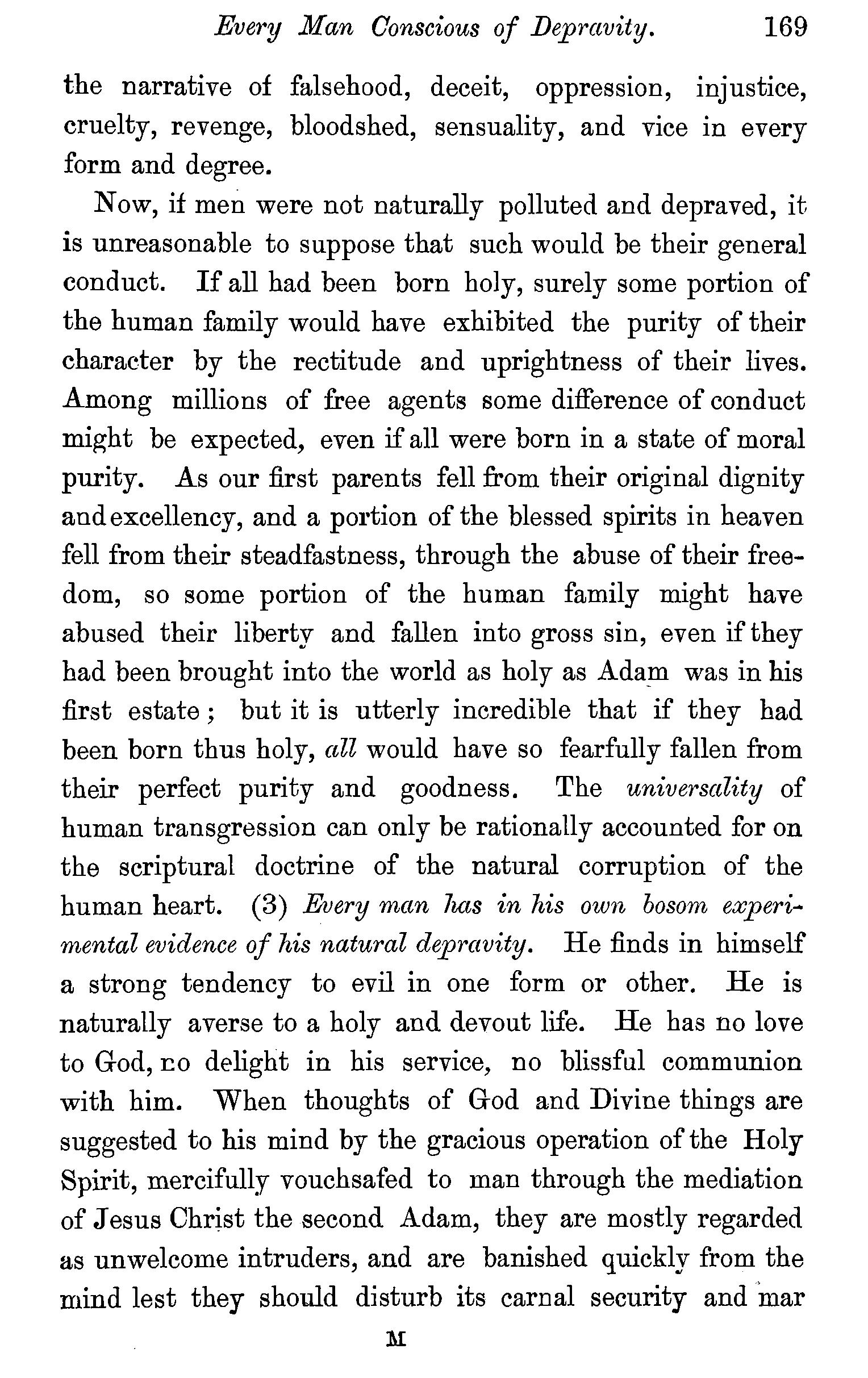
the narrative of falsehood, deceit, oppression, injustice, cruelty, revenge, bloodshed, sensuality, and vice in every form and degree.
Now, if men were not naturally polluted and depraved, it is unreasonable to suppose that such would be their general conduct. If all had been born holy, surely some portion of the human family would have exhibited the purity of their character by the rectitude and uprightness of their lives. Among millions of free agents some difference of conduct might be expected, even if all were born in a state of moral purity. As our first parents fell from their original dignity and excellency, and a portion of the blessed spirits in heaven fell from their steadfastness, through the abuse of their freedom, so some portion of the human family might have abused their liberty and fallen into gross sin, even if they had been brought into the world as holy as Adapi was in his first estate ; but it is utterly incredible that if they had been born thus holy, ctll would have so fearfully fallen from their perfect purity and goodness. The universality of human transgression can only be rationally accounted for on the scriptural doctrine of the natural corruption of the human heart. (3) Every man has in his own bosom experimental evidence of his natural depravity. He finds in himself a strong tendency to evil in one form or other. He is naturally averse to a holy and devout life. He has no love to God, I!O delight in his service, no blissful communion with him. When thoughts of God and Divine things are suggested to his mind by the gracious operation of the Holy Spirit, mercifully vouchsafed to man through the mediation of Jesus Christ the second Adam, they are mostly regarded as unwelcome intruders, and are banished quickly from the mind lest they should djsturb its carnal security and mar
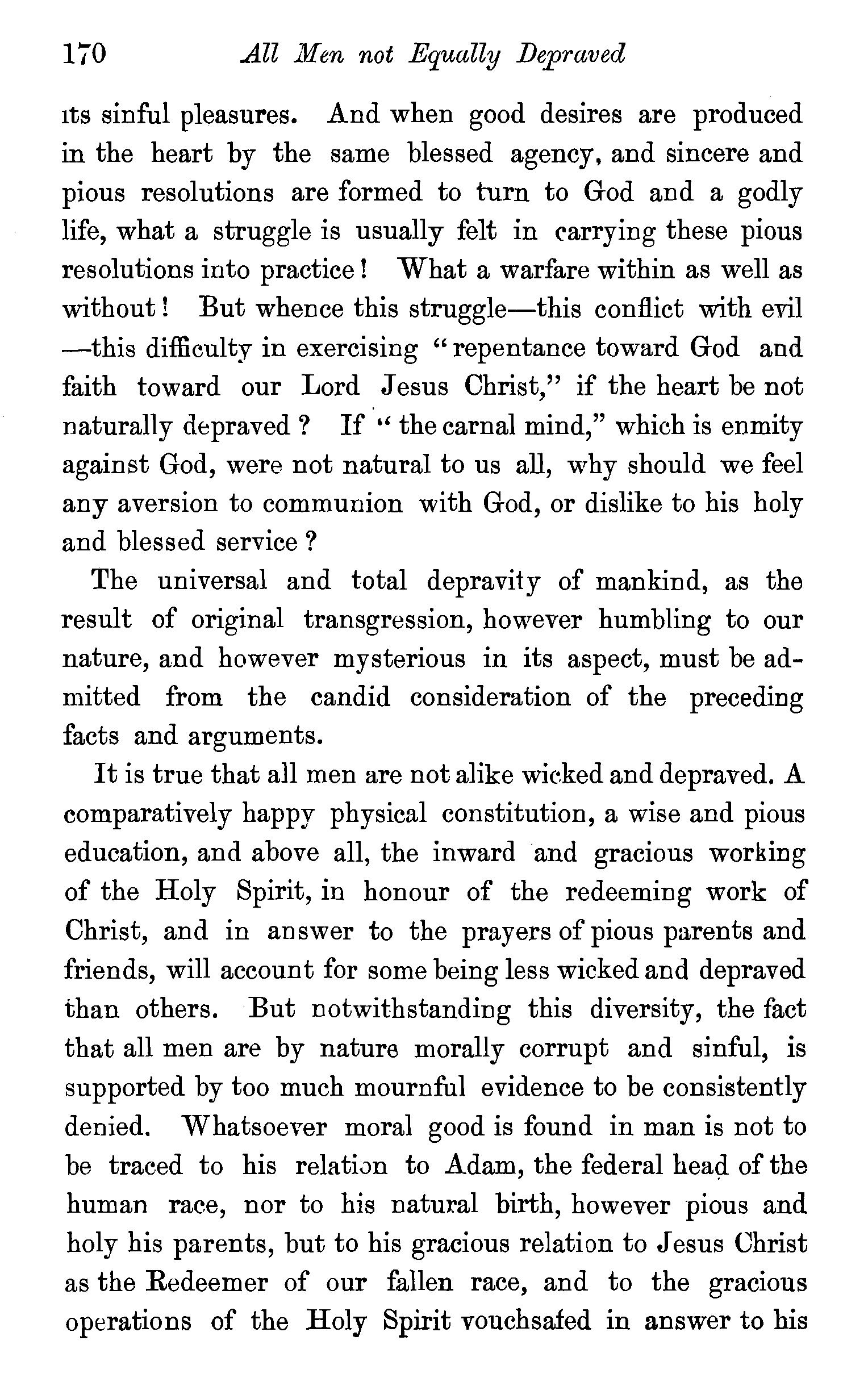
its sinful pleasures. And when good desires are produced in the heart by the same blessed agency, and sincere and pious resolutions are formed to turn to God and a godly life, what a struggle is usually felt in ('arrying these pious resolutions into practice! What a warfare within as well as without! But whence this struggle-this conflict with evil -this difficulty in exercising "repentance toward God and faith toward our Lord Jesus Christ," if the heart be not naturally depraved ? If '' the carnal mind," which is enmity against God, were not natural to us all, why should we feel any aversion to communion with God, or dislike to his holy and blessed service ?
The universal and total depravity of mankind, as the result of original transgression, however humbling to our nature, and however mysterious in its aspect, must be admitted from the candid consideration of the preceding facts and arguments.
It is true that all men are not alike wicked and depraved. A comparatively happy physical constitution, a wise and pious education, and above all, the inward and gracious working of the Holy Spirit, in honour of the redeeming work of Christ, and in answer to the prayers of pious parents and friends, will account for some being less wicked and depraved than others. But notwithstanding this diversity, the fact that all men are by nature morally corrupt and sinful, is supported by too much mournful evidence to be consistently denied. Whatsoever moral good is found in man is not to be traced to his relation to Adam, the federal hea\f of the human race, nor to his natural birth, however pious and holy his parents, but to his gracious relation to Jesus Christ as the Redeemer of our fallen race, and to the gracious operations of the Holy Spirit vouchsafed in answer to his
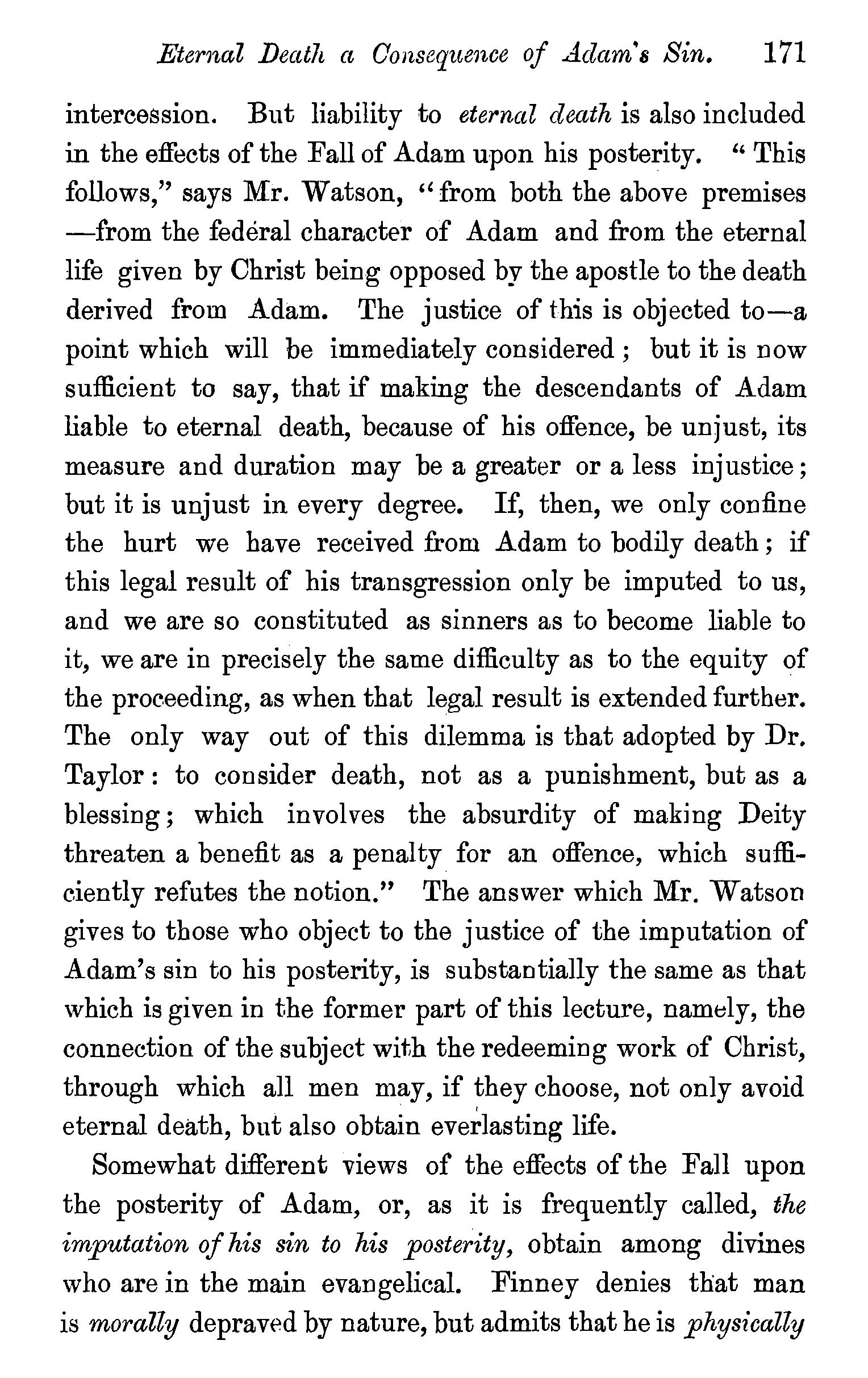
intercession. But liability to eternal death is also included in the effects of the Fall of Adam upon his posterity. '' This follows,'' says Mr. Watson, '' from both the above premises -from the federal character of Adam and from the eternal life given by Christ being opposed by the apostle to the death derived from Adam. The justice of this is objected to-a point which will be immediately considered ; but it is now sufficient to say, that if making the descendants of Adam liable to eternal death, because of his offence, be unjust, its measure and duration may be a greater or a less injustice; but it is unjust in every degree. If, then, we only confine the hurt we have received from Adam to bodily death ; if this legal result of his transgression only be imputed to us, and we are so constituted as sinners as to become liable to it, we are in precisely the same difficulty as to the equity of the proceeding, as when that legal result is extended further. The only way out of this dilemma is that adopted by Dr. Taylor : to consider death, not as a punishment, but as a blessing; which involves the absurdity of making Deity threaten a benefit as a penalty for an offence, which sufficiently refutes the notion." The answer which Mr. Watson gives to those who object to the justice of the imputation of Adam's sin to his posterity, is substantially the same as that which is given in the former part of this lecture, namely, the connection of the subject with the redeeming work of Christ, through which all men may, if they choose, not only avoid eternal death, but also obtain eve~lasting life.
Somewhat different views of the effects of the Fall upon the posterity of Adam, or, as it is frequently called, the imputation of his sin to his posterity, obtain among divines who are in the main evangelical. Finney denies that man is morally depraved by nature, but admits that he is phys1'cally
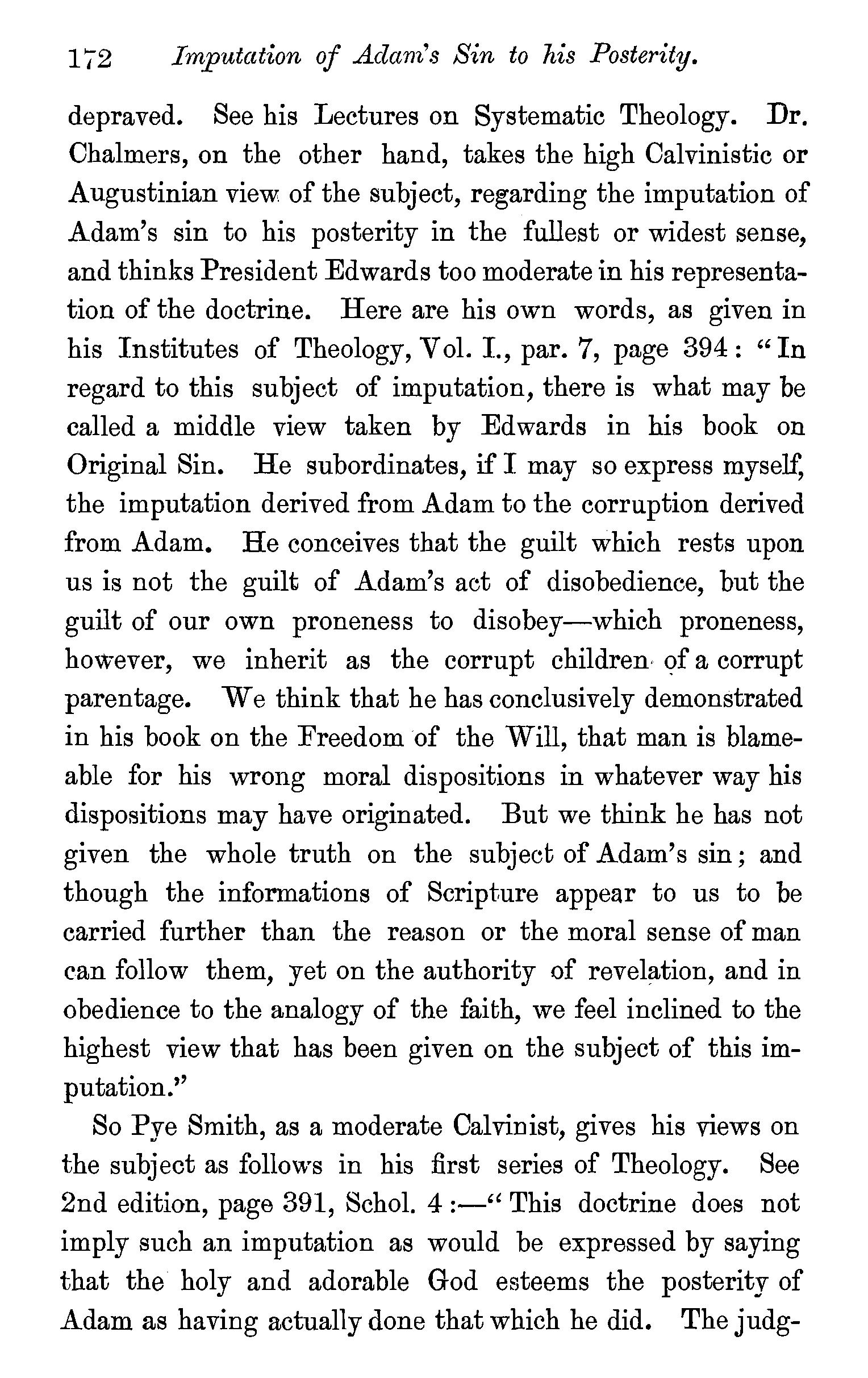
172 Imputation of Aclam's Sin to his Posterity.
depraved. See his Lectures on Systematic Theology. Dr. Chalmers, on the other hand, takes the high Calvinistic or Augustinian view of the subject, regarding the imputation of Adam's sin to his posterity in the fullest or widest sense, and thinks President Edwards too moderate in his representation of the doctrine. Here are his own words, as given in his Institutes of Theology, Vol. I., par. 7, page 394: "In regard to this subject of imputation, there is what may be called a middle view taken by Ed wards in his book on Original Sin. He subordinates, if I may so express myself, the imputation derived from Adam to the corruption derived from Adam. He conceives that the guilt which rests upon us is not the guilt of Adam's act of disobedience, but the guilt of our own proneness to disobey-which proneness, however, we inherit as the corrupt children, 1?f a corrupt parentage. We think that he has conclusively demonstrated in his book on the Freedom of the Will, that man is blameable for his wrong moral dispositions in whatever way his dispositions may have originated. But we think he has not given the whole truth on the subject of Adam's sin; and though the informations of Scripture appear to us to be carried further than the reason or the moral sense of man can follow them, yet on the authority of revelation, and in obedience to the analogy of the faith, we feel inclined to the highest view that has been given on the subject of this imputation.''
So Pye Smith, as a moderate Calvinist, gives his views on the subject as follows in his first series of Theology. See 2nd edition, page 391, Schol. 4 :-" This doctrine does not imply such an imputation as would be expressed by saying that the holy and adorable God esteems the posterity of Adam as having actually done that which he did. The judg-
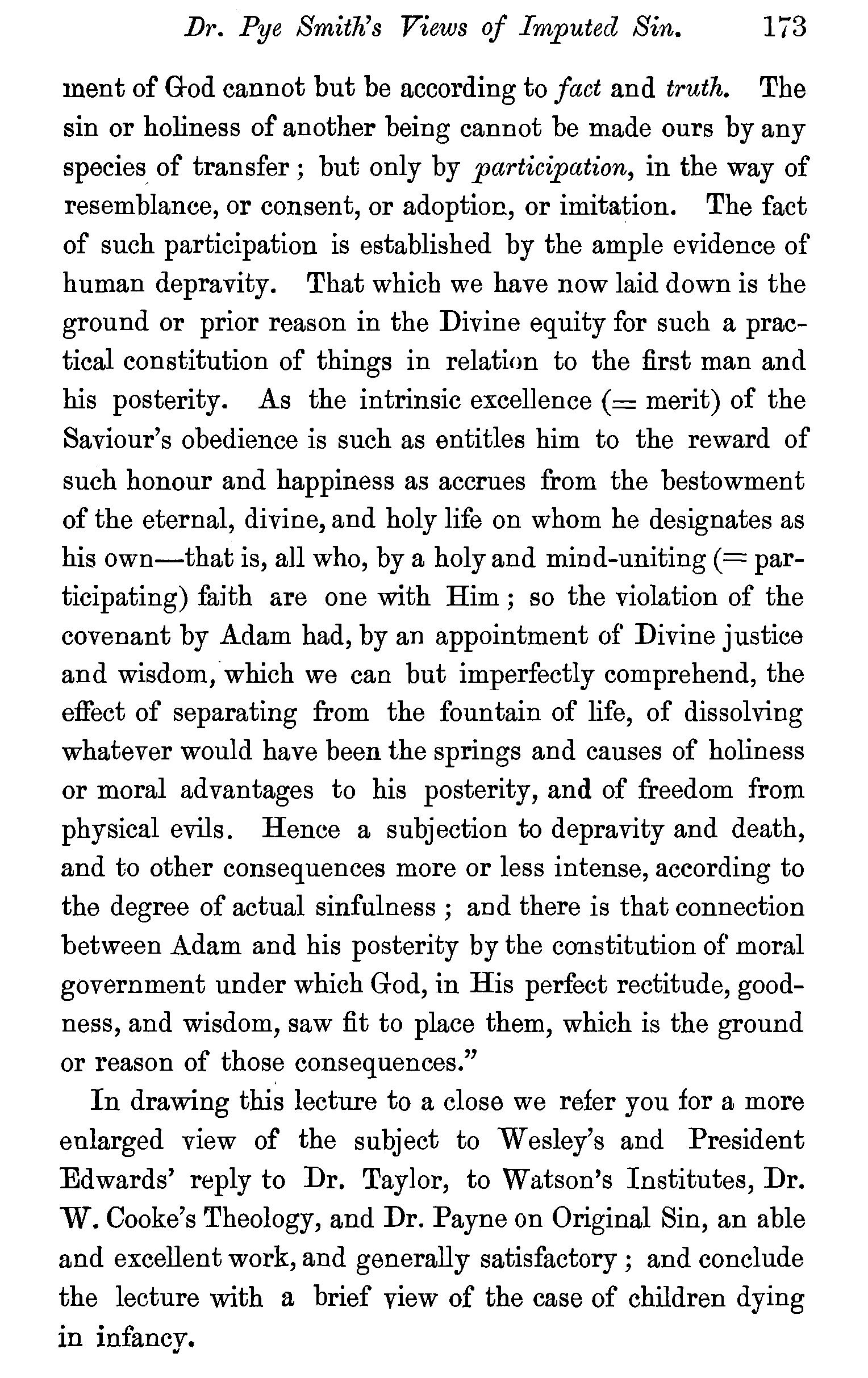
ment of God cannot but be according to fact and truth. The sin or holiness of another being cannot be made ours by any species of transfer; but only by participation, in the way of resemblance, or consent, or adoption, or imitation. The fact of such participation is established by the ample evidence of human depravity. That which we have now laid down is the ground or prior reason in the Divine equity for such a practical constitution of things in relation to the first man and his posterity. As the intrinsic excellence (= merit) of the Saviour's obedience is such as entitles him to the reward of such honour and happiness as accrues from the bestowment of the eternal, divine, and holy life on whom he designates as his own-that is, aU who, by a holy and mind-uniting(= participating) faith are one with Him ; so the violation of the covenant by Adam had, by an appointment of Divine justice and wisdom, which we can but imperfectly comprehend, the effect of separating from the fountain of life, of dissolving whatever would have been the springs and causes of holiness or moral advantages to his posterity, and of freedom from physical evils. Hence a subjection to depravity and death, and to other consequences more or less intense, according to the degree of actual sinfulness ; and there is that connection between Adam and his posterity by the constitution of moral government under which God, in His perfect rectitude, goodness, and wisdom, saw fit to place them, which is the ground or reason of those consequences."
In drawing this lecture to a close we refer you for a more enlarged view of the subject to Wesley's and President Edwards' reply to Dr. Taylor, to Watson's Institutes, Dr. W. Cooke's Theology, and Dr. Payne on Original Sin, an able and excellent work, and generally satisfactory ; and conclude the lecture with a brief view of the case of children dying in infancy.

From the effects of Adam's sin upon his posterity, as, already shown, it appears that children are so far affected by it as to be born with a nature prone to evil, and liable to suffering and death. Hence their need of a Saviour, and of the renewing influence of the Holy Spirit, to fit them for the society and blessedness of Heaven. But that children dyinis without having committed actual sin perish everlastingly for the sin of Adam is. nowhere taught in the Bible, however it may have disfigured and disgraced certain creeds. The con. trary is apparent from the explicit teaching of Holy Writ. In Rom. v., 18 the apostle says:-" As by the offence of one judgment came upon all men to condemnation ; even so by the righteousness of one the free gift came upon all men unto justification of life.'' Here the benefits of the merits of Christ are represented as being as extensive a::1the effects of the Fall; all men having been i11jured by the first Adam, all men are benefited by the second Adam. And, as Mr. Watson remarks : " Whatever, therefore, that benefit may be, all children dying in infancy must partake of it, or there would be a large portion of the human race upon whom' the profits,' the effects of 'the righteousness of one,' did not ~ome, which is contrary to the apostle's words." Hence the sweet and encouraging words of the Saviour-" Suffer the little children to come unto me, and forbid them not ; for of such is the kingdom of God.'' Mark. x., 14. Mysterious as the sufferings and death of infants may now be, they will be more than recompensed in the world of blessedness and glory to which they will be admitted through their Redeemer. The eternal salvation of all who die in their infancy is an important and cheering consideration, as probably the half of mankind die ere they attain to the knowledge of good and evil. The subject of the Fall, and the consequent depravity
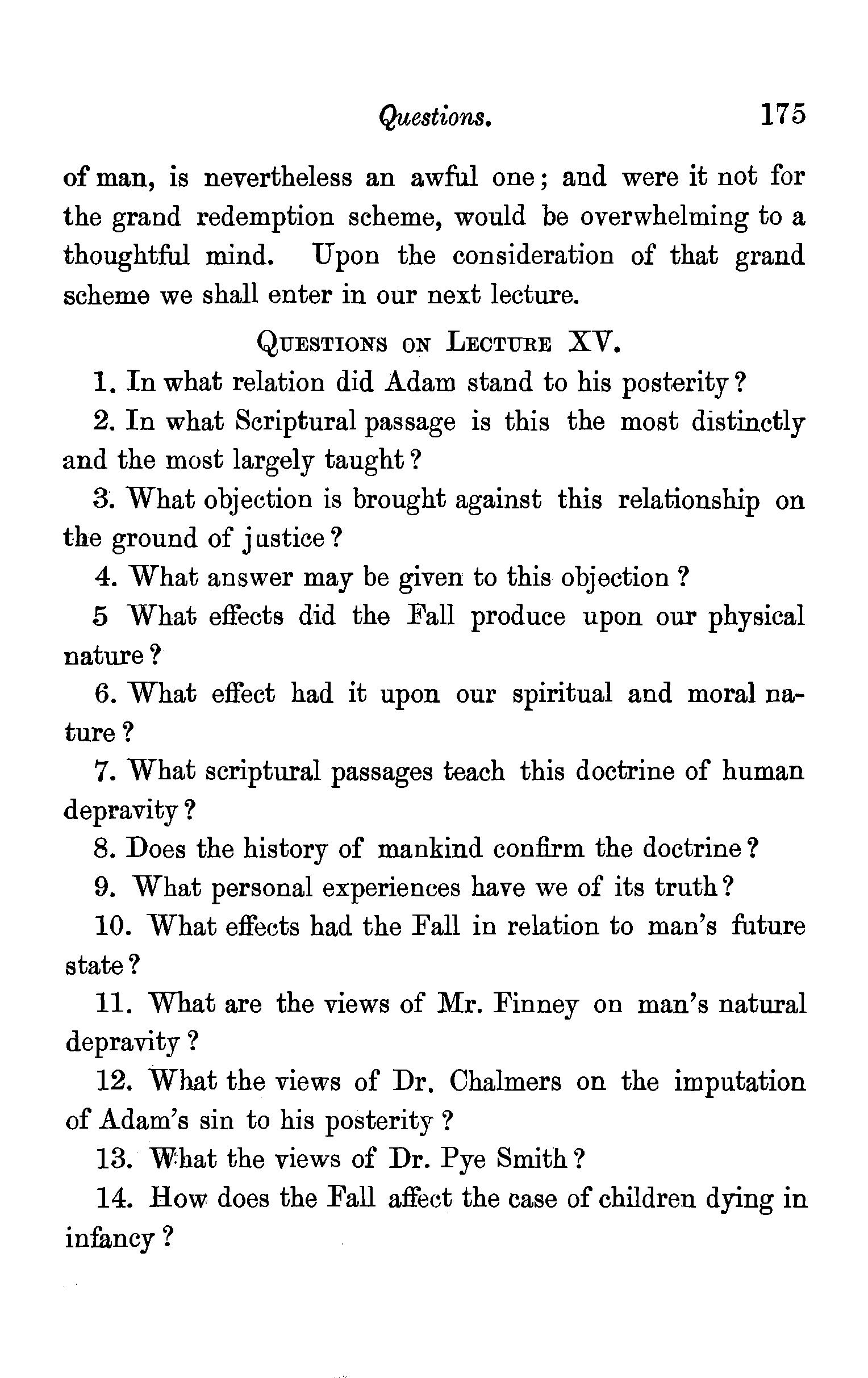
175 of man, is nevertheless an awful one; and were it not for the grand redemption scheme, would be overwhelming to a thoughtful mind. Upon the consideration of that grand scheme we shall enter in our next lecture.
1. In what relation did .Adam stand to his posterity?
2. In what Scriptural passage is this the most distinctly and the most largely taught?
R What objection is brought against this relationship on the ground of j ustice ?
4. What answer may be given to this objection ?
5 What effects did the Fall produce upon our physical nature?
6. What effect had it upon our spiritual and moral nature?
7. What scriptural passages teach this doctrine of human depravity?
8. Does the history of mankind confirm the doctrine ?
9. What personal experiences have we of its truth?
10. What effects had the Fall in relation to man's future state?
11. What are the views of Mr. Finney on man's natural depravity?
12. What the views of Dr. Chalmers on the imputation of .Adam's sin to his posterity?
13. What the views of Dr. Pye Smith ?
14. How does the Fall affect the case of children dying in infancy?
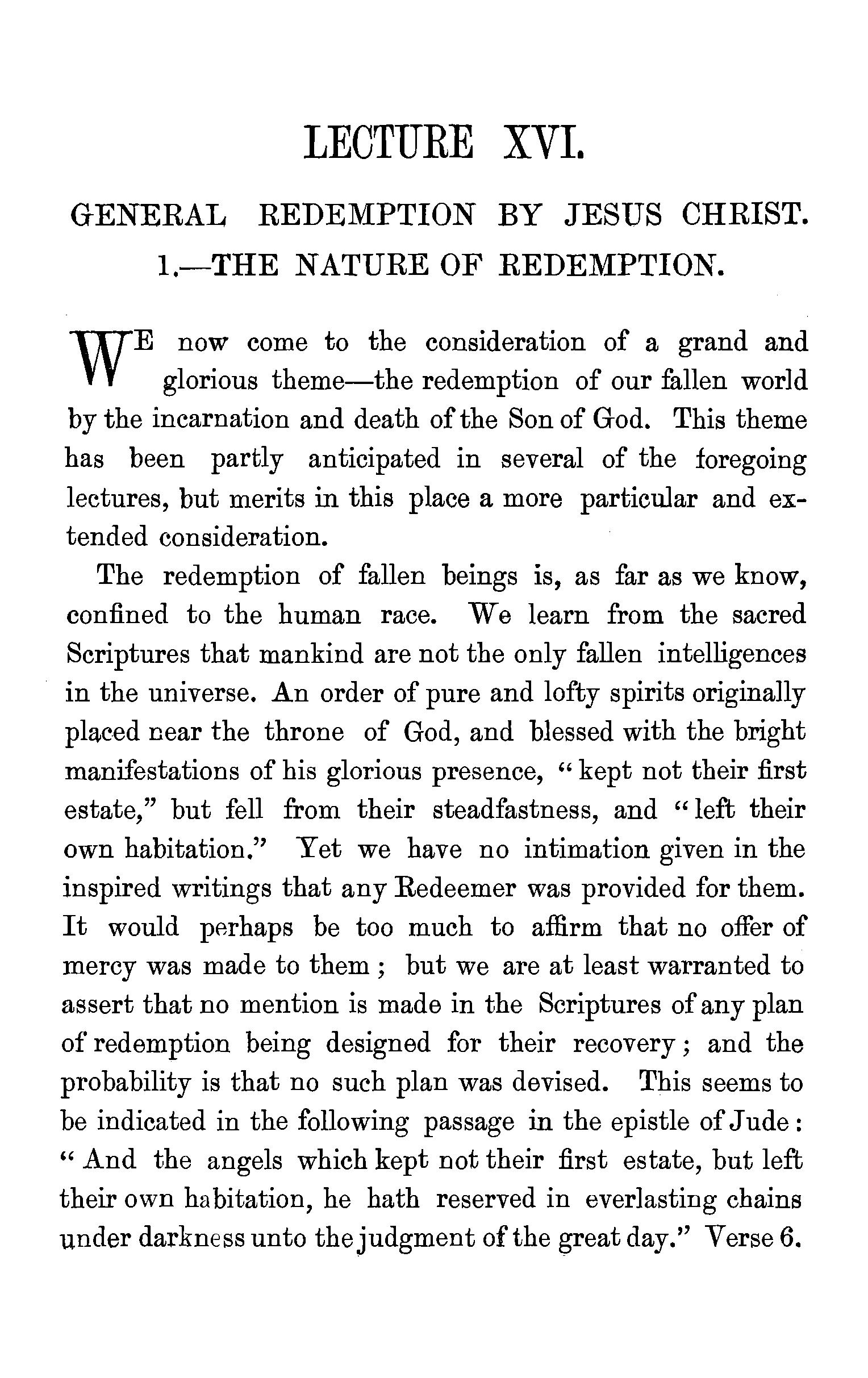
WE now come to the consideration of a grand and glorious theme-the redemption of our fallen world by the incarnation and death of the Son of God. This theme has been partly anticipated in several of the foregoing lectures, but merits in this place a more particular and extended consideration.
The redemption of fallen beings is, as far as we know, confined to the human race. We learn from the sacred Scriptures that mankind are not the only fallen intelligences in the universe. An order of pure and lofty spirits originally placed near the throne of God, and blessed with the bright manifestations of his glorious presence, " kept not their first estate," but fell from their steadfastness, and "left their own habitation." Yet we have no intimation given in the inspired writings that any Redeemer was provided for them. It would pArhaps be too much to affirm that no offer of mercy was made to them; but we are at least warranted to assert that no mention is made in the Scriptures of any plan of redemption being designed for their recovery ; and the probability is that no such plan was devised. This seems to be indicated in the following passage in the epistle of Jude: " And the angels which kept not their first estate, but left their own habitation, he hath reserved in everlasting chains under darkness unto the judgment of the great day.'' Verse 6.
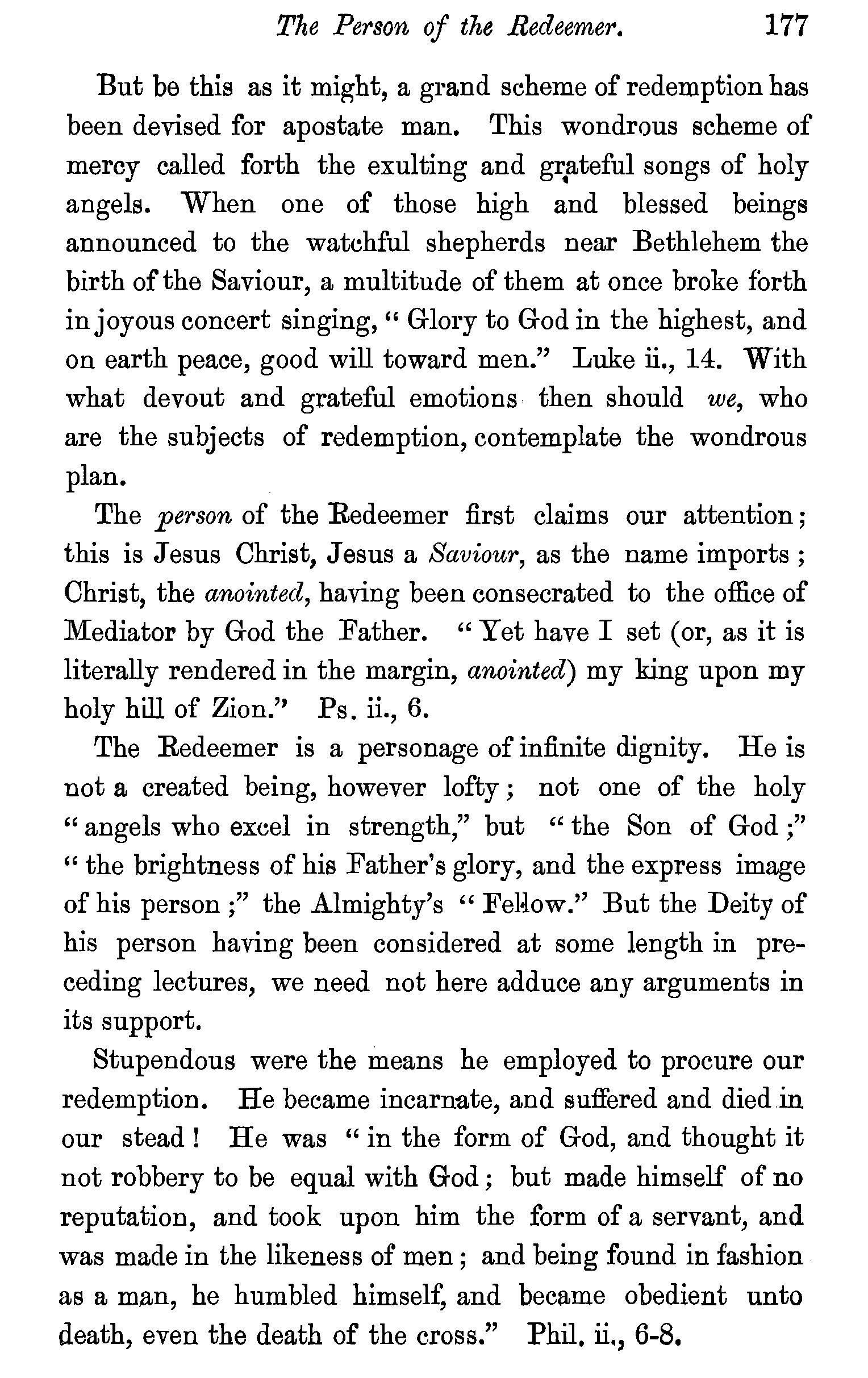
But be this as it might, a grand scheme of redemption has been devised for apostate man. This wondrous scheme of mercy called forth the exulting and gr1ateful songs of holy angels. When one of those high and blessed beings announced to the watchful shepherds near Bethlehem the birth of the Saviour, a multitude of them at once broke forth in joyous concert singing," Glory to God in the highest, and on earth peace, good will toward men." Luke ii., 14. With what devout and grateful emotions then should we, who are the subjects of redemption, contemplate the wondrous plan.
The person of the Redeemer first claims our attention ; this is Jesus Christ, Jesus a Saviour, as the name imports ; Christ, the anointed, having been consecrated to the officeof Mediator by God the Father. "Yet have I set (or, as it is literally rendered in the margin, anointed) my king upon my holy hill of Zion.'' Ps. ii., 6.
The Redeemer is a personage of infinite dignity. He is not a created being, however lofty ; not one of the holy " angels who excel in strength," but " the Son of God ;" "the brightness of his Father's glory, and the express image of his person;" the Almighty's "Felfow.'' But the Deity of his person having been considered at some length in preceding lectures, we need not here adduce any arguments in its support.
Stupendous were the means he employed to procure our redemption. He became incarnate, and suffered and died in our stead ! He was " in the form of God, and thought it not robbery to be equal with God; but made himself of no reputation, and took upon him the form of a servant, and was made in the likeness of men; and being found in fashion as am.an, he humbled himself, and became obedient unto death, even the death of the cross." Phil. ii., 6-8.
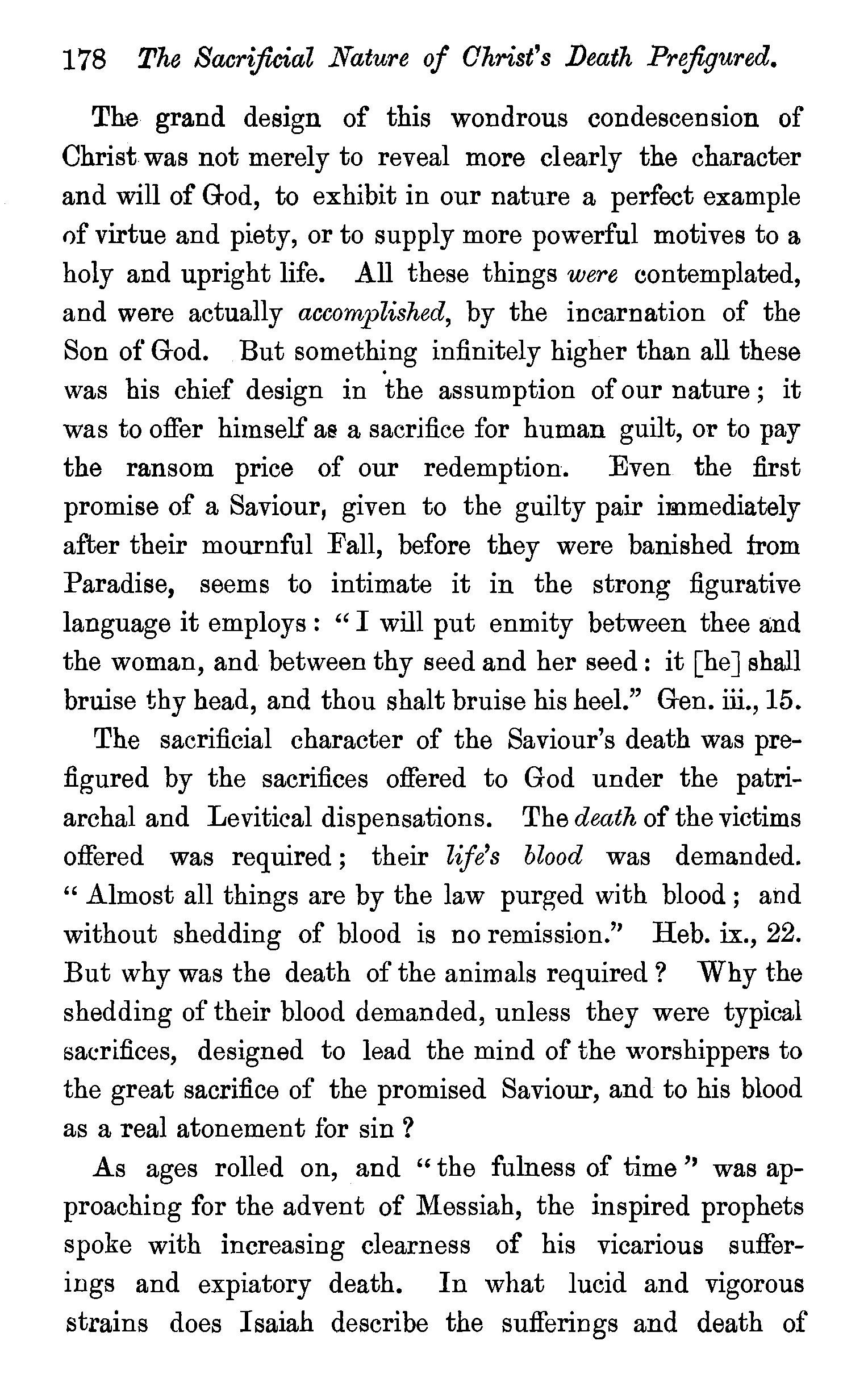
178 The Sacrificial Nature of Christ's Death Prefigured.
The grand design of this wondrous condescension of Christwas not merely to reveal more clearly the character and will of God, to exhibit in our nature a perfect example ()f virtue and piety, or to supply more powerful motives to a holy and upright life. All these things were contemplated, and were actually accomplished, by the incarnation of the Son of God. But something infinitely higher than all these was his chief design in the assumption of our nature ; it was to offer himself as a sacrifice for human guilt, or to pay the ransom price of our redemption. Even the first promise of a Saviour, given to the guilty pair immediately after their mournful Fall, before they were banished from Paradise, seems to intimate it in the strong :figurative language it employs : "I will put enmity between thee and the woman, and between thy seed and her seed : it [heJ shall bruise thy head, and thou shalt bruise his heel." Gen. iii., 15.
The sacrificial character of the Saviour's death was prefigured by the sacrifices offered to God under the patriarchal and Levitical dispensations. The death of the victims offered was required; their life's blood was demanded. " Almost all things are by the law purged with blood ; and without shedding of blood is no remission.'' Heb. ix., 22. But why was the death of the animals required? Why the shedding of their blood demanded, unless they were typical sacrifices, designed to lead the mind of the worshippers to the great sacrifice of the promised Saviour, and to his blood as a real atonement for sin ?
As ages rolled on, and " the fulness of time '' was approaching for the advent of Messiah, the inspired prophets spoke with increasing clearness of his vicarious sufferings and expiatory death. In what lucid and vigorous strains does Isaiah describe the sufferings and death of

Christ for human guilt? "Surely he hath borne our griefs, and carried our sorrows ; yet we did esteem him stricken, smitten of God, and afflicted. But he was wounded for our transgressions, he was bruised for our iniquities; the chastisement of our peace was upon him ; and with his stripes we are healed. All we like sheep have gone astray ; we have turned everyone to his own way; and the Lord hath laid on him the iniquity of us all." " It pleased the Lord to bruise him ; he hath put him to grief; when thou shalt make his soul an offering for sin, he shall see his seed, he shall prolong his days, and the pleasure of the Lord shall prosper in his hand. He shall see of the travail of his soul, and shall be satisfied; by his knowledge shall my righteous servant justify many; for he shall bear their iniquities.'' Ch. liii.
Coming to the New Testament, we find the same doctrine taught in language the most clear and definite. Our Lord himself declared that he came to " give his life a ransom for m_any;" and in the institution of the Last Supper, on giving the wine to his disciples. he said, " This is my blood of the New Testament, which is shed for many, for the remission of' sins." Matt xxvi., 28. The apostles were not less explicit: "Being justified freely by his grace, through the redemption that is in Christ Jesus : whom God hath aet forth to be a prcpitiation, through faith in his blood, to declare his righteousness for the remission of sins that are past, through the forbearance of God.'' Rom. iii., 24, 25. "For when we were yet without strength, in due time Christ died for the ungodly. For scarcely for a righteous man will one die; yet peradventure for a good man some would even dare to die. But God commendeth his love toward us, in that, while we were yet sinners, Christ died for us. Much more then, being justified by
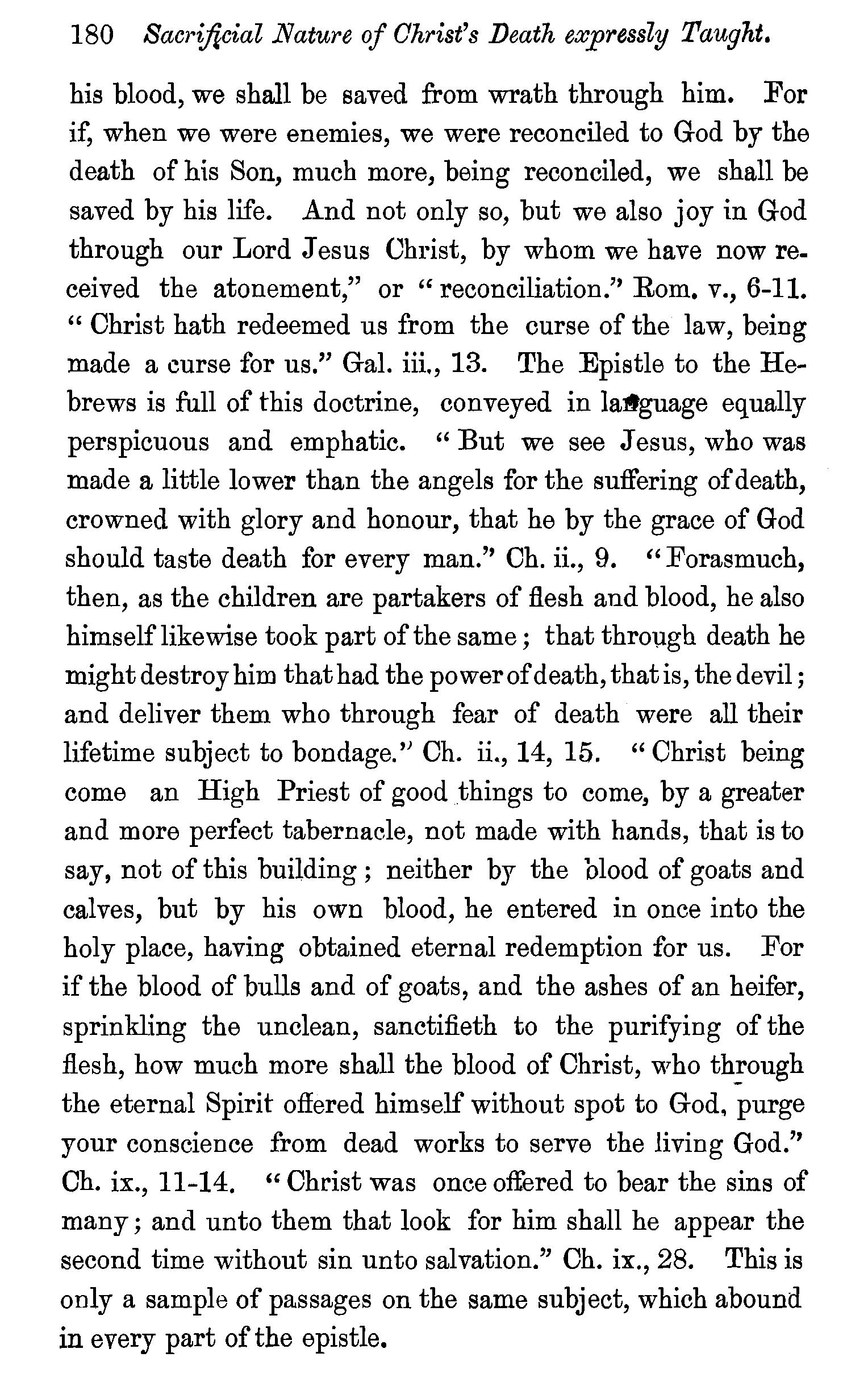
his blood, we shall be saved from wrath through him. For if, when we were enemies, we were reconciled to God by the death of his Son, much more, being reconciled, we shall be saved by his life. And not only so, but we also joy in God through our Lord Jesus Christ, by whom we have now re. ceived the atonement," or "reconciliation.'' Rom. v., 6-11. "Christ hath redeemed us from the curse of the law, being made a curse for us." Gal. iii., 13. The Epistle to the Hebrews is full of this doctrine, conveyed in la1tguage equally perspicuous and emphatic. " But we see Jesus, who was made a little lower than the angels for the suffering of death, crowned with glory and honour, that he by the grace of God should taste death for every man.'' Ch. ii., 9. "Forasmuch, then, as the children are partakers of flesh and blood, he also himself likewise took part of the same ; that through death he might destroy him that had the power of death, that is, the devil; and deliver them who through fear of death were all their lifetime subject to bondage. ' 1 Ch. ii., 14, 15. " Christ being come an High Priest of good things to come, by a greater and more perfect tabernacle, not made with hands, that is to say, not of this building; neither by the blood of goats and calves, but by his own blood, he entered in once into the holy place, having obtained eternal redemption for us. For if the blood of bulls and of goats, and the ashes of an heifer, sprinkling the unclean, sanctifieth to the purifying of the flesh, how much more shall the blood of Christ, who th:ough the eternal Spirit offered himself without spot to God, purge your conscience from dead works to serve the living God.'' Ch. ix., 11-14. "Christ was once offered to bear the sins of many; and unto them that look for him shall he appear the second time without sin unto salvation." Ch. ix., 28. This is only a sample of passages on the same subject, which abound in every part of the epistle.
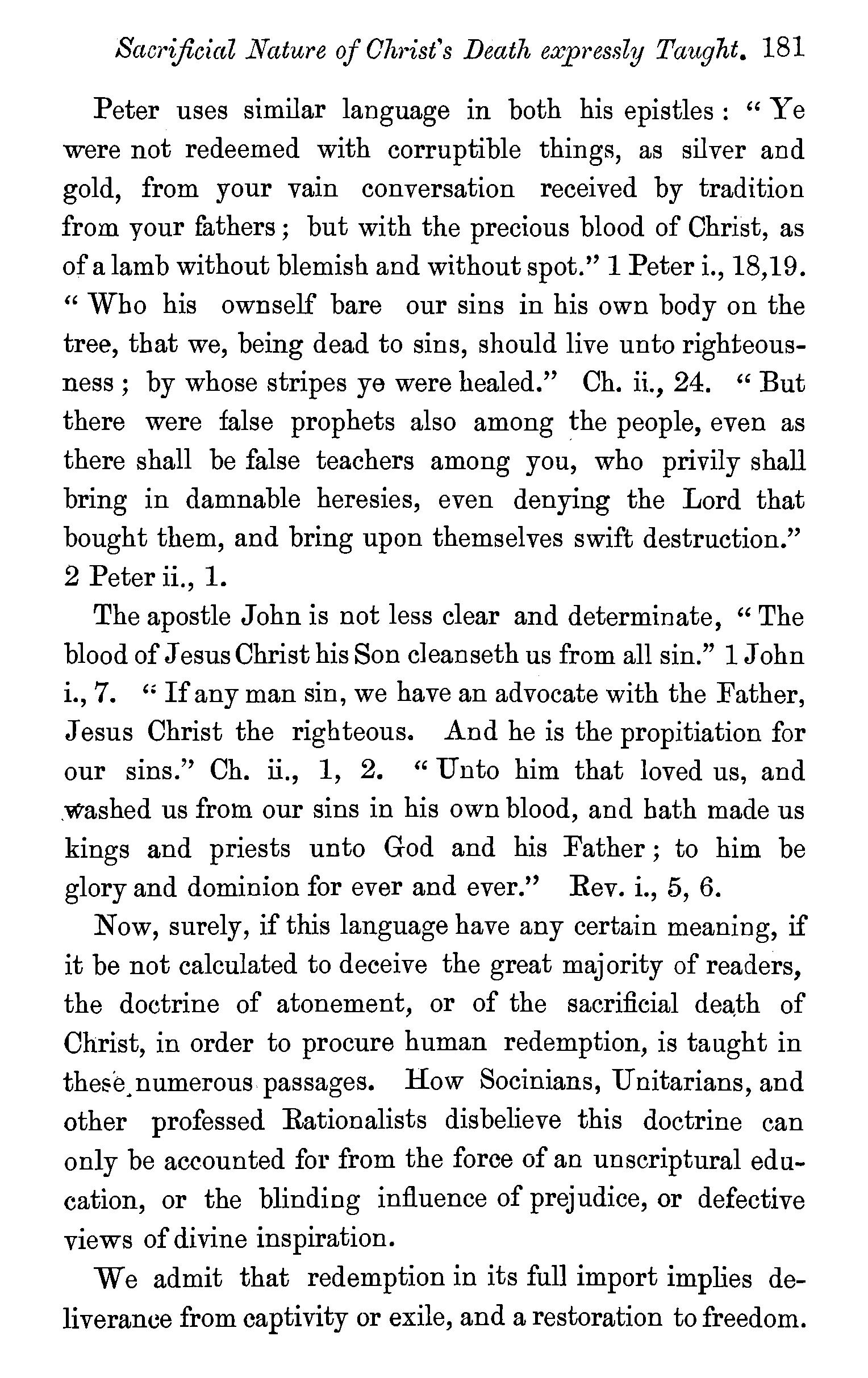
Peter uses similar language in both his epistles : " Ye were not redeemed with corruptible things, as silver and gold, from your vain conversation received by tradition from your fathers; but with the precious blood of Christ, as of a lamb without blemish and without spot." 1 Peter i., 18,19. "Who his ownself bare our sins in his own body on the tree, that we, being dead to sins, should live unto righteousness; by whose stripes ye were healed." Ch. ii., 24. "But there were false prophets also among the people, even as there shall be false teachers among you, who privily shall bring in damnable heresies, even denying the Lord that bought them, and bring upon themselves swift destruction." 2 Peter ii., 1.
The apostle John is not less clear and determinate, "The blood of Jesus Christ his Son cleanseth us from all sin." 1 John i., 7. '" If any man sin, we have an advocate with the Father, Jesus Christ the righteous. And he is the propitiation for our sins.'' Ch. ii., 1, 2. " Unto him that loved us, and :washed us from our sins in his own blood, and hath made us kings and priests unto God and his Father ; to him be glory and dominion for ever and ever." Rev. i., 5, 6.
Now, surely, if this language have any certain meaning, if it be not calculated to deceive the great majority of readers, the doctrine of atonement, or of the sacrificial dea_th of Christ, in order to procure human redemption, is taught in the~e.numerous passages. How Socinians, Unitarians, and other professed Rationalists disbelieve this doctrine can only be accounted for from the force of an unscriptural education, or the blinding influence of prejudice, or defective views of divine inspiration.
We admit that redemption in its full import implies deliverance from captivity or exile, and a restoration to freedom.
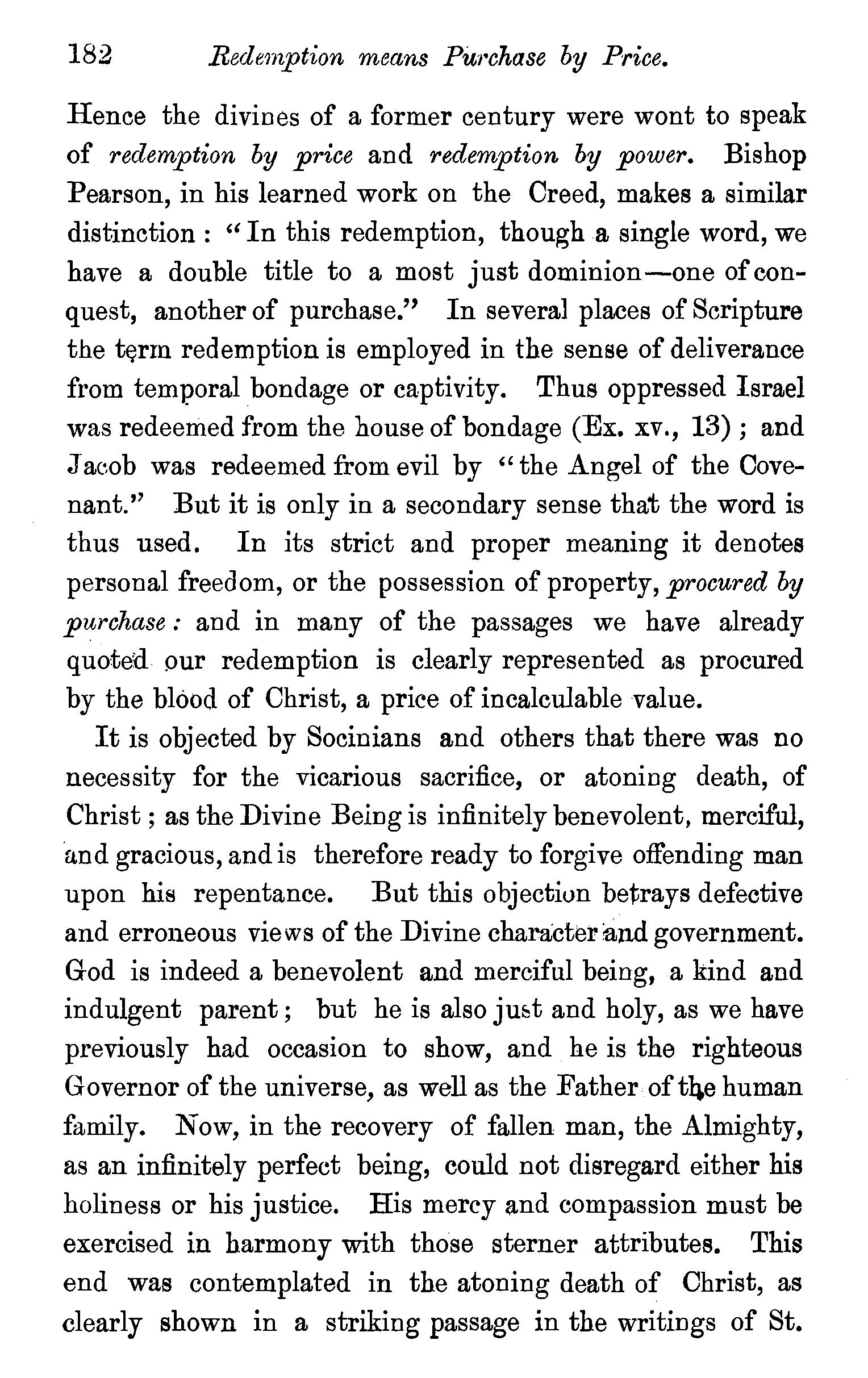
Hence the divines of a former century were wont to speak of redemption by price and redemption by power. Bishop Pearson, in his learned work on the Creed, makes a similar distinction : " In this redemption, though a single word, we have a double title to a most just dominion-one of conquest, another of purchase." In several places of Scripture the t~rm redemption is employed in the sense of deliverance from temporal bondage or captivity. Thus oppressed Israel was redeemed from the house of bondage (Ex. xv., 13); and Jacob was redeemed from evil by "the Angel of the Covenant.'' But it is only in a secondary sense that the word is thus used. In its strict and proper meaning it denotes personal freedom, or the possession of property, procured by purchase: and in many of the passages we have already quote'd our redemption is clearly represented as procured by the blood of Christ, a price of incalculable value. It is objected by Socinians and others that there was no necessity for the vicarious sacrifice, or atoning death, of Christ ; as the Divine Being is infinitely benevolent, merciful, and gracious, and is therefore ready to forgive offending man upon his repentance. But this objection betrays defective and erroneous views of the Divine character andgovernment. God is indeed a benevolent and merciful being, a kind and indulgent parent; but he is also jmt and holy, as we have previously had occasion to show, and he is the righteous Governor of the universe, as well as the Father of t}.e human family. Now, in the recovery of fallen man, the Almighty, as an infinitely perfect being, could not disregard either his holiness or his justice. His mercy and compassion must be exercised in harmony with those sterner attributes. This end was contemplated in the atoning death of Christ, as clearly shown in a striking passage in the writings of St.
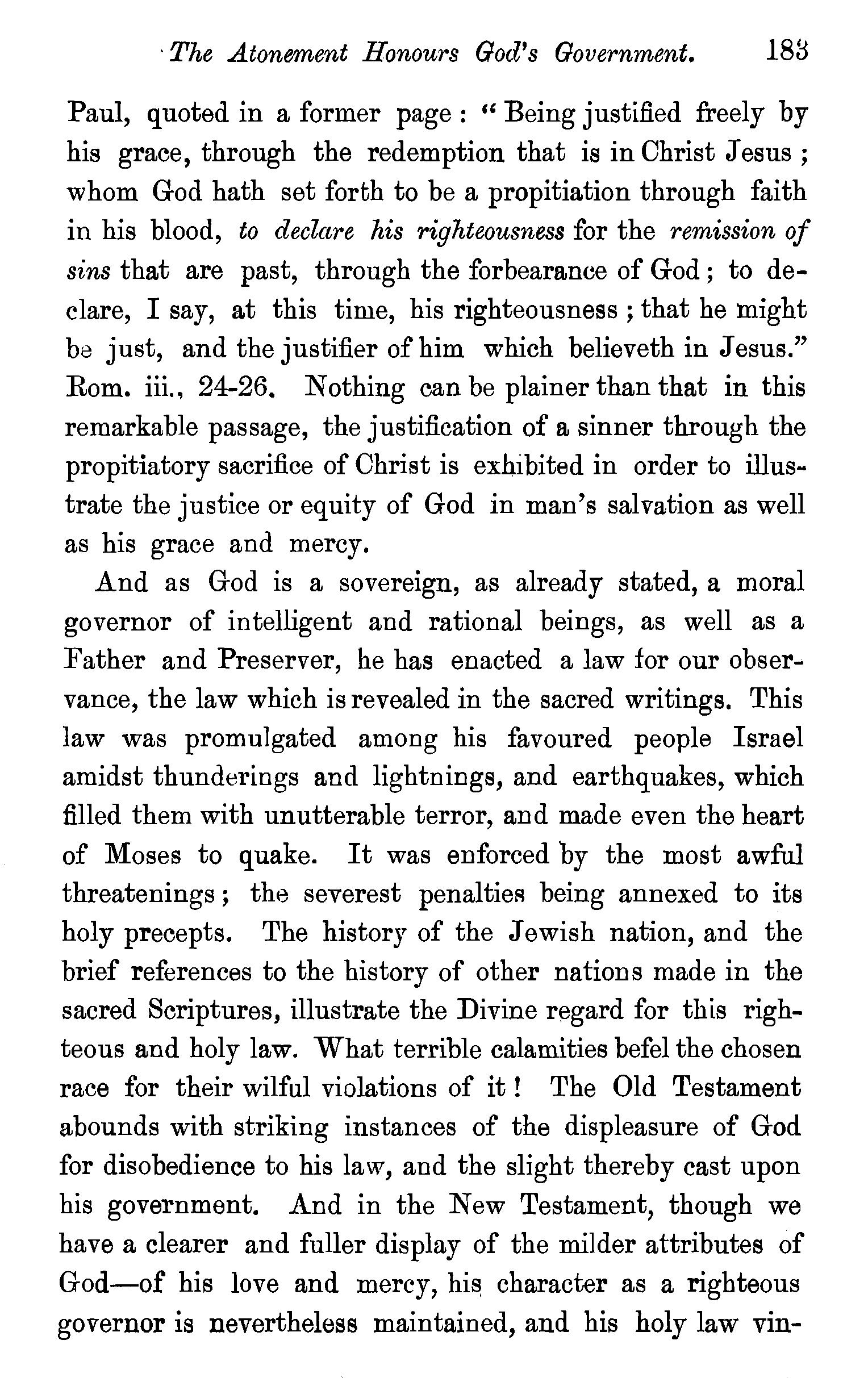
Paul, quoted in a former page: "Being justified freely by his grace, through the redemption that is in Christ Jesus ; whorn God hath set forth to be a propitiation through faith in his blood, to declctre his righteousness for the remission of sins that are past, through the forbearance of God; to declare, I say, at this time, his righteousness ; that he might be just, and the justifier of him which believeth in Jesus." Rom. iii., 24-26. Nothing can be plainer than that in this remarkable passage, the justification of a sinner through the propitiatory sacrifice of Christ is exhibited in order to illusw trate the justice or equity of God in man's salvation as well as his grace and mercy.
And as God is a sovereign, as already stated, a moral governor of intelligent and rational beings, as well as a Father and Preserver, he has enacted a law for our observance, the law which is revealed in the sacred writings. This law was promulgated among his favoured people Israel amidst thunderings and lightnings, and earthquakes, which filled them with unutterable terror, and made even the heart of Moses to quake. It was enforced by the most awful threatenings ; the severest penaltieA being annexed to its holy precepts. The history of the Jewish nation, and the brief references to the history of other nations made in the sacred Scriptures, illustrate the Divine regard for this righteous and holy law. What terrible calamities befel the chosen race for their wilful violations of it ! The Old Testament abounds with striking instances of the displeasure of God for disobedience to his law, and the slight thereby cast upon his government. And in the New Testament, though we have a clearer and fuller display of the milder attributes of God-of his love and mercy, hi~ character as a righteous governor is nevertheless maintained, and his holy law vin-
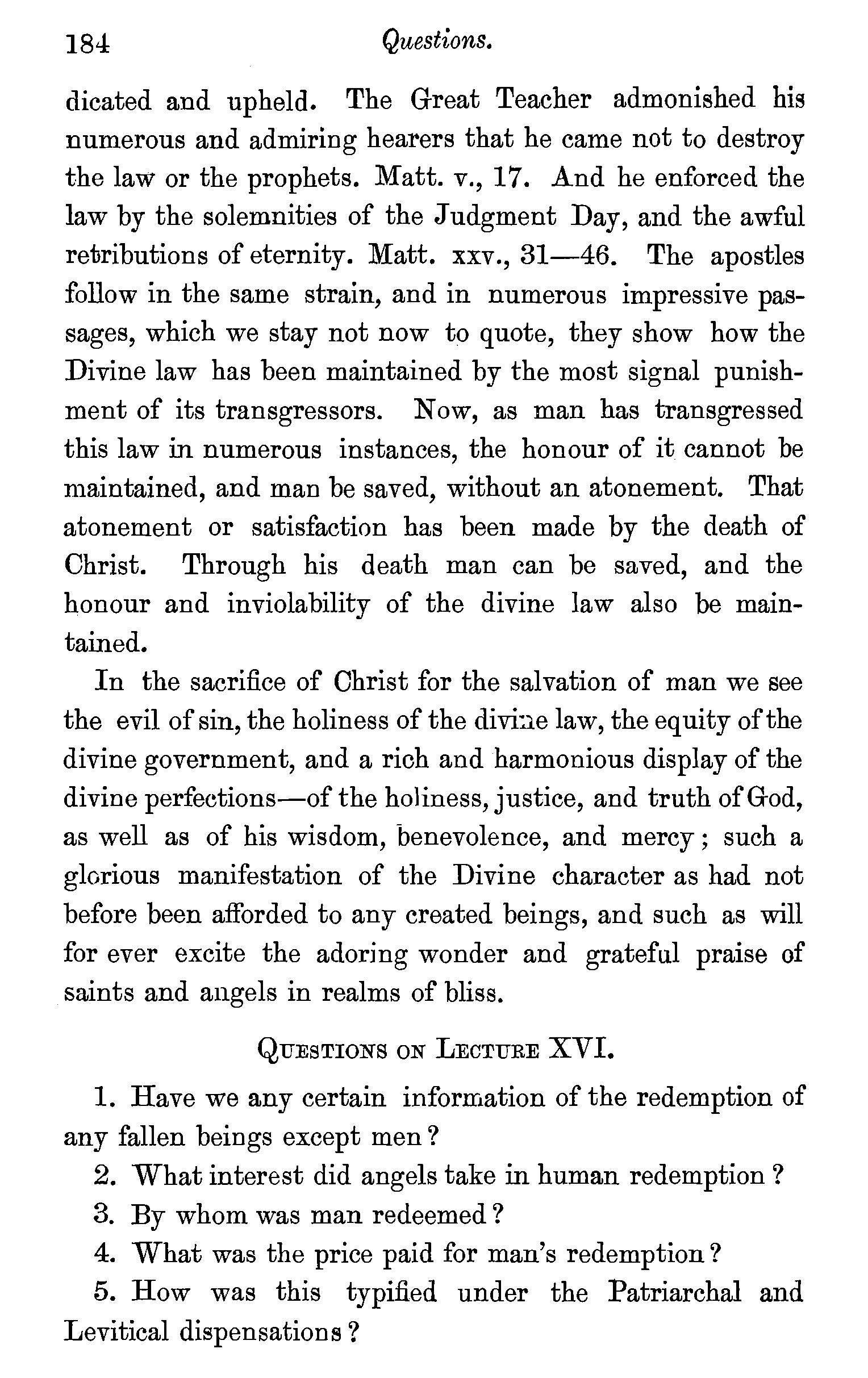
dicated and upheld. The Great Teacher admonished his numerous and admiring hearers that he came not to destroy the law or the prophets. Matt. v., 17. And he enforced the law by the solemnities of the Judgment Day, and the awful retributions of eternity. Matt. xxv., 31-46. The apostles follow in the same strain, and in numerous impressive passages, which we stay not now to quote, they show how the Divine law has been maintained by the most signal punishment of its transgressors. Now, as man has transgressed this law in numerous instances, the honour of it cannot be maintained, and man be saved, without an atonement. That atonement or satisfaction has been made by the death of Christ. Through his death man can be saved, and the honour and inviolability of the divine law also be maintained.
In the sacrifice of Christ for the salvation of man we see the evil of sin, the holiness of the divi::J.elaw, the equity of the divine government, and a rich and harmonious display of the divine perfections-of the holiness, justice, and truth of God, as well as of his wisdom, benevolence, and mercy ; such a glorious manifestation of the Divine character as had not before been afforded to any created beings, and such as will for ever excite the adoring wonder and grateful praise of saints and angels in realms of bliss.
1. Have we any certain information of the redemption of any fallen beings except men?
2. What interest did angels take in human redemption ?
3. By whom was man redeemed ?
4. What was the price paid for man's redemption?
5. How was this typified under the Patriarchal and Levitical dispensations?
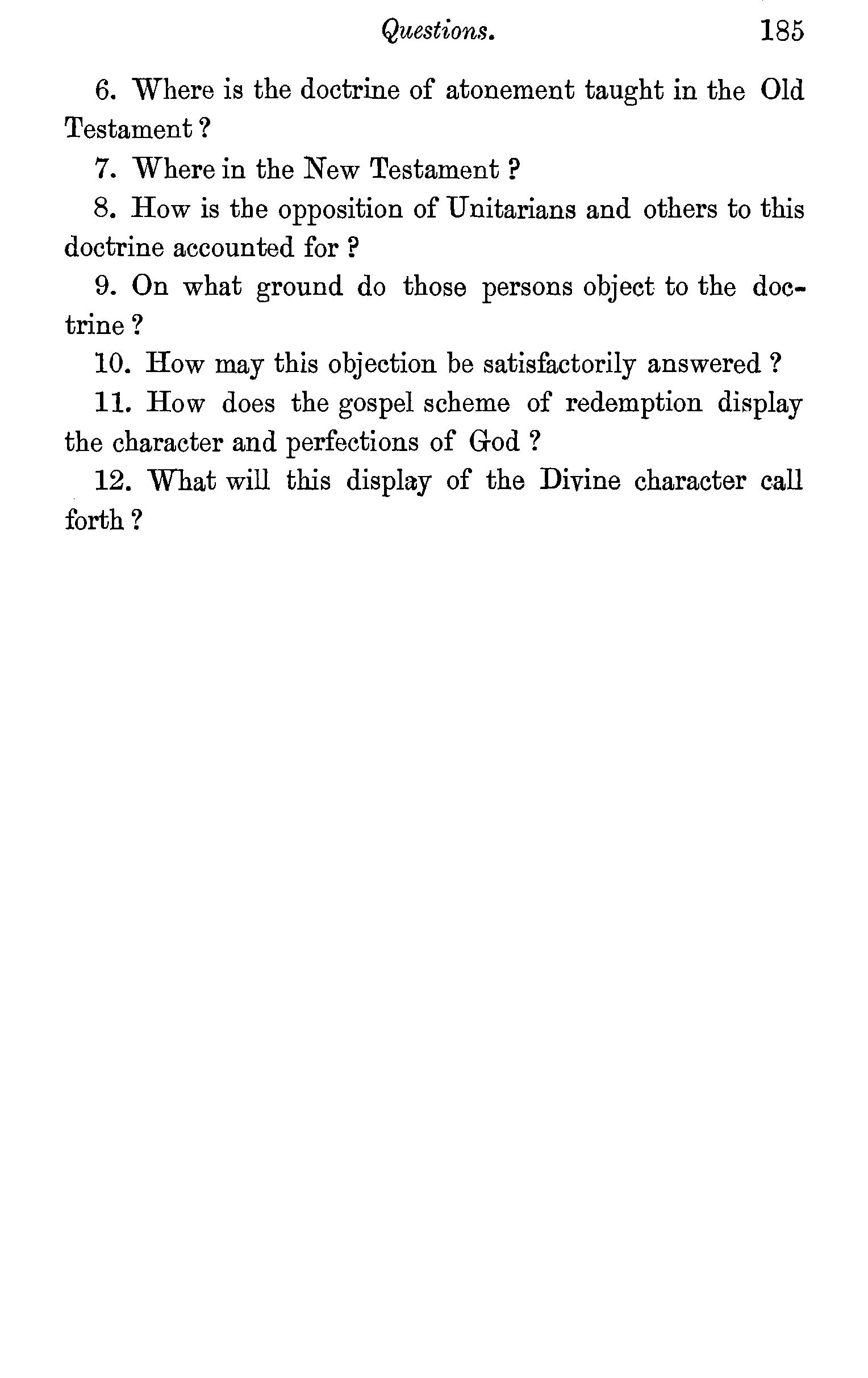
6. Where is the doctrine of atonement taught in the Old Testament?
7. Where in the New Testament?
8. How is the opposition of Unitarians and others to this doctrine accounted for?
9. On what ground do those persons object to the doctrine?
10. How may this objection be satisfactorily answered?
11. How does the gospel scheme of redemption display the character and perfections of God ?
12. What will this display of the Divine character call forth?
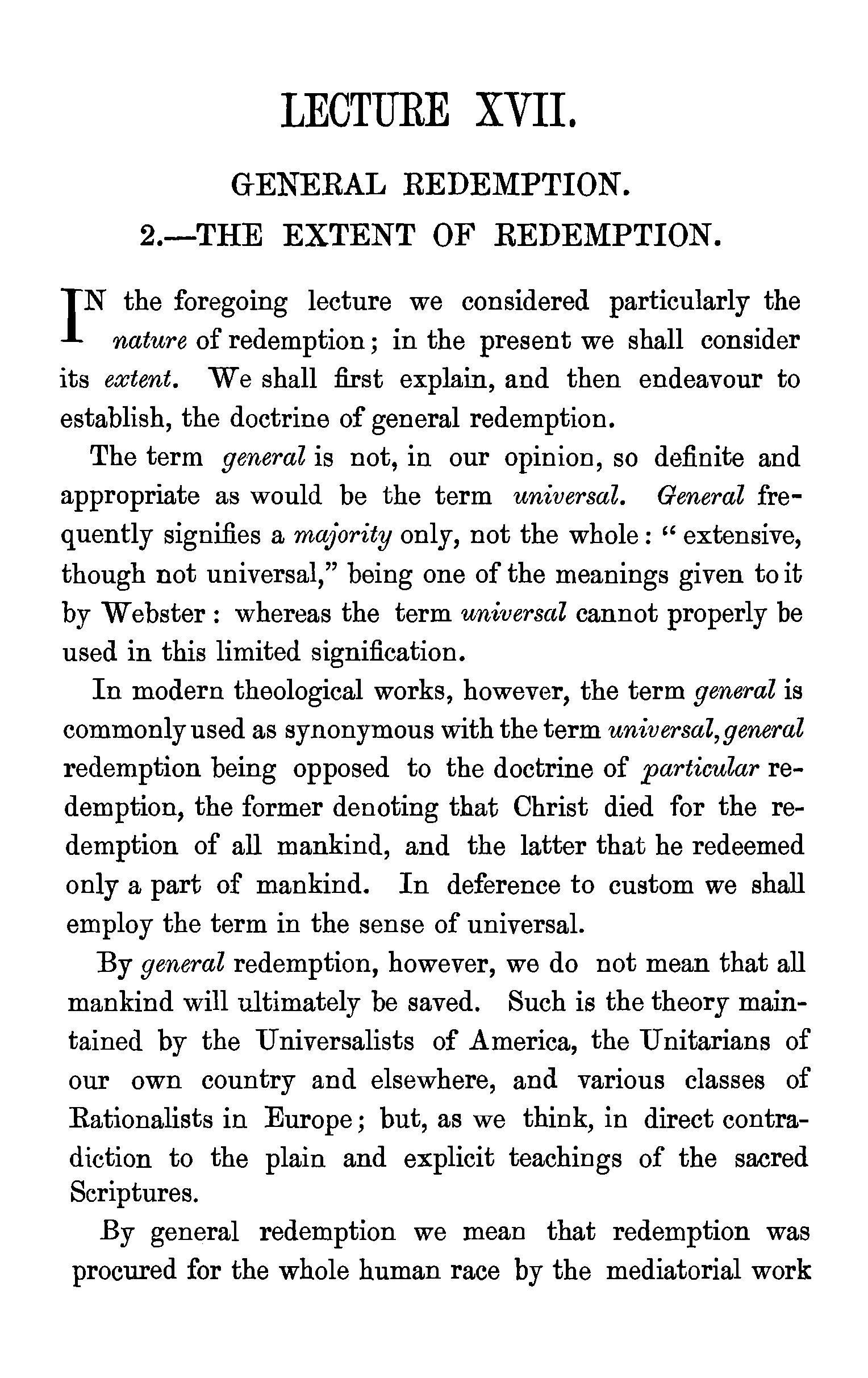
IN the foregoing lecture we considered particularly the nature of redemption; in the present we shall consider its extent. We shall first explain, and then endeavour to establish, the doctrine of general redemption.
The term general is not, in our opinion, so definite and appropriate as would be the term universal. General frequently signifies a majority only, not the whole: "extensive, though not universal," being one of the meanings given to it by Webster : whereas the term universal cannot properly be used in this limited signification.
In modern theological works, however, the term general is commonly used as synonymous with the term universal,general redemption being opposed to the doctrine of particular redemption, the former denoting that Christ died for the redemption of all mankind, and the latter that he redeemed only a part of mankind. In deference to custom we shall employ the term in the sense of universal.
By general redemption, however, we do not mean that all mankind will ultimately be saved. Such is the theory maintained by the Universalists of America, the Unitarians of our own country and elsewhere, and various classes of Rationalists in Europe; but, as we think, in direct contradiction to the plain and explicit teachings of the sacred Scriptures.
By general redemption we mean that redemption was procured for the whole human race by the mediatorial work

of Christ ; in other words, that Jesus Christ died for all mankind, not for a part only.
We shall now endeavour to establish this doctrine. Many wise, and learned, and good men are divided on the important question of the ~extent of the atonement. The controversy in its numerous ramifications is very extensive. But in our limited space we can only touch the main arguments on the subject. We shall eschew all merely metaphysical discussion, and confine ourselves to a few plain Scriptural proofs in favour of the universality of the atonement. 1. We begin by remarking that the holy Scriptures nowhere explicitly teach the doctrine of limited redemption, or that Jesus Ghrist died for ct part of mankind only. The advocates of the limitation theory have not shown that a single passage of this kind is anywhere to be found in the sacred writings. Passages innumerable are to be met with in the works of high Calvinistic divines, in which the doctrine of particular redemption is clearly taught, positively affirming that Jesus· died for only a part of mankind ; but no s~ch doctrine, we may affirm, is explicitly contained in any passage in the book of God.
2. We observe further that the doctrine of limited redemption is nowhere clearly implied in the Scriptures. Many passages, indeed, occur in which the death of Christ is mentioned without reference to the extent of its benefits ; in which, therefore, the universality of his atonement is not clearly stated. But the connection in these cases shews that this was not the design of the writer, that the nature of his death was the idea he meant to convey, or that he intended to regard it as an illustration of some other important truth. Thus Jesus himself says : "I lay down my life for the sheep : " therein his love to his people is the idea, not that
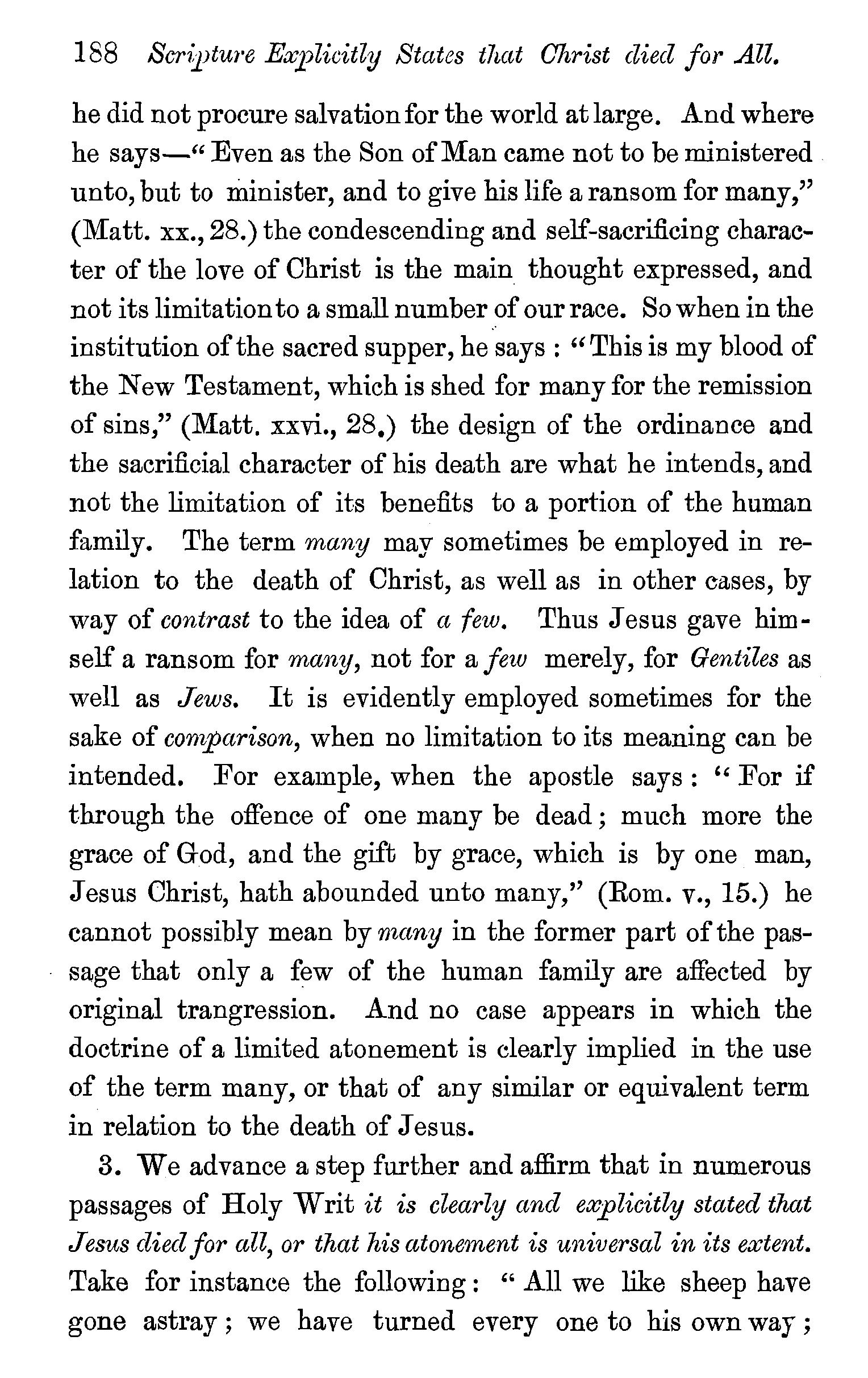
188 Scr/pture Explicitly States that Ghrist clieclfor All.
he did not procure salvation for the world at large. And where he says-" Even as the Son of Man came not to be ministered unto, but to :minister, and to give his life a ransom for many," (Matt. xx., 28.) the condescending and self-sacrificing character of the love of Christ is the main thought expressed, and not its limitation to a small number of our race. So when in the institution of the sacred supper, he says: "This is my blood of the New Testament, which is shed for many for the remission of sins," (Matt. xxvi., 28.) the design of the ordinance and the sacrificial character of his death are what he intends, and not the limitation of its benefits to a portion of the human family. The term many may sometimes be employed in relation to the death of Christ, as well as in other cases, by way of contrast to the idea of ct few. Thus Jesus gave himself a ransom for many, not for a few merely, for Gentiles as well as Jews. It is evidently employed sometimes for the sake of cornparison, when no limitation to its meaning can be intended. For example, when the apostle says : '' For if through the offence of one many be dead; much more the grace of God, and the gift by grace, which is by one man, Jesus Christ, hath abounded unto many,'' (Rom. v., 15.) he cannot possibly mean by many in the former part of the passage that only a few of the human family are affected by original trangression. And no case appears in which the doctrine of a limited atonement is clearly implied in the use of the term many, or that of any similar or equivalent term in relation to the death of Jesus.
3. We advance a step further and affirm that in numerous passages of Holy Writ it is clearly ancl explicitly stated that Jesus clieclfor all, or that his atonement is universal in its extent. Take for instance the following : '' All we like sheep have gone astray; we have turned every one to his own way;
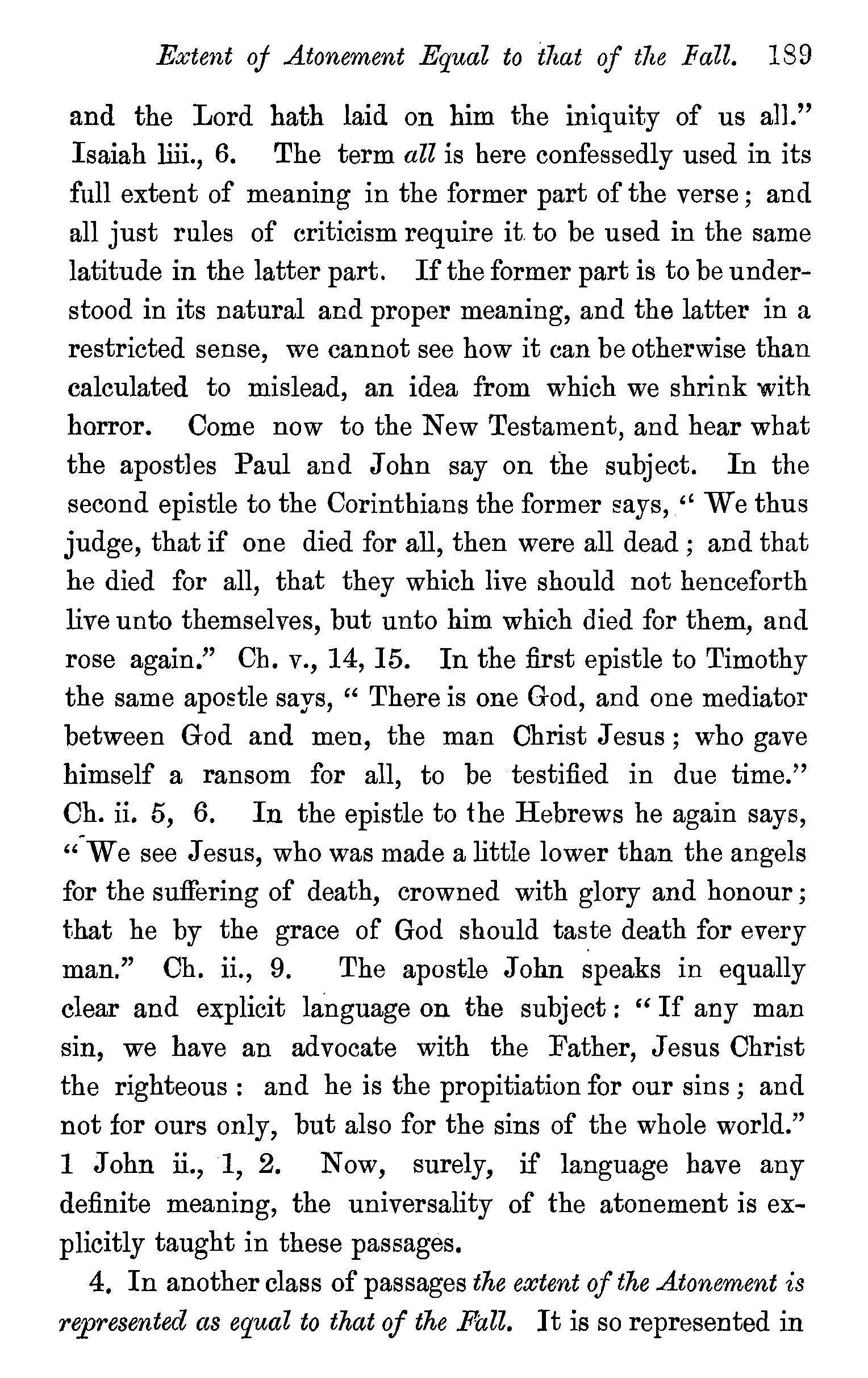
Extent of Atonement Equal to that of the Fall. 1S9 and the Lord hath laid on him the iniquity of us all."
Isaiah liii., 6. The term all is here confessedly used in its full extent of meaning in the former part of the verse ; and all just rules of criticism require it. to be used in the same latitude in the latter part. If the former part is to be understood in its natural and proper meaning, and the latter in a restricted sense, we cannot see how it can be otherwise than calculated to mislead, an idea from which we shrink with horror. Come now to the New Testament, and hear what the apostles Paul and John say on the subject. In the second epistle to the Corinthians the former mys, '' We thus judge, that if one died for all, then were all dead; and that he died for all, that they which live should not henceforth live unto themselves, but unto him which died for them, and rose again." Ch. v., 14, 15. In the first epistle to Timothy the same apoEtle says, " There is one God, and one mediator between God and men, the man Christ Jesus ; who gave himself a ransom for all, to be testified in due time."
Ch. ii. 5, 6. In the epistle to the Hebrews he again says, "·We see Jesus, who was made a little lower than the angels for the suffering of death, crowned with glory and honour ; that he by the grace of God should taste death for every man." Ch. ii., 9. The apostle John speaks in equally clear and e~plicit language on the subject: "If any man sin, we have an advocate with the Father, Jesus Christ the righteous : and he is the propitiation for our sins ; and not for ours only, but also for the sins of the whole world."
1 John ii., 1, 2. Now, surely, if language have any definite meaning, the universality of the atonement is explicitly taught in these passages, 4. In another class of passages the extent of the Atonement is represented cts equal to that of the Fall. It is so represented in
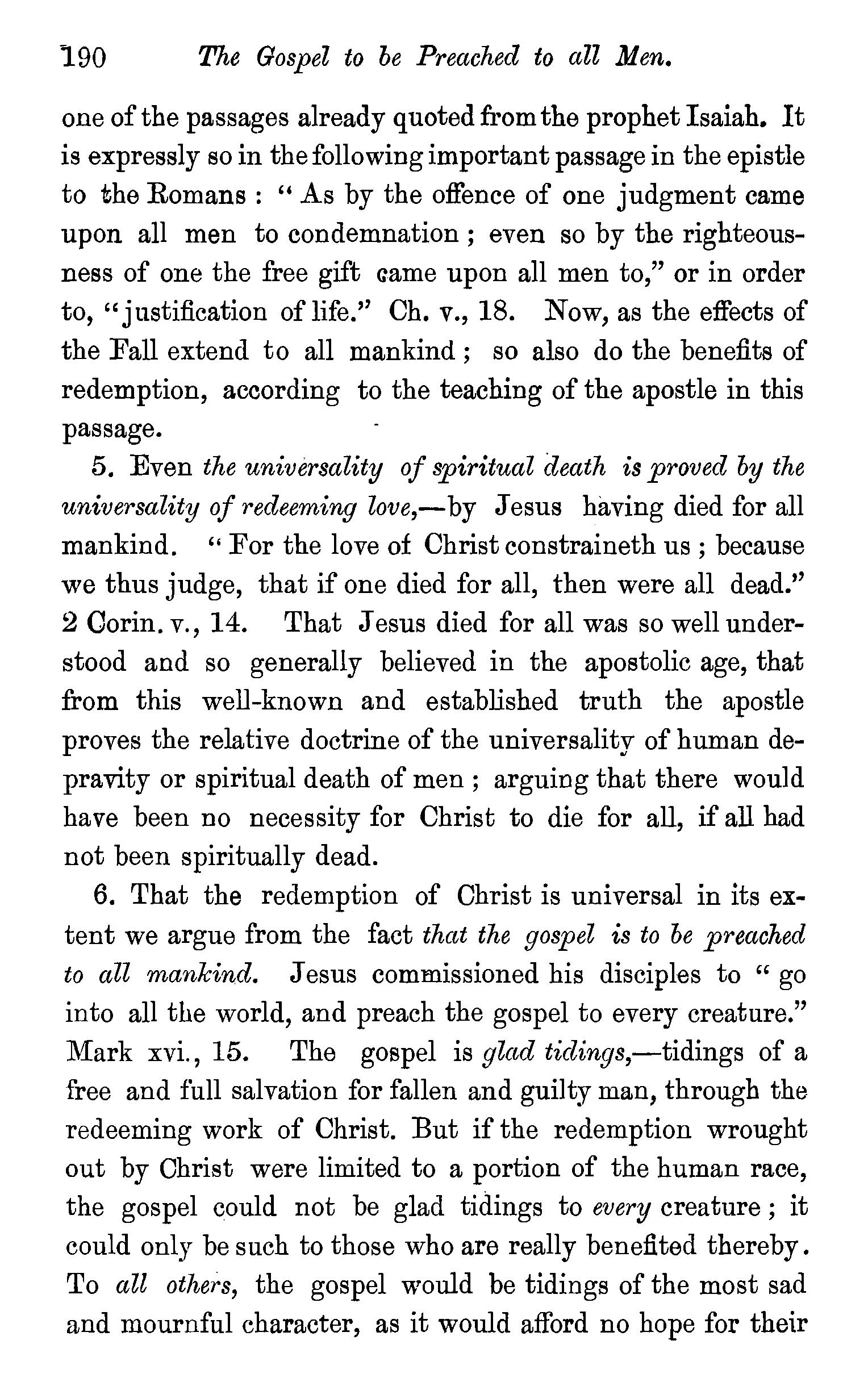
190 The Gospel to be Preached to all Men.
one of the passages already quoted from the prophet Isaiah. It is expressly so in the following important passage in the epistle to the Romans: "As by the offence of one judgment came upon all men to condemnation ; even so by the righteousness of one the free gift came upon all men to," or in order to, "justification of life.'' Ch. v ., 18. Now, as the effects of the Fall extend to all mankind ; so also do the benefits of redemption, according to the teaching of the apostle in this passage.
5. Even the universality of spiritual death is proved by the universality of redeeming love,-by Jesus having died for all mankind. '' For the love of Christ constraineth us; because we thus judge, that if one died for all, then were all dead.'' 2 Corin. v., 14. That Jesus died for all was so well understood and so generally believed in the apostolic age, that from this well-known and established truth the apostle proves the relative doctrine of the universality of human depravity or spiritual death of men ; arguing that there would have been no necessity for Christ to die for all, if all had not been spiritually dead.
6. That the redemption of Christ is universal in its extent we argue from the fact thctt the gospel is to be preached to all mankind. Jesus commissioned his disciples to " go into all the world, and preach the gospel to every creature." Mark xvi., 15. The gospel is glad tidings,-tidings of a free and full salvation for fallen and guilty man, through the redeeming work of Christ. But if the redemption wrought out by Christ were limited to a portion of the human race, the gospel could not be glad tidings to every creature; it could only be such to those who are really benefited thereby. To all others, the gospel would be tidings of the most sad and mournful character, as it would afford no hope for their
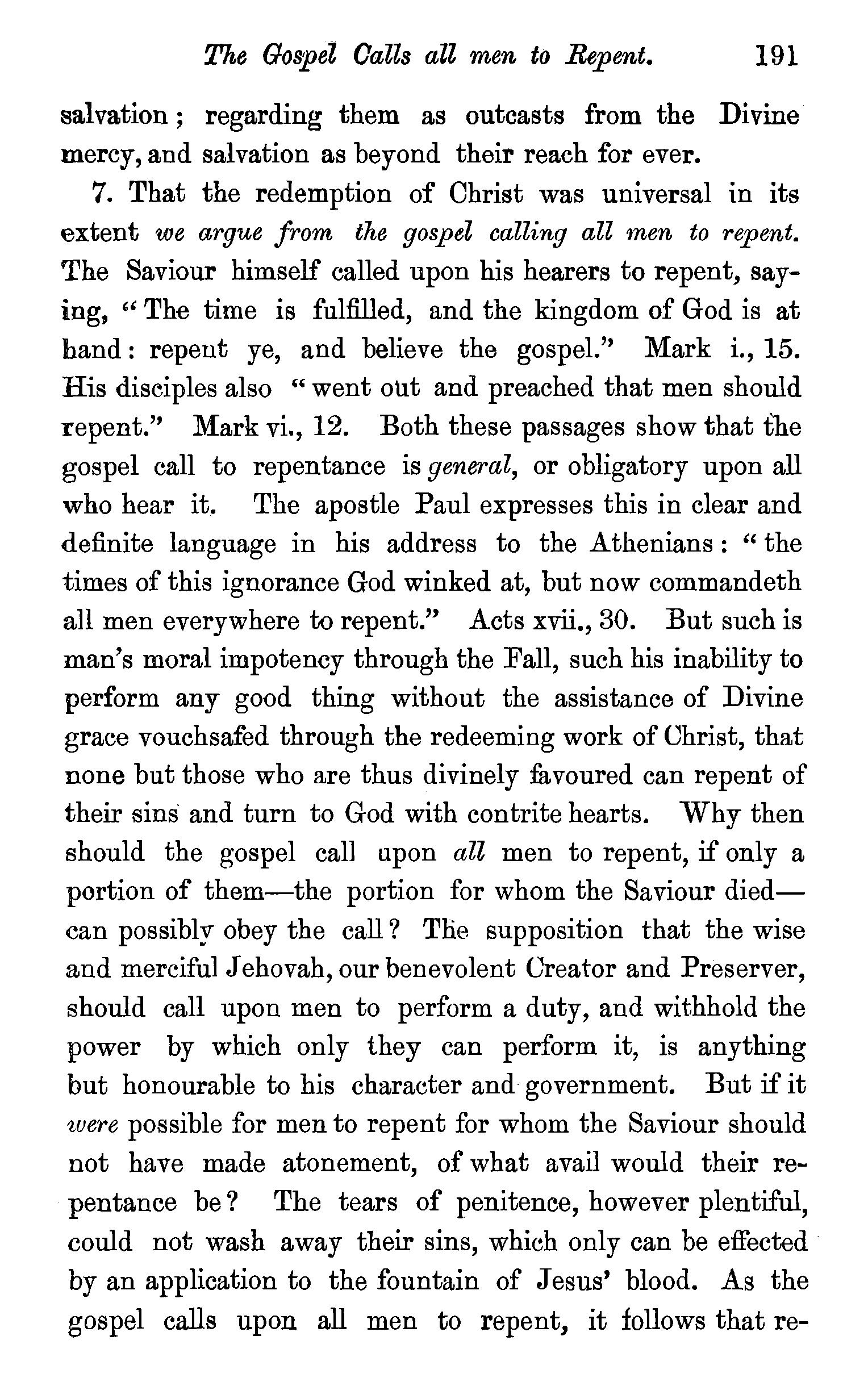
salvation; regarding them as outcasts from the Divine mercy, and salvation as beyond their reach for ever.
7. That the redemption of Christ was universal in its extent we argue from the gospel calling all men to repent. The Saviour himself called upon his hearers to repent, saying, " The time is fulfilled, and the kingdom of God is at hand : repent ye, and believe the gospel.'' Mark i., 15. His disciples also "went out and preached that men should repent." Mark vi., 12. Both these passages show that t'b.e gospel call to repentance is general, or obligatory upon all who hear it. The apostle Paul expresses this in clear and definite language in his address to the Athenians : " the times of this ignorance God winked at, but now commandeth all men everywhere to repent." Acts xvii., 30. But such is man's moral impotency through the Fall, such his inability to perform any good thing without the assistance of Divine grace vouchsafed through the redeeming work of Uhrist, that none but those who are thus divinely favoured can repent of their sins and turn to God with contrite hearts. Why then should the gospel call upon all men to repent, if only a portion of them-the portion for whom the Saviour diedcan possibly obey the call? Tlie supposition that the wise and merciful Jehovah, our benevolent Ureator and Preserver, should call upon men to perform a duty, and withhold the power by which only they can perform it, is anything but honourable to his character and government. But if it were possible for men to repent for whom the Saviour should not have made atonement, of what avail would their repentance be? The tears of penitence, however plentiful, could not wash away their sins, which only can be effected by an application to the fountain of Jesus' blood. As the gospel calls upon all men to repent, it follows that re-
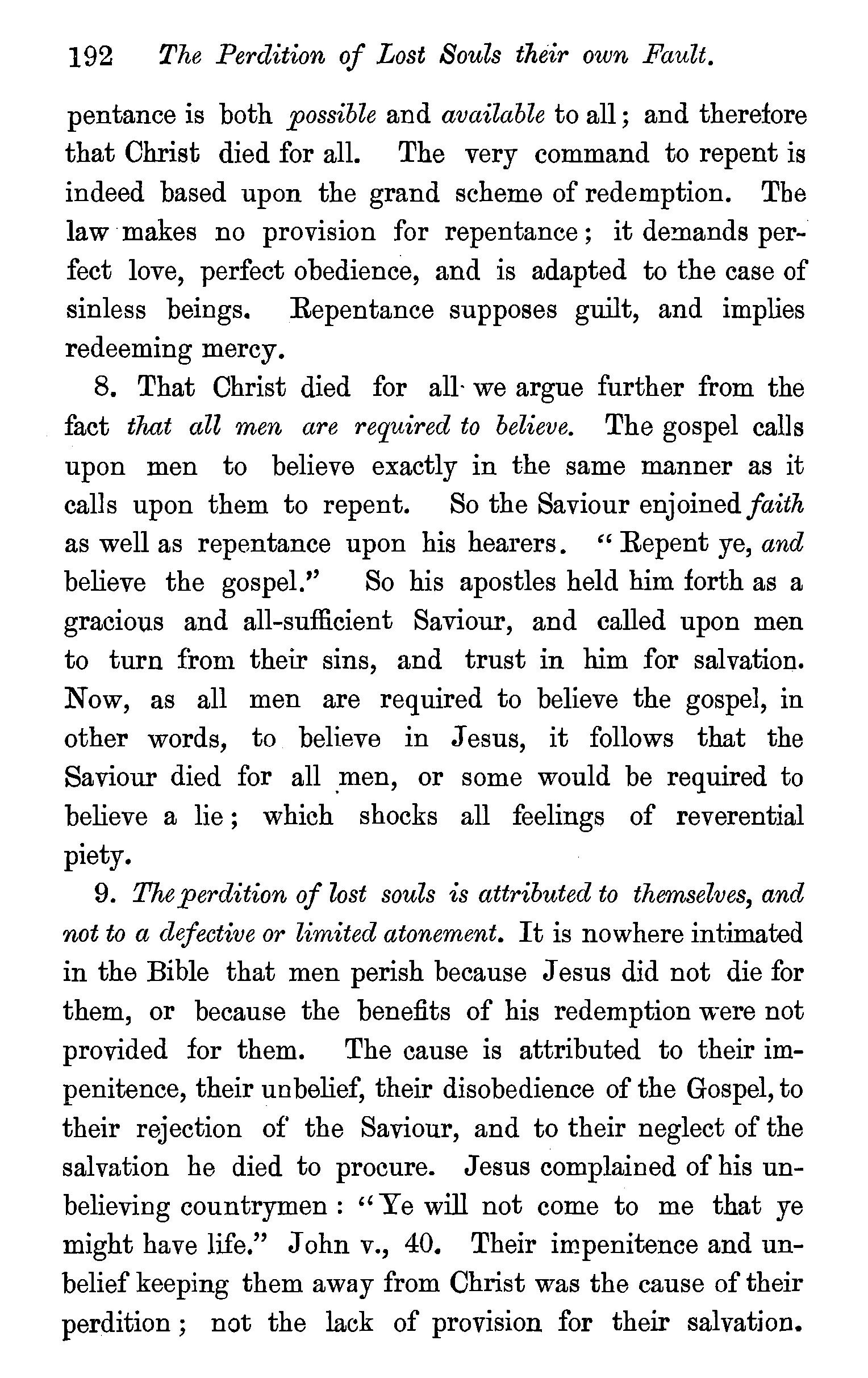
192 The Perdition of Lost Souls their own Fault.
pentance is both possible and available to all; and therefore that Christ died for all. The very command to repent is indeed based upon the grand scheme of redemption. The law makes no provision for repentance ; it de!nands perfect love, perfect obedience, and is adapted to the case of sinless beings. Repentance supposes guilt, and implies redeeming mercy.
8. That Christ died for all· we argue further from the fact that all men are required to believe. The gospel calls upon men to believe exactly in the same manner as it calls upon them to repent. So the Saviour enjoinedfaith as well as repentance upon his hearers. "Repent ye, and believe the gospel.'' So his apostles held him forth as a gracious and all-sufficient Saviour, and called upon men to turn from their sins, and trust in him for salvation. Now, as all men are required to believe the gospel, in other words, to believe in Jesus, it follows that the Saviour died for all _men, or some would be required to believe a lie; which shocks all feelings of reverential piety.
9. The perdition of lost souls is attributed to themselves,and not to a defective or limited atonement. It is nowhere intimated in the Bible that men perish because Jesus did not die for them, or because the benefits of his redemption were not provided for them. The cause is attributed to their impenitence, their unbelief, their disobedience of the Gospel, to their rejection of the Saviour, and to their neglect of the salvation he died to procure. Jesus complained of his unbelieving countrymen : '' Ye will not come to me that ye might have life." John v., 40. Their impenitence and unbelief keeping them away from Christ was the cause of their perdition; not the lack of provision for their salvation.
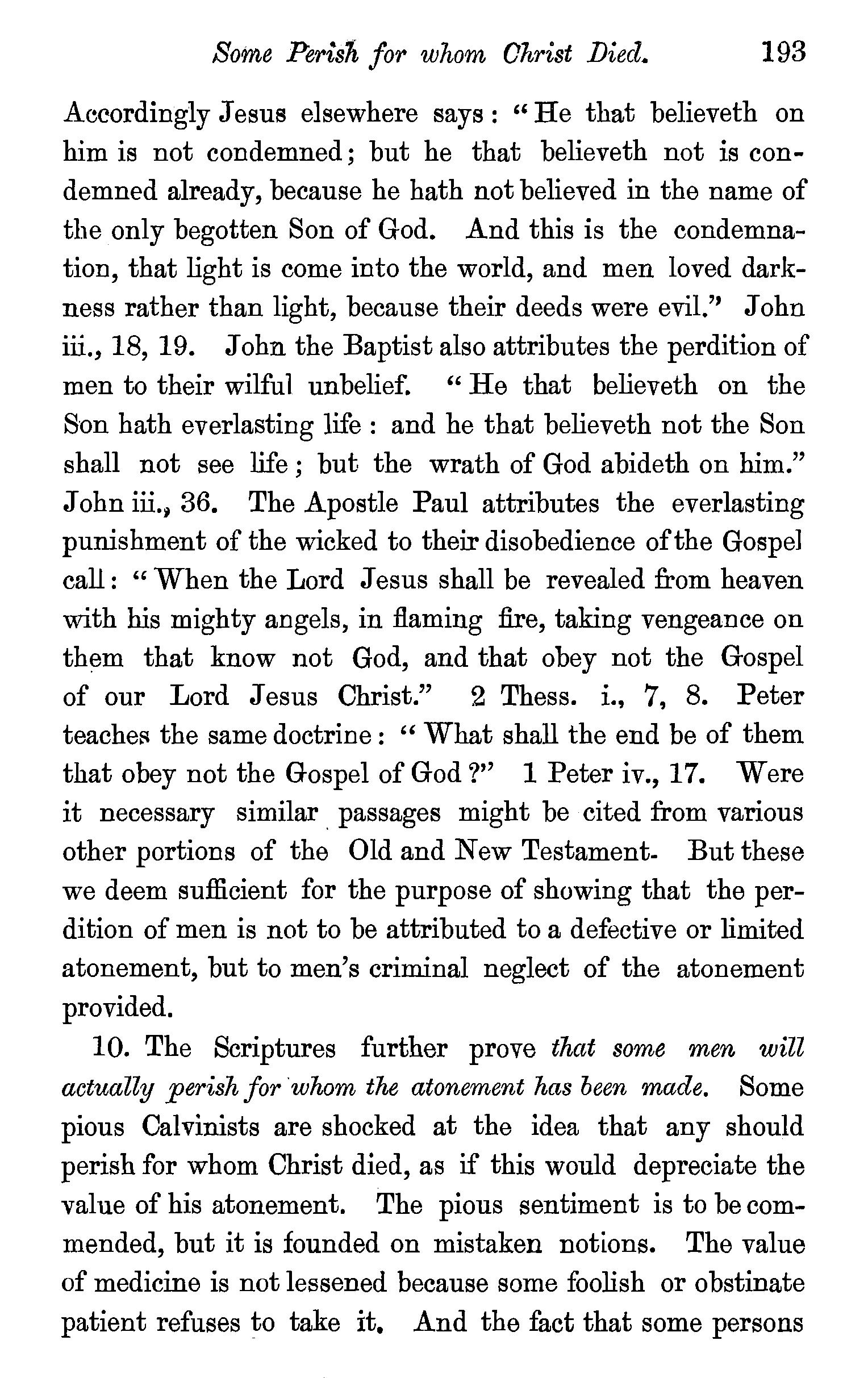
Accordingly Jesus elsewhere says : "He that believeth on him is not condemned; but he that believeth not is condemned already, because he hath not believed in the name of the only begotten Son of God. And this is the condemnation, that light is come into the world, and men loved darkness rather than light, because their deeds were evil.'' John iii., 18, 19. John the Baptist also attributes the perdition of men to their wilful unbelief. " He that believeth on the Son hath everlasting life : and he that believeth not the Son shall not see life ; but the wrath of God abideth on him."
John iii.jl 36. The Apostle Paul attributes the everlasting punishment of the wicked to their disobedience of the Gospel call: "When the Lord Jesus shall be revealed from heaven with his mighty angels, in flaming fire, taking vengeance on them that know not God, and that obey not the Gospel of our Lord Jesus Christ." 2 Thess. i., 7, 8. Peter teachef! the same doctrine : " What shall the end be of them that obey not the Gospel of God?''
1 Peter iv., 17. Were it necessary similar passages might be cited from various other portions of the Old and New Testament. But these we deem sufficient for the purpose of showing that the perdition of men is not to be attributed to a defective or limited atonement, but to men's criminal neglect of the atonement provided.
10. The Scriptures further prove thctt some men will actually perish for whom the atonement has been made. Some pious Calvinists are shocked at the idea that any should perish for whom Christ died, as if this would depreciate the value of his atonement. The pious sentiment is to be commended, but it is founded on mistaken notions. The value of medicine is not lessened because some foolish or obstinate patient refuses to take it. And the fact that some persons
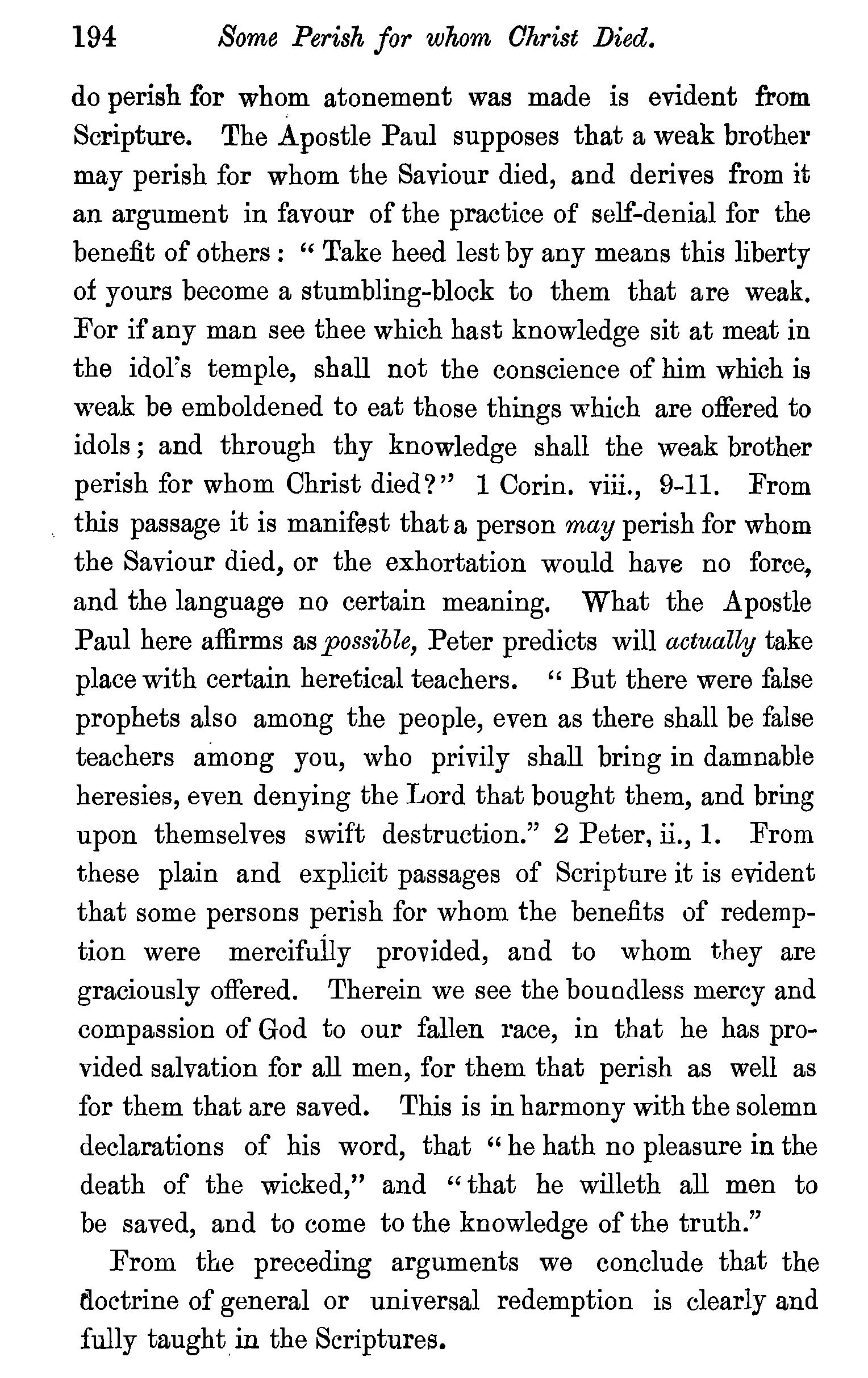
do perish for whom atonement was made is evident from Scripture. The Apostle Paul supposes that a weak brother may perish for whom the Saviour died, and derives from it an argument in favour of the practice of self-denial for the benefit of others : " Take heed lest by any means this liberty of yours become a stumbling-block to them that are weak. For if any man see thee which hast knowledge sit at meat in the idors temple, shall not the conscience of him which is weak be emboldened to eat those things which are offered to idols ; and through thy knowledge shall the weak brother perish for whom Christ died?'' 1 Corin. viii., 9-11. From this passage it is manifest that a person may perish for whom the Saviour died, or the exhortation would have no force, and the language no certain meaning. What the Apostle Paul here affirms as possible, Peter predicts will actually take place with certain heretical teachers. " But there were false prophets also among the people, even as there shall be false teachers among you, who privily shall bring in damnable heresies, even denying the Lord that bought them, and bring upon themselves swift destruction." 2 Peter, ii., 1. From these plain and explicit passages of Scripture it is evident that some persons perish for whom the benefits of redemption were mercifully provided, and to whom they are graciously offered. Therein we see the boundless mercy and compassion of God to our fallen race, in that he has provided salvation for all men, for them that perish as well as for them that are saved. This is in harmony with the solemn declarations of his word, that " he hath no pleasure in the death of the wicked," and " that he willeth all men to be saved, and to come to the knowledge of the truth."
From the preceding arguments we conclude that the doctrine of general or universal redemption is clearly and fully taught in the Scriptures.
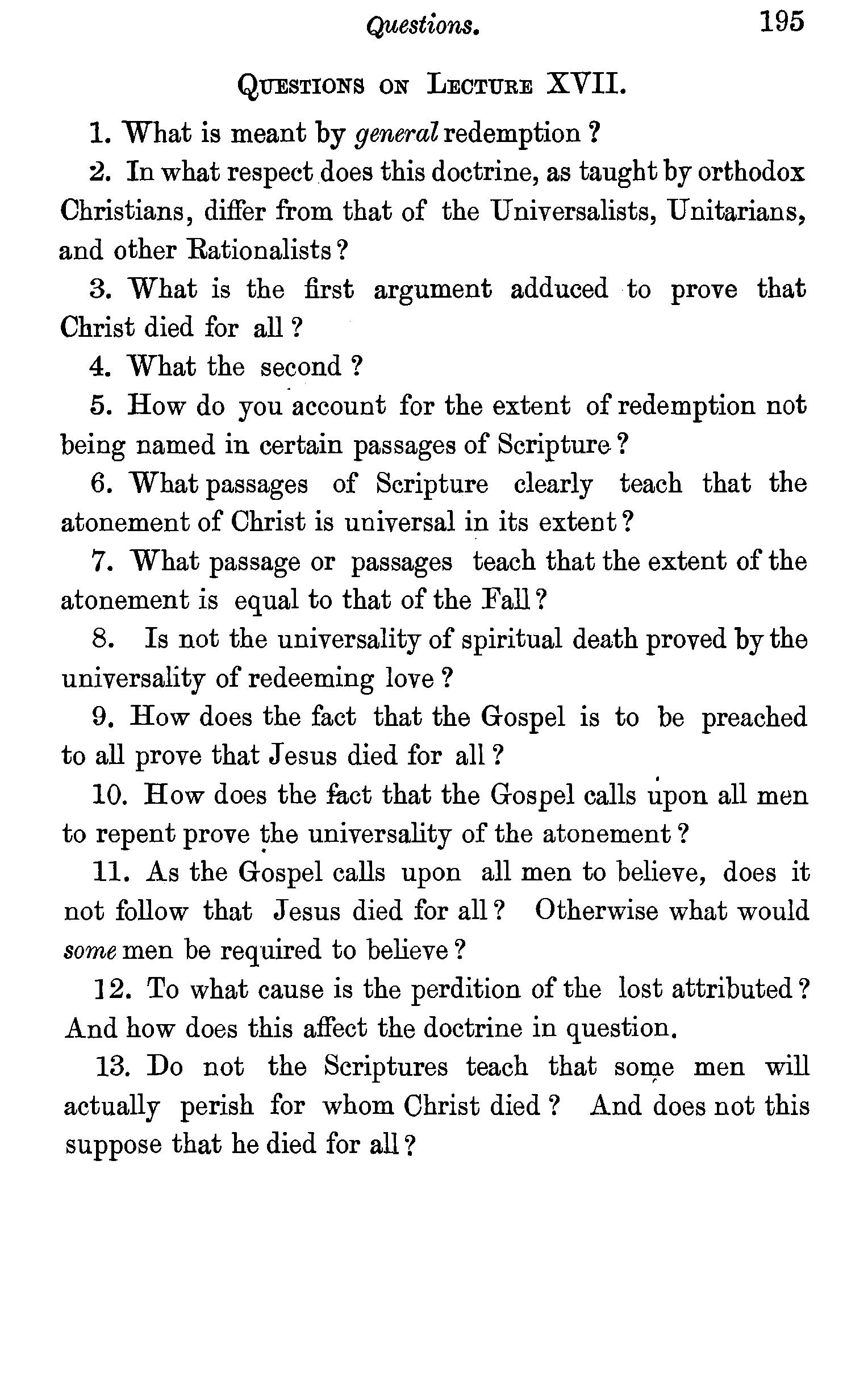
1. What is meant by generalredemption ?
2. In what respect does this doctrine, as taught by orthodox Christians, differ from that of the Universalists, Unitarians, and other Rationalists?
3. What is the first argument adduced to prove that Christ died for all ?
4. What the second ?
5. How do you account for the extent of redemption not being named in certain passages of Scripture?
6. What passages of Scripture clearly teach that the atonement of Christ is universal in its extent?
7. What passage or passages teach that the extent of the atonement is equal to that of the Fall?
8. Is not the universality of spiritual death proved by the universality of redeeming love ?
9. How does the fact that the Gospel is to be preached to all prove that Jesus died for all ?
10. How does the fact that the Gospel calls upon all men to repent prove ~he universality of the atonement?
11. As the Gospel calls upon all men to believe, does it not follow that Jesus died for all? Otherwise what would somemen be required to believe ?
] 2. To what cause is the perdition of the lost attributed? And how does this affect the doctrine in question.
13. Do not the Scriptures teach that son;ie men will actually perish for whom Christ died? And does not this suppose that he died for all?
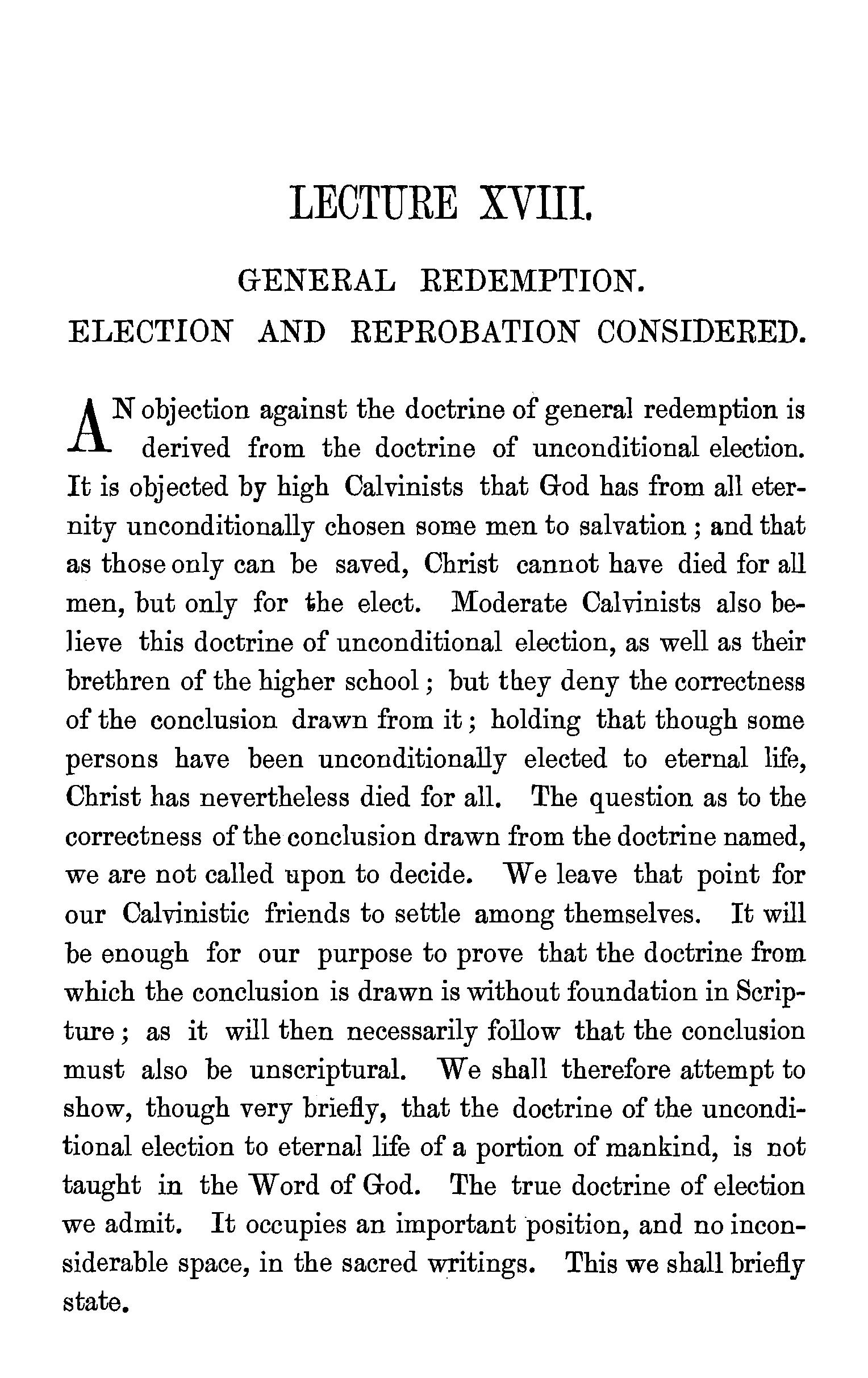
AN objection against the doctrine of general redemption is derived from the doctrine of unconditional election. It is objected by high Calvinists that God has from all eternity unconditionally chosen some men to salvation ; and that as those only can be saved, Christ cannot have died for all men, but only for i;he elect. Moderate Calvinists also believe this doctrine of unconditional election, as well as their brethren of the higher school; but they deny the correctness of the conclusion drawn from it; holding that though some persons have been unconditionally elected to eternal life, Christ has nevertheless died for all. The question as to the correctness of the conclusion drawn from the doctrine named, we are not called upon to decide. We leave that point for our Calvinistic friends to settle among themselves. It will be enough for our purpose to prove that the doctrine from which the conclusion is drawn is without foundation in Scripture ; as it will then necessarily follow that the conclusion must also be unscriptural. We sha11 therefore attempt to show, though very briefly, that the doctrine of the unconditional election to eternal life of a portion of mankind, is not taught in the Word of God. The true doctrine of election we admit. It occupies an important position, and no inconsiderable space, in the sacred writings. This we shall briefly state.
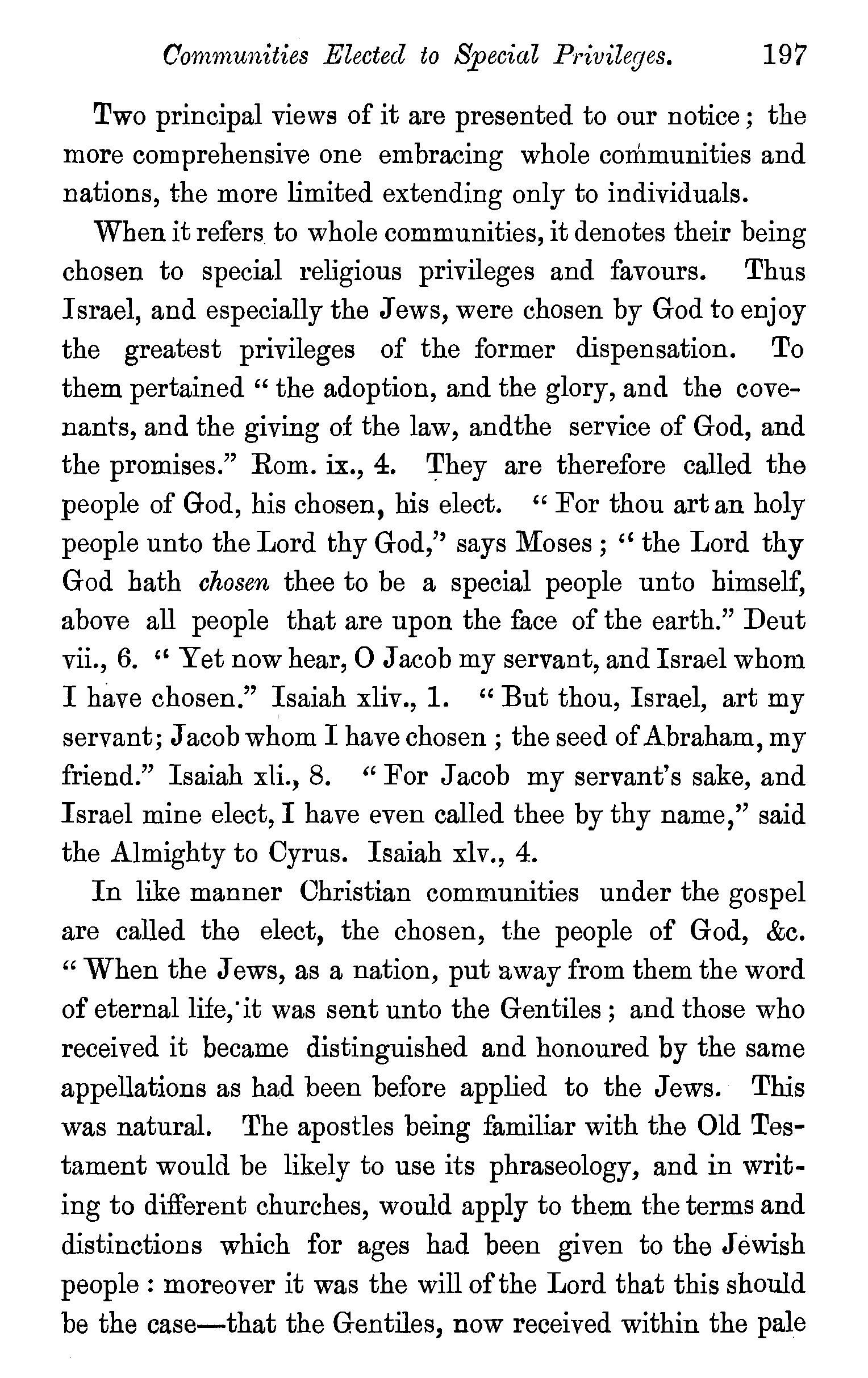
Two principal views of it are presented to our notice; the more comprehensive one embracing whole communities and nations, the more limited extending only to individuals. When it refers to whole communities, it denotes their being chosen to special religious privileges and favours. Thus Israel, and especially the Jews, were chosen by God to enjoy the greatest privileges of the former dispensation. To them pertained " the adoption, and the glory, and the covenants, and the giving of the law, andthe service of God, and the promises." Rom. ix., 4. rhey are therefore called the people of God, his chosen, his elect. " For thou art an holy people unto the Lord thy God,'' says Moses; '' the Lord thy God hath chosen thee to be a special people unto himself, above all people that are upon the face of the earth." Deut vii., 6. '' Yet now hear, 0 Jacob my servant, and Israel whom I have chosen." Isaiah xliv., 1. "But thou, Israel, art my servant; Jacob whom I have chosen; the seed of Abraham, my friend." Isaiah xli., 8. "For Jacob my servant's sake, and Israel mine elect, I have even called thee by thy name,'' said the Almighty to Cyrus. Isaiah xlv., 4.
In like manner Christian communities under the gospel are called the elect, the chosen, the people of God, &c. "When the Jews, as a nation, put away from them the word of eternal life;it was sent unto the Gentiles; and those who received it became distinguished and honoured by the same appellations as had been before applied to the Jews. This was natural. The apostles being familiar with the Old Testament would be likely to use its phraseology, and in writing to different churches, would apply to them the terms and distinctions which for ages had been given to the Jewish people : moreover it was the will of the Lord that this should be the case-that the Gentiles, now received within the pale
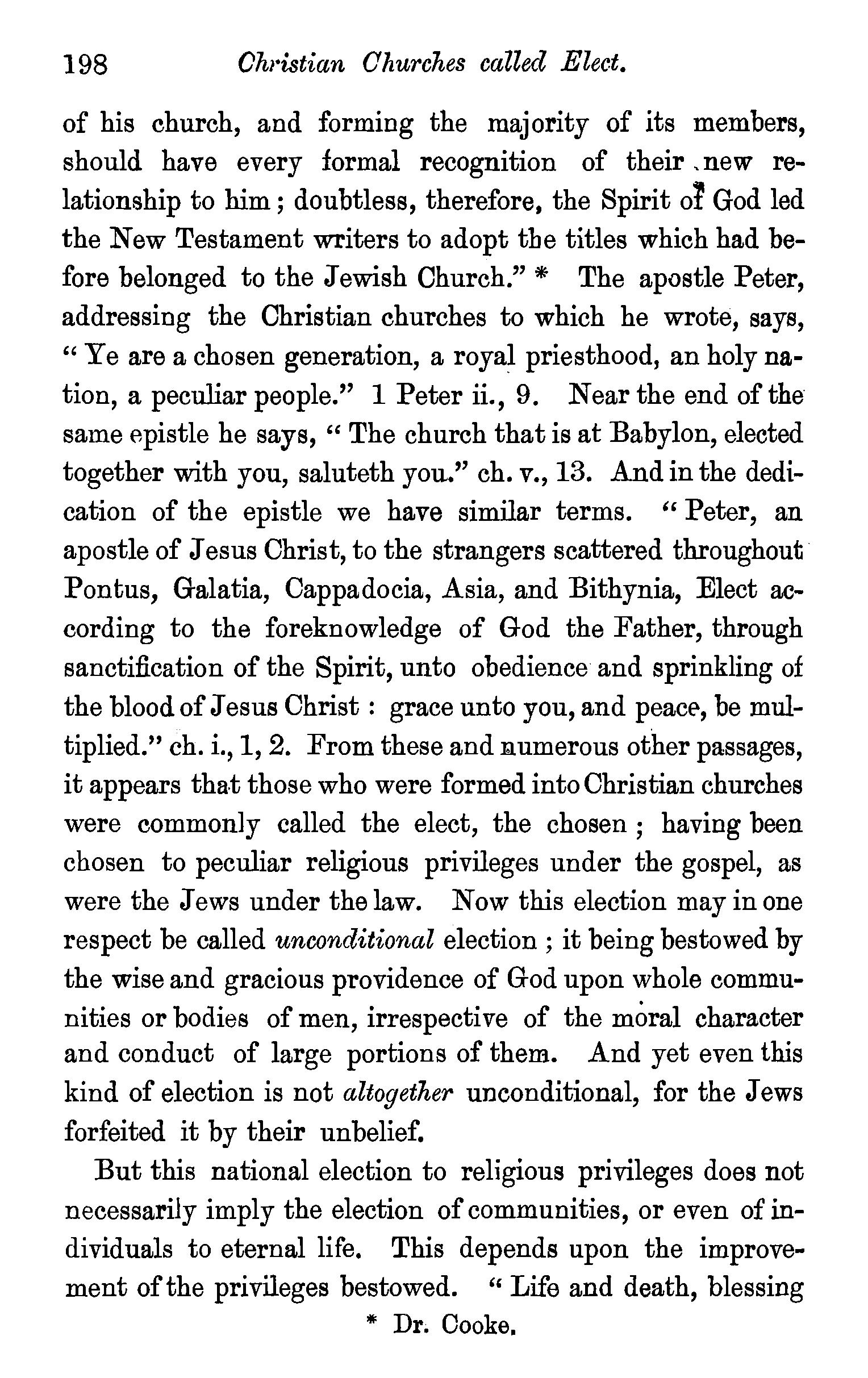
198 Christian Churches called Elect. of his church, and forming the majority of its members, should have every formal recognition of their , new relationship to him; doubtless, therefore, the Spirit or God led the New Testament writers to adopt the titles which had before belonged to the Jewish Church." * The apostle Peter, addressing the Christian churches to which he wrote, says, " Ye are a chosen generation, a royal priesthood, an holy nation, a peculiar people." 1 Peter ii., 9. Near the end of the same epistle he says, "The church that is at Babylon, elected together with you, saluteth you." ch. v., 13. And in the dedication of the epistle we have similar terms. "Peter, an apostle of Jesus Christ, to the strangers scattered throughout Pontus, Galatia, Cappadocia, Asia, and Bithynia, Elect according to the foreknowledge of God the Father, through sanctification of the Spirit, unto obedience and sprinkling of the blood of Jesus Christ : grace unto you, and peace, be multiplied." ch. i., 1, 2. From these and numerous other passages, it appears that those who were formed into Christian churches were commonly called the elect, the chosen; having been chosen to peculiar religious privileges under the gospel, as were the Jews under the law. Now this election may in one respect be called unconditional election ; it being bestowed by the wise and gracious providence of God upon whole communities or bodies of men, irrespective of the moral character and conduct of large portions of them. And yet even this kind of election is not altogether unconditional, for the Jews forfeited it by their unbelief.
But this national election to religious privileges does not necessarily imply the election of communities, or even of individuals to eternal life. This depends upon the improvement of the privileges bestowed. "Life and death, blessing
* Dr. Cooke,
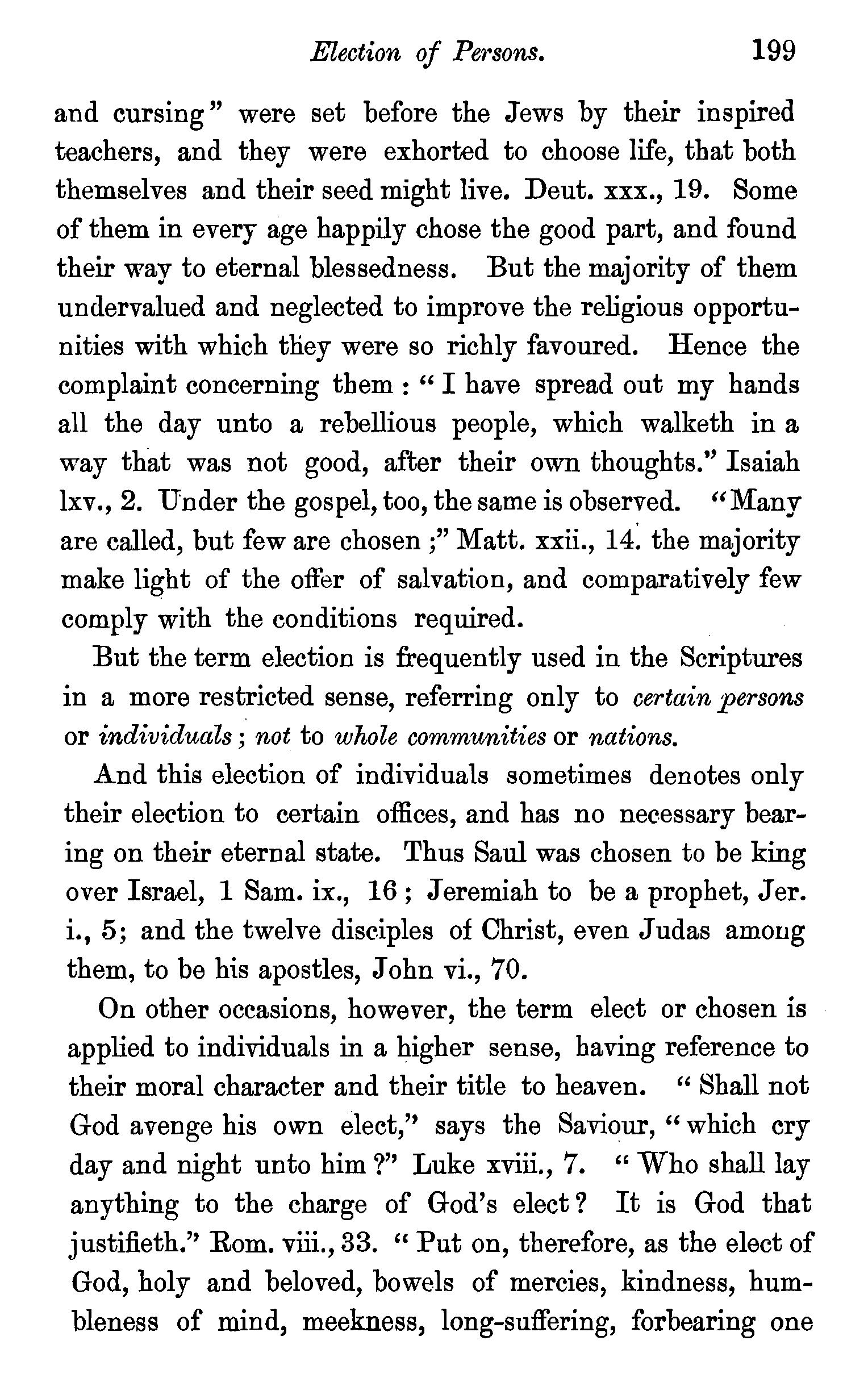
and cursing" were set before the Jews by their inspired teachers, and they were exhorted to choose life, that both themselves and their seed might live. Deut. xxx., 19. Some of them in every age happily chose the good part, and found their way to eternal blessedness. But the majority of them undervalued and neglected to improve the religious opportunities with which tliey were so richly favoured. Hence the complaint concerning them : " I have spread out my hands all the day unto a rebellious people, which walketh in a way that was not good, after their own thoughts.'' Isaiah lxv., 2. Under the gospel, too, the same is observed. "Many are called, but few are chosen;" Matt. xxii., 14: the majority make light of the offer of salvation, and comparatively few comply with the conditions required.
But the term election is frequently used in the Scriptures in a more restricted sense, referring only to certain persons or individuals ; not to whole communities or nations.
And this election of individuals sometimes denotes only their election to certain offices, and has no necessary bearing on their eternal state. Thus Saul was chosen to be king over Israel, 1 Sam. ix., 16; Jeremiah to be a prophet, Jer. i., 5; and the twelve disciples of Christ, even Judas among them, to be his apostles, John vi., 70.
On other occasions, however, the term elect or chosen is applied to individuals in a higher sense, having reference to their moral character and their title to heaven. "Shall not God avenge his own elect,'' says the Saviour, "which cry day and night unto him?'' Luke xviii., 7. " Who shall lay anything to the charge of God's elect? It is God that justifieth.'' Rom. viii., 33. "Put on, therefore, as the elect of God, holy and beloved, bowels of mercies, kindness, humbleness of mind, meekness, long-suffering, forbearing one
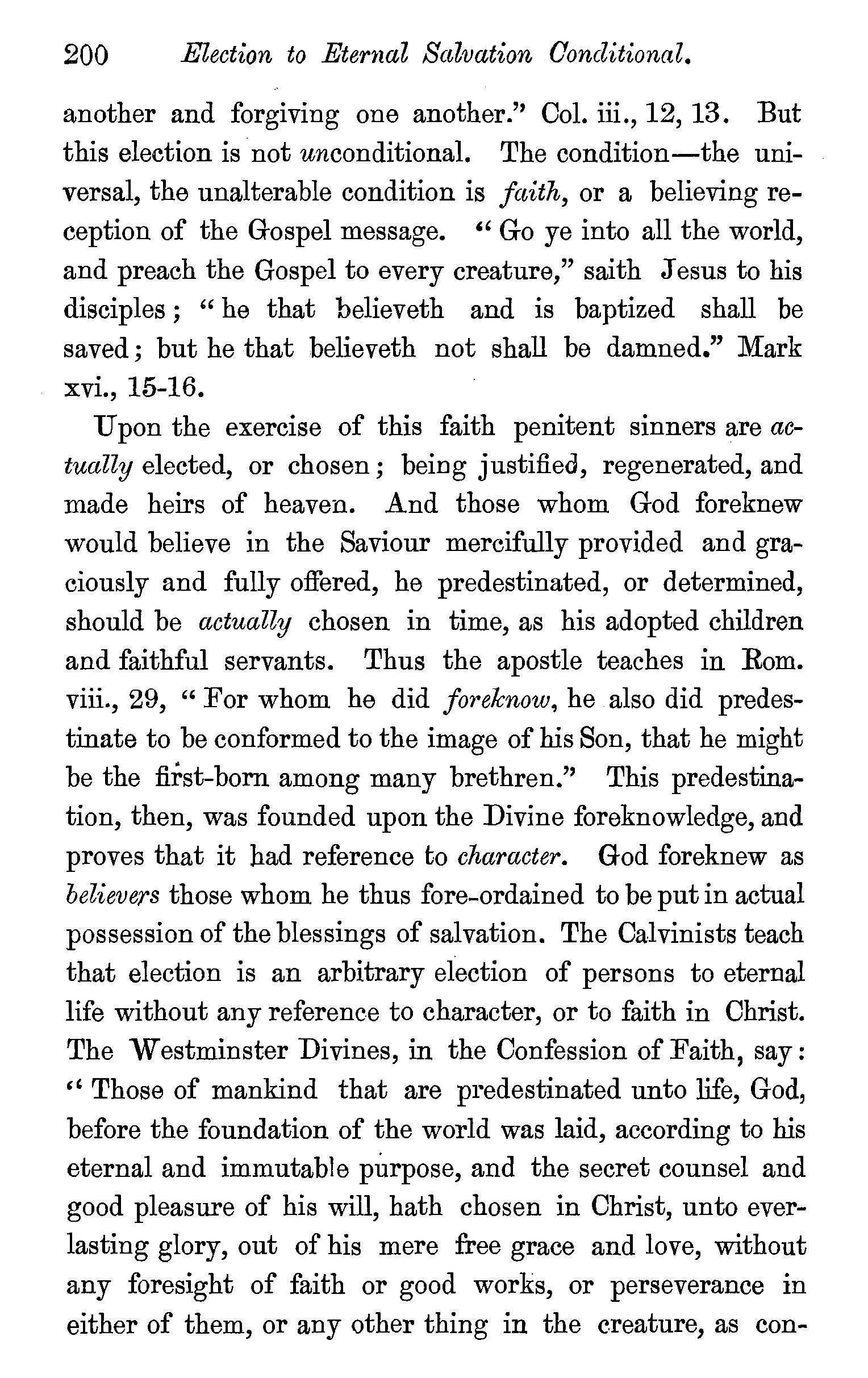
another and forgiving one another.'' Col. iii., 12, 13. But this election is not unconditional. The condition-the universal, the unalterable condition is fctith, or a believing reception of the Gospel message. " Go ye into all the world, and preach the Gospel to every creature," saith Jesus to his disciples; "he that believeth and is baptized shall be saved ; but he that believeth not shall be damned." Mark xvi., 15-16.
Upon the exercise of this faith penitent sinners are actually elected, or chosen; being justified, regenerated, and made heirs of heaven. And those whom God foreknew would believe in the Saviour mercifully provided and graciously and fully offered, he predestinated, or determined, should be actually chosen in time, as his adopted children and faithful servants. Thus the apostle teaches in Rom. viii., 29, "For whom he did foreknow, he also did predestinate to be conformed to the image of his Son, that he might be the first-born among many brethren.'' This predestination, then, was founded upon the Divine foreknowledge, and proves that it had reference to character. God foreknew as believers those whom he thus fore-ordained to be put in actual possession of the blessings of salvation. The Calvinists teach that election is an arbitrary election of persons to eternal life without any reference to character, or to faith in Christ. The Westminster Divines, in the Confession of Faith, say: '' Those of mankind that are predestinated unto life, God, before the foundation of the world was laid, according to his eternal and immutable purpose, and the secret counsel and good pleasure of his will, hath chosen in Christ, unto everlasting glory, out of his mere free grace and love, without any foresight of faith or good works, or perseverance in either of them, or any other thing in the creature, as con-
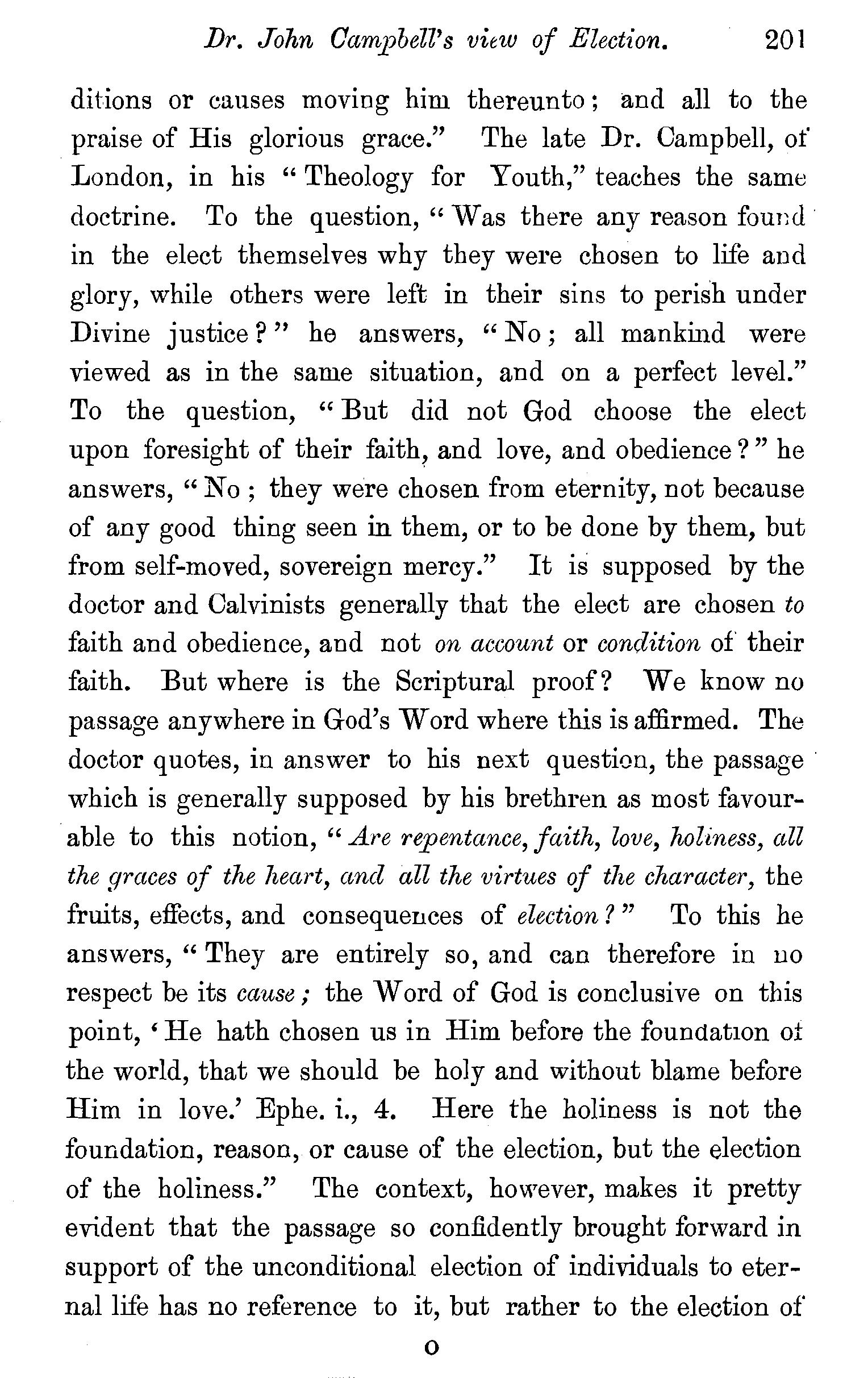
ditions or causes moving him thereunto; and all to the praise of His glorious grace." The late Dr. Campbell, of London, in his " Theology for Youth," teaches the same doctrine. To the question, "Was there any reason four1tl• in the elect themselves why they were chosen to life and glory, while others were left in their sins to perish under Divine justice?" he answers, "No; all mankind were viewed as in the same situation, and on a perfect level." To the question, "But did not God choose the elect upon foresight of their faith, and love, and obedience?" he answers, " No ; they were chosen from eternity, not because of any good thing seen in them, or to be done by them, but from self-moved, sovereign mercy." It is supposed by the doctor and Calvinists generally that the elect are chosen to faith and obedience, and not on account or condition of their faith. But where is the Scriptural proof? We know no passage anywhere in God's Word where this is affirmed. The doctor quotes, in answer to his next question, the passage • which is generally supposed by his brethren as most favourable to this notion, "Are repentance, faith, love, holiness, all the _qracesof the hectrt, and all the virtues of the character, the fruits, effects, and consequences of election? " To this he answers, " They are entirely so, and can therefore in 110 respect be its cctuse; the Word of God is conclusive on this point, 'He hath chosen us in Him before the foundation ot the world, that we should be holy and without blame before Him in love.' Ephe. i., 4. Here the holiness is not the foundation, reason, or cause of the election, but the election of the holiness." The context, however, makes it pretty evident that the passage so confidently brought forward in support of the unconditional election of individuals to eternal life has no reference to it, but rather to the election of

believing Jews and Gentiles to equal privileges under the gospel, constituting one Church, upon the same principle of faith in Christ. See verses 9, 10, and chap. ii., 11-18, and chap. iii., 9-11. The gracious design of this external election was, that those interested in it " should be holy, and without blame before God in love.'' The gospel calls men to turn from sin, to believe in the Saviour, whom it offers for their acceptance, and to lead a holy and devout life. It is sent '' to turn them from darkness to light, and from the power of Satan unto God, that they may receive forgiveness of sins, and inheritance among them that are sanctified by faith that is in Christ." Acts xxvi., 18. The passage in question, then, well harmonizes with the view just expressed, that the e.lection to which it refers is that of believing Jews and Gentiles being under the gospel constituted one Church on perfect equality.
But, supposing it to refer to personal election, "the Calvinistic doctrine would not follow from it," observes Mr. Watson, "because it would admit of being questioned, whether the choosing in Christ before the foundation of the world, here mentioned, was a choice of certain persons, as men merely, or as believing men, the latter of which is surely the most rational, for all choice necessarily supposes some reason; but, as men, all things were equal between thosewho, according to this scheme, were chosen, and those who were passed by. But, according to the Calvinists, this election was made arbitrarily-that is, without any reason but that God would have it so; and to this sense they bend the clause in the passage under consideratioll, 'according to the good pleasure of 'His will.' This phrase, however, has no sw·h arbitrary sense; 'thegood pleasure of His will' means the benevolent and full acquiescence of the will of God with
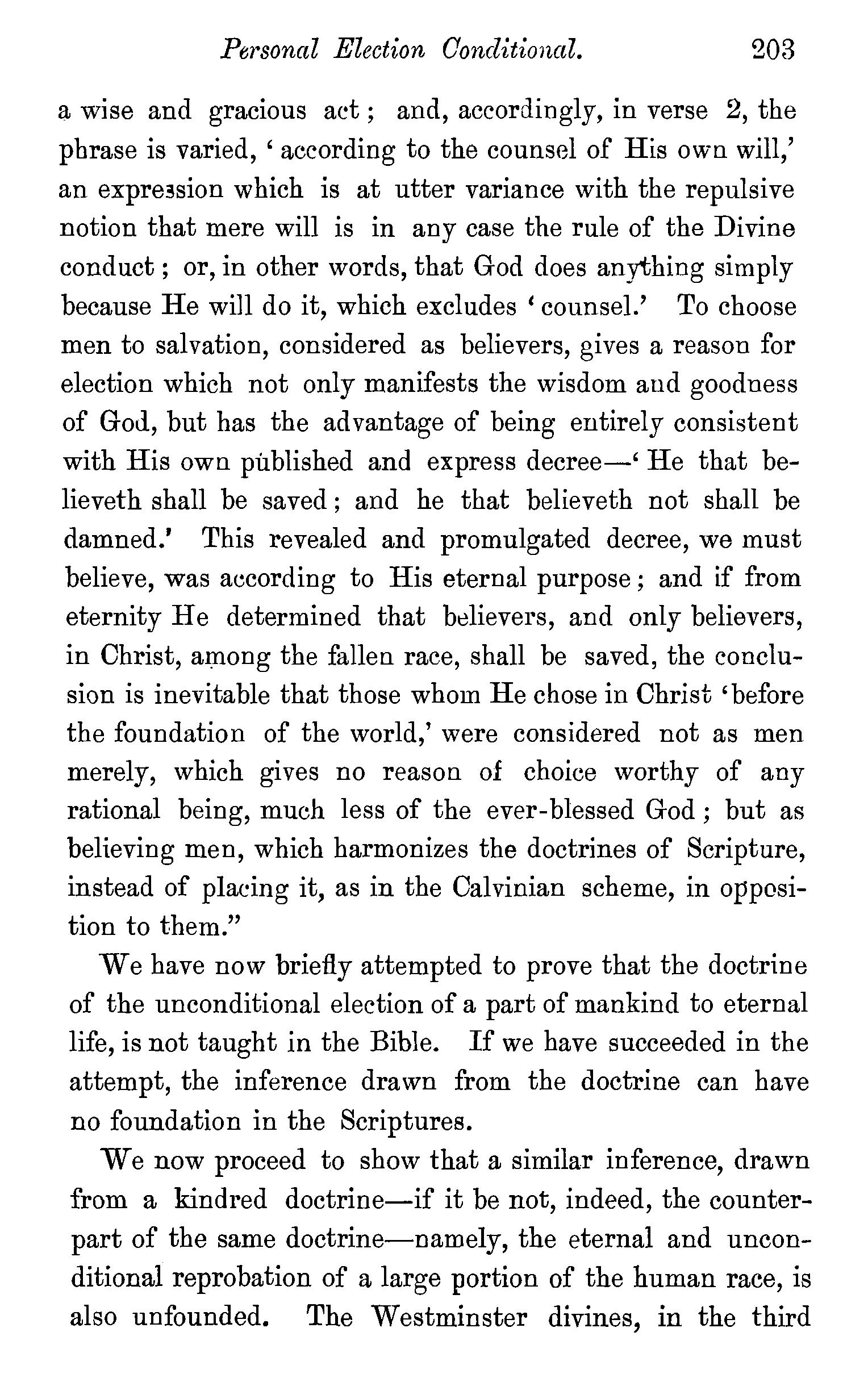
a wise and gracious act; and, accordingly, in verse 2, the phrase is varied, ' according to the counsel of His own will,' an expre3sion which is at utter variance with the repulsive notion that mere will is in any case the rule of the Divine conduct; or, in other words, that God does anything simply because He will do it, which excludes 'counsel.' To choose men to salvation, considered as believers, gives a reason for election which not only manifests the wisdom and goodness of God, but has the advantage of being entirely consistent with His own published and express decree-' He that believeth shall be saved ; and he that believeth not shall be damned.' This revealed and promulgated decree, we must believe, was according to His eternal purpose ; and if from eternity He determined that believers, and only believers, in Christ, al_llongthe fallen race, shall be saved, the conclusion is inevitable that those whom He chose in Christ 'before the foundation of the world,' were considered not as men merely, which gives no reason of choice worthy of any rational being, much less of the ever-blessed God ; but as believing men, which harmonizes the doctrines of Scripture, instead of placing it, as in the Calvinian scheme, in opposition to them."
We have now briefly attempted to prove that the doctrine of the unconditional election of a part of mankind to eternal life, is not taught in the Bible. If we have succeeded in the attempt, the inference drawn from the doctrine can have no foundation in the Scriptures.
We now proceed to show that a similar inference, drawn from a kindred doctrine-if it be not, indeed, the counterpart of the same doctrine-namely, the eternal and unconditional reprobation of a large portion of the human race, is also unfounded. The Westminster divines, in the third
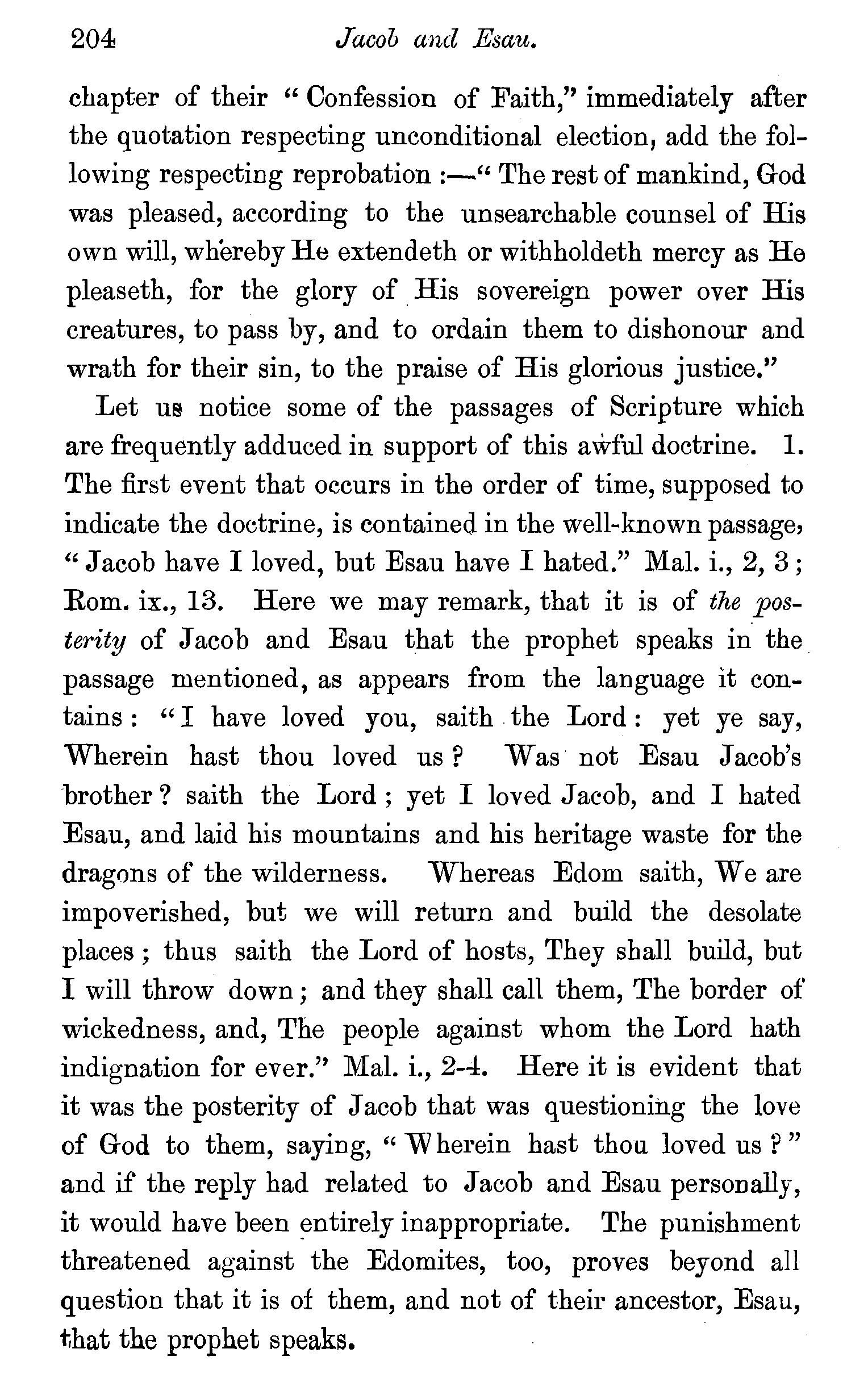
chapter of their "Confession of Faith," immediately after the quotation respecting unconditional election, add the following respecting reprobation:-" The rest of mankind, God was pleased, according to the unsearchable counsel of His own will, whereby He extendeth or withholdeth mercy as He pleaseth, for the glory of . His sovereign power over His creatures, to pass by, and to ordain them to dishonour and wrath for their sin, to the praise of His glorious justice."
Let us notice some of the passages of Scripture which are frequently adduced in support of this awful doctrine. 1. The first event that occurs in the order of time, supposed to indicate the doctrine, is contained in the well-known passage, "Jacob have I loved, but Esau have I hated." Mal. i., 2, 3; Rom. ix., 13. Here we may remark, that it is of the posterity of Jacob and Esau that the prophet speaks in the passage mentioned, as appears from the language it contains: "I have loved you, saith the Lord: yet ye say, Wherein hast thou loved us? Was not Esau Jacob's brother ? saith the Lord ; yet I loved Jacob, and I hated Esau, and laid his mountains and his heritage waste for the dragons of the wilderness. Whereas Edom saith, We are impoverished, but we will return and build the desolate places; thus saith the Lord of hosts, They shall build, but I will throw down; and they shall call them, The border of wickedness, and, The people against whom the Lord hath indignation for ever.'' Mal. i., 2-4. Here it is evident that it was the posterity of Jacob that was questioning the love of God to them, saying, "Wherein hast thou loved us?" and if the reply had related to Jacob and Esau personally, it would have been ~ntirely inappropriate. The punishment threatened against the Edomites, too, proves beyond all question that it is of them, and not of their ancestor, Esau, that the prophet speaks.
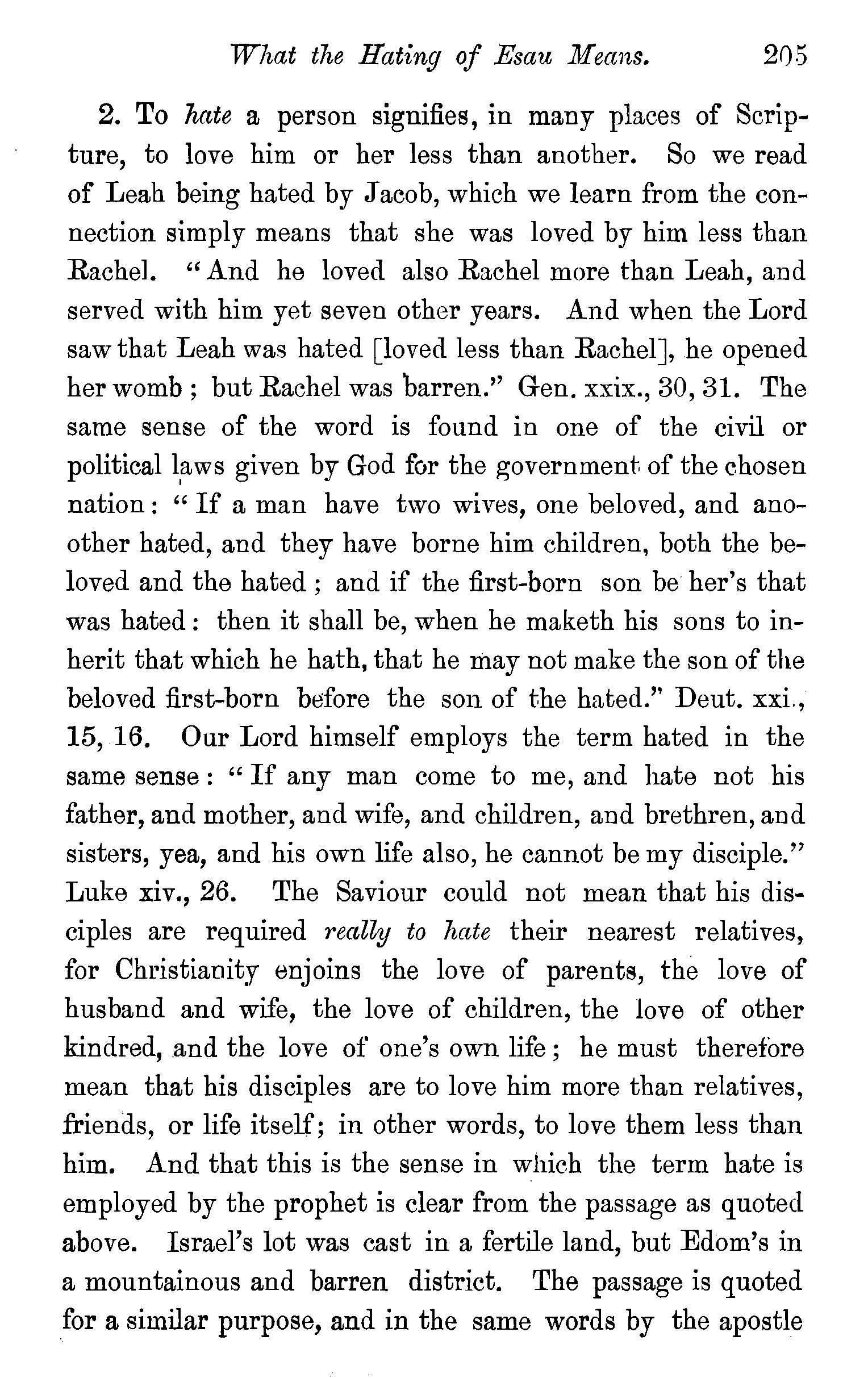
2. To hate a person signifies, in many places of Seri pture, to love him or her less than another. So we read of Leah being hated by Jacob, which we learn from the connection simply means that she was loved by him less than Rachel. "And he loved also Rachel more than Leah, and served with him yet seven other years. And when the Lord saw that Leah was hated [loved less than Rachel], he opened her womb; but Rachel was barren.'' Gen. xxix., 30, 31. The same sense of the word is found in one of the civil or political l,aws given by God for the government of the chosen nation: "If a man have two wives, one beloved, and anoother hated, and they have borne him children, both the beloved and the hated; and if the first-born son be her's that was hated: then it shall be, when he maketh his sons to inherit that which he hath, that he may not make the son of the beloved first-born before the son of the hated.'' Deut. xxi., 15, 16. Our Lord himself employs the term hated in the same sense : " If any man come to me, and hate not his father, and mother, and wife, and children, and brethren, and sisters, yea, and his own life also, he cannot be my disciple." Luke xiv., 26. The Saviour could not mean that his dis• ciples are required recilly to hctte their nearest relatives, for Christianity enjoins the love of parents, the love of husband and wife, the love of children, the love of other kindred, .and the love of one's own life; he must therefore mean that his disciples are to love him more than relatives, friends, or life itself; in other words, to love them less than him. And that this is the sense in which the term hate is employed by the prophet is clear from the passage as quoted above. Israel's lot was cast in a fertile land, but Edom's in a mountainous and barren district. The passage is quoted for a similar purpose, and in the same words by the apostle
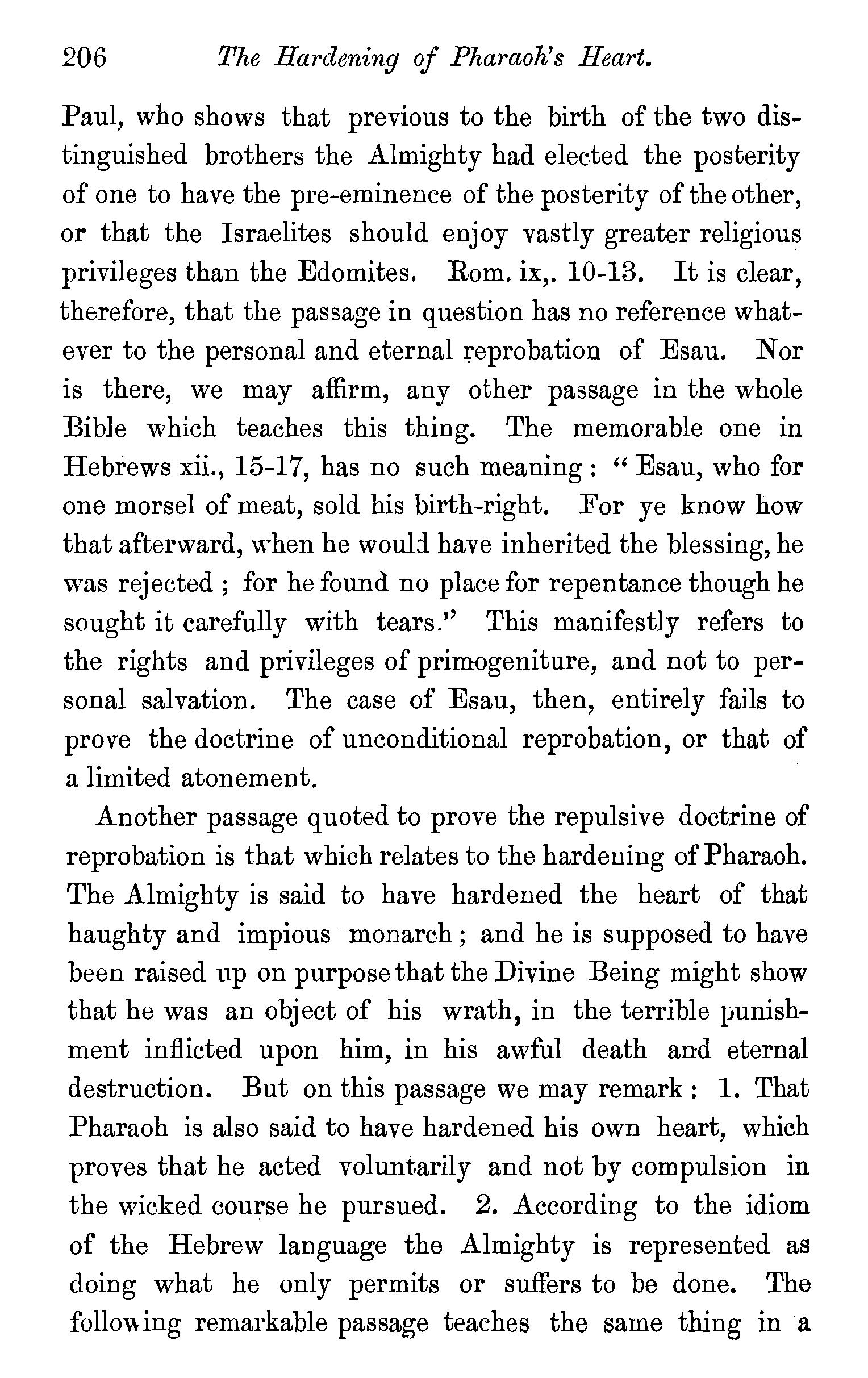
Paul, who shows that previous to the birth of the two distinguished brothers the Almighty had elected the posterity of one to have the pre-eminence of the posterity of the other, or that the Israelites should enjoy vastly greater religious privileges than the Edomites, Rom. ix,. 10-13. It is clear, therefore, that the passage in question has no reference whatever to the personal and eternal :reprobation of Esau. Nor is there, we may affirm, any other passage in the whole Bible which teaches this thing. The memorable one in Hebrews xii., 15-17, has no such meaning : "Esau, who for one morsel of meat, sold his birth-right. ]for ye know how that afterward, when he would.have inherited the blessing, he was rejected ; for he found no place for repentance though he sought it carefully with tears.'' This manifestly refers to the rights and privileges of primogeniture, and not to personal salvation. The case of Esau, then, entirely faHs to prove the doctrine of unconditional reprobation, or that of a limited atonement.
Another passage quoted to prove the repulsive doctrine of reprobation is that which relates to the hardening of Pharaoh. The Almighty is said to have hardened the heart of that haughty and impious monarch; and he is supposed to have been raised up on purpose that the Divine Being might show that he was an object of his wrath, in the terrible punishment inflicted upon him, in his awful death and eternal destruction. But on this passage we may remark : 1. That Pharaoh is also said to have hardened his own heart, which proves that he acted voluntarily and not by compulsion in the wicked course he pursued. 2. According to the idiom of the Hebrew language the Almighty is represented as doing what he only permits or suffers to be done. The follo" ing remarkable passage teaches the same thing in a
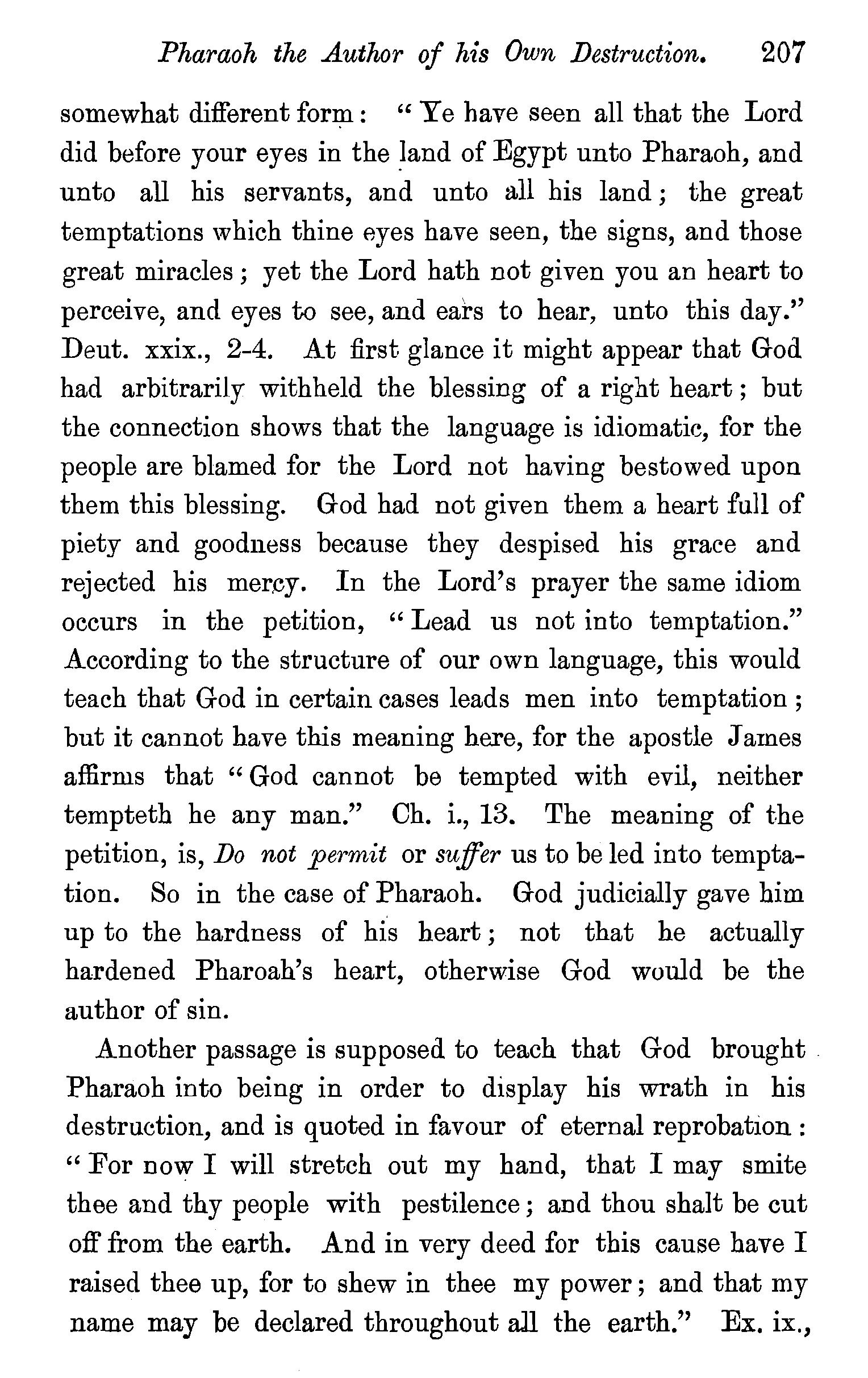
somewhat different form: "Ye have seen all that the Lord did before your eyes in the ~and of Egypt unto Pharaoh, and unto all his servants, and unto all his land ; the great temptations which thine eyes have seen, the signs, and those great miracles ; yet the Lord hath not given you an heart to perceive, and eyes to see, and ears to hear, unto this day.'' Deut. xxix., 2-4. At first glance it might appear that God had arbitrarily withheld the blessing of a right heart ; but the connection shows that the language is idiomatic, for the people are blamed for the Lord not having bestowed upon them this blessing. God had not given them a heart full of piety and goodness because they despised his grace and rejected his mercy. In the Lord's prayer the same idiom occurs in the petition, "Lead us not into temptation." According to the structure of our own language, this would teach that God in certain cases leads men into temptation ; but it cannot have this meaning here, for the apostle James affirms that " God cannot be tempted with evil, neither tempteth he any man." Ch. i., 13. The meaning of the petition, is, Do not permit or suffer us to be led into temptation. So in the case of Pharaoh. God judicially gave him up to the hardness of his heart; not that he actually hardened Pharoah's heart, otherwise God would be the author of sin.
Another passage is supposed to teach that God brought Pharaoh into being in order to display his wrath in his destruction, and is quoted in favour of eternal reprobation : " For now I will stretch out my hand, that I may smite thee and thy people with pestilence; and thou shalt be cut off from the earth. And in very deed for this cause have I raised thee up, for to shew in thee my power; and that my name may be declared throughout all the earth." Ex. ix.,
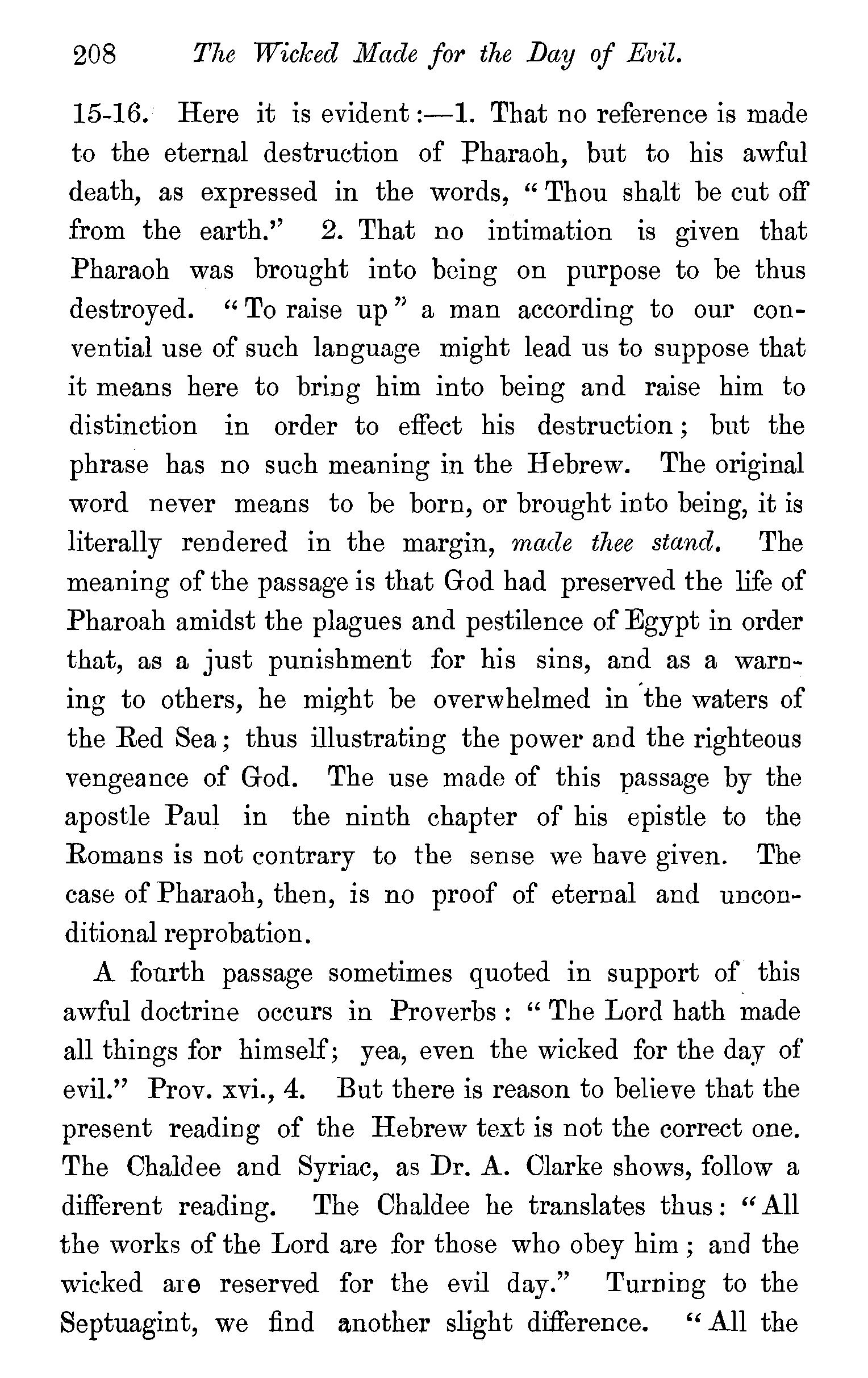
208 The Wick eel Macle for the Day of Evil.
15-16. Here it is evident :-1. That no reference is made to the eternal destruction of Pharaoh, but to his awful death, as expressed in the words, " Thou shalt be cut off from the earth.'' 2. That no intimation is given that Pharaoh was brought into being on purpose to be thus destroyed. "To raise up" a man according to our convential use of such language might lead us to suppose that it means here to bring him into being and raise him to distinction in order to effect his destruction ; but the phrase has no such meaning in the Hebrew. The original word never means to be born, or brought into being, it is literally rendered in the margin, macle thee stand. The meaning of the passage is that God had preserved the life of Pharoah amidst the plagues and pestilence of Egypt in order that, as a just punishment for his sins, and as a warning to others, he might be overwhelmed in 'the waters of the Red Sea; thus illustrating the power and the righteous vengeance of God. The use made of this passage by the apostle Paul in the ninth chapter of his epistle to the Romans is not contrary to the sense we have given. The case of Pharaoh, then, is no proof of eternal and unconditional reprobation.
A fourth passage sometimes quoted in support of this awful doctrine occurs in Proverbs : " The Lord hath made all things for himself; yea, even the wicked for the day of' evil." Prov. xvi., 4. But there is reason to believe that the present reading of the Hebrew text is not the correct one. The Chaldee and Syriac, as Dr. A. Clarke shows, follow a different reading. The Chaldee he translates thus: "All the works of the Lord are for those who obey him; and the wicked are reserved for the evil day." Turning to the Septuagint, we find another slight difference. " All the
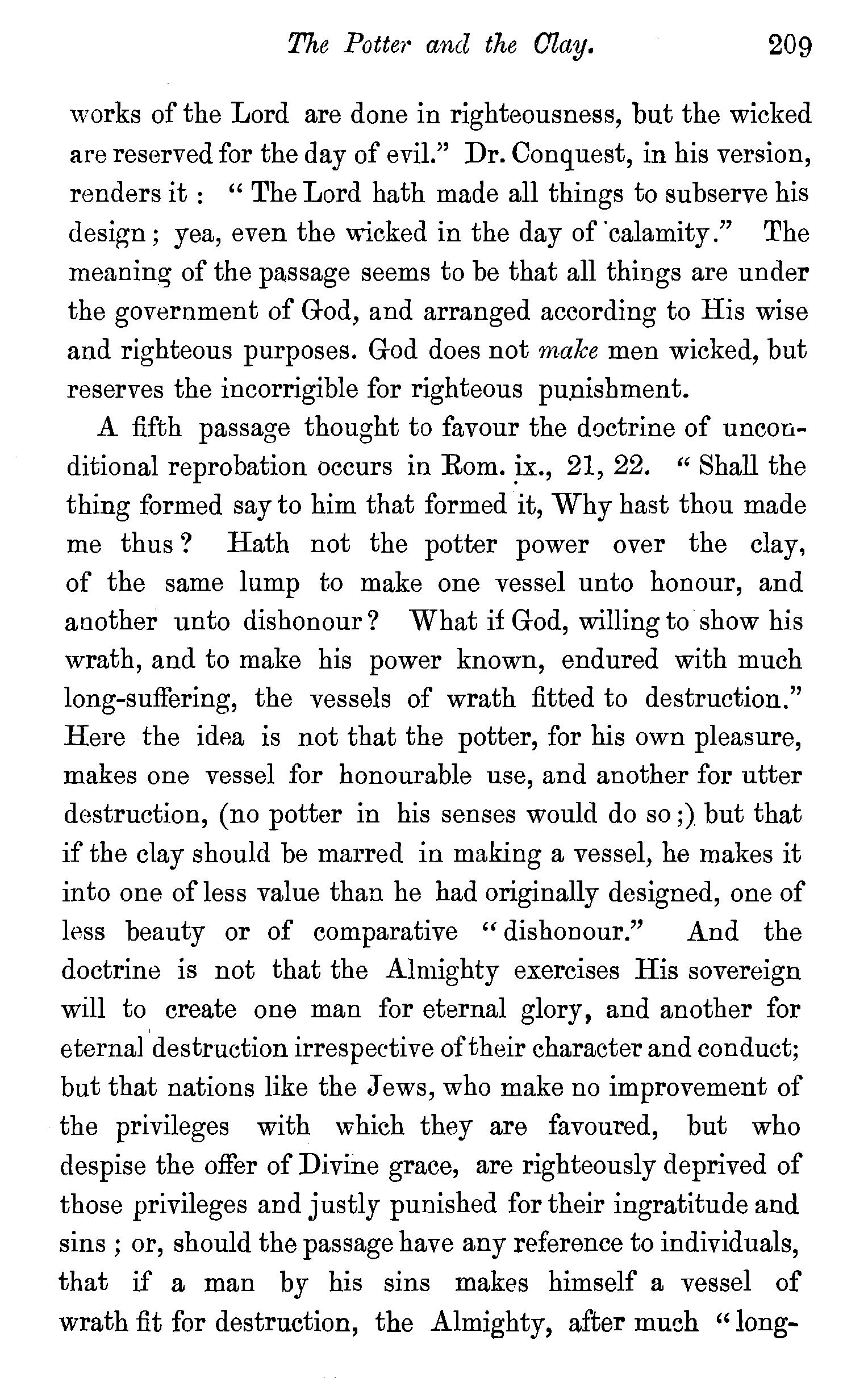
works of the Lord are done in righteousness, but the wicked are reserved for the day of evil." Dr. Conquest, in his version, renders it : " The Lord hath made all things to subserve his design; yea, even the wicked in the day of ·calamity." The meaning of the passage seems to be that all things are under the government of God, and arranged according to His wise and righteous purposes. God does not make men wicked, but reserves the incorrigible for righteous pu,nishment.
A fifth passage thought to favour the doctrine of unconditional reprobation occurs in Rom. ix., 21, 22. " Shall the thing formed say to him that formed it, Why hast thou made me thus ? Hath not the potter power over the clay, of the same lump to make one vessel unto honour, and another unto dishonour? What if God, willing to show his wrath, and to make his power known, endured with much long-suffering, the vessels of wrath fitted to destruction." Here the idAa is not that the potter, for his own pleasure, makes one vessel for honourable use, and another for utter destruction, (no potter in his senses would do so;) but that if the clay should be marred in making a vessel, he makes it into one of less value than he had originally designed, one of less beauty or of comparative "dishonour." And the doctrine is not that the Almighty exercises His sovereign will to create one man for eternal glory, and another for eternal destruction irrespective of their character and conduct; but that nations like the Jews, who make no improvement of the privileges with which they are favoured, but who despise the offer of Divine grace, are righteously deprived of those privileges and justly punished for their ingratitude and sins; or, should the passage have any reference to individuals, that if a man by his sins makes himself a vessel of wrath fit for destruction, the Almighty, after much "long-
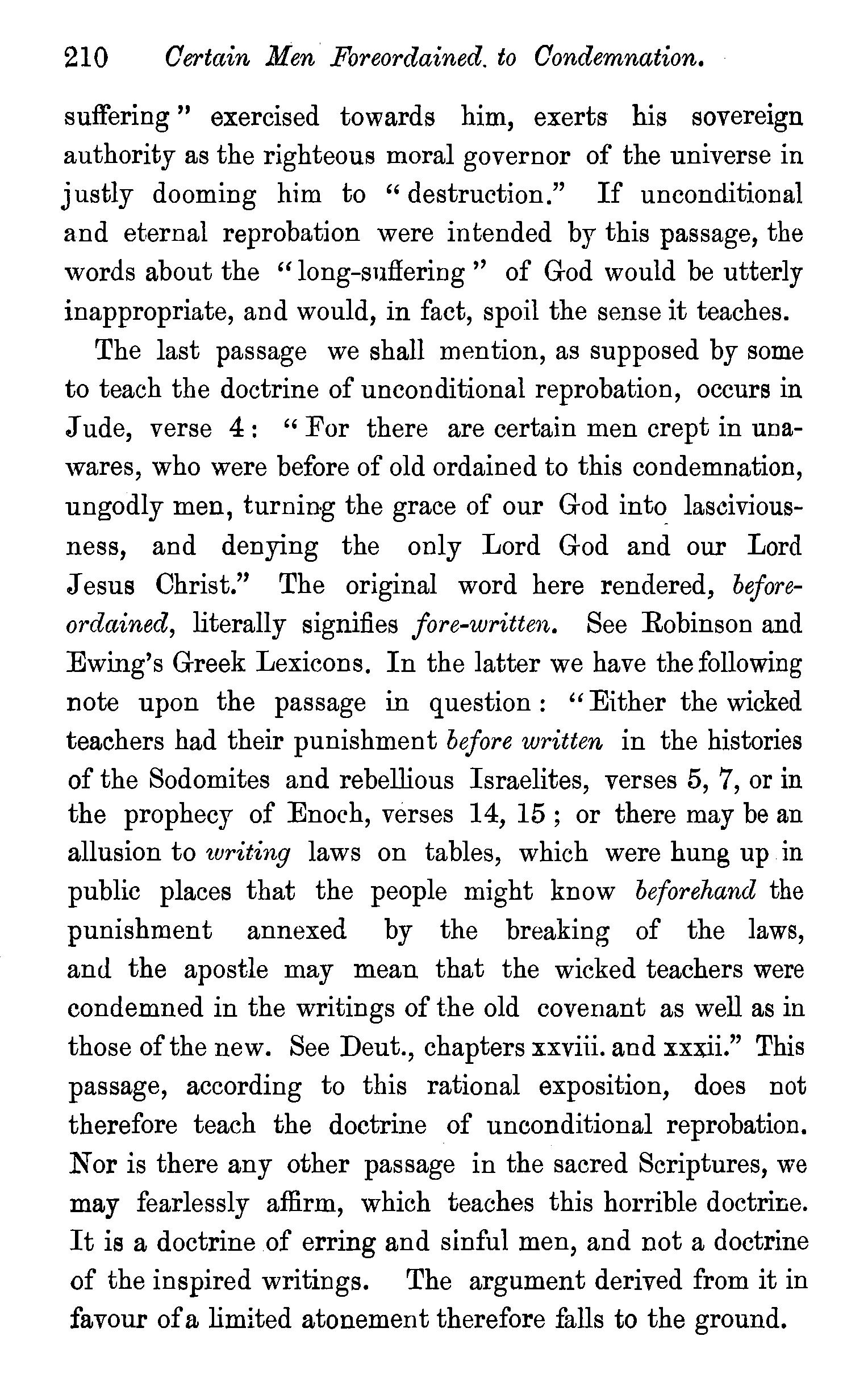
Oertctin Men Foreordained. to Condemnation.
suffering" exercised towards him, exerts his sovereign authority as the righteous moral governor of the universe in justly dooming him to "destruction." If unconditional and eternal reprobation were intended by this passage, the words about the "long-suflering '' of God would be utterly inappropriate, and would, in fact, spoil the sense it teaches. The last passage we shall mention, as supposed by some to teach the doctrine of unconditional reprobation, occurs in Jude, verse 4 : " For there are certain men crept in unawares, who were before of old ordained to this condemnation, ungodly men, turning the grace of our God into_ lasciviousness, and denying the only Lord God and our Lord Jesus Christ." The original word here rendered, beforeordctined, literally signifies fore-written. See Robinson and Ewing's Greek Lexicons. In the latter we have the following note upon the passage in question : "Either the wicked teachers had their punishment before written in the histories of the Sodomites and rebellious Israelites, verses 5, 7, or in the prophecy of Enoch, verses 14, 15; or there may be an allusion to writing laws on tables, which were hung up in public places that the people might know beforehand the punishment annexed by the breaking of the laws, and the apostle may mean that the wicked teachers were condemned in the writings of the old covenant as well as in those of the new. See Deut., chapters xxviii. and xxxii." This passage, according to this rational exposition, does not therefore teach the doctrine of unconditional reprobation. Nor is there any other passage in the sacred Scriptures, we may fearlessly affirm, which teaches this horrible doctrir.e. It is a doctrine of erring and sinful men, and not a doctrine of the inspired writings. The argument derived from it in favour of a limited atonement therefore falls to the ground.
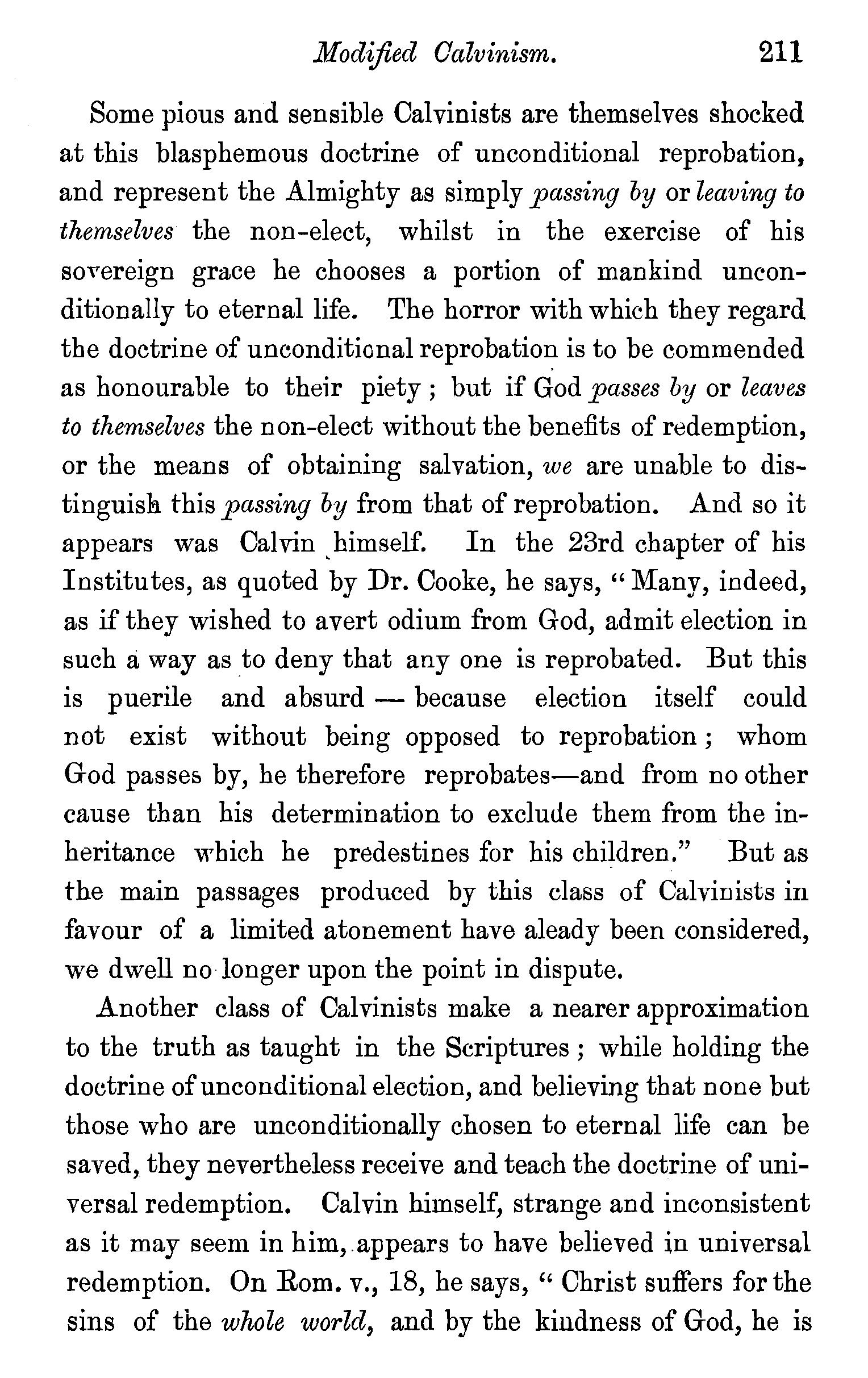
Some pious and sensible Calvinists are themselves shocked at this blasphemous doctrine of unconditional reprobation, and represent the Almighty as simply passing by or leaving to themselves the non-elect, whilst in the exercise of his sovereign grace he chooses a portion of mankind unconditionally to eternal life. The horror with which they regard the doctrine of unconditional reprobation is to be commended as honourable to their piety ; but if God passes by or leaves to themselves the non-elect without the benefits of redemption, or the means of obtaining salvation, we are unable to distinguish this passing by from that of reprobation. And so it appears was Calvin ,himself. In the 23rd chapter of his Institutes, as quoted by Dr. Cooke, he says, "Many, indeed, as if they wished to avert odium from God, admit election in such a way as to deny that any one is reprobated. But this is puerile and absurd -because election itself could not exist without being opposed to reprobation; whom God passef'Iby, he therefore reprobates-and from no other cause than his determination to exclude them from the inheritance which he predestines for his children." But as the main passages produced by this class of Calvinists in favour of a limited atonement have aleady been considered, we dwell no longer upon the point in dispute.
Another class of Calvinists make a nearer approximation to the truth as taught in the Scriptures; while holding the doctrine of unconditional election, and believing that none but those who are unconditionally chosen to eternal life can be saved, they nevertheless receive and teach the doctrine of universal redemption. Calvin himself, strange and inconsistent as it may seem in him, appears to have believed in universal redemption. On Rom. v., 18, he says, '' Christ suffers for the sins of the whole world, and by the kindness of God, he is
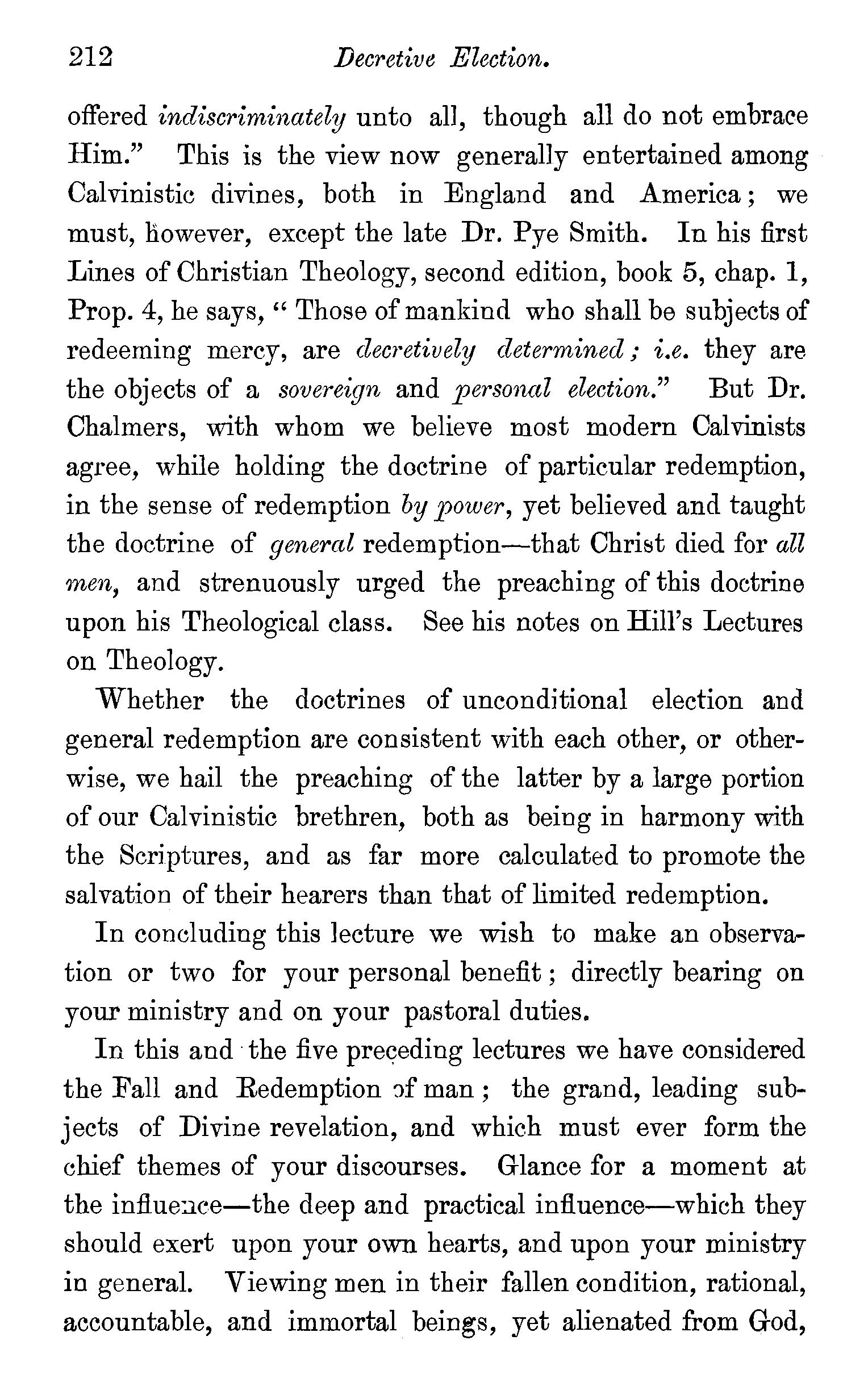
offered indiscriminately unto all, though all do not embrace Him." This is the view now generally entertained among Calvinistic divines, both in England and America; we must, however, except the late Dr. Pye Smith. In his first Lines of Christian Theology, second edition, book 5, chap. 1, Prop. 4, he says, " Those of mankind who shall be subjects of redeeming mercy, are clecretively cleterminecl; i.e. they are the objects of a sovereign and perso1utl election." But Dr. Chalmers, with whom we believe most modern Calvinists agree, while holding the doctrine of particular redemption, in the sense of redemption by power, yet believed and taught the doctrine of general redemption-that Christ died for all men, and strenuously urged the preaching of this doctrine upon his Theological class. See his notes on Hill's Lectures on Theology.
Whether the doctrines of unconditional election and general redemption are consistent with each other, or otherwise, we hail the preaching of the latter by a large portion of our Calvinistic brethren, both as being in harmony with the Scriptures, and as far more calculated to promote the salvation of their hearers than that of limited redemption.
In concluding this lecture we wish to make an observation or two for your personal benefit; directly bearing on your ministry and on your pastoral duties.
In this and· the five preceding lectures we have considered the Fall and Redemption :>froan ; the grand, leading subjects of Divine revelation, and which must ever form. the chief themes of your discourses. Glance for a moment at the influe::ice-the deep and practical influence-which they should exert upon your own hearts, and upon your ministry in general. Viewing men in their fallen condition, rational, accountable, and immortal beings, yet alienated from God,
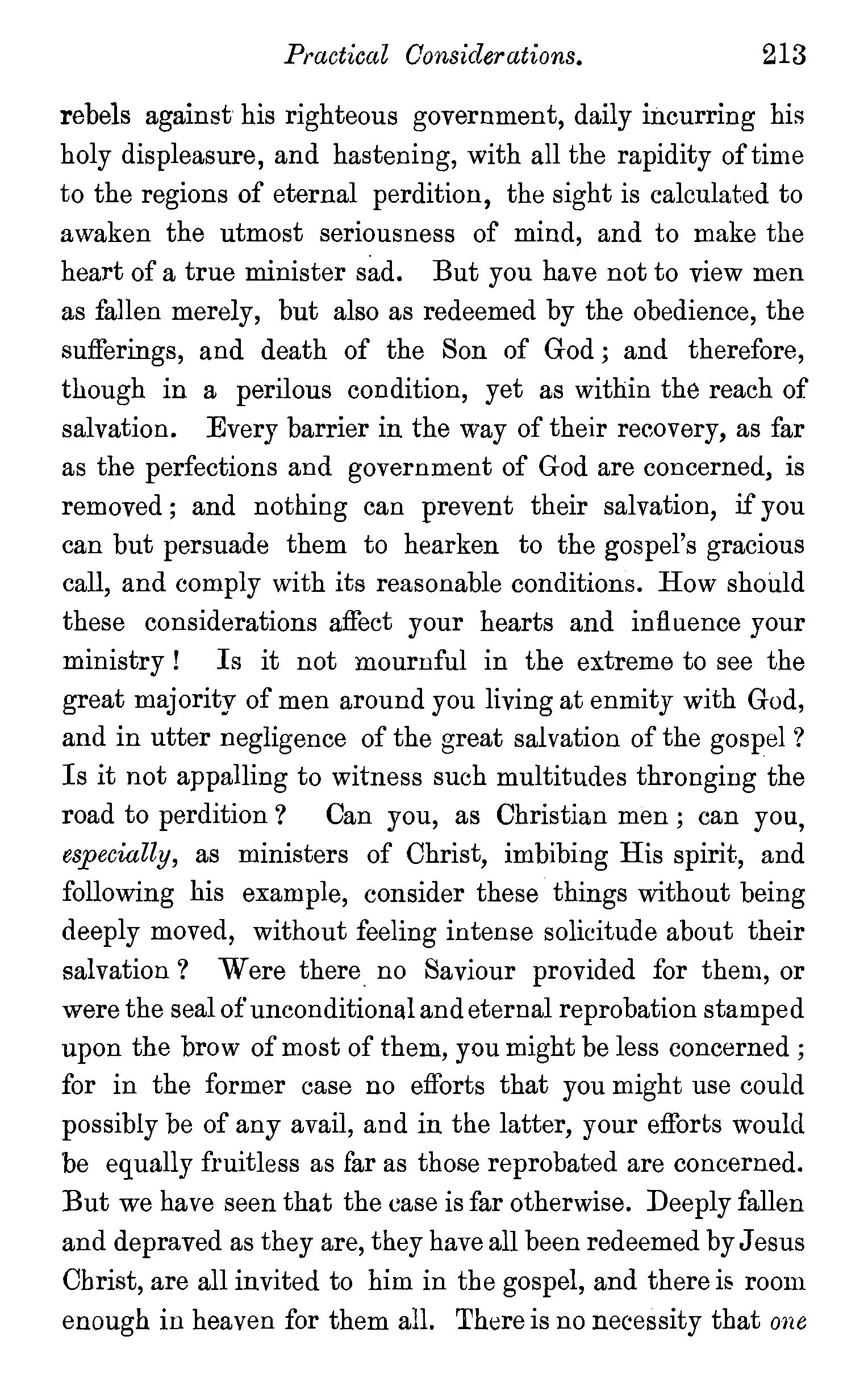
rebels against his righteous government, daily incurring his holy displeasure, and hastening, with all the rapidity of time to the regions of eternal perdition, the sight is calculated to awaken the utmost seriousness of mind, and to make the heart of a true minister sad. But you have not to view men as fallen merely, but also as redeemed by the obedience, the sufferings, and death of the Son of God ; and therefore, though in a perilous condition, yet as within the reach of salvation. Every barrier in the way of their recovery, as far as the perfections and government of God are concerned, is removed ; and nothing can prevent their salvation, if you can but persuade them to hearken to the gospel's gracious call, and comply with its reasonable conditions. How should these considerations affect your hearts and influence your ministry ! Is it not mournful in the extreme to see the great majority of men around you living at enmity with God, and in utter negligence of the great salvation of the gospel ? Is it not appalling to witness such multitudes thronging the road to perdition? Can you, as Christian men; can you, especially, as ministers of Christ, imbibing His spirit, and following his example, consider these things without being deeply moved, without feeling intense solicitude about their salvation? Were there_ no Saviour provided for them, or were the seal of unconditional and eternal reprobation stamped upon the brow of most of them, you might be less concerned ; for in the former case no efforts that you might use could possibly be of any avail, and in the latter, your efforts would be equally fruitless as far as those reprobated are concerned. But we have seen that the case is far otherwise. Deeply fallen and depraved as they are, they have all been redeemed by Jesus Christ, are all invited to him in the gospel, and there is room enough in heaven for them all. There is no necessity that one
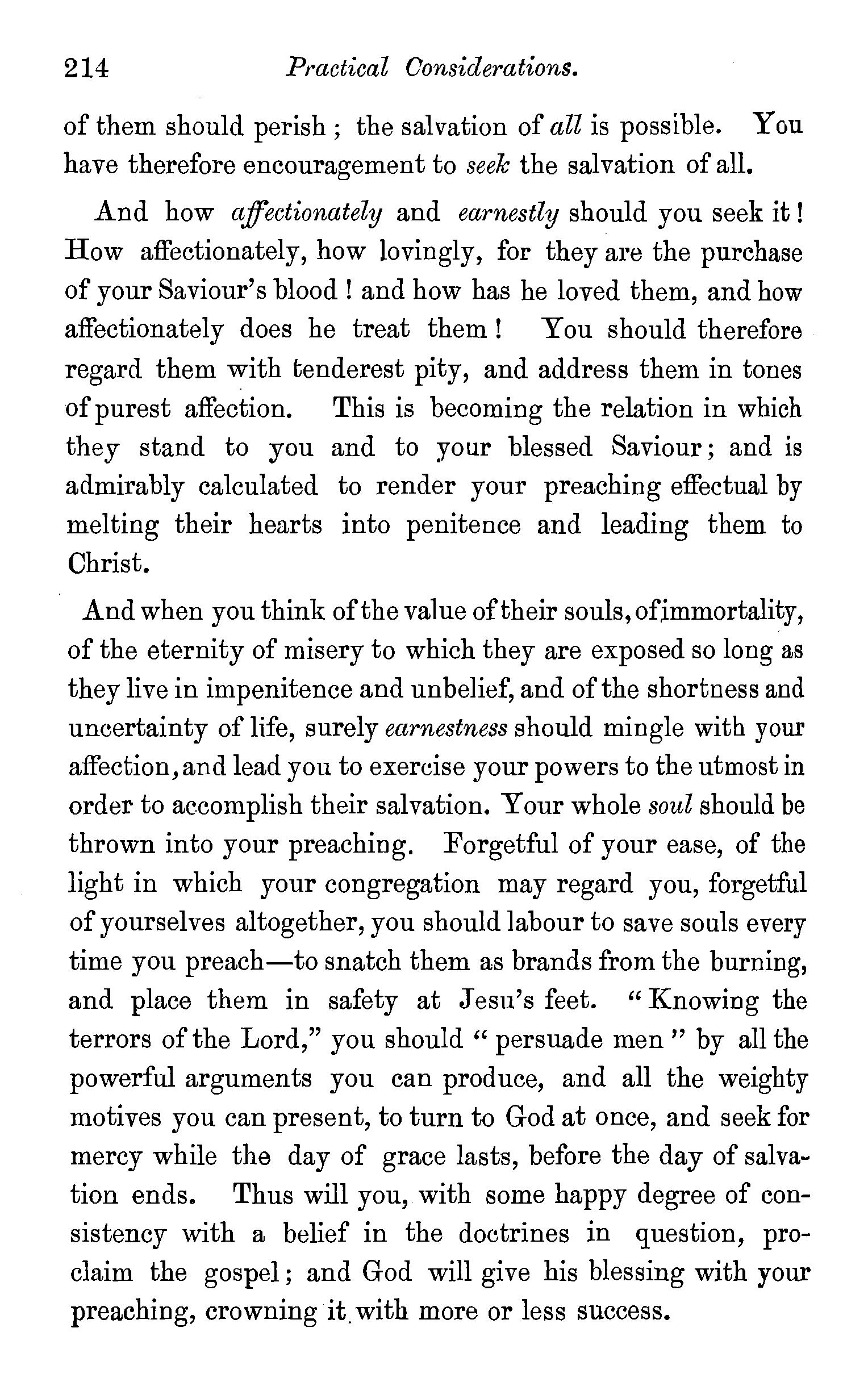
of them should perish; the salvation of all is possible. You have therefore encouragement to seelc the salvation of all.
And how affectionately and earnestly should you seek it ! How affectionately, how lovingly, for they are the purchase of your Saviour's blood! and how has he loved them, and how affectionately does he treat them ! You should therefore regard them with tenderest pity, and address them in tones of purest affection. This is becoming the relation in which they stand to you and to your blessed Saviour; and is admirably calculated to render your preaching effectual by melting their hearts into penitence and leading them to Christ.
And when you think of the value of their souls,ofimmortality, of the eternity of misery to which they are exposed so long as they live in impenitence and unbelief, and of the shortness and uncertainty of life, surely earnestness should mingle with your affection, and lead you to exercise your powers to the utmost in order to accomplish their salvation. Your whole soul should be thrown into your preaching. Forgetful of your ease, of the light in which your congregation may regard you, forgetful of yourselves altogether, you should labour to save souls every time you preach-to snatch them as brands from the burning, and place them in safety at J esu's feet. "Knowing the terrors of the Lord," you should " persuade men " by all the powerful arguments you can produce, and all the weighty motives you can present, to turn to God at once, and seek for mercy while the day of grace lasts, before the day of salvation ends. Thus will you, with some happy degree of consistency with a belief in the doctrines in question, proclaim the gospel; and God will give his blessing with your preaching, crowning it. with more or less success.
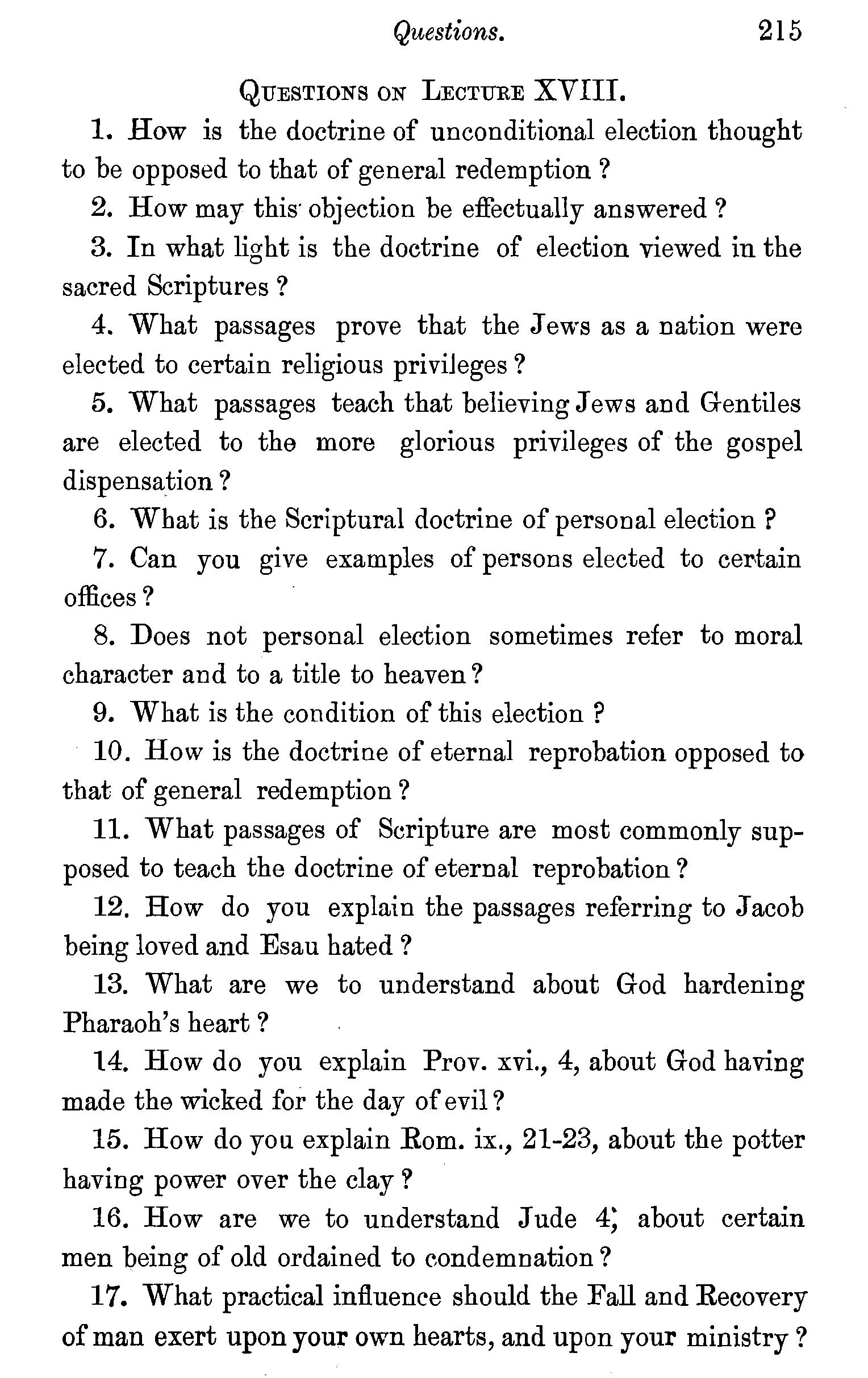
1. How is the doctrine of unconditional election thought to be opposed to that of general redemption ?
2. How may this· objection be effectually answered ?
3. In what light is the doctrine of election viewed in the sacred Scriptures ?
4. What passages prove that the Jews as a nation were elected to certain religious privileges?
5. What passages teach that believing Jews and Gentiles are elected to the more glorious privileges of the gospel dispensation ?
6. What is the Scriptural doctrine of personal election?
7. Can you give examples of persons elected to certain offices?
8. Does not personal election sometimes refer to moral character and to a title to heaven?
9. What is the condition of this election ?
10. How is the doctrine of eternal reprobation opposed to that of general redemption ?
11. What passages of Scripture are most commonly supposed to teach the doctrine of eternal reprobation?
12. How do you explain the passages referring to Jacob being loved and Esau hated ?
13. What are we to understand about God hardening Pharaoh's heart?
14. How do you explain Prov. xvi., 4, about God having made the wicked for the day of evil?
15. How do you explain Rom. ix., 21-23, about the potter having power over the clay?
16. How are we to understand Jude 4; about certain men being of old ordained to condemnation?
17. What practical influence should the Fall and Recovery of man exert upon your own hearts, and upon your ministry ?
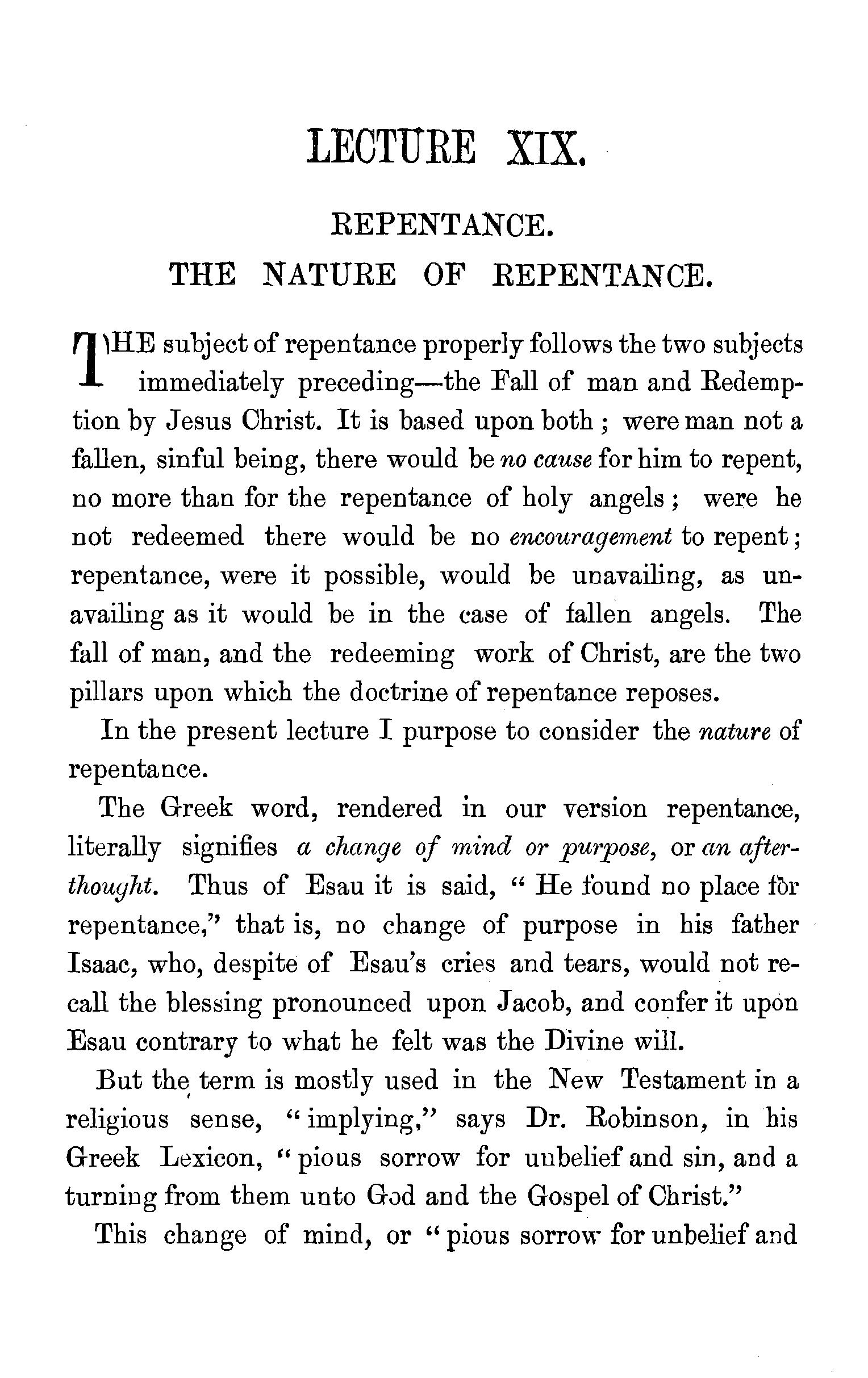
'l,HE subject of repentance properly follows the two subjects immediately preceding-the Fall of man and Redemption by Jesus Christ. It is based upon both; were man not a fallen, sinful being, there would be no cause for him to repent, no more than for the repentance of holy angels; were he not redeemed there would be no encouragement to repent ; repentance, were it possible, would be unavailing, as unavailing as it would be in the case of fallen angels. The fall of man, and the redeeming work of Christ, are the two pillars upon which the doctrine of repentance reposes.
In the present lecture I purpose to consider the nature of repentance.
The Greek word, rendered in our version repentance, literally signifies a change of mind or purpose, or an afterthought. Thus of Esau it is said, " He found no place for repentance,'' that is, no change of purpose in his father Isaac, who, despite of Esau's cries and tears, would not recall the blessing pronounced upon Jacob, and confer it upon Esau contrary to what he felt was the Divine will.
But th~ term is mostly used in the New Testament in a religious sense, "implying," says Dr. Robinson, in his Greek Lexicon, "pious sorrow for unbelief and sin, and a turning from them unto G0d and the Gospel of Christ.''
This change of mind, or " pious sorrow for unbelief and
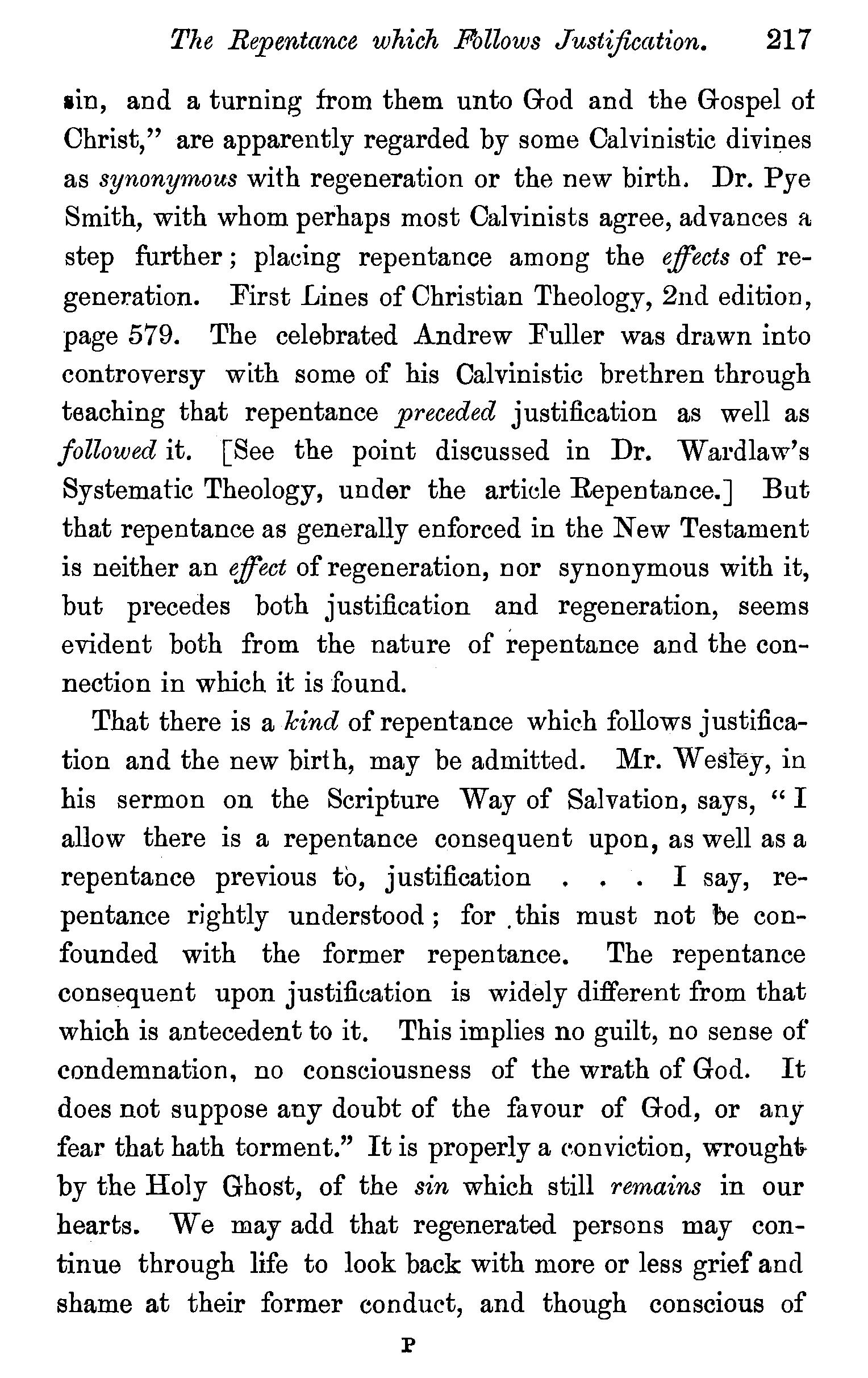
1in, and a turning from them unto God and the Gospel of Christ," are apparently regarded by some Calvinistic divines as synonymous with regeneration or the new birth. Dr. Pye Smith, with whom perhaps most Calvinists agree, advances a step further ; placing repentance among the effects of regeneration. First Lines of Christian Theology, 2nd edition, page 579. The celebrated Andrew Fuller was drawn into controversy with some of his Calvinistic brethren through teaching that repentance preceded justification as well as followed it. [See the point discussed in Dr. W ardlaw's Systematic Theology, under the article Repentance.] But that repentance as generally enforced in the New Testament is neither an effect of regeneration, nor synonymous with it, but precedes both justification and regeneration, seems evident both from the nature of repentance and the connection in which it is found.
That there is a lcind of repentance which follows justification and the new birth, may be admitted. Mr. W estey, in his sermon on the Scripture Way of Salvation, says, " I allow there is a repentance consequent upon, as well as a repentance previous to, justification . I say, repentance rightly understood ; for .this must not be confounded with the former repentance. The repentance consequent upon justifieation is widely different from that which is antecedent to it. This implies no guilt, no sense of condemnation, no consciousness of the wrath of God. It does not suppose any doubt of the favour of God, or any fear that hath torment." It is properly a conviction, wrought. by the Holy Ghost, of the sin which still remains in our hearts. We may add that regenerated persons may continue through life to look back with more or less grief and shame at their former conduct, and though conscious of
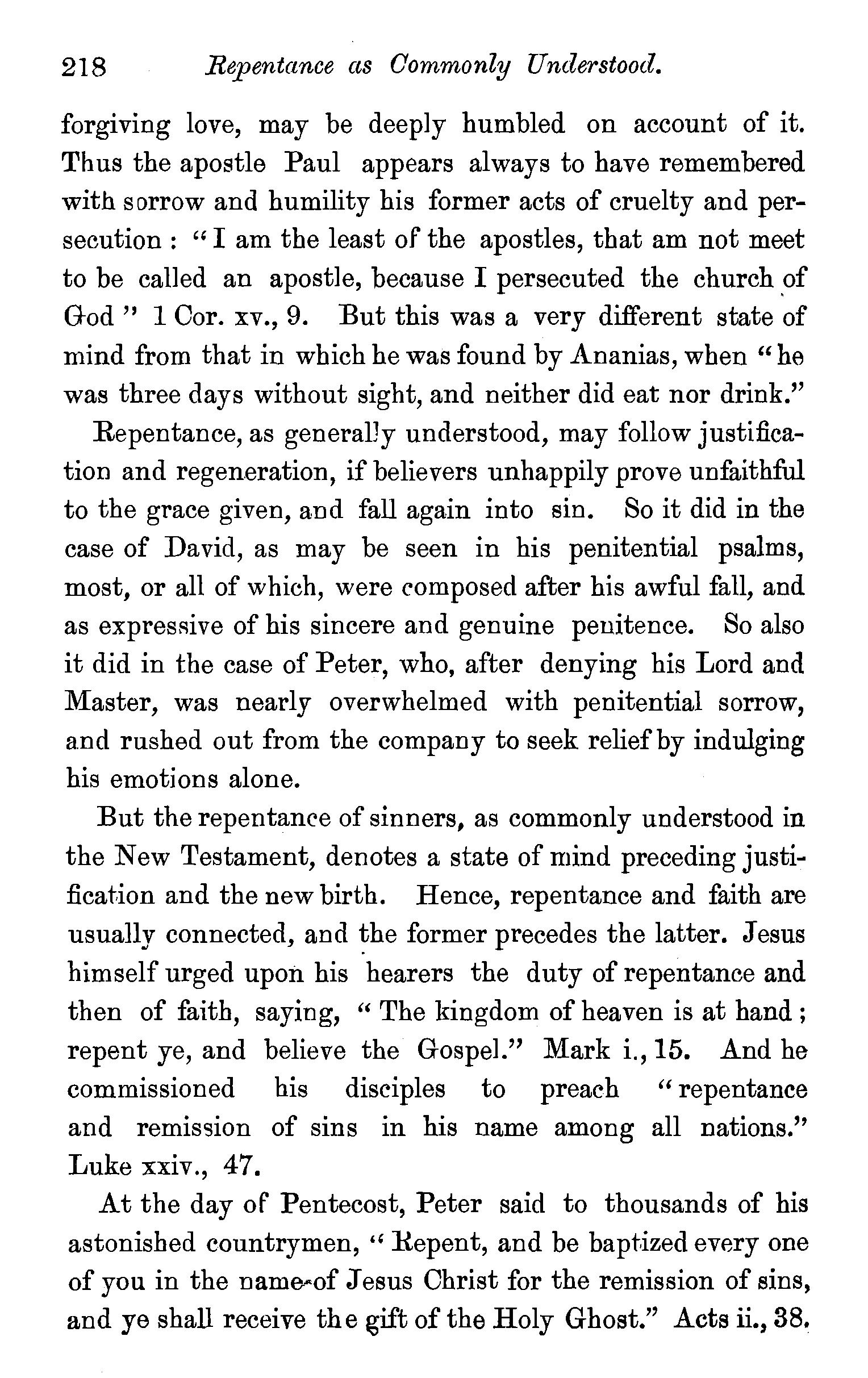
forgiving love, may be deeply humbled on account of it. Thus the apostle Paul appears always to have remembered with sorrow and humility his former acts of cruelty and persecution : " I am the least of the apostles, that am not meet to be called an apostle, because I persecuted the church _of God" 1 Oor. xv., 9. But this was a very different state of mind from that in which he was found by Ananias, when "he was three days without sight, and neither did eat nor drink.''
Repentance, as generalJy understood, may follow justification and regeneration, if believers unhappily prove unfaithful to the grace given, and fall again into sin. So it did in the case of David, as may be seen in his penitential psalms, most, or all of which, were composed after his awful fall, and as expressive of his sincere and genuine penitence. So also it did in the case of Peter, who, after denying his Lord and Master, was nearly overwhelmed with penitential sorrow, and rushed out from the company to seek relief by indulging his emotions alone.
But the repentance of sinners, as commonly understood in the New Testament, denotes a state of mind preceding justificatfon and the new birth. Hence, repentance and faith are usually connected, and ~he former precedes the latter. Jesus himself urged upon his hearers the duty of repentance and then of faith, saying, " The kingdom of heaven is at hand ; repent ye, and believe the Gospel." Mark i., 15. And he commissioned his disciples to preach "repentance and remission of sins in his name among all nations.'' Luke xxiv., 47.
At the day of Pentecost, Peter said to thousands of his astonished countrymen, '' Repent, and be baptized every one of you in the name,,of Jesus Christ for the remission of sins, and ye shall receive the ~ift of the Holy Ghost." Acts ii., 38,
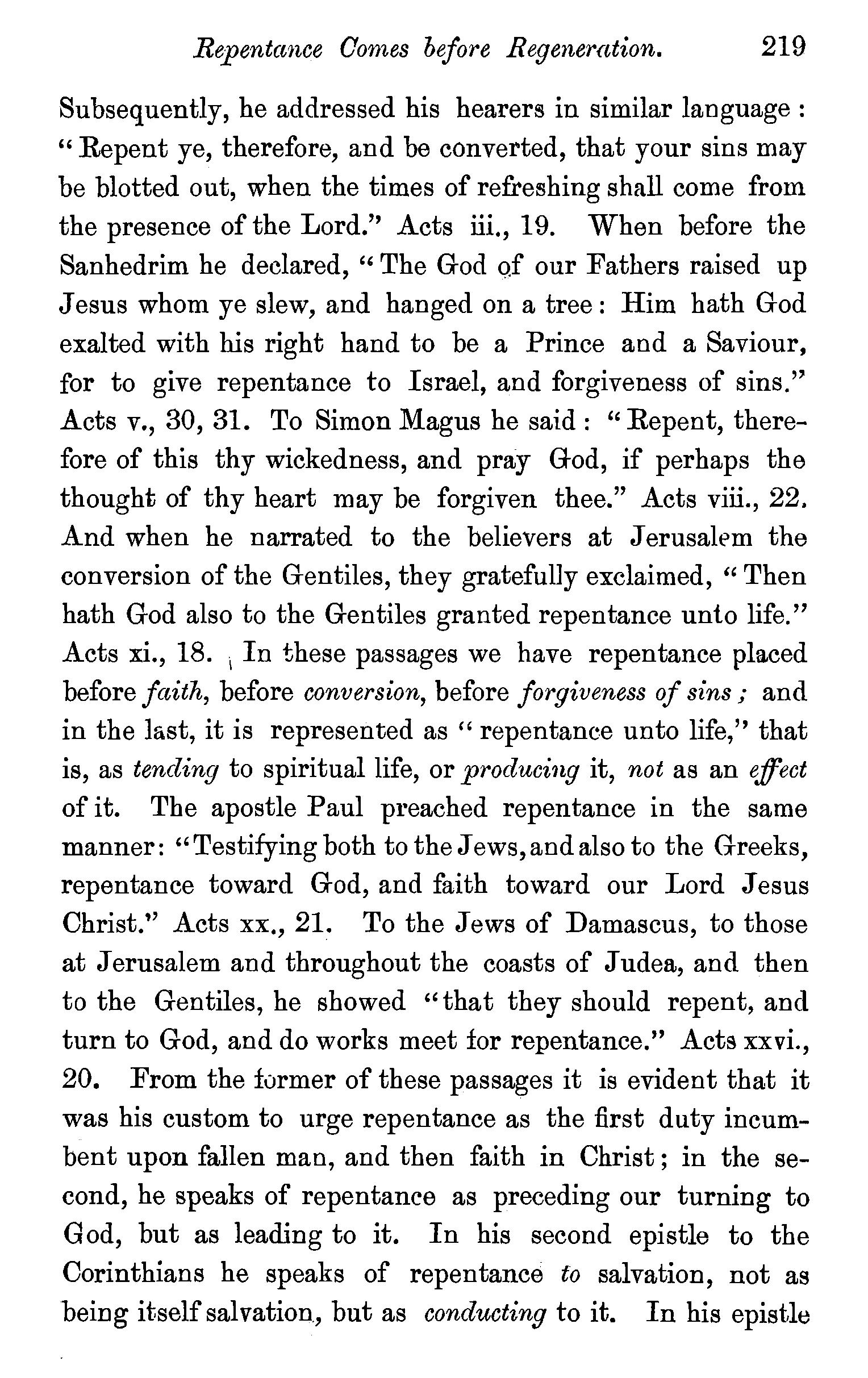
Subsequently, he addressed his hearers in similar language: "Repent ye, therefore, and be converted, that your sins may be blotted out, when the times of refreshing shall come from the presence of the Lord.'' Acts iii., 19. When before the Sanhedrim he declared, "The God qf our Fathers raised up Jesus whom ye slew, and hanged on a tree : Him hath God exalted with his right hand to be a Prince and a Saviour, for to give repentance to Israel, and forgiveness of sins." Acts v., 30, 31. To Simon Magus he said : "Repent, therefore of this thy wickedness, and pray God, if perhaps the thought of thy heart may be forgiven thee." Acts viii., 22. And when he narrated to the believers at Jerusalem the conversion of the Gentiles, they gratefully exclaimed, " Then hath God also to the Gentiles granted repentance unto life." Acts xi., 18. 1 In these passages we have repentance placed before faith, before conversion, before forgiveness of sins ; and in the fast, it is represented as "repentance unto life,'' that is, as tending to spiritual life, or producing it, not as an effect of it. The apostle Paul preached repentance in the same manner: "Testifying both to theJews,andalso to the Greeks, repentance toward God, and faith toward our Lord Jesus Christ." Acts xx., 21. To the Jews of Damascus, to those at Jerusalem and throughout the coasts of Judea, and then to the Gentiles, he showed "that they should repent, and turn to God, and do works meet for repentance." Acts xxvi., 20. From the former of these passages it is evident that it was his custom to urge repentance as the first duty incumbent upon fallen man, and then faith in Christ ; in the second, he speaks of repentance as preceding our turning to God, but as leading to it. In his second epistle to the Corinthians he speaks of repentance to salvation, not as being itself salvation, but as conducting to it. In his epistle
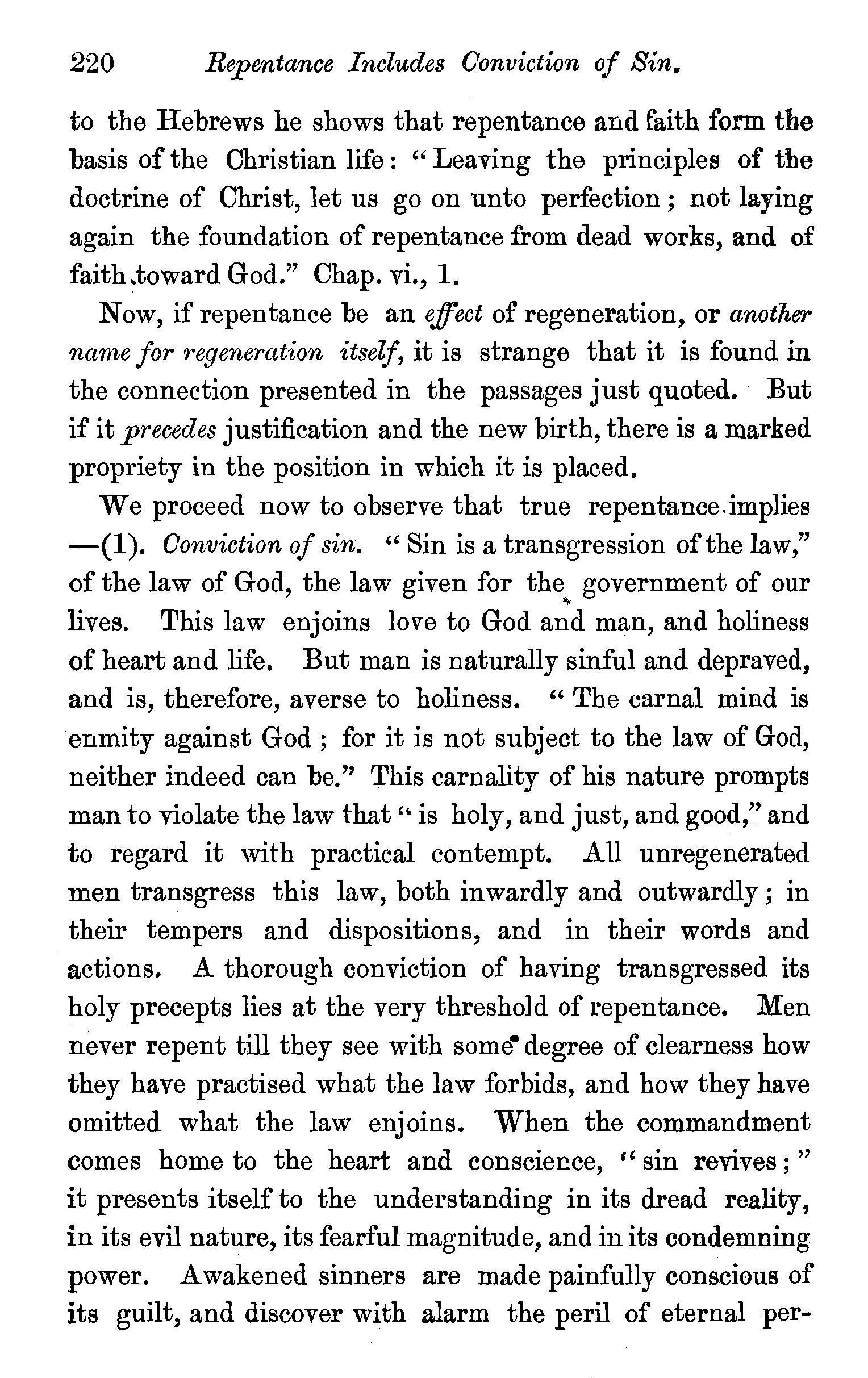
to the Hebrews he shows that repentance and faith form the basis of the Christian life : "Leaving the principles of the doctrine of Christ, let us go on unto perfection ; not laying again the foundation of repentance from dead works, and of faith.toward God." Chap. vi., 1.
Now, if repentance be an effect of regeneration, or anoth(!JI' name for regeneration itself, it is strange that it is found in the connection presented in the passages just quoted. But if it precedes justification and the new birth, there is a marked propriety in the position in which it is placed.
We proceed now to observe that true repentance.implies -(1 ). Conviction of sin. " Sin is a transgression of the law," of the law of God, the law given for the government of our ., lives. This law enjoins love to God and man, and holiness of heart and life. But man is naturally sinful and depraved, and is, therefore, averse to holiness. " The carnal mind is enmity against God ; for it is not subject to the law of God, neither indeed can be." This carnality of his nature prompts man to violate the law that'' is holy, and just, and good," and to regard it with practical contempt. AU unregenerated men transgress this law, both inwardly and outwardly; in their tempers and dispositions, and in their words and actions. A thorough conviction of having transgressed its holy precepts lies at the very threshold of repentance. Men never repent till they see with some•degree of clearness how they have practised what the law forbids, and how they have omitted what the law enjoins. When the commandment comes home to the heart and consciecce, '' sin revives;" it presents itself to the understanding in its dread reality, in its evil nature, its fearful magnitude, and in its condemning power. Awakened sinners are made painfully conscious of its guilt, and discover with alarm the peril of eternal per-
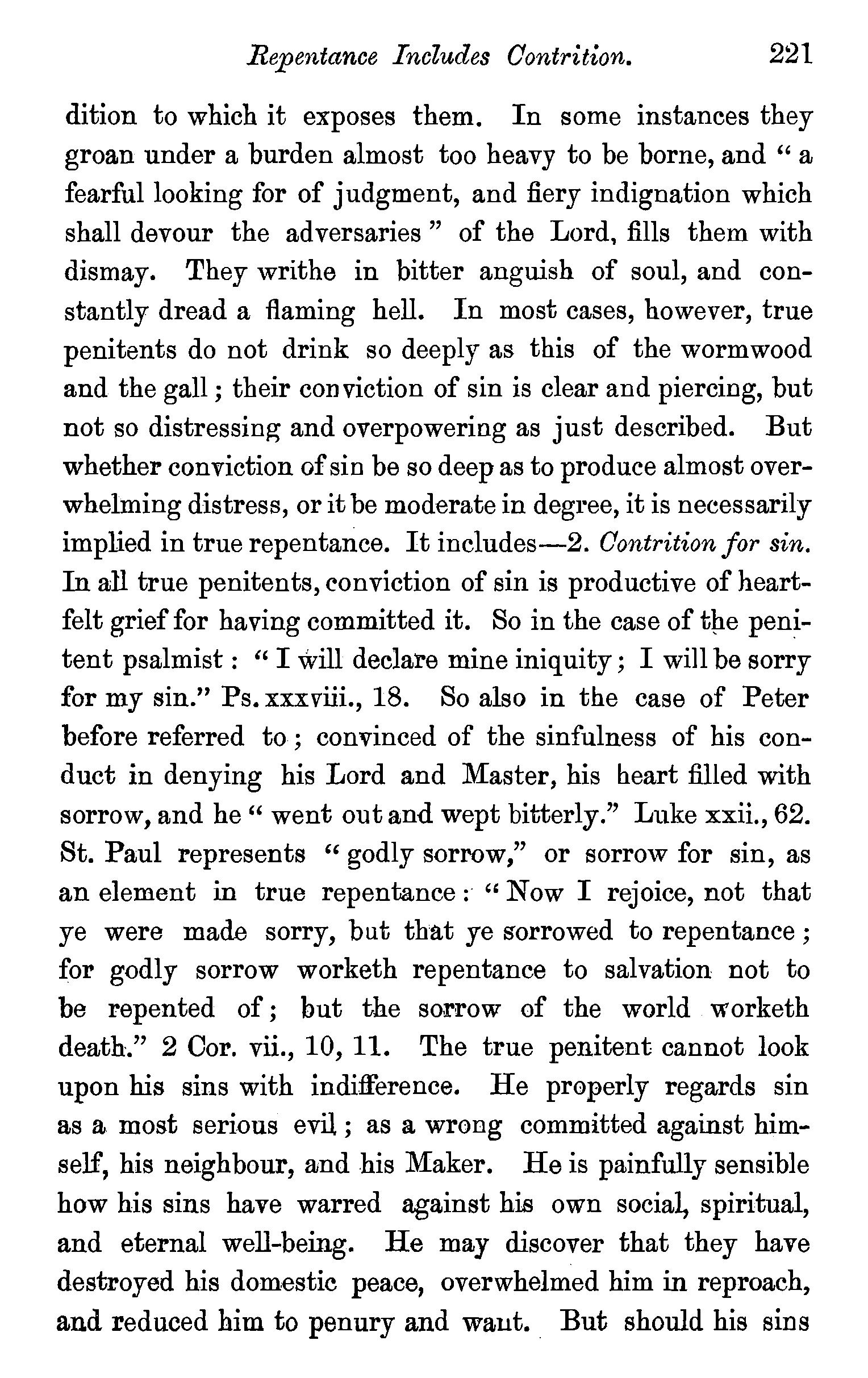
dition to which it exposes them. In some instances they groan under a burden almost too heavy to be borne, and " a fearful looking for of judgment, and fiery indignation which shall devour the adversaries" of the Lord, fills them with dismay. They writhe in bitter anguish of soul, and constantly dread a flaming hell. In most cases, however, true penitents do not drink so deeply as this of the wormwood and the gall; their conviction of sin is clear and piercing, but not so distressing and overpowering as just described. But whether conviction of sin be so deep as to produce almost overwhelming distress, or it be moderate in degree, it is necessarily implied in true repentance. It includes-2. Contrition for sin. In all true penitents, conviction of sin is productive of heartfelt grief for having committed it. So in the case of tp.e penitent psalmist : " I will declare mine iniquity; I will be sorry for my sin." Ps. xxxviii., 18. So also in the case of Peter before referred to; convinced of the sinfulness of his conduct in denying his Lord and Master, his heart filled with sorrow, and he" went out and wept bitterly." Luke xxii., 62. St. Paul represents "godly sorrow," or sorrow for sin, as an element in true repentance: "Now I rejoice, not that ye were made sorry, but that ye sorrowed to repentance; for godly sorrow worketh repentance to salvation not to be repented of; but the sorrow of the world worketh death." 2 Cor. vii., 10, 11. The true penitent cannot look upon his sins with indifference. He properly regards sin as a most serious evil ; as a wrong committed against himself, his neighbour, and his Maker. He is painfully sensible how his sins have warred against his own socia~ spiritual, and eternal well-being. He may discover that they have destroyed his domestic peace, overwhelmed him in reproach, and reduced him to penury and waut. But should his sins
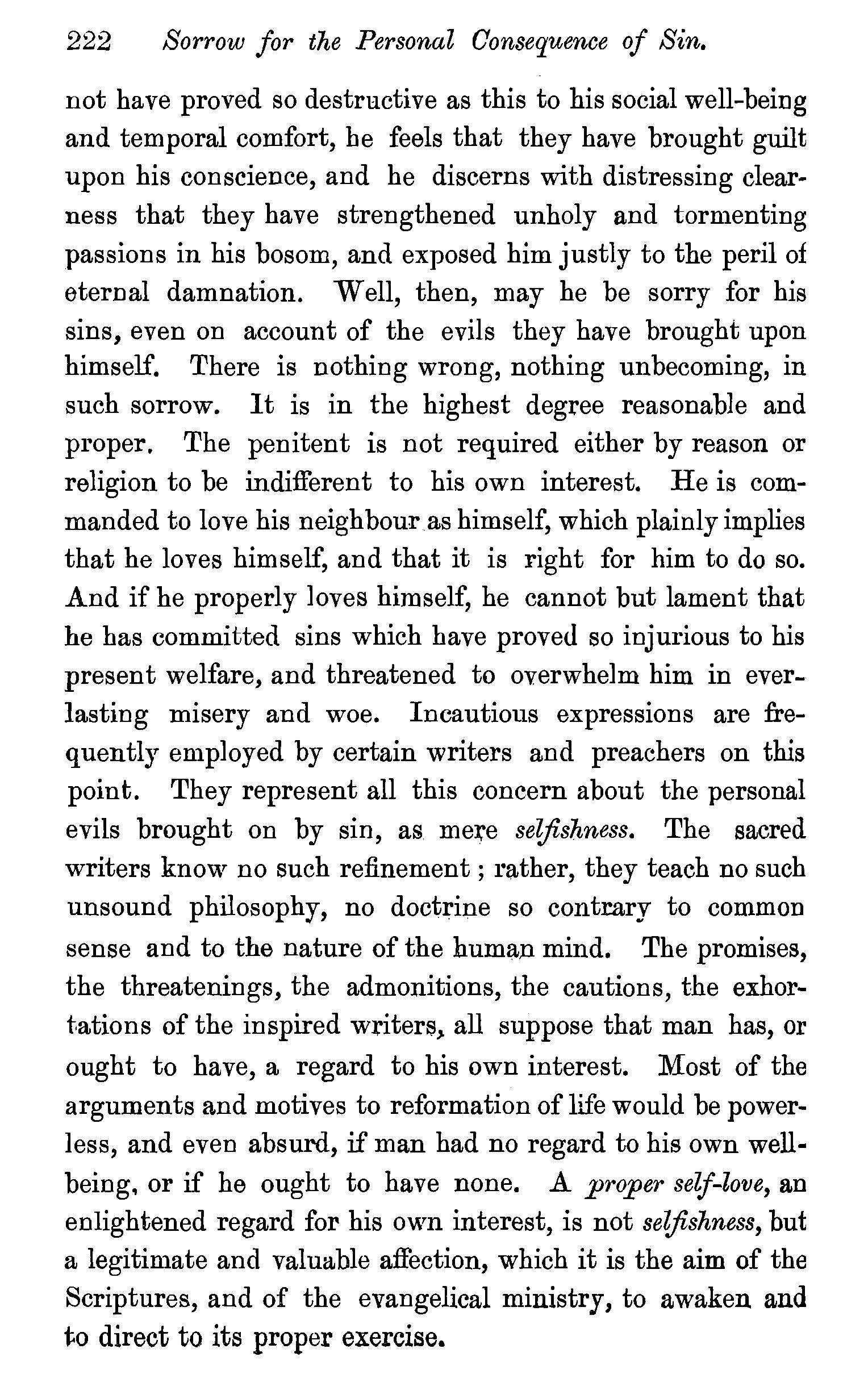
not have proved so destructive as this to his social well-being and temporal comfort, he feels that they have brought guilt upon his conscience, and he discerns with distressing clear• ness that they have strengthened unholy and tormenting passions in his bosom, and exposed him justly to the peril of eternal damnation. Well, then, may he be sorry for his sins, even on account of the evils they have brought upon himself. There is nothing wrong, nothing unbecoming, in such sorrow. It is in the highest degree reasonable and proper. The penitent is not required either by reason or religion to be indifferent to his own interest. He is commanded to love his neighbour as himself, which plainly implies that he loves himself, and that it is right for him to do so. And if he properly loves himself, he cannot but lament that he has committed sins which have prove<l so injurious to his present welfare, and threatened to overwhelm him in everlasting misery and woe. Incautious expressions are frequently employed by certain writers and preachers on this point. They represent all this concern about the personal evils brought on by sin, as me:r;e selfishness. The sacred writers know no such refinement ; rather, they teach no such unsound philosophy, no doctrine so contrary to common sense and to the nature of the huma;n mind. The promises, the threatenings, the admonitions, the cautions, the exhort.ations of the inspired writers,. all suppose that man has, or ought to have, a regard to his own interest. Most of the arguments and motives to reformation of life would be powerless, and even absurd, if man had no regard to his own wellbeing, or if he ought to have none. A proper self-love, an enlightened regard for his own interest, is not selfishness, but a legitimate and valuable affection, which it is the aim of the Scriptures, and of the evangelical ministry, to awaken and to direct to its proper exercise.
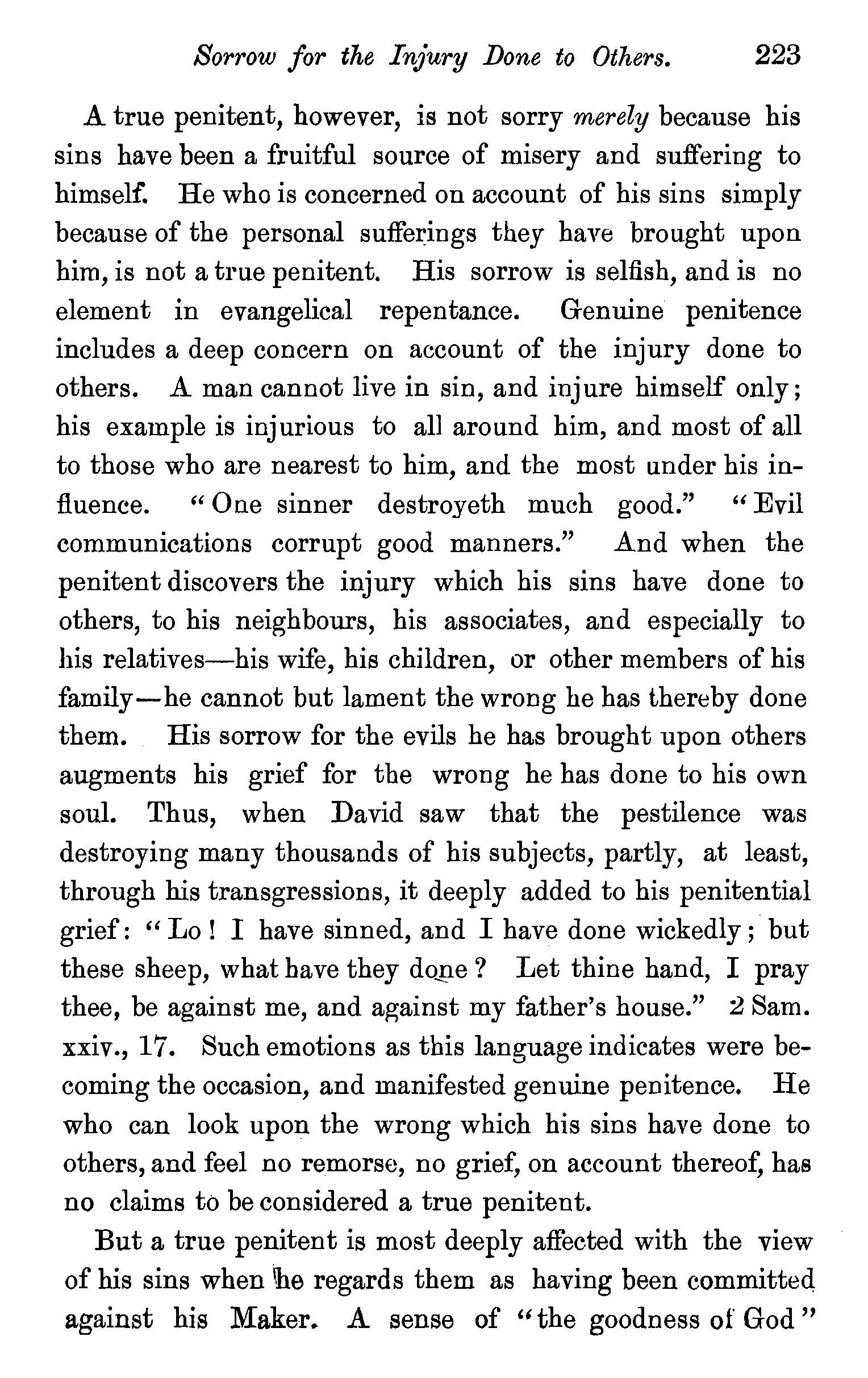
A true penitent, however, is not sorry merely because his sins have been a fruitful source of misery and suffering to himself. He who is concerned on account of his sins simply because of the personal sufferings they have brought upon him, is not a true penitent. His sorrow is selfish, and is no element in evangelical repentance. Genuine penitence includes a deep concern on account of the injury done to others. A man cannot live in sin, and injure himself only; his example is injurious to all around him, and most of all to those who are nearest to him, and the most under his influence. "One sinner destroyeth much good." "Evil communications corrupt good manners." And when the penitent discovers the injury which his sins have done to others, to his neighbours, his associates, and especially to his relatives-his wife, his children, or other members of his family-he cannot but lament the wrong he has thereby done them. His sorrow for the evils he has brought upon others augments his grief for the wrong he has done to his own soul. Thus, when David saw that the pestilence was destroying many thousands of his subjects, partly, at least, through his transgressions, it deeply added to his penitential grief: " Lo ! I have sinned, and I have done wickedly; but these sheep, what have they do.11-e? Let thine hand, I pray thee, be against me, and against my father's house." 2 Sam. xxiv., 17. Such emotions as this language indicates were becoming the occasion, and manifested genuine penitence. He who can look upon the wrong which his sins have done to others, and feel no remorse, no grief, on account thereof, has no claims to be considered a true penitent. But a true penitent is most deeply affected with the view of his sins when \he regards them as having been committed against his Maker. A sense of "the goodness of God"
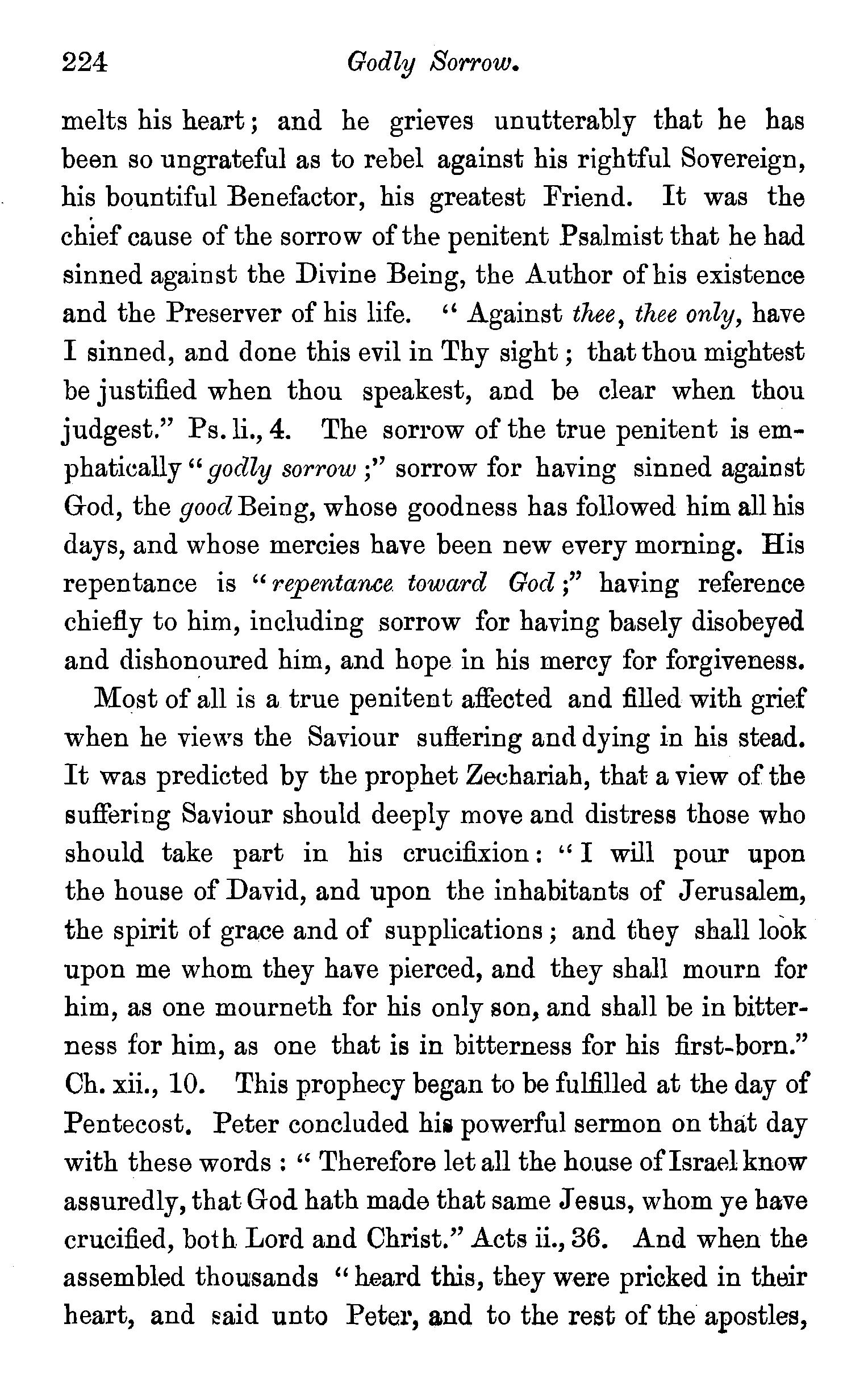
melts his heart; and he grieves unutterably that he has been so ungrateful as to rebel against his rightful Sovereign, his bountiful Benefactor, his greatest Friend. It was the chief cause of the sorrow of the penitent Psalmist that he had sinned against the Divine Being, the Author of his existence and the Preserver of his life. '' Against thee, thee only, have I sinned, and done this evil in Thy sight ; that thou mightest be justified when thou speakest, and be clear when thou judgest." Ps. li., 4. The sorrow of the true penitent is emphatically" godly sorrow;'' sorrow for having sinned against God, the good Being, whose goodness has followed him all his days, and whose mercies have been new every morning. His repentance is "repentance toward God;" having reference chiefly to him, including sorrow for having basely disobeyed and dishonoured him, and hope in his mercy for forgiveness. Most of all is a true penitent affected and filled with grief when he views the Saviour suffering and dying in his stead. It was predicted by the prophet Zechariah, that a view of the suffering Saviour should deeply move and distress those who should take part in his crucifixion : " I will pour upon the house of David, and upon the inhabitants of Jerusalem, the spirit of grace and of supplications; and they shall look upon me whom they have pierced, and they shall mourn for him, as one mourneth for his only son, and shall be in bitterness for him, as one that is in bitterness for his first-born." Ch. xii., 10. This prophecy began to be fulfilled at the day of Pentecost. Peter concluded hii powerful sermon on that day with these words : " Therefore let all the house of Israel know assuredly, that God hath made that same Jesus, whom ye have crucified, both Lord and Christ." Acts ii., 36. And when the assembled thousands "heard this, they were pricked in their heart, and mid unto Peter, and to the rest of the apostles,
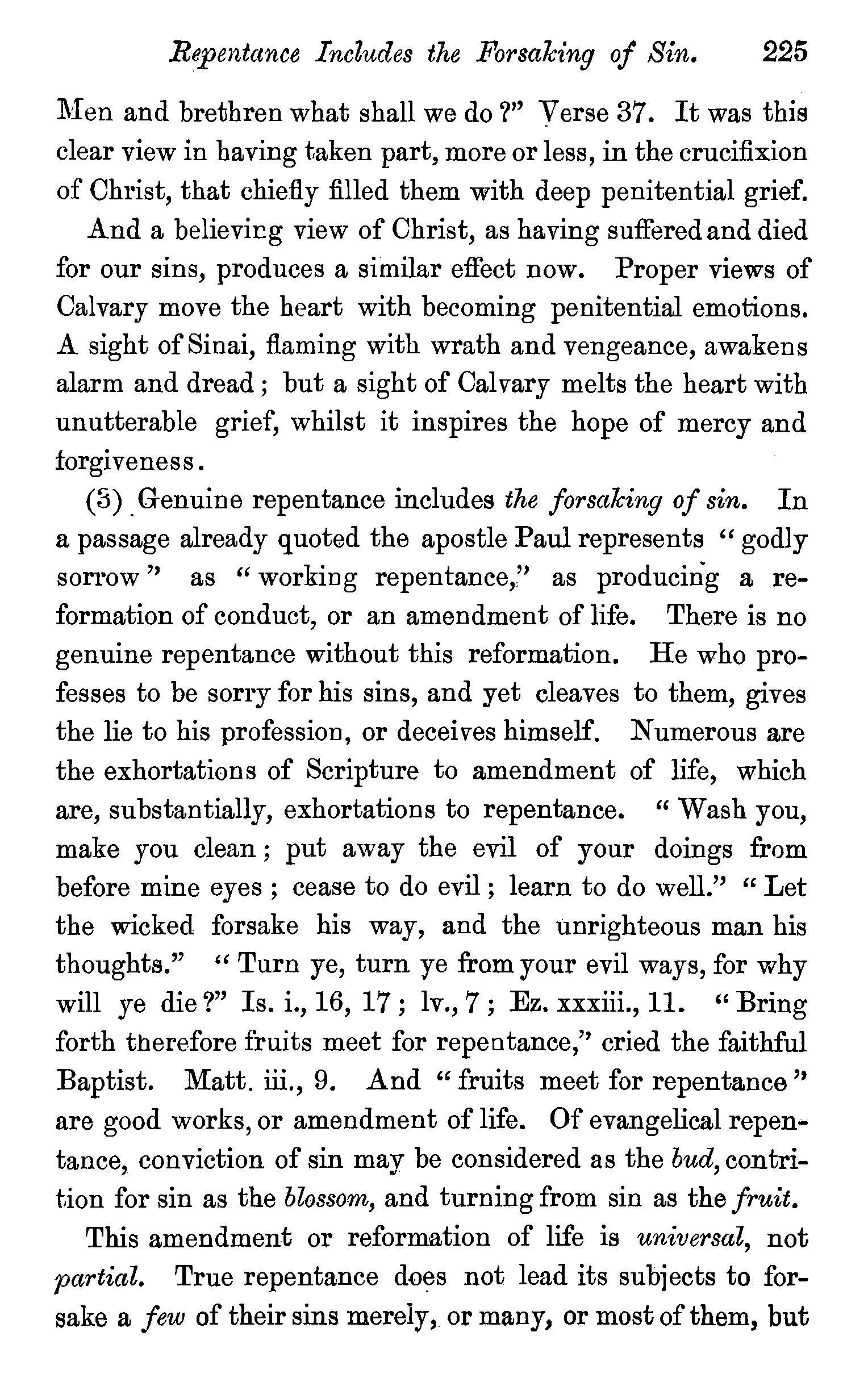
:Men and brethren what shall we do?'' Verse 37. It was this clear view in having taken part, more or less, in the crucifixion of Christ, that chiefly filled them with deep penitential grief. And a believi~g view of Christ, as having suffered and died for our sins, produces a simila.r effect now. Proper views of Calvary move the heart with becoming penitential emotions. A sight of Sinai, flaming with wrath and vengeance, awakens alarm and dread; but a sight of Calvary melts the heart with unutterable grief, whilst it inspires the hope of mercy and forgiveness.
(3). Genuine repentance includes the forsaking of sin. In a passage already quoted the apostle Paul represents "godly sorrow'' as "working repentance," as producing a reformation of conduct, or an amendment of life. There is no genuine repentance without this reformation. He who professes to be sorry for his sins, and yet cleaves to them, gives the lie to his profession, or deceives himself. Numerous are the exhortations of Scripture to amendment of life, which are, substantially, exhortations to repentance. "Wash you, make you clean; put away the evil of your doings from before mine eyes ; cease to do evil ; learn to do well.'' " Let the wicked forsake his way, and the unrighteous man his thoughts." " Turn ye, turn ye from your evil ways, for why will ye die?" Is. i., 16, 17; lv., 7; Ez. xxxiii., 11. "Bring forth therefore fruits meet for repentance,'' cried the faithful Baptist. Matt. iii., 9. And "fruits meet for repentance'' are good works, or amendment of life. Of evangelical repentance, conviction of sin may be considered as the bud, contrition for sin as the blossom,and turning from sin as the fruit. This amendment or reformation of life is universal, not partial. True repentance does not lead its subjects to forsake a few of their sins merely, or many, or most of them, but
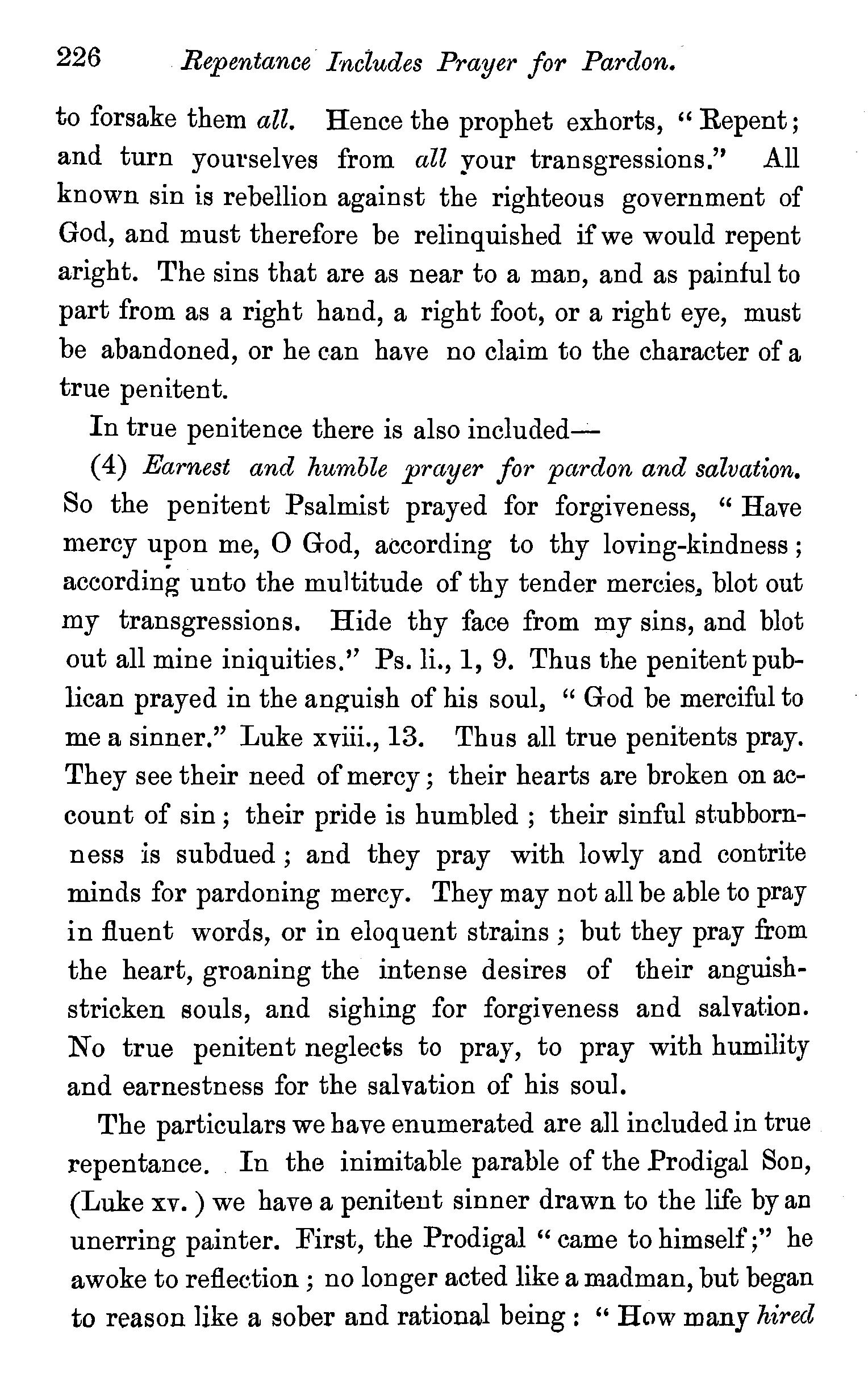
Repentance Includes Prayer for Pardon.
to forsake them all. Hence the prophet exhorts, "Repent; and turn yourselves from all your transgressions." All known sin is rebellion against the righteous government of God, and must therefore be relinquished if we would repent aright. The sins that are as near to a man, and as painful to part from as a right hand, a right foot, or a right eye, must be abandoned, or he can have no claim to the character of a true penitent.
In true penitence there is also included( 4) Earnest and humble prctyer for pardon and salvation.
So the penitent Psalmist prayed for forgiveness, "Have mercy upon me, 0 God, according to thy loving-kindness ; according unto the multitude of thy tender mercies, blot out my transgressions. Hide thy face from my sins, and blot out all mine iniquities." Ps. li., 1, 9. Thus the penitent publican prayed in the anguish of his soul, " God be merciful to me a sinner." Luke xviii., 13. Thus all true penitents pray. They see their need of mercy; their hearts are broken on account of sin; their pride is humbled ; their sinful stubbornness is subdued; and they pray with lowly and contrite minds for pardoning mercy. They may not all be able to pray in fluent words, or in eloquent strains; but they pray from the heart, groaning the intense desires of their anguishstricken souls, and sighing for forgiveness and salvation. No true penitent neglec~s to pray, to pray with humility and earnestness for the salvation of his soul.
The particulars we have enumerated are all included in true repentance. In the inimitable parable of the Prodigal Son, (Luke xv.) we have a penitent sinner drawn to the life by an unerring painter. First, the Prodigal "came to himself;'' he awoke to reflection ; no longer acted like a madman, but began to reason like a sober and rational being: '' How many hirecl
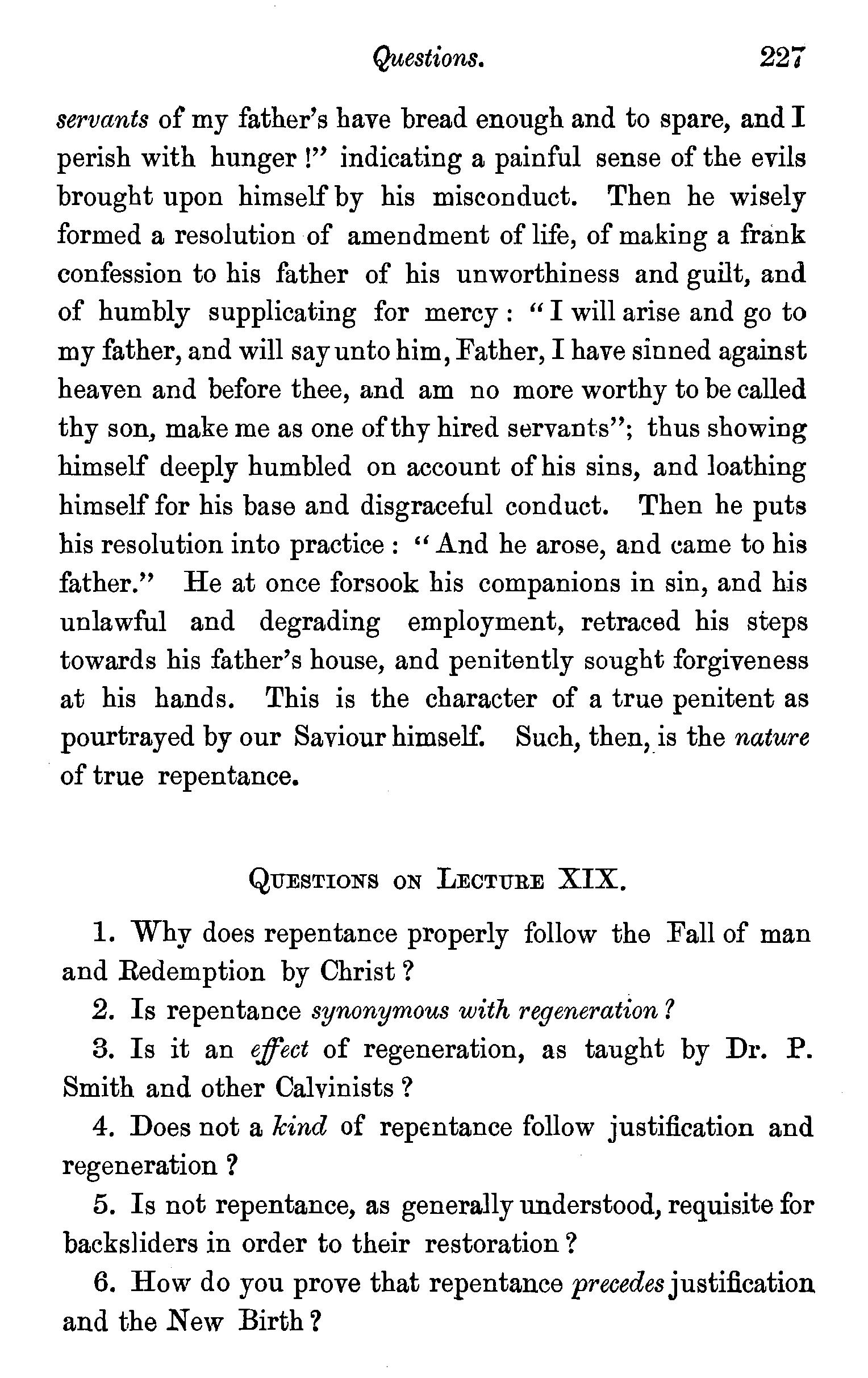
servants of my father's have bread enough and to spare, and I perish with hunger !" indicating a painful sense of the evils brought upon himself by his misconduct. Then he wisely formed a resolution of amendment of life, of making a frank confession to his father of his unworthiness and guilt, and of humbly supplicating for mercy : "I will arise and go to my father, and will say unto him, Father, I have sinned against heaven and before thee, and am no more worthy to be called thy son, make me as one of thy hired servants"; thus showing himself deeply humbled on account of his sins, and loathing himself for his base and disgraceful conduct. Then he puts his resolution into practice : "And he arose, and came to his father." He at once forsook his companions in sin, and his unlawful and degrading employment, retraced his steps towards his father's house, and penitently sought forgiveness at his hands. This is the character of a true penitent as pourtrayed by our Saviour himself. Such, then, is the nature of true repentance.
ON LECTURE XIX.
1. Why does repentance properly follow the Fall of man and Redemption by Christ ?
2. Is repentance synonymous with regeneration?
3. Is it an effect of regeneration, as taught by Dr.P. Smith and other Calvinists?
4. Does not a kind of repentance follow justification and regeneration ?
5. Is not repentance, as generally understood, requisite for backsliders in order to their restoration?
6. How do you prove that repentance precedesjustification and the New Birth ?
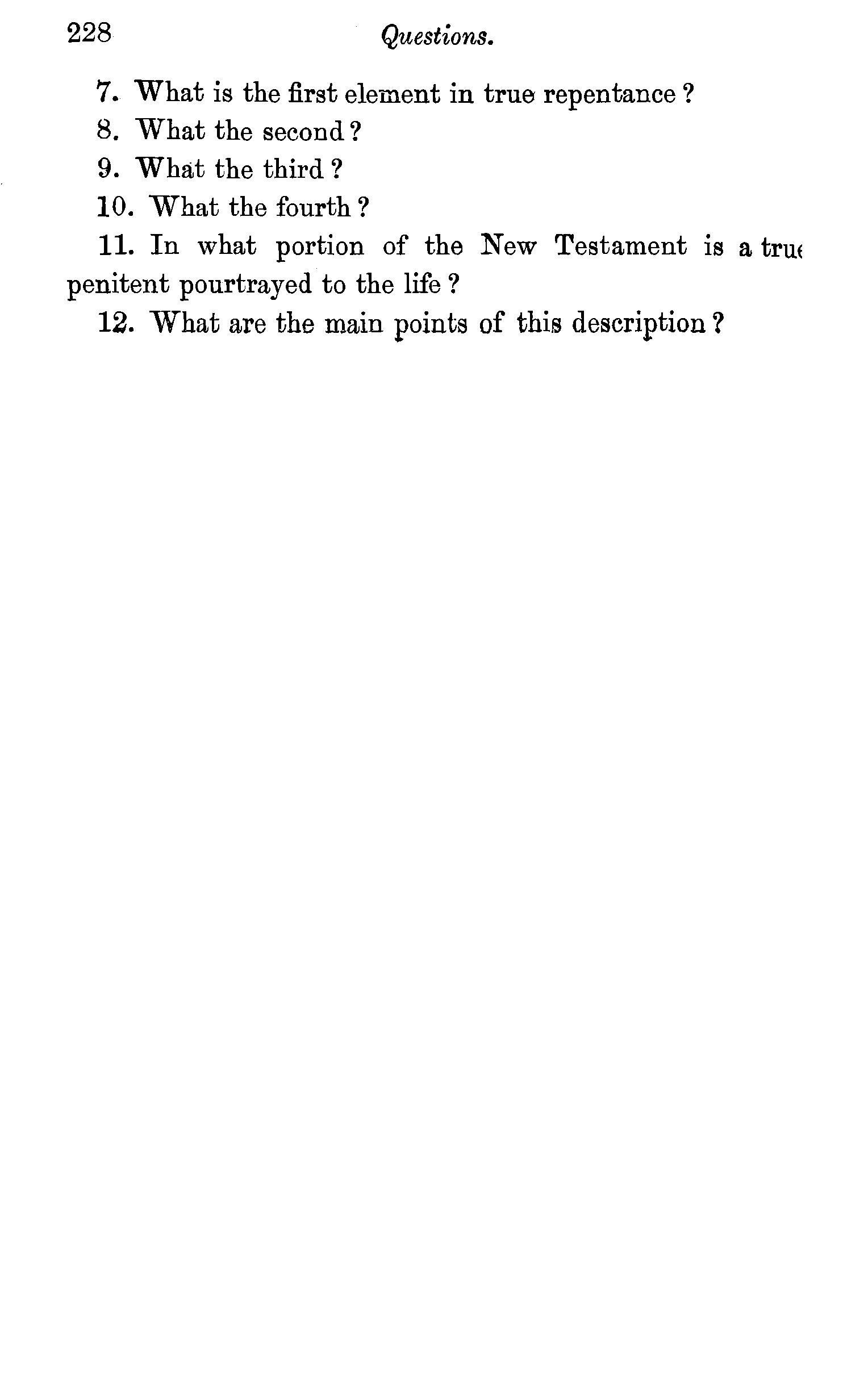
7. What is the first element in true repentance ?
8. What the second?
9. What the third?
10. What the fourth?
11. In what portion of the New Testament is a truE penitent pourtrayed to the life?
12. What are the main points of this description?
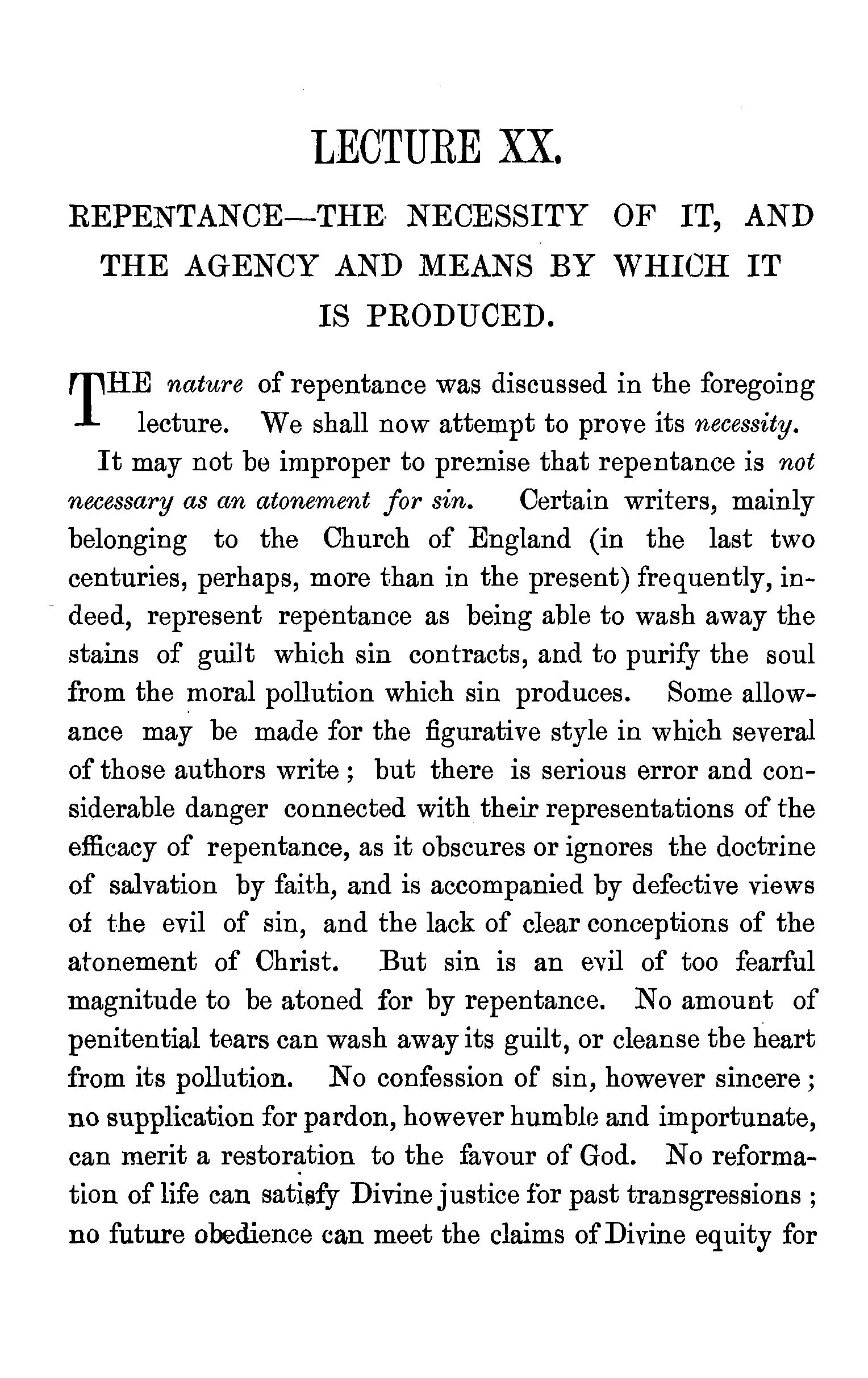
REPENTANCE-THE· NECESSITY OF IT, AND THE AGENCY AND MEANS BY WHICH IT IS
THE nature of repentance was discussed in the foregoing lecture. We shall now attempt to prove its necessity. It may not be improper to premise that repentance is not necessary as an atonement for sin. Certain writers, mainly belonging to the Church of England (in the last two centuries, perhaps, more than in the present) frequently, indeed, represent repentance as being able to wash away the stains of guilt which sin contracts, and to purify the soul from the moral pollution which sin produces. Some allowance may be made for the figurative style in which several of those authors write ; but there is serious error and considerable danger connected with their representations of the efficacy of repentance, as it obscures or ignores the doctrine of salvation by faith, and is accompanied by defective views of the evil of sin, and the lack of clear conceptions of the atonement of Christ. But sin is an evil of too fearful magnitude to be atoned for by repentance. No amount of penitential tears can wash away its guilt, or cleanse tbe heart from its pollution. No confession of sin, however sincere; no supplication for pardon, however humble and importunate, can merit a restoration to the favour of God. No reformation of life can satiijfy Divine justice for past transgressions ; no future obedience can meet the claims of Divine equity for
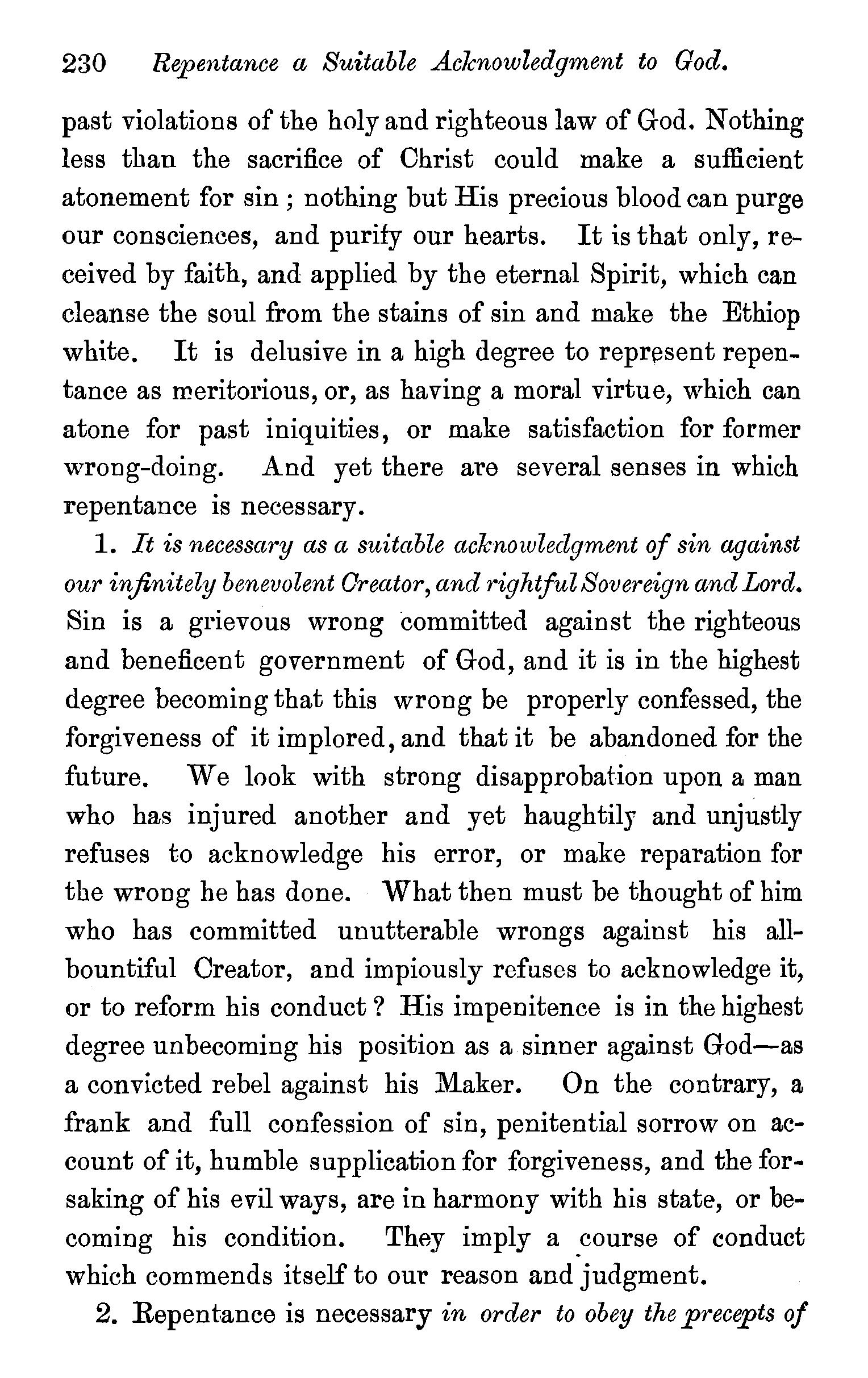
230 Repentance a Suitable Acknowledgment to God. past violations of the holy and righteous law of God. Nothing less than the sacrifice of Christ could make a sufficient atonement for sin ; nothing but His precious blood can purge our consciences, and purify our hearts. It is that only, received by faith, and applied by the eternal Spirit, which can cleanse the soul from the stains of sin and make the Ethiop white. It is delusive in a high degree to repr~sent repentance as meritorious, or, as having a moral virtue, which can atone for past iniquities, or make satisfaction for former wrong-doing. And yet there a-re several senses in which repentance is necessary.
1. It is necessary as a suita,ble aclcnowleclgmentof sin against our in.finitely benevolent Creator, and rightful Sovereign and Lord. Sin is a grievous wrong committed against the righteous and beneficent government of God, and it is in the highest degree becoming that this wrong be properly confessed, the forgiveness of it implored, and that it be abandoned for the future. We look with strong disapprobation upon a man who has injured another and yet haughtily and unjustly refuses to acknowledge his error, or make reparation for the wrong he has done. What then must be thought of him who has committed unutterable wrongs against his allbountiful Creator, and impiously refuses to acknowledge it, or to reform his conduct ? His impenitence is in the highest degree unbecoming his position as a sinner against God-as a convicted rebel against his Maker. On the contrary, a frank and full confession of sin, penitential sorrow on account of it, humble supplication for forgiveness, and the forsaking of his evil ways, are in harmony with his state, or becoming his condition. They imply a _course of conduct which commends itself to our reason and judgment.
2. Repentance is necessary in order to obey the precepts of
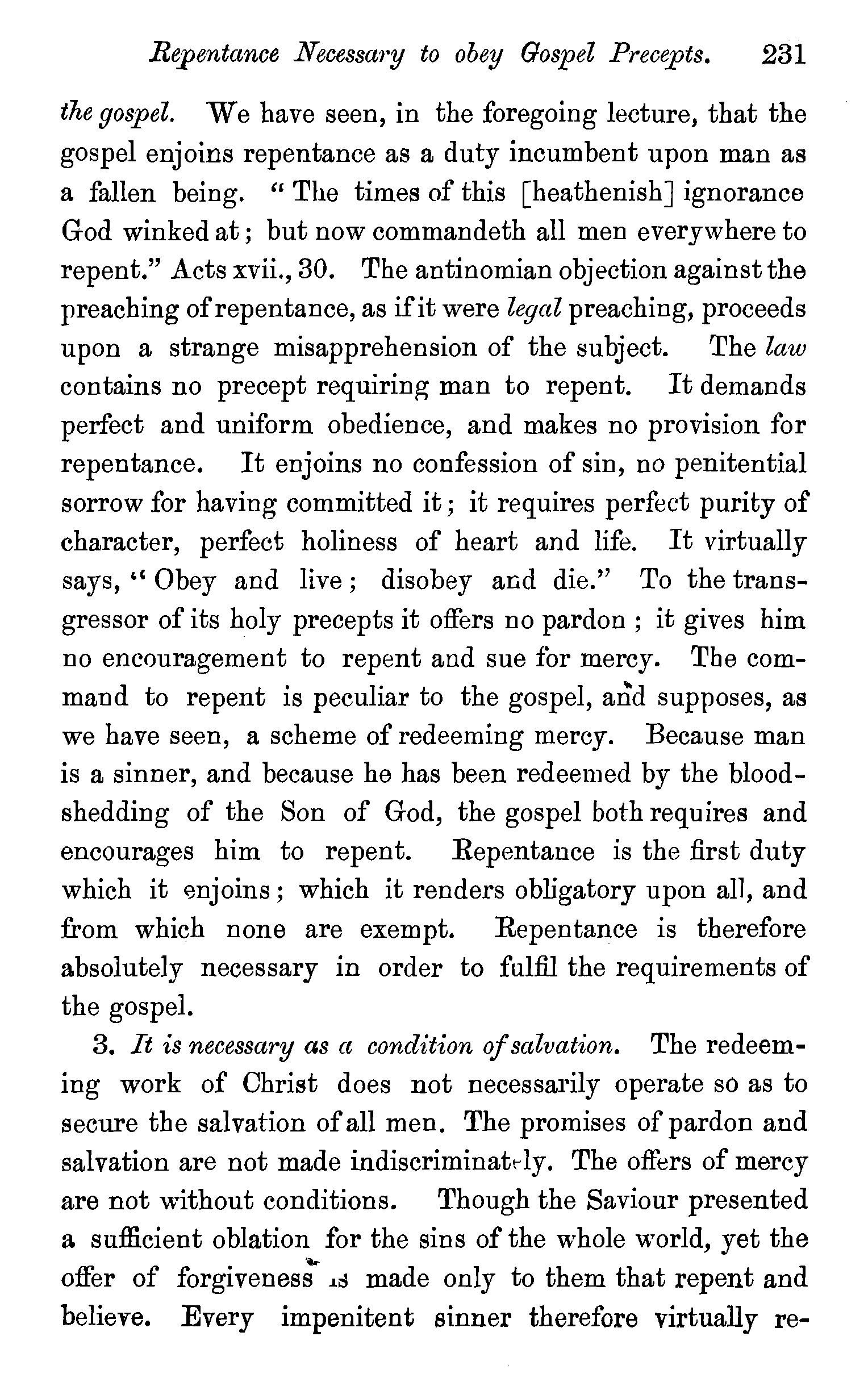
the gospel. We have seen, in the foregoing lecture, that the gospel enjoins repentance as a duty incumbent upon man as a fallen being. "The times of this [heathenish J ignorance God winked at; but now commandeth all men everywhere to repent." Acts xvii., 30. The antinomian objection against the preaching of repentance, as ifit were legal preaching, proceeds upon a strange misapprehension of the subject. The law contains no precept requiring man to repent. It demands perfect and uniform obedience, and makes no provision for repentance. It enjoins no confession of sin, no penitential sorrow for having committed it; it requires perfect purity of character, perfect holiness of heart and life. It virtually says, •' Obey and live; disobey and die." To the transgressor of its holy precepts it offers no pardon ; it gives him no encouragement to repent and sue for mercy. Tbe command to repent is peculiar to the gospel, and supposes, as we have seen, a scheme of redeeming mercy. Because man is a sinner, and because he has been redeemed by the bloodshedding of the Son of God, the gospel both requires and encourages him to repent. Repentance is the first duty which it (:lnjoins; which it renders obligatory upon all, and from which none are exempt. Repentance is therefore absolutely necessary in order to fulfil the requirements of the gospel.
3. It is necessary as a condition of salvation. The redeeming work of Christ does not necessarily operate so as to secure the salvation of all men. The promises of pardon and salvation are not made indiscriminatr ly. The offers of mercy are not without conditions. Though the Saviour presented a sufficient oblation for the sins of the whole world, yet the . .... offer of forgiveness .10 made only to them that repent and believe. Every impenitent sinner therefore virtually re-
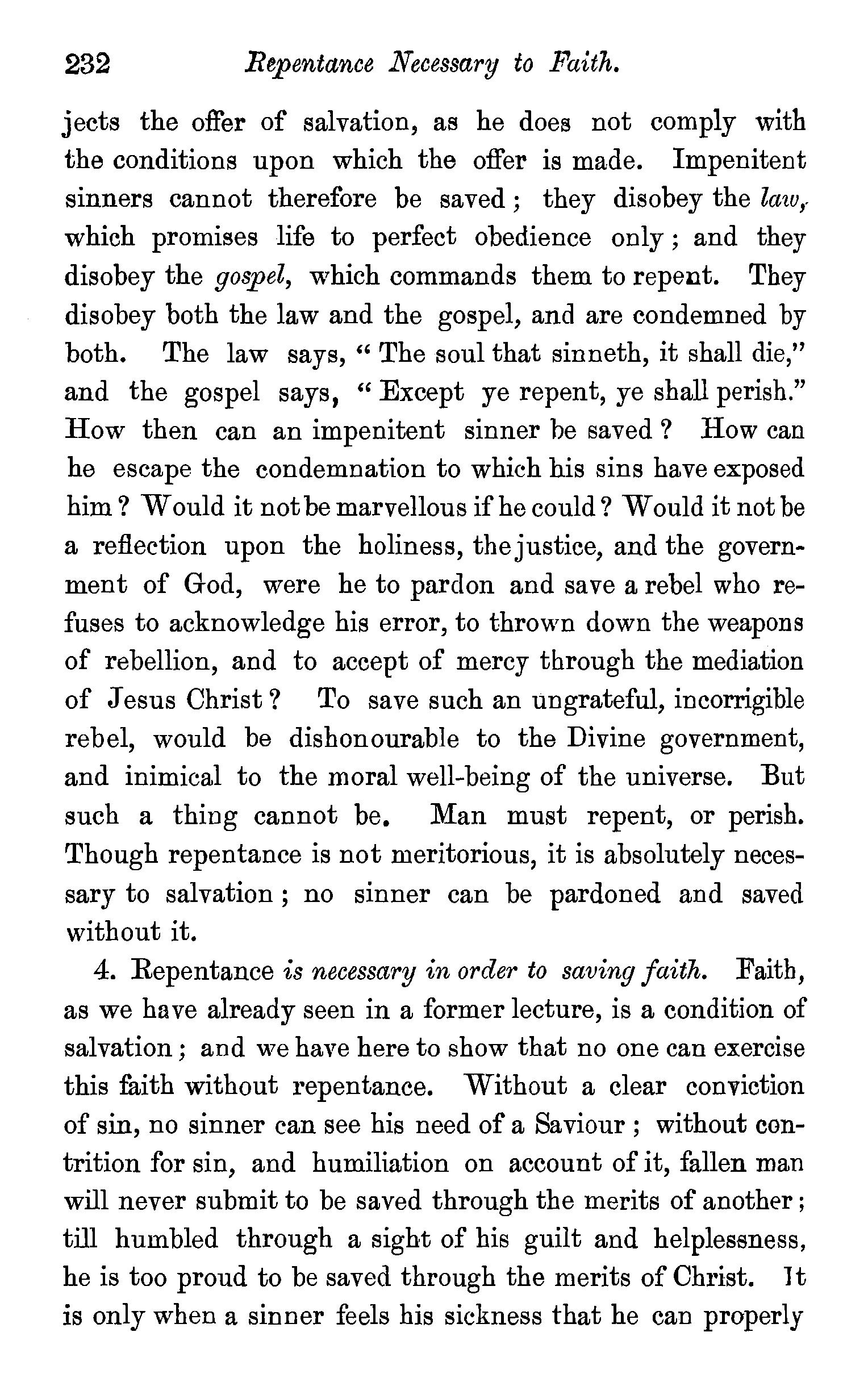
232 Repentance Necessary to Faith.
jects the offer of salvation, as he does not comply with the conditions upon which the offer is made. Impenitent sinners cannot therefore be saved; they disobey the law,. which promises life to perfect obedience only ; and they disobey the gospel, which commands them to repent. They disobey both the law and the gospel, and are condemned by both. The law says, " The soul that sinneth, it shall die," and the gospel says, " Except ye repent, ye shall perish." How then can an impenitent sinner be saved ? How can he escape the condemnation to which his sins have exposed him? Would it not be marvellous if he could? Would it not be a reflection upon the holiness, the justice, and the government of God, were he to pardon and save a rebel who refuses to acknowledge his error, to thrown down the weapons of rebellion, and to accept of mercy through the mediation of Jesus Christ ? To save such an ungrateful, incorrigible rebel, would be dishonourable to the Divine government, and inimical to the moral well-being of the universe. But such a thing cannot be. Man must repent, or perish. Though repentance is not meritorious, it is absolutely necessary to salvation ; no sinner can be pardoned and saved without it.
4. Repentance is necessary in order to saving faith. Faith, as we have already seen in a former lecture, is a condition of salvation; and we have here to show that no one can exercise this faith without repentance. Without a clear conviction of sin, no sinner can see his need of a Saviour ; without contrition for sin, and humiliation on account of it, fallen man will never submit to be saved through the merits of another ; till humbled through a sight of his guilt and helplessness, he is too proud to be saved through the merits of Christ. J t is only when a sinner feels his sickness that he can properly
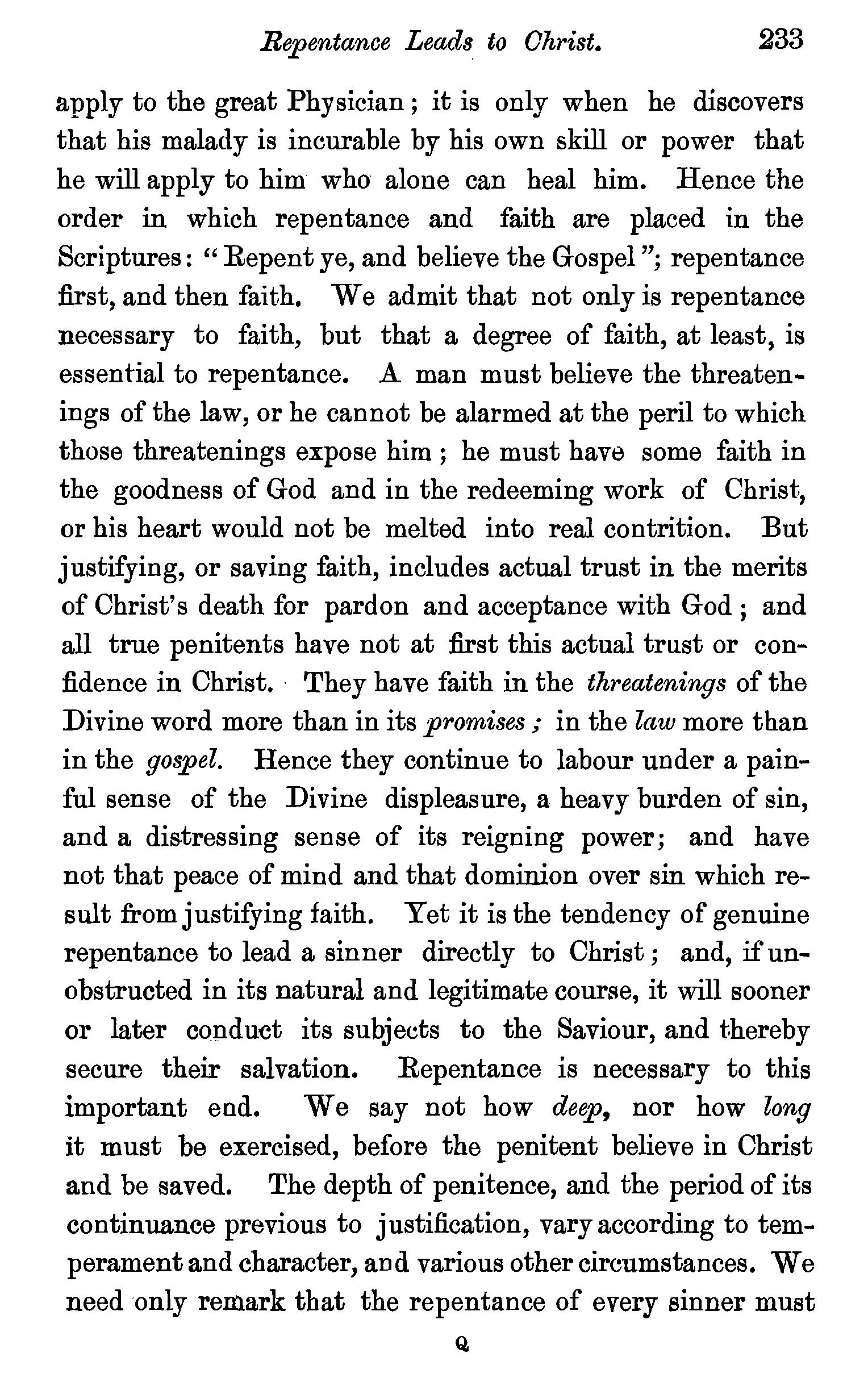
apply to the great Physician; it is only when he discovers that his malady is incurable by his own skill or power that he will apply to him who alone can heal him. Hence the order in which repentance and faith are placed in the Scriptures: "Repent ye, and believe the Gospel"; repentance first, and then faith. We admit that not only is repentance necessary to faith, but that a degree of faith, at least, is essential to repentance. A man must believe the threatenings of the law, or he cannot be alarmed at the peril to which those threatenings expose him ; he must have some faith in the goodness of God and in the redeeming work of Christ, or his heart would not be melted into real contrition. But justifying, or saving faith, includes actual trust in the merits of Christ's death for pardon and acceptance with God; and all true penitents have not at first this actual trust or confidence in Christ. · They have faith in the threatenings of the Divine word more than in its promises; in the la,w more than in the gospel. Hence they continue to labour under a painful sense of the Divine displeasure, a heavy burden of sin, and a distressing sense of its reigning power; and have not that peace of mind and that dominion over sin which result from justifying faith. Yet it is the tendency of genuine repentance to lead a sinner directly to Christ; and, if unobstructed in its natural and legitimate course, it will sooner or later copduct its subjects to the Saviour, and thereby secure their salvation. Repentance is necessary to this important end. We say not how deep, nor how long it must be exercised, before the penitent believe in Christ and be saved. The depth of penitence, and the period of its continuance previous to justification, vary according totemperament and character, and various other circumstances. We need only remark that the repentance of every sinner must
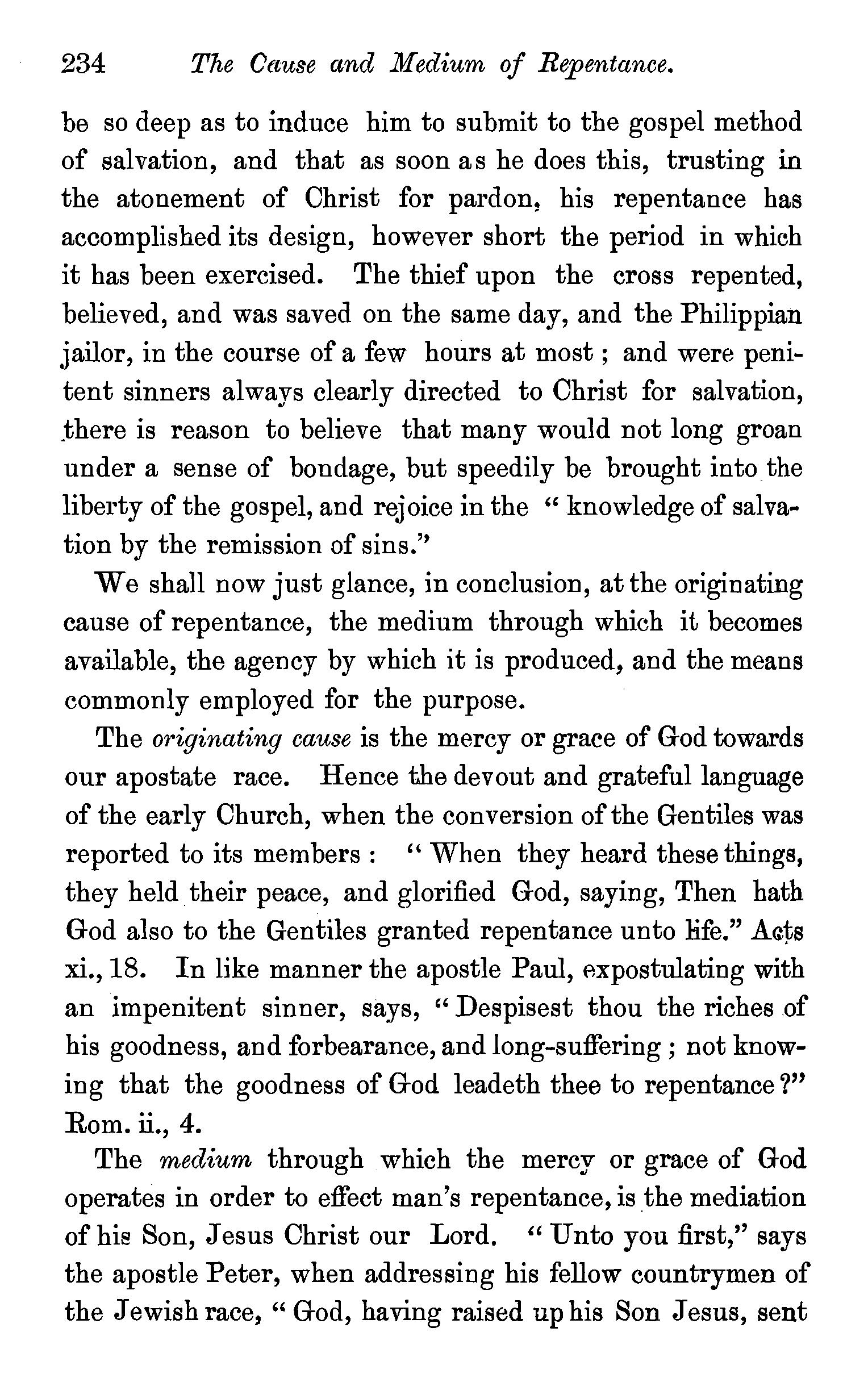
234 The Cetuse and Medium of Repentance.
be so deep as to induce him to submit to the gospel method of salvation, and that as soon as he does this, trusting in the atonement of Christ for pardon, his repentance has accomplished its design, however short the period in which it has been exercised. The thief upon the cross repented, believed, and was saved on the same day, and the Philippian jailor, in the course of a few hours at most; and were penitent sinners always clearly directed to Christ for salvation, .there is reason to believe that many would not long groan under a sense of bondage, but speedily be brought into the liberty of the gospel, and rejoice in the "knowledge of salvation by the remission of sins.''
We shall now just glance, in conclusion, at the originating cause of repentance, the medium through which it becomes available, the agency by which it is produced, and the means commonly employed for the purpose.
The originating cause is the mercy or grace of God towards our apostate race. Hence the devout and grateful language of the early Church, when the conversion of the Gentiles was reported to its memhers : " When they heard these things, they held their peace, and glorified God, saying, Then hath God also to the Gentiles granted repentance unto life." A~ts xi., 18. In like manner the apostle Paul, expostulating with an impenitent sinner, says, "Despisest thou the riches .of his goodness, and forbearance, and long-suffering ; not knowing that the goodness of God leadeth thee to repentance?" Rom. ii., 4.
The medium through which the mercy or grace of God operates in order to effect man's repentance, is the mediation of his Son, Jesus Christ our Lord. " Unto you first,'' says the apostle Peter, when addressing his fellow countrymen of the Jewish race, " God, having raised up his Son Jesus, sent
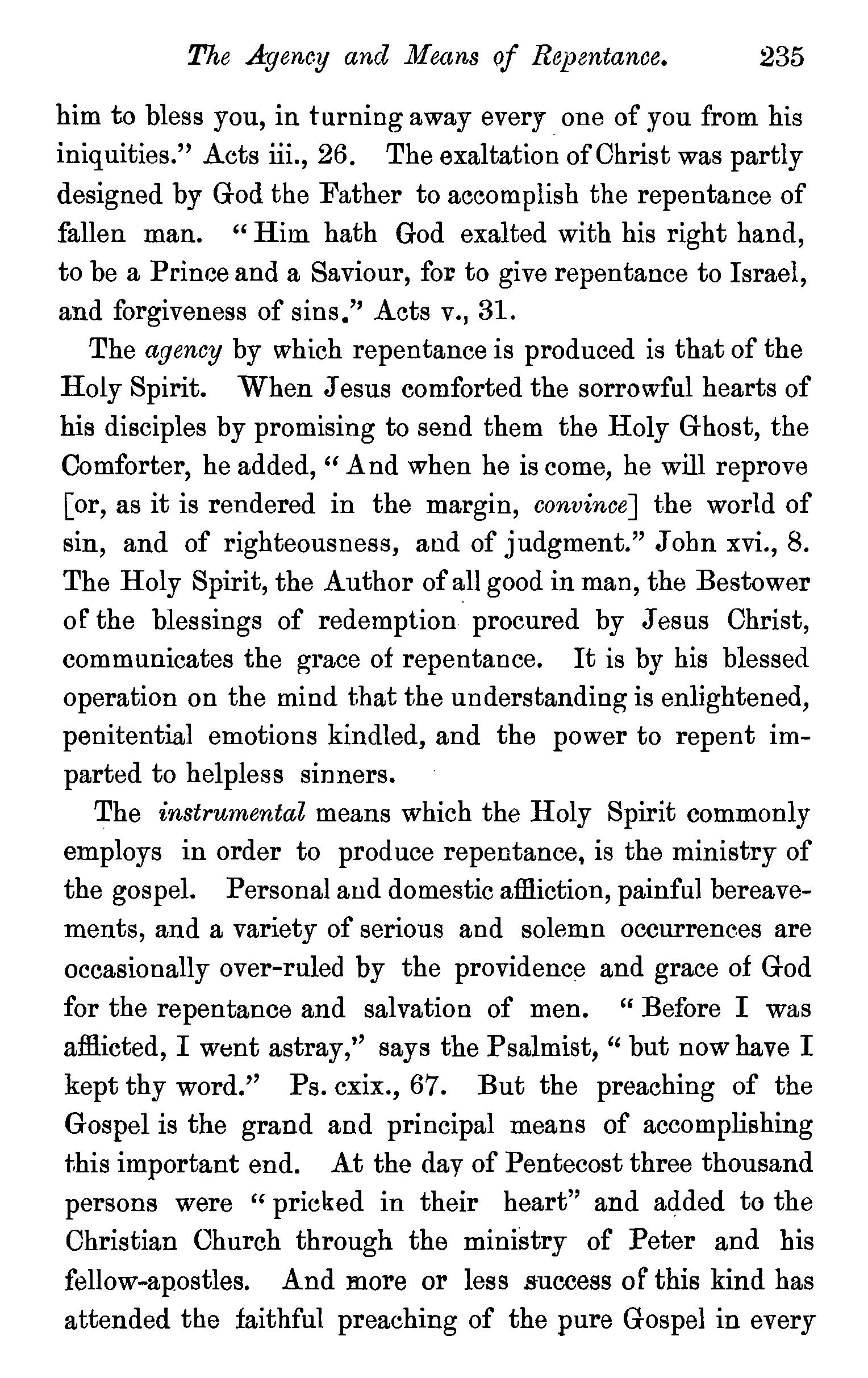
him to bless you, in turning away every one of you from his iniquities." Acts iii., 26. The exaltation of Christ was partly designed by God the Father to accomplish the repentance of fallen man. "Him hath God exalted with his right hand, to be a Prince and a Saviour, for to give repentance to Israel, and forgiveness of sins.'' Acts v., 31.
The agency by which repentance is produced is that of the Holy Spirit. When Jesus comforted the sorrowful hearts of his disciples by promising to send them the Holy Ghost, the Comforter, he added," And when he is come, he will reprove [or, as it is rendered in the margin, convinceJ the world of sin, and of righteousness, and of judgment." John xvi., 8. The Holy Spirit, the Author of all good in man, the Bestower of the blessings of redemption procured by Jesus Christ, communicates the grace of repentance. It is by his blessed operation on the mind that the understanding is enlightened, penitential emotions kindled, and the power to repent imparted to helpless sinners.
The instrumental means which the Holy Spirit commonly employs in order to produce repentance, is the ministry of the gospel. Personal and domestic affliction, painful bereavements, and a variety of serious and solemn occurrences are occasionally over-ruled by the providence and grace of God for the repentance and salvation of men. "Before I was afflicted, I went astray,'' says the Psalmist, "but now have I kept thy word.'' Ps. cxix., 67. But the preaching of the Gospel is the grand and principal means of accomplishing this important end. At the day of Pentecost three thousand persons were " pricked in their heart'' and added to the Christian Church through the ministry of Peter and his fellow-apostles. And more or less .success of this kind has attended the faithful preaching of the pure Gospel in every
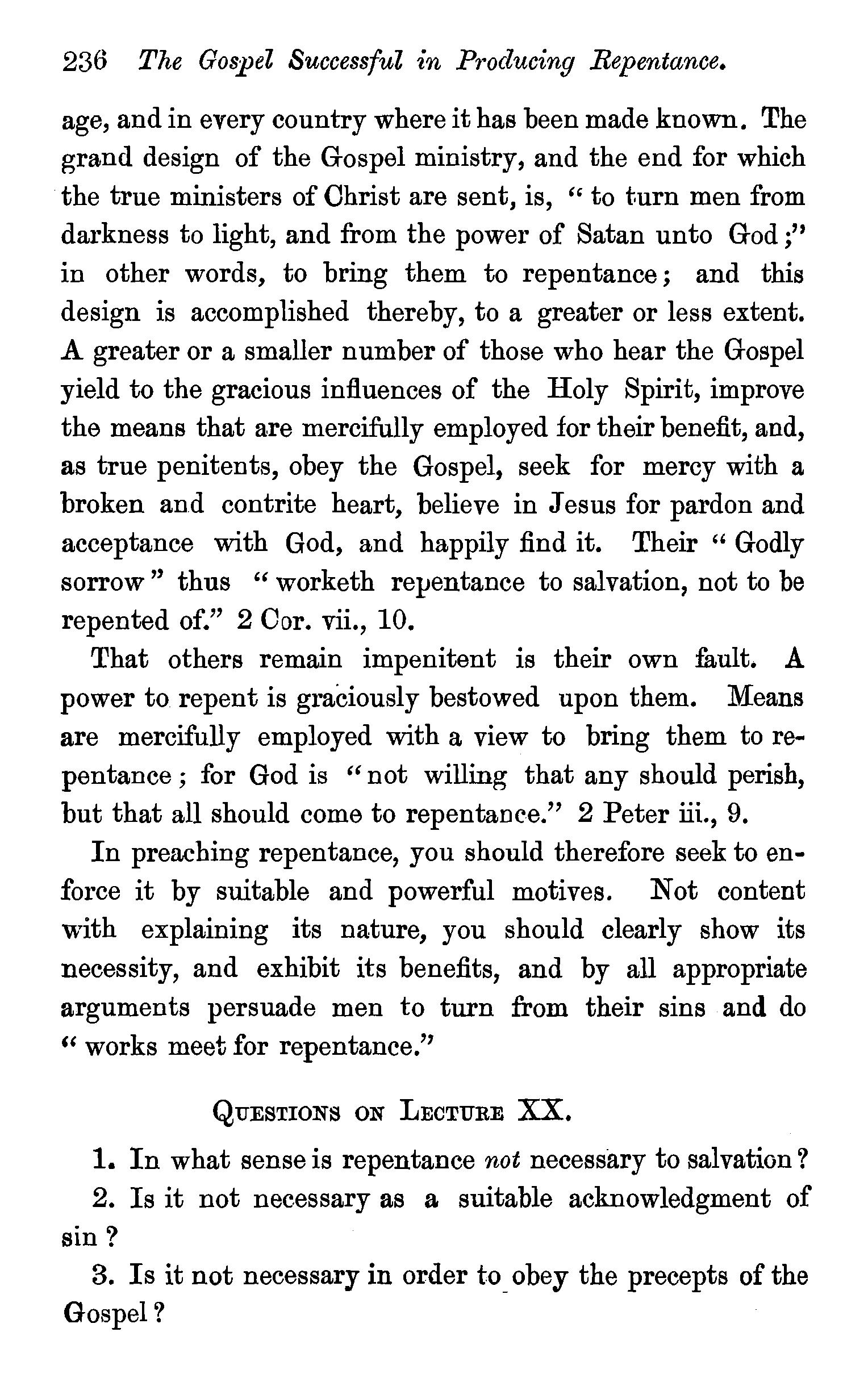
236 The Gospel Successful in Producing Repentance.
age, and in every country where it has been made known. The grand design of the Gospel ministry, and the end for which the true ministers of Christ are sent, is, " to turn men from darkness to light, and from the power of Satan unto God;" in other words, to bring them to repentance ; and this design is accomplished thereby, to a greater or less extent. A greater or a smaller number of those who hear the Gospel yield to the gracious influences of the Holy Spirit, improve the means that are mercifully employed for their benefit, and, as true penitents, obey the Gospel, seek for mercy with a broken and contrite heart, believe in Jesus for pardon and acceptance with God, and happily find it. Their " Godly sorrow " thus " worketh repentance to salvation, not to be repented of." 2 Oor. vii., 10.
That others remain impenitent is their own fault. A power to repent is graciously bestowed upon them. Means are mercifully employed with a view to bring them to repentance ; for God is "not willing that any should perish, but that all should come to repentance." 2 Peter iii., 9.
In preaching repentance, you should therefore seek to enforce it by suitable and powerful motives. Not content with explaining its nature, you should clearly show its necessity, and exhibit its benefits, and by all appropriate arguments persuade men to turn from their sins and do " works meet for repentance."
QUESTIONSONLECTUREXX.
1. In what sense is repentance not necessary to salvation?
2. Is it not necessary as a suitable acknowledgment of sin?
3. Is it not necessary in order to obey the precepts of the Gospel?
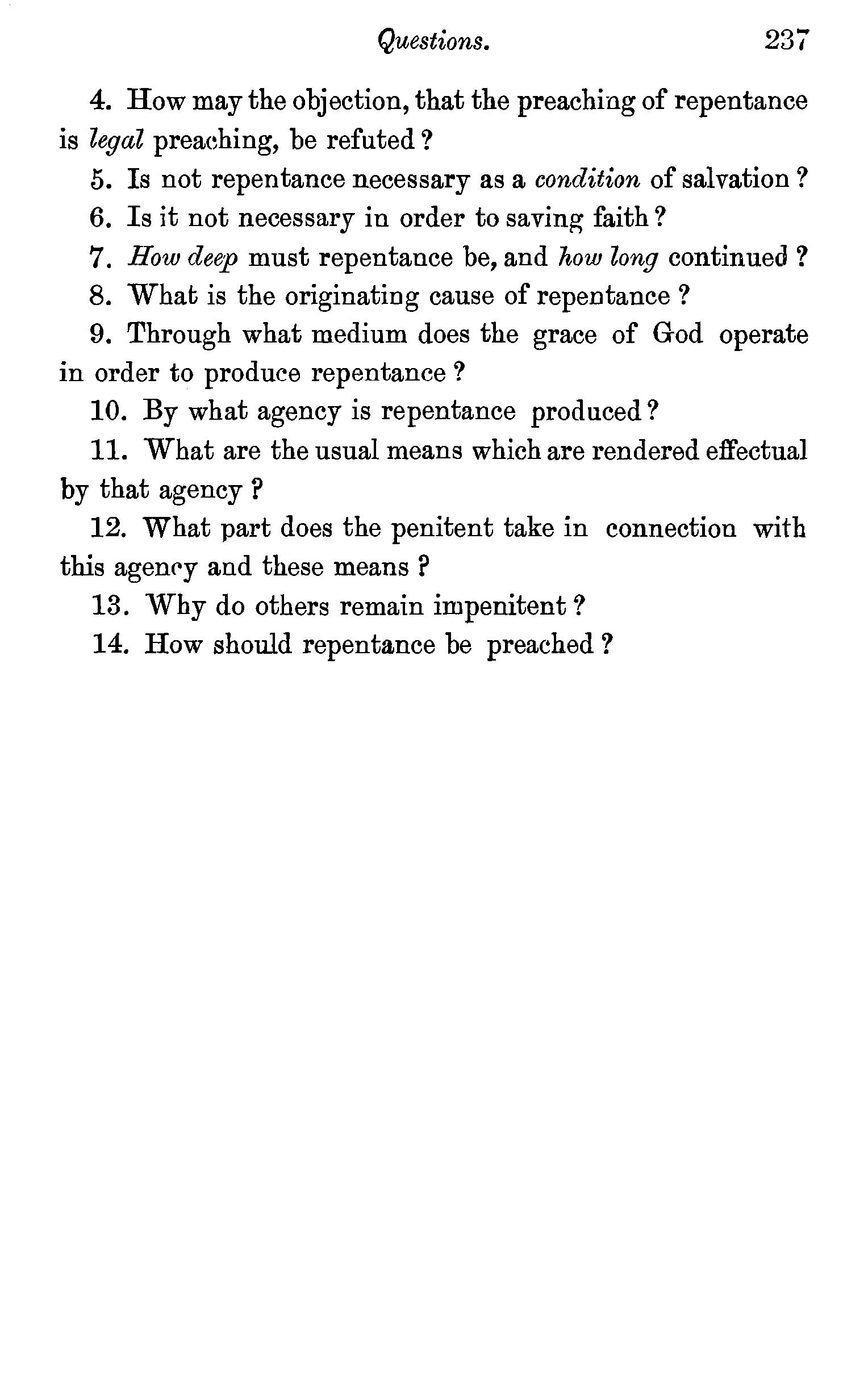
4. How may the objection, that the preaching of repentance is legal preaching, be refuted ?
5. Is not repentance necessary as a condition of salvation ?
6. Is it not necessary in order to saving faith?
7. How deep must repentance be, and how long continued ?
8. What is the originating cause of repentance?
9. Through what medium does the grace of God operate in order to produce repentance ?
10. By what agency is repentance produced?
11. What are the usual means which are rendered effectual by that agency ?
12. What part does the penitent take in connection with this agenry and these means ?
13. Why do others remain impenitent?
14. How should repentance be preached?
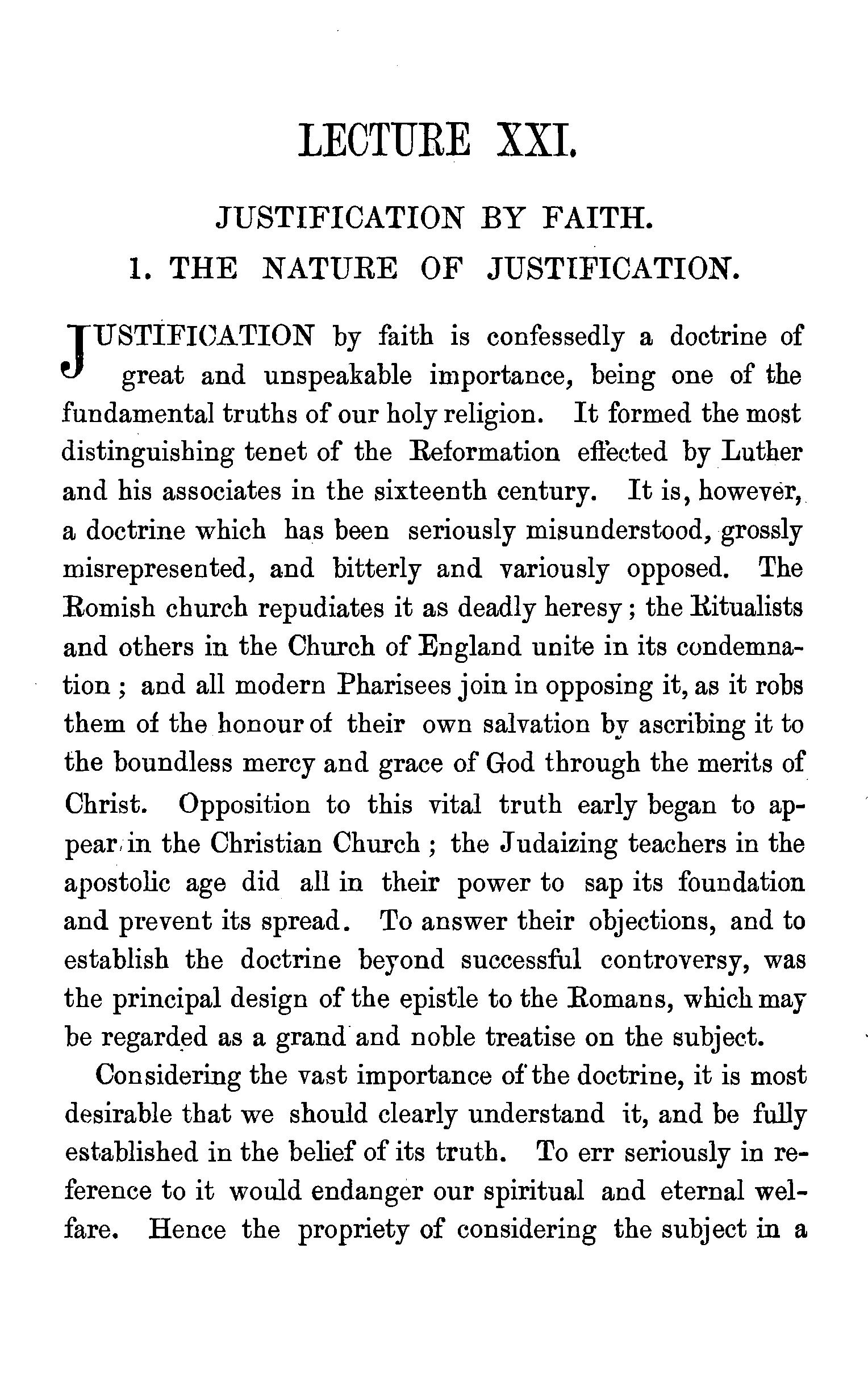
JUSTIFICATION by faith is confessedly a doctrine of great and unspeakable importance, being one of the fundamental truths of our holy religion. It formed the most distinguishing tenet of the Reformation effected by Luther and his associates in the sixteenth century. It is, however, a doctrine which has been seriously misunderstood, grossly misrepresented, and bitterly and variously opposed. The Romish church repudiates it as deadly heresy ; the Ritualists and others in the Church of England unite in its condemnation; and all modern Pharisees join in opposing it, as it robs them of the honour of their own salvation by ascribing it to the boundless mercy and grace of God through the merits of Christ. Opposition to this vital truth early began to appear, in the Christian Church; the J udaizing teachers in the apostolic age did all in their power to sap its foundation and prevent its spread. To answer their objections, and to establish the doctrine beyond successful controversy, was the principal design of the epistle to the Romans, which may be regard~d as a grand and noble treatise on the subject. Considering the vast importance of the doctrine, it is most desirable that we should clearly understand it, and be fully established in the belief of its truth. To err seriously in reference to it would endanger our spiritual and eternal welfare. Hence the propriety of considering the subject in a
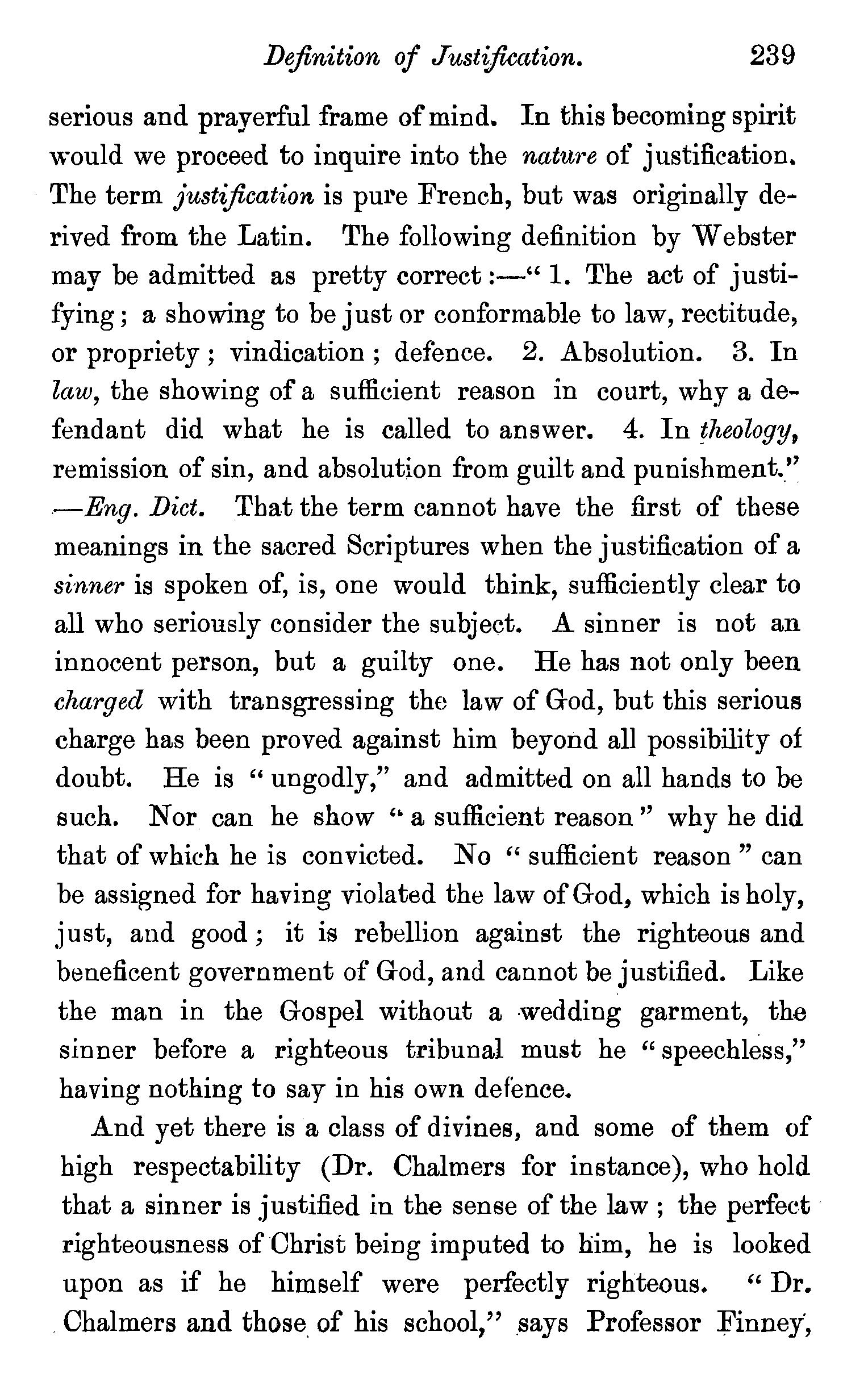
serious and prayerful frame of mind. In this becoming spirit would we proceed to inquire into the nature of justification. The term Justification is pm•e French, but was originally derived from the Latin. The following definition by Webster may be admitted as pretty correct:-" 1. The act of justifying; a showing to be just or conformable to law, rectitude, or propriety ; vindication ; defence. 2. Absolution. 3. In lctw, the showing of a sufficient reason in court, why a defendant did what he is called to answer. 4. In theology, remission of sin, and absolution from guilt and punishment.'' .-Eng. Diet. That the term cannot have the first of these meanings in the sacred Scriptures when the justification of a sinner is spoken of, is, one would think, sufficiently clear to all who seriously consider the subject. A sinner is not an innocent person, but a guilty one. He has not only been charged with transgressing the law of God, but this serious charge has been proved against him beyond all possibility of doubt. He is "ungodly," and admitted on all hands to be such. Nor can he show ,. a sufficient reason'' why he did that of which he is convicted. No " sufficient reason " can be assigned for having violated the law of God, which is holy, just, and good ; it is rebellion against the righteous and beneficent government of God, and cannot be justified. Like the man in the Gospel without a wedding garment, the sinner before a righteous tribunal must he "speechless," having nothing to say in his own defence. And yet there is a class of divines, and some of them of high respectability (Dr. Chalmers for instance), who hold that a sinner is justified in the sense of the law; the perfect righteousness of Christ being imputed to him, he is looked upon as if he himself were perfectly righteous. "Dr. Chalmers and those. of his school," says Professor Finney,
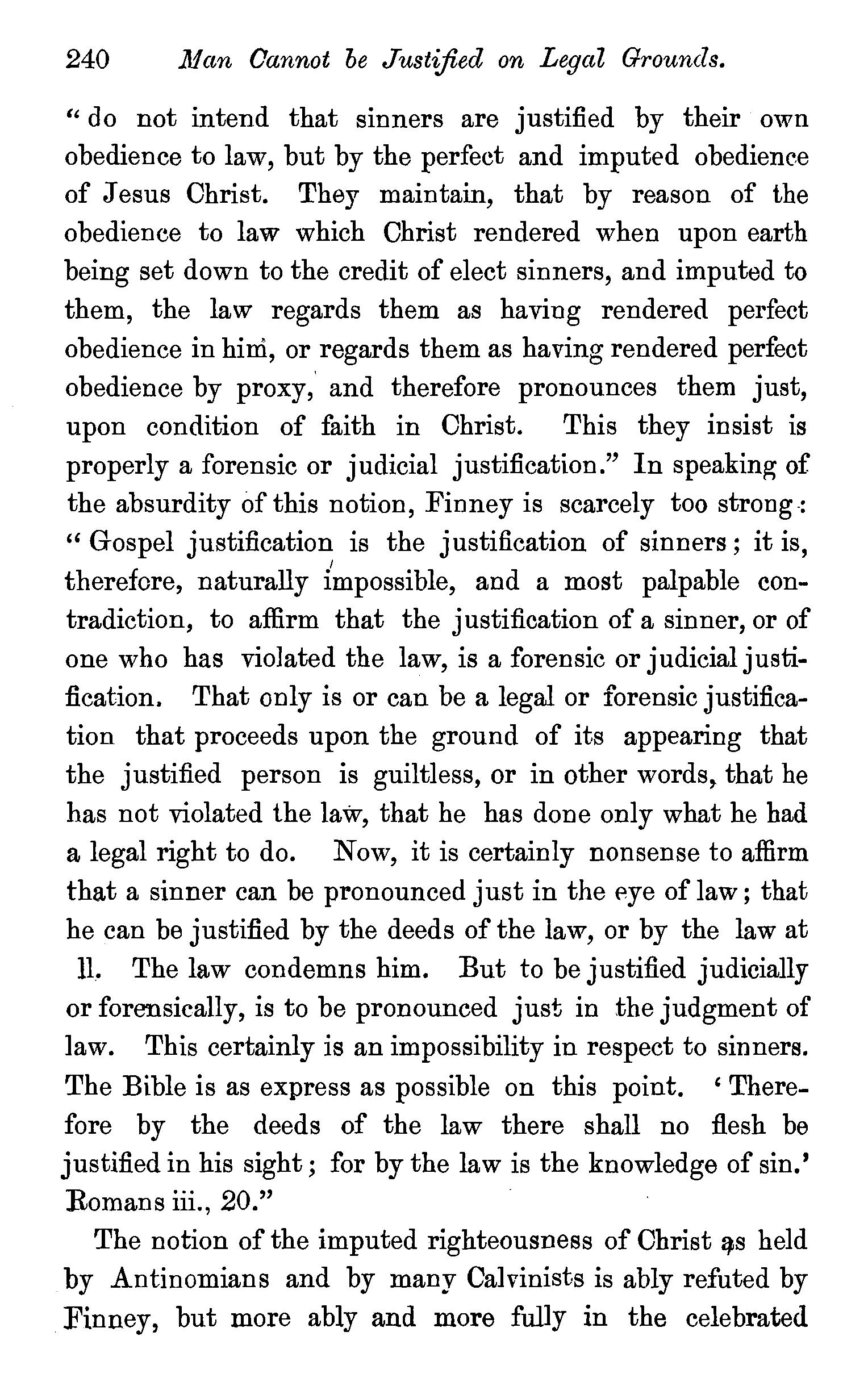
Man Oannot be Justified on Legal Grounds.
"do not intend that sinners are justified by their own obedience to law, but by the perfect and imputed obedience of Jesus Christ. They maintain, that by reason of the obedience to law which Christ rendered when upon earth being set down to the credit of elect sinners, and imputed to them, the law regards them as having rendered perfect obedience in hini, or regards them as having rendered perfect obedience by proxy,· and therefore pronounces them just, upon condition of faith in Christ. This they insist is properly a forensic or judicial justification." In speaking of the absurdity of this notion, Finney is scarcely too strong-: " Gospel justification is the justification of sinners; it is, I therefore, naturally impossible, and a most palpable contradiction, to affirm that the justification of a sinner, or of one who has violated the law, is a forensic or judicialjustification. That only is or can be a legal or forensic justification that proceeds upon the ground of its appearing that the justified person is guiltless, or in other words, that he has not violated the law, that he has done only what he had a legal right to do. Now, it is certainly nonsense to affirm that a sinner can be pronounced just in the eye of law; that he can be justified by the deeds of the law, or by the law at lL The law condemns him. But to be justified judicially or forensically, is to be pronounced just in the judgment of law. This certainly is an impossibility in respect to sinners. The Bible is as express as possible on this point. ' Therefore by the deeds of the law there shall no flesh be justified in his sight; for by the law is the knowledge of sin.' Romans iii., 20."
The notion of the imputed righteousness of Christ :)S held by Antinomians and by many Calvinists is ably refuted by Finney, but more ably and more fully in the celebrated
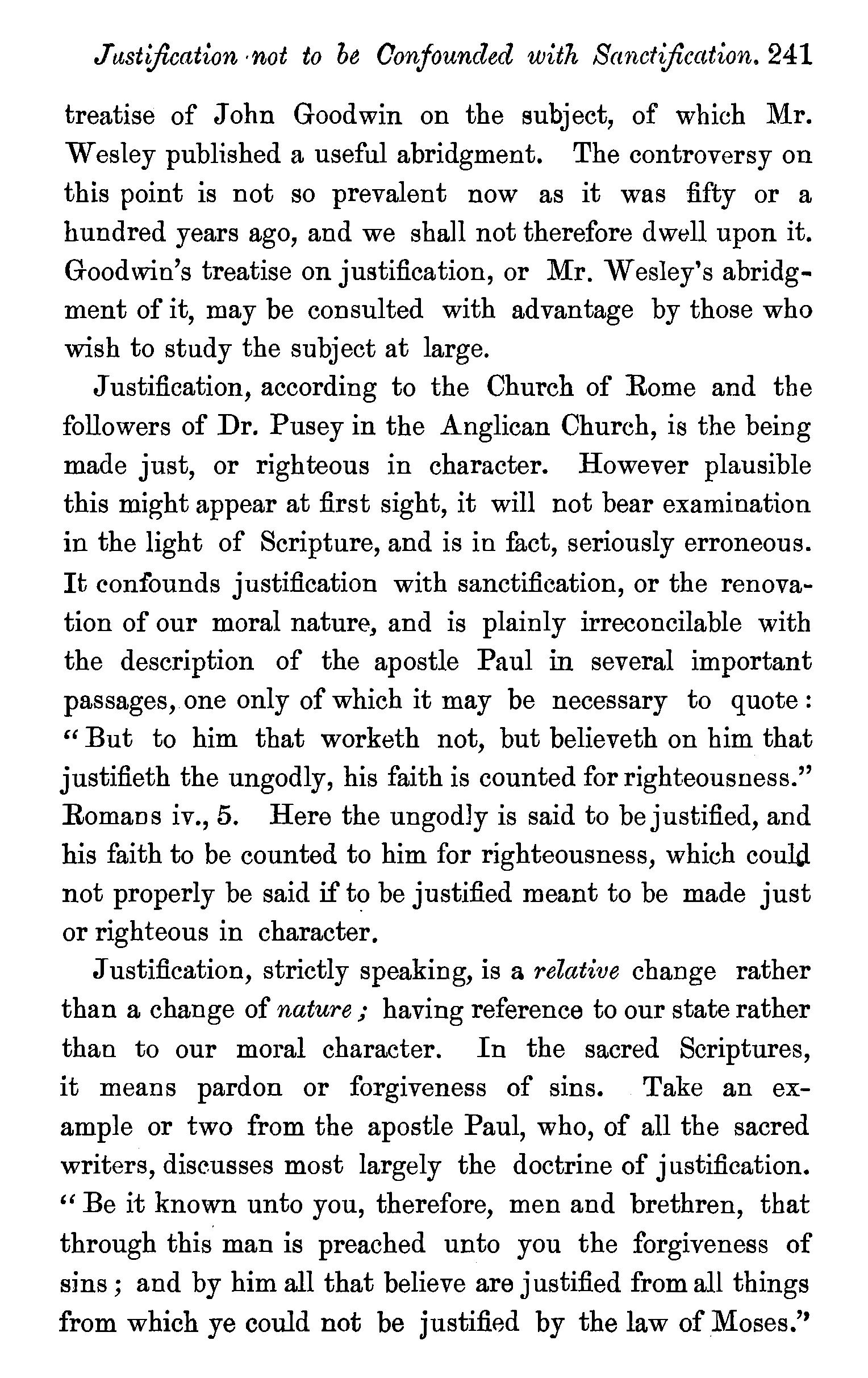
treatise of John Goodwin on the subject, of which Mr. Wesley published a useful abridgment. The controversy on this point is not so prevalent now as it was fifty or a hundred years ago, and we shall not therefore dwell upon it. Goodwin's treatise on justification, or Mr. Wesley's abridgment of it, may be consulted with advantage by those who wish to study the subject at large.
J ustifi.cation, according to the Church of Rome and the followers of Dr. Pusey in the Anglican Church, is the being made just, or righteous in character. However plausible this might appear at first sight, it will not bear examination in the light of Scripture, and is in fact, seriously erroneous. It confounds justification with sanctification, or the renovation of our moral nature, and is plainly irreconcilable with the description of the apostle Paul in several important passages, one only of which it may be necessary to quote: "But to him that worketh not, but believeth on him that justifieth the ungodly, his faith is counted for righteousness." Romans iv., 5. Here the ungodly is said to be justified, and his faith to be counted to him for righteousness, which could not properly be said if to be justified meant to be made just or righteous in character.
Justification, strictly speaking, is a relative change rather than a change of nature; having reference to our state rather than to our moral character. In the sacred Scriptures, it means pardon or forgiveness of sins. Take an example or two from the apostle Paul, who, of all the sacred writers, discusses most largely the doctrine of justification. " Be it known unto you, therefore, men and brethren, that through this man is preached unto you the forgiveness of sins; and by him all that believe are justified from all things from which ye could not be justified by the law of Moses.''
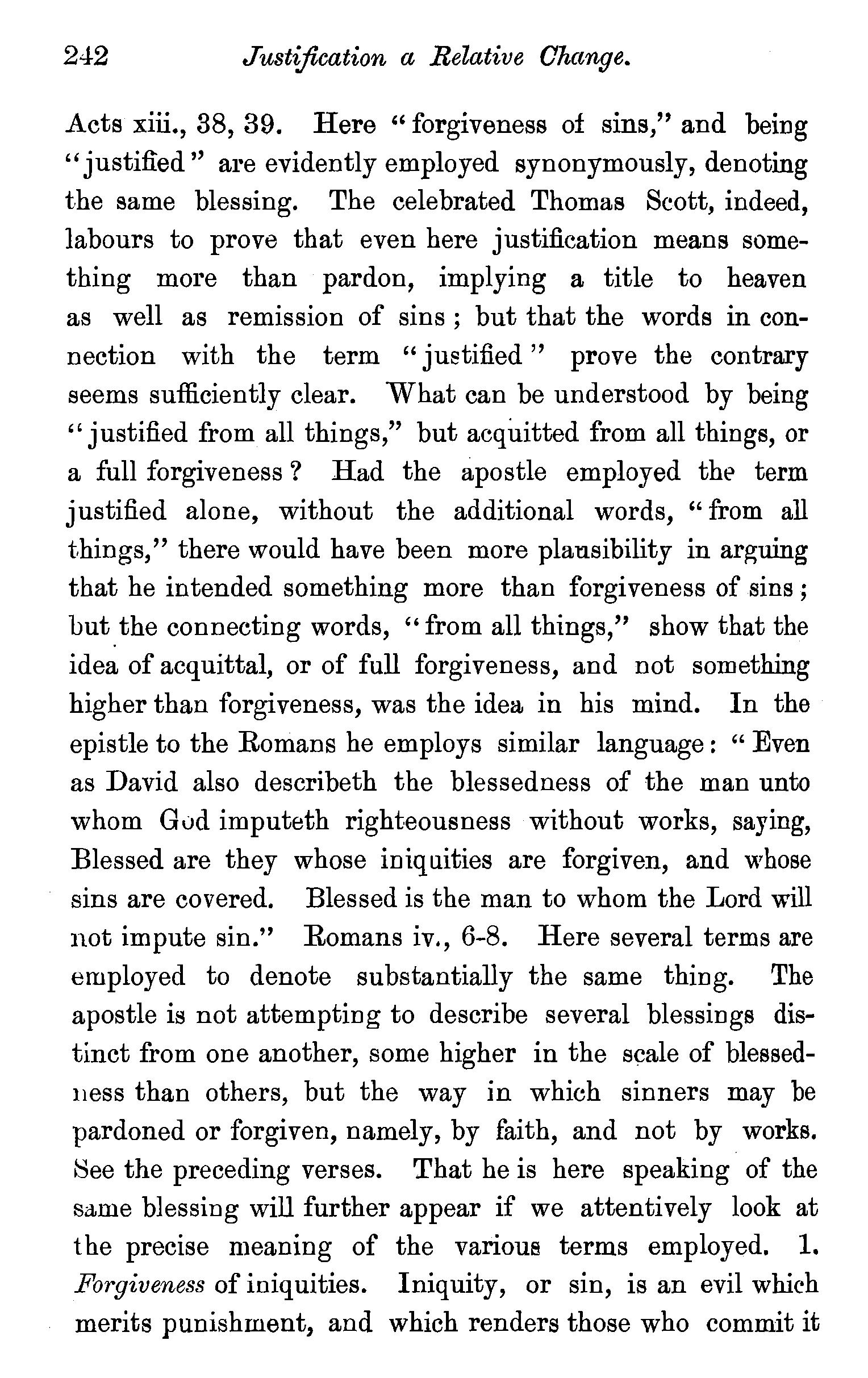
Acts xiii., 38, 39. Here "forgiveness of sins," and being "justified'' are evidently employed synonymously, denoting the same blessing. The celebrated Thomas Scott, indeed, labours to prove that even here justification means something more than pardon, implying a title to heaven as well as remission of sins ; but that the words in connection with the term "justified " prove the contrary seems sufficiently clear. What can be understood by being "justified from all things," but acquitted from all things, or a full forgiveness ? Had the apostle employed the term justified alone, without the additional words, " from all things," there would have been more plansibility in arguing that he intended something more than forgiveness of sins; but_the connecting words, "from all things," show that the idea of acquittal, or of full forgiveness, and not something higher than forgiveness, was the idea in his mind. In the epistle to the Romans he employs similar language: " Even as David also describeth the blessedness of the man unto whom Gud imputeth righteousness without works, saying, Blessed are they whose iniquities are forgiven, and whose sins are covered. Blessed is the man to whom the Lord will not impute sin."
Romans iv., 6-8. Here several terms are employed to denote substantially the same thing. The apostle is not attempting to describe several blessings distinct from one another, some higher in the scale of blessed11essthan others, but the way in which sinners may be pardoned or forgiven, namely, by faith, and not by works. See the preceding verses. That he is here speaking of the same blessing will further appear if we attentively look at the precise meaning of the various terms employed. 1. Forgiveness of iniquities. Iniquity, or sin, is an evil which merits punishment, and which renders those who commit it
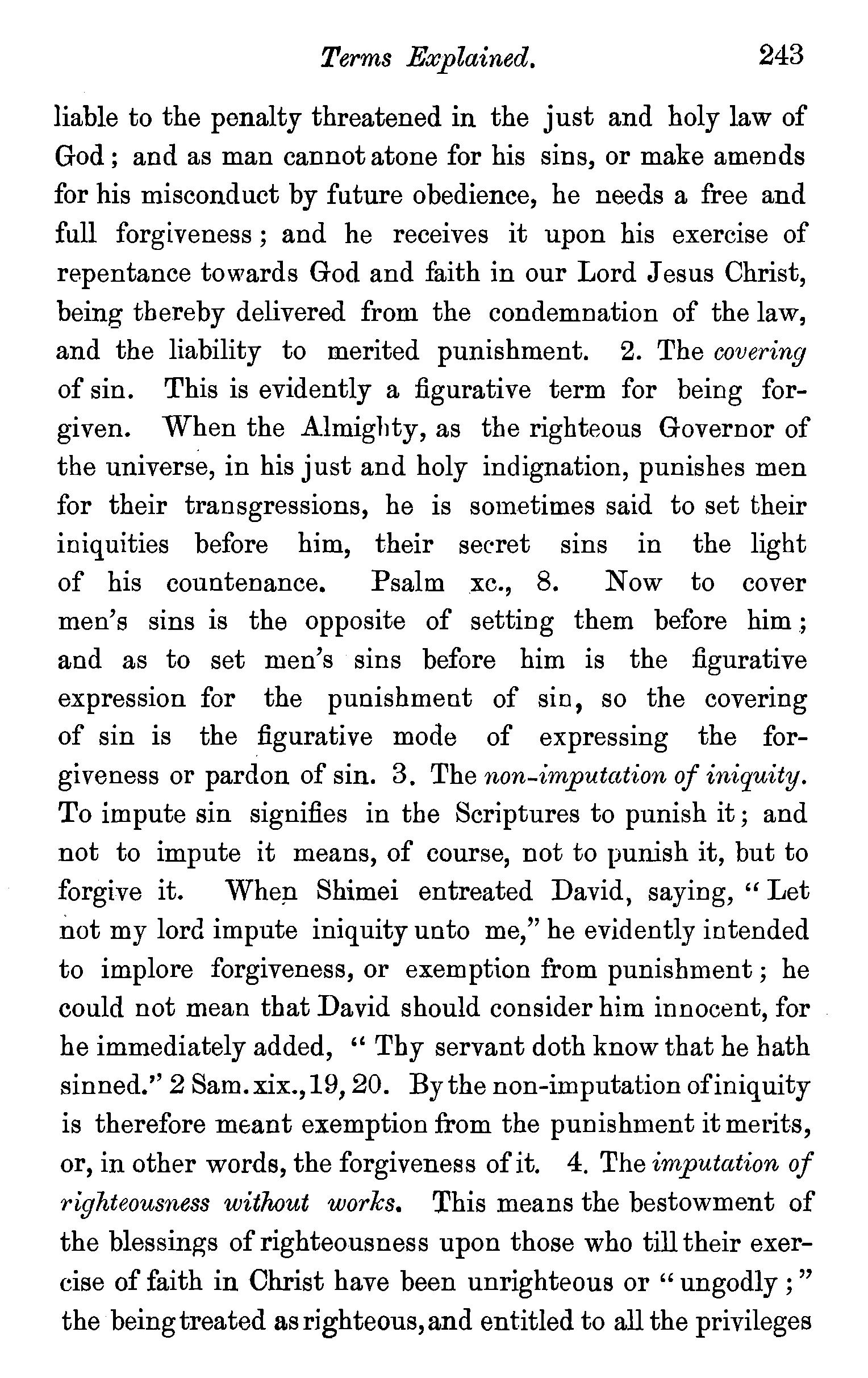
liable to the penalty threatened in the just and holy law of God ; and as man cannot atone for his sins, or make amends for his misconduct by future obedience, he needs a free and full forgiveness ; and he receives it upon his exercise of repentance towards God and faith in our Lord Jesus Christ, being thereby delivered from the condemnation of the law, and the liability to merited punishment. 2. The covering of sin. This is evidently a :figurative term for being forgiven. When the Almighty, as the righteous Governor of the universe, in his just and holy indignation, punishes men for their transgressions, he is sometimes said to set their iniquities before him, their seeret sins m the light of his countenance. Psalm xc., 8. Now to cover men's sins is the opposite of setting them before him; and as to set men's sins before him is the :figurative expression for the punishment of sin, so the covering of sin is the figurative mode of expressing the forgiveness or pardon of sin. 3. The non-imputcttion of iniquity. To impute sin signifies in the Scriptures to punish it; and not to impute it means, of course, not to punish it, but to forgive it. Whep. Shimei entreated David, saying, " Let not my lord impute iniquity unto me," he evidently intended to implore forgiveness, or exemption from punishment ; he could not mean that David should consider him innocent, for he immediately added, " Thy servant doth know that he hath sinned.'' 2 Sam.xix.,19, 20. By the non-imputation ofiniquity is therefore me;ant exemption from the punishment it merits, or, in other words, the forgiveness ofit. 4. The imputation of righteousness without works. This means the bestowment of the blessings of righteousness upon those who till their exercise of faith in Christ have been unrighteous or "ungodly ; " the beingtreated asrighteous,and entitled to all the privileges
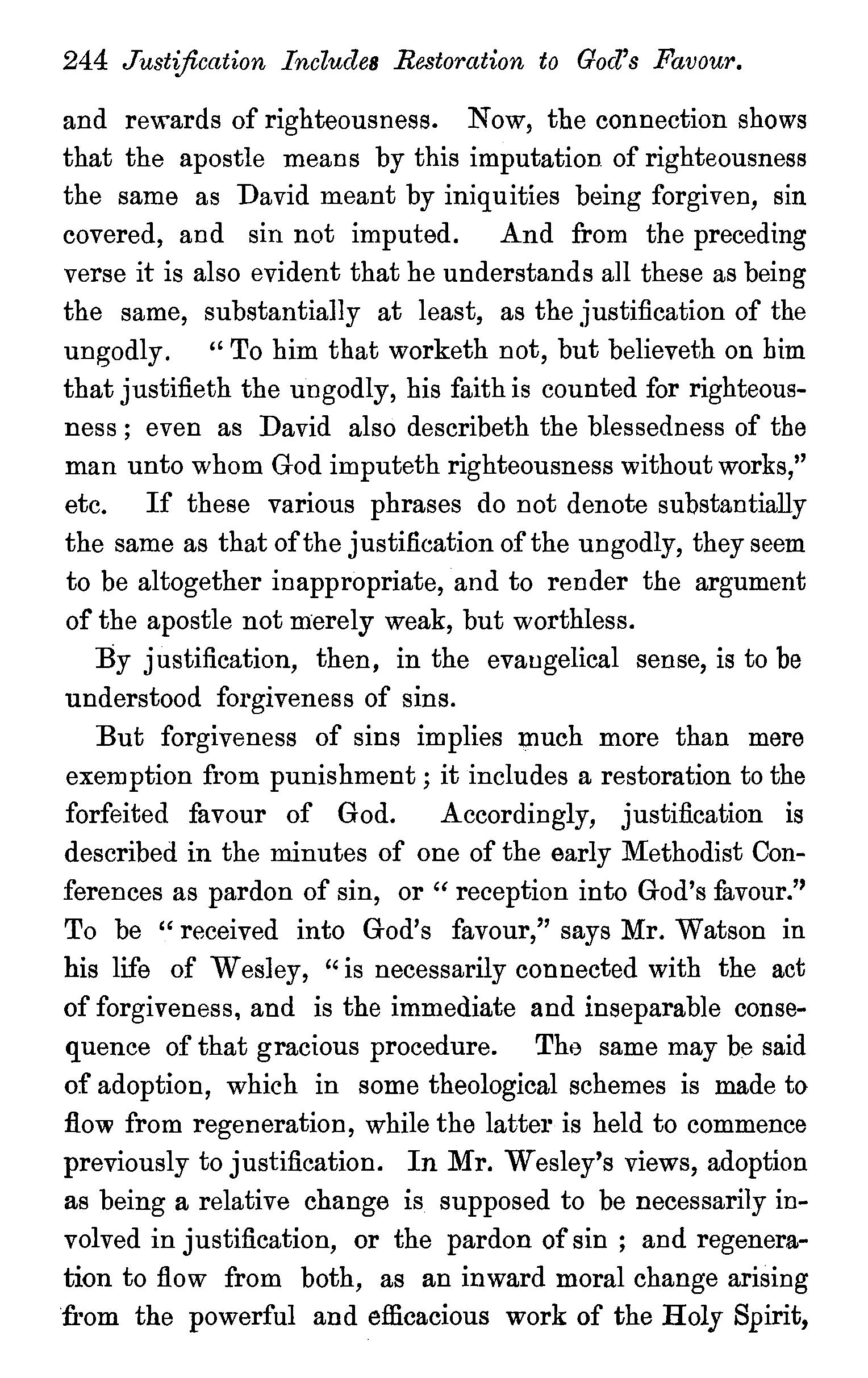
and rewards of righteousness. Now, the connection shows that the apostle means by this imputation of righteousness the same as David meant by iniquities being forgiven, sin covered, and sin not imputed. And from the preceding verse it is also evident that he understands all these as being the same, substantially at least, as the justification of the ungodly. "To him that worketh not, but believeth on him that justifieth the ungodly, his faith is counted for righteousness; even as David also describeth the blessedness of the man unto whom God imputeth righteousness without works," etc. If these various phrases do not denote substantially the same as that of the justification of the ungodly, they seem to be altogether inappropriate, and to render the argument of the apostle not merely weak, but worthless. By justification, then, in the evaugelical sense, is to be understood forgiveness of sins.
But forgiveness of sins implies much more than mere exemption from punishment; it includes a restoration to the forfeited favour of God. Accordingly, justification is described in the minutes of one of the early Methodist Conferences as pardon of sin, or " reception into God's favour.'' To be "received into God's favour," says Mr. Watson in his life of Wesley, "is necessarily connected with the act of forgiveness, and is the immediate and inseparable consequence of that gracious procedure. The same may be said of adoption, which in some theological schemes is made to flow from regeneration, while the latter is held to commence previously to justification. In Mr. Wesley's views, adoption as being a relative change is supposed to be necessarily involved in justification, or the pardon of sin ; and regeneration to flow from both, as an inward moral change arising from the powerful and efficacious work of the Holy Spirit,
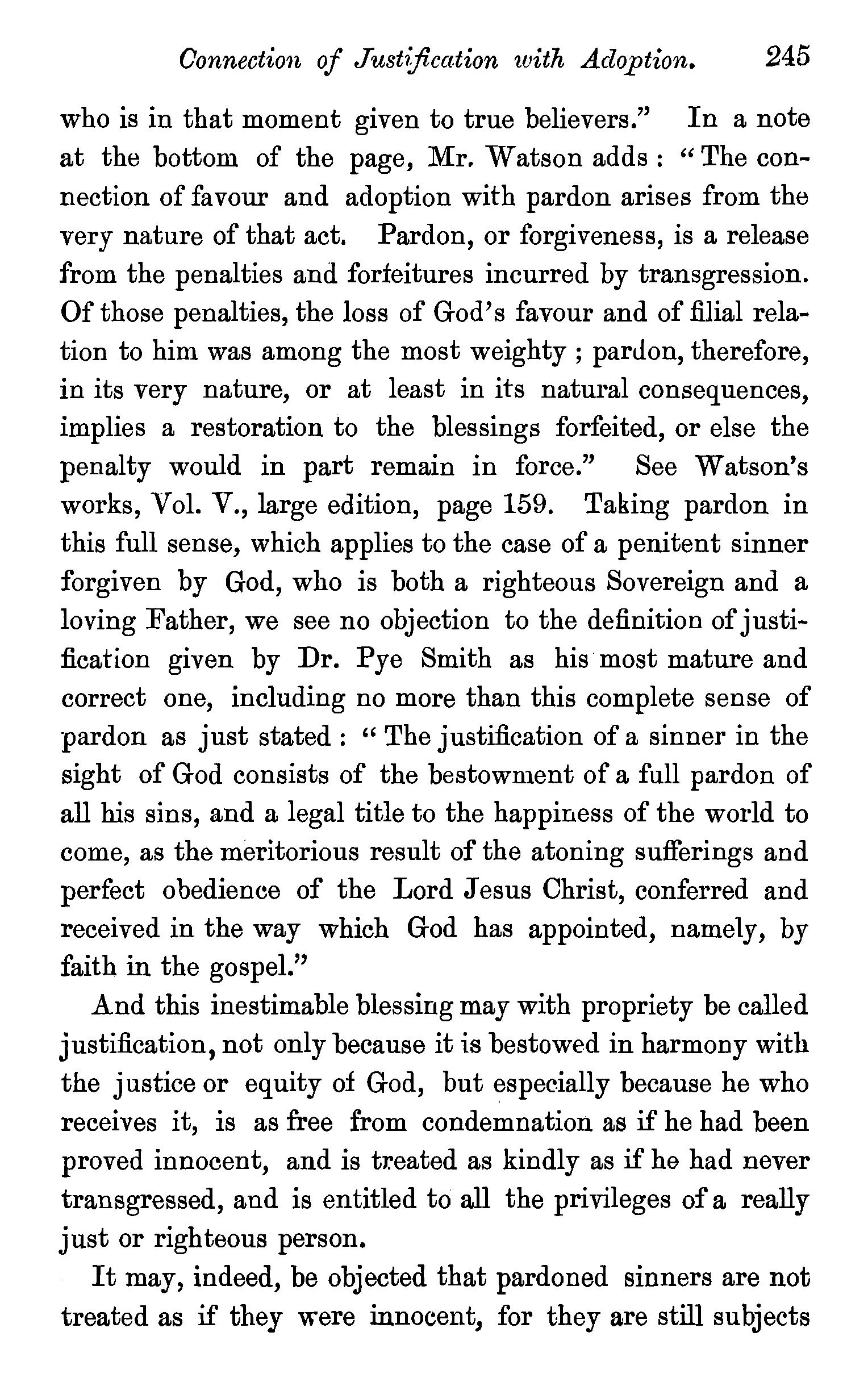
who is in that moment given to true believers." In a note at the bottom of the page, Mr. Watson adds : "The connection of favour and adoption with pardon arises from the very nature of that act. Pardon, or forgiveness, is a release from the penalties and forfeitures incurred by transgression. Of those penalties, the loss of God's favour and of filial relation to him was among the most weighty ; pardon, therefore, in its very nature, or at least in its natural consequences, implies a restoration to the blessings forfeited, or else the penalty would in part remain in force." See Watson's works, Vol. V., large edition, page 159. Taking pardon in this full sense, which applies to the case of a penitent sinner forgiven by God, who is both a righteous Sovereign and a loving Father, we see no objection to the definition of justification given by Dr. Pye Smith as his most mature and correct one, including no more than this complete sense of pardon as just stated : " The justification of a sinner in the sight of God consists of the bestowment of a full pardon of all his sins, and a legal title to the happiness of the world to come, as the meritorious result of the atoning sufferings and perfect obedience of the Lord Jesus Christ, conferred and received in the way which God has appointed, namely, by faith in the gospel."
And this inestimable blessing may with propriety be called justification, not only because it is bestowed in harmony with the justice or equity of God, but especially because he who receives it, is as free from condemnation as if he had been proved innocent, and is treated as kindly as if he had never transgressed, and is entitled to all the privileges of a really just or righteous person.
It may, indeed, be objected that pardoned sinners are not treated as if they were innocent, for they are still subjects
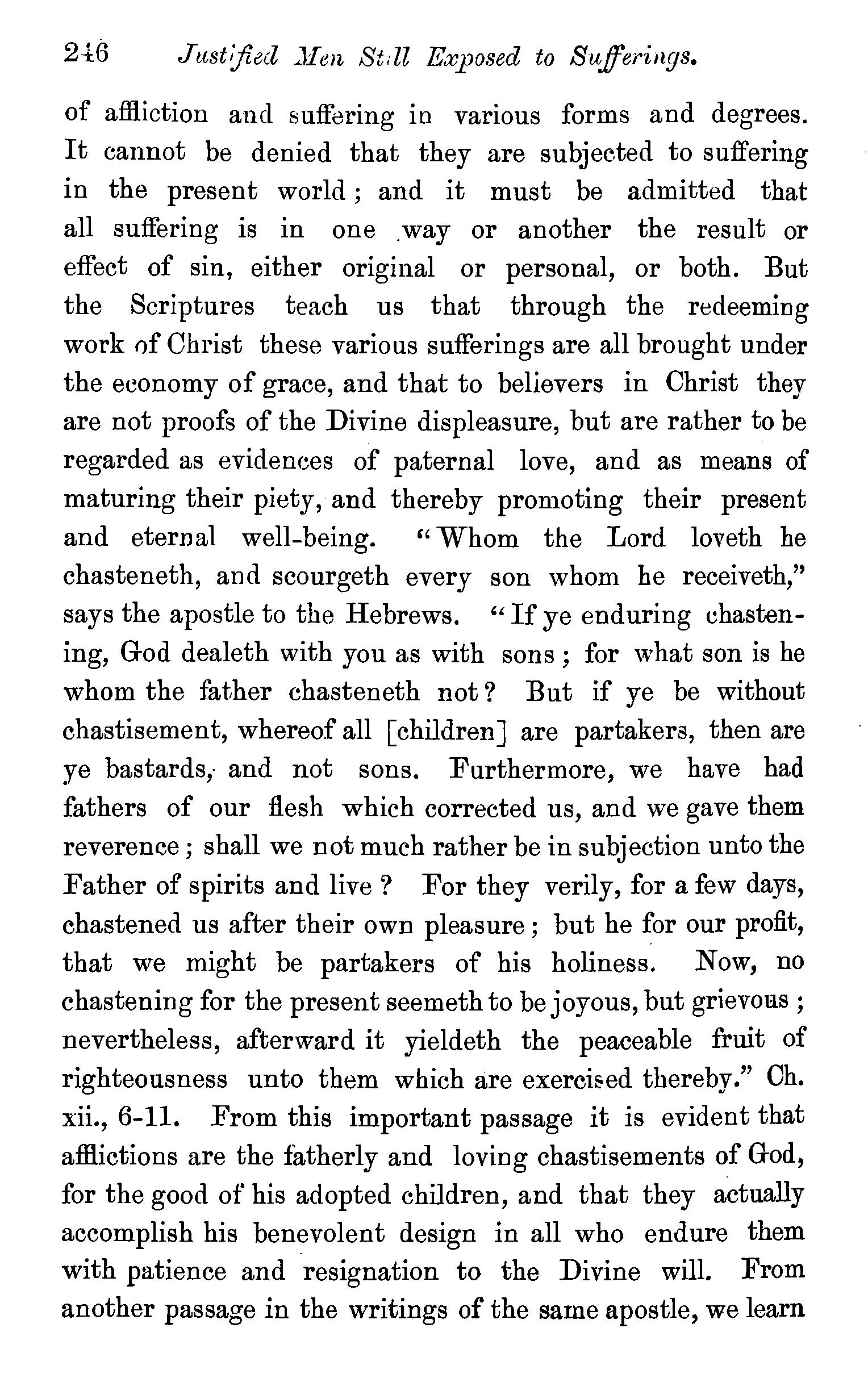
2-16 Justified .Jien St,ll Exposed to Sufferings.
of afiliction and suffering in various forms and degrees. It cannot be denied that they are subjected to suffering in the present world; and it must be admitted that all suffering is in one .way or another the result or effect of sin, either original or personal, or both. But the Scriptures teach us that through the redeeming work 0f Christ these various sufferings are all brought under the economy of grace, and that to believers in Christ they are not proofs of the Divine displeasure, but are rather to be regarded as evidences of paternal love, and as means of maturing their piety, and thereby promoting their present and eternal well-being. "Whom the Lord loveth he chasteneth, and scourgeth every son whom he receiveth," says the apostle to the Hebrews. "If ye enduring chastening, God dealeth with you as with sons ; for ,,,hat son is he whom the father chasteneth not? But if ye be without chastisement, whereof all [children] are partakers, then are ye bastards, and not sons. Furthermore, we have had fathers of our flesh which corrected us, and we gave them reverence; shall we not much rather be in subjection unto the Father of spirits and live? For they verily, for a few days, chastened us after their own pleasure; but he for our profit, that we might be partakers of his holiness. Now, no chastening for the present seemeth to be joyous, but grievous ; nevertheless, afterward it yieldeth the peaceable fruit of righteousness unto them which are exerci~ed thereby." Ch. xii., 6-11. From this important passage it is evident that afilictions are the fatherly and loving chastisements of God, for the good of his adopted children, and that they actually accomplish his benevolent design in all who endure them with patience and resignation to the Divine will. From another passage in the writings of the same apostle, we learn
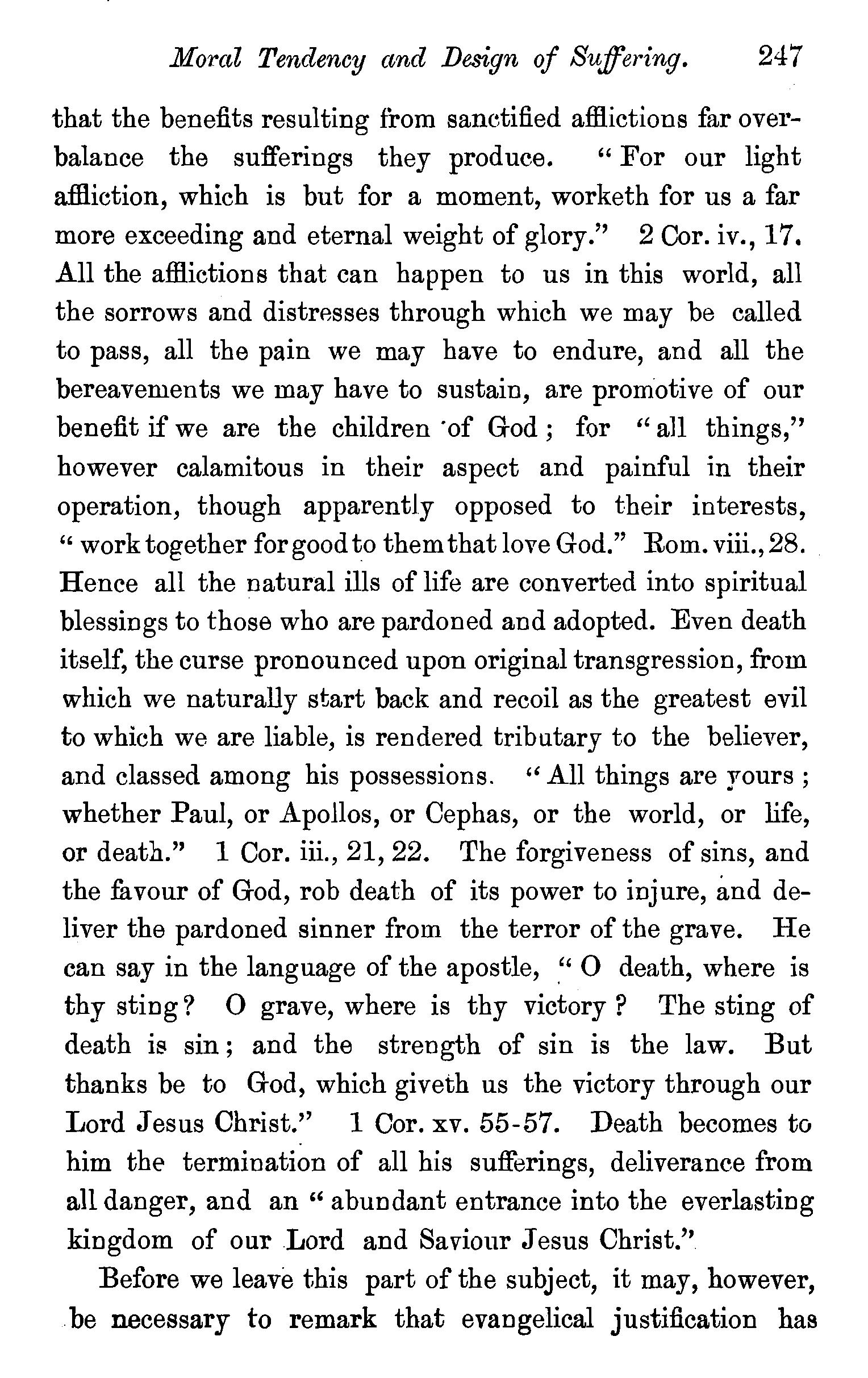
that the benefits resulting from sanctified afflictions far overbalance the sufferings they produce. "For our light affliction, which is but for a moment, worketh for us a far more exceeding and eternal weight of glory.'' 2 Cor. iv., 17. All the afflictions that can happen to us in this world, all the sorrows and distresses through which we may be called to pass, all the pain we may have to endure, and all the bereavements we may have to sustain, are promotive of our benefit if we are the children ·of God ; for " a11 things," however calamitous in their aspect and painful in their operation, though apparently opposed to their interests, '' work together for good to them that love God." Rom. viii., 28. Hence all the natural ills of life are converted into spiritual blessings to those who are pardoned and adopted. Even death itself, the curse pronounced upon original transgression, from which we naturally start back and recoil as the greatest evil to which we are liable, is rendered tributary to the believer, and classed among his possessions. "All things are yours; whether Paul, or Apollos, or Cephas, or the world, or life, or death." 1 Cor. iii., 21, 22. The forgiveness of sins, and the favour of God, rob death of its power to injure, and deliver the pardoned sinner from the terror of the grave. He can say in the language of the apostle, .'' 0 death, where is thy sting? 0 grave, where is thy victory ? The sting of death is sin; and the strength of sin is the law. But thanks be to God, which giveth us the victory through our Lord Jesus Christ.'' 1 Cor. xv. 55-57. Death becomes to him the termination of all his sufferings, deliverance from all danger, and an "abundant entrance into the everlasting kingdom of our Lord and Saviour Jesus Christ.'' Before we leave this part of the subject, it may, however, be necessary to remark that evangelical justification has
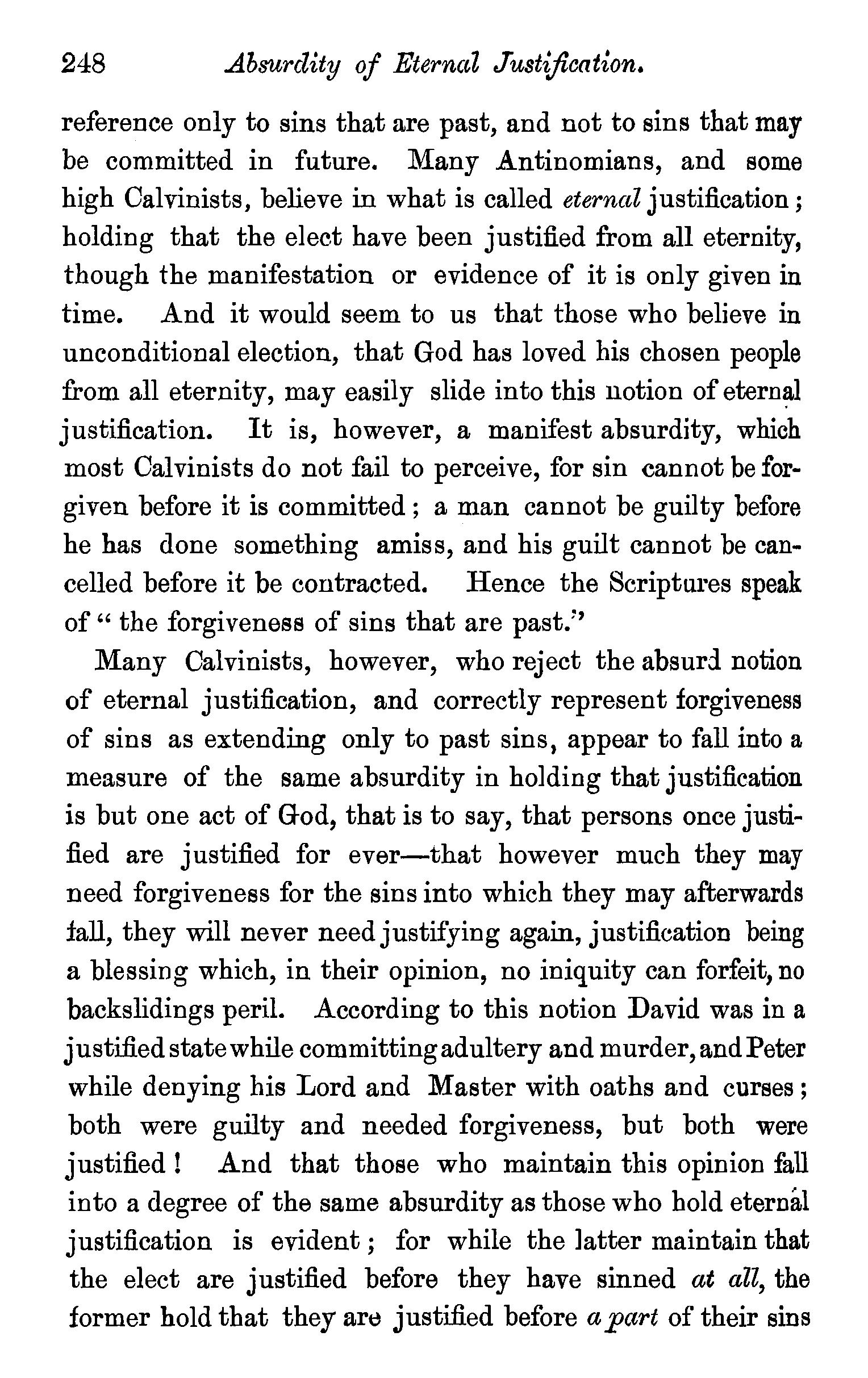
.Absurdity of Eternal Justification.
reference only to sins that are past, and not to sins that may be committed in future. Many Antinomians, and some high Calvinists, believe in what is called eternal justification; holding that the elect have been justified from all eternity, though the manifestation or evidence of it is only given in time. And it would seem to us that those who believe in unconditional election, that God has loved his chosen people from all eternity, may easily slide into this notion of eternal justification. It is, however, a manifest absurdity, which most Calvinists do not fail to perceive, for sin cannot be forgiven before it is committed ; a man cannot be guilty before he has done something amiss, and his guilt cannot be cancelled before it be contracted. Hence the Scriptures speak of" the forgiveness of sins that are past.''
Many Calvinists, however, who reject the absurd. notion of eternal justification, and correctly represent forgiveness of sins as extending only to past sins, appear to fall into a measure of the same absurdity in holding that justification is but one act of God, that is to say, that persons once justified are justified for ever-that however much they may need forgiveness for the sins into which they may afterwards fall, they will never need justifying again, justification being a blessing which, in their opinion, no iniquity can forfeit, no backslidings peril. According to this notion David was in a justified state while committing adultery and murder, and Peter while denying his Lord and Master with oaths and curses ; both were guilty and needed forgiveness, but both were justified! And that those who maintain this opinion fall into a degree of the same absurdity as those who hold eternal justification is evident; for while the 1atter maintain that the elect are justified before they have sinned at all, the former hold that they are justified before ctpart of their sins
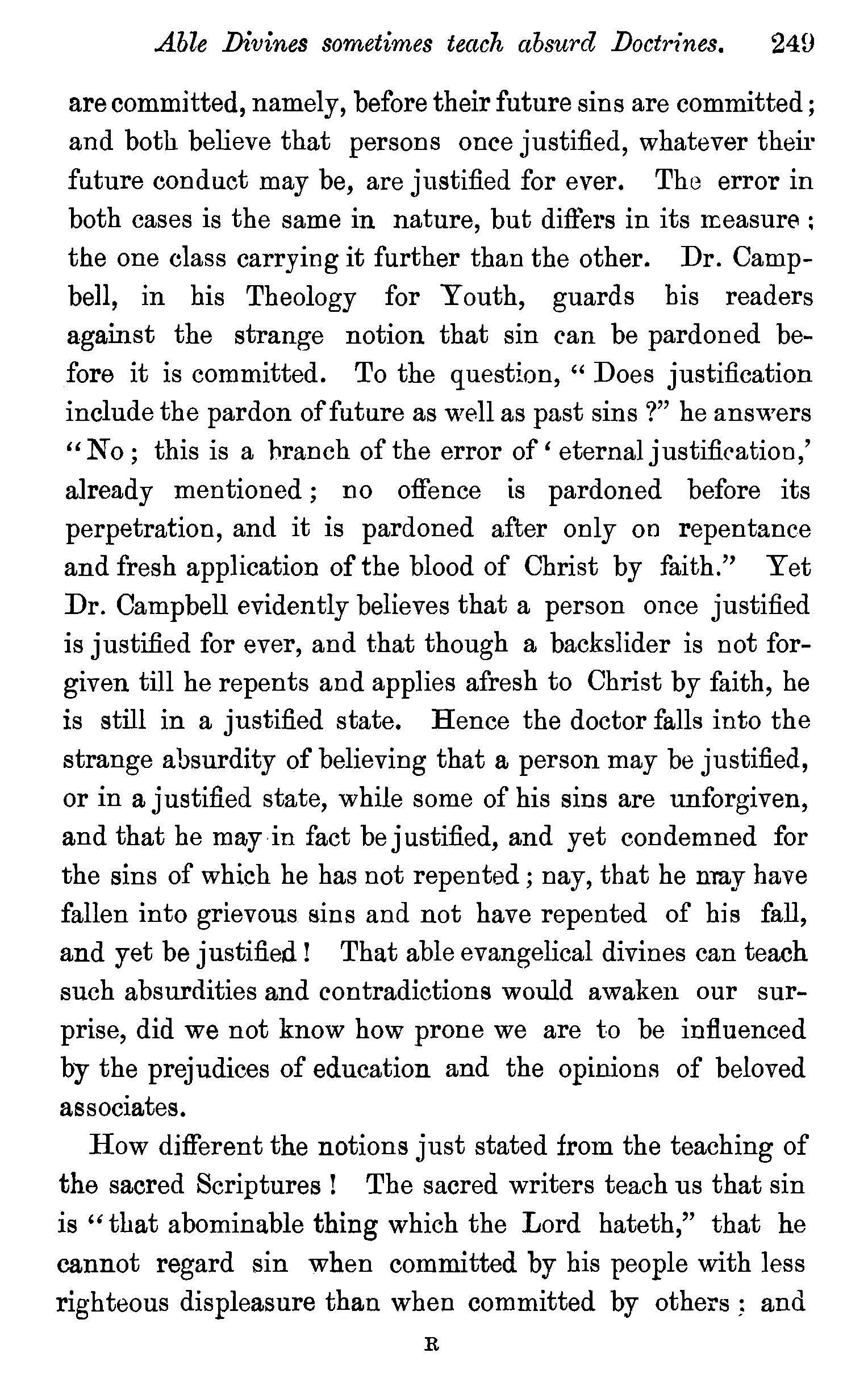
are committed, namely, before their future sins are committed; and both believe that persons once justified, whatever their future conduct may be, are justified for ever. The error in both cases is the same in nature, but differs in its measure ; the one class carrying it further than the other. Dr. Campbell, in his Theology for Youth, guards bis readers against the strange notion that sin can be pardoned before it is committed. To the question, "Does justification include the pardon of future as well as past sins ?" he answers "No; this is a branch of the error of' eternal justification,' already mentioned ; no offence is pardoned before its perpetration, and it is pardoned after only on repentance and fresh application of the blood of Christ by faith." Yet Dr. Campbell evidently believes that a person once justified is justified for ever, and that though a backslider is not forgiven till he repents and applies afresh to Christ by faith, he is still in a justified state. Hence the doctor falls into the strange absurdity of believing that a person may be justified, or in a justified state, while some of his sins are unforgiven, and that he may in fact be justified, and yet condemned for the sins of which he bas not repented; nay, that he may have fallen into grievous sins and not have repented of hjs fall, and yet be justified! That able evangelical divines can teach such absurdities and contradictions would awaken our surprise, did we not know how prone we are to be influenced by the prejudices of education and the opinions of beloved associates.
How different the notions just stated from the teaching of the sacred Scriptures ! The sacred writers teach us that sin is "that abominable thing which the Lord hateth," that he cannot regard sin when committed by his people with less righteous displeasure than when committed by others ; and

250 Sin Always Entails Condemnation ancl Wrath.
that wilful sin incurs the loss of his favour and the privileges of justification. How clear and explicit is the language of the Almighty by the prophet Ezekiel on this point. " When the righteous turneth away from his righteousness, and committeth iniquity, and doeth according to all the abominations that the wicked man doeth, shall he live? All his righteousness that he hath done shall not be mentioned; in his trespass that he hath trespassed, and in his sin that he hath sinned, in them shall he die."
Ch. xviii., 24. In the thirtythird chapter of the same prophecies we meet with a similarly clear and admonitory statement-•'When I shall say to the righteous that he shall surely live ; if he trust to his own righteousness, and commit iniquity, all his righteousness shall not be remembered, but for his iniquity that he hath committed he shall die for it." Verse 13. Coming to the New Testament, we find similarly solemn statements made by our Lord himself: "Every -h in me that beareth not fruit he taketh away."" If a ma#de not in me, he is cast forth as a branch, and is withered; and men gather them, and cast them into the fire, and they are burned." John xv., 2,6. Hence the admonitions and exhortations to watchfulness and prayer scattered throughout the writings of the apostles, all implying the possibility of falling fro~ce, and that justification includes only the forgiveness ofsm.s that are past and not those which may be committed in future.
But j usti:fication extends to all past sins-to all the sins committed before the act of justification takes place. God does not pardon our isins by degrees, but at once ; not forgiving one sin at a time merely, or many, •or most of our sins, but by one act of rich sovereign grace he forgives the whole. However numerous our sins, however great their magnitude, and however aggravated by the circnm-
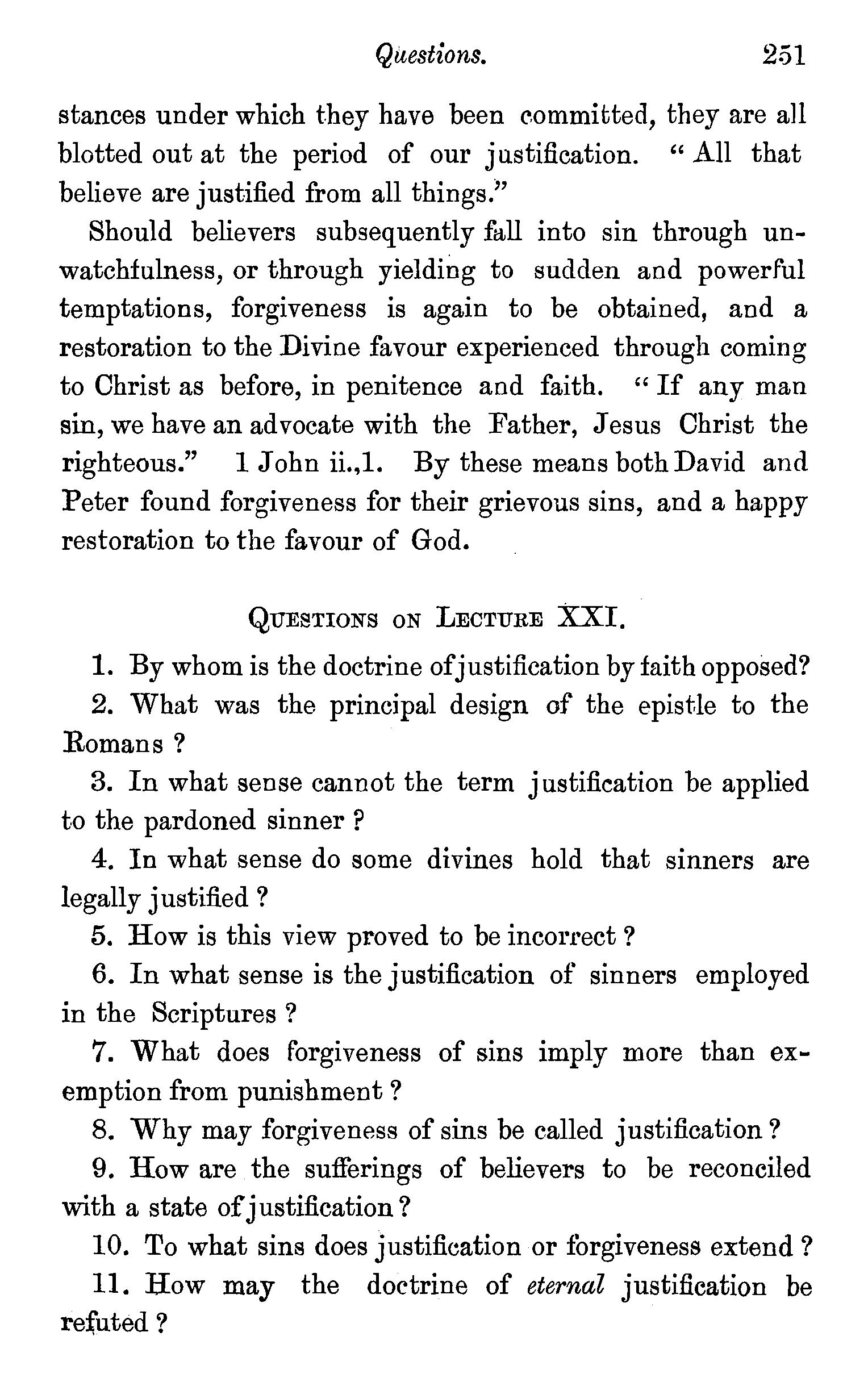
stances under which t.hey have been r,ommitted, they are all blotted out at the period of our justification. " All that believe are justified from all things.''
Should believers subsequently fall into sin through unwatchfulness, or through yielding to sudden and powerful temptations, forgiveness is again to be obtained, and a restoration to the Divine favour experienced through coming to Christ as before, in penitence and faith. " If any man sin, we have an advocate with the Father, Jesus Christ the righteous." 1 John ii.,1. By these means both David and Peter found forgiveness for their grievous sins, and a happy restoration to the favour of God.
1. By whom is the doctrine ofjustification by faith opposed?
2. What was the principal design of the epistle to the Romans?
3. In what sense cannot the term justification be applied to the pardoned sinner ?
4. In what sense do some divines hold that smners are legally justified ?
5. How is this view proved to be incorl'ect ?
6. In what sense is the justification of sinners employed in the Scriptures?
7. What does forgiveness of sins imply more than exemption from punishment ?
8. Why may forgiveness of sins be called justification?
9. How are the sufferings of believers to be reconciled with a state of justification?
10. To what sins does justification or forgiveness extend?
11. How may the doctrine of eternal justification be re{uted?
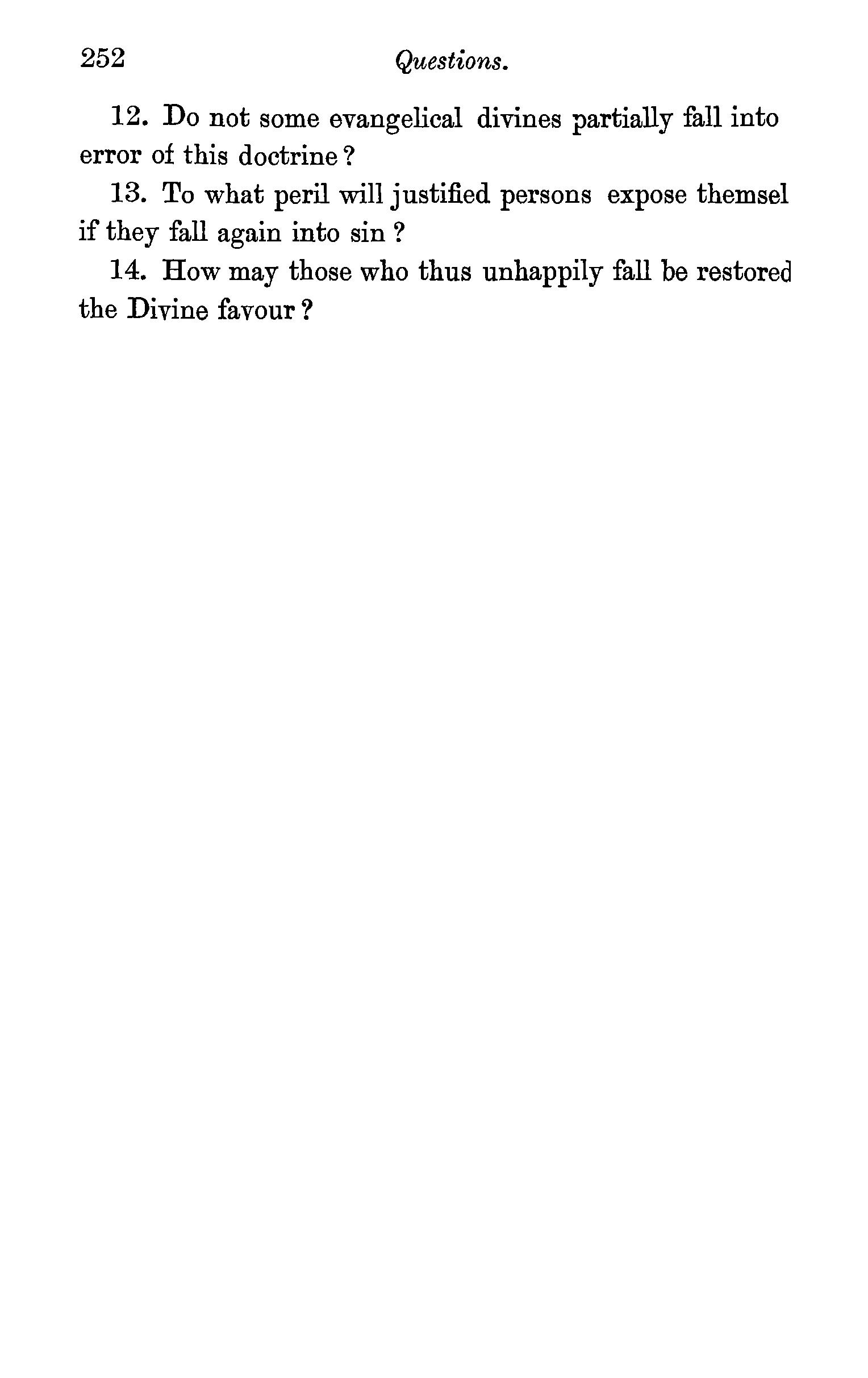
12. Do not some evangelical divines partially fall into error of this doctrine?
13. To what peril will justified persons expose themsel if they fall again into sin ?
14. How may those who thus unhappily fall be restored the Divine favour?
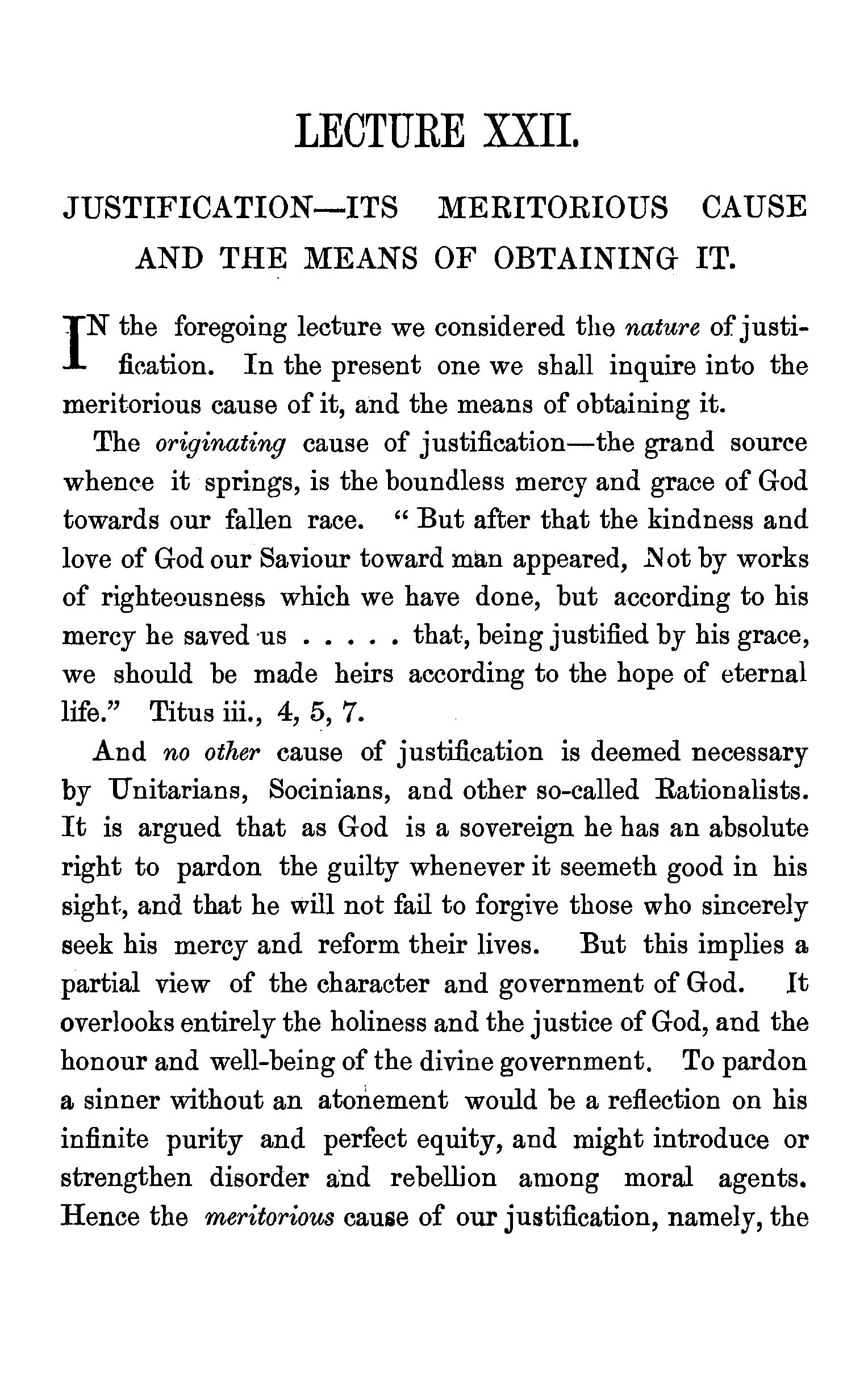
IN the foregoing lecture we considered the nature of justification. In the present one we shall inquire into the meritorious cause of it, and the means of obtaining it. The originating cause of justification-the grand source whence it springs, is the boundless mercy and grace of God towards our fallen race. " But after that the kindness and love of God our Saviour toward man appeared, .Not by works of righteousneso which we have done, but according to his mercy he saved ·us ..... that, being justified by his grace, we should be made heirs according to the hope of eternal life." Titus iii., 4, 5, 7.
And no other cause of justification is deemed necessary by Unitarians, Socinians, and other so-called Rationalists. It is argued that as God is a sovereign he has an absolute right to pardon the guilty whenever it seemeth good in his sight, and that he will not fail to forgive those who sincerely seek his mercy and reform their lives. But this implies a partial view of the character and government of God. It overlooks entirely the holiness and the justice of God, and the honour and well-being of the divine government. To pardon a sinner without an atonement would be a reflection on his infinite purity and perfect equity, and might introduce or strengthen disorder and rebellion among moral agents. Hence the meritorious cause of our justification, namely, the

Justification Springs from Christ's Atoning Work.
mediatorial work of Christ, which harmonises the justice and mercy of God in our salvation. So the apostle Paul teaches rn an important passage quoted in a former lecture, but which it may be necessary to quote again in this place. "Being justified freely by his grace, through the redemption that is in Christ Jesus, whom God hath set forth to be a propitiation through faith in his blood,to declare his righteousness for the remission of sins that are past, through the forbearance of God; to declare, I say, at this time his righteousness; that he might be just, and the justifier of him which believeth in Jesus." Rom. iii., 24-26. From this passage it is evident that God had regard to his justice-his righteous character and the equity of his government-in devising the scheme of human redemption, and carrying out his purposes of mercy towards our sinful race.
Can a sinner then be justified by the pure mercy of God, without a mediator ? So Unitarians, Socinians, and others teach; but not so the sacred Scriptures. Man cannot, indeed, be justified without the exercise of Divine mercy in his behalf, for he is guilty and deserving of punishment. The justification of the ungodly in the nature of things is an act of clemency and ofboundless mercy. Hence penitents may properly pray for the exercise of Divine mercy in their behalf, and pardoned sinners may well ascribe their forgiveness and acceptance with God to his infinite mercy. But the theory of the exercise of Divine mercy in the forgiveness of a penitent sinner, without reference to an atonement, is directly antiscriptural. It excludes the meritorious cause of justification; it ignores the redeeming work of our blessed Saviour; it overlooks the perfect justice, immaculate purity, and inviolable truth of God; and therefore implies very imperfect views of the Divine character and government. The apostle
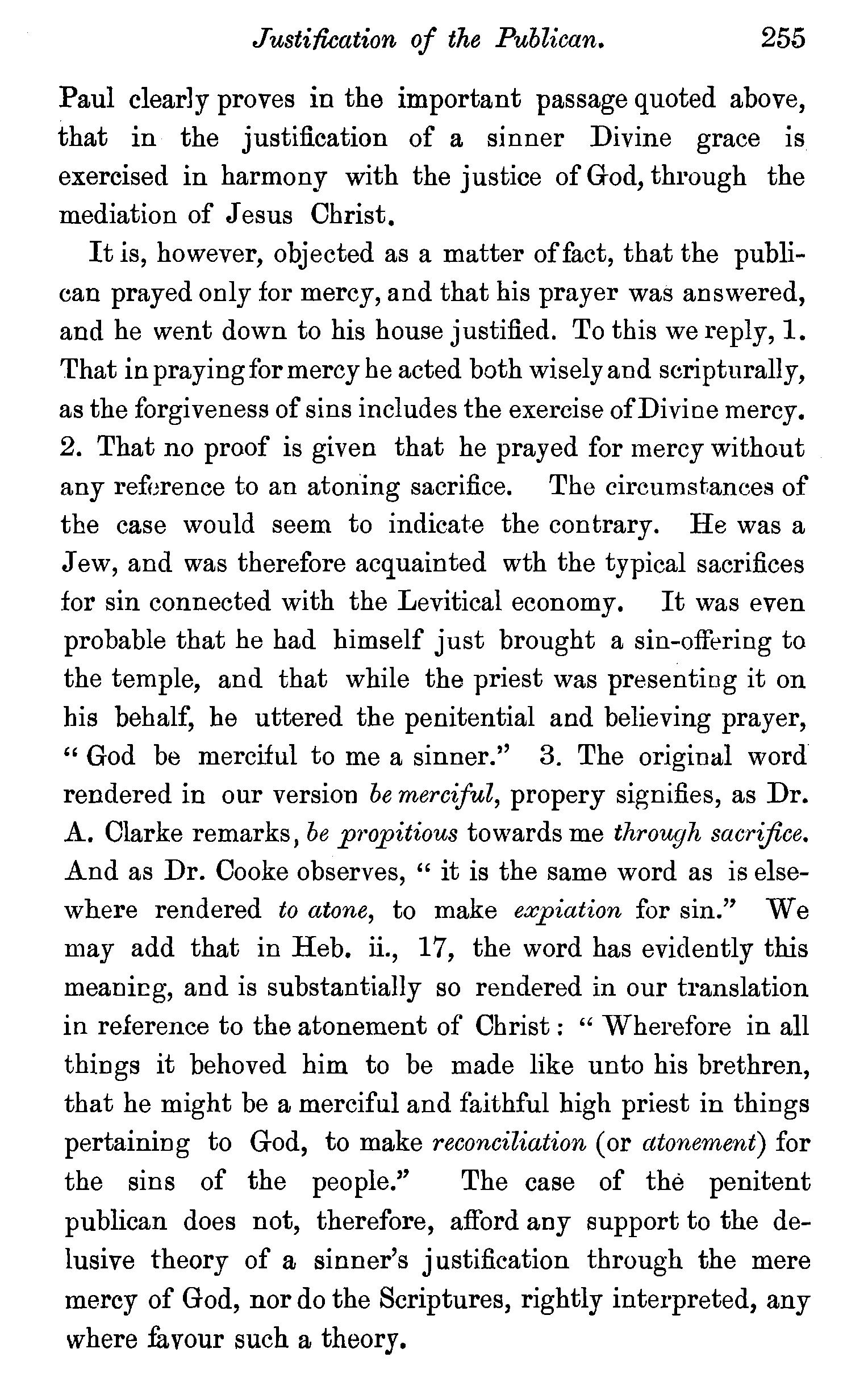
Paul clearly proves in the important passage quoted above, that in the justification of a sinner Divine grace is exercised in harmony with the justice of God, through the mediation of Jesus Christ.
It is, however, objected as a matter of fact, that the publican prayed only for mercy, and that his prayer was answered, and he went down to his house justified. To this we reply, 1. That in praying for mercy he acted both wisely and scripturally, as the forgiveness of sins includes the exercise of Divine mercy. 2. That no proof is given that he prayed for mercy without any reforence to an atoning sacrifice. The circumstances of the case would seem to indicate the contrary. He was a Jew, and was therefore acquainted wth the typical sacrifices for sin connected with the Levitical economy. It was even probable that he had himself just brought a sin-offering to the temple, and that while the priest was presenting it on his behalf, he uttered the penitential and believing prayer, "God be merciful to me a sinner.'' 3. The original word rendered in our version be merciful, propery signifies, as Dr. A. Clarke remarks, be propitious towards me through sacrifice. And as Dr. Cooke observes, " it is the same word as is elsewhere rendered to atone, to make expiation for sin." We may add that in Heb. ii., 17, the word has evidently this meanir:!g, and is substantially so rendered in our translation in reference to the atonement of Christ : " Wherefore in all things it behoved him to be made like unto his brethren, that he might be a merciful and faithful high priest in things pertaining to God, to make reconciliation ( or cttonement) for the sins of the people.'' The case of the penitent publican does not, therefore, afford any support to the delusive theory of a sinner's justification through the mere mercy of God, nor do the Scriptures, rightly interpreted, any where favour such a theory.
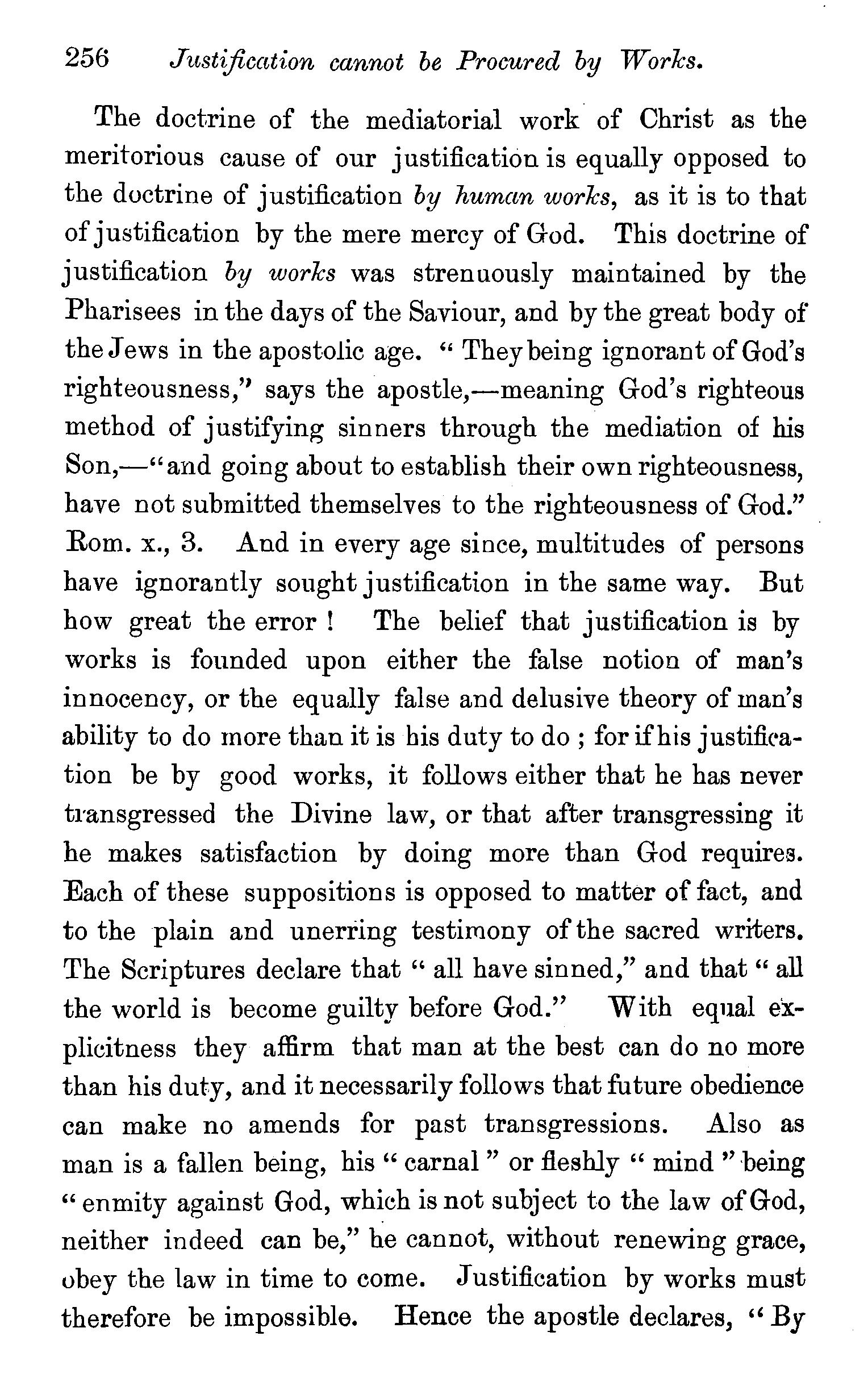
The doctrine of the mediatorial work· of Christ as the meritorious cause of our justification is equally opposed to the doctrine of justification by human works, as it is to that of justification by the mere mercy of God. This doctrine of justification by works was strenuously maintained by the Pharisees in the days of the Saviour, and by the great body of the Jews in the apostolic age. " They being ignorant of God's righteousness,'' says the apostle,-meaning God's righteous method of justifying sinners through the mediation of his Son,-" and going about to establish their own righteousness, have not submitted themselves to the righteousness of God." Rom. x., 3. And in every age since, multitudes of persons have ignorantly sought justification in the same way. But how great the error ! The belief that justification is by works is founded upon either the false notion of man's innocency, or the equally false and delusive theory of man's ability to do more than it is bis duty to do ; for if his justi:fieation be by good works, it follows either that he has never transgressed the Divine law, or that after transgressing it he makes satisfaction by doing more than God requires. Each of these suppositions is opposed to matter of fact, and to the plain and unerring testimony of the sacred writers. The Scriptures declare that " all have sinned," and that " all the world is become guilty before God." With equal explicitness they affirm that man at the best can do no more than his duty, and it necessarily follows that future obedience can make no amends for past transgressions. Also as man is a fallen being, his" carnal" or fleshly "mind'' ·being "enmity against God, which is not subject to the law of God, neither indeed can be," he cannot, without renewing grace, obey the law in time to come. Justification by works must therefore be impossible. Hence the apostle declares, '' By
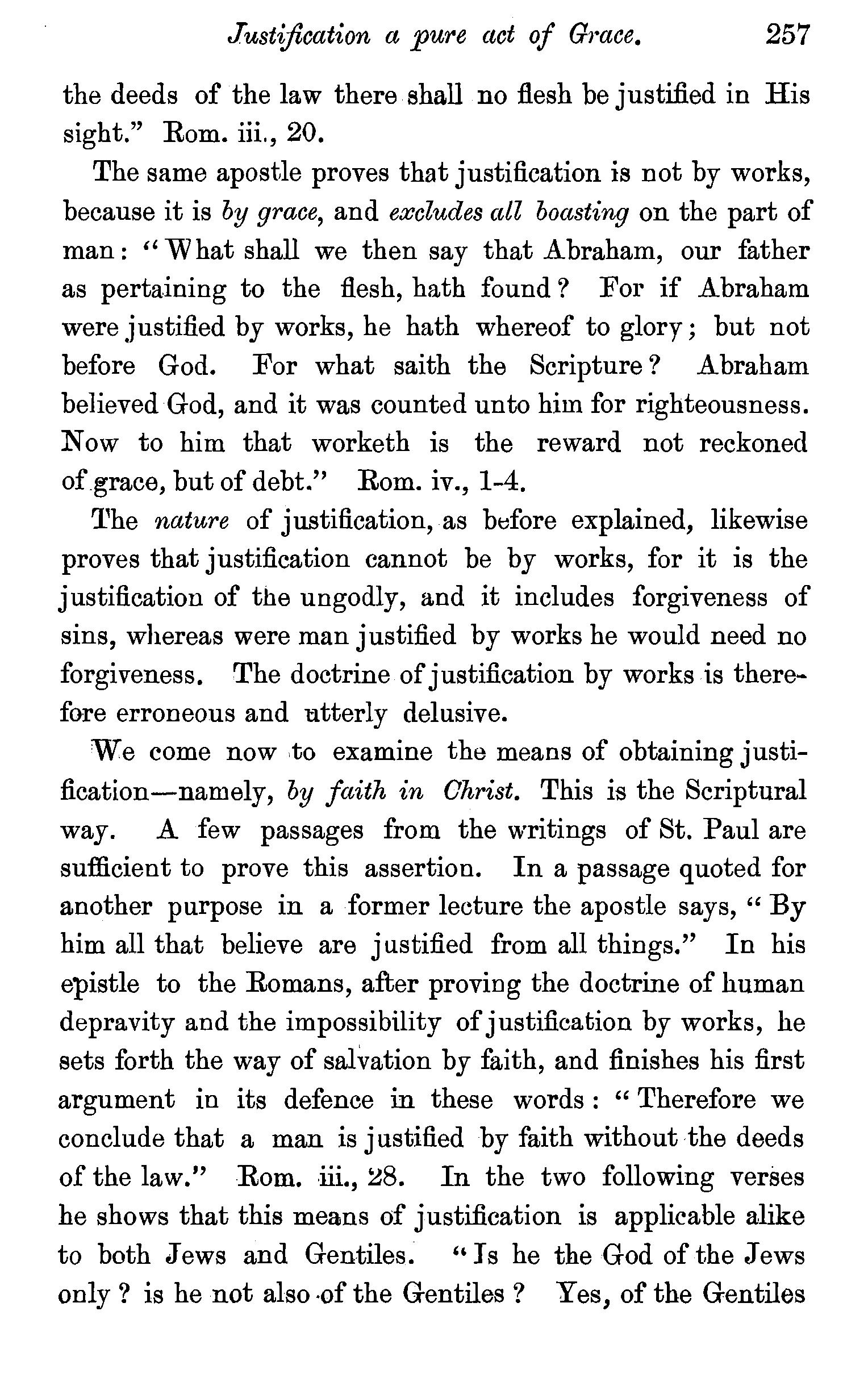
the deeds of the law there shall no flesh be justified in His sight." Rom. iii., 20.
The same apostle proves that justification is not by works, because it is by grace, and excludes all boasting on the part of man : "What shall we then say that Abraham, our father as pertaining to the flesh, hath found? For if Abraham were justified by works, he hath whereof to glory; but not before God. For what saith the Scripture? Abraham believed God, and it was counted unto him for righteousness. Now to him that worketh is the reward not reckoned ofgrace, but of debt." Rom. iv., 1-4.
11he nature of justification, as before explained, likewise proves that justification cannot be by works, for it is the justification of the ungodly, and it includes forgiveness of sins, whereas were man justified by works he would need no forgiveness. The doctrine of justification by works is therefore erroneous and c1.tterly delusive.
We come now to examine the means of obtaining justification-namely, by faith in Ghrist. This is the Scriptural way. A few passages from the writings of St. Paul are sufficient to prove this assertion. In a passage quoted for another purpose in a former lecture the apostle says, " By him all that believe are justified from all things." In his epistle to the Romans, after proving the doctrine of human depravity and the impossibility of justification by works, he sets forth the way of salvation by faith, and finishes his first argument in its defence in these words : " Therefore we conclude that a man is justified by faith without the deeds of the law." Rom. iii., ~8. In the two following verses he shows that this means of justification is applicable alike to both Jews and Gentiles. '' J s he the God of the Jews only ? is he not also •of the Gentiles ? Yes, of the Gentiles
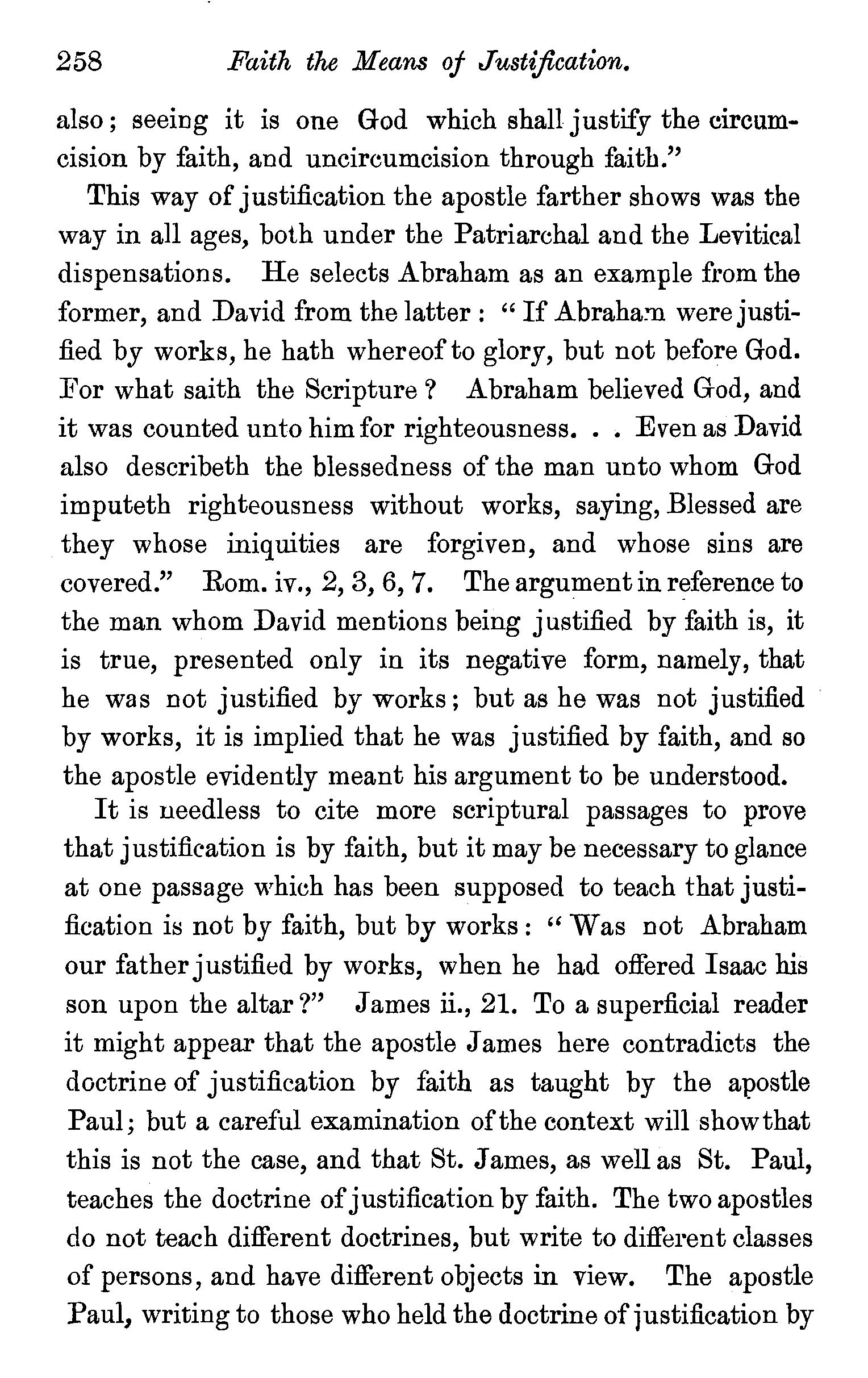
Faith the Means of Justification.
also; seeing it is one God which shall justify the circumcision by faith, and uncircumcision through faith."
This way of justification the apostle farther shows was the way in all ages, both under the Patriarchal and the Levitical dispensations. He selects Abraham as an example from the former, and David from the latter : "If Abraha~ were justified by works, he hath whereof to glory, but not before God. ]Tor what saith the Scripture ? Abraham believed God, and it was counted unto him for righteousness. . . Even as David also describeth the blessedness of the man unto whom God imputeth righteousness without works, saying, Blessed are they whose iniquities are forgiven, and whose sins are covered." Rom. iv., 2, 3, 6, 7. The argument in reference to the man whom David mentions being justified by faith is, it is true, presented only in its negative form, namely, that he was not justified by works; but as he was not justified by works, it is implied that he was justified by faith, and so the apostle evidently meant his argument to be understood. It is needless to cite more scriptural passages to prove that justification is by faith, but it may be necessary to glance at one passage which has been supposed to teach that justification is not by faith, but by works : " Was not Abraham our father justified by works, when he had offered Isaac his son upon the altar?" James ii., 21. To a superficial reader it might appear that the apostle James here contradicts the doctrine of justification by faith as taught by the apostle Paul; but a careful examination ofthe context will showthat this is not the case, and that St. James, as well as St. Paul, teaches the doctrine of justification by faith. The two apostles do not teach different doctrines, but write to different classes of persons, and have different objects in view. The apostle Paul, writing to those who held the doctrine of justification by
Paul and James Reconciled. 259
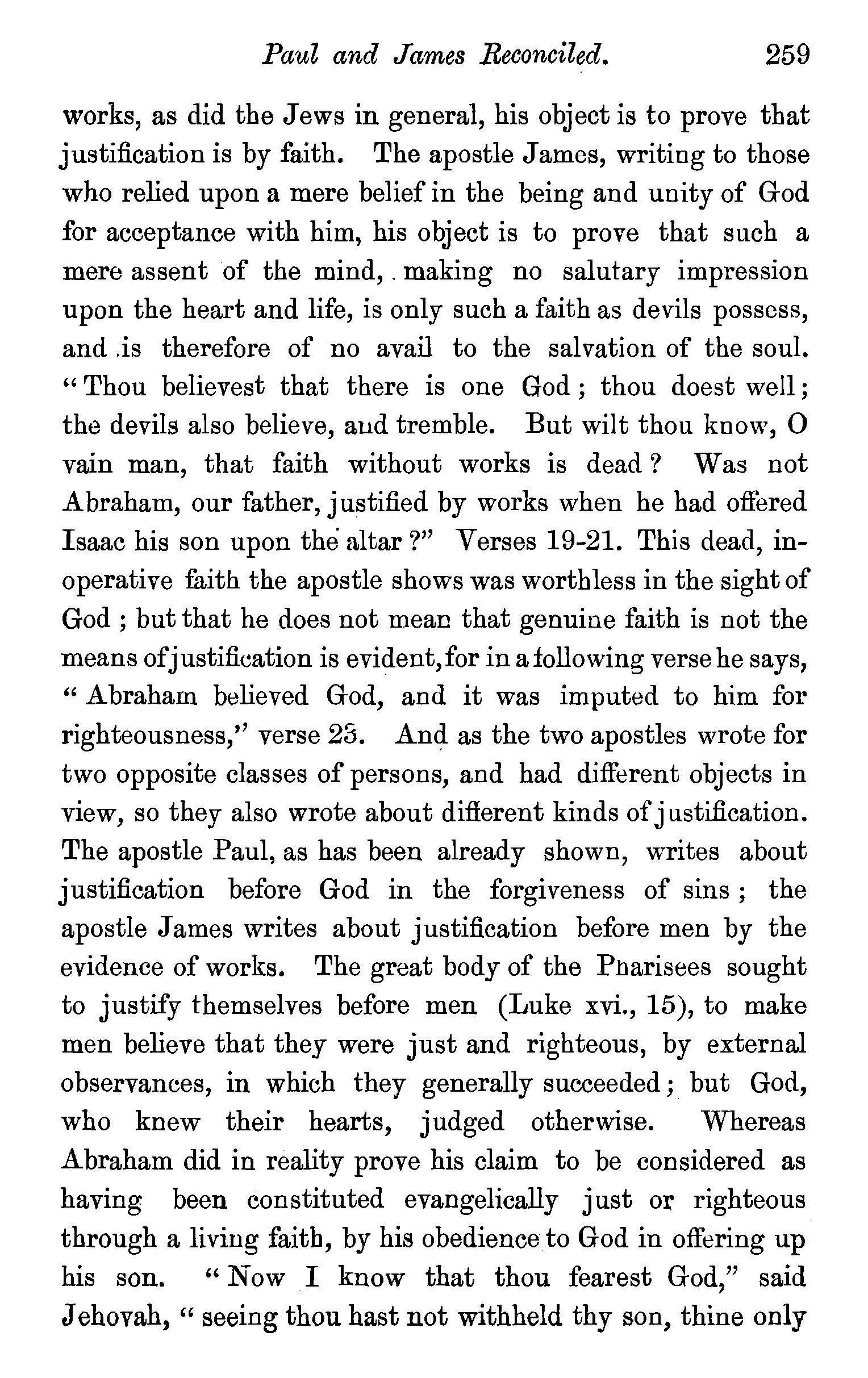
works, as did the Jews in general, his object is to prove that justification is by faith. The apostle James, writing to those who relied upon a mere belief in the being and unity of God for acceptance with him, his object is to prove that such a mere assent of the mind, . making no salutary impression upon the heart and life, is only such a faith as devils possess, and .is therefore of no avail to the salvation of the soul. " Thou believest that there is one God ; thou doest well; the devils also believe, aud tremble. But wilt thou know, 0 vain man, that faith without works is dead ? Was not Abraham, our father, justified by works when he had offered Isaac his son upon the altar?" Verses 19-21. This dead, inoperative faith the apostle shows was worthless in the sight of God ; but that he does not mean that genuine faith is not the means ofjustification is evident,for in a following verse he says, "Abraham believed God, and it was imputed to him for righteousness,'' verse 23. And as the two apostles wrote for two opposite classes of persons, and had different objects in view, so they also wrote about different kinds of justification. The apostle Paul, as has been already shown, writes about justification before God in the forgiveness of sins ; the apostle James writes about justification before men by the evidence of works. The great body of the Pharisees sought to justify themselves before men (Luke xvi., 15), to make men believe that they were just and righteous, by external observances, in which they generally succeeded; but God, who knew their hearts, judged otherwise. Whereas Abraham did in reality prove his claim to be considered as having been constituted evangelically just or righteous through a living faith, by his obedience to God in offering up his son. " Now I know that thou fearest God," said Jehovah, " seeing thou hast not withheld thy son, thine only
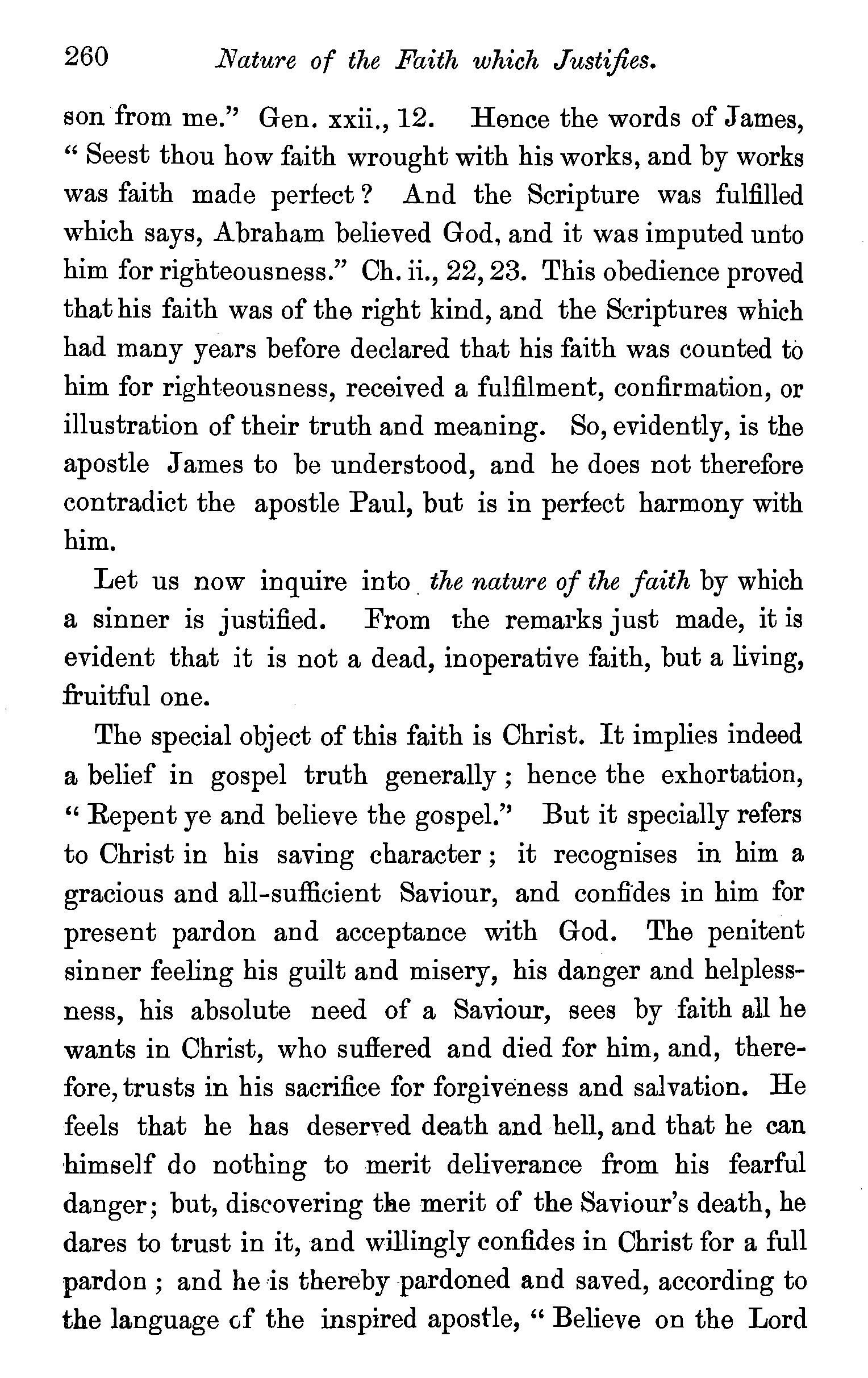
.Nature of the Faith which Justifies.
son from me.'' Gen. xxii., 12. Hence the words of James, " Seest thou how faith wrought with his works, and by works was faith made perfect ? And the Scripture was fulfilled which says, Abraham believed God, and it was imputed unto him for righteousness." Oh. ii., 22, 23. This obedience proved that his faith was of the right kind, and the Scriptures which had many years before declared that his faith was counted to him for righteousness, received a fulfilment, confirmation, or illustration of their truth and meaning. So, evidently, is the apostle James to be understood, and he does not therefore contradict the apostle Paul, but is in perfect harmony with him.
Let us now inquire into. the nature of the faith by which a sinner is justified. From the remarks just made, it is evident that it is not a dead, inoperative faith, but a living, fruitful one.
The special object of this faith is Christ. It implies indeed a belief in gospel truth generally ; hence the exhortation, " Repent ye and believe the gospel." But it specially refers to Christ in bis saving character ; it recognises in him a gracious and all-sufficient Saviour, and confides in him for present pardon and acceptance with God. The penitent sinner feeling bis guilt and misery, bis danger and helplessness, his absolute need of a Saviour, sees by faith all he wants in Christ, who suffered and died for him, and, therefore, trusts in his sacrifice for forgiveness and salvation. He feels that he bas deserved death and hell, and that he can himself do nothing to merit deliverance from his fearful danger; but, discovering the merit of the Saviour's death, he dares to trust in it, and willingly confides in Christ for a full pardon ; and he is thereby pardoned and saved, according to the language eif the inspired apostle, " Believe on the Lord
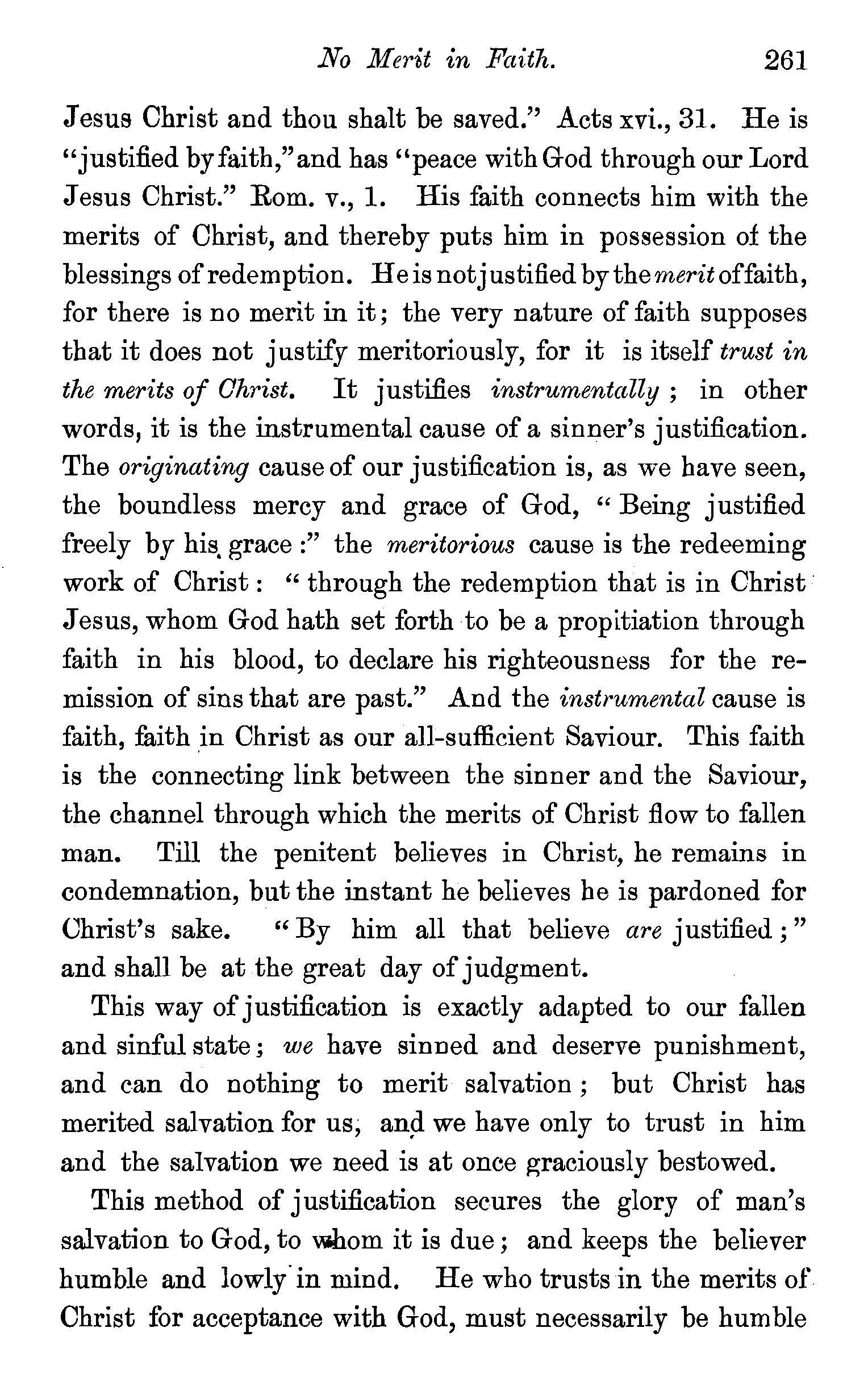
Jesus Christ and thou shalt be saved.'' Acts xvi., 31. He is "justified byfaith,"and has "peace with God through our Lord Jesus Christ." Rom. v., 1. His faith connects him with the merits of Christ, and thereby puts him in possession of the blessings of redemption. Heisnotjustified bythemeritoffaith, for there is no merit in it; the very nature of faith supposes that it does not justify meritoriously, for it is itself trust in the merits of Ghrist. It justifies instrumentctlly ; in other words, it is the instrumental cause of a sinner's justification. The originating cause of our justification is, as we have seen, the boundless mercy and grace of God, "Being justified freely by his, grace:" the meritorious cause is the redeeming work of Christ : " through the redemption that is in Christ· Jesus, whom God hath set forth to be a propitiation through faith in his blood, to declare his righteousness for the remission of sins that are past." And the instrumental cause is faith, faith .in Christ as our all-sufficient Saviour. This faith is the connecting link between the sinner and the Saviour, the channel through which the merits of Christ flow to fallen man. Till the penitent believes in Christ, he remains in condemnation, but the instant he believes he is pardoned for Christ's sake. "By him all that believe are justified;" and shall be at the great day of judgment. This way of justification is exactly adapted to our fallen and sinful state; we have sinned and deserve punishment, and can do nothing to merit salvation ; but Christ has merited salvation for us; anp. we have only to trust in him and the salvation we need is at once graciously bestowed. This method of justification secures the glory of man's salvation to God, to w.hom it is due; and keeps the believer humble and lowly· in mind. He who trusts in the merits of Christ for acceptance with God, must necessarily be humble
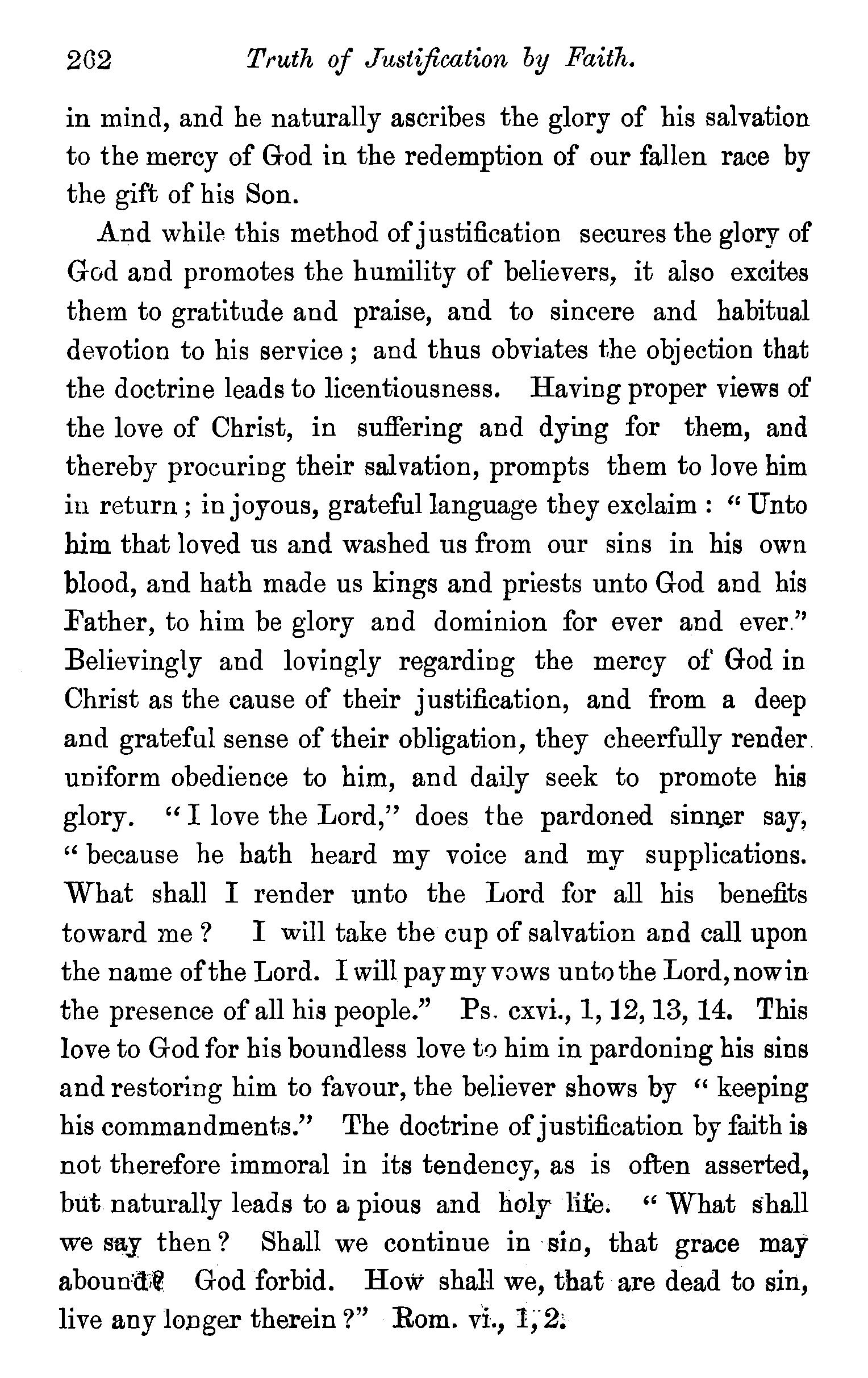
in mind, and he naturally ascribes the glory of his salvation to the mercy of God in the redemption of our fallen race by the gift of his Son.
And while this method of justification secures the glory of God and promotes the humility of believers, it also excites them to gratitude and praise, and to sincere and habitual devotion to his service; and thus obviates the objection that the doctrine leads to licentiousness. Having proper views of the love of Christ, in suffering and dying for them, and thereby procuring their salvation, prompts them to love him in return; in joyous, grateful language they exclaim: "Unto him that loved us and washed us from our sins in his own blood, and hath made us kings and priests unto God and his Father, to him be glory and dominion for ever and ever.'' Believingly and lovingly regarding the mercy of God in Christ as the cause of their justification, and from a deep and grateful sense of their obligation, they cheerfully render. uniform obedience to him, and daily seek to promote his glory. "I love the Lord," does the pardoned sim1,er say, " because he hath heard my voice and my supplications. What shall I render unto the Lord for all his benefits toward me ? I will take the cup of salvation and call upon the name of the Lord. I will paymyvDws unto the Lord,nowin the presence of all his people." Ps. cxvi., 1, 12, 13, 14. This love to God for his boundless love t0 him in pardoning his sins and restoring him to favour, the believer shows by " keeping his commandments." The doctrine of justification by faith is not therefore immoral in its tendency, as is often asserted, but naturally leads to a pious and holy lite. " What shall we s-ay then? Shall we continue in sin, that grace may aboun'd:,f God forbid. How shall we, that are dead to sin, live any longer therein?'' Rom. vi., 1~·2;
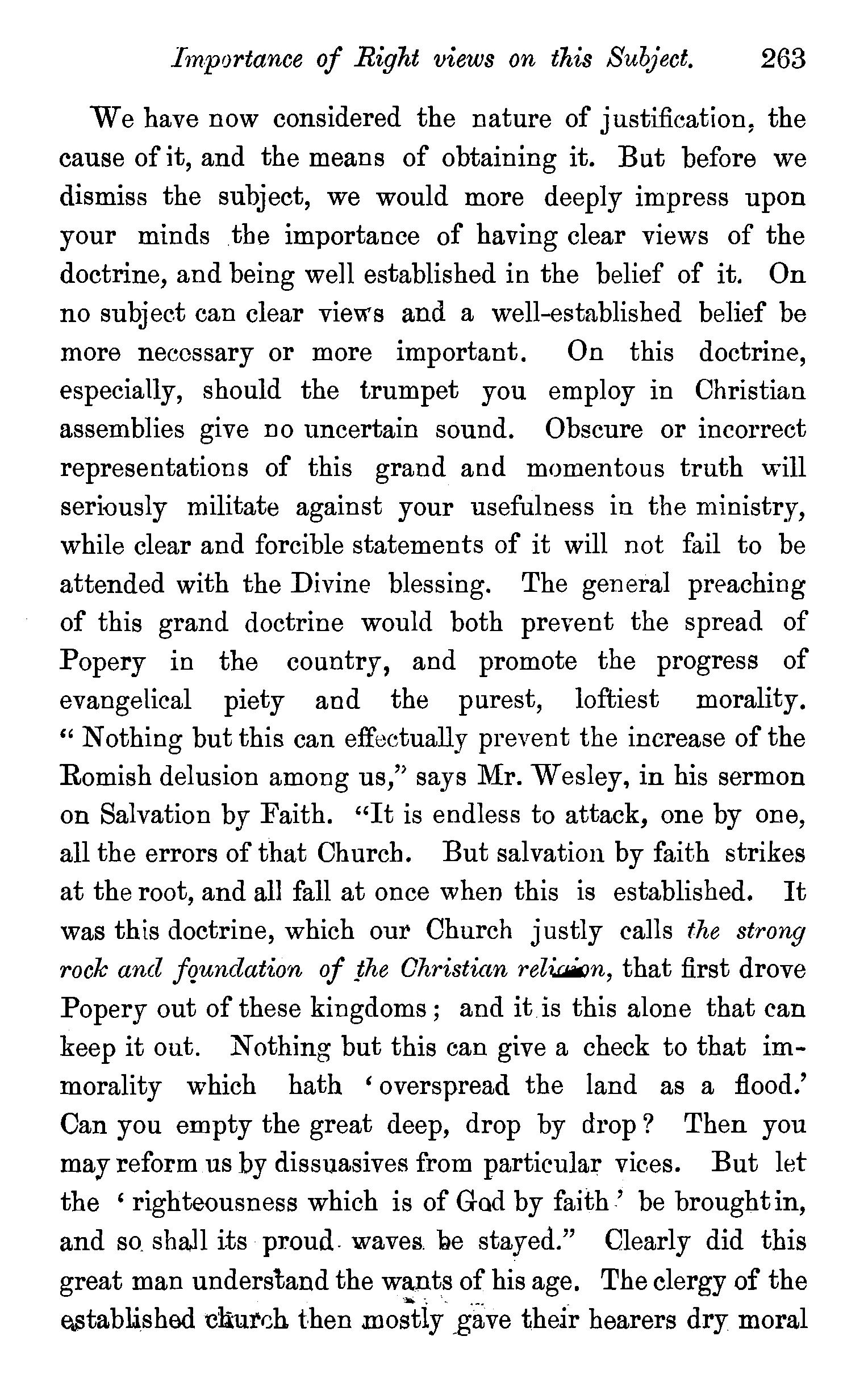
We have now considered the nature of justification: the cause of it, and the means of obtaining it. But before we dismiss the subject, we would more deeply impress upon your minds .the importance of having clear views of the doctrine, and being well established in the belief of it. On no subject can clear views and a well-established belief be more necessary or more important. On this doctrine, especially, should the trumpet you employ in Christian assemblies give no uncertain sound. Obscure or incorrect representations of this grand and momentous truth will seriously militate against your usefulness in the ministry, while clear and forcible statements of it will not fail to be attended with the Divine blessing. The general preaching of this grand doctrine would both prevent the spread of Popery in the country, and promote the progress of evangelical piety and the purest, loftiest morality. " Nothing but this can effectually prevent the increase of the Romish delusion among us," says Mr. Wesley, in his sermon on Salvation by Faith. "lt is endless to attack, one by one, all the errors of that Church. But salvation by faith strikes at the root, and all fall at once when this is established. It was this doctrine, which our Church justly calls the strong roclc ancl fqunclation of _the Christian reli.ui.Jn,that first drove Popery out of these kingdoms; and itis this alone that can keep it out. Nothing but this can give a check to that immorality which hath ' overspread the land as a flood.' Can you empty the great deep, drop by drop ? Then you may reform us by dissuasives from particular vices. But let the 'righteousness which is of Gad by faith' be brought in, and so. sha,11its proud. waves, be stayed." Clearly did this great man understand the want_sof his age. The clergy of the -
~tablished church then mostly _gavetheir hearers dry moral
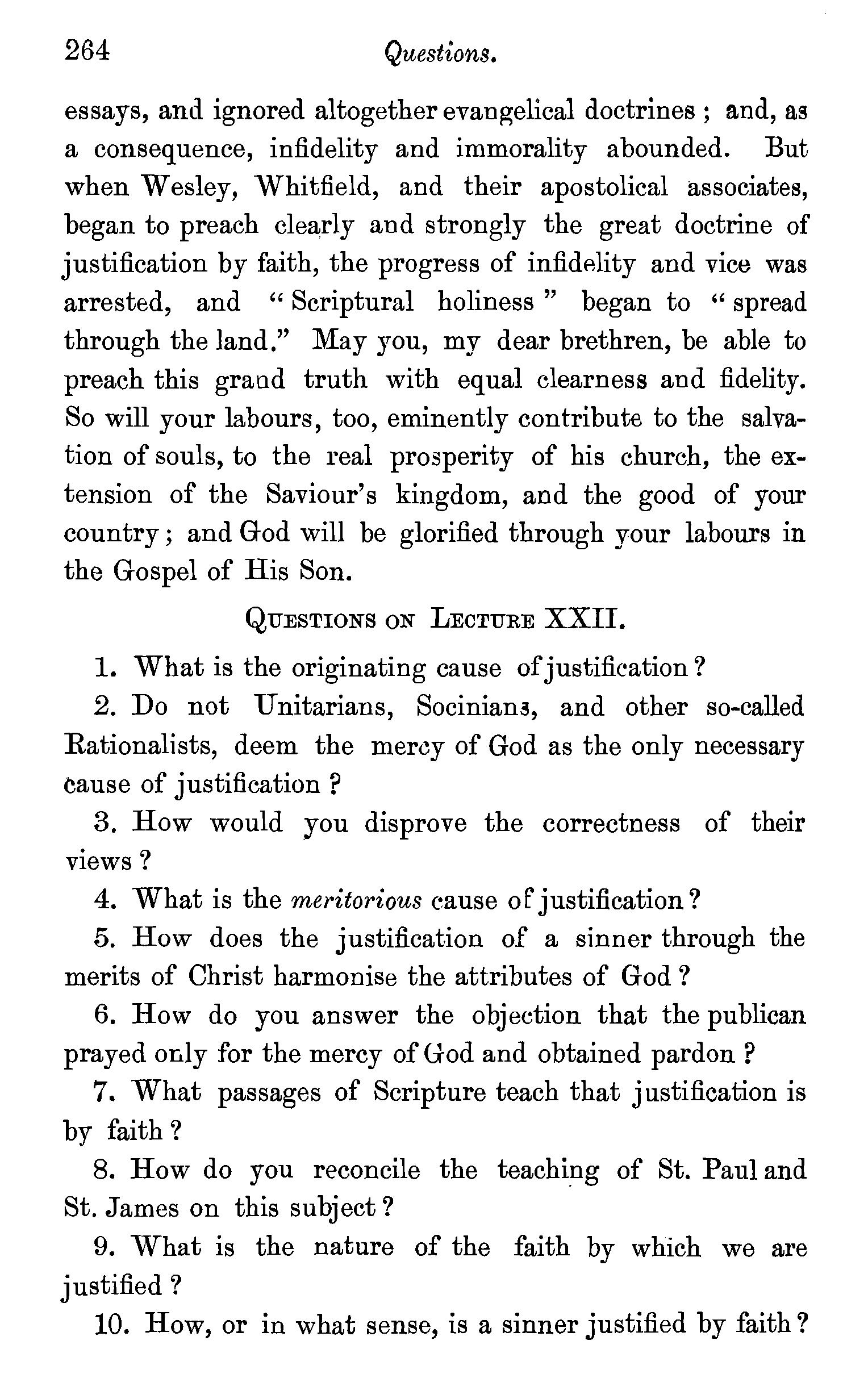
essays, and. ignored altogether evangelical doctrines ; and, as a consequence, infidelity and immorality abounded. But when Wesley, Whitfield, and their apostolical associates, began to preach clearly and strongly the great doctrine of justification by faith, the progress of infidAlity and vie~ was arrested, and "Scriptural holiness " began to "spread through the land." May you, my dear brethren, be able to preach this grand truth with equal clearness and fidelity. So will your labours, too, eminently contribute to the salvation of souls, to the real prosperity of his church, the extension of the Saviour's kingdom, and the good of your country; and God will be glorified through your labours in the Gospel of His Son.
1. What is the originating cause of justification?
2. Do not Unitarians, Sociniam, and other so-called Rationalists, deem the mercy of God as the only necessary cause of justification ?
3. How would you disprove the correctness of their views?
4. What is the meritorious cause of justification?
5. How does the justification of a sinner through the merits of Christ harmonise the attributes of God ?
6. How do you answer the objection that the publican prayed ori.ly for the mercy of God and obtained pardon ?
7. What passages of Scripture teach that justification is by faith?
8. How do you reconcile the teaching of St. Paul and St. James on this subject?
9. What is the nature of the faith by which we are justified?
10. How, or in what sense, is a sinner justified by faith?
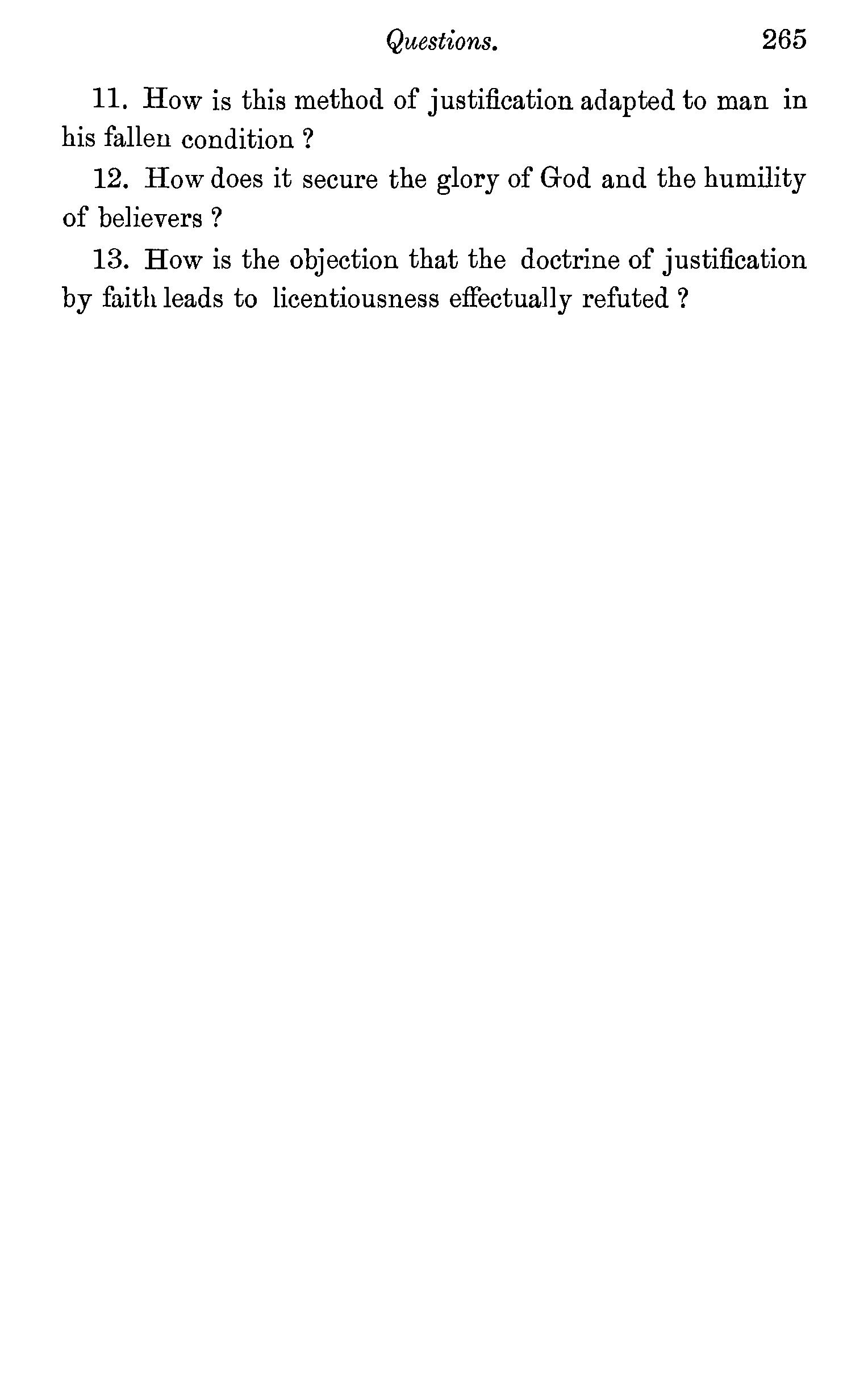
11. How is this method of justification adapted to man in his fallen condition ?
12. How does it secure the glory of God and the humility of believers ?
13. How is the objection that the doctrine of justification by faith leads to licentiousness effectually refuted ?
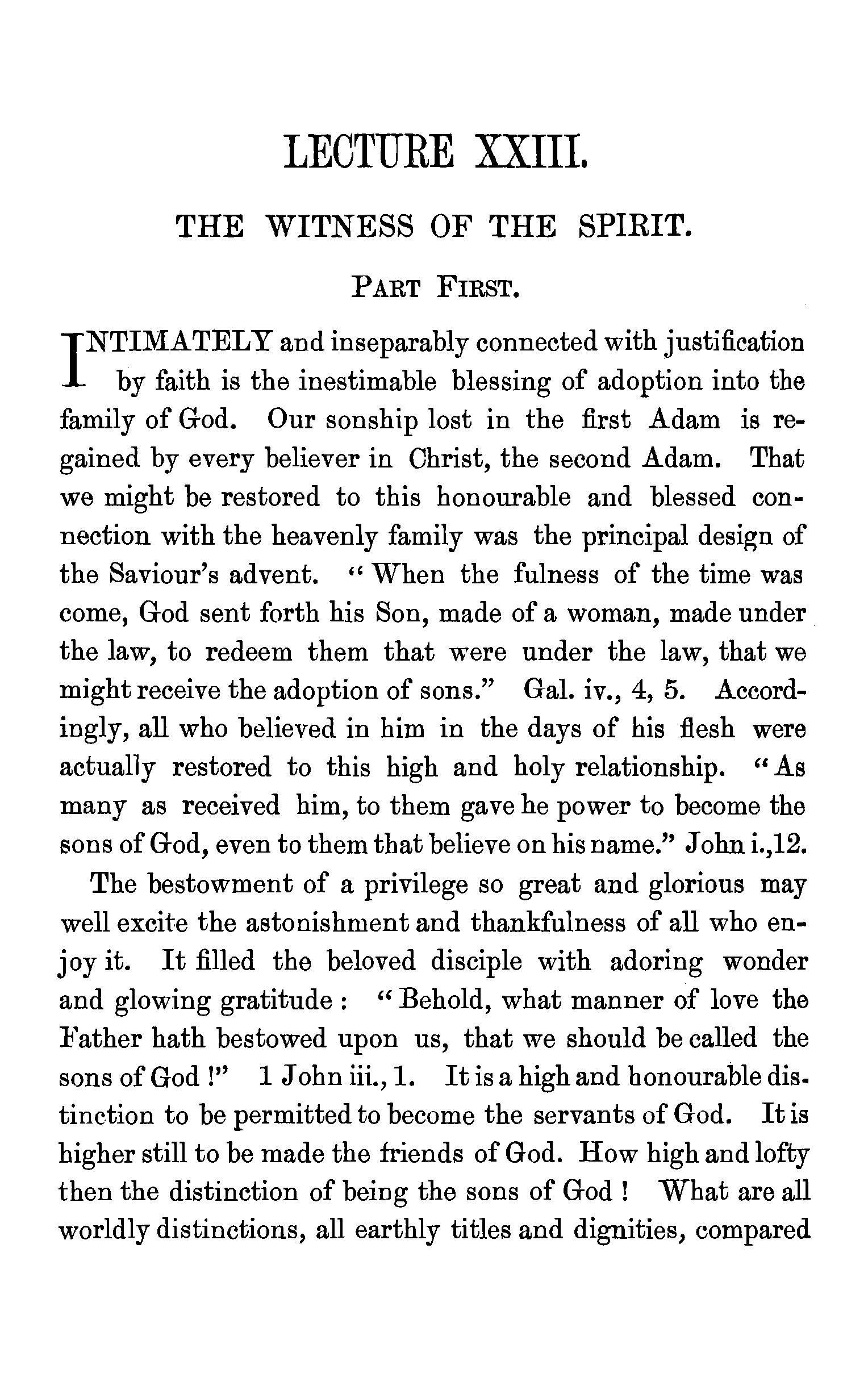
and inseparably connected with justification by faith is the inestimable blessing of adoption into the family of God. Our sonship lost in the first Adam is regained by every believer in Christ, the second Adam. That we might be restored to this honourable and blessed connection with the heavenly family was the principal design of the Saviour's advent. "When the fulness of the time was come, God sent forth his Son, made of a woman, made under the law, to redeem them that were under the law, that we might receive the adoption of sons." Gal. iv., 4, 5. Accordingly, all who believed in him in the days of his flesh were actually restored to this high and holy relationship. "As many as received him, to them gave he power to become the sons of God, even to them that believe on his name.'' John i.,12. The bestowment of a privilege so great and glorious may well excite the astonishment and thankfulness of all who enjoy it. It filled the beloved disciple with adoring wonder and glowing gratitude : " Behold, what manner of love the ]father hath bestowed upon us, that we should be called the sons of God !'' 1 John iii., 1. It is a high and honourable dis. tinction to be permitted to become the servants of God. It is higher still to be made the friends of God. How high and lofty then the distinction of being the sons of God! What are all worldly distinctions, all earthly titles and dignities, compared

with this ! They dwindle into utter insignificance-they are wholly obscured in the effulgence of this exalted dignity and honour.
Nor is this an empty title-a mere honorary distinction, which imparts no benefit, or from which no real advantage is derived. It is significant of inestimable blessings and of glorious realities. Itgives access to God as a reconciled Father, imparts a title to the heavenly inheritance, and inspires a joyful hope of a blissful immortality. "If children, then heirs heirs of God, and joint-heirs with Christ." Rom. viii., 17.
Can a knowledge of this exalted privilege-this blessed relationship, be obtained? Can those who are adopted into the heavenly family have an assurance of the fact? It will not be questioned that God can impart this knowledge or assurance to any whom he pleases thus to favour; and that he will bestow it upon those whom he admits into so intimate and endearing a relationship seems reasonable to suppose. As he bestows upon them such wondrous grace-such condescending love as to adopt them into his family and treat them as " dear children," it would be strange indeed if he did not convey to them a knowledge of the fact.
Appealing to the sacred Scriptures we find numerous instances recorded of persons being favoured with this blessed knowledge. In the first age of the world, while as yet the promises of the Saviour were but comparatively obscure, and religious light but dim, Abel " obtained witness that he was righteous,''-that he was justified and accepted of God, and adopted into the heavenly family. Enoch, before his translation, " had this testimony, that he pleased God,"that he enjoyed the Divine favour and approval. Noah received a similar testimony. Abraham, Isaac, and Jacob were blessed with repeated assurances of the Divine favour.
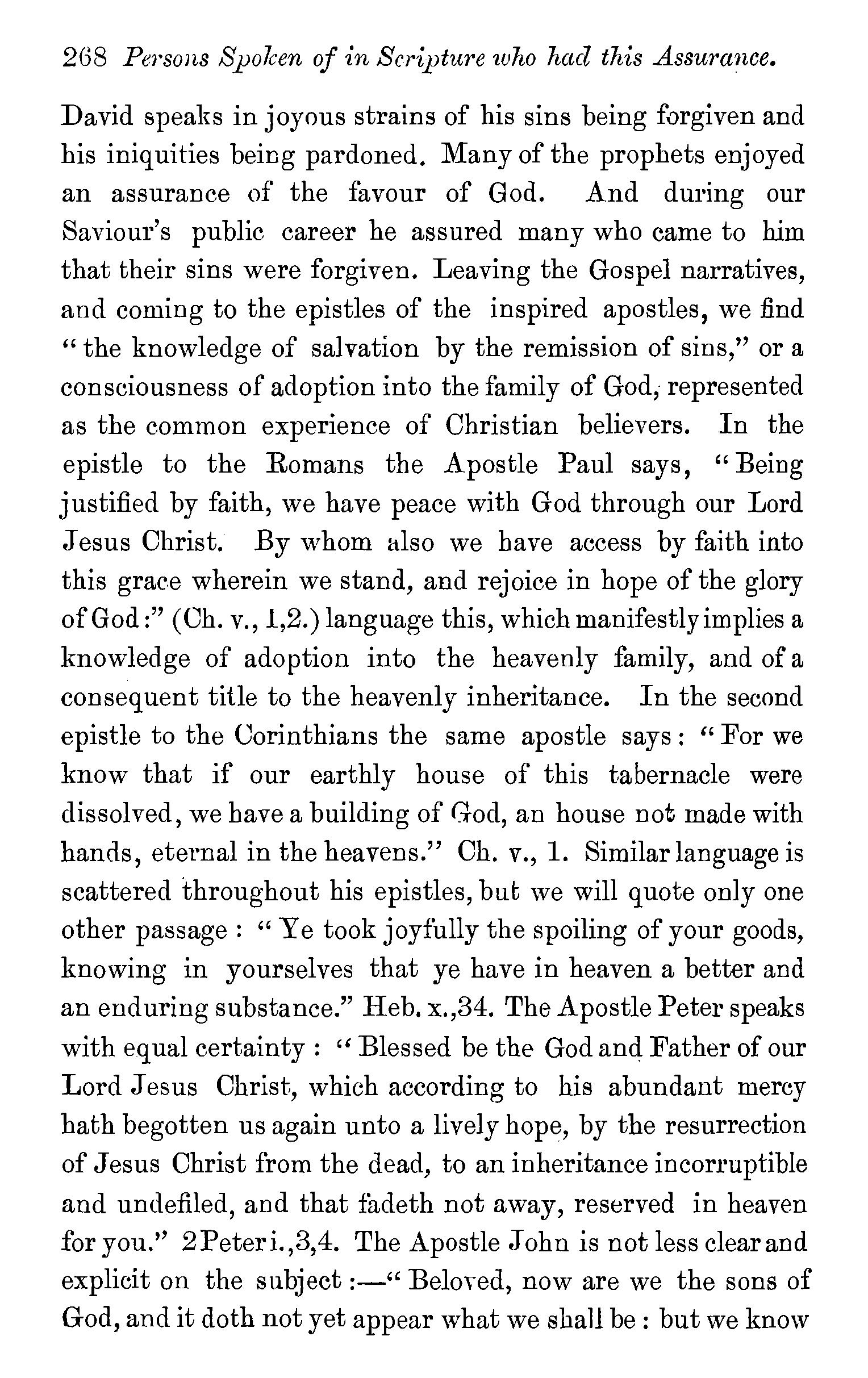
2G8 Pe1·sonsSpoken of in Scriptitre who hacl this Assurance.
David speaks in joyous strains of his sins being forgiven and his iniquities being pardoned. Many of the prophets enjoyed an assurance of the favour of God. And during our Saviour's public career he assured many who came to him that their sins were forgiven. Leaving the Gospel narratives, and coming to the epistles of the inspired apostles, we find "the knowledge of salvation by the remission of sins," or a consciousness of adoption into the family of God, represented as the common experience of Christian believers. In the epistle to the Romans the Apostle Paul says, "Being justified by faith, we have peace with God through our Lord Jesus Christ. By whom also we have access by faith into this grace wherein we stand, and rejoice in hope of the glory of God:" (Ch. v., 1,2.) language this, which manifestly implies a knowledge of adoption into the heavenly family, and of a consequent title to the heavenly inheritance. In the second epistle to the Corinthians the same apostle says : "For we know that if our earthly house of this tabernacle were dissolved, we have a building of God, an house not made with hands, etemal in the heavens." Ch. v., 1. Similar language is scattered throughout his epistles, but we will quote only one other passage: "Ye took joyfully the spoiling of your goods, knowing in yourselves that ye have in heaven a better and an enduring substance." Heb. x.,34. The Apostle Peter speaks with equal certainty: "Blessed be the God and Father of our Lord Jesus Christ, which according to his abundant mercy hath begotten us again unto a lively hope, by the resurrection of Jesus Christ from the dead, to an inheritance incorruptible and undefiled, and that fadeth not away, reserved in heaven for you.'' 2Peteri.,3,4. The Apostle John is not less clear and explicit on the subject:-" Beloved, now are we the sons of God, and it doth not yet appear what we shall be : but we know
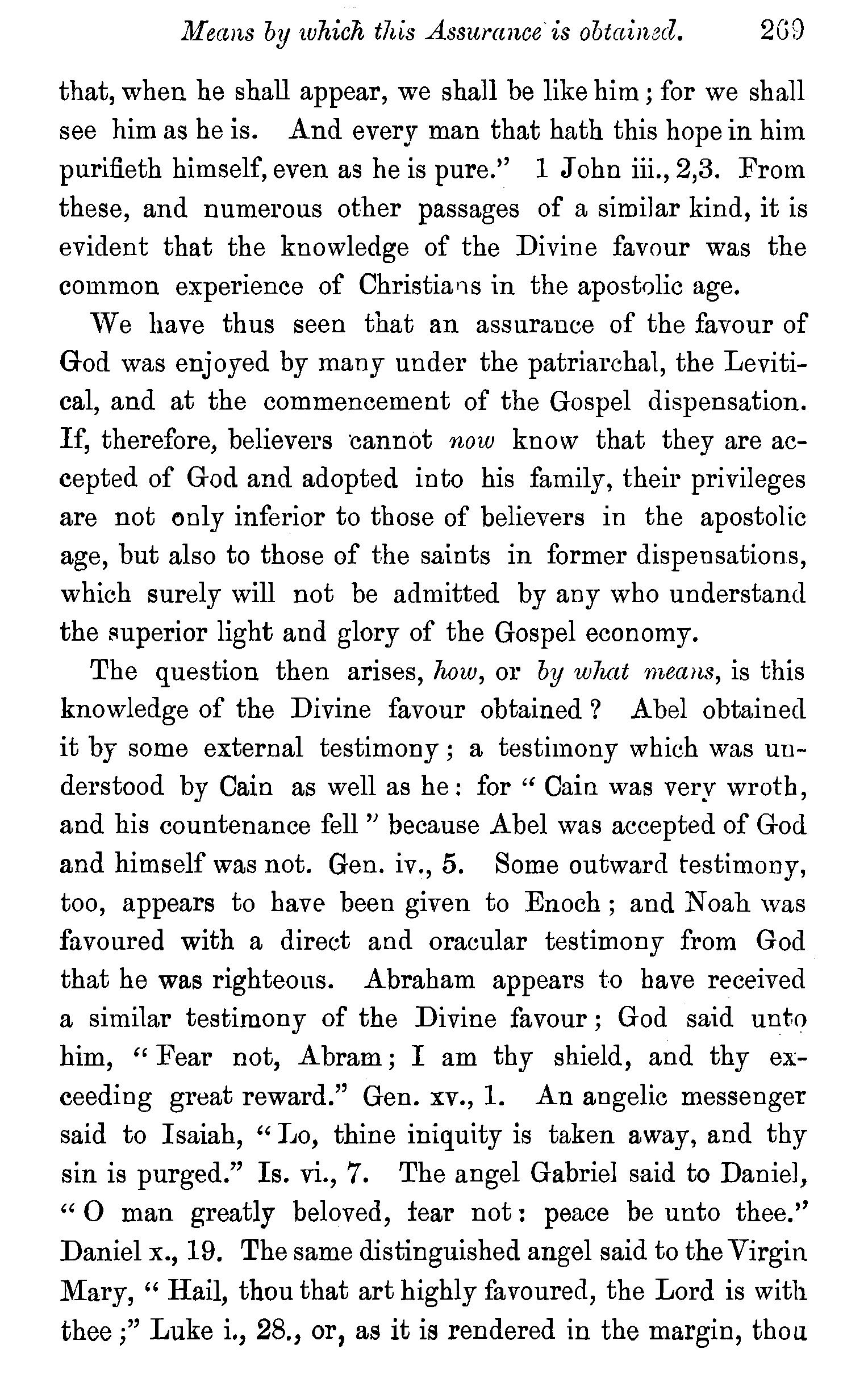
that, when he shall appear, we shall be like him; for we shall see him as he is. And every man that hath this hope in him purifieth himself, even as he is pure.'' 1 John iii., 2,3. From these, and numerous other passages of a similar kind, it is evident that the knowledge of the Divine favour was the common experience of Christia11sin the apost0lic age.
We have thus seen that an assurance of the favour of God was enjoyed by many under the patriarchal, the Levitical, and at the commencement of the Gospel dispensation. If, therefore, believers ·cannot now know that they are accepted of God and adopted into his family, their privileges are not only inferior to those of believers in the apostolic age, but also to those of the saints in former dispensations, which surely will not be admitted by any who understand the ~uperior light and glory of the Gospel economy.
The question then arises, how, or by what rneans, is this knowledge of the Divine favour obtained? Abel obtained it by some external testimony; a testimony which was understood by Cain as well as he: for "Cain was very wroth, and his countenance fell ') because Abel was accepted of God and himself was not. Gen. iv., 5. Some outward testimony, too, appears to have been given to Enoch ; and Noah was favoured with a direct and oracular testimony from God that he was righteous. Abraham appears to have received a similar testimony of the Divine favour; God said unto him, "Fear not, Abram; I am thy shield, and thy exceeding great reward." Gen. xv., 1. An angelic messenger said to Isaiah, "Lo, thine iniquity is taken away, and thy sin is purged." Is. vi., 7. The angel Gabriel said to Danie], " 0 man greatly beloved, fear not : peace be unto thee.'' Daniel x., 19. The same distinguished angel said to the Virgin Mary, "Hail, thou that art highly favoured, the Lord is with thee;" Luke i., 28., or, as it is rendered in the margin, thou
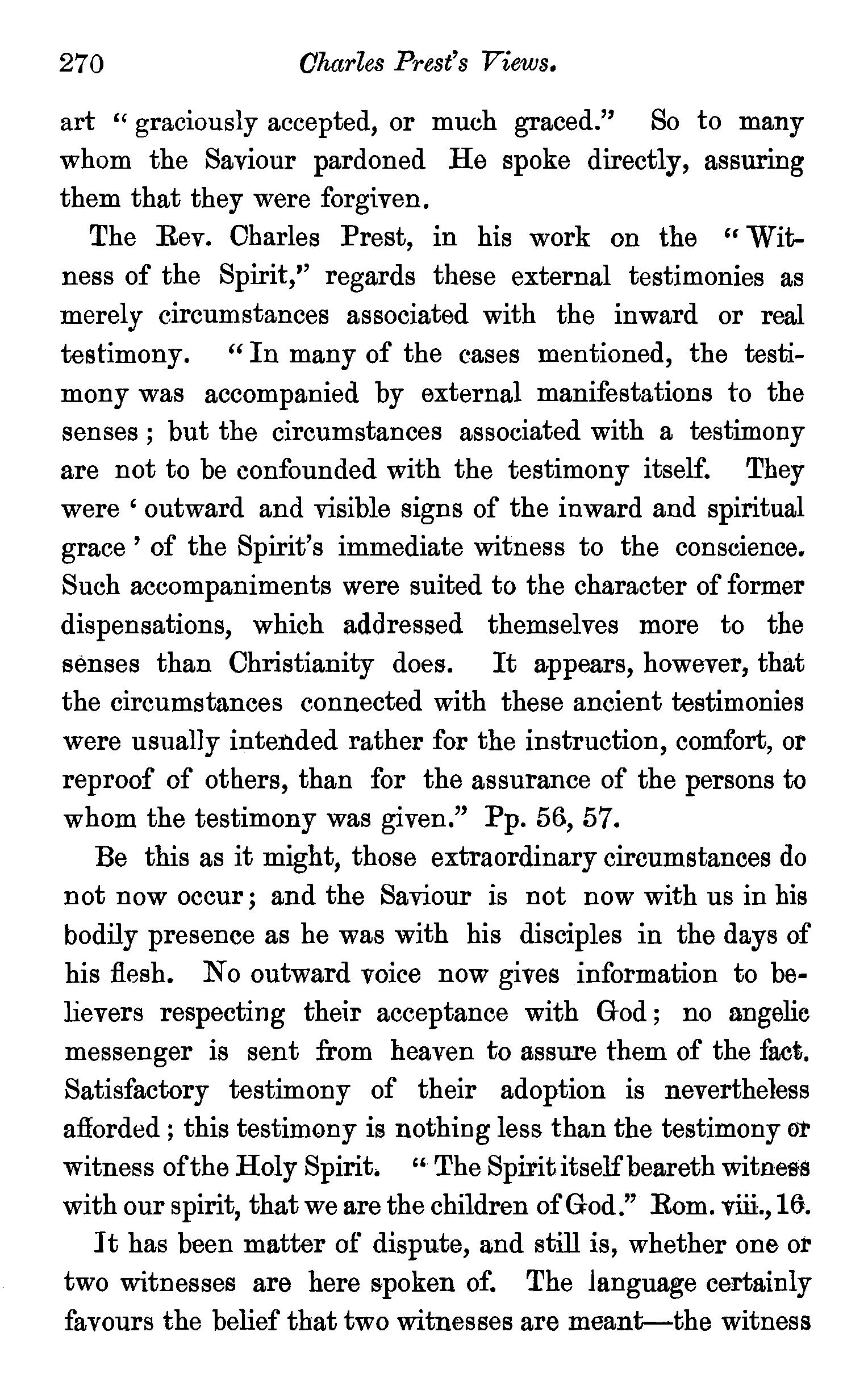
Charles Prest' s Views.
art " graciously accepted, or much graced." So to many whom the Saviour pardoned He spoke directly, assuring them that they were forgiven.
The Rev. Charles Prest, in his work on the "Witness of the Spirit," regards these external testimonies as merely circumstances associated with the inward or real testimony. "In many of the cases mentioned, the testimony was accompanied by external manifestations to the senses ; but the circumstances associated with a testimony are not to be confounded with the testimony itself. They were ' outward and visible signs of the inward and spiritual grace' of the Spirit's immediate witness to the conscience. Such accompaniments were suited to the character of former dispensations, which addressed themselves more to the senses than Christianity does. It appears, however, that the circumstances connected with these ancient testimonies were usualJy intended rather for the instruction, comfort, or reproof of others, than for the assurance of the persons to whom the testimony was given." Pp. 56, 57.
Be this as it might, those extraordinary circumstances do not now occur; and the Saviour is not now with us in his bodily presence as he was with his disciples in the days of his flesh. No outward voice now gives information to believers respecting their acceptance with God; no angelic messenger is sent from heaven to assure them of the fact, Satisfactory testimony of their adoption is nevertheless afforded; this testimony is nothing less than the testimony 01' witness of the Holy Spirit. "The Spirititselfbeareth witnees with our spirit, that we are the children of God." Rom. viii., 16. It has been matter of dispute, and still is, whether one or two witnesses are here spoken of. The language certainly favours the belief that two witnesses are meant-the witness
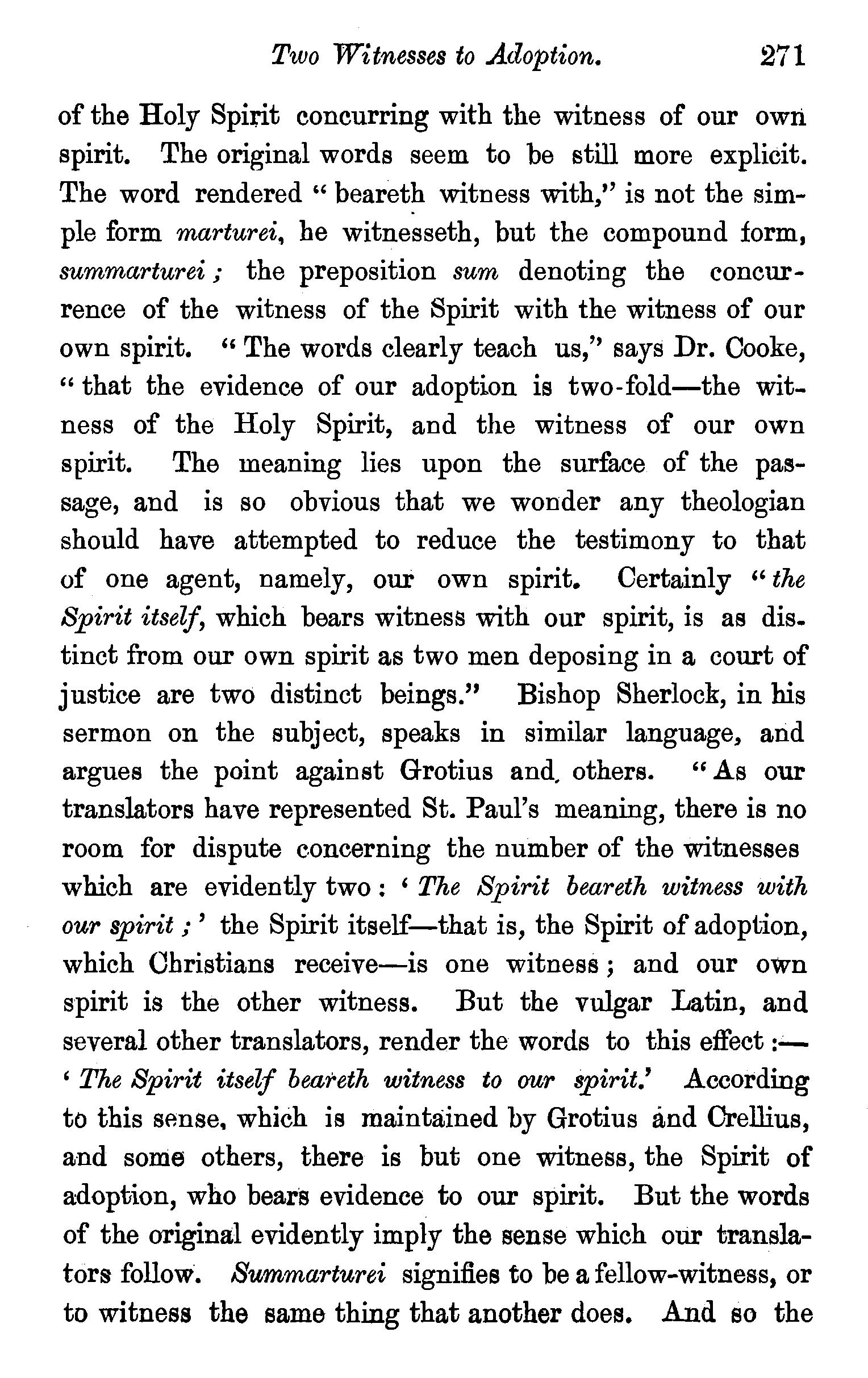
of the Holy Spirit concurring with the witness of our own spirit. The original words seem to be still more explicit. The word rendered "beareth witness with,'' is not the simple form marturei, he witnesseth, but the compound form, summarturei ; the preposition sum denoting the concurrence of the witness of the Spirit with the witness of our own spirit. "The words clearly teach us,'' says Dr. Cooke, "that the evidence of our adoption is two-fold-the witness of the Holy Spirit, and the witness of our own spirit. The meaning lies upon the surface of the passage, and is so obvious that we wonder any theologian should have attempted to reduce the testimony to that of one agent, namely, our own spirit. Certainly "the Spirit itself, which bears witness with our spirit, is as dis. tinct from our own spirit as two men deposing in a court of justice are two distinct beings." Bishop Sherlock, in his sermon on the subject, speaks in similar language, and argues the point against Grotius and. others. " As our translators have represented St. Paul's meaning, there is no room for dispute concerning the number of the witnesses which are evidently two: ' The Spirit beareth witness with our spirit ; ' the Spirit itself-that is, the Spirit of adoption, which Christians receive-is one witness ; and our own spirit is the other witness. But the vulgar Latin, and several other translators, render the words to this effect :.;__ ' The Spirit itself beateth witness to our spirit.' According to this sense, which is maintained by Grotius and Crellius, and some others, there is but one witness, the Spirit of adoption, who bears evidence to our spirit. But the words of the original evidently imply the sense which our translators follow. Summarturei signifies to be a fellow-witness, or to witness the same thing that another does. And so the
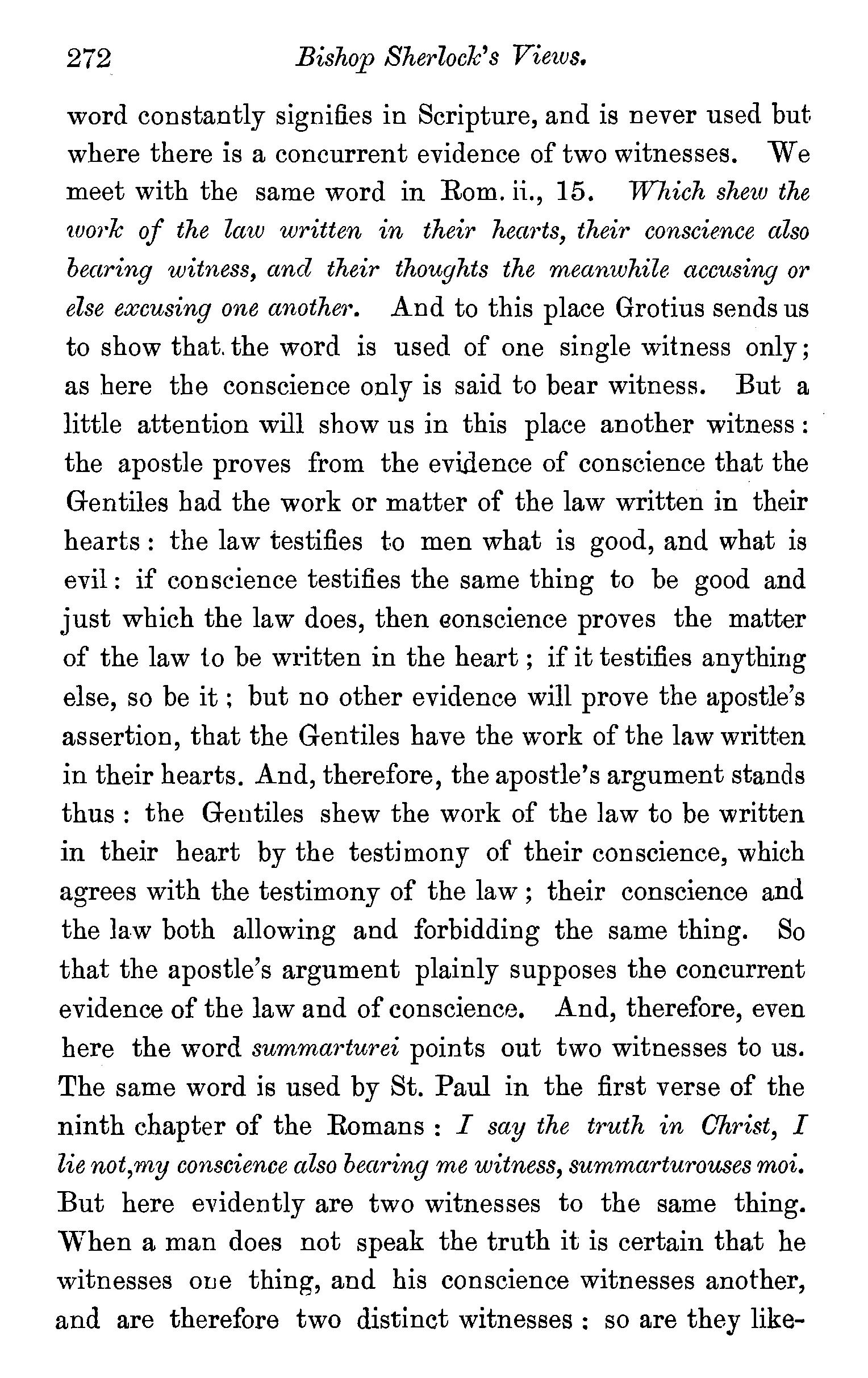
word constantly signifies in Scripture, and is never used but where there is a concurrent evidence of two witnesses. We meet with the same word in Rom. ii., 15. Which shew the work of the law written in their hearts, their conscience also bearing witness, and their thoughts the meanwhile accusing or else excusing one another. And to this place Grotius sends us to show that. the word is used of one single witness only; as here the conscience only is said to bear witness. But a little attention will show us in this place another witness : the apostle proves from the evidence of conscience that the Gentiles bad the work or matter of the law written in their hearts: the law testifies to men what is good, and what is evil : if conscience testifies the same thing to be good and just which the law does, then eonscience proves the matter of the law to be written in the heart; if it testifies anything else, so be it; but no other evidence will prove the apostle's assertion, that the Gentiles have the work of the law written in their hearts. And, therefore, the apostle's argument stands thus: the Gentiles shew the work of the law to be written in their heart by the testjmony of their conscience, which agrees with the testimony of the law ; their conscience and the law both allowing and forbidding the same thing. So that the apostle's argument plainly supposes the concurrent evidence of the law and of conscience. And, therefore, even here the word summarturei points out two witnesses to us. The same word is used by St. Paul in the first verse of the ninth chapter of the Romans : I say the truth in Christ, I lie not,my consciencealso bearing me witness, summarturouses moi. But here evidently are two witnesses to the same thing. When a man does not speak the truth it is certain that he witnesses oue thing, and his conscience witnesses another, and are therefore two distinct witnesses : so are they like-
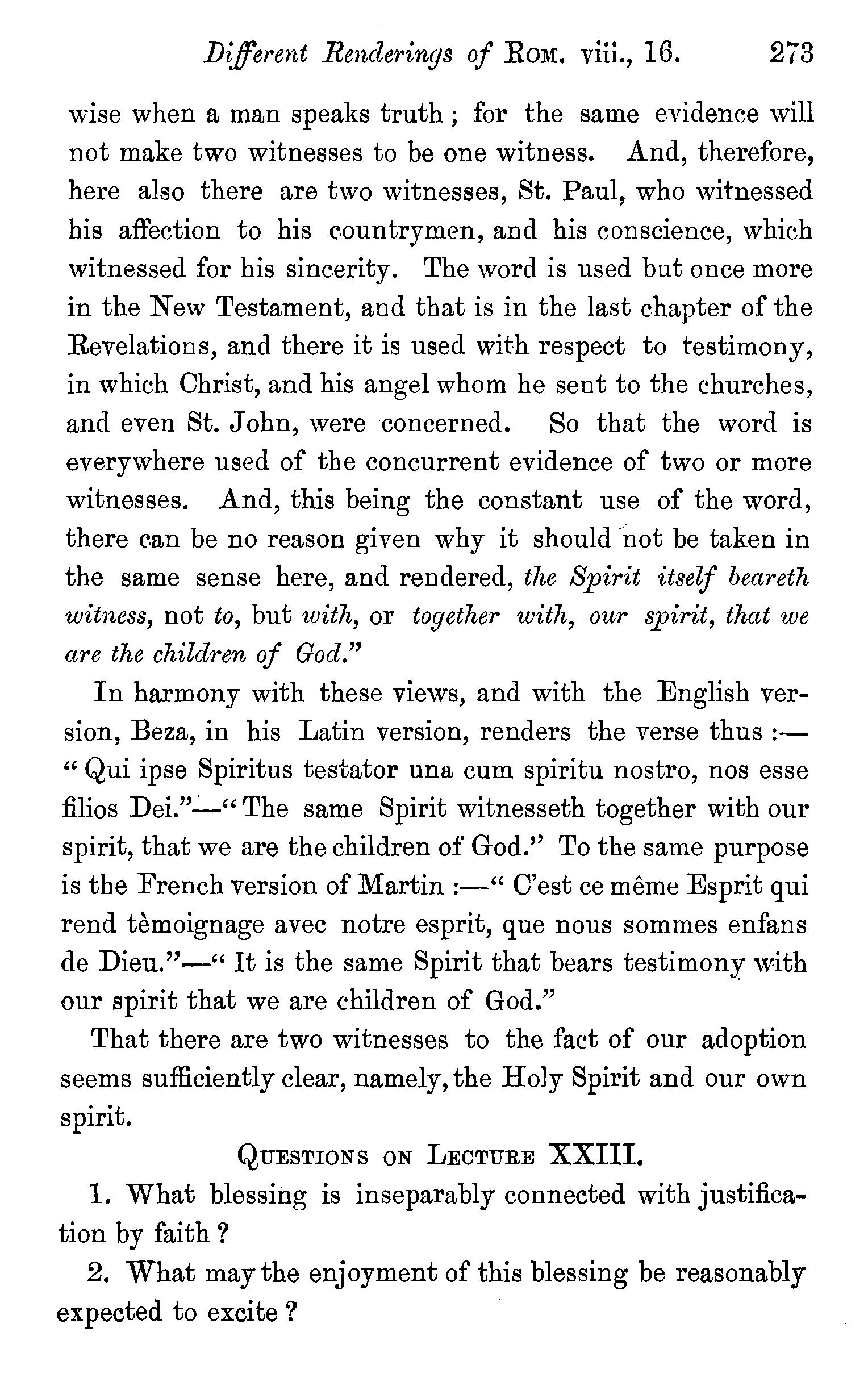
wise when a man speaks truth ; for the same evidence will not make two witnesses to be one witness. And, therefore, here also there are two witnesses, St. Paul, who witnessed his affection to his countrymen, and his conscience, which witnessed for his sincerity. The word is used but once more in the New Testament, and that is in the last chapter of the Revelations, and there it is used with respect to testimony, in which Christ, and his angel whom he sent to the churches, and even St. John, were concerned. So that the word is everywhere used of the concurrent evidence of two or more witnesses. And, this being the constant use of the word, there can be no reason given why it should "r10tbe taken in the same sense here, and rendered, the Spirit itself beareth witness, not to, but with, or together with, our spirit, that we are the children of God."
In harmony with these views, and with the English version, Beza, in his Latin version, renders the verse thus :" Qui ipse Spiritus testator una cum spiritu nostro, nos esse :filiosDei."-" The same Spirit witnesseth together with our spirit, that we are the children of God.'' To the same purpose is the French version of Martin:-" C'est ce meme Esprit qui rend temoignage avec notre esprit, que nous sommes enfans de Dieu."-" It is the same Spirit that bears testimony with our spirit that we are children of God."
That there are two witnesses to the faet of our adoption seems sufficiently clear, namely, the Holy Spirit and our own spirit.
1. What blessing is inseparably connected with justification by faith ?
2. What may the enjoyment of this blessing be reasonably expected to excite?
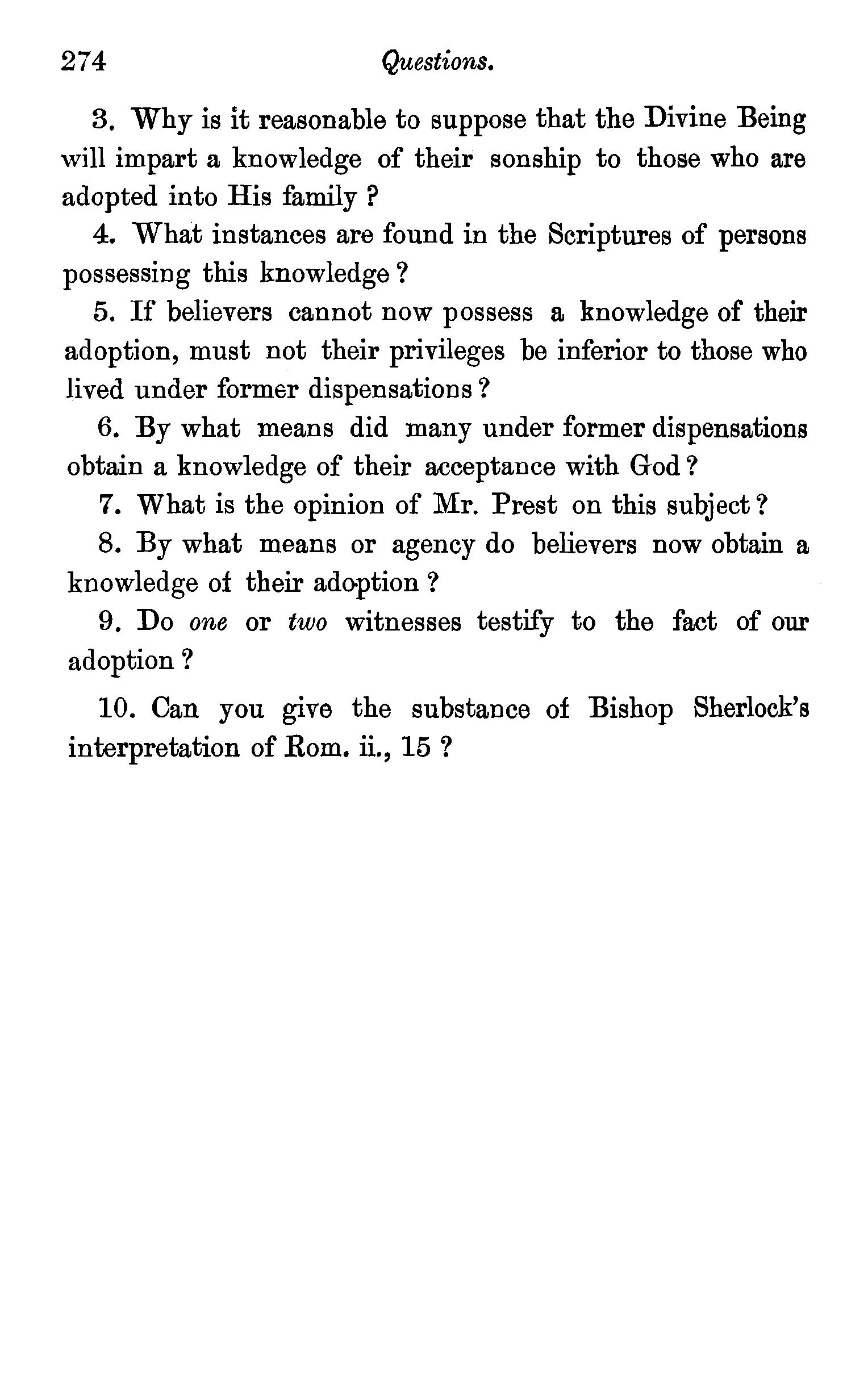
3. Why is it reasonable to suppose that the Divine Being will impart a knowledge of their sonship to those who are adopted into His family ?
4. What instances are found in the Scriptures of persons possessing this knowledge?
5. If believers cannot now possess a knowledge of their adoption, must not their privileges be inferior to those who lived under former dispensations?
6. By what means did many under former dispensations obtain a knowledge of their acceptance with God?
7. What is the opinion of Mr. Prest on this subject?
8. By what means or agency do believers now obtain a knowledge of their ado-ption?
9. Do one or two witnesses testify to the fact of our adoption?
10. Can you give the substance of Bishop Sherlock's interpretation of Rom. ii., 15 ?
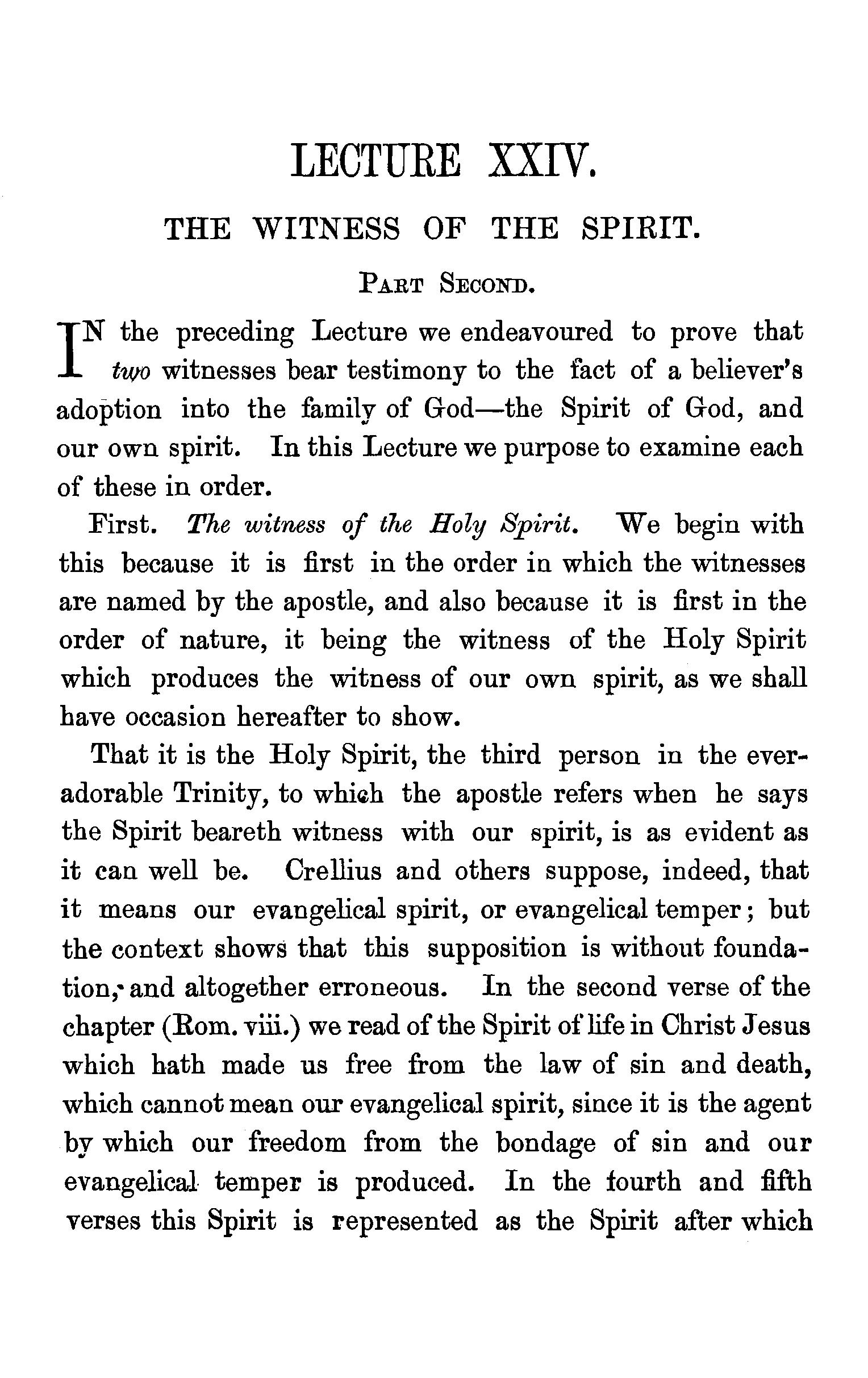
p .A.RT SECOND.
IN the preceding Lecture we endeavoured to prove that two witnesses bear testimony to the fact of a believer's adoption into the family of God-the Spirit of God, and our own spirit. In this Lecture we purpose to examine each of these in order.
First. The witness of the Holy Spirit. We begin with this because it is first in the order in which the witnesses are named by the apostle, and also because it is first in the order of nature, it being the witness of the Holy Spirit which produces the witness of our own spirit, as we shall have occasion hereafter to show.
That it is the Holy Spirit, the third person in the everadorable Trinity, to whi~h the apostle refers when he says the Spirit beareth witness with our spirit, is as evident as it can well be. Crellius and others suppose, indeed, that it means our evangelical spirit, or evangelical temper; but the context shows that this supposition is without foundation,· and altogether erroneous. In the second verse of the chapter (Rom. viii.) we read of the Spirit of life in Christ Jesus which hath made us free from the law of sin and death, which cannot mean our evangelical spirit, since it is the agent by which our freedom from the bondage of sin and our evangelical temper is produced. In the fourth and fifth verses this Spirit is represented as the Spirit after which
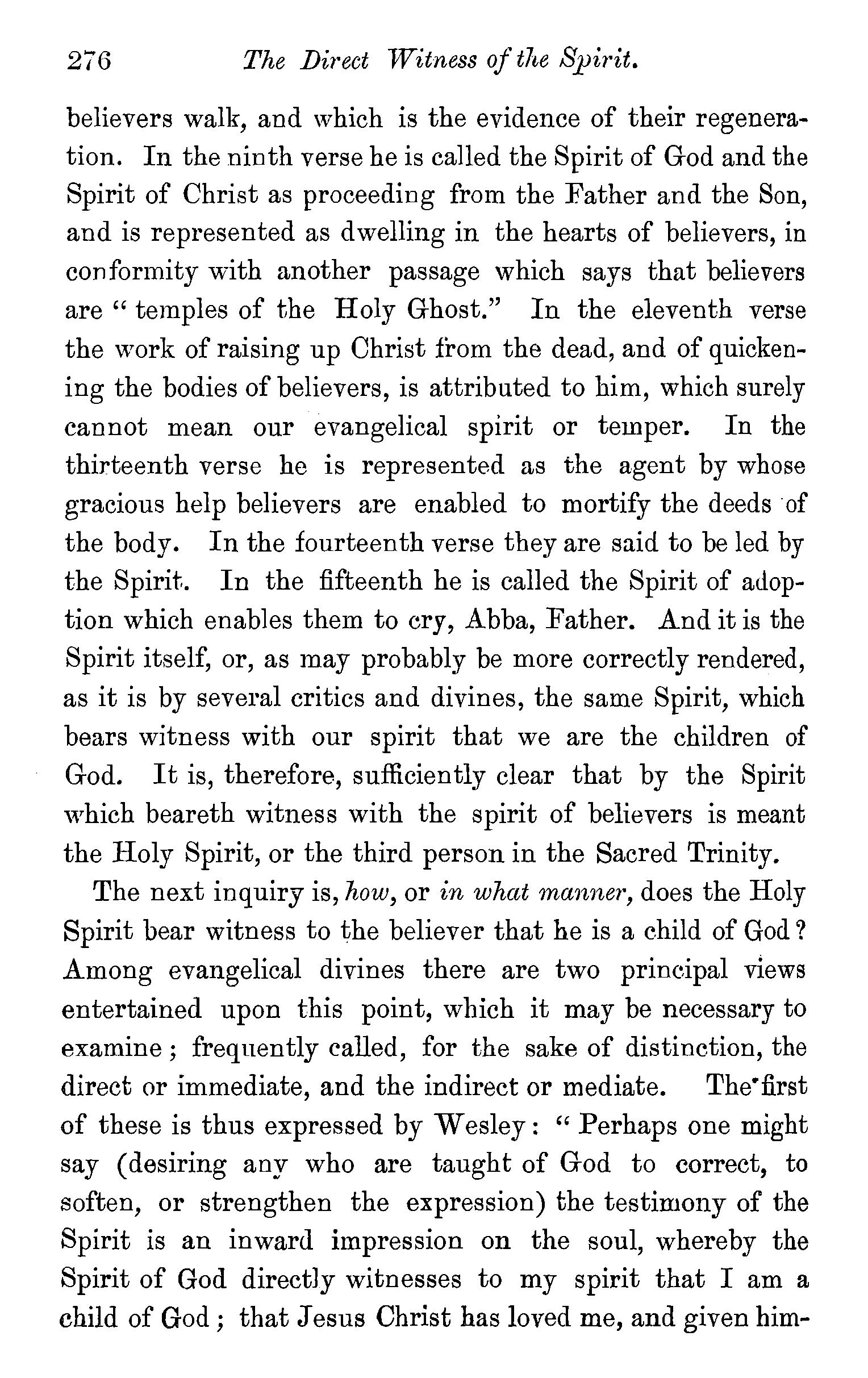
276 The Direct Witness of the Spirit.
believers walk, and which is the evidence of their regeneration. In the ninth verse he is called the Spirit of God and the Spirit of Christ as proceeding from the Father and the Son, and is represented as dwelling in the hearts of believers, in conformity with another passage which says that believers are " temples of the Holy Ghost." In the eleventh verse the work of raising up Christ from the dead, and of quickening the bodies of believers, is attributed to him, which surely cannot mean our evangelical spirit or temper. In the thirteenth verse he is represented as the agent by whose gracious help believers are enabled to mortify the deeds of the body. In the fourteenth verse they are said to be led by the Spirit. In the fifteenth he is called the Spirit of adoption which enables them to cry, Abba, Father. And it is the Spirit itself, or, as may probably be more correctly rendered, as it is by several critics and divines, the same Spirit, which bears witness with our spirit that we are the children of God. It is, therefore, sufficiently clear that by the Spirit which beareth witness with the spirit of believers is meant the Holy Spirit, or the third person in the Sacred Trinity.
The next inquiry is, how, or in what manner, does the Holy Spirit bear witness to the believer that he is a child of God? Among evangelical divines there are two principal views entertained upon this point, which it may be necessary to examine; frequently called, for the sake of distinction, the direct or immediate, and the indirect or mediate. The•first of these is thus expressed by Wesley: " Perhaps one might say ( desiring any who are taught of God to correct, to soften, or strengthen the expression) the testimony of the Spirit is an inward impression on the soul, whereby the Spirit of God directly witnesses to my spirit that I am a child of God; that Jesus Christ has loved me, and given him-
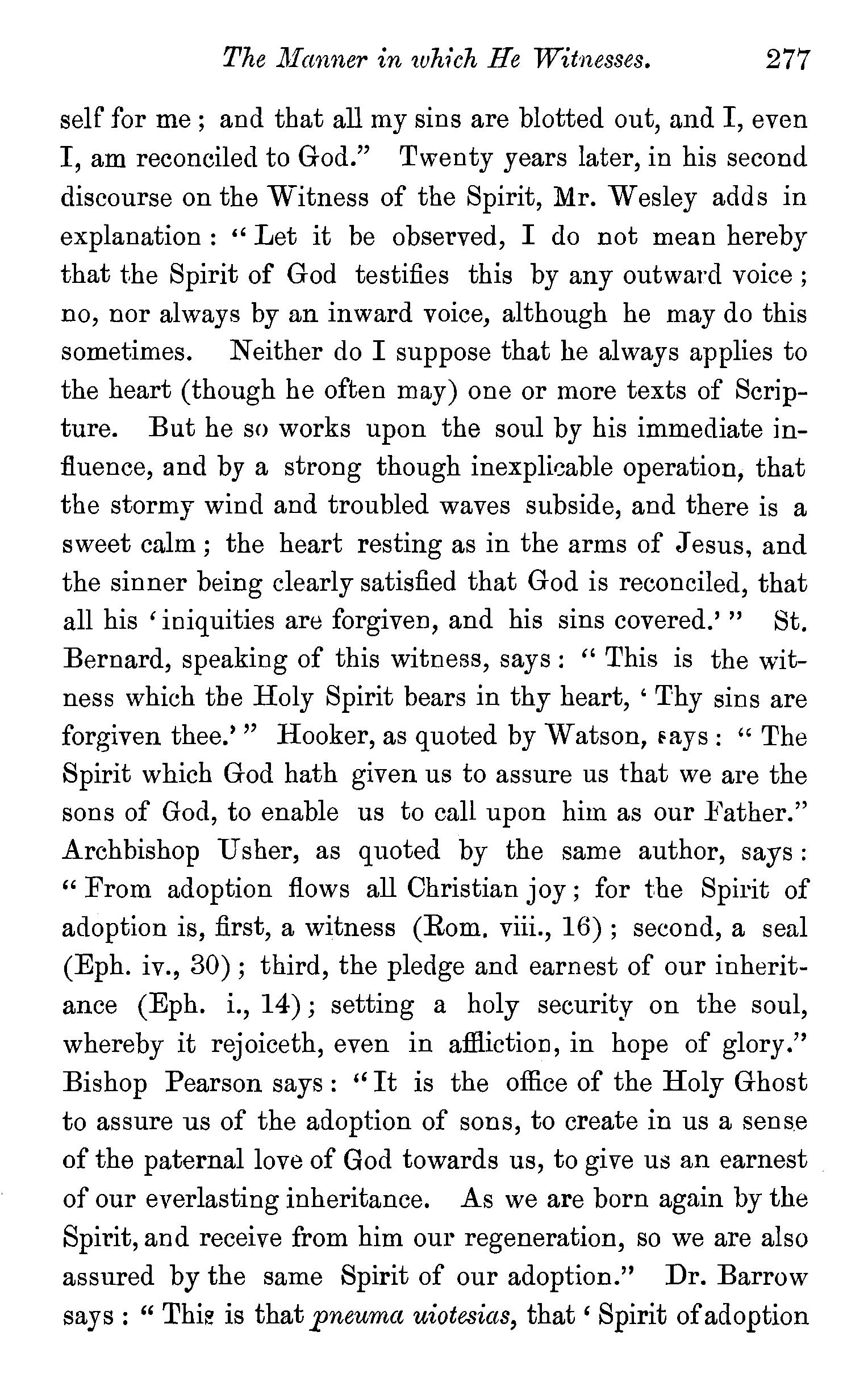
The JJfanner in which He Witnesses. 277 self for me; and that all my sins are blotted out, and I, even I, am reconciled to God." Twenty years later, in his second discourse on the Witness of the Spirit, Mr. Wesley adds in explanation : '' Let it be observed, I do not mean hereby that the Spirit of God testifies this by any outward voice; no, nor always by an inward voice, although he may do this sometimes. Neither do I suppose that he always applies to the heart (though he often may) one or more texts of Scripture. But he so works upon the soul by his immediate influence, and by a strong though inexplii:iable operation, that the stormy wind and troubled waves subside, and there is a sweet calm; the heart resting as in the arms of Jesus, and the sinner being clearly satisfied that God is reconciled, that all his 'iniquities are forgiven, and his sins covered.' " St. Bernard, speaking of this witness, says : " This is the witness which the Holy Spirit bears in thy heart, 'T·hy sins are forgiven thee.''' Hooker, as quoted by Watson, mys: " The Spirit which God hath given us to assure us that we are the sons of God, to enable us to call upon him as our .Father."
Archbishop Usher, as quoted by the same author, says: "From adoption flows all Christian joy; for the Spirit of adoption is, first, a witness (Rom. viii., 16) ; second, a seal (Eph. iv., 30) ; third, the pledge and earnest of our inheritance (Eph. i., 14); setting a holy security on the soul, whereby it rejoiceth, even in affliction, in hope of glory." Bishop Pearson says: "It is the office of the Holy Ghost to assure us of the adoption of sons, to create in us a sens_e of the paternal love of God towards us, to give us an earnest of our everlasting inheritance. As we are born again by the Spirit, and receive from him our regeneration, so we are also assured by the same Spirit of our adoption." Dr. Barrow says : "Thi~ is that pneumcl uiotesias, that' Spirit of adoption
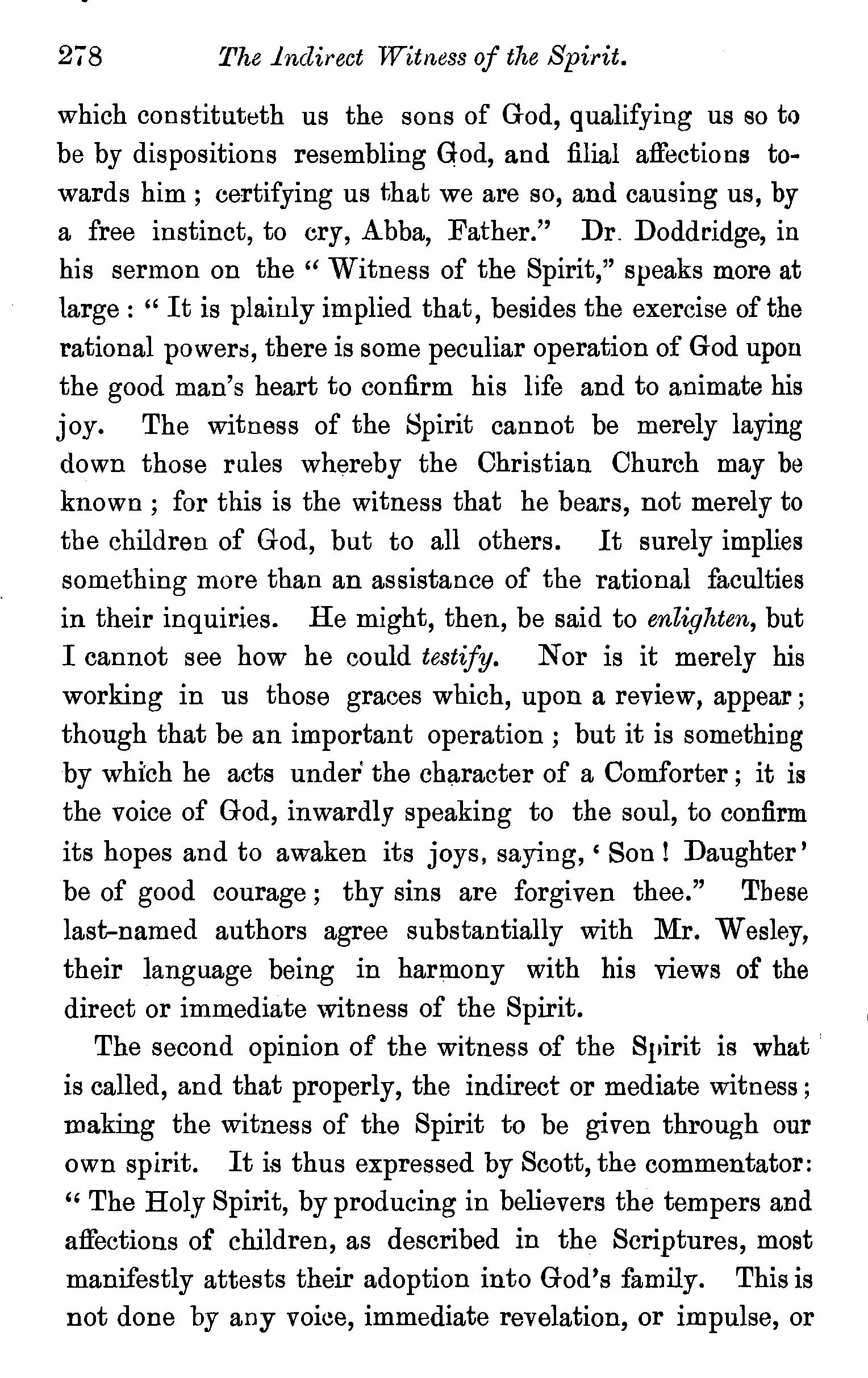
2i8 The lnclirect Witness of the Spirit. which constituteth us the sons of God, qualifying us so to be by dispositions resembling G:od, and filial affections towards him; certifying us that we are so, and causing us, by a free instinct, to cry, Abba, Father." Dr. Doddridge, in his sermon on the "Witness of the Spirit," speaks more at large: "It is plainly implied that, besides the exercise of the rational powerti, there is some peculiar operation of God upon the good man's heart to confirm his life and to animate his joy. The witness of the Spirit cannot be merely laying down those rules whereby the Christian Church may be known ; for this is the witness that he bears, not merely to the children of God, but to all others. It surely implies something more than an assistance of the rational faculties in their inquiries. He might, then, be said to enlighten, but I cannot see how he could testify. Nor is it merely his working in us those graces which, upon a review, appear; though that be an important operation ; but it is something by which he acts under the ch1;1,racterof a Comforter ; it is the voice of God, inwardly speaking to the soul, to confirm its hopes and to awaken its joys, saying, ' Son ! Daughter' be of good courage; thy sins are forgiven thee." These last-named authors agree substantially with Mr. Wesley, their language being in harmony with his views of the direct or immediate witness of the Spirit.
The second opinion of the witness of the Spirit is what • is called, and that properly, the indirect or mediate witness ; making the witness of the Spirit to be given through our own spirit. It is thus expressed by Scott, the commentator: "The Holy Spirit, by producing in believers the tempers and affections of children, as described in the Scriptures, most manifestly attests their adoption into God's family. This is not done by any voice, immediate revelation, or impulse, or
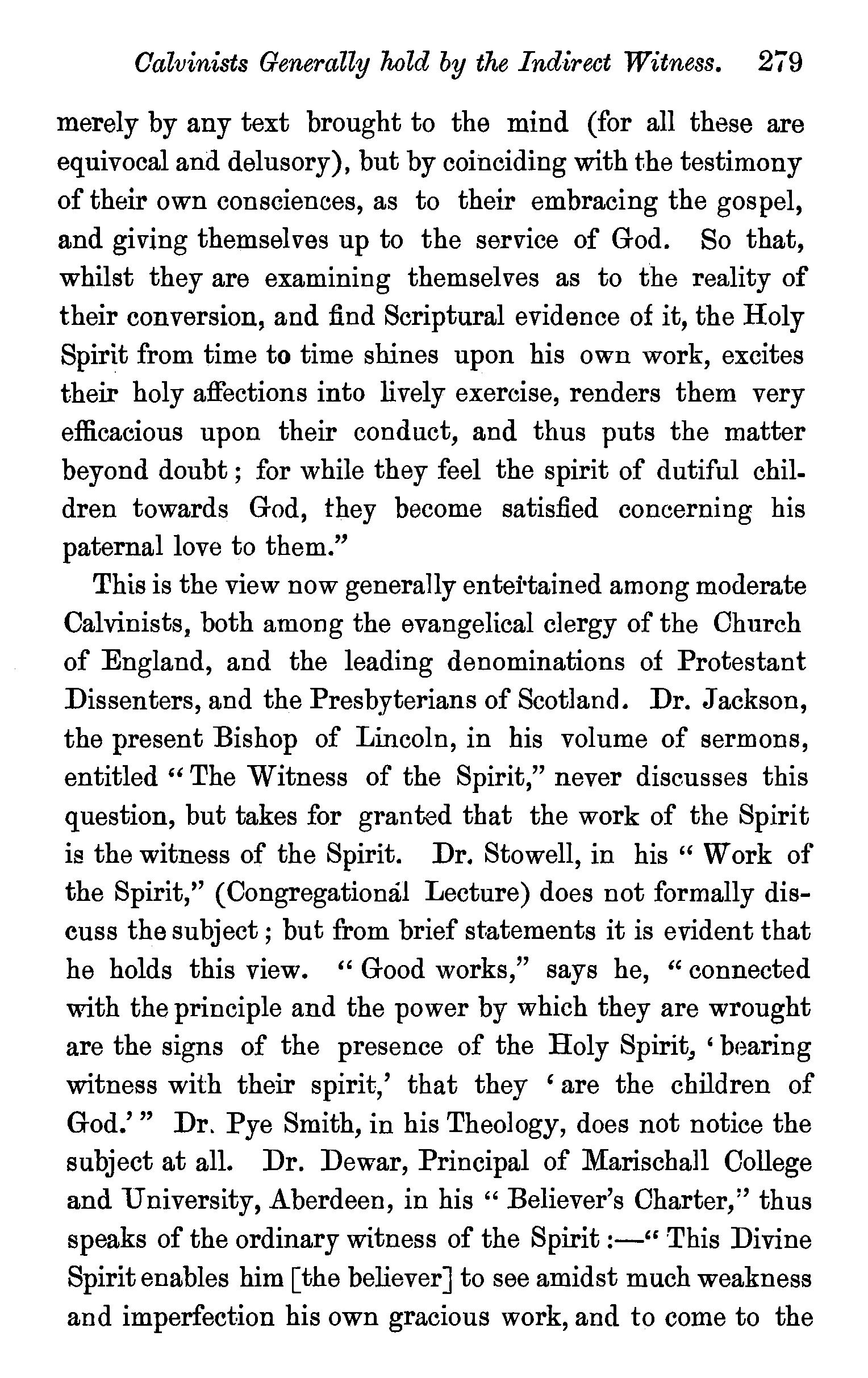
Calvinists Generally lwld by the Indirect Witness. 279
merely by any text brought to the mind (for all these are equivocal and delusory), but by coinciding with the testimony of their own consciences, as to their embracing the gospel, and giving themselves up to the service of God. So that, whilst they are examining themselves as to the reality of their conversion, and find Scriptural evidence of it, the Holy Spirit from time to time shines upon his own work, excites their holy affections into lively exercise, renders them very efficacious upon their conduct, and thus puts the matter beyond doubt ; for while they feel the spirit of dutiful children towards God, they become satisfied concerning his paternal love to them."
This is the view now generally entei·tained among moderate Calvinists, both among the evangelical clergy of the Church of England, and the leading denominations of Protestant Dissenters, and the Presbyterians of Scotland. Dr. Jackson, the present Bishop of Lincoln, in his volume of sermons, entitled "The Witness of the Spirit," never discusses this question, but takes for granted that the work of the Spirit is the witness of the Spirit. Dr. Stowell, in his " Work of the Spirit," (Congregational Lecture) does not formally discuss the subject ; but from brief statements it is evident that he holds this view. "Good works," says he, "connected with the principle and the power by which they are wrought are the signs of the presence of the Holy Spirit, ' bearing witness with their spirit,' that they 'are the children of God.'" Dr. Pye Smith, in his Theology, does not notice the subject at all. Dr. Dewar, Principal of Marischall College and University, Aberdeen, in his " Believer's Charter," thus speaks of the ordinary witness of the Spirit:-" This Divine Spirit enables him [the believerJ to see amidst much weakness and imperfection his own gracious work, and to come to the
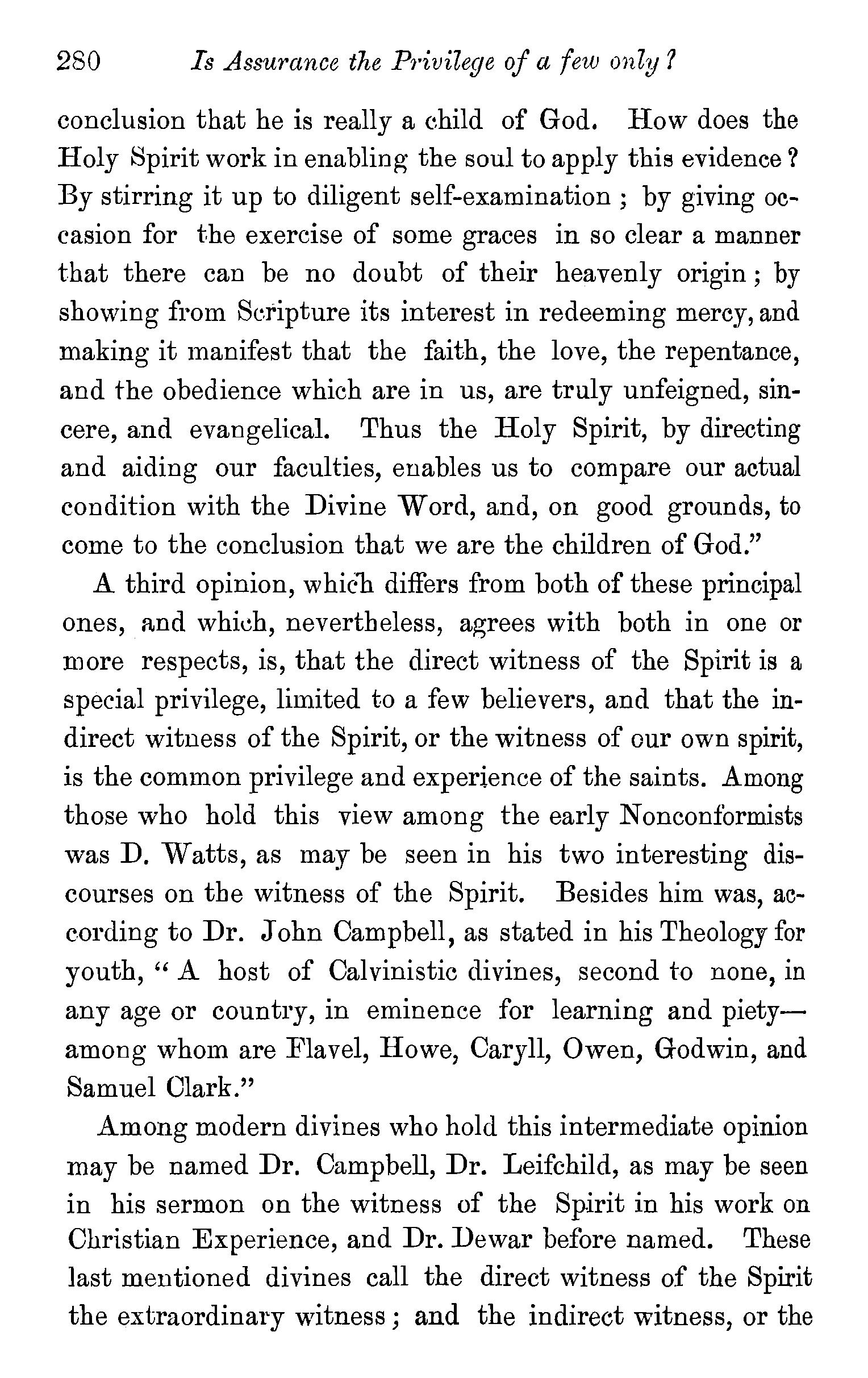
280 Is Assurance the Privilege of a few only ?
conclusion that he is really a child of God. How does the Holy Spirit work in enabling the soul to apply this evidence? By stirring it up to diligent self-examination ; by giving occasion for the exercise of some graces in so clear a manner that there can be no doubt of their heavenly origin; by showing from Scripture its interest in redeeming mercy, and making it manifest that the faith, the love, the repentance, and the obedience which are in us, are truly unfeigned, sincere, and evangelical. Thus the Holy Spirit, by directing and aiding our faculties, enables us to compare our actual condition with the Divine Word, and, on good grounds, to come to the conclusion that we are the children of God."
A third opinion, whicb differs from both of these principal ones, and whi~h, nevertheless, agrees with both in one or more respects, is, that the direct witness of the Spirit is a special privilege, limited to a few believers, and that the indirect witness of the Spirit, or the witness of our own spirit, is the common privilege and experience of the saints. Among those who hold this view among the early Nonconformists was D. Watts, as may be seen in his two interesting discourses on the witness of the Spirit. Besides him was, according to Dr. John Campbell, as stated in his Theology for youth, "A host of Calvinistic divines, second to none, in any age or country, in eminence for learning and pietyamong whom are Flavel, Howe, Oaryll, Owen, Godwin, and Samuel Clark."
Among modern divines who hold this intermediate opinion may be named Dr. Campbell, Dr. Leifchild, as may be seen in his sermon on the witness of the Sp.irit in his work on Christian Experience, and Dr. Dewar before named. These last mentioned divines call the direct witness of the Spirit the extraordinary witness ; and the indirect witness, or the

witness of our own spirit, the ordinary witness of the Spirit.
The first of these opinions, or that of the direct or imme• diate witness of the Spirit, seems most agreeable to the Word of God and to the experience of believers. Dr. W. Cooke, with his usual clearness and accuracy, says, "The kind of evidence which the Holy Spirit affords, is called bearing witness. It will not be disputed, that this language is ap• propriate and expressive ; and if so, the evidence of our adoption must be such as is analagous to a testimouy or direct proof. When John bore witness of Jesus, that he was the Messiah, he uttered a plain and direct testimony, saying, ' This is he of whom I spake. Behold the Lamb of God which taketh away the sin of the world.' When the apostles bore witness to the resurrection of Christ, they exclaimed, ' This Jesus hath God raised up, whereof we all are wit• nesses.' When the Father bore witness to the Son, he announced from the parted cloud, ' This is my beloved Son, in whom I am well pleased.' And when the Spirit bears witness to our spirit, that we are God's children, although no vocal sound is heard, yet he exerts an influence upon the soul equivalent to a direct testimony, declaring, 'Thou art pardoned and accepted through Christ. Thy sins are all forgiven, and thou art an adopted child of God.' As St. Bernard says, ' The testimony given by the Holy Ghost in thy heart is this, Thy sins are forgiven thee.' It is a witness·; and though the testimony is internal, not external-ad• dressed to our coneciousness, not to our bodily senses, yet it is equally as distinct and recognised as if it were a vocal announcement from heaven."
The late Rev. E. Grindrod, in an essay on the Witness of the Spirit, published in the Wesleyan Magazine for 1825,
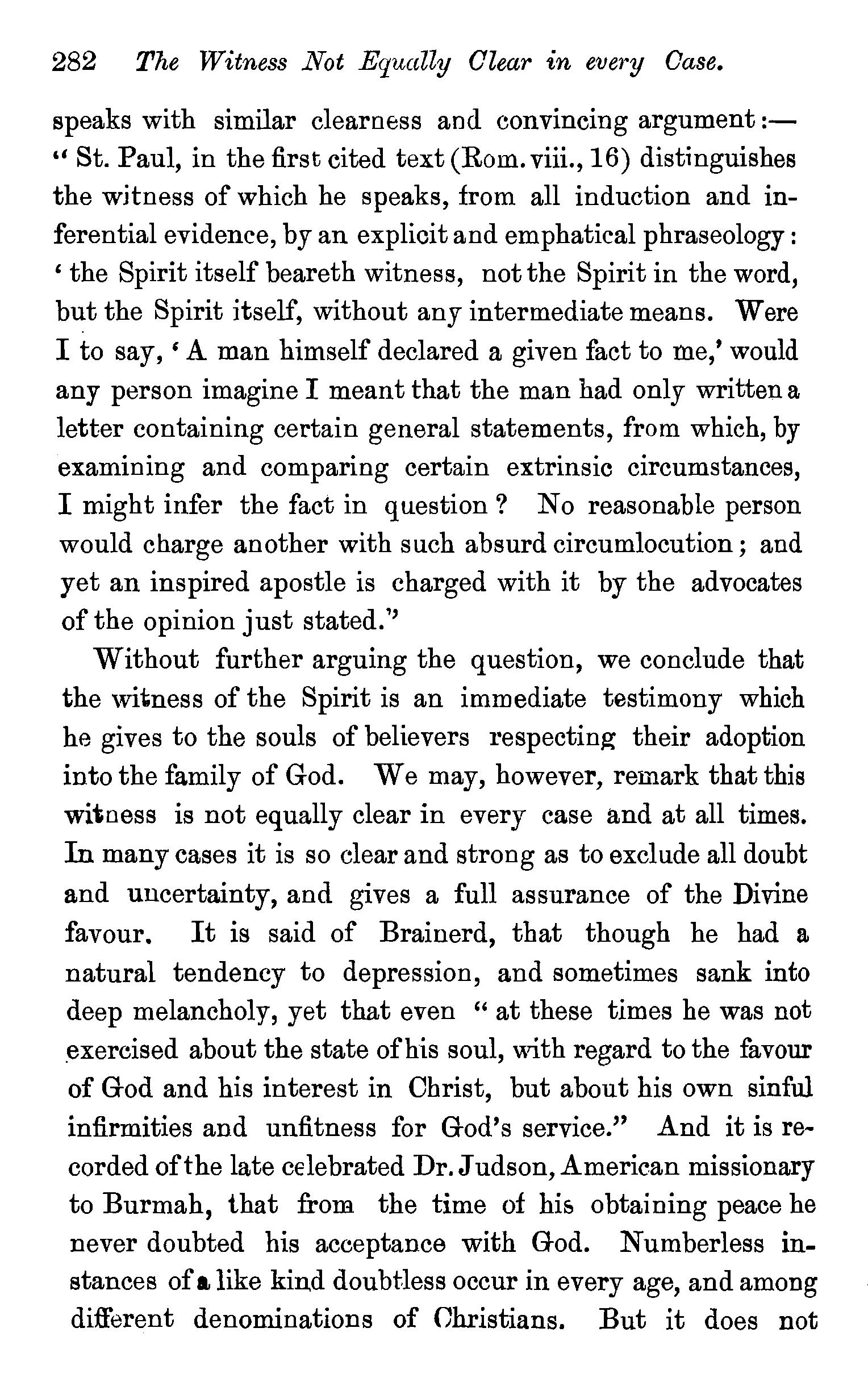
282 The Witness Not Equally Clear in every Case.
speaks with similar clearness and convincing argument:,, St. Paul, in the first cited text (Rom. viii., 16) distinguishes the wjtness of which he speaks, from all induction and inferential evidence, by an explicit and emphatical phraseology: ' the Spirit itself beareth witness, not the Spirit in the word, but the Spirit itself, without any intermediate means. Were I to say,' A man himself declared a given fact to me,' would any person imagine I meant that the man had only written a letter containing certain general statements, from which, by examining and comparing certain extrinsic circumstances, I might infer the fact in question? No reasonable person would charge another with such absurd circumlocution; and yet an inspired apostle is charged with it by the advocates of the opinion just stated.''
Without further arguing the question, we conclude that the witness of the Spirit is an immediate testimony which he gives to the souls of believers respecting their adoption into the family of God. We may, however, remark that this witness is not equally clear in every case and at all times. In many cases it is so clear and strong as to exclude all doubt and uncertainty, and gives a full assurance of the Divine favour. It is said of Brainerd, that though he had a natural tendency to depression, and sometimes sank into deep melancholy, yet that even "at these times he was not _exercisedabout the state of his soul, ,vith regard to the favour of God and his interest in Christ, but about his own sinful infirmities and unfitness for God's service." And it is recorded of the late celebrated Dr.Judson, American missionary to Burmah, that from the time of hio obtaining peace he never doubted his acceptance with God. Numberless instances of a like kind doubtless occur in every age, and among different denominations of Christians. But it does not
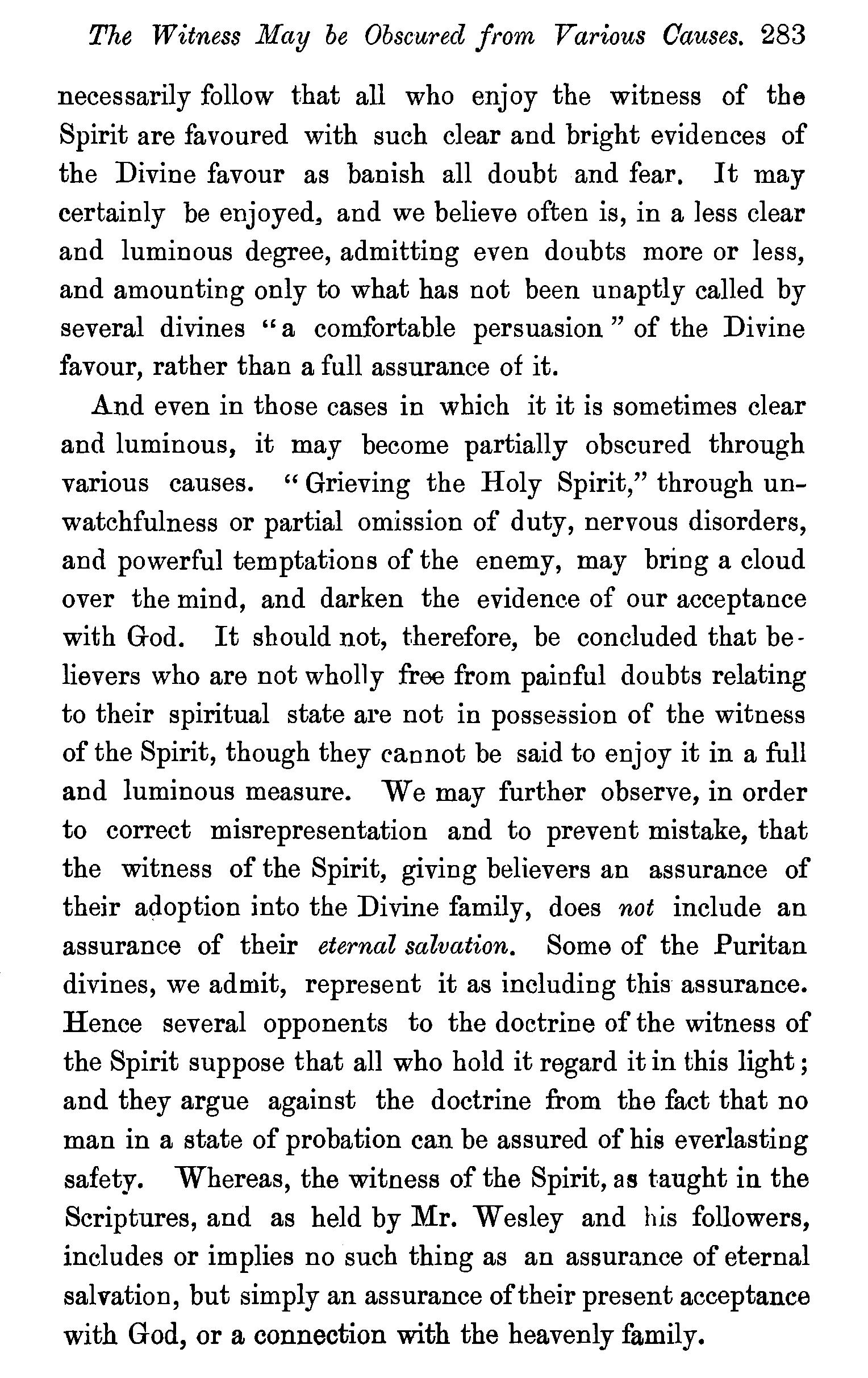
necessarily follow that all who enjoy the witness of the Spirit are favoured with such clear and bright evidences of the Divine favour as banish all doubt and fear. It may certainly be enjoyed. and we believe often is, in a Jess clear and luminous degree, admitting even doubts more or less, and amounting only to what has not been unaptly called by several divines "a comfortable persuasion" of the Divine favour, rather than a full assurance of it.
And even in those cases in which it it is sometimes clear and luminous, it may become partially obscured through var10us causes. " Grieving the Holy Spirit," through unwatchfulness or partial omission of duty, nervous disorders, and powerful temptations of the enemy, may bring a cloud over the mind, and darken the evidence of our acceptance with God. It should not, therefore, be concluded that believers who are not wholly free from painful doubts relating to their spiritual state are not in possession of the witness of the Spirit, though they cannot be said to enjoy it in a full and luminous measure. We may further observe, in order to correct misrepresentation and to prevent mistake, that the witness of the Spirit, giving believers an assurance of their adoption into the Divine family, does not include an assurance of their eternal salvation. Some of the Puritan divines, we admit, represent it as including this assurance. Hence several opponents to the doctrine of the witness of the Spirit suppose that all who hold it regard it in this light ; and they argue against the doctrine from the fact that no man in a state of probation can be assured of his everlasting safety. Whereas, the witness of the Spirit, as taught in the Scriptures, and as held by Mr. Wesley and his followers, includes or implies no such thing as an assurance of eternal salvation, but simply an assurance of their present acceptance with God, or a connection with the heavenly family.
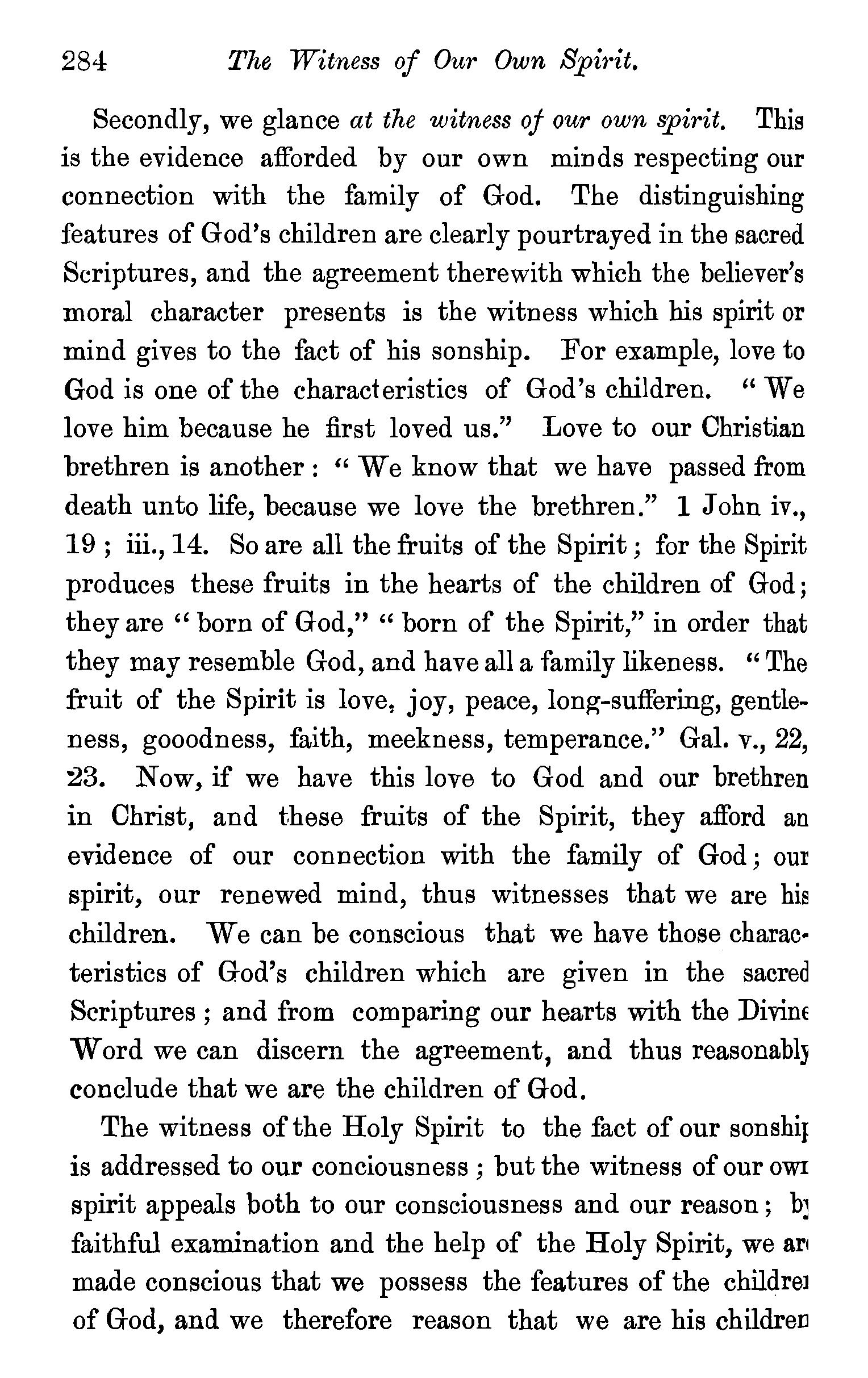
The Witness of Our Own Spirit.
Secondly, we glance at the witness of our own spirit. This is the evidence afforded by our own minds respecting our connection with the family of God. The distinguishing features of God's children are clearly pourtrayed in the sacred Scriptures, and the agreement therewith which the believer's moral character presents is the witness which his spirit or mind gives to the fact of his sonship. For example, love to God is one of the characteristics of God's children. " We love him because he first loved us." Love to our Christian brethren is another : " We know that we have passed from death unto life, because we love the brethren." 1 John iv., 19 ; iii., 14. So are all the fruits of the Spirit; for the Spirit produces these fruits in the hearts of the children of God; they are " born of God," " born of the Spirit," in order that they may resemble God, and have all a family likeness. "The fruit of the Spirit is love, joy, peace, long-suffering, gentleness, gooodness, faith, meekness, temperance." Gal. v., 22, 23. Now, if we have this love to God and our brethren in Christ, and these fruits of the Spirit, they afford an evidence of our connection with the family of God; our spirit, our renewed mind, thus witnesses that we are his children. We can be conscious that we have those characteristics of God's children which are given in the sacred Scriptures ; and from comparing our hearts with the Divim Word we can discern the agreement, and thus reasonabl) conclude that we are the children of God.
The witness of the Holy Spirit to the fact of our sonshiJ is addressed to our conciousness ; but the witness of our owr spirit appeals both to our consciousness and our reason; bJ faithful examination and the help of the Holy Spirit, we ar1 made conscious that we possess the features of the childre1 of God, and we therefore reason that we are his children
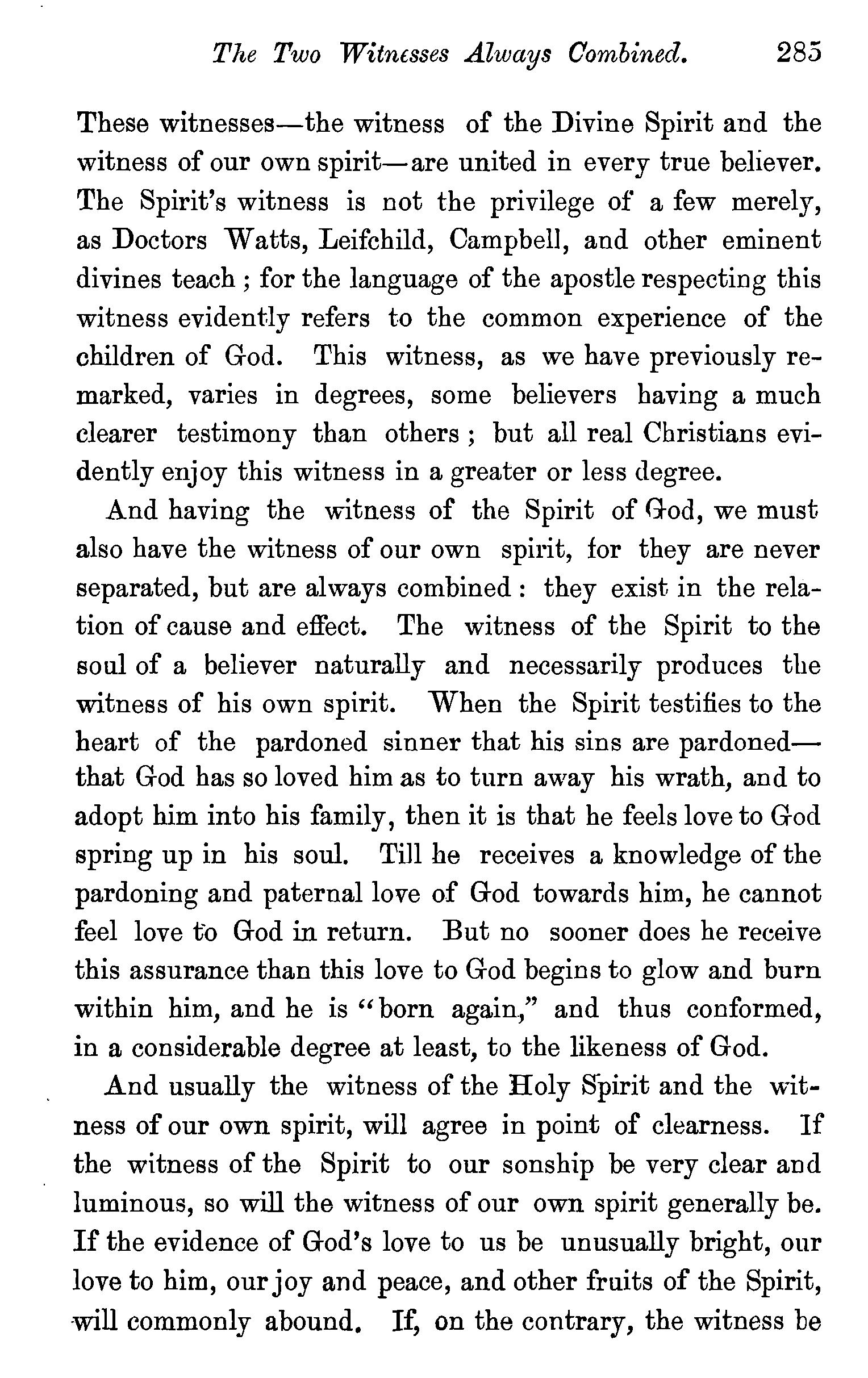
These witnesses-the witness of the Divine Spirit and the witness of our own spirit-are united in every true believer. The Spirit's witness is not the privilege of a few merely, as Doctors Watts, Leifchild, Campbell, and other eminent divines teach; for the language of the apostle respecting this witness evidently refers to the common experience of the children of God. This witness, as we have previously remarked, varies in degrees, some believers having a much clearer testimony than others ; but all real Christians evidently enjoy this witness in a greater or less degree.
And having the witness of the Spirit of God, we must also have the witness of our own spirit, for they are never separated, but are always combined: they exist in the relation of cause and effect. The witness of the Spirit to the soul of a believer naturally and necessarily produces the witness of his own spirit. When the Spirit testifies to the heart of the pardoned sinner that his sins are pardonedthat God has so loved him as to turn away his wrath, and to adopt him into his family, then it is that he feels love to God spring up in his soul. Till he receives a knowledge of the pardoning and paternal love of God towards him, he cannot feel love to God in return. But no sooner does he receive this assurance than this love to God begins to glow and burn within him, and he is "born again," and thus conformed, in a considerable degree at least, to the likeness of God. And usually the witness of the Holy ffpirit and the witness of our own spirit, will agree in point of clearness. If the witness of the Spirit to our sonship be very clear and luminous, so will the witness of our own spirit generally be. If the evidence of God's love to us be unusually bright, our love to him, our joy and peace, and other fruits of the Spirit, -will commonly abound. If, on the contrary, the witness be
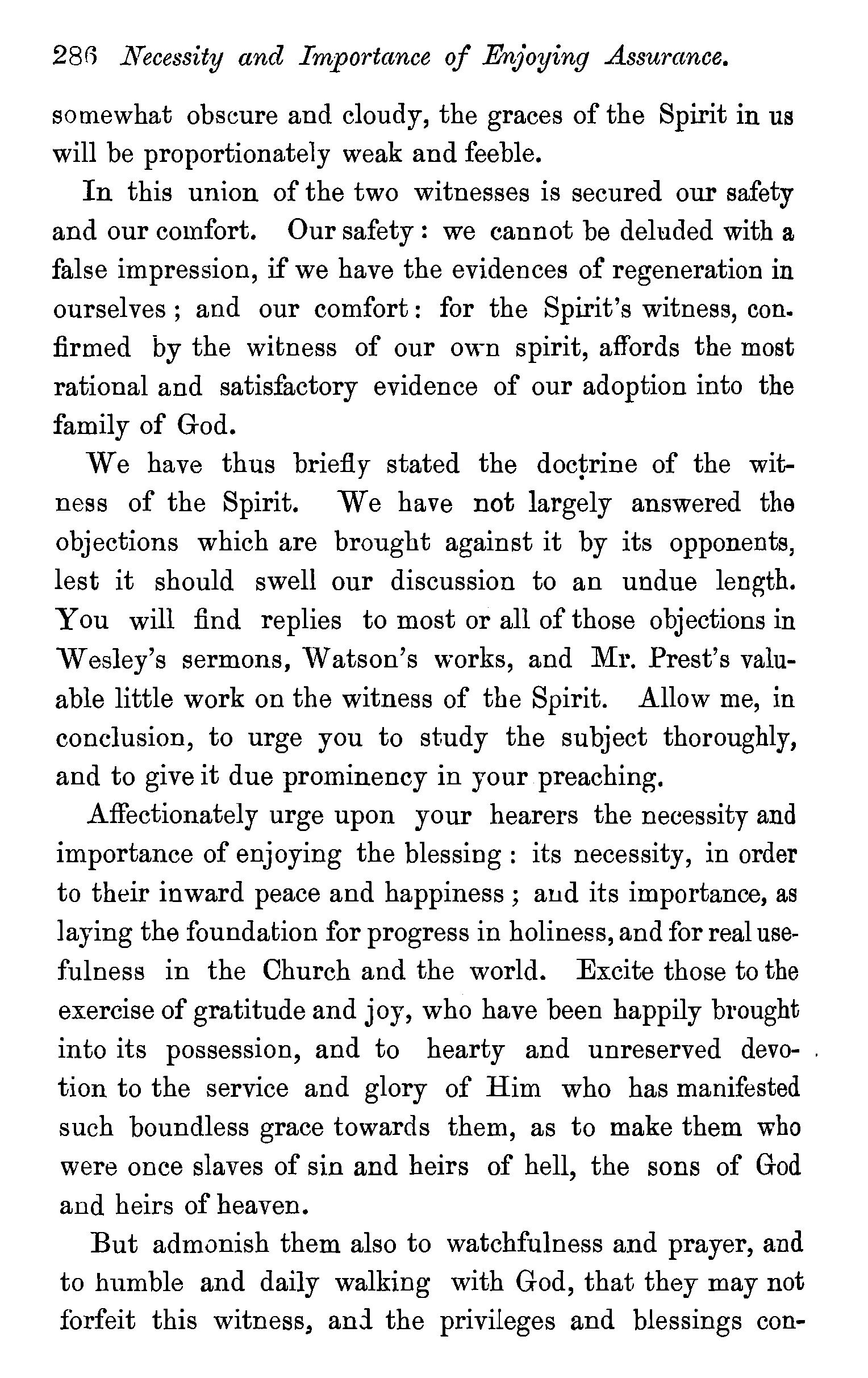
2811 Necessity and Importance of EnJoying Assurance.
somewhat obscure and cloudy, the graces of the Spirit in us will be proportionately weak and feeble.
In this union of the two witnesses is secured our safety and our comfort. Our safety : we cannot be deluded with a false impression, if we have the evidences of regeneration in ourselves ; and our comfort: for the Spirit's witness, con. firmed by the witness of our own spirit, affords the most rational and satisfactory evidence of our adoption into the family of God.
We have thus briefly stated the docprine of the witness of the Spirit. We have not largely answered the objections which are brought against it by its opponents, lest it should swell our discussion to an undue length. You will find replies to most or all of those objections in Wesley's sermons, ,vatson's works, and Mr. Prest's valuable little work on the witness of the Spirit. Allow me, in conclusion, to urge you to study the subject thoroughly, and to give it due prominency in your preaching.
Affectionately urge upon your hearers the necessity and importance of enjoying the blessing: its necessity, in order to their inward peace and happiness; audits importance, as laying the foundation for progress in holiness, and for real usefulness in the Church and the world. Excite those to the exercise of gratitude and joy, who have been happily brought into its possession, and to hearty and unreserved devotion to the service and glory of Him who has manifested such boundless grace towards them, as to make them who were once slaves of sin and heirs of hell, the sons of God and heirs of heaven.
But admonish them also to watchfulness and prayer, and to humble and daily walking with God, that they may not forfeit this witness, an.i the privileges and blessings con-
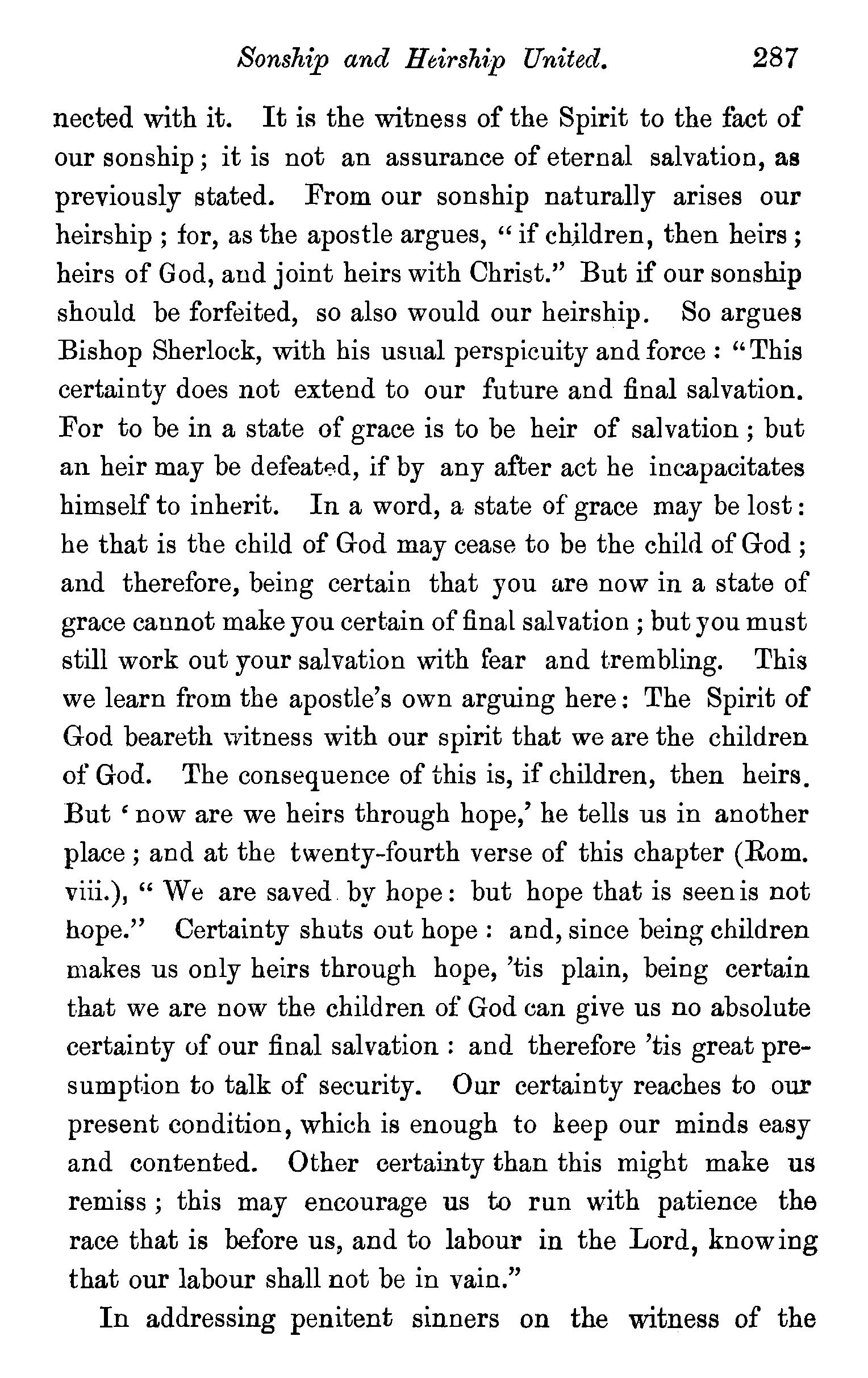
nected with it. It is the witness of the Spirit to the fact of our sonship ; it is not an assurance of eternal salvation, as previously stated. From our sonship naturally arises our heirship; for, as the apostle argues, "if chjldren, then heirs; heirs of God, and joint heirs with Christ.'' But if our sonship should be forfeited, so also would our heirship. So argues Bishop Sherlock, with his usual perspicuity and force : "This certainty does not extend to our future and final salvation. For to be in a state of grace is to be heir of salvation ; but an heir may be defeatl:'d, if by any after act he incapacitates himself to inherit. In a word, a state of grace may be lost: he that is the child of God may cease to be the child of God ; and therefore, being certain that you are now in a state of grace cannot make you certain of final salvation ; but you must still work out your salvation with fear and trembling. This we learn from the apostle's own arguing here: The Spirit of God beareth witness with our spirit that we are the children of God. The consequence of this is, if children, then heirs. But ' now are we heirs through hope,' he tells us in another place; and at the twenty-fourth verse of this chapter (Rom. viii.), "We are saved by hope: but hope that is seen is not hope." Certainty shuts out hope : and, since being children makes us only heirs through hope, 'tis plain, being certain that we are now the children of God can give us no absolute certainty of our final salvation : and therefore 'tis great pres um ption to talk of security. Our certainty reaches to our present condition, which is enough to keep our minds easy and contented. Other certainty than this might make us remiss; this may encourage us to run with patience the race that is before us, and to labour in the Lord, knowing that our labour shall not be in vain."
In addressing penitent sinners on the witness of the
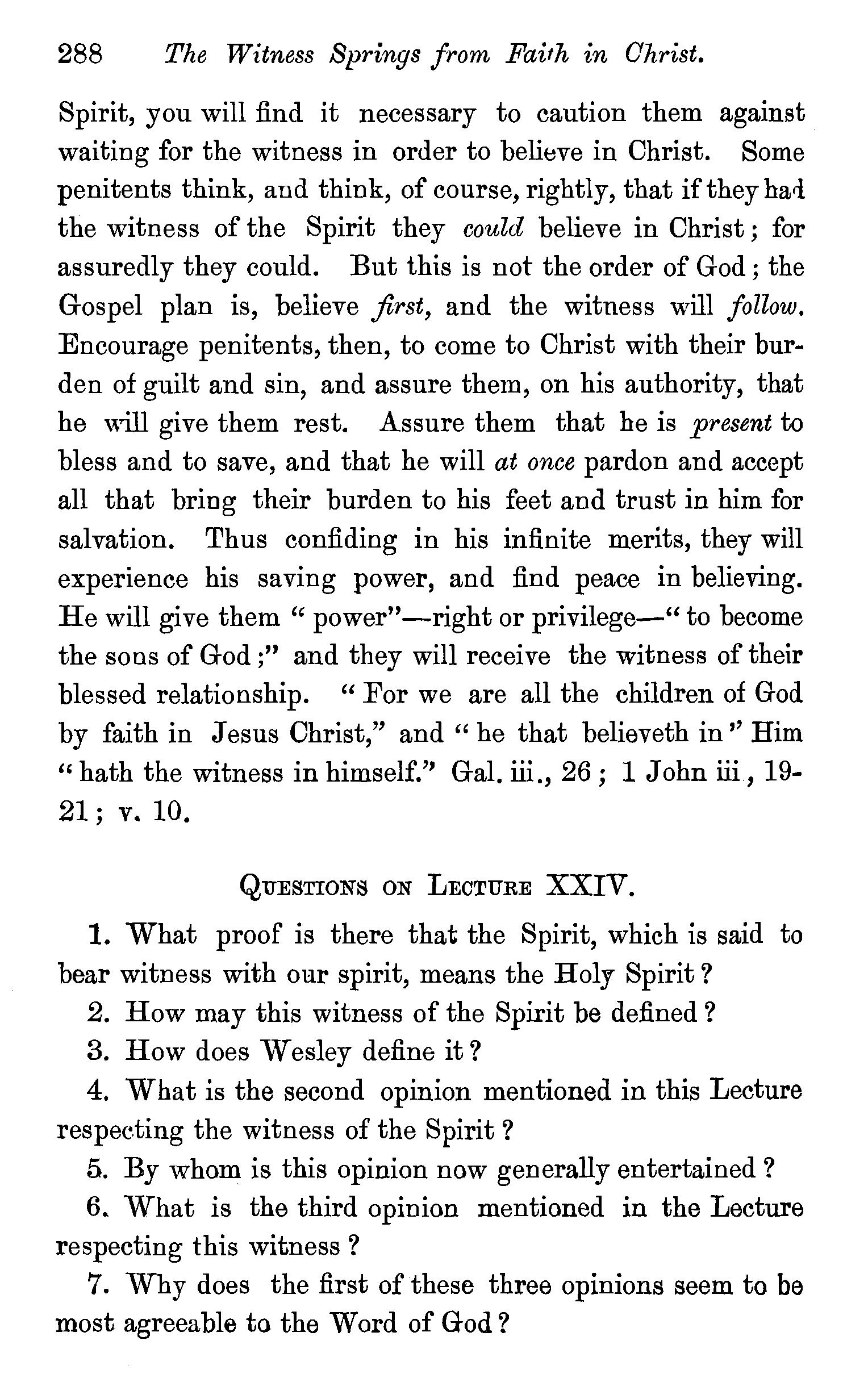
288 The Witness Springs from Faith in Christ.
Spirit, you will find it necessary to caution them against waiting for the witness in order to believe in Christ. Some penitents think, and think, of course, rightly, that if they hatf the witness of the Spirit they could believe in Christ ; for assuredly they could. But this is not the order of God; the Gospel plan is, believe first, and the witness will follow. Encourage penitents, then, to come to Christ with their burden of guilt and sin, and assure them, on his authority, that he will give them rest. Assure them that he is present to bless and to save, and that he will at once pardon and accept all that bring their burden to his feet and trust in him for salvation. Thus confiding in his infinite merits, they will experience his saving power, and find peace in believing. He will give them " power"-right or privilege-" to become the sons of God;" and they will receive the witness of their blessed relationship. " For we are all the children of God by faith in Jesus Christ," and " he that believeth in '' Him "hath the witness in himself.'' Gal. iii., 26; 1 John iii, 1921; v. 10.
1. What proof is there that the Spirit, which is said to bear witness with our spirit, means the Holy Spirit?
2. How may this witness of the Spirit be defined?
3. How does "\Vesley define it ?
4. What is the second opinion mentioned in this Lecture respecting the witness of the Spirit ?
5. By whom is this opinion now generally entertained ?
6. What is the third opinion mentioned in the Lecture respecting this witness ?
7. Why does the first of these three opinions seem to be most agreeable to the Word of God?
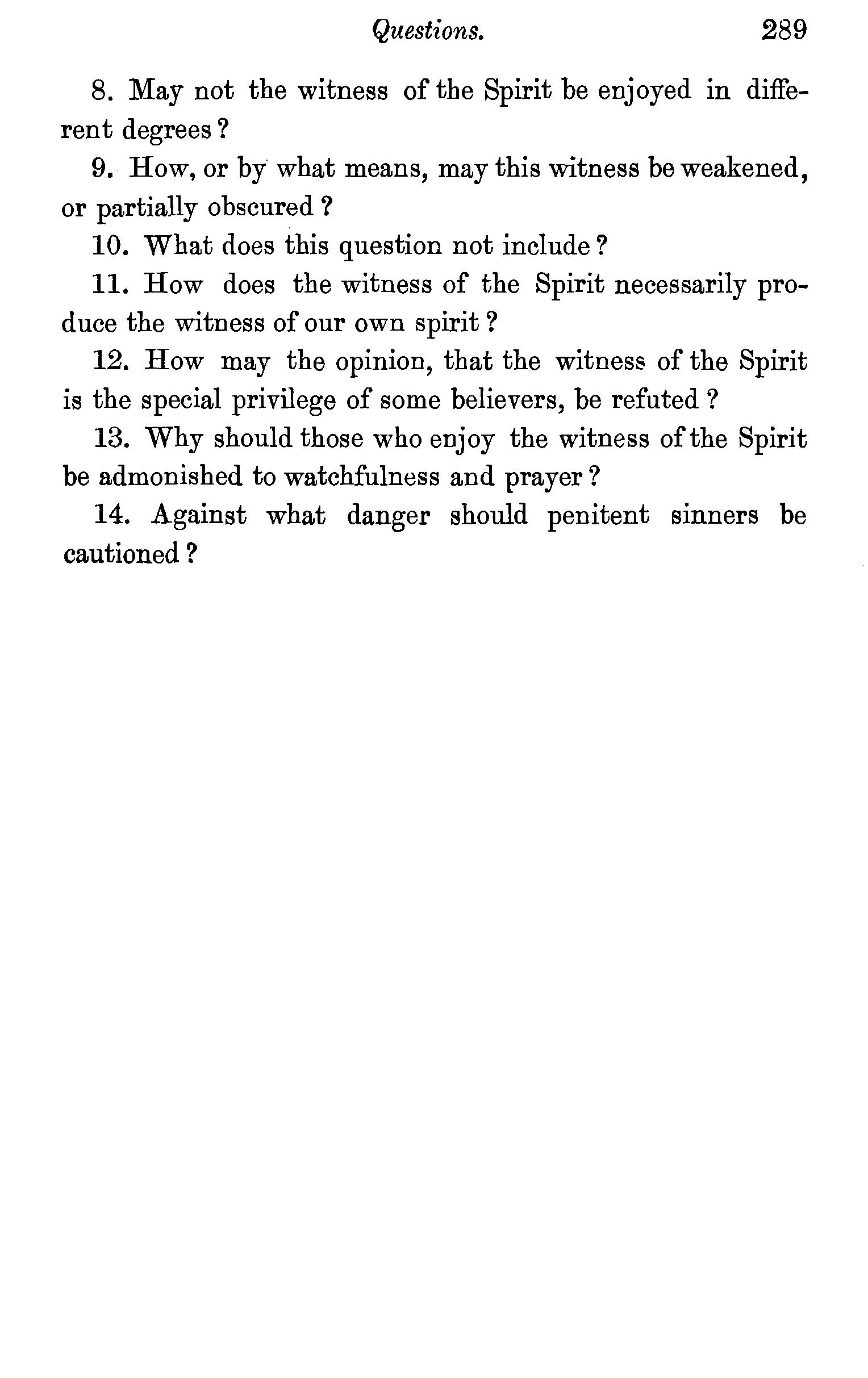
8. May not the witness of the Spirit be enjoyed in different degrees ?
9. How, or by what means, may this witness be weakened, or partially obscured?
10. What does this question not include?
11. How does the witness of the Spirit necessarily produce the witness of our own spirit?
12. How may the opinion, that the witness of the Spirit is the special privilege of some believers, be refuted ?
13. Why should those who enjoy the witness of the Spirit be admonished to watchfulness and prayer?
14. Against what danger should penitent sinners be cautioned?
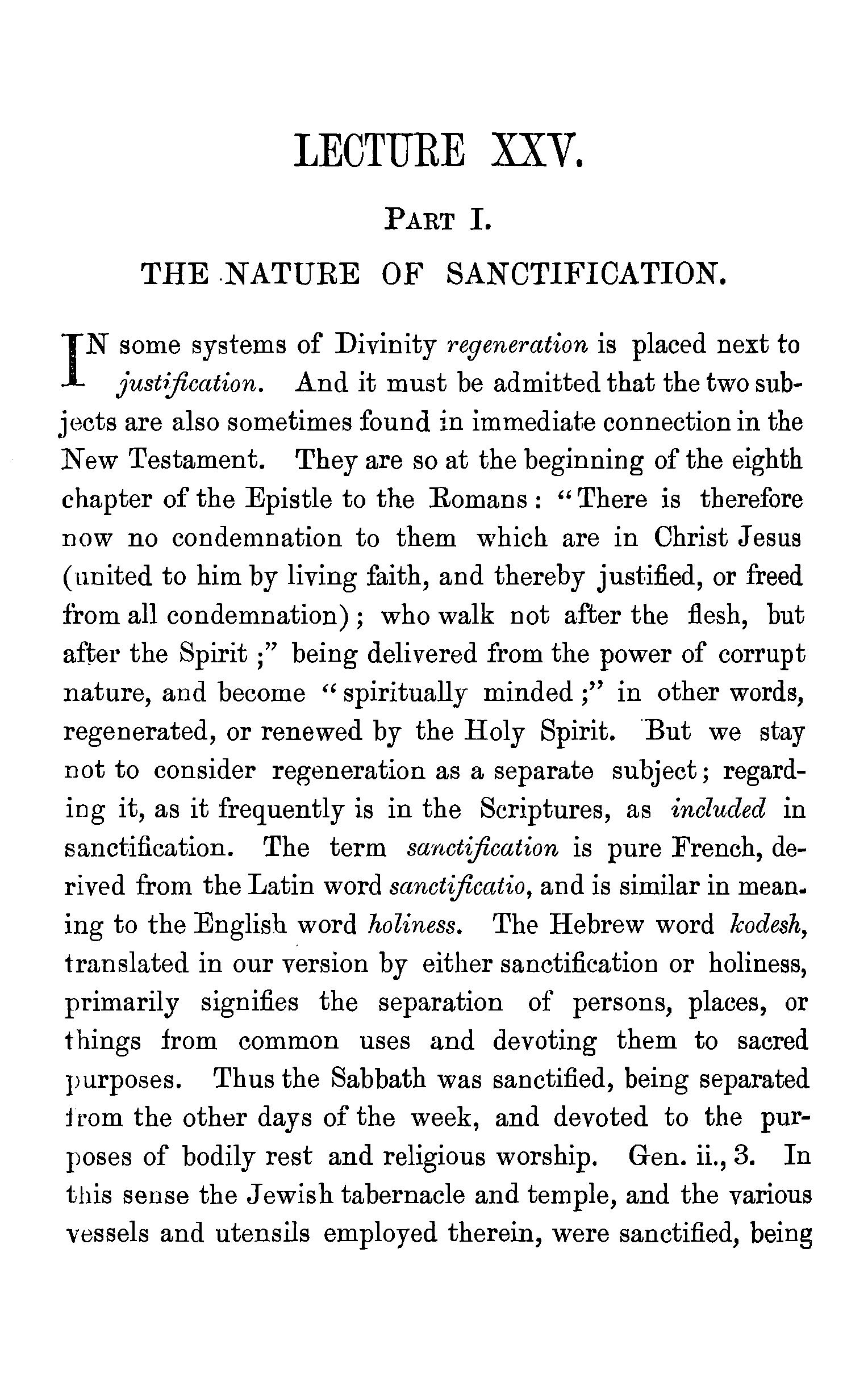
some systems of Divinity regeneration is placed next to Justification. And it must be admitted that the two subjects are also sometimes found in immediate connection in the New Testament. They are so at the beginning of the eighth chapter of the Epistle to the Romans : "There is therefore now no condemnation to them which are in Christ Jesus (united to him by living faith, and thereby justified, or freed from all condemnation) ; who walk not after the flesh, but after the Spirit;" being delivered from the power of corrupt nature, and become " spiritually minded ;" in other words, regenerated, or renewed by the Holy Spirit. But we stay not to consider regeneration as a separate subject; regarding it, as it frequently is in the Scriptures, as included in sanctification. The term sanctification is pure French, derived from the Latin word sancti.ficatio,and is similar in mean. ing to the English word holiness. The Hebrew word lcodesh, translated in our version by either sanctification or holiness, primarily signifies the separation of persons, places, or things from common uses and devoting them to sacred purposes. Thus the Sabbath was sanctified, being separated from the other days of the week, and devoted to the purposes of bodily rest and religious worship. Gen. ii., 3. In this sense the Jewish tabernacle and temple, and the various vessels and utensils employed therein, were sanctified, being
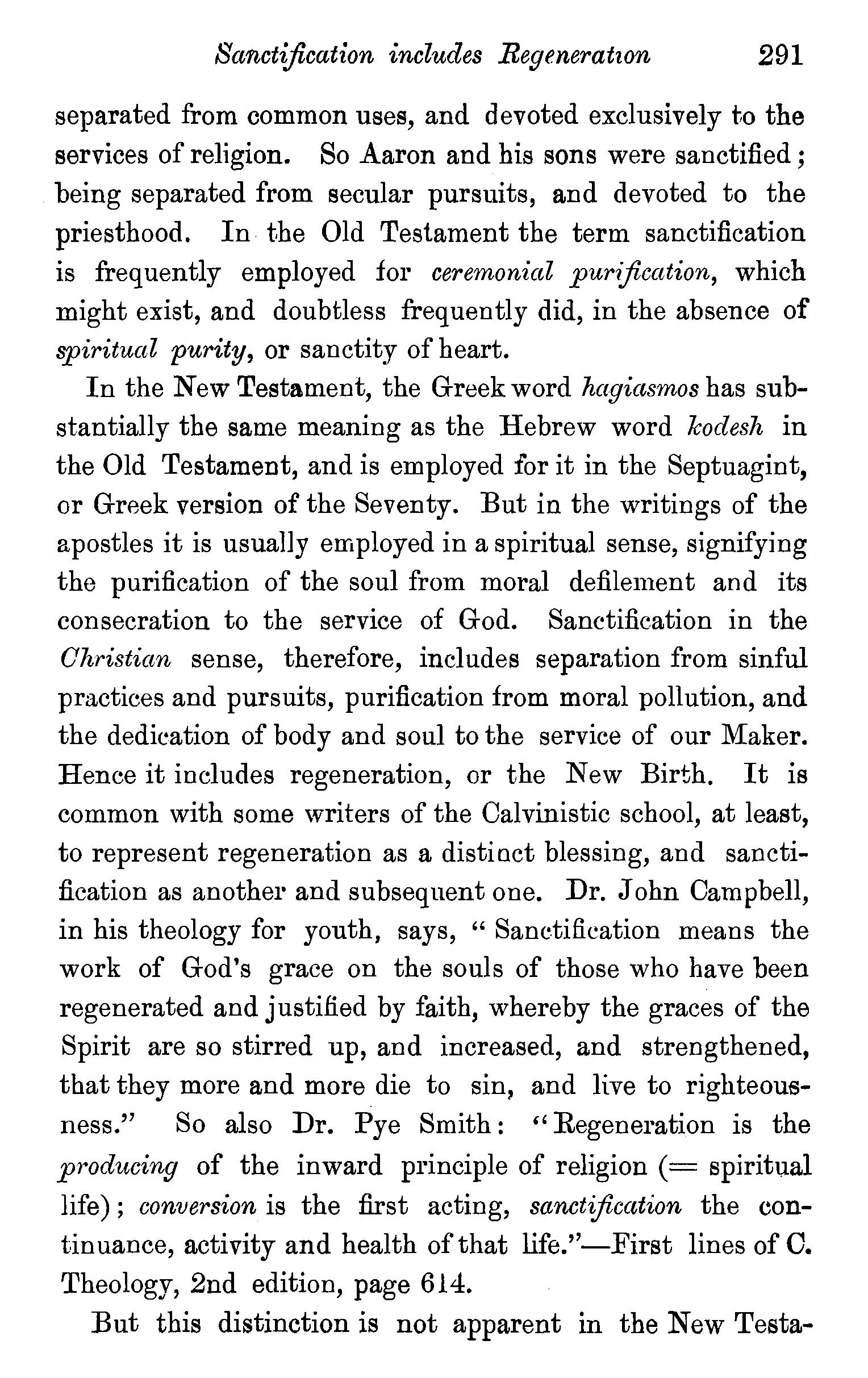
separated from common uses, and devoted exclusively to the services of religion. So Aaron and his sons were sanctified ; being separated from secular pursuits, and devoted to the priesthood. In the Old Testament the term sanctification is frequently employed for ceremonial purification, which might exist, and doubtless frequently did, in the absence of spiritual purity, or sanctity of heart.
In the New Testament, the Greek word hagiasmos has substantially the same meaning as the Hebrew word kodesh in the Old Testament, and is employed for it in the Septuagint, or Greek version of the Seventy. But in the writings of the apostles it is usually employed in a spiritual sense, signifying the purification of the soul from moral defilement and its consecration to the service of God. Sanctification in the Christian sense, therefore, includes separation from sinful practices and pursuits, purification from moral pollution, and the dedication of body and soul to the service of our Maker. Hence it includes regeneration, or the New Birth. It is common with some writers of the Calvinistic school, at least, to represent regeneration as a distinct blessing, and sanctification as another and subsequent one. Dr. John Campbell, in his theology for youth, says, " Sanctification means the work of God's grace on the souls of those who have been regenerated and justified by faith, whereby the graces of the Spirit are so stirred up, and increased, and strengthened, that they more and more die to sin, and live to righteousness.'' So also Dr. Pye Smith : '' Regeneration is the producing of the inward principle of religion ( = spiritual life) ; conversion is the first acting, sanctification the continuance, activity and health of that life.''-First lines of C. Theology, 2nd edition, page 614.
But this distinction is not apparent in the New Testa-
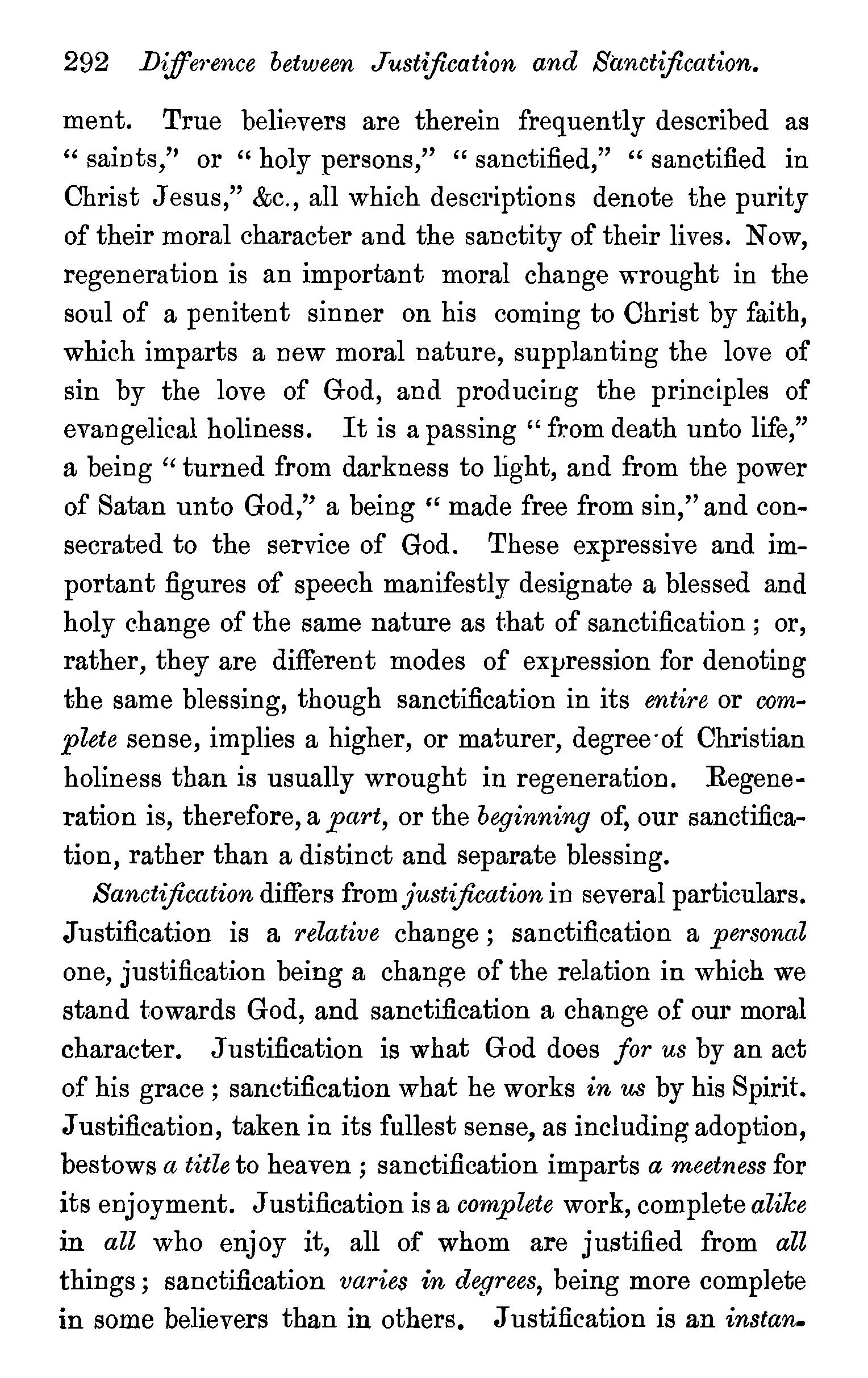
292 Dijfe1·ence between Justification and Sanctification. ment. True befowers are therein frequently described as " saints '' or " holy persons " " sanctified " " sanctified m ' • ' ' Christ Jesus," &c., all which descriptions denote the purity of their moral character and the sanctity of their lives. Now, regeneration is an important moral change wrought in the soul of a penitent sinner on his coming to Christ by faith, which imparts a new moral nature, supplanting the love of sin by the love of God, and producing the principles of evangelical holiness. It is a passing "fr.om death unto life," a being" turned from darkness to light, and from the power of Satan unto God,'' a being " made free from sin,'' and consecrated to the service of God. These expressive and important figures of speech manifestly designate a blessed and holy change of the same nature as that of sanctification; or, rather, they are different modes of exJJression for denoting the same blessing, though sanctification in its entire or complete sense, implies a higher, or maturer, degree·of Christian holiness than is usually wrought in regeneration. Regeneration is, therefore, a part, or the beginning of, our sanctification, rather than a distinct and separate blessing.
Sancti.fication differs from Justi.fication in several particulars. Justification is a relative change; sanctification a personal one, justification being a change of the relation in which we stand towards God, and sanctification a change of our moral character. Justification is what God does for us by an act of his grace; sanctification what he works in us by his Spirit. Justification, taken in its fullest sense, as including adoption, bestows a title to heaven ; sanctification imparts a meetness for its enjoyment. Justification is a complete work, complete alike in all who enjoy it, all of whom are justified from all things; sanctification varies in degrees, being more complete in some believers than in others. Justification is an instan.
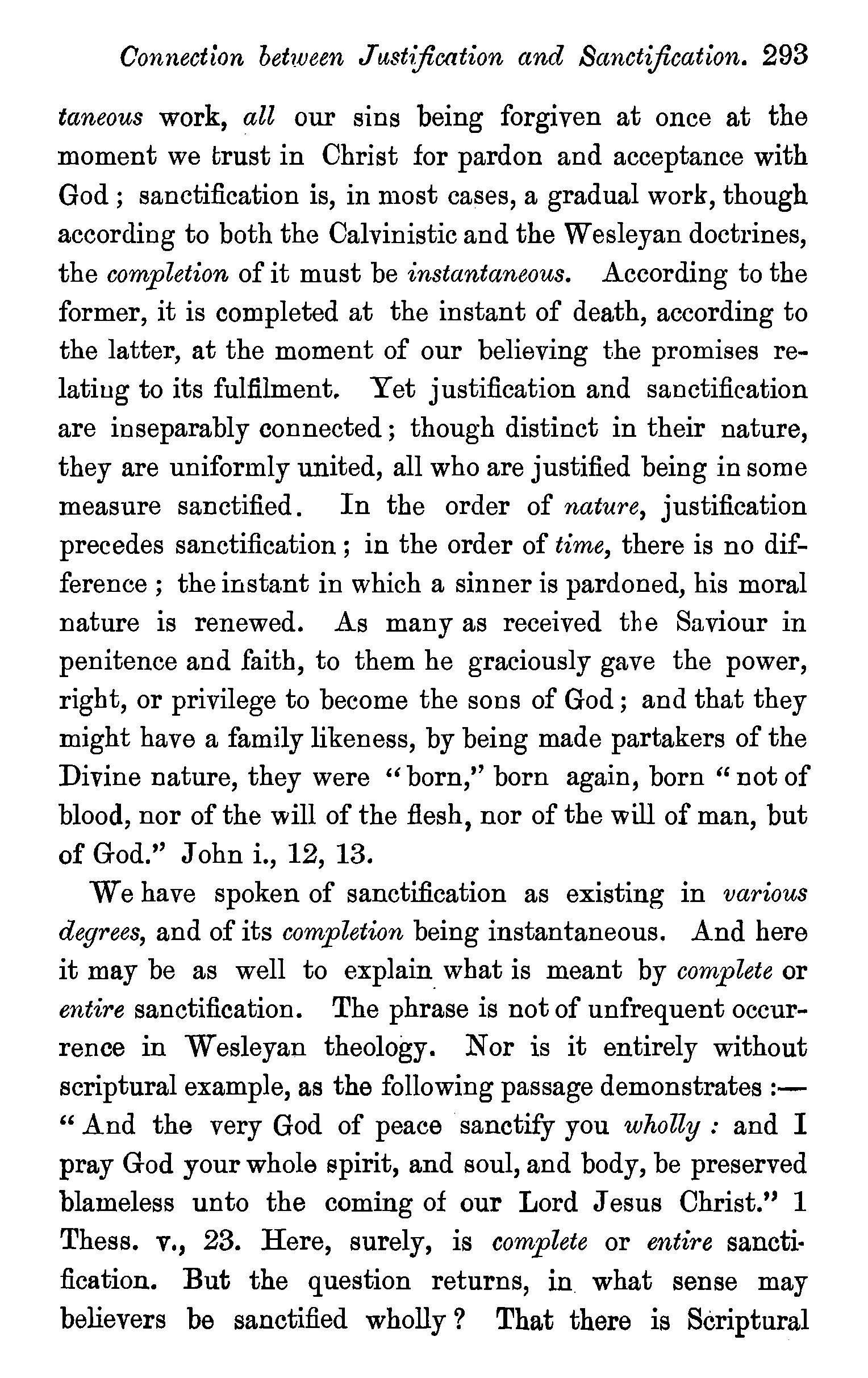
taneous work, all our sins being forgiven at once at the moment we trust in Christ for pardon and acceptance with God; sanctification is, in most cases, a gradual work, though according to both the Calvinistic and the Wesleyan doctrines, the completion of it must be instantaneous. According to the former, it is completed at the instant of death, according to the latter, at the moment of our believing the promises relatiug to its fulfilment. Yet justification and sanctification are inseparably connected; though distinct in their nature, they are uniformly united, all who are justified being in some measure sanctified. In the order of nature, justification precedes sanctification ; in the order of time, there is no difference; the instant in which a sinner is pardoned, his moral nature is renewed. As many as received the Saviour in penitence and faith, to them he graciously gave the power, right, or privilege to become the sons of God; and that they might have a family likeness, by being made partakers of the Divine nature, they were "born,'' born again, born "not of blood, nor of the will of the flesh, nor of the will of man, but of God.'' John i., 12, 13.
We have spoken of sanctification as existing in various degrees, and of its completion being instantaneous. And here it may be as well to explain_what is meant by complete or entire sanctification. The phrase is not of unfrequent occurrence in Wesleyan theology. Nor is it entirely without scriptural example, as the following passage demonstrates :" And the very God of peace sanctify you wholly : and I pray God your whole spirit, and soul, and body, be preserved blameless unto the coming of our Lord Jesus Christ." 1 Thess. v., 23. Here, surely, is complete or entire sanctification. But the question returns, in what sense may believers be sanctified wholly? That there is Scriptural
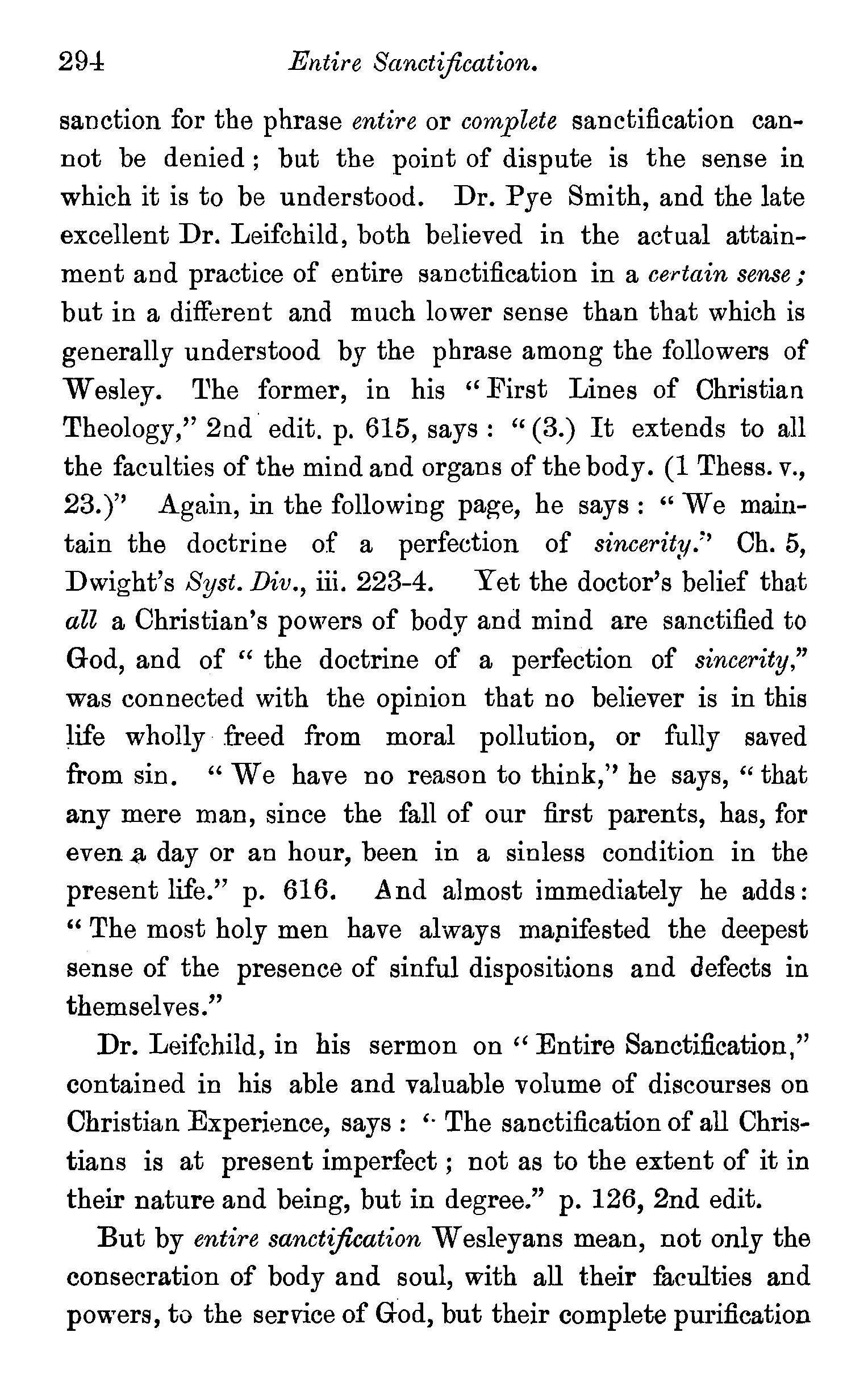
sanction for the phrase entire or complete sanctification cannot be denied ; but the point of dispute is the sense in which it is to be understood. Dr. Pye Smith, and the late excellent Dr. Leifchild, both believed in the actual attainment and practice of entire sanctification in a certain sense; but in a different and much lower sense than that which is generally understood by the phrase among the followers of Wesley. The former, in his "First Lines of Christian Theology,'' 2nd edit. p. 615, says : '' (3.) It extends to all the faculties of the mind and organs of the body. (1 Thess. v., 23. )'' Again, in the following page, he says : " We maintain the doctrine of a perfection of sincerity/' Ch. 5, Dwight's Syst. Div., iii. 223-4. Yet the doctor's belief that all a Christian's powers of body and mind are sanctified to God, and of '' the doctrine of a perfection of sincerity," was connected with the opinion that no believer is in this life wholly freed from moral pollution, or fully saved from sin. " We have no reason to think,'' he says, "that any mere man, since the fall of our first parents, has, for even~ day or an hour, been in a sinless condition in the present life." p. 616. .And almost immediately he adds: "The most holy men have always mapifested the deepest sense of the presence of sinful dispositions and defects in themselves."
Dr. Leifchild, in his sermon on '' Entire Sanctification,'' contained in his able and valuable volume of discourses on Christian Experience, says: '· The sanctification of all Christians is at present imperfect ; not as to the extent of it in their nature and being, but in degree." p. 126, 2nd edit.
But by entire sanctification W esleyans mean, not only the consecration of body and soul, with all their faculties and powers, to the service of God, but their complete purification
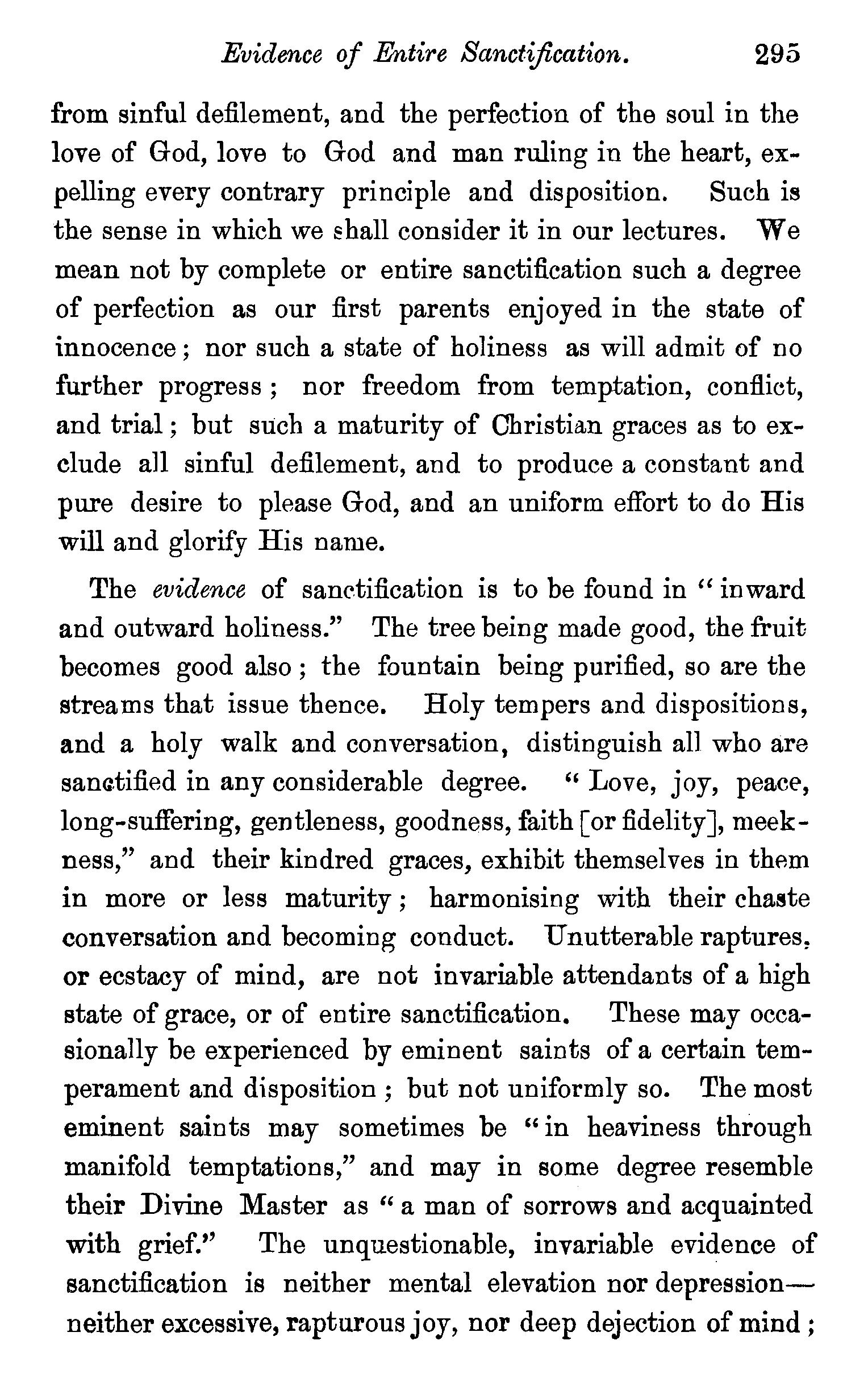
from sinful defilement, and the perfection of the soul in the love of God, love to God and man ruling in the heart, expelling every contrary principle and disposition. Such is the sense in which we Ehall consider it in our lectures. We mean not by complete or entire sanctification such a degree of perfection as our first parents enjoyed in the state of innocence ; nor such a state of holiness as will admit of no further progress ; nor freedom from temptation, conflict, and trial ; but such a maturity of Christian graces as to exclude all sinful defilement, and to produce a constant and pure desire to please God, and an uniform effort to do His will and glorify His name.
The evidence of sanrti:fication is to be found in " inward and outward holiness." The tree being made good, the fruit becomes good also ; the fountain being purified, so are the streams that issue thence. Holy tempers and dispositions, and a holy walk and conversation, distinguish all who are sanati:fied in any considerable degree. " Love, joy, peace, long-suffering, gentleness, goodness, faith [ or fidelity], meekness," and their kindred graces, exhibit themselves in them in more or less maturity ; harmonising with their chaste conversation and becoming conduct. Unutterable raptures, or ecstacy of mind, are not invariable attendants of a high state of grace, or of entire sanctification. These may occasionally be experienced by eminent saints of a certain temperament and disposition; but not uniformly so. The most eminent saints may sometimes be "in heaviness through manifold temptations," and may in some degree resemble their Divine Master as " a man of sorrows and acquainted with grief.'' The unquestionable, invariable evidence of sanctification is neither mental elevation nor depressionneither excessive, rapturous joy, nor deep dejection of mind;
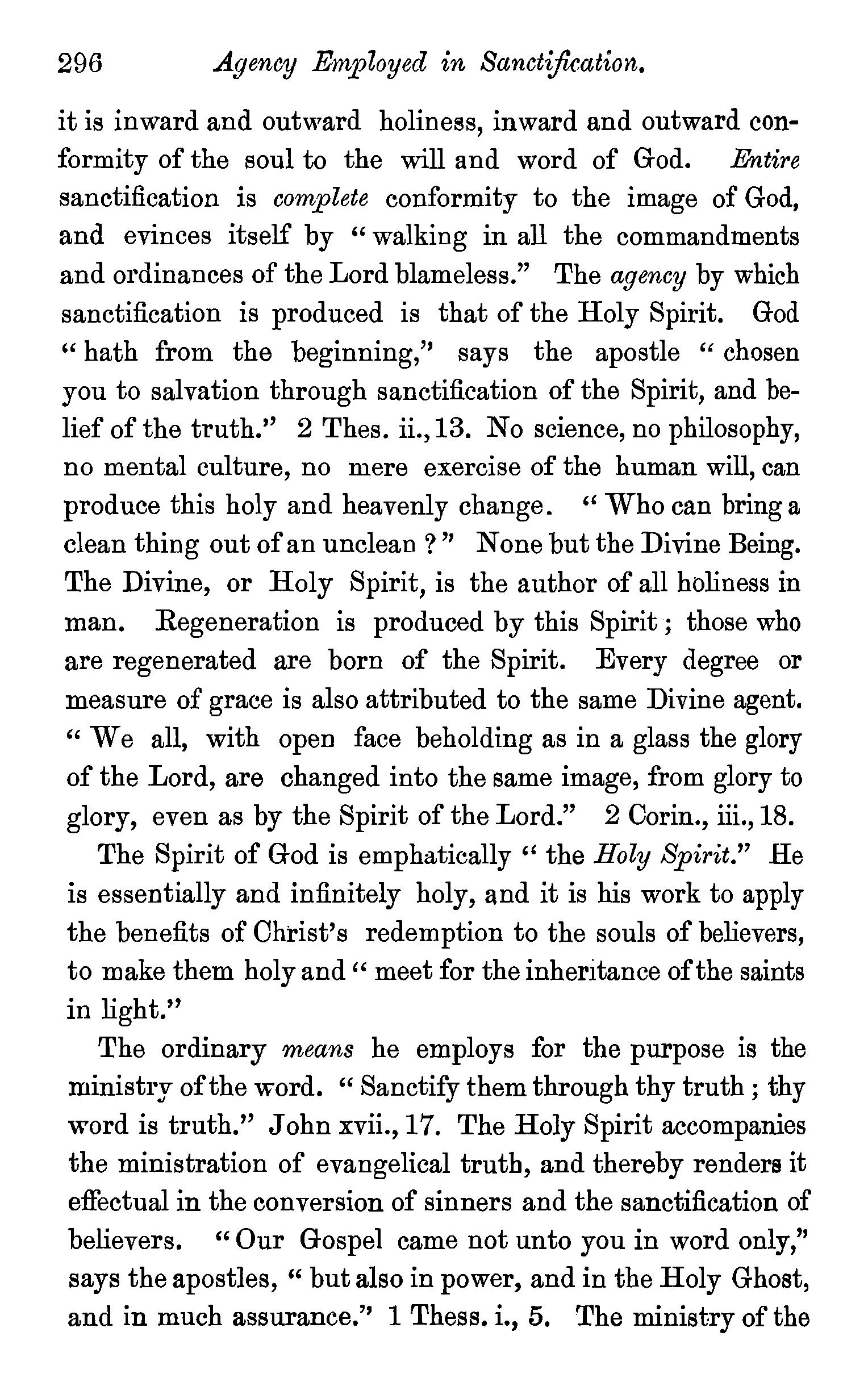
A.geney Employed in Sanctifkation. it is inward and outward holiness, inward and outward conformity of the soul to the will and word of God. Entire sanctification is complete conformity to the image of God, and evinces itself by "walking in all the commandments and ordinances of the Lord blameless." The agency by which sanctification is produced is that of the Holy Spirit. God " hath from the beginning,'' says the apostle " chosen you to salvation through sanctification of the Spirit, and belief of the truth.''
2 Thes. ii., 13. No science, no philosophy, no mental culture, no mere exercise of the human will, can produce this holy and heavenly change. "Who can bring a clean thing out of an unclean ? '' None but the Divine Being. The Divine, or Holy Spirit, is the author of all holiness in man. Regeneration is produced by this Spirit ; those who are regenerated are born of the Spirit. Every degree or measure of grace is also attributed to the same Divine agent. " We all, with open face beholding as in a glass the glory of the Lord, are changed into the same image, from glory to glory, even as by the Spirit of the Lord." 2 Corin., iii., 18.
The Spirit of God is emphatically" the Holy Spirit." He is essentially and infinitely holy, and it is his work to apply the benefits of Christ's redemption to the souls of believers, to make them holy and" meet for the inheritance of the saints in light."
The ordinary means he employs for the purpose is the ministry of the word. " Sanctify them through thy truth ; thy word is truth.'' John xvii., 17. The Holy Spirit accompanies the ministration of evangelical truth, and thereby renders it effectual in the conversion of sinners and the sanctification of believers. "Our Gospel came not unto you in word only,'' says the apostles, " but also in power, and in the Holy Ghost, and in much assurance.'' 1 Thess. i., 5. The ministry of the
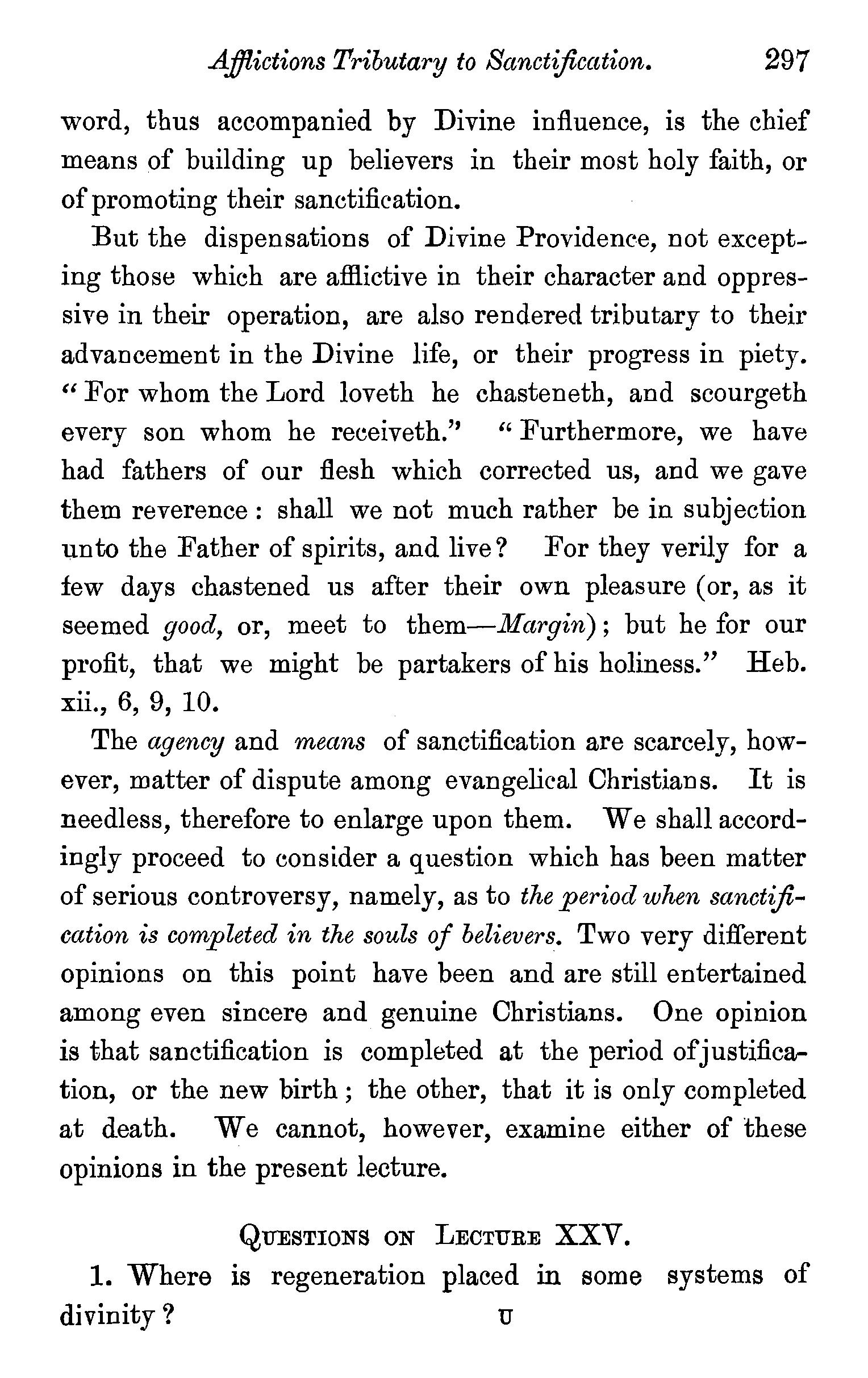
word, thus accompanied by Divine influence, is the chief means of building up believers in their most holy faith, or of promoting their sanctification.
But the dispensations of Divine Providence, not excepting those which are afflictive in their character and oppressive in their operation, are also rendered tributary to their advancement in the Divine life, or their progress in piety. "For whom the Lord loveth he chasteneth, and scourgeth every son whom he receiveth.'' "Furthermore, we have had fathers of our flesh which corrected us, and we gave them reverence: shall we not much rather be in subjection llnto the Father of spirits, and live? For they verily for a few days chastened us after their own pleasure ( or, as it seemed good, or, meet to them-Margin); but he for our profit, that we might be partakers of his holiness." Heb. xii., 6, 9, 10.
The agency and means of sanctification are scarcely, however, matter of dispute among evangelical Christians. It is needless, therefore to enlarge upon them. We shall accordingly proceed to consider a question which has been matter of serious controversy, namely, as to the period when sanctification is completed in the souls of believers. Two very different opinions on this point have been and are still entertained among even sincere and genuine Christians. One opinion is that sanctification is completed at the period ofjustification, or the new birth; the other, that it is only completed at death. We cannot, however, examine either of these opinions in the present lecture.
ON LECTURE XXV.
1. Where is regeneration placed m some systems of divinity? u
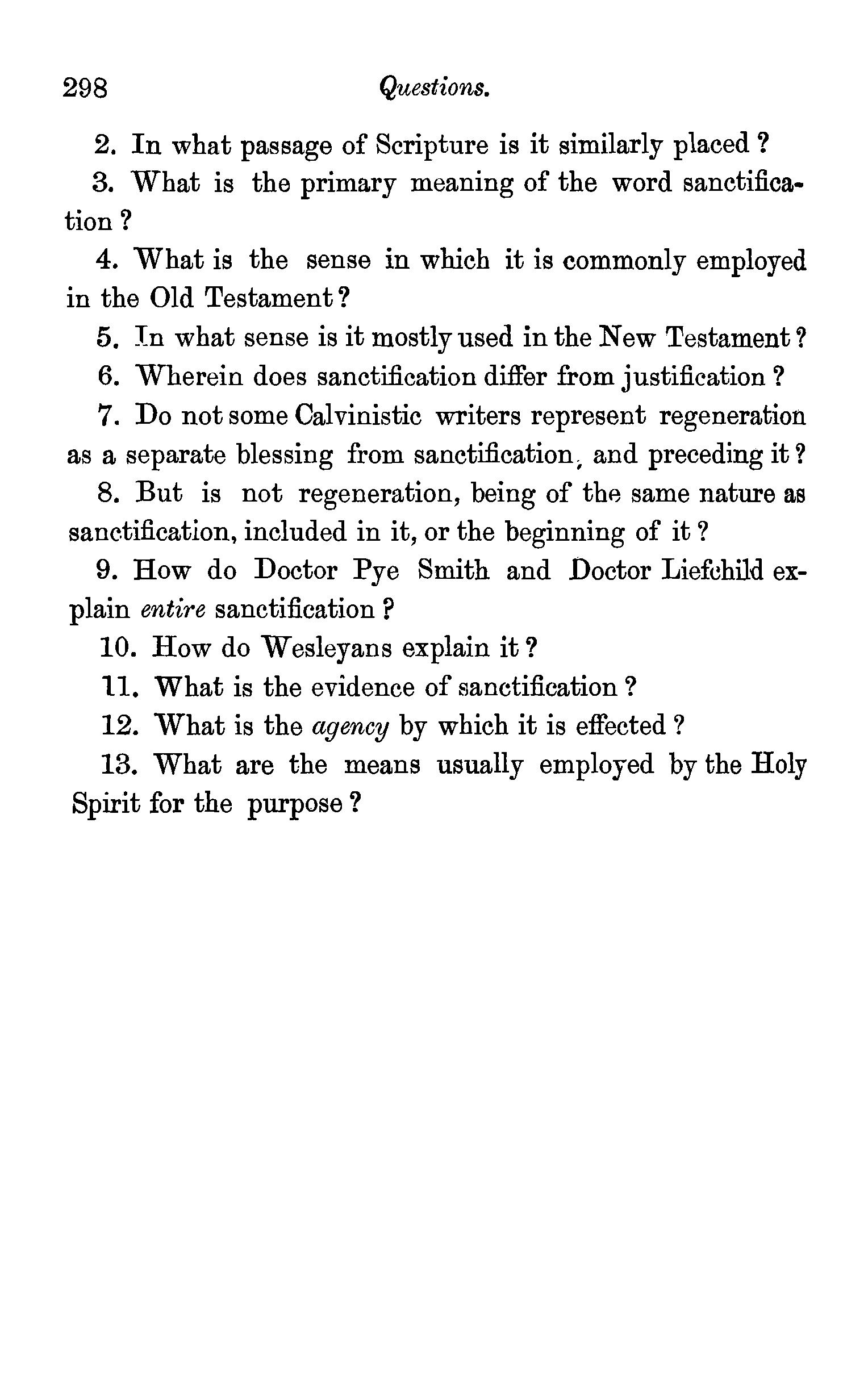
2. In what passage of Scripture is it similarly placed ?
3. What is the primary meaning of the word sanctification?
4. What is the sense in which it is commonly employed in the Old Testament?
5. In what sense is it mostly used in the New Testament?
6. Wherein does sanctification differ from justification ?
7. Do not some Calvinistic writers represent regeneration as a separate blessing from sanctification; and preceding it?
8. But is not regeneration, being of the same nature as sanctification, included in it, or the beginning of it ?
9. How do Doctor Pye Smith and Doctor Liefohild explain entire sanctification ?
10. How do W esleyans explain it?
11. What is the evidence of sanctification ?
12. What is the agency by which it is effected?
13. What are the means usually employed by the Holy Spirit for the purpose ?

WHETHER SANCTIFICATION IS USUALLY COMPLETED AT THE PERIOD OF JUSTIFICATION.
THAT sanctification is complete in every justified and regenerate person is an opinion that has had but a limited number of adherents in any age or country. Mr. Wesley goes so far as to say, " The doctrine is wholly new ; never heard of in the church of Christ, from the time of his coming into the world, till the time of Count Zinzendorf." But as it has obtained to some extent in most Methodist denominations, and as much may be said in its favour, it merits on our part a calm and candid examination. We admit, without hesitation, that the theory is a plausible one. It would seem reasonable to suppose that when the Almighty freely pardons a sinner, and adopts him into his family, he would at the same time thoroughly renew his nature, and perfectly restore him to his own image. But, in reply, it may be said that it would seem also reasonable to suppose, if Scripture and undeniable facts were not opposed to it, that since mankind has been redeemed by the incarnation and death of the Son of God, children would be born in a state of moral purity, and not in one of moral depravity. It would seem reasonable, too, to suppose that as all men have been redeemed by Christ, means would have been adopted, in the
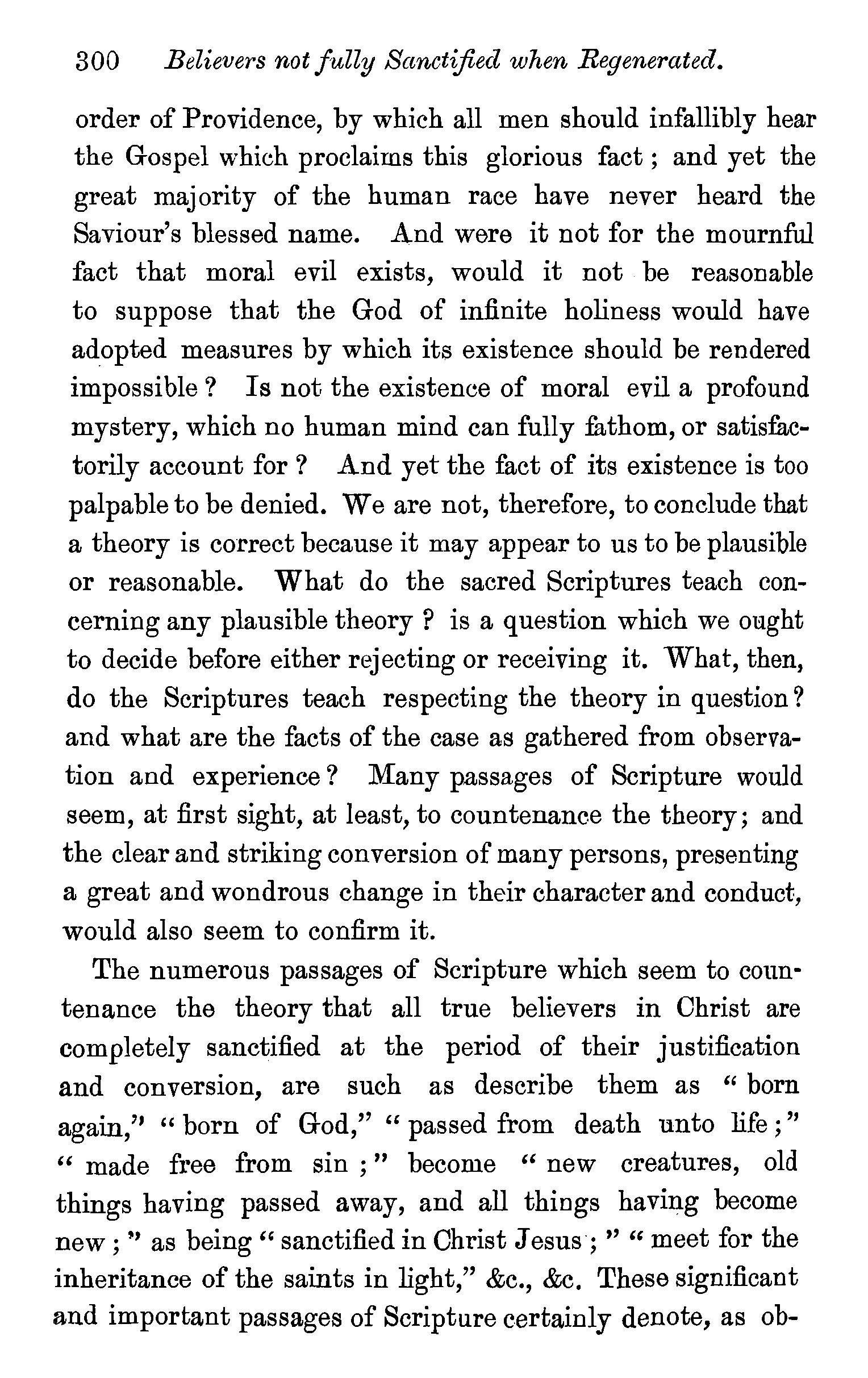
Believers not fully Sancti.fiecl when Regeneratecl.
order of Providence, by which all men should infallibly hear the Gospel which proclaims this glorious fact; and yet the great majority of the human race have never heard the Saviour's blessed name. And were it not for the mournful fact that moral evil exists, would it not be reasonable to suppose that the God of infinite holiness would have adopted measures by which its existence should be rendered impossible? Is not the existence of moral evil a profound mystery, which no human mind can fully fathom, or satisfactorily account for ? And yet the fact of its existence is too palpable to be denied. We are not, therefore, to conclude that a theory is correct because it may appear to us to be plausible or reasonable. What do the sacred Scriptures teach concerning any plausible theory ? is a question which we oaght to decide before either rejecting or receiving it. What, then, do the Scriptures teach respecting the theory in question? and what are the facts of the case as gathered from observation and experience? Many passages of Scripture would seem, at first sight, at least, to countenance the theory; and the clear and striking conversion of many persons, presenting a great and wondrous change in their character and conduct, would also seem to confirm it.
The numerous passages of Scripture which seem to countenance the theory that all true believers in Christ are completely sanctified at the period of their justification and conversion, are such as describe them as " born again,'' " born of God," " passed from death unto life ; " " made free from sin ; " become " new creatures, old things having passed away, and all things having become new ; '' as being " sanctified in Christ Jesus ; " " meet for the inheritance of the saints in light," &c., &c. These significant and important passages of Scripture certainly denote, as ob-
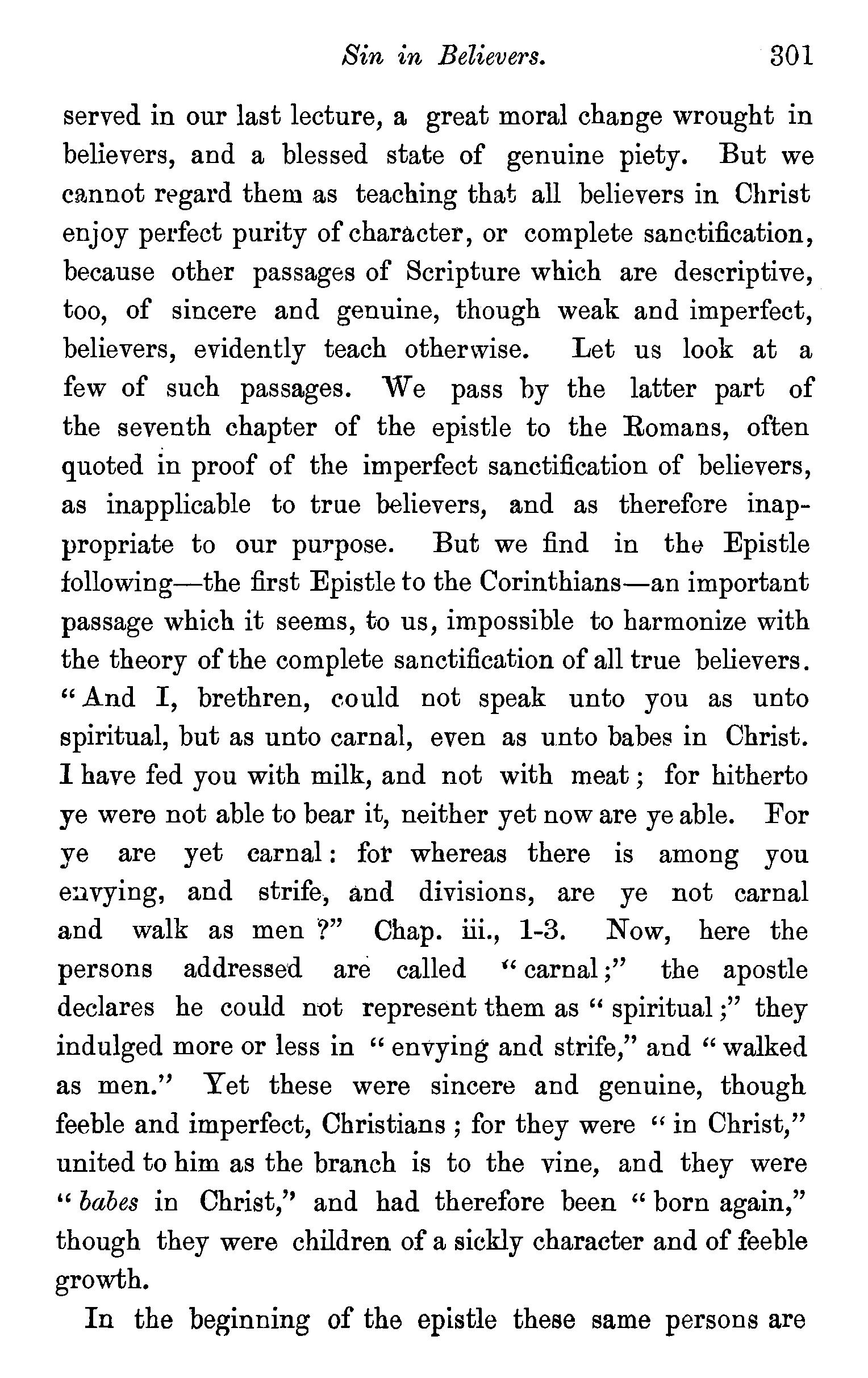
served in our last lecture, a great moral change wrought in believers, and a blessed state of genuine piety. But we cannot rt=-gardthem as teaching that all believers in Christ enjoy perfect purity of character, or complete sanctification, because other passages of Scripture which are descriptive, too, of sincere and genuine, though weak and imperfect, believers, evidently teach otherwise. Let us look at a few of such passages. We pass by the latter part of the seventh chapter of the epistle to the Romans, often quoted in proof of the imperfect sanctification of believers, as inapplicable to true believers, and as therefore inappropriate to our purpose. But we find in the Epistle following-the first Epistle to the Corinthians-an important passage which it seems, to us, impossible to harmonize with the theory of the complete sanctification of all true believers. "And I, brethren, could not speak unto you as unto spiritual, but as unto carnal, even as unto babes in Christ. I have fed you with milk, and not with meat ; for hitherto ye were not able to bear it, neither yet now are ye able. For ye are yet carnal : for whereas there is among you e::1vying, and strife, and divisions, are ye not carnal and walk as men ?" Chap. iii., 1-3. Now, here the persons addressed are called " carnal;" the apostle declares he could not represent them as " spiritual ;" they indulged more or less in " envying and strife," and " walked as men." Yet these were sincere and genuine, though feeble and imperfect, Christians ; for they were " in Christ," united to him as the branch is to the vine, and they were " babes in Christ,'' and had therefore been " born again," though they were children of a sickly character and of feeble growth.
In the beginning of the epistle these same persons are
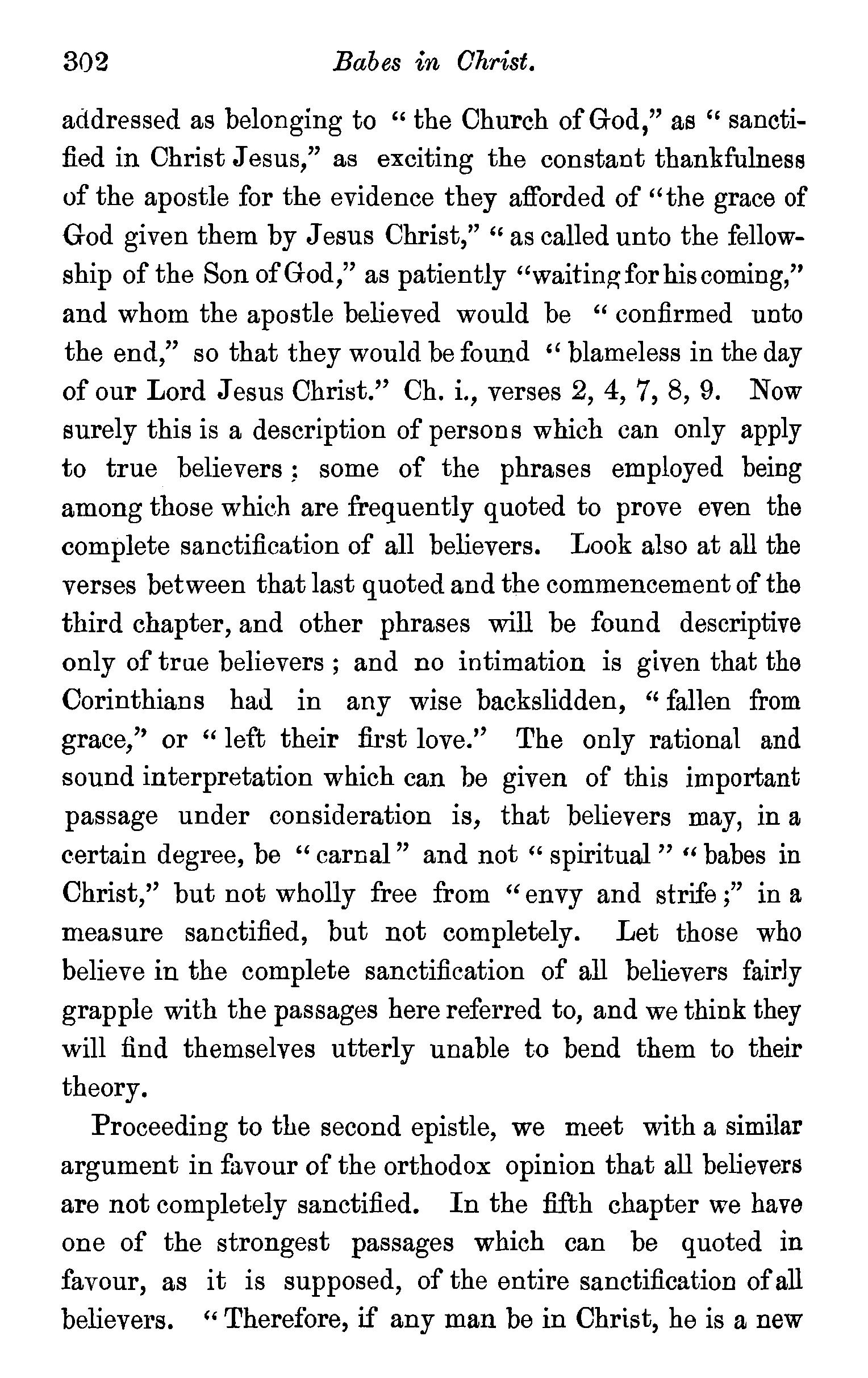
addressed as belonging to " the Church of God," as " sanctified in Christ Jesus," as exciting the constant thankfulness of the apostle for the evidence they afforded of "the grace of God given them by Jesus Christ," "as called unto the fellowship of the Son of God," as patiently "waiting for his coming," and whom the apostle believed would be " confirmed unto the end," so that they would be found '' blameless in the day of our Lord Jesus Christ." Ch. i., verses 2, 4, 7, 8, 9. Now surely this is a description of persons which can only apply to true believers ; some of the phrases employed being among those which are frequently quoted to prove even the complete sanctification of all believers. Look also at all the verses between that last quoted and the commencement of the third chapter, and other phrases will be found descriptive only of true believers ; and no intimation is given that the Corinthians had in any wise backslidden, " fallen from grace,'' or " left their first love.'' The only rational and sound interpretation which can be given of this important passage under consideration is, that believers may, in a certain degree, be " carnal" and not " spiritual " " babes in Christ,'' but not wholly free from "envy and strife ;" in a measure sanctified, but not completely. Let those who believe in the complete sanctification of all believers fairly grapple with the passages here referred to, and we think they will find themselves utterly unable to bend them to their theory.
Proceeding to the second epistle, we meet with a similar argument in favour of the orthodox opinion that all believers are not completely sanctified. In the fifth chapter we have one of the strongest passages which can be quoted in favour, as it is supposed, of the entire sanctification of all believers. " Therefore, if any man be in Christ, he is a new
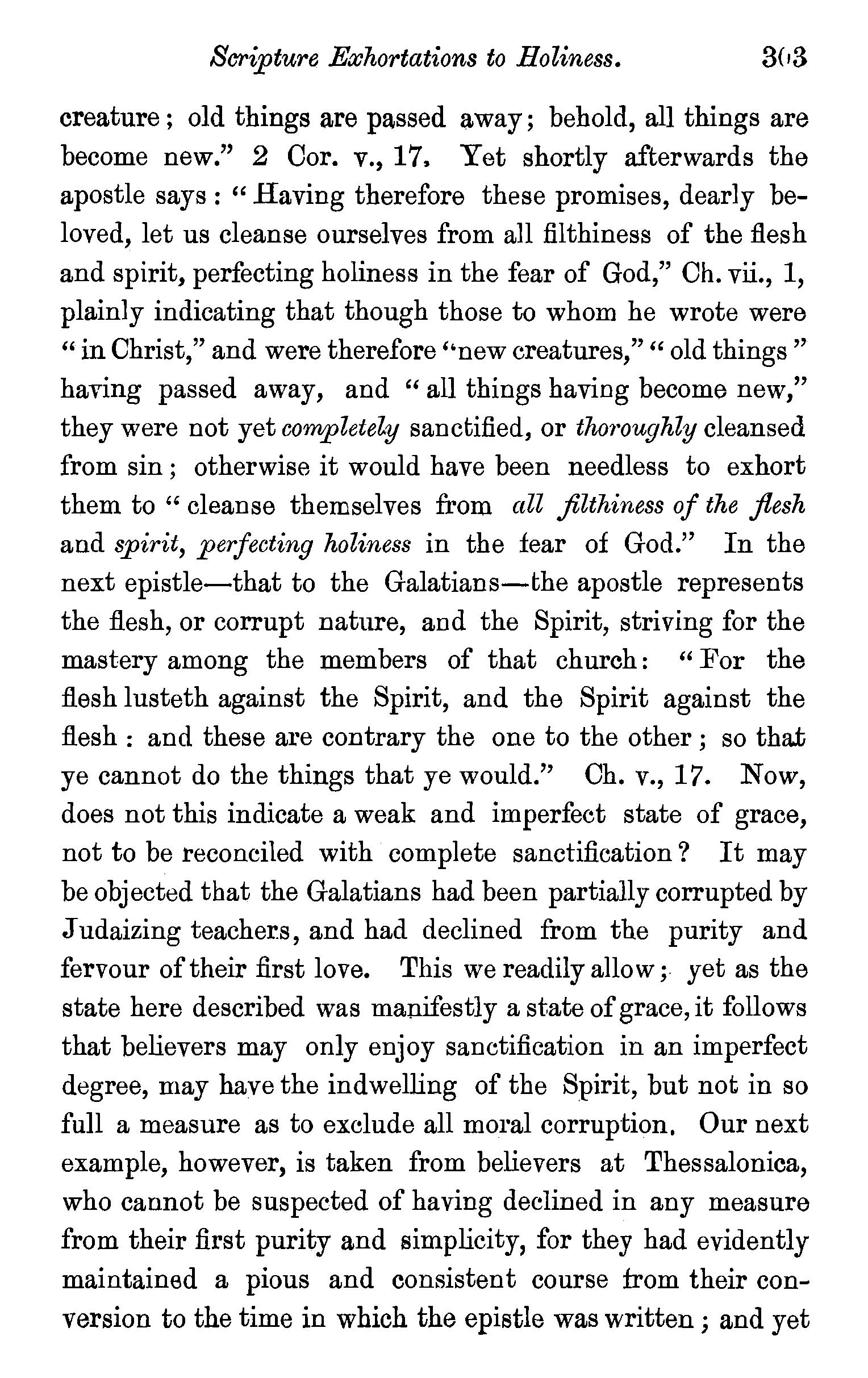
creature; old things are passed away; behold, all things are become new." 2 Cor. v., 17. Yet shortly afterwards the apostle says : "Having therefore these promises, dearly beloved, let us cleanse ourselves from all filthiness of the flesh and spirit, perfecting holiness in the fear of God," Ch. vii., 1, plainly indicating that though those to whom he wrote were "in Christ" and were therefore ''new creatures"" old things" ' ' having passed away, and "all things having become new," they were not yet completely sanctified, or thoroughly cleansed from sin; otherwise it would have been needless to exhort them to "cleanse themselves from all .filthiness of the flesh and spirit, perfecting holiness in the fear of God." In the next epistle-that to the Galatians-the apostle represents the flesh, or corrupt nature, and the Spirit, striving for the mastery among the members of that church: "For the flesh lusteth against the Spirit, and the Spirit against the flesh : and these are contrary the one to the other ; so tha.t ye cannot do the things that ye would." Ch. v., 17. Now, does not this indicate a weak and imperfect state of grace, not to be reconciled with complete sanctification? It may be objected that the Galatians had been partially corrupted by J udaizing teachers, and had declined from the purity and fervour of their first love. This we readily allow; yet as the state here described was manifestly a state of grace, it follows that believers may only enjoy sanctification in an imperfect degree, may have the indwelling of the Spirit, but not in so full a measure as to exclude all moral corruption, Our next example, however, is taken from believers at Thessalonica, who cannot be suspected of having declined in any measure from their first purity and simplicity, for they had evidently maintained a pious and consistent course from their conversion to the time in which the epistle was written ; and yet
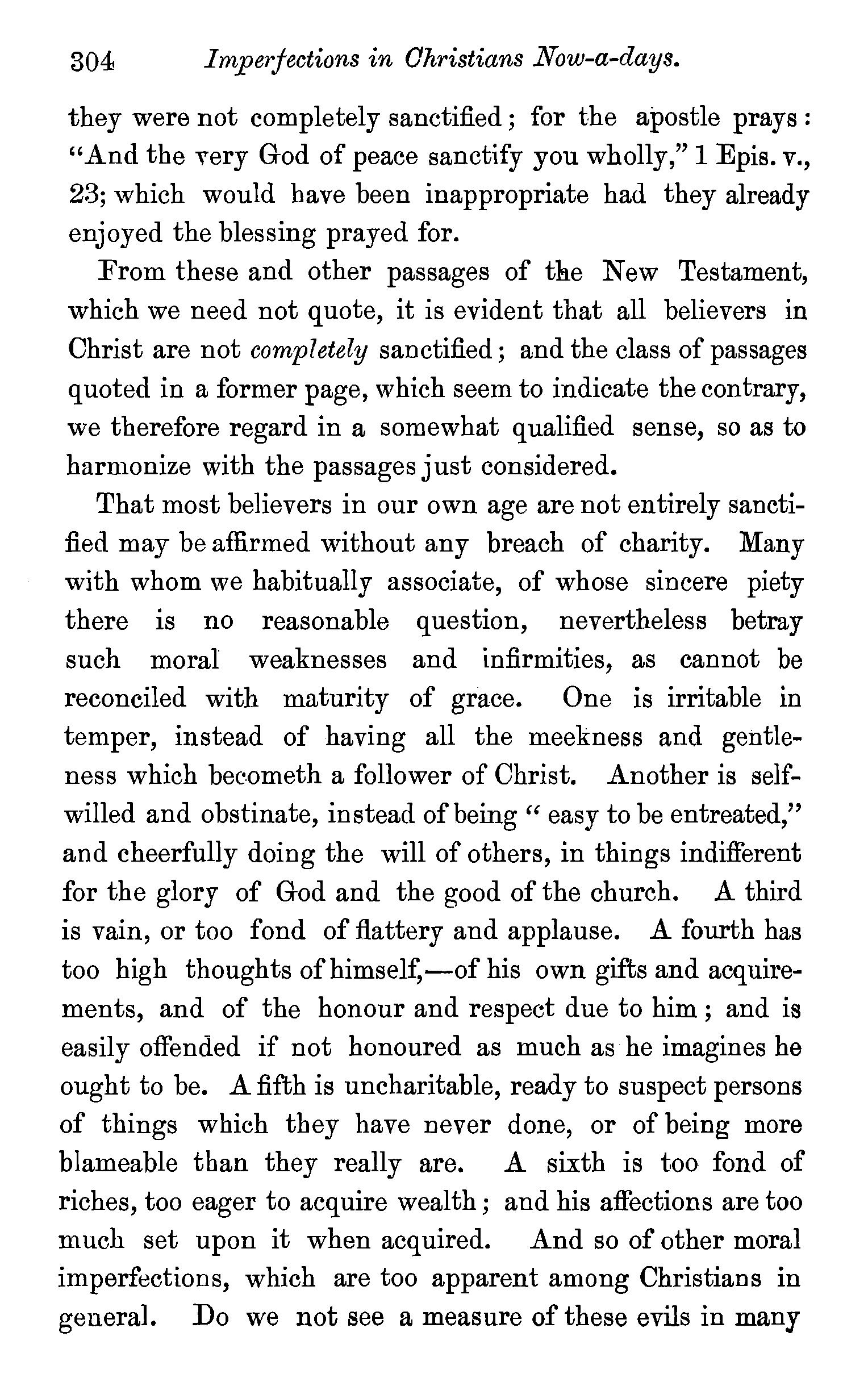
Imperfections in Christians Now-a-days.
they were not completely sanctified; for the apostle prays : "And the very God of peace sanctify you wholly," 1 Epis. v., 23; which would have been inappropriate had they already enjoyed the blessing prayed for.
From these and other passages of tJ.1.eNew Testament, which we need not quote, it is evident that all believers in Christ are not completely sanctified; and the class of passages quoted in a former page, which seem to indicate the contrary, we therefore regard in a somewhat qualified sense, so as to harmonize with the passages just considered.
Tbat most believers in our own age are not entirely sanctified may be affirmed without any breach of charity. Many with whom we habitually associate, of whose sincere piety there is no reasonable question, nevertheless betray such moral weaknesses and infirmities, as cannot be reconciled with maturity of grace. One is irritable in temper, instead of having all the meekness and gentleness which becometh a follower of Christ. Another is selfwilled and obstinate, instead of being" easy to be entreated," and cheerfully doing the will of others, in things indifferent for the glory of God and the good of the church. A third is vain, or too fond of flattery and applause. A fourth has too high thoughts ofhimself,-of his own gifts and acquirements, and of the honour and respect due to him ; and is easily offended if not honoured as much as he imagines he ought to be. A fifth is uncharitable, ready to suspect persons of things which they have never done, or of being more blameable than they really are. A sixth is too fond of riches, too eager to acquire wealth; and his affections are too much set upon it when acquired. And so of other moral imperfections, which are too apparent among Christians in general. Do we not see a measure of these evils in many
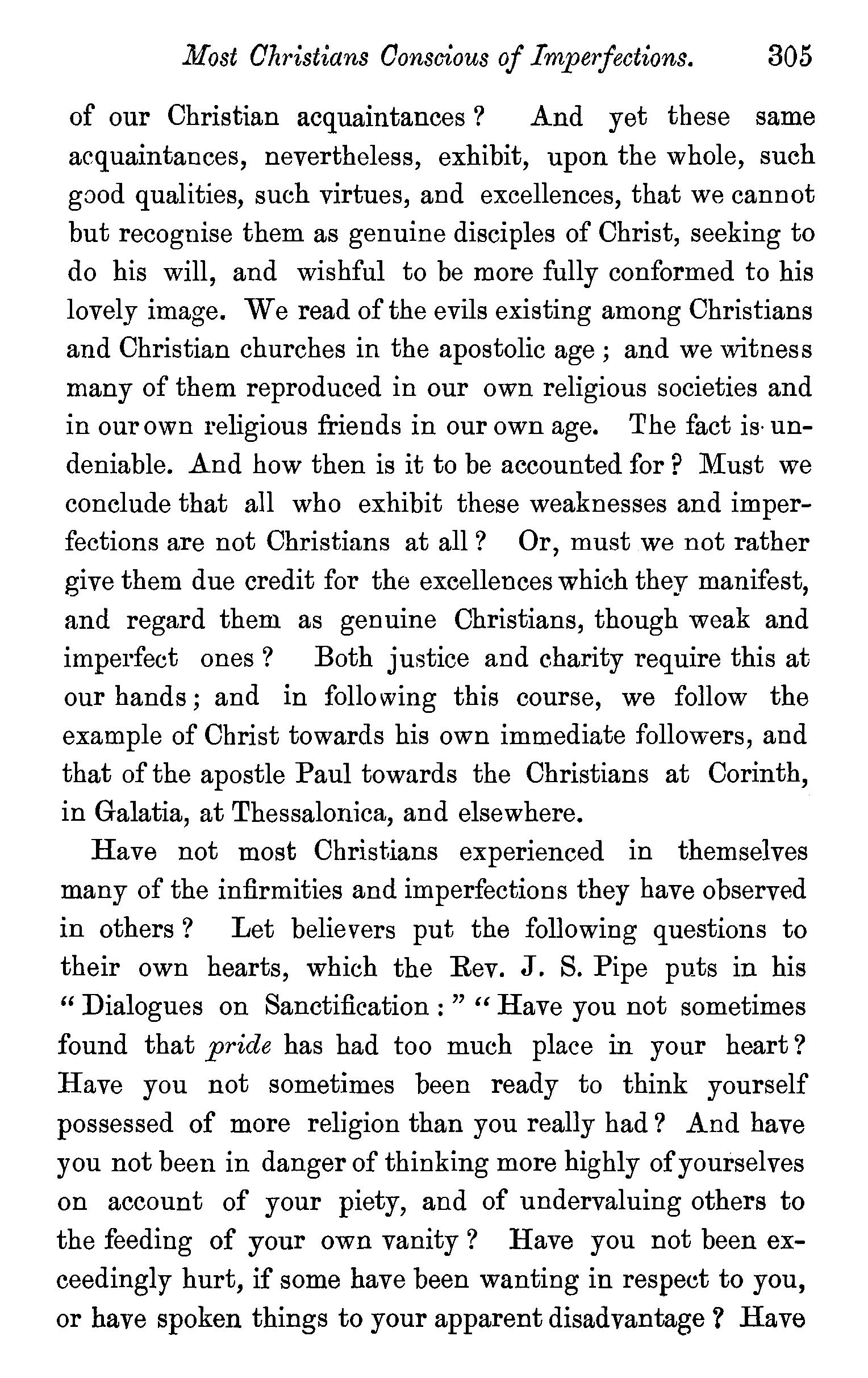
of our Christian acquaintances ? And yet these same acquaintances, nevertheless, exhibit, upon the whole, such good qualities, such virtues, and excellences, that we cannot but recognise them as genuine disciples of Christ, seeking to do his will, and wishful to be more fully conformed to his lovely image. We read of the evils existing among Christians and Christian churches in the apostolic age; and we witness many of them reproduced in our own religious societies and in our own religious friends in our own age. The fact is· undeniable. And how then is it to be accounted for? Must we conclude that all who exhibit these weaknesses and imperfections are not Christians at all ? Or, must we not rather give them due credit for the excellences which they manifest, and regard them as genuine Christians, though weak and imperfect ones? Both justice and charity require this at our hands ; and in following this course, we follow the example of Christ towards his own immediate followers, and that of the apostle Paul towards the Christians at Corinth, in Galatia, at Thessalonica, and elsewhere.
Have not most Christians experienced in themselves many of the infirmities and imperfections they have observed in others ? Let believers put the following questions to their own hearts, which the Rev. J. S. Pipe puts in his " Dialogues on Sanctification : " " Have you not sometimes found that pride has had too much place in your heart? Have you not sometimes been ready to think yourself possessed of more religion than you really had? And have you not been in danger of thinking more highly of yourselves on account of your piety, and of undervaluing others to the feeding of your own vanity ? Have you not been exceedingly hurt, if some have been wanting in respect to you, or have spoken things to your apparent disadvantage ? Have

you not secretly applauded yourself for your performances ? Have you not taken more pleasure in them that flattered you than in those who even justly and lovingly reproved you? Have you not hearkened to what has been spoken to your praise with too great eagerness and satisfaction ? Have you not often set too great a value upon your person, gifts, and abilities? Oan you enumerate the vain thoughts that have lodged within you? Have you not in many things, and those of no great moment, been too stiff and opinionated? Have you not gloried too much in your friends, relations, and possessions ? Have you not occasionally made too splendid a show of your natural, spiritual, and intellectual riches or gifts ? Has not finer or better apparel made you look for more respect from others, or think more highly of yourself? Has not this subtle pride mixed itself with your secret thoughts, your conversations with your friends, and even your devotional exercises ? To follow this evil through all its aspirings, boastings, inventions, conceits, arrogance, and scornfulness would be difficult indeed." And will not most Christians be constrained to answer substantially as follows ?-" This has too often been my case; and it has been matter of surprise that I, who feel myself so completely indebted to Divine grace, should ever cherish such propensities to vanity, self-applause, or haughtiness." When the purity, spirituality, and comprehensiveness of the Divine law are brought clearly to the minds of most Christians, they usually discover that they fall far short of its lofty but reasonable requirements, and sink in deep self-abasement at the mercy-seat. When they are favoured with enlightened views of the holiness of God, they are deeply penetrated with a sense of their own defects, and are ready to exclaim with Job, '' I have heard of thee by the hearing of
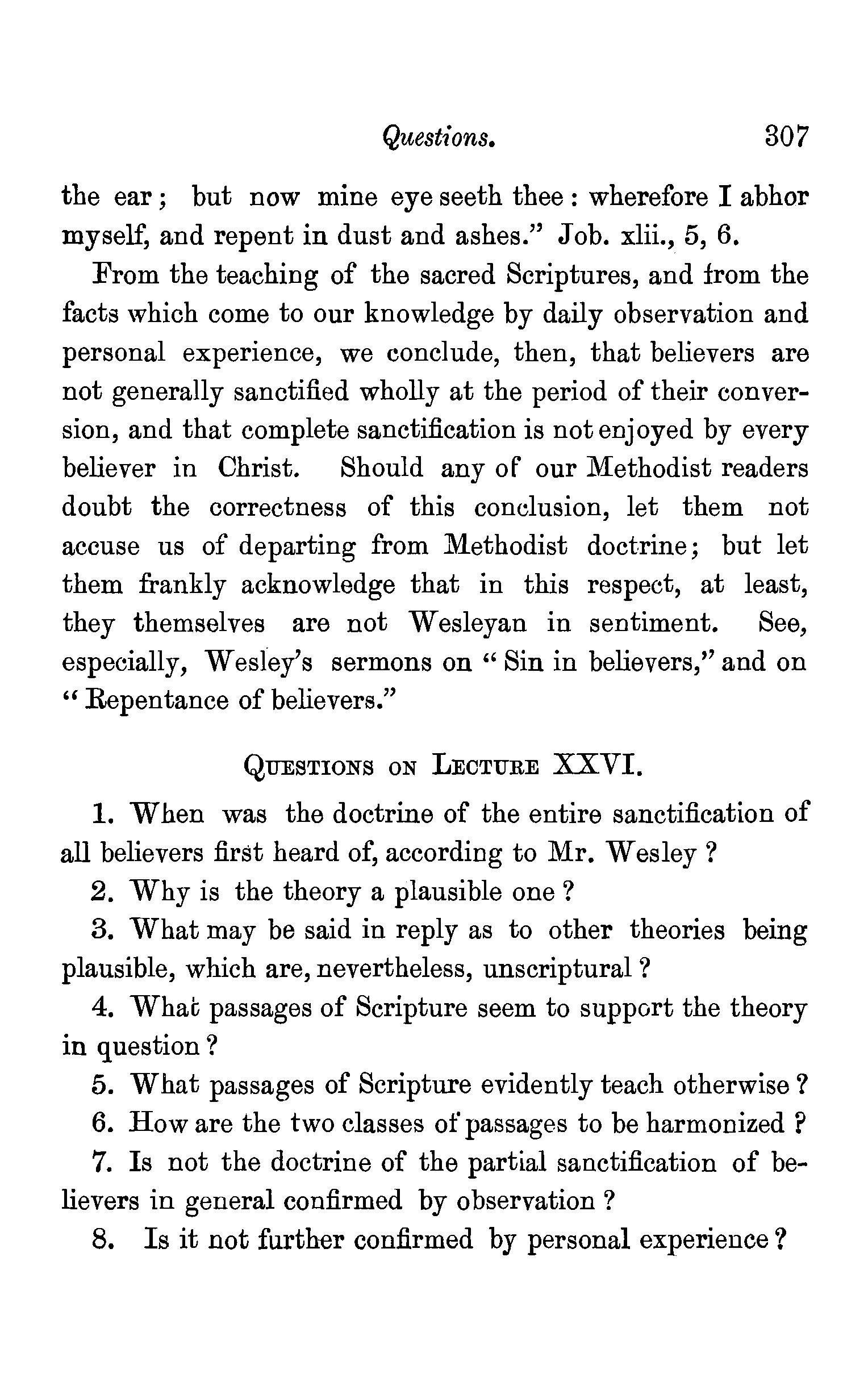
the ear ; but now mine eye seeth thee : wherefore I abhor myself, and repent in dust and ashes." Job. xlii., 5, 6.
From the teaching of the sacred Scriptures, and from the facts which come to our knowledge by daily observation and personal experience, we conclude, then, that believers are not generally sanctified wholly at the period of their conversion, and that complete sanctification is not enjoyed by every believer in Christ. Should any of our Methodist readers doubt the correctness of this conclusion, let them not accuse us of departing from Methodist doctrine; but let them frankly acknowledge that in this respect, at least, they themselves are not Wesleyan in sentiment. See, especially, Wesley's sermons on "Sin in believers,'' and on "Repentance of believers."
1. When was the doctrine of the entire sanctification of all believers first heard of, according to Mr. Wesley?
2. Why is the theory a plausible one ?
3. What may be said in reply as to other theories being plausible, which are, nevertheless, unscriptural ?
4. What passages of Scripture seem to support the theory in question?
5. What passages of Scripture evidently teach otherwise?
6. How are the two classes of passages to be harmonized ?
7. Is not the doctrine of the partial sanctification of believers in general confirmed by observation?
8. Is it not further confirmed by personal experience ?
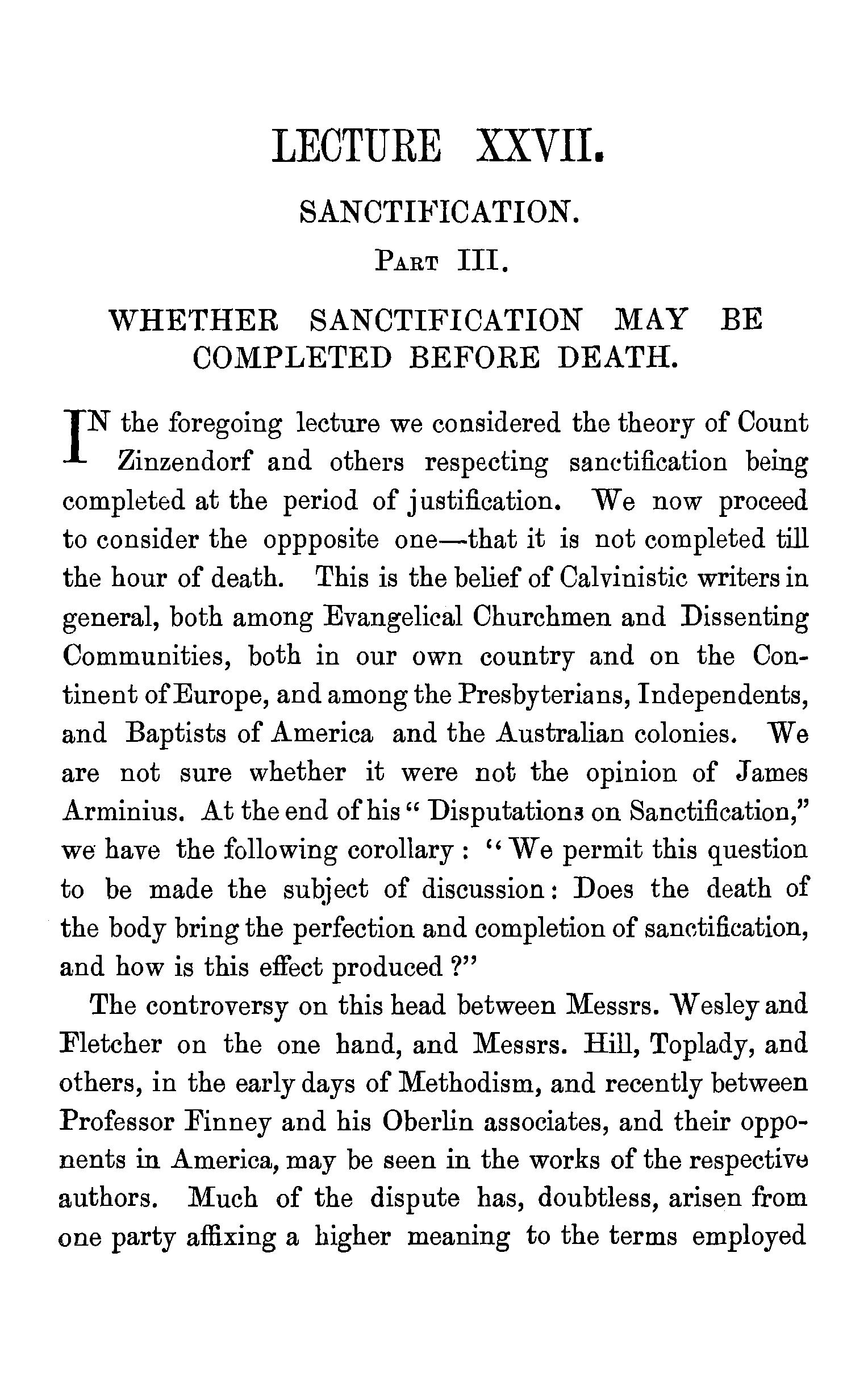
JN the foregoing lecture we considered the theory of Count Zinzendorf and others respecting sanctification being completed at the period of justification. We now proceed to consider the oppposite one-that it is not completed till the hour of death. This is the belief of Calvinistic writers in general, both among Evangelical Churchmen and Dissenting Communities, both in our own country and on the Continent of Europe, and among the Presbyterians, Independents, and Baptists of America and the Australian colonies. We are not sure whether it were not the opinion of James Arminius. At the end of his" Disputation3 on Sanctification," we have the following corollary: '' We permit this question to be made the su~ject of discussion: Does the death of the body bring the perfection and completion of sanctification, and how is this effect produced ?"
The controversy on this head between Messrs. Wesley and Fletcher on the one hand, and Messrs. Hill, Toplady, and others, in the early days of Methodism, and recently between Professor Finney and his Oberlin associates, and their opponents in America, may be seen in the works of the respective authors. Much of the dispute has, doubtless, arisen from one party affixing a higher meaning to the terms employed
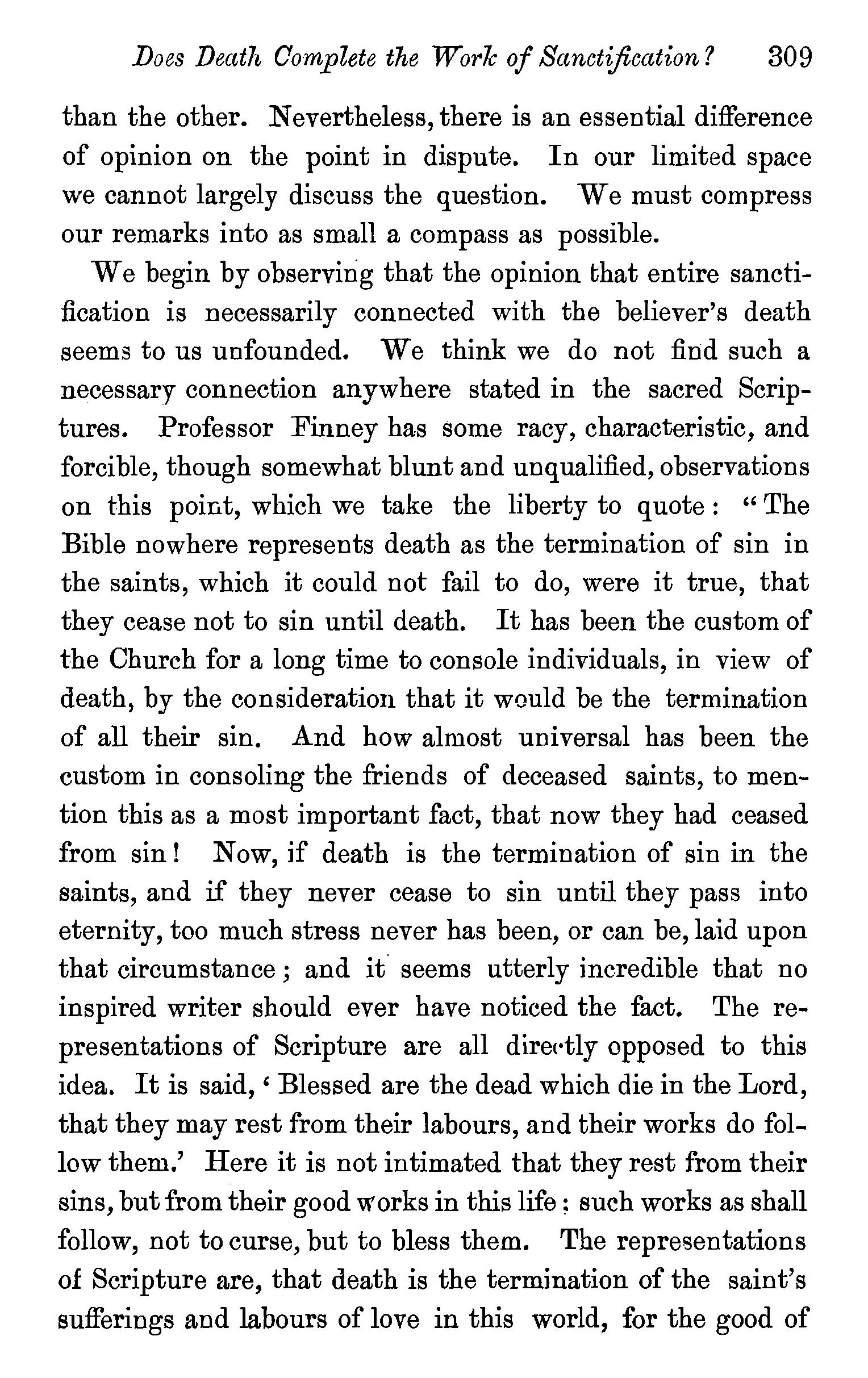
than the other. Nevertheless, there is an essential difference of opinion on the point in dispute. In our limited space we cannot largely discuss the question. We must compress our remarks into as small a compass as possible.
We begin by observing that the opinion that entire sanctification is necessarily connected with the believer's death seems to us unfounded. We think we do not find such a necessary connection anywhere stated in the sacred Scriptures. Professor Finney has some racy, characteristic, and forcible, though somewhat blunt and unqualified, observations on this poiut, which we take the liberty to quote : " The Bible nowhere represents death as the termination of sin in the saints, which it could not fail to do, were it true, that they cease not to sin until death. It has been the custom of the Church for a long time to console individuals, in view of death, by the consideration that it would be the termination of all their sin. And how almost universal has been the custom in consoling the friends of deceased saints, to mention this as a most important fact, that now they had ceased from sin! Now, if death is the termination of sin in the saints, and if they never cease to sin until they pass into eternity, too much stress never has been, or can be, laid upon that circumstance; and it seems utterly incredible that no inspired writer should ever have noticed the fact. The representations of Scripture are all dire1·tly opposed to this idea. It is said,' Blessed are the dead which die in the Lord, that they may rest from their labours, and their works do follow them.' Here it is not intimated that they rest from their sins, but from their good works in this life: such works as shall follow, not to curse, but to bless them. The representations of Scripture are, that death is the termination of the saint's sufferings and labours of love in this world, for the good of
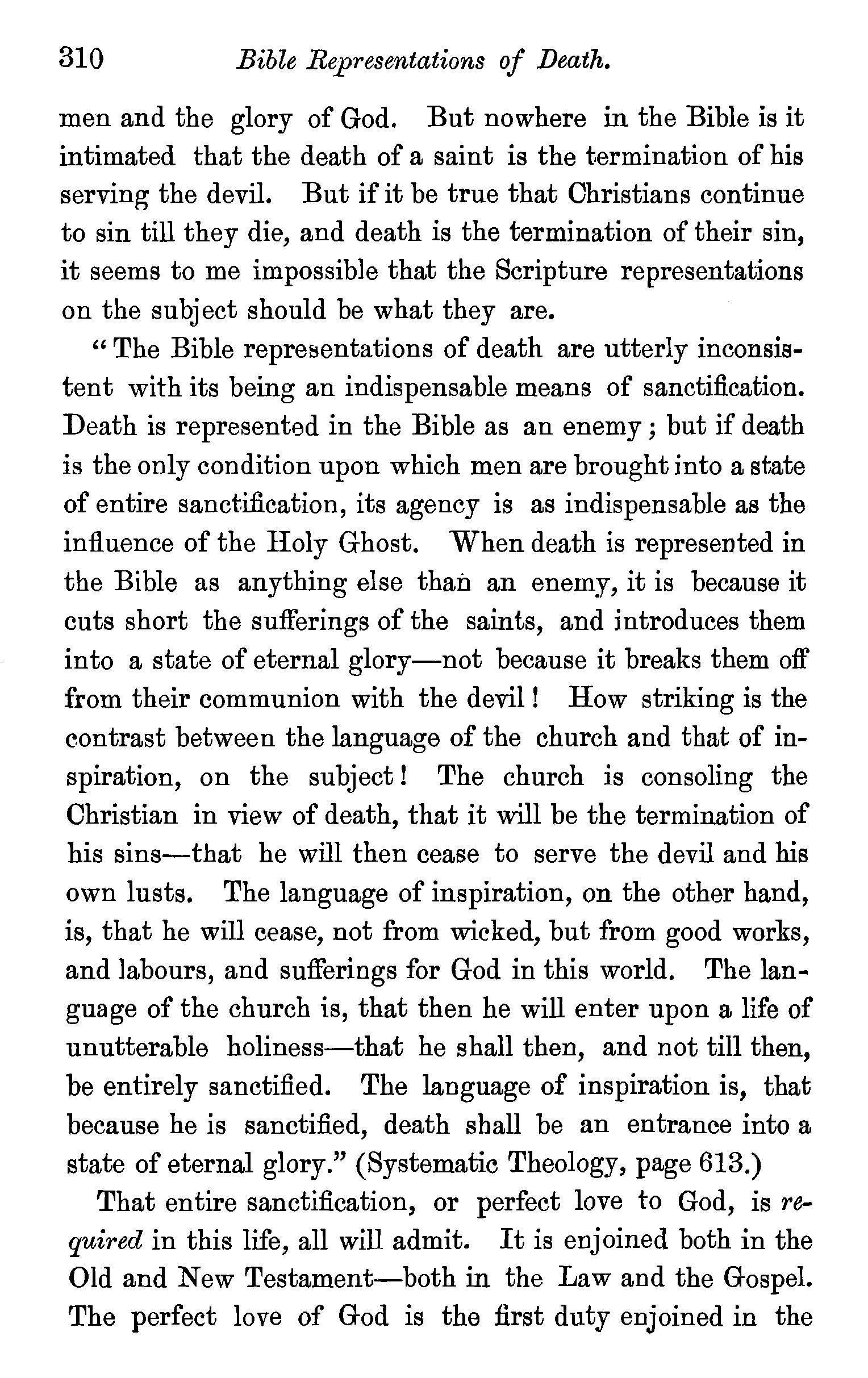
men and the glory of God. But nowhere in the Bible is it intimated that the death of a saint is the termination of his serving the devil. But if it be true that Christians continue to sin till they die, and death is the termination of their sin, it seems to me impossible that the Scripture representations on the subject should be what they are.
" The Bible repreEientations of death are utterly inconsistent with its being an indispensable means of sanctification. Death is represented in the Bible as an enemy; but if death is the only condition upon which men are brought into a state of entire sanctification, its agency is as indispensable as the influence of the Holy Ghost. When death is represented in the Bible as anything else than an enemy, it is because it cuts short the sufferings of the saints, and introduces them into a state of eternal glory-not because it breaks them off from their communion with the devil ! How striking is the contrast between the language of the church and that of inspiration, on the subject! The church is consoling the Christian in view of death, that it will be the termination of his sins-that he will then cease to serve the devil and his own lusts. The language of inspiration, on the other hand, is, that he will cease, not from wicked, but from good works, and labours, and sufferings for God in this world. The language of the church is, that then he will enter upon a life of unutterable holiness-that he shall then, and not till then, be entirely sanctified. The language of inspiration is, that because he is sanctified, death shall be an entrance into a state of eternal glory." (Systematic Theology, page 613.)
That entire sanctification, or perfect love to God, is required in this life, all will admit. It is enjoined both in the Old and New Testament-both in the Law and the Gospel. The perfect love of God is the first duty enjoined in the
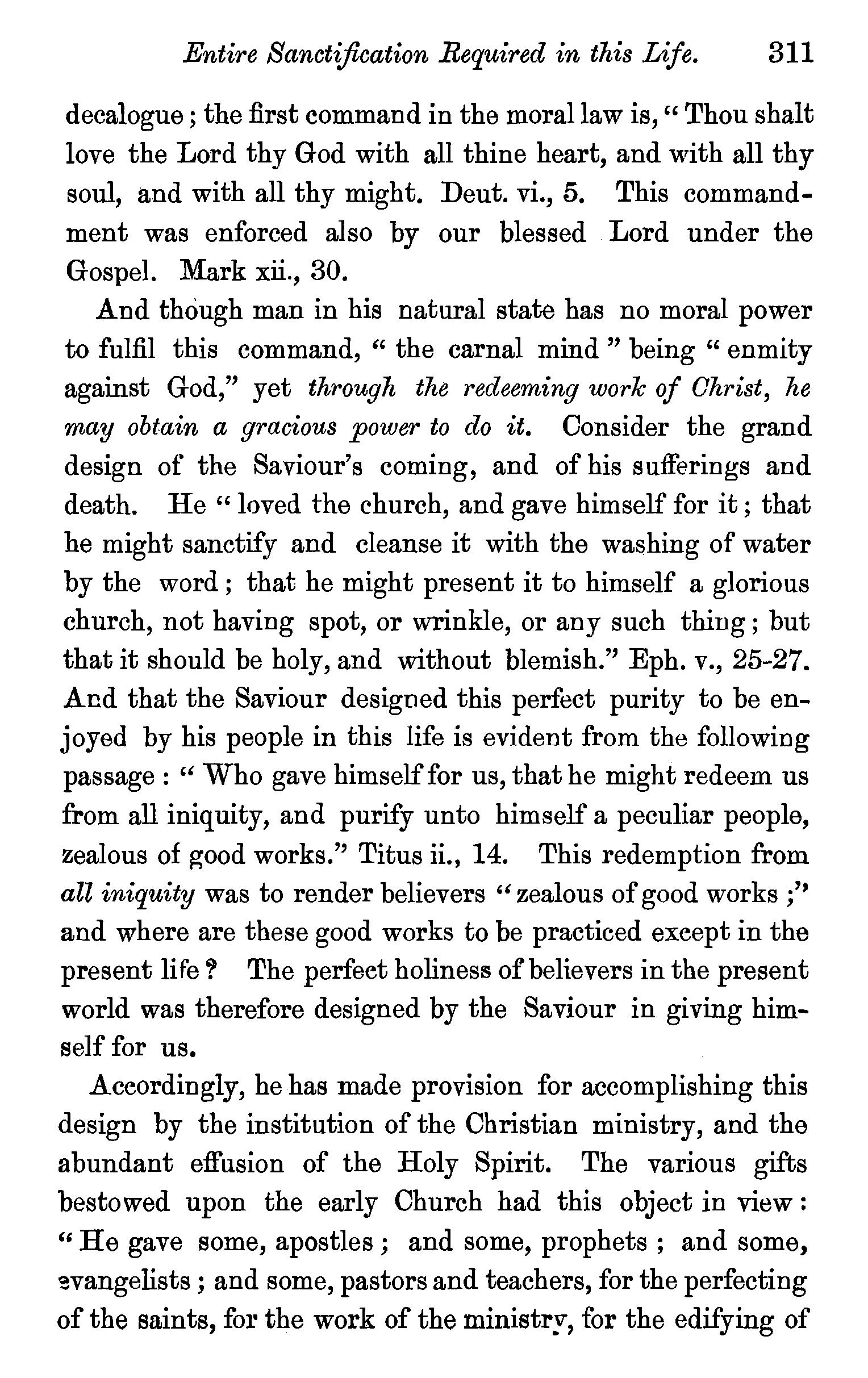
decalogue; the first command in the moral law is," Thou shalt love the Lord thy God with all thine heart, and with all thy soul, and with all thy might. Deut. vi., 5. This commandment was enforced also by our blessed Lord under the Gospel. Mark xii., 30.
And though man in his natural state has no moral power to fulfil this command, " the carnal mind " being " enmity against God," yet through the redeeming worlcof Ghrist, he may obtain a gracious power to do it. Consider the grand design of the Saviour's coming, and of his sufferings and death. He " loved the church, and gave himself for it; that he might sanctify and cleanse it with the washing of water by the word; that he might present it to himself a glorious church, not having spot, or wrinkle, or any such thing; but that it should be holy, and without blemish." Eph. v., 25-27. And that the Saviour desigued this perfect purity to be enjoyed by his people in this life is evident from the following passage: "Who gave himself for us, that he might redeem us from all iniquity, and purify unto himself a peculiar people, zealous of good works.'' Titus ii., 14. This redemption from all iniquity was to render believers "zealous of good works ;'' and where are these good works to be practiced except in the present life? The perfect holiness of believers in the present world was therefore designed by the Saviour in giving himself for us.
Accordingly, he has made provision for accomplishing this design by the institution of the Christian ministry, and the abundant effusion of the Holy Spirit. The various gifts bestowed upon the early Church had this object in view : "He gave some, apostles ; and some, prophets ; and some, ~vangelists ; and some, pastors and teachers, for the perfecting of the saints, for the work of the ministry, for the edifying of
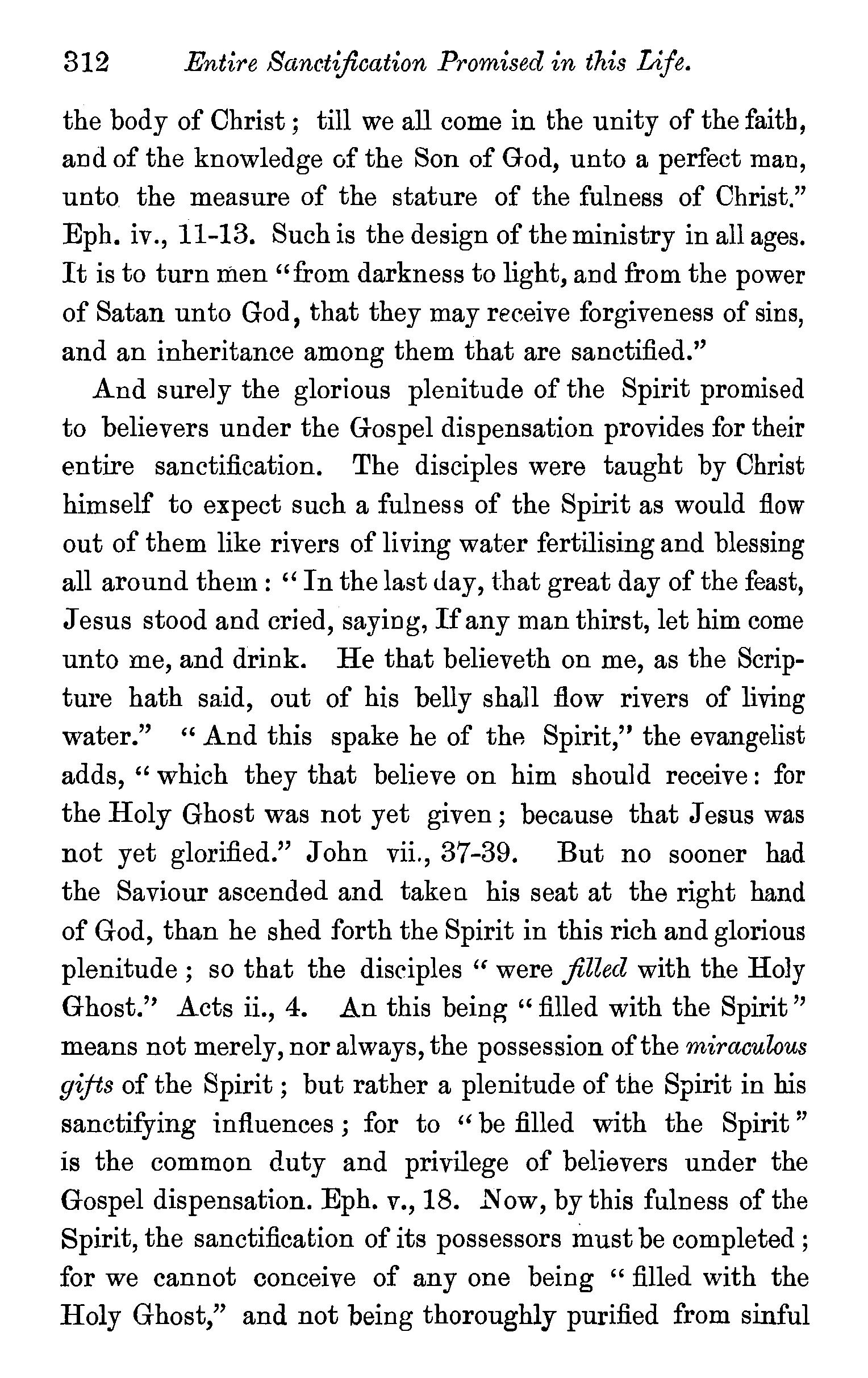
the body of Christ; till we all come in the unity of the faith, and of the knowledge of the Son of God, unto a perfect man, unto the measure of the stature of the fulness of Christ." Eph. iv., 11-13. Such is the design of the ministry in all ages. It is to turn men "from darkness to light, and from the power of Satan unto God, that they may receive forgiveness of sins, and an inheritance among them that are sanctified.''
And surely the glorious plenitude of the Spirit promi&ed to believers under the Gospel dispensation provides for their entire sanctification. The disciples were taught by Christ himself to expect such a fulness of the Spirit as would flow out of them like rivers of living water fertilising and blessing all around them: "In the last day, that great day of the feast, Jesus stood and cried, saying, If any man thirst, let him come unto me, and drink. He that believeth on me, as the Scripture hath said, out of his belly shall flow rivers of living water." " And this spake he of thA Spirit," the evangelist adds, " which they that believe on him should receive : for the Holy Ghost was not yet given; because that Jesus was not yet glorified." John vii., 37-39. But no sooner had the Saviour ascended and taken his seat at the right hand of God, than he shed forth the Spirit in this rich and glorious plenitude ; so that the disciples " were filled with the Holy Ghost.'' Acts ii., 4. An this being "filled with the Spirit'' means not merely, nor always, the possession of the miraculous gifts of the Spirit; but rather a plenitude of the Spirit in his sanctifying influences ; for to " be filled with the Spirit '' is the common duty and privilege of believers under the Gospel dispensation. Eph. v., 18. .Now, by this fulness of the Spirit, the sanctification of its possessors must be completed ; for we cannot conceive of any one being "filled with the Holy Ghost," and not being thoroughly purified from sinful
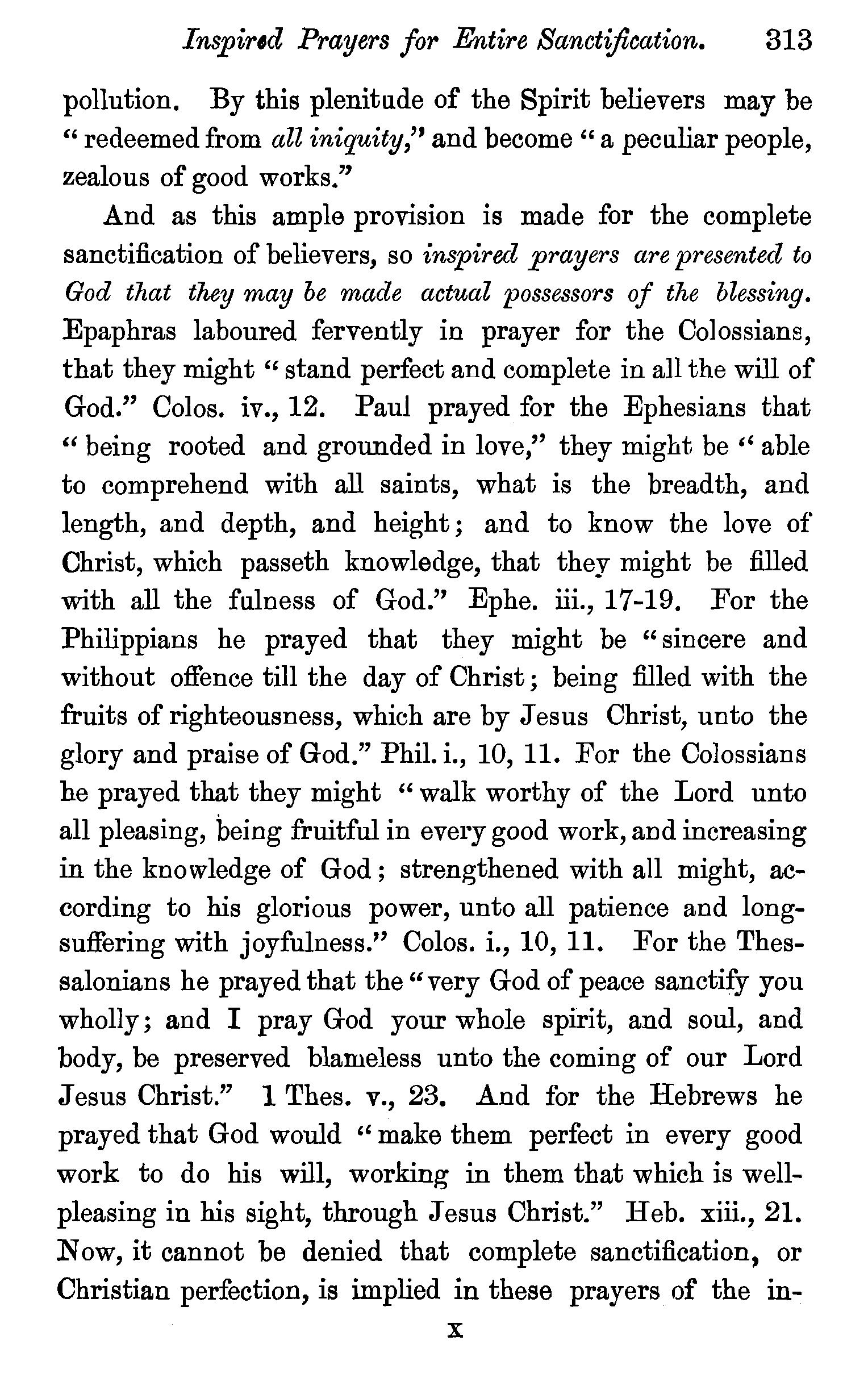
pollution. By this plenitude of the Spirit believers may be " redeemed from all iniquity,'' and become "a peculiar people, zealous of good works."
And as this ample provision is made for the complete sanctification of believers, so inspired prayers are presented to God that they may be made actual possessors of tlie blessing. Epaphras laboured fervently in prayer for the Colossians, that they might "stand perfect and complete in all the will of God." Colos. iv., 12. Paul prayed for the Ephesians that "being rooted and grounded in love," they might be'' able to comprehend with all saints, what is the breadth, and length, and depth, and height; and to know the love of Christ, which passeth knowledge, that they might be filled with all the fulness of God." Ephe. iii., 17-19. For the Philippians he prayed that they might be "sincere and without offence till the day of Christ; being filled with the fruits of righteousness, which are by Jesus Christ, unto the glory and praise of God." Phil. i., 10, 11. For the Colossians he prayed that they might " walk worthy of the Lord unto all pleasing, being fruitful in every good work, and increasing in the knowledge of God ; strengthened with all might, according to his glorious power, unto all patience and longsuffering with joyfulness." Colos. i., 10, 11. For the Thessalonians he prayed that the "very God of peace sanctify you wholly; and I pray God your whole spirit, and soul, and body, be preserved blameless unto the coming of our Lord Jesus Christ." 1 Thes. v., 23. And for the Hebrews he prayed that God would " make them perfect in every good work to do his will, working in them that which is wellpleasing in his sight, through Jesus Christ." Heb. xiii., 21. Now, it cannot be denied that complete sanctification, or Christian perfection, is implied in these prayers of the inx
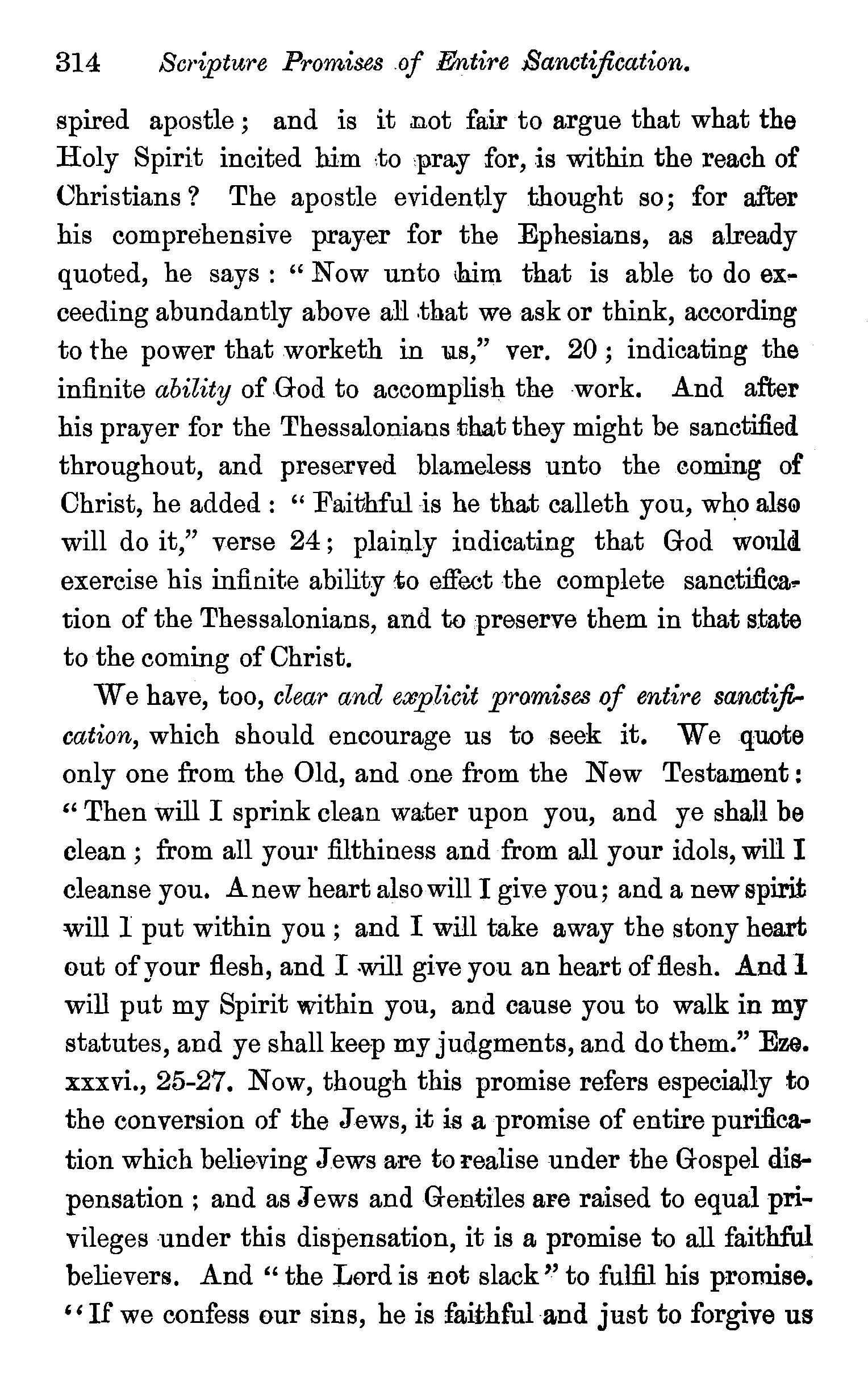
spired apostle ; and is it .not fair to argue that what the Holy Spirit incited him fo pra.y for, is within the reach of Christians ? The apostle evidently thought so; for after his comprehensive prayer for the Ephesians, as already quoted, he says : " Now unto th.im that is able to do ex.ceeding abundantly above aH .that we ask or think, according to the power that worketh in us," ver. 20 ; indicating the infinite ability of God to accomplish the work. And after his prayer for the Thessalonians that they might be sanctified. throughout, and preserved blameless unto the coming of Christ, he added : " Faithful is he tha.t calleth you, wl>;oals(j) will do it," verse 24 ; plainly indicating that God would. exercise his infinite ability to effect the complete sanctifica.. tion of the Thessalonians, and to .preserve them in that state to the coming of Christ.
We have, too, clear and explicit promises of entire sanctification, which should encourage us to seek it. We quote only one from the Old, and one from the New Testament: " Then will I sprink clean water upon you, and ye shall be clean ; from all your filthiness and from all your idols, will I cleanse you. A new heart also will I give you; and a new spirit will I put within you; and I will take away the stony heart out of your flesh, and I will give you an heart of flesh. And 1 will put my Spirit within you, and cause you to walk in my statutes, and ye shall keep my judgments, and do them." Eze. xxxvi., 25-27. Now, though this promise refers especially to the conversion of the Jews, it is a promise of entire purification which believing Jews are to :realise under the Gospel dispensation ; and as Jews and Gentiles are raised to equal privileges under this dispensation, it is a promise to all faithful believers. And "the Lord is Rot slack'' to fulfil his promise. '' If we confess our sins, he is faithful and just to forgive us
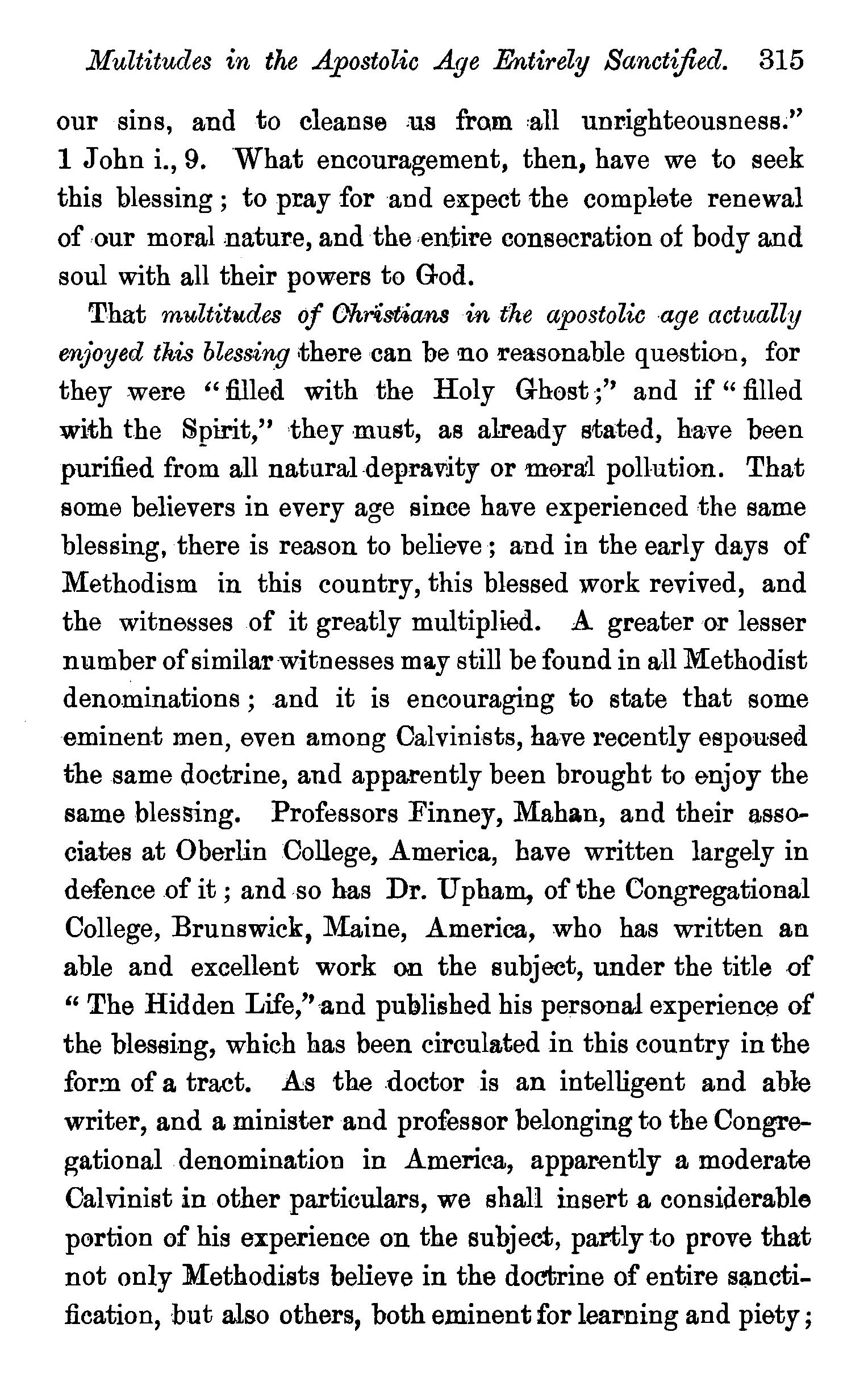
Multitudes in the Apostolic Age Entirely Sanctified. 315 our sins, and to cleanse ,us from ,all unrighteousness;'' 1 John i., 9. What encouragement, then, have we to seek this blessing ; to pray for and expect the complete renewal of ,our moral nature, and the ,entire consecration of body and soul with all their powers to God.
That multitudes of Ohrf,stians in the apostolic age actually enjoyed this blessing ,there can be no Teasonable question, for they were "filled with the Holy Ghost;'' and if " filled with the Spirit," ,they must, as already stated, have been purified from all natural depravity or m0ra'l pollution. That some believers in every age since have experienced the same blessing, there is reason to believe; and in the early days of Methodism in this country, this blessed work revived, and the witnesses of it greatly multiplied. A greater or lesser number of similar witnesses ma.ystill be found in all Methodist denominations ; and it is encouraging to state that some eminent men, even among Calvinists, have recently espoused the same doctrine, and apparently been brought to enjoy the same blessing. Professors Finney, Mahan, and their associates at Oberlin College, America, have written largely in defence of it ; and so has Dr. Upham, of the Congregational College, Brunswick, Maine, America, who has written an able and excellent work on the subject, under the title -0f "The Hidden Life,'',and published his persona-!experience of the bleseing, which has been circulated in this country in the for!Il of a tract. As the .doctor is an intelligent and able writer, and a minister and professor belonging to the Congregational denomination in Amerie.a, apparently a moderate Calvinist in other particulars, we shall insert a considerable portion of his experience on the subject, partly to prove that not only Methodists believe in the doctrine of entire sanctification, ·but also others, both eminent for learning and piety;

and partly as an encouragement to others to seek the same blessing.
After narrating his conversion to God, and his subsequent experience for a number of years, the doctor says : " I now proceed to mention some other changes of mind which I soon passed through. In December of this year, 1839, I visited the city of New York on business, which brought me into communication with certain persons who belonged to the Methodist denomination. I was providentially led to form an acquaintance with other pious Methodists, and was exceedingly happy in attending a number of meetings, which had exclusive reference to the doctrine of holiness, and to personal holy experience. In these meetings, I took the liberty, though comparatively a stranger, to profess myself a believer in the doctrine of holiness, and a seeker of it. And I found myself greatly encouraged and aided by the judicious remarks, the prayers and the sympathies of a number of beloved Christian friends. As I now perceive, the great difficulty at this time in the way of my victorious progress was my ignorance of the important principle, that sanctification, as well as justification, is by faith. By consecrating myself to God, I had put myself into a favourable condition to exercise faith, but I had never understood and felt the imperative necessity of this exercise, viz., of faith as a scmctifying instrumentality. My Methodist friends, to whom this view was familiar, gave me, in the spirit of Christian kindness, much instruction and assistance here, for which I desire to be grateful to them. I found I must give up the system, already too long cherished, of walking by signs, and manifestations, and sensible experience, and must commit everything, in light and in darkness, in joy and in sorrow, into the hands of God. Realising, accordingly, that I must have

greater faith in God as the fulfiller of His promises, and as the pledged and everlasting portion of those who put their trust in Him ; and, aided by the kindness and supplications of Christian friends, I, in some degree (and perhaps I may say in a very considerable degree) got the victory. I shall ever recollect the time. It was early on Friday morning, the 27th of December. The evening previous had been spent in deeply interesting conversation and prayer on the subject of holiness, and with particular reference to myself. Soon after I awoke in the morning, I found that my mind, without having undergone any very remarkable manifestations or ecstacies, had, nevertheless, undergone a great moral revolution. I was removed from the condition of a Servant, and adopted into that of a Son. I believed and felt, in a sense which I had never experienced before, that my sins were all blotted out, were wholly forgiven ; and that Christ was not only the Saviour of mankind in general, but my Christ, my Saviour in particular, and that God was my Father. As I have observed, I bad no ecstacy, but general and abiding peace and consolation.
"I mark here another step in the progress of this important contest. Under the influence of the feelings which I have just described, I consecrated myself anew to God in a more specific and solemn manner. I now made a written record of my consecration, which I had not done before. But while it seemed to me that I sincerely endeavoured to give up all, I was unable as yet, in consequence, probably, of some lingering remains of unbelief, or because God, in His wise sovereignty, was pleased to try a little longer the faith which He had given me, to speak confidently of my sanctification. I would take the liberty to say here, that I do not consider consecration and sanctification the same thing. Con-
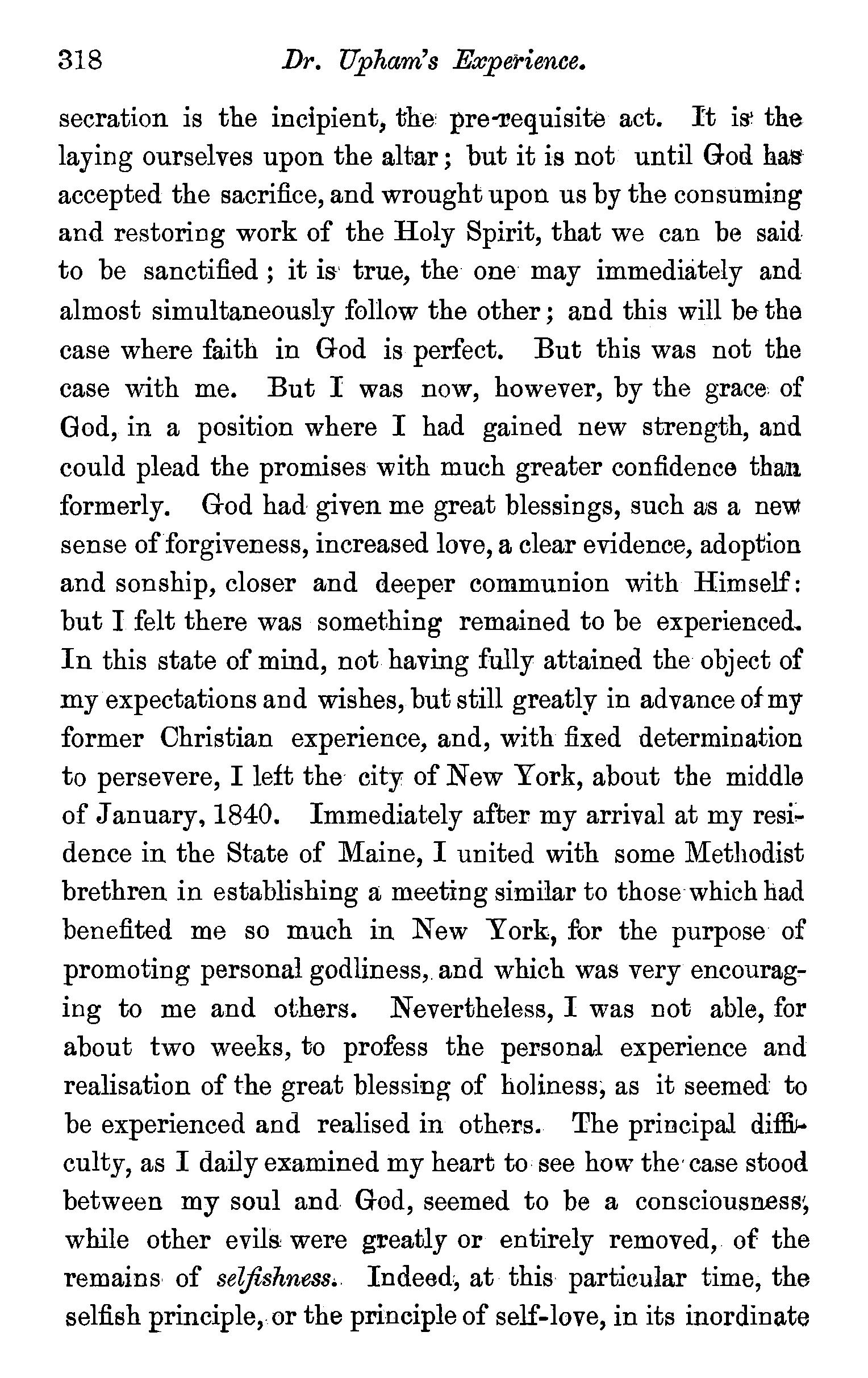
Dr. Upham' s Experience.
secration is the incipient, the' pre-requisite act. It iff the laying ourselves upon the altar; but it is not until God has accepted the sacrifice, and wrought upon us by the consuming and restoring work of the Holy Spirit, that we can be said to be sanctified; it is· true, the one may immediately and almost simultaneously follow the other; and this will be the case where faith in God is perfect. But this was not the case with me. But I was now, however, by the grace of God, in a position where I had gained new strength, and could plead the promises with much greater confidence than formerly. God had given me great blessings, such a;s a new sense of forgiveness, increased love, a clear evidence, adoption and sonship, closer and deeper communion with Himself: but I felt there was something remained to be experienced~ In this state of mind, not having fully attained the object of my expectations and wishes, but still greatly in advance ofmy former Christian experience, and, with fixed determination to persevere, I left the city of New York, about the middle of January, 1840. Immediately after my arrival at my resi:. dence in the State of Maine, I united with some Methodist brethren in establishing a meeting similar to those which had benefited me so much in New York, for the purpose of promoting personal godliness, and which was very encourag,ing to me and others. Nevertheless, I was not able, for about two weeks, to profess the persona-I experience and realisation of the great blessing of holiness; as it seemed to be experienced and realised in othp,rs. The principal diffu.. culty, as I daily examined my heart to see how the· case stood between my soul and God, seemed to be a consciousness; while other evil&were greatly or entirely removed, of the remains of seljishness. Indeed, at this particular time, the selfish principle, or the principle of self-love, in its inordinate
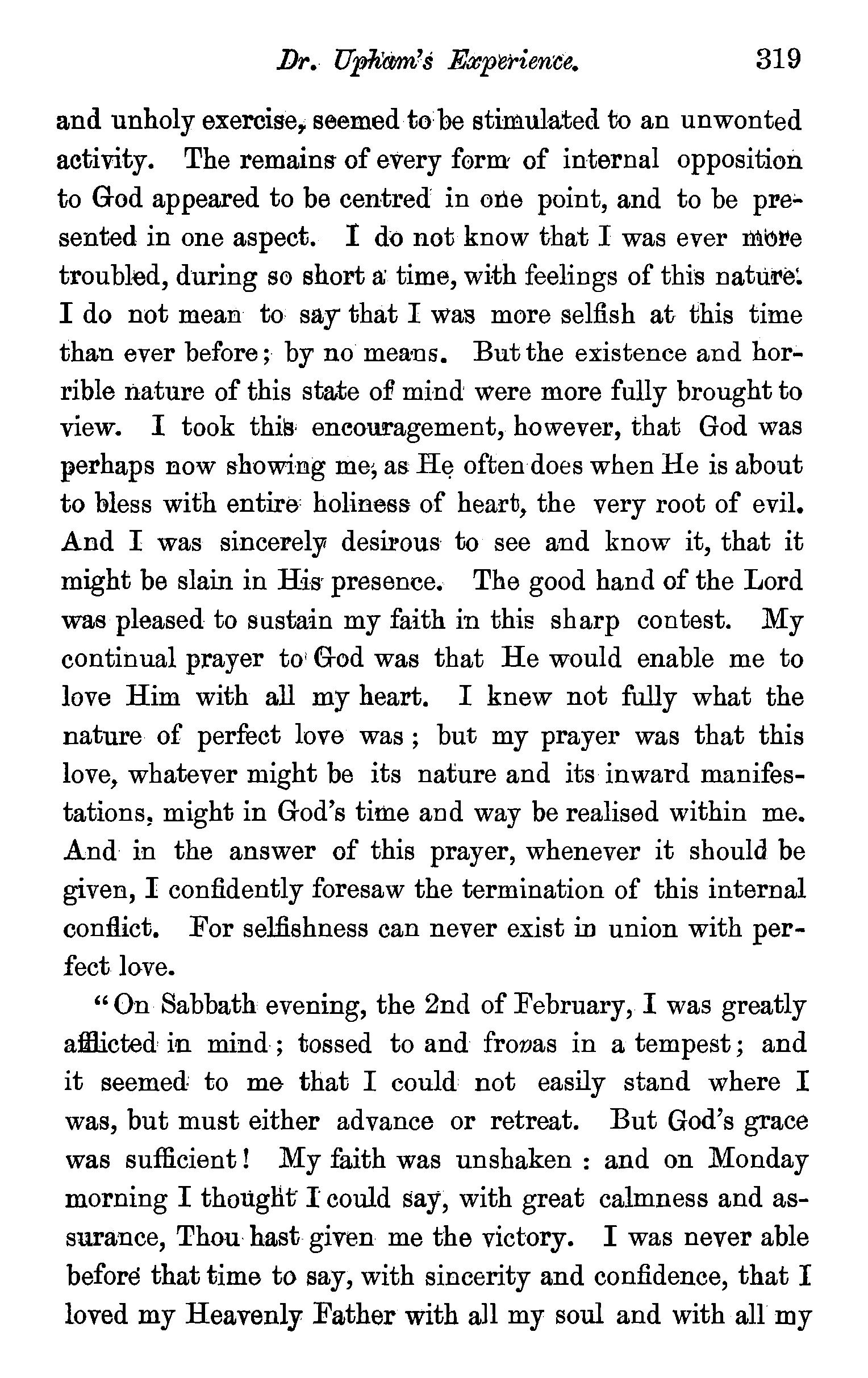
and unholy exercise,.seemed to be stimulated to an unwonted activity. The remains-of every form of internal opposition to God appeared to be centred in one point, and to be pre;.. sented in one aspect. I d-0not know that I was ever m.btie troubl-ed, during so short a; time, with feelings of this nature~ I do not mean to say that I was more selfish at this time than ever before; by no mea:ns. But the existence and horrible nature of this state o:fmind were more fully brought to view. I took this- encouragement, however, that God was perhaps 1:1owshowing me, as H~ often does when He is about to bless with entire holiness of heart, the very root of evil. And I was sincerely desirous to see and know it, that it might be slain in His· presence. The good hand of the Lord was pleased to sustain my faith in this sharp contest. My continual prayer to' God was that He would enable me to love Him with all my heart. I knew not fully what the nature of perfect love was; but my prayer was that this love, whatever might be its nature and its inward manifestations, might in God's time and way be realised within me. And in the answer of this prayer, whenever it should be given, I confidently foresaw the termination of this internal conflict. For selfishness can never exist in union with perfect love.
"On Sabbath evening, the 2nd of February, I was greatly afilicted•in mind; tossed to and frovas in a tempest; and it seemed to me that I could not easily stand where I was, but must either advance or retreat. But God's grace was sufficient! My faith was unshaken : and on Monday morning I thottglit I could say, with great calmness and assurance, Thou hast given me the victory. I was never able before that time to say, with sincerity and confidence, that I loved my Heavenly Father with all my soul and with all my
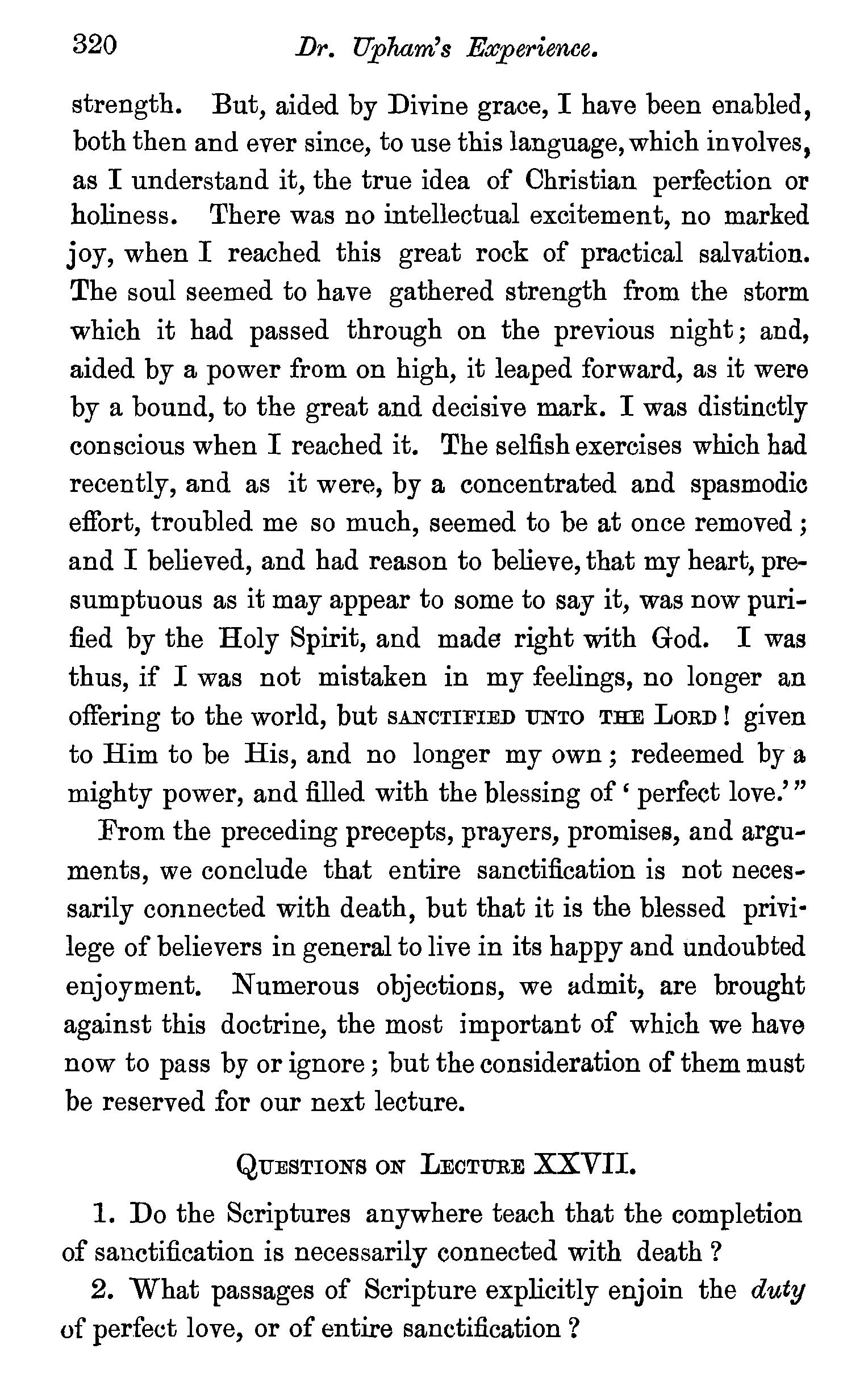
strength. But, aided by Divine grace, I have been enabled, both then and ever since, to use this language, which involves, as I understand it, the true idea of Christian perfection or holiness. There was no intellectual excitement, no marked joy, when I reached this great rock of practical salvation. The soul seemed to have gathered strength from the storm which it had passed through on the previous night; and, aided by a power from on high, it leaped forward, as it were by a bound, to the great and decisive mark. I was distinctly conscious when I reached it. The selfish exercises which had recently, and as it were, by a concentrated and spasmodic effort, troubled me so much, seemed to be at once removed ; and I believed, and had reason to believe, that my heart, presumptuous as it may appear to some to say it, was now purified by the Holy Spirit, and made right with God. I was thus, if I was not mistaken in my feelings, no longer an offering to the world, but SANCTIFIED UNTO THE LORD ! given to Him to be His, and no longer my own ; redeemed by a mighty power, and filled with the blessing of' perfect love.'"
From the preceding precepts, prayers, promises, and arguments, we conclude that entire sanctification is not necessarily connected with death, but that it is the blessed privi· lege of believers in general to live in its happy and undoubted enjoyment. Numerous objections, we admit, are brought against this doctrine, the most important of which we have now to pass by or ignore; but the consideration of them must be reserved for our next lecture.
1. Do the Scriptures anywhere teach that the completion of sanctification is necessarily connected with death ?
2. What passages of Scripture explicitly enjoin the duty of perfect love, or of entire sanctification ?
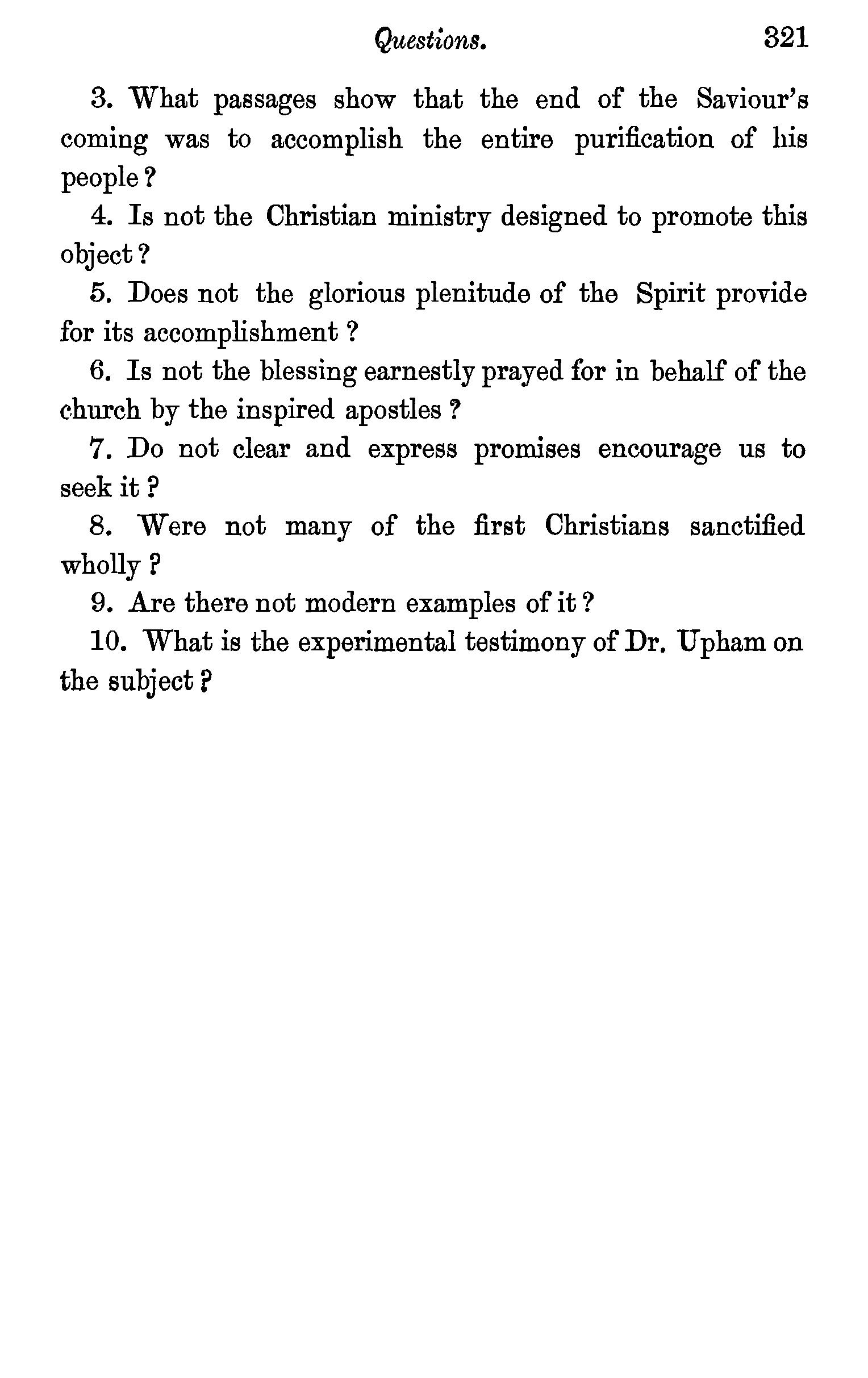
3. What passages show that the end of the Saviour's coming was to accomplish the entire purification of his people?
4. Is not the Christian ministry designed to promote this object?
5. Does not the glorious plenitude of the Spirit provide for its accomplishment ?
6. Is not the blessing earnestly prayed for in behalf of the church by the inspired apostles ?
7. Do not clear and express promises encourage us to seek it?
8. Were not many of the first Christians sanctified wholly?
9. Are there not modern examples of it?
10. What is the experimental testimony of Dr. Upham on the subject?
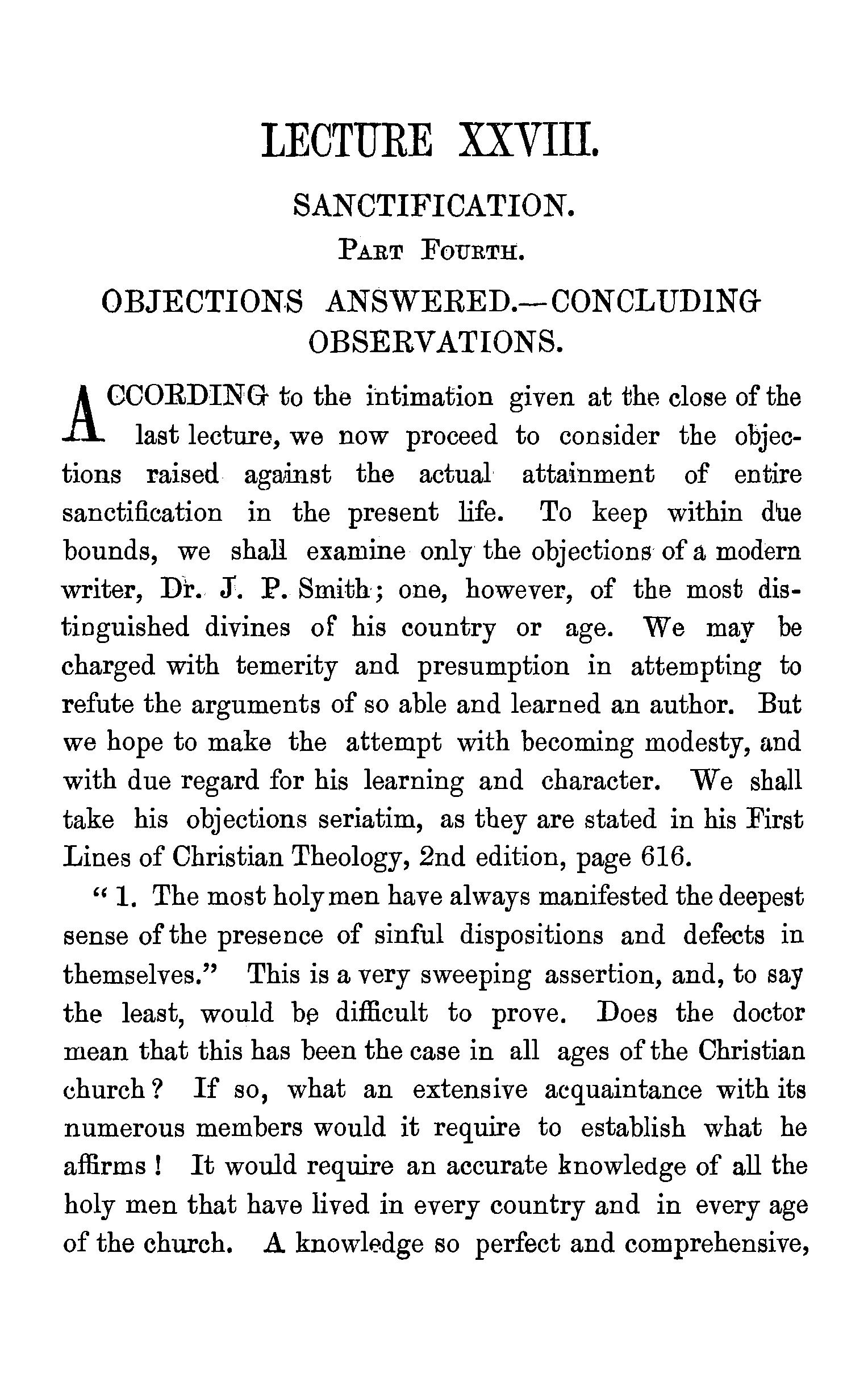
ACCORDING to the intimation given at the close of the last lecture, we now proceed to consider the objections raised against the actual attainment of entire sanctification in the present life. To keep within due bounds, we shall examine only the objections of a modern writer, Dr. J. P. Smith; one, however, of the most distinguished divines of his country or age. We may be charged with temerity and presumption in attempting to refute the arguments of so able and learned an author. But we hope to make the attempt with becoming modesty, and with due regard for his learning and character. We shall take his objections seriatim, as they are stated in his First Lines of Christian Theology, 2nd edition, page 616.
"1. The most holy men have always manifested the deepest sense of the presence of sinful dispositions and defects in themselves." This is a very sweeping assertion, and, to say the least, would b~ difficult to prove. Does the doctor mean that this has been the case in all ages of the Christian church? If so, what an extensive acquaintance with its numerous members would it require to establish what he affirms ! It would require an accurate knowledge of all the holy men that have lived in every country and in every age of the church. A knowledge so perfect and comprehensive,
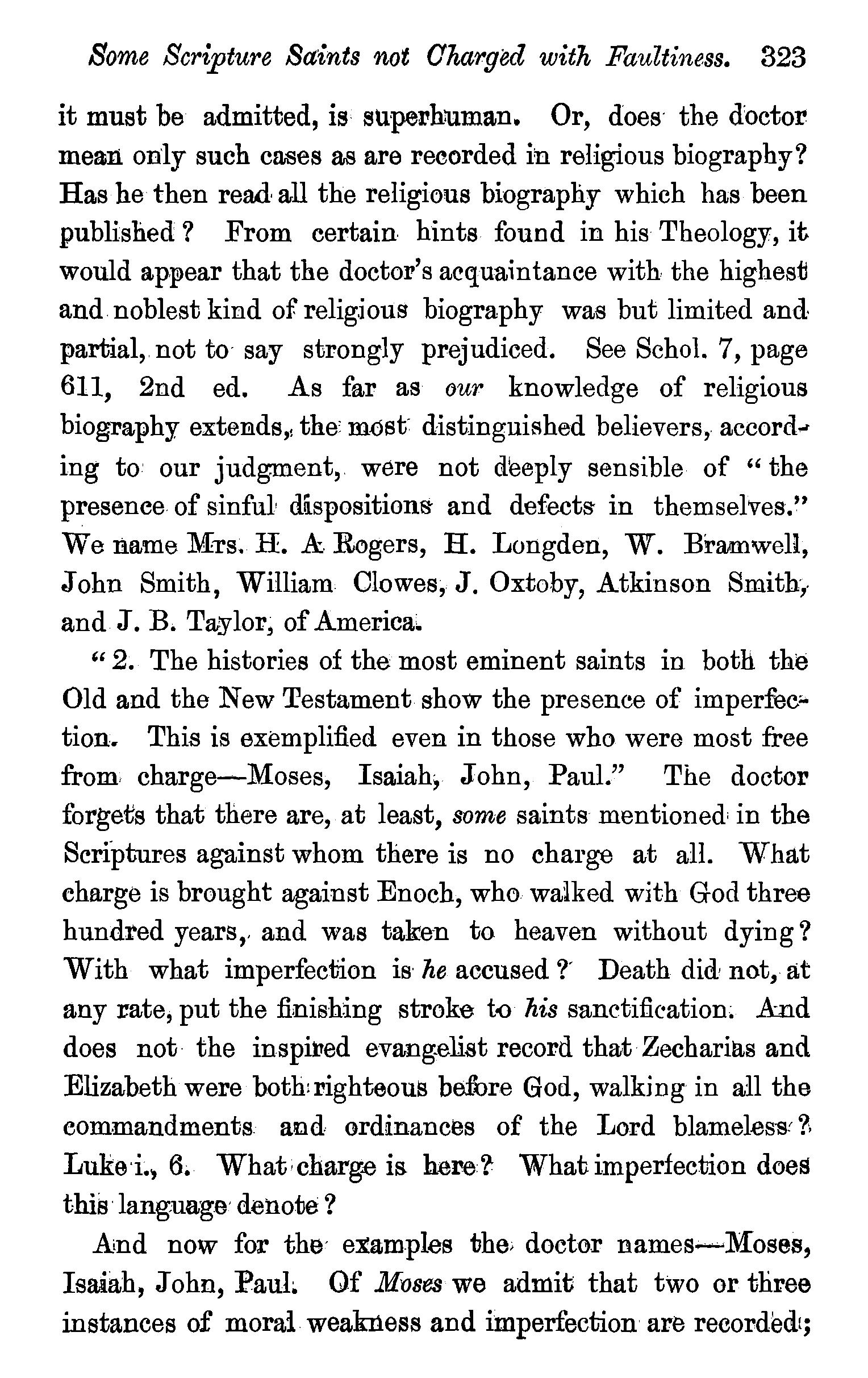
Some Scripture Sctints not Oharged with Faultiness. 323
it must be admitted, is sUpel'human. Or, does· the doctor mean only such cases as are recorded in religious biography? Has he then reail all the religious biography which has been published ? From certain hints found in his Theology, it would appear that the doctor's acquaintance with the highest and noblest kind of relig.ious biography was but limited and, partial,. not to say strongly prejudiced. See Schol. 7, page 6ll, 2nd ed. As far as our knowledge of religious biography extends,, the' most: distinguished believers, accord,J ing to our judgment, were not d~eply sensible of " the presence of sinful- dispositions- and defects in themsel'Ves."
We name Mrs. H. A. R(')gers, H. Longden, W. Bramwell, John Smith, William Clowes, J. Oxtoby, Atkinson Smith,. and J.B. Taylor, of America~
"2. The histories of the most eminent saints in both the Old and the New Testament show the presence of imperfection. This is exemplified even in those who were most free from, charge-· Moses, Isaiah, John, Paul." The doctor forgets that there are, at least, some saints mentioned• in the Scriptures against whom there is no charge at all. What charge is brought against Enoch, who walked with God three hundred years,. and was taken to heaven without dying? With what imperfection is· he accused ?· Death did, not, at any rate, put the finishing stroke t-o his sanctification; And does not the inspived evangeliat record tha,t Zecharias and Elizabeth were both:righteous befure God, walking in all the commandments and ordinances of the Lord blamel.es-s,?, Luke·i.l 6. What,charg.e is. here? What imperfection does this· language· denote?
.Aind now for the· examples the; doctor names ........l\foses, Isaiah, John, Paut Of Mvses we admit that two or three instances of moral weakness and imperfection are recordedt;
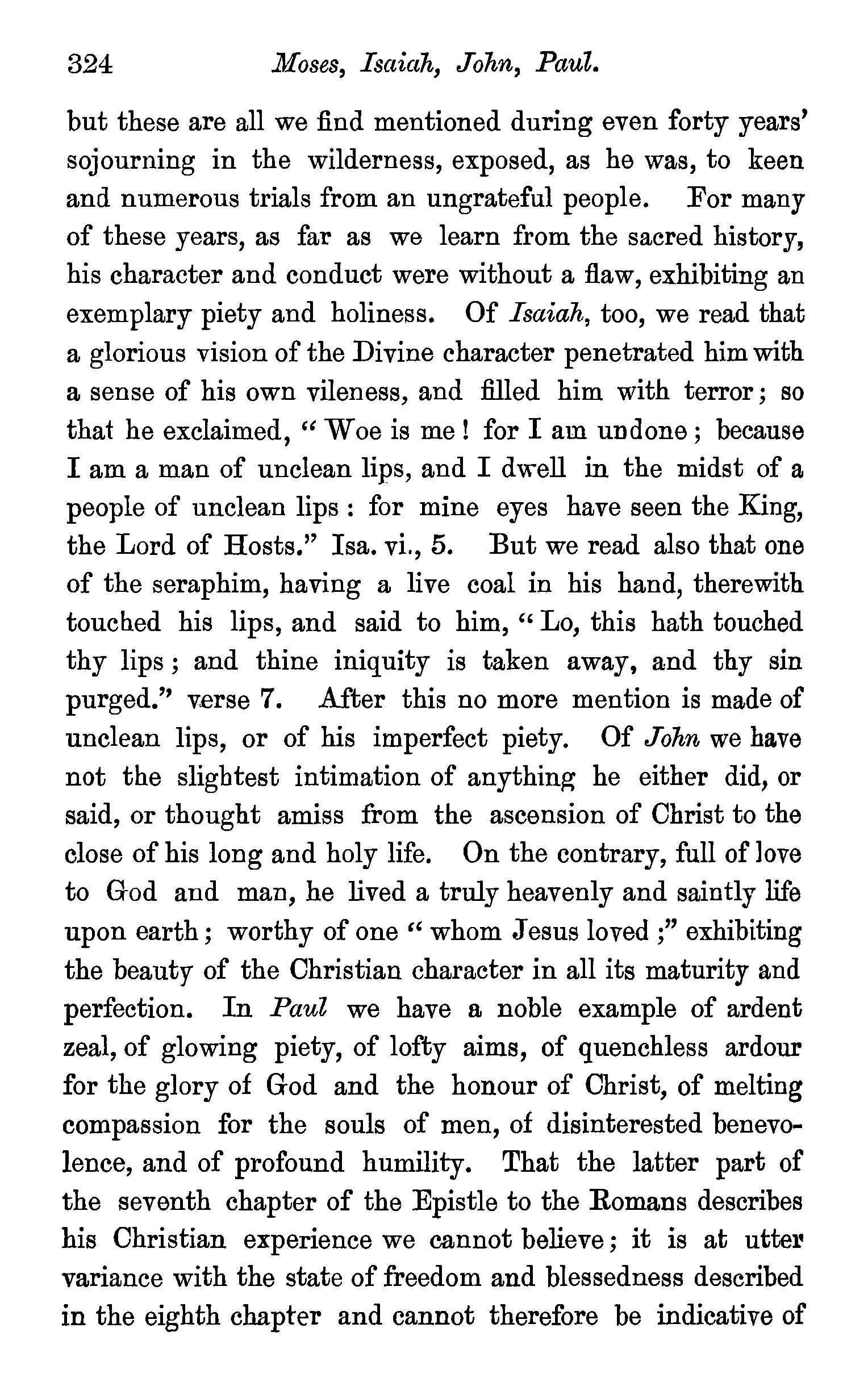
Moses, Isaiah, John, Paul.
but these are all we find mentioned during even forty years' sojourning in the wilderness, exposed, as he was, to keen and numerous trials from an ungrateful people. For many of these years, as far as we learn from the sacred history, his character and conduct were without a flaw, exhibiting an exemplary piety and holiness. Of Isaiah, too, we read that a glorious vision of the Divine character penetrated him with a sense of his own vileness, and filled him with terror; so that he exclaimed, "Woe is me! for I am undone; because I am a man of unclean lips, and I dwell in the midst of a people of unclean lips: for mine eyes have seen the King, the Lord of Hosts." Isa. vi., 5. But we read also that one of the seraphim, having a live coal in his hand, therewith touched his lips, and said to him, "Lo, this hath touched thy lips; and thine iniquity is taken away, and thy sin purged.'' verse 7. After this no more mention is made of unclean lips, or of his imperfect piety. Of John we have not the slightest intimation of anything he either did, or said, or thought amiss from the ascension of Christ to the close of his long and holy life. On the contrary, full of love to God and man, he lived a truly heavenly and saintly life upon earth; worthy of one "whom Jesus loved ;" exhibiting the beauty of the Christian character in all its maturity and perfection. In Paul we have a noble example of ardent zeal, of glowing piety, of lofty aims, of quenchless ardour for the glory of God and the honour of Christ, of melting compassion for the souls of men, of disinterested benevolence, and of profound humility. That the latter part of the seventh chapter of the Epistle to the Romans describes his Christian experience we cannot believe ; it is at utte1• variance with the state of freedom and blessedness described in the eighth chapter and cannot therefore be indicative of
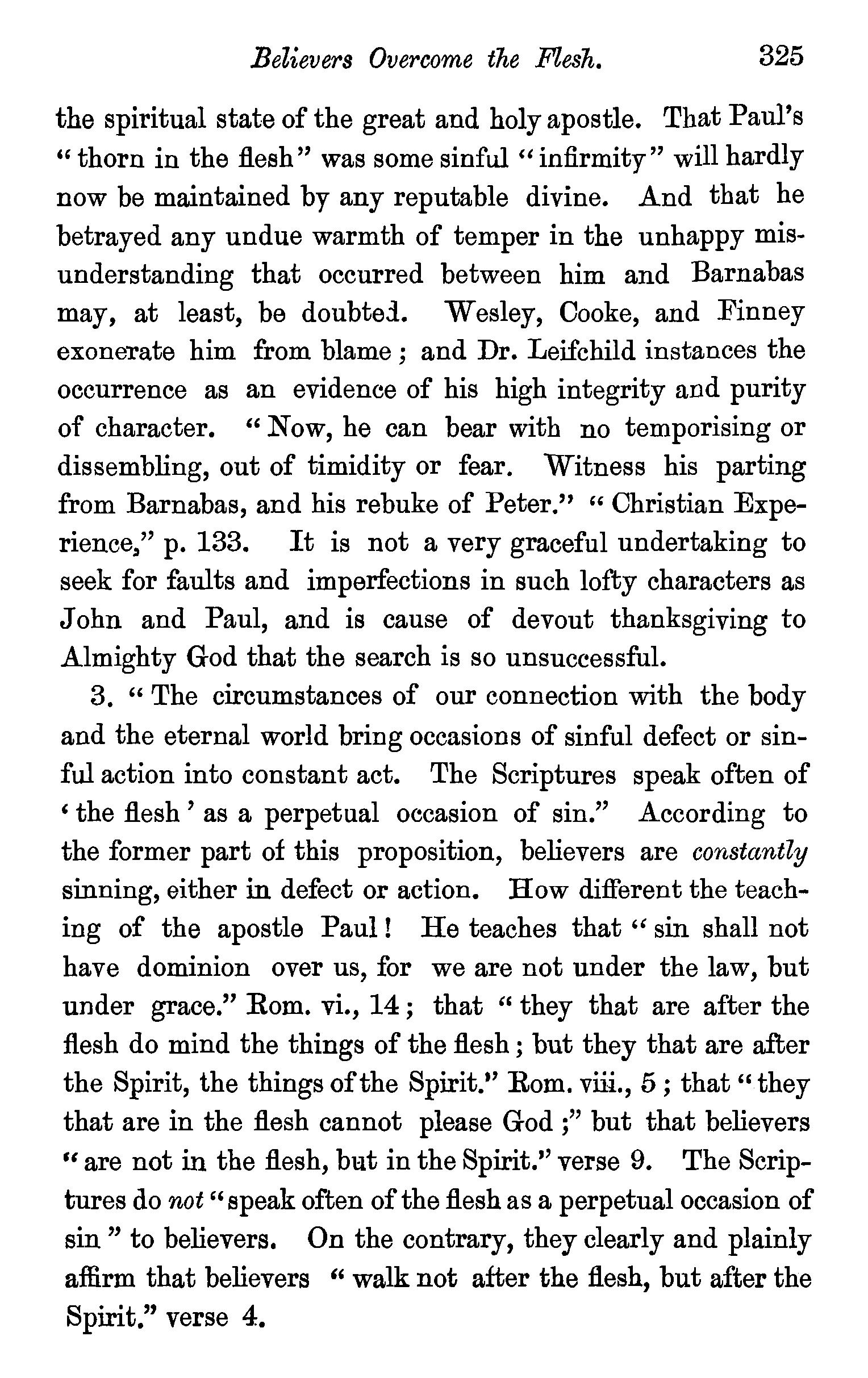
the spiritual state of the great and holy apostle. That Paul's " thorn in the flesh" was some sinful "infirmity" will hardly now be maintained by any reputable divine. And that he betrayed any undue warmth of temper in the unhappy misunderstanding that occurred between him and Barnabas may, at least, be doubte.i. Wesley, Cooke, and Finney exonerate him from blame ; and Dr. Leif child instances the occurrence as an evidence of his high integrity and purity of character. "Now, he can bear with no temporising or dissembling, out of timidity or fear. Witness his parting from Barnabas, and his rebuke of Peter." " Christian Experience," p. 133. It is not a very graceful undertaking to seek for faults and imperfections in such lofty characters as John and Paul, and is cause of devout thanksgiving to Almighty God that the search is so unsuccessful.
3. " The circumstances of our connection with the body and the eternal world bring occasions of sinful defect or sinful action into constant act. The Scriptures speak often of ' the flesh ' as a perpetual occasion of sin." According to the former part of this proposition, believers are constctntly sinning, either in defect or action. How different the teaching of the apostle Paul! He teaches that" sin shall not have dominion over us, for we are not under the law, but under grace." Rom. vi., 14; that "they that are after the flesh do mind the things of the flesh ; but they that are after the Spirit, the things of the Spirit.'' Rom. viii., 5; that" they that are in the flesh cannot please God ;" but that believers "are not in the flesh, bat in the Spirit.'' verse 9. The Scriptures do not "speak often of the flesh as a perpetual occasion of sin" to believers. On the contrary, they clearly and plainly affirm that believers "walk not after the flesh, but after the Spirit." verse 4.
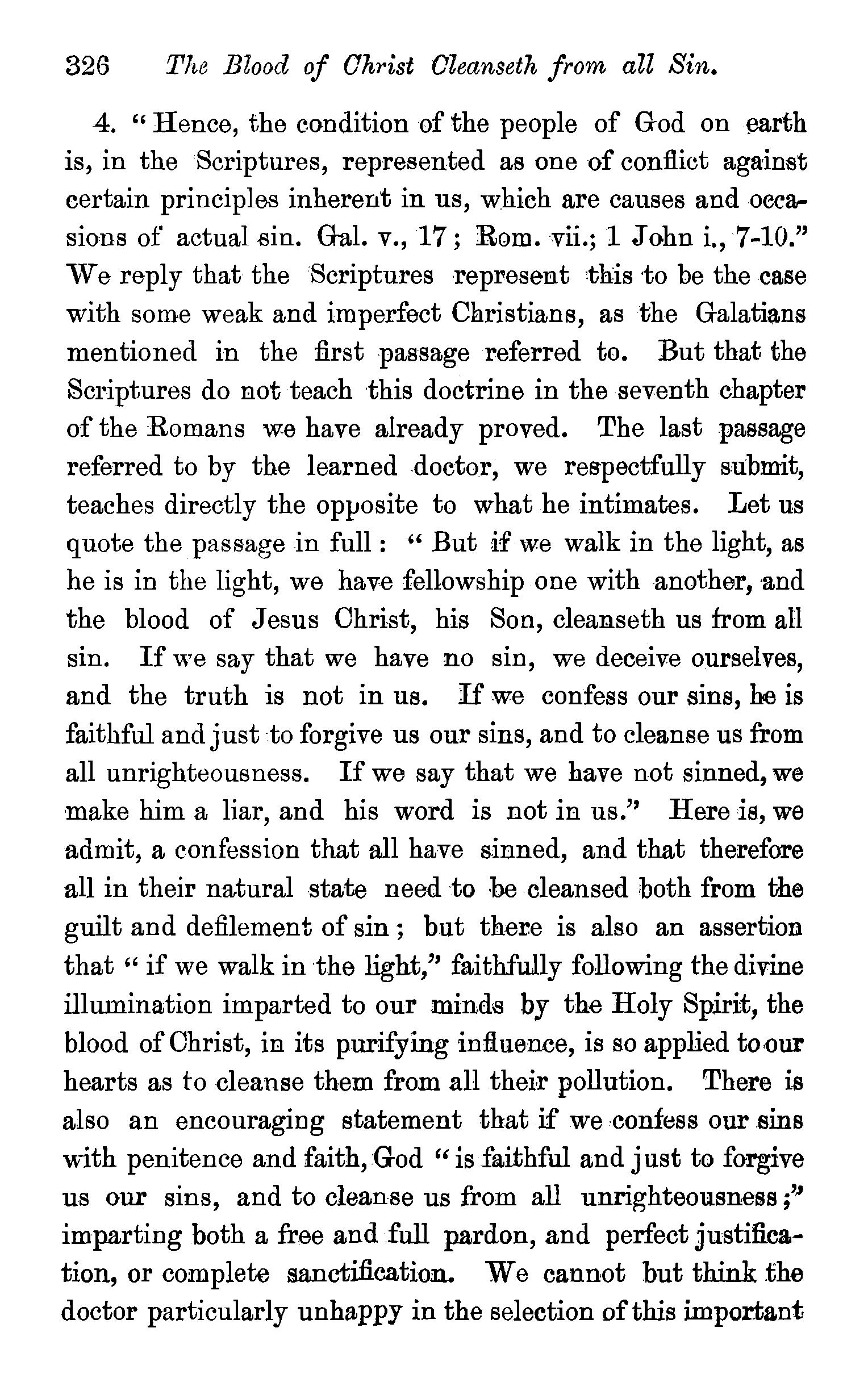
4. " Hence, the condition of the people of God on earth is, in the Scriptures, represented as one of conflict against certain principles inherent in us, which are causes and occasions of actual -sin. Gal. v., 17; Rom. vii.; 1 John i., 7-10."
"\Vereply that the Scriptures represen.t :this -to be the case with some weak and imperfect Christians, as the Galatians mentioned in the first passage referred to. But that the Scriptures do not teach this doctrine in the seventh chapter of the Romans we have already proved. The last passage referred to by the learned doctor, we res·pectfully submit, teaches directly the opJJosite to what he intimates. Let us quote the passage in full : " But if we walk in the light, as he is in the light, we have fellowship one with another, ·and the blood of Jesus Christ, his Son, cleanse th us from all sm. If we say that we have no sin, we deceive ourselves, and the truth is not in us. If we confess our sins, he is faithful and just to forgive us our sins, and to cleanse us from all unrighteousness. If we say that we have not sinned, we make him a liar, and his word is not in us.'' Here is, we admit, a confession that all have sinned, and that therefore all in their natural state need to ,becleansed both from the guilt and defilement of sin; but there is also an assertion that "if we walk in the light,'' faithfully following the divine illumination imparted to our minds by the Holy Spirit, the blood of Christ, in its purifying influence, is so applied to,our hearts as to cleanse them from all their pollution. There ia also an encouraging statement that if we -confess our .sins -with penitence and faith, God "is faithful and just to forgive us our sins, and to cleanse us from all unrighteousness;'' imparting both a free and full pardon, and perfect justifica.tion, or complete sanctification.. We cannot but think the doctor particularly unhappy in the selection of this important
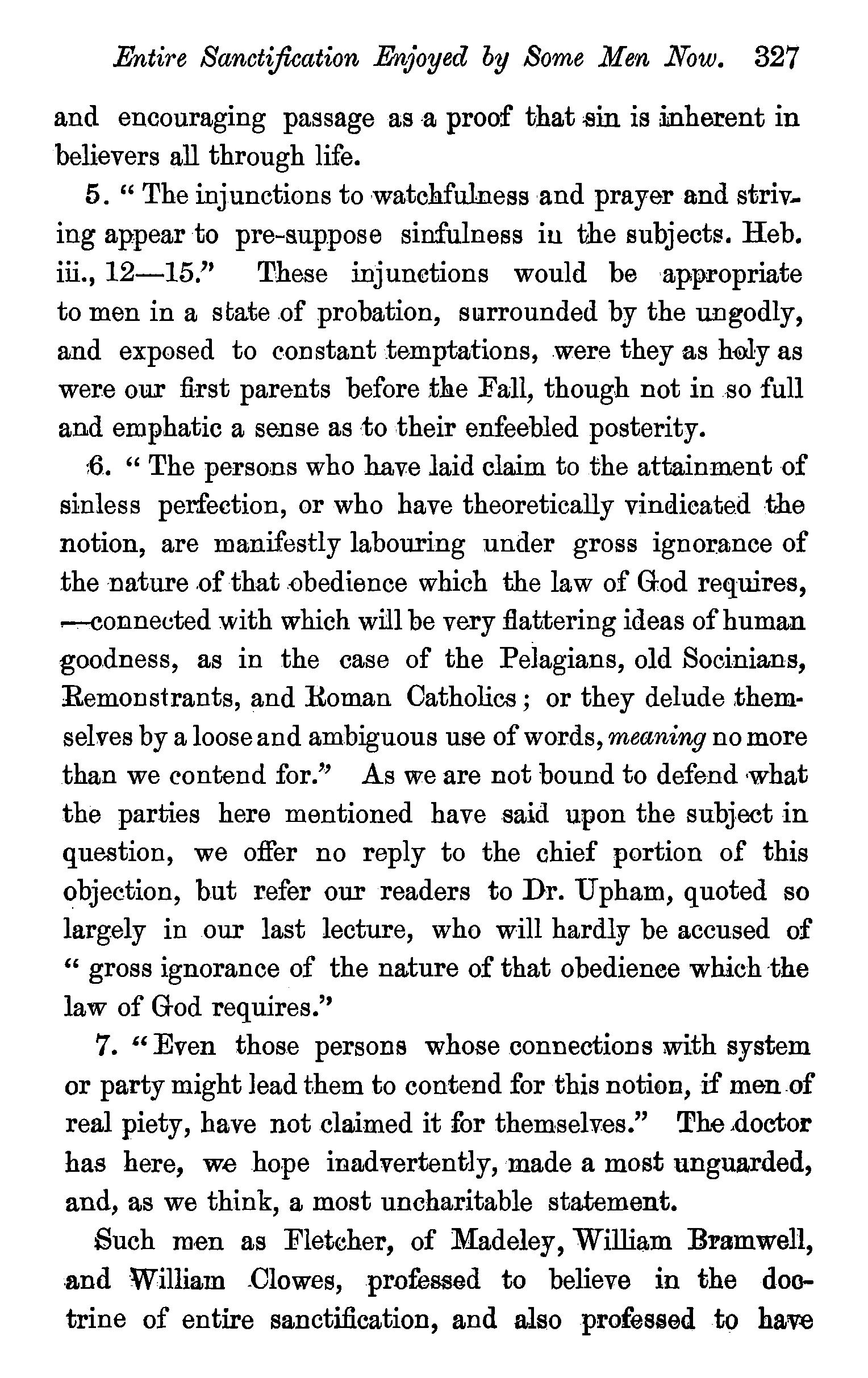
and encouraging passage as ,a proof that :ain is inherent in believers all through life.
5. "The injunctions to watchfulness and prayer and striv... ing appear to pre-suppose sinfulness iu the subjects. Heb. iii., 12-15.'' These injunctions would be appropriate to men in a state .of probation, surrounded by the ungodly, and exposed to constant temptations, were they as hmy as were oil' :fi.rstparents before the Fall, though not in ..so full and emphatic a sense as to their enfeebled posterity.
:6. " The persons who have laid claim to the attainment of sinless perfection, or who have theoretically vindicated the notion, are manifestly labouring under gross ignorance of the nature .of that -0bedience which the law of God requires, ,...,--connectedwith which will be very :flattering ideas of human goodness, as in the case of the Pelagians, old Socinians, Remonstrants, and Roman Catholics; or they delude :themselves by a loose and ambiguous use of words, meaning no more than we contend for.'' As we are not bound to defend •what the parties here mentioned have said upon the subject in question, we offer no reply to the chief portion of this objection, but refer our readers to Dr. Upham, quoted so largely in our last lecture, who will hardly be accused of "gross ignorance of the nature of that obedience which the law of God requires.''
7. "Even those persons who.se connections with system or party might lead them to contend for this notion, if men of real piety, have not claimed it for themselves." The ,doctor has here, w.e hope inadvertently, made a most unguarded, and, as we think, a most uncharitable statement.
Such men as Fletcher, of Madeley, William Bramwell, .and William -Clowes, professed to believe in the dootrine of entire sanctification, and a-lso professed to have
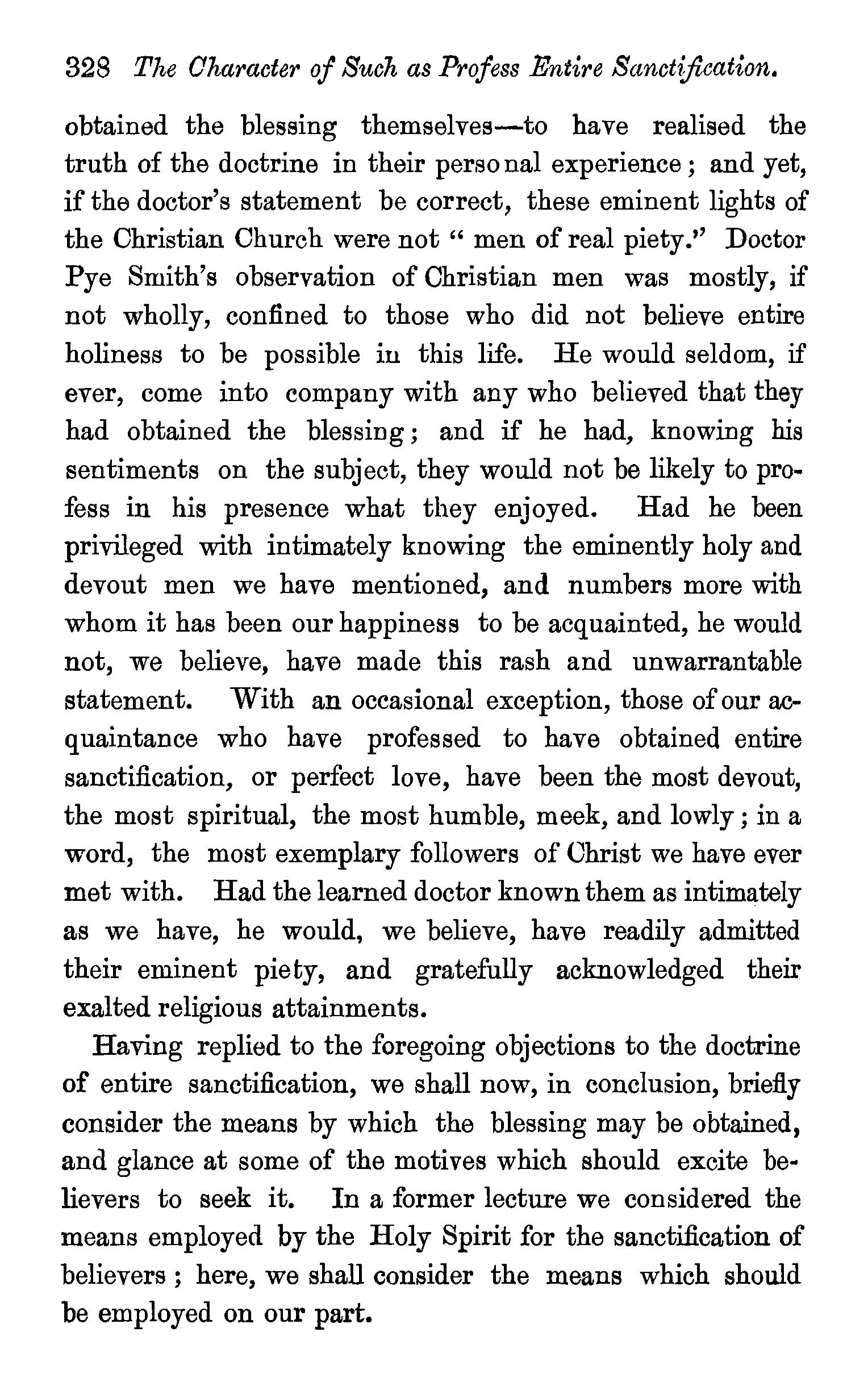
328 Tlie Oliaracter of Such as Profess Entire Sanctification.
obtained the blessing themselves-to have realised the truth of the doctrine in their personal experience ; and yet, if the doctor's statement be correct, these eminent lights of the Christian Church were not " men of real piety.'' Doctor Pye Smith's observation of Christian men was mostly, if not wholly, confined to those who did not believe entire holiness to be possible in this life. He would seldom, if ever, come into company with any who believed that they had obtained the blessing; and if he had, knowing his sentiments on the subject, they would not be likely to profess in his presence what they enjoyed. Had he been privileged with intimately knowing the eminently holy and devout men we have mentioned, and numbers more with whom it has been our happiness to be acquainted, he would not, we believe, have made this rash and unwarrantable statement. With an occasional exception, those of our acquaintance who have professed to have obtained entire sanctification, or perfect love, have been the most devout, the most spiritual, the most humble, meek, and lowly; in a word, the most exemplary followers of Christ we have ever met with. Had the learned doctor known them as intimately as we have, he would, we believe, have readily admitted their eminent piety, and gratefully acknowledged their exalted religious attainments.
Having replied to the foregoing objections to the doctrine of entire sanctification, we shall now, in conclusion, briefly consider the means by which the blessing may be obtained, and glance at some of the motives which should excite believers to seek it. In a former lecture we considered the means employed by the Holy Spirit for the sanctification of believers; here, we shall consider the means which should be employed on our part.
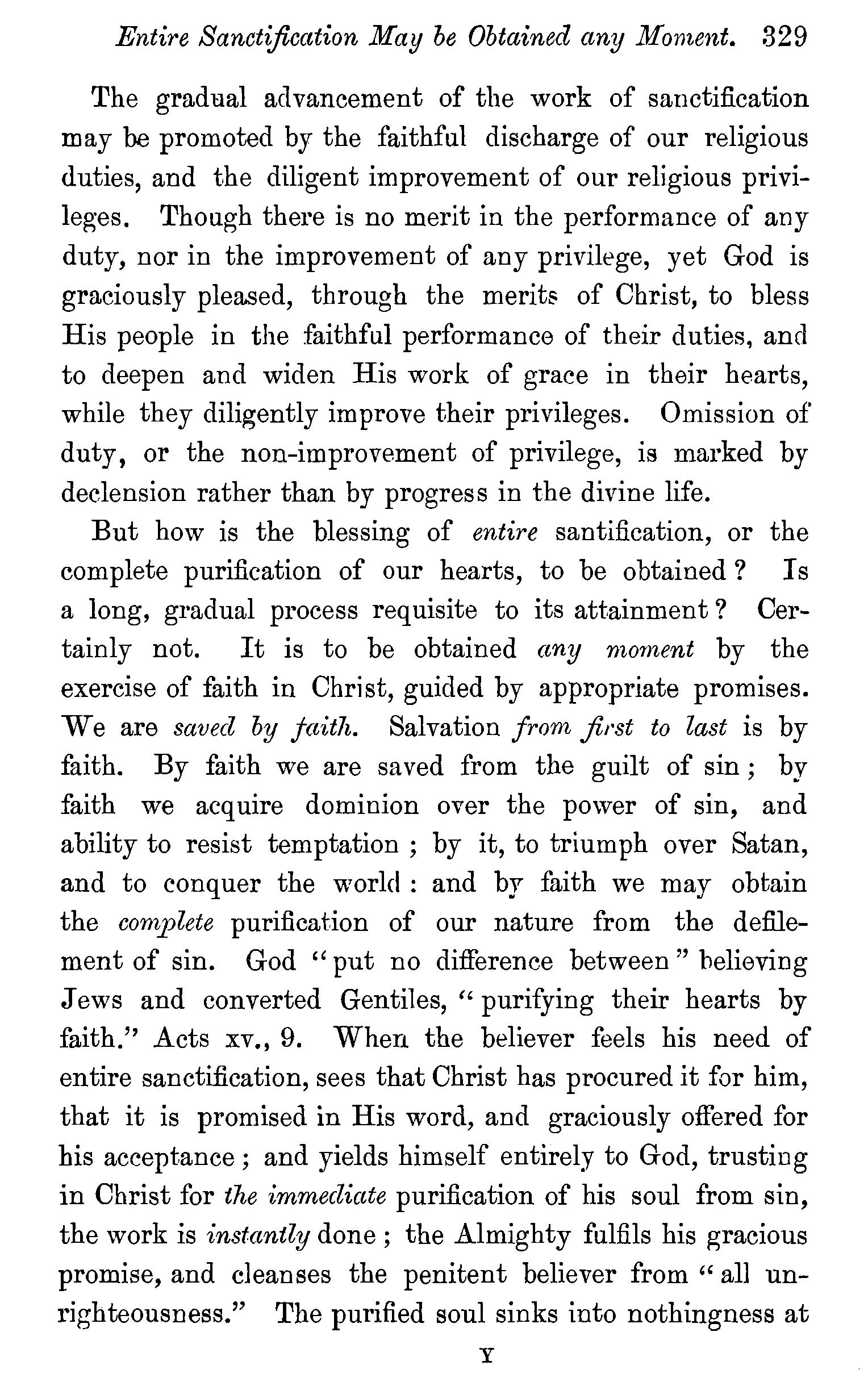
The gradual advancement of the work of sanctification may be promoted by the faithful discharge of our religious duties, and the diligent improvement of our religious privileges. Though there is no merit in the performance of any duty, nor in the improvement of any privilege, yet God is graciously pleased, through the merits of Christ, to bless His people in the faithful performance of their duties, and to deepen and widen His work of grace in their hearts, while they diligently improve their privileges. Omission of duty, or the non-improvement of privilege, is marked by declension rather than by progress in the divine life.
But how is the blessing of entire santification, or the complete purification of our hearts, to be obtained? Is a long, gradual process requisite to its attainment? Certainly not. It is to be obtained any rnornent by the exercise of faith in Christ, guided by appropriate promises. We are saved by jctith. Salvation frorn first to last is by faith. By faith we are saved from the guilt of sin; by faith we acquire dominion over the power of sin, and ability to resist temptation ; by it, to triumph over Satan, and to conquer the world: and by faith we may obtain the complete purification of our nature from the defilement of sin. God "put no difference between" believing Jews and converted Gentiles, "purifying their hearts by faith." Acts xv., 9. When the believer feels his need of entire sanctification, sees that Christ has procured it for him, that it is promised in His word, and graciously offered for bis acceptance; and yields himself entirely to God, trusting in Christ for the irnmecliate purification of his soul from sin, the work is instantly done ; the Almighty fulfils his gracious promise, and cleanses the penitent believer from "all unrighteousness." The purified soul sinks into nothingness at
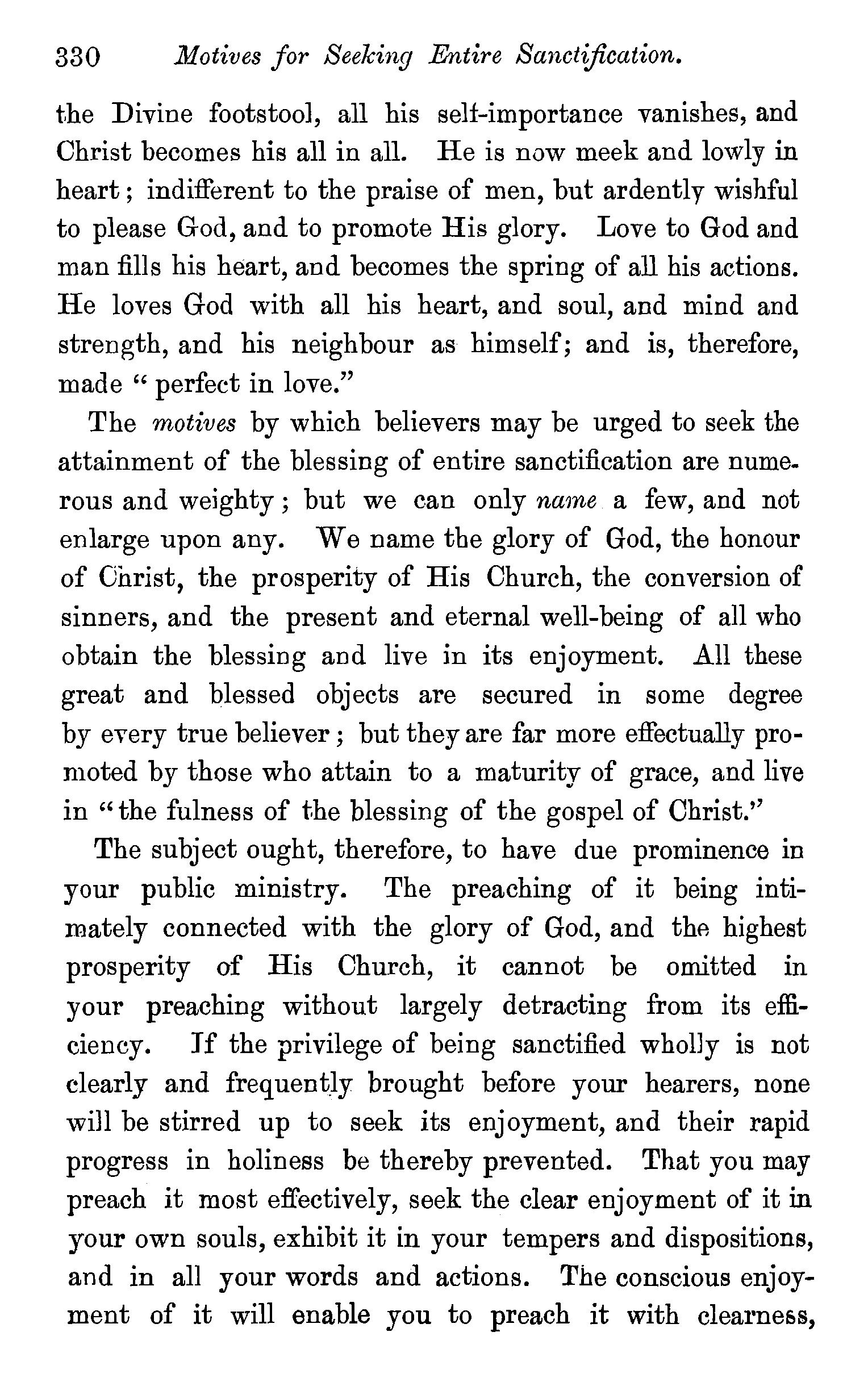
the Divine footstool, all his self-importance vanishes, and Christ becomes his all in all. He is now meek and lowly in heart ; indifferent to the praise of men, but ardently wishful to please God, and to promote His glory. Love to God and man fills his heart, and becomes the spring of all his actions. He loves God with all his heart, and soul, and mind and strength, and his neighbour as himself; and is, therefore, made " perfect in love."
The motives by which believers may be urged to seek the attainment of the blessing of entire sanctification are nume. rous and weighty ; but we can only name a few, and not enlarge upon any. We name tbe glory of God, the honour of Christ, the prosperity of His Church, the conversion of sinners, and the present and eternal well-being of a11who obtain the blessing and live in its enjoyment. All these great and blessed objects are secured in some degree by every true believer ; but they are far more effectually promoted by those who attain to a maturity of grace, and live in "the fulness of the blessing of the gospel of Christ.''
The subject ought, therefore, to have due prominence in your public ministry. The preaching of it being intimately connected with the glory of God, and thA highest prosperity of His Church, it cannot be omitted in your preaching without largely detracting from its efficiency. If the privilege of being sanctified wholJy is not clearly and frequent_ly brought before your hearers, none will be stirred up to seek its enjoyment, and their rapid progress in holiness be thereby prevented. That you may preach it most effectively, seek the clear enjoyment of it in your own souls, exhibit it in your tempers and dispositions, and in all your words and actions. The conscious enjoyment of it will enable you to preach it with clearne&s,
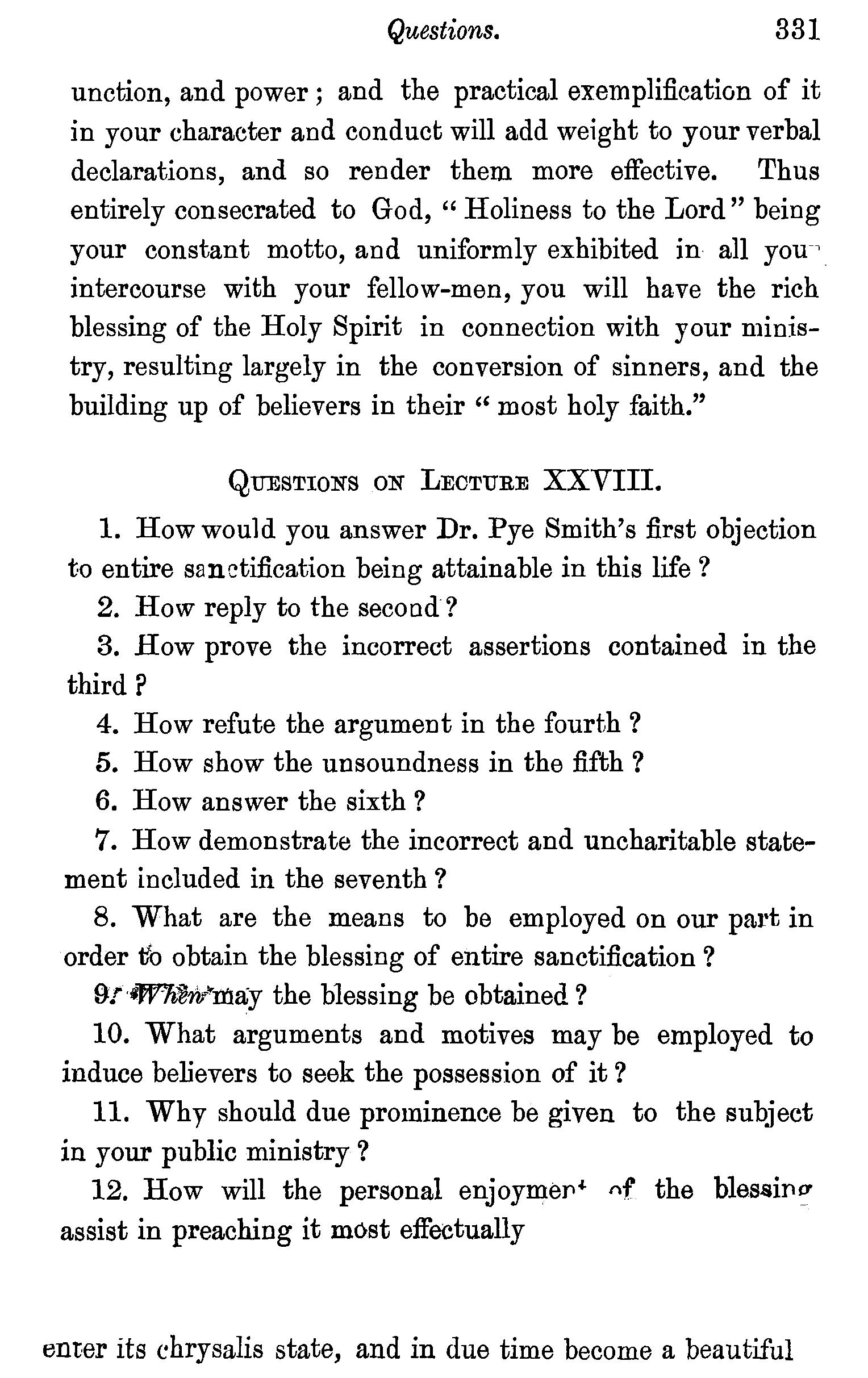
unction, and power ; and the practical exemplification of it in your character and conduct will add weight to your verbal declarations, and so render them more effective. Thus entirely consecrated to God, " Holiness to the Lord" being your constant motto, and uniformly exhibited in all you-· intercourse with your fellow-men, you will have the rich blessing of the Holy Spirit in connection with your ministry, resulting largely in the conversion of sinners, and the building up of believers in their " most holy faith."
1. How would you answer Dr. Pye Smith's first objection to entire sanctification being attainable in this life?
2. How reply to the second?
3. How prove the incorrect assertions contained in the third?
4. How refute the argument in the fourth ?
5. How show the unsoundness in the fifth ?
6. How answer the sixth ?
7. How demonstrate the incorrect and uncharitable statement included in the seventh ?
8. What are the means to be employed on our part in order tfo obtain the blessing of entire sanctification?
9/·i"Wn~nr~maythe blessing be obtained?
10. What arguments and motives may be employed to induce believers to seek the possession of it ?
11. Why should due prominence be given to the subject in your public ministry?
12. How will the personal enjoymeP,,_ nf the bles$inu assist in preaching it most effectually enter its chrysalis state, and in due time become a beautiful
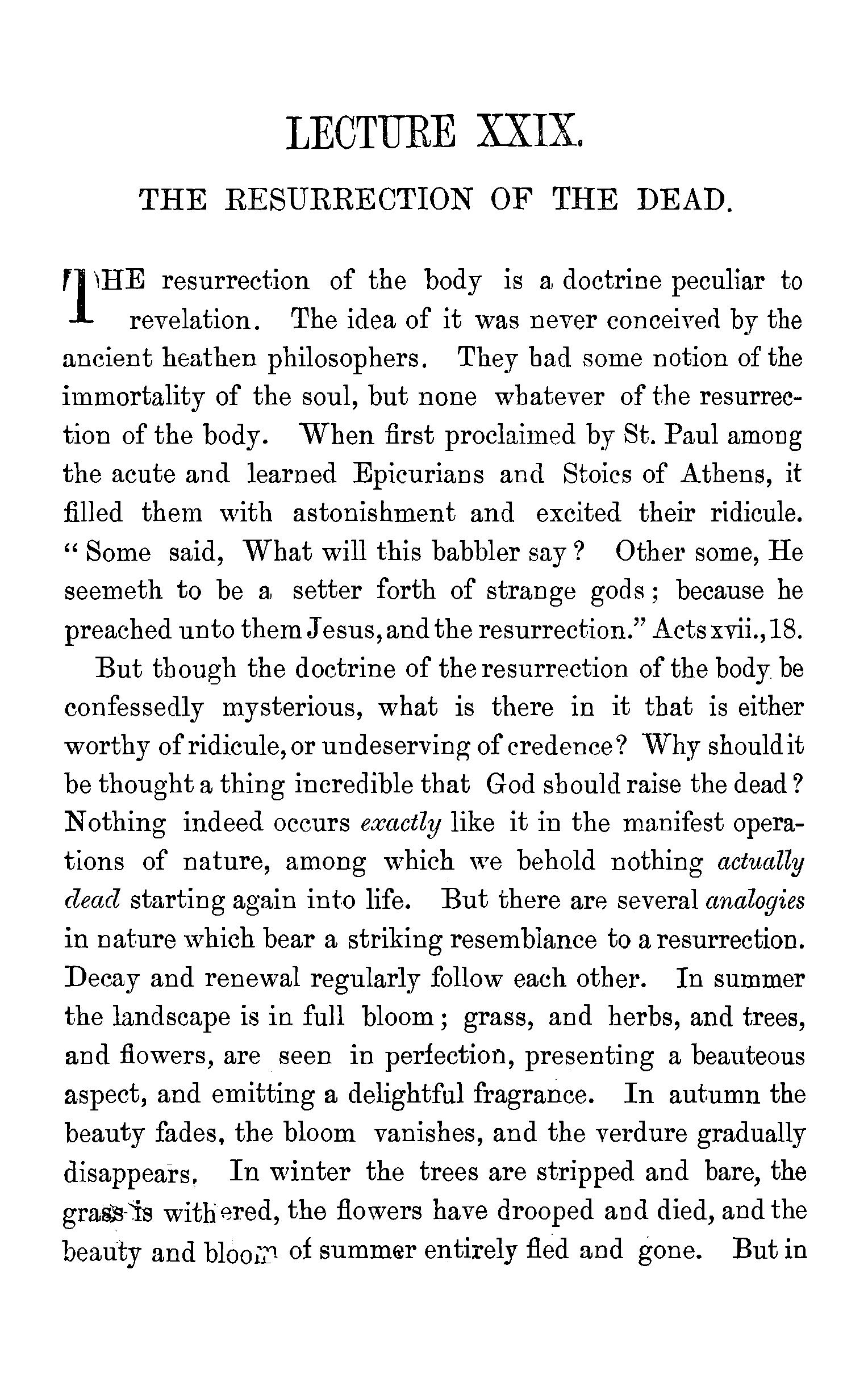
r11HE resurrection of the body is a doctrine peculiar to revelation. The idea of it was never conceived by the ancient htathen philosophers. They bad some notion of the immortality of the soul, but none whatever of the resurrection of the body. When first proclaimed by St. Paul among the acute and learned Epicurians and Stoics of Athens, it filled them with astonishment and excited their ridicule.
" Some said, What will this babbler say ? Other some, He seemeth to be a setter forth of strange gods; because he preached unto them Jesus, and the resurrection." Acts xvii.,18.
But though the doctrine of the resurrection of the body be confessedly mysterious, what is there in it that is either worthy ofridicule,or undeserving of credence? Why shouldit be thought a thing incredible that God should raise the dead? Nothing indeed occurs exactly like it in the manifest operations of nature, among which ,,,e behold nothing actually cleaclstarting again into life. But there are several anctlogies in nature which bear a striking resemblance to a resurrection. Decay and renewal regularly follow each other. In summer the landscape is in full bloom; grass, and herbs, and trees, and flowers, are seen in perfection, presenting a beauteous aspect, and emitting a delightful fragrance. In autumn the beauty fades, the bloom vanishes, and the verdure gradually disappears 1 In winter the trees are stripped and bare, the gra~-'is withered, the flowers have drooped and died, and the beauty and blooiil of summG:rentirely fled and gone. But in
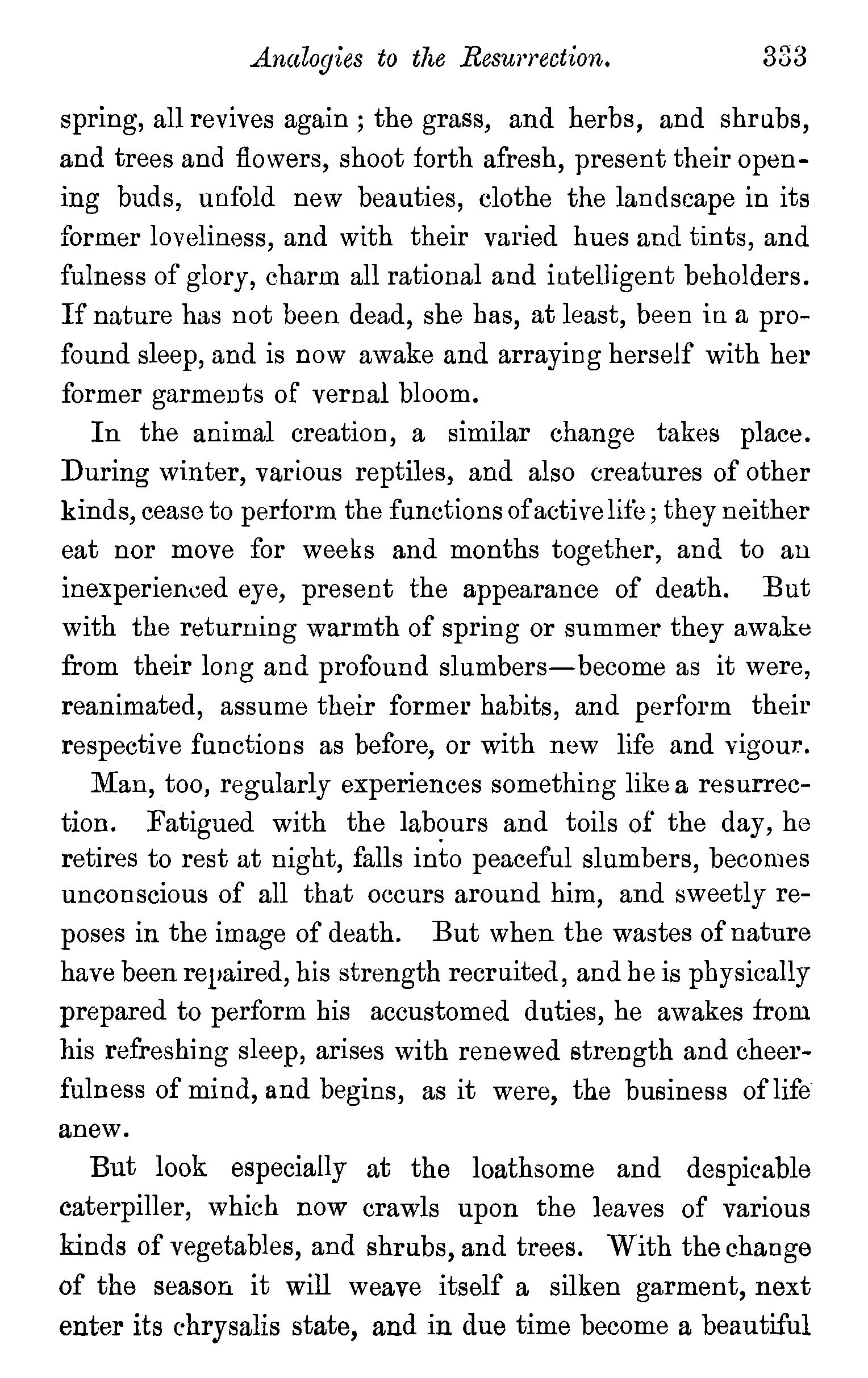
spring, all revives again; the grass, and herbs, and shrubs, and trees and flowers, shoot forth afresh, present their opening buds, unfold new beauties, clothe the landscape in its former loveliness, and with their varied hues and tints, and fulness of glory, charm all rational and intelligent beholders. If nature has not been dead, she bas, at least, been in a profound sleep, and is now awake and arraying herself with her former garments of vernal bloom.
In the animal creation, a similar change takes place. During winter, various reptiles, and also creatures of other kinds, cease to perform the functions of active life; they neither eat nor move for weeks and months together, and to an inexperienced eye, present the appearance of death. But with the returning warmth of spring or summer they awake from their long and profound slumbers-become as it were, reanimated, assume their former habits, and perform their respective functions as before, or with new life and vigour..
Man, too, regularly experiences something like a resurrection. Fatigued with the lab?urs and toils of the day, he retires to rest at night, falls into peaceful slumbers, becomes unconscious of all that occurs around him, and sweetly reposes in the image of death. But when the wastes of nature have been repaired, his strength recruited, and he is physically prepared to perform his accustomed duties, he awakes from his refreshing sleep, arises with renewed strength and cheerfulness of mind, and begins, as it were, the business oflifo anew.
But look especially at the loathsome and despicable caterpiller, which now crawls upon the leaves of various kinds of vegetables, and shrubs, and trees. With the change of the season. it will weave itself a silken garment, next enter its chrysalis state, and in due time become a beautiful
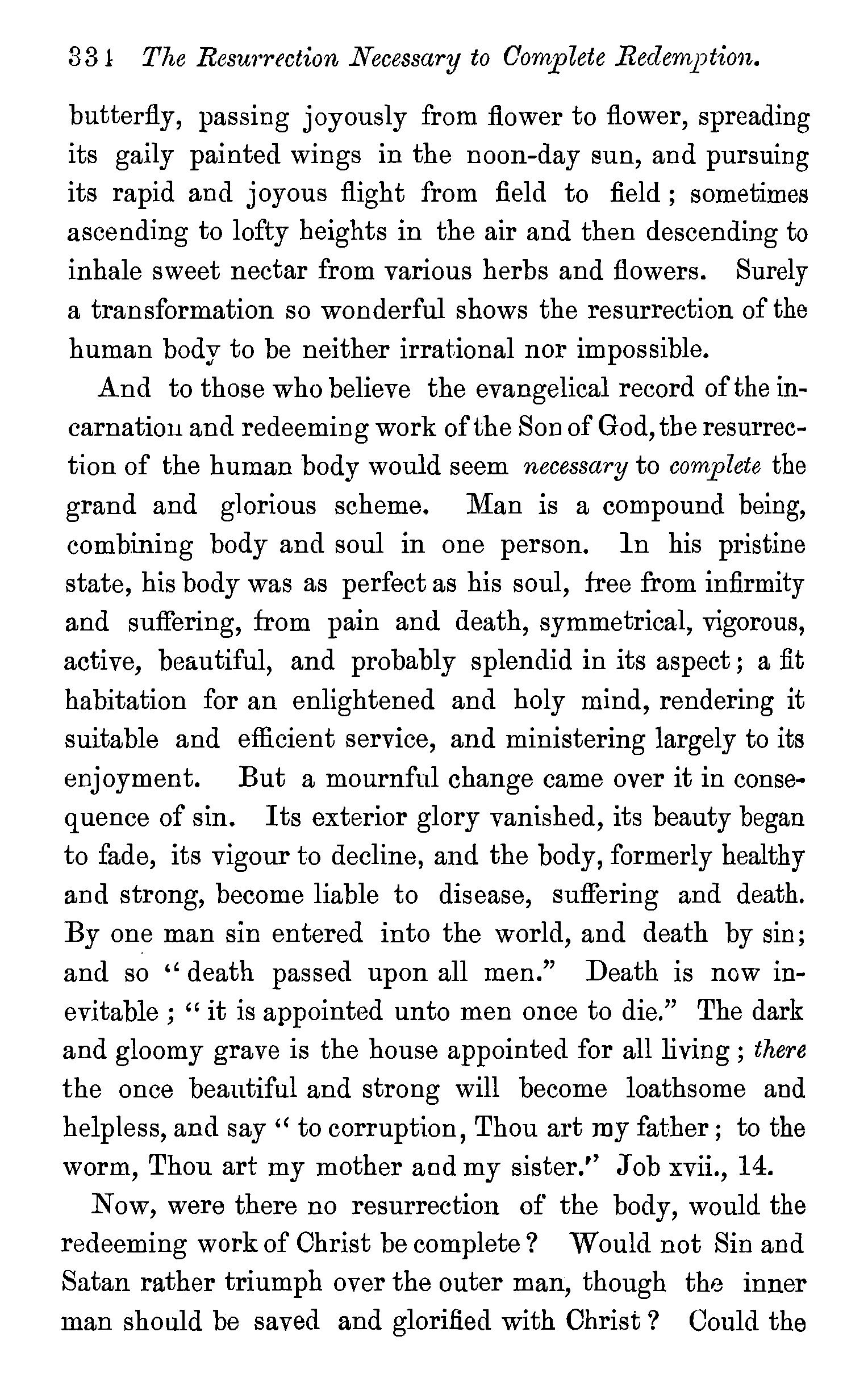
butterfly, passing joyously from flower to flower, spreading its gaily painted wings in the noon-day sun, and pursuing its rapid and joyous flight from field to field; sometimes ascending to lofty heights in the air and then descending to inhale sweet nectar from various herbs and flowers. Surely a transformation so wonderful shows the resurrection of the human body to be neither irrational nor impossible.
And to those who believe the evangelical record of the incarnatiou and redeeming work of the Son of God, the resurrection of the human body would seem necessary to complete the grand and glorious scheme. Man is a compound being, combining body and soul in one person. ln his pristine state, his body was as perfect as his soul, free from infirmity and suffering, from pain and death, symmetrical, vigorous, active, beautiful, and probably splendid in its aspect; a fit habitation for an enlightened and holy mind, rendering it suitable and efficient service, and ministering largely to its enjoyment. But a mournful change came over it in consequence of sin. Its exterior glory vanished, its beauty began to fade, its vigour to decline, and the body, formerly healthy and strong, become liable to disease, suffering and death. By one man sin entered into the world, and death by sin; and so '' death passed upon all men." Death is now inevitable ; " it is appointed unto men once to die." The dark and gloomy grave is the house appointed for all living; there the once beautiful and strong will become loathsome and helpless, and say '' to corruption, Thou art my father; to the worm, Thou art my mother aod my sister.'' Job xvii., 14.
Now, were there no resurrection of the body, would the redeeming work of Christ be complete? Would not Sin and Satan rather triumph over the outer man, though the inner man should be saved and glorified with Christ ? Could the
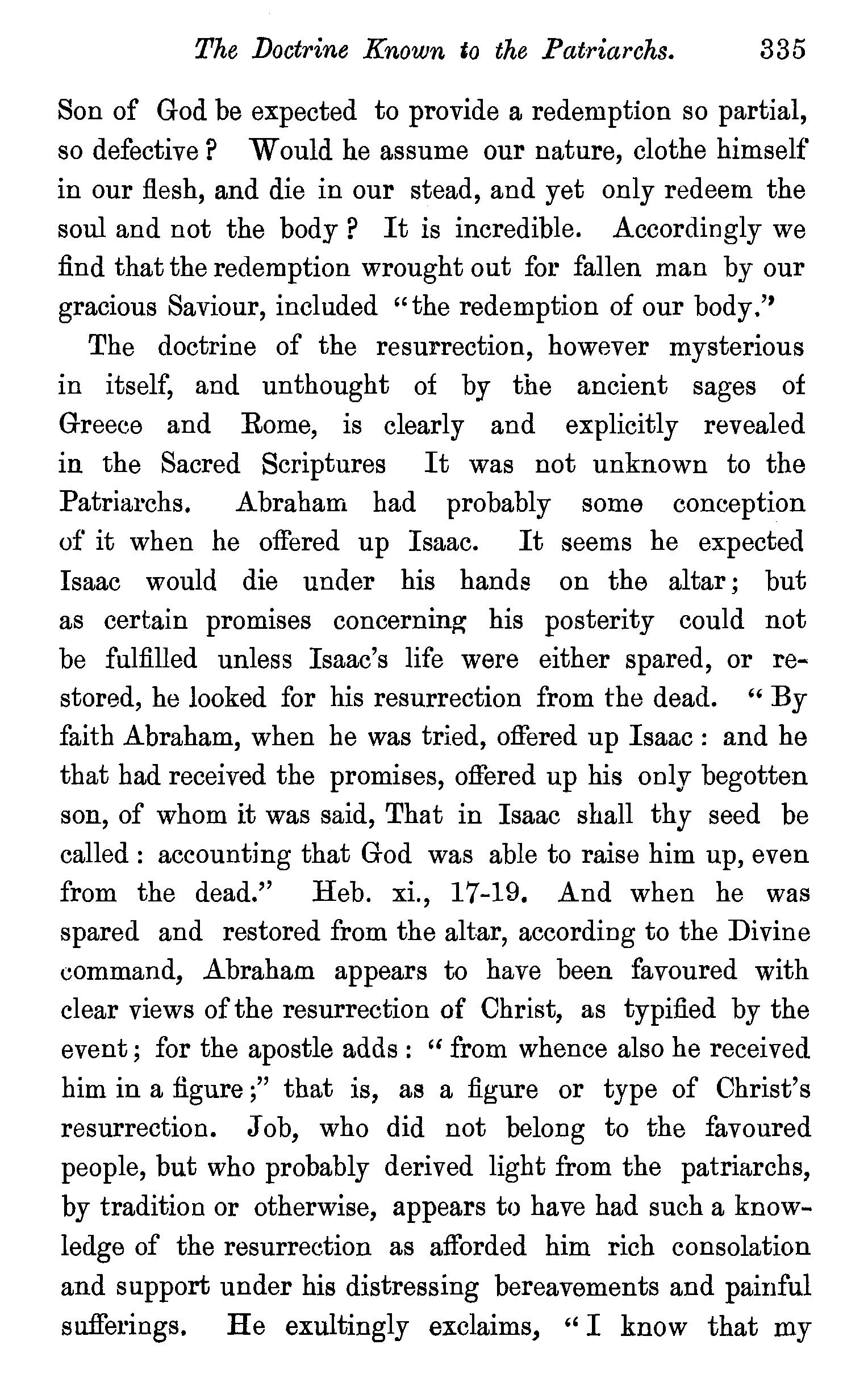
Son of God be expected to provide a redemption so partial, so defective ? Would he assume our nature, clothe himself in our flesh, and die in our stead, and yet only redeem the soul and not the body ? It is incredible. Accordingly we find that the redemption wrought out for fallen man by our gracious Saviour, included "the redemption of our body.'' The doctrine of the resurrection, however mysterious in itself, and unthought of by the ancient sages of Greece and Rome, is clearly and explicitly revealed in the Sacred Scriptures It was not unknown to the Patriarchs. Abraham had probably some conception of it when he offered up Isaac. It seems he expected Isaac would die under his hands on the altar; but as certain promises concerning his posterity could not be fulfilled unless Isaac's life were either spared, or restored, he looked for his resurrection from the dead. "By faith Abraham, when he was tried, offered up Isaac: and he that had received the promises, offered up his only begotten son, of whom it was said, That in Isaac shall thy seed be called : accounting that God was able to raise him up, even from the dead.'' Heb. xi., 17-19. And when he was spared and restored from the altar, according to the Divine command, Abraham appears to have been favoured with clear views of the resurrection of Christ, as typified by the event; for the apostle adds : " from whence also he received him in a figure;" that is, as a figure or type of Christ's resurrection. Job, who did not belong to the favoured people, but who probably derived light from the patriarchs, by tradition or otherwise, appears to have had such a knowledge of the resurrection as afforded him rich consolation and support under his distressing bereavements and painful sufferings. He exultingly exclaims, " I know that my
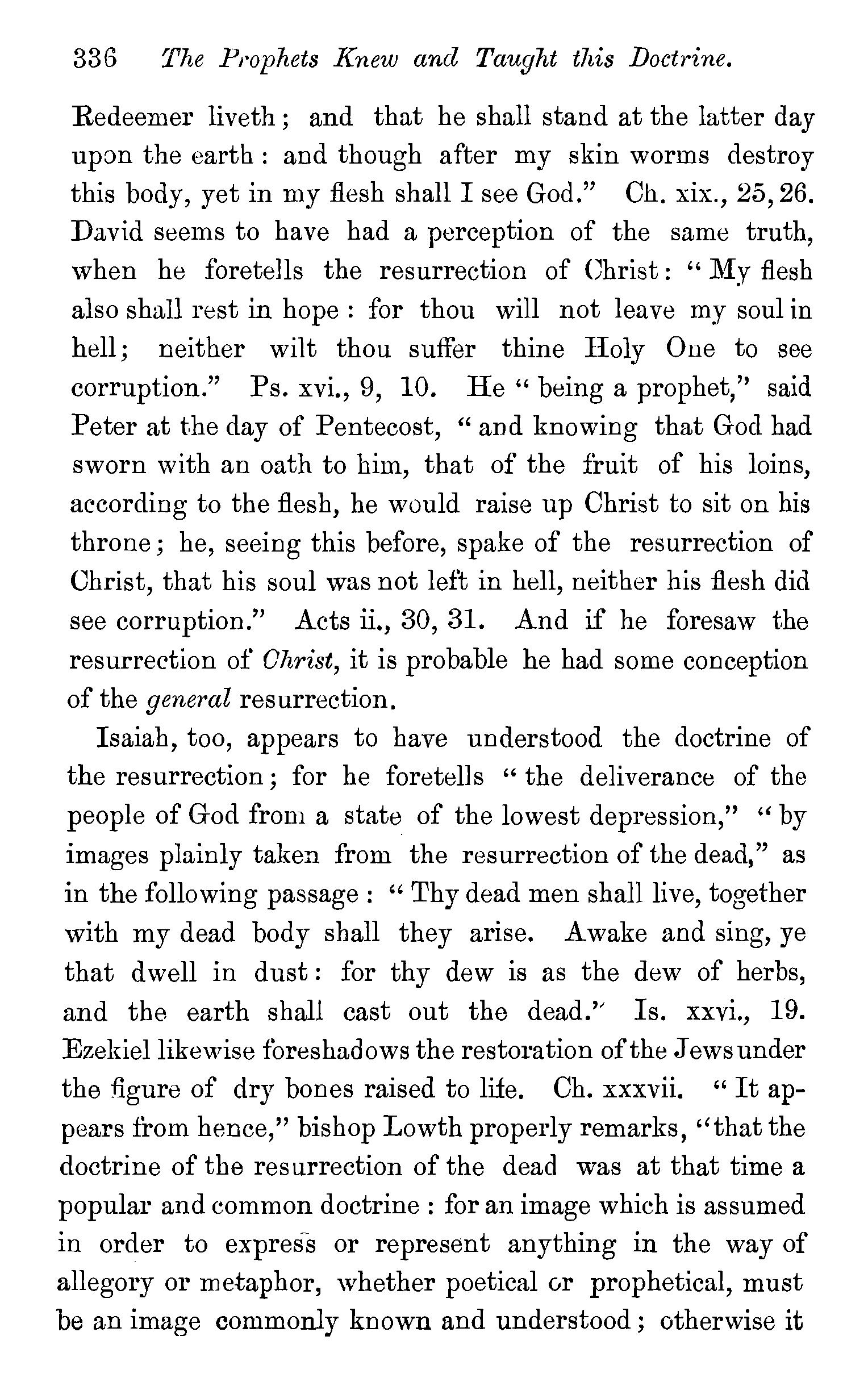
Redeemer liveth ; and that he shall stand at the latter day upon the earth : and though after my skin worms destroy this body, yet in my flesh shall I see God." Ch. xix., 25, 26. David seems to have had a perception of the same truth, when he foretells the resurrection of Christ: "J\1:y flesh also shall rest in hope : for thou will not leave my soul in hell; neither wilt thou suffer thine Holy One to see corruption." Ps. xvi., 9, 10. He " being a prophet,'' said Peter at the day of Pentecost, " and knowing that Goel had sworn with an oath to him, that of the fruit of his loins, according to the flesh, he would raise up Christ to sit on his throne; he, seeing this before, spake of the resurrection of Christ, that his soul was not left in hell, neither his flesh did see corruption." Acts ii., 30, 31. And if he foresaw the resurrection of Ghrist, it is probable he had some conception of the general resurrection.
Isaiah, too, appears to have understood the doctrine of the resurrection; for he foretells " the deliverance of the people of God from a state of the lowest depression," " by images plainly taken from the resurrection of the dead," as in the following passage : " Thy dead men shall live, together with my dead body shall they arise. Awake and sing, ye that dwell in dust: for thy dew is as the dew of herbs, and the earth shall cast out the dead.'' Is. xxvi., 19. Ezekiel likewise foreshadows the restoration of the Jews under the figure of dry bones raised to life. Ch. xxxvii. "It appears from hence," bishop Lowth properly remarks, ''that the doctrine of the resurrection of the dead was at that time a popular and common doctrine : for an image which is assumed in order to expres~s or represent anything in the way of allegory or metaphor, whether poetical c,r prophetical, must be an image commonly known and understood; otherwise it
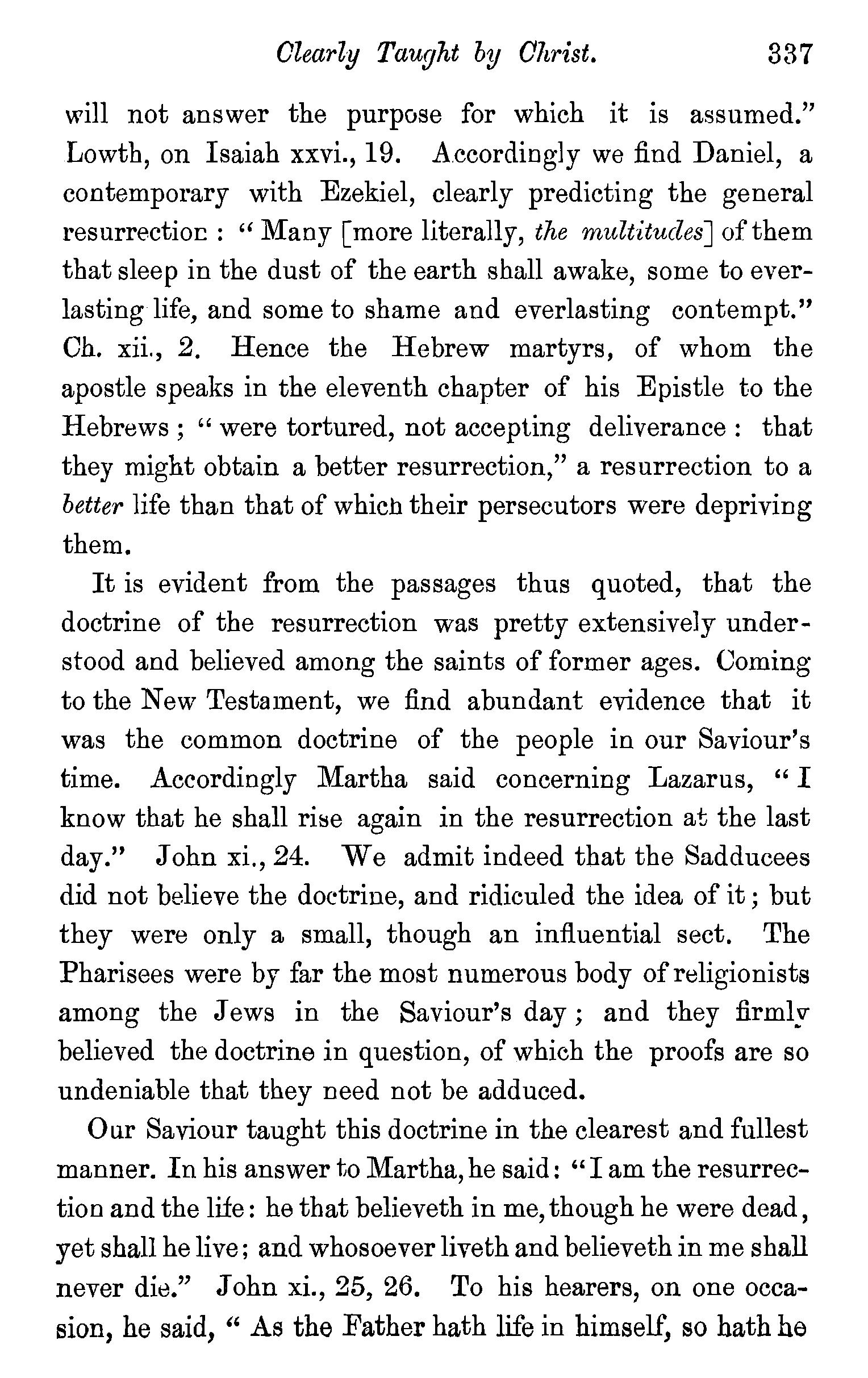
will not answer the purpose for which it 1s assumed." Lowth, on Isaiah xxvi., 19. Accordingly we :find Daniel, a contemporary with Ezekiel, clearly predicting the general resurrectioc : "Many [more literally, the midtituclesJ of them that sleep in the dust of the earth shall awake, some to everlasting life, and some to shame and everlasting contempt." Ch. xii., 2. Hence the Hebrew martyrs, of whom the apostle speaks in the eleventh chapter of his Epistle to the Hebrews ; "were tortured, not accepting deliverance : that they might obtain a better resurrection," a resurrection to a better life than that of which their persecutors were depriving them.
It is evident from the passages thus quoted, that the doctrine of the resurrection was pretty extensively understood and believed among the saints of former ages. Coming to the New Testament, we find abundant evidence that it was the common doctrine of the people in our Saviour's time. Accordingly Martha said concerning Lazarus, " I know that he shall rirse again in the resurrection at the last day." John xi., 24. We admit indeed that the Sadducees did not believe the doctrine, and ridiculed the idea of it; but they were only a small, though an influential sect. The Pharisees were by far the most numerous body of religionists among the Jews in the Saviour's day; and they firmly believed the doctrine in question, of which the proofs are so undeniable that they need not be adduced.
Our Saviour taught this doctrine in the clearest and fullest manner. In his answer to Martha, he said: "I am the resurrection and the life: he that believeth in me, though he were dead, yet shall he live; and whosoever liveth and believeth in me shall never die." John xi., 25, 26. To his hearers, on one occasion, he said, " As the Father hath life in himself, so hath he
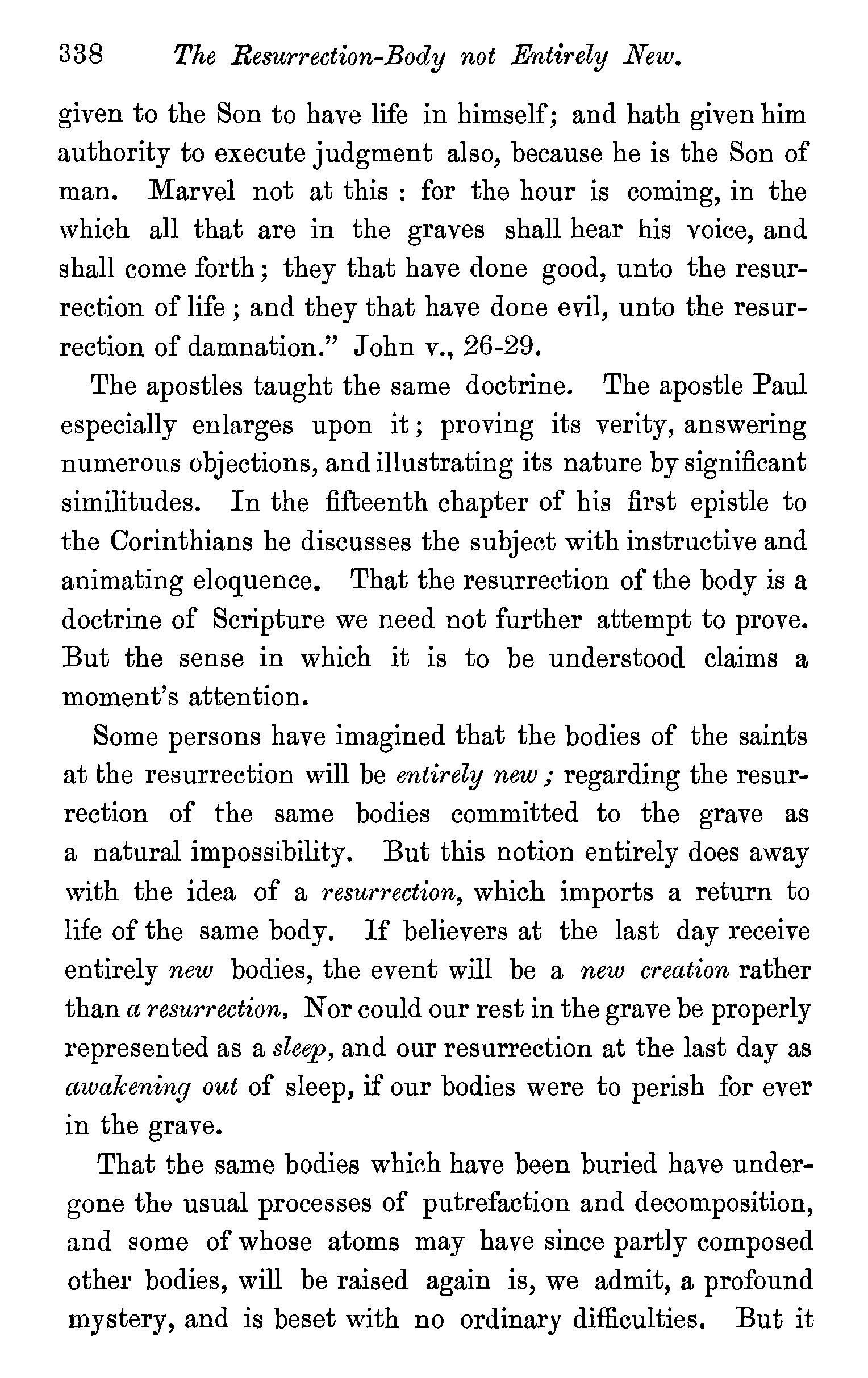
given to the Son to have life in himself; and hath given him authority to execute judgment also, because he is the Son of man. Marvel not at this : for the hour is coming, in the which all that are in the graves shall hear his voice, and shall come forth; they that have done good, unto the resurrection of life; and they that have done evil, unto the resurrection of damnation." John v., 26-29.
The apostles taught the same doctrine. The apostle Paul especially enlarges upon it; proving its verity, answering numerous objections, and illustrating its nature by significant similitudes. In the fifteenth chapter of his first epistle to the Corinthians he discusses the subject with instructive and animating eloquence. That the resurrection of the body is a doctrine of Scripture we need not further attempt to prove. But the sense in which it is to be understood claims a moment's attention.
Some persons have imagined that the bodies of the saints at the resurrection will be entirely new; regarding the resurrection of the same bodies committed to the grave as a natural impossibility. But this notion entirely does away with the idea of a resurrection, which imports a return to life of the same body. If believers at the last day receive entirely new bodies, the event will be a new creation rather than ct resurrection, Nor could our rest in the grave be properly represented as a sleep, and our resurrection at the last day as awakening out of sleep, if our bodies were to perish for ever in the grave.
That the same bodies which have been buried have undergone tht1 usual processes of putrefaction and decomposition, and some of whose atoms may have since partly composed other bodies, will be raised again is, we admit, a profound mystery, and is beset with no ordinary difficulties. But it
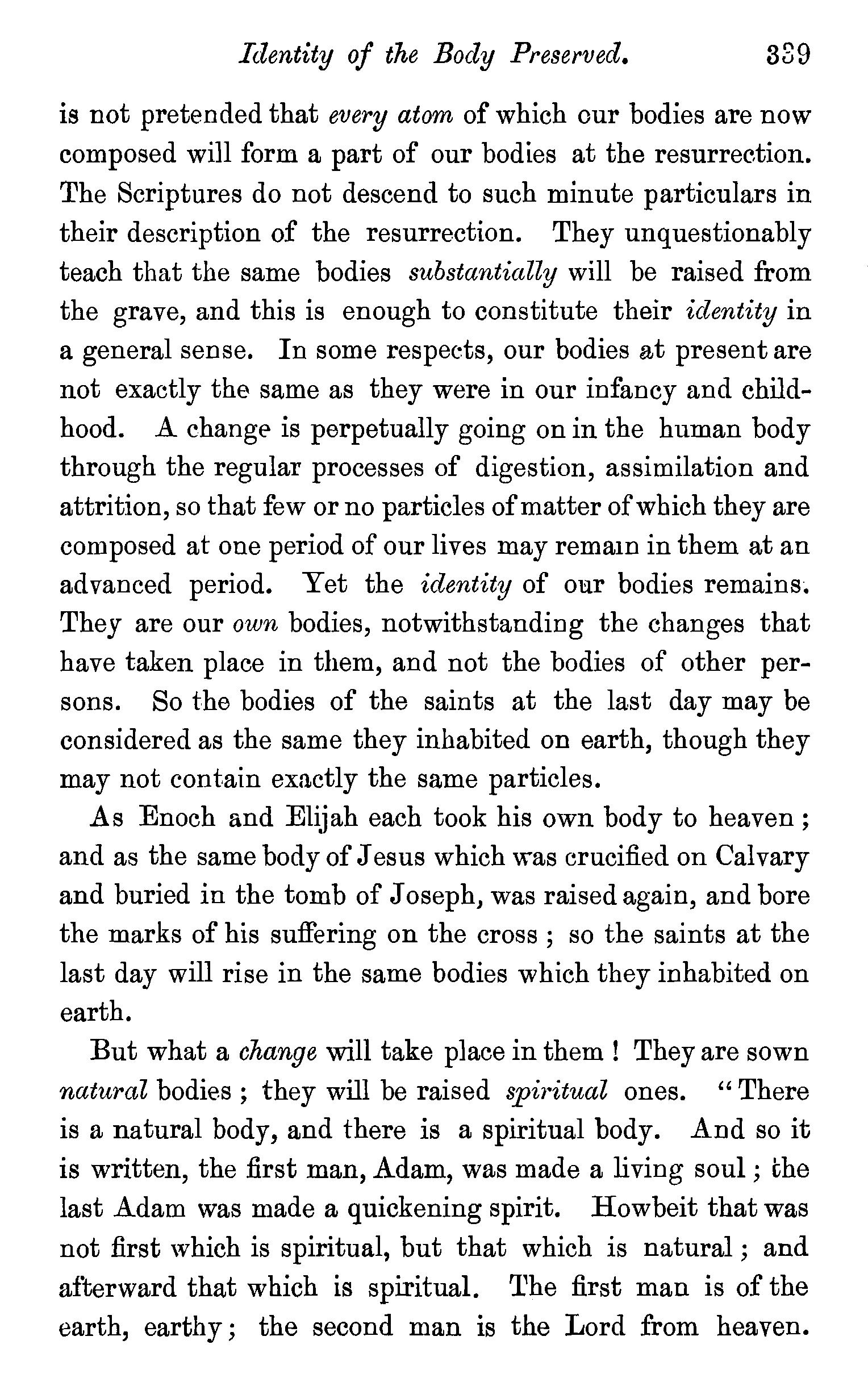
is not pretended that every atom of which our bodies are now composed will form a part of our bodies at the resurrer.tion. The Scriptures do not descend to such minute particulars in their description of the resurrection. They unquestionably teach that the same bodies substantially will be raised from the grave, and this is enough to constitute their identity in a general sense. In some respeets, our bodies at present are not exactly the same as they were in our infancy and childhood. A change is perpetually going on in the human body through the regular processes of digestion, assimilation and attrition, so that few or no particles of matter of which they are composed at one period of our lives may remam in them at an advanced period. Yet the identity of our bodies remains~ They are our own bodies, notwithstanding the changes that have taken place in them, and not the bodies of other persons. So the bodies of the saints at the last day may be considered as the same they inhabited on earth, though they may not contain exactly the same particles.
As Enoch and Elijah each took his own body to heaven; and as the same body of Jesus which was crucified on Calvary and buried in the tomb of Joseph, was raised again, and bore the marks of his suffering on the cross ; so the saints at the last day will rise in the same bodies which they inhabited on earth.
But what a change will take place in them ! They are sown natural bodies ; they will be raised spiritual ones. " There is a natural body, and there is a spiritual body. And so it is written, the first man, Adam, was made a living soul; the last Adam was made a quickening spirit. Howbeit that was not first which is spiritual, but that which is natural ; and afterward that which is spiritual. '11he first man is of the earth, earthy; the second man is the Lord from heaven.
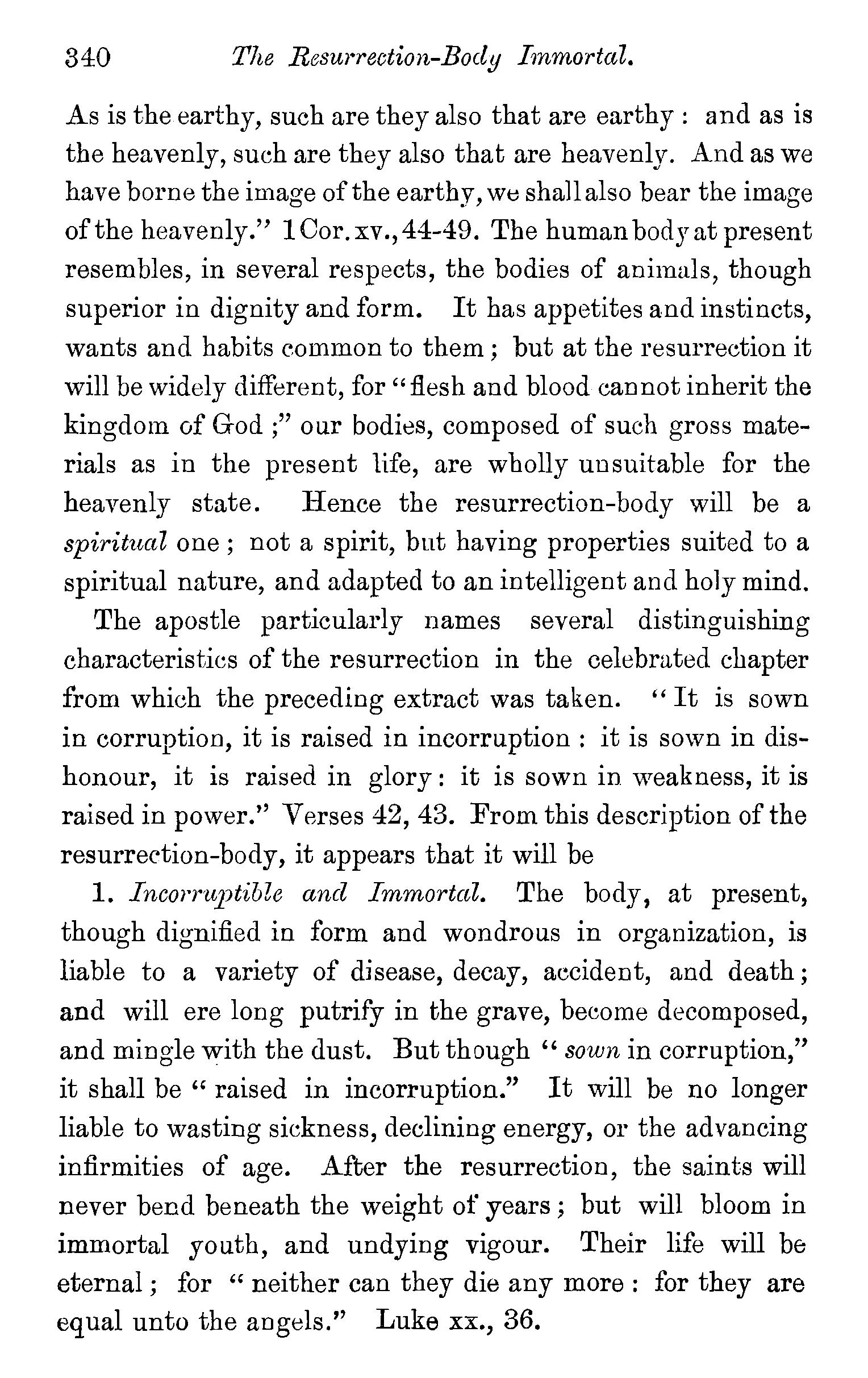
As is the earthy, such are they also that are earthy: and as is the heavenly, such are they also that are heavenly. And as we have borne the image of the earthy, we sha1lalso bear the image of the heavenly." IOor.xv.,44-49. The human body at present resembles, in several respects, the bodies of animals, though superior in dignity and form. It has appetites and instincts, wants and habits common to them ; but at the resurrection it will be widely different, for" flesh and blood cannot inherit the kingdom of God ;" our bodies, composed of such gross materials as in the present life, are wholly unsuitable for the heavenly state. Hence the resurrection-body will be a spiritiictl one ; not a spirit, but having properties suited to a spiritual nature, and adapted to an intelligent and holy mind. The apostle particularly names several distinguishing characteristics of the resurrection in the celebrated chapter from which the preceding extract was taken. "It is sown in corruption, it is raised in incorruption : it is sown in dishonour, it is raised in glory: it is sown in weakness, it is raised in power.'' Verses 42, 43. From this description of the resurrection-body, it appears that it will be l. Incorruptible ancl Immortal. The body, at present, though dignified in form and wondrous in organization, is liable to a variety of djsease, decay, accident, and death; and will ere long putrify in the grave, become decomposed, and mingle with the dust. But though " sown in corruption," it shall be " raised in incorruption." It will be no longer liable to wasting sickness, declining energy, or the advancing infirmities of age. After the resurrection, the saints will never bend beneath the weight of years ; but will bloom in immortal youth, and undying vigour. Their life will be eternal ; for " neither can they die any more : for they are equal unto the angels." Luke xx., 36.
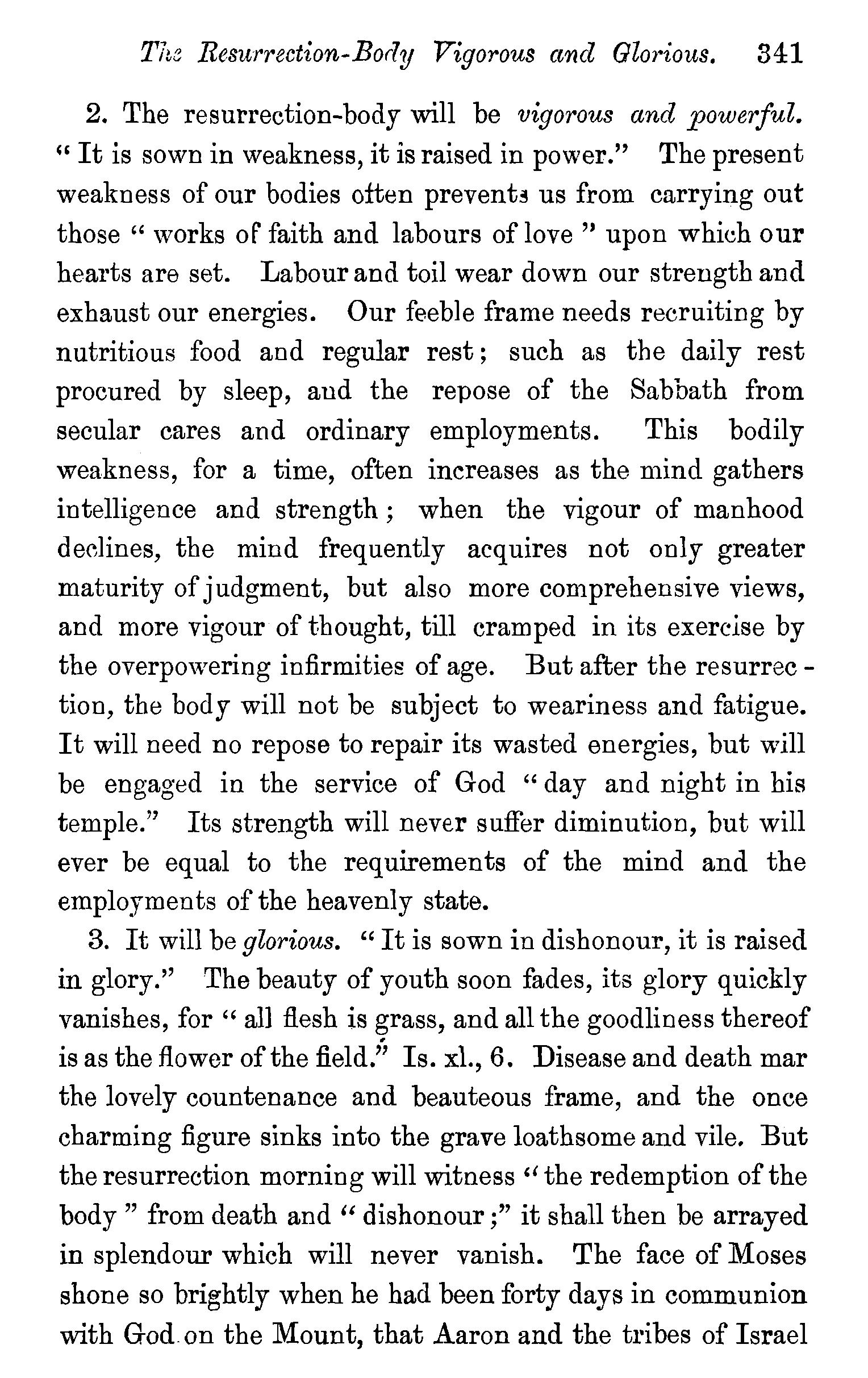
2. The resurrection-body will be vigorous ancl powerful. " It is sown in weakness, it is raised in power." The present weakness of our bodies often prevent3 us from carrying out those "works of faith and labours of love" upon which our hearts are set. Labour and toil wear down our strength and exhaust our energies. Our feeble frame needs recruiting by nutritious food and regular rest ; such as the daily rest procured by sleep, and the repose of the Sabbath from secular cares and ordinary employments. This bodily weakness, for a time, often increases as the mind gathers intelligence and strength ; when the vigour of manhood declines, the mind frequently acquires not only greater maturity of judgment, but also more comprehensive views, and more vigour of thought, till cramped in its exercise by the overpowering infirmitie~ of age. But after the resurrection, the body will not be subject to weariness and fatigue. It will need no repose to repair its wasted energies, but will be engaged in the service of God "day and night in bis temple." Its strength will never suffer diminution, but will ever be equal to the requirements of the mind and the employments of the heavenly state.
3. It will be glorious. "It is sown in dishonour, it is raised in glory.'' The beauty of youth soon fades, its glory quickly vanishes, for " all flesh is grass, and all the goodliness thereof is as the flower of the field." Is. xl., 6. Disease and death mar the lovely countenance and beauteous frame, and the once charming figure sinks into the grave loathsome and vile. But the resurrection morning will witness '' the redemption of the body " from death and " dishonour;" it shall then be arrayed in splendour which will never vanish. The face of Moses shone so brightly when he had been forty days in communion with God on the Mount, that Aaron and the tribes of Israel
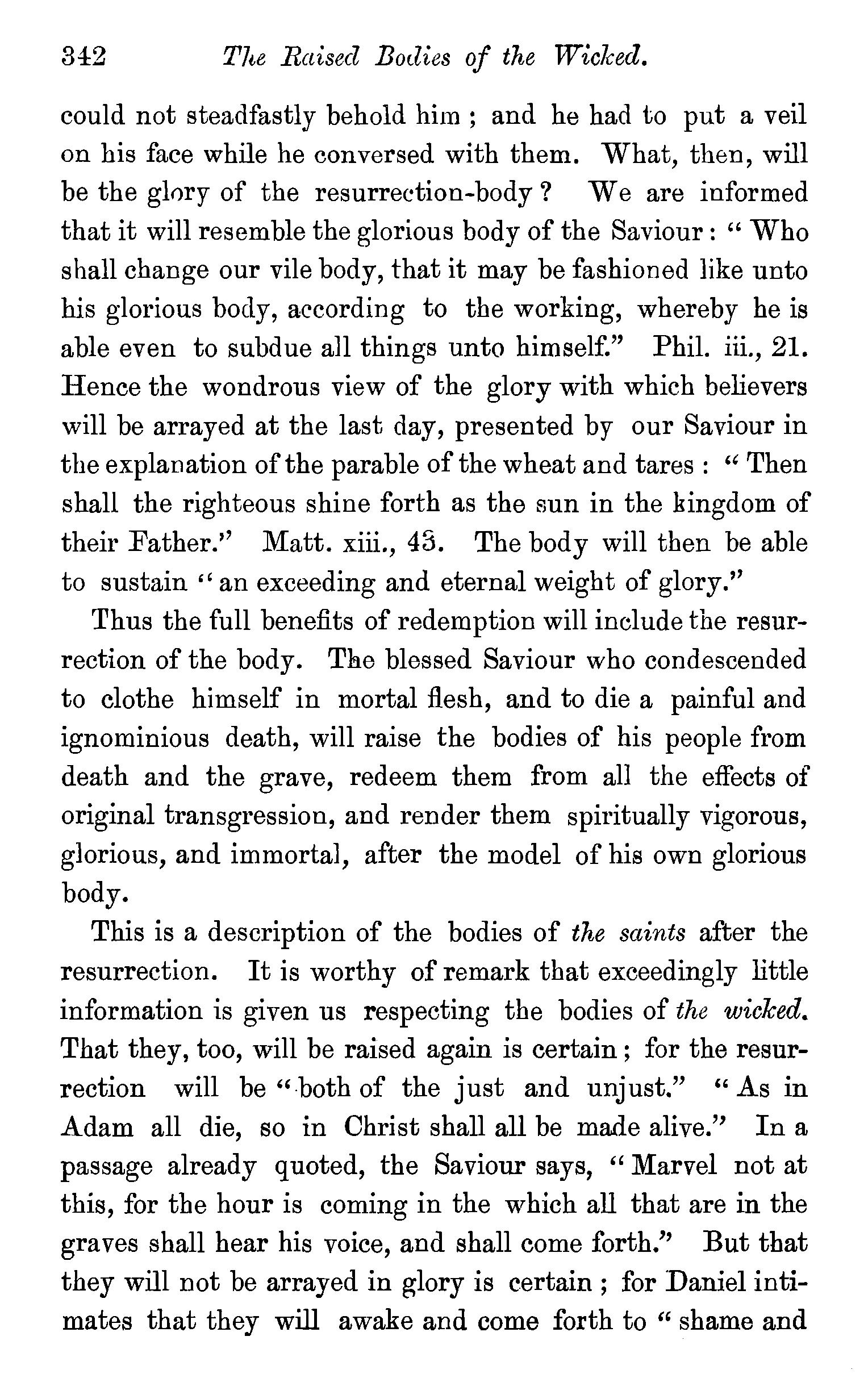
The Raisecl Bodies of the Wiclced.
could not steadfastly behold him ; and he had to put a veil on his face while he conversed with them. What, then, will be the gl0ry of the resurrection-body? We are informed that it will resemble the glorious body of the Saviour: "Who shall change our vile body, that it may be fashioned like unto his glorious body, according to the working, whereby he is able even to subdue all things unto himself." Phil. iii., 21. Hence the wondrous view of the glory with which believers will be arrayed at the last day, presented by our Saviour in the explanation of the parable of the wheat and tares : "Then shall the righteous shine forth as the sun in the kingdom of their Father.'' Matt. xiii., 43. The body will then be able to sustain'' an exceeding and eternal weight of glory.''
Thus the full benefits of redemption will include the resurrection of the body. The blessed Saviour who condescended to clothe himself in mortal flesh, and to die a painful and ignominious death, will raise the bodies of his people from death and the grave, redeem them from all the effects of original transgression, and render them spiritually vigorous, glorious, and immortal, after the model of his own glorious body.
This is a description of the bodies of the saints after the resurrection. It is worthy of remark that exceedingly little information is given us respecting the bodies of the wicked. That they, too, will be raised again is certain ; for the resurrection will be "both of the just and unjust." "As in Adam all die, so in Christ shall all be made alive." In a passage already quoted, the Saviour says, "Marvel not at this, for the hour is coming in the which all that are in the graves shall hear his voice, and shall come forth.'' But that they will not be arrayed in glory is certain ; for Daniel intimates that they will awake and come forth to "shame and
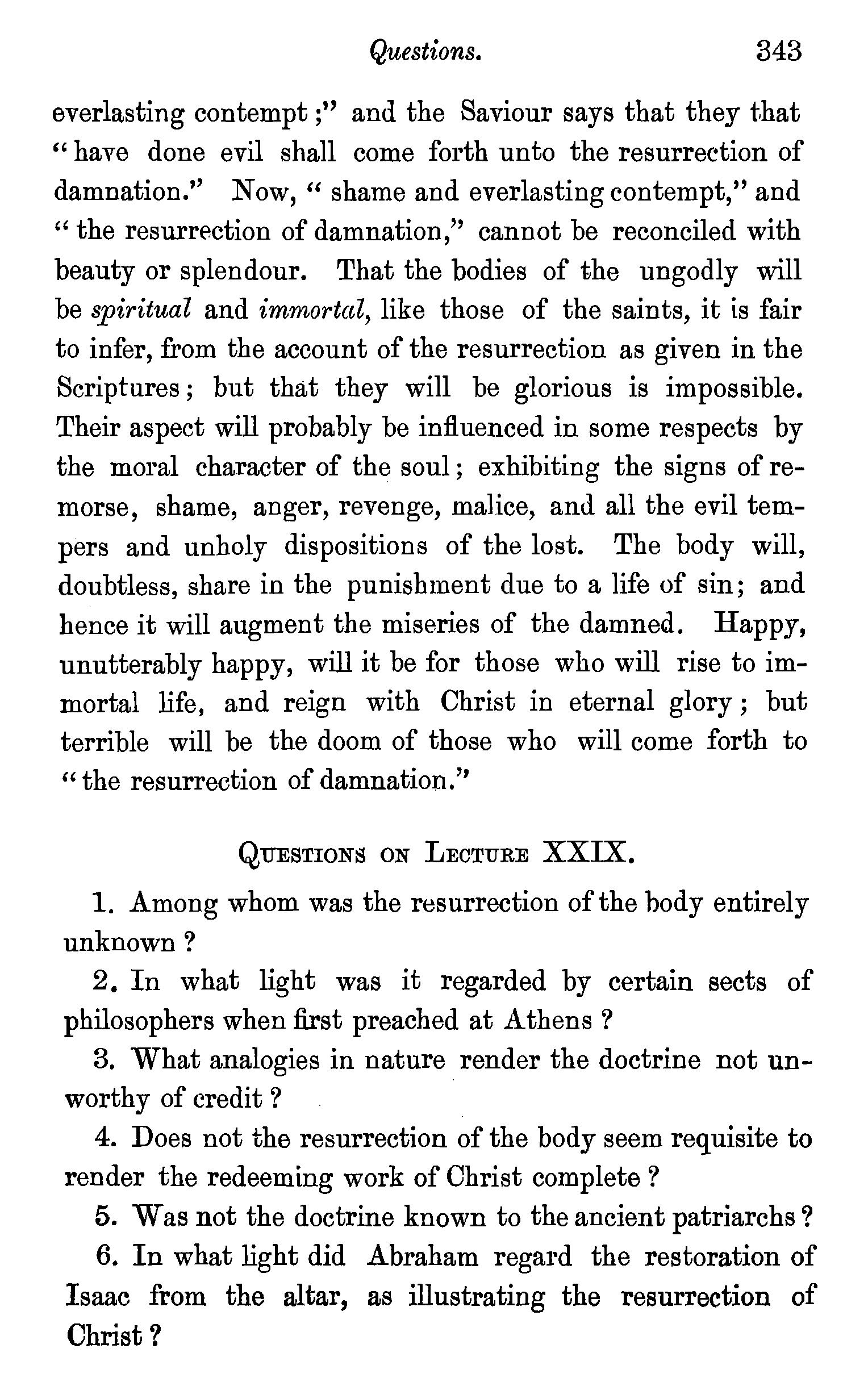
everlasting contempt ;" and the Saviour says that they that "have done evil shall come forth unto the resurrection of damnation.'' Now, " shame and everlasting contempt," and " the resurrection of damnation,'' cannot be reconciled with beauty or splendour. That the bodies of the ungodly will be spiritual and immortal, like those of the saints, it is fair to infer, from the account of the resurrection as given in the Scriptures; but that they will be glorious is impossible. Their aspect will probably be influenced in some respects by the moral character of the soul ; exhibiting the signs of remorse, shame, anger, revenge, malice, and all the evil tempers and unholy dispositions of the lost. The body will, doubtless, share in the punishment due to a life of sin; and hence it will augment the miseries of the damned. Happy, unutterably happy, will it be for those who will rise to immortal life, and reign with Christ in eternal glory ; but terrible will be the doom of those who will come forth to "the resurrection of damnation.''
1. Among whom was the resurrection of the body entirely unknown?
2. In what light was it regarded by certain sects of philosophers when first preached at Athens ?
3. What analogies in nature render the doctrine not unworthy of credit ?
4. Does not the resurrection of the body seem requisite to render the redeeming work of Christ complete ?
5. Was not the doctrine known to the ancient patriarchs?
6. In what light did Abraham regard the restoration of Isaac from the altar, as illustrating the resurrection of Christ?
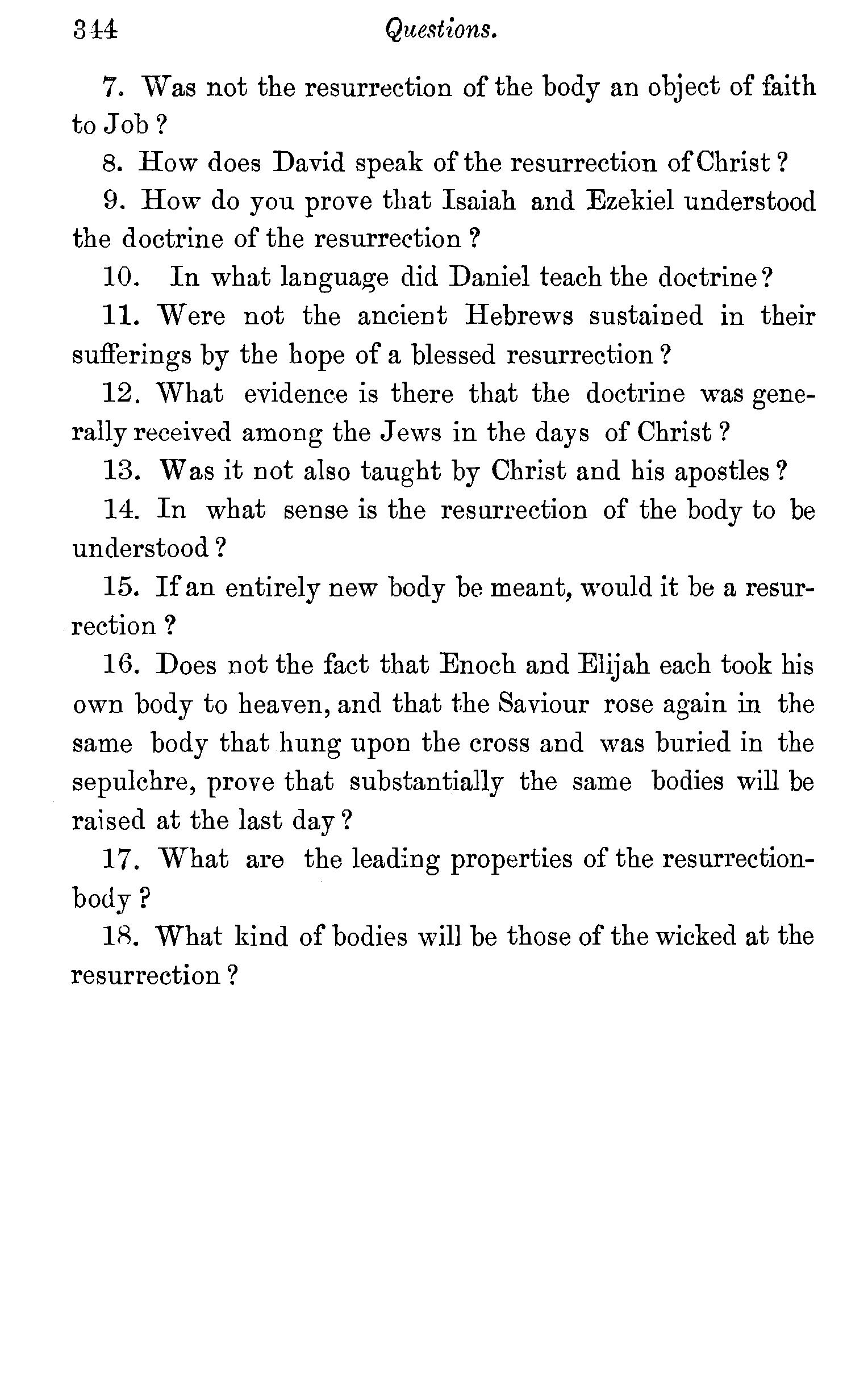
7. Was not the resurrection of the body an object of faith to Job?
8. How does David speak of the resurrection of Christ?
9. How do you prove that Isaiah and Ezekiel understood the doctrine of the resurrection ?
10. In what language did Daniel teach the doctrine?
11. Were not the ancient Hebrews sustained in their sufferings by the hope of a blessed resurrection?
12. What evidence is there that the doctrine was generally received among the Jews in the days of Christ?
13. Was it not also taught by Christ and his apostles ?
14. In what sense is the resurrection of the body to be understood ?
15. If an entirely new body be meant, would it be a resurrection?
16. Does not the fact that Enoch and Elijah each took his own body to heaven, and that the Saviour rose again in the same body that hung upon the cross and was buried in the sepulchre, prove that substantially the same bodies will be raised at the last day?
17. What are the leading properties of the resurrectionbody?
18. What kind of bodies will be those of the wicked at the resurrection ?
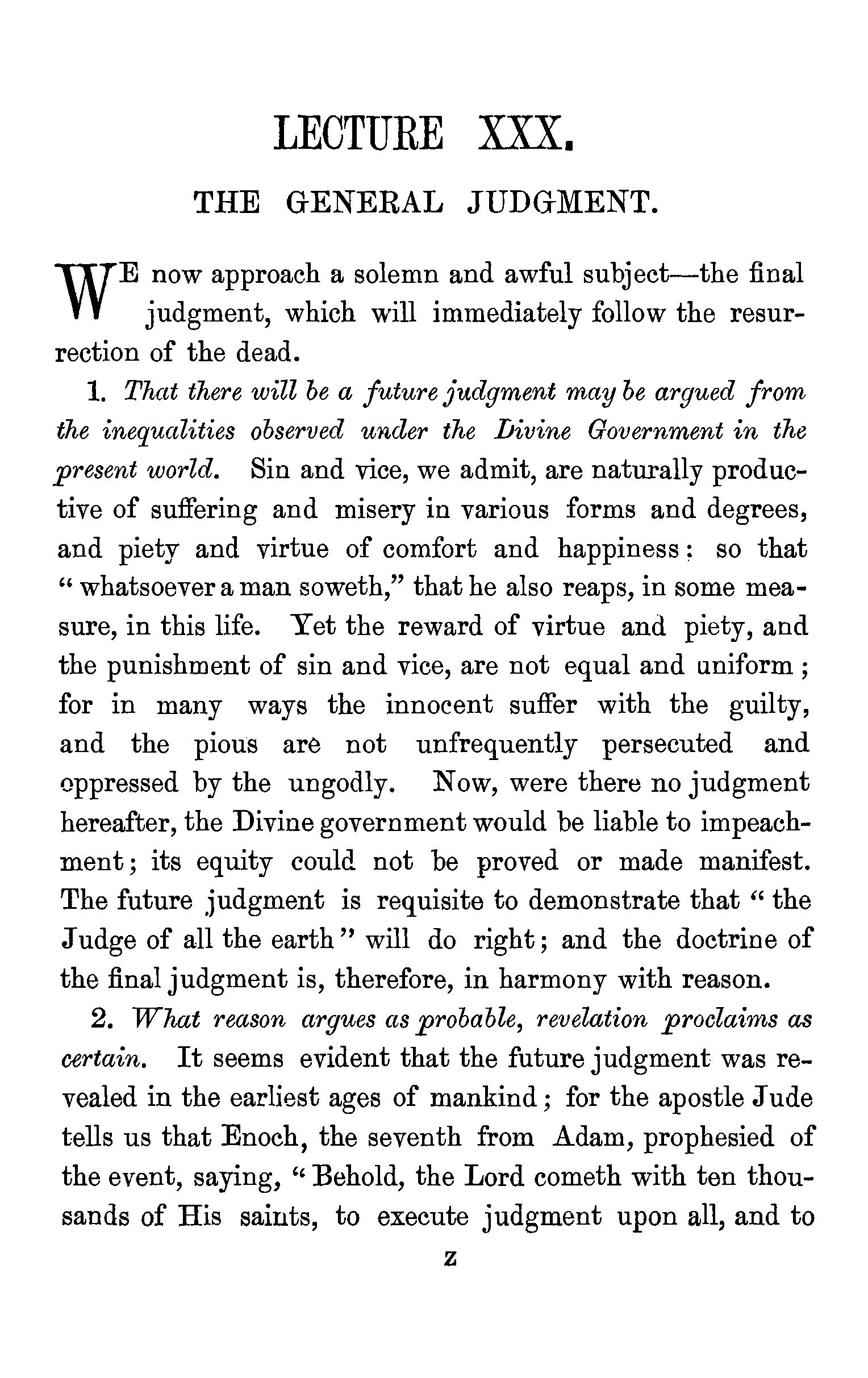
WE now approach a solemn and awful subject-the final judgment, which will immediately follow the resurrection of the dead.
1. That there will be a future judgment may be argued from the inequalities observed under the Divine Government in the present world. Sin and vice, we admit, are naturally productive of suffering and misery in various forms and degrees, and piety and virtue of comfort and happiness : so that " whatsoever a man soweth," that he also reaps, in some measure, in this life. Yet the reward of virtue and piety, and the punishment of sin and vice, are not equal and uniform ; for in many ways the innocent suffer with the guilty, and the pious are not unfrequently persecuted and oppressed by the ungodly. Now, were there no judgment hereafter, the Divine government would be liable to impeachment; its equity could not be proved or made manifest. The future judgment is requisite to demonstrate that "the Judge of all the earth" will do right; and the doctrine of the final judgment is, therefore, in harmony with reason.
2. What reason argues ctsprobable, revelation proclaims as certain. It seems evident that the future judgment was revealed in the earliest ages of mankind ; for the apostle Jude tells us that Enoch, the seventh from Adam, prophesied of the event, saying, '' Behold, the Lord cometh with ten thousands of His saints, to execute judgment upon all, and to z
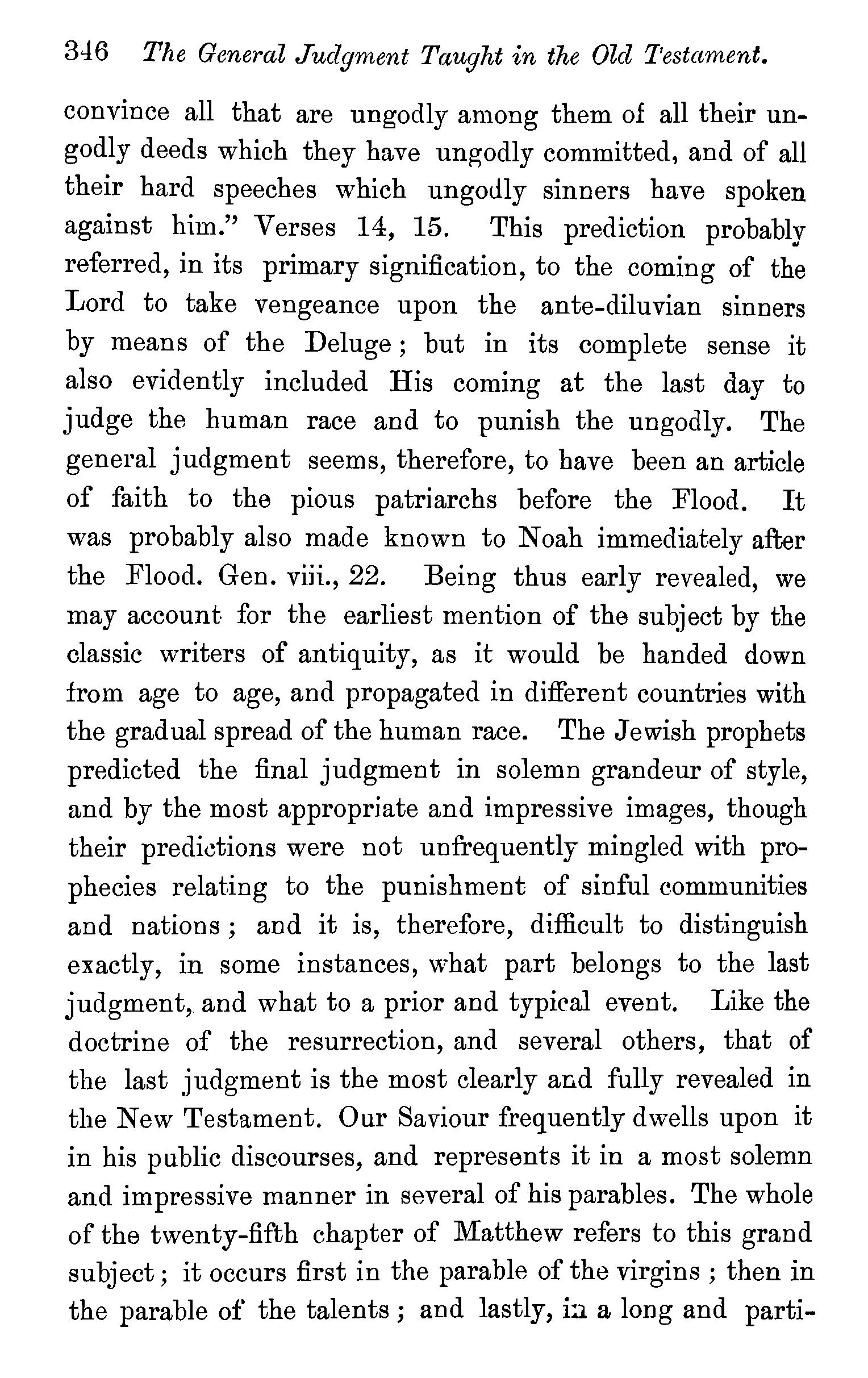
346 The General Judgment Taught in the Olcl 'I'estament.
convince all that are ungodly among them of all their ungodly deeds which they have ungodly committed, and of all their hard speeches which ungodly sinners have spoken against him.'' Verses 14, 15. This prediction probably referred, in its primary signification, to the coming of the Lord to take vengeance upon the ante-diluvian sinners by means of the Deluge; but in its complete sense it also evidently included His coming at the last day to judge the human race and to punish the ungodly. The general judgment seems, therefore, to have been an article of faith to the pious patriarchs before the Flood. It was probably also made known to Noah immediately after the Flood. Gen. viii., 22. Being thus early revealed, we may account for the earliest mention of the subject by the classic writers of antiquity, as it would be handed down from age to age, and propagated in different countries with the gradual spread of the human race. The Jewish prophets predicted the final judgment in solemn grandeur of style, and by the most appropriate and impressive images, though their predietions were not unfrequently mingled with prophecies relating to the punishment of sinful communities and nations ; and it is, therefore, difficult to distinguish exactly, in some instances, what part belongs to the last judgment, and what to a prior and typical event. Like the doctrine of the resurrection, and several others, that of the last judgment is the most clearly arid fully revealed in the New Testament. Our Saviour frequently dwells upon it in his public discourses, and represents it in a most solemn and impressive manner in several of his parables. The whole of the twenty-fifth chapter of Matthew refers to this grand subject; it occurs first in the parable of the virgins ; then in the parable of the talents ; and lastly, i::.la long and parti-
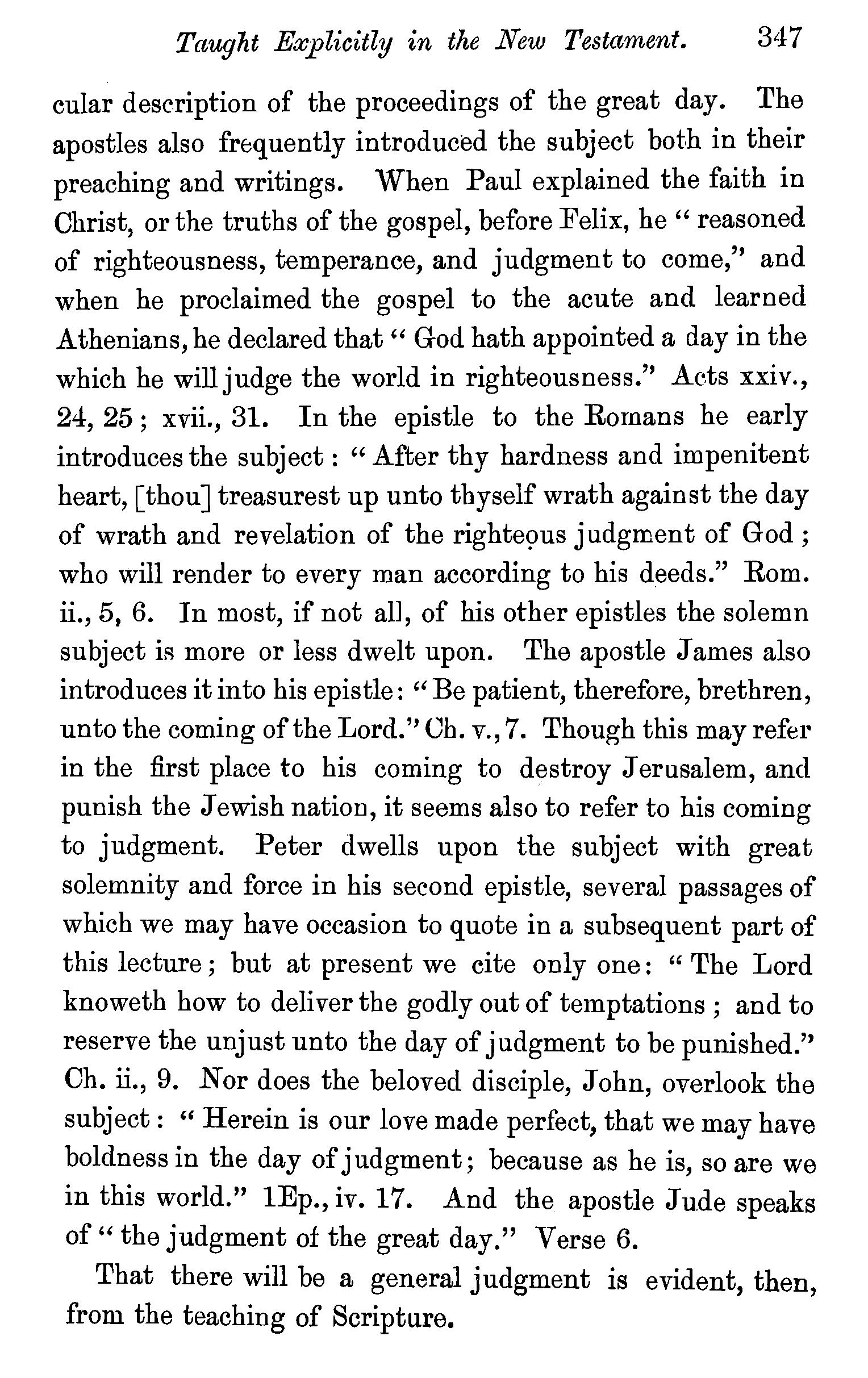
cular description of the proceedings of the great day. The apostles also frtquently introduced the subject both in their preaching and writings. When Paul explained the faith in Christ, or the truths of the gospel, before Felix, he " reasoned of righteousness, temperance, and judgment to come," and when he proclaimed the gospel to the acute and learned Athenians, he declared that" God hath appointed a day in the which he willjudge the world in righteousness.'' Acts xxiv., 24, 25; xvii., 31. In the epistle to the Romans he early introduces the subject : "After thy hardness and impenitent heart, [thou J treasurest up unto thyself wrath against the day of wrath and revelation of the righte~ms judgment of God ; who will render to every man according to his deeds." Rom. ii., 5, 6. In most, if not all, of his other epistles the solemn subject is more or less dwelt upon. The apostle James also introduces it into his epistle: "Be patient, therefore, brethren, unto the coming of the Lord.'' Ch. v., 7. Though this may refer in the first place to his coming to destroy Jerusalem, and punish the Jewish nation, it seems also to refer to his coming to judgment. Peter dwells upon the subject with great solemnity and force in his second epistle, several passages of which we may have occasion to quote in a subsequent part of this lecture; but at present we cite only one: " The Lord knoweth how to deliver the godly out of temptations; and to reserve the unjust unto the day of judgment to be punished.,, Ch. ii., 9. Nor does the beloved disciple, John, overlook the subject: " Herein is our love made perfect, that we may have boldness in the day of judgment; because as he is, so are we in this world." lEp., iv. 17. And the apostle Jude speaks of" the judgment of the great day." Verse 6. That there will be a general judgment is evident, then, from the teaching of Scripture.
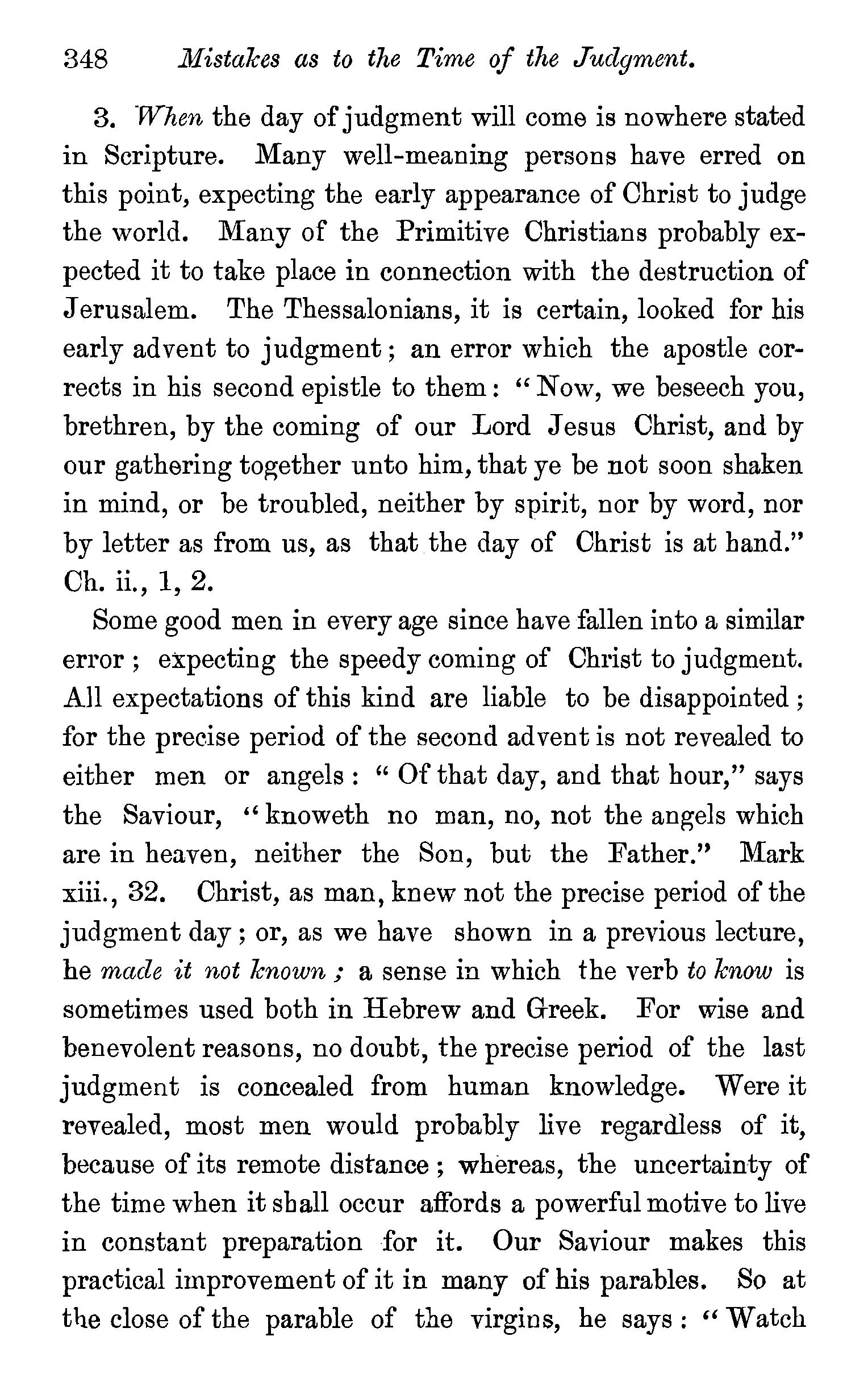
1.lfistalces as to the Time of the Juclgment.
3. ·when the day of judgment will come is nowhere stated in Scripture. Many well-meaning pel'sons have erred on this point, expecting the early appearance of Christ to judge the world. Many of the Primitive Christians probably expected it to take place in connection with the destruction of Jerusalem. The Thessalonians, it is certain, looked for his early advent to judgment; an error which the apostle corrects in his second epistle to them: "Now, we beseech you, brethren, by the coming of our Lord Jesus Christ, and by our gathering together unto him, that ye be not soon shaken in mind, or be troubled, neither by spirit, nor by word, nor by letter as from us, as that the day of Christ is at hand." Ch. ii., 1, 2.
Some good men in every age since have fallen into a similar error; expecting the speedy coming of Christ to judgment. All expectations of this kind are liable to be disappointed ; for the precise period of the second advent is not revealed to either men or angels : " Of that day, and that hour," says the Saviour, '' knoweth no man, no, not the angels which are in heaven, neither the Son, but the Father." Mark xiii., 32. Christ, as man, knew not the precise period of the judgment day; or, as we have shown in a previous lecture, he made it not known; a sense in which the verb to lcnow is sometimes used both in Hebrew and Greek. For wise and benevolent reasons, no doubt, the precise period of the last judgment is concealed from human knowledge. Were it revealed, most men would probably live regardless of it, because of its remote distance ; whereas, the uncertainty of the time when it shall occur affords a powerful motive to live in constant preparation for it. Our Saviour makes this practical improvement of it in many of his parables. So at tlie close of the parable of the virgins, he says : "Watch
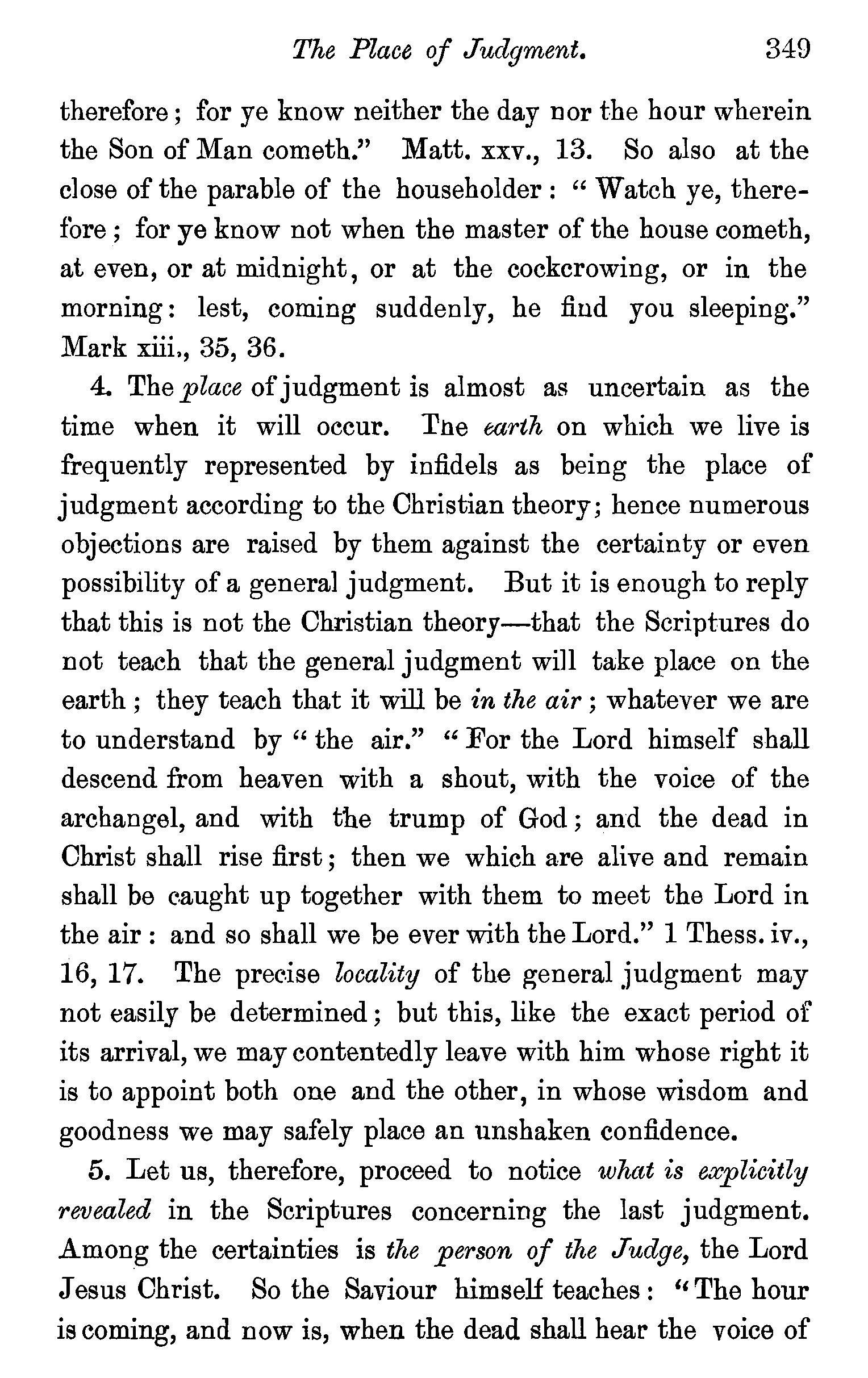
therefore; for ye know neither the day nor the hour wherein the Son of Man cometh." Matt. xxv., 13. So also at the close of the parable of the householder : " Watch ye, therefore ; for ye know not when the master of the house cometh, at even, or at midnight, or at the cockcrowing, or in the morning: lest, coming suddenly, he find you sleeping." Mark xiii,, 35, 36.
4. The place of judgment is almost as uncertain as the time when it will occur. 1:he earth on which we live is frequently represented by infidels as being the place of judgment according to the Christian theory; hence numerous objections are raised by them against the certainty or even possibility of a general judgment. But it is enough to reply that this is not the Christian theory-that the Scriptures do not teach that the general judgment will take place on the earth; they teach that it will be in the air; whatever we are to understand by "the air." "For the Lord himself shall descend from heaven with a shout, with the voice of the archangel, and with the trump of God ; and the dead in Christ shall rise first; then we which are alive and remain shall be c.aught up together with them to meet the Lord in the air : and so shall we be ever with the Lord." 1 Thess. iv., 16, 17. The precise locality of the general judgment may not easily be determined; but this, like the exact period of its arrival, we may contentedly leave with him whose right it is to appoint both one and the other, in whose wisdom and goodness we may safely place an unshaken confidence.
5. Let us, therefore, proceed to notice whctt is explicitly revealed in the Scriptures concerning the last judgment. Among the certainties is the person of the Judge, the Lord Jesus Christ. So the Saviour himself teaches : '' The hour is coming, and now is, when the dead shall hear the voice of
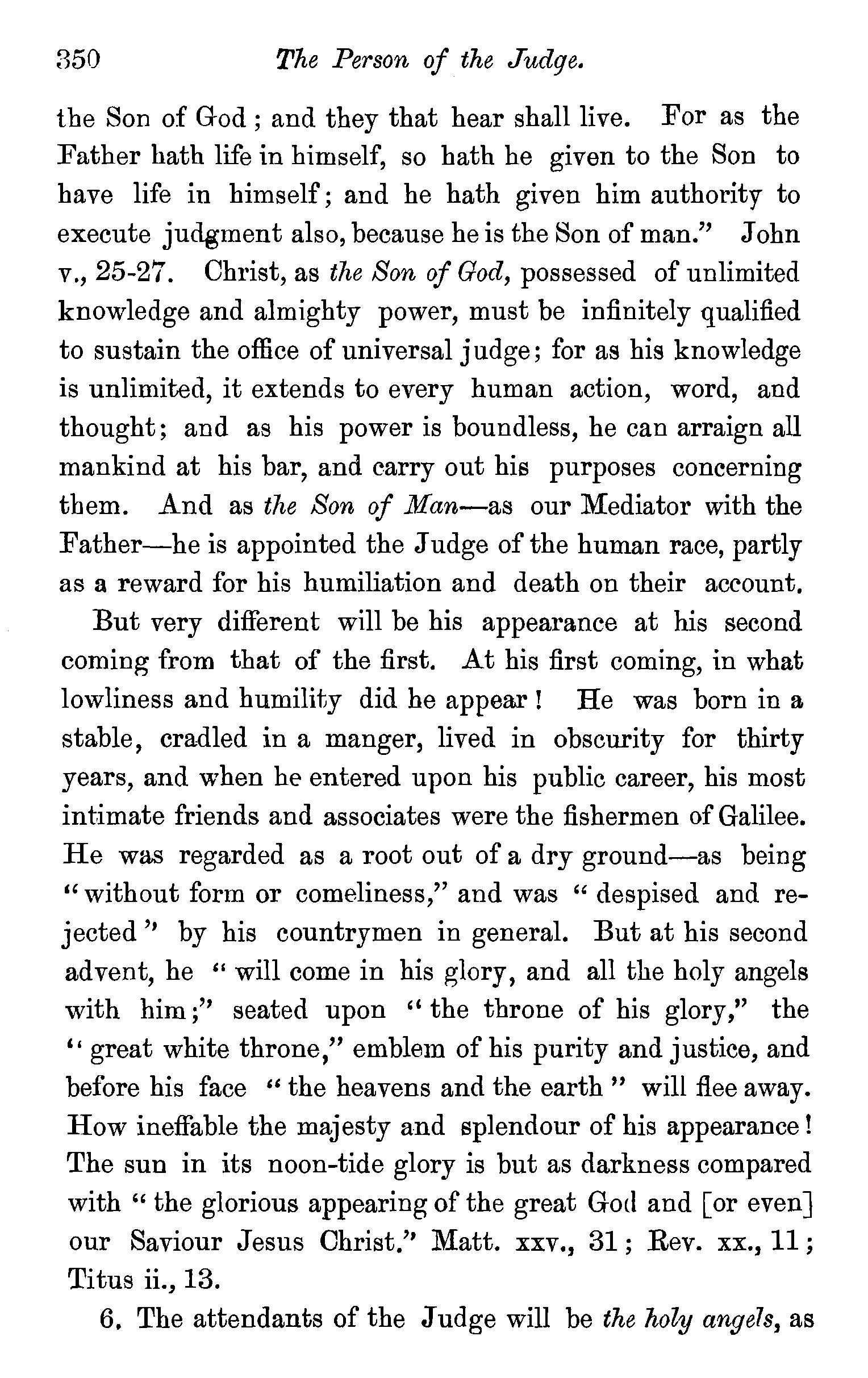
the Son of God; and they that hear shall live. For as the Father hath life in himself, so bath he given to the Son to have life in himself; and he hath given him authority to execute judgment also, because be is the Son of man." John v ., 25-27. Christ, as the Son of God, possessed of unlimited knowledge and almighty power, must be infinitely qualified to sustain the office of universal judge; for as his knowledge is unlimited, it extends to every human action, word, and thought; and as his power is boundless, he can arraign all mankind at his bar, and carry out his purposes concerning them. And as the Son of Man-as our Mediator with the Father-he is appointed the Judge of the human race, partly as a reward for his humiliation and death on their account. But very different will be his appearance at his second coming from that of the first. At his first coming, in what lowliness and humility did he appear ! He was born in a stable, cradled in a manger, lived in obscurity for thirty years, and when he entered upon his public career, his most intimate friends and associates were the :fishermen of Galilee. He was regarded as a root out of a dry ground-as being "without form or comeliness," and was " despised and rejected'' by his countrymen in general. But at his second advent, he "will come in his glory, and all the holy angels with him;'' seated upon " the throne of his glory," the '' great white throne," emblem of his purity and justice, and before his face "the heavens and the earth" will flee away. How ineffable the majesty and splendour of his appearance ! The sun in its noon-tide glory is but as darkness compared with " the glorious appearing of the great God and [ or evenJ our Saviour Jesus Christ.'' Matt. xxv., 31 ; Rev. xx., 11; Titus ii., 13.
6, The attendants of the Judge will be the holy angels, as
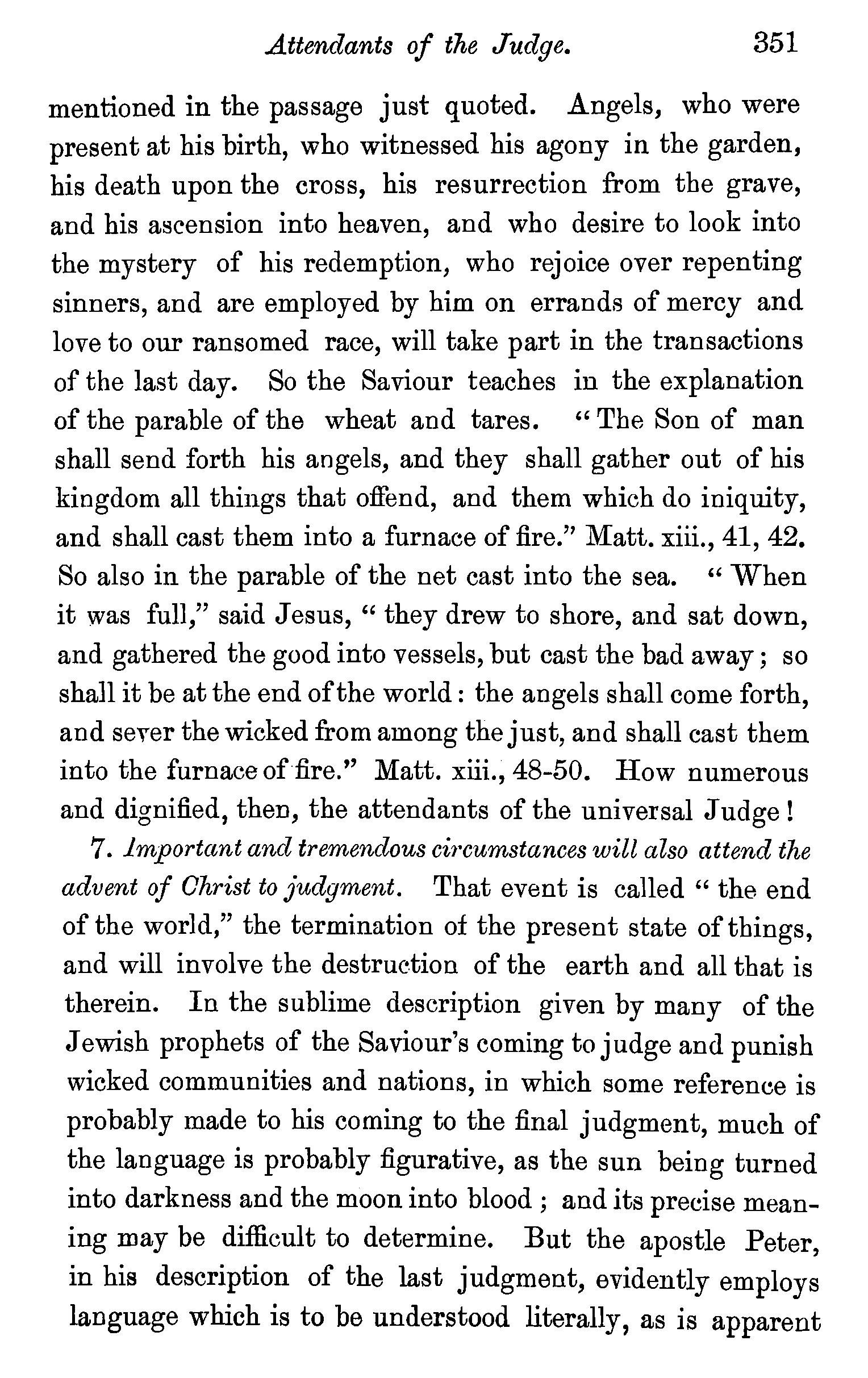
mentioned in the passage just quoted. Angels, who were present at his birth, who witnessed his agony in the garden, his death upon the cross, his resurrection from the grave, and his ascension into heaven, and who desire to look into the mystery of his redemption, who rejoice over repenting sinners, and are employed by him on errands of mercy and love to our ransomed race, will take part in the transactions of the last day. So the Saviour teaches in the explanation of the parable of the wheat and tares. "The Son of man shall send forth his angels, and they shall gather out of his kingdom all things that offend, and them which do iniquity, and shall cast them into a furnace of fire." Matt. xiii., 41, 42. So also in the parable of the net cast into the sea. " When it was full," said Jesus, "they drew to shore, and sat down, and gathered the good into vessels, but cast the bad away; so shall it be at the end of the world: the angels shall come forth, and sever the wicked from among the just, and shall cast them into the furnace offire." Matt. xiii., 48-50. How numerous and dignified, then, the attendants of the universal Judge!
7. important and tremendous circumstances will also attend the advent of Christ to judgment. That event is called " the end of the world," the termination of the present state of things, and will involve the destruction of the earth and all that is therein. In the sublime description given by many of the Jewish prophets of the Saviour's coming to judge and punish wicked communities and nations, in which some reference is probably made to his coming to the final judgment, much of the language is probably :figurative, as the sun being turned into darkness and the moon into blood ; and its precise meaning may be difficult to determine. But the apostle Peter, in his description of the last judgment, evidently employs language which is to be understood literally, as is apparent
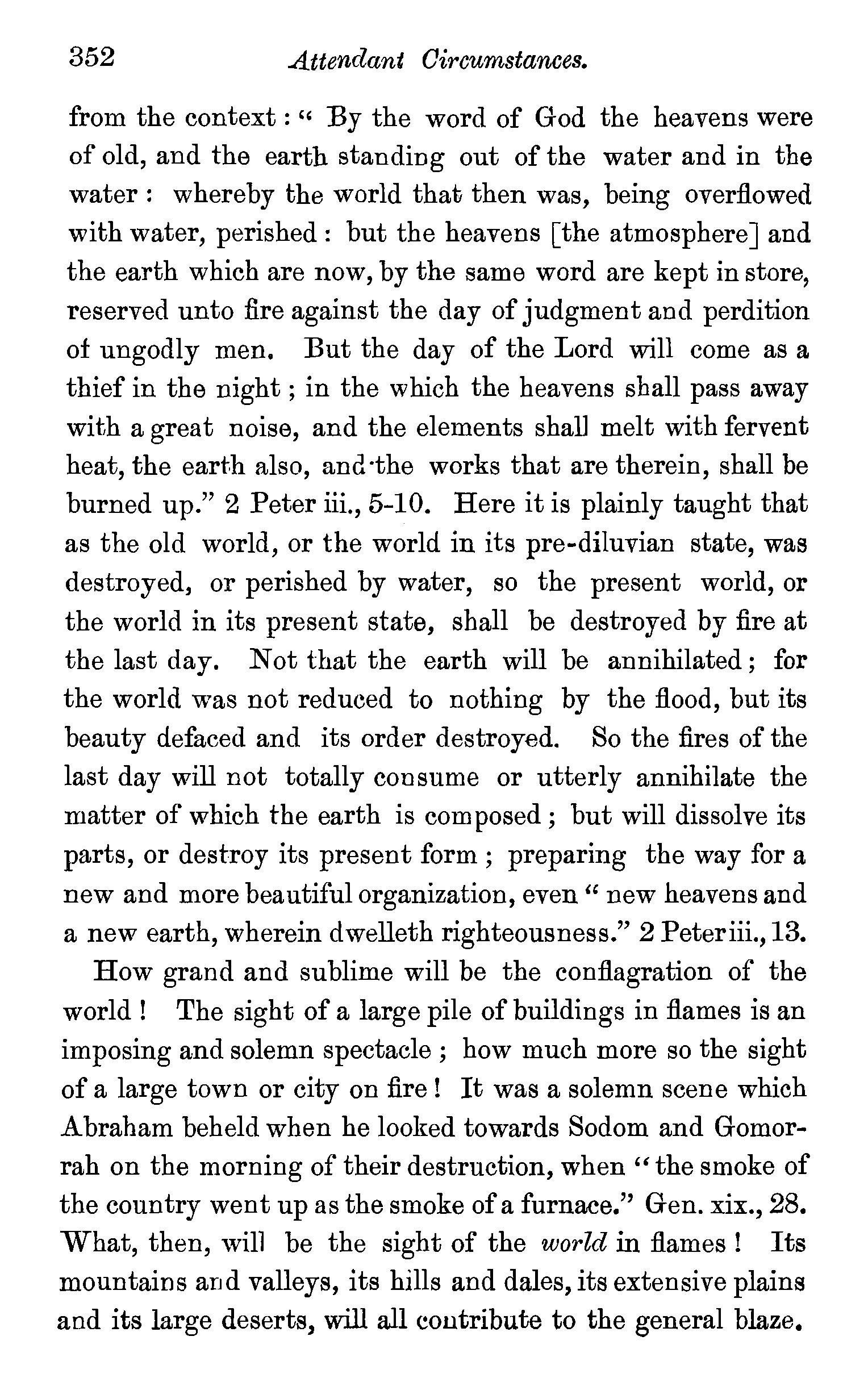
from the context : " By the word of God the heavens were of old, and the earth standing out of the water and in the water: whereby the world that then was, being overflowed with water, perished: but the heavens [the atmosphere J and the earth which are now, by the same word are kept in store, reserved unto fire against the day of judgment and perdition of ungodly men. But the day of the Lord will come as a thief in the night ; in the which the heavens shall pass away with a great noise, and the elements shall melt with fervent heat, the earth also, and ·the works that are therein, shall be burned up." 2 Peter iii., 5-10. Here it is plainly taught that as the old world, or the world in its pre-diluvian state, was destroyed, or perished by water, so the present world, or the world in its present state, shall be destroyed by fire at the last day. Not that the earth will be annihilated; for the world was not reduced to nothing by the flood, but its beauty defaced and its order destroyed. So the fires of the last day will not totally consume or utterly annihilate the matter of which the earth is composed; but will dissolve its parts, or destroy its present form ; preparing the way for a new and more beautiful organization, even " new heavens and a new earth, wherein dwelleth righteousness." 2 Peteriii., 13.
How grand and sublime will be the conflagration of the world ! The sight of a large pile of buildings in flames is an imposing and solemn spectacle; how much more so the sight of a large town or city on fire ! It was a solemn scene which Abraham beheld when he looked towards Sodom and Gomorrah on the morning of their destruction, when "the smoke of the country went up as the smoke of a furnace.'' Gen. xix., 28. What, then, will be the sight of the world in flames! Its mountains and valleys, its hills and dales, its extensive plains and its large deserts, will all contribute to the general blaze.
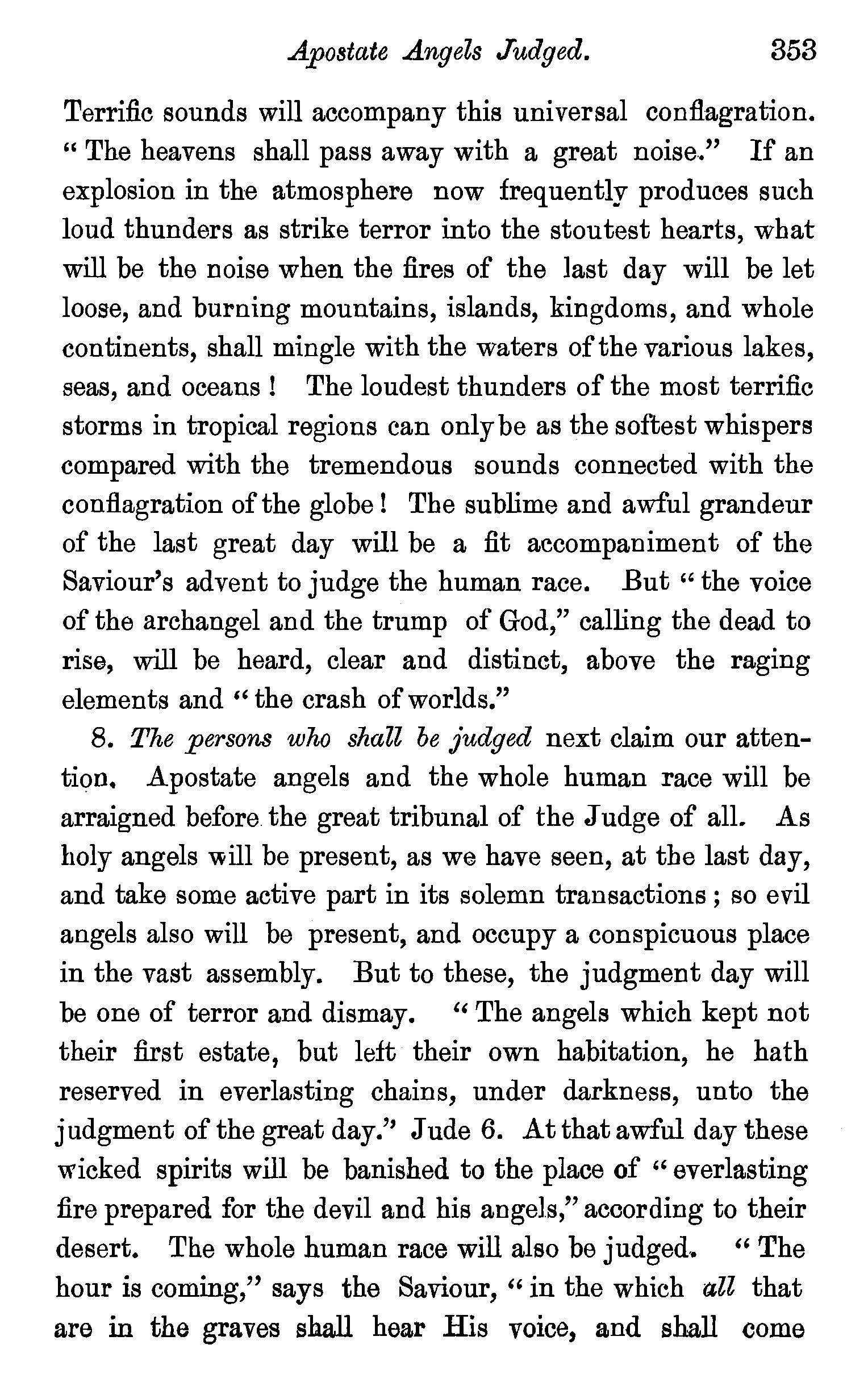
Terrific sounds will accompany this universal conflagration. "The heavens shall pass away with a great noise." If an explosion in the atmosphere now frequently produces such loud thunders as strike terror into the stoutest hearts, what will be the noise when the fires of the last day will be let loose, and burning mountains, islands, kingdoms, and whole continents, shall mingle with the waters of the various lakes, seas, and oceans ! The loudest thunders of the most terrific storms in tropical regions can only be as the softest whispers compared with the tremendous sounds connected with the conflagration of the globe ! The sublime and awful grandeur of the last great day will be a fit accompaniment of the Saviour's advent to judge the human race. But "the voice of the archangel and the trump of God," calling the dead to rise, will be heard, clear and distinct, above the raging elements and " the crash of worlds."
8. The persons who shall be judged next claim our attention. Apostate angels and the whole human race will be arraigned before the great tribunal of the Judge of all. As holy angels will be present, as we have seen, at the last day, and take some active part in its solemn transactions; so evil angels also will be present, and occupy a conspicuous place in the vast assembly. But to these, the judgment day will be one of terror and dismay. " The angels which kept not their first estate, but left their own habitation, he hath reserved in everlasting chains, under darkness, unto the judgment of the great day.'' Jude 6. At that awful day these wicked spirits will be banished to the place of " everlasting fire prepared for the devil and his angels," according to their desert. The whole human race will also be judged,. "The hour is coming," says the Saviour, " in the which all that are in the graves shall hear His voice, and shall come
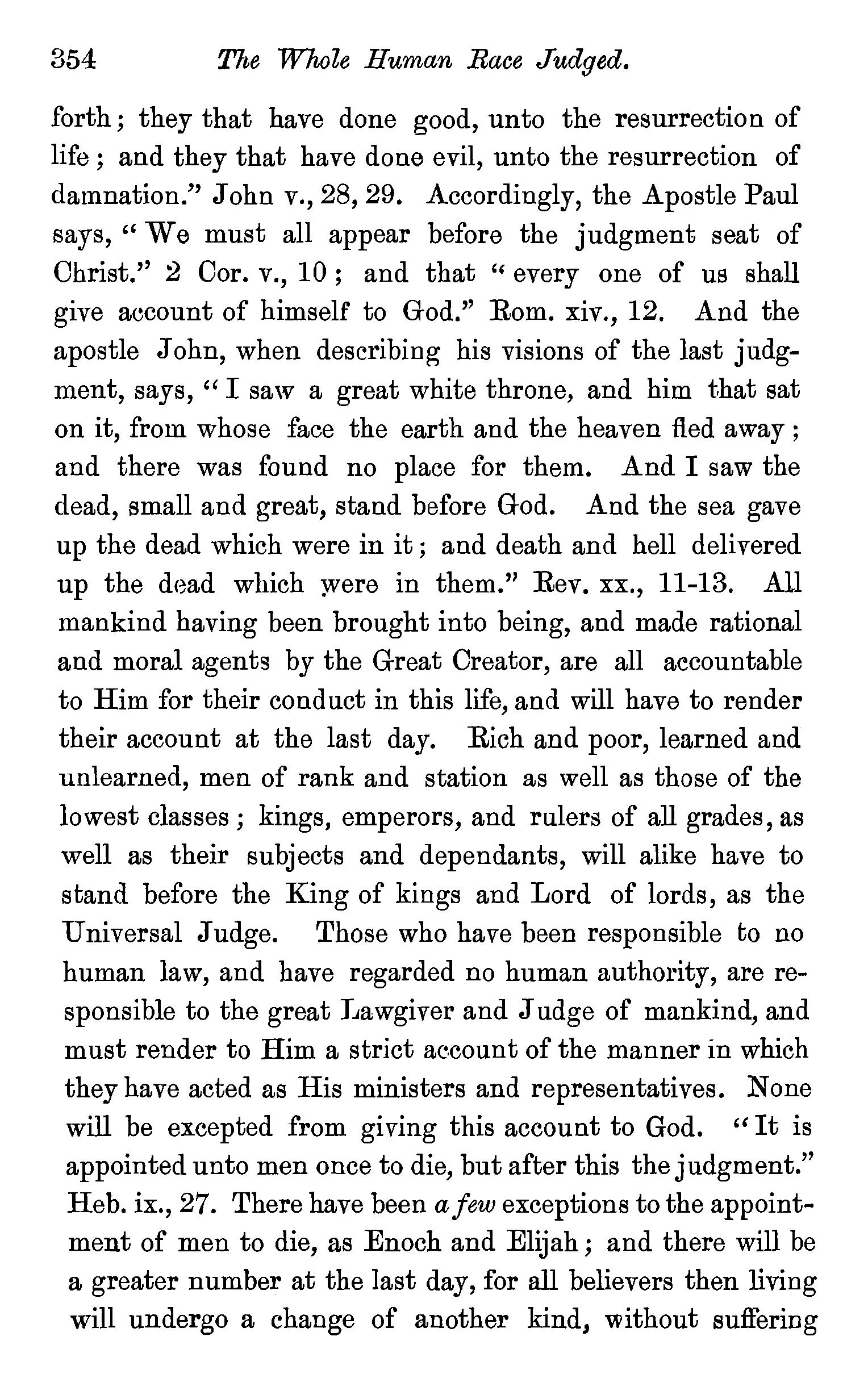
forth; they that have done good, unto the resurrection of life; and they that have done evil, unto the resurrection of damnation.'' John v., 28, 29. Accordingly, the Apostle Paul says, " We must all appear before the judgment seat of Christ.'' 2 Oor. v., 10; and that "every one of us shall give account of himself to God." Rom. xiv., 12. And the apostle John, when describing his visions of the last judgment, says, "I saw a great white throne, and him that sat on it, from whose face the earth and the heaven fled away; and there was found no place for them. And I saw the dead, small and great, stand before God. And the sea gave up the dead which were in it; and death and hell delivered up the dead which }Vere in them." Rev. xx., 11-13. All mankind having been brought into being, and made rational and moral agents by the Great Creator, are all accountable to Him for their conduct in this life, and will have to render their account at the last day. Rich and poor, learned and unlearned, men of rank and station as well as those of the lowest classes; kings, emperors, and rulers of all grades, as well as their subjects and dependants, will alike have to stand before the King of kings and Lord of lords, as the Universal Judge. Those who have been responsible to no human law, and have regarded no human authority, are responsible to the great Lawgiver and Judge of mankind, and must render to Him a strict account of the manner in which they have acted as His ministers and representatives. None will be excepted from giving this account to God. "It is appointed unto men once to die, but after this the judgment." Heb. ix., 27. There have been a few exceptions to the appointment of men to die, as Enoch and Elijah; and there will be a greater number at the last day, for all believers then living will undergo a change of another kind, without suffering
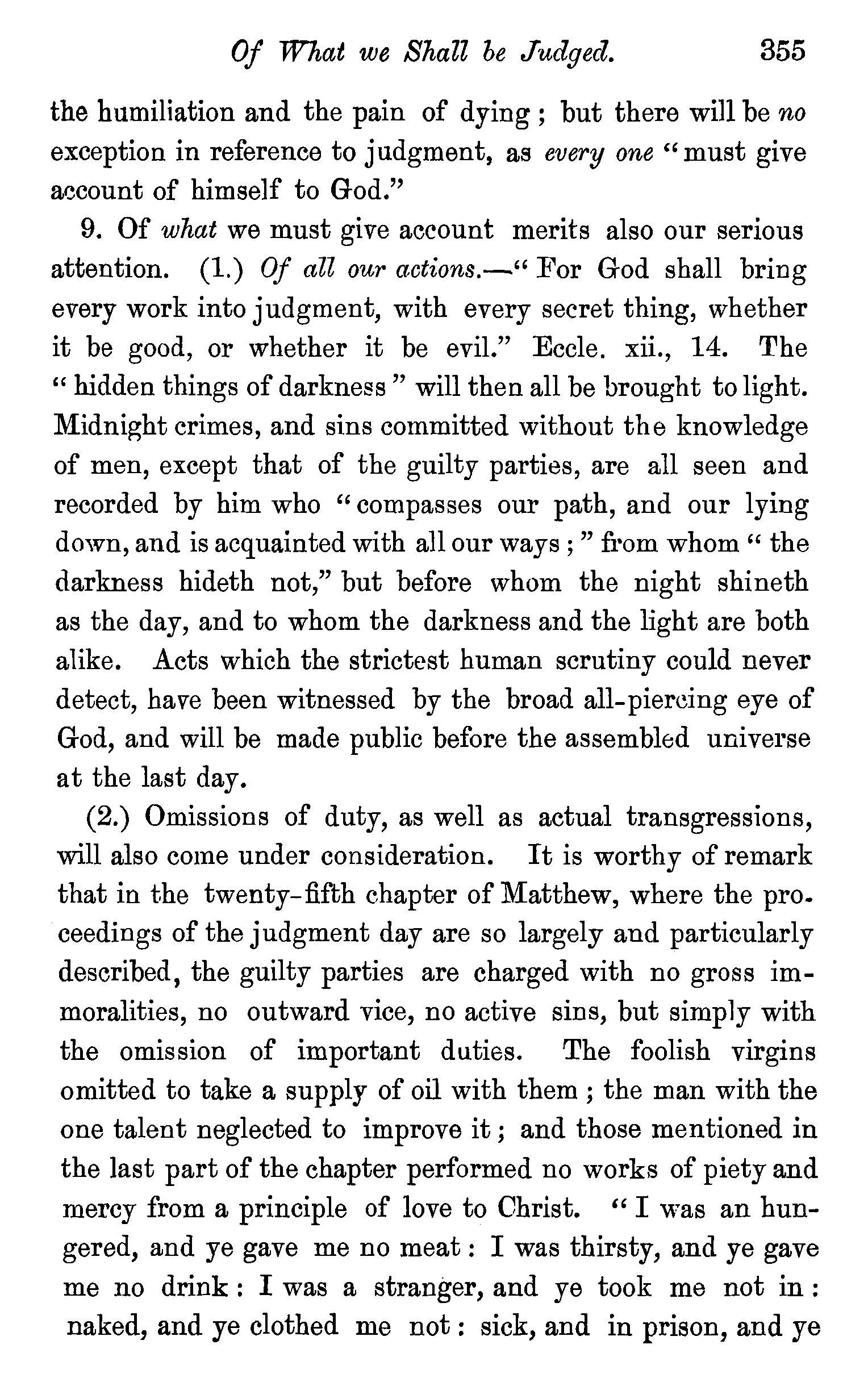
the humiliation and the pain of dying ; but there will be no exception in reference to judgment, as every one" must give account of himself to God."
9. Of what we must give account merits also our serious attention. (1.) Of all our actions.-" For God shall bring every work into judgment, with every secret thing, whether it be good, or whether it be evil." Eccle. xii., 14. The "hidden things of darkness" will then all be brought to light. Midnight crimes, and sins committed without the knowledge of men, except that of the guilty parties, are all seen and recorded by him who "compasses our path, and our lying down, and is acquainted with all our ways ; " from whom " the darkness hideth not," but before whom the night shineth as the day, and to whom the darkness and the light are both alike. Acts which the strictest human scrutiny could never detect, have been witnessed by the broad all-piercing eye of God, and will be made public before the assemblEid universe at the last day.
(2.) Omissions of duty, as well as actual transgressions, will also come under consideration. It is worthy of remark that in the twenty-fifth chapter of Matthew, where the pro. ceedings of the judgment day are so largely and particularly described, the guilty parties are charged with no gross immoralities, no outward vice, no active sins, but simply with the omission of important duties. The foolish virgins omitted to take a supply of oil with them ; the man with the one talent neglected to improve it; and those mentioned in the last part of the chapter performed no works of piety and mercy from a principle of love to Christ. "I was an hungered, and ye gave me no meat : I was thirsty, and ye gave me no drink: I was a stranger, and ye took me not in: naked, and ye clothed me not : sick, and in prison, and ye
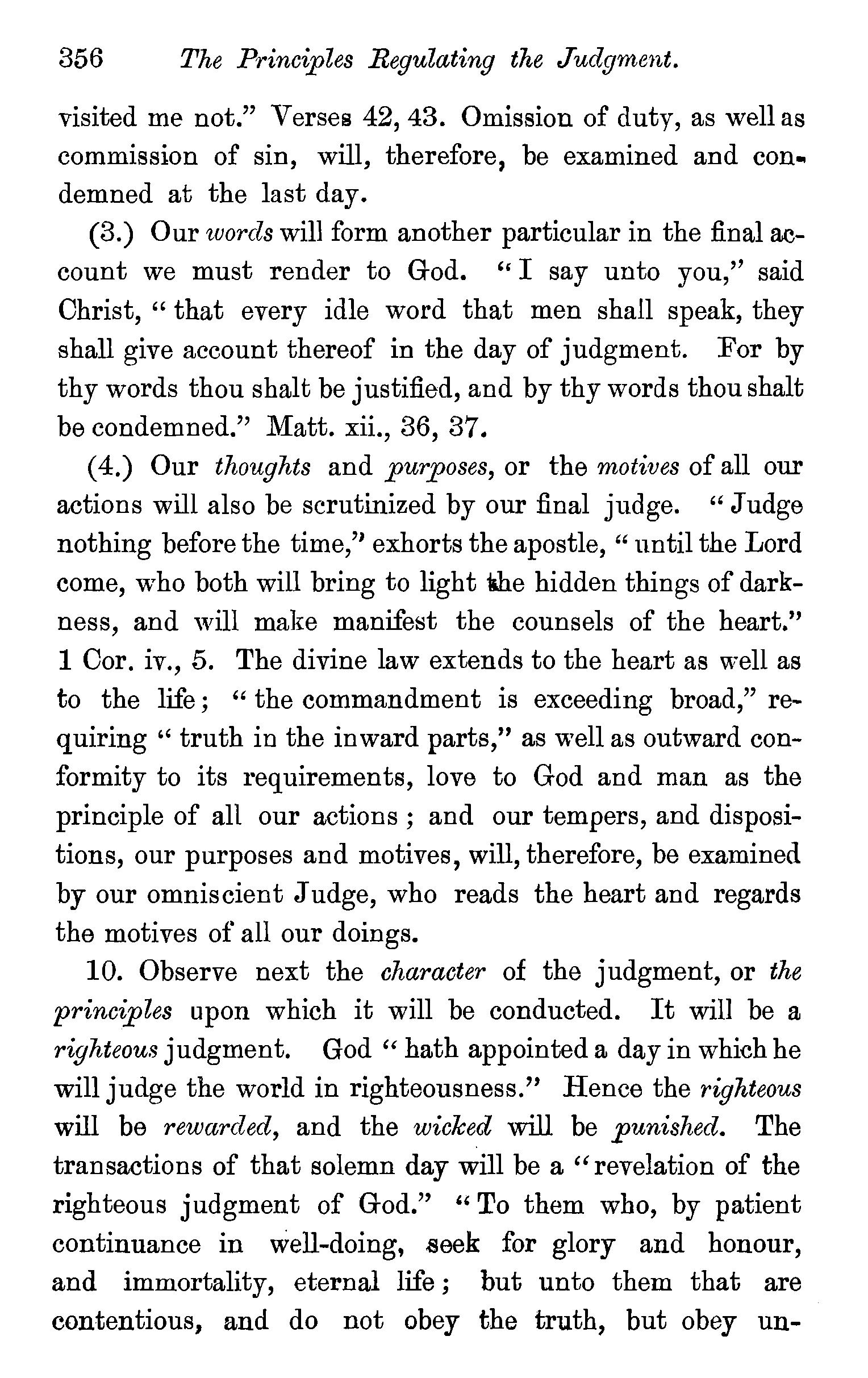
visited me not." Verses 42, 43. Omission of duty, as well as commission of sin, will, therefore, be examined and con .. demned at the last day.
(3.) Our words will form another particular in the final account we must render to God. '' I say unto you,'' said Christ, " that every idle word that men shall speak, they shall give account thereof in the day of judgment. For by thy words thou shalt be justified, and by thy words thou shalt be condemned.'' Matt. xii., 36, 37.
(4.) Our thoughts and purposes, or the motives of all our actions will also be scrutinized by our final judge. " Judge nothing before the time,'' exhorts the apostle, "until the Lord come, who both will bring to light ii.hehidden things of darkness, and Vi'ill make manifest the counsels of the heart." 1 Cor. iv., 5. The divine law extends to the heart as well as to the life; " the commandment is exceeding broad," requiring " truth in the inward parts," as well as outward conformity to its requirements, love to God and man as the principle of all our actions; and our tempers, and dispositions, our purposes and motives, will, therefore, be examined by our omniscient Judge, who reads the heart and regards the motives of all our doings.
10. Observe next the character of the judgment, or the principles upon which it will be conducted. It will be a righteous judgment. God "hath appointed a day in which he will judge the world in righteousness." Hence the righteous will be rewarded, and the wicked will be punished. The transactions of that solemn day will be a "revelation of the righteous judgment of God." " To them who, by patient continuance in well-doing, .seek for glory and honour, and immortality, eternal life; but unto them that are contentious, and do not obey the truth, but obey un-
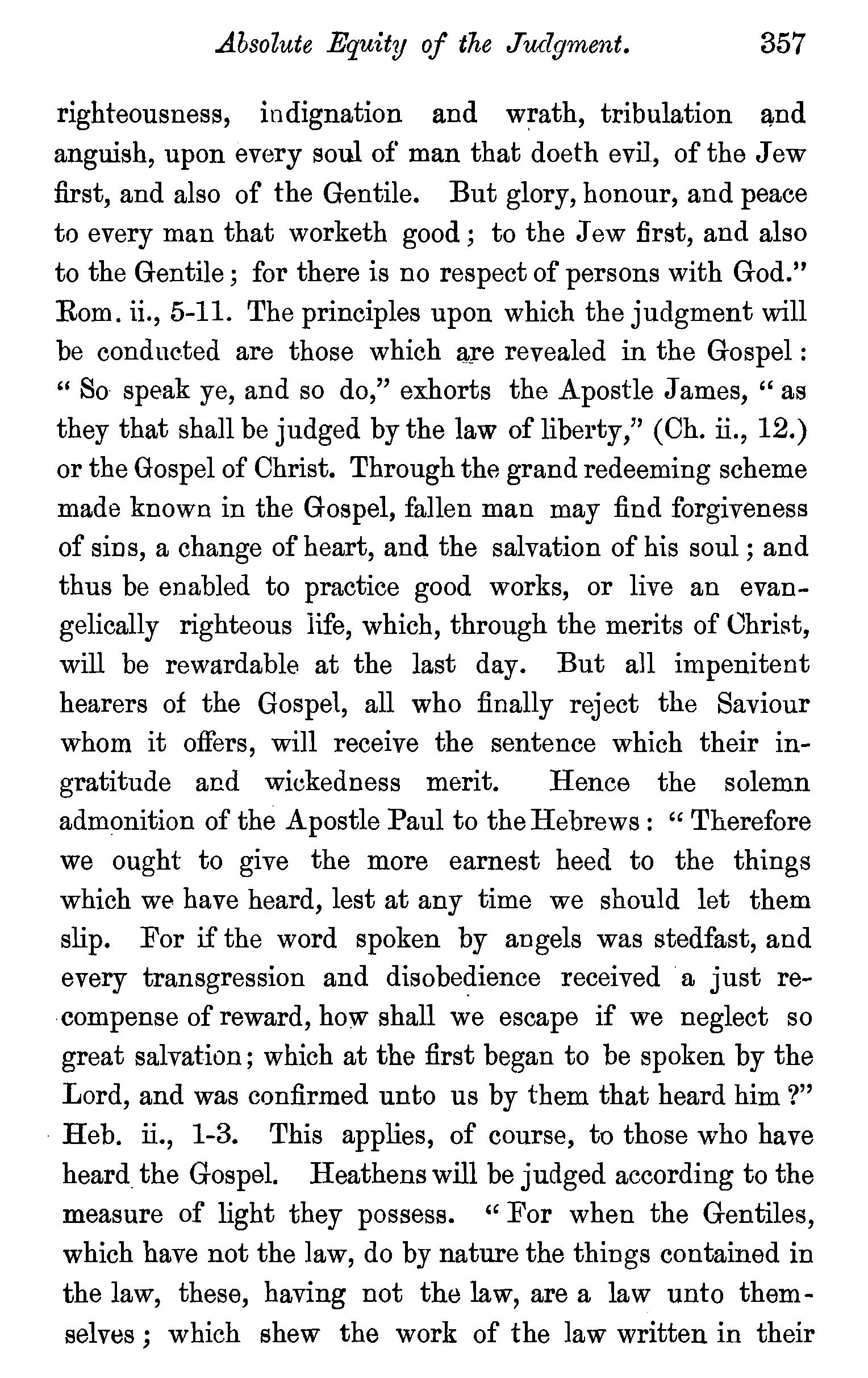
righteousness, indignation and wrath, tribulation {\ind anguish, upon every soul of man that doeth evil, of the Jew first, and also of the Gentile. But glory, honour, and peace to every man that worketh good ; to the Jew first, and also to the Gentile; for there is no respect of persons with God." Rom. ii., 5-11. The principles upon which the judgment will be conducted are those which a.re revealed in the Gospel: " So speak ye, and so do," exhorts the Apostle James, " as they that shall be judged by the law of liberty," (Ch. ii., 12.) or the Gospel of Christ. Through the grand redeeming scheme made known in the Gospel, fallen man may find forgiveness of sins, a change of heart, and the salvation of his soul ; and thus be enabled to practice good works, or live an evangelically righteous iife, which, through the merits of Chri1:1t, will be rewardable at the last day. But all impenitent hearers of the Gospel, all who finally reject the Saviour whom it offers, will receive the sentence which their ingratitude and wickedness merit. Hence the solemn admonition of the Apostle Paul to the Hebrews: "Therefore we ought to give the more earnest heed to the things which we have heard, lest at any time we should let them slip. For if the word spoken by angels was stedfast, and every transgression and disobedience received a just recompense of reward, how shall we escape if we neglect so great salvation; which at the first began to be spoken by the Lord, and was confirmed unto us by them that heard him ?" Heb. ii., 1-3. This applies, of course, to those who have heard the Gospel. Heathens will be judged according to the measure of light they possess. " For when the Gentiles, which have not the law, do by nature the things contained in the law, these, having not the law, are a law unto themselves; which shew the work of the law written in their
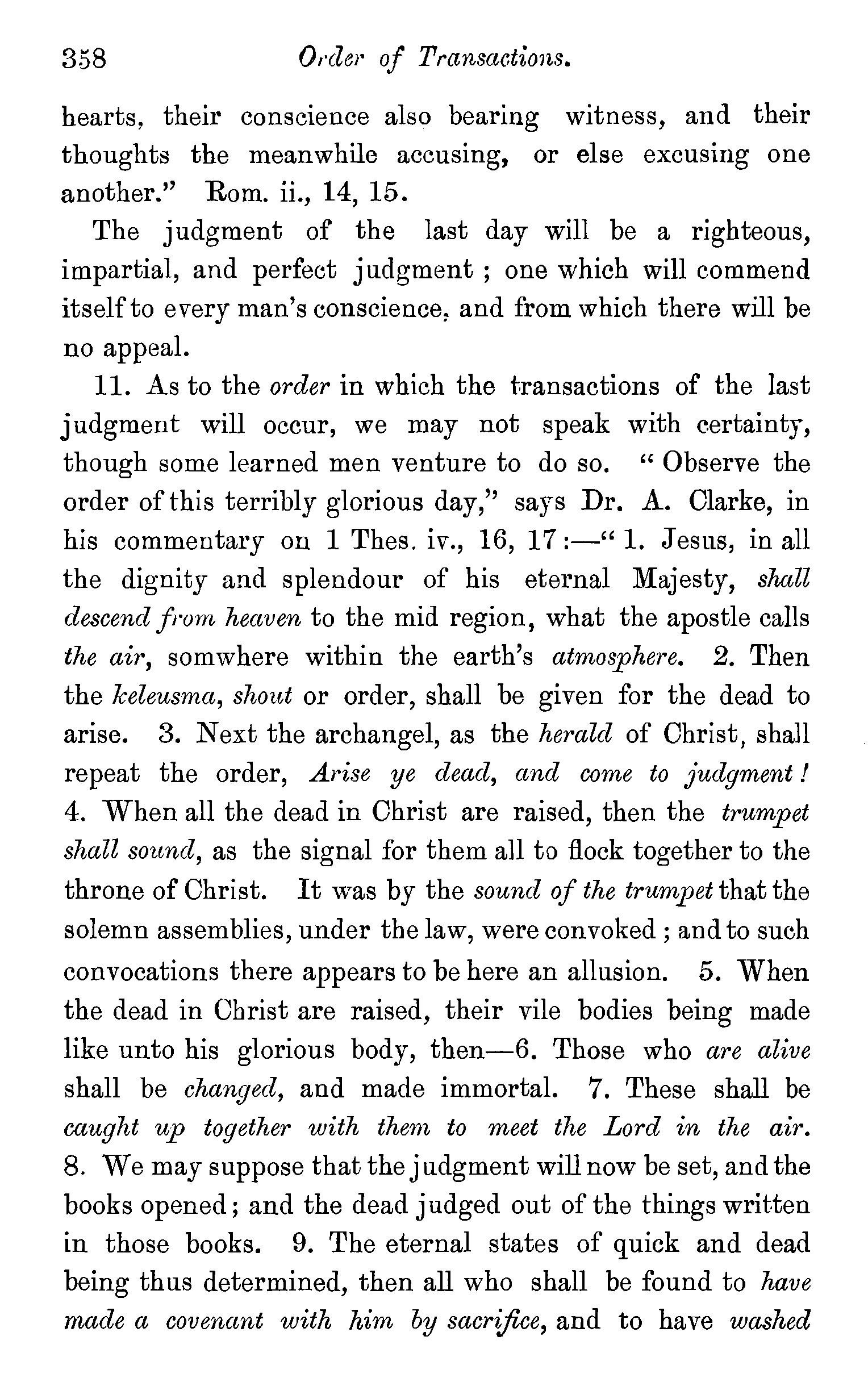
hearts, their conscience also bearing witness, and their thoughts the meanwhile accusing, or else excusing one another.'' Rom. ii., 14, 15.
The judgment of the last day will be a righteous, impartial, and perfect judgment ; one which will commend itself to every man's conscience: and from which there will be no appeal.
11. As to the order in which the transactions of the last judgment will occur, we may not speak with certainty, though some learned men venture to do so. " Observe the order of this terribly glorious day,'' says Dr. A. Clarke, in his commentary on 1 Thes. iv., 16, 17 :-" 1. Jesus, in all the dignity and splendour of his eternal Majesty, shctll descend from heaven to the mid region, what the apostle calls the air, somwhere within the earth's atmosphere. 2. Then the keleusma, shout or order, shall be given for the dead to arise. 3. Next the archangel, as the herald of Christ, shall repeat the order, Arise ye dead, ancl come to judgment! 4. When all the dead in Christ are raised, then the trumpet shall soiincl, as the signal for them all to flock together to the throne of Christ. It was by the sound of the trumpet that the solemn assemblies, under the law, were convoked; and to such convocations there appears to be here an allusion. 5. When the dead in Christ are raised, their vile bodies being made like unto his glorious body, then-6. Those who are alive shall be changed, and made immortal. 7. These shall be caught up together with them to meet the Lord in the air. 8. We may suppose that the judgment will now be set, and the books opened; and the dead judged out of the things written in those books. 9. The eternal states of quick and dead being thus determined, then all who shall be found to have made a covenant with him by sacrifice, and to have washed
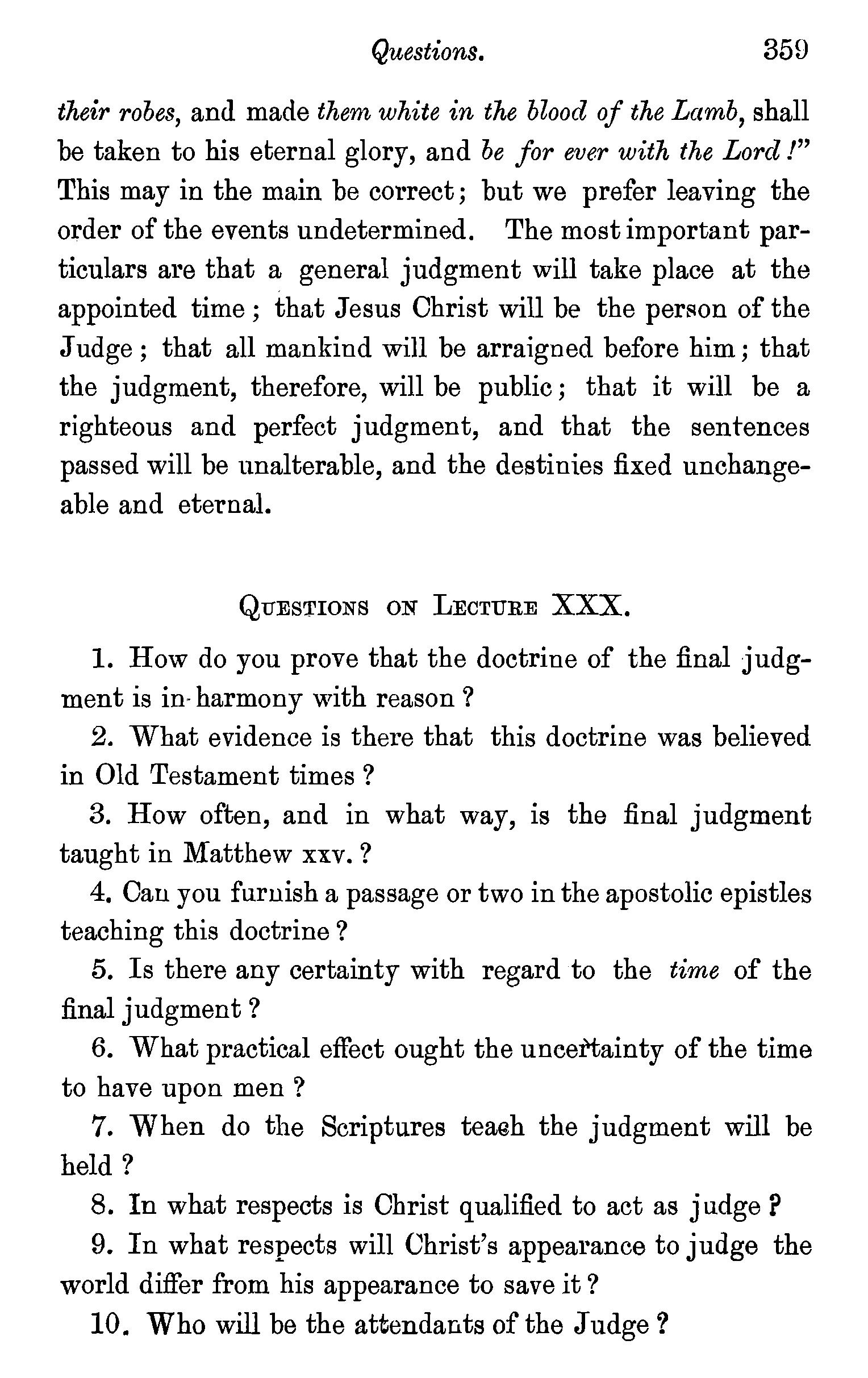
their robes, and made them white in the blood of the Lamb, shall be taken to his eternal glory, and be for ever with the Lord!" This may in the main be correct; but we prefer leaving the order of the events undetermined. The most important particulars are that a general judgment will take place at the appointed time; that Jesus Christ will be the perRon of the Judge ; that all mankind will be arraigned before him; that the judgment, therefore, will be public; that it will be a righteous and perfect judgment, and that the sentences passed will be unalterable, and the destinies fixed unchangeable and etel'nal.
I. How do you prove that the doctrine of the final judgment is in- harmony with reason ?
2. What evidence is there that this doctrine was believed in Old Testament times ?
3. How often, and in what way, is the final judgment taught in Matthew xxv. ?
4. Can you furnish a passage or two in the apostolic epistles teaching this doctrine ?
5. Is there any certainty with regard to the time of the final judgment ?
6. What practical effect ought the uncertainty of the time to have upon men ?
7. When do the Scriptures teaGh the judgment will be held?
8. In what respects is Christ qualified to act as judge P
9. In what respects will Christ's appearance to judge the world differ from his appearance to save it?
10. Who will be the attendauts of the Judge ?
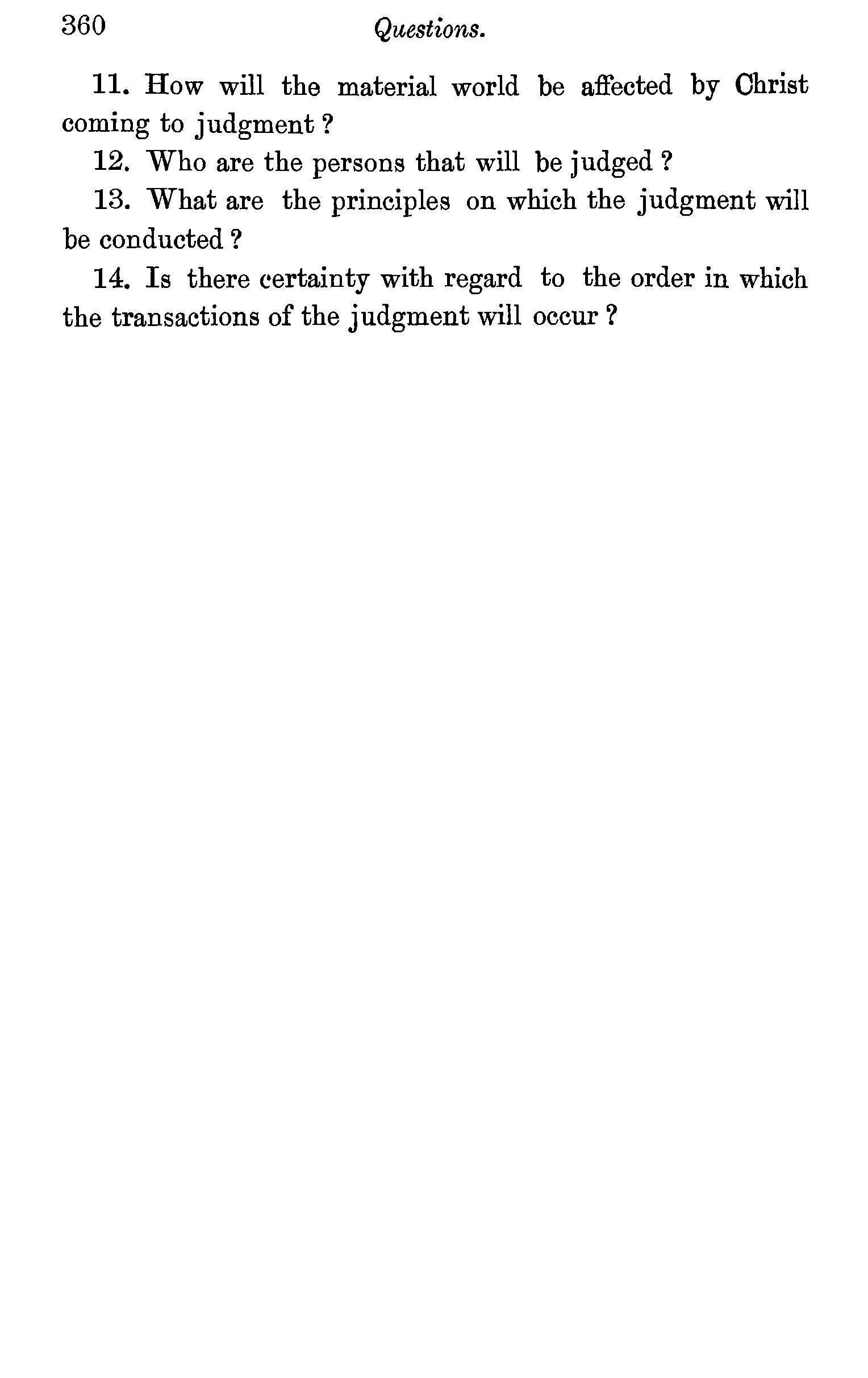
11. How will the material world be affected by Christ coming to judgment?
12. Who are the persons that will be judged?
13. What are the principles on which the judgment will be conducted?
14. Is there certainty with regard to the order in which the transactions of the judgment will occur?

THE momentous consequenees of the general judgment must now come under consideration. And here we observe-I. Heavenly rewctrds will be bestowed upon all the pious. But these rewards, it should be observed, will be of grcwe, and not of human merit. "By grace are ye saved.·' While eternal death is the just recompense of sin, eternal life is '' the gift of God/' "through Jesus Christ our Lord." Hence the saints in heaven ascribe all their salvation to redeeming love and mercy ; in songs of grateful adoration and praise they sing, " Unto him that loved us, and washed us from our sins in his own blood, and hath made us kings and priests unto God and his Father; to him be glory and dominion, for ever and ever.'' Eph. ii., 8; Rom. vi., 23; Rev. i., 5, 6.
2. The rewards of heaven will, however, be proportioned to the service rendered to God on earth. Thus the faithful servants in the parable who had rightly employed the talents committed to their trust were rewarded according to their diligence and success. When the nobleman returned, and ordered the servants to be called, that he might ascertain how much every man had gained by trading, " then came the first, saying, Lord, thy pound hath gained ten pounds. And he said unto him, Well, thou good servant: because thou hast been faithful in a very little, have thou authority over ten cities. And the second came, saying, Lord, thy pound hath gained five pounds. And he said likewise to him, Be thou 2 A.
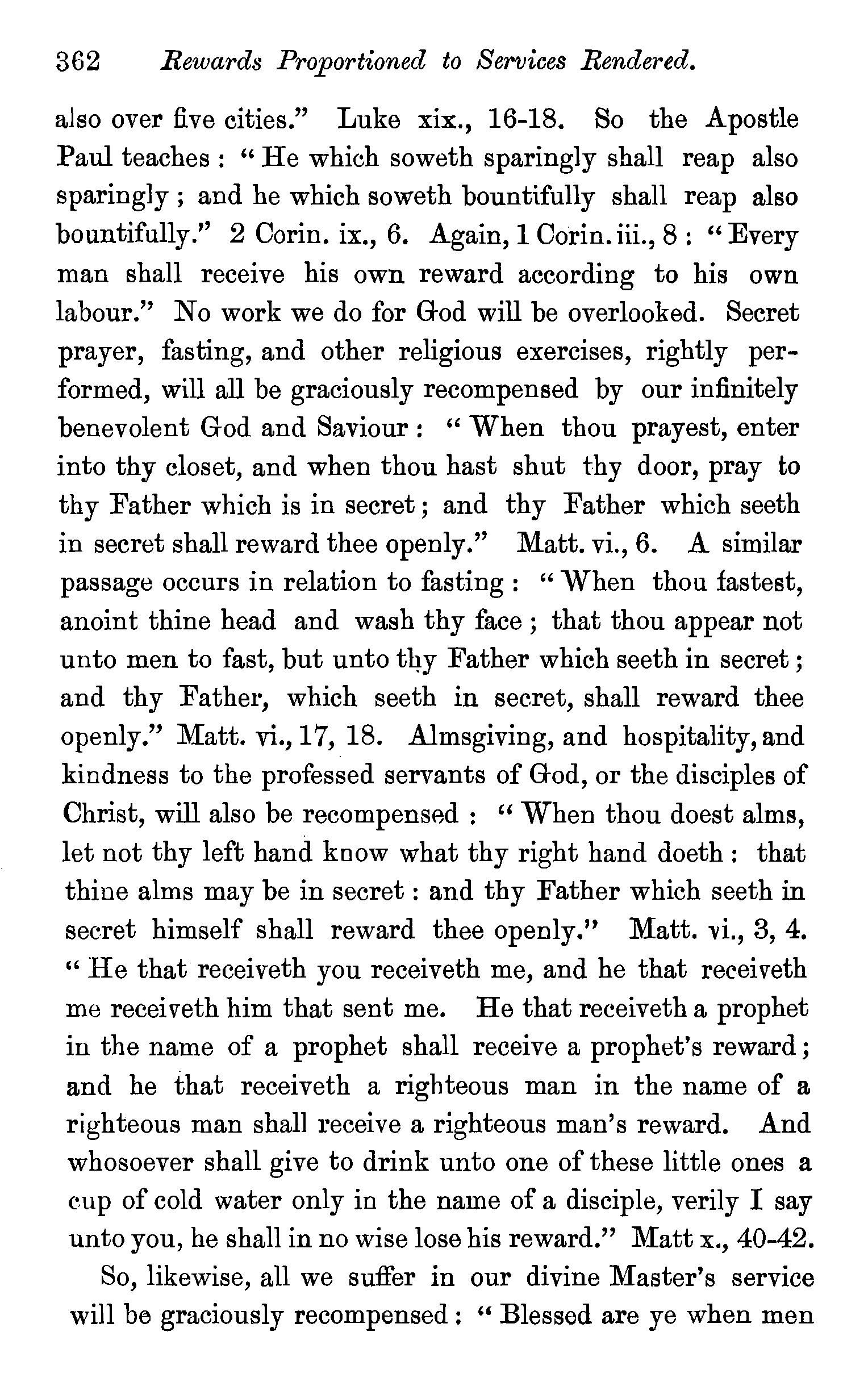
362 Rewards Proportioned to Services Rendered. also over five cities." Luke xix., 16-18. So the Apostle Paul teaches : " He which soweth sparingly shall reap also sparingly ; and he which soweth bountifully shall reap also bountifully.'' 2 Corin. ix., 6. Again, 1 Corin. iii., 8 : "Every man shall receive his own reward according to his own labour.'' No work we do for God will be overlooked. Secret prayer, fasting, and other religious exercises, rightly performed, will all be graciously recompensed by our infinitely benevolent God and Saviour: "When thou prayest, enter into thy closet, and when thou hast shut thy door, pray to thy Father which is in secret; and thy Father which seeth in secret shall reward thee openly." Matt. vi., 6. A similar passage occurs in relation to fasting : " When thou fastest, anoint thine head and wash thy face; that thou appear not unto men to fast, but unto t4y Father which seeth in secret; and thy Father, which seeth in secret, shall reward thee openly." Matt. vi., 17, 18. Almsgiving, and hospitality, and kindness to the professed servants of God, or the disciples of Christ, will also be recompensed : " When thou doest alms, let not thy left hand know what thy right hand doeth : that thine alms may be in secret: and thy Father which seeth in secret himself shall reward thee openly." Matt. vi., 3, 4. "He that receiveth you receiveth me, and he that receiveth me receiveth him that sent me. He that receiveth a prophet in the name of a prophet shall receive a prophet's reward; and he that receiveth a righteous man in the name of a righteous man shall receive a righteous man's reward. And whosoever shall give to drink unto one of these little ones a cup of cold water only in the name of a disciple, verily I say unto you, he shall in no wise lose his reward." Matt x., 40-42. So, likewise, all we suffer in our divine Master's service will be graciously recompensed : " Blessed are ye when men
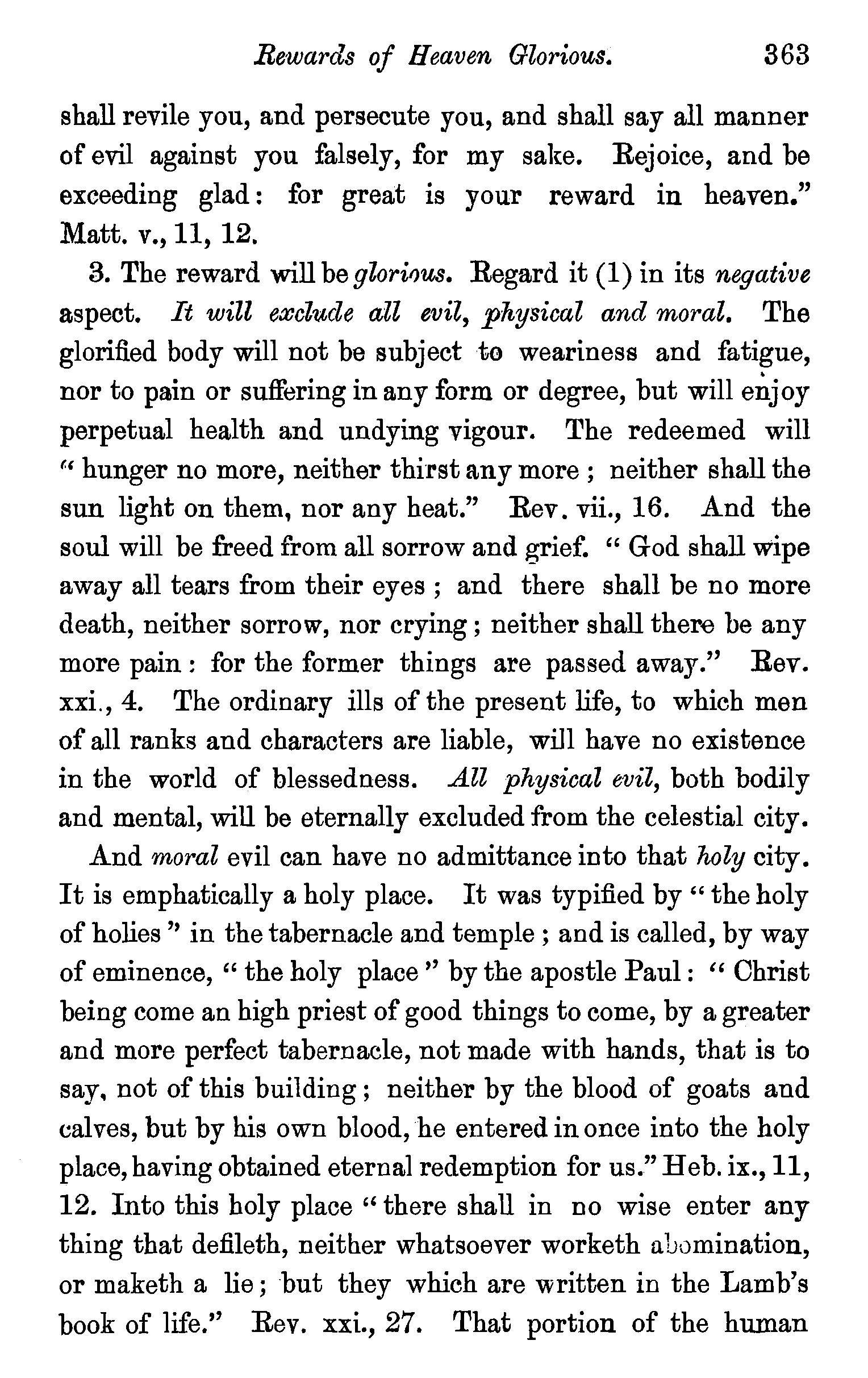
shall revile you, and persecute you, and shall say all manner of evil against you falsely, for my sake. Rejoice, and be exceeding glad: for great is your reward in heaven." Matt. v., 11, 12.
3. The reward will be gloril)us. Regard it (1) in its negative aspect. It will exclucle all evil, physical and moral. The glorified body will not be subject to weariness and fatigue, nor to pain or suffering in any form or degree, but will e~joy perpetual health and undying vigour. The redeemed will ti hunger no more, neither thirst any more ; neither shall the sun light on them, nor any heat." Rev. vii., 16. And the soul will be freed from all sorrow and grief. " God shall wipe away all tears from their eyes ; and there shall be no more death, neither sorrow, nor crying; neither shall ther~ be any more pain: for the former things are passed away." Rev. xxi., 4. The ordinary ills of the present life, to which men of all ranks and characters are liable, will have no existence in the world of blessedness. All physical evil, both bodily and mental, will be eternally excluded from the celestial city.
And moral evil can have no admittance into that holy city. It is emphatically a holy place. It was typified by" the holy of holies '' in the tabernacle and temple ; and is called, by way of eminence, " the holy place '' by the apostle Paul: " Christ being come an high priest of good things to come, by a greater and more perfect tabernacle, not made with hands, that is to say. not of this building ; neither by the blood of goats and calves, but by his own blood, he entered in once into the holy place, having obtained eternal redemption for us." Heb. ix., 11, 12. Into this holy place" there shall in no wise enter any thing that defileth, neither whatsoever worketh aLomination, or maketh a lie; but they which are written in the Lamb's book of life.'' Rev. xxi., 27. That portion of the human
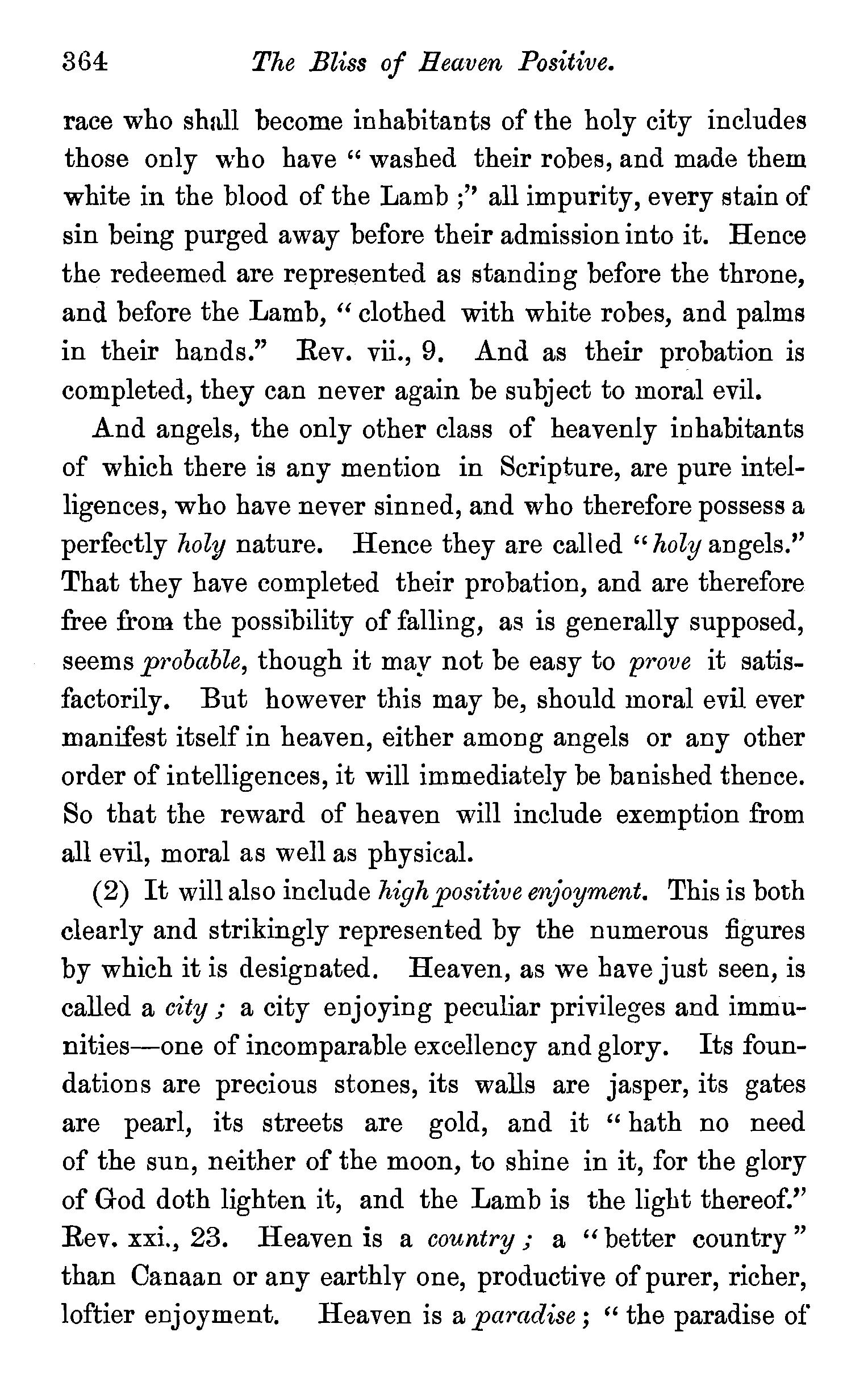
race who shnll become inhabitants of the holy city includes those only who have "washed their robes, and made them white in the blood of the Lamb;'' all impurity, every stain of sin being purged away before their admission into it. Hence the redeemed are represented as standing before the throne, and before the Lamb, "clothed with white robes, and palms in their hands." Rev. vii., 9. And as their probation is completed, they can never again be subject to moral evil.
And angels, the only other class of heavenly inhabitants of which there is any mention in Scripture, are pure intelligences, who have never sinned, and who therefore possess a perfectly holy nature. Hence they are called "holy angels.'' That they have completed their probation, and are therefore free from the possibility of falling, as is generally supposed, seems probable, though it may not be easy to prove it satisfactorily. But however this may be, should moral evil ever manifest itself in heaven, either among angels or any other order of intelligences, it will immediately be banished thence. So that the reward of heaven will include exemption from all evil, moral as well as physical.
(2) It will also include high positive enjoyment. This is both clearly and strikingly represented by the numerous figures by which it is designated. Heaven, as we have just seen, is called a city; a city enjoying peculiar privileges and immunities-one of incomparable excellency and glory. Its foundations are precious stones, its walls are jasper, its gates are pearl, its streets are gold, and it " bath no need of the sun, neither of the moon, to shine in it, for the glory of God doth lighten it, and the Lamb is the light thereof.'' Rev. xxi., 23. Heaven is a country; a "better country" than Canaan or any earthly one, productive of purer, richer, loftier enjoyment. Heaven is a paradise; " the paradise of
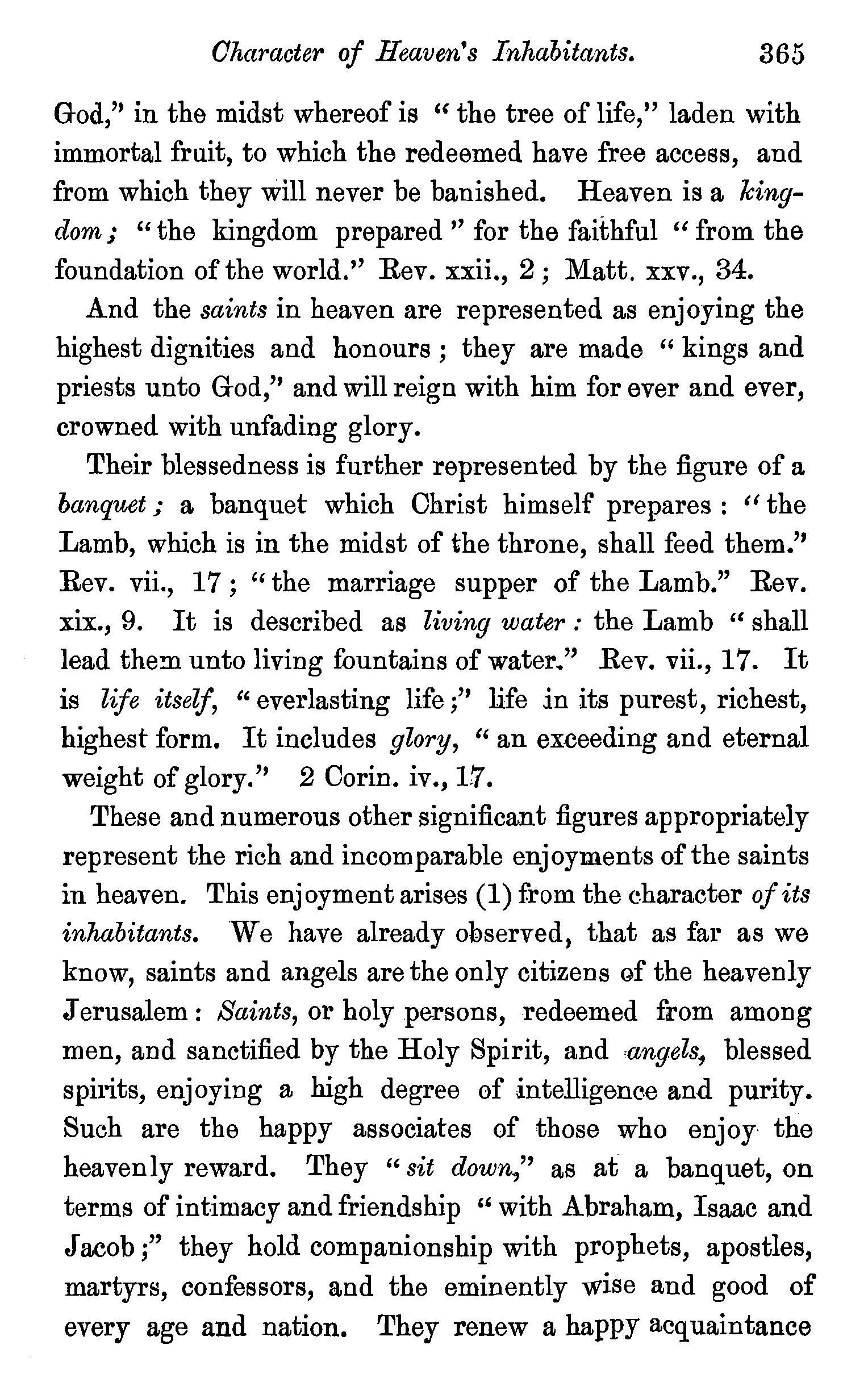
God," in the midst whereof is " the tree of life," laden with immortal fruit, to which the redeemed have free access, and from which they will never be banished. Heaven is a kingdom; " the kingdom prepared '' for the faithful " from the foundation of the world.'' Rev. xxii., 2; Matt. xxv., 34.
And the saint.sin heaven are represented as enjoying the highest dignities and honours ; they are made " kings and priests unto God,'' and will reign with him for ever and ever, crowned with unfading glory.
Their blessedness is further represented by the figure of a banquet; a banquet which Christ himself prepares : "the Lamb, which is in the midst of the throne, shall feed them." Rev. vii., 17; "the marriage supper of the Lamb." Rev. xix., 9. It is described as living water : the Lamb " shall lead them unto living fountains of water~" Rev. vii., 17. It is life itself, "everlasting life;'' life in its purest, richest, highest form. It includes glory, "an exceeding and eternal weight of glory.'' 2 Corin. iv., 17.
These and numerous other significant figures appropriately represent the rich and incomparable enjoyments of the saints in heaven. This enjoyment arises (1) from the character of its inhabitants. We have already observed, that as far as we know, saints and angels are the only citizens of the heavenly Jerusalem : Saints, or holy persons, redeemed from among men, and sanctified by the Holy Spirit, and ,angels, blessed spirits, enjoying a high degree of intelligenc.e and purity. Such are the happy associates of those who enjoy the heavenly reward. They "sit down,'' as at a banquet, on terms of intimacy and friendship "with Abraham, Isaac and Jacob;" they hold companionship with prophets, apostles, martyrs, confessors, and the eminently wise and good of every age and nation. They renew a happy acquaintance
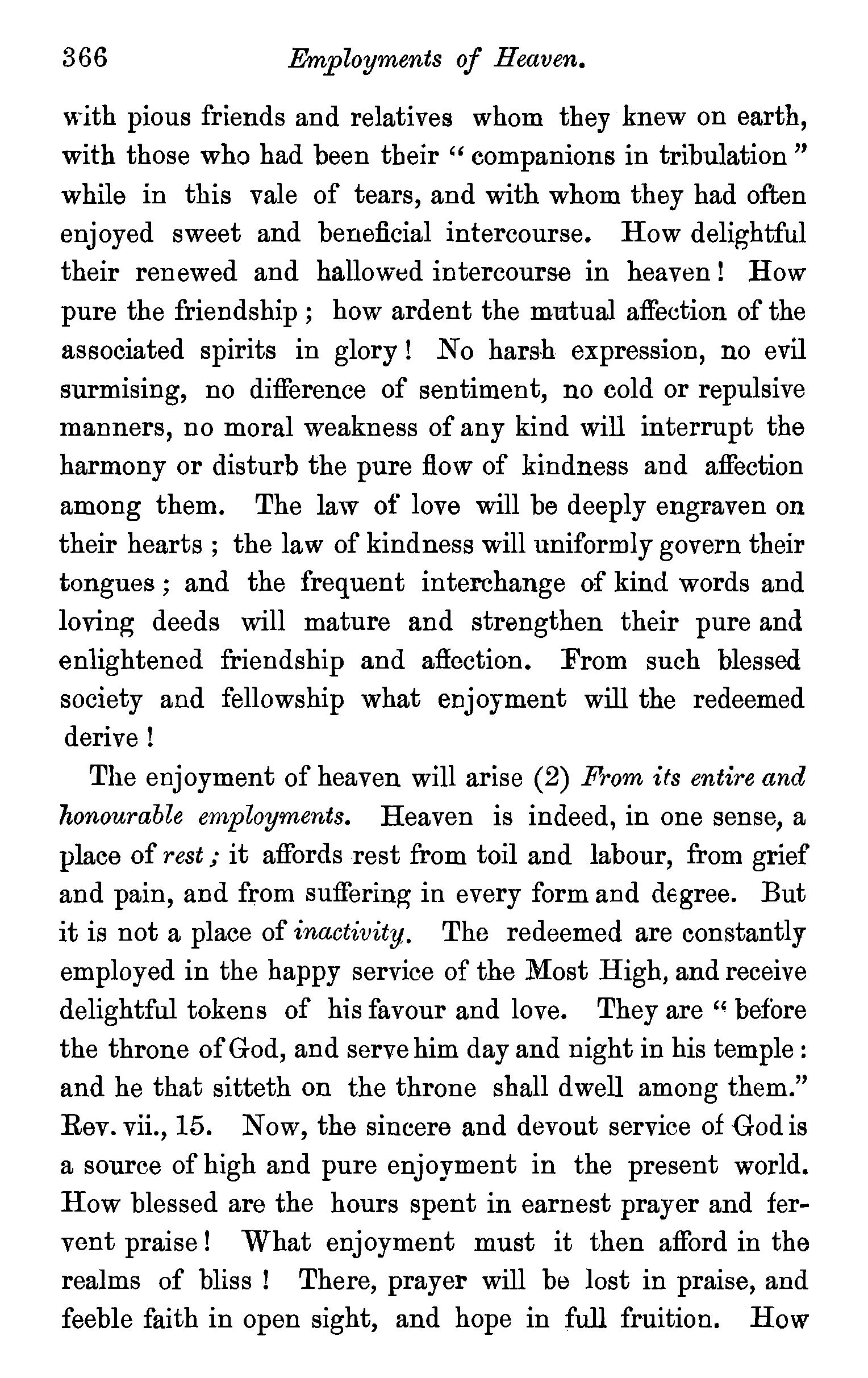
with pious friends and relatives whom they knew on earth, with those who had been their " companions in tribulation " while in this vale of tears, and with whom they bad often enjoyed sweet and beneficial intercourse. How delightful their renewed and hallowt:Jdintercourse in heaven! How pure the friendship ; how ardent the mutual affection of the associated spirits in glory ! No harsh expression, no evil surmising, no difference of sentiment, no cold or repulsive manners, no moral weakness of any kind will interrupt the harmony or disturb the pure flow of kindness and affection among them. The law of love will be deeply engraven on their hearts; the law of kindness will uniformly govern their tongues; and the frequent interchange of kind words and loving deeds will mature and strengthen their pure and enlightened friendship and affection. From such blessed society and fellowship what enjoyment will the redeemed derive!
The enjoyment of heaven will arise (2) From its entire and honourable employments. Heaven is indeed, in one sense, a place of rest; it affords rest from toil and labour, from grief and pain, and from suffering in every form and degree. But it is not a place of inactivity. The redeemed are constantly employed in the happy service of the Most High, and receive delightful tokens of his favour and love. They are " before the throne of God, and serve him day and night in bis temple: and be that sitteth on the throne shall dwell among them." Rev. vii., 15. Now, the sincere and devout service of God is a source of high and pure enjoyment in the present world. How blessed are the hours spent in earnest prayer and fervent praise ! What enjoyment must it then afford in the realms of bliss ! There, prayer will be lost in praise, and feeble faith in open sight, and hope in full fruition. How
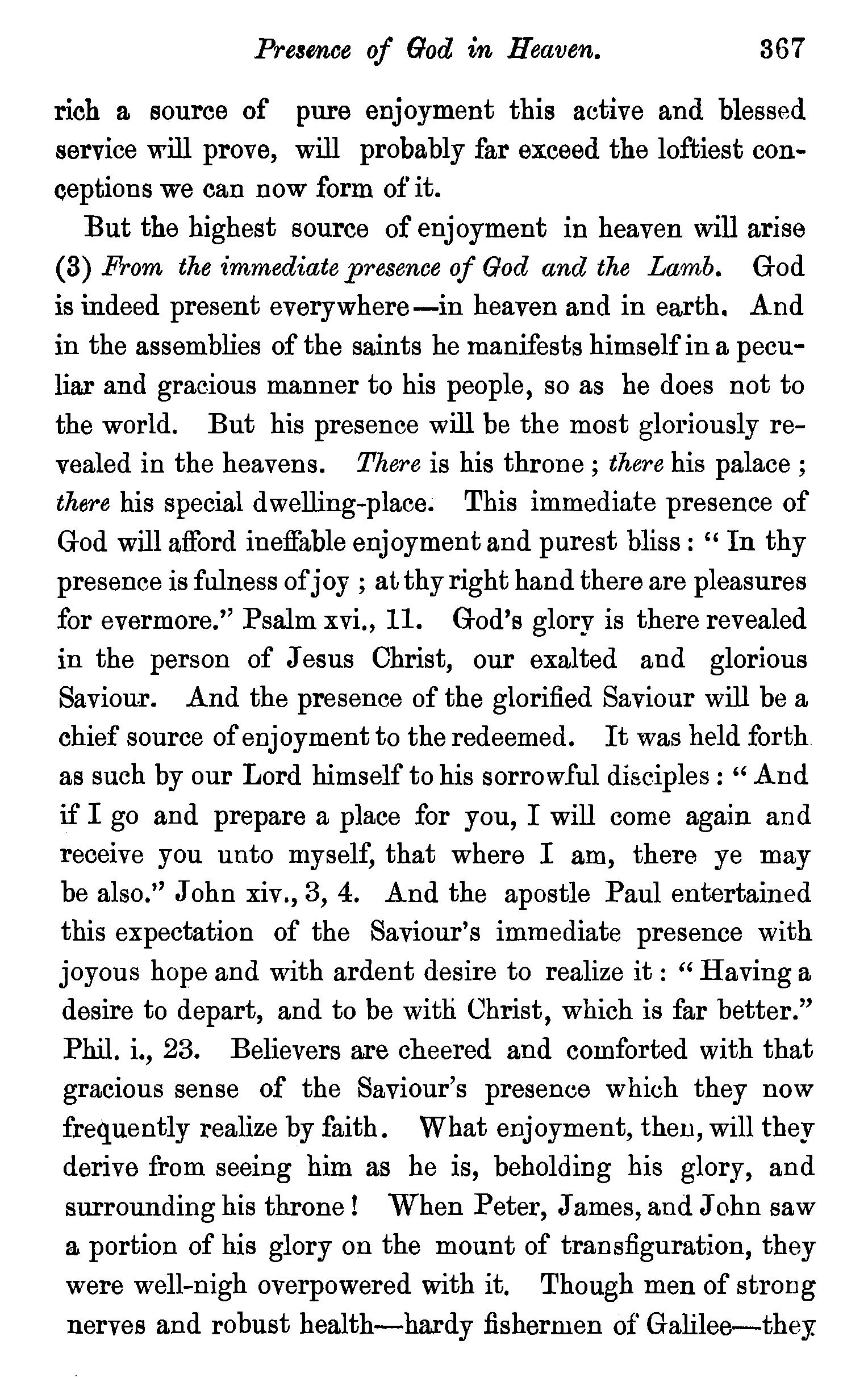
rich a source of pure enjoyment this active and blessed service will prove, will probably far exceed the loftiest conQeptionswe can now form of it.
But the highest source of enjoyment in heaven will arise (3) From the immediate presence of God and the Lamb. God is indeed present everywhere-in heaven and in earth. And in the assemblies of the saints he manifests himself in a peculiar and gracious manner to his people, so as he does not to the world. But his presence will be the most gloriously revealed in the heavens. There is his throne; there his palace; there his special dwelling-place. This immediate presence of God will afford ineffable enjoyment and purest bliss: "In thy presence is fulness of joy; at thy right hand there are pleasures for evermore.'' Psalm xvi., 11. God's glory is there revealed in the person of Jesus Christ, our exalted and glorious Saviour. And the presence of the glorified Saviour will be a chief source of enjoyment to the redeemed. It was held forth as such by our Lord him.self to his sorrowful di8ciples : "And if I go and prepare a place for you, I will come again and receive you unto myself, that where I am, there ye may be also.'' John xiv., 3, 4. And the apostle Paul entertained this expectation of the Saviour's immediate presence with joyous hope and with ardent desire to realize it: "Having a desire to depart, and to be witli Christ, which is far better." Phil. i., 23. Believers are cheered and comforted with that gracious sense of the Saviour's presence which they now frequently realize by faith. What enjoyment, theu, will they derive from seeing him as he is, beholding his glory, and surrounding his throne! When Peter, James, and John saw a portion of his glory on the mount of transfiguration, they were well-nigh overpowered with it. Though men of strong nerves and robust health-hardy fishermen of Galilee-they.
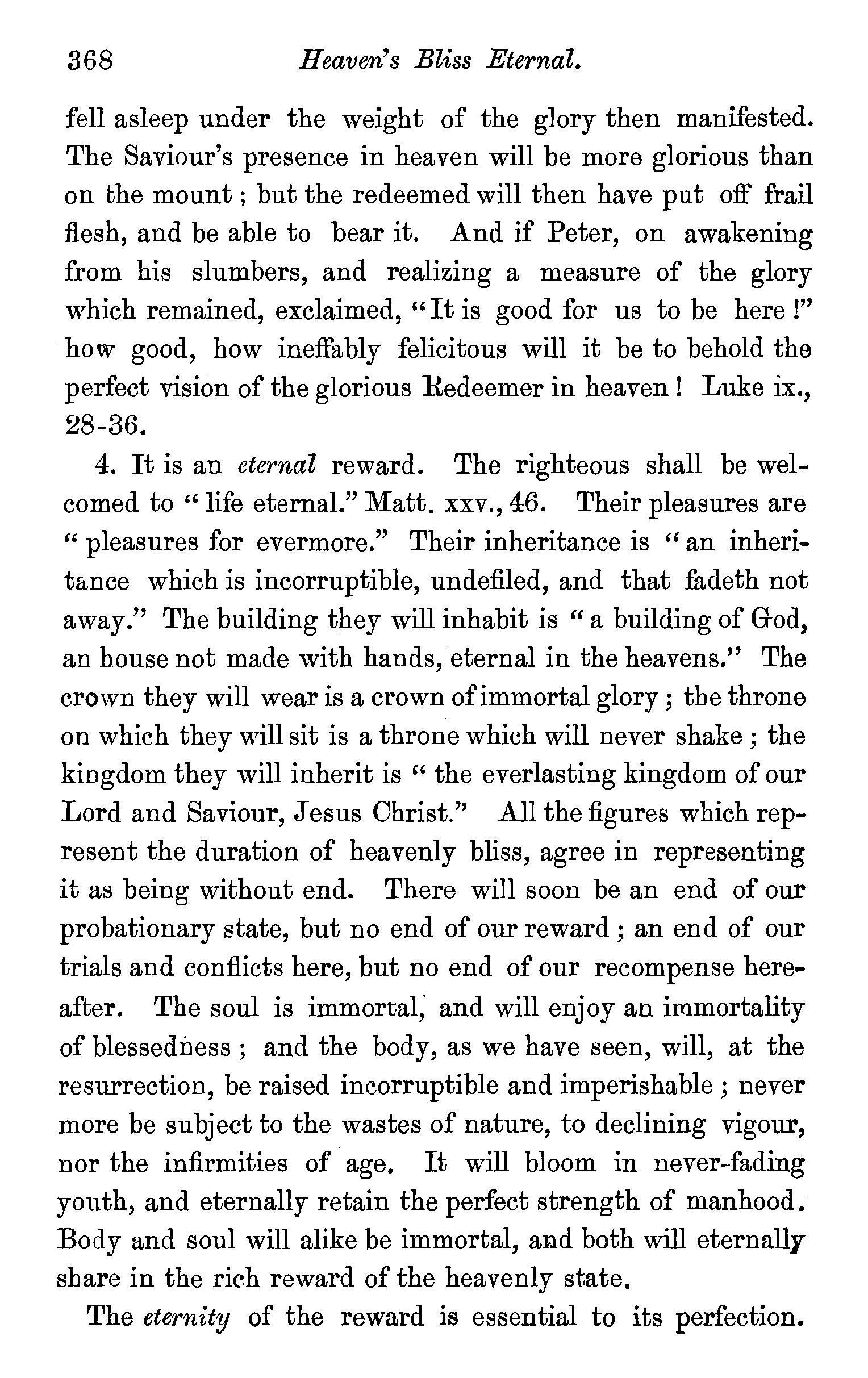
fell asleep under the weight of the glory then manifested. The Saviour's presence in heaven will be more glorious than on bhe mount ; but the redeemed will then have put off frail flesh, and be able to bear it. And if Peter, on awakening from his slumbers, and realizing a measure of the glory which remained, exclaimed, "It is good for us to be here !" how good, how ineffably felicitous will it be to behold the perfect vision of the glorious Redeemer in heaven ! Luke ix., 28-36.
4. It is an eternal reward. The righteous shall be welcomed to "life eternal." Matt. xxv., 46. Their pleasures are " pleasures for evermore." Their inheritance is " an inheritance which is incorruptible, undefiled, and that fadeth not away." The building they will inhabit is "a building of God, an house not made with hands, eternal in the heavens." The crown they will wear is a crown of immortal glory; the throne on which they will sit is a throne which will never shake ; the kingdom they will inherit is "the everlasting kingdom of our Lord and Saviour, Jesus Christ.'' All the :figures which represent the duration of heavenly bliss, agree in representing it as being without end. There will soon be an end of our probationary state, but no end of our reward ; an end of our trials and conflicts here, but no end of our recompense hereafter. The soul is immortal,' and will enjoy an immortality of blessedness; and the body, as we have seen, will, at the resurrection, be raised incorruptible and imperishable; never more be subject to the wastes of nature, to declining vigour, nor the infirmities of age. It will bloom in never-fading youth, and eternally retain the perfect strength of manhood. Body and soul will alike be immortal, and both will eternally share in the rich reward of the heavenly state, The eternity of the reward is essential to its perfection.
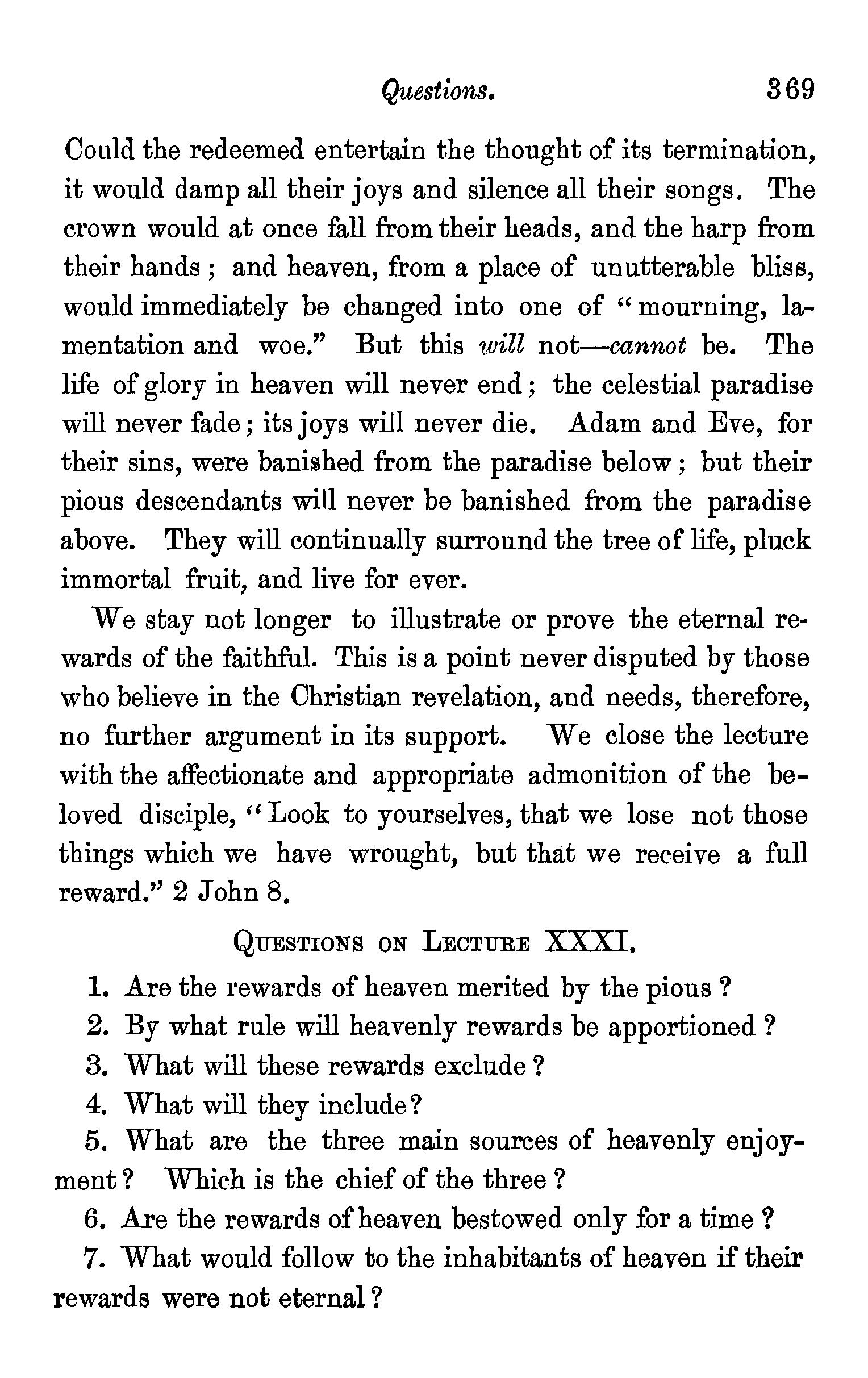
Could the redeemed entertain the thought of its termination, it would damp all their joys and silence all their songs. The crown would at once fall from their heads, and the harp from their hands; and heaven, from a place of unutterable bliss, would immediately be changed into one of " mourning, lamentation and woe." But this will not-cannot be. The life of glory in heaven will never end; the celestial paradise will never fade; its joys will never die. Adam and Eve, for their sins, were baniihed from the paradise below ; but their pious descendants will never be banished from the paradise above. They will continually surround the tree of life, pluck immortal fruit, and live for ever.
We stay not longer to illustrate or prove the eternal rewards of the faithful. This is a point never disputed by those who believe in the Christian revelation, and needs, therefore, no further argument in its support. We close the lecture with the affectionate and appropriate admonition of the beloved disciple, '' Look to yourselves, that we lose not those things which we have wrought, but that we receive a full reward.'' 2 John 8.
1. Are the rewards of heaven merited by the pious ?
2. By what rule will heavenly rewards be apportioned?
3. What will these rewards exclude ?
4. What will they include?
5. What are the three main sources of heavenly enjoyment? Which is the chief of the three ?
6. Are the rewards of heaven bestowed only for a time?
7. What would follow to the inhabitants of heaven if their rewards were not eternal ?
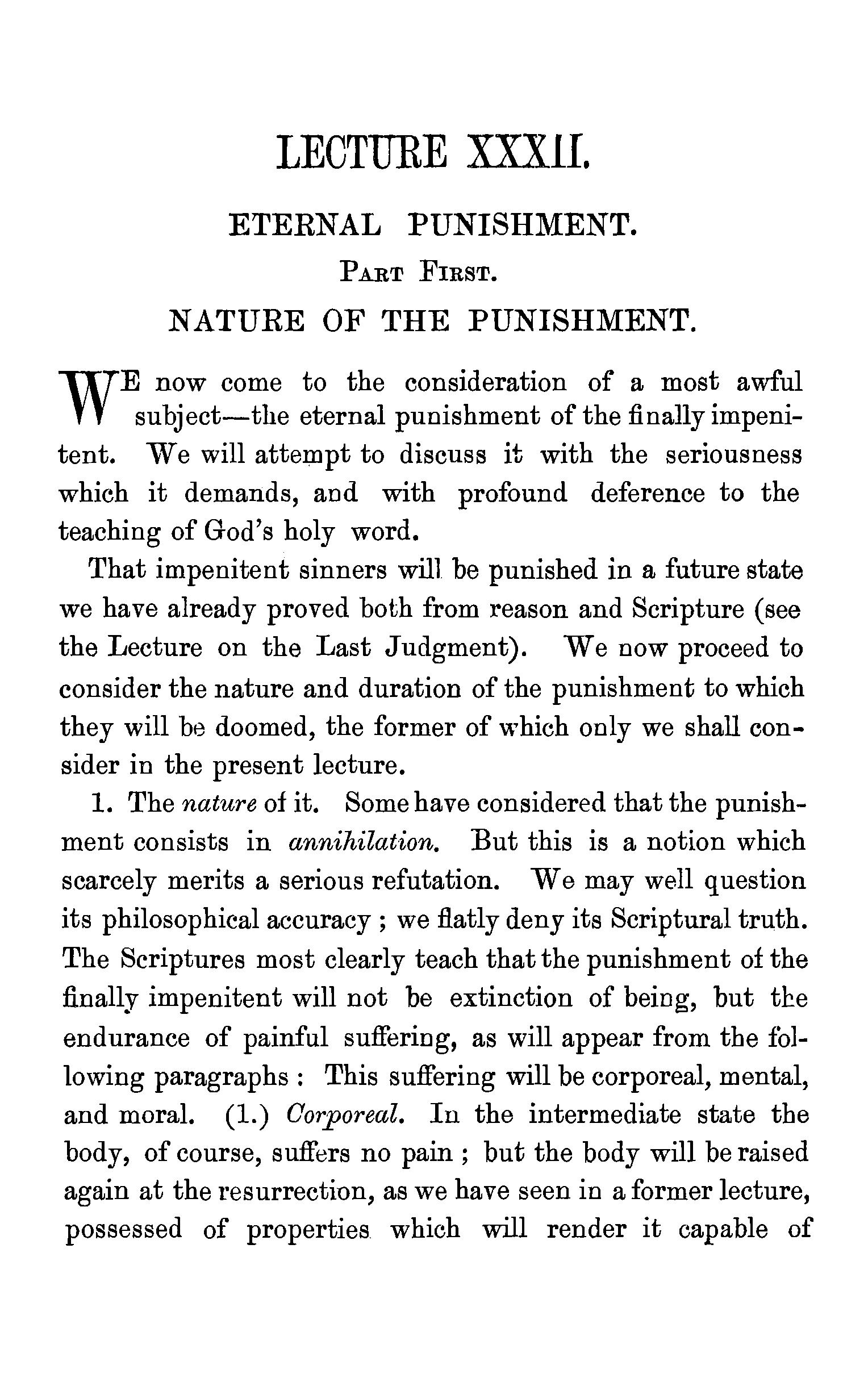
WE now come to the consideration of a most awful subject-the eternal punishment of the finally impenitent. We will attempt to discuss it with the seriousness which it demands, and with profound deference to the teaching of God's holy word.
That impenitent sinners will be punished in a future state we have already proved both from reason and Scripture (see the Lecture on the Last Judgment). We now proceed to consider the nature and duration of the punishment to which they will be doomed, the former of which only we shall consider in the present lecture.
1. The nature of it. Some have considered that the punishment consists in annihilation. But this is a notion which scarcely merits a serious refutation. We may well question its philosophical accuracy; we flatly deny its Scriptural truth. The Scriptures most clearly teach that the punishment of the finally impenitent will not be extinction of being, but tee endurance of painful suffering, as will appear from the following paragraphs : This suffering will be corporeal, mental, and moral. (1.) Corporeal. In the intermediate state the body, of course, suffers no pain; but the body will be raised again at the resurrection, as we have seen in a former lecture, possessed of properties which will render it capable of
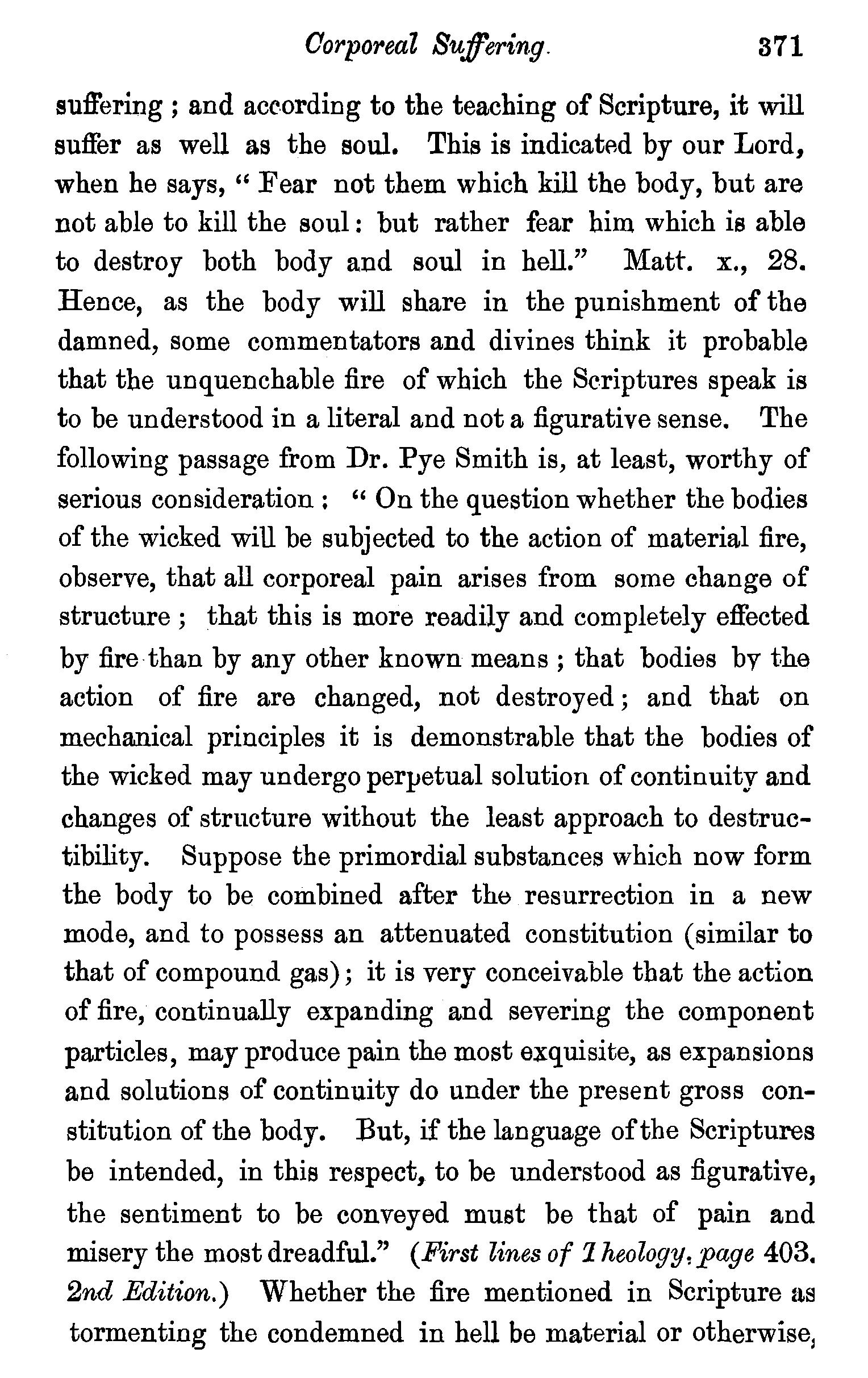
suffering ; and according to the teaching of Scripture, it will suffer as well as the soul. This is indicated by our Lord, when he says, "Fear not them which kill the body, but are not able to kill the soul: but rather fear him which is able to destroy both body and soul in hell." Matt. x., 28. Hence, as the body will share in the punishment of the damned, some commentators and divines think it probable that the unquenchable fire of which the Scriptures speak is to be understood in a literal and not a figurative sense. The following passage from Dr. Pye Smith is, at least, worthy of serious consideration: "On the question whether the bodies of the wicked will be subjected to the action of material fire, observe, that all corporeal pain arises from some change of structure; that this is more readily and completely effected by fire than by any other known means; that bodies bv the action of fire are changed, not destroyed ; and that on mechanical principles it is demonstrable that the bodies of the wicked may undergo perpetual solution of continuity and changes of structure without the least approach to destructibility. Suppose the primordial substances which now form the body to be combined after the resurrection in a new mode, and to possess an attenuated constitution (similar to that of compound gas); it is very conceivable that the action of fire, continually expanding and severing the component particles, may produce pain the most exquisite, as expansions and solutions of continuity do under the present gross constitution of the body. But, if the language of the Scriptures be intended, in this respect, to be understood as figurative, the sentiment to be conveyed must be that of pain and misery the most dreadful." ( First lines of 1 heology,page 403. 2nd Edition.) Whether the fire mentioned in Scripture u.s tormenting the condemned in hell be material or otherwise,
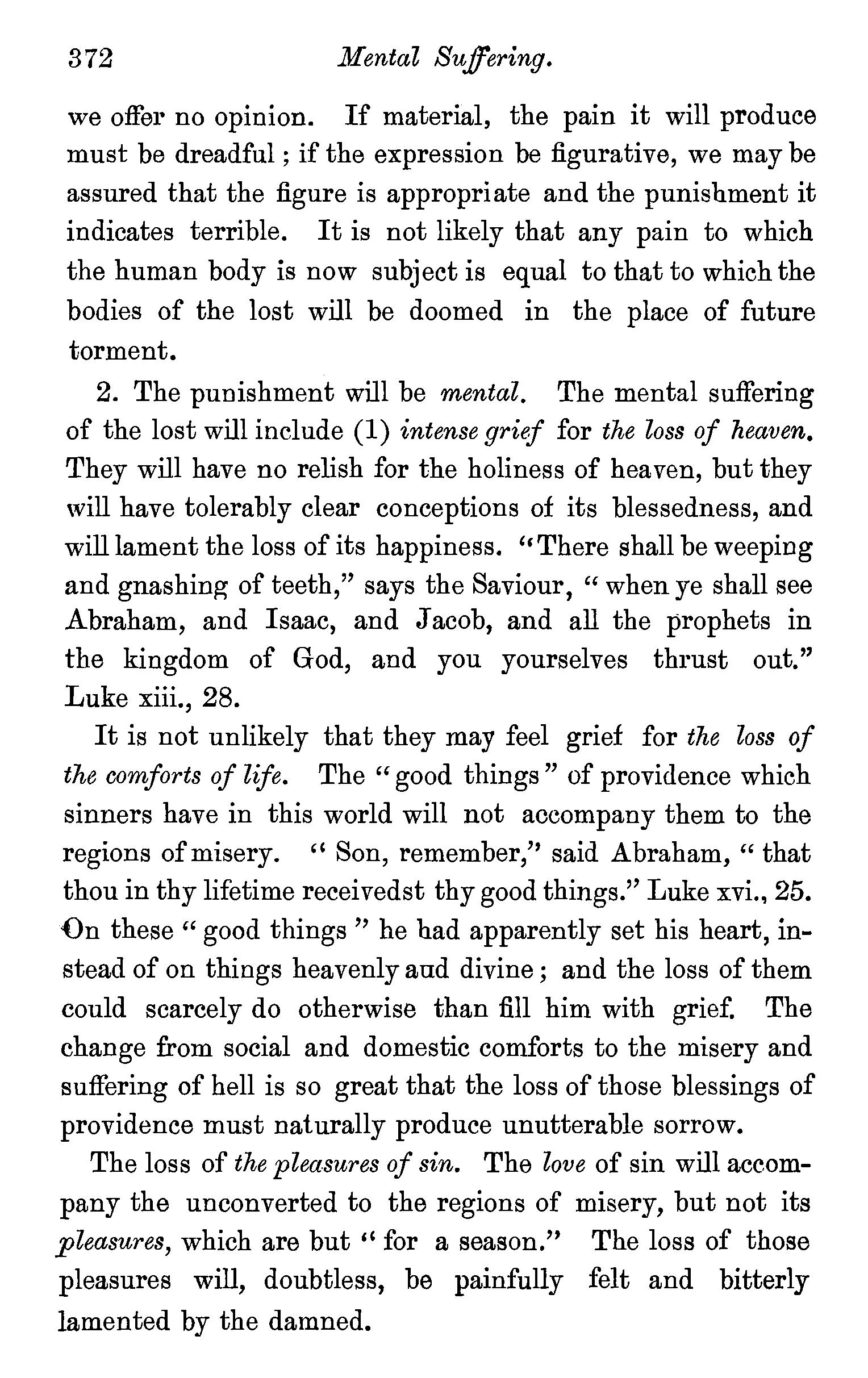
we offer no opinion. If material, the pain it will produce must be dreadful ; if the expression be :figurative, we may be assured that the figure is appropriate and the punishment it indicates terrible. It is not likely that any pain to which the human body is now subject is equal to that to which the bodies of the lost will be doomed in the place of future torment.
2. The punishment will be mental. The mental suffering of the lost will include (1) intense grief for the loss of heaven. They will have no relish for the holiness of heaven, but they will have tolerably clear conceptions of its blessedness, and will lament the loss of its happiness. ''There shall be weeping and gnashing of teeth," says the Saviour, "when ye shall see Abraham, and Isaac, and Jacob, and all the prophets in the kingdom of God, and you yourselves thrust out." Luke xiii., 28.
It is not unlikely that they may feel grief for the loss of the comforts of life. The " good things " of providence which sinners have in this world will not accompany them to the regions of misery. " Son, remember,'' said Abraham, "that thou in thy lifetime receivedst thy good things." Luke xvi., 25. On these " good things " he had apparently set his heart, instead of on things heavenly aud divine; and the loss of them could scarcely do otherwise than fill him. with grief. The change from social and domestic comforts to the misery and suffering of hell is so great that the loss of those blessings of providence must naturally produce unutterable sorrow.
The loss of the pleasures of sin. The love of sin will accompany the unconverted to the regions of misery, but not its pleasures, which are but '' for a season." The loss of those pleasures will, doubtless, be painfully felt and bitterly lamented by the damned.
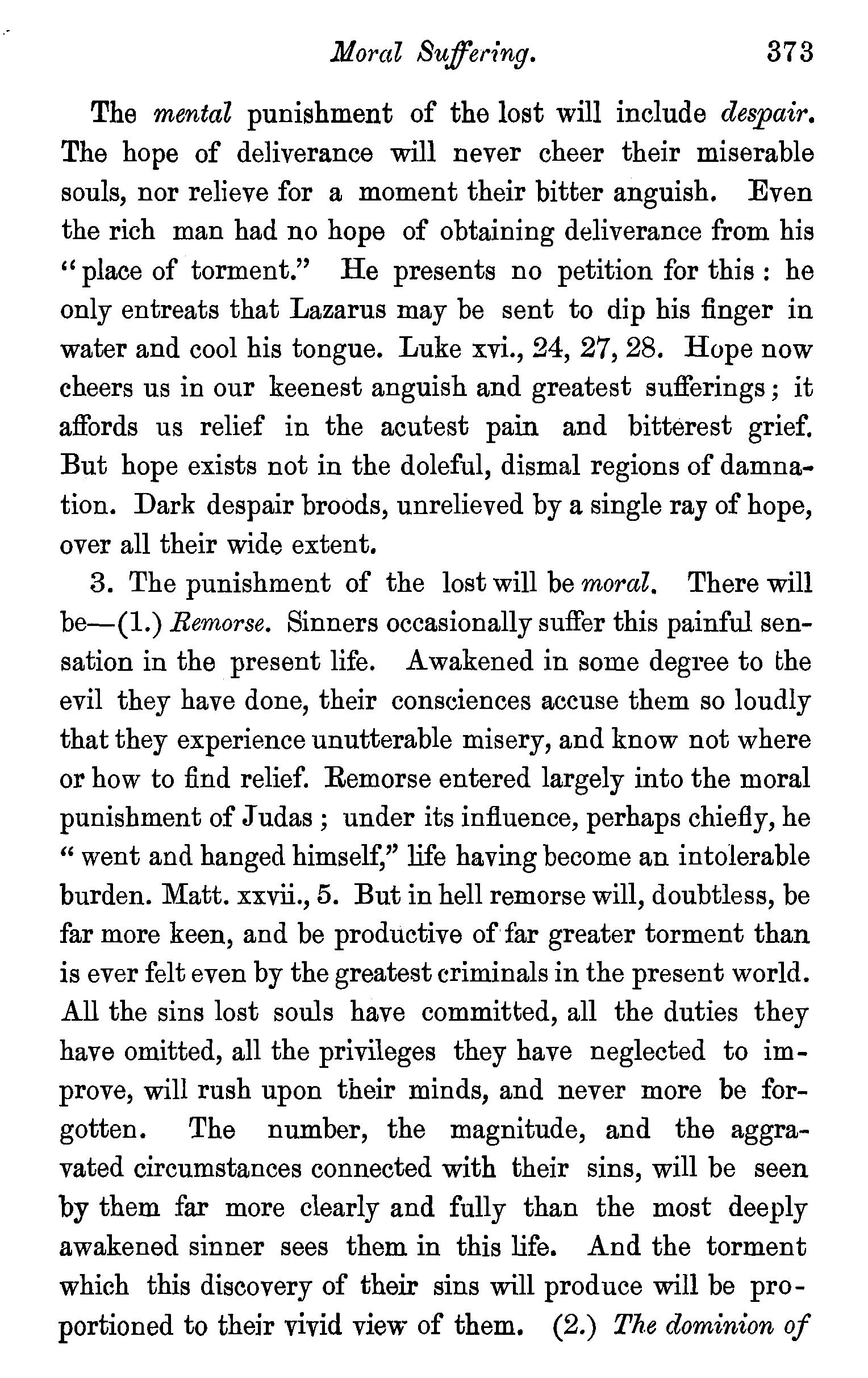
The mental punishment of the lost will include despair. The hope of deliverance will never cheer their miserable souls, nor relieve for a moment their bitter anguish. Even the rich man had no hope of obtaining deliverance from his "place of torment." He presents no petition for this : he only entreats that Lazarus may be sent to dip his finger in water and cool his tongue. Luke xvi., 24, 27, 28. Hope now cheers us in our keenest anguish and greatest sufferings ; it affords us relief in the acutest pain and bitterest grief. But hope exists not in the doleful, dismal regions of damnation. Dark despair broods, unrelieved by a single ray of hope, over all their wide extent.
3. The punishment of the lost will be moral. There will be-(1.) Remorse. Sinners occasionally suffer this painful sensation in the present life. Awakened in some degree to the evil they have done, their consciences accuse them so loudly that they experience unutterable misery, and know not where or how to find relief. Remorse entered largely into the moral punishment of Judas ; under its influence, perhaps chiefly, he "went and hanged himself,'' life having become an intolerable burden. Matt. xxvii., 5. But in hell remorse will, doubtless, be far more keen, and be productive of far greater torment than is ever felt even by the greatest criminals in the present world. All the sins lost souls have committed, all the duties they have omitted, all the privileges they have neglected to improve, will rush upon their minds, and never more be forgotten. The number, the magnitude, and the aggravated circumstances connected with their sins, will be seen by them far more clearly and fully than the most deeply awakened sinner sees them in this life. And the torment which this discovery of their sins will produce will be proportioned to their vivid view of them. (2.) Th.e dominion of
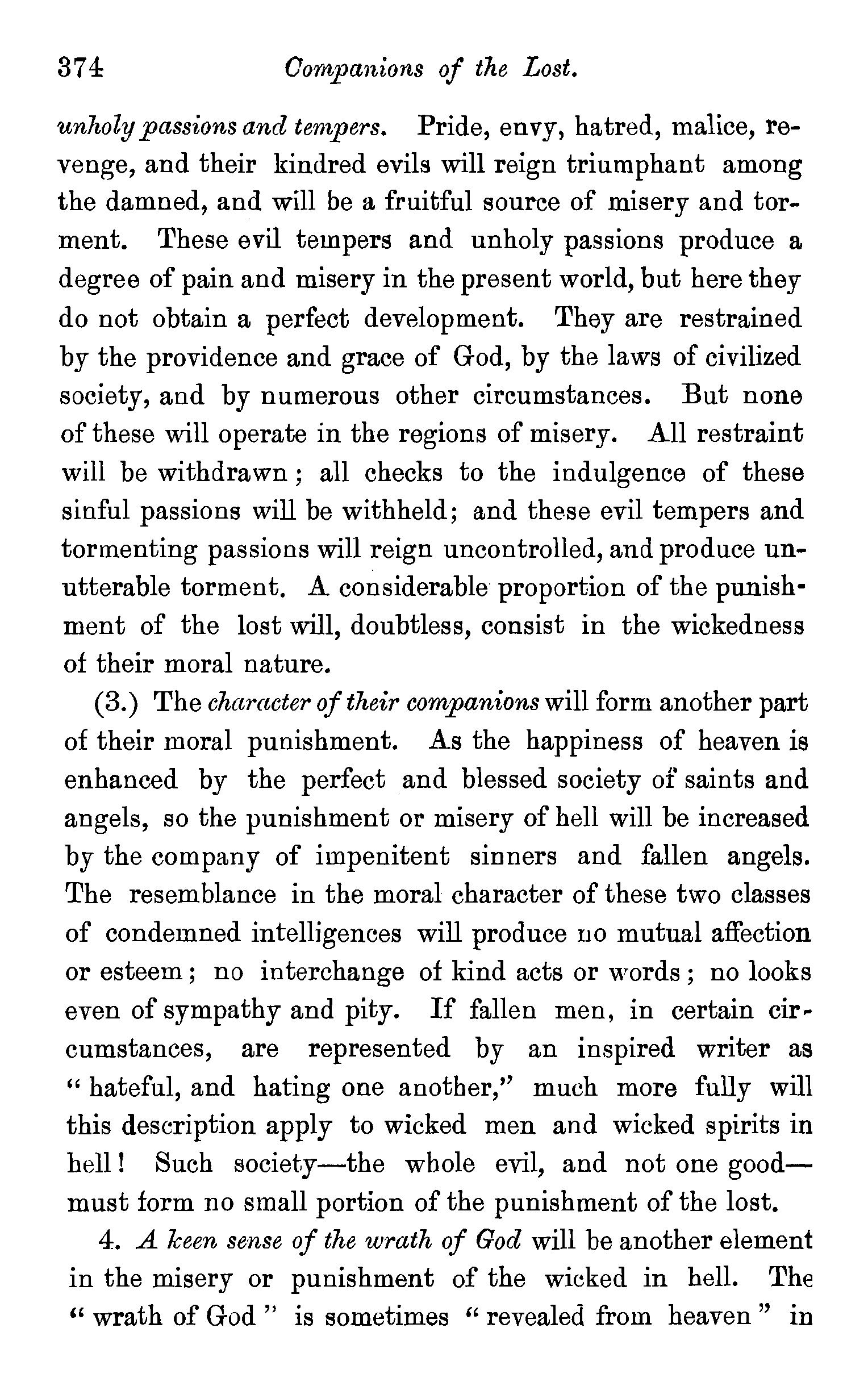
Oompanions of the Lost.
unholy passions and tempers. Pride, envy, hatred, malice, revenge, and their kindred evils will reign triumphant among the damned, and will be a fruitful source of misery and torment. These evil tempers and unholy passions produce a degree of pain and misery in the present world, but here they do not obtain a perfect development. They are restrained by the providence and grace of God, by the laws of civilized society, and by numerous other circumstances. But none of these will operate in the regions of misery. All restraint will be withdrawn; all checks to the indulgence of these sinful passions will be withheld; and these evil tempers and tormenting passions will reign uncontrolled, and produce unutterable torment. A considerable proportion of the punish· ment of the lost will, doubtless, consist in the wickedness of their moral nature.
(3.) The character of their companions will form another part of their moral punishment. As the happiness of heaven is enhanced by the perfect and blessed society of saints and angels, so the punishment or misery of hell will be increased by the company of impenitent sinners and fallen angels. The resemblance in the moral character of these two classes of condemned intelligences will produce uo mutual affection or esteem; no interchange of kind acts or words ; no looks even of sympathy and pity. If fallen men, in certain cir.. cumstances, are represented by an inspired writer as "hateful, and hating one another,'' much more fully will this description apply to wicked men and wicked spirits in hell ! Such society-the whole evil, and not one goodmust form no small portion of the punishment of the lost.
4. A keen sense of the wrath of God will be another element in the misery or punishment of the wicked in hell. The " wrath of God " is sometimes " revealed from heaven " in
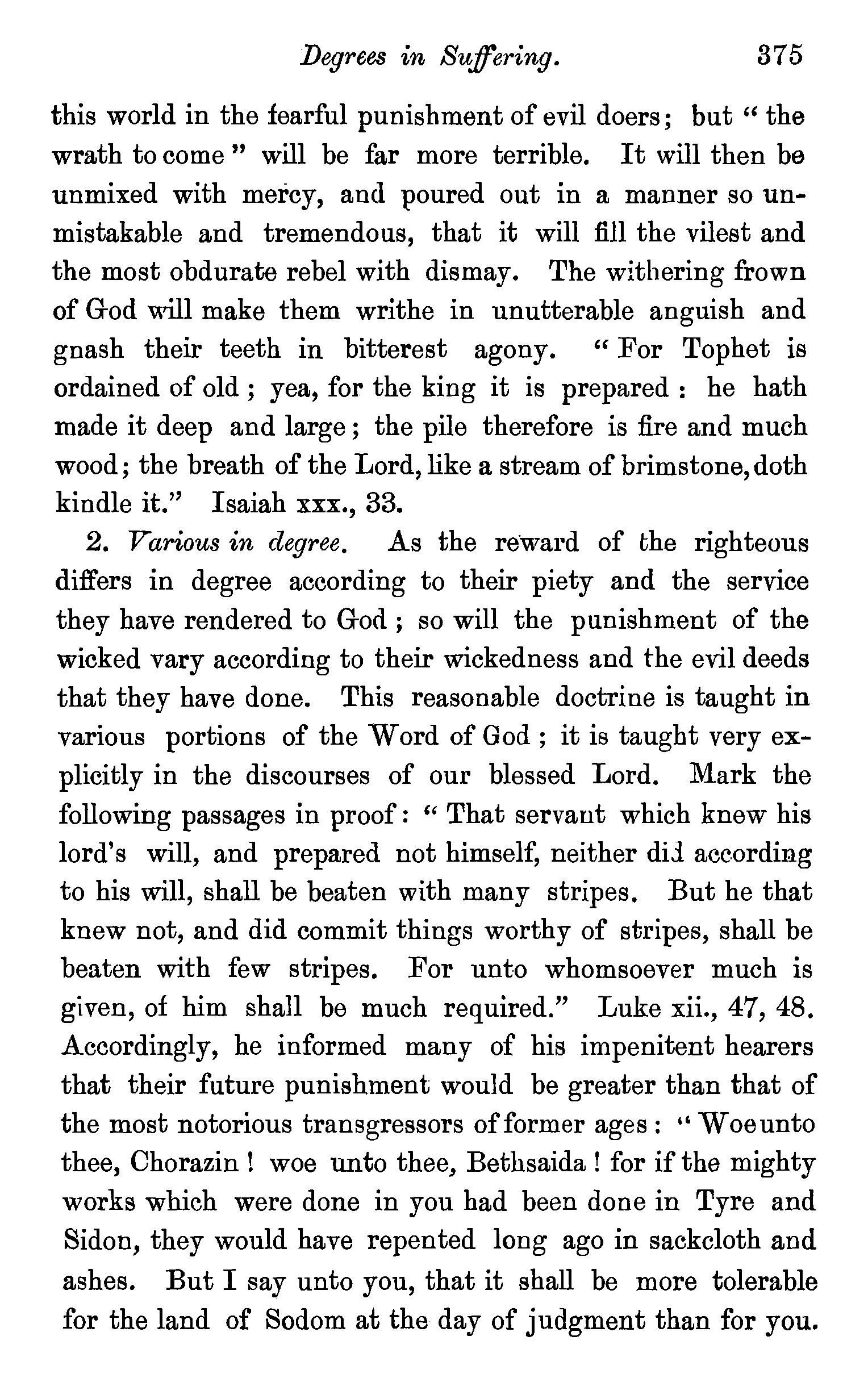
this world in the fearful punishment of evil doers; but " the wrath to come " will be far more terrible. It will then be unmixed with mercy, and poured out in a manner so unmistakable and tremendous, that it will fill the vilest and the most obdurate rebel with dismay. The withering frown of God vi'i.11make them writhe in unutterable anguish and gnash their teeth in bitterest agony. " For Tophet is ordained of old ; yea, for the king it is prepared : he hath made it deep and large; the pile therefore is fire and much wood; the breath of the Lord, like a stream of brimstone, doth kindle it." Isaiah xxx., 33.
2. Various in degree. As the reward of the righteous differs in degree according to their piety and the service they have rendered to God ; so will the punishment of the wicked vary according to their wickedness and the evil deeds that they have done. This reasonable doctrine is taught in various portions of the Word of God; it is taught very explicitly in the discourses of our blessed Lord. Mark the following passages in proof: " That servant which knew his lord's will, and prepared not himself, neither diJ according to his will, shall be beaten with many stripes. But he that knew not, and did commit things worthy of stripes, shall be beaten with few stripes. For unto whomsoever much is given, of him shall be much required." Luke xii., 47, 48. Accordingly, he informed many of his impenitent hearers that their future punishment would be greater than that of the most notorious transgressors of former ages: ••Woeunto thee, Ohorazin ! woe unto thee, Bethsaida ! for if the mighty works which were done in you had been done in Tyre and Sidon, they would have repented long ago in sackcloth and ashes. But I say unto you, that it shall be more tolerable for the land of Sodom at the day of judgment than for you.
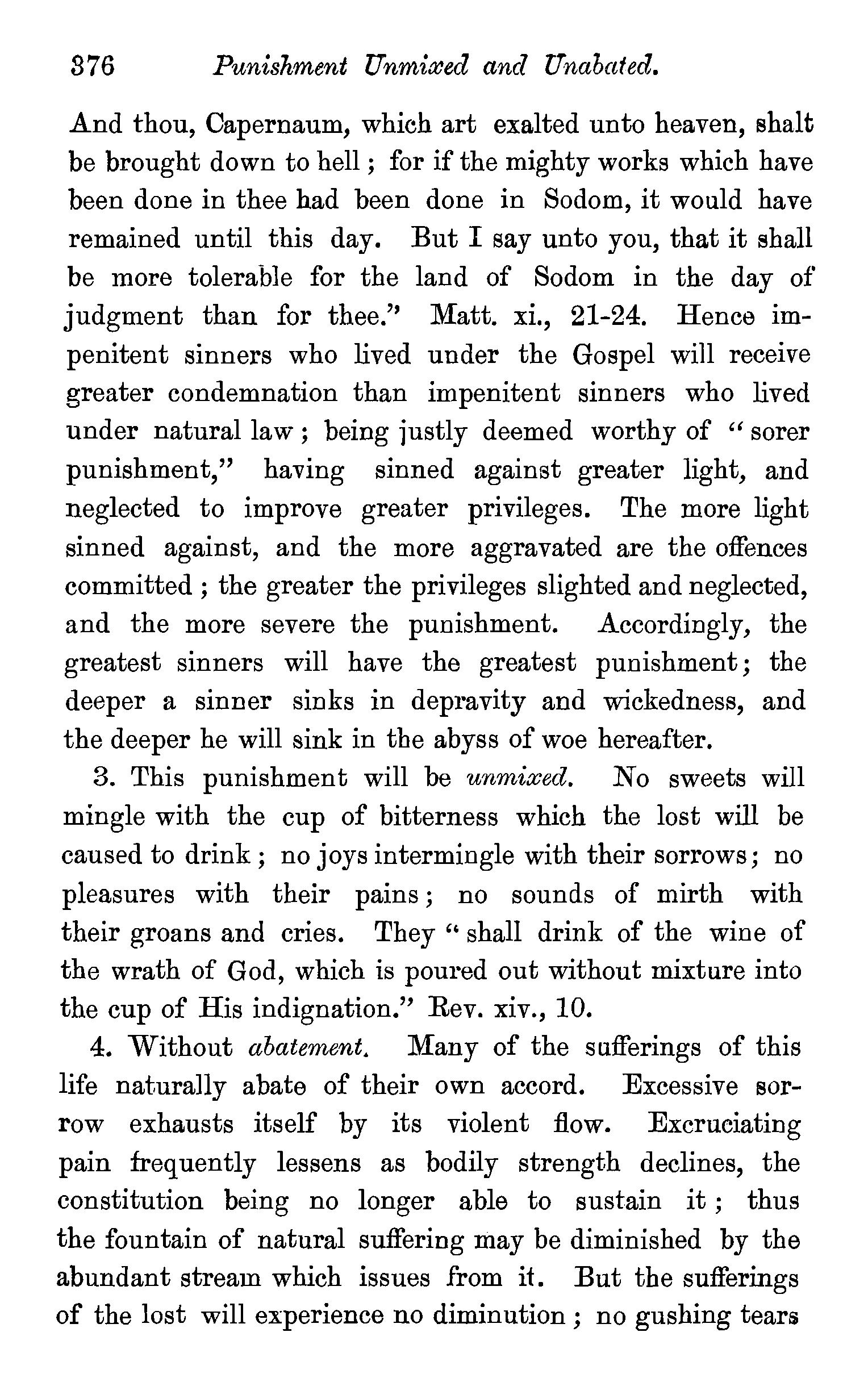
876 Punishment Unmixed and Unabated.
And thou, Capernaum, which art exalted unto heaven, shalt be brought down to hell; for if the mighty works which have been done in thee had been done in Sodom, it would have remained until this day. But I say unto you, that it shall be more tolerable for the land of Sodom in the day of judgment than for thee.'' Matt. xi., 21-24. Hence impenitent sinners who lived under the Gospel will receive greater condemnation than impenitent sinners who lived under natural law; being justly deemed worthy of "sorer punishment," having sinned against greater light, and neglected to improve greater privileges. The more light sinned against, and the more aggravated are the offences committed; the greater the privileges slighted and neglected, and the more severe the punishment. Accordingly, the greatest sinners will have the greatest punishment; the deeper a sinner sinks in depravity and wickedness, and the deeper he will sink in the abyss of woe hereafter.
3. This punishment will be unmixed. No sweets will mingle with the cup of bitterness which the lost will be caused to drink; no joys intermingle with their sorrows; no pleasures with their pains ; no sounds of mirth with their groans and cries. They "shall drink of the wine of the wrath of God, which is poured out without mixture into the cup of His indignation.'' Rev. xiv., 10.
4. Without abatement. Many of the sufferings of this life naturally abate of their own accord. Excessive sorrow exhausts itself by its violent fl.ow. Excruciating pain frequently lessens as bodily strength declines, the constitution being no longer able to sustain it ; thus the fountain of natural suffering may be diminished by the abundant stream which issues from it. But the sufferings of the lost will experience no diminution ; no gushing tears

will lessen the fountain of their grief, no loud complaints will relieve their pain and agony. The rich man in hell could not obtain so much .as a drop of cold water to cool his scorched tongue. Those already in that place of torment may expect an addition to their torments, rather than an abatement of them. As the joys of heaven will not be complete till after the general resurrection, when the body as well as the soul will be glorified with Christ; so the sufferings of the lost will not reach their greatest depths till after the resurrection of the body, which will share with the soul in the punishment due to a sinful life.
5. This punishment will be without intermission. In the greatest sorrows and sufferings of the present world there are usually some intervals of ease, some cessation of pain, some repose in the midst of agony and grief. But there is no cessation of the pains of hell, no intermission of its sorrows, no repose in its agonies. There is " no rest day nor night'' throughout the ages of eternity for such as have cut themselves off from the mercy of God by obdurate and final impenitence.
1. What are the three kinds of suffering the finally impenitent will endure ?
2. Is the " unquenchable fire" spoken of in Scripture to be understood literally or figuratively?
3. What will the mental suffering of the lost include ?
4. What will their moral suffering include?
5. By what rule will the punishment of the finally -impenitent be apportioned ?
6. •Will their suffering have any mixture of joy?
7. Will it be subject to any abatement?
8. When will that suffering reaeh its greatest height ?
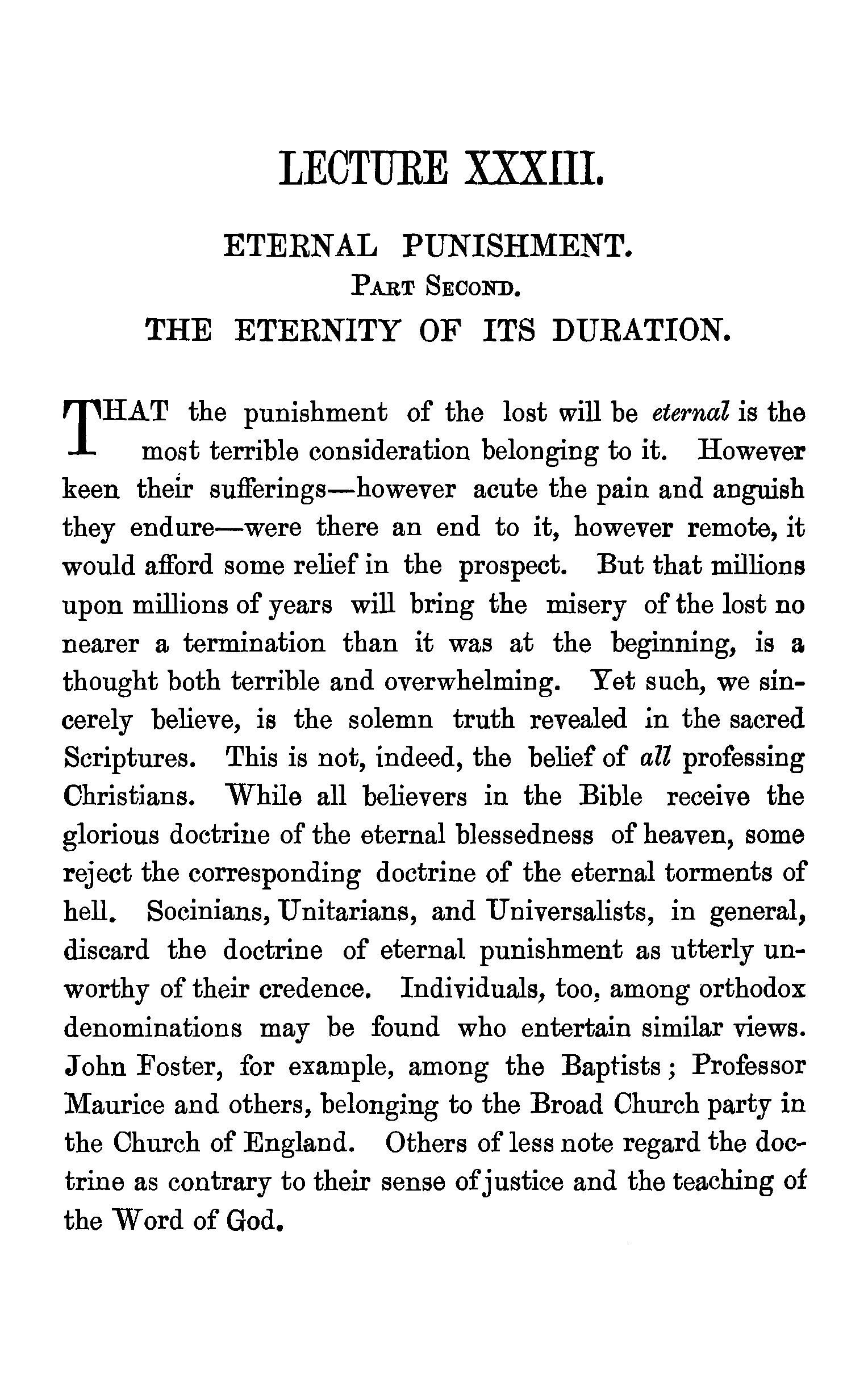
THAT the punishment of the lost will be eternal is the most terrible consideration belonging to it. However keen their sufferings-however acute the pain and anguish they endure-were there an end to it, however remote, it would afford some relief in the prospect. But that millions upon millions of years will bring the misery of the lost no nearer a termination than it was at the beginning, is a thought both terrible and overwhelming. Yet such, we sincerely believe, is the solemn truth revealed in the sacred Scriptures. This is not, indeed, the belief of all professing Christians. While all believers in the Bible receive the glorious doctrine of the eternal blessedness of heaven, some reject the corresponding doctrine of the eternal torments of hell. Socinians, Unitarians, and U niversalists, in general, discard the doctrine of eternal punishment as utterly unworthy of their credence. Individuals, too, among orthodox denominations may be found who entertain similar views. John Foster, for example, among the Baptists ; Professor Maurice and others, belonging to the Broad Church party in the Church of England. Others of less note regard the doctrine as contrary to their sense of justice and the teaching of the Word of God.
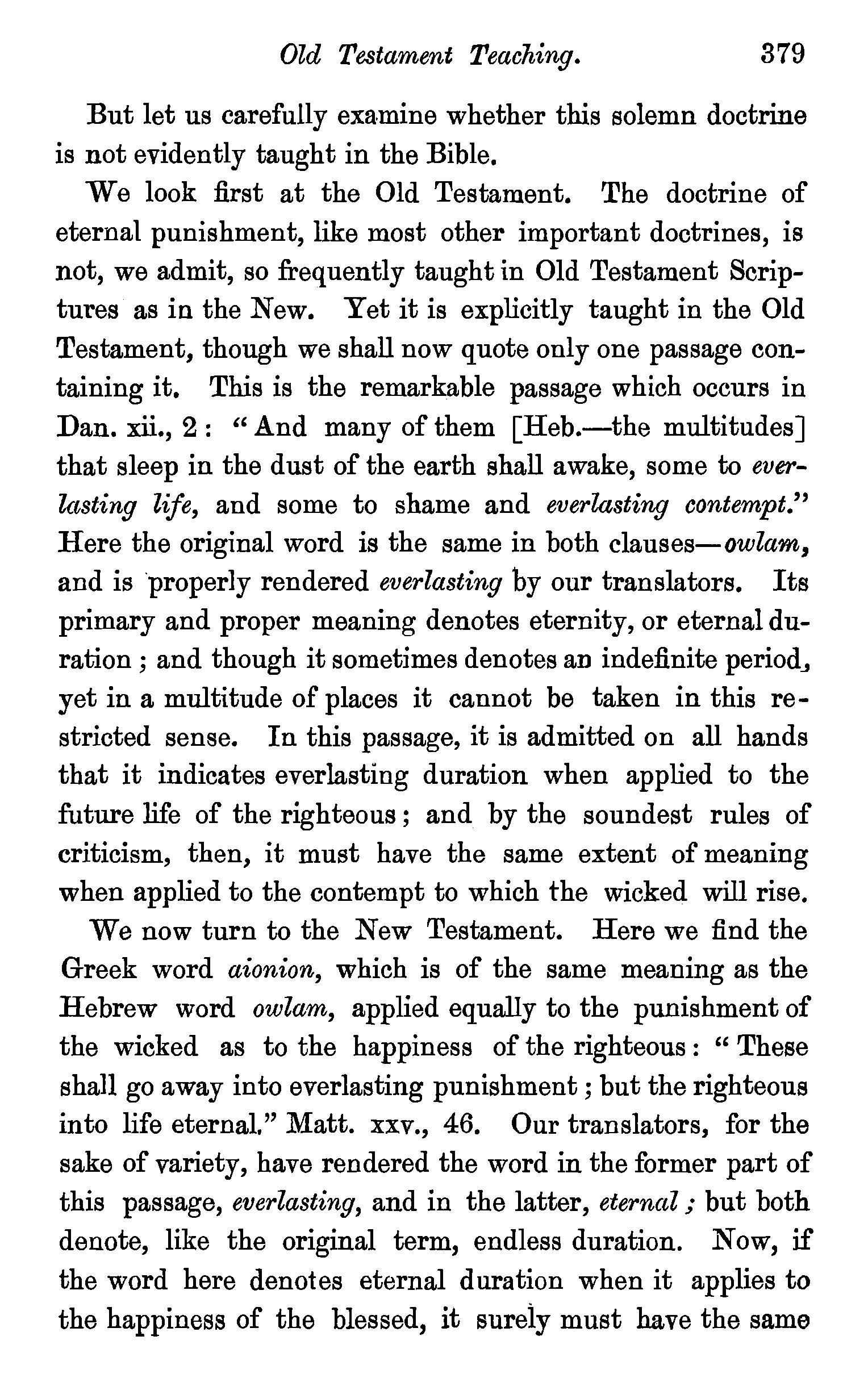
But let us carefully examine whether this solemn doctrine is not evidently taught in the Bible.
We look first at the Old Testament. The doctrine of eternal punishment, like most other important doctrines, is not, we admit, so frequently taught in Old Testament Scriptures as in the New. Yet it is explicitly taught in the Old Testament, though we shall now quote only one passage containing it. This is the remarkable passage which occurs in Dan. xii., 2 : " And many of them [Heb.-the multitudes J that sleep in the dust of the earth shall awake, some to everktsting life, and some to shame and everlasting contempt." Here the original word is the same in both clauses-owlam, and is properly rendered everlasting by our translators. Its primary and proper meaning denotes eternity, or eternal duration ; and though it sometimes denotes an indefinite period., yet in a multitude of places it cannot be taken in this restricted sense. In this passage, it is admitted on all hands that it indicates everlasting duration when applied to the future life of the righteous ; and by the soundest rules of criticism, then, it must have the same extent of meaning when applied to the contempt to which the wicked will rise.
We now turn to the New Testament. Here we find the Greek word aionion, which is of the same meaning as the Hebrew word owlam, applied equally to the punishment of the wicked as to the happiness of the righteous : " These sha11go away into everlasting punishment; but the righteous into life eternal." Matt. xxv., 46. Our translators, for the sake of variety, have rendered the word in the former part of this passage, everlasting, and in the latter, eternal; but both denote, like the original term, endless duration. Now, if the word here denotes eternal duration when it applies to the happiness of the blessed, it sureiy must have the same
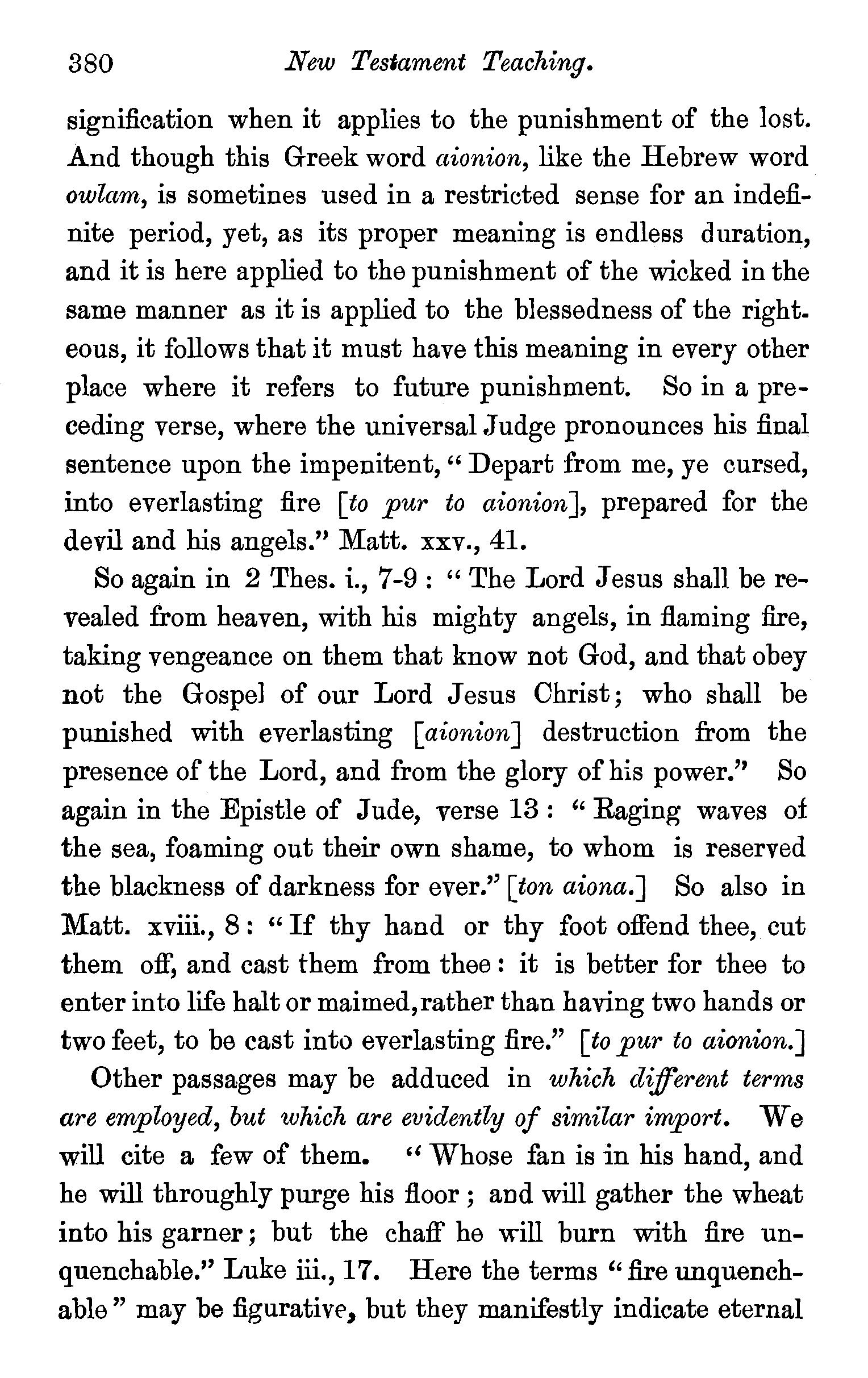
signification when it applies to the punishment of the lost. And though this Greek word ctionion, like the Hebrew word owlam, is sometines used in a restricted sense for an indefinite period, yet, as its proper meaning is endless duration, and it is here applied to the punishment of the wicked in the same manner as it is applied to the blessedness of the right. eous, it follows that it must have this meaning in every other place where it refers to future punishment. So in a preceding verse, where the universal ,Judge pronounces his final sentence upon the impenitent, " Depart from me, ye cursed, into everlasting fire [to pur to aionion], prepared for the devil and his angels." Matt. xxv., 41.
So again in 2 Thes. i., 7-9 : " The Lord Jesus shall be revealed from heaven, with his mighty angels, in flaming fire, taking vengeance on them that know not God, and that obey not the Gospel of our Lord Jesus Christ; who shall be punished with everlasting [ aionion] destruction from the presence of the Lord, and from the glory of his power.'' So again in the Epistle of Jude, verse 13: "Raging waves of the sea, foaming out their own shame, to whom is reserved the blackness of darkness for ever." [ton aiona.] So also in Matt. xviii., 8 : "If thy hand or thy foot offend thee, cut them off, and cast them from thee : it is better for thee to enter into life halt or maimed,rather than having two hands or two feet, to be cast into everlasting fire." [to pur to aionion.]
Other passages may be adduced in which different terms are employed, but which are evidently of similar import. We will cite a few of them. " Whose fan is in his hand, and he will throughly purge his floor ; and will gather the wheat into his garner; but the chaff he will burn with fire unquenchable.'' Luke iii., 17. Here the terms '' fire unquenchable" may be figurative, but they manifestly indicate eternal
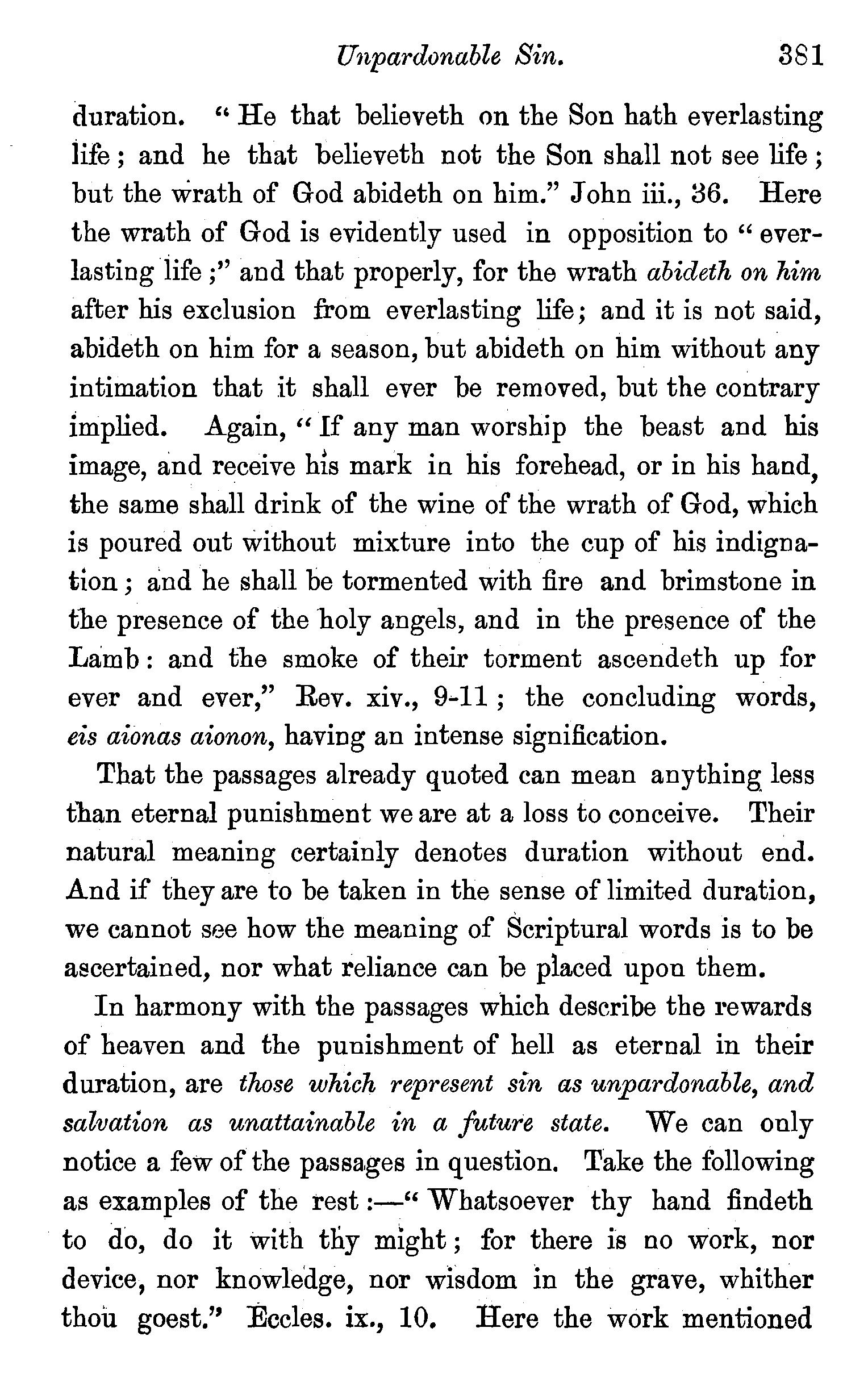
duration. " He that believeth on the Son hath everlasting iife ; and he that believeth not the Son shall not see life ; but the wrath of God abideth on him." John iii., 86. Here the wrath of God is evidently used in opposition to " everlasting iife ;'' and that properly, for the wrath abideth on him after his exclusion from everlasting life; and it is not said, abideth on him for a season, but abideth on him without any intimation that it shall ever be removed, but the contrary implied. Again, " If any man worship the beast and his image, and receive his mark in his forehead, or in his hand, the same shall drink of the wine of the wrath of God, which is poured out without mixture into the cup of his indignation ; and he shall be tormented with fire and brimstone in the presence of the holy angels, and in the presence of the Lamb : and the smoke of their torment ascendeth up for ever and ever," Rev. xiv., 9-11; the concluding words, eis aionas aionon, having an intense signification.
That the passages already quoted can mean anything less than eternal punishment we are at a loss to conceive. Their natural meaning certainly denotes duration without end. And if they are to be taken in the sense of limited duration, we cannot see how the meaning of Scriptural words is to be ascertained, nor what reliance can be placed upon them.
In harmony with the passages which describe the rewards of heaven and the punishment of hell as eternal in their duration, are those which represent sin as unpardonable, and salvation as unattainable in a future state. We can only notice a few of the passages in question. Take the following as examples of the rest :-" Whatsoever thy hand findeth to do, do it with tli.y might ; for there is no work, nor device, nor knowledge, nor wisdom in the grave, whither thou goest." Eccles. ix., 10. Here the work mentioned
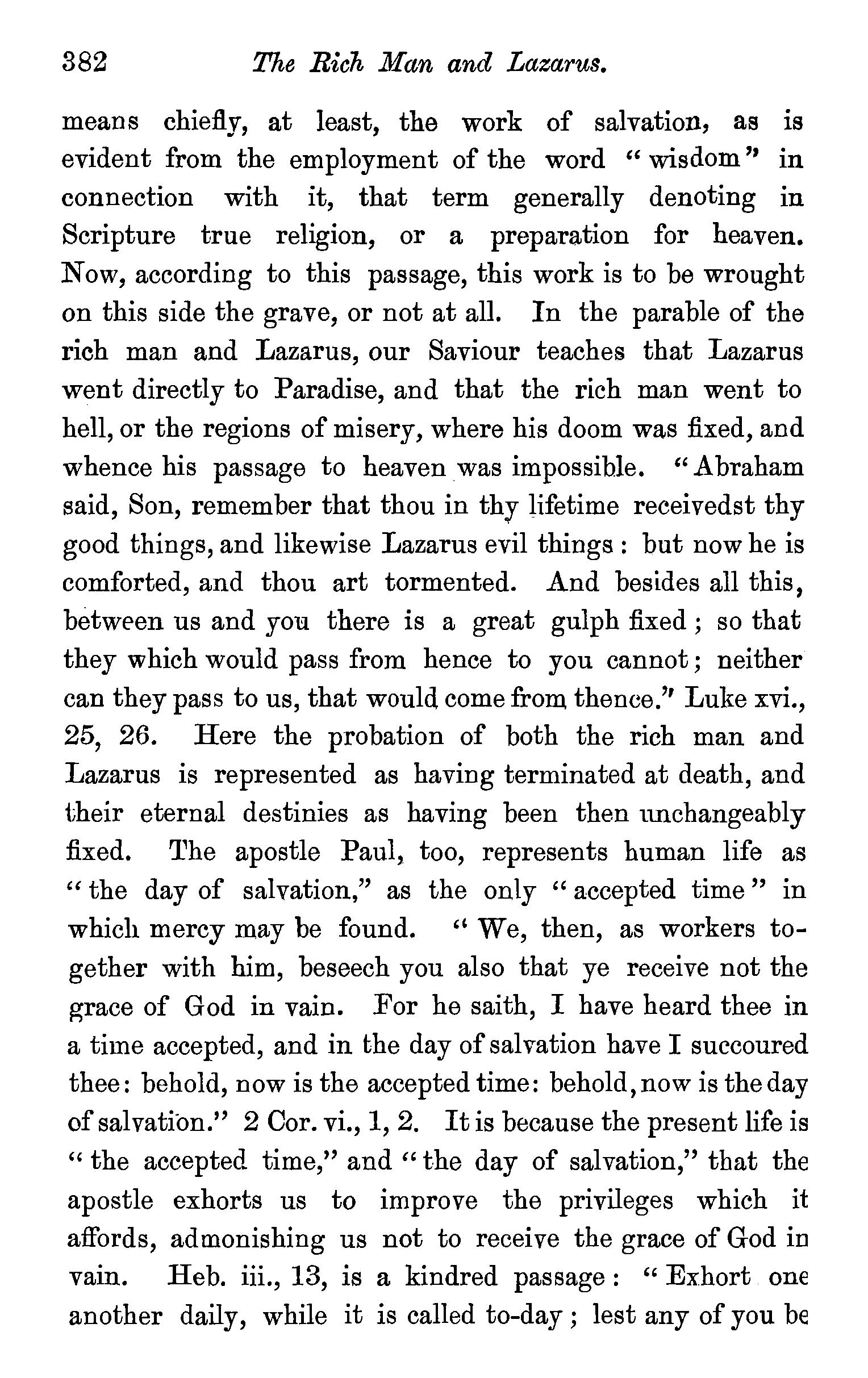
382 The Rich Man and Lazarus.
means chiefly, at least, the work of salvation, as 1s evident from the employment of the word " wisdom'' m connection with it, that term generally denoting in Scripture true religion, or a preparation for heaven. Now, according to this passage, this work is to be wrought on this side the grave, or not at all. In the parable of the rich man and Lazarus, our Saviour teaches that Lazarus went directly to Paradise, and that the rich man went to hell, or the regions of misery, where his doom was fixed, and whence his passage to heaven was impossible. "Abraham said, Son, remember that thou in thy lifetime receivedst thy good things, and likewise Lazarus evil things : but now he is comforted, and thou art tormented. And besides all this, between us and you. there is a great gulph fixed ; so that they which would pass from hence to you cannot ; neither can they pass to us, that would come from thence.'' Luke xvi., 25, 26. Here the probation of both the rich man and Lazarus is represented as having terminated at death, and their eternal destinies as having been then unchangeably fixed. The apostle Paul, too, represents human life as "the day of salvation," as the only "accepted time" in which mercy may be found. '' We, then, as workers together with him, beseech you also that ye receive not the grace of God in vain. For he saith, I have heard thee in a time accepted, and in the day of salvation have I succoured thee: behold, now is the accepted time: behold,now is the day of salvation." 2 Cor. vi., 1, 2. It is because the present life is "the accepted time," and "the day of salvation," that the apostle exhorts us to improve the privileges which it affords, admonishing us not to receive the grace of God in vam. Heb. iii., 13, is a kindred passage : " Exhort one another daily, while it is called to-day; lest any of you be
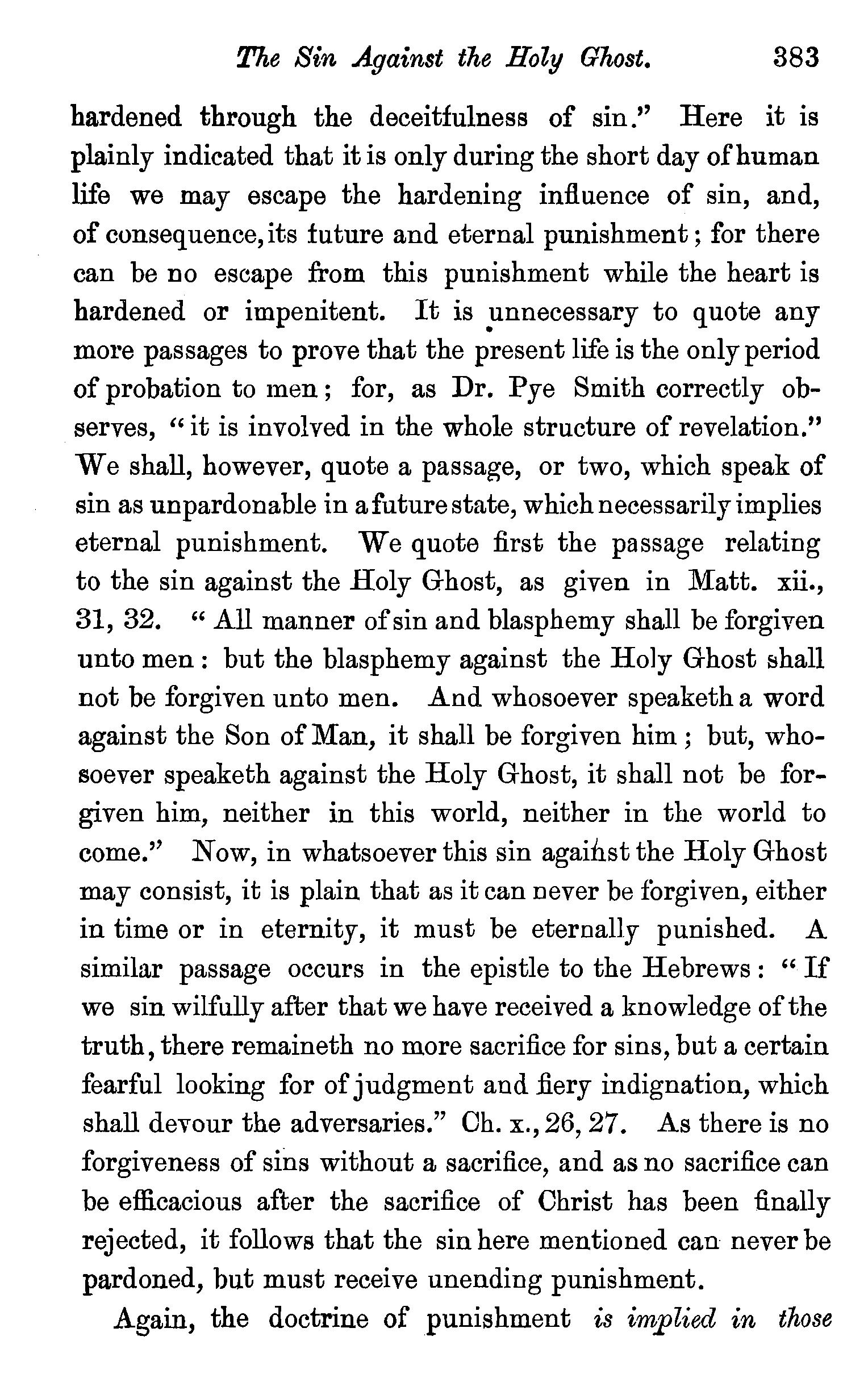
hardened through the deceitfulness of sin.'' Here it is plainly indicated that it is only during the short day of human life we may escape the hardening influence of sin, and, of consequence,its future and eternal punishment; for there can be no escape from this punishment while the heart is hardened or impenitent. It is unnecessary to quote any . more passages to prove that the present life is the only period of probation to men; for, as Dr. Pye Smith correctly observes, "it is involved in the whole structure of revelation." We shall, however, quote a passage, or two, which speak of sin as unpardonable in afuturestate, which necessarily implies eternal punishment. We quote first the passage relating to the sin against the Holy Ghost, as given in Matt. xii., 31, 32. " All manner of sin and blasphemy shall be forgiven unto men : but the blasphemy against the Holy Ghost shall not be forgiven unto men. And whosoever speaketh a word against the Son of Man, it shall be forgiven him; but, whosoever speaketh against the Holy Ghost, it shall not be forgiven him, neither in this world, neither in the world to come.'' Now, in whatsoever this sin against the Holy Ghost may consist, it is plain that as it can never be forgiven, either in time or in eternity, it must be eternally punished. A similar passage occurs in the epistle to the Hebrews: "If we sin wilfully after that we have received a knowledge of the truth, there remaineth no more sacrifice for sins, but a certain fearful looking for of judgment and fiery indignation, which shall devour the adversaries." Oh. x., 26, 27. As there is no forgiveness of sins without a sacrifice, and as no sacrifice can be efficacious after the sacrifice of Christ has been finally rejected, it follows that the sin here mentioned can never be pardoned, but must receive unending punishment.
Again, the doctrine of punishment is implied in those
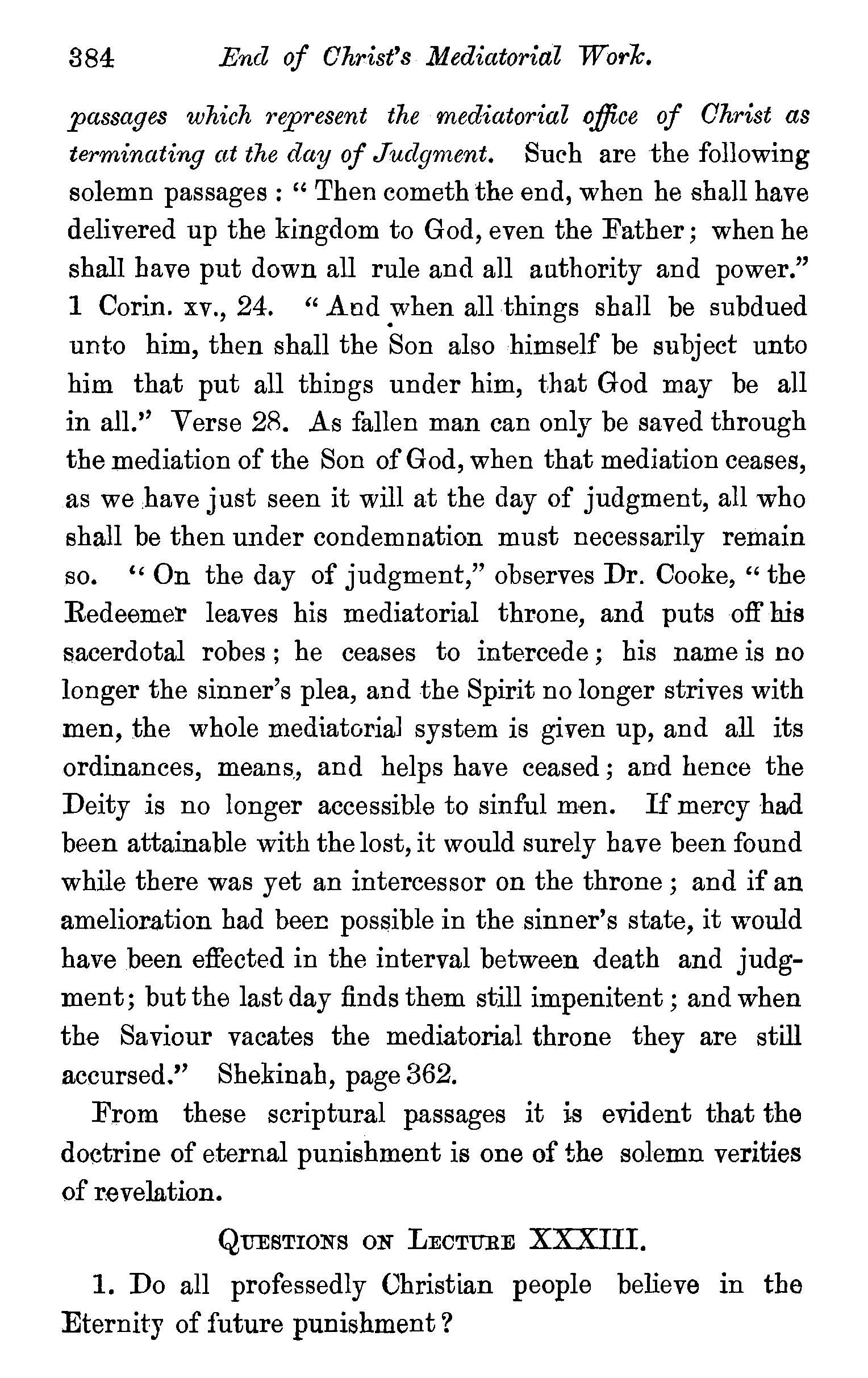
passages which 1·epresent the mediatorial office of Christ as terminating at the day of Judgment. Such are the following solemn passages : " Then cometh the end, when he shall have delivered up the kingdom to God, even the Father; when he shall have put down all rule and all authority and power." 1 Corin. xv., 24. "And _whenall things shaJl be subdued unto him, then shall the Son also himself be subject unto him that put all things under him, that God may be all in all.'' Verse 28. As fallen man can only be saved through the mediation of the Son of God, when that mediation ceases, as we .have just seen it will at the day of judgment, all who shall be then under condemnation must necessarily remain so. '' On the day of judgment," observes Dr. Cooke, "the Redeemer leaves his mediatorial throne, and puts off his sacerdotal robes; he ceases to intercede; his name is no longer the sinner's plea, and the Spirit no longer strives with men, the whole mediatorial system is given up, and all its ordinances, means_, and helps have ceased; and hence the Deity is no longer accessible to sinful men. If mercy had been attainable with the lost, it would surely have been found while there was yet an intercessor on the throne ; and if an amelioration had bee!! possible in the sinner's state, it would have been effected in the interval between death and judgment; but the last day finds them still impenitent; and when the Saviour vacates the mediatorial throne they are still accursed.'' Shekinah, page 362.
From these scriptural passages it is evident that the doctrine of eternal punishment is one of the solemn verities of revelation.
1. Do all professedly Christian people believe m the Eternity of future punishment?
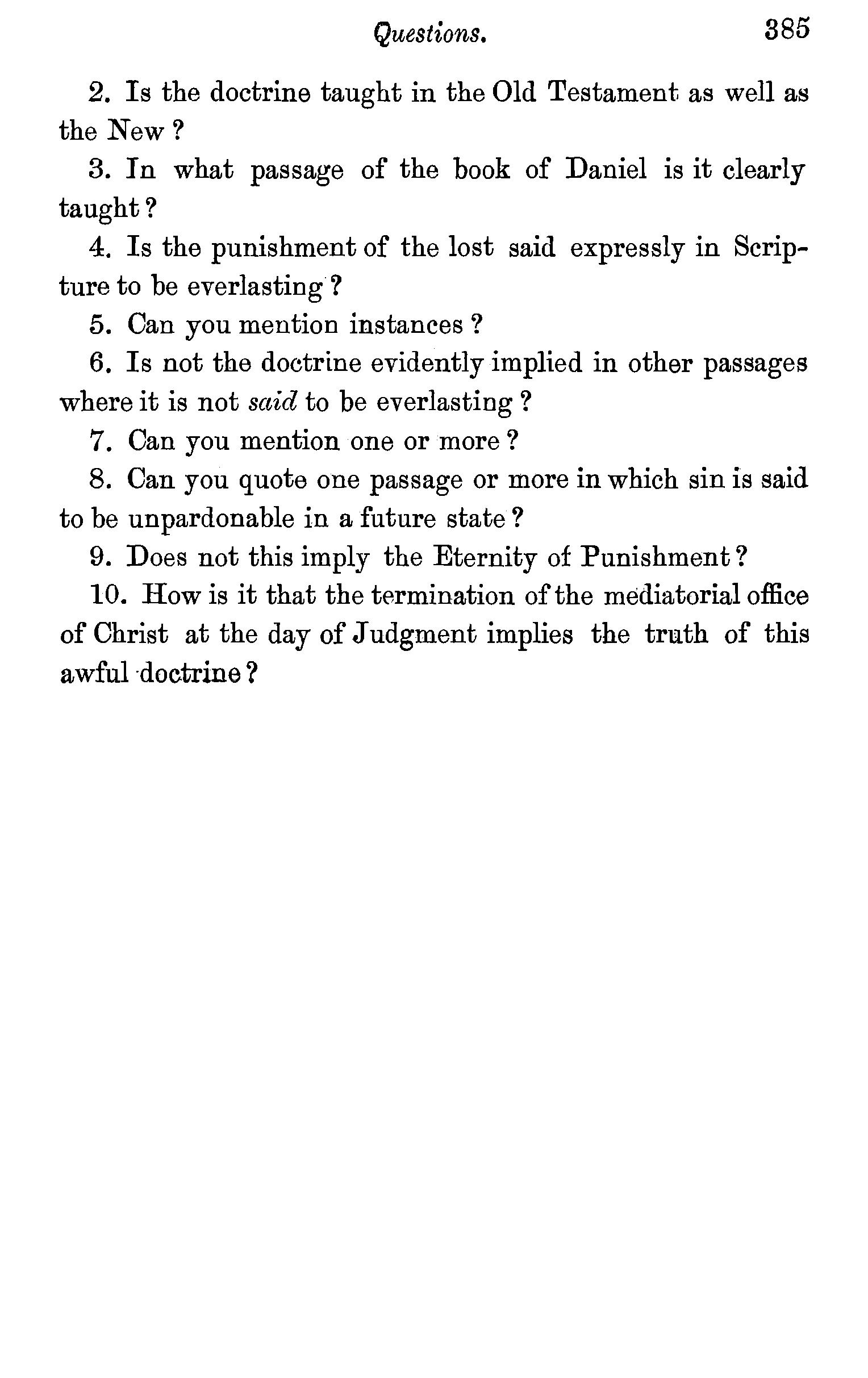
2. Is the doctrine taught in the Old Testament as well as the New?
3. In what passage of the book of Daniel is it clearly taught?
4. Is the punishment of the lost said expressly in Scripture to be everlasting ?
5. Can you mention instances ?
6. Is not the doctrine evidently implied in other passages where it is not said to be everlasting ?
7. Can you mention one or more ?
8. Can you quote one passage or more in which sin is said to be unpardonable in a future state ?
9. Does not this imply the Eternity of Punishment?
10. How is it that the termination of the mediatorial office of Christ at the day of Judgment implies the truth of this awful ·doctrine?
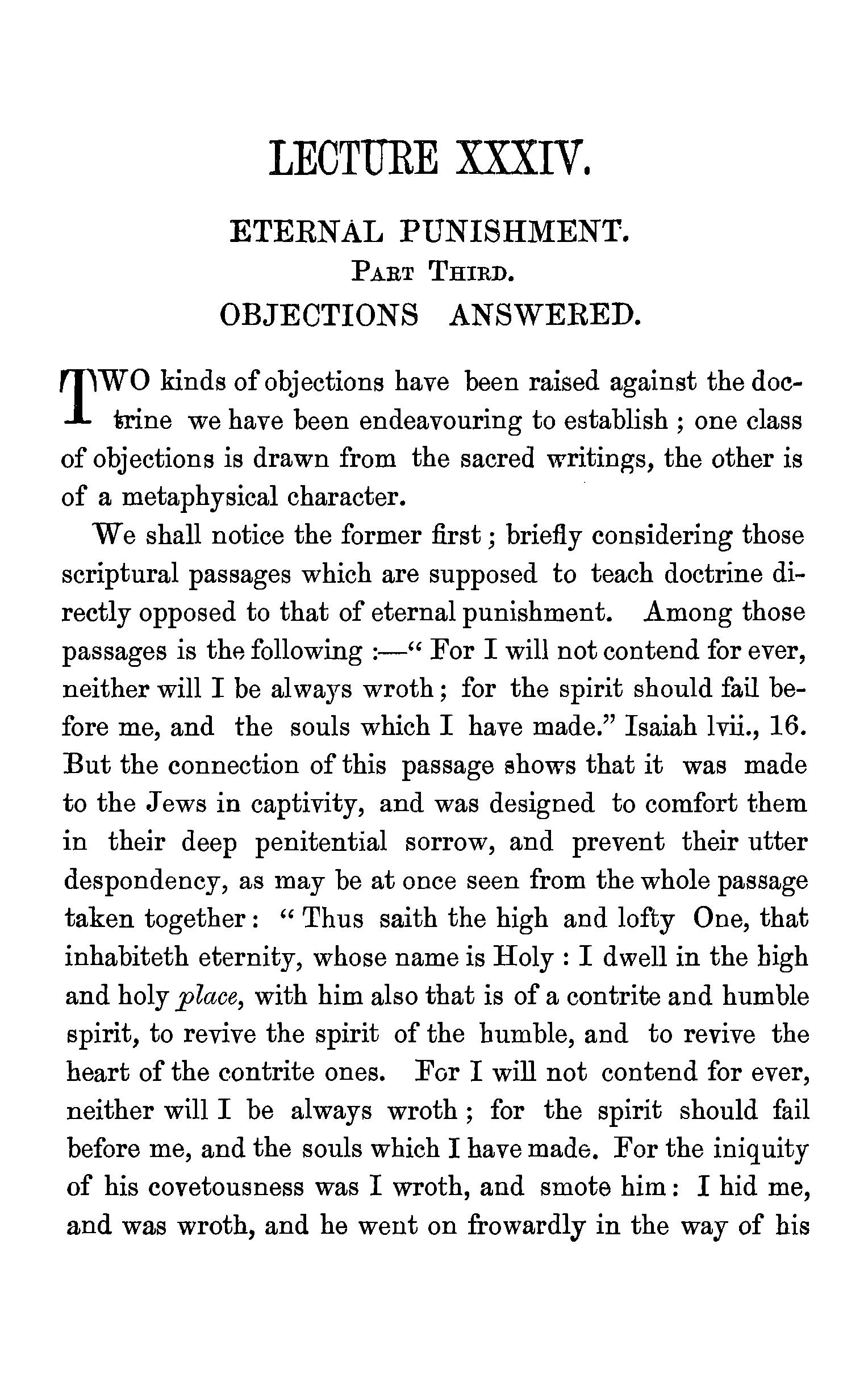
TWO kinds of objections have been raised against the doctrine we have been endeavouring to establish ; one class of objections is drawn from the sacred writings, the other is of a metaphysical character.
We shall notice the former first; briefly considering those scriptural passages which are supposed to teach doctrine directly opposed to that of eternal punishment. Among those passages is the following:-" For I will not contend for ever, neither will I be always wroth; for the spirit should fail before me, and the souls which I have made." Isaiah lvii., 16. But the connection of this passage shows that it was made to the Jews in captivity, and was designed to comfort them in their deep penitential sorrow, and prevent their utter despondency, as may be at once seen from the whole passage taken together : " Thus saith the high and lofty One, that inhabiteth eternity, whose name is Holy: I dwell in the high and holy place, with him also that is of a contrite and humble spirit, to revive the spirit of the bumble, and to revive the heart of the contrite ones. For I will not contend for ever, neither will I be always wroth ; for the spirit should fail before me, and the souls which I have made. For the iniquity of his covetousness was I wroth, and smote him : I hid me, and was wroth, and he went on frowardly in the way of his
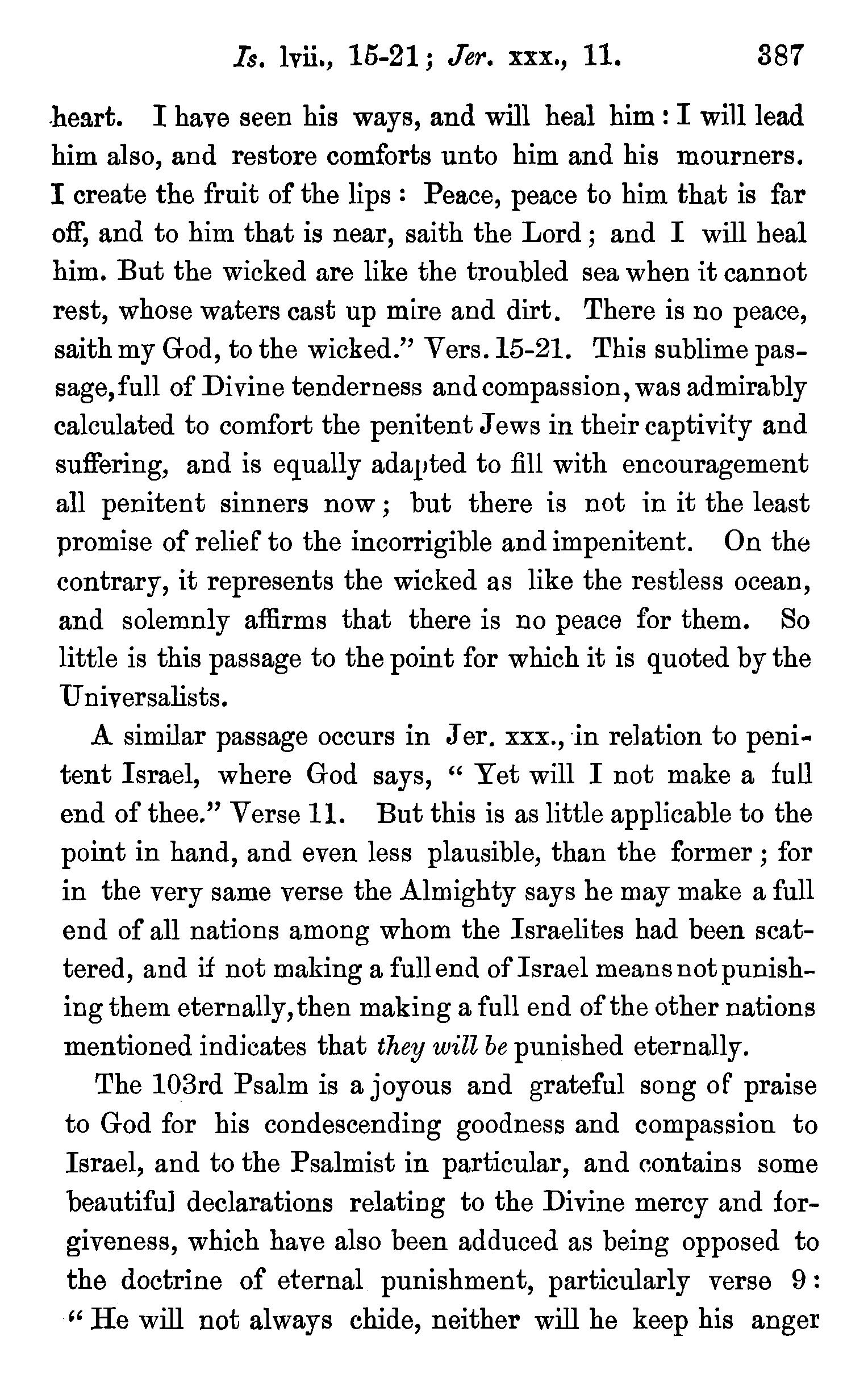
.heart. I have seen his ways, and will heal him: I will lead him also, and restore comforts unto him and his mourners. I create the fruit of the lips: Peace, peace to him that is far off, and to him that is near, saith the Lord; and I will heal him. But the wicked are like the troubled sea when it cannot rest, whose waters cast up mire and dirt. There is no peace, saith my God, to the wicked.'' Vers.15-21. This sublime passage,full of Divine tenderness and compassion, was admirably calculated to comfort the penitent Jews in their captivity and suffering, and is equally adapted to fill with encouragement all penitent sinners now ; but there is not in it the least promise of relief to the incorrigible and impenitent. On the contrary, it represents the wicked as like the restless ocean, and solemnly affirms that there is no peace for them. So little is this passage to the point for which it is quoted by the U niversalists.
A similar passage occurs in J er. xxx., -in relation to penitent Israel, where God says, " Yet will I not make a full end of thee." Verse 11. But this is as little applicable to the point in hand, and even less plausible, than the former ; for in the very same verse the Almighty says he may make a full end of all nations among whom the Israelites had been scattered, and if not making a full end of Israel means not punishing them eternally, then making a full end of the other nations mentioned indicates that they will be punished eternally.
The 103rd Psalm is a joyous and grateful song of praise to God for his condescending goodness and compassion to Israel, and to the Psalmist in particular, and contains some beautiful declarations relating to the Divine mercy and forgiveness, which have also been adduced as being opposed to the doctrine of eternal punishment, particularly verse 9: "He will not always chide, neither will he keep his anger
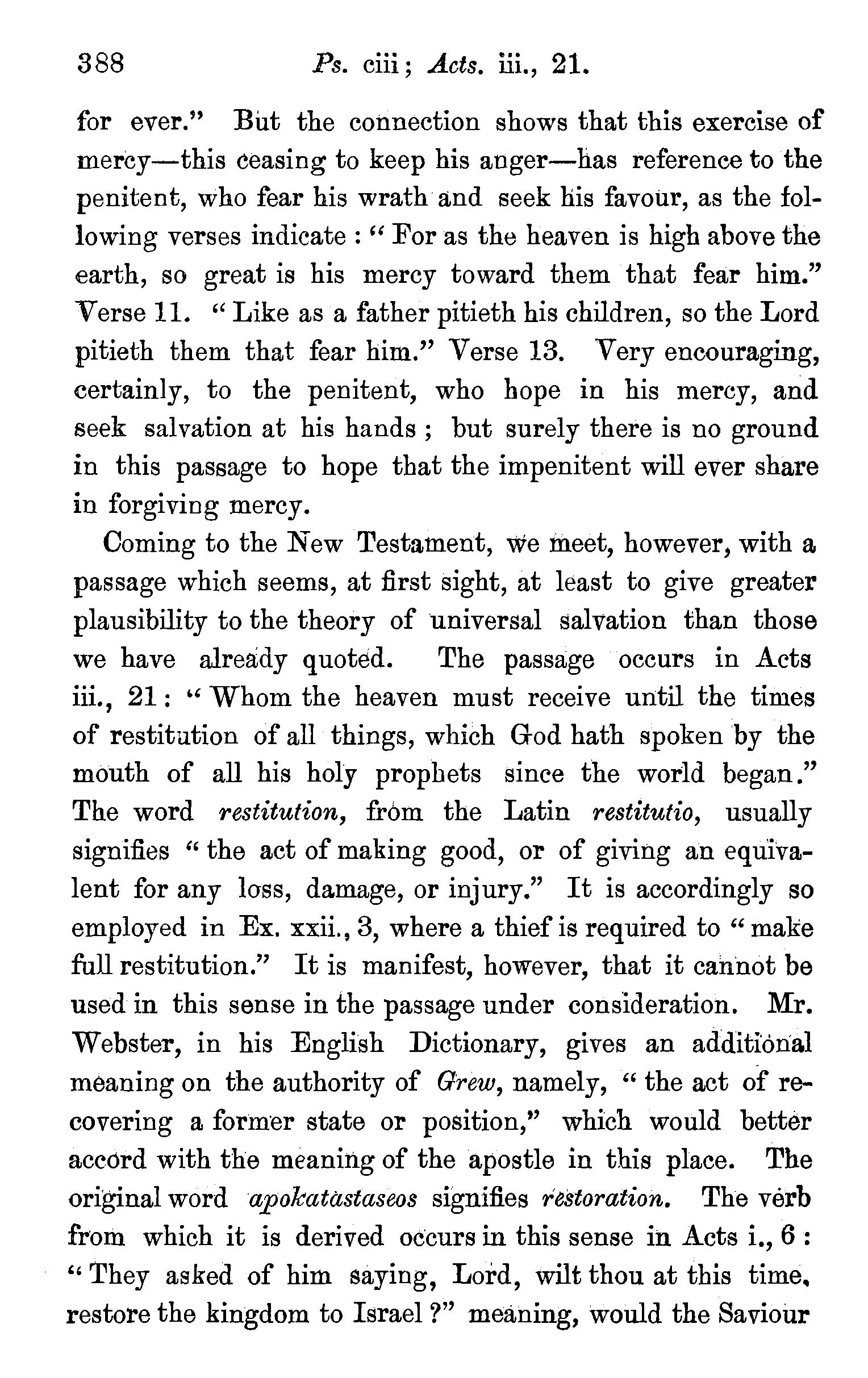
Ps. ciii; Acts. iii., 21. for ever." But the connection shows that this exercise of mercy-this ceasing to keep his anger-has reference to the penitent, who fear his wrath and seek his favour, as the following verses indicate : " For as the heaven is high above the earth, so great is his mercy toward them that fear him." Verse 11. " Like as a father pitieth his children, so the Lord pitieth them that fear him." Verse 13. Very encouraging, certainly, to the penitent, who hope in his mercy, and seek salvation at his hands ; but surely there is no ground in this passage to hope that the impenitent will ever share in forgiving mercy.
Coming to the New Testament, we meet, however, with a passage which seems, at first sight, at least to give greater plausibility to the theory of universal salvation than those we have already quoted. The passage occurs in Acts iii., 21: "'Whom the heaven must receive un.til the times of restitution of all things, which God hath spoken by the mouth of all his holy prophets since the world began." The word restitution, from the Latin restitutio, usually signifies "the act of making good, or of giving an equivalent for any loss, damage, or injury." It is accordingly so employed in Ex. xxii., 3, where a thief is required to "make full restitution." It is manifest, however, that it cannot be used in this sense in the passage under consideration. Mr. Webster, in his English Dictionary, gives an additional meaning on the authority of Grew, namely, "the act of recovering a form·er state or position," which would better accord with the meaning of the apostle in this place. The original word apokatastaseos signifies restoration. The verb from which it is derived occurs in this sense in Acts i., 6: "They asked of him saying, Lord, wilt thou at this time. restore the kingdom to Israel ?'' meaning, would the Saviour
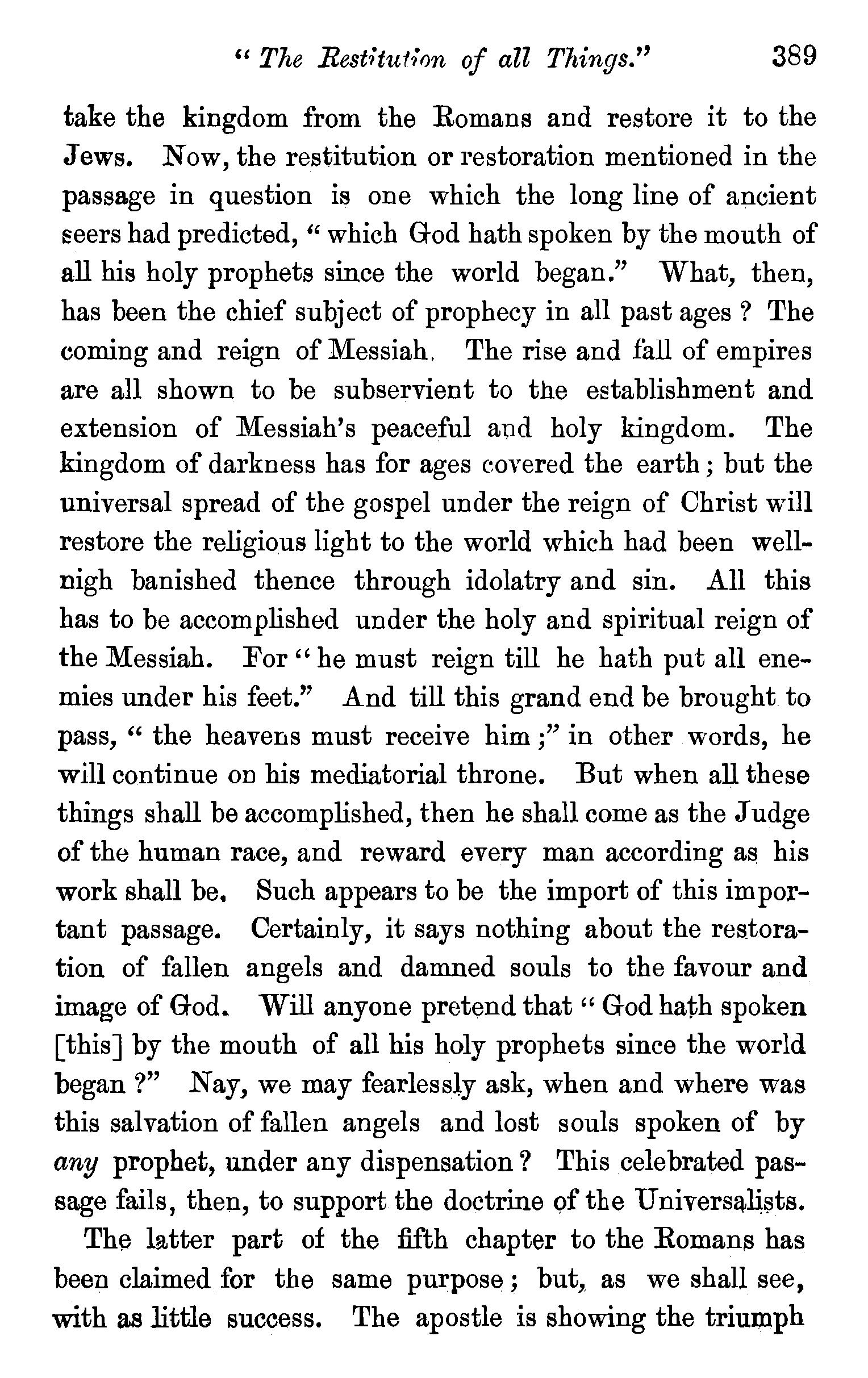
take the kingdom from the Romans and restore it to the Jews. Now, the restitution or restoration mentioned in the passage in question is one which the long line of ancient seers had predicted, " which God hath spoken by the mouth of all his holy prophets since the world began." What, then, has been the chief subject of prophecy in all past ages? The coming and reign of Messiah. The rise and fall of empires are all shown to be subservient to the establishment and extension of Messiah's peaceful ai;:id holy kingdom. The kingdom of darkness has for ages covered the earth ; but the universal spread of the gospel under the reign of Christ will restore the religious light to the world which had been wellnigh banished thence through idolatry and sin. All this has to be accomplished under the holy and spiritual reign of the Messiah. For " he must reign till he hath put all enemies under his feet.'' And till this grand end be brought to pass, " the heavens must receive him ;" in other words, he will continue on his mediatorial throne. But when all these things shall be accomplished, then he shall come as the Judge of the human race, and reward every man according as his work shall be, Such appears to be the import of this important passage. Certainly, it says nothing about the res_toration of fallen angels and damned souls to the favour and image of God& Will anyone pretend that " God hath spoken [this] by the mouth of all his holy prophets since the world began?" Nay, we may fearlessly ask, when and where was this salvation of fallen angels and lost souls spoken of by any prophet, under any dispensation? This celebrated passage fails, then, to support the doctrine <;>fthe Universali~ts.
The latter part of the fifth chapter to the Romans has been claimed for the same purpose; but, as we shall see, with as little success. The apostle is showing the triumph
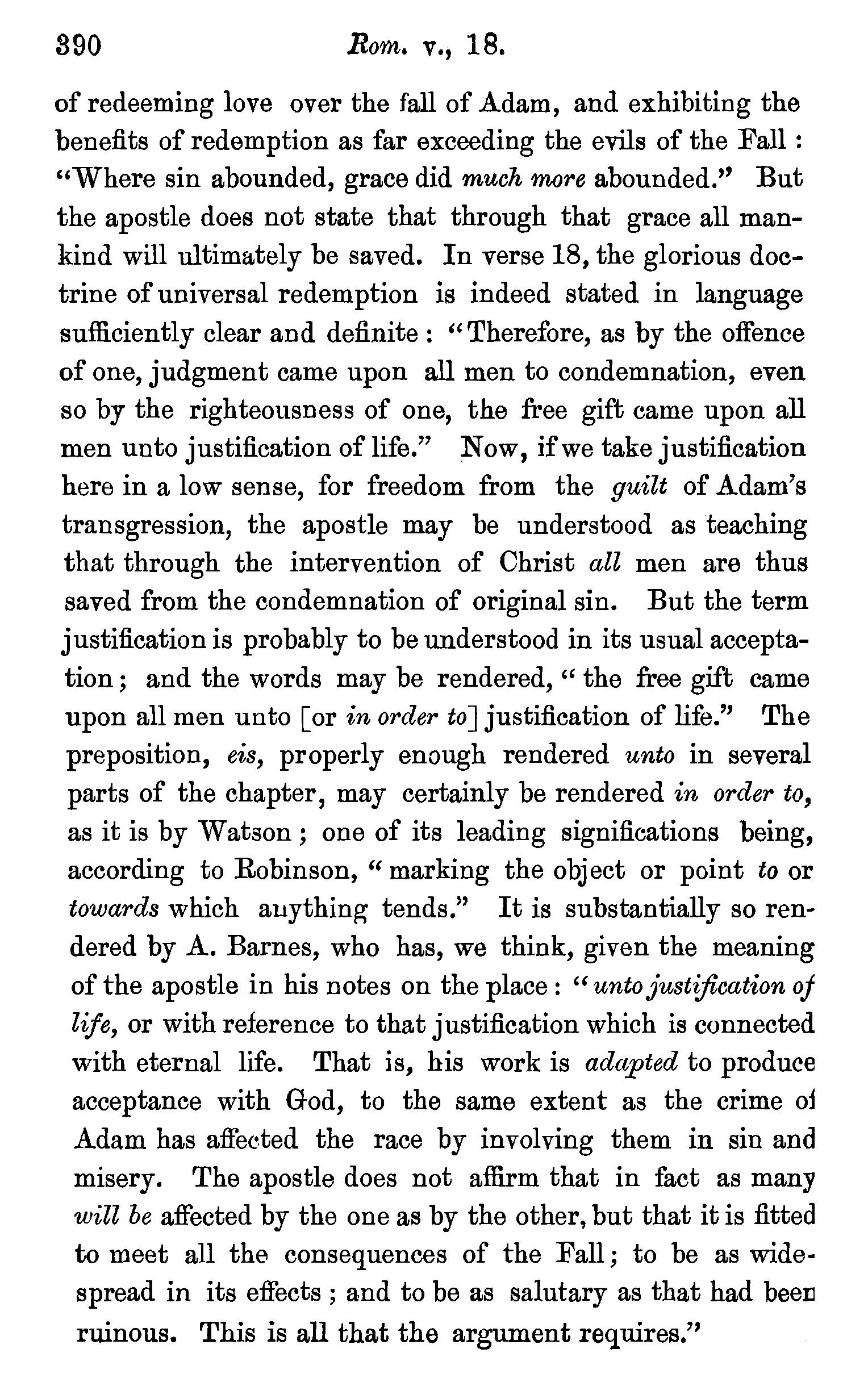
of redeeming love over the fall of Adam, and exhibiting the benefits of redemption as far exceeding the evils of the Fall : "Where sin abounded, grace did much more abounded.'' But the apostle does not state that through that grace all mankind will ultimately be saved. In verse 18, the glorious doctrine of universal redemption is indeed stated in language sufficiently clear and definite: "Therefore, as by the offence of one, judgment came upon all men to condemnation, even so by the righteousness of one, the free gift came upon all men unto justification of life."
Now, if we take justification here in a low sense, for freedom from the guilt of Adam's transgression, the apostle may be understood as teaching that through the intervention of Christ all men are thus saved from the condemnation of original sin. But the term justification is probably to be understood in its usual acceptation; and the words may be rendered, " the free gift came upon all men unto [ or in order to] justification of life." The preposition, eis, properly enough rendered unto in several parts of the chapter, may certainly be rendered in order to, as it is by Watson ; one of its leading significations being, according to Robinson, "marking the object or point to or towards which auything tends." It is substantially so rendered by A. Barnes, who has, we think, given the meaning of the apostle in his notes on the place : "unto justification of life, or with reference to that justification which is connected with eternal life. That is, his work is adapted to produce acceptance with God, to the same extent as the crime o1 Adam has affected the race by involving them in sin and misery. The apostle does not affirm that in fact as many will be affected by the one as by the other, but that it is :fitted to meet all the consequences of the Fall; to be as widespread in its effects ; and to be as salutary as that had beeD ruinous. This is all that the argument requires."
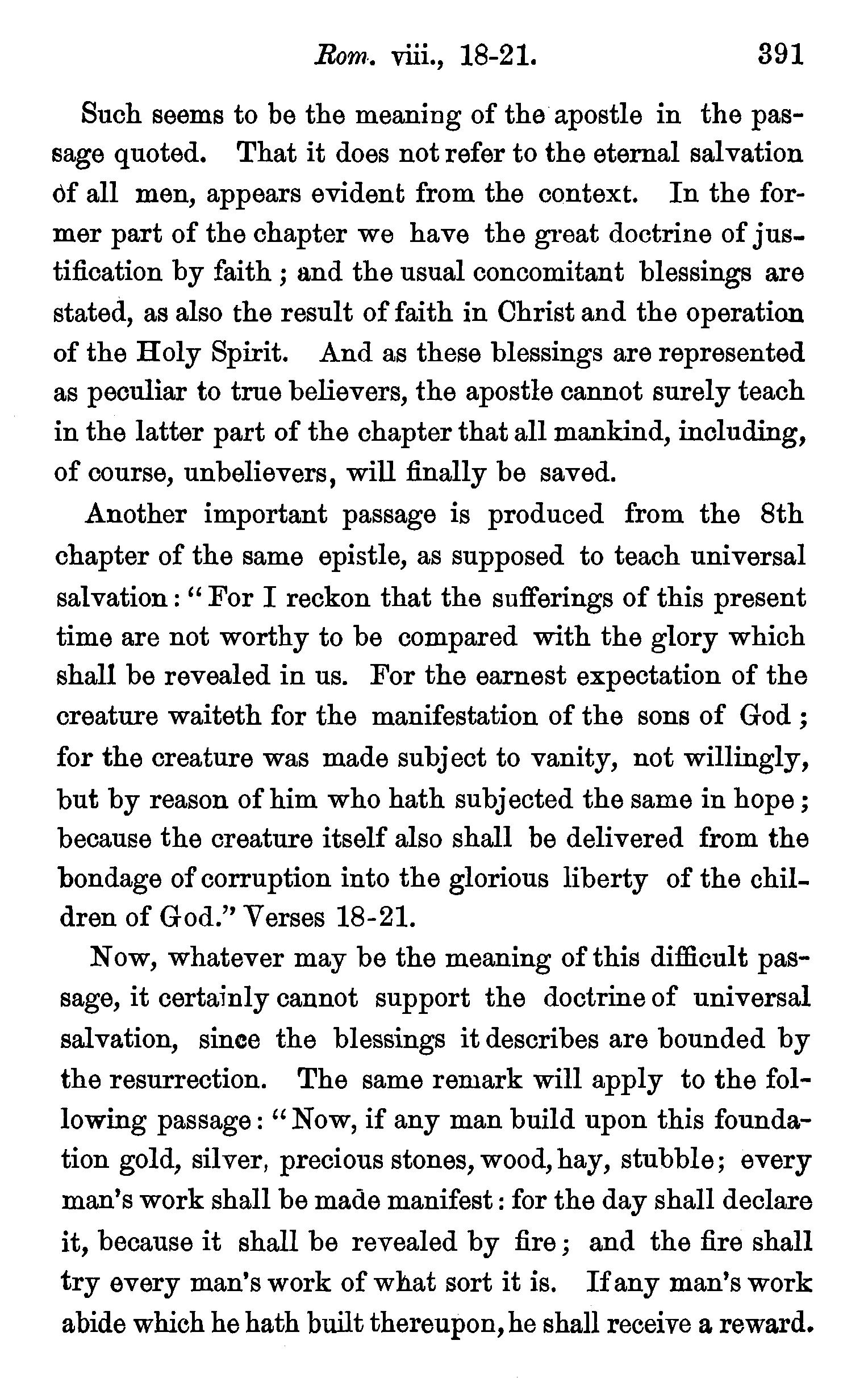
Such seems to be the meaning of the apostle in the passage quoted. That it does not refer to the eternal salvation of all men, appears evident from the context. In the former part of the chapter we have the great doctrine of justification by faith; and the usual concomitant blessings are stated, as also the result of faith in Christ and the operation of the Holy Spirit. And as these blessings are represented as peculiar to true believers, the apostle cannot surely teach in the latter part of the chapter that all mankind, including, of course, unbelievers, will finally be saved.
Another important passage is produced from the 8th chapter of the same epistle, as supposed to teach universal salvation:" For I reckon that the sufferings of this present time are not worthy to be compared with the glory which shall be revealed in us. For the earnest expectation of the creature waiteth for the manifestation of the sons of God ; for the creature was made subject to vanity, not willingly, but by reason of him who hath subjected the same in hope; because the creature itself also shall be delivered from the bondage of corruption into the glorious liberty of the children of God.'' Verses 18-21.
Now, whatever may be the meaning of this difficult passage, it certainly cannot support the doctrine of universal salvation, since the blessings it describes are bounded by the resurrection. The same remark will apply to the following passage: "Now, if any man build upon this foundation gold, silver, precious stones, wood, hay, stubble; every man's work shall be made manifest: for the day shall declare it, because it shall be revealed by fire ; and the fire shall try every man's work of what sort it is. If any man's work abide which he hath built thereupon, he shall receive a reward.
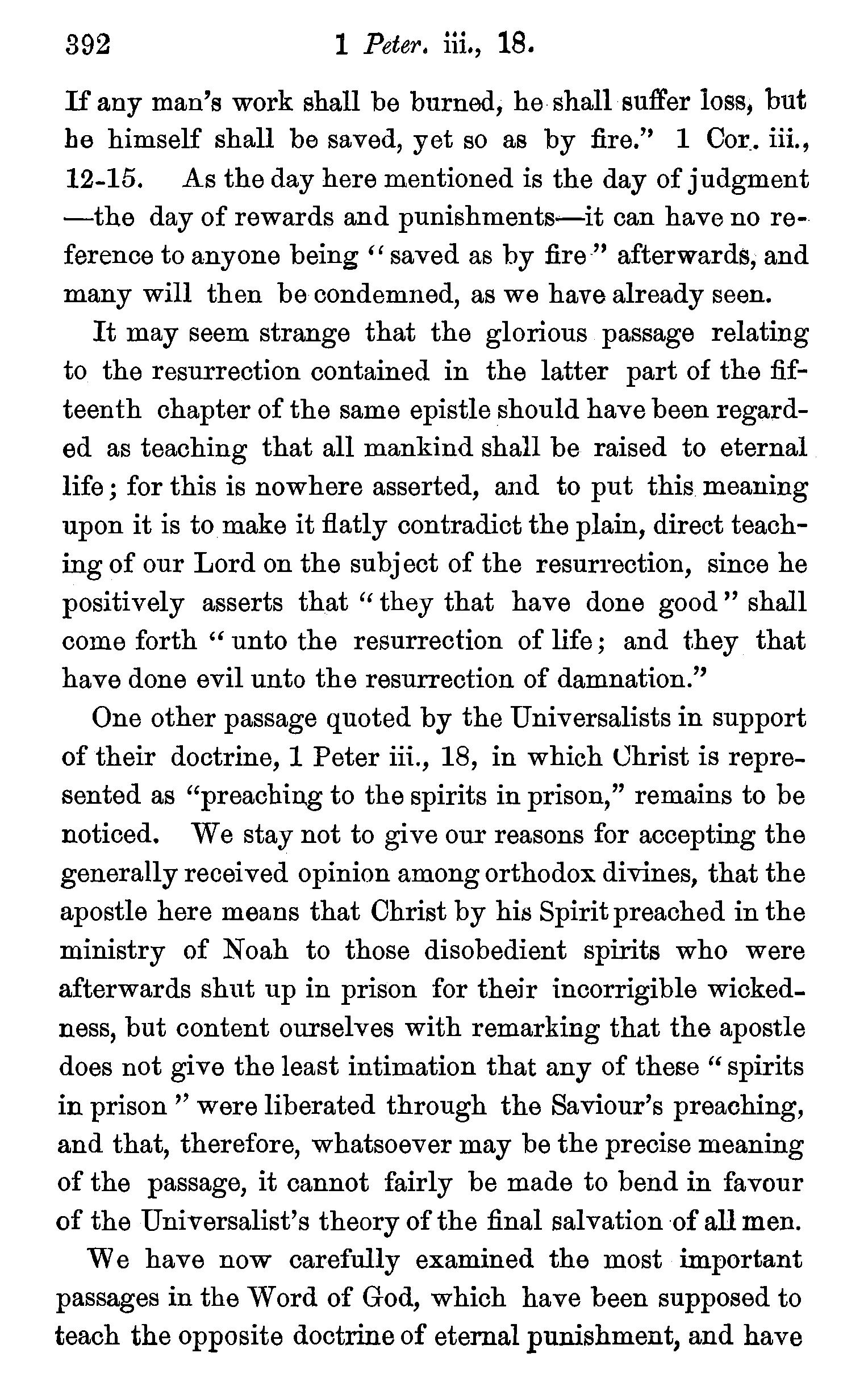
If any man's work shall be burned, he shall suffer loss, but he himself shall be saved, yet so as by fire.'' 1 Cor_.iii., 12-15. As the day here mentioned is the day of judgment -the day of rewards and punishments--it can have no reference to anyone being "saved as by fire " afterwards, and many will then be condemned, as we have already seen. It may seem strange that the glorious passage relating to the resurrection contained in the latter part of the fifteenth chapter of the same epistle should have been regarded as teaching that all mankind shall be raised to eternal life; for this is nowhere asserted, and to put this meaning upon it is to make it flatly contradict the plain, direct teaching of our Lord on the subject of the resurrection, since he positively asserts that "they that have done good" shall come forth " unto the resurrection of life; and they that have done evil unto the resurrection of damnation.''
One other passage quoted by the Universalists in support of their doctrine, 1 Peter iii., 18, in which Christ is represented as "preaching to the spirits in prison," remains to be noticed. We stay not to give our reasons for accepting the generally received opinion among orthodox divines, that the apostle here means that Christ by his Spirit preached in the ministry of Noah to those disobedient spirits who were afterwards shut up in prison for thefr incorrigible wickedness, but content ourselves with remarking that the apostle does not give the least intimation that any of these" spirits in prison'' were liberated through the Saviour's preaching, and that, therefore, whatsoever may be the precise meaning of the passage, it cannot fairly be made to bend in favour of the Universalist's theory of the final salvation of all men. We have now carefully examined the most important passages in the Word of God, which have been supposed to teach the opposite doctrine of eternal punishment, and have
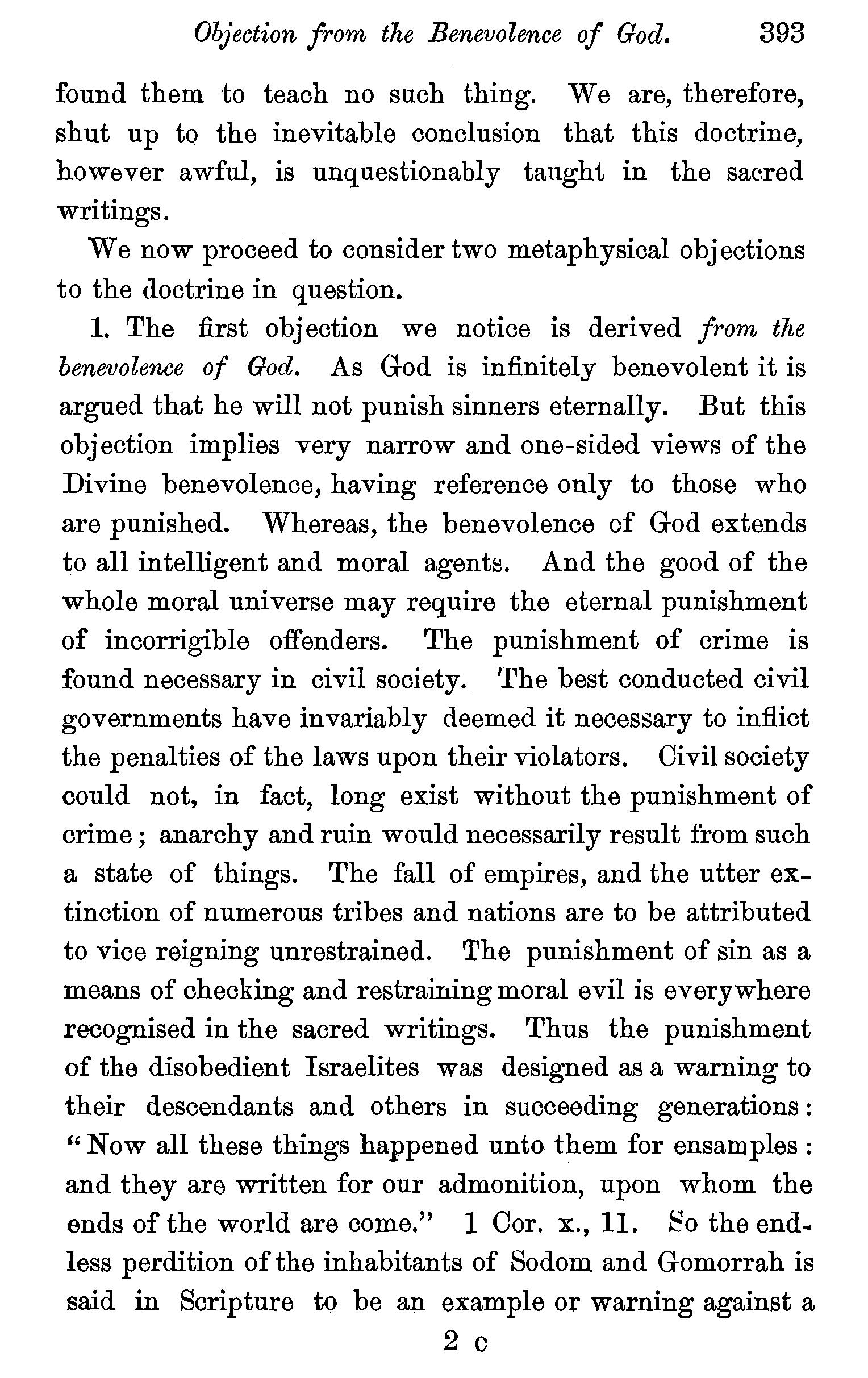
found them to teach no such thing. We are, therefore, shut up to the inevitable conclusion that this doctrine, however awful, is unquestionably taught in the sacred writings.
We now proceed to consider two metaphysical objections to the doctrine in question.
1. The first objection we notice is derived from the benevolence of God. As God is infinitely benevolent it is argued that he will not punish sinners eternally. But this objection implies very narrow and one-sided views of the Divine benevolence, having reference only to those who are punished. Whereas, the benevolence of God extends to all intelligent and moral agents. And the good of the whole moral universe may require the eternal punishment of incorrigible offenders. The punishment of crime is found necessary in civil society. 'I1he best conducted civil governments have invariably deemed it necessary to inflict the penalties of the laws upon their violators. Civil society could not, in fact, long exist without the punishment of crime; anarchy and ruin would necessarily result from such a state of things. The fall of empires, and the utter extinction of numerous tribes and nations are to be attributed to vice reigning unrestrained. The punishment of sin as a means of checking and restraining moral evil is everywhere recognised in the sacred writings. Thus the punishment of the disobedient Israelites was designed as a warning to their descendants and others in succeeding generations : "Now all these things happened unto them for ensamples: and they are written for our admonition, upon whom the ends of the world are come." 1 Oor. x., 11. Eo the end .. less perdition of the inhabitants of Sodom and Gomorrah is said in Scripture to be an example or warning against a
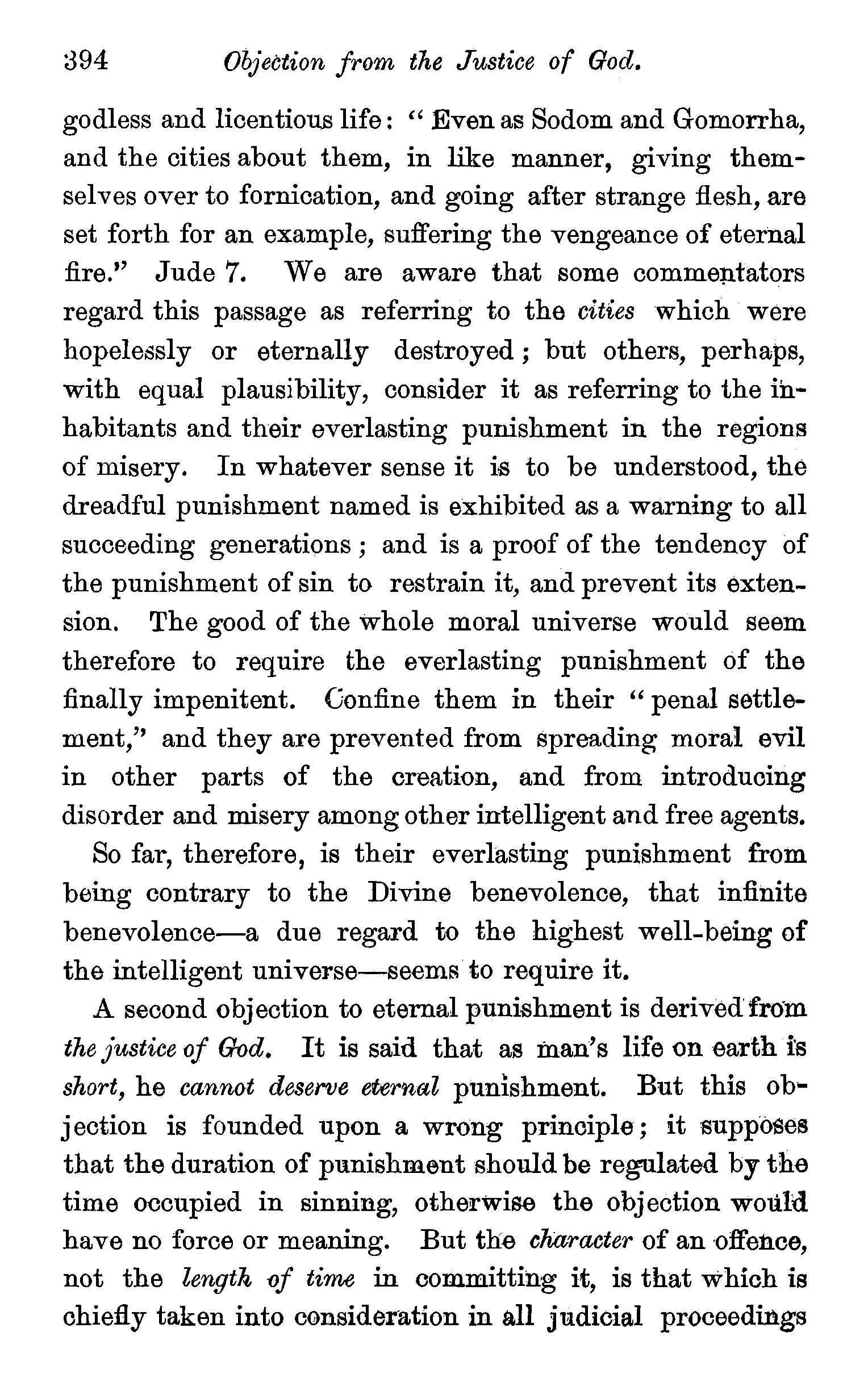
394 ObJectionfrom the Justice of God.
godless and licentious life: " Even as Sodom and Gomorrha, and the cities about them, in like manner, giving themselves over to fornication, and going after strange flesh, are set forth for an example, suffering the vengeance of eternal fire.'' Jude 7. We are aware that some commep.tators regard this passage as referring to the cities which were hopelessly or eternally destroyed ; but others, perhaps, with equal plausibility, consider it as referring to the inhabitants and their everlasting punishment in the regions of misery. In whatever sense it is to be understood, the dreadful punishment named is exhibited as a warning to all succeeding generations ; and is a proof of the tendency of the punishment of sin to restrain it, and prevent its extension. The good of the whole moral universe would seem therefore to require the everlasting punishment of the finally impenitent. Confine them in their " penal settlement," and they are prevented from spreading moral evil in other parts of the creation, and from introducing disorder and misery among other intelligent and free agents.
So far, therefore, is their everlasting punishment from being contrary to the Divine benevolence, that infinite benevolence-a due regard to the highest well-being of the intelligent universe-seems to require it.
A second objection to eternal punishment is derived from the Justice of God. It is said that as man's life on earth is short, he cannot deserve eternal punishment. But this objection is founded upon a wrong principle; it supposes that the duration of punishment should be regulated by the time occupied in sinning, otherwise the objection would have no force or meaning. But the character of an ·offen.ce, not the length of time in committing it, is that which is chiefly taken into consideration in all judicial proceedings
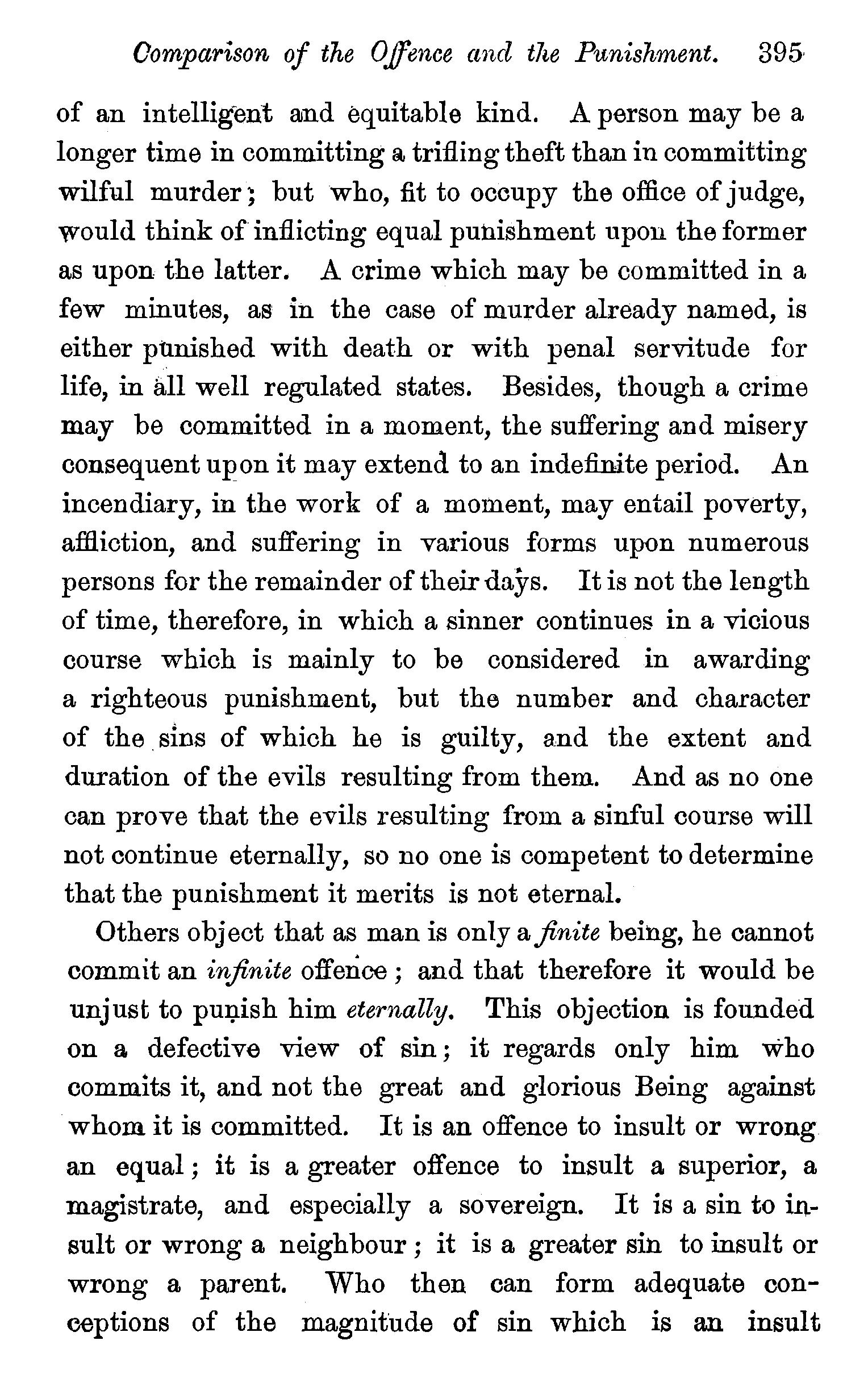
of an intelligent and equitable kind. A person may be a longer time in committing a trifling theft than in committing wilful murder~ but who, fit to occupy the office of judge, would think of inflicting equal puhishment upon the former as upon the latter. A crime which may be committed in a few minutes, as in. the case of murder already named, is either punished with death or with penal servitude for life, in all well regulated states. Besides, though a crime may be committed in a moment, the suffering and misery consequent upon it may extend to an indefinite period. An incendiary, in the work of a moment, may entail poverty, affliction, and suffering in various forms upon numerous persons for the remainder of their days. It is not the length of time, therefore, in which a sinner continues in a vicious course which is mainly to be considered in awarding a righteous punishment, but the number and character of the. sins of which he is guilty, and the extent and duration of the evils resulting from them. And as no one can prove that the evils resulting from a sinful course will not continue eternally, so no one is competent to determine that the punishment it merits is not eternal.
Others object that as man is only a.finite being, he cannot commit an infinite offence ; and that therefore it would be unjust to pm;1ish him eternally. This objection is founded on a defective view of sin; it regards only him who commits it, and not the great and glorious Being against whom it is committed. It is an offence to insult or wrong an equal ; it is a greater offence to insult a superior, a magistrate, and especially a sovereign. It is a sin to insult or wrong a neighbour; it is a greater sin. to insult or wrong a parent. Who then can form adequate conceptions of the magnitude of sin which is an insult
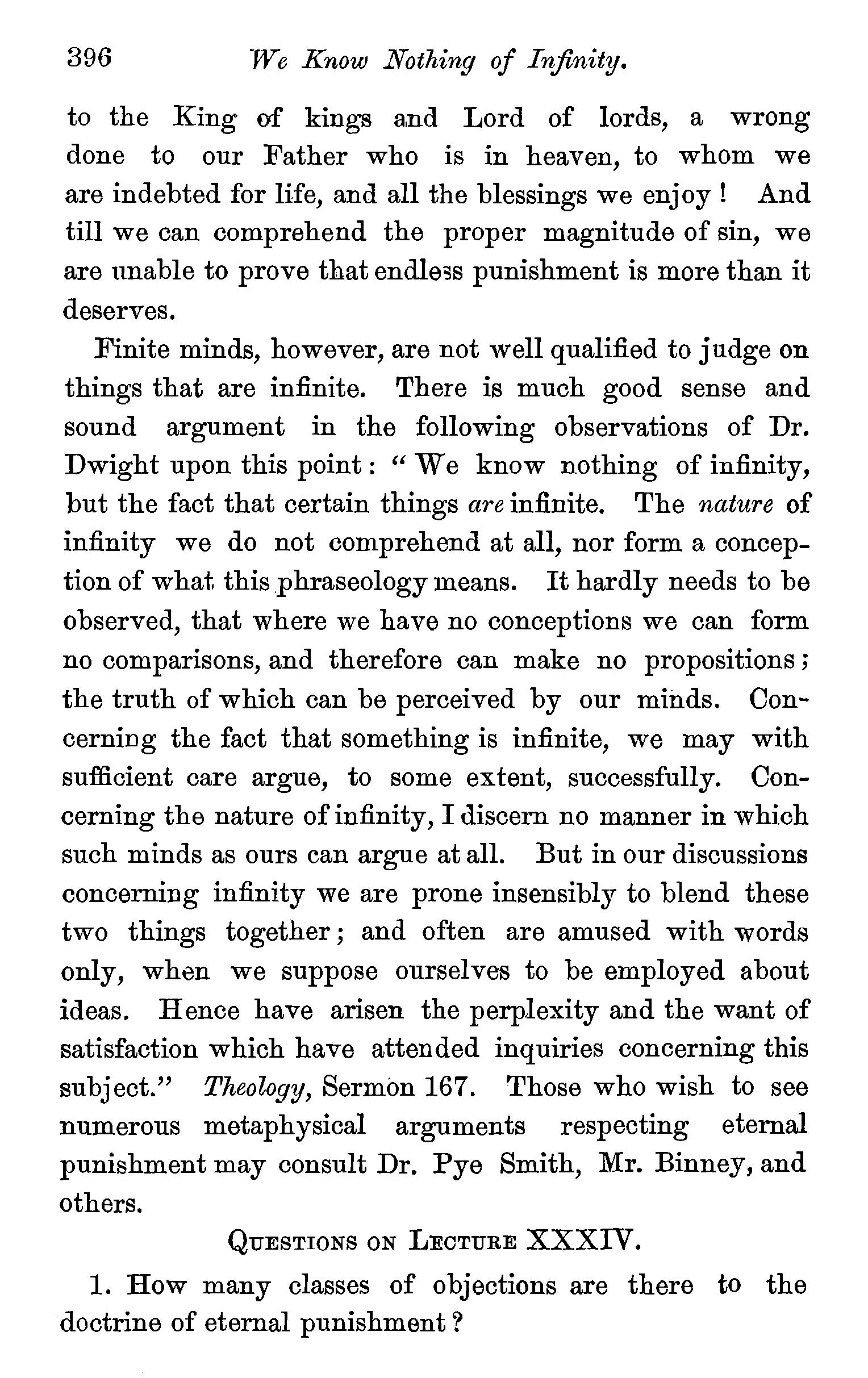
to the King of kings and Lord of lords, a wrong done to our Father who is in heaven, to whom we are indebted for life, and all the blessings we enjoy! And till we can comprehend the proper magnitude of sin, we are unable to prove that endle3s punishment is more than it deserves.
Finite minds, however, are not well qualified to judge on things that are infinite. There is much good sense and sound argument in the following observations of Dr. Dwight upon this point : " We know nothing of infinity, but the fact that certain things are infinite. The nature of infinity we do not comprehend at all, nor form a conception of what this phraseology means. It hardly needs to be observed, that where we have no conceptions we can form no comparisons, and therefore can make no propositions ; the truth of which can be perceived by our minds. Concerning the fact that something is infinite, we may with sufficient care argue, to some extent, successfully. Concerning the nature of infinity, I discern no manner in which such minds as ours can argue at all. But in our discussions concerning infinity we are prone insensibly to blend these two things together; and often are amused with words only, when we suppose ourselves to be employed about ideas. Hence have arisen the perplexity and the want of satisfaction which have attended inquiries concerning this subject." Theology, Sermon 167. Those who wish to see numerous metaphysical arguments respecting eternal punishment may consult Dr. Pye Smith, Mr. Binney, and others.
1. How many classes of objections are there to the doctrine of eternal punishment?
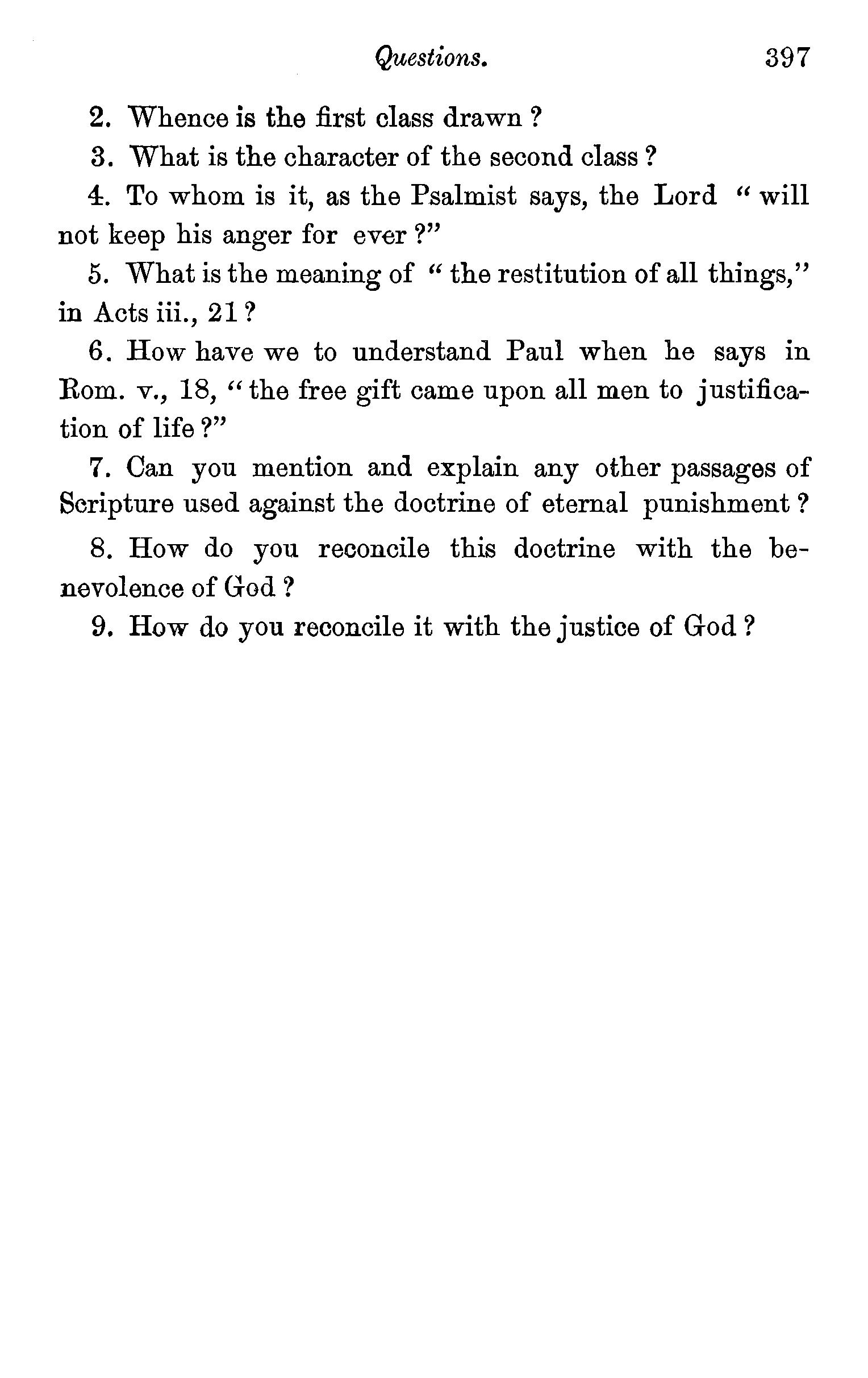
2. Whence is the first class drawn ?
3. What is the character of the second class?
4. To whom is it, as the Psalmist says, the Lord "will not keep his anger for ever ?"
5. What is the meaning of "the restitution of all things," in Acts iii., 21?
6. How have we to understand Paul when he says in Rom. v., 18, "the free gift came upon all men to justification of life ?"
7. Can you mention and explain any other passages of Scripture used against the doctrine of eternal punishment ?
8. How do you reconcile this doctrine with the benevolence of God ?
9. How do you reconcile it with the justice of God?
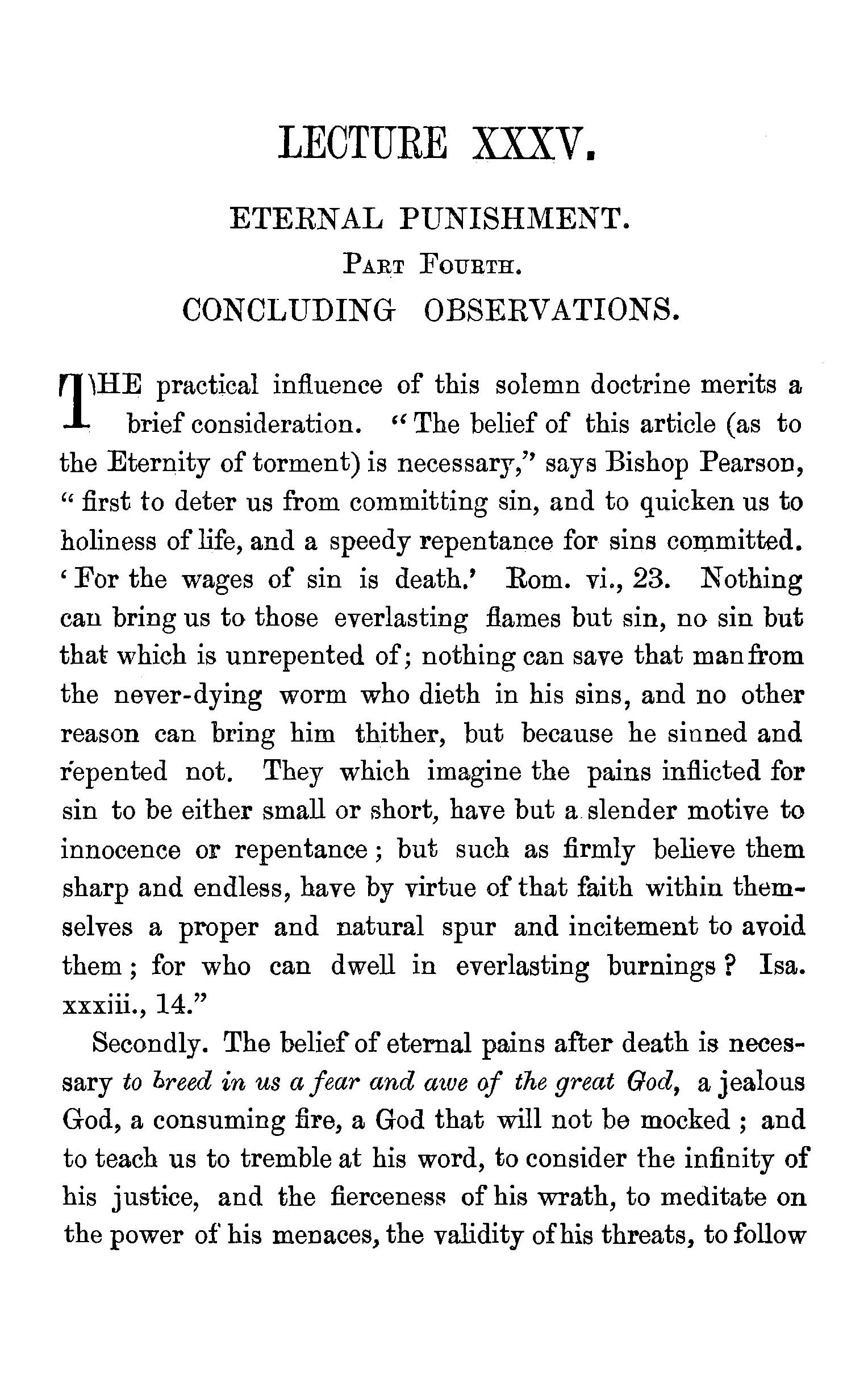
rJ1HE practical influence of this solemn doctrine merits a .l brief consideration. " The belief of this article (as to the Eternity of torment) is necessary,'' says Bishop Pearson, "first to deter us from committing sin, and to quicken us to holiness of life, and a speedy repentance for sins committed. 'For the wages of sin is death.' Rom. vi., 23. Nothing can bring us to those everlasting flames but sin, no sin but that which is unrepented of; nothing can save that man from the never-dying worm who dieth in his sins, and no other reason can bring him thither, but because he sinned and repented not. They which imagine the pains inflicted for sin to be either small or short, have but a slender motive to innocence or repentance; but such as firmly believe them sharp and endless, have by virtue of that faith within themselves a proper and natural spur and incitement to avoid them; for who can dwell in everlasting burnings? Isa. xxxiii., 14."
Secondly. The belief of eternal pains after death is necessary to breed in us a fear and awe of the great God, a jealous God, a consuming fire, a God that will not be mocked ; and to teach us to tremble at his word, to consider the infinity of his justice, and the fierceness of his wrath, to meditate on the power of his menaces, the validity of his threats, to follow

that direction, to embrace that reduplicated advice of our Saviour: "I will forewarn you whom ye shall fear: Fear him, which after he hath killed hath power to cast into heH ; Yea, I say unto you, Fear him.'' Luke xii., 5. And that exclusively of such fear as concerns the greatest pains of this life, which the martyrs undervalued out of a belief of eternal torments.
Thirdly. This belief is necessary to teach us to make a fit estimctte of the price of Christ's blood, to value sufficiently the work of our Redtmption, to acknowledge and admire the love of God to us in Ghrist. For he who believeth not the eternity of torments to come can never sufficiently value that ransom by which we were redeemed from them, or be proportionately thankful to his Redeemer, by whose intervention we have escaped them. Whereas he who is sensible of the loss of heaven, and the everlasting privation of the presence of God, of the torments of fire, the company of the devil and his angels, the vials of the wrath of an angry and never-to-be appeased God, and hopeth to escape ali these by virtue of the death of his Redeemer, cannot but highly value the price of that blood, and be proportionately thankful for so ''plenteous redemption." Psalm cxxx., 7. And as this doctrine is one of the doctrines of Scripture, and one, as we have just see:r;i,of great prac.tical importance, it ought to be clearly and faithfully preached; and should never be kept back through fear of giving offence or of raising opposition against our ministry. On this point Dr. Chalmers gives some sage and wholesome counsel to his theobgical students : " On the subject of the eternity of future punishment I do not want you to hold the language of a stern dogmatist : but sure I am that the. cause of practical religion will suffer greatly in your hands if you gloss over or reduce the plain
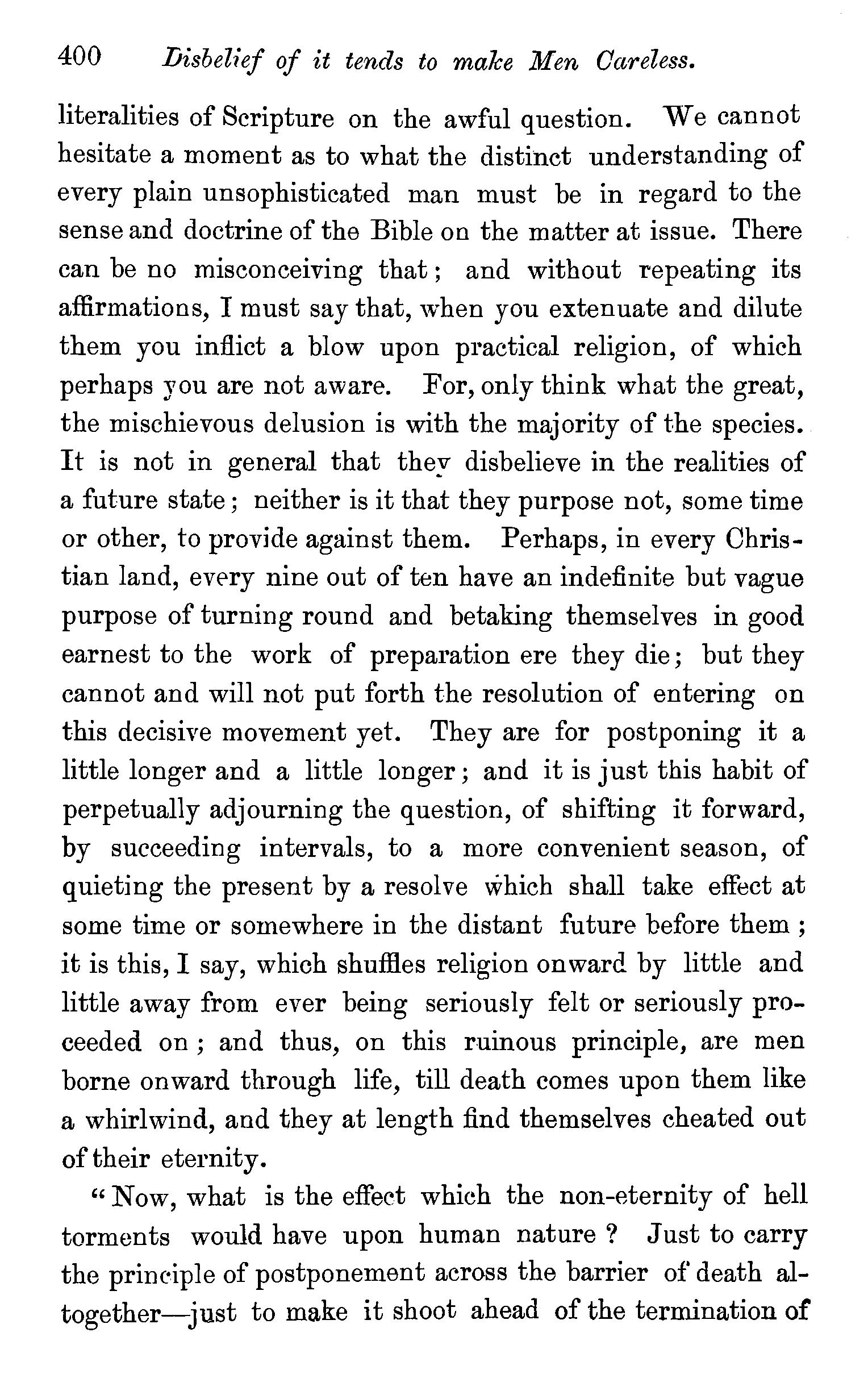
400 Disbelief of it tends to malce Men Careless.
literalities of Scripture on the awful question. We cannot hesitate a moment as to what the distinct understanding of every plain unsophisticated man must be in regard to the sense and doctrine of the Bible on the matter at issue. There can be no misconceiving that ; and without repeating its affirmations, I must say that, when you extenuate and dilute them you inflict a blow upon practical religion, of which perhaps you are not aware. For, only think what the great, the mischievous delusion is with the majority of the species. It is not in general that they disbelieve in the realities of a future state; neither is it that they purpose not, some time or other, to provide against them. Perhaps, in every Christian land, every nine out of ten have an indefinite but vague purpose of turning round and betaking themselves in good earnest to the work of preparation ere they die; but they cannot and will not put forth the resolution of entering on this decisive movement yet. They are for postponing it a little longer and a little longer; and it is just this habit of perpetually adjourning the question, of shifting it forward, by succeeding intervals, to a more convenient season, of quieting the present by a resolve which shall take effect at some time or somewhere in the distant future before them; it is this, I say, which shufHes religion onward. by little and little away from ever being seriously felt or seriously proceeded on; and thus, on this ruinous principle, are men borne onward through life, till death comes upon them like a whirlwind, and they at length find themselves cheated out of their eternity.
"Now, what is the effect which the non-eternity of hell torments would have upon human nature? Just to carry the principle of postponement across the barrier of death altogether-just to make it shoot ahead of the termination of
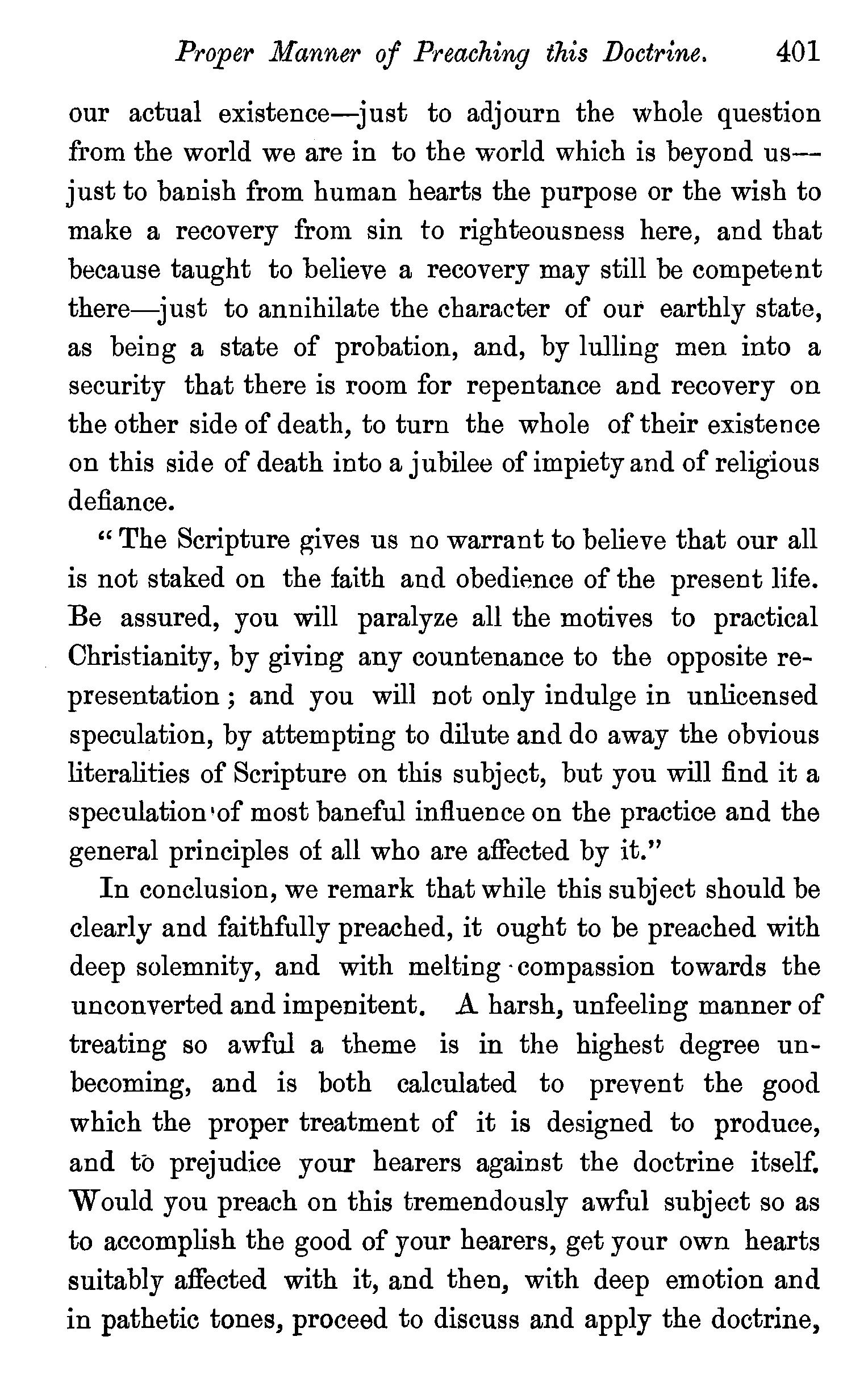
our actual existence-just to adjourn the whole question from the world we are in to the world which is beyond usjust to banish from human hearts the purpose or the wish to make a recovery from sin to righteousness here, and that because taught to believe a recovery may still be competent there-just to annihilate the character of our earthly state, as being a state of probation, and, by lulling men into a security that there is room for repentance and recovery on the other side of death, to turn the whole of their existence on this side of death into a jubilee of impiety and of religious defiance.
"The Scripture gives us no warrant to believe that our all is not staked on the faith and obedience of the present life. Be assured, you will paralyze all the motives to practical Christianity, by giving any countenance to the opposite representation ; and you will not only indulge in unlicensed speculation, by attempting to dilute and do away the obvious literalities of Scripture on this subject, but you will find it a speculation 1of most baneful influence on the practice and the general principles of all who are affected by it."
In conclusion, we remark that while this subject should be clearly and faithfully preached, it ought to be preached with deep solemnity, and with melting •compassion towards the unconverted and impenitent. A harsh, unfeeling manner of treating so awful a theme is in the highest degree unbecoming, and is both calculated to prevent the good which the proper treatment of it is designed to produce, and to prejudice your hearers against the doctrine itself. Would you preach on this tremendously awful subject so as to accomplish the good of your hearers, get your own hearts suitably affected with it, and then, with deep emotion and in pathetic tones, proceed to discuss and apply the doctrine,
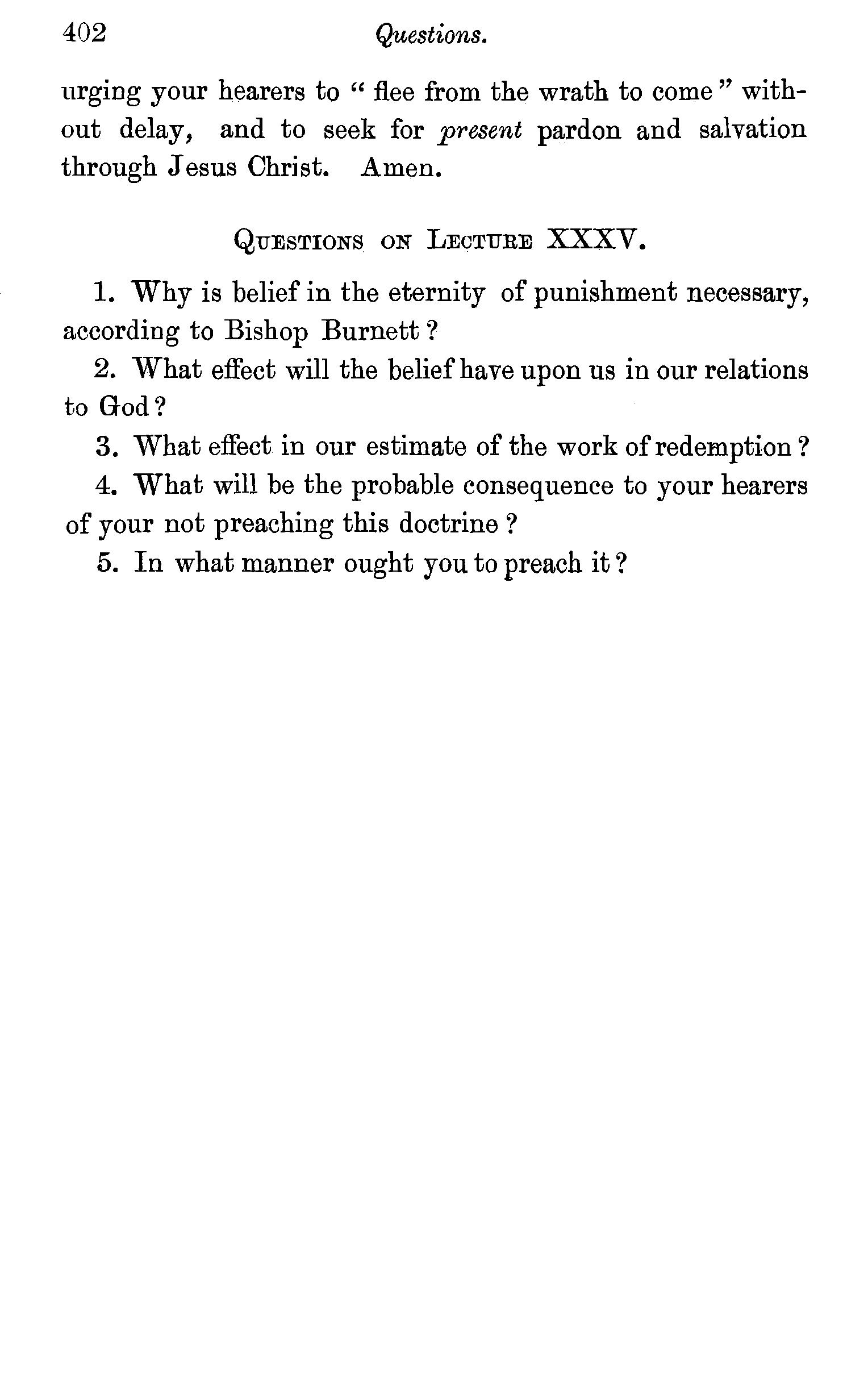
urging your hearers to "flee from the wrath to come" without delay, and to seek for present pardon and salvation through Jesus Christ. Amen.
1. Why is belief in the eternity of punishment necessary, according to Bishop Burnett ?
2. What effect will the belief have upon us in our relations to God?
3. What effect in our estimate of the work of redemption?
4. What will be the probable consequence to your hearers of your not preaching this doctrine ?
5. In what manner ought you to preach it?
1. History of the Primitive Methodist Connexion. Extra cloth, 5s.
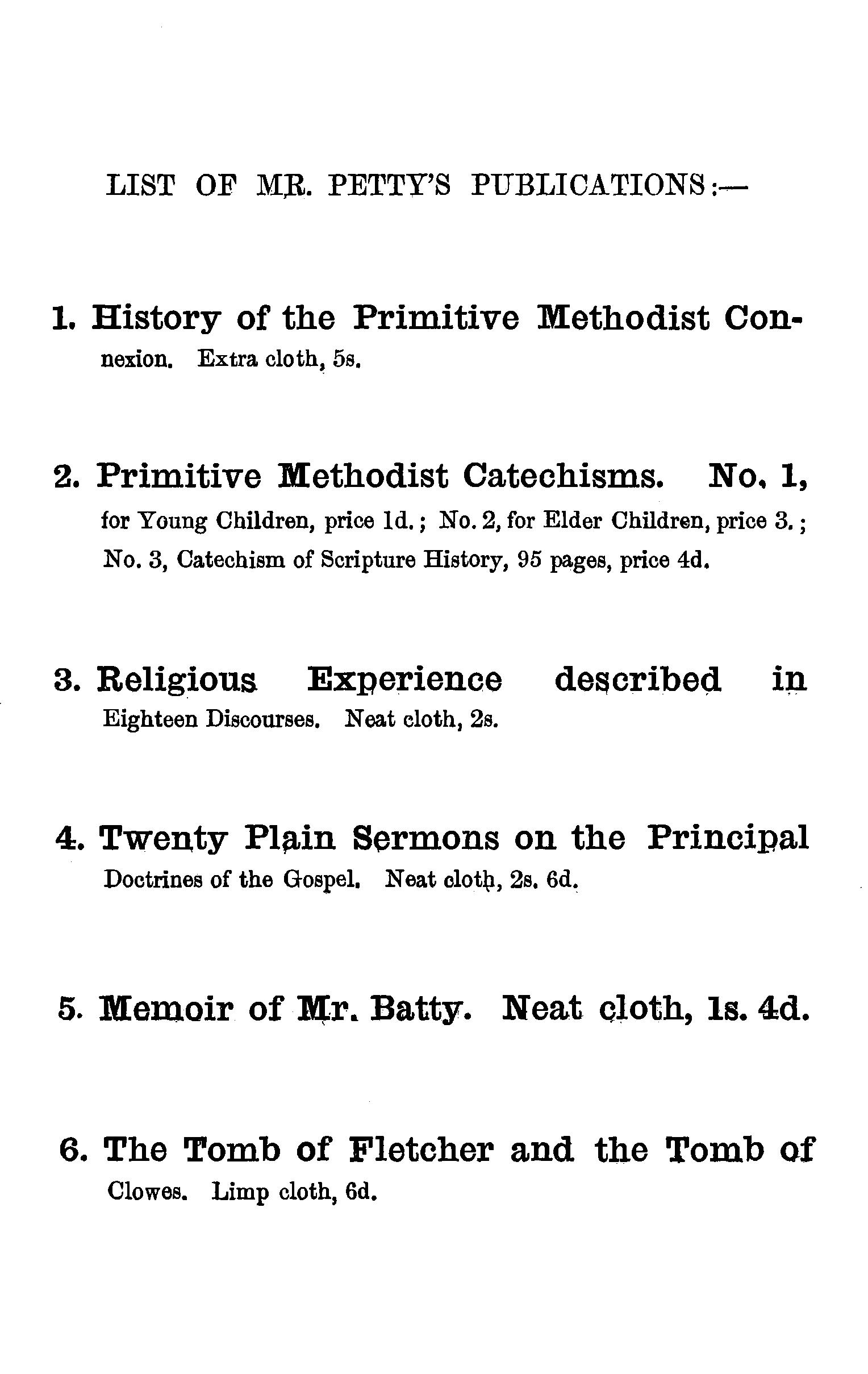
2. Primitive Methodist Catechisms. No. 1, for Young Children, price Id.; No. 2, for Elder Childr1m,price 3.; No. 3, Catechism of Scripture History, 95 pages, price 4d.
3. Religious Experience de~cribed i11 Eighteen Discourses. Neat cloth, 2s.
4. Twenty Plti,in Sermons on the Principal Doctrines of the Gospel, Neat clotti, 2s. 6d.
5. Memoir of •r ..Batty. Neat cloth, Is. 4d.
6. The Tomb of Fletcher and the Tomb of Clowes. Limp cloth, 6d.
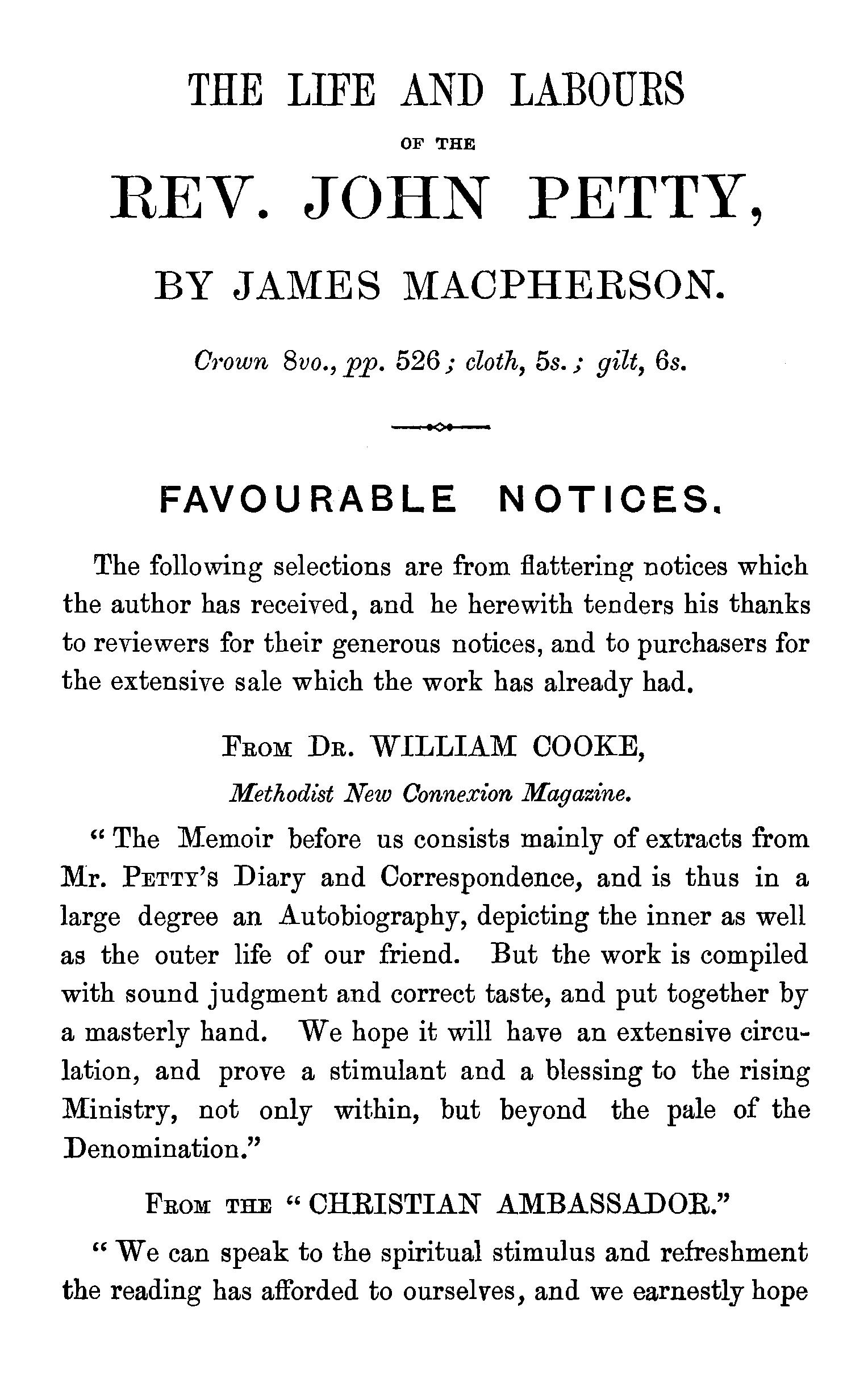
BY JAMES MACPHERSON.
01·own 8vo., pp. 526; cloth, 5s.; gilt, 6s.
The following selections are from flattering notices which the author has received, and he herewith tenders his thanks to reviewers for their generous notices, and to purchasers for the extensive sale which the work has already had.
"The Memoir before us consists mainly of extracts from Mr. PETTY'S Diary and Correspondence, and is thus in a large degree an Autobiography, depicting the inner as well as the outer life of our friend. But the work is compiled with sound judgment and correct taste, and put together by a masterly hand. We hope it will have an extensive circulation, and prove a stimulant and a blessing to the rising Ministry, not only within, but beyond the pale of the Denomination."
" We can speak to the spiritual stimulus and refreshment the reading has afforded to ourselves, and we earnestly hope

Under the auspices of B. L. Fisher Library, First Fruits Press is an online publishing arm of Asbury eological Seminary. e goal is to make academic material freely available to scholars worldwide, and to share rare and valuable resources that would not otherwise be available for research. First Fruits publishes in ve distinct areas: heritage materials, academic books, papers, books, and journals.
In the Journals section, back issues of The Asbury Journal will be digitized and so made available to a global audience. At the same time, we are excited to be working with several facultymembersondevelopingprofessional,peer-reviewed,onlinejournalsthatwouldbe made freely available.
Much of this endeavor is made possible by the recent gift of the Kabis III scanner, one of the best available. The scanner can produce more than 2,900 pages an hour and features a special book cradle that is speci cally designed to protect rare and fragile materials. The materials it produces will be available in ebook format, easy to download and search.
First Fruits Press will enable the library to share scholarly resources throughout the world, provide faculty with a platform to share their own work and engage scholars without the di culties often encountered by print publishing. All the material will be freely available for online users, while those who wish to purchase a print copy for their libraries will be able to do so. First Fruits Press is just one way the B. L. Fisher Library is ful lling the global vision of Asbury Theological Seminary to spread scriptural holiness throughout the world.


